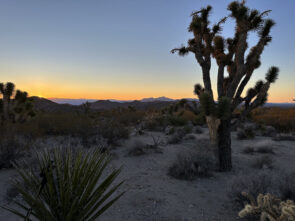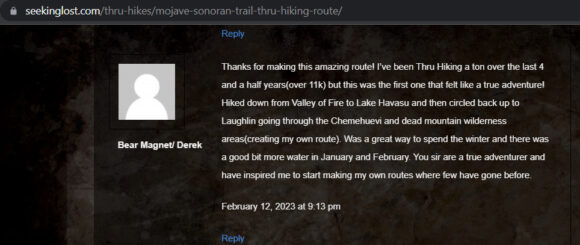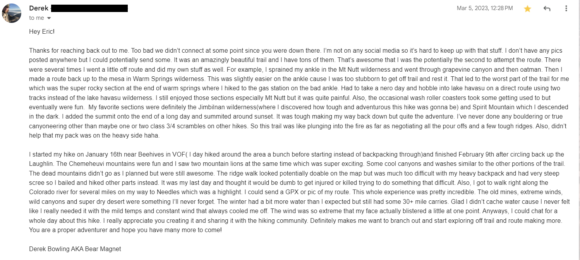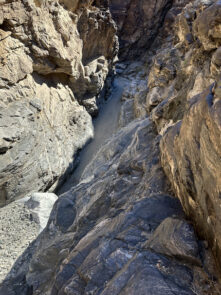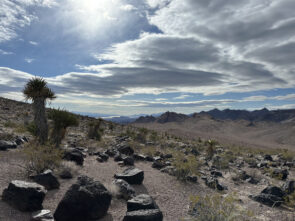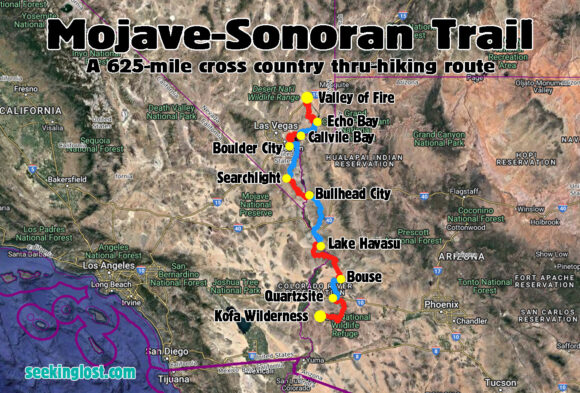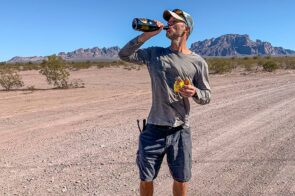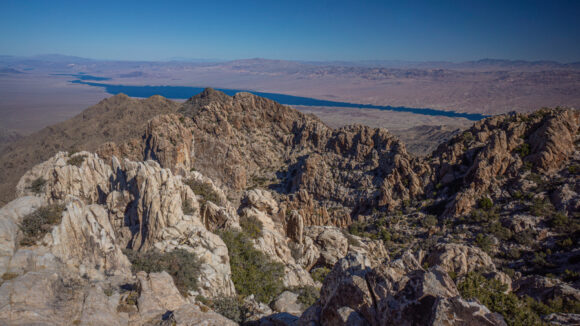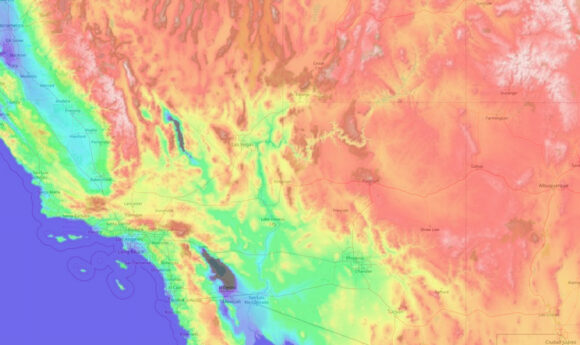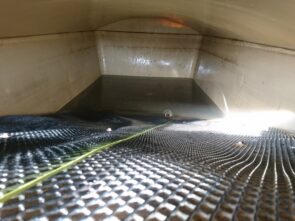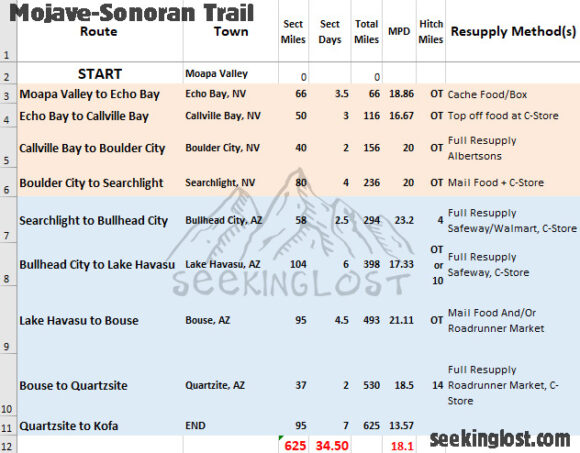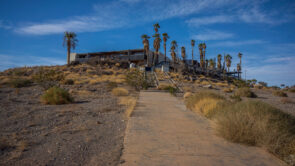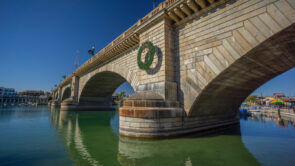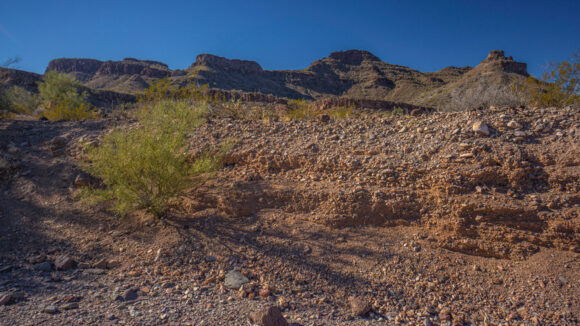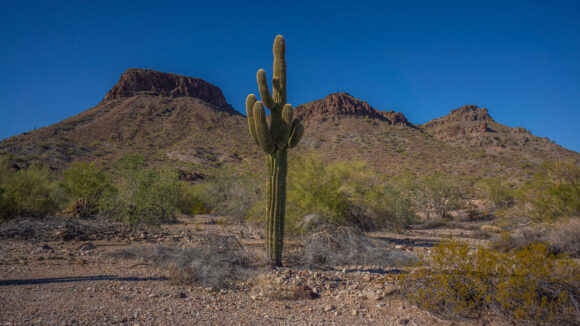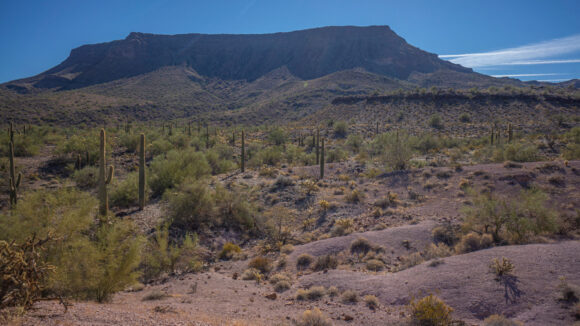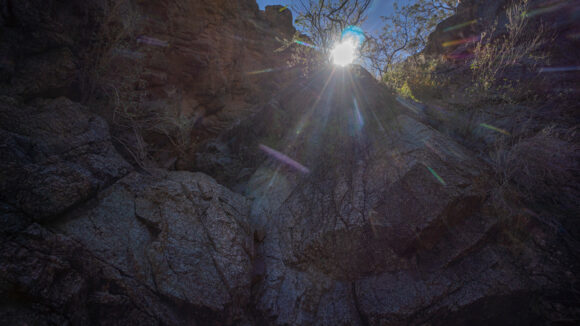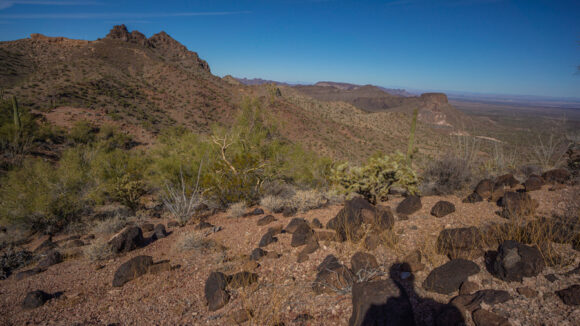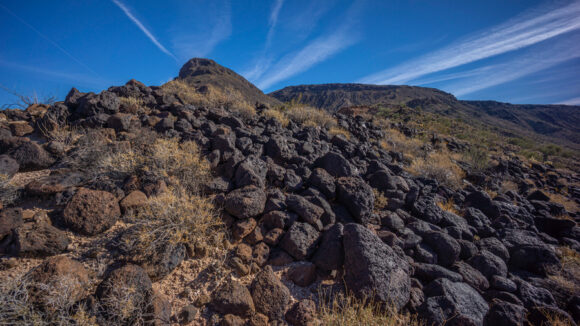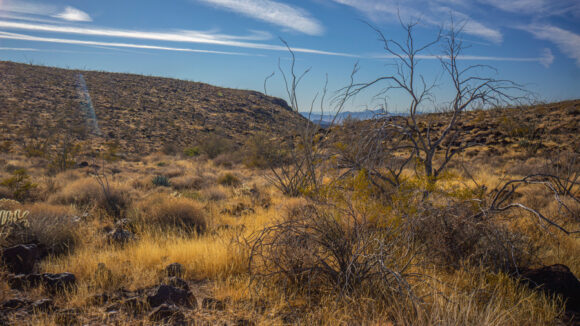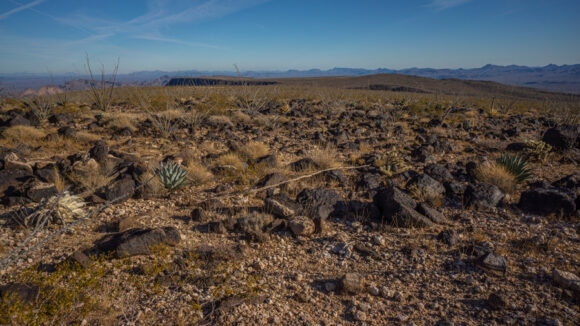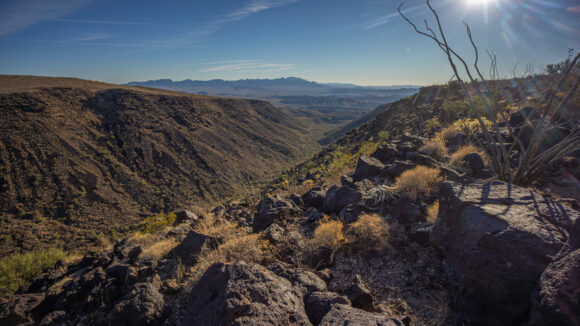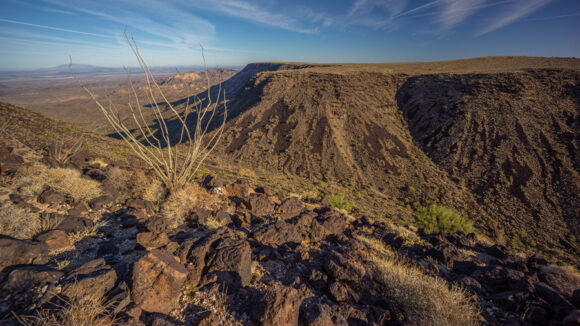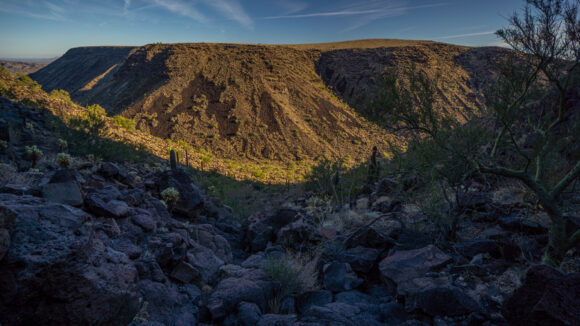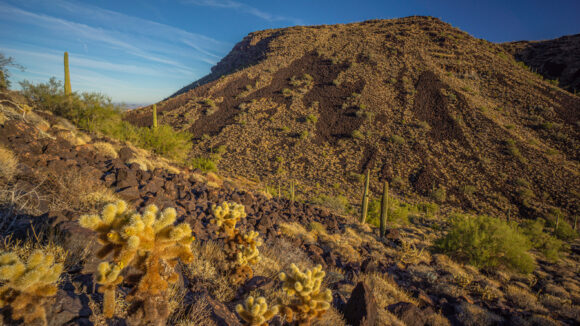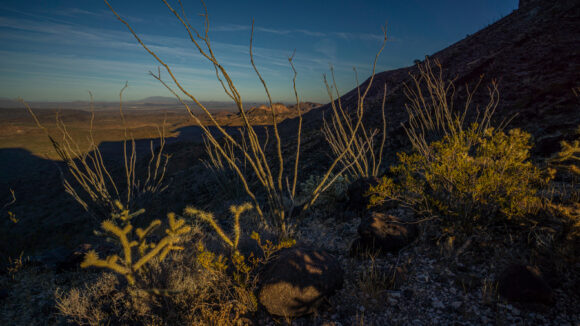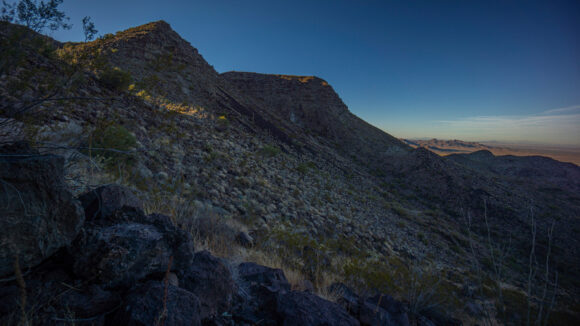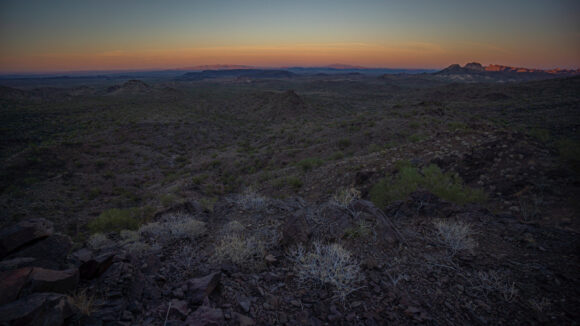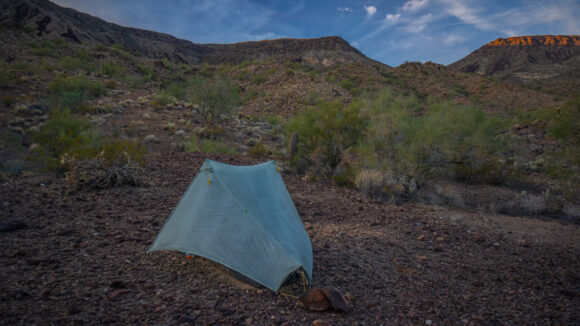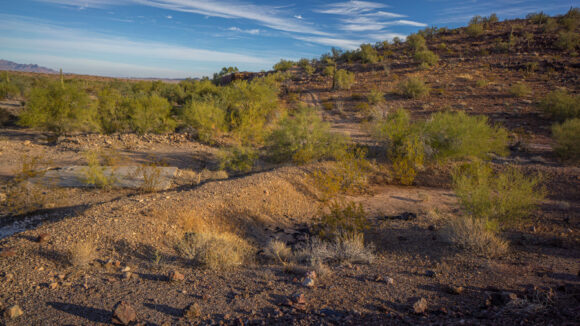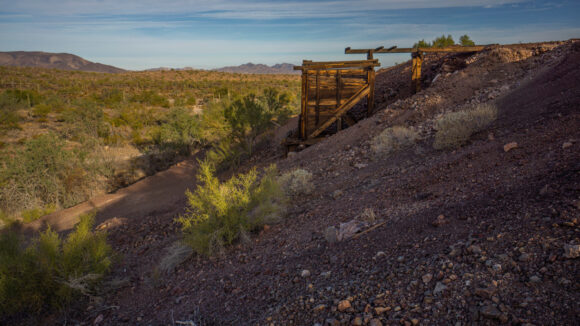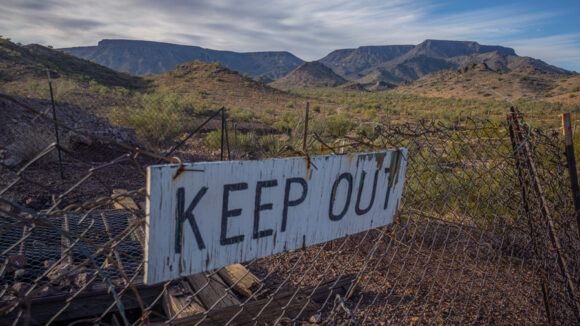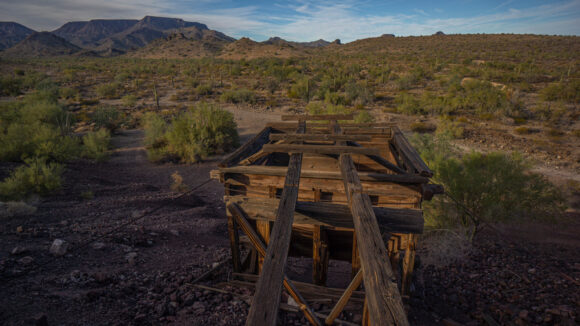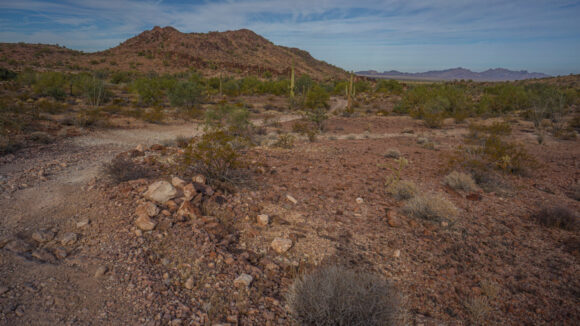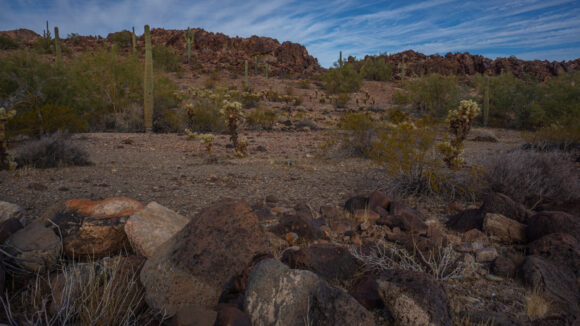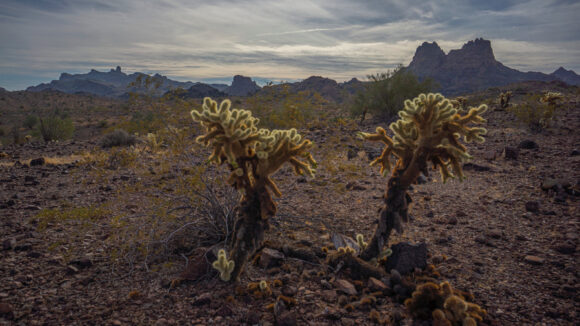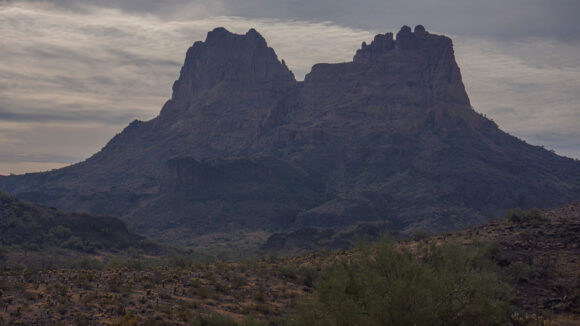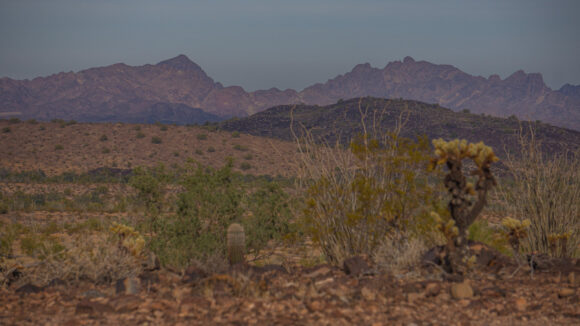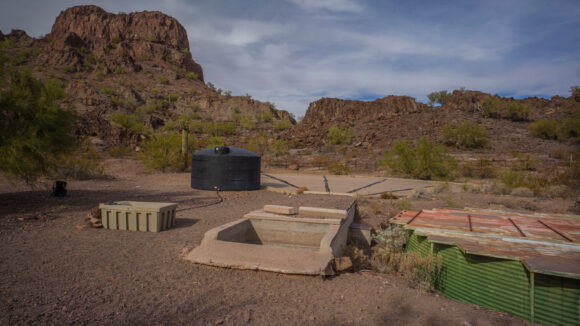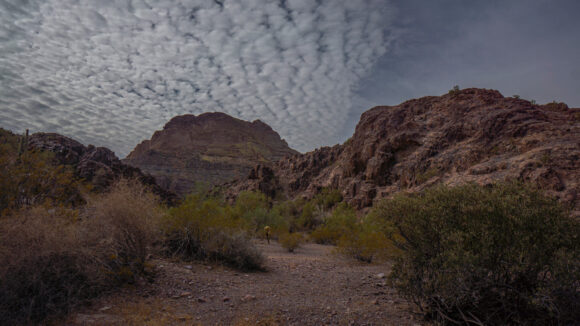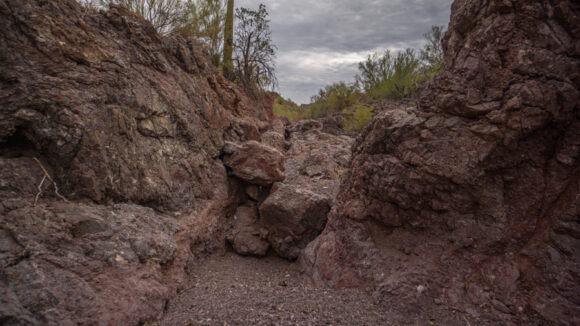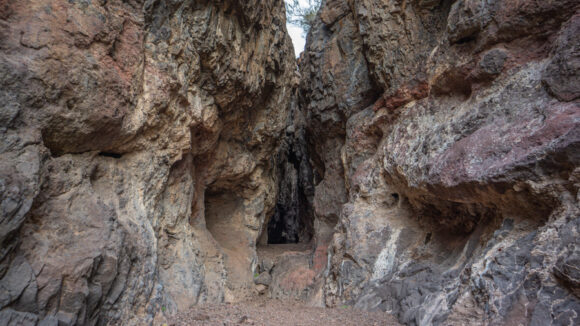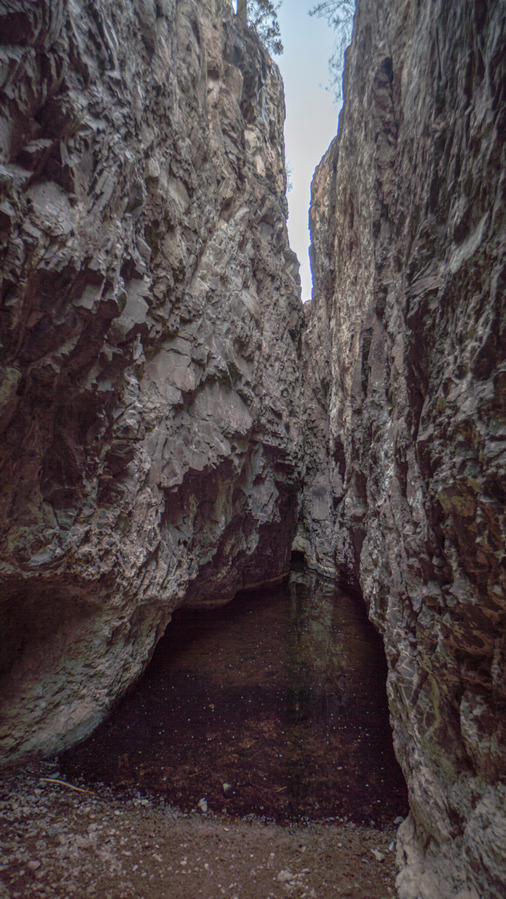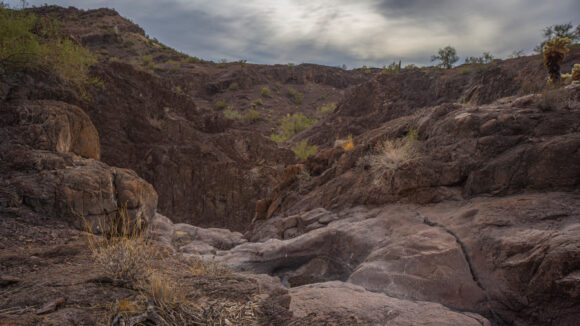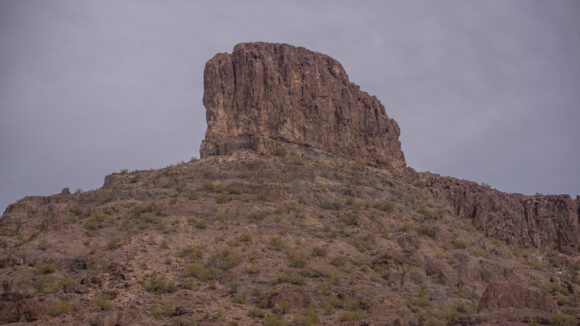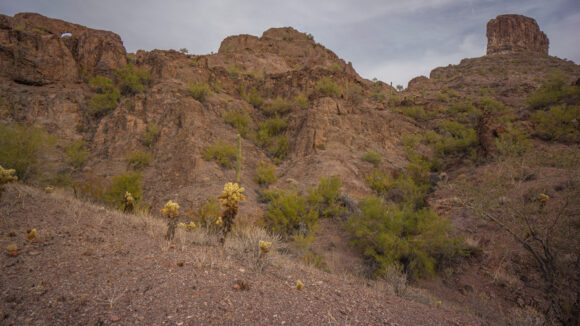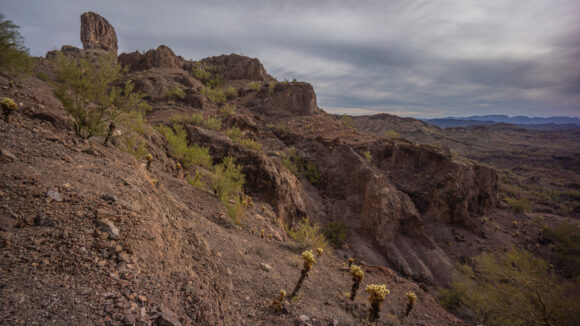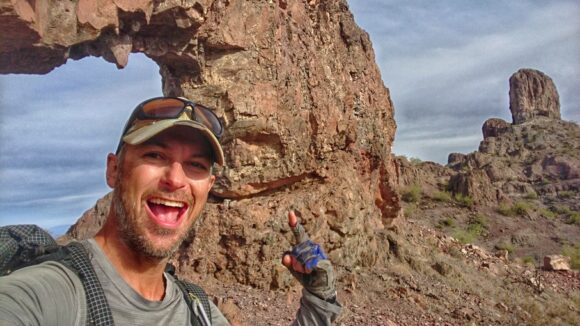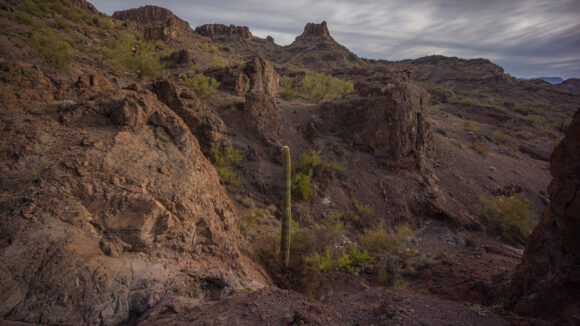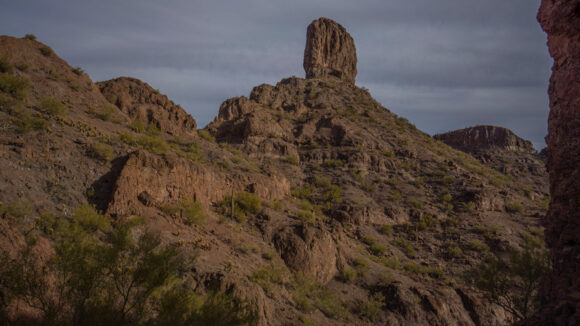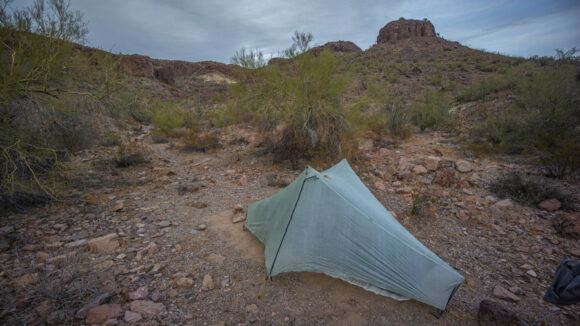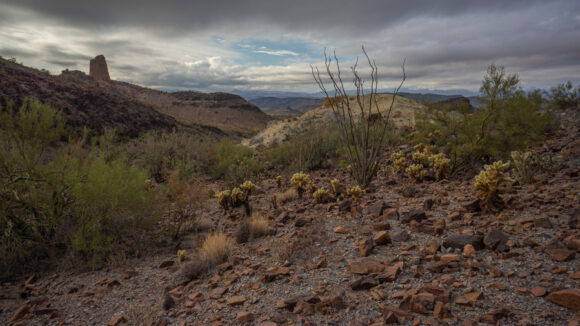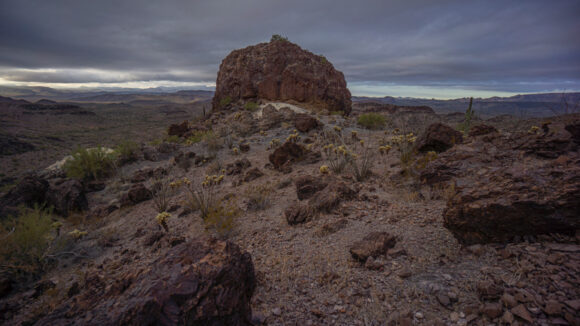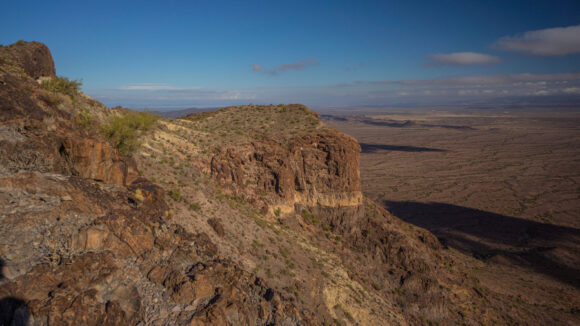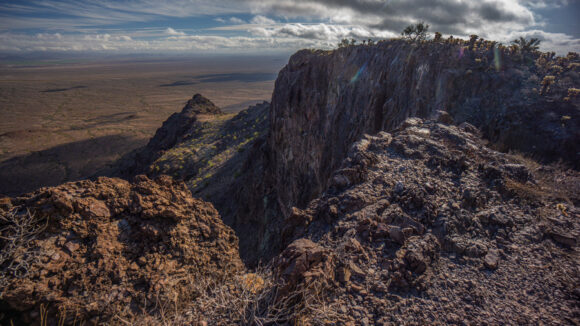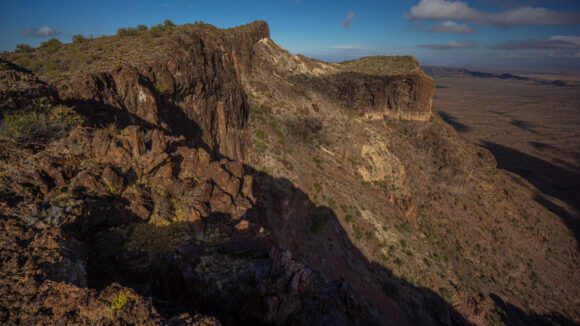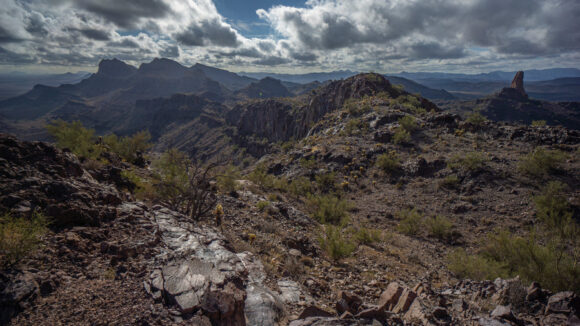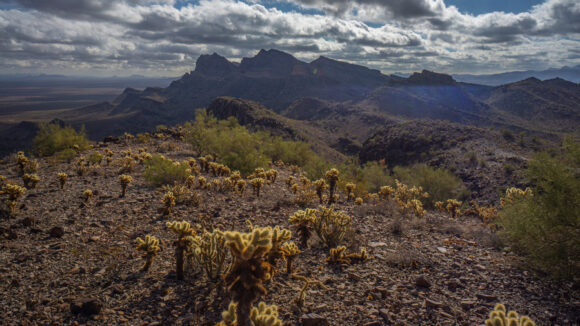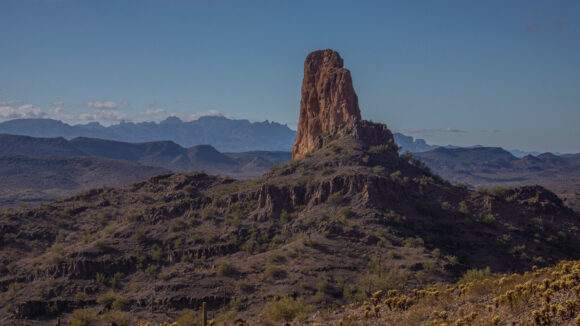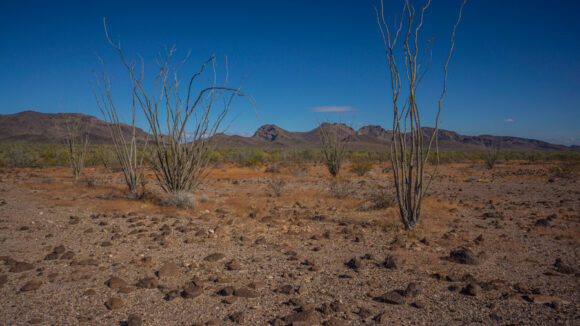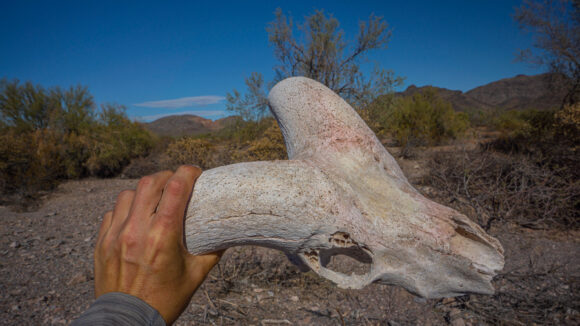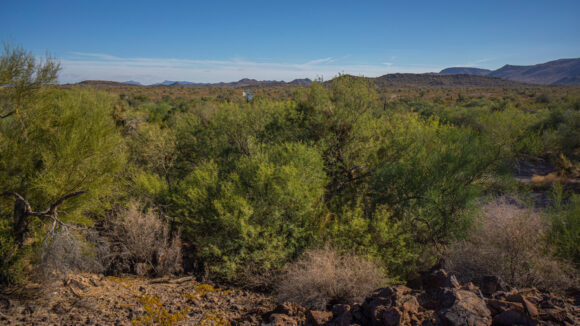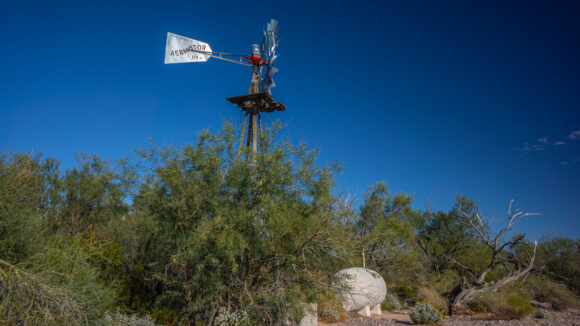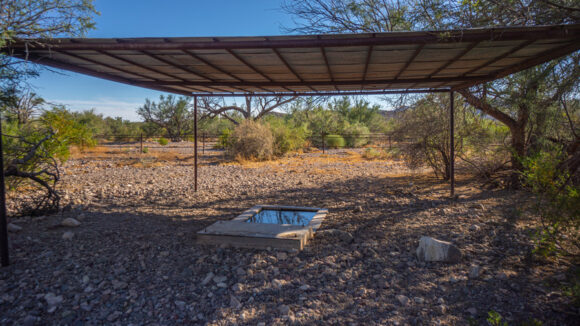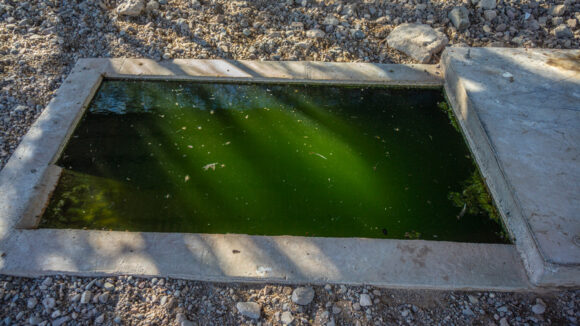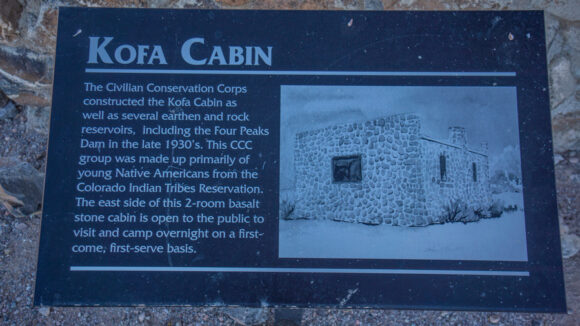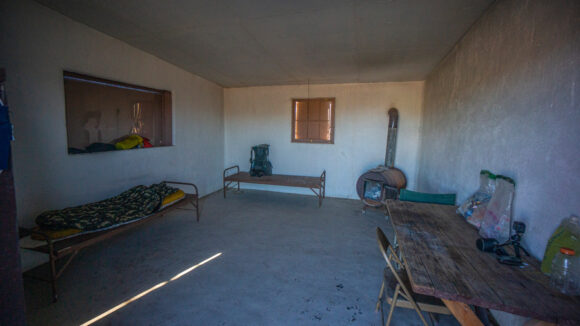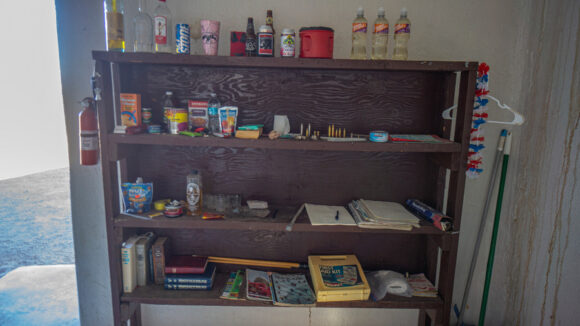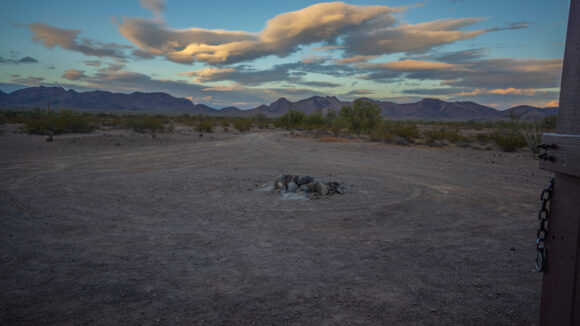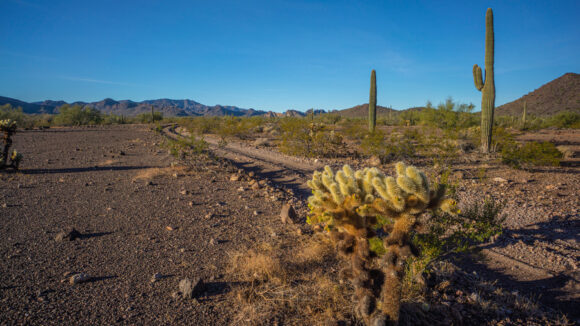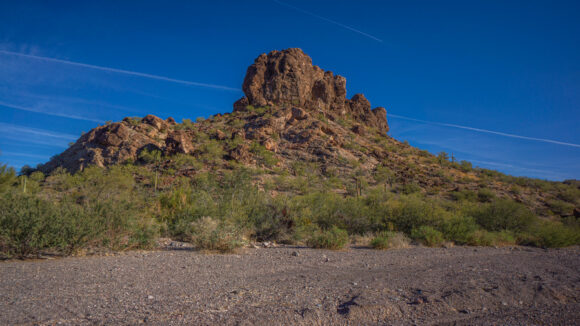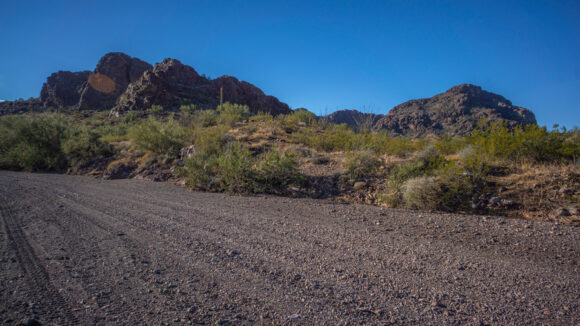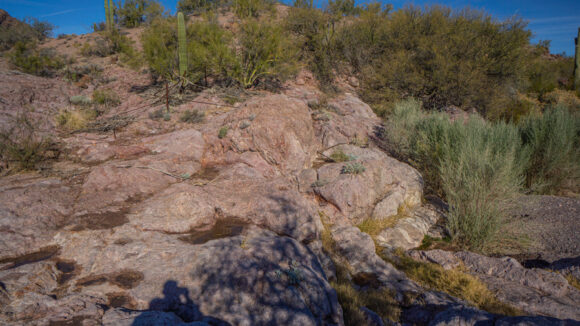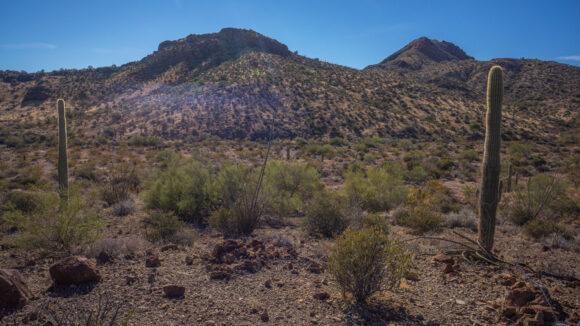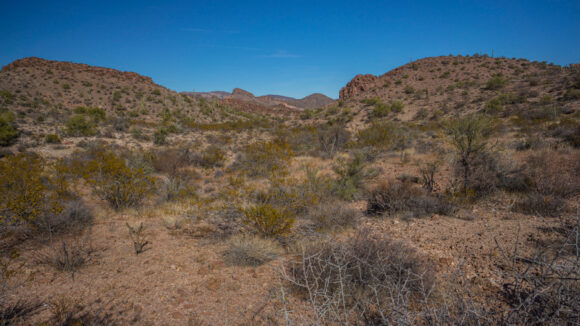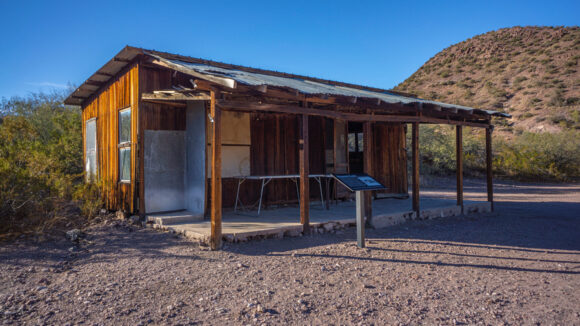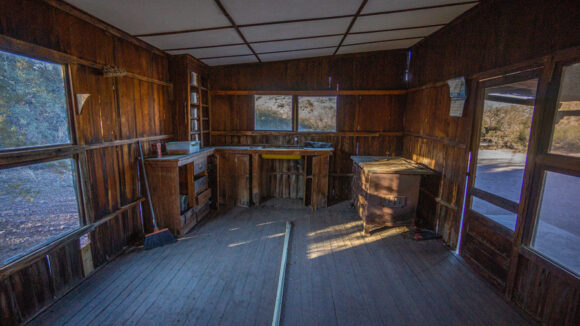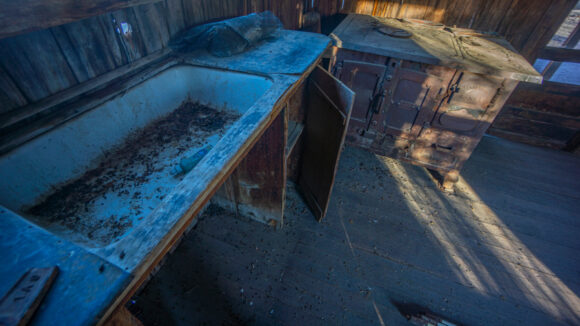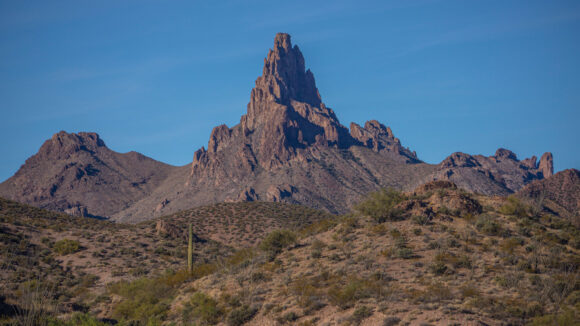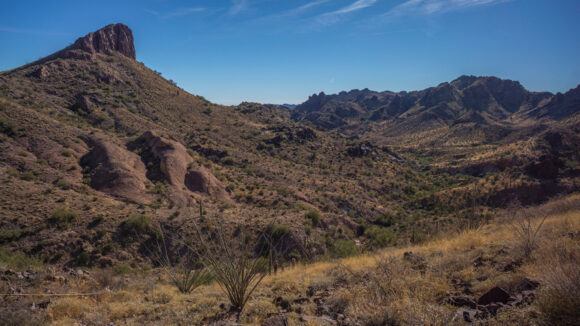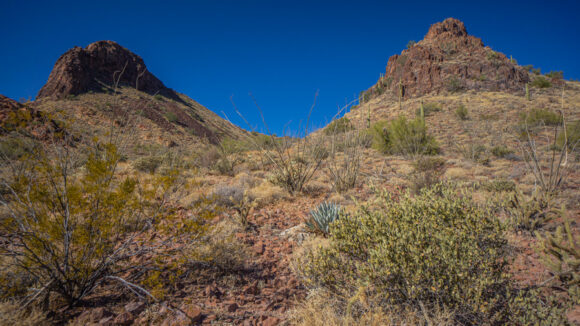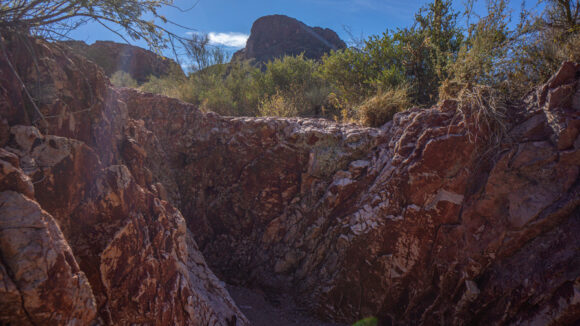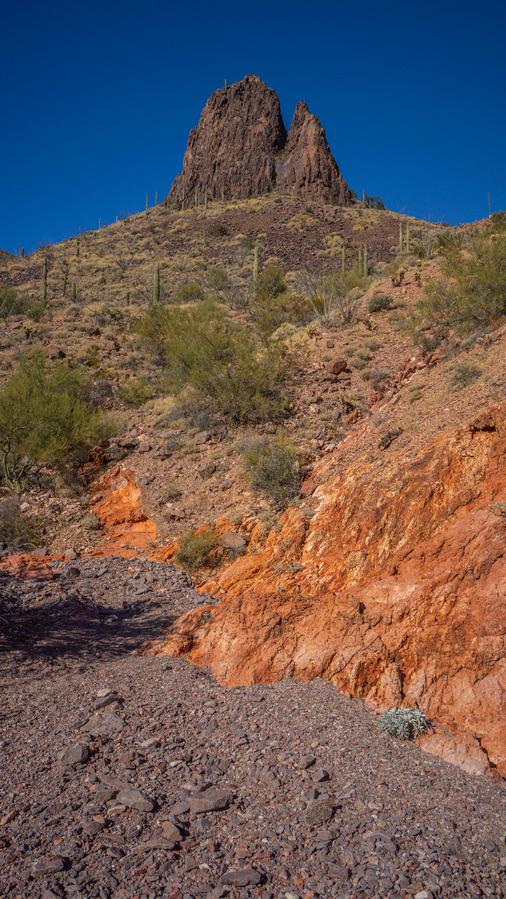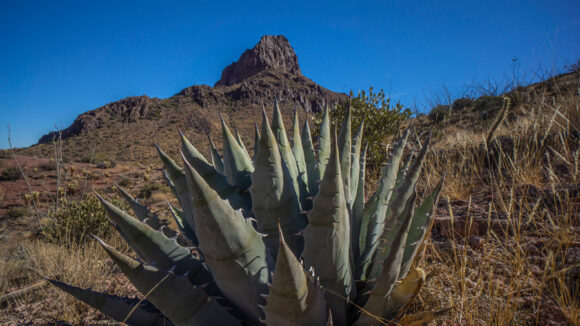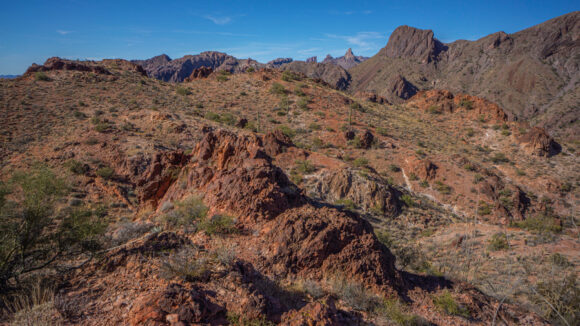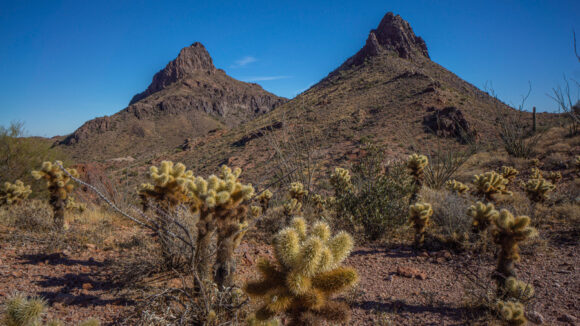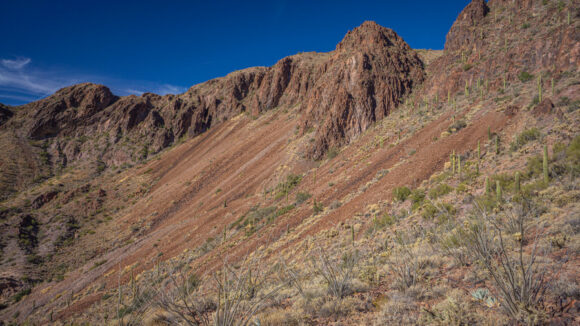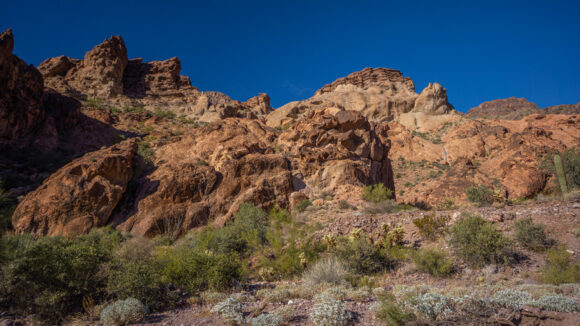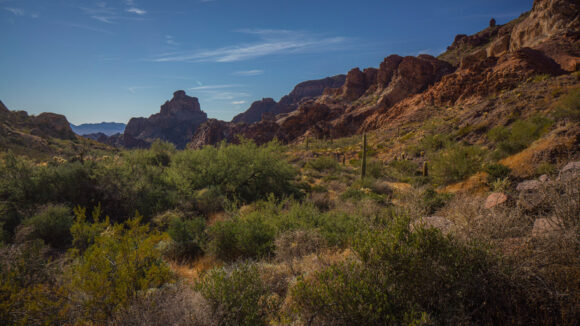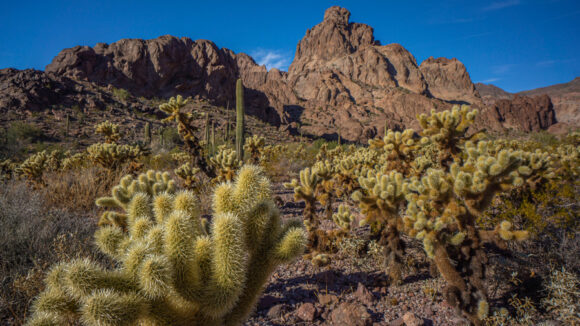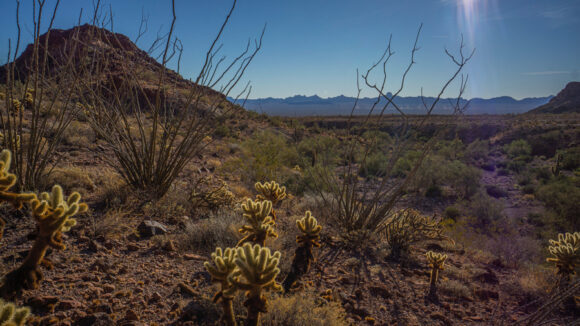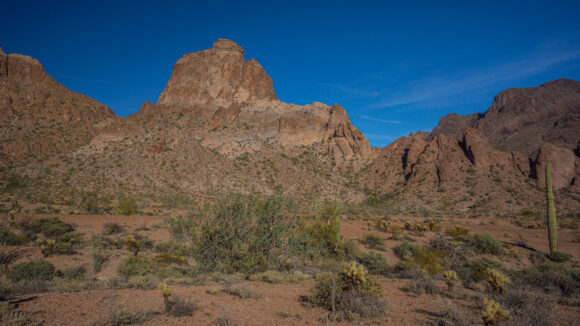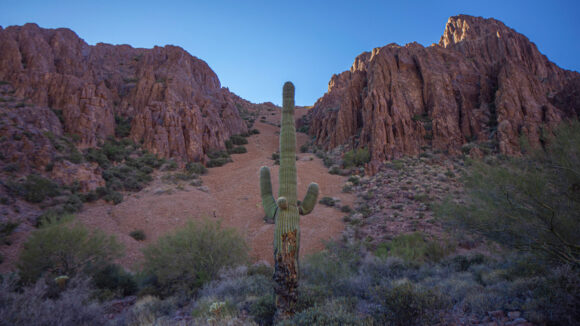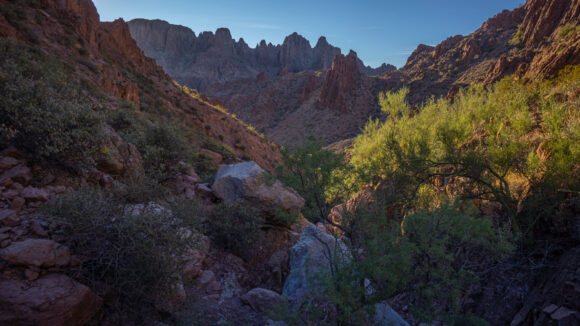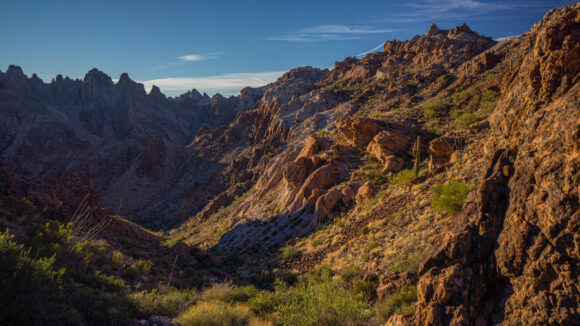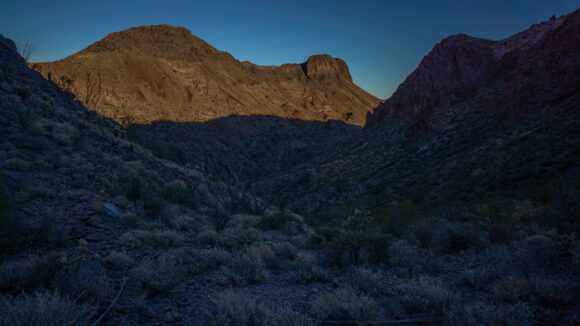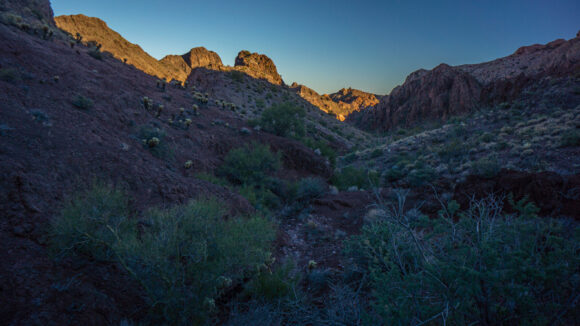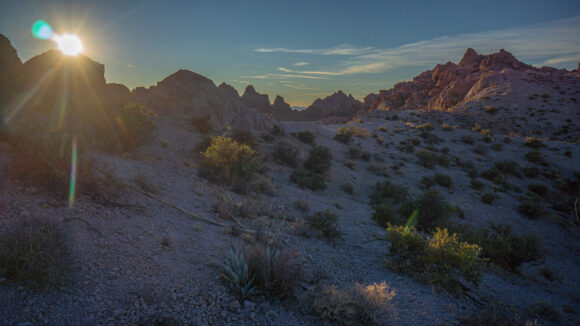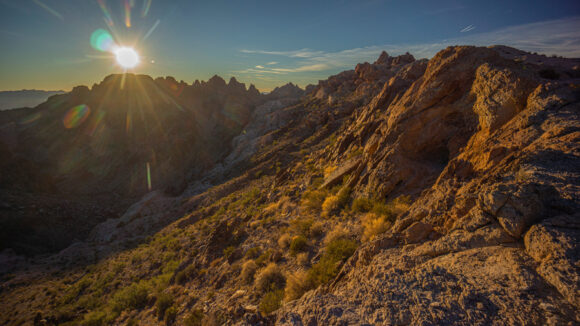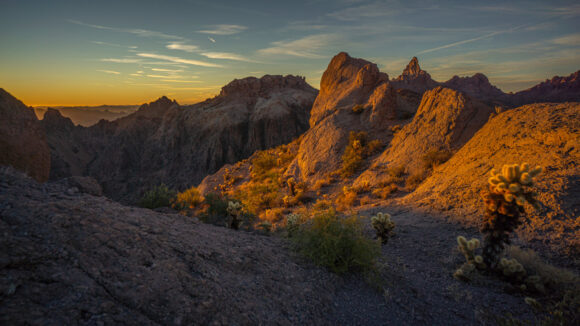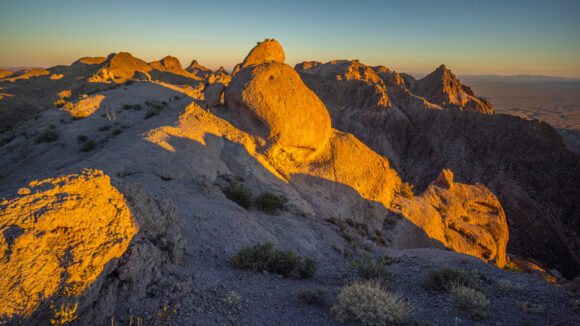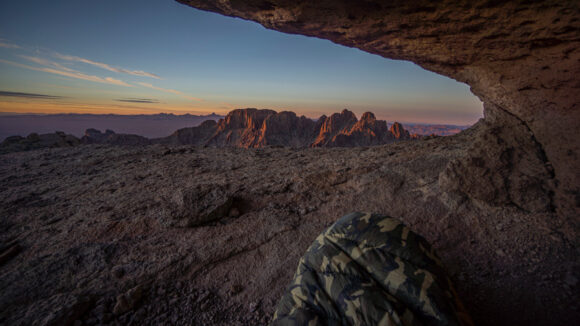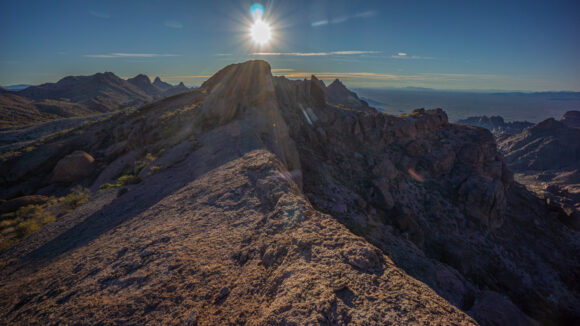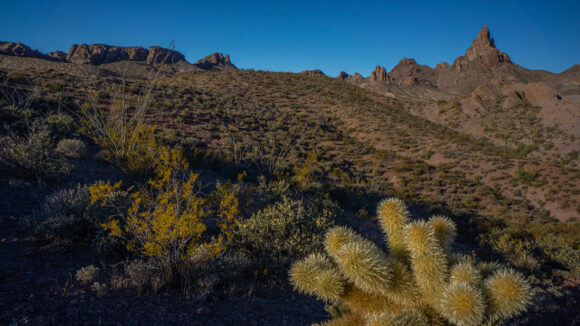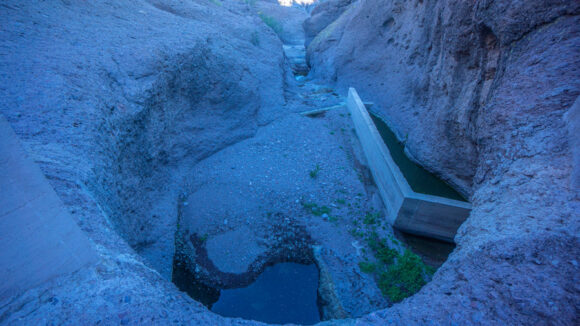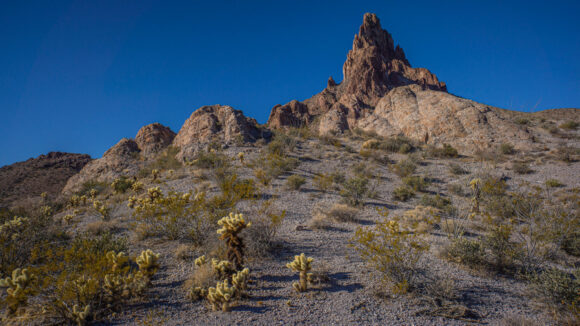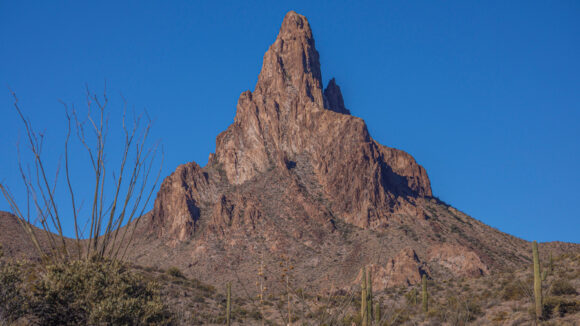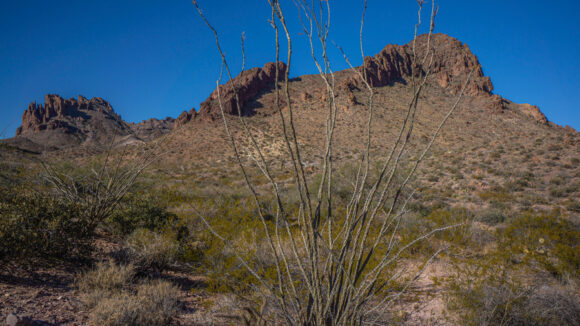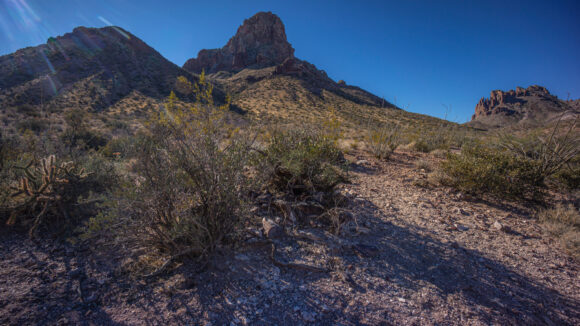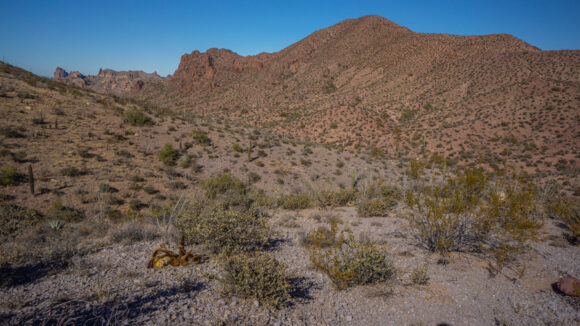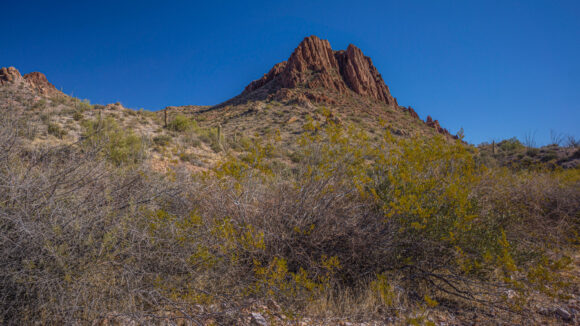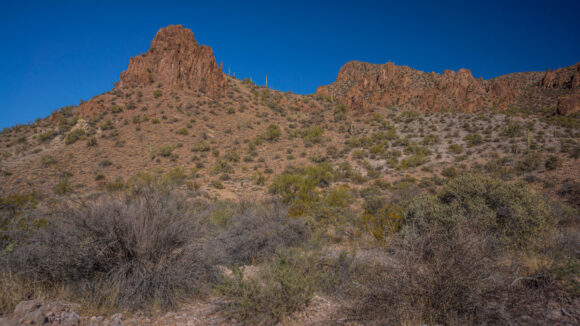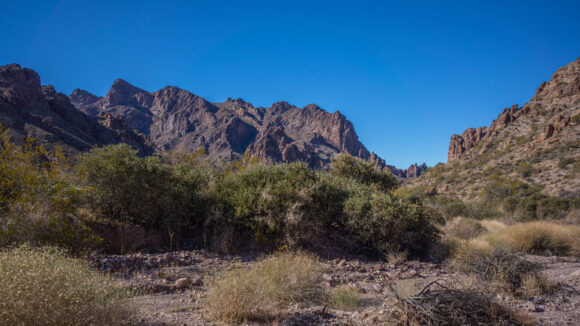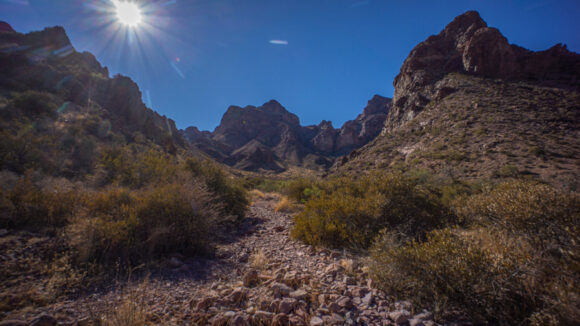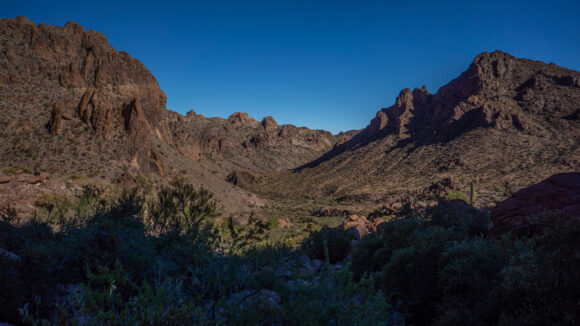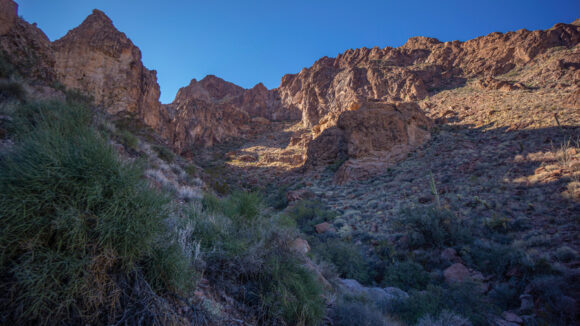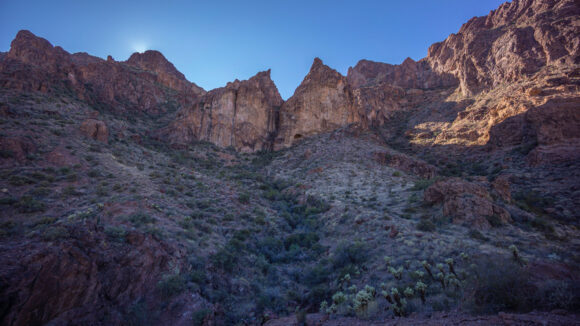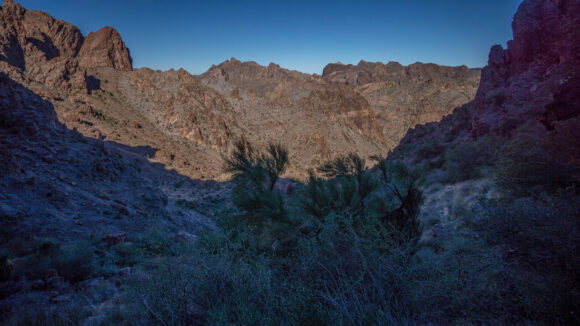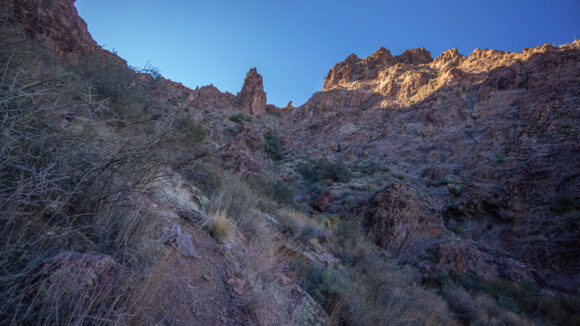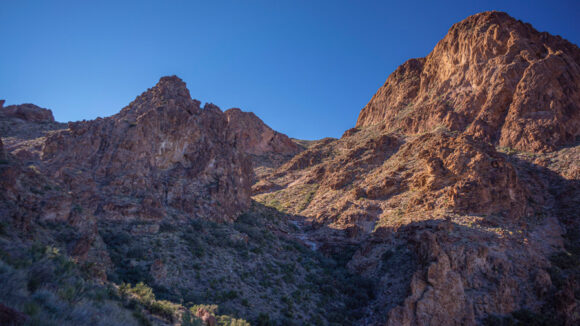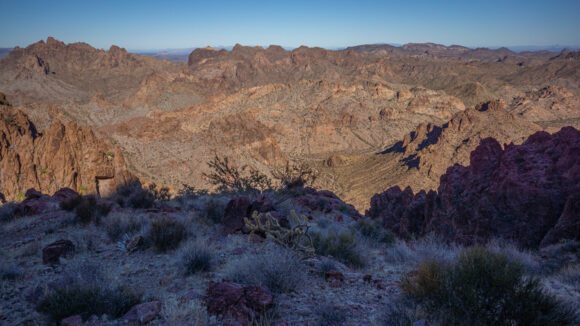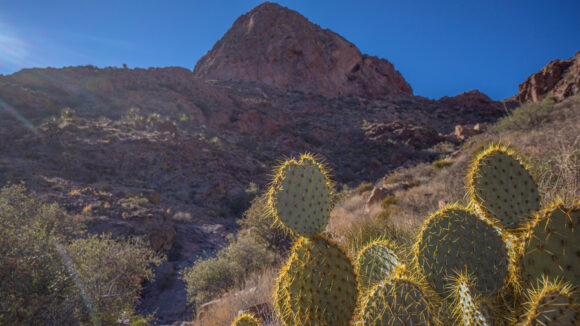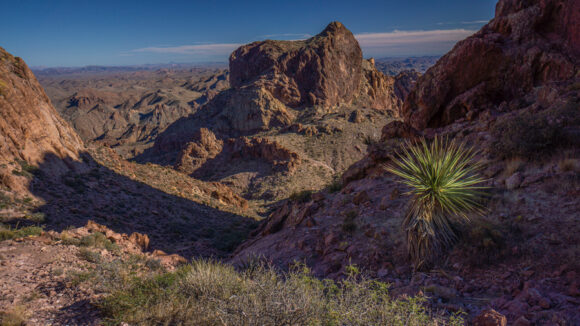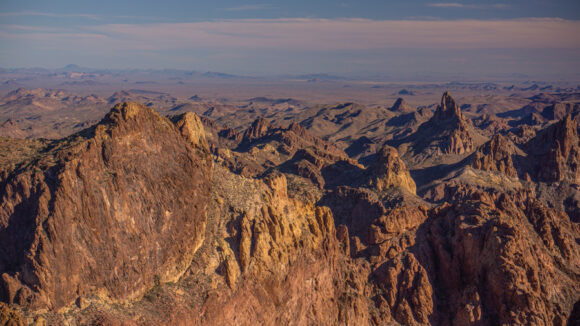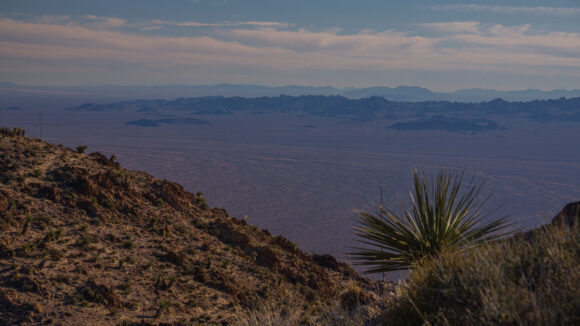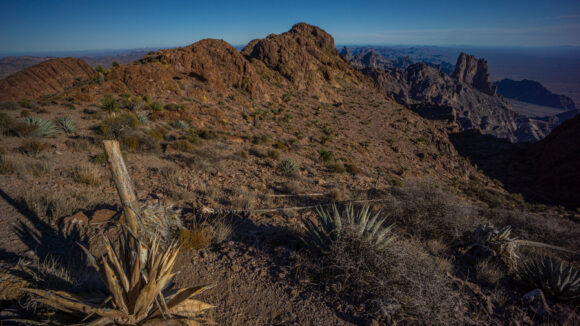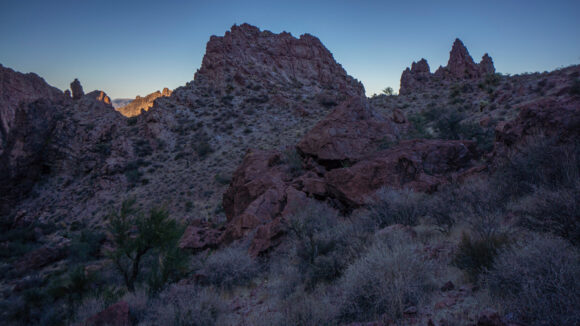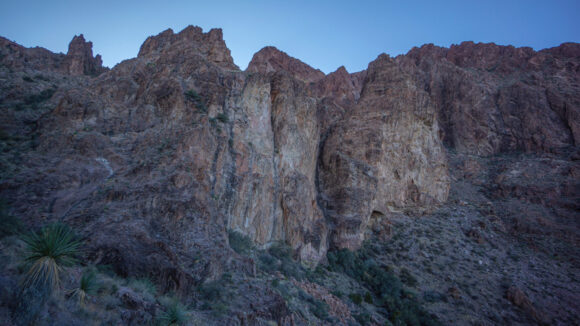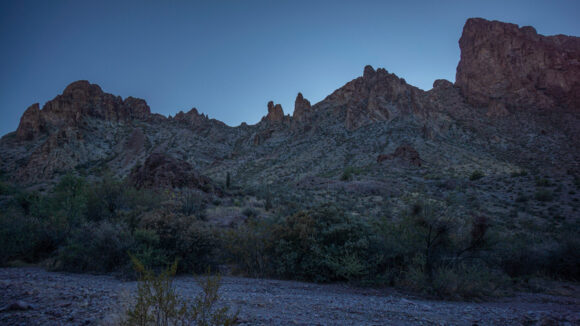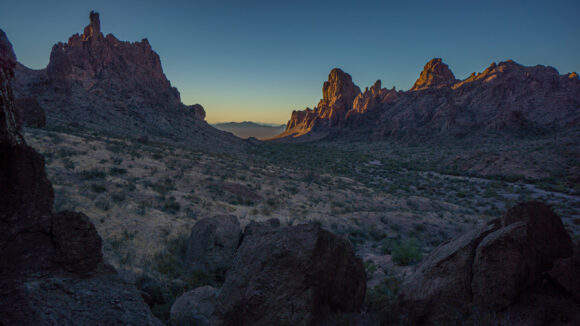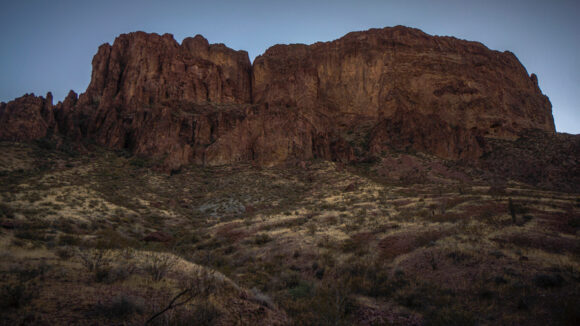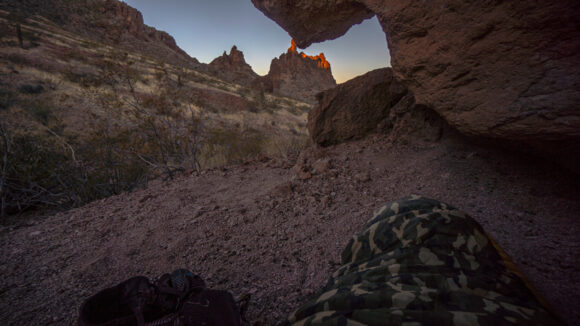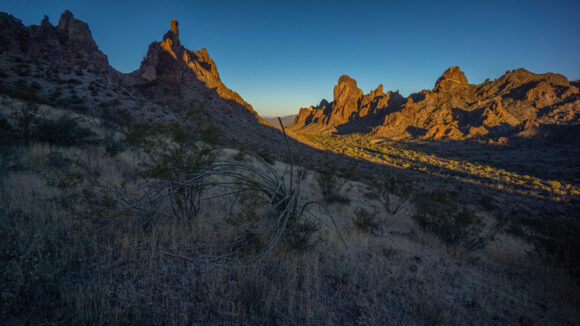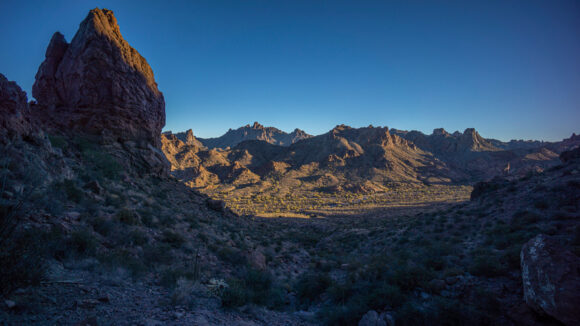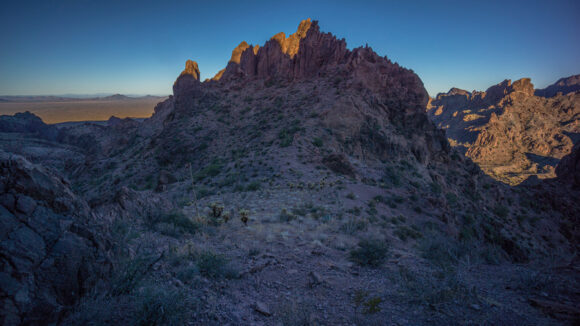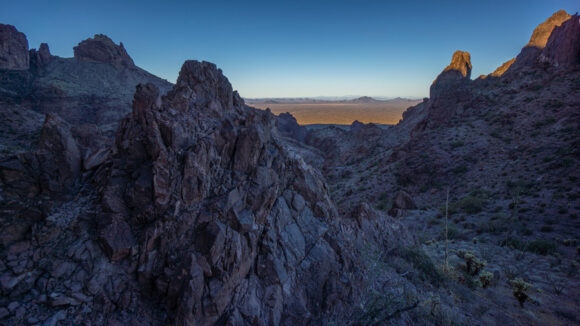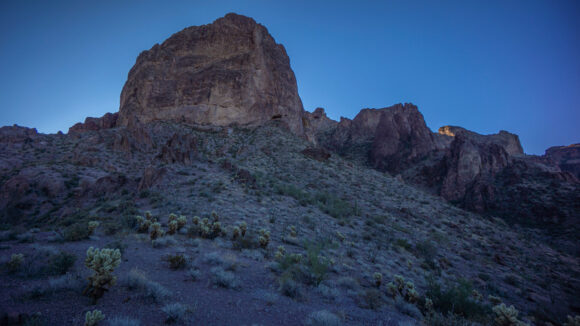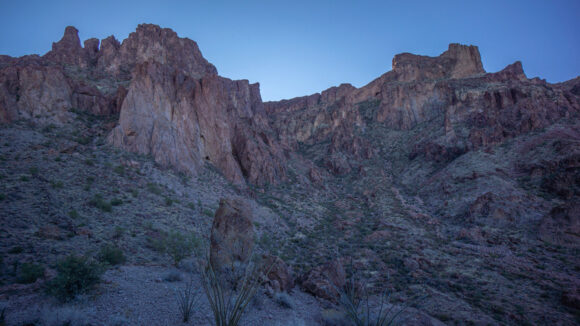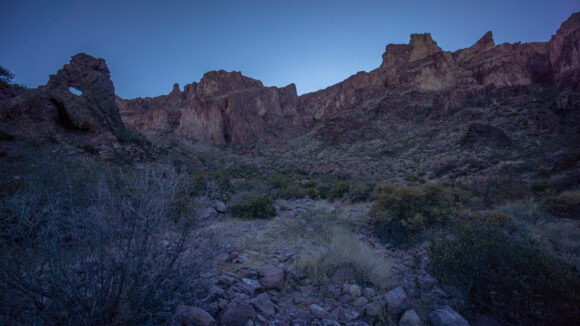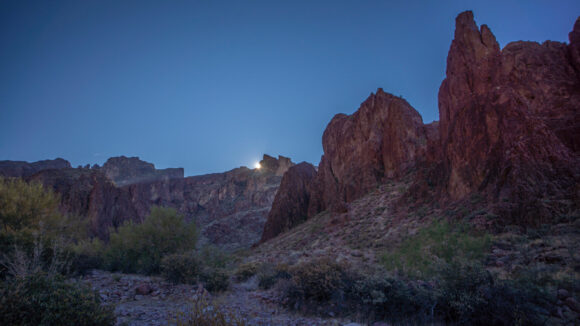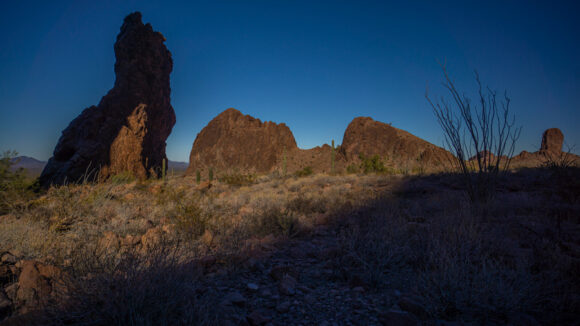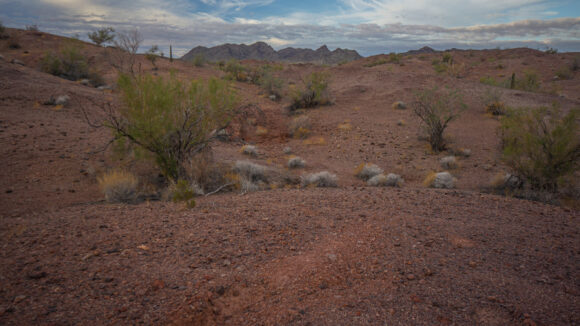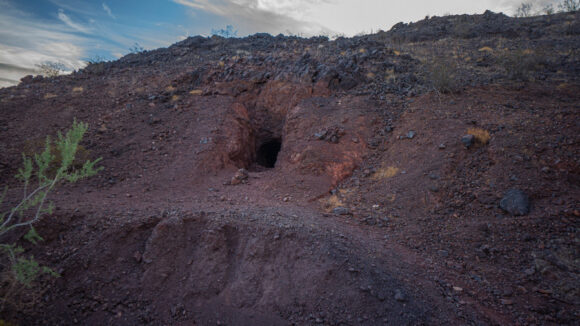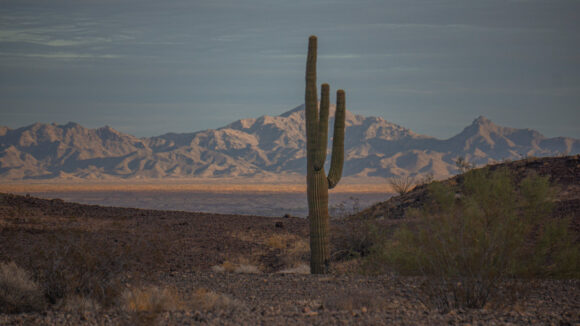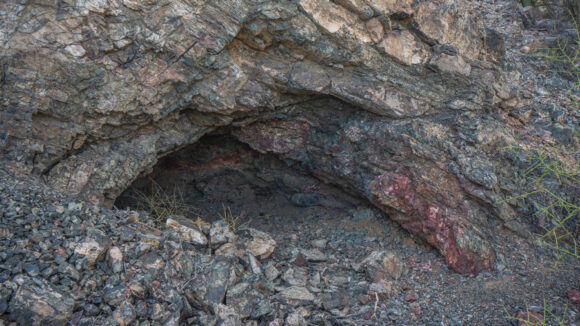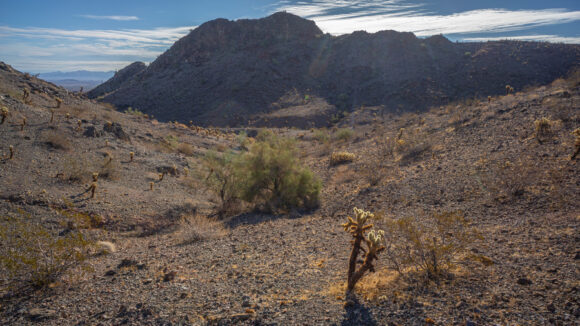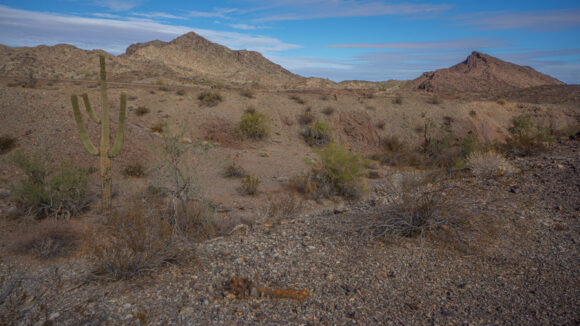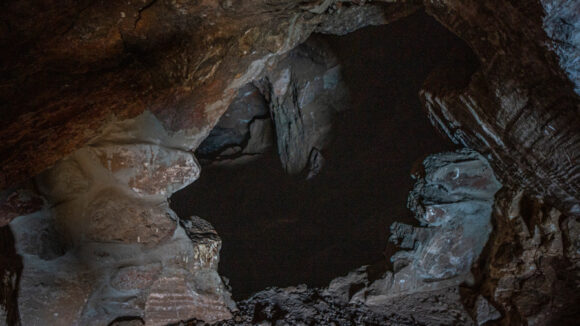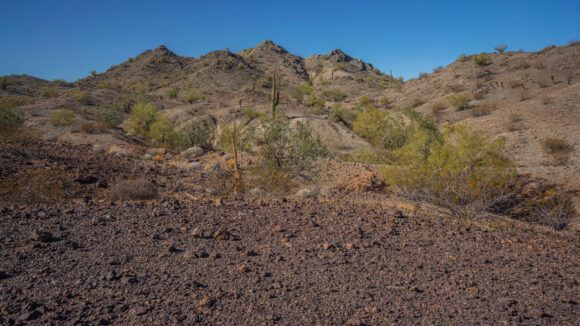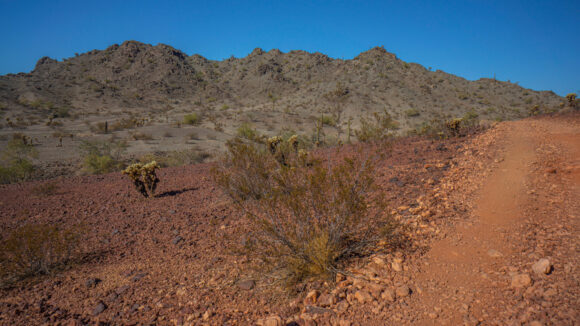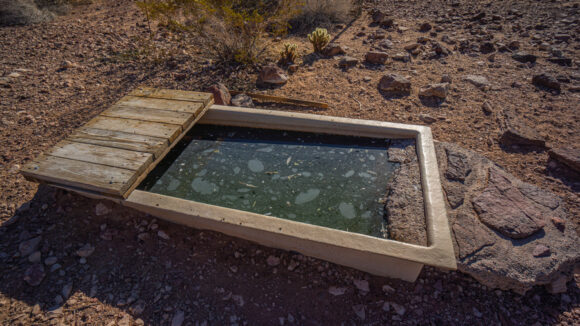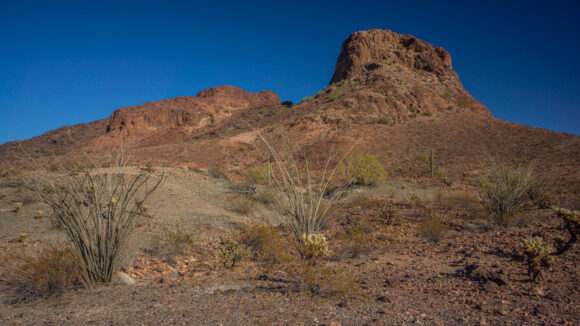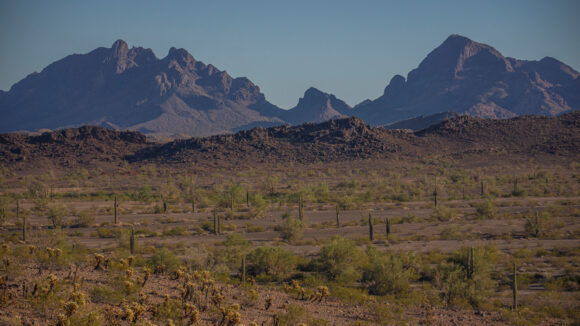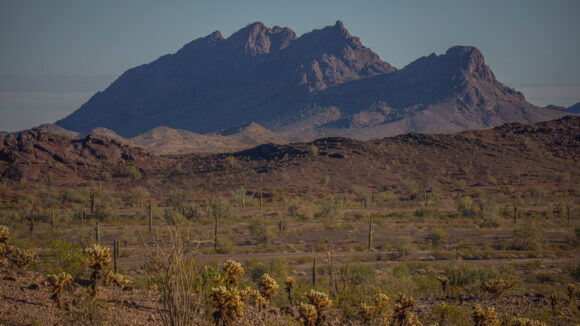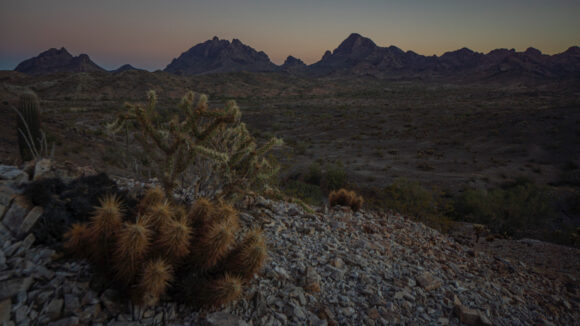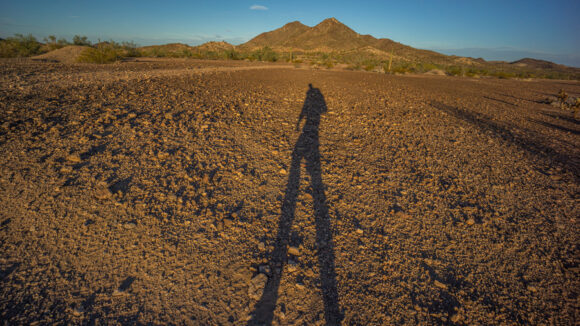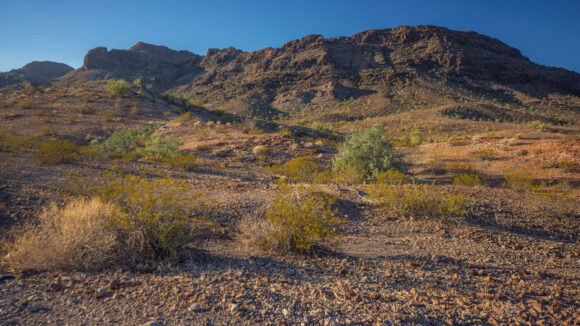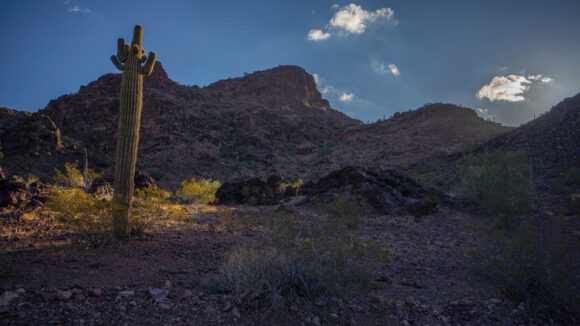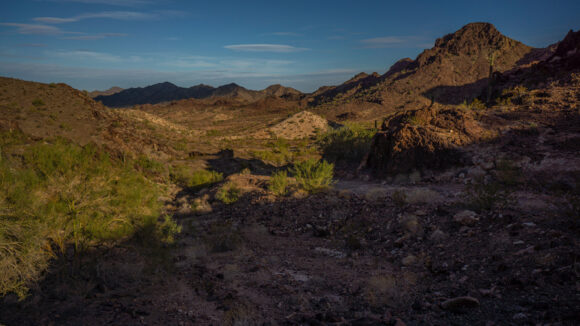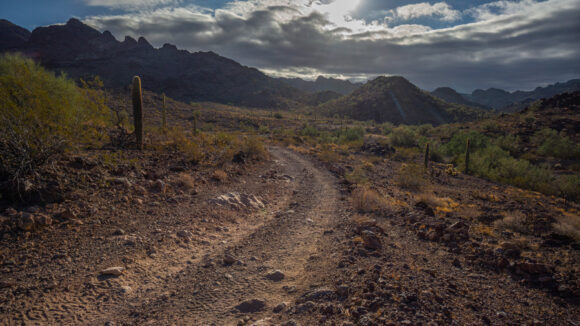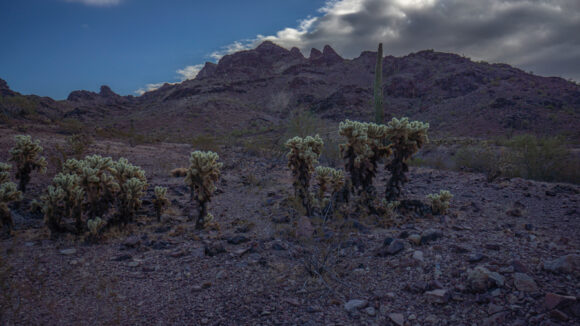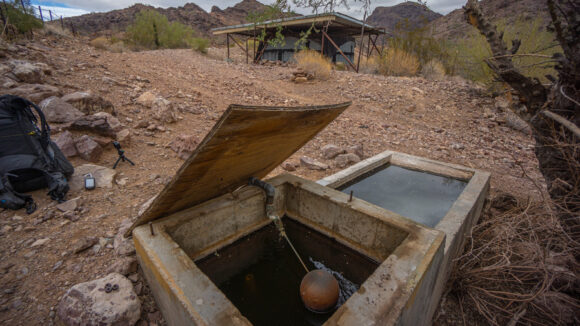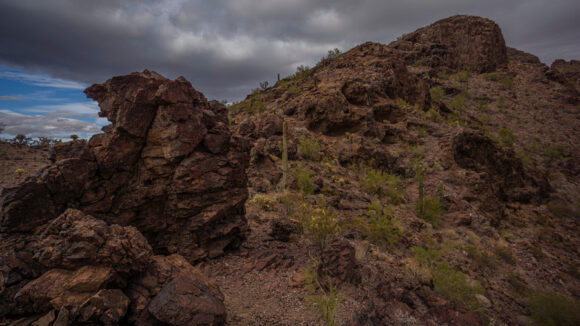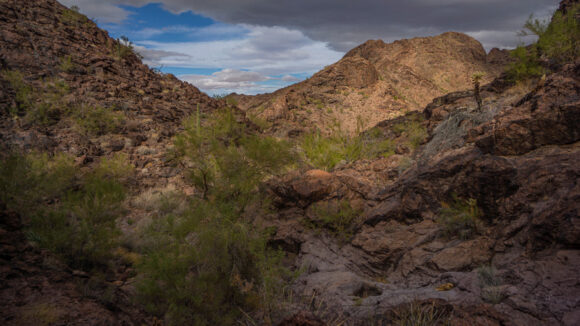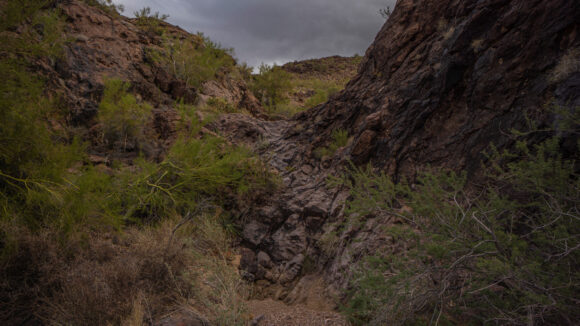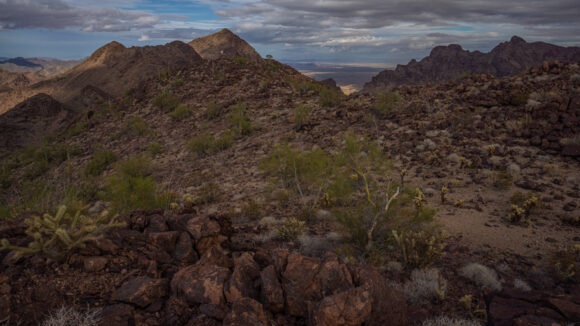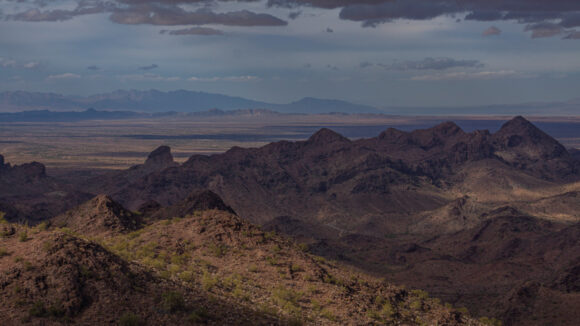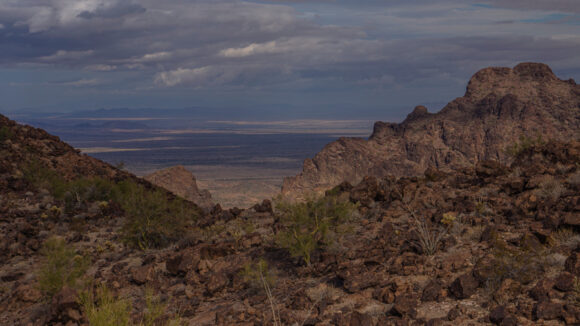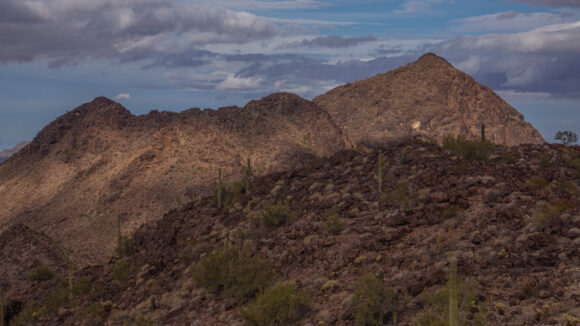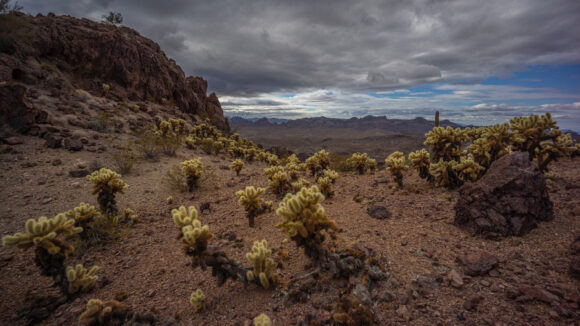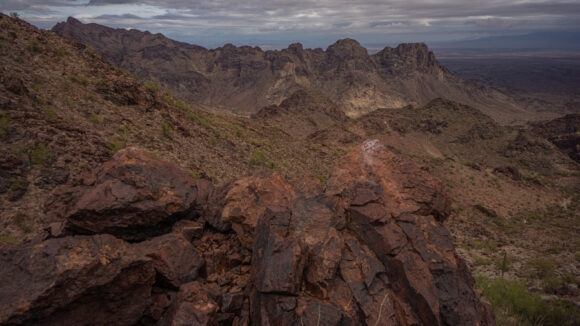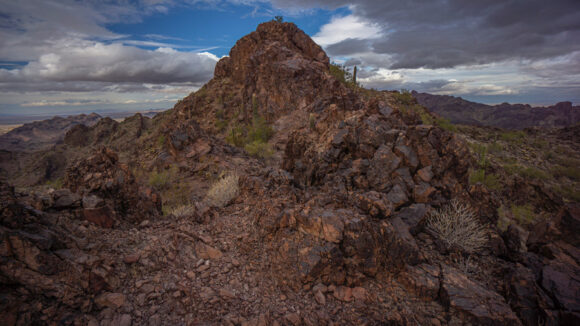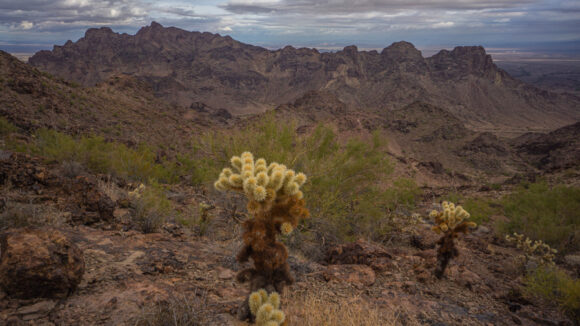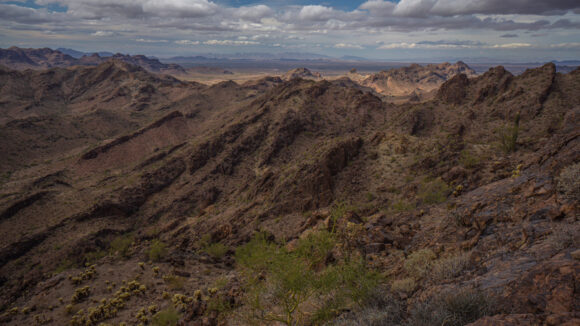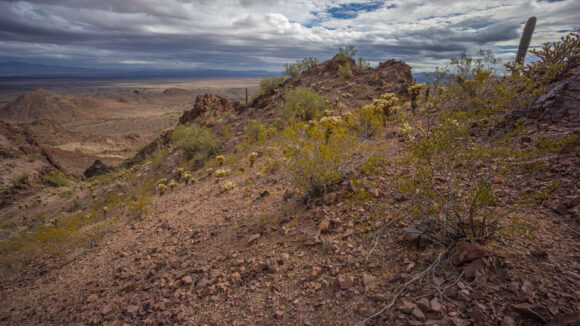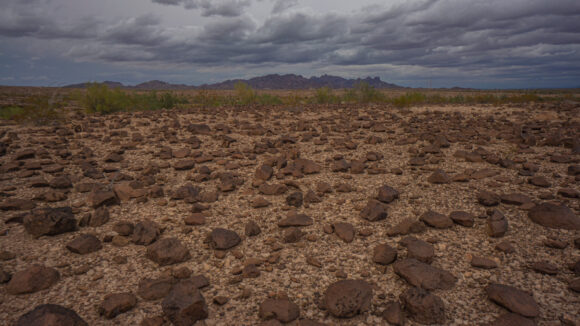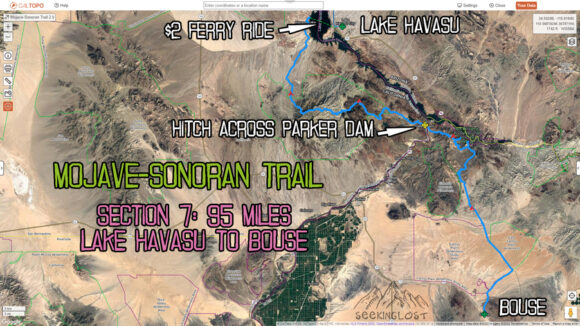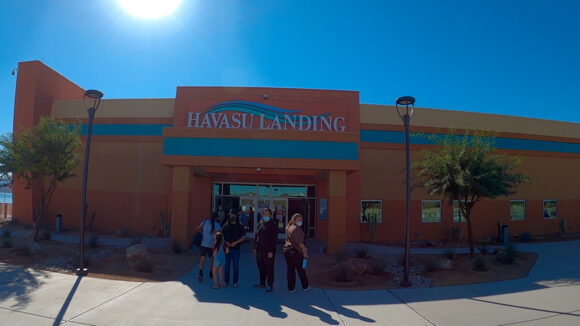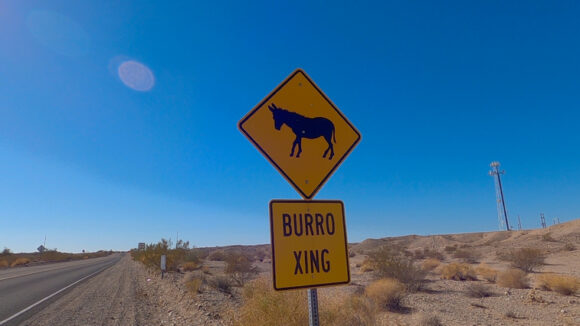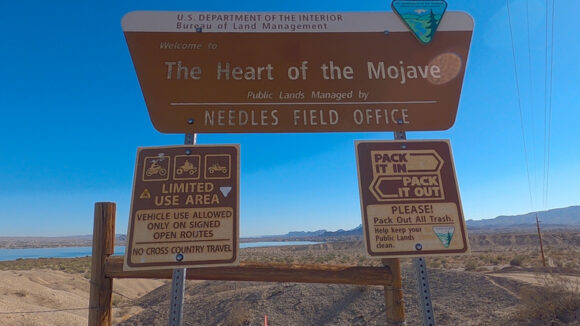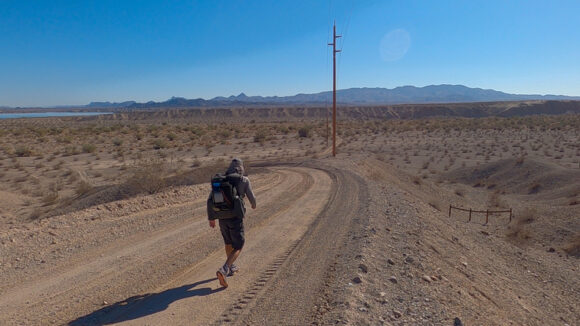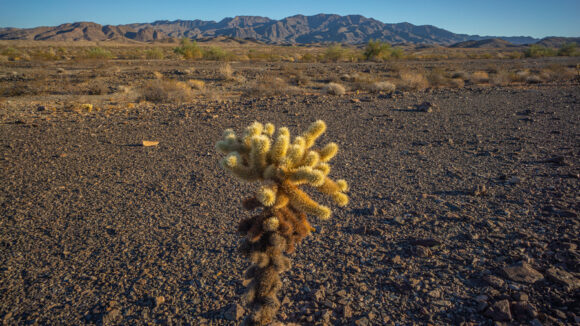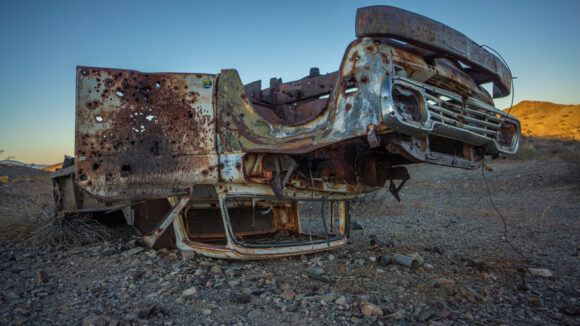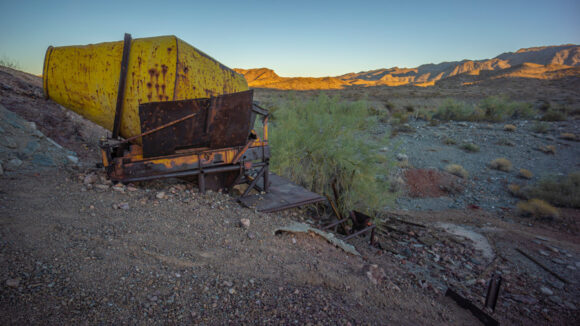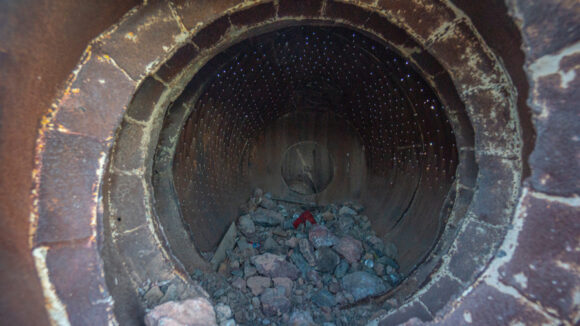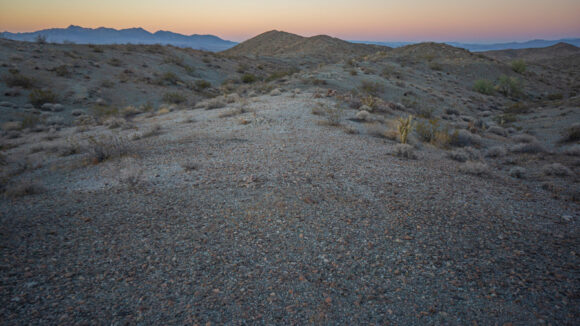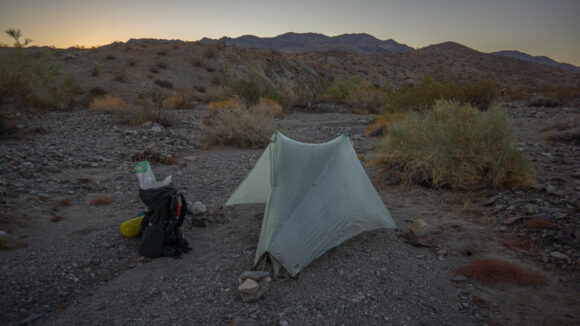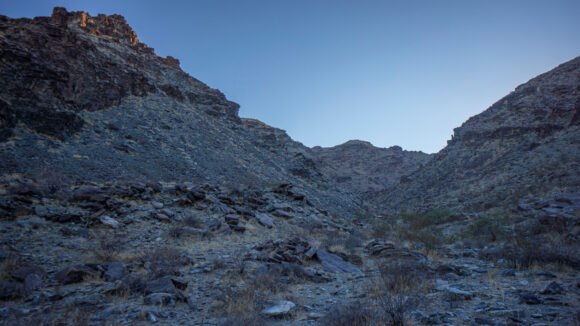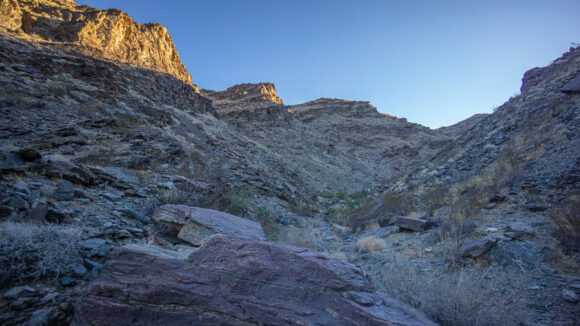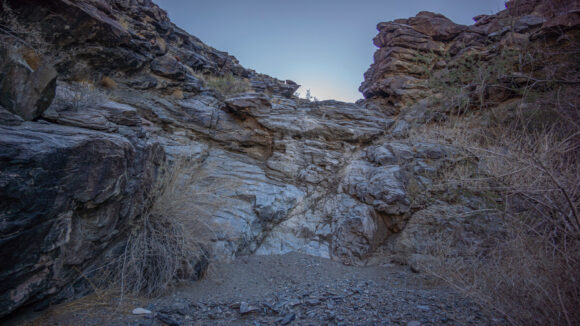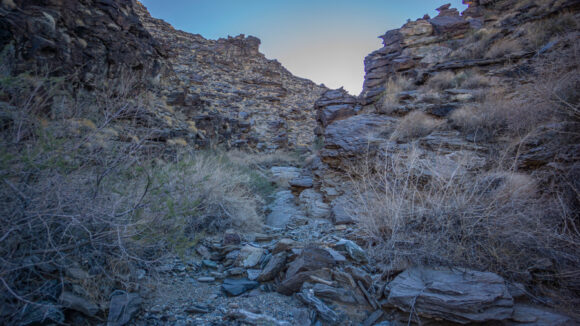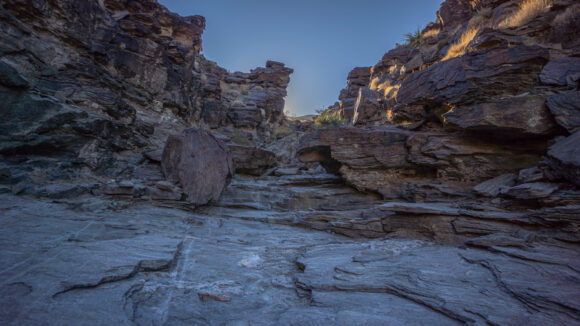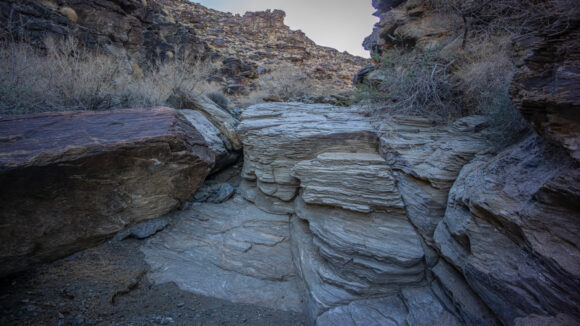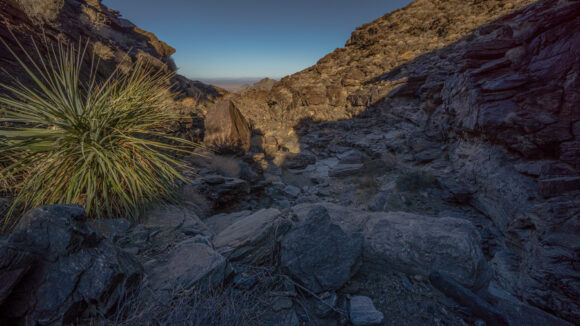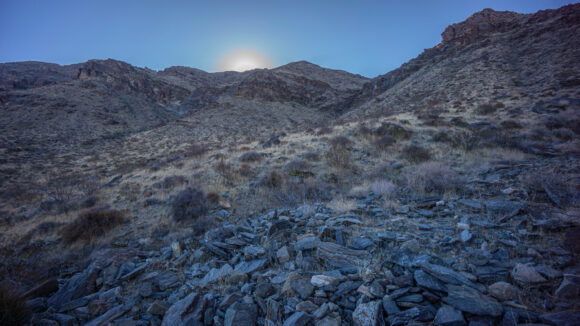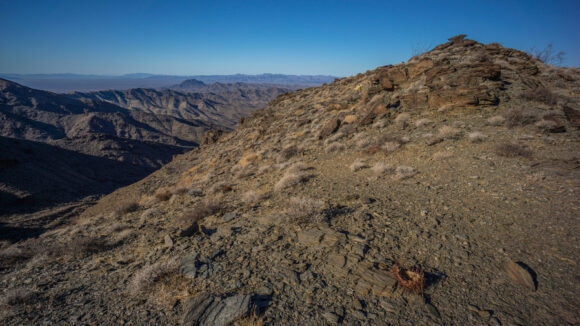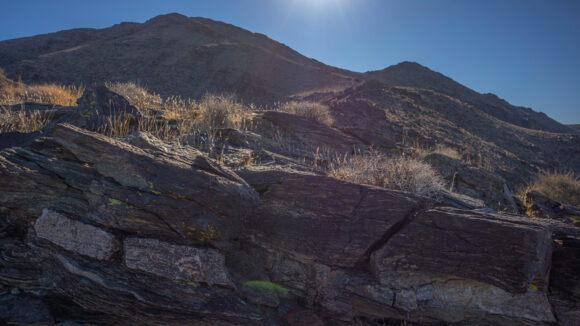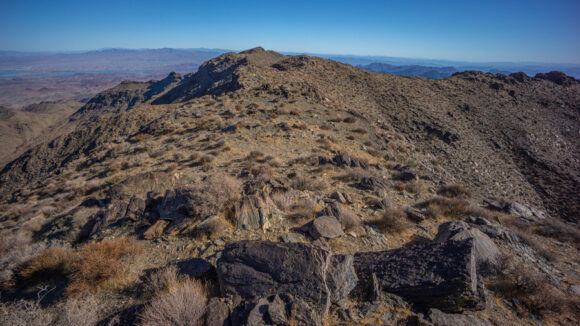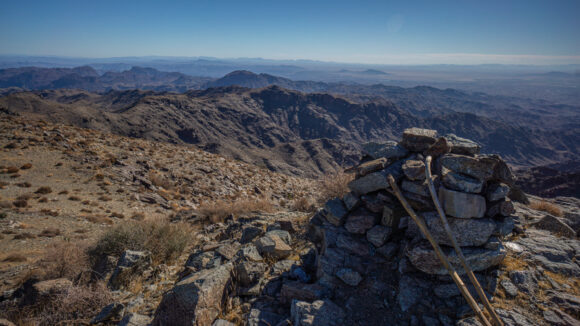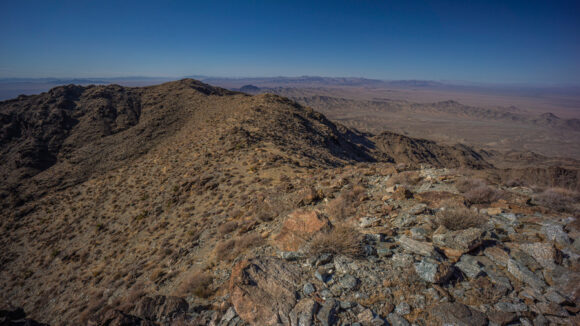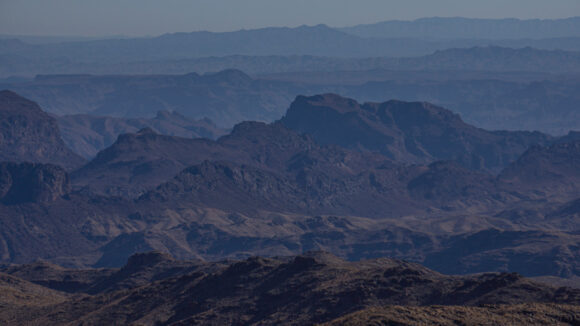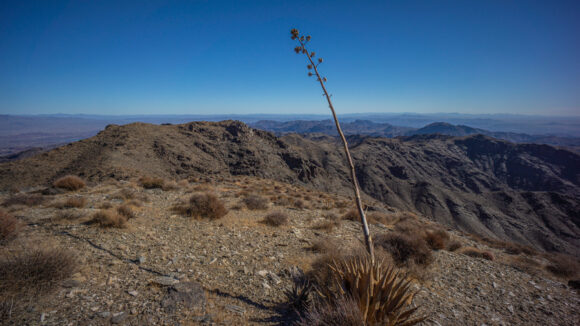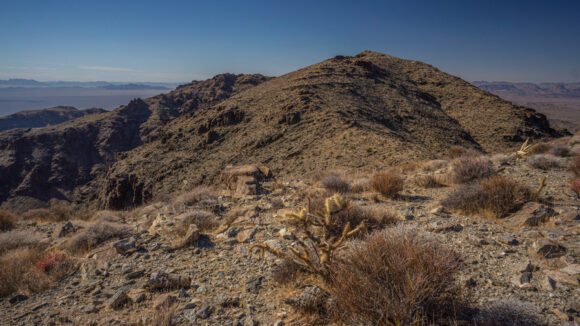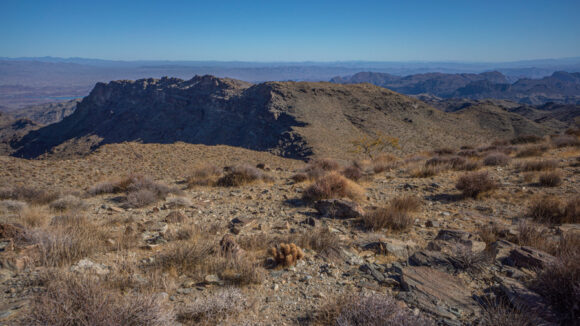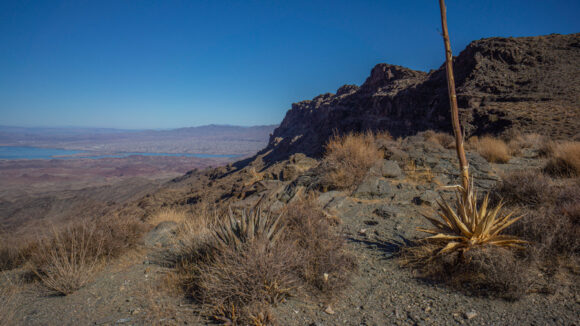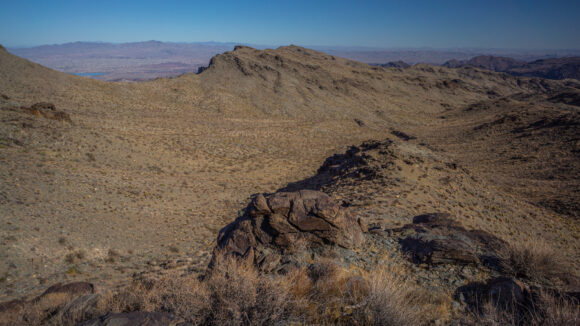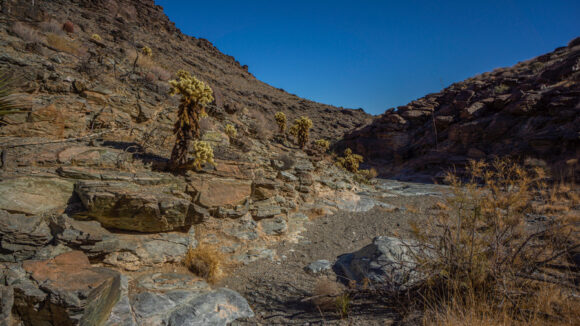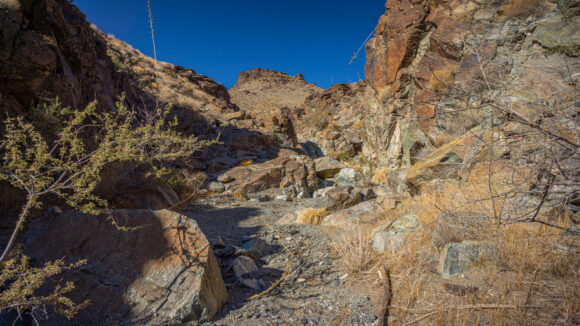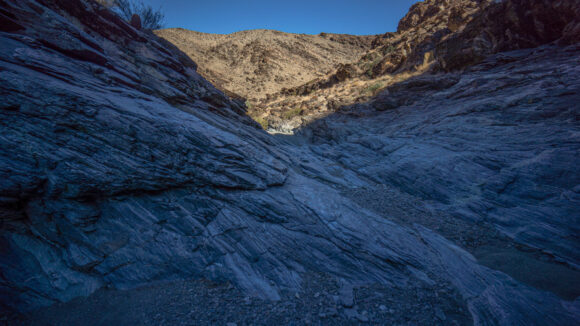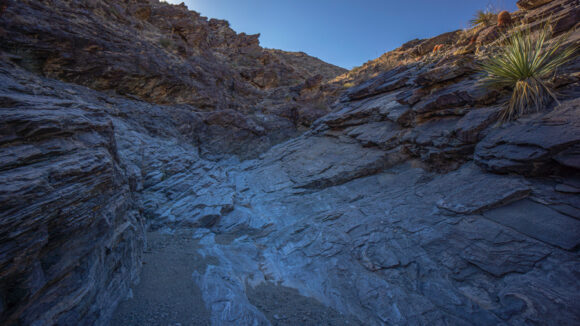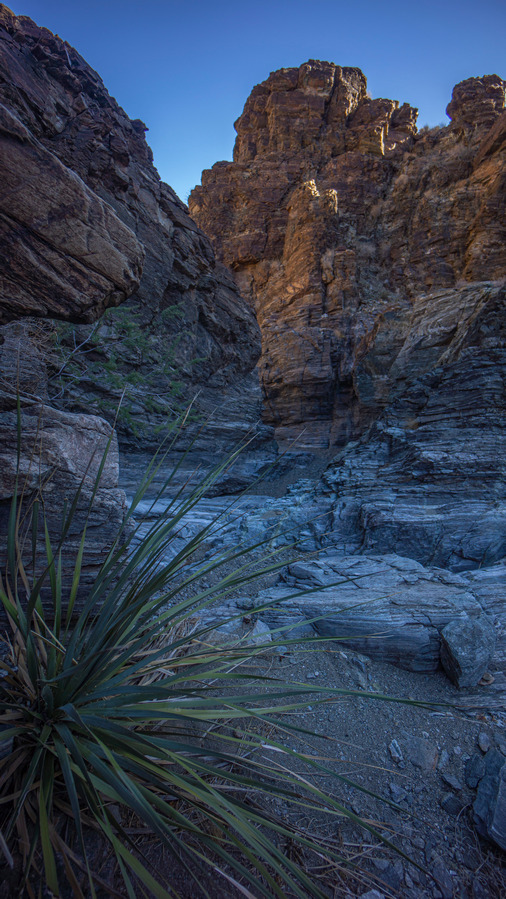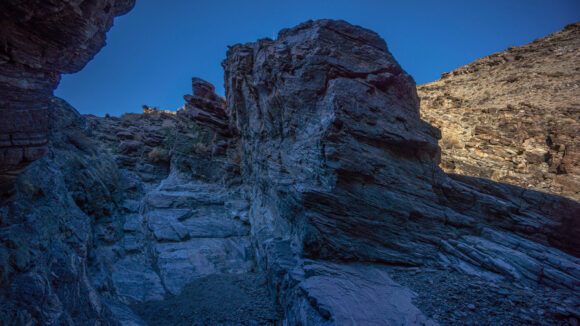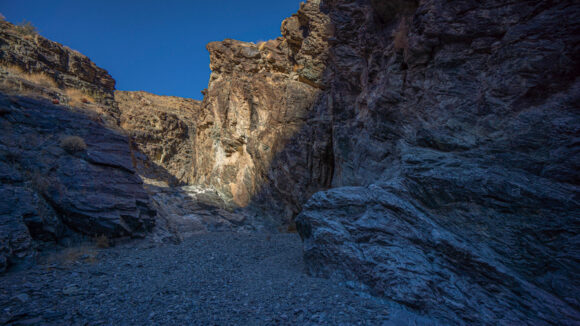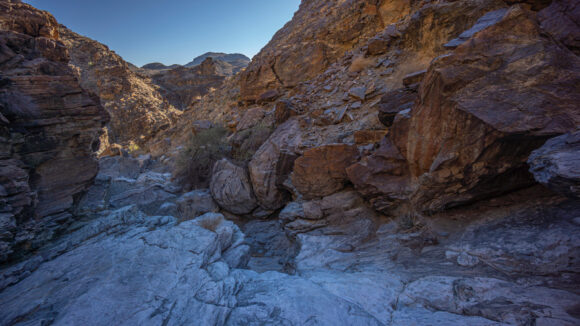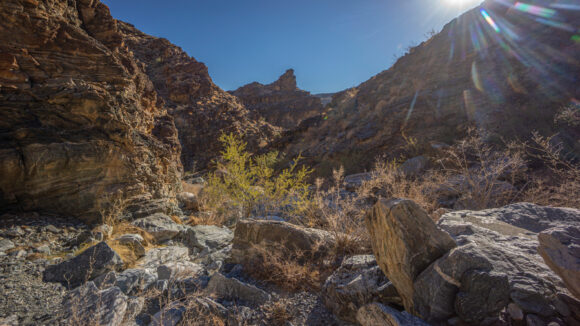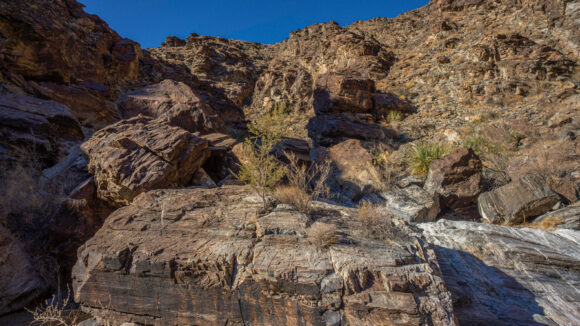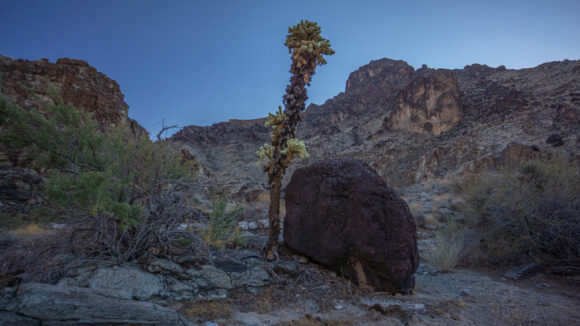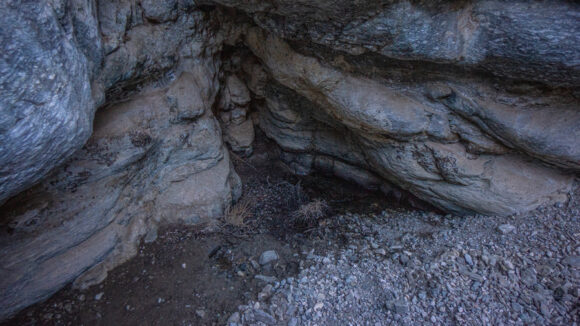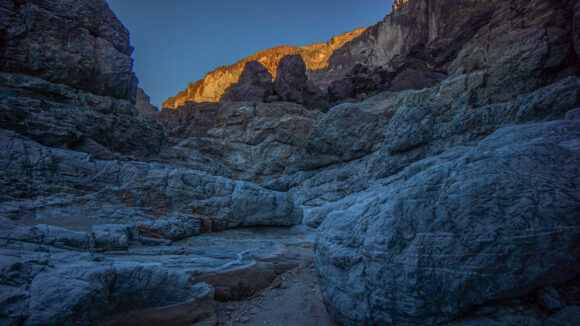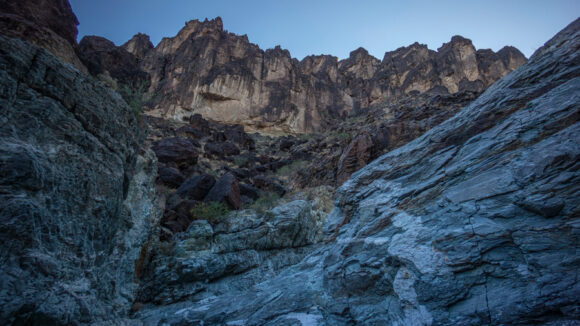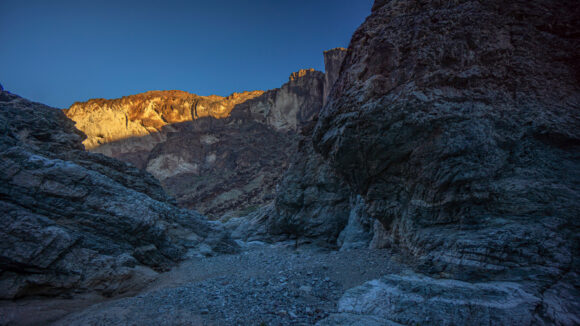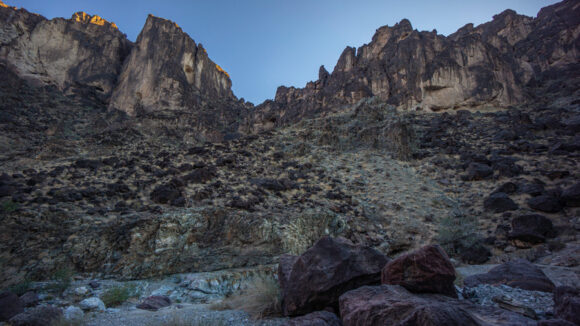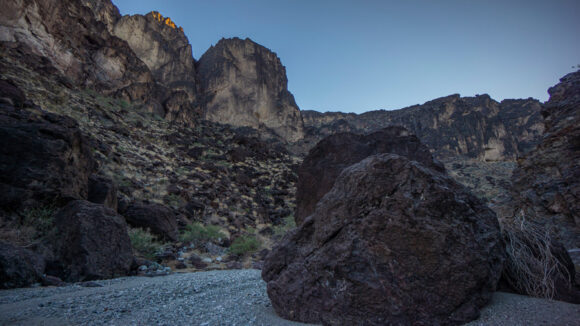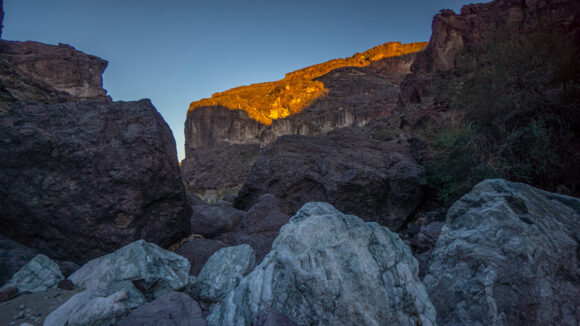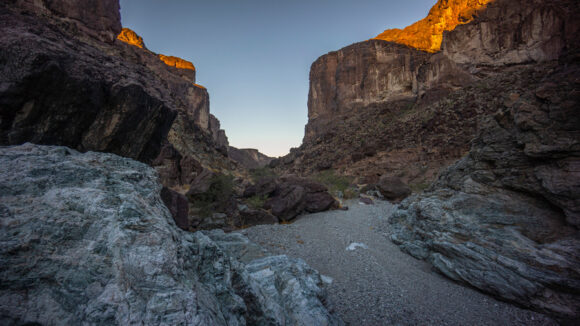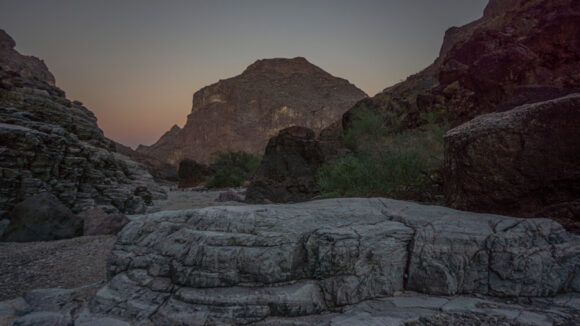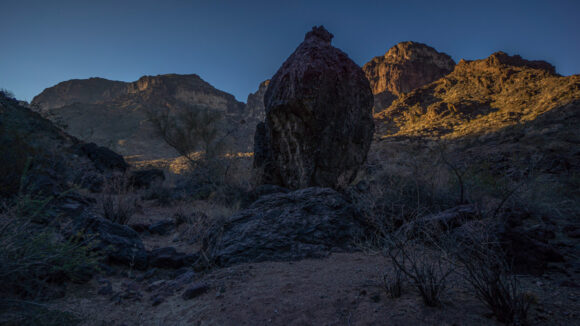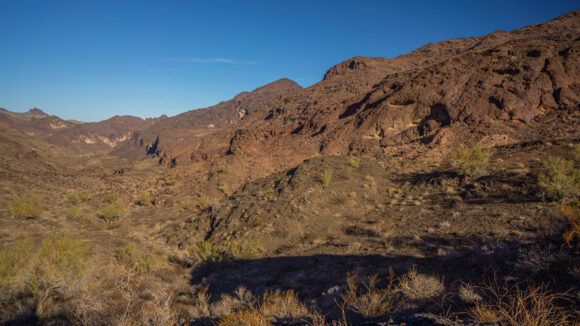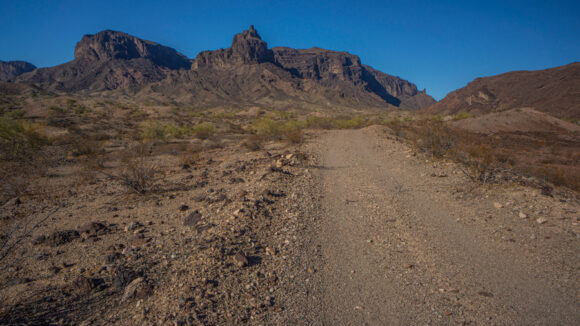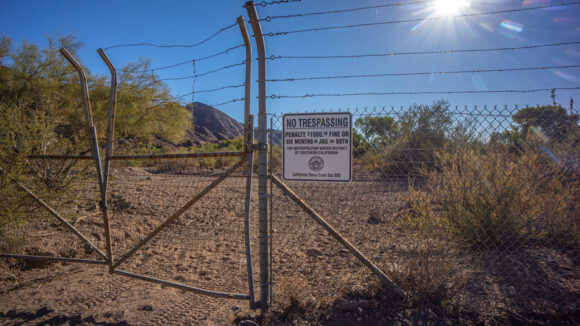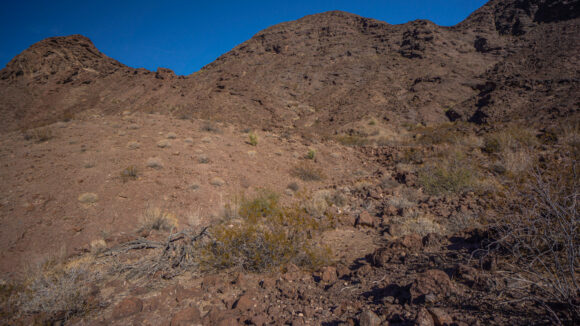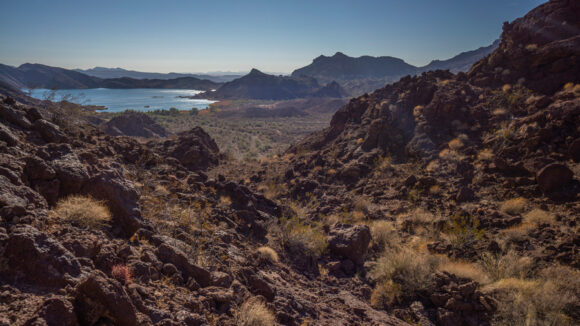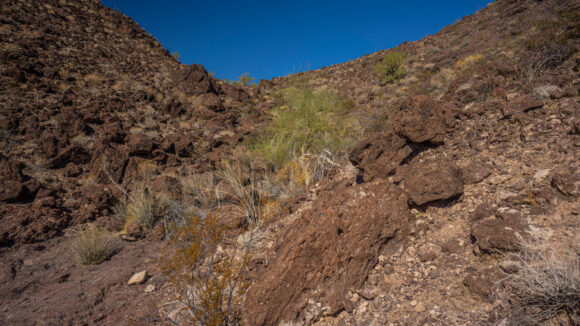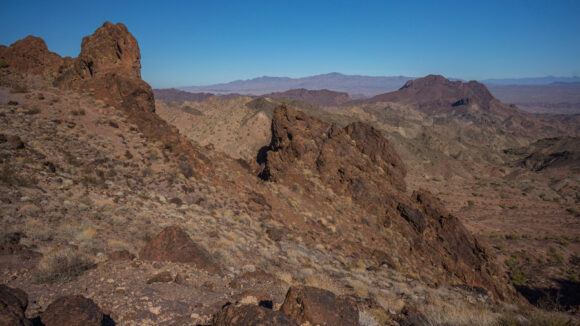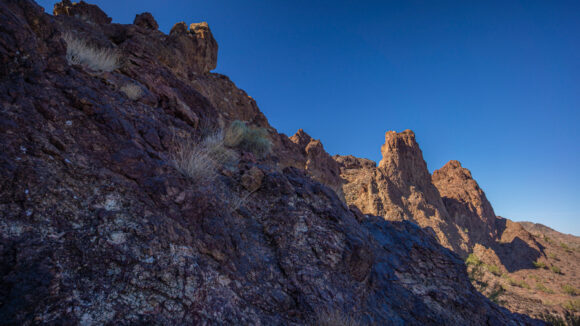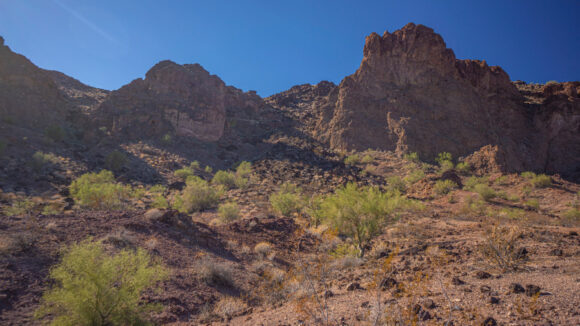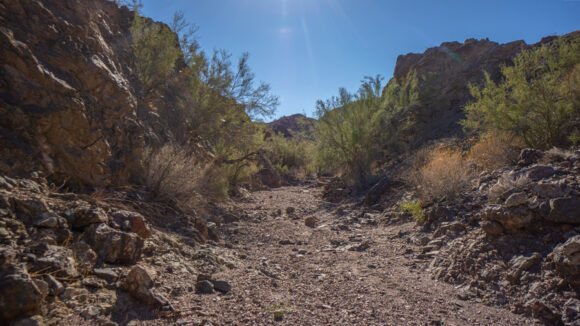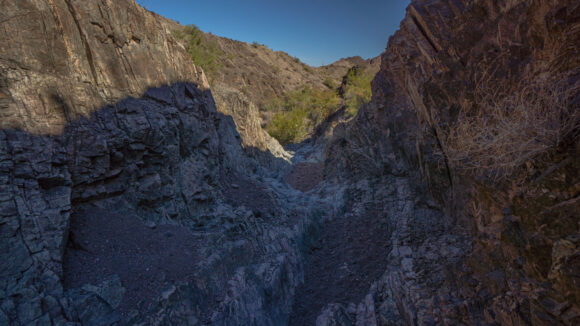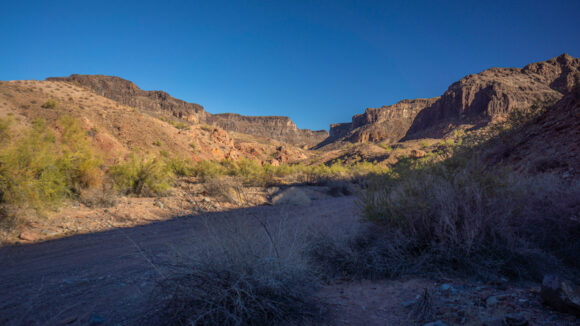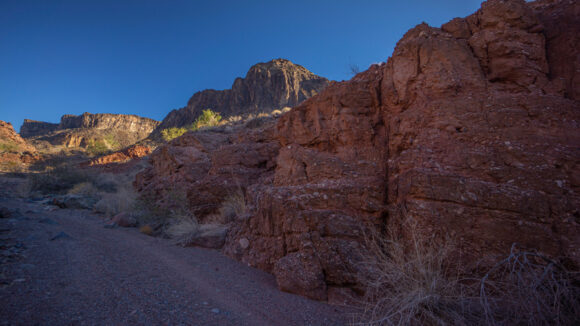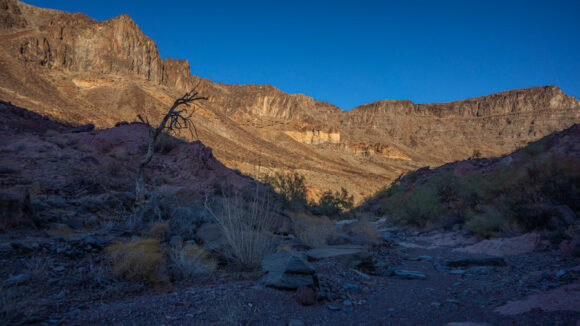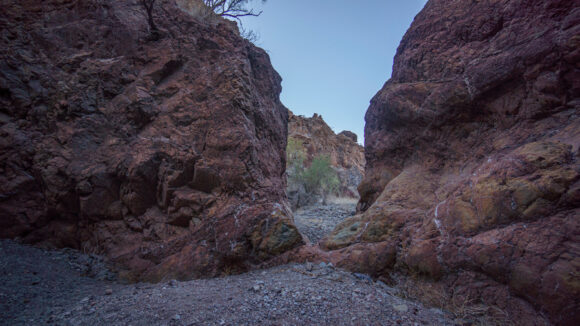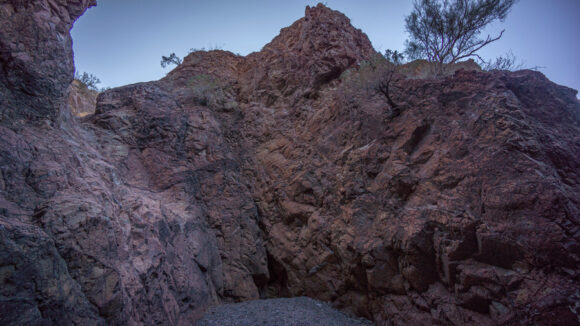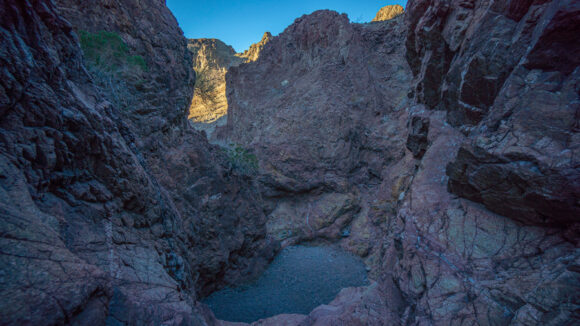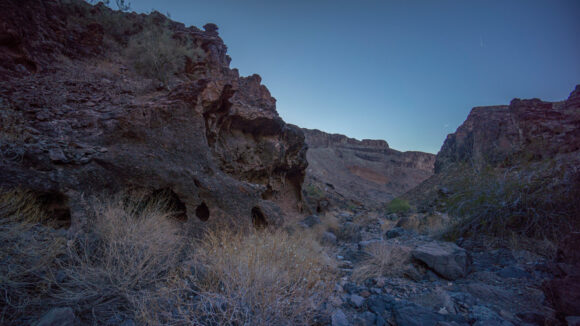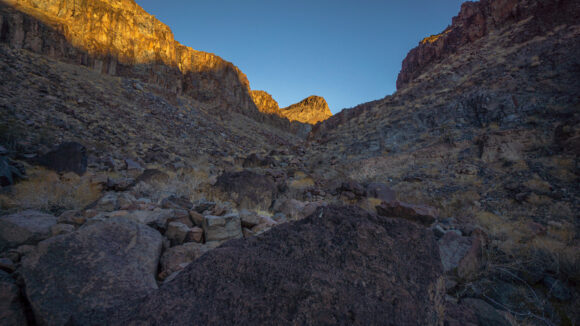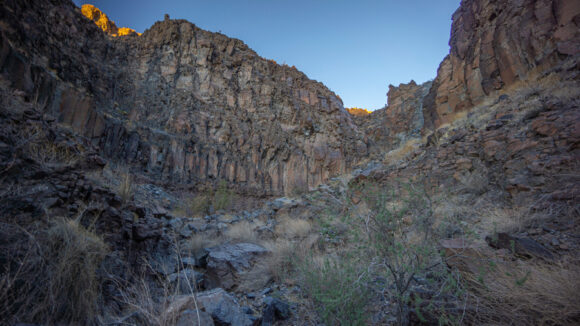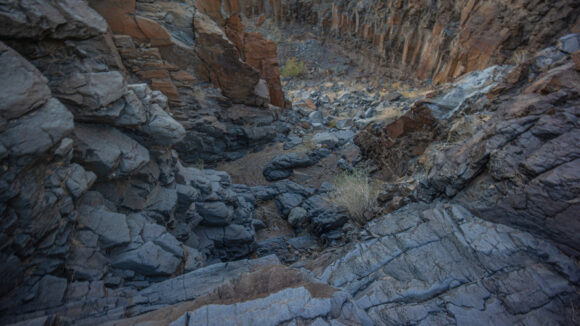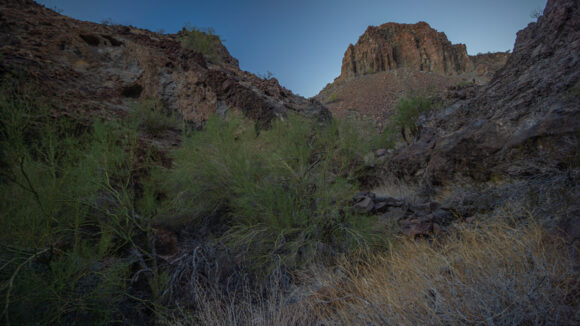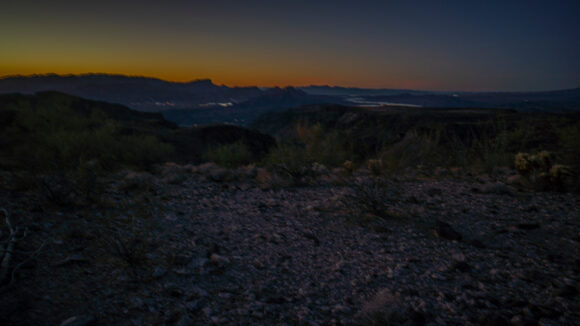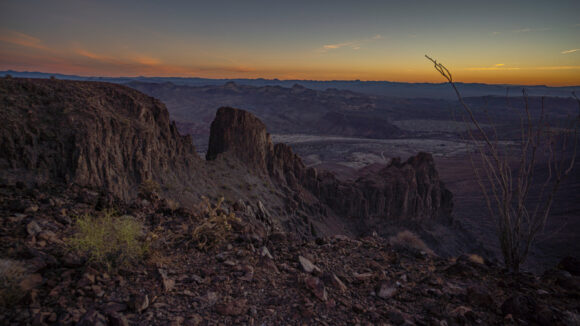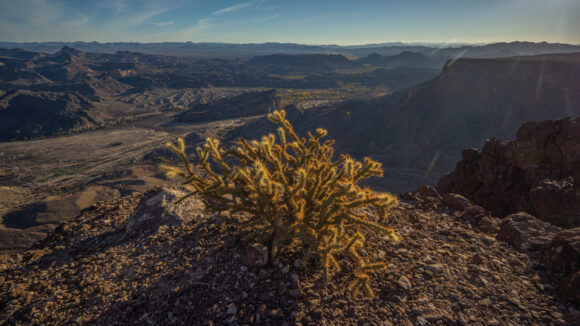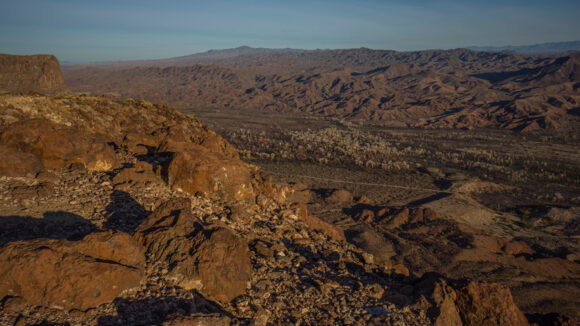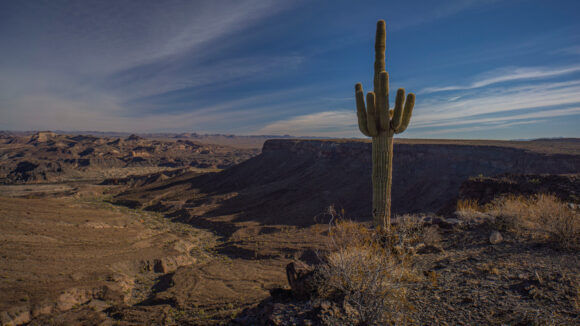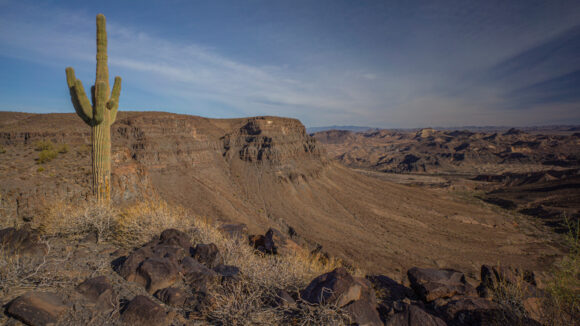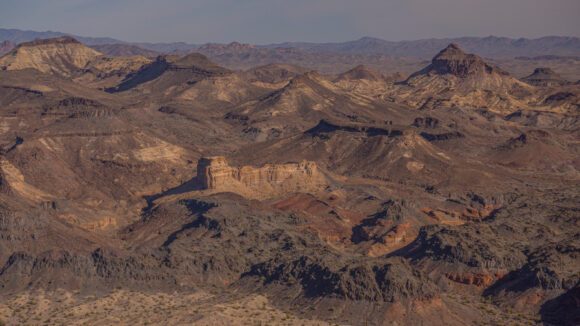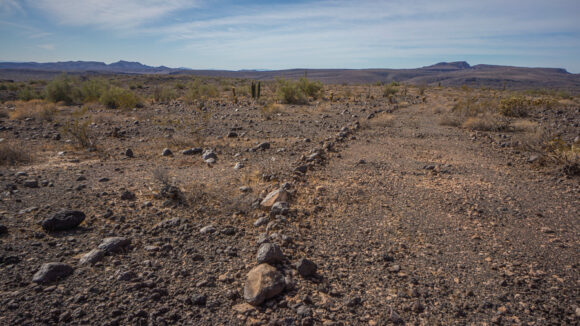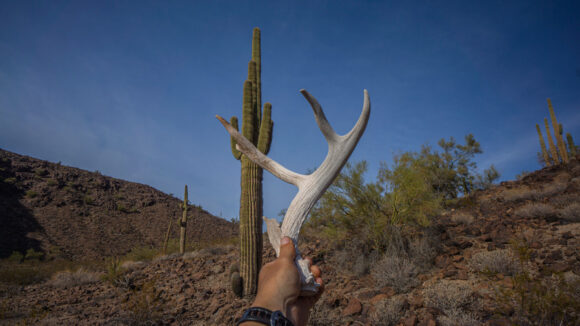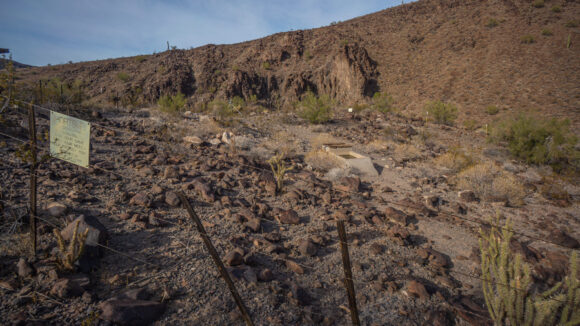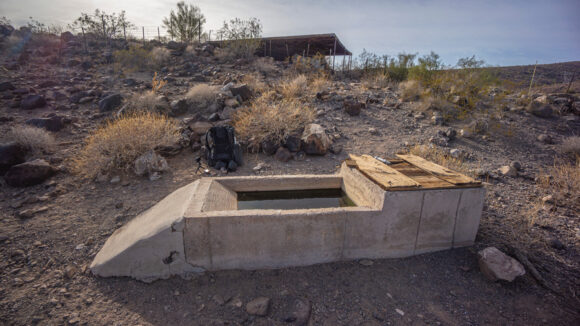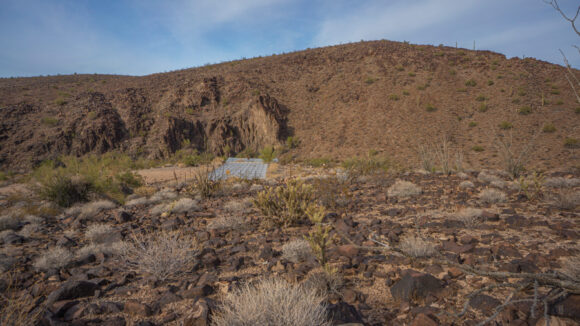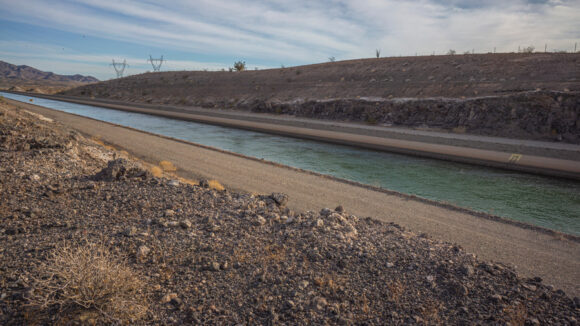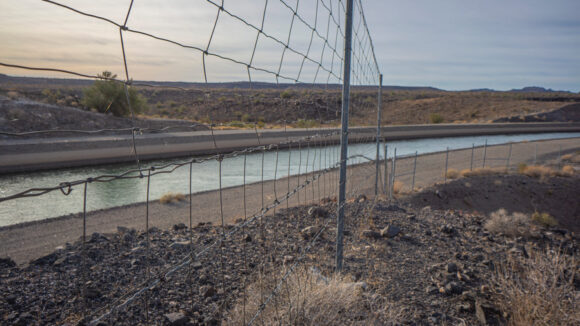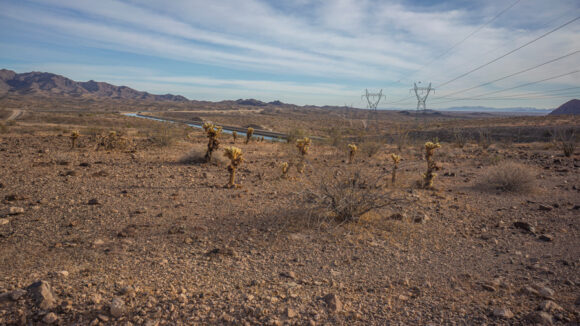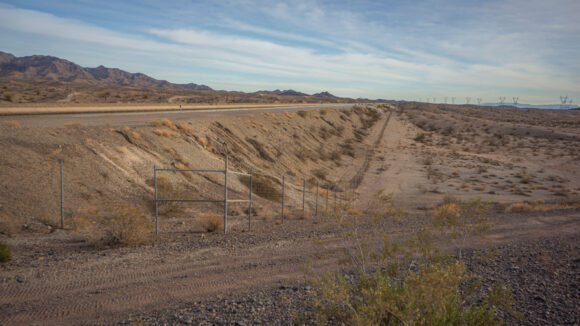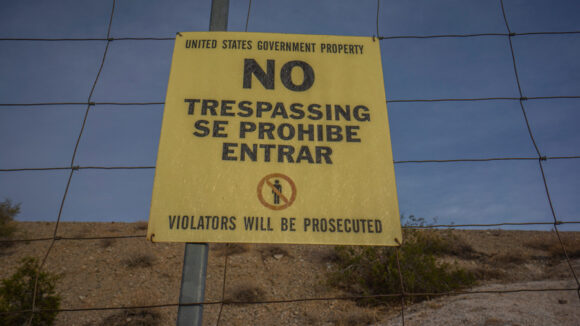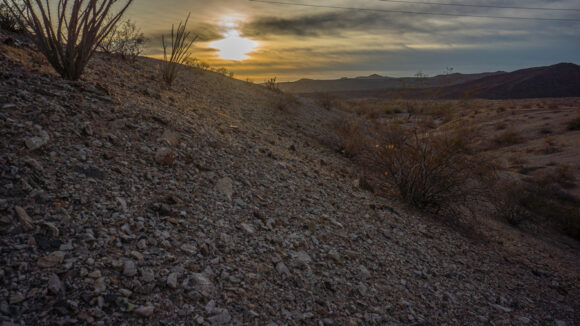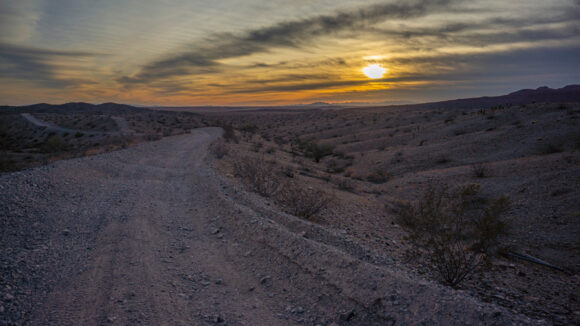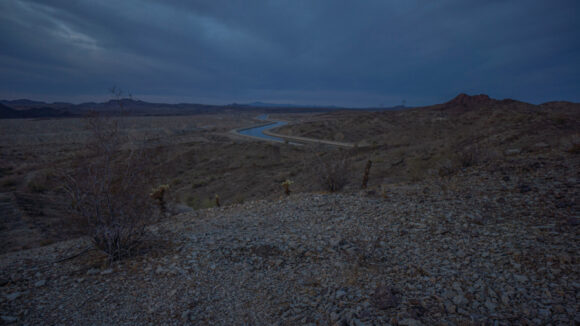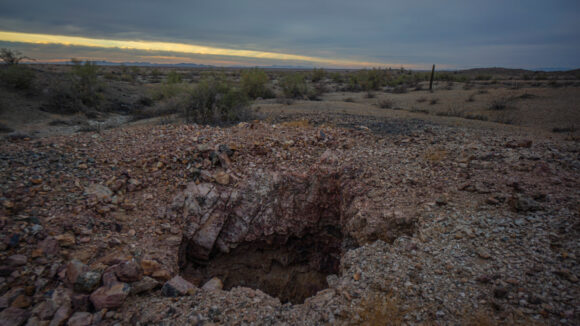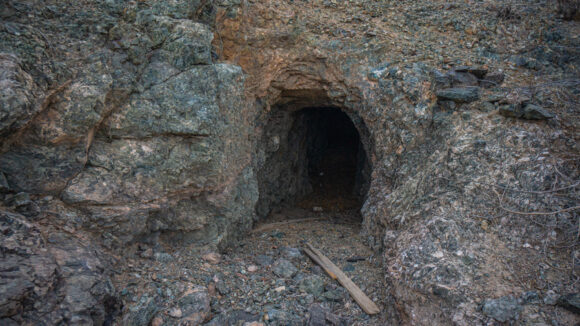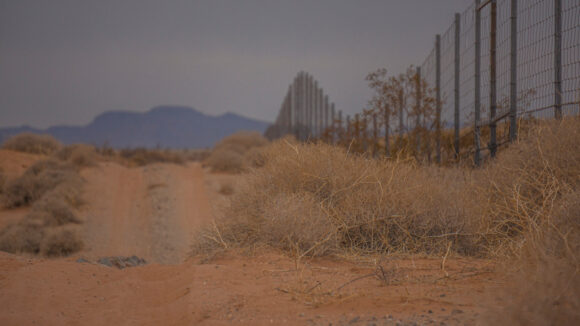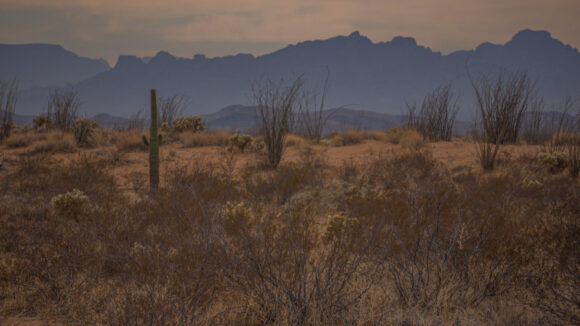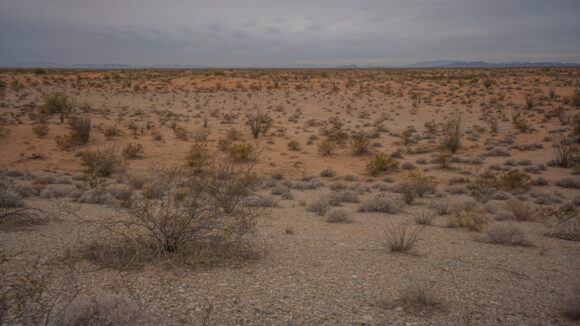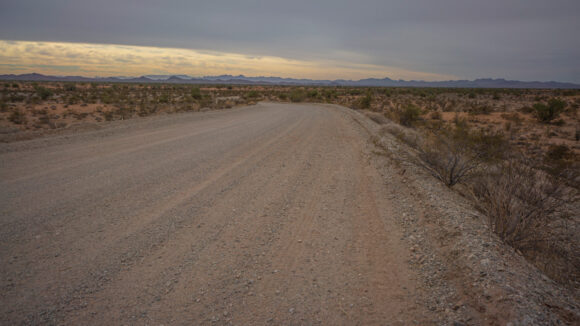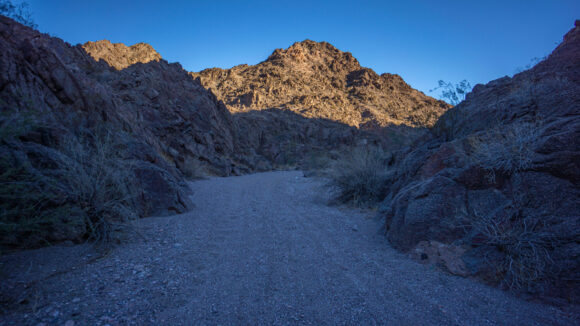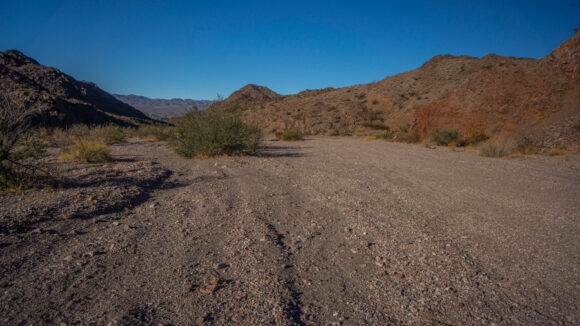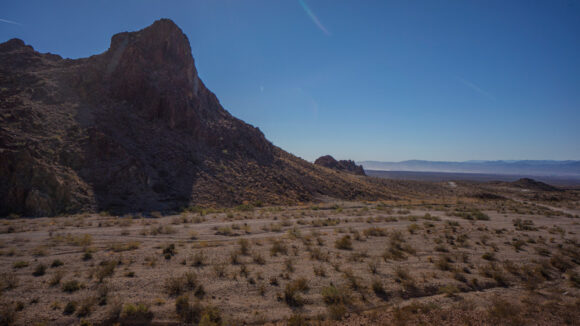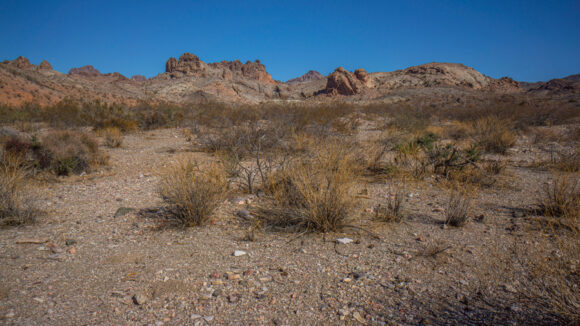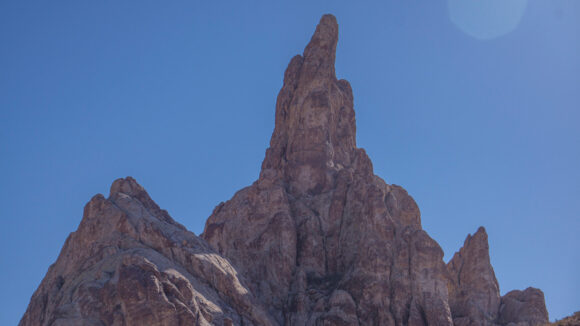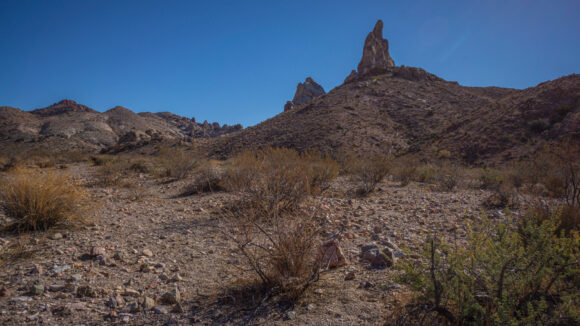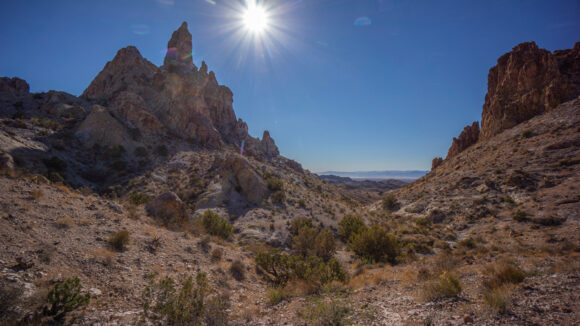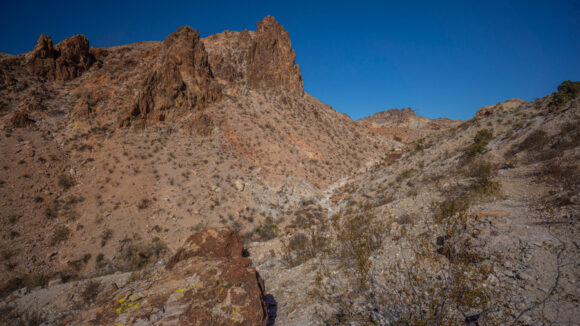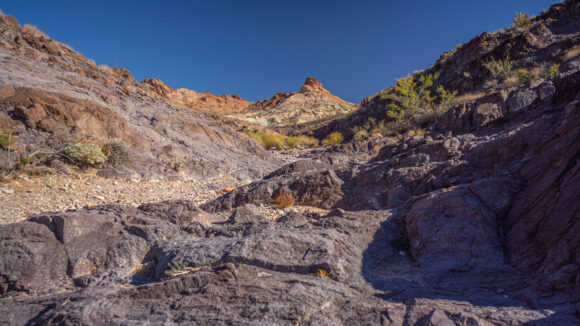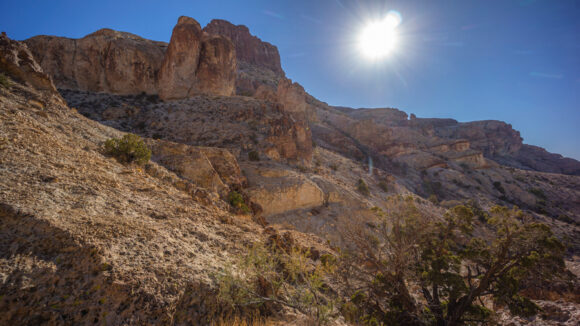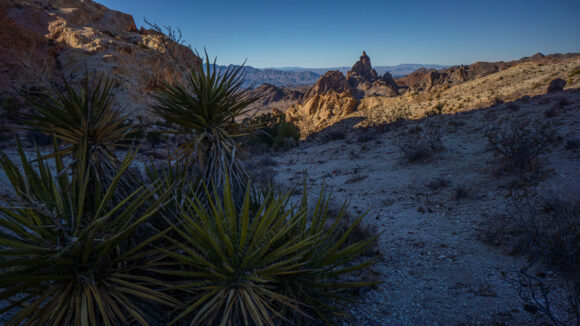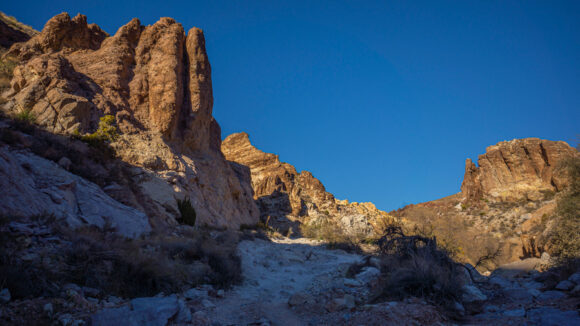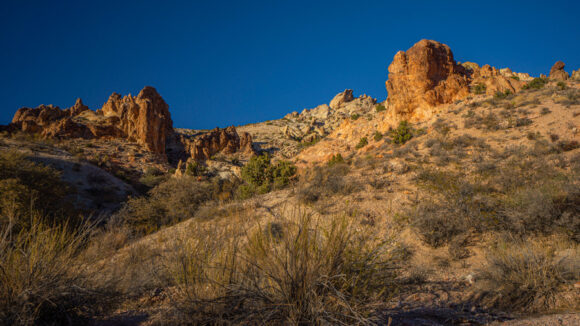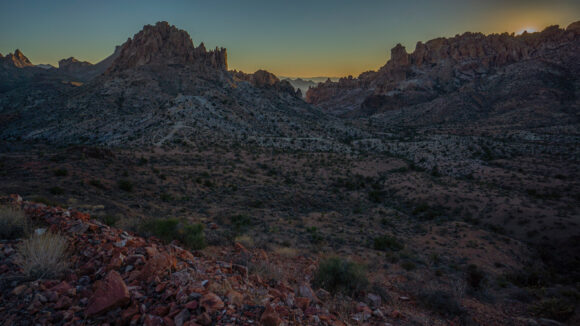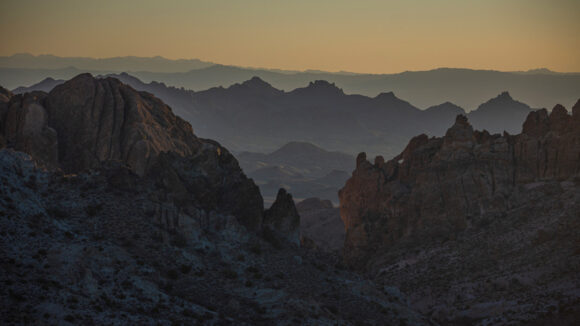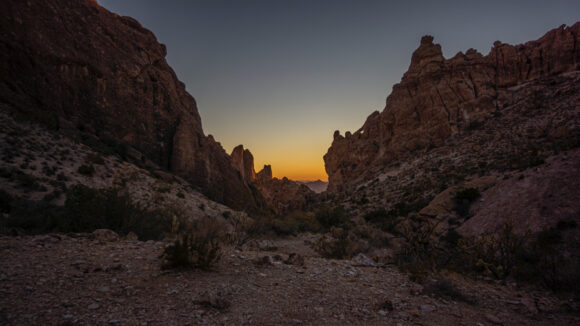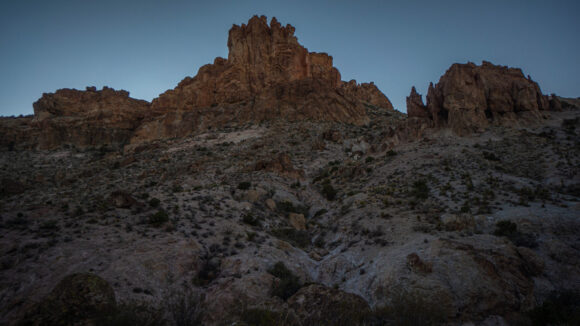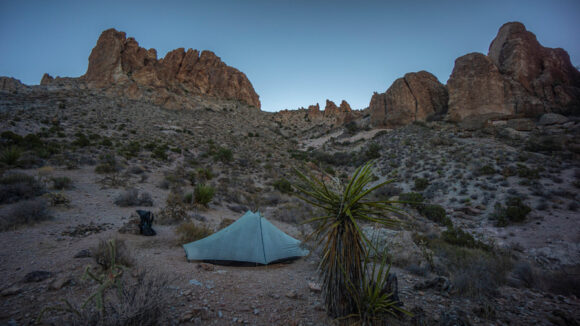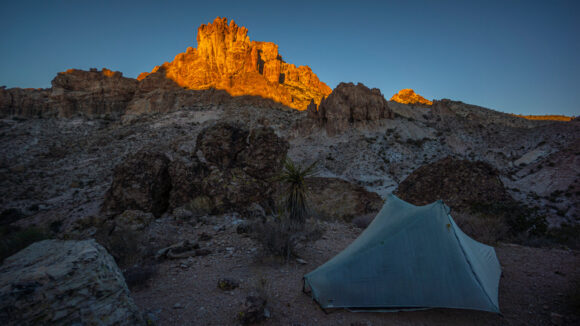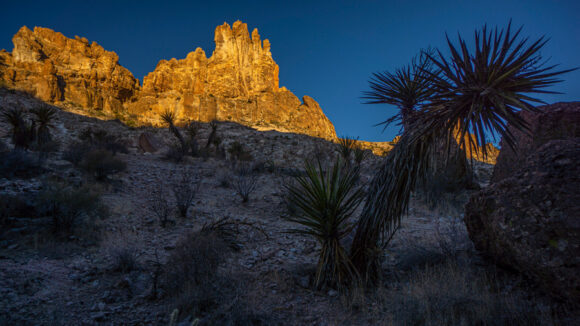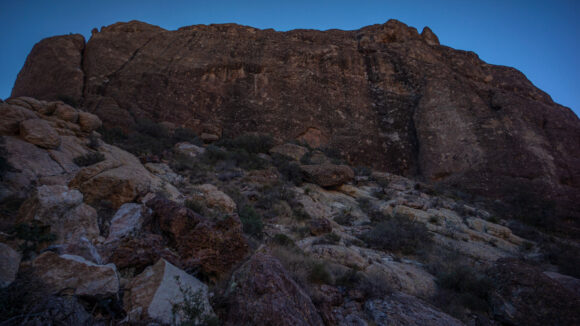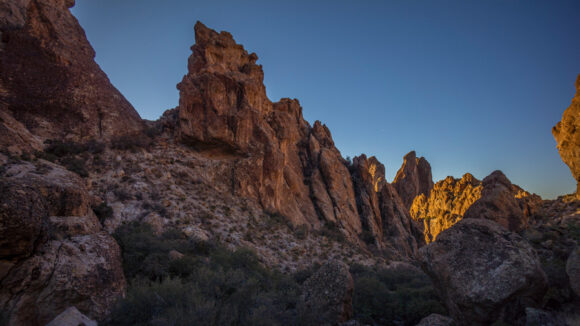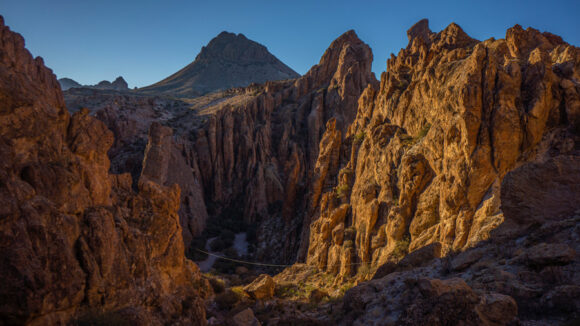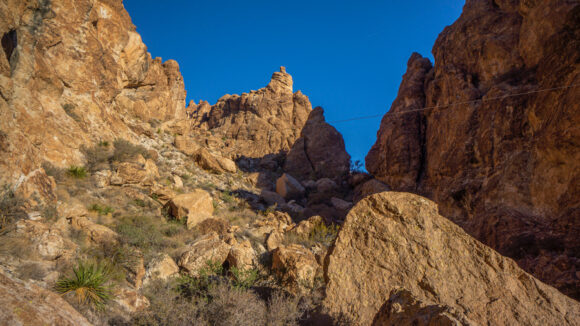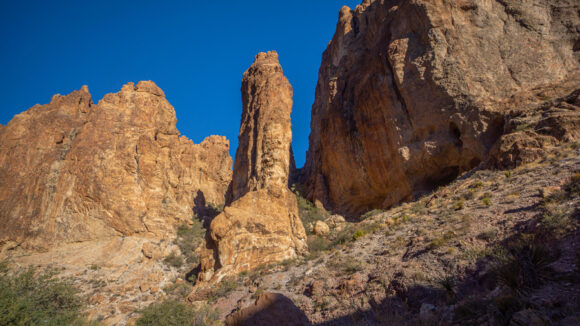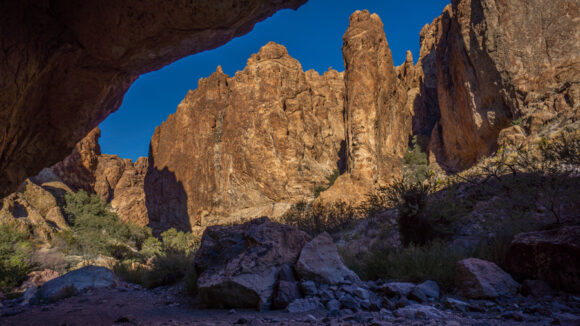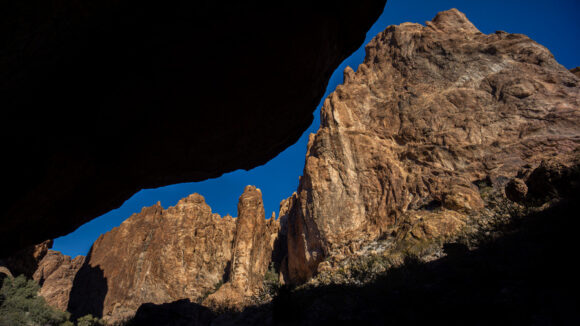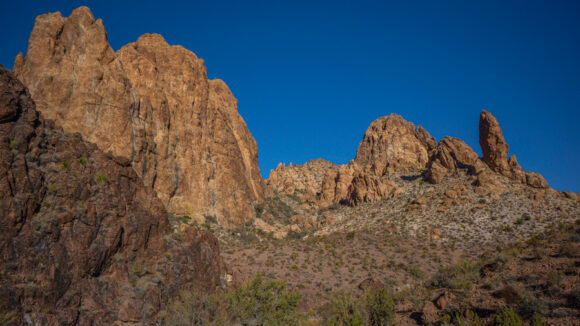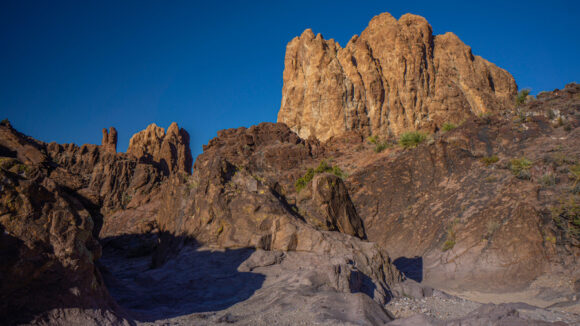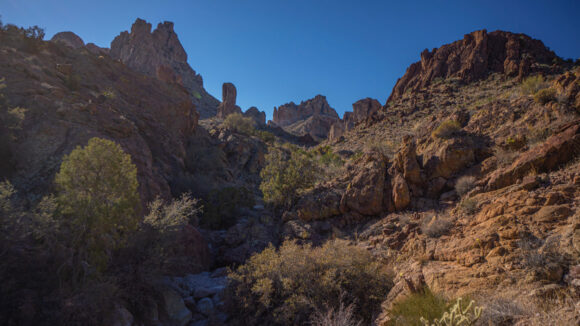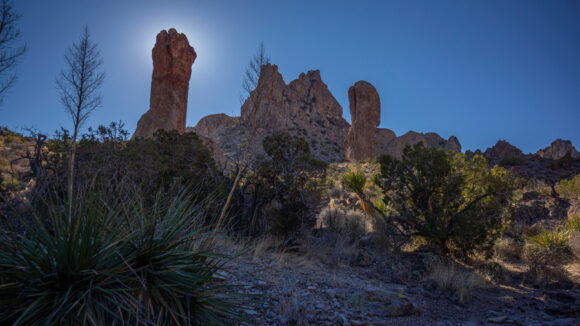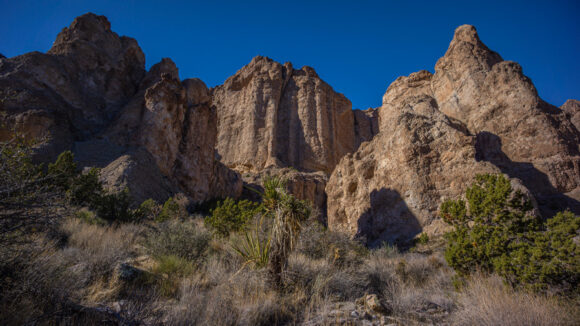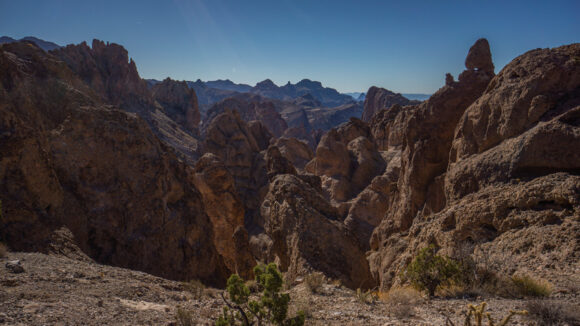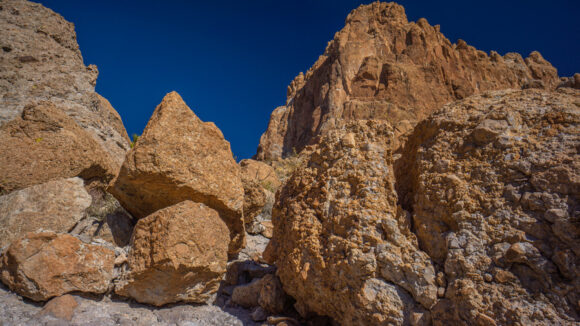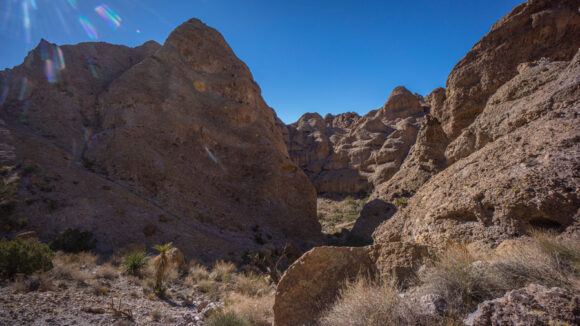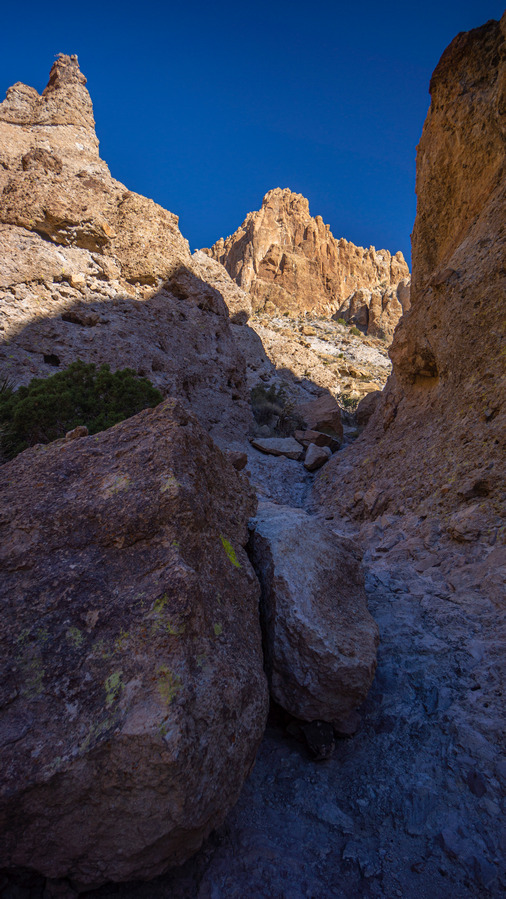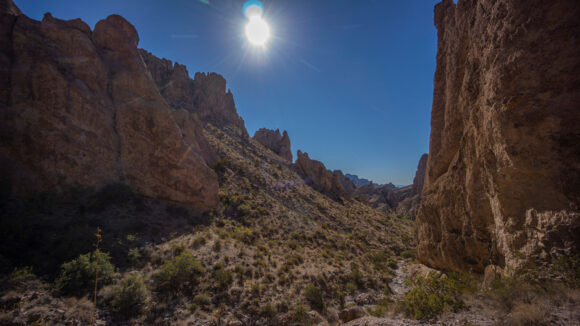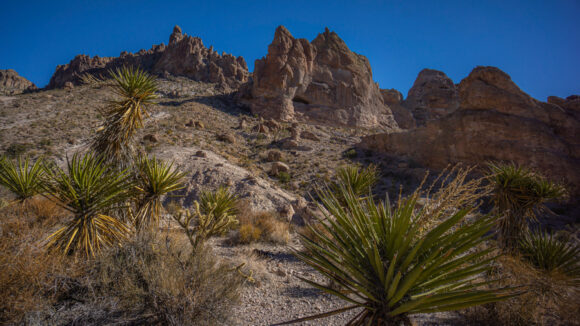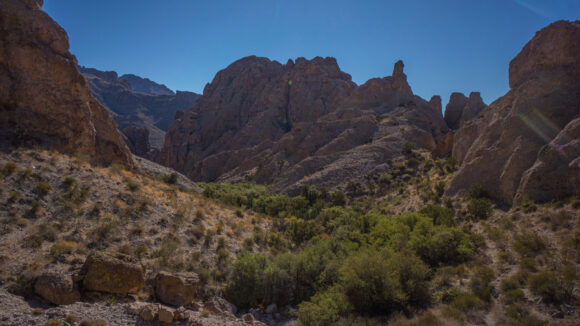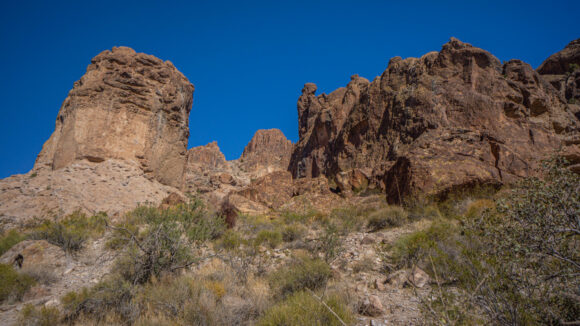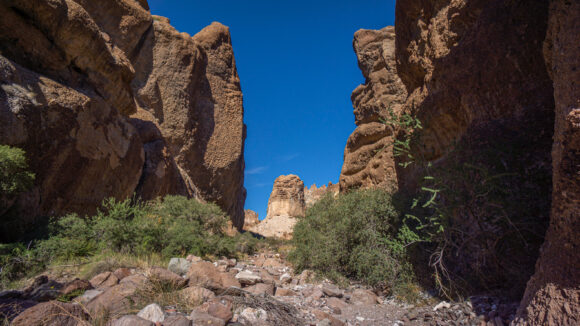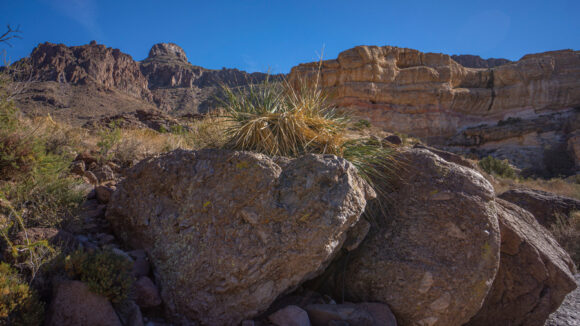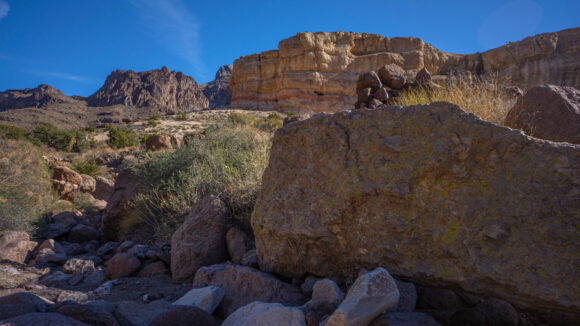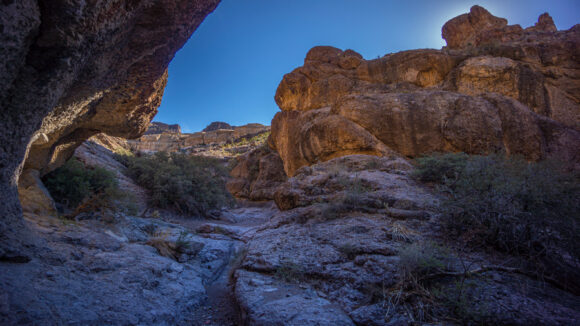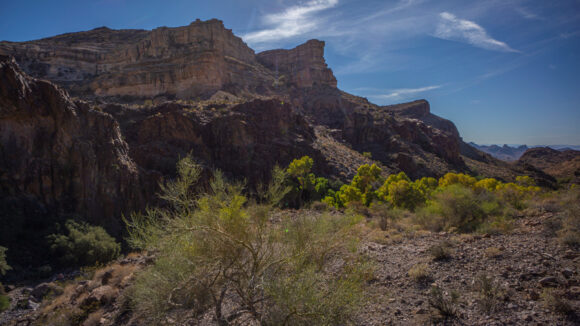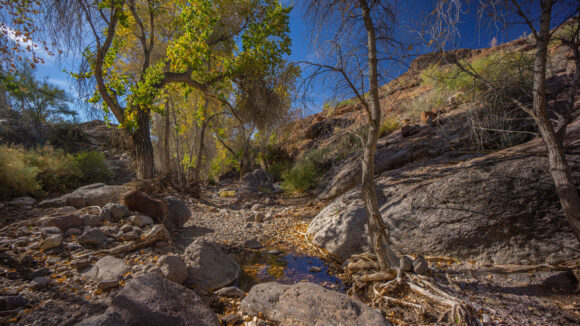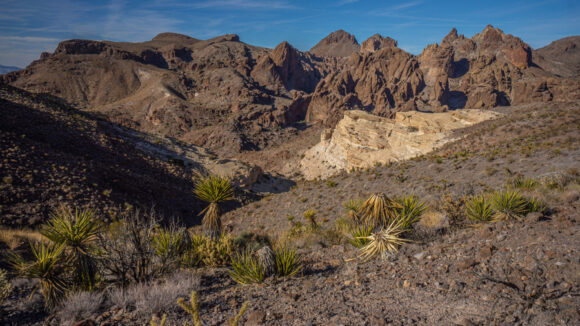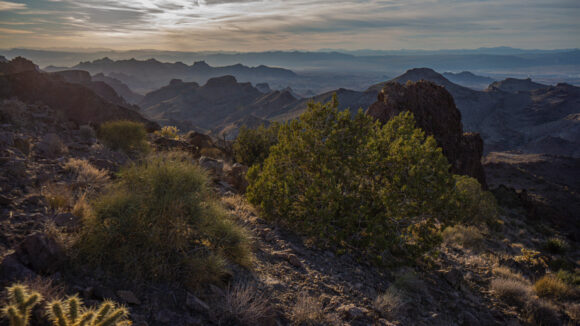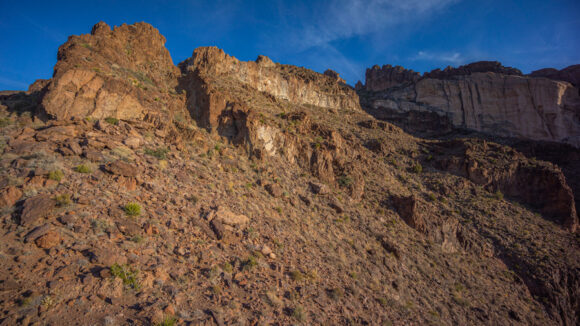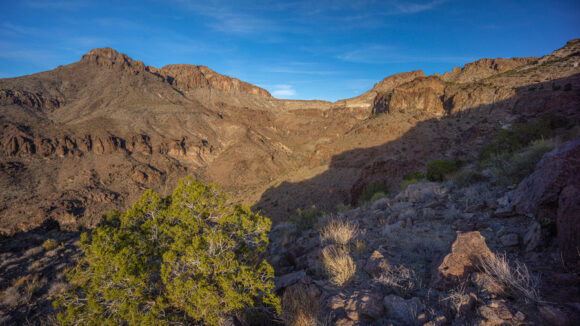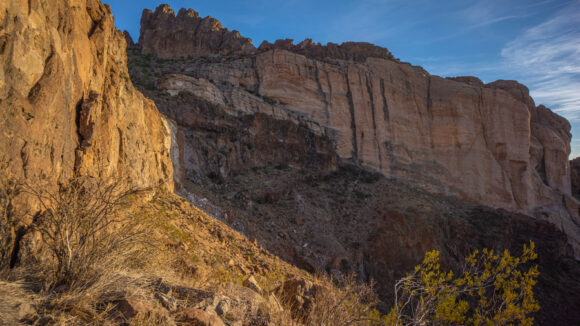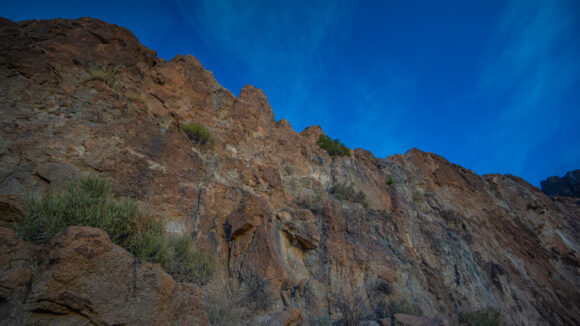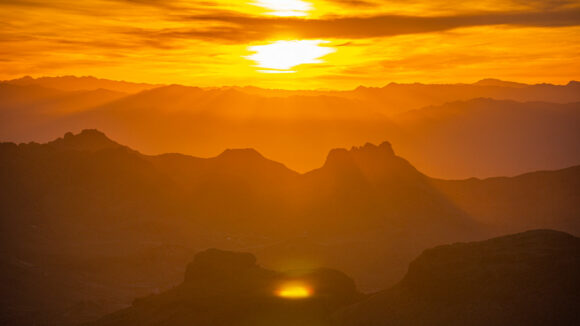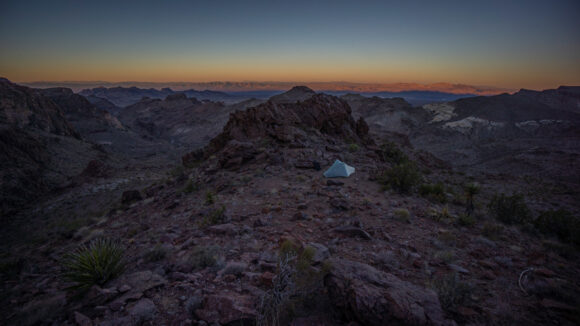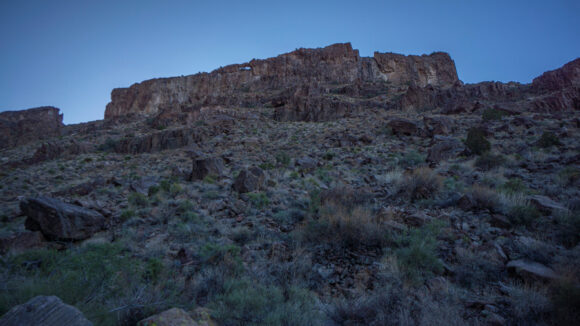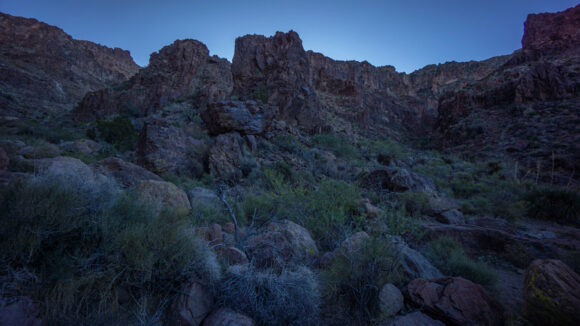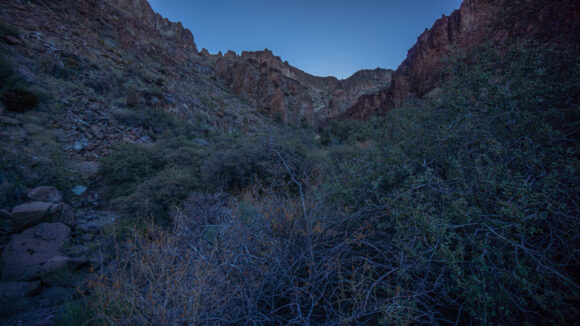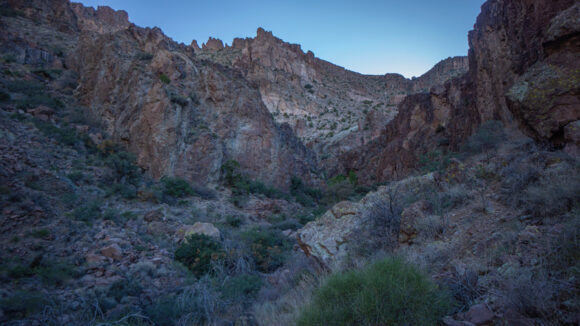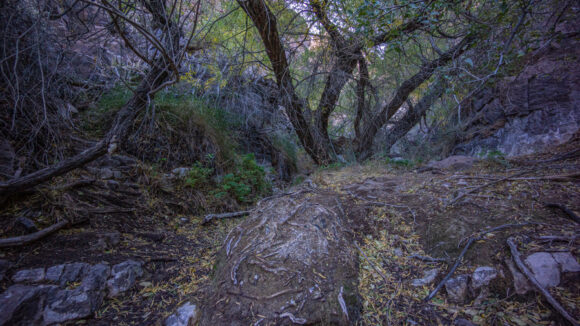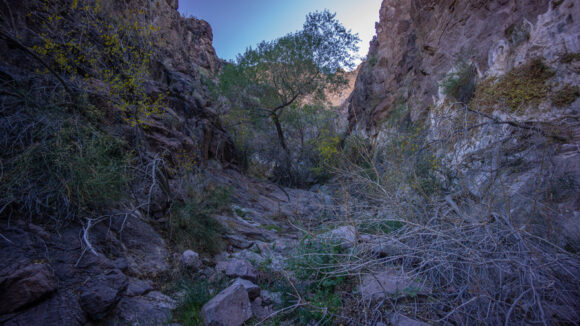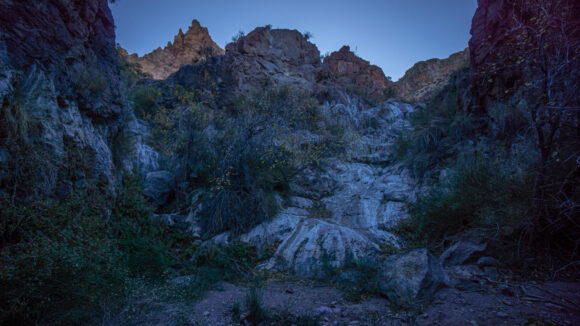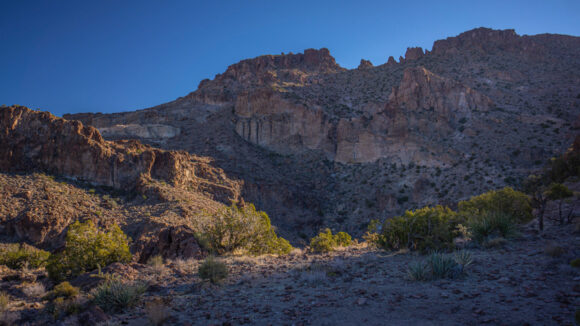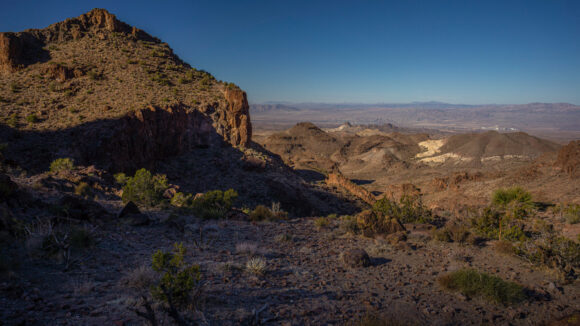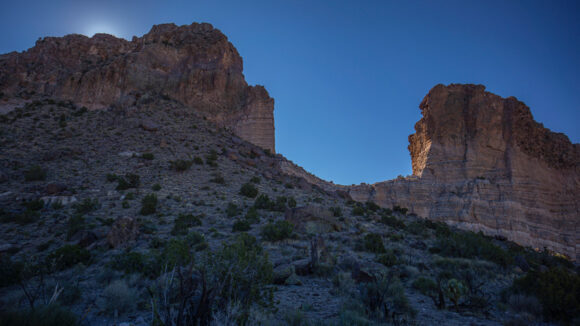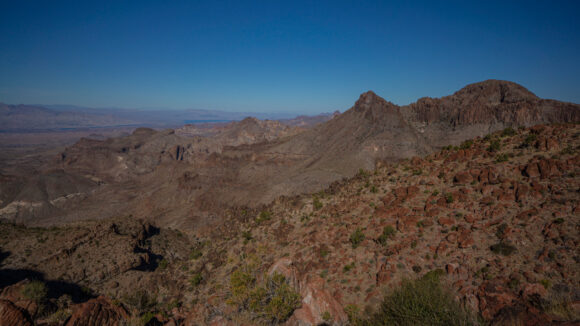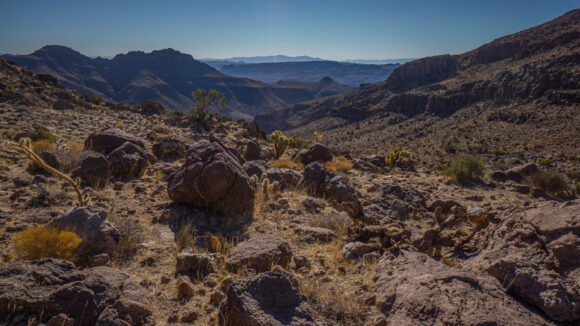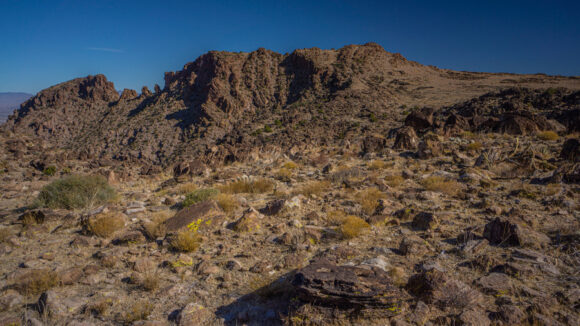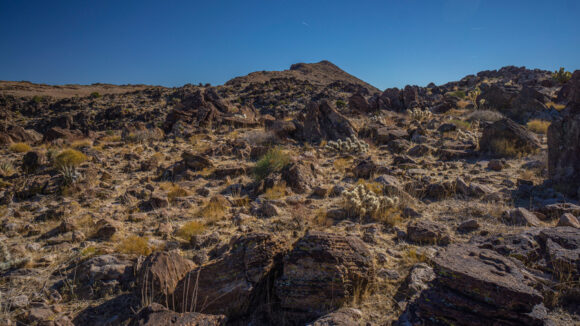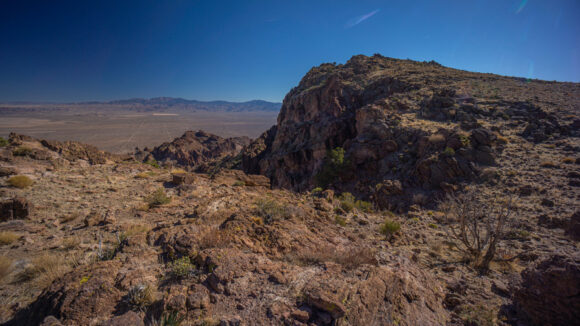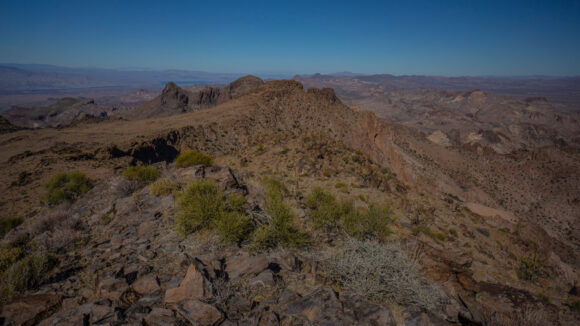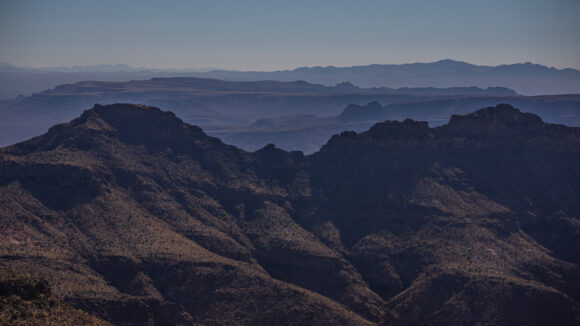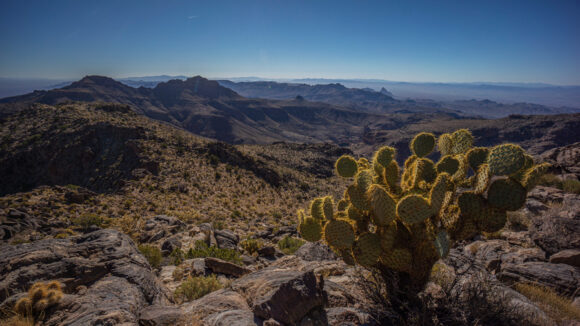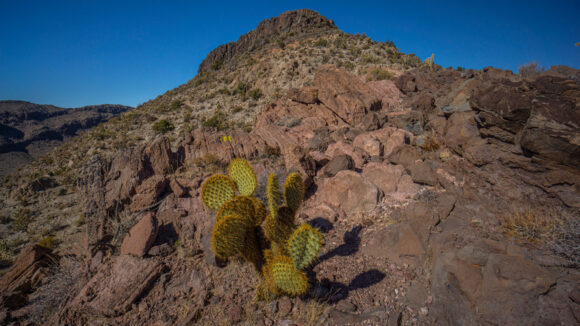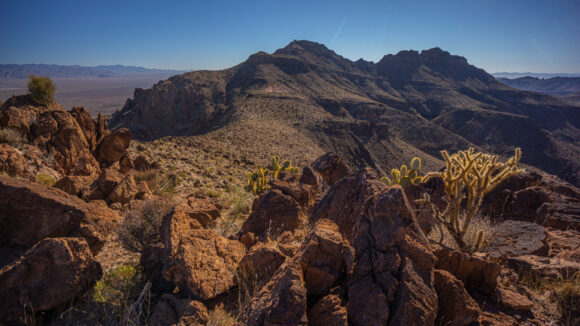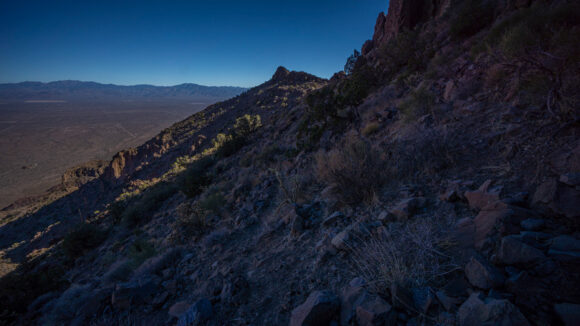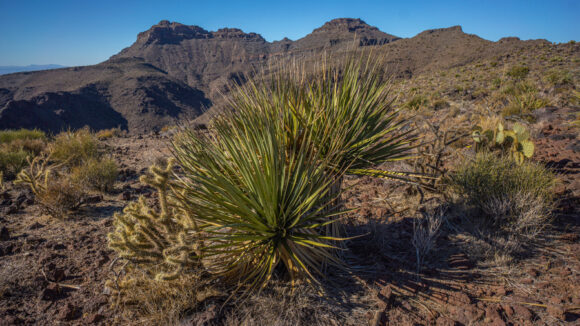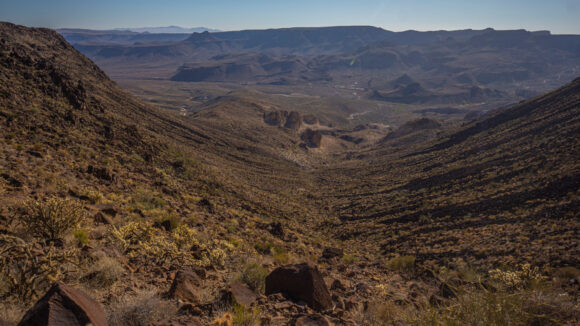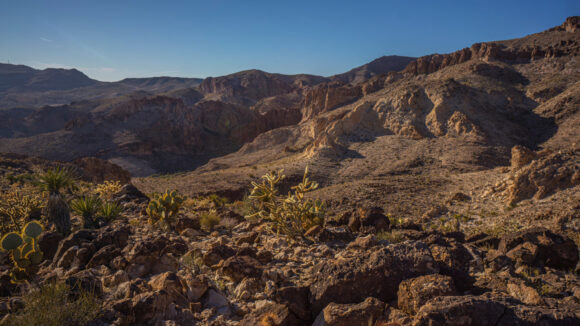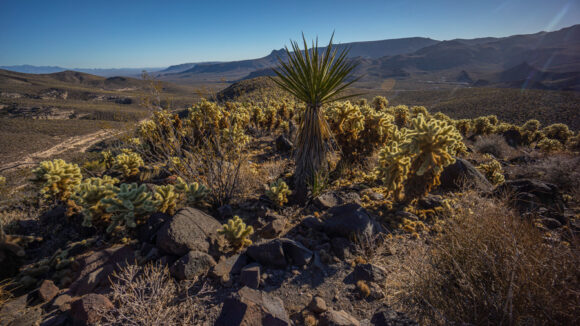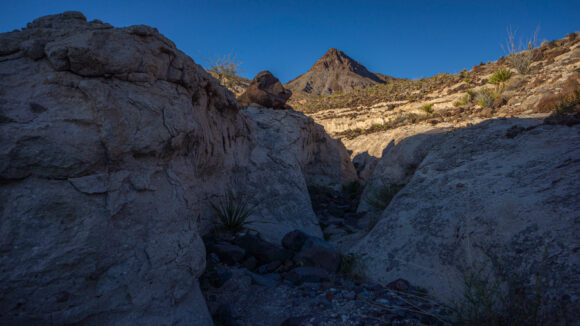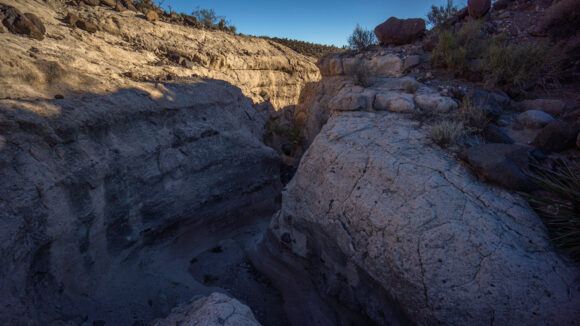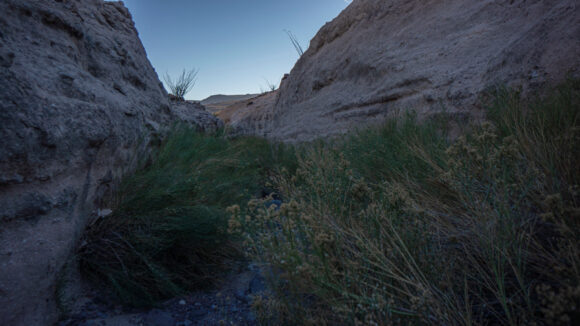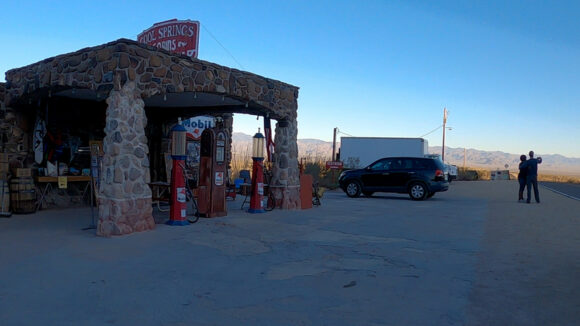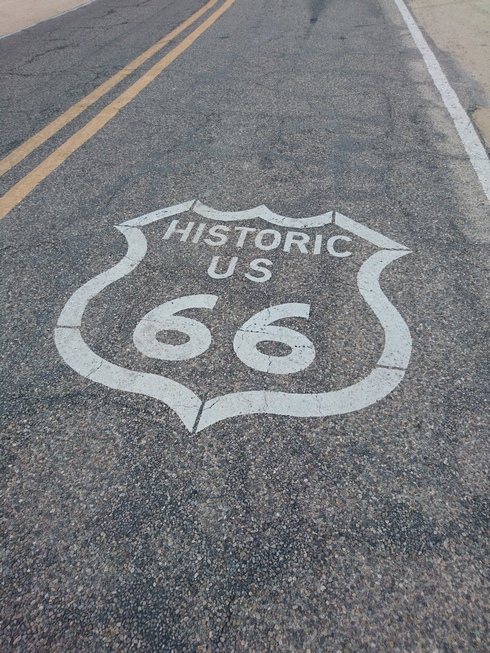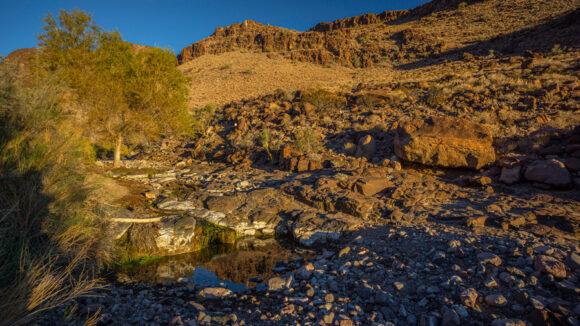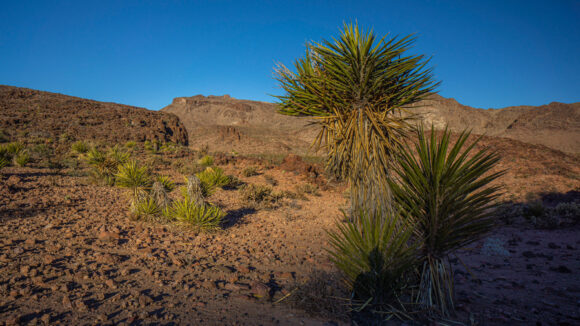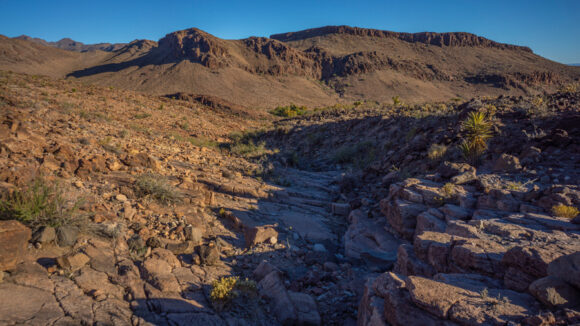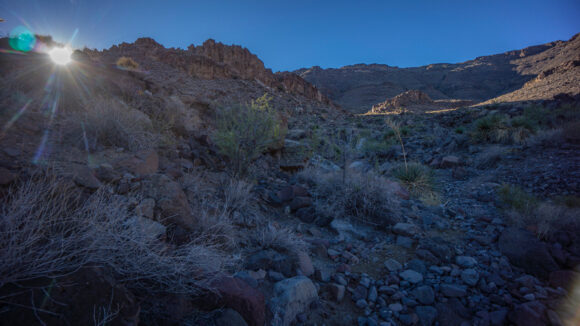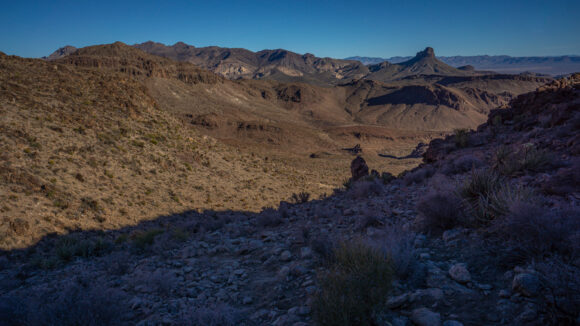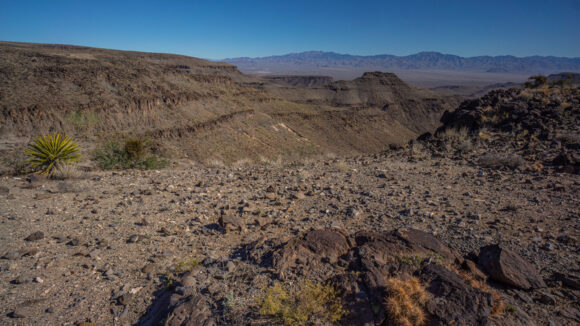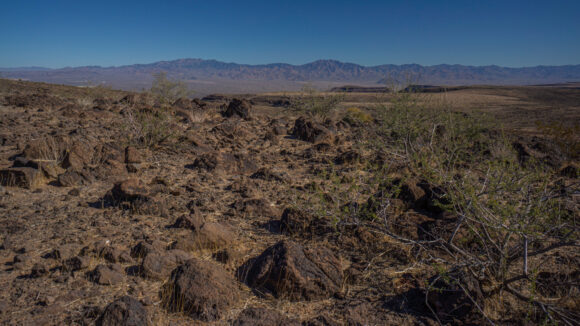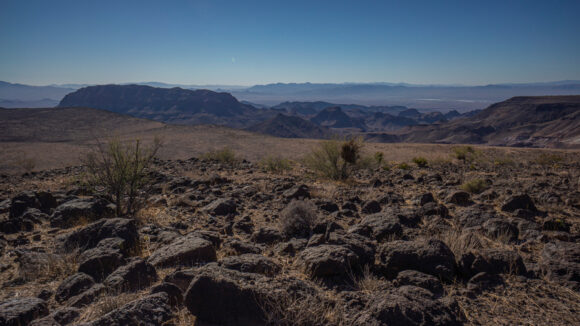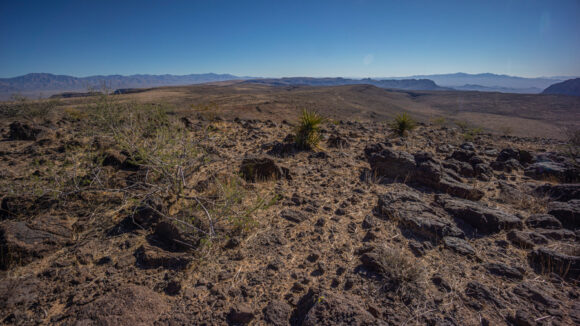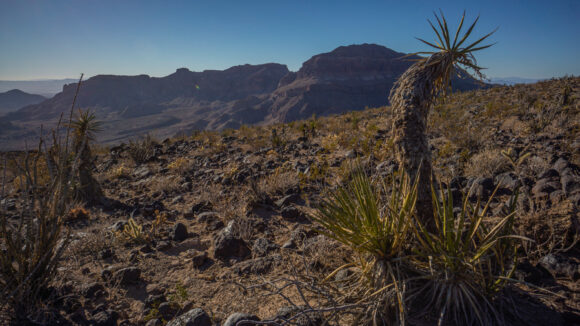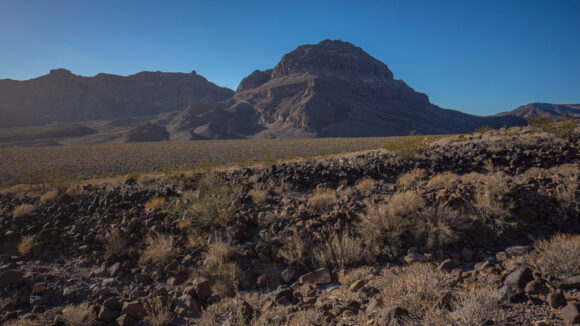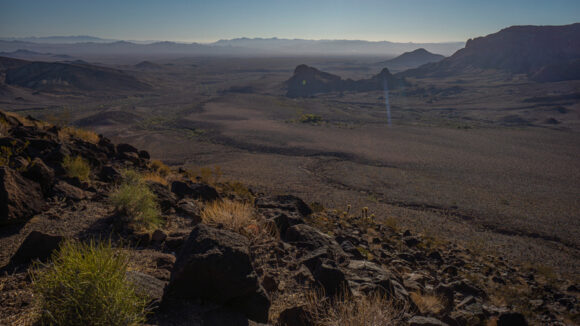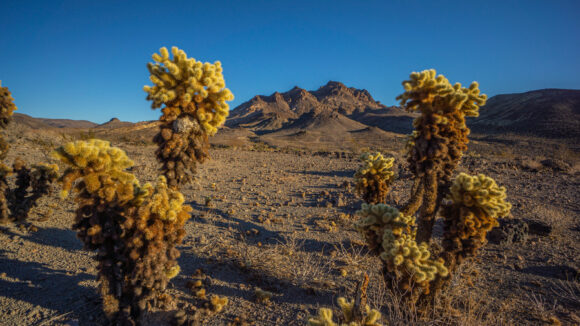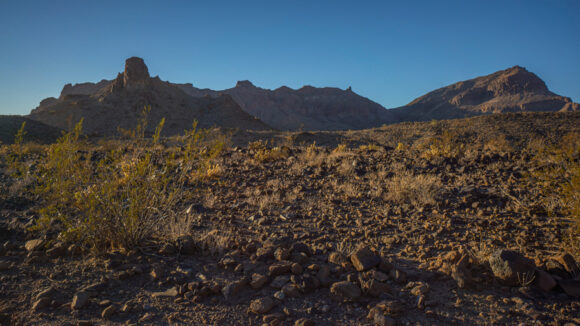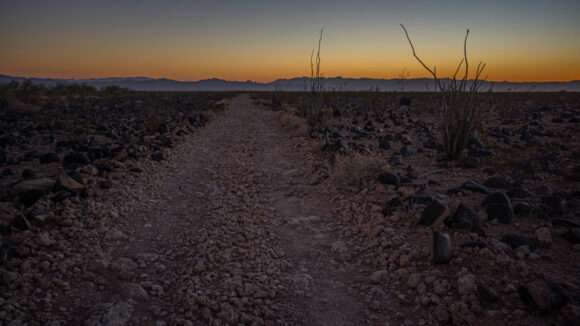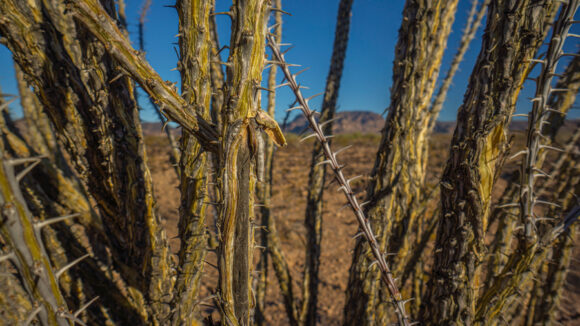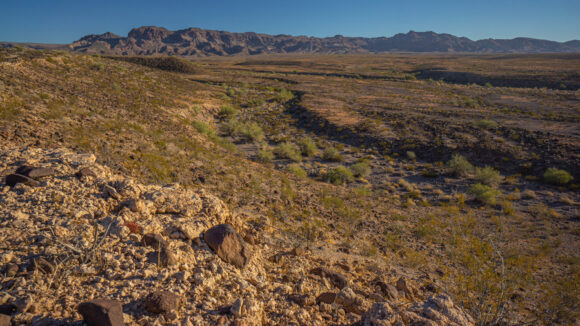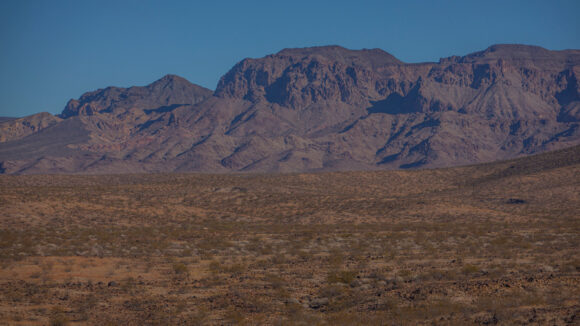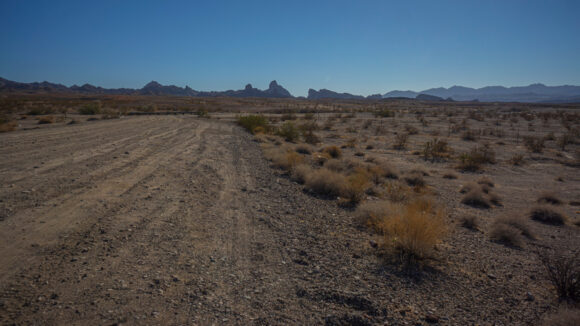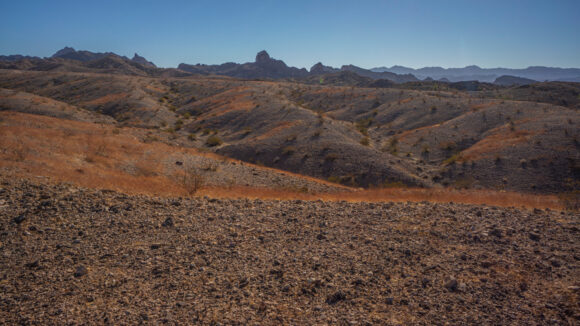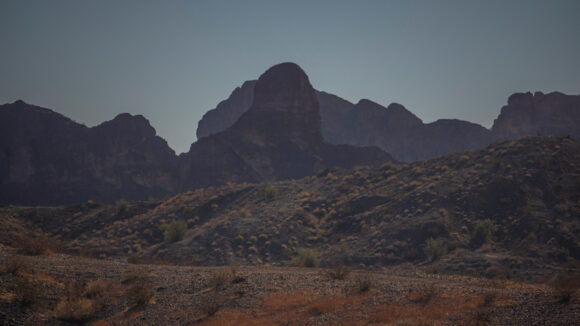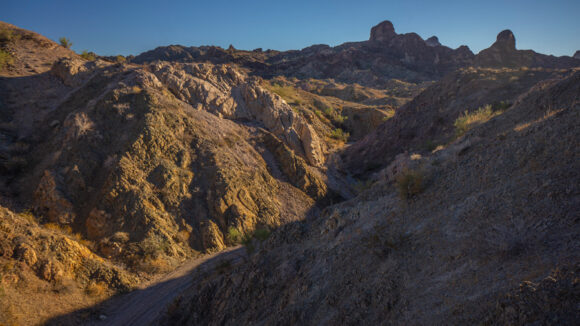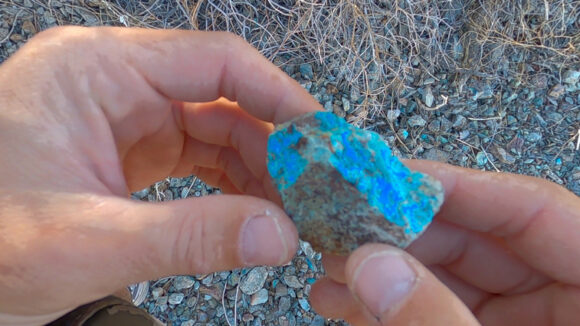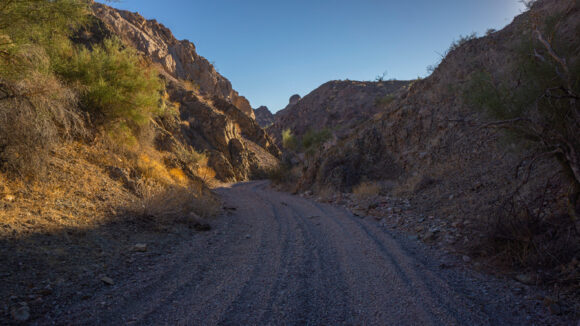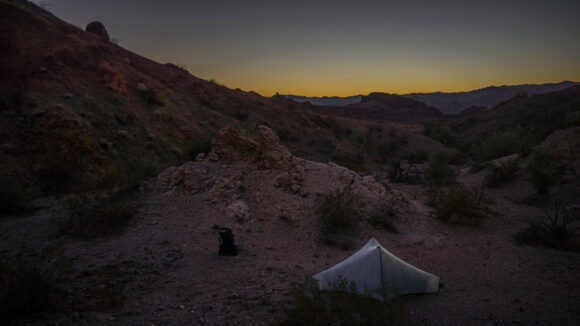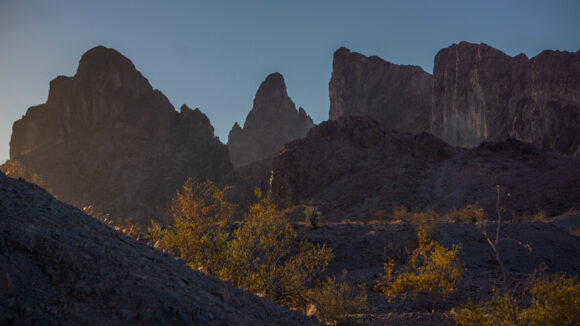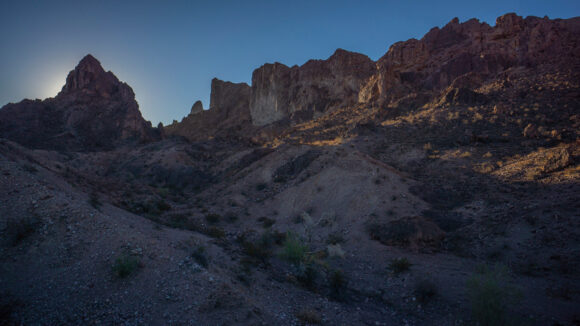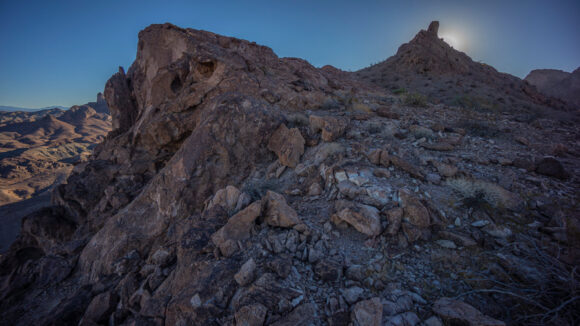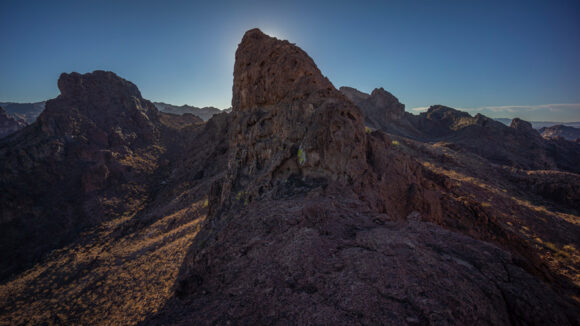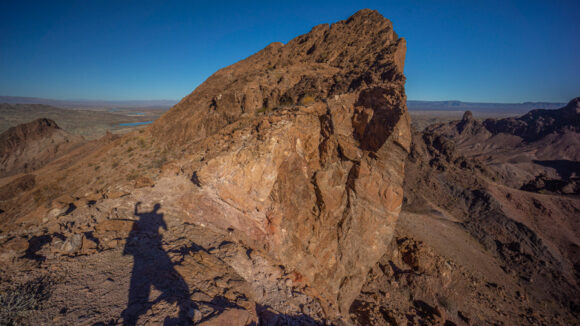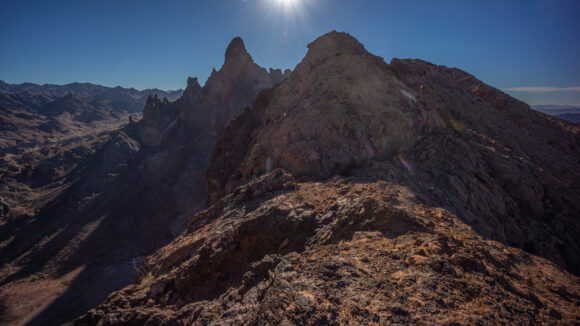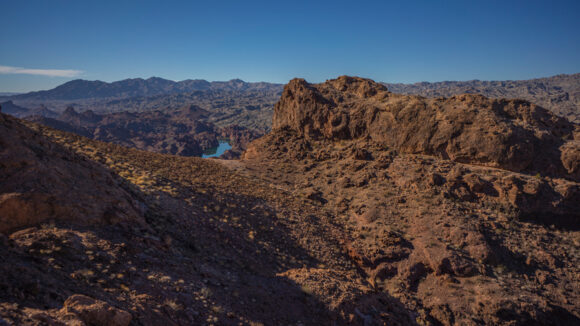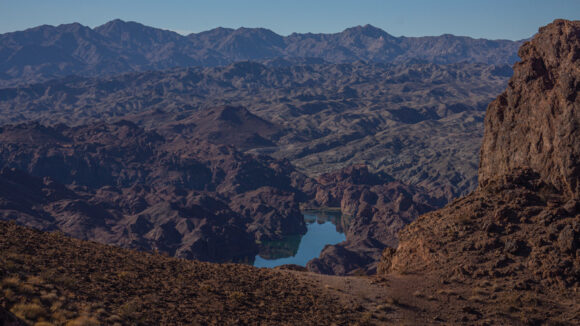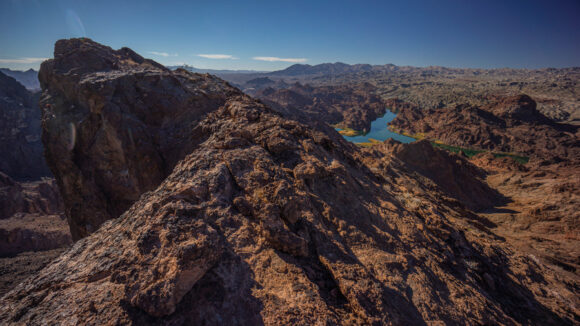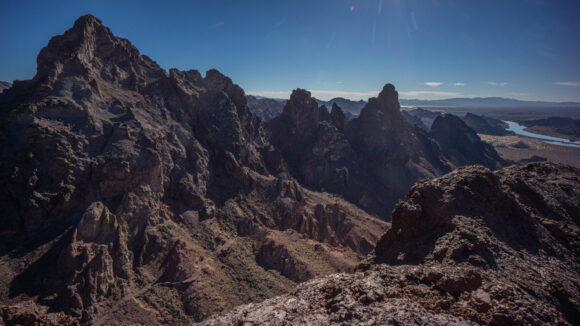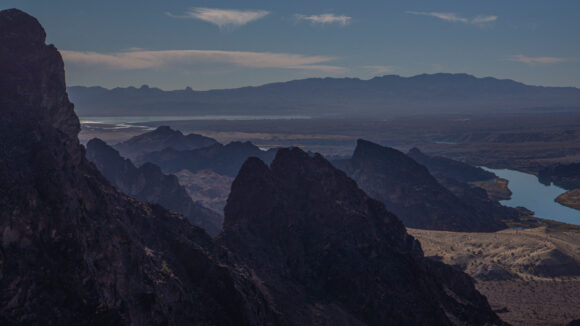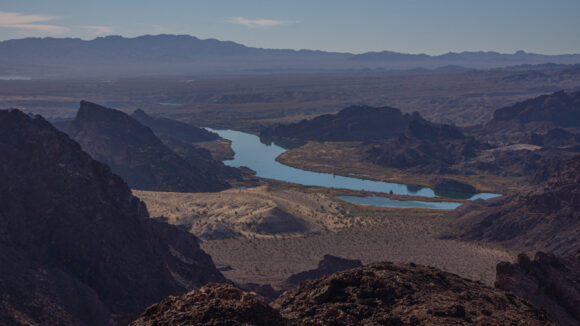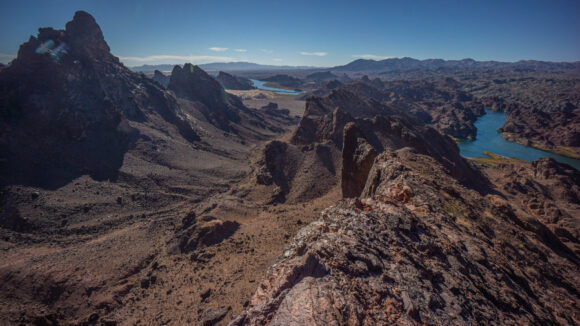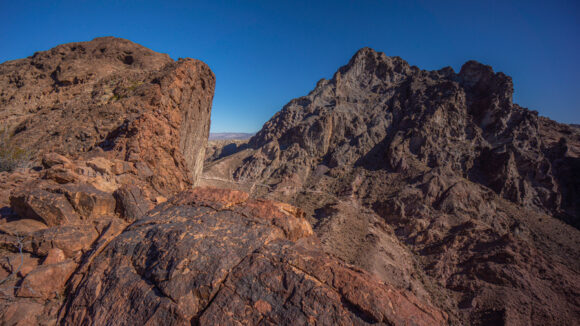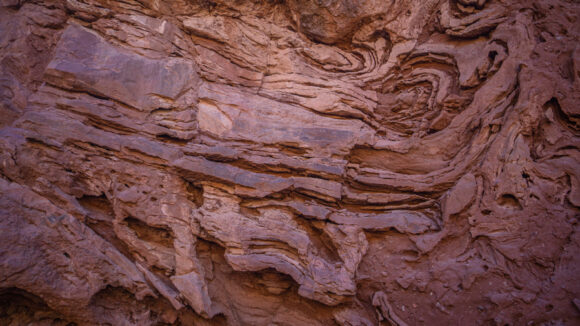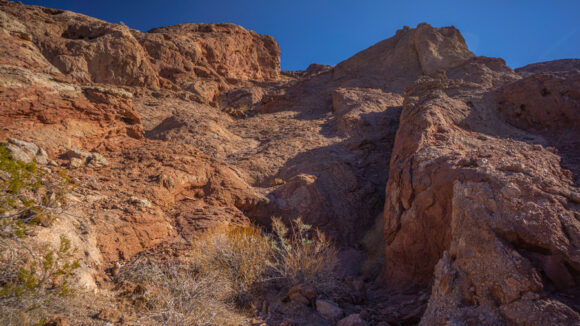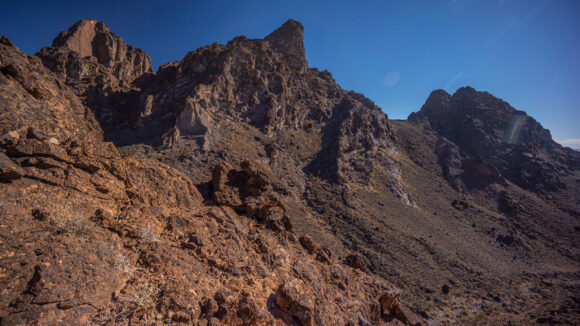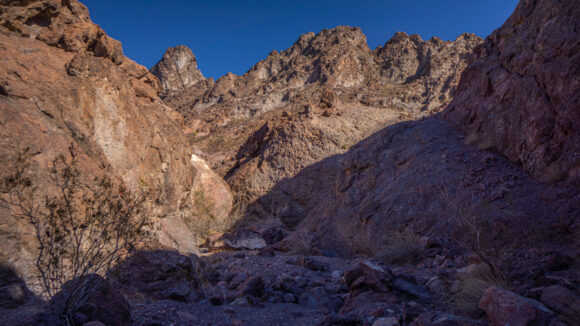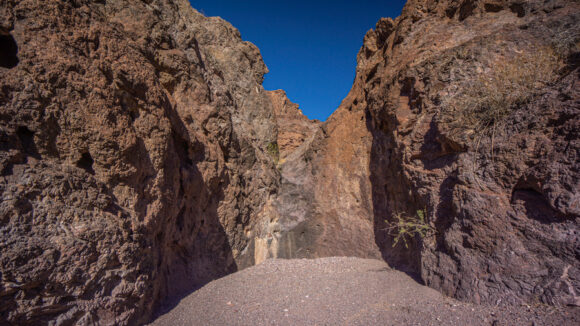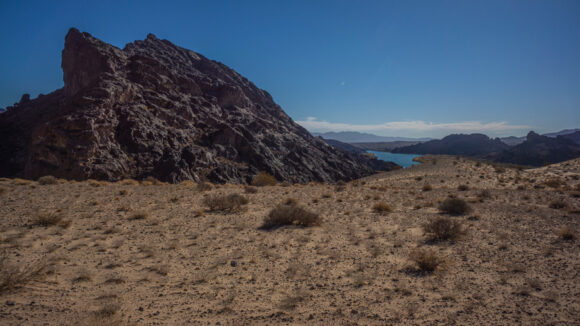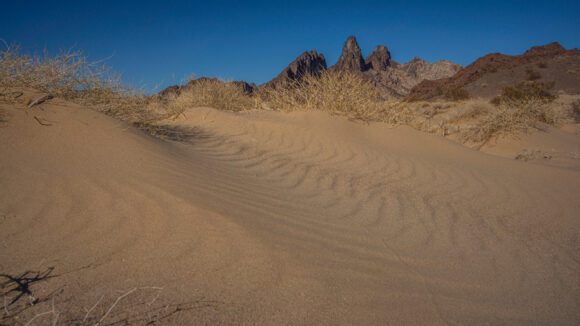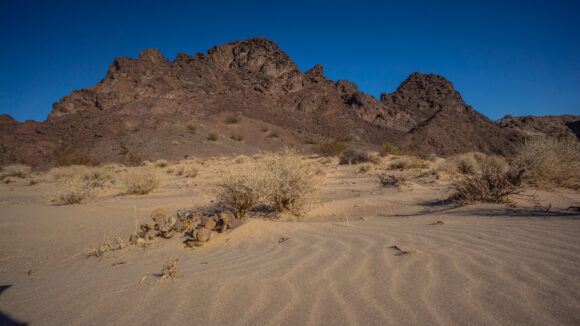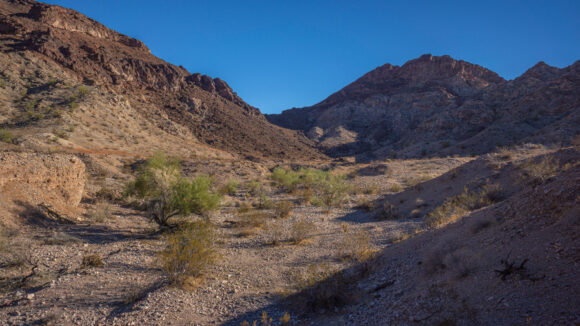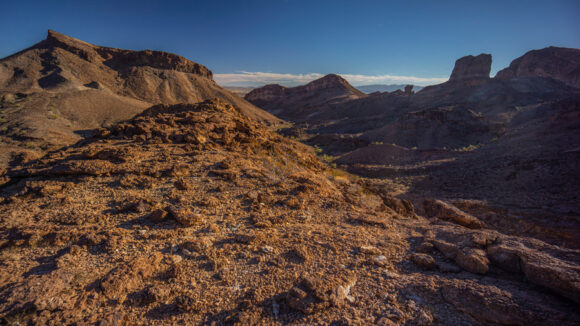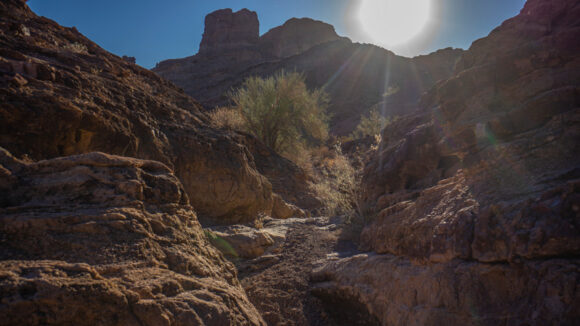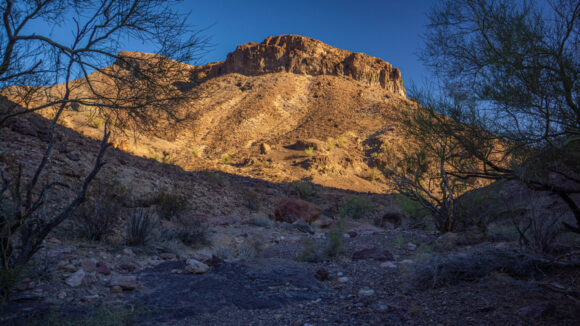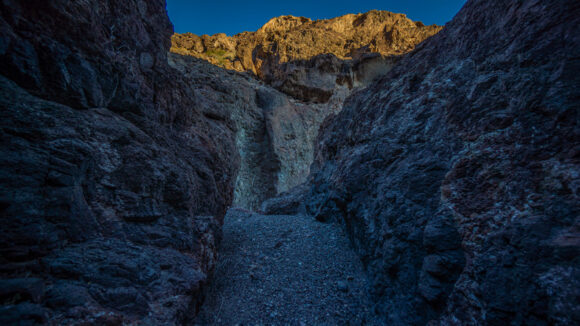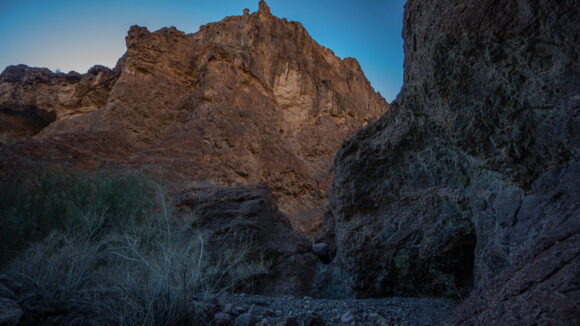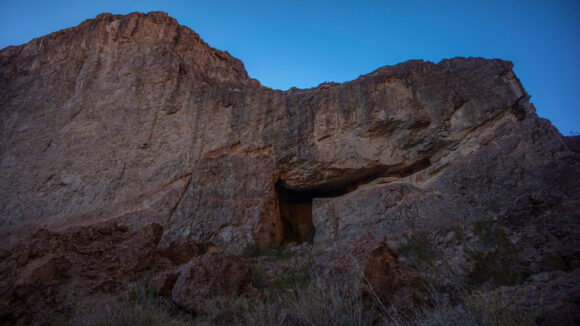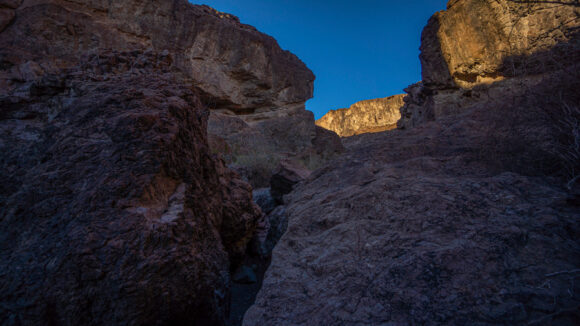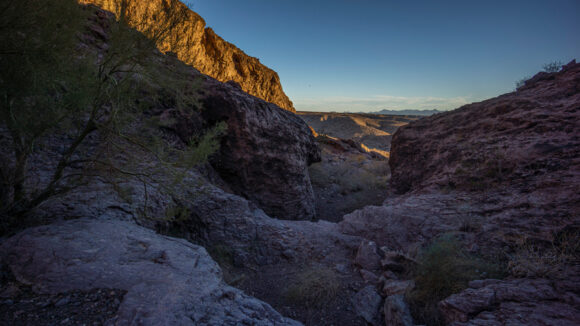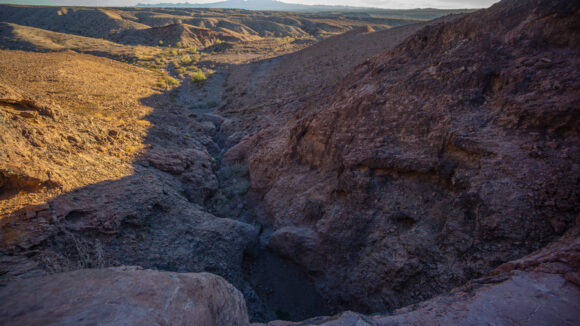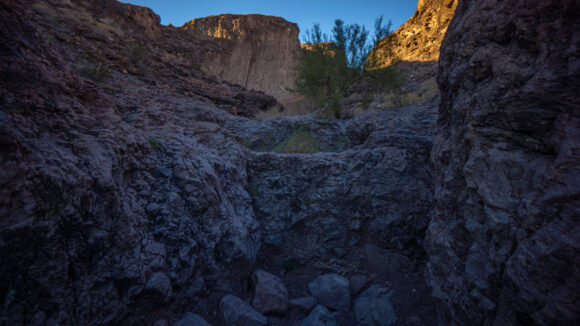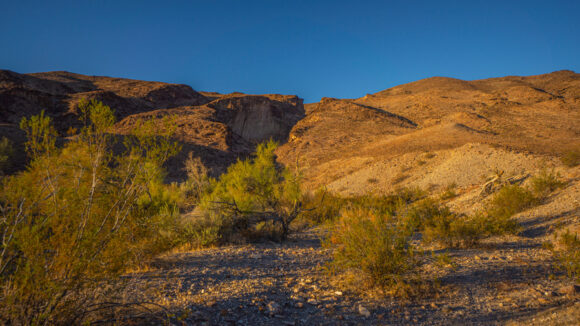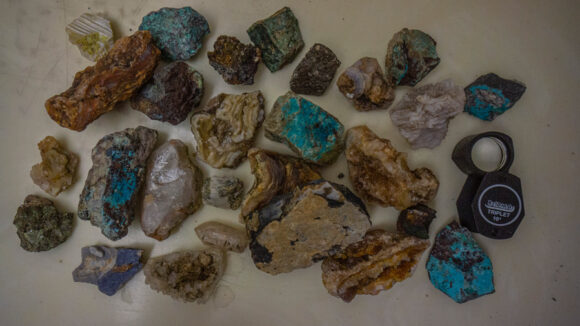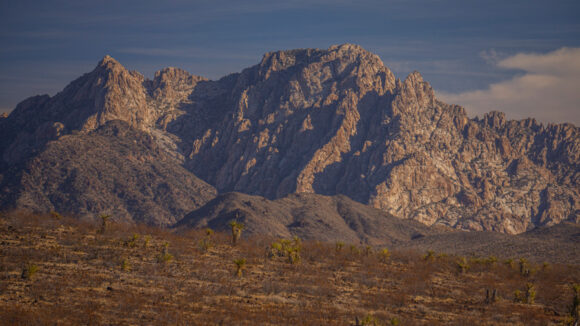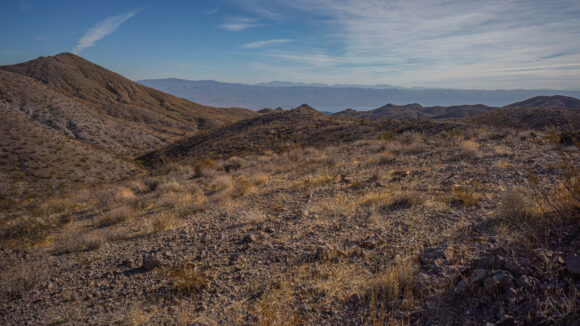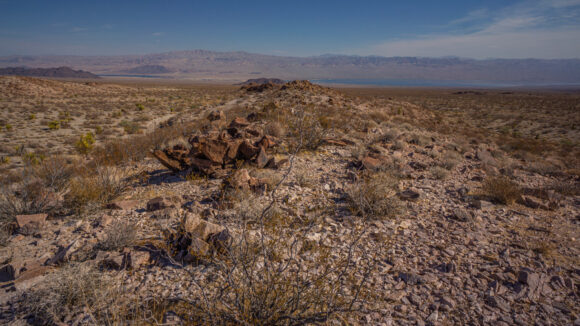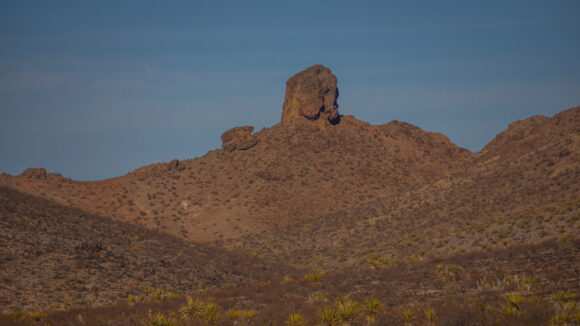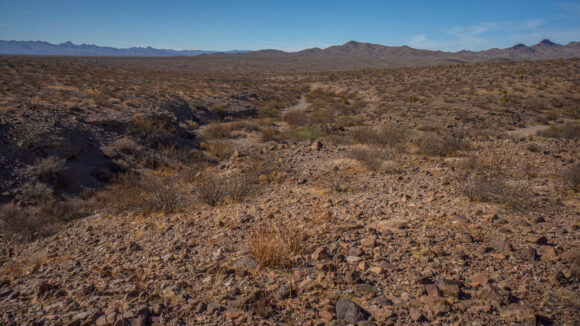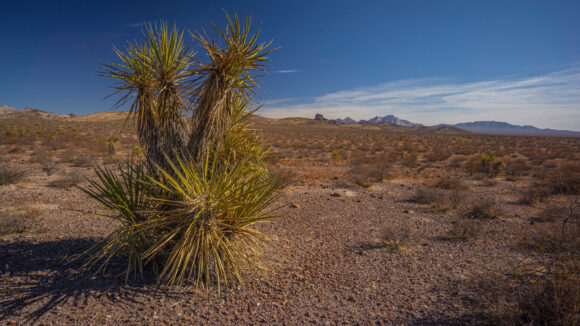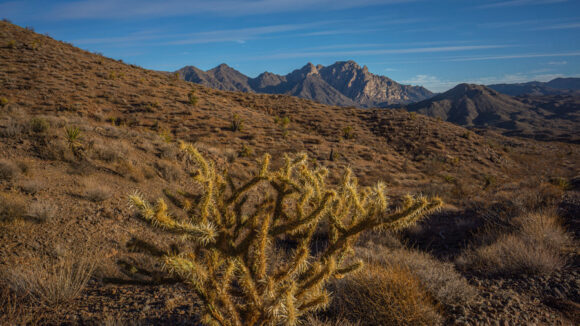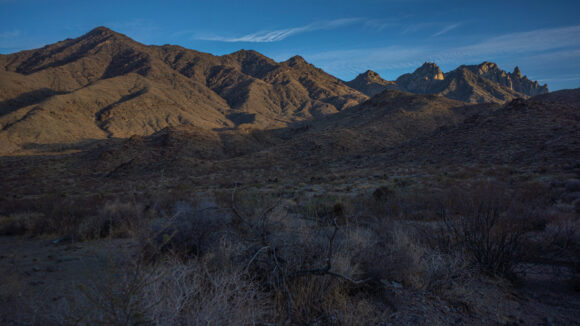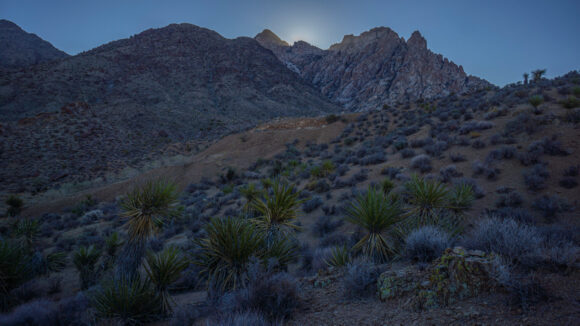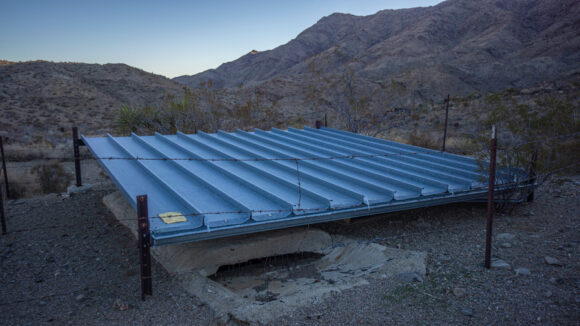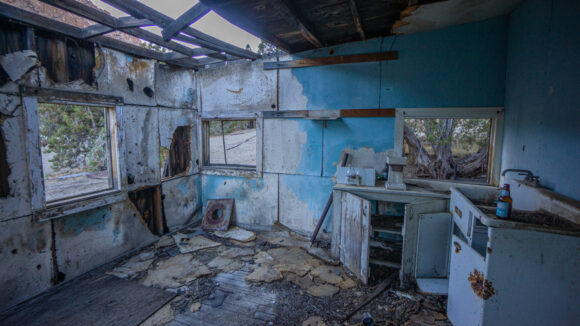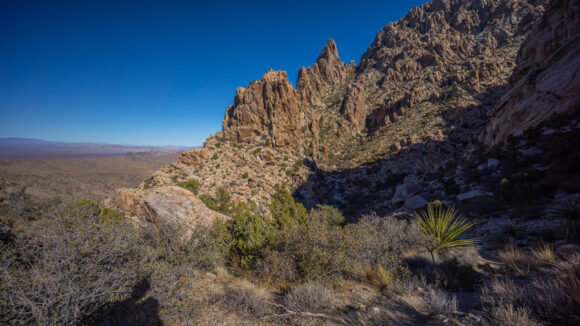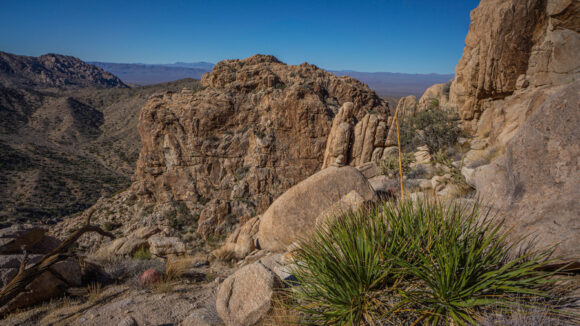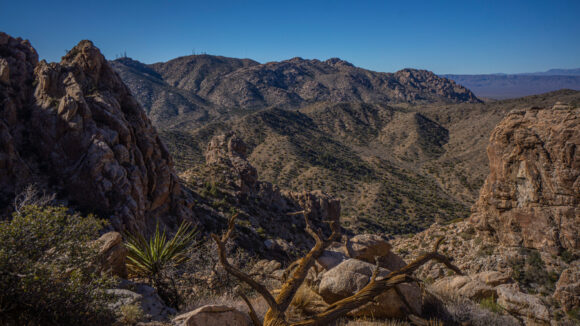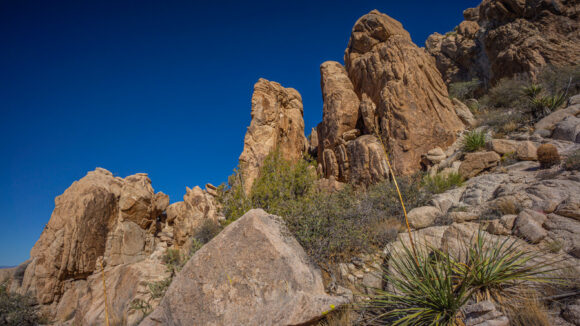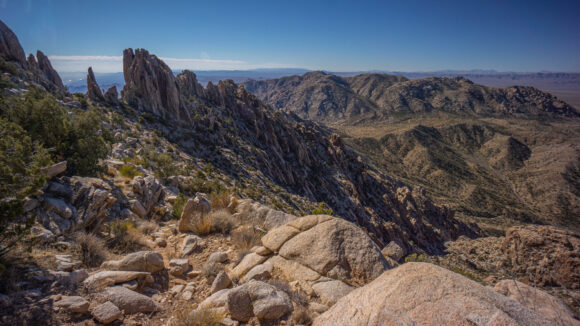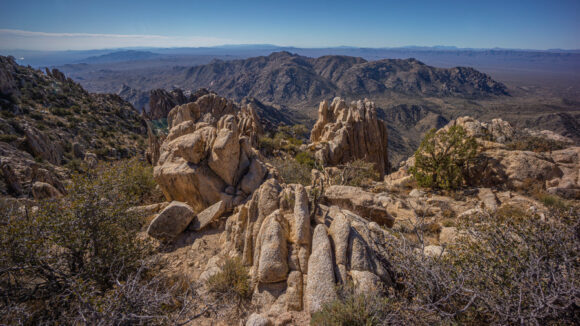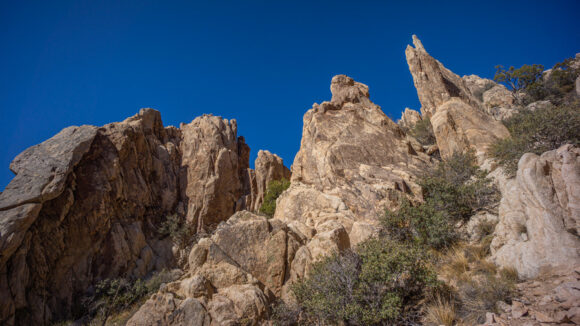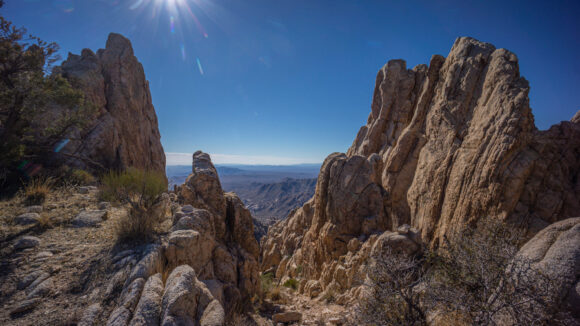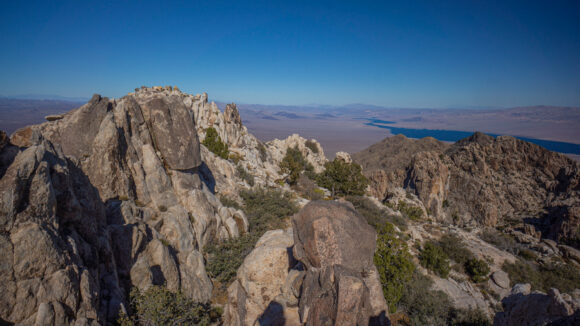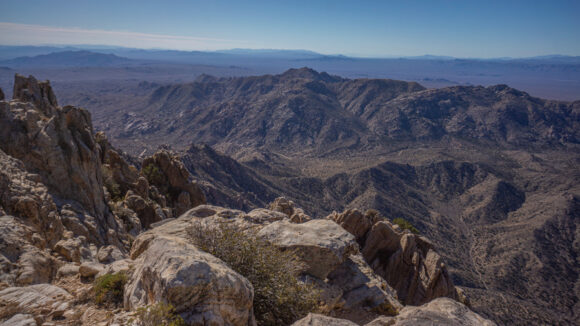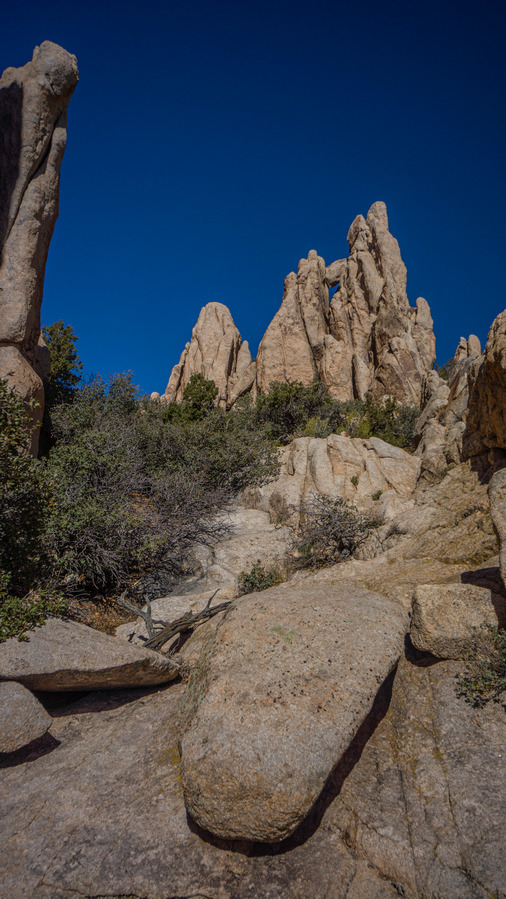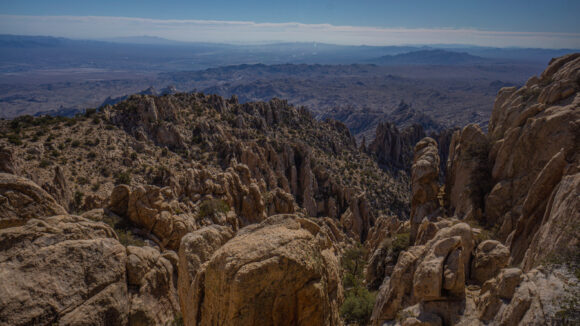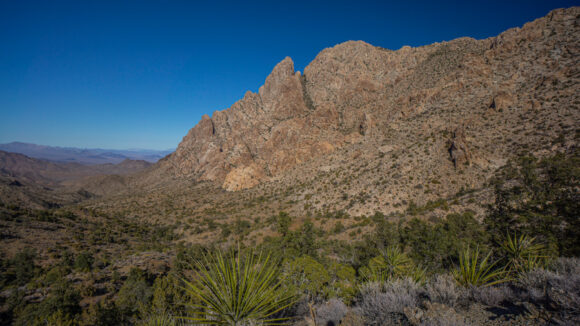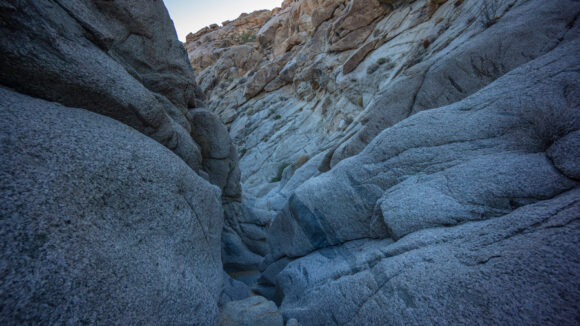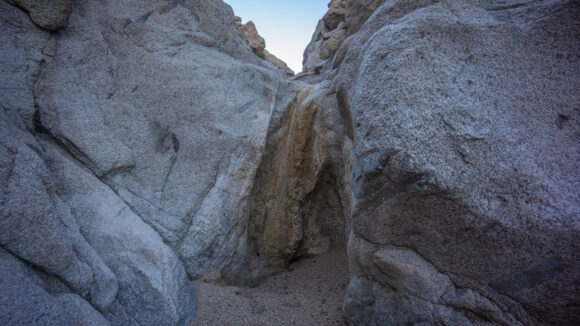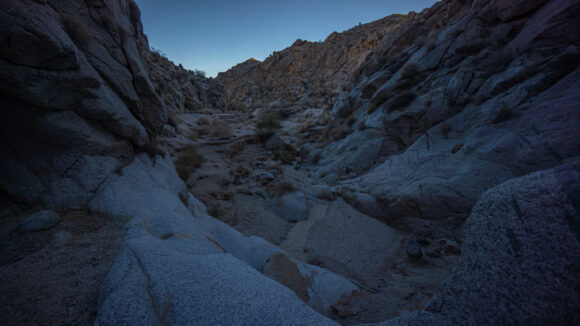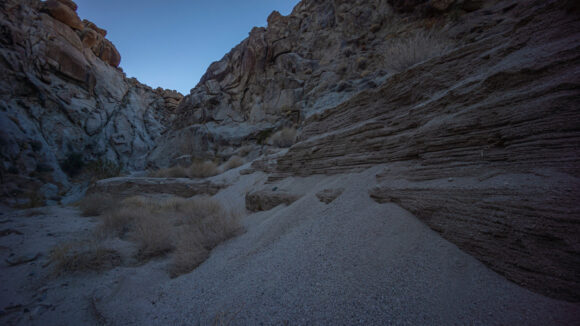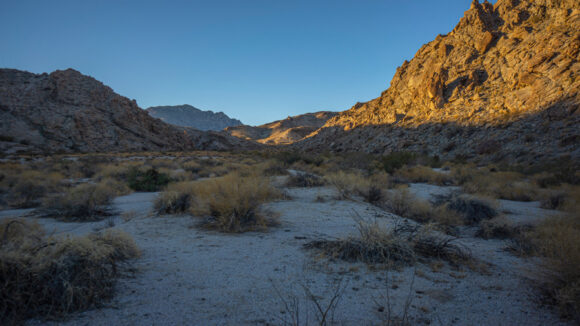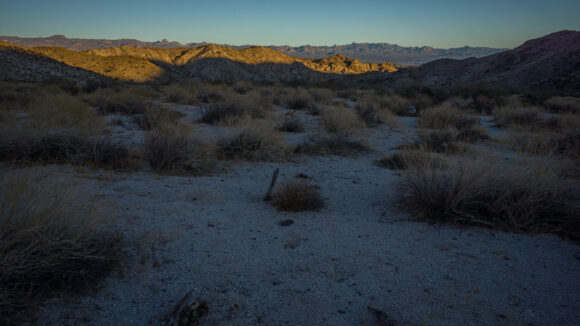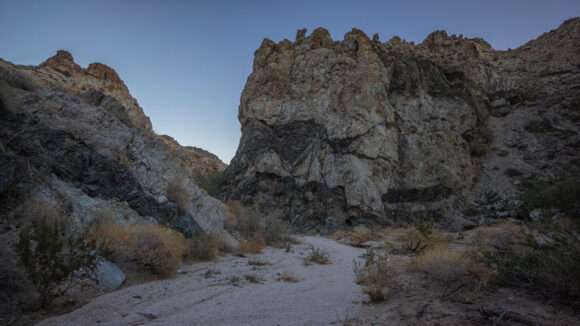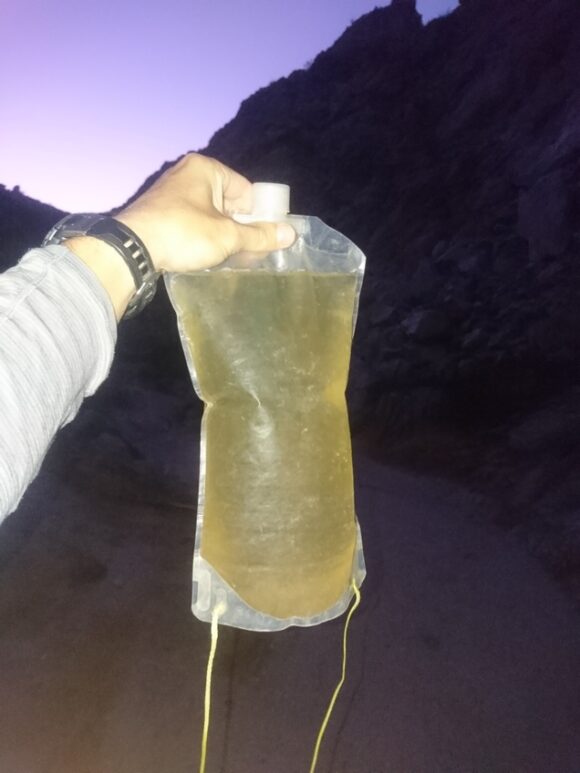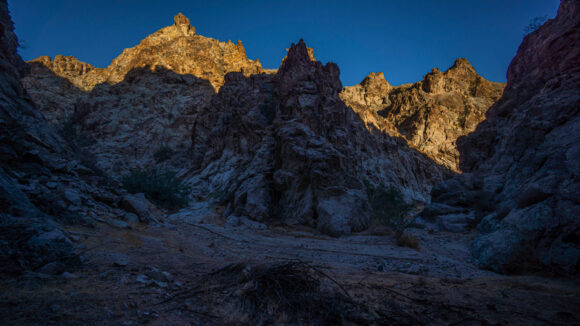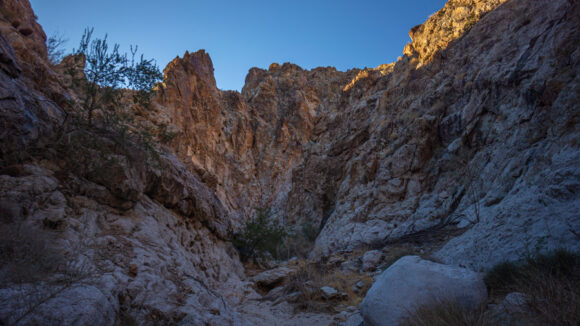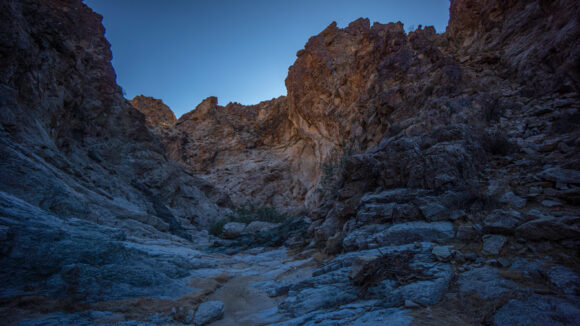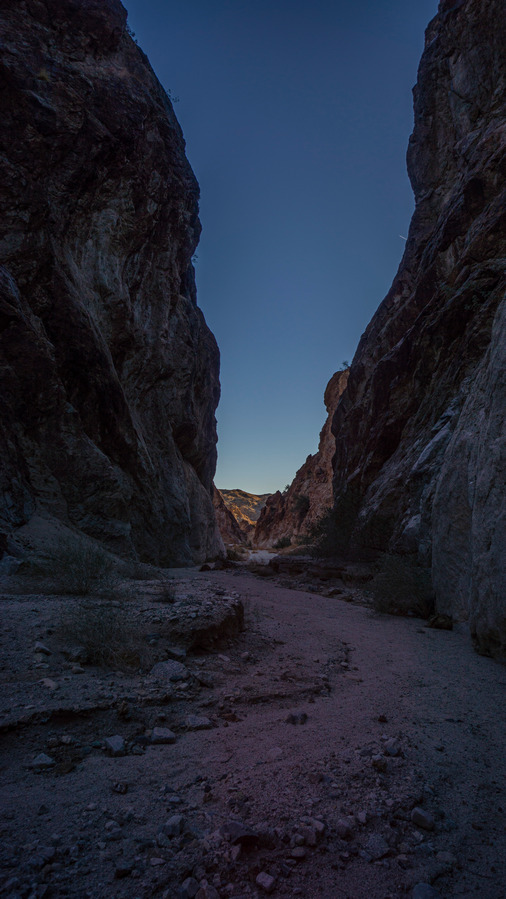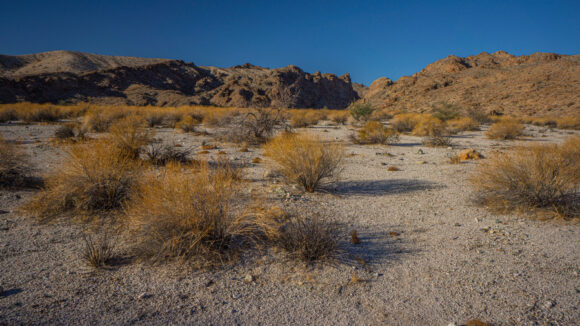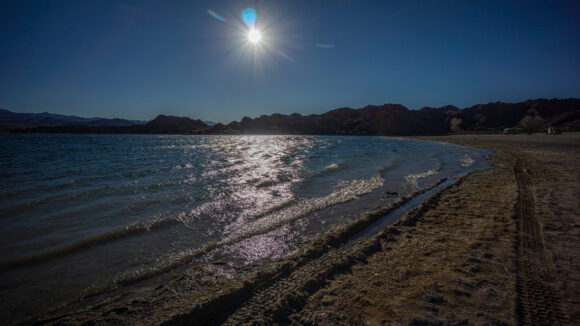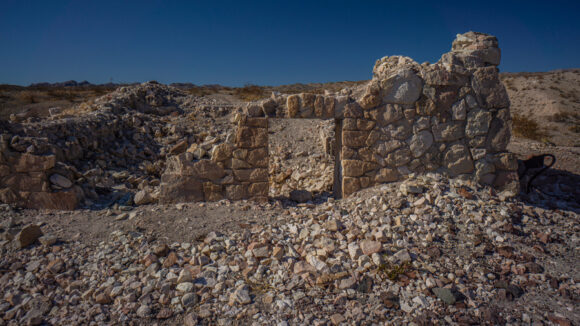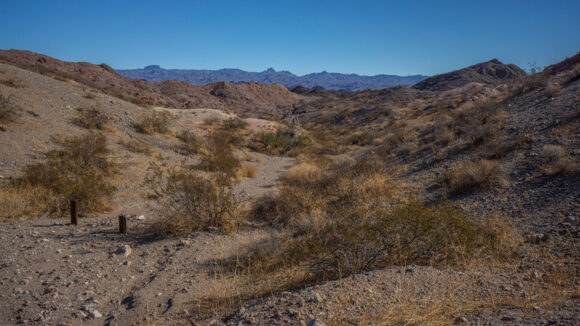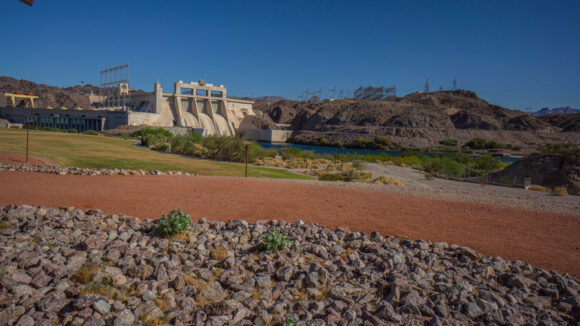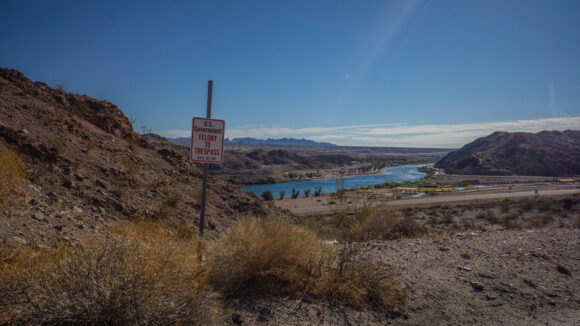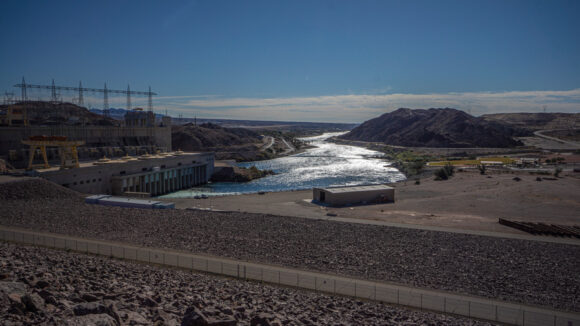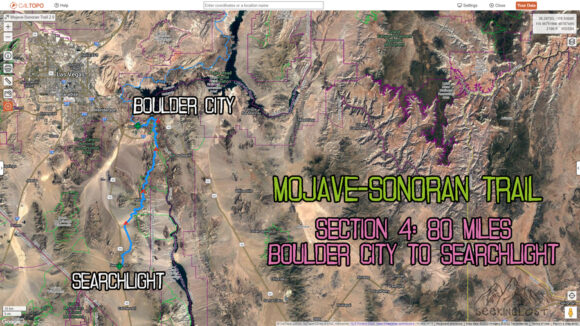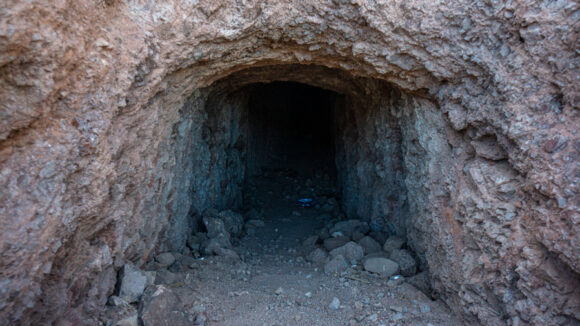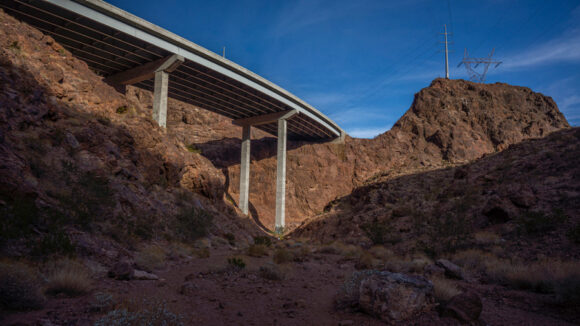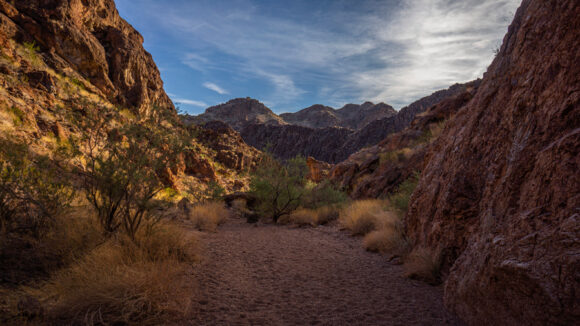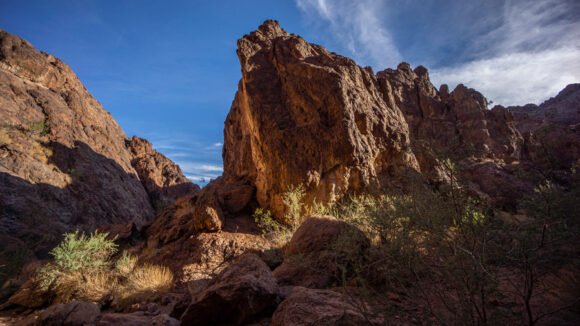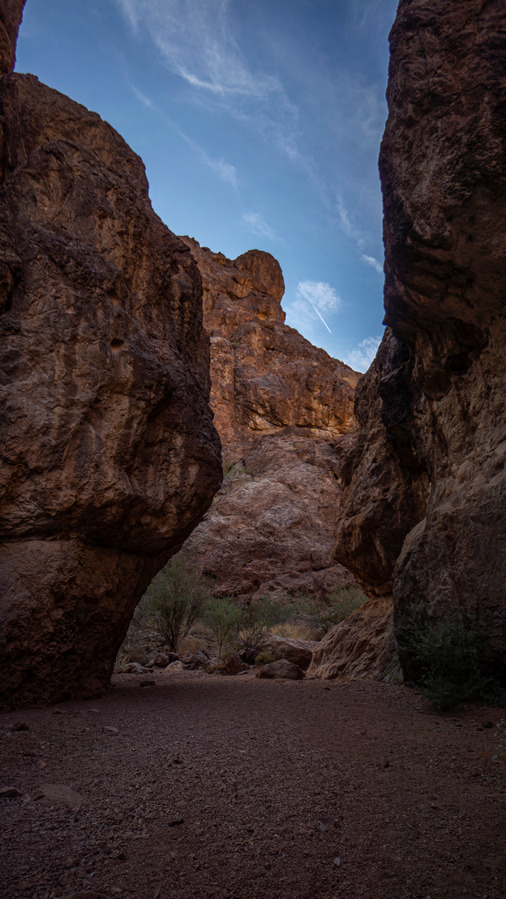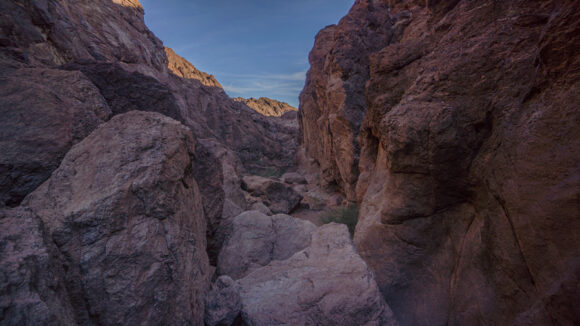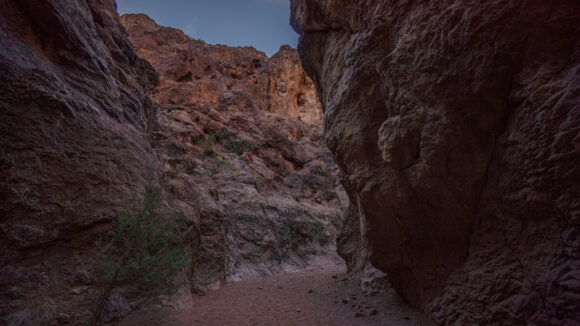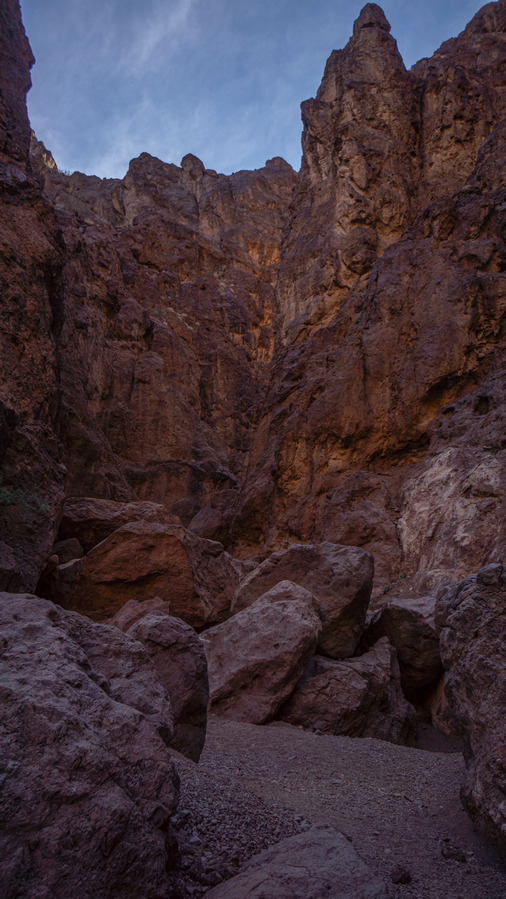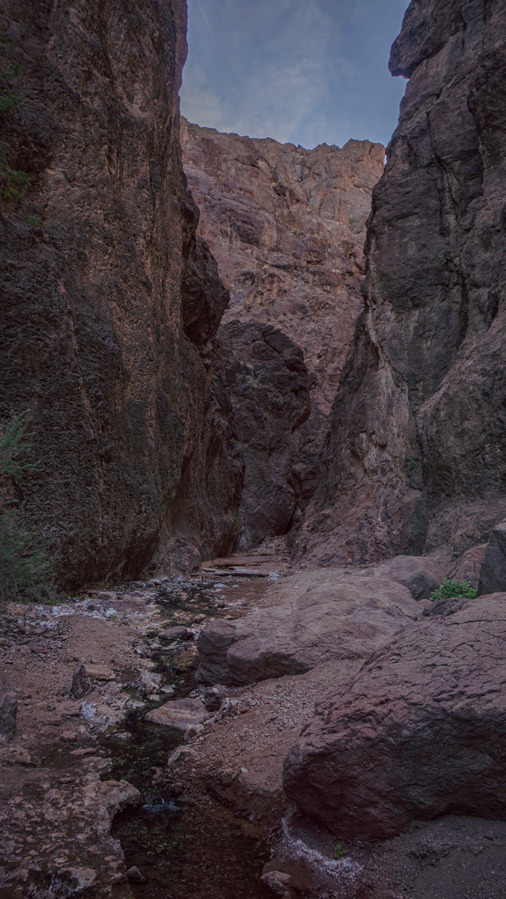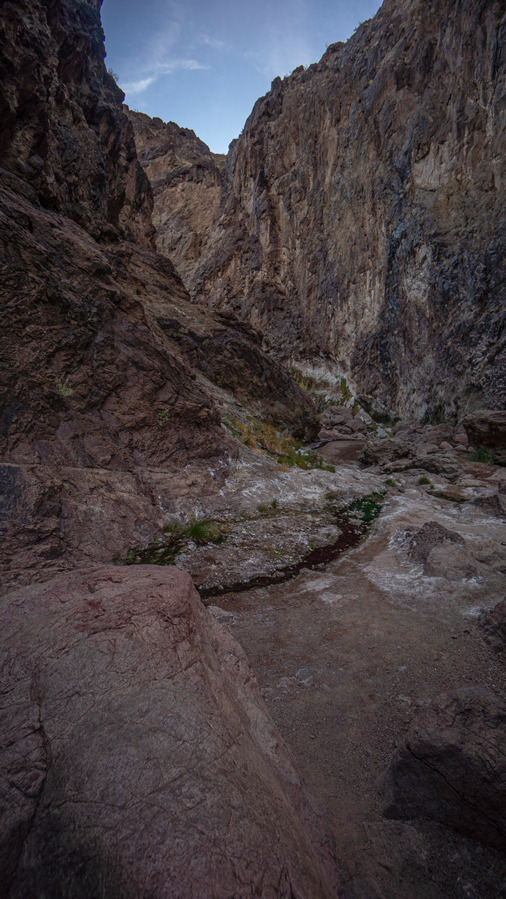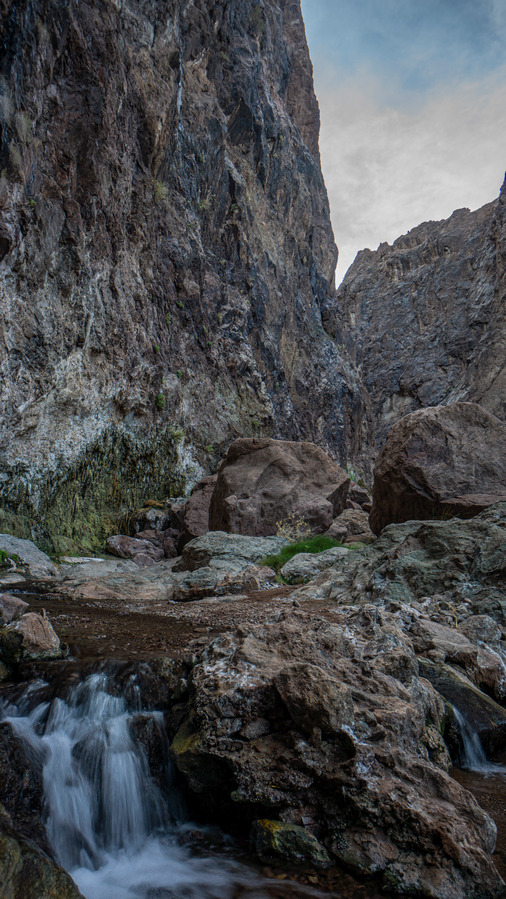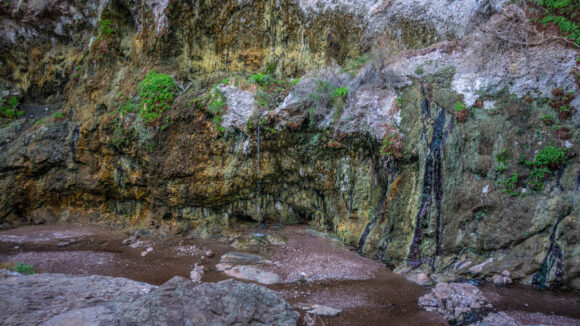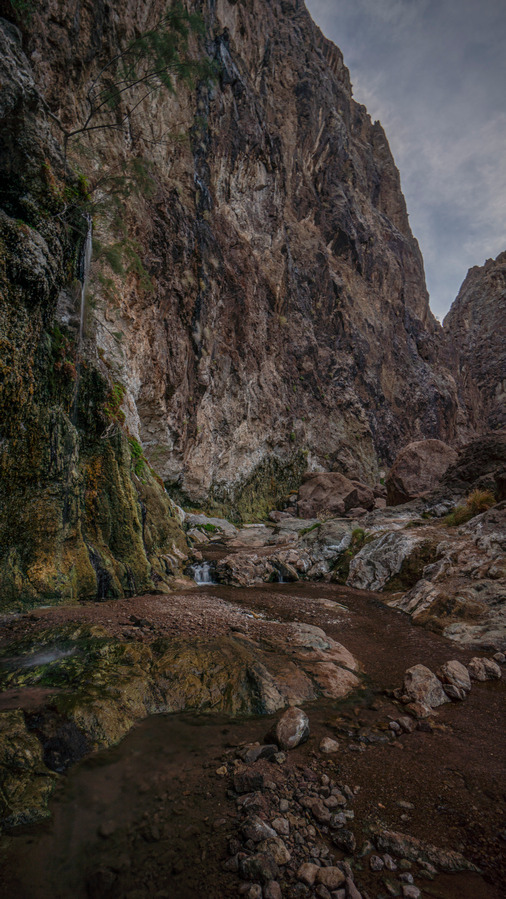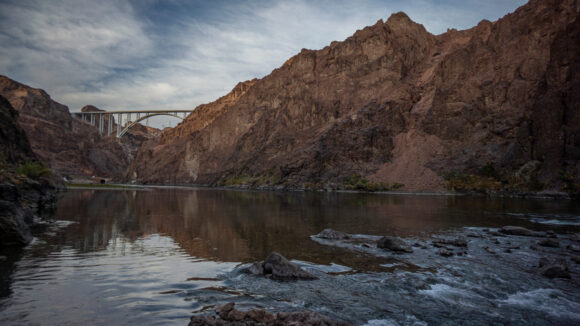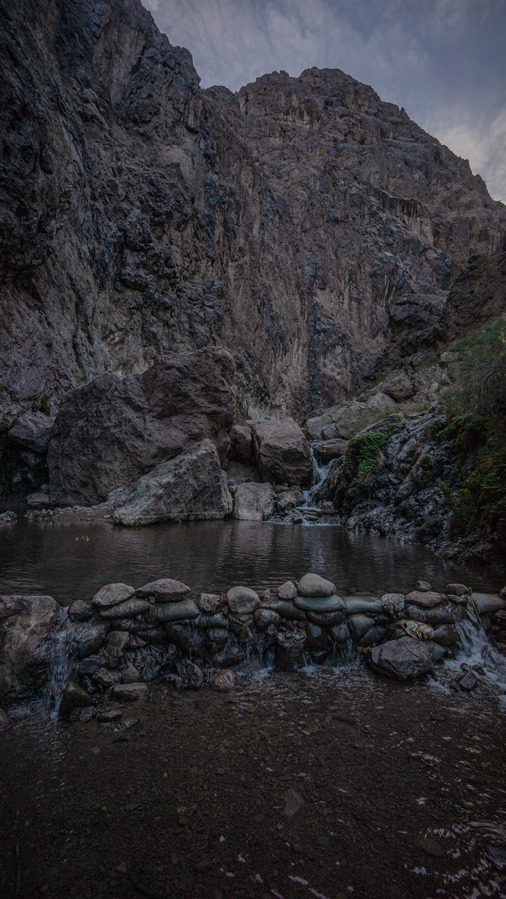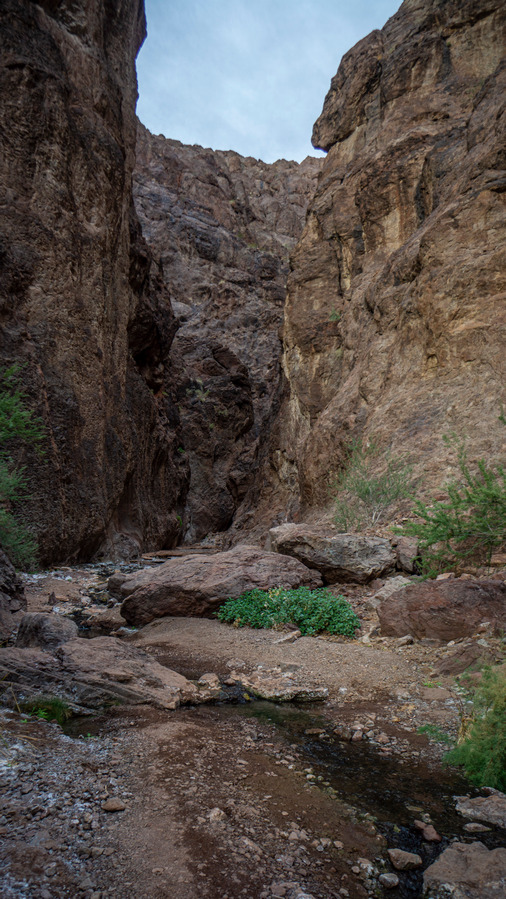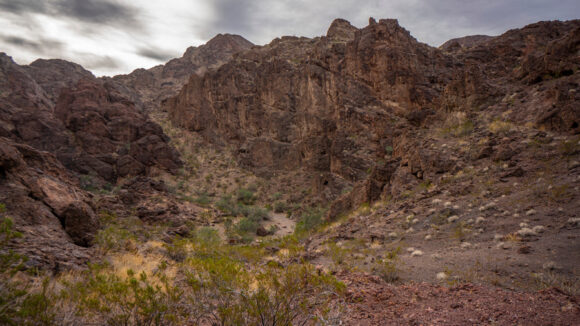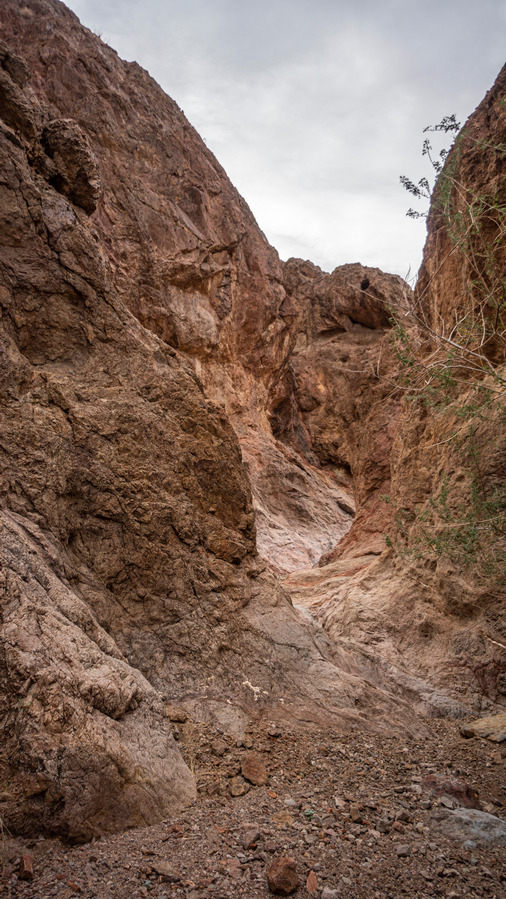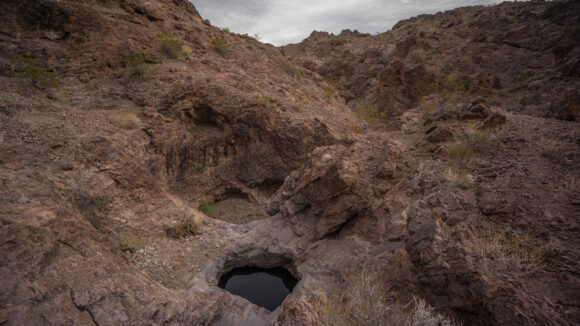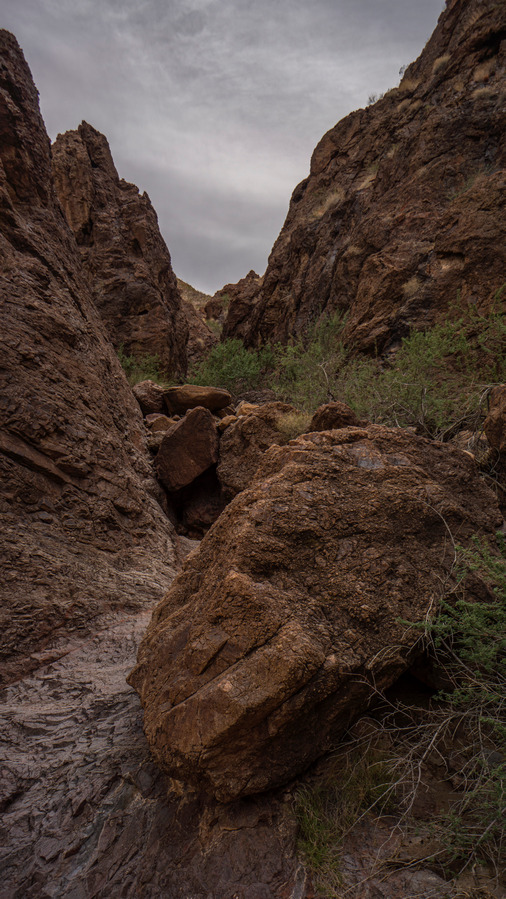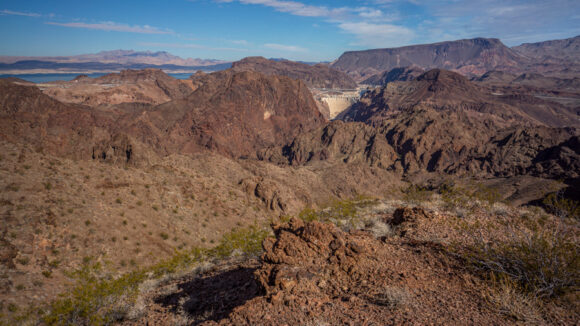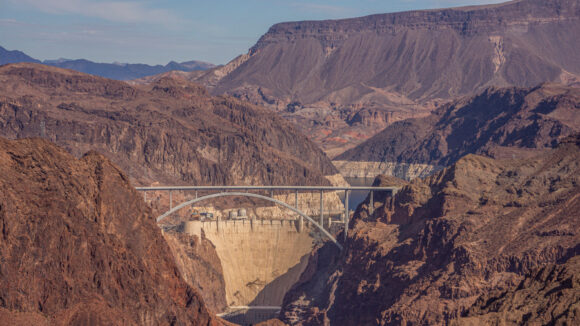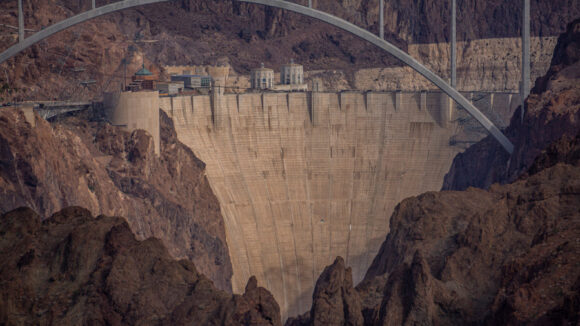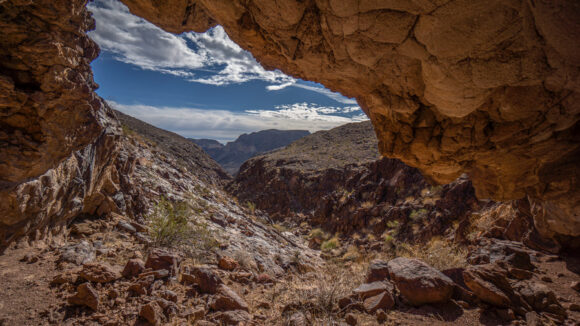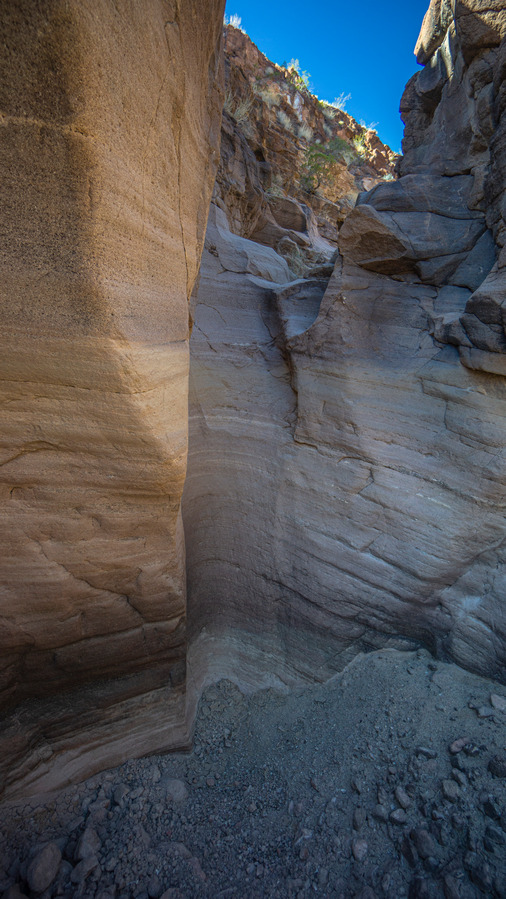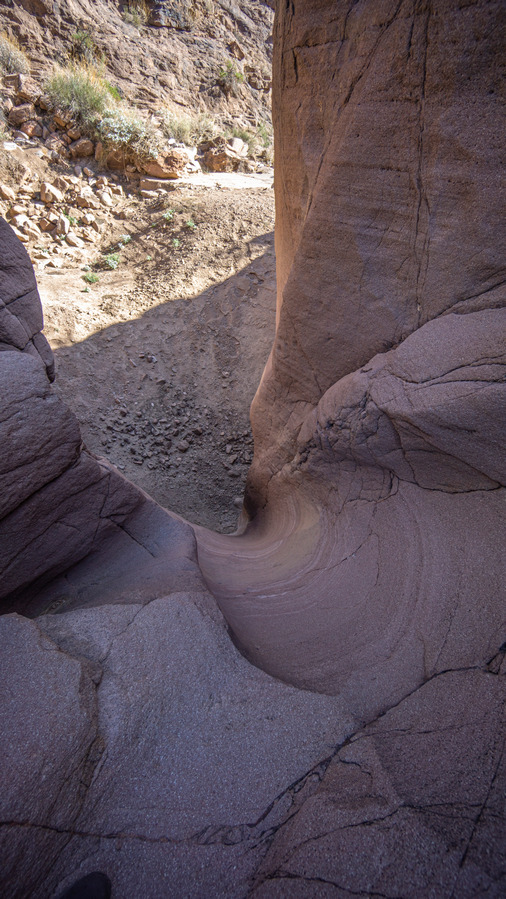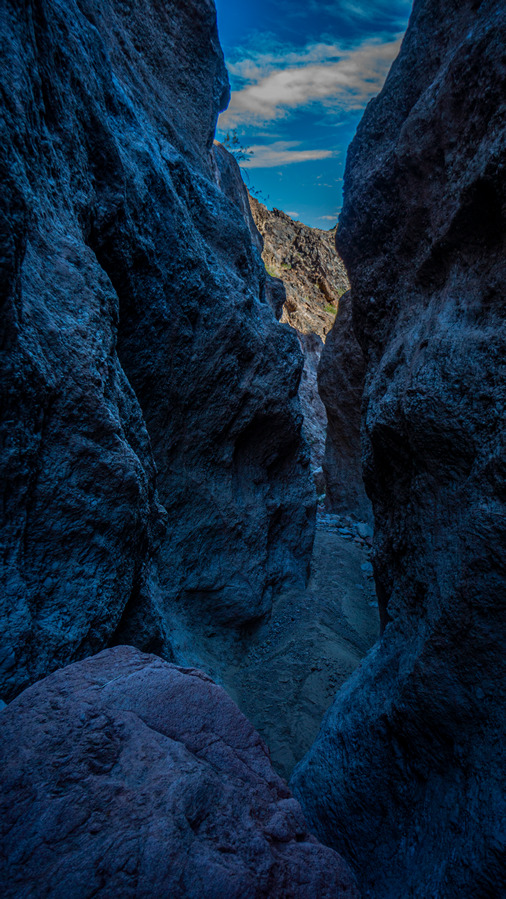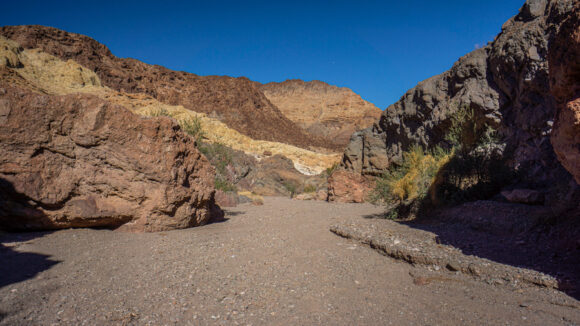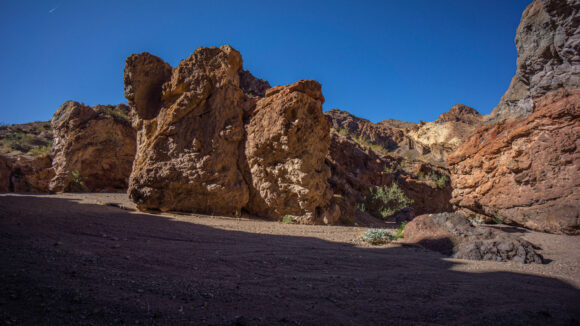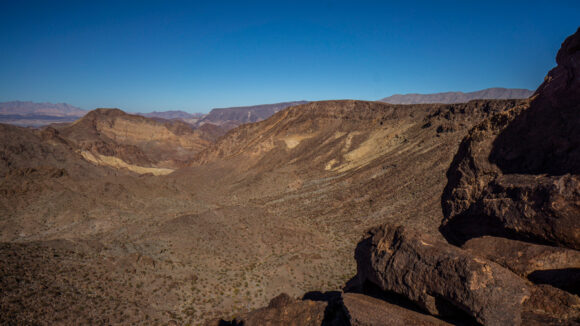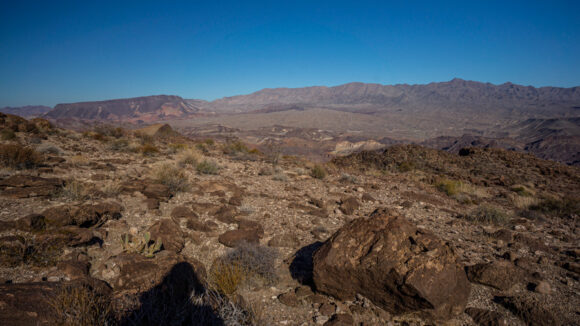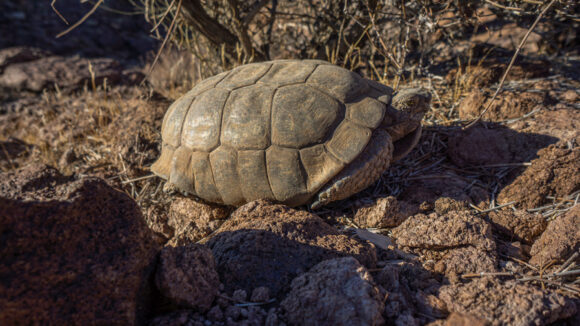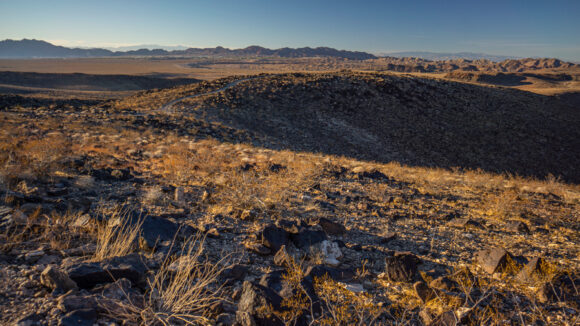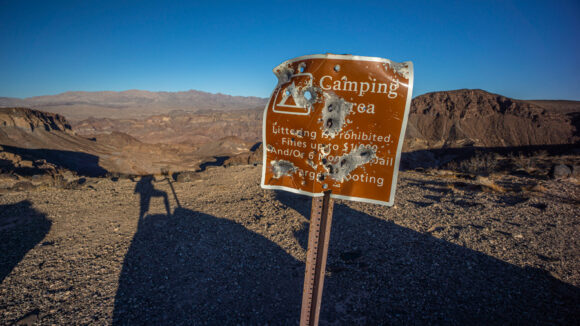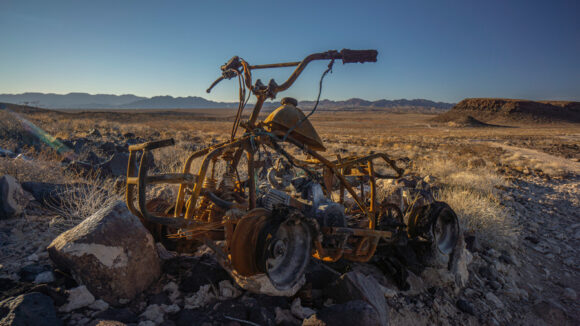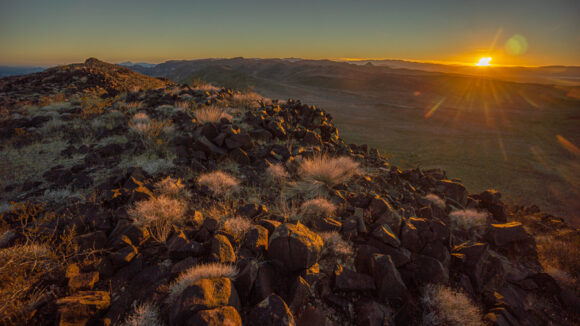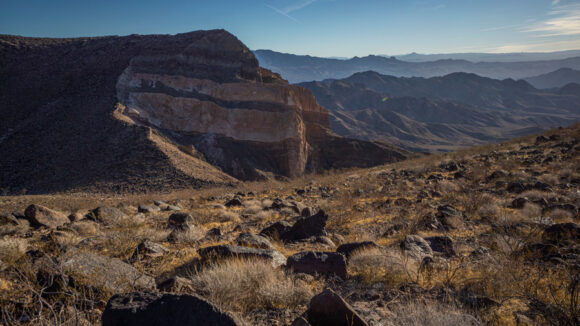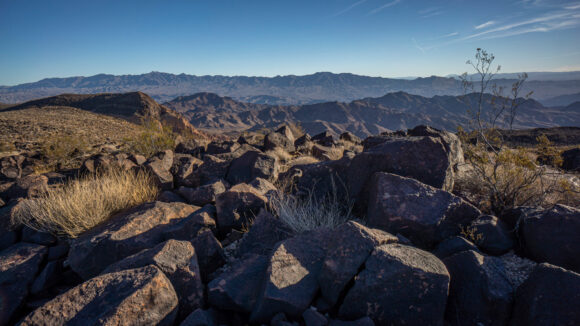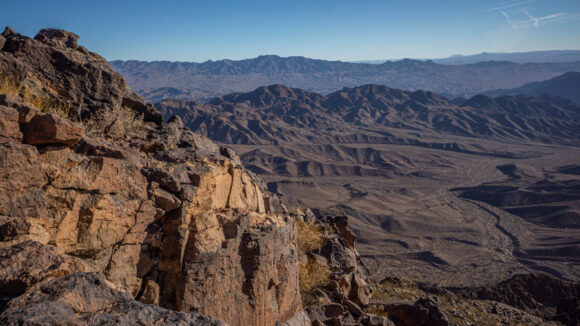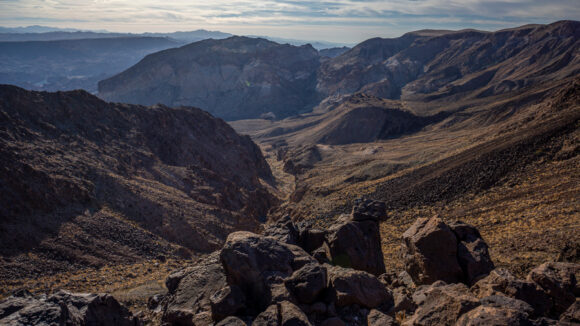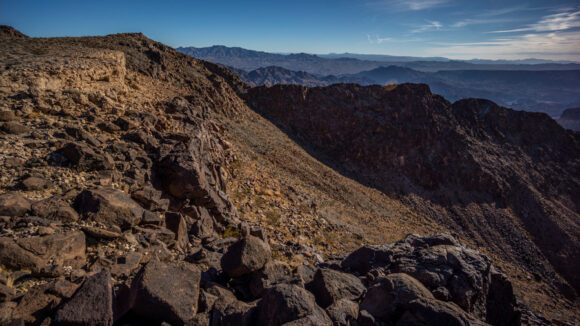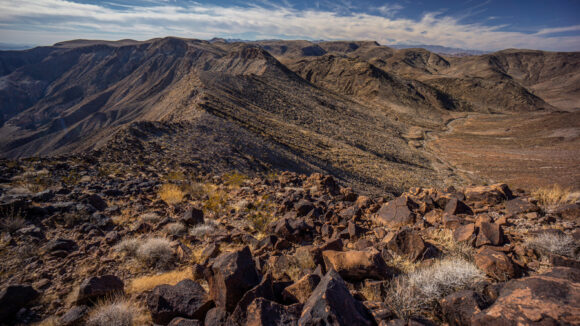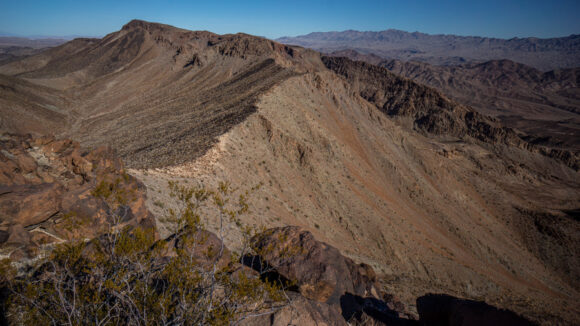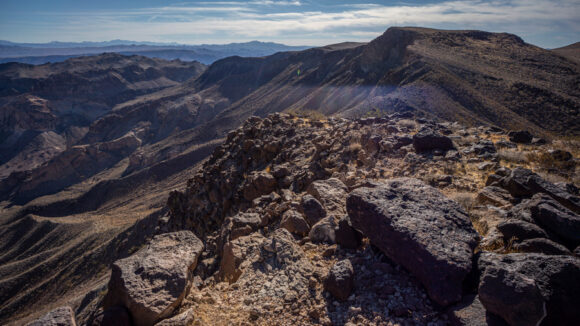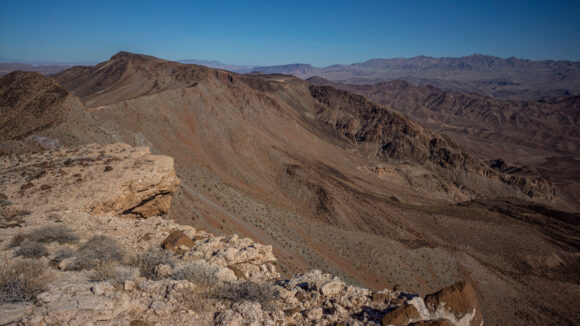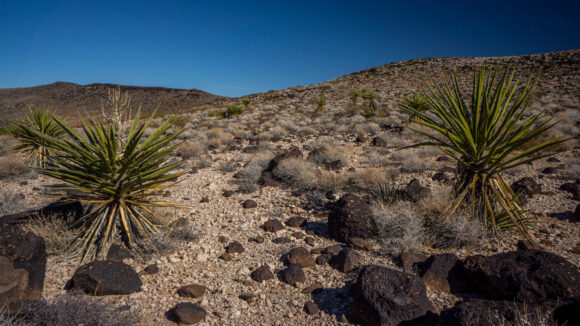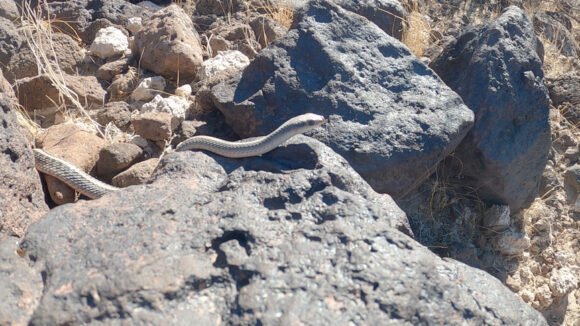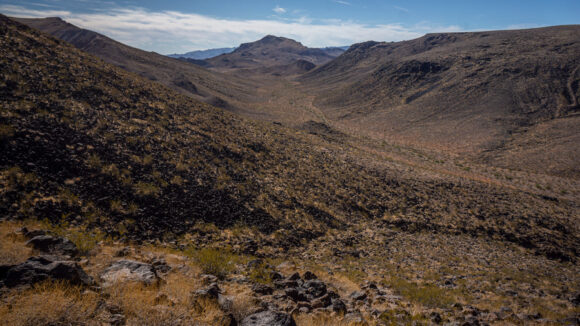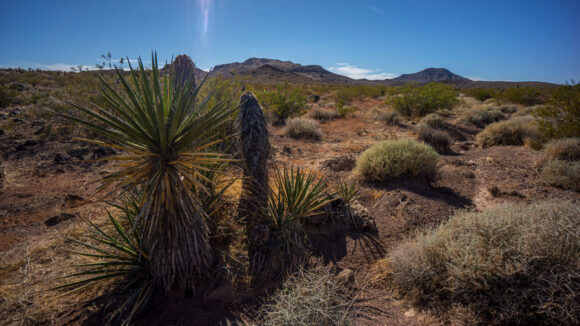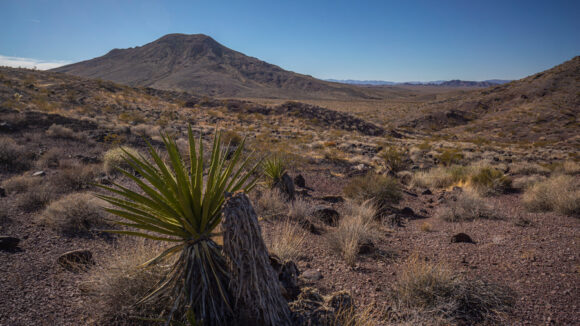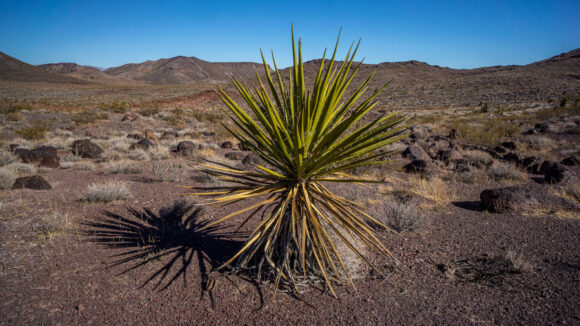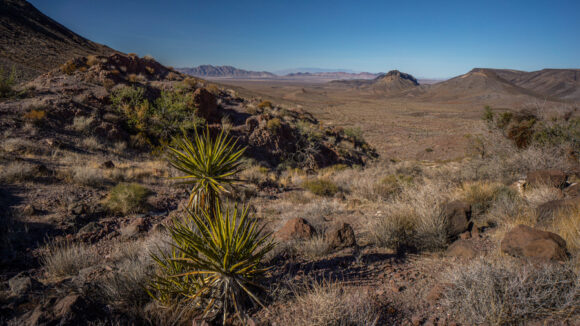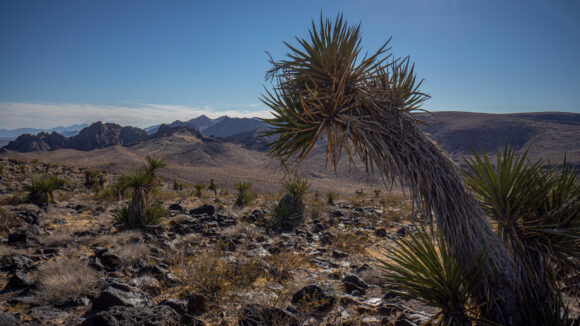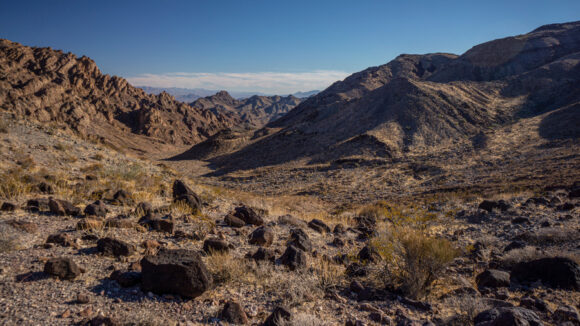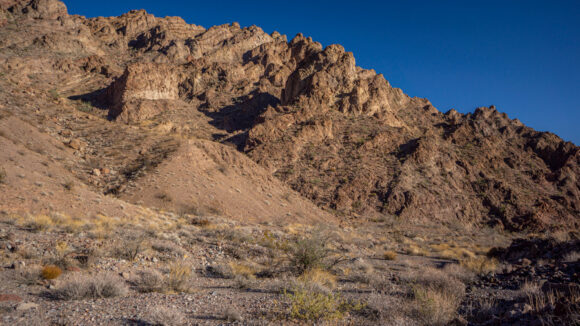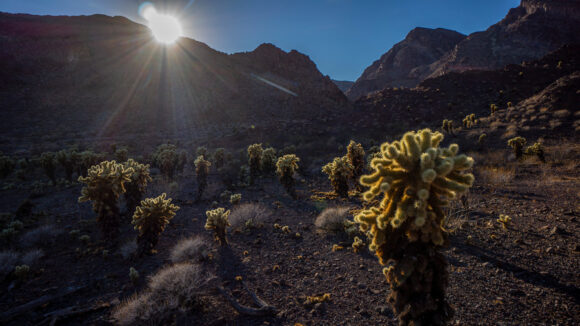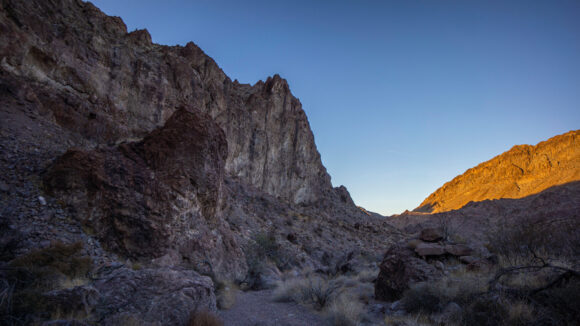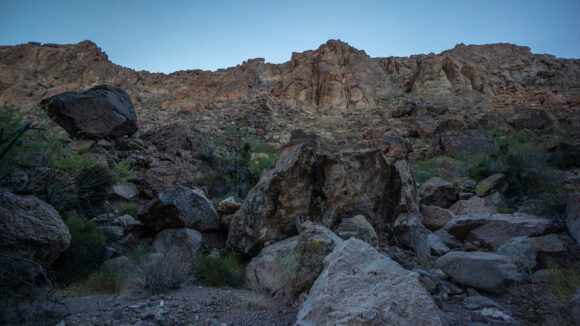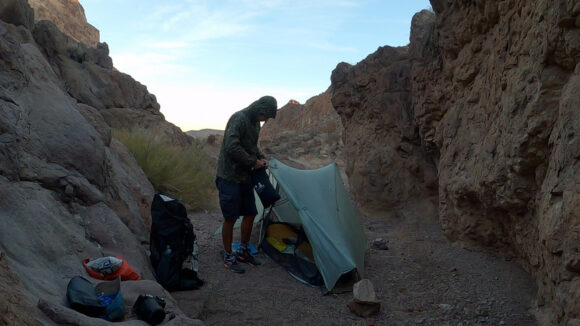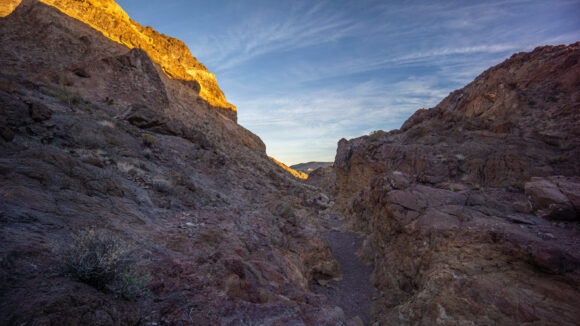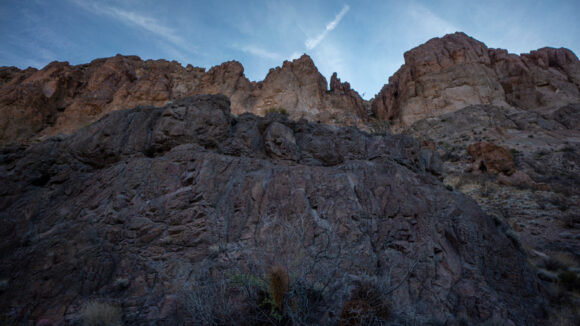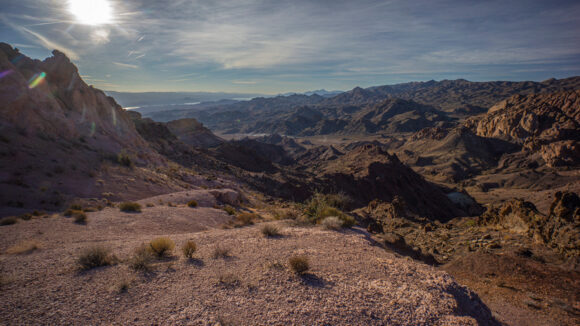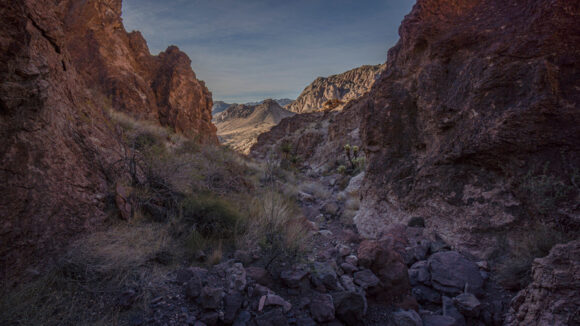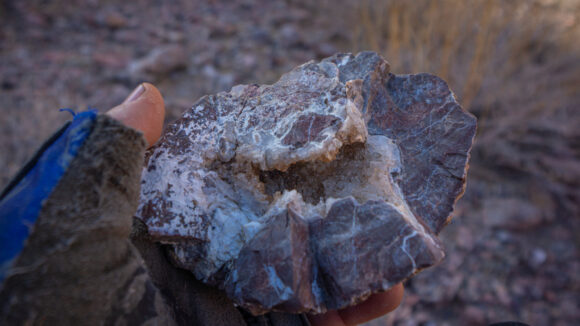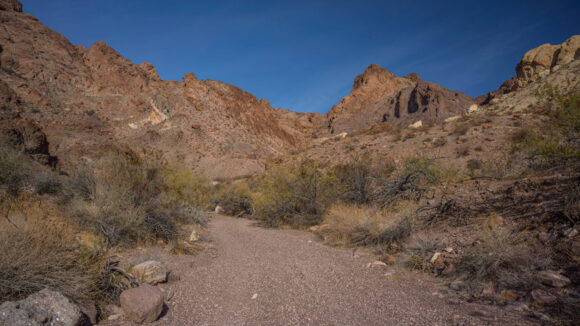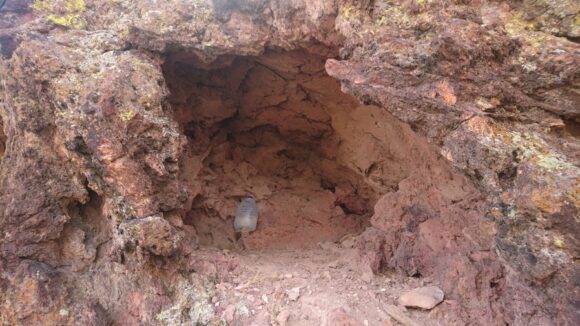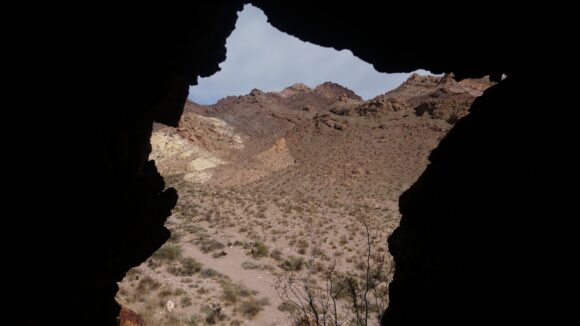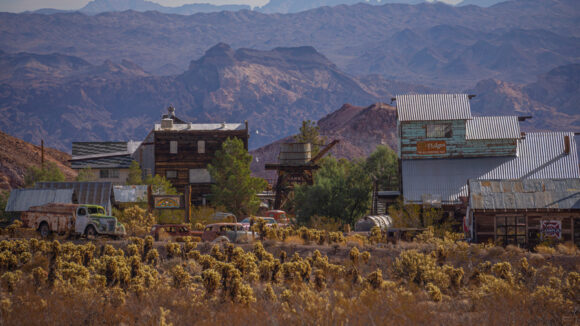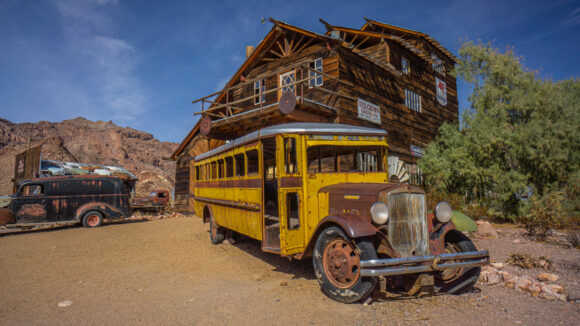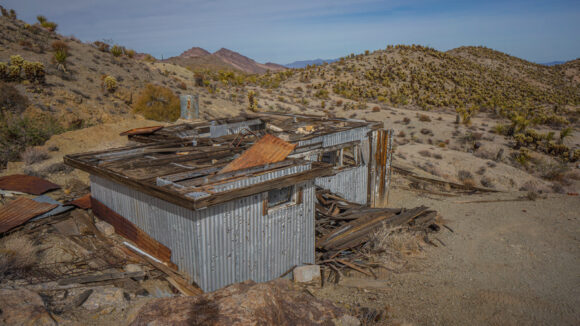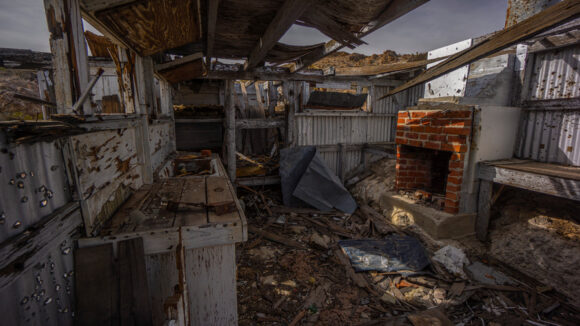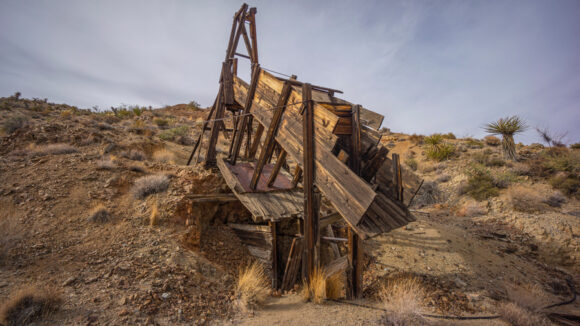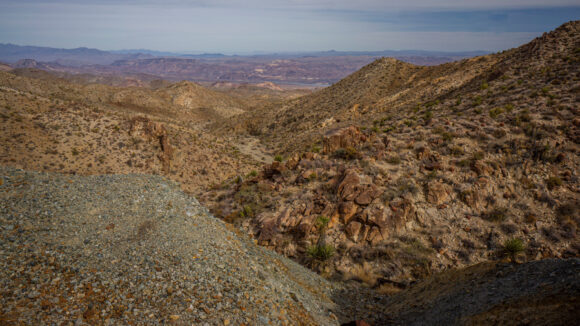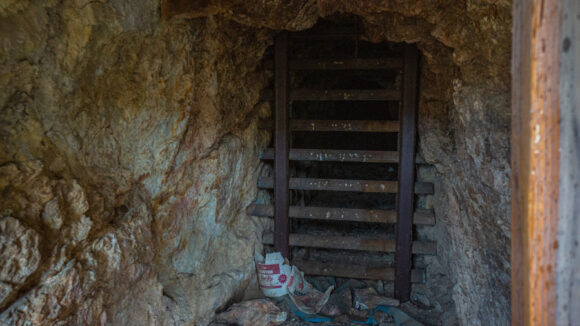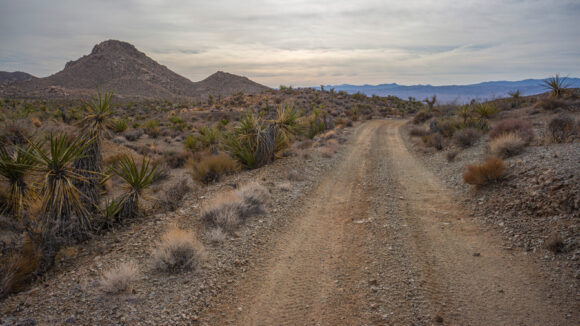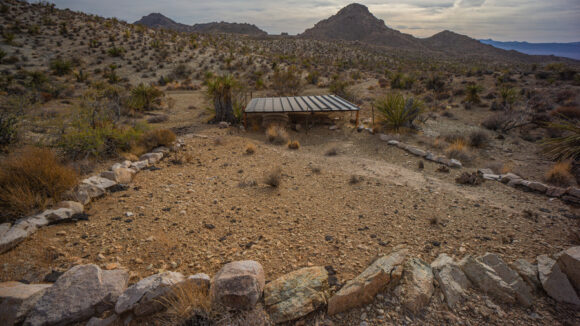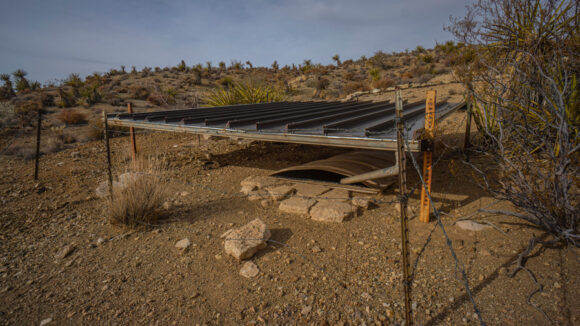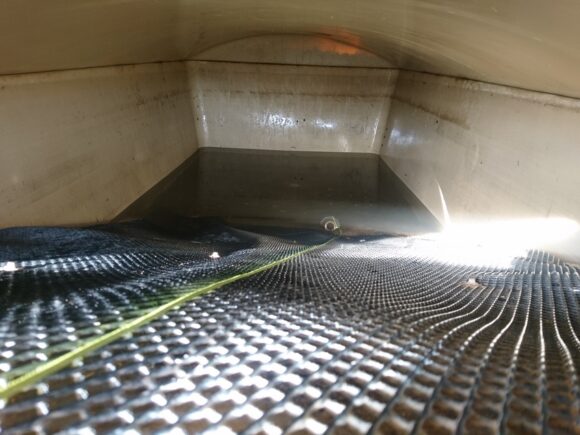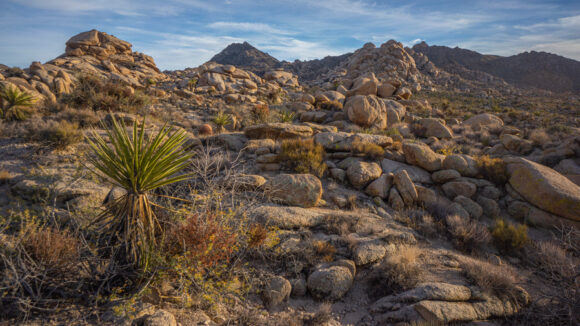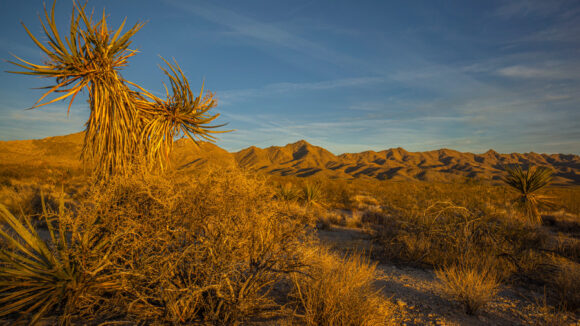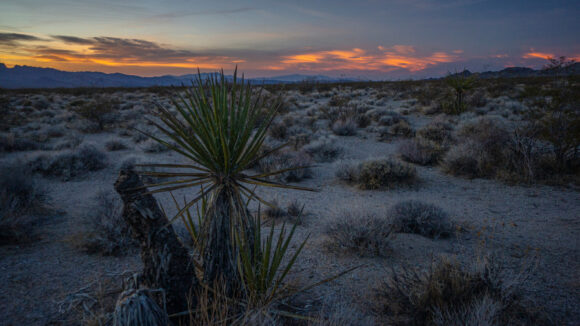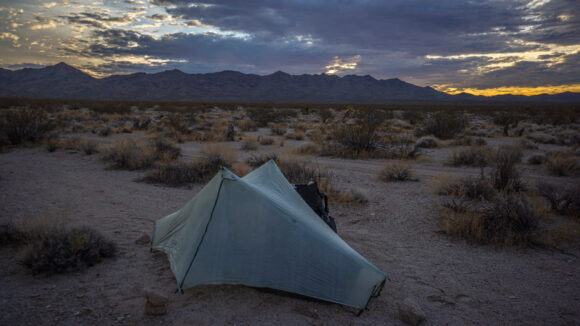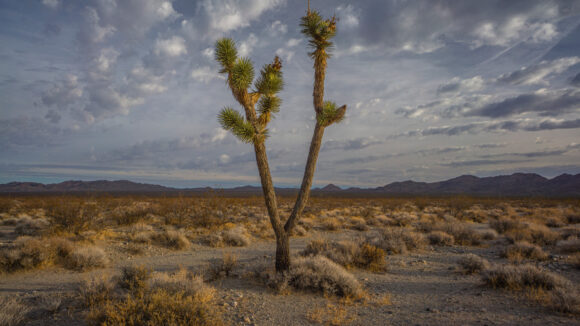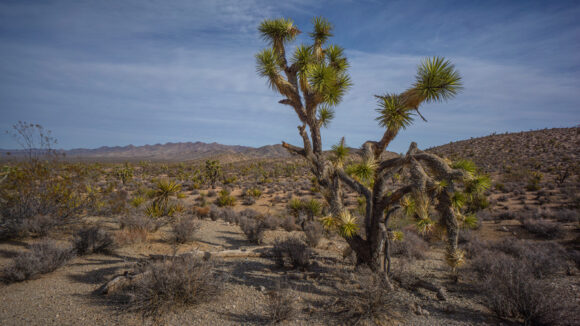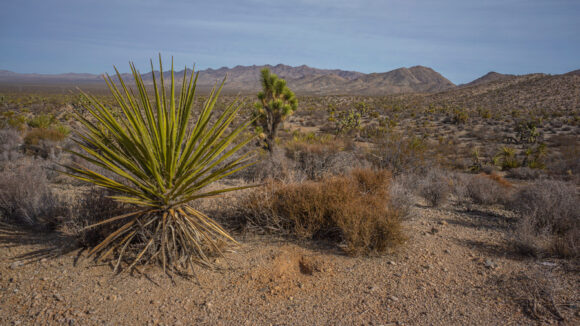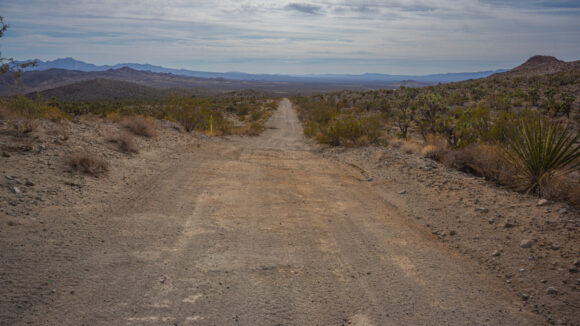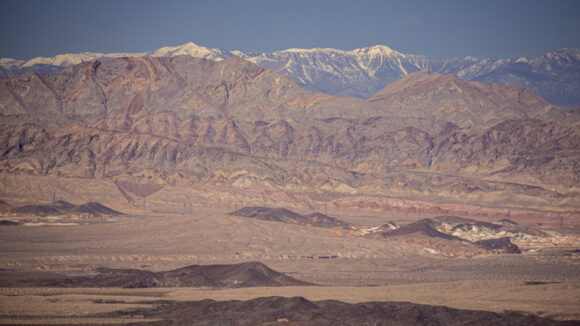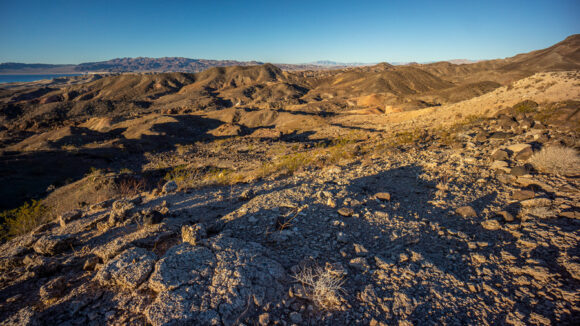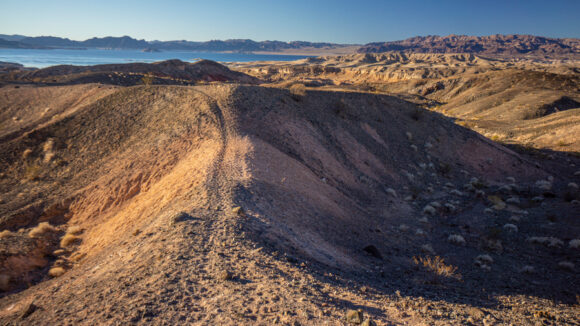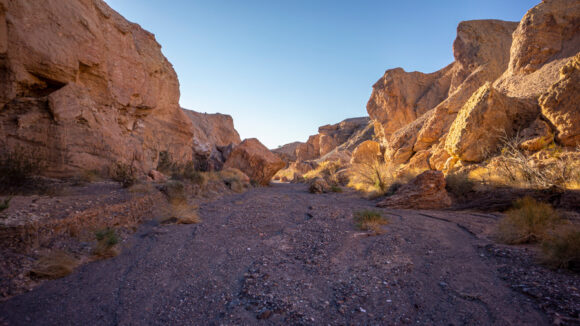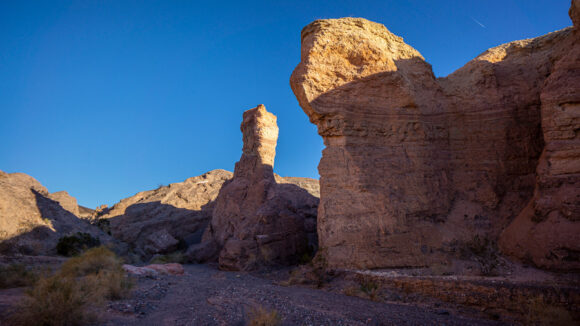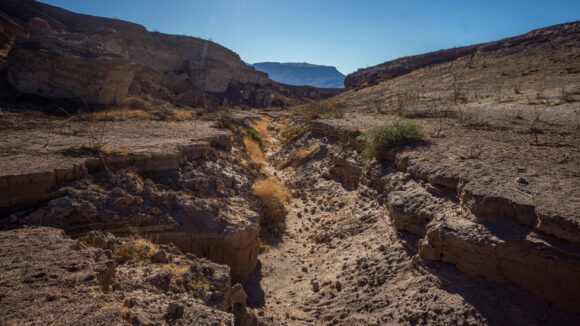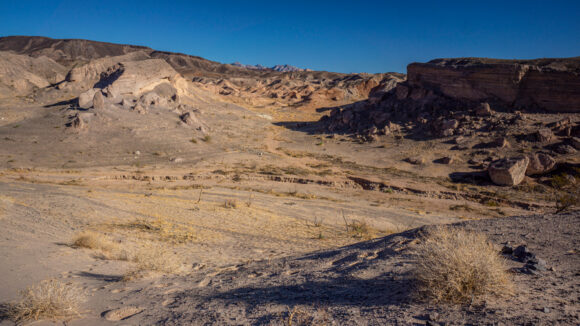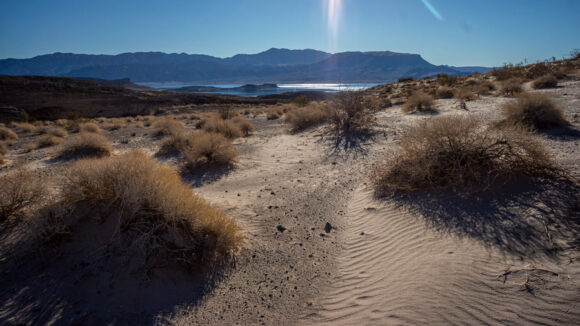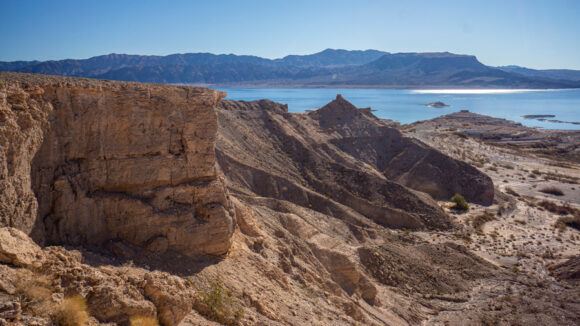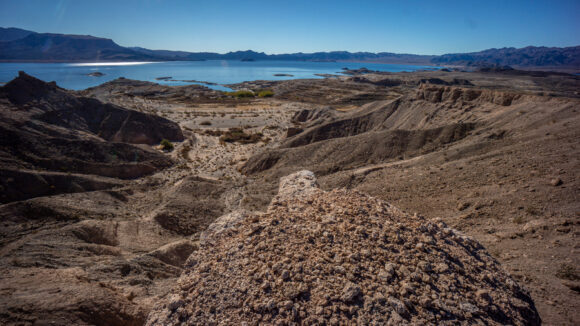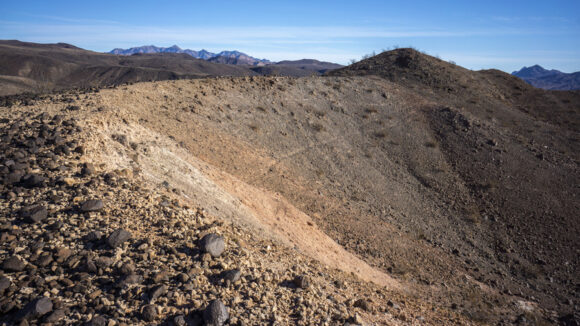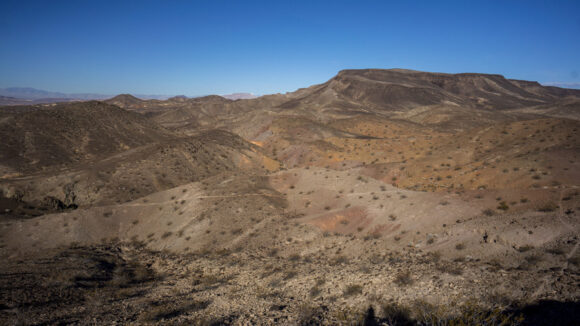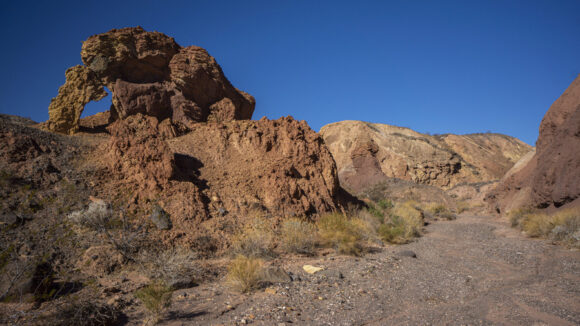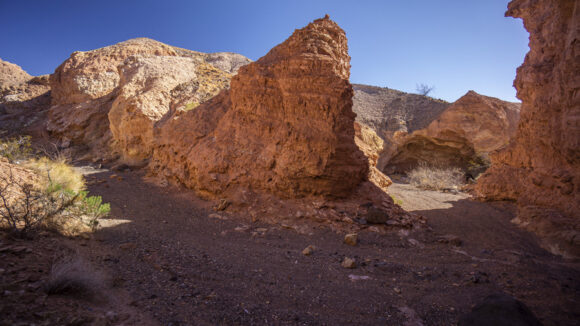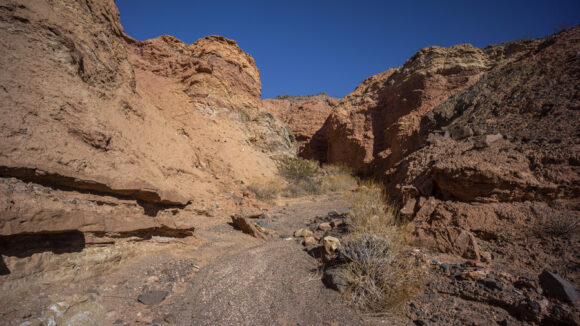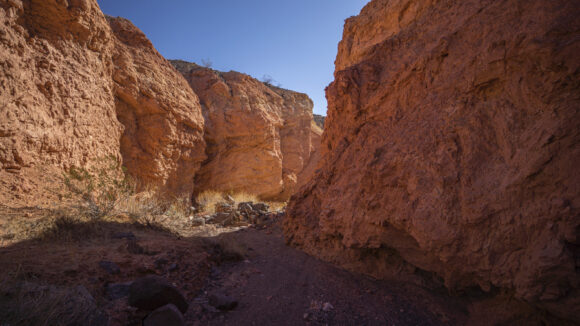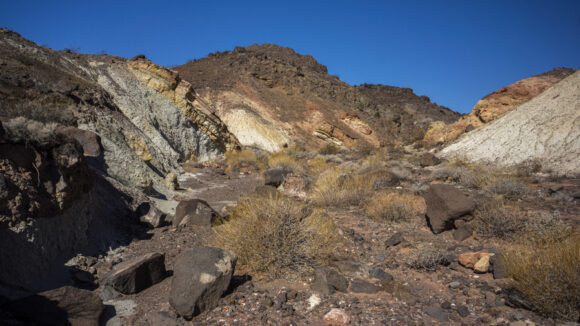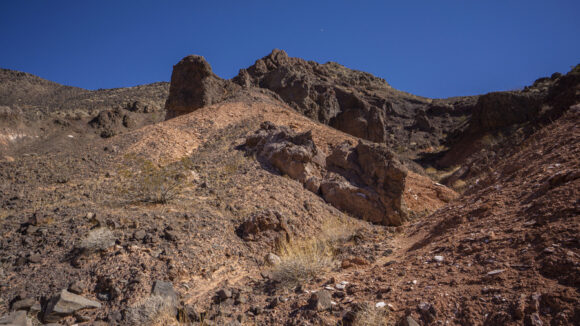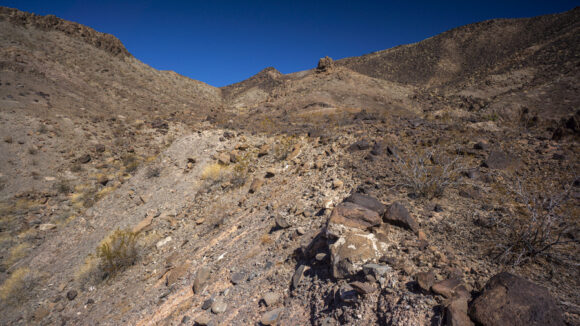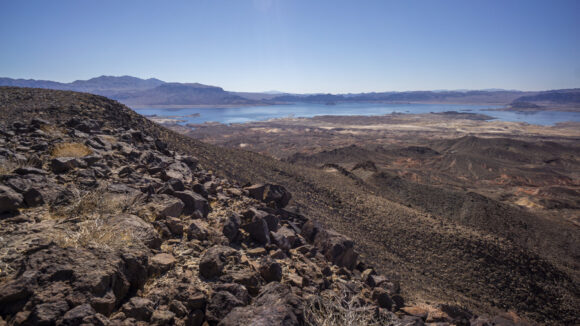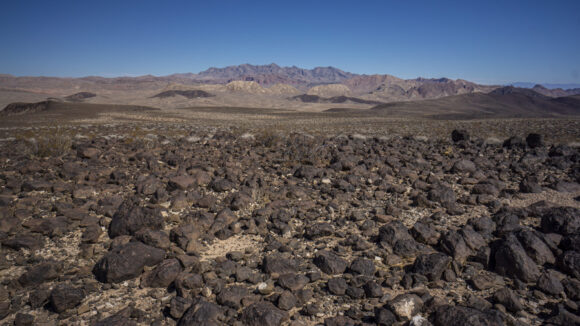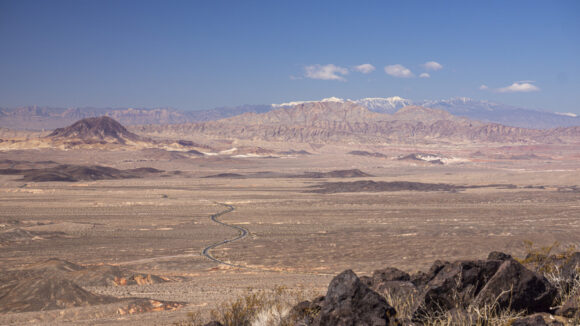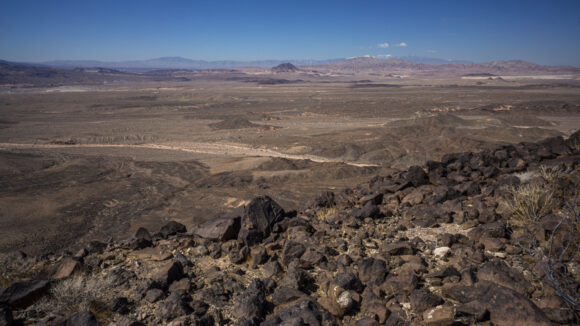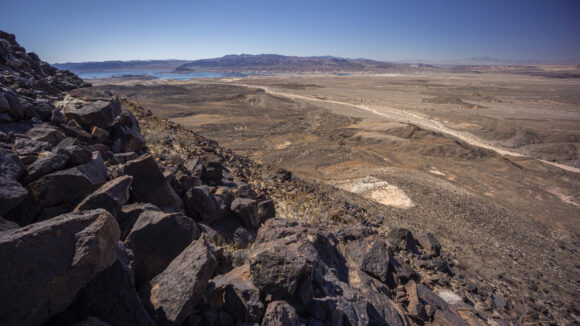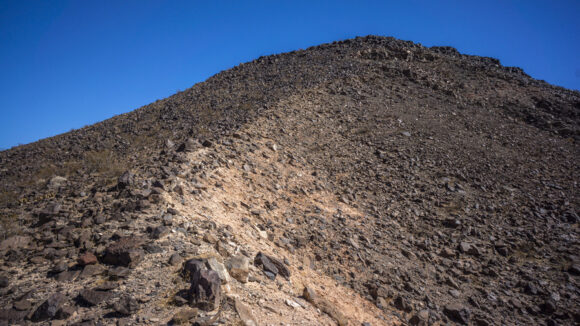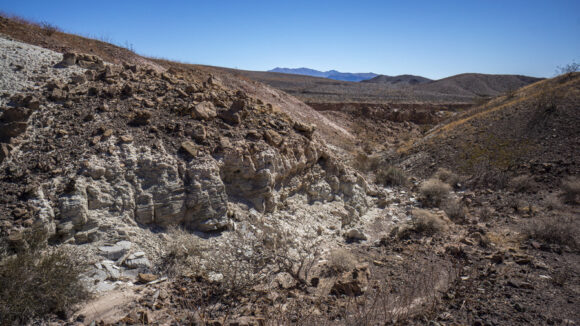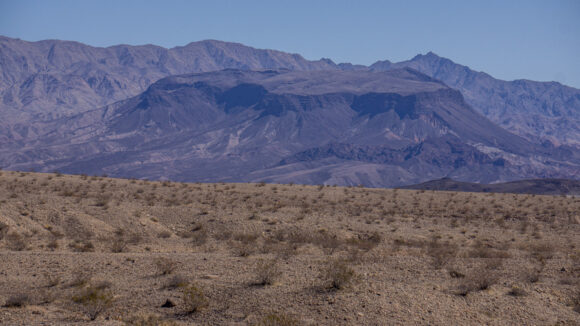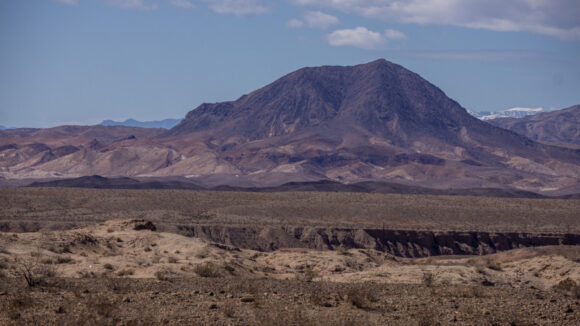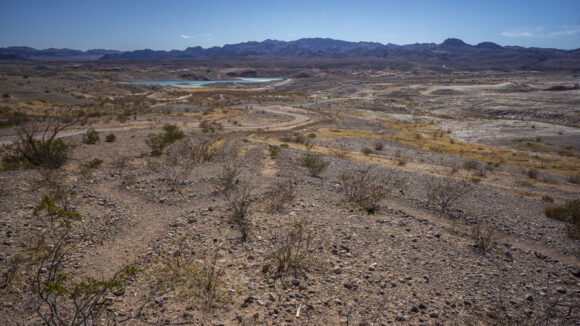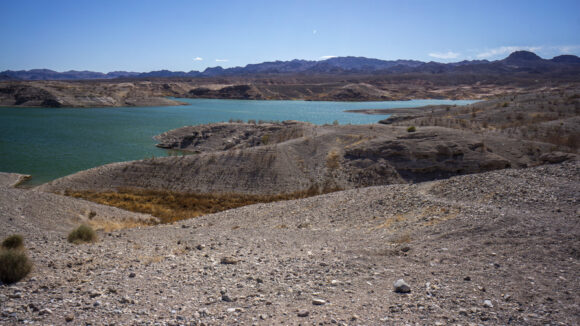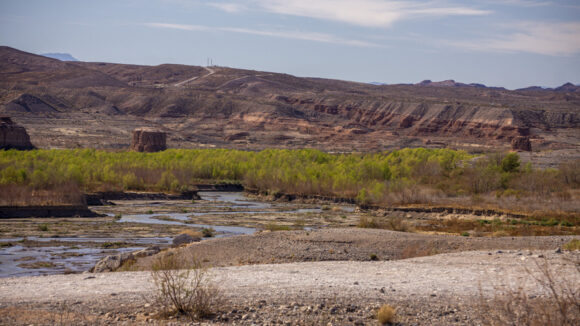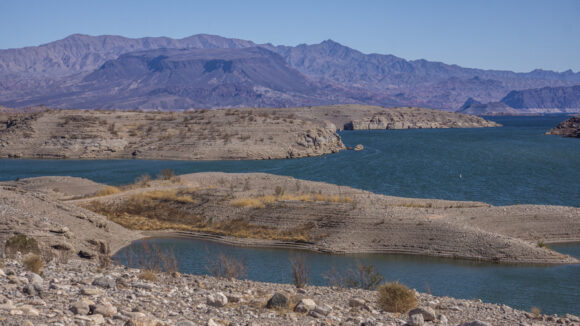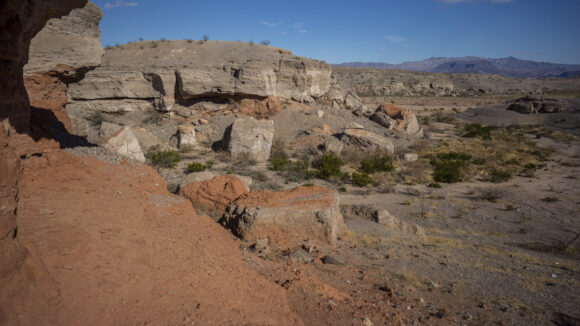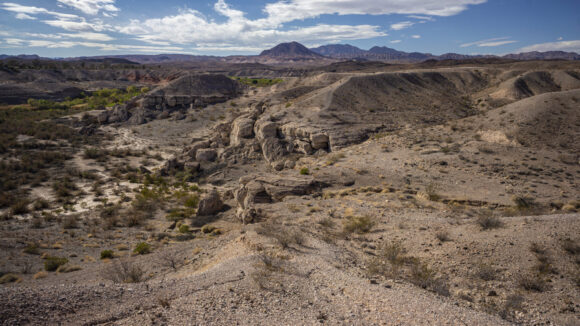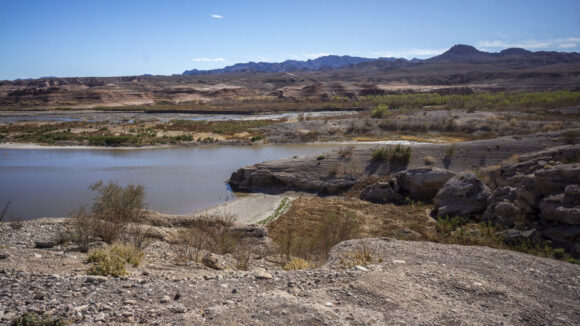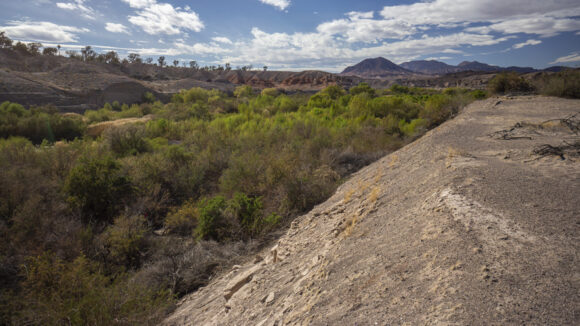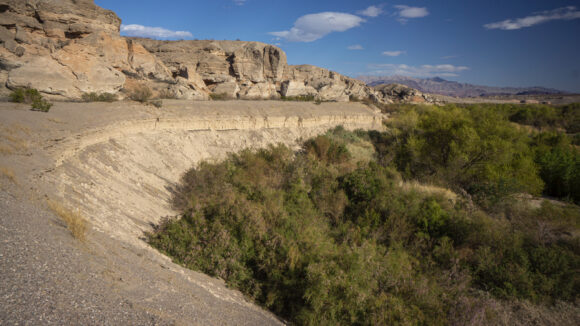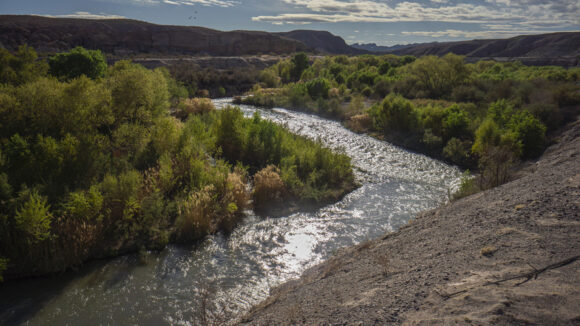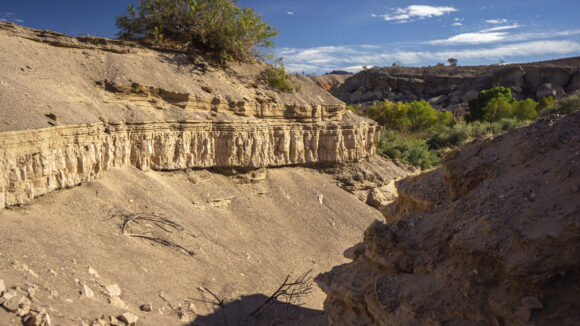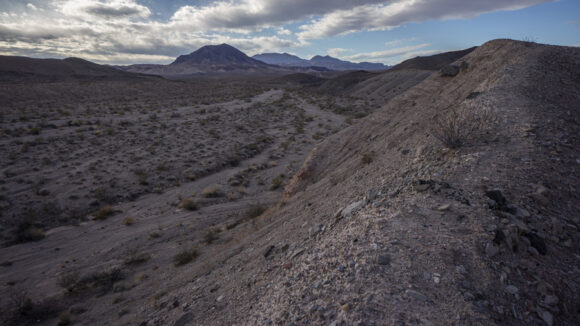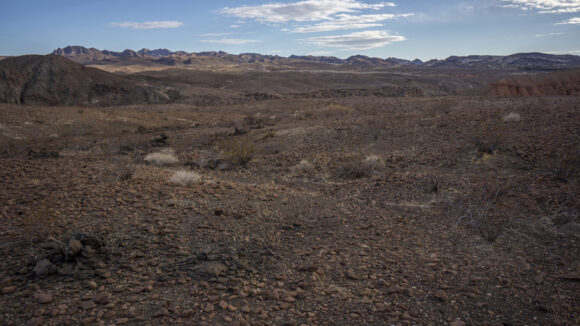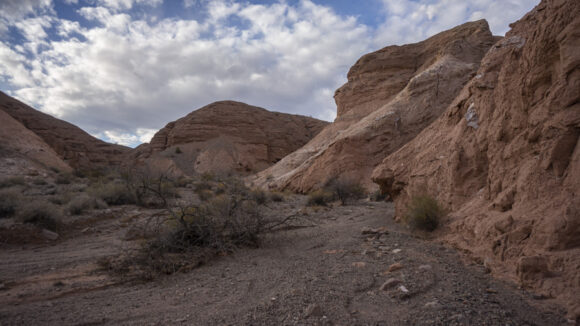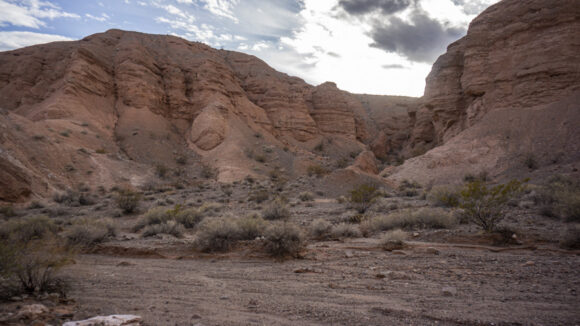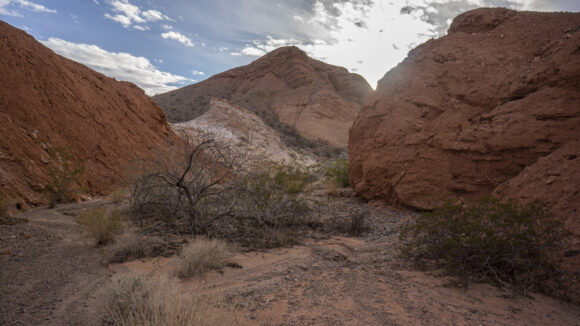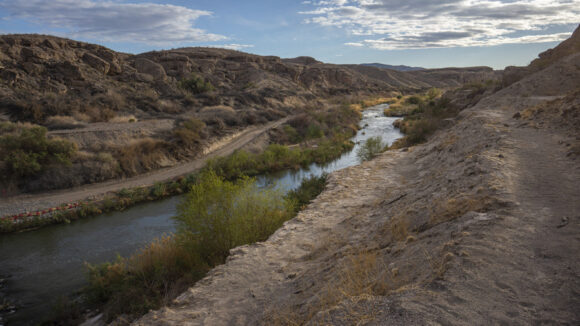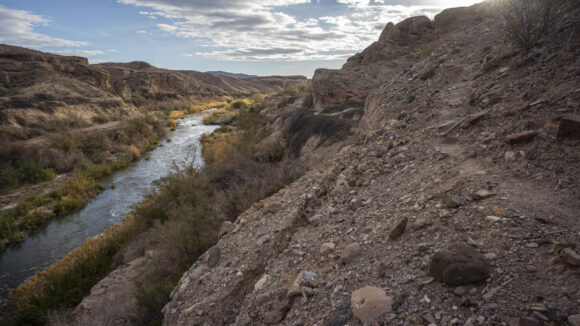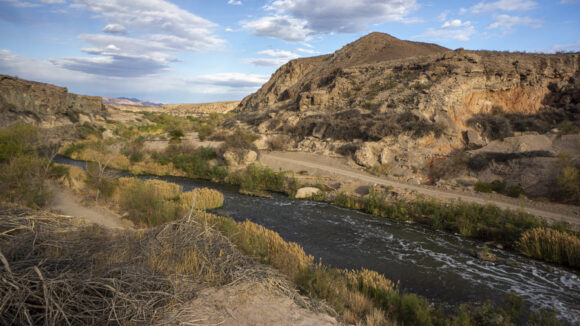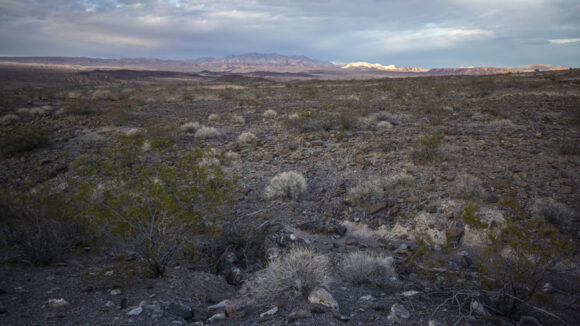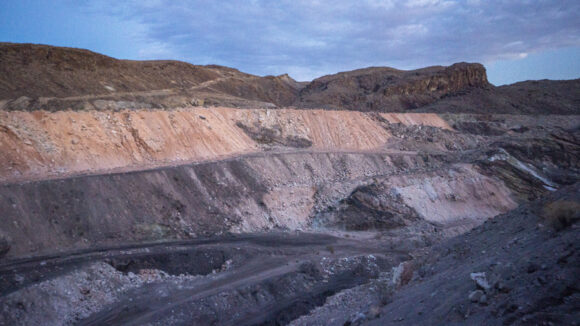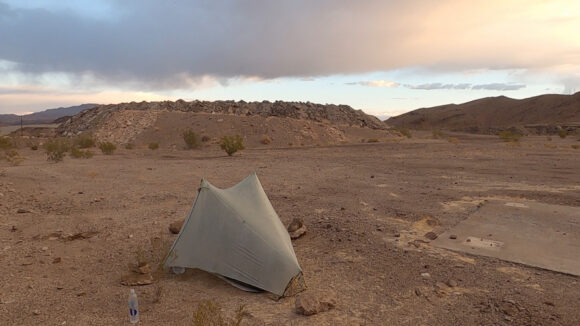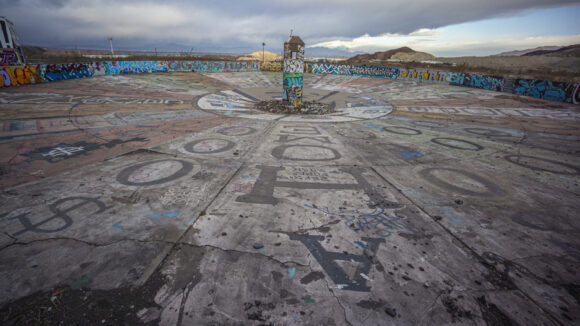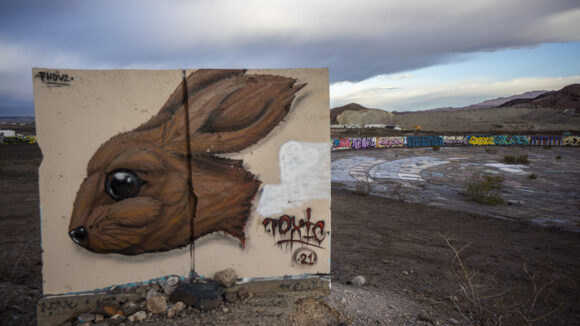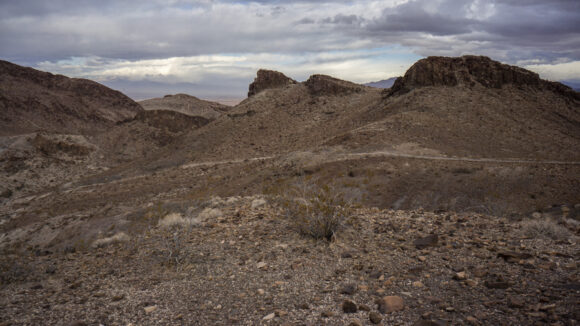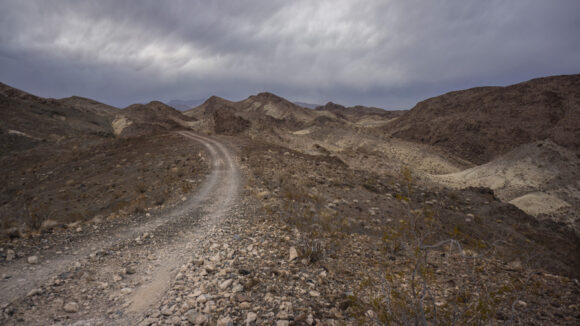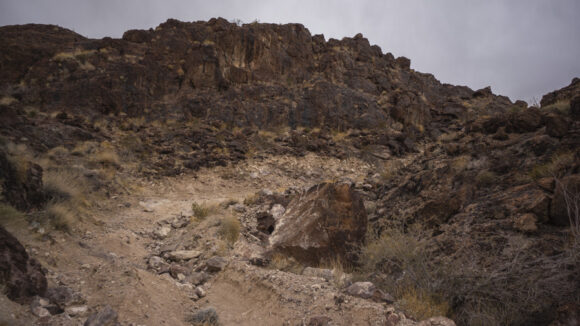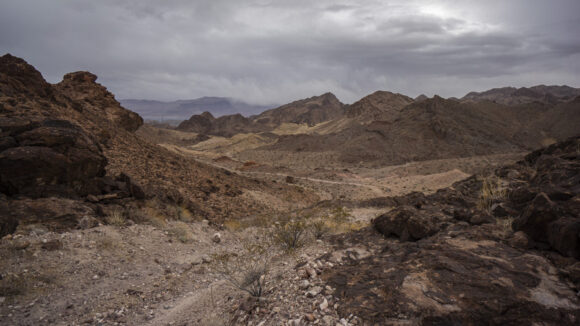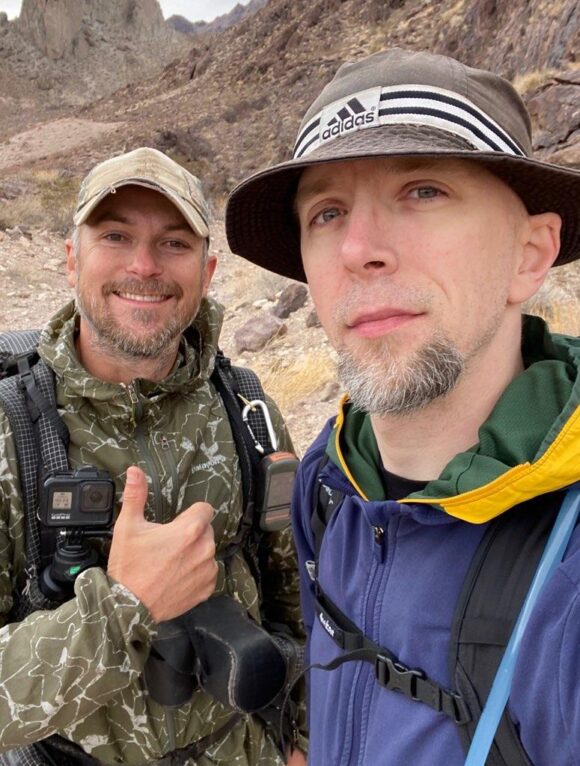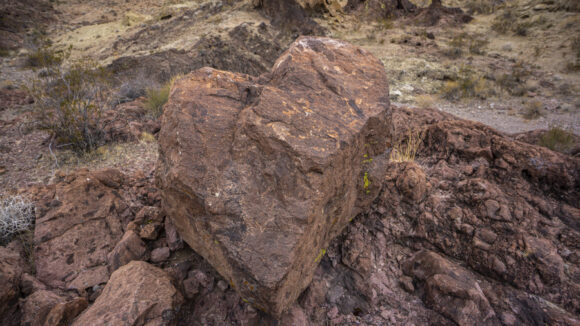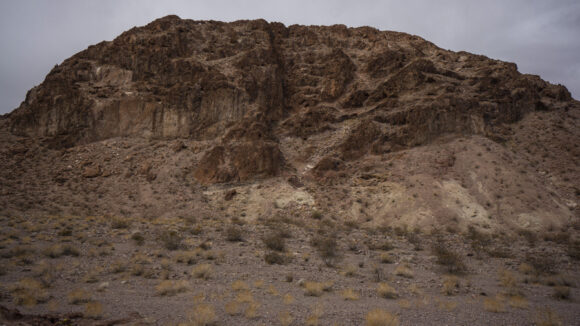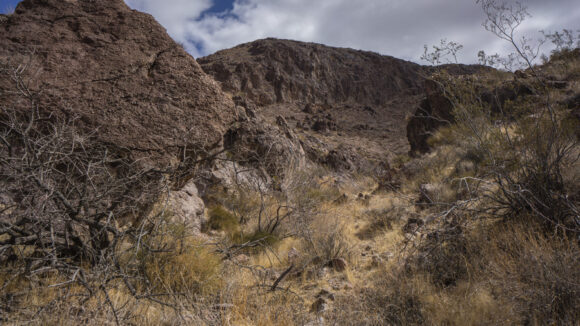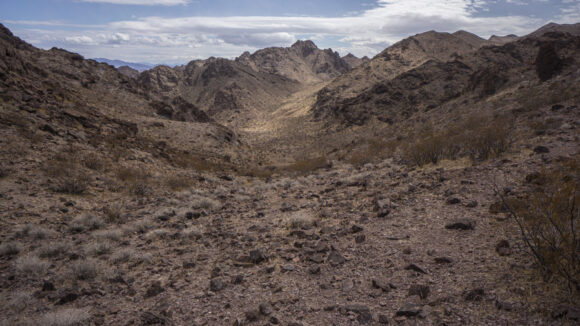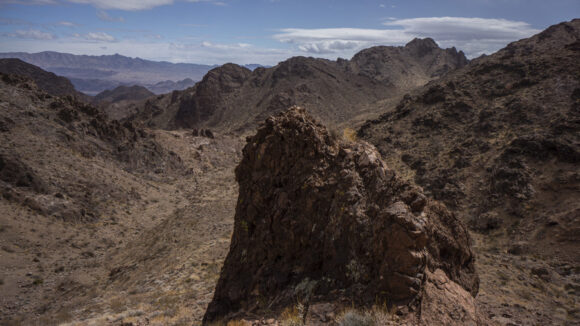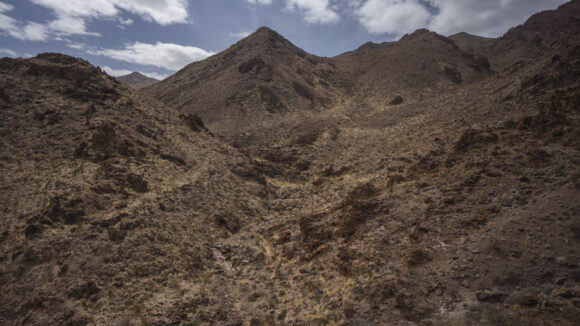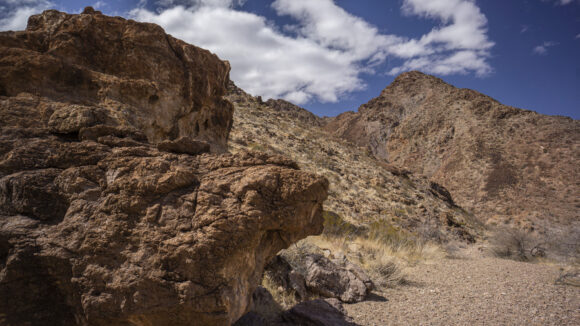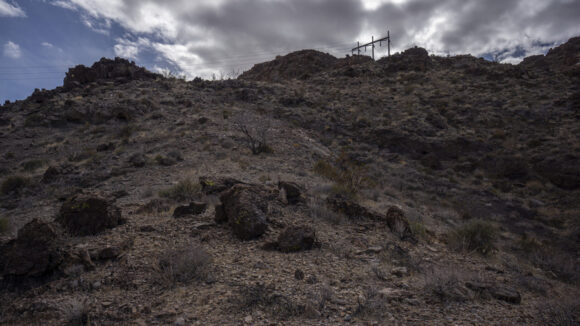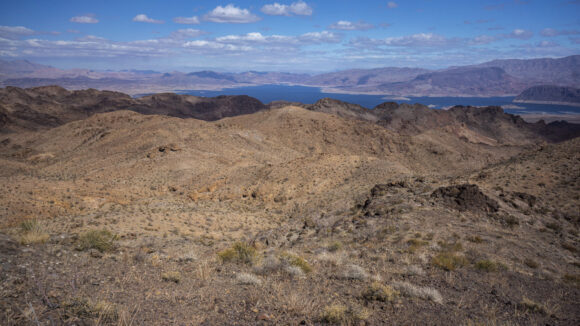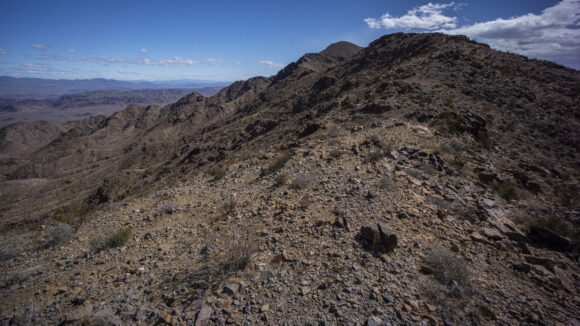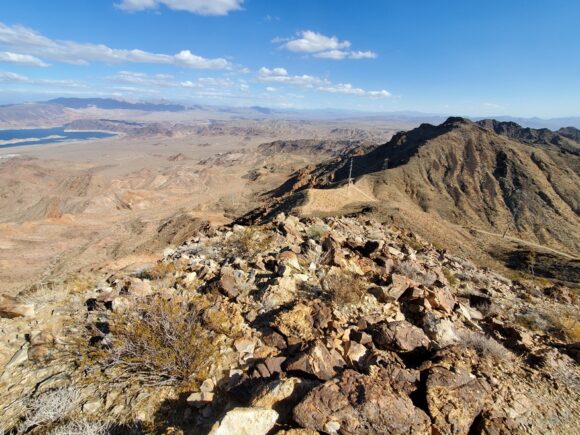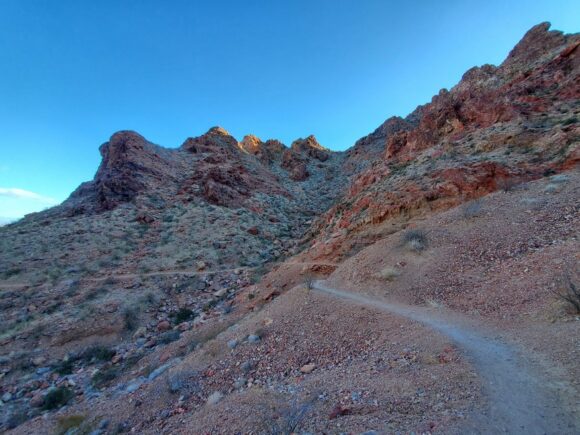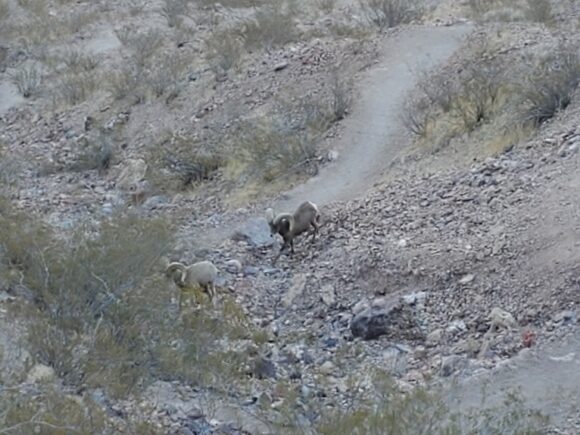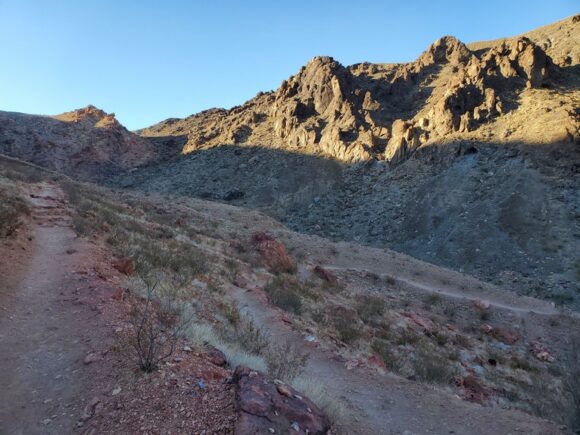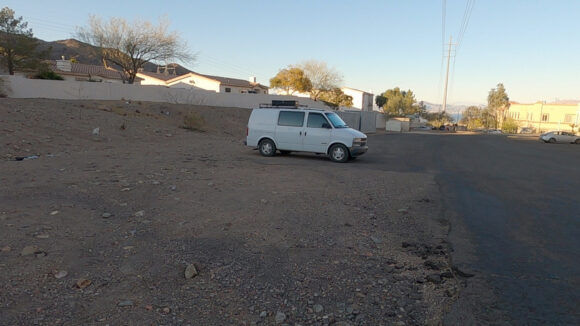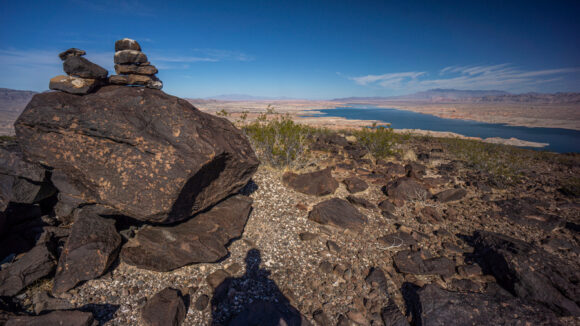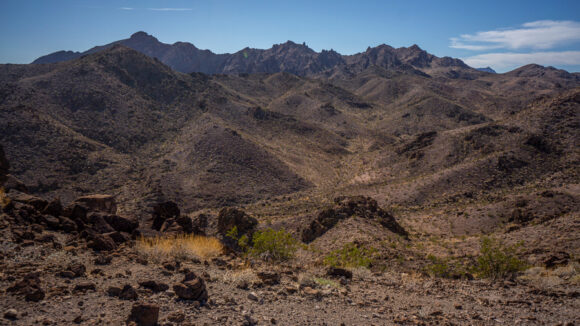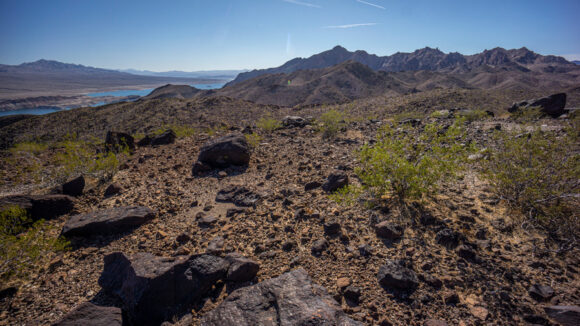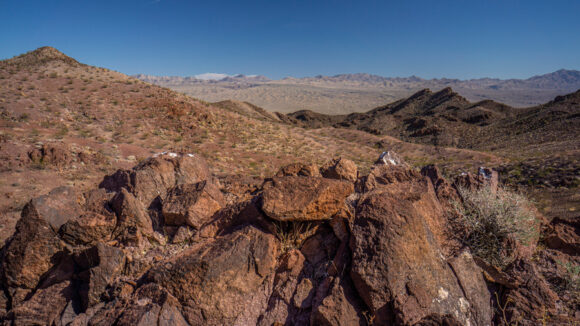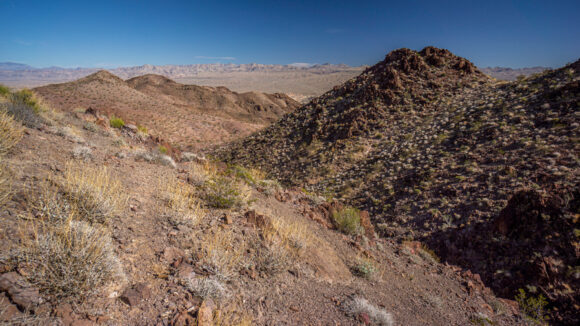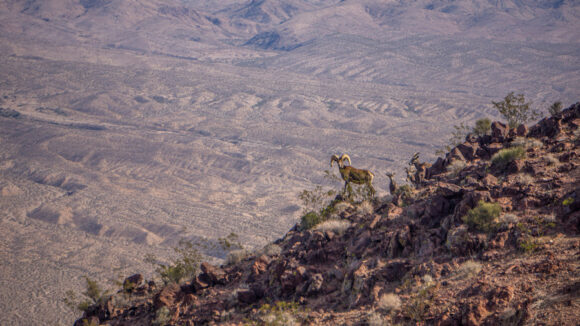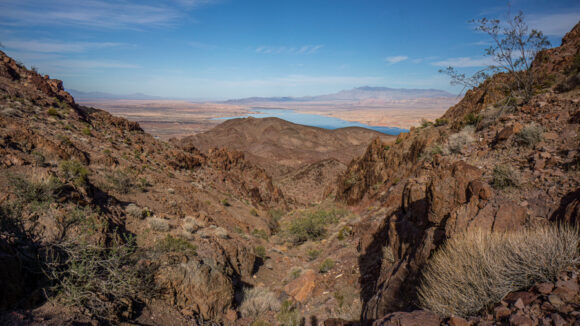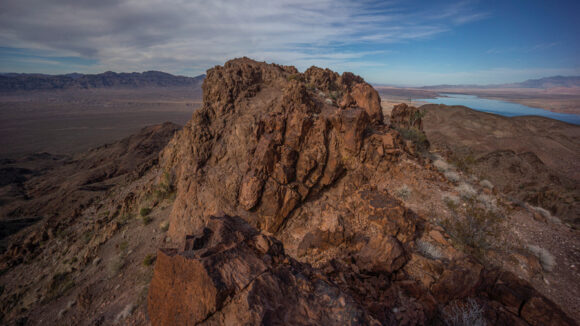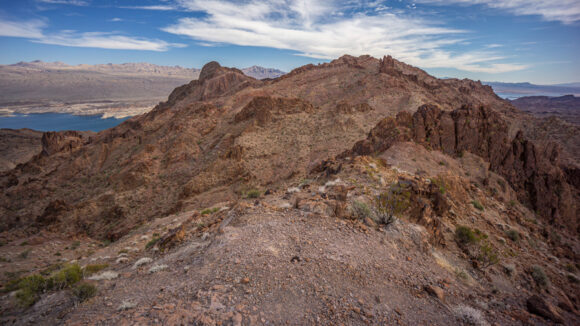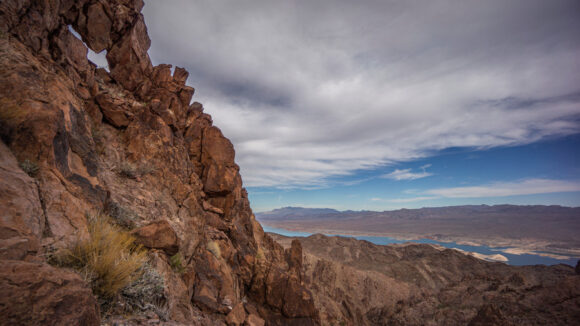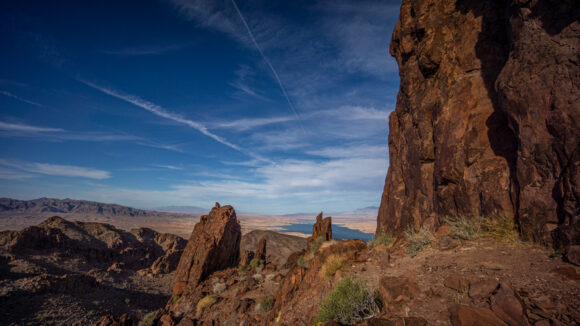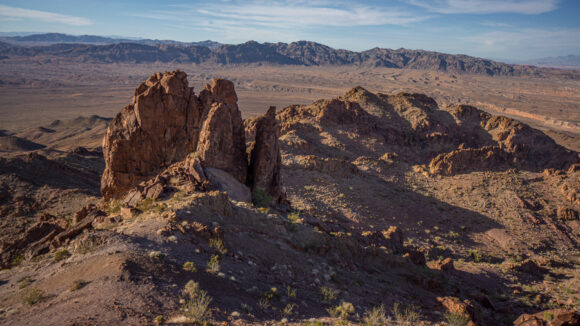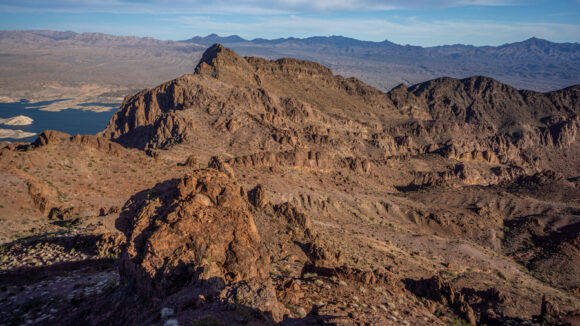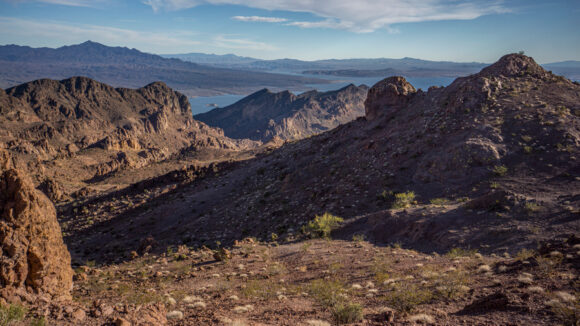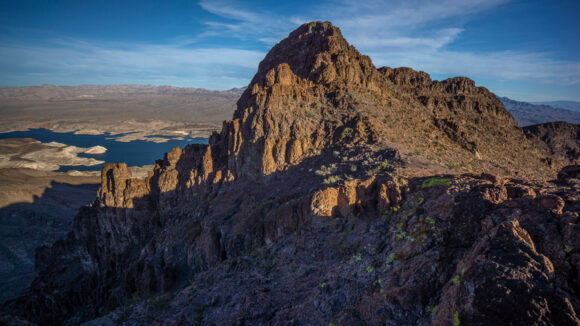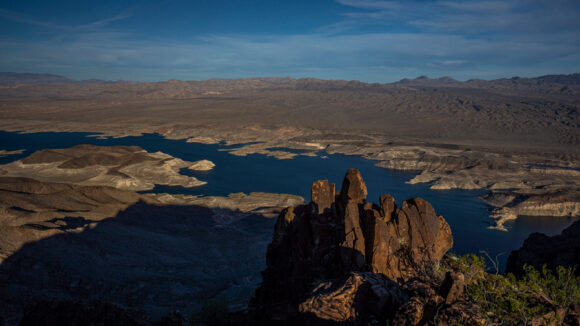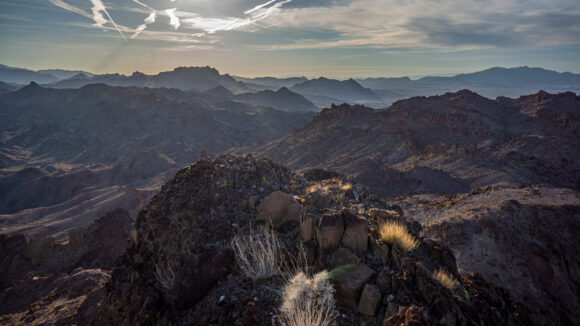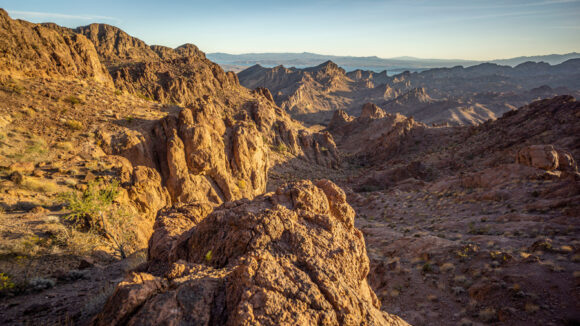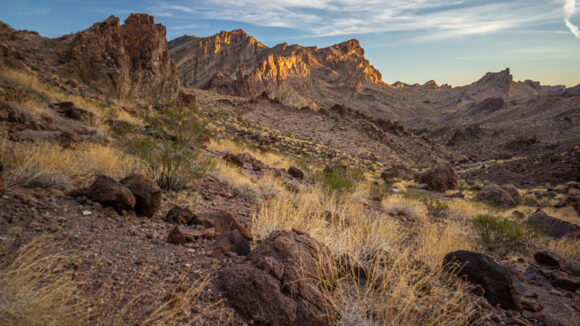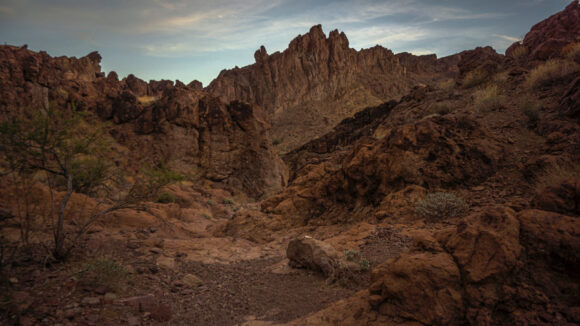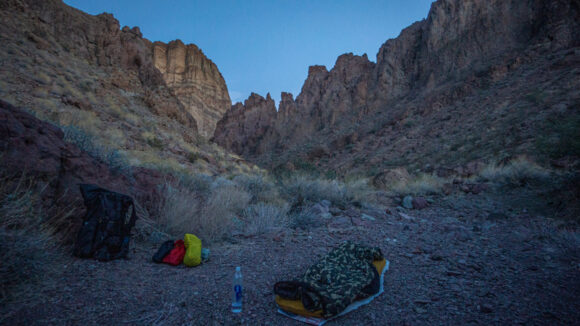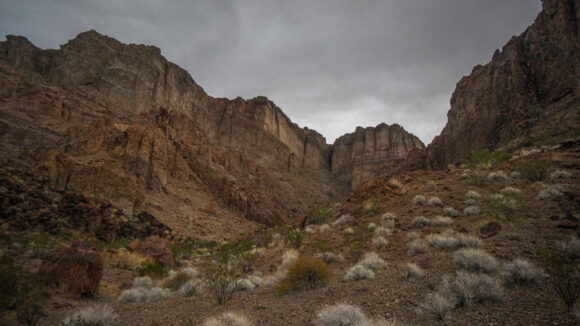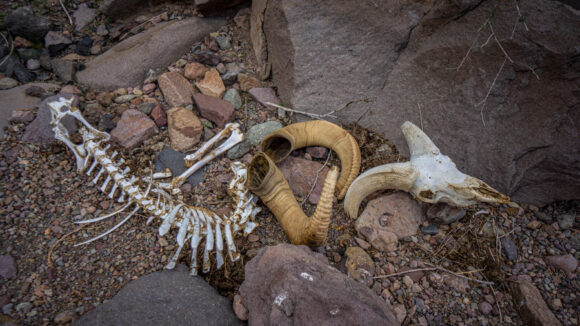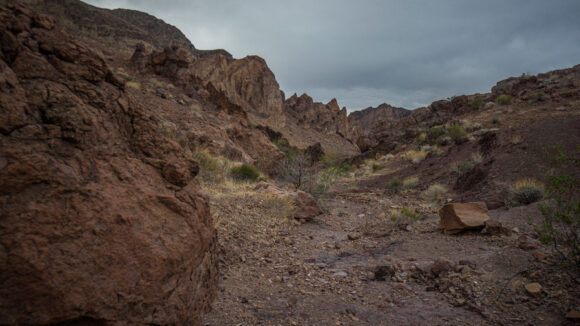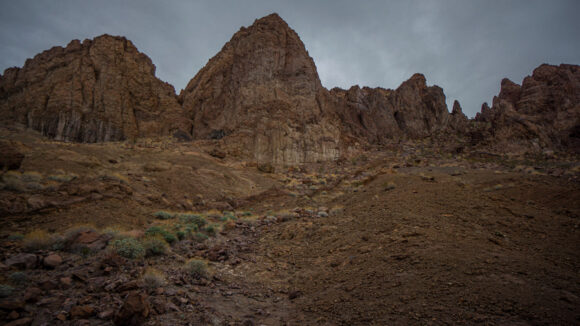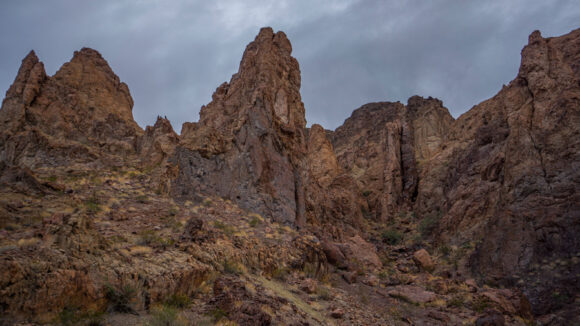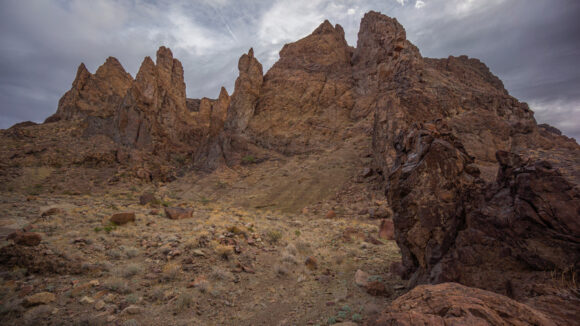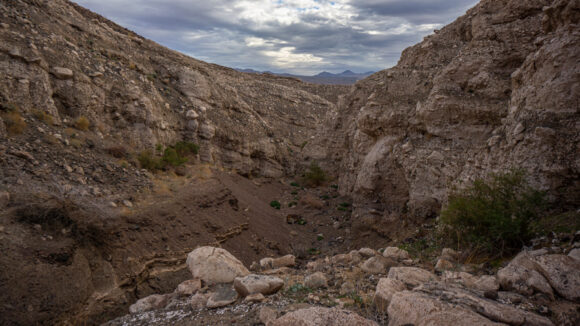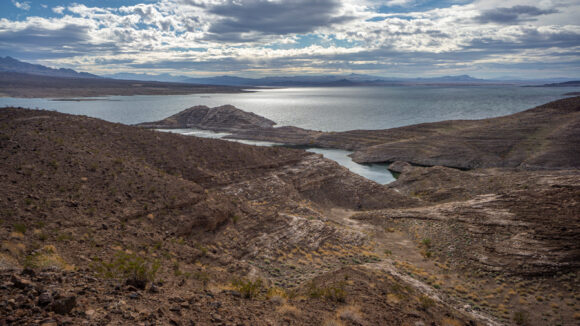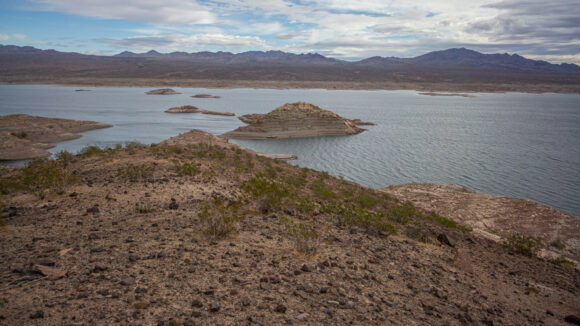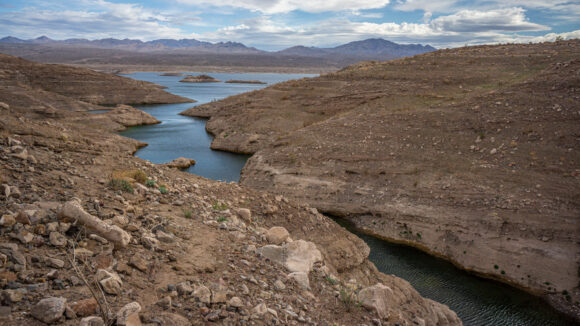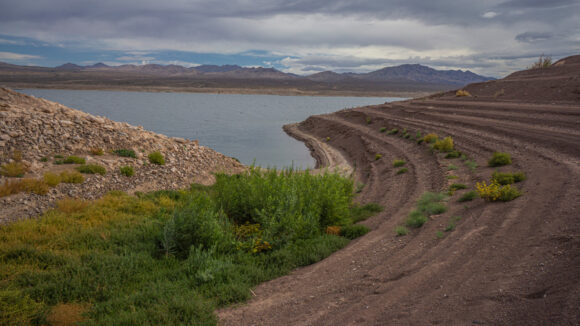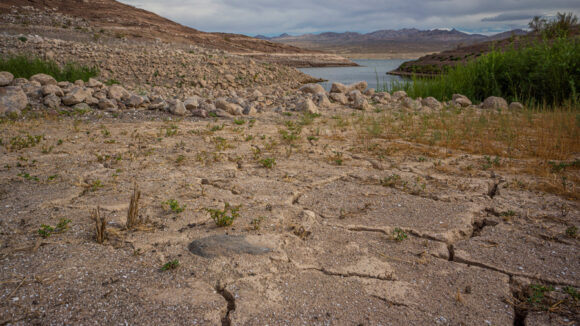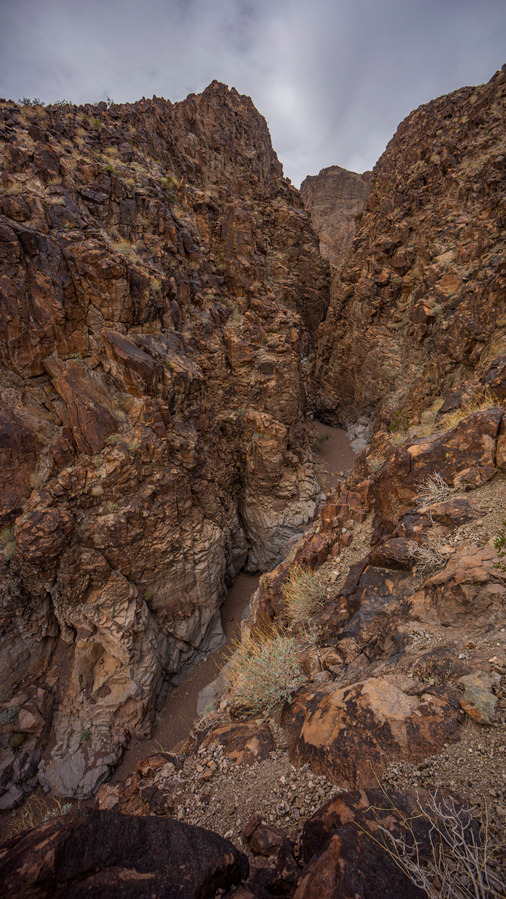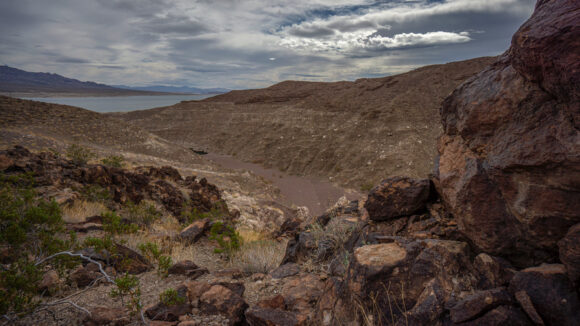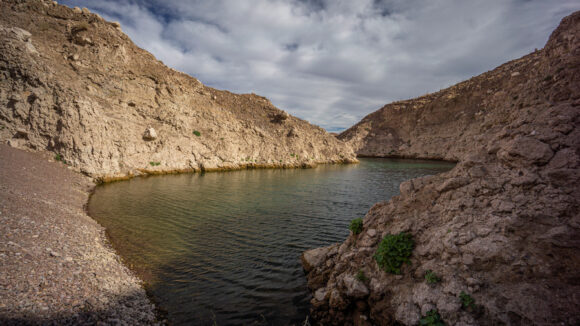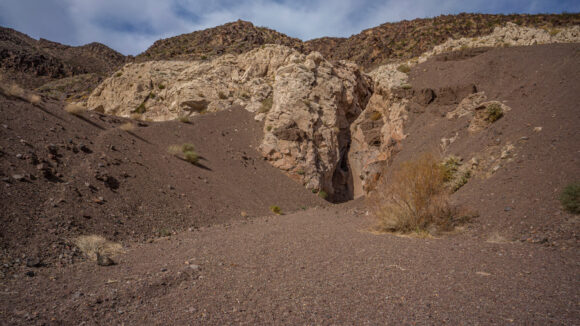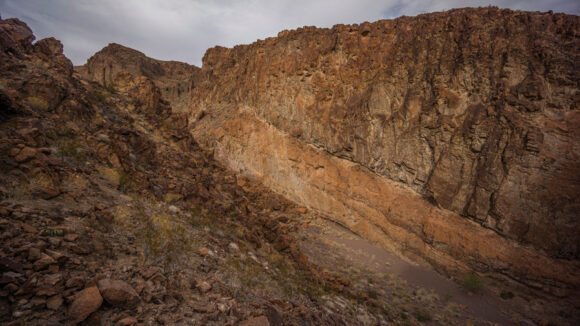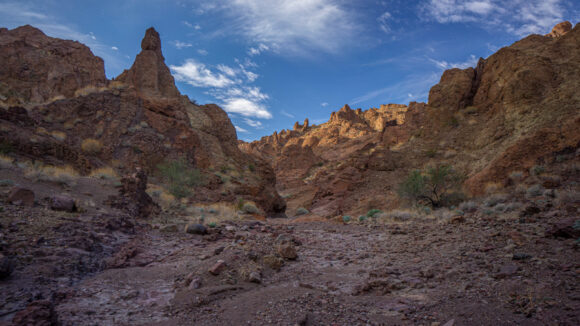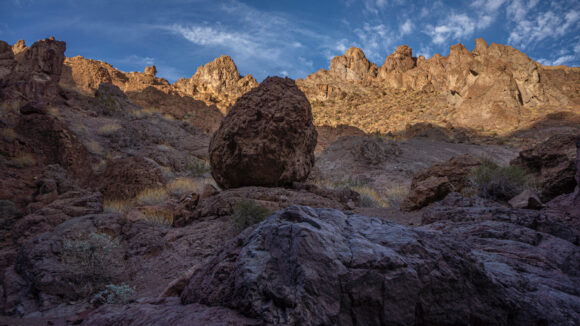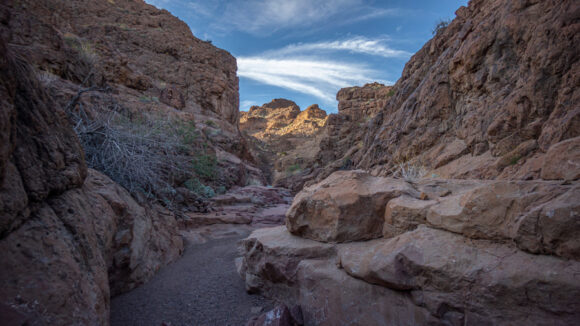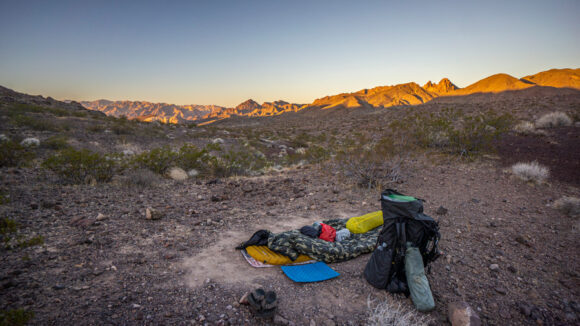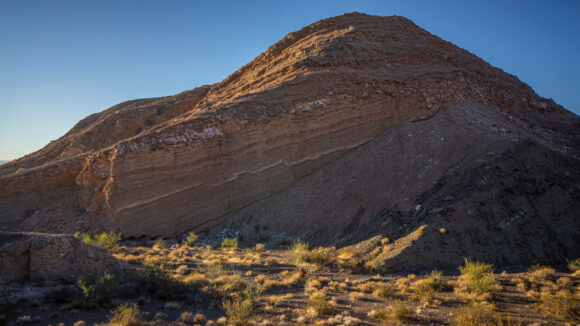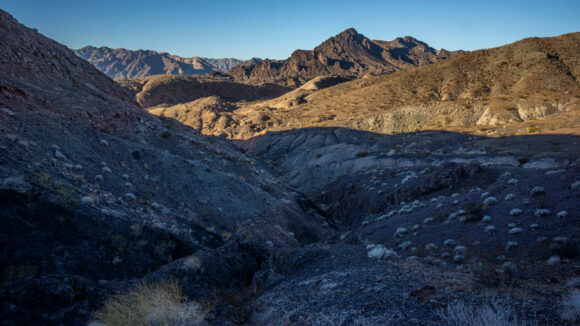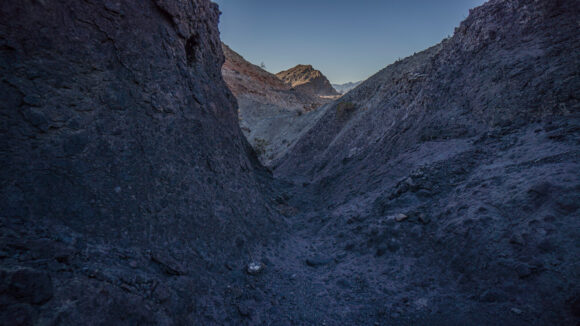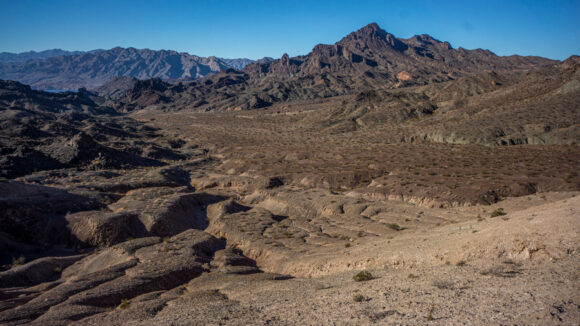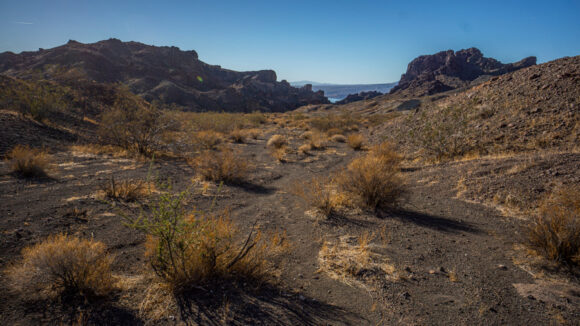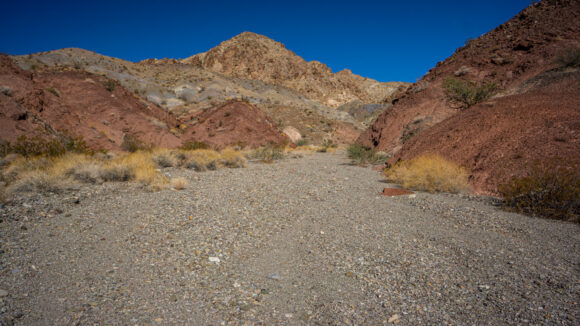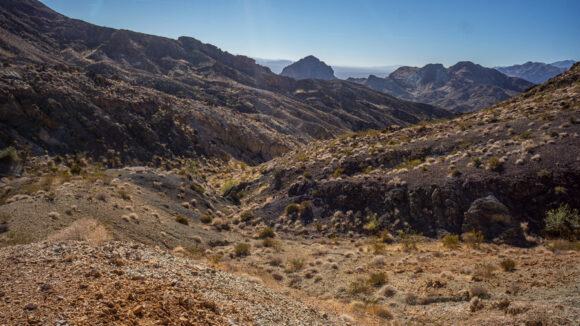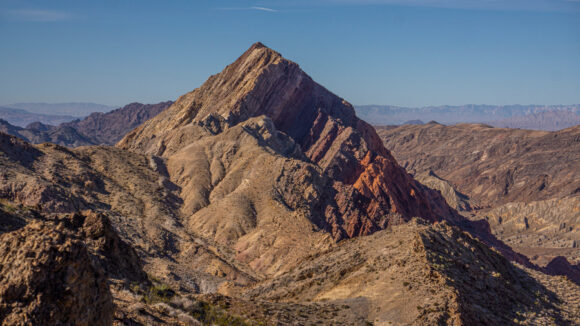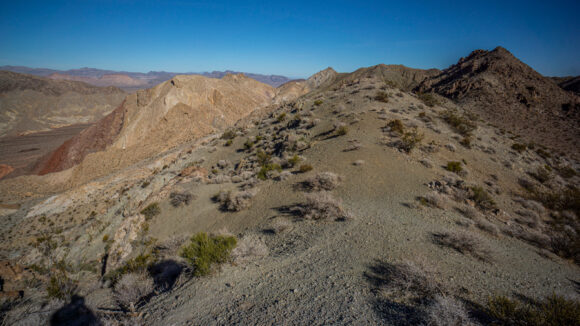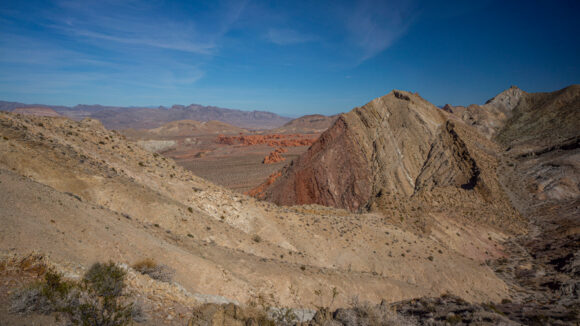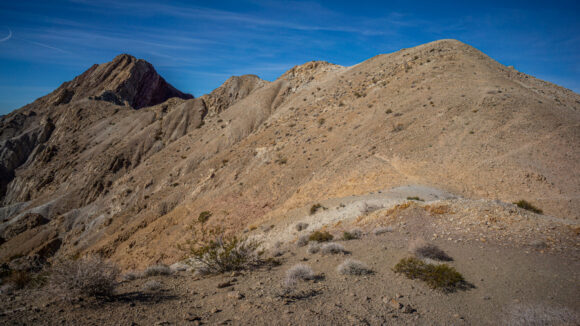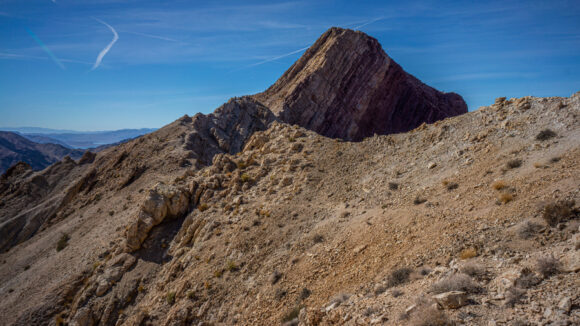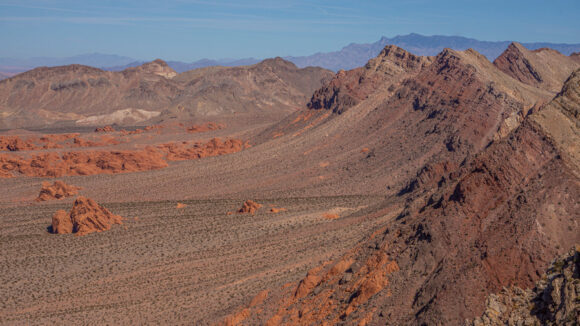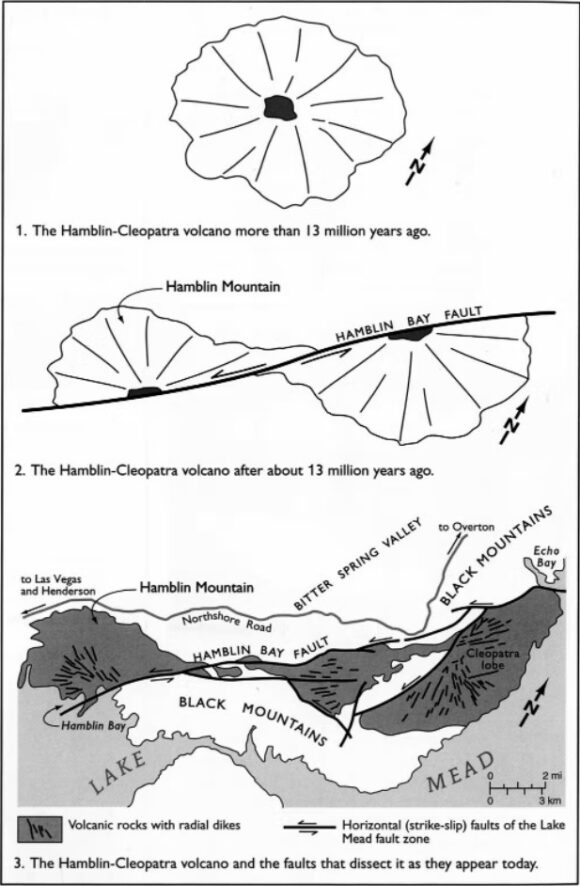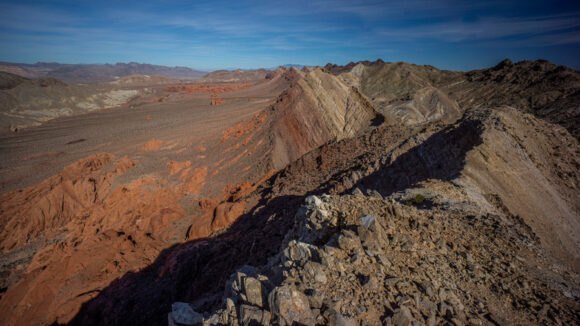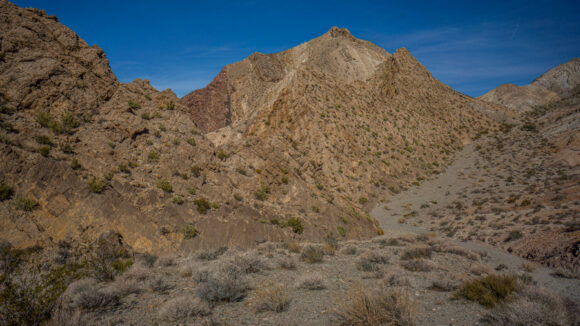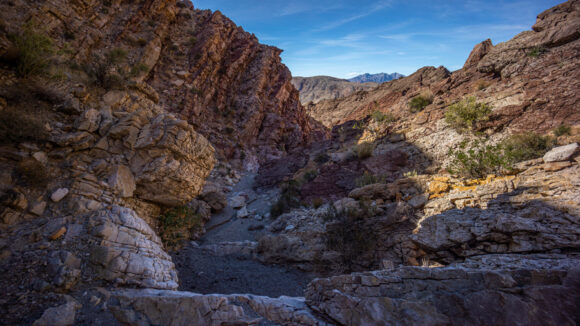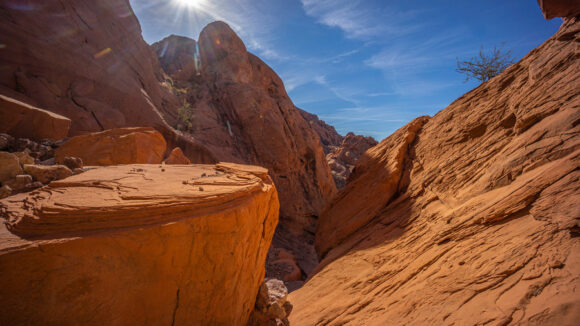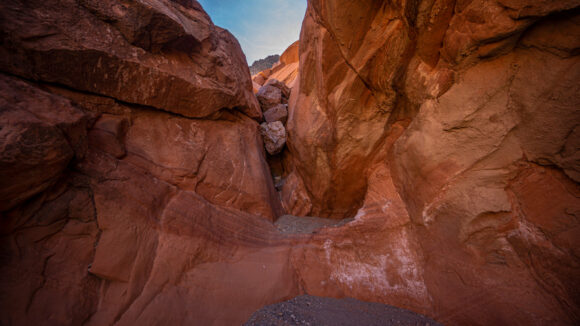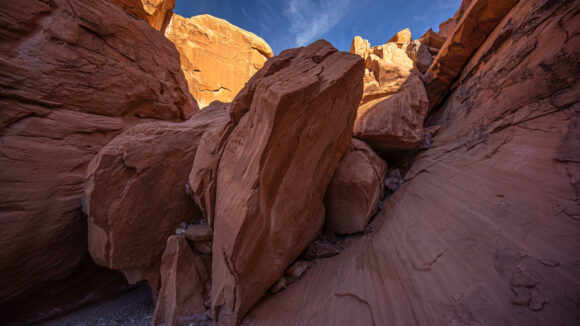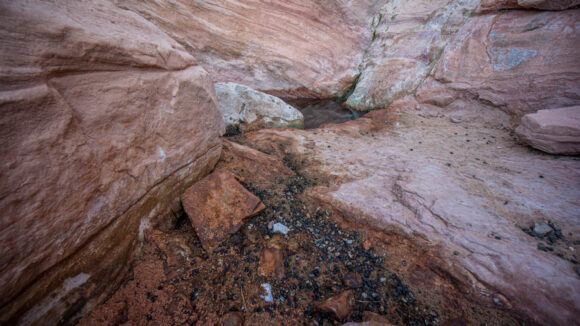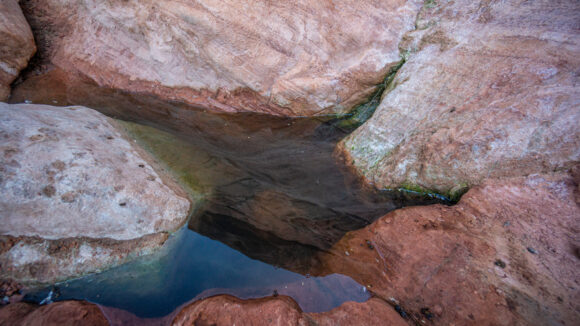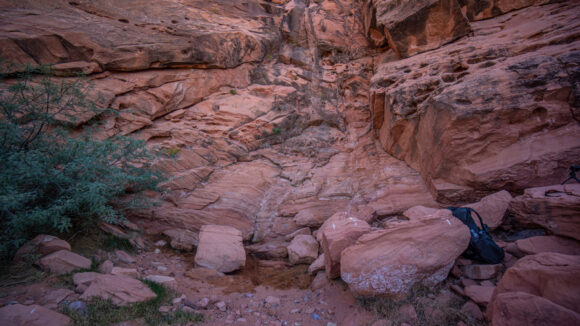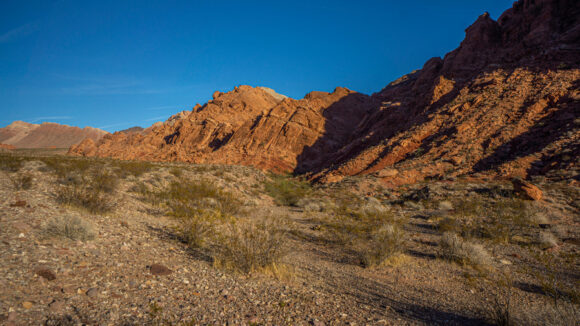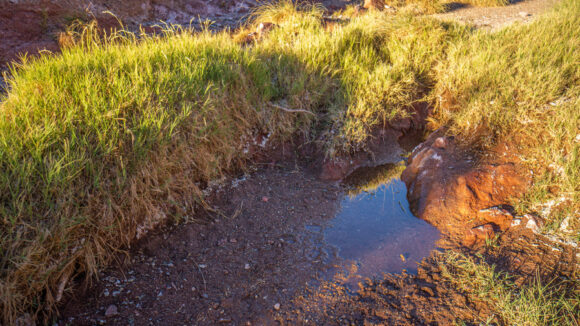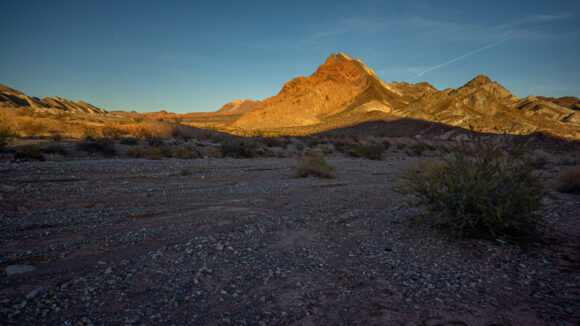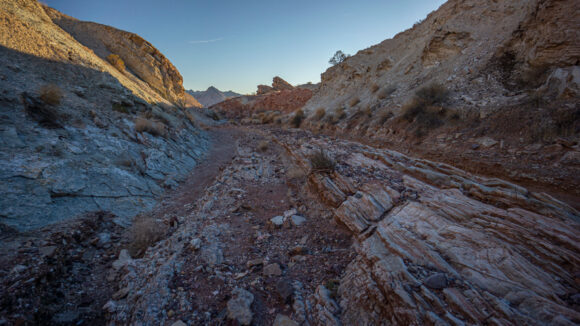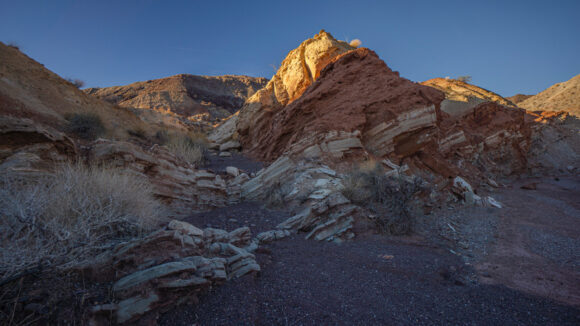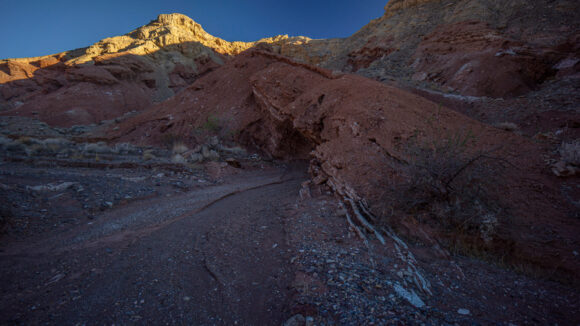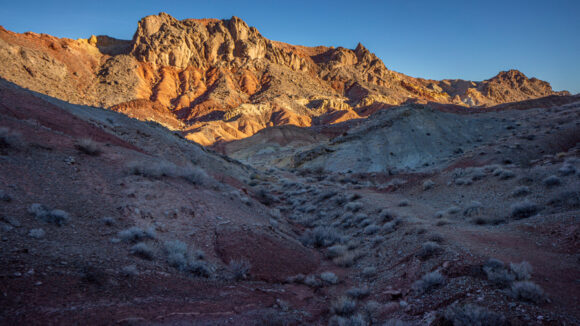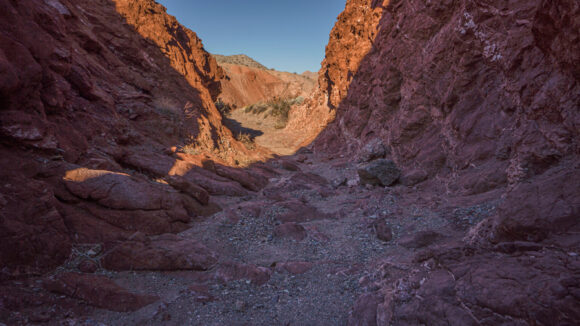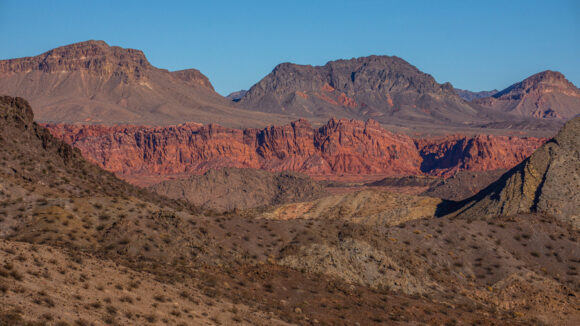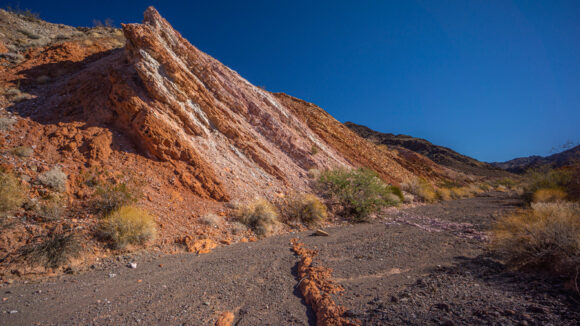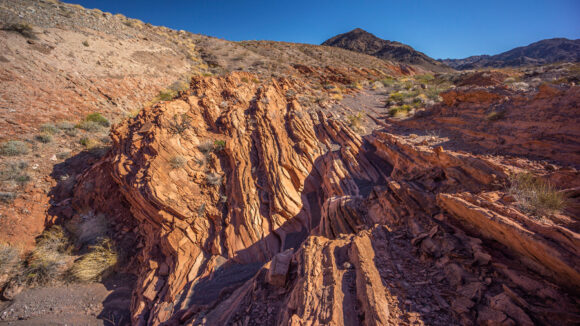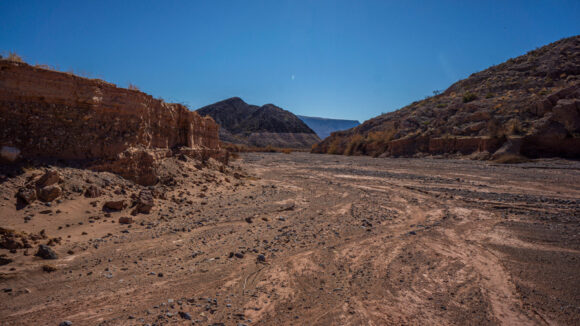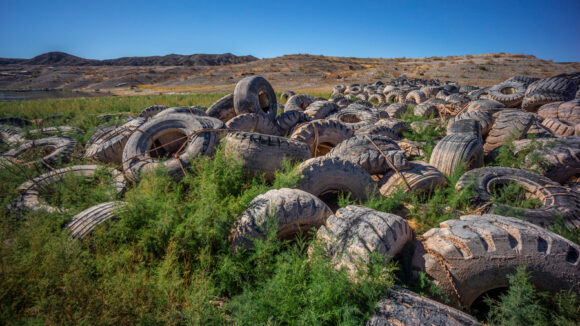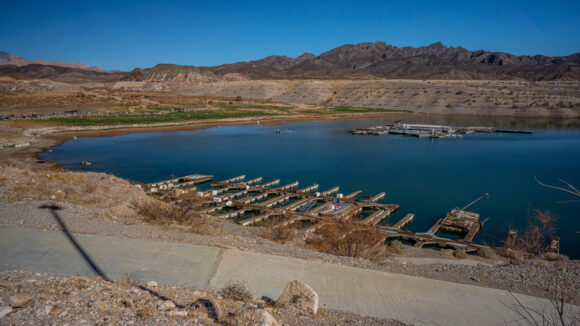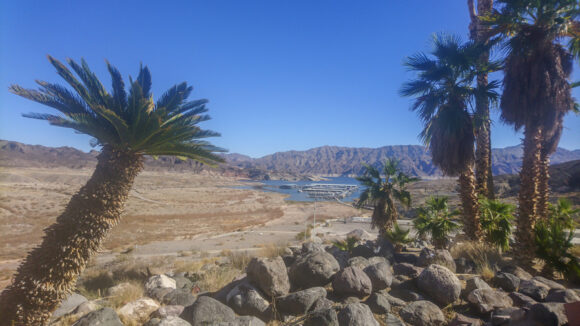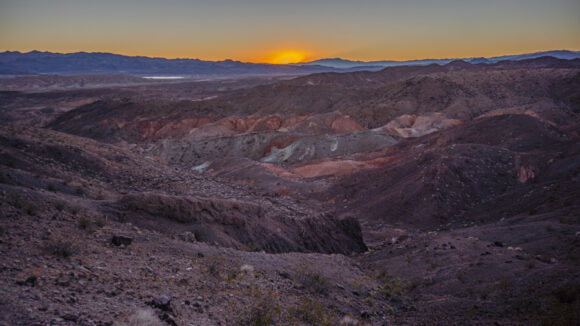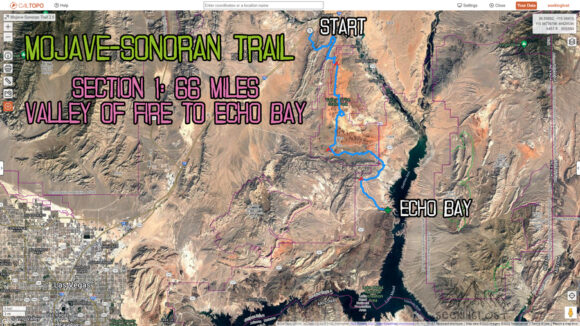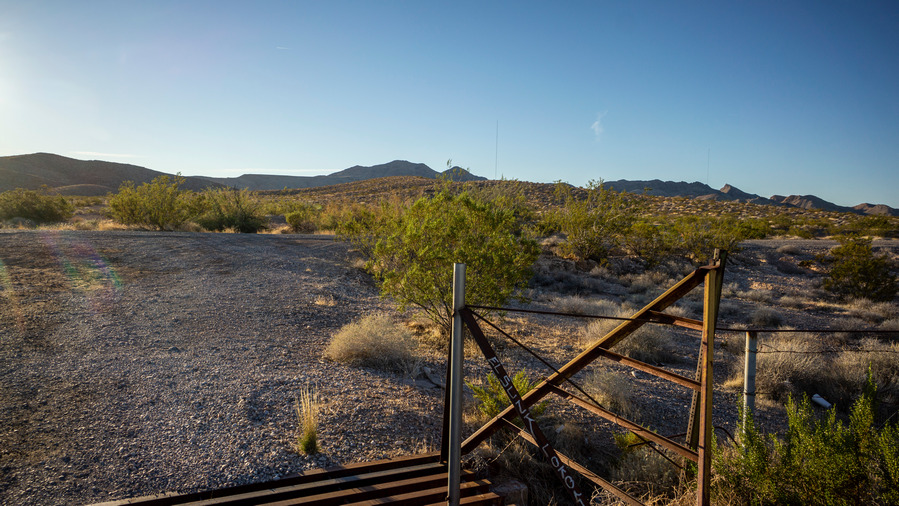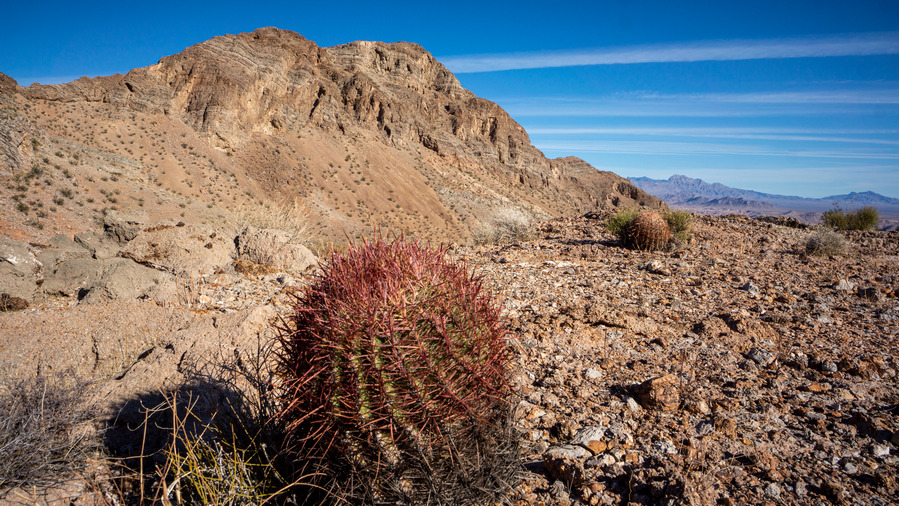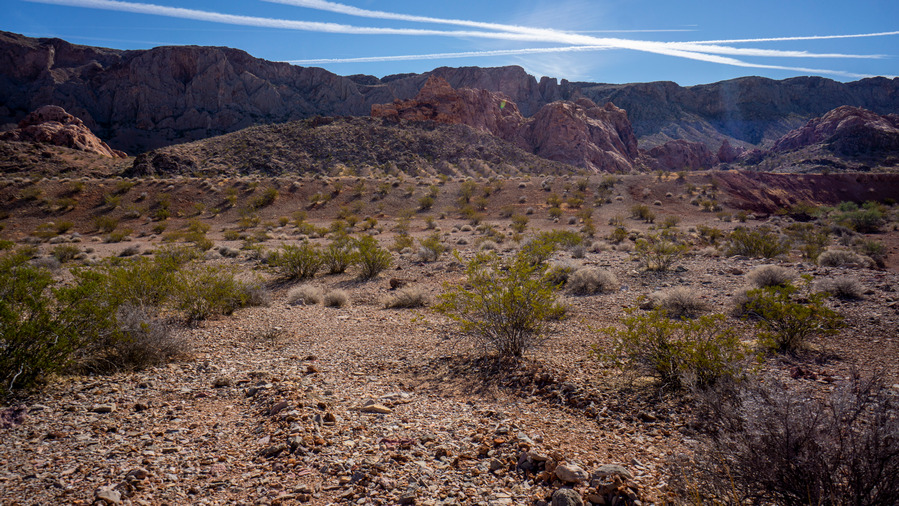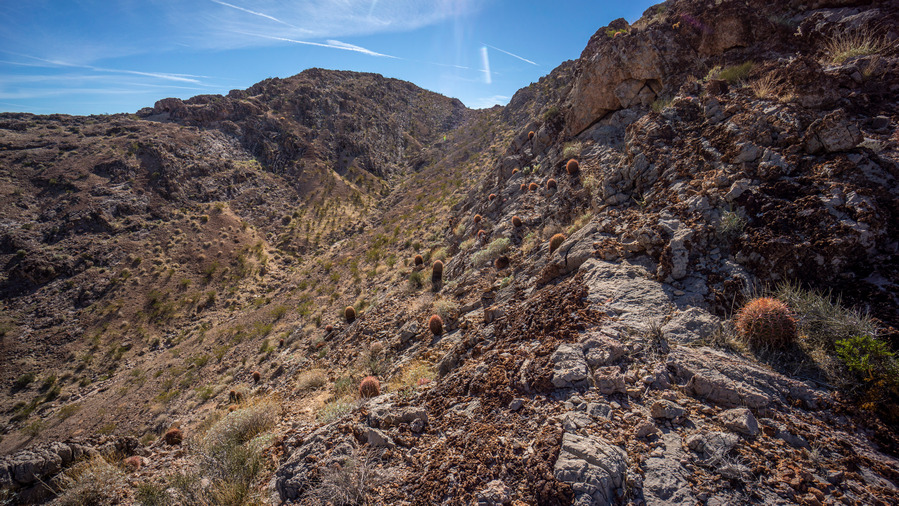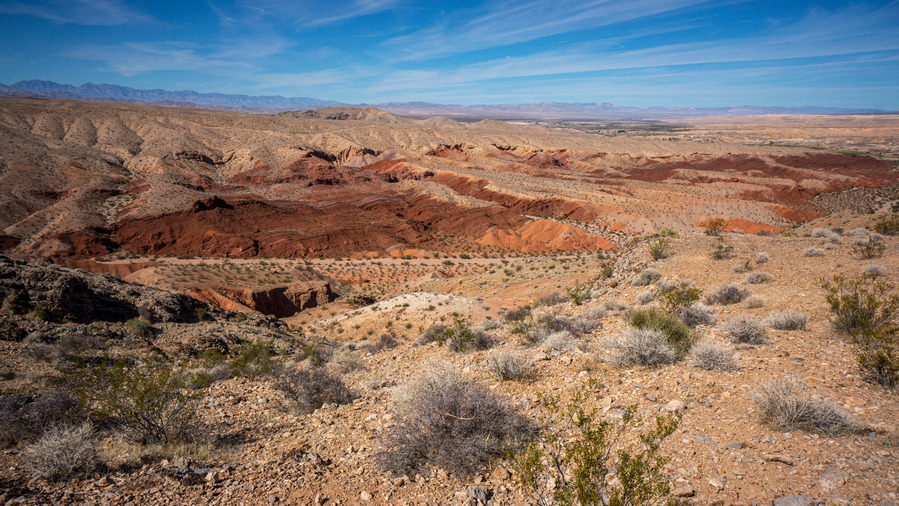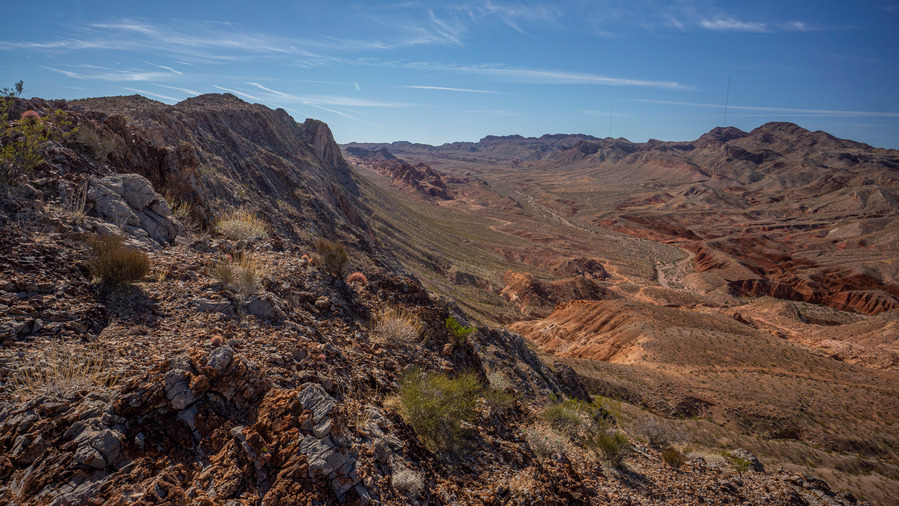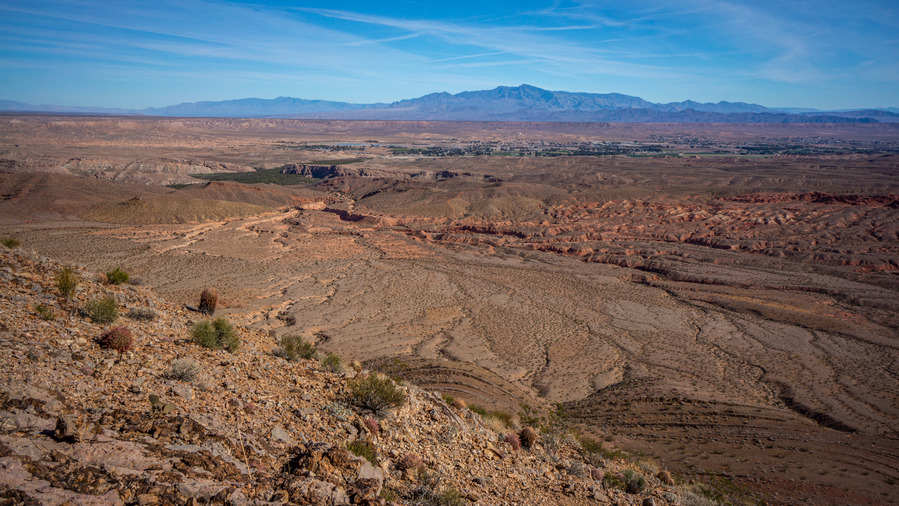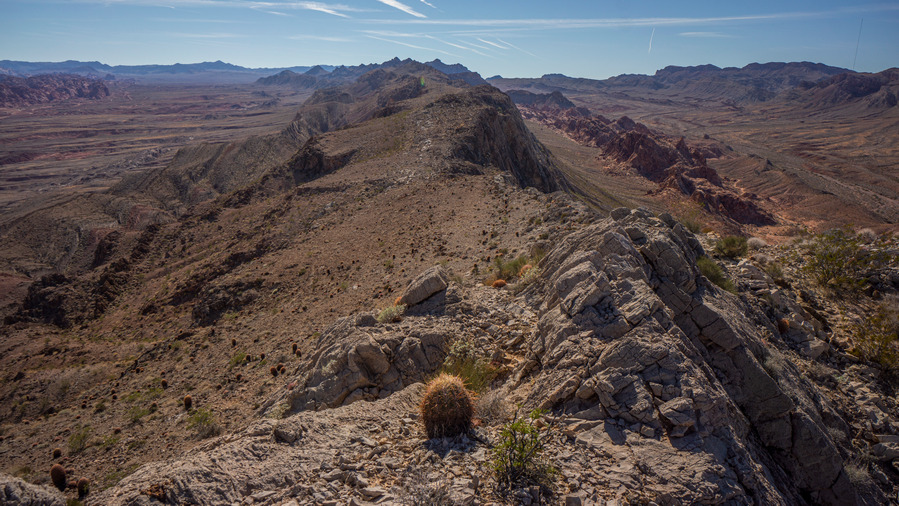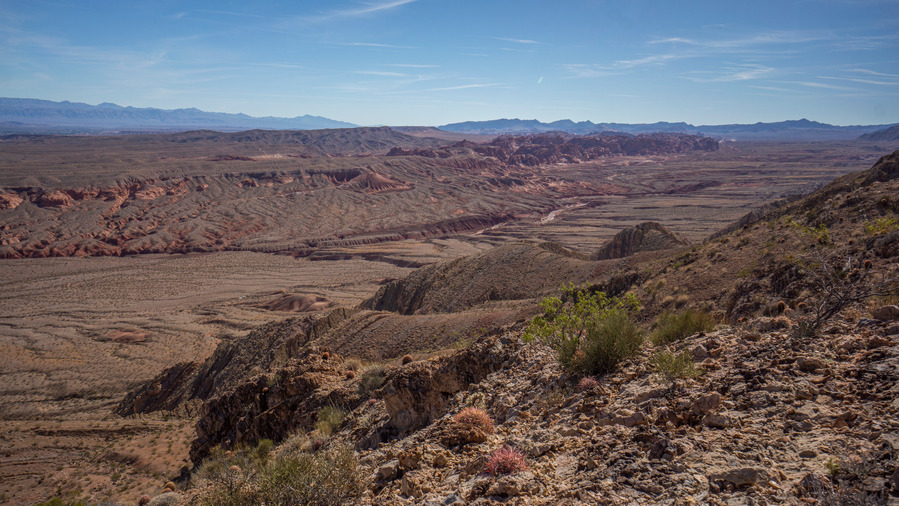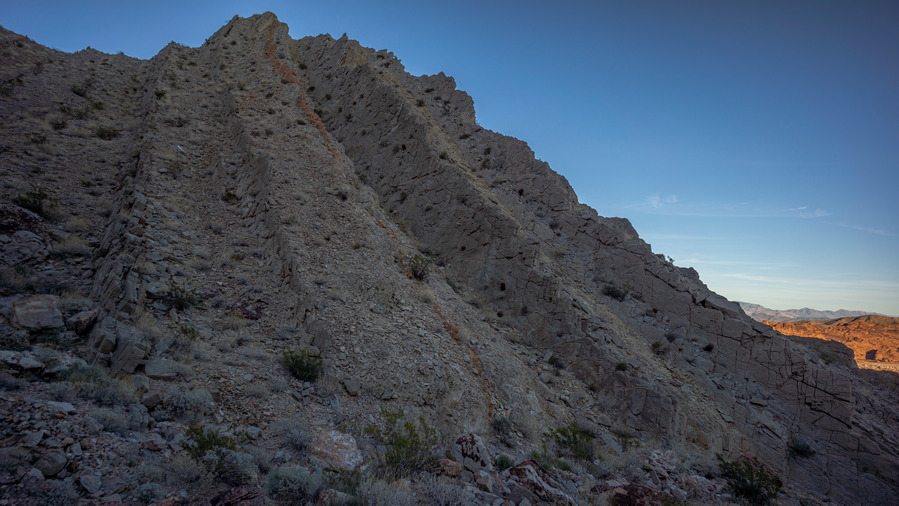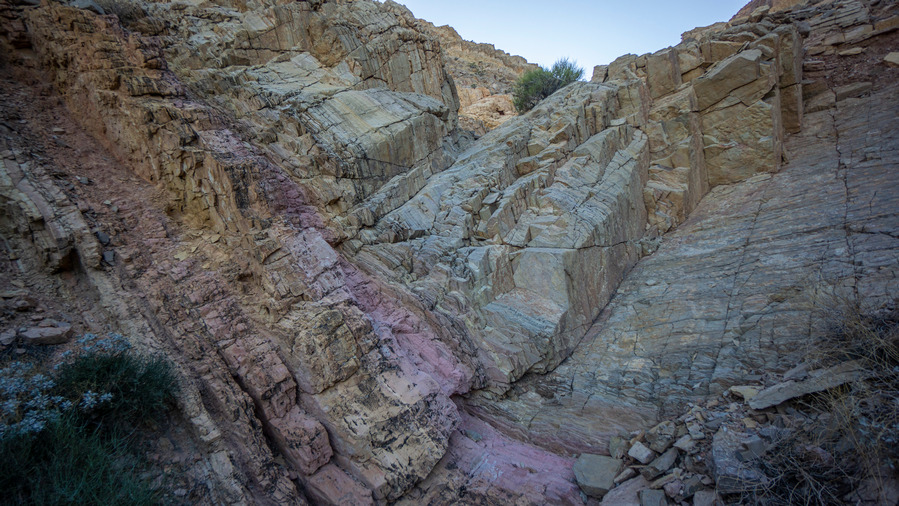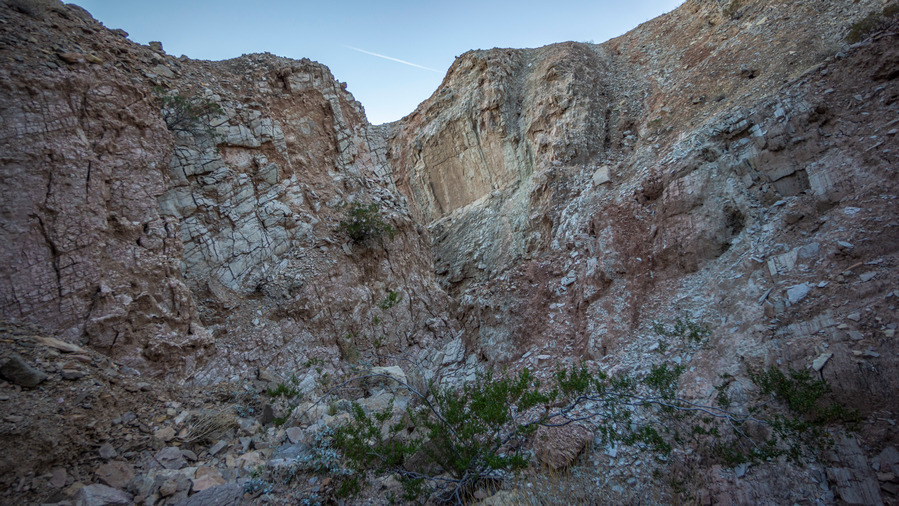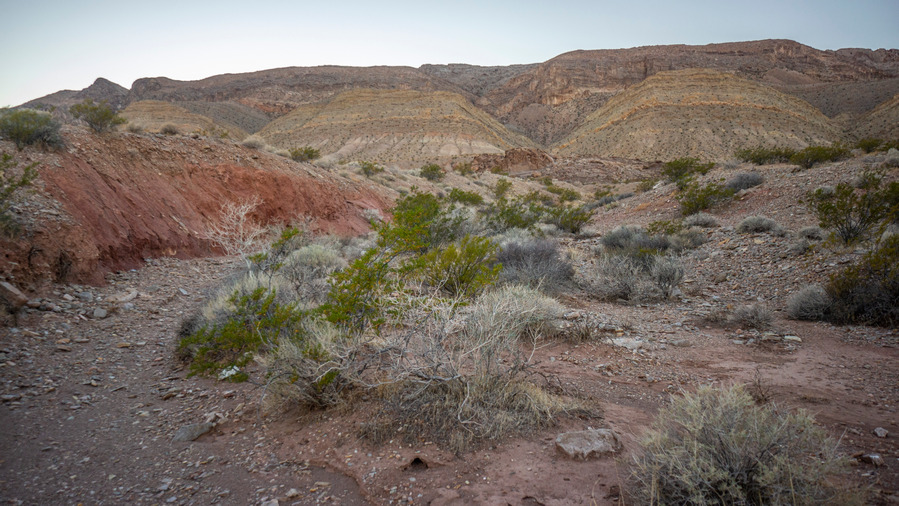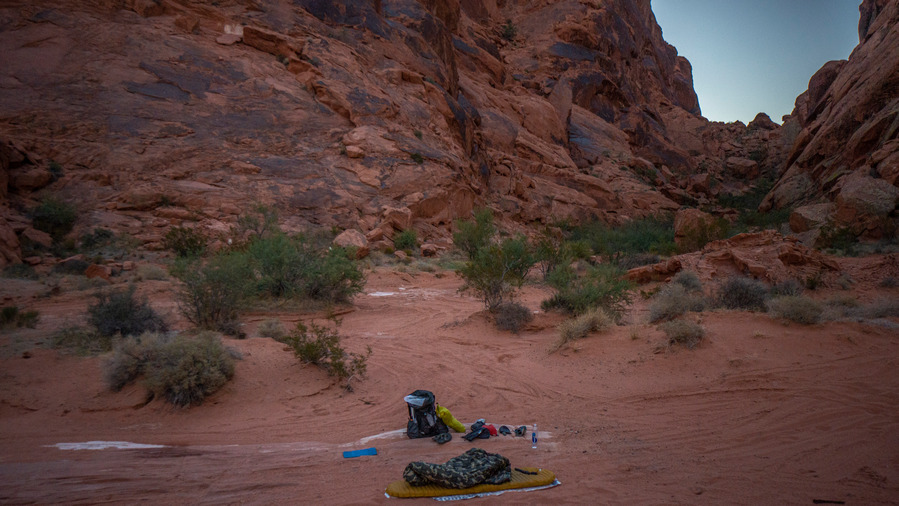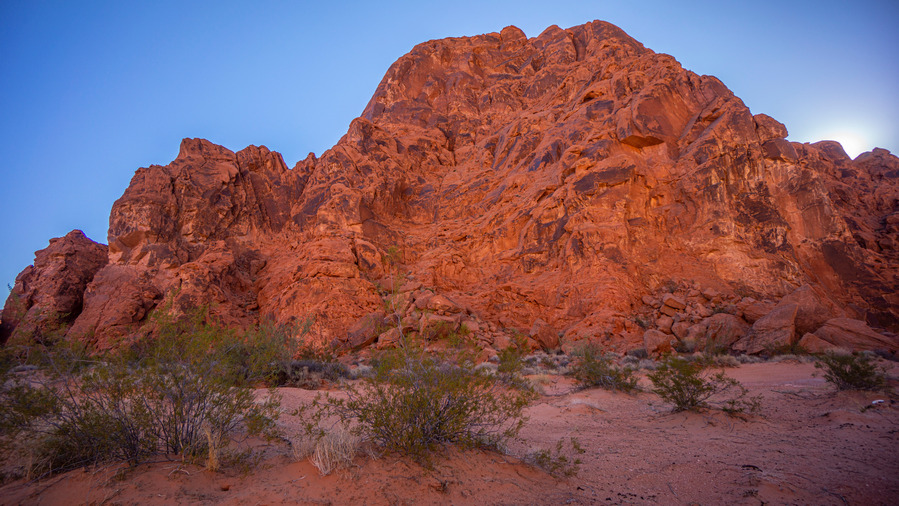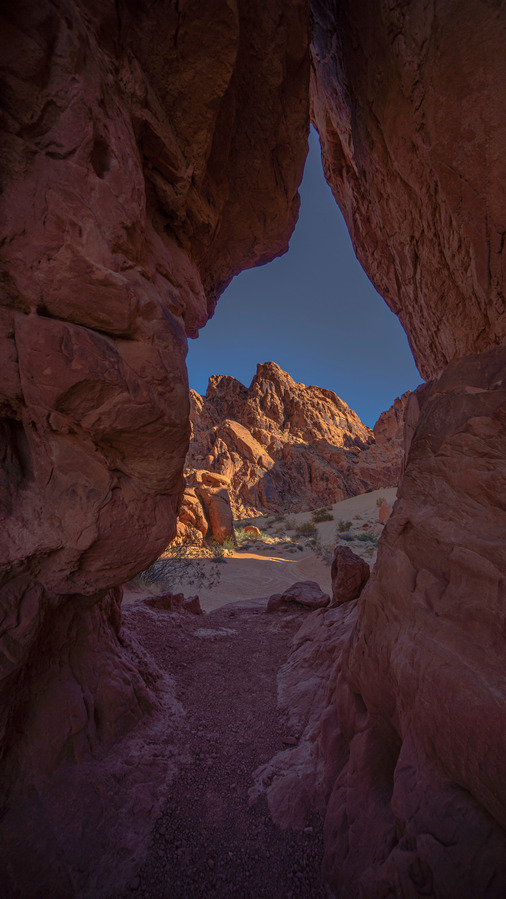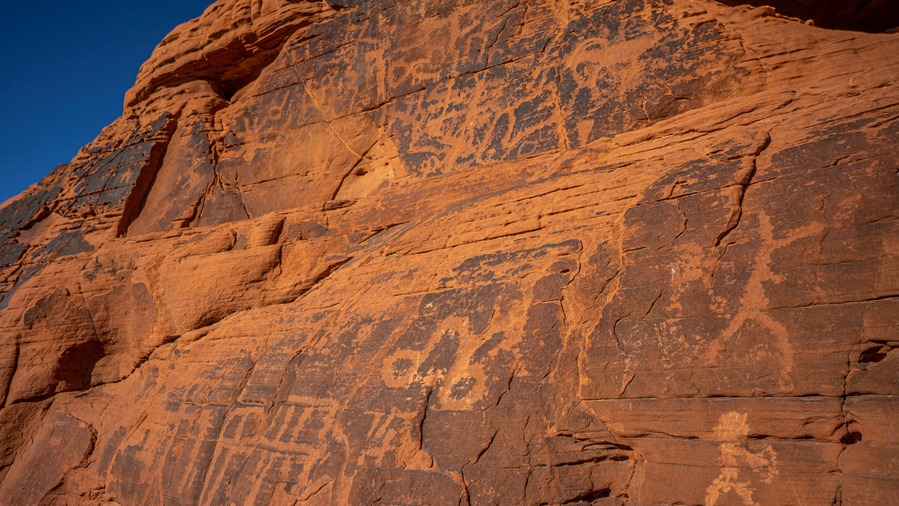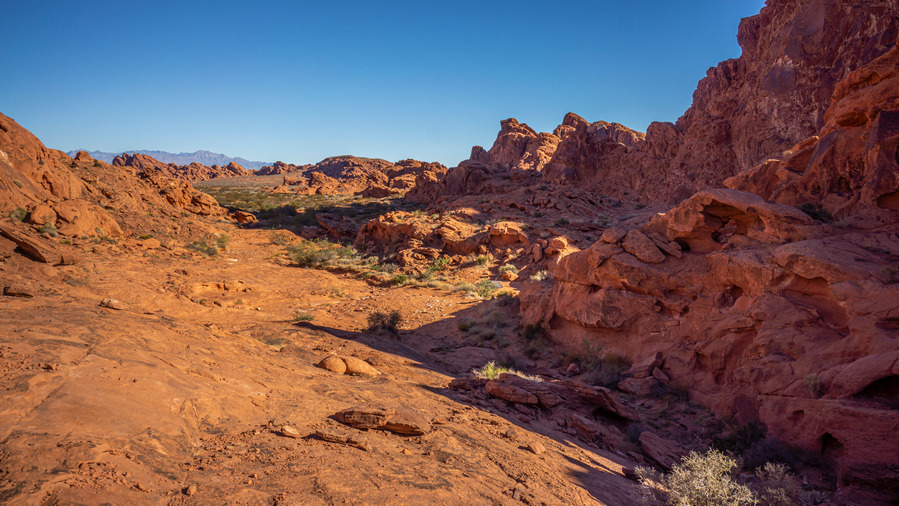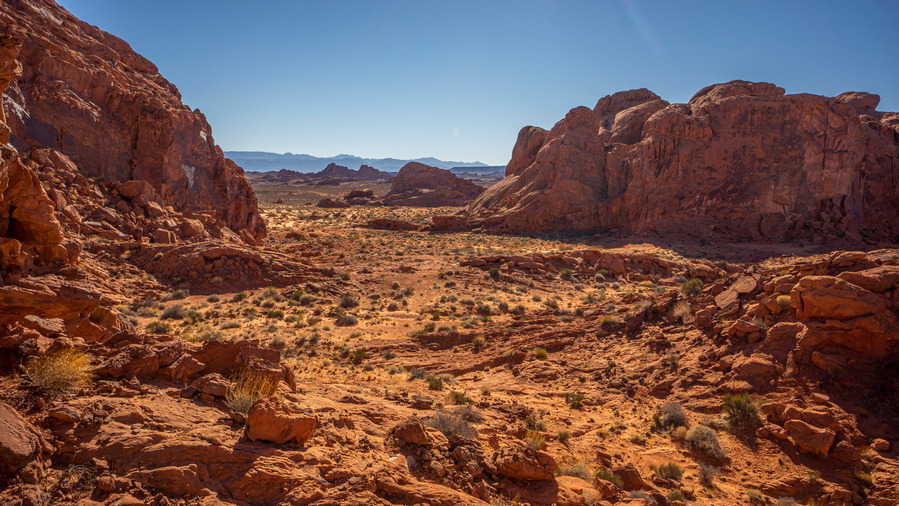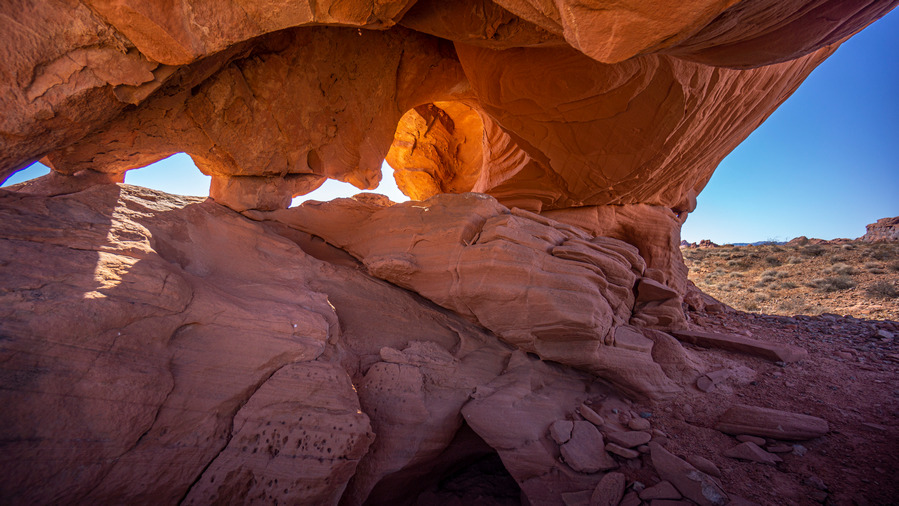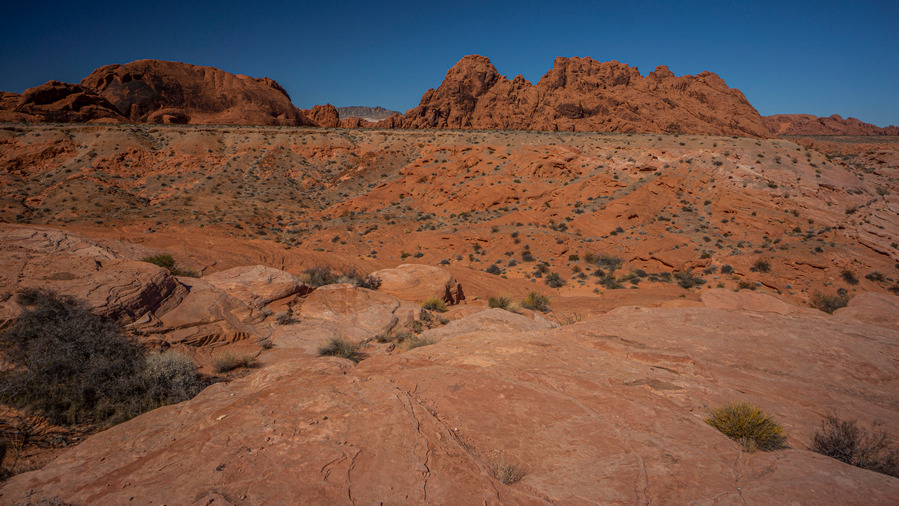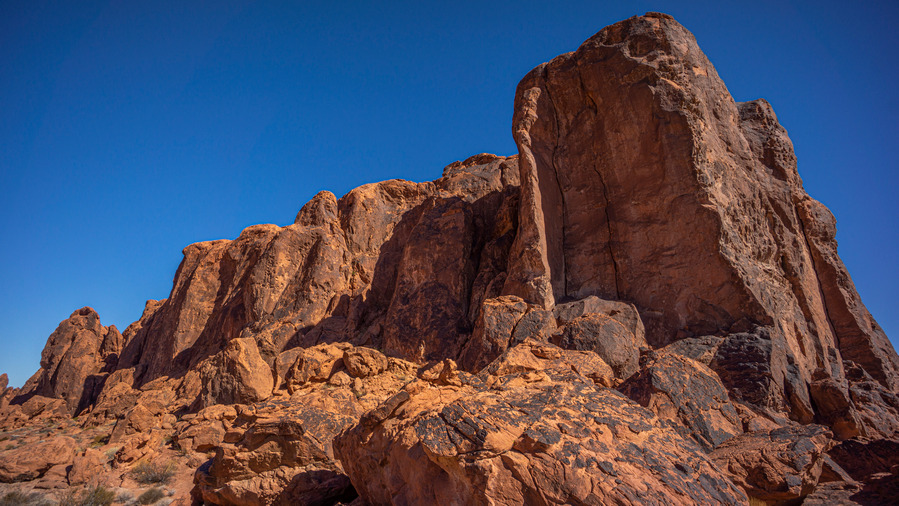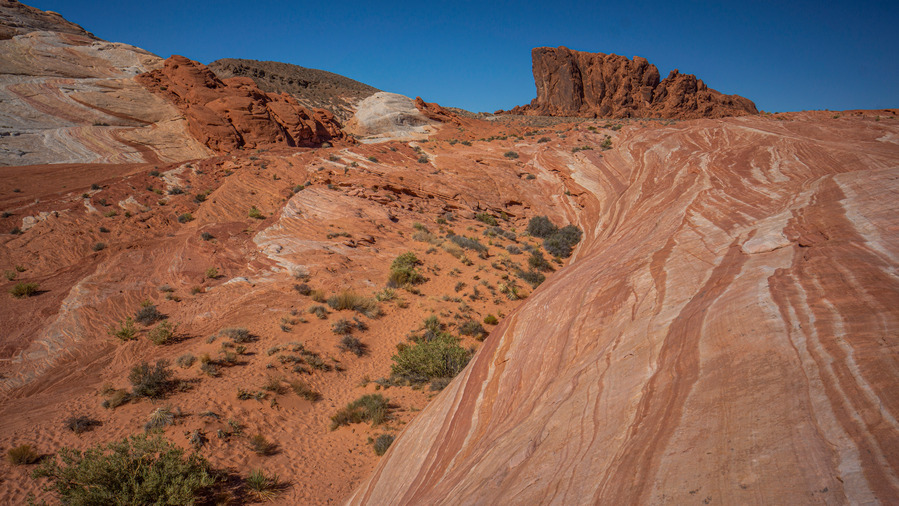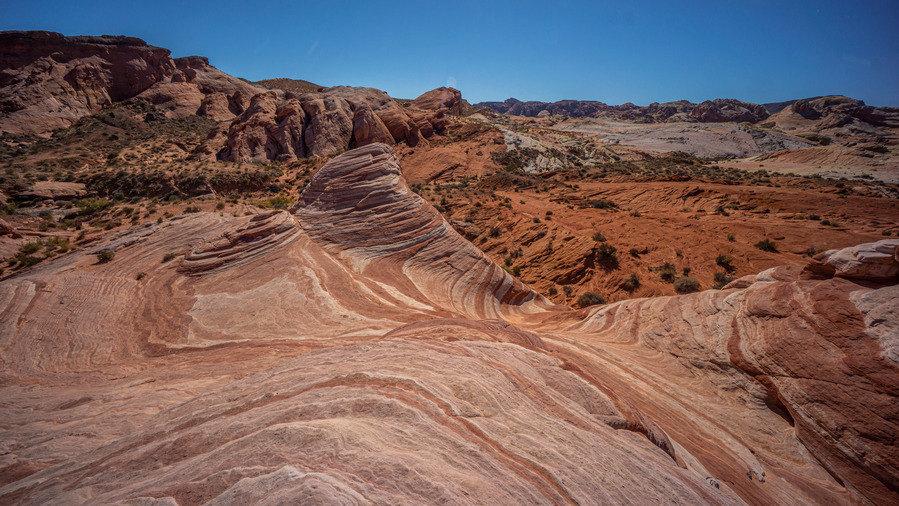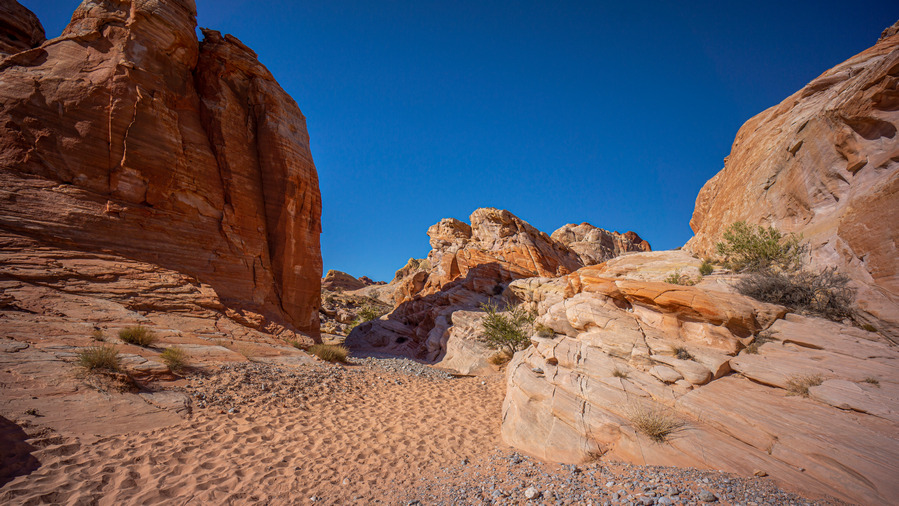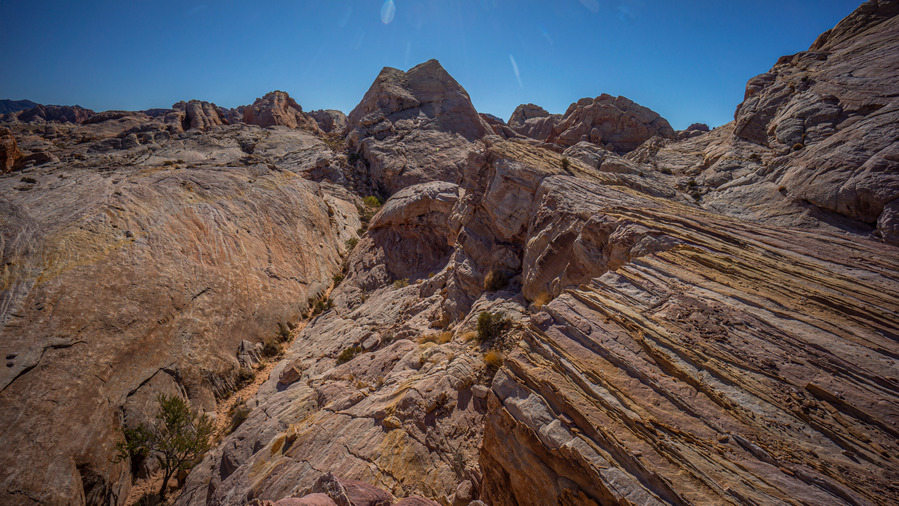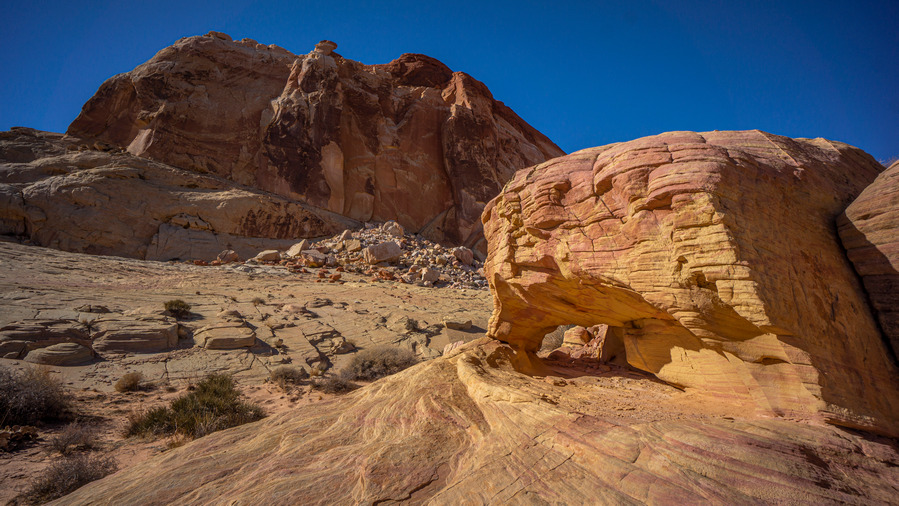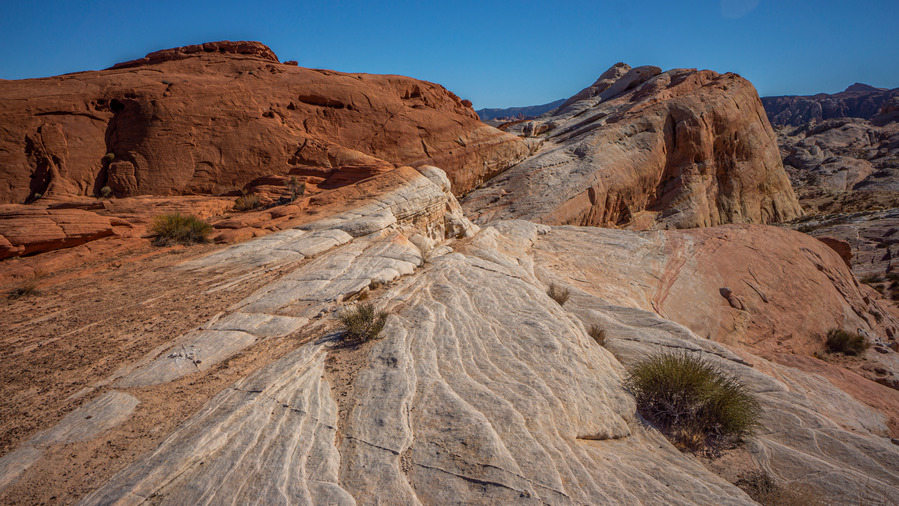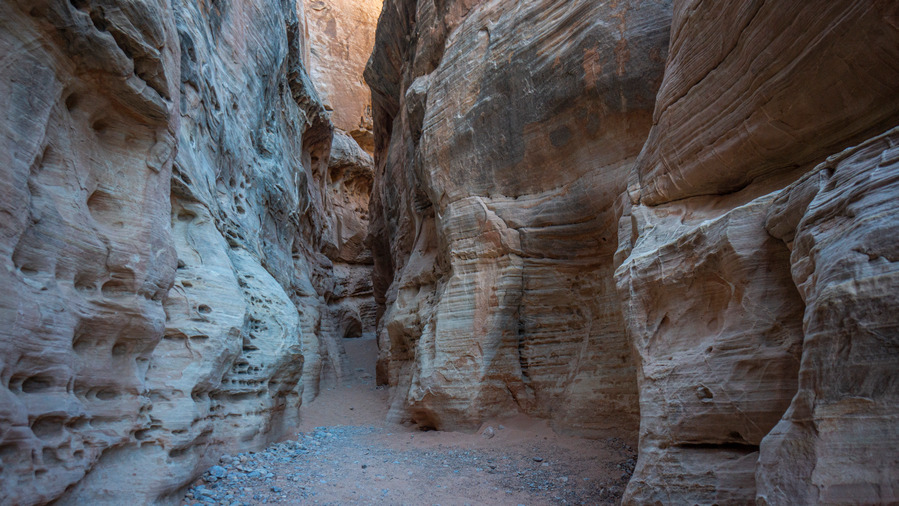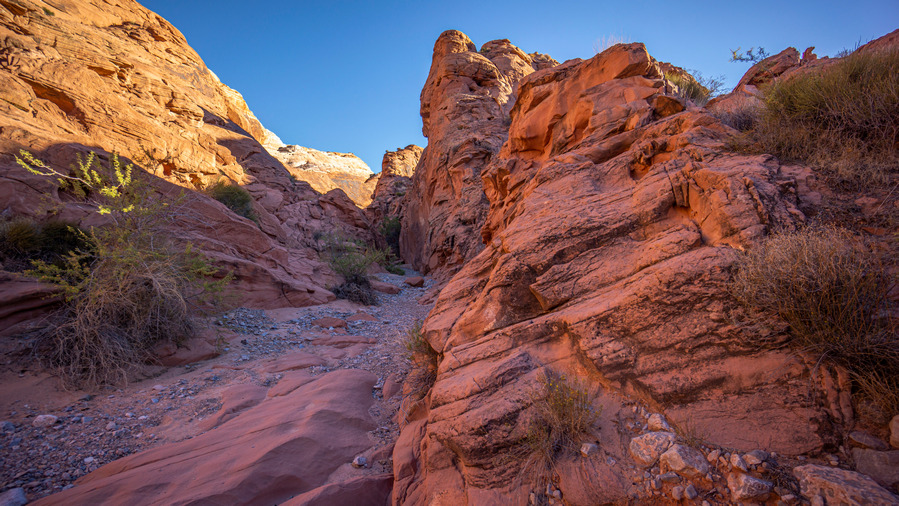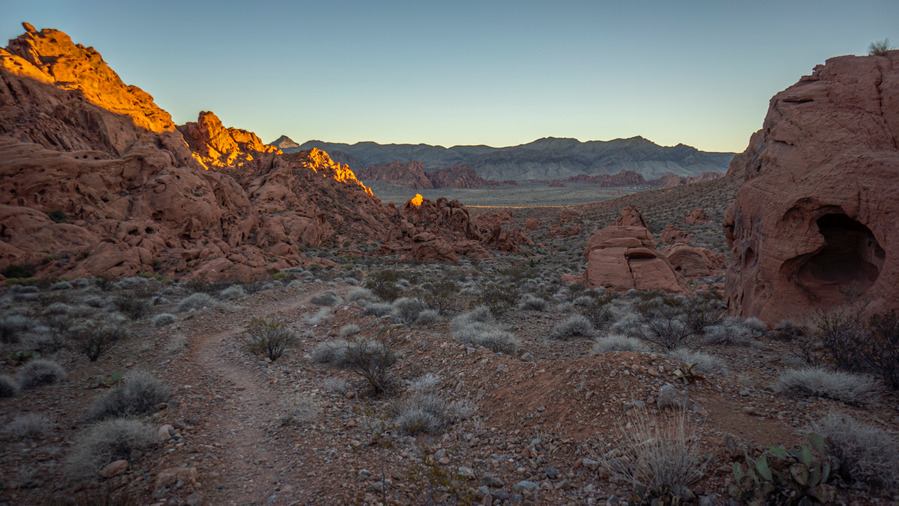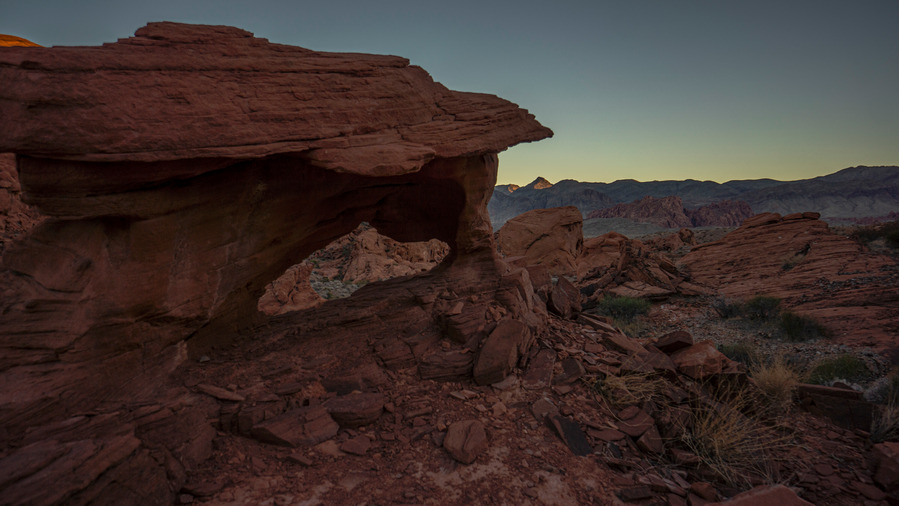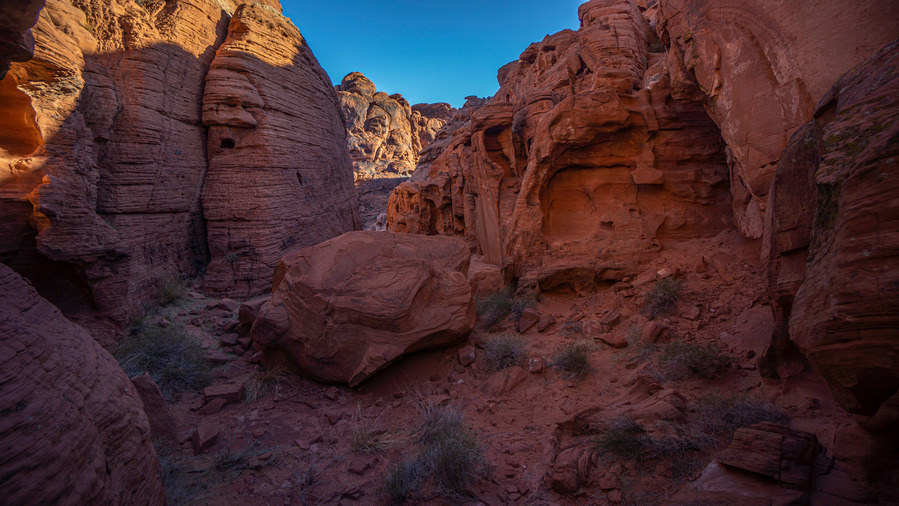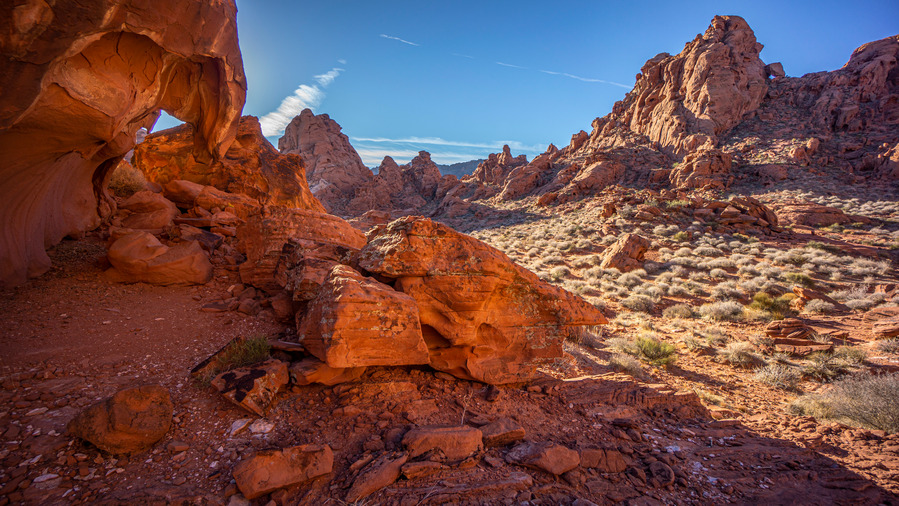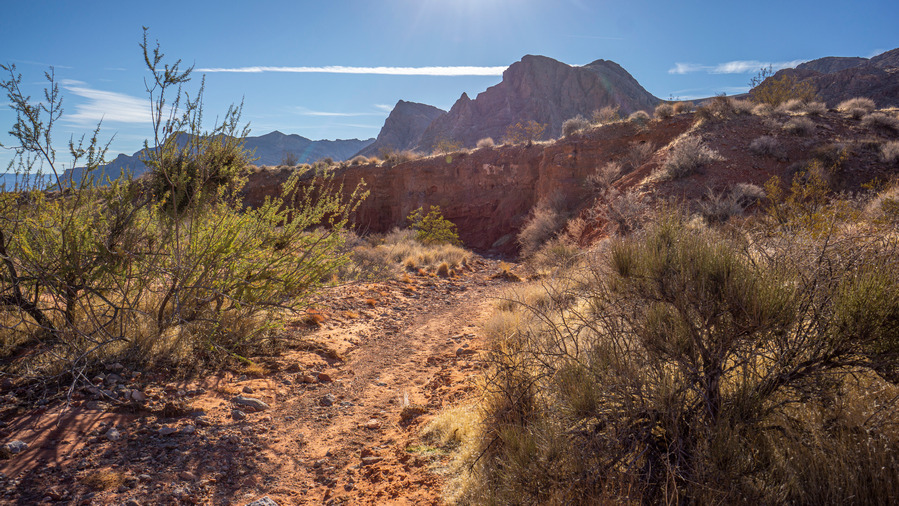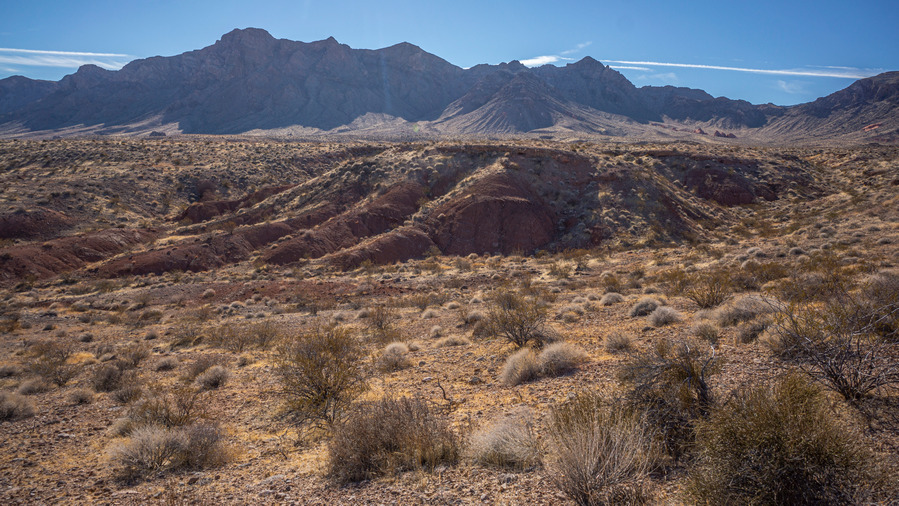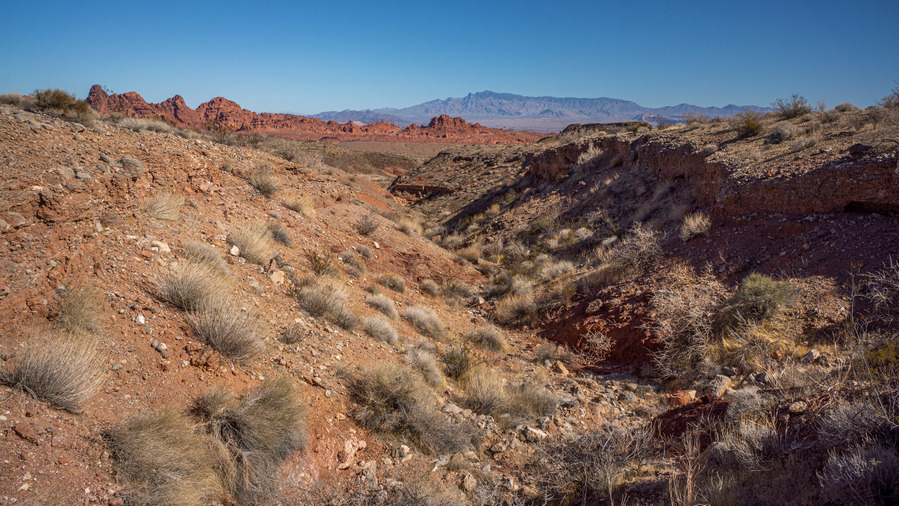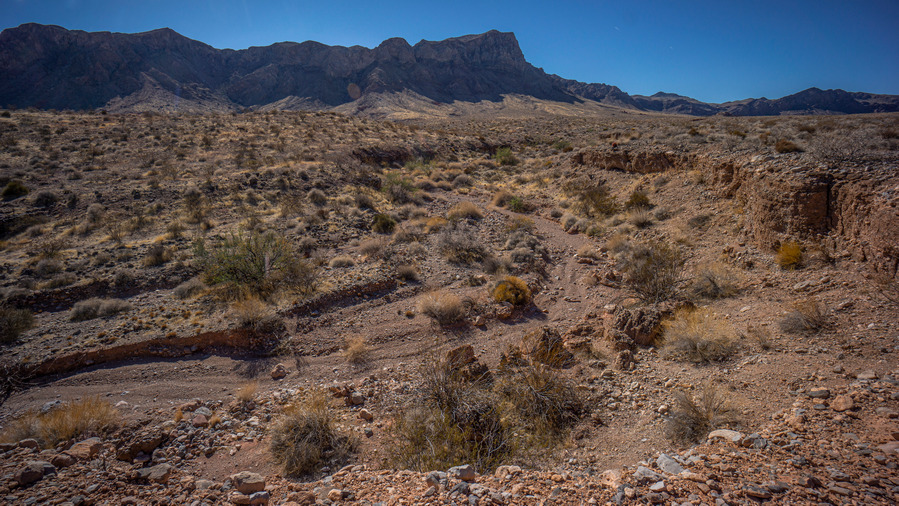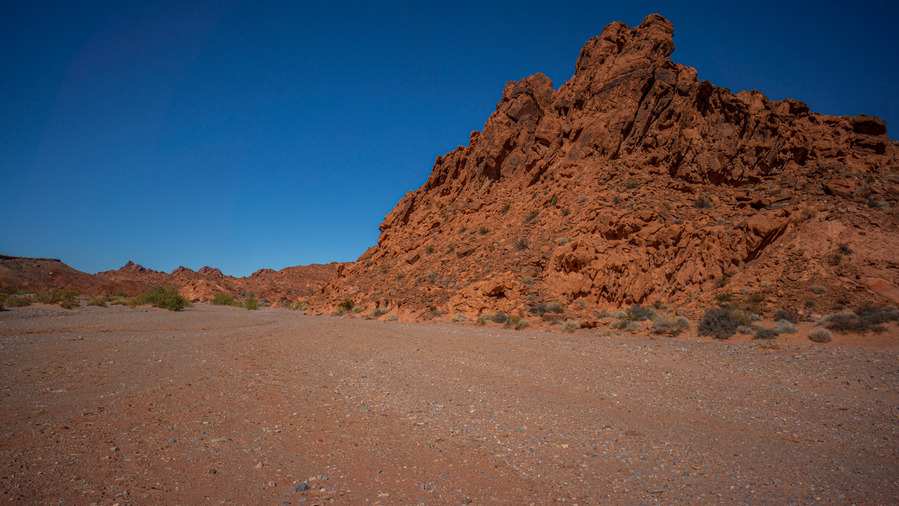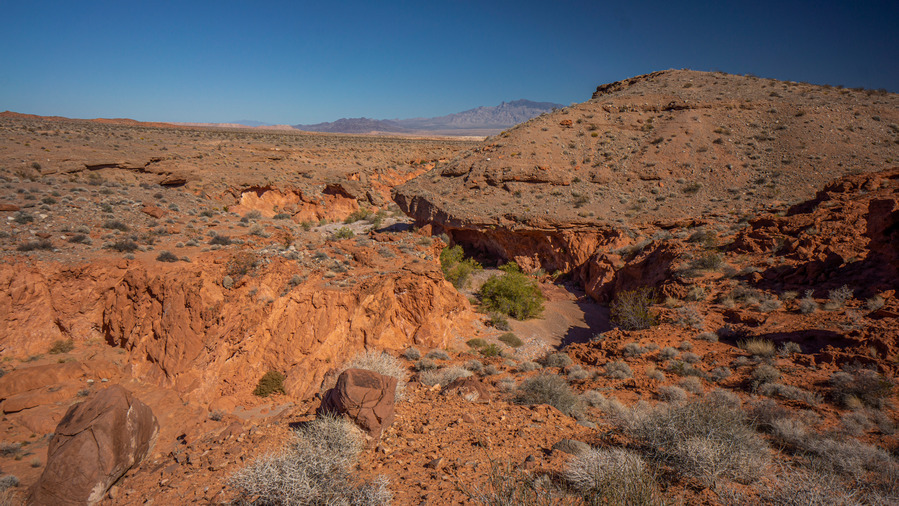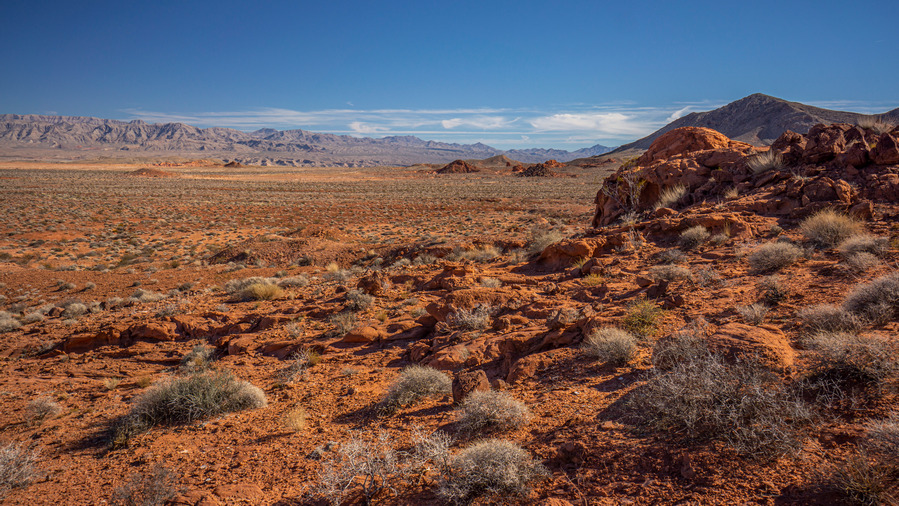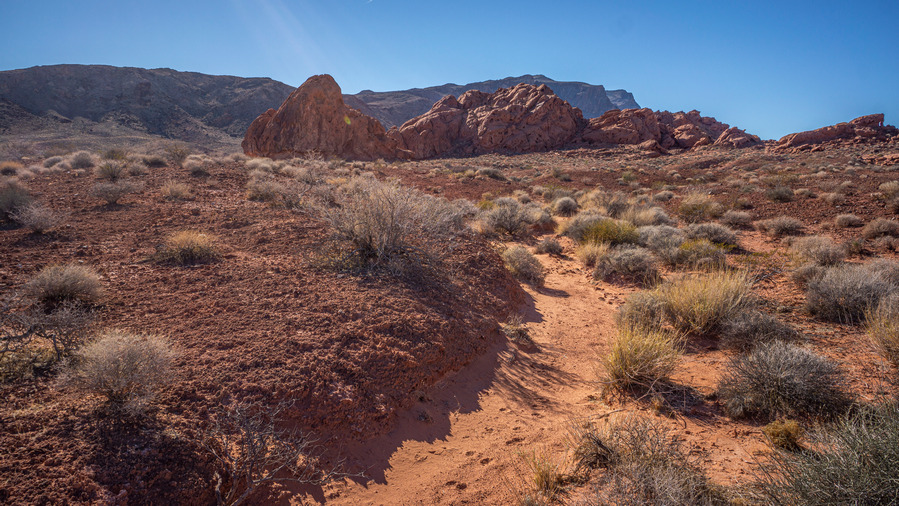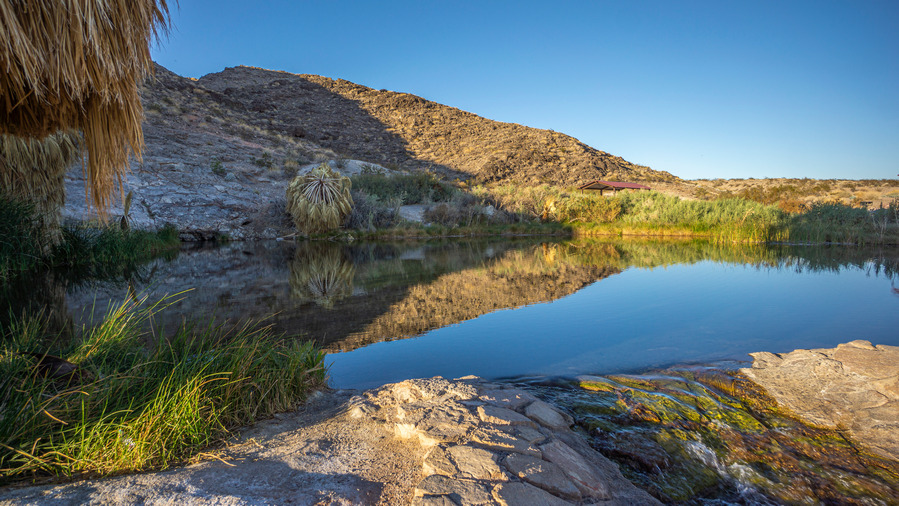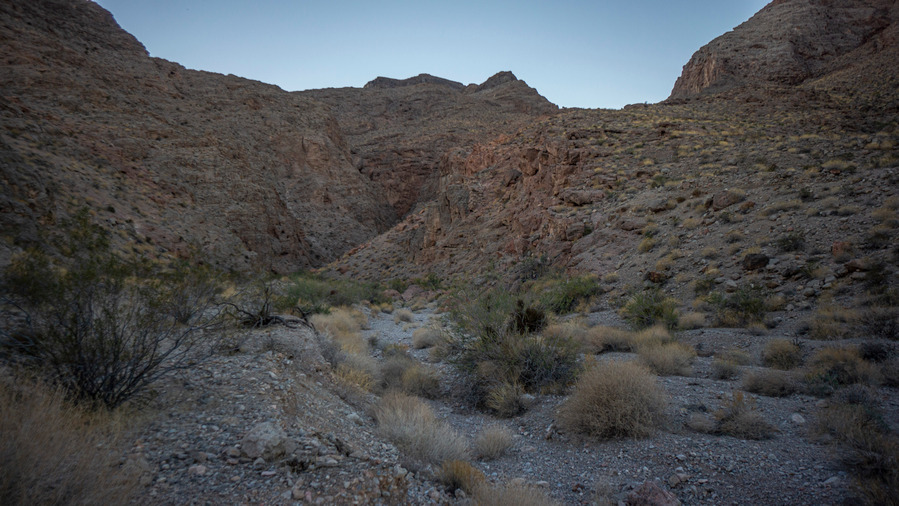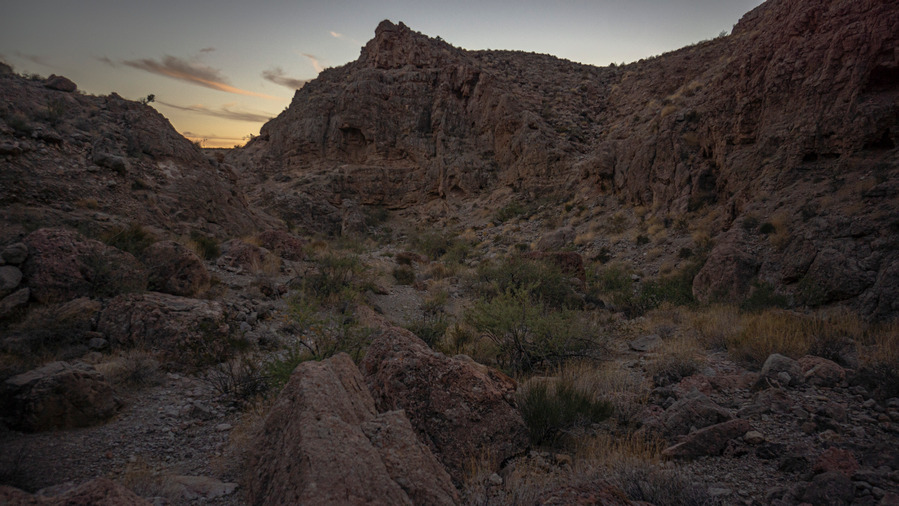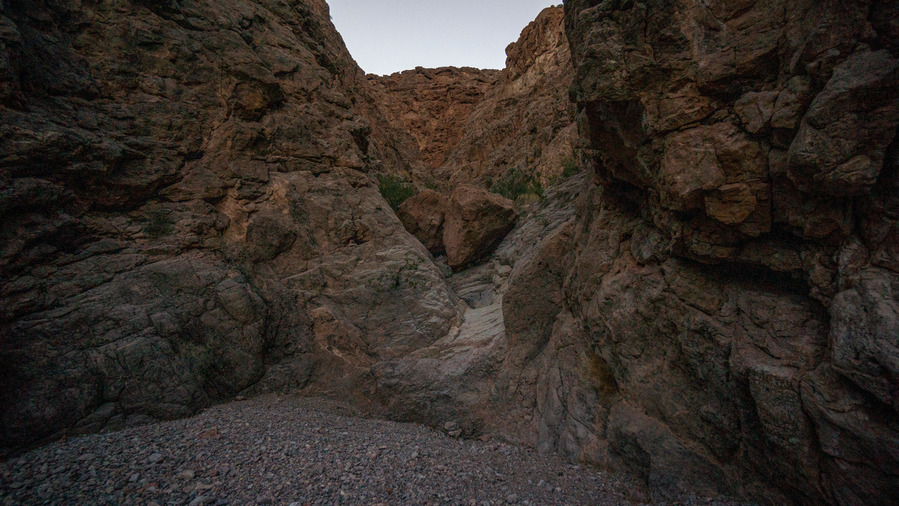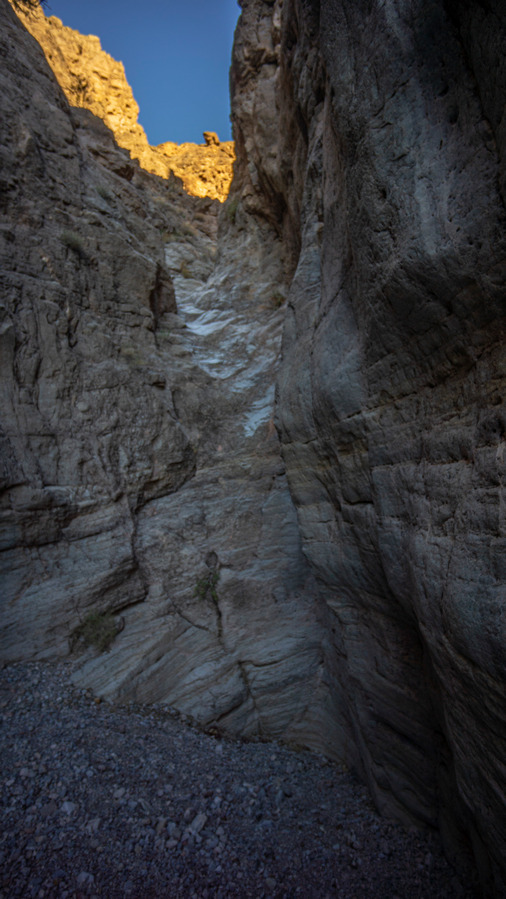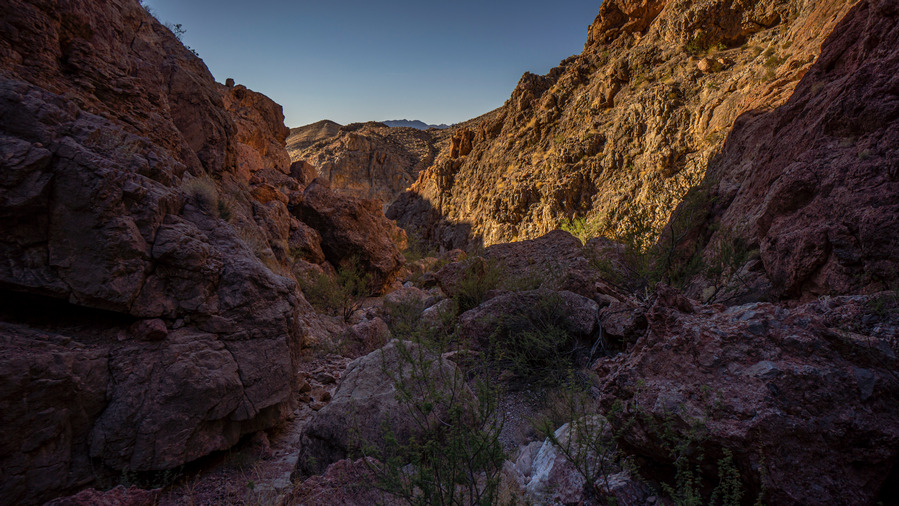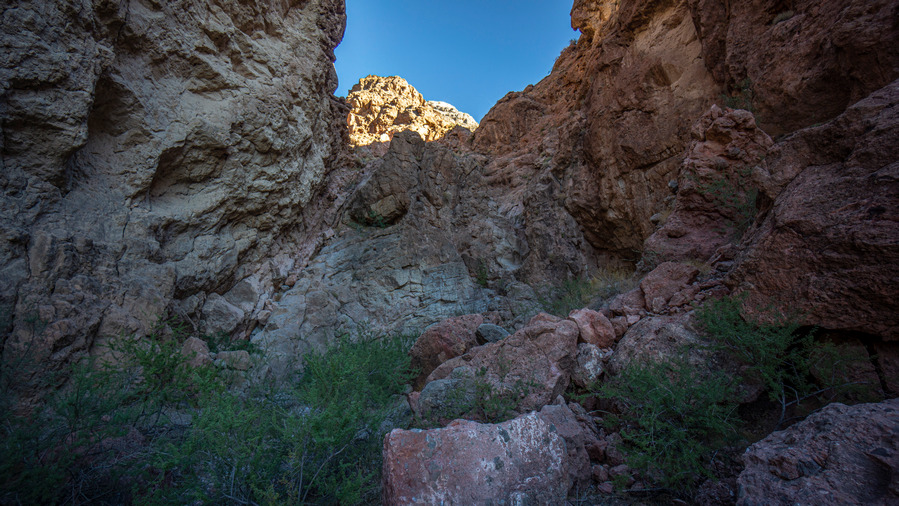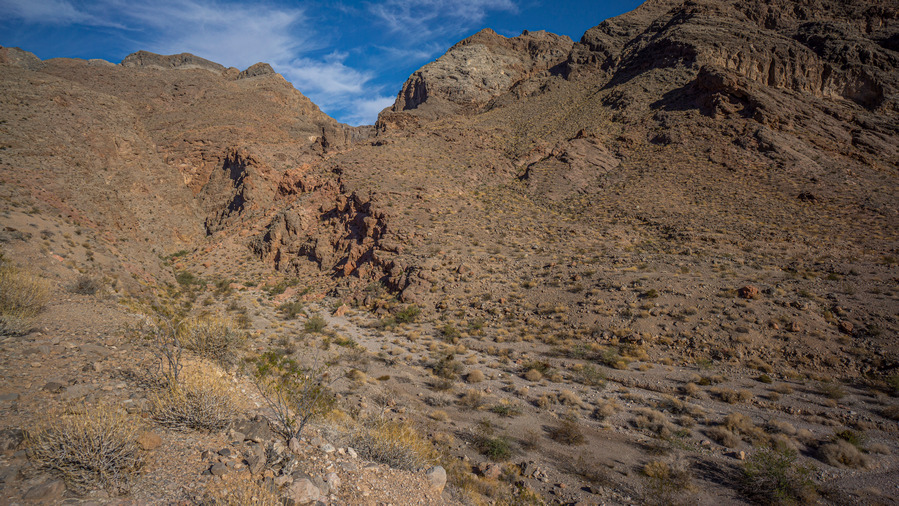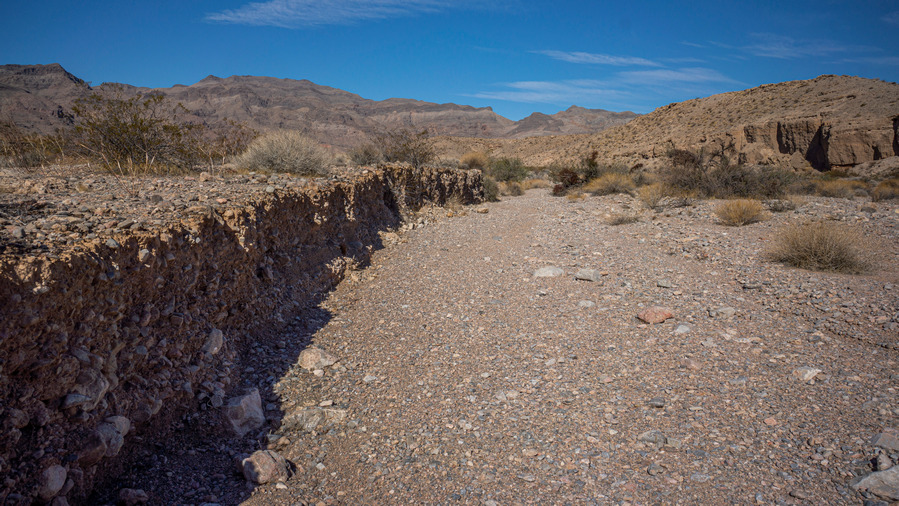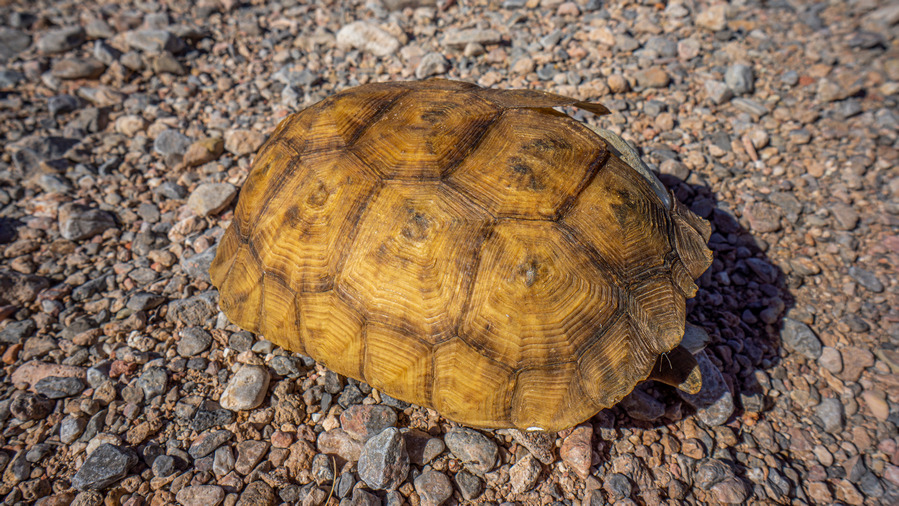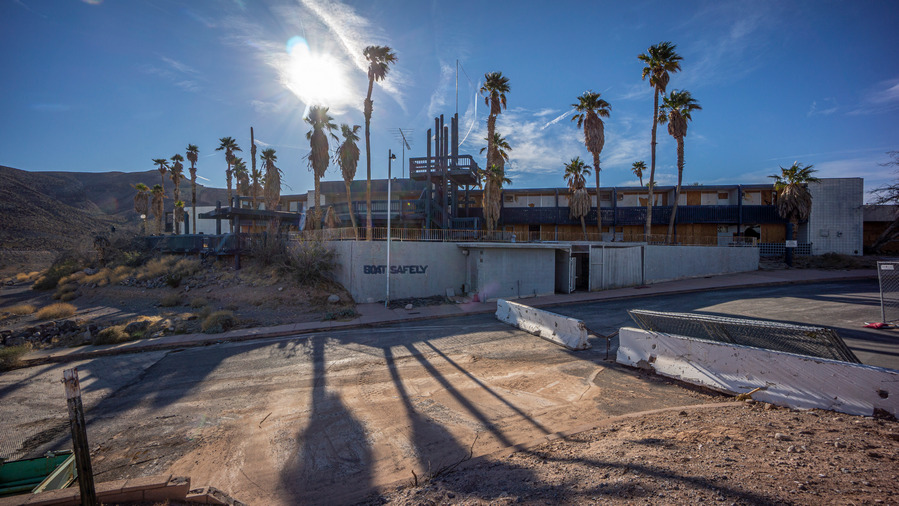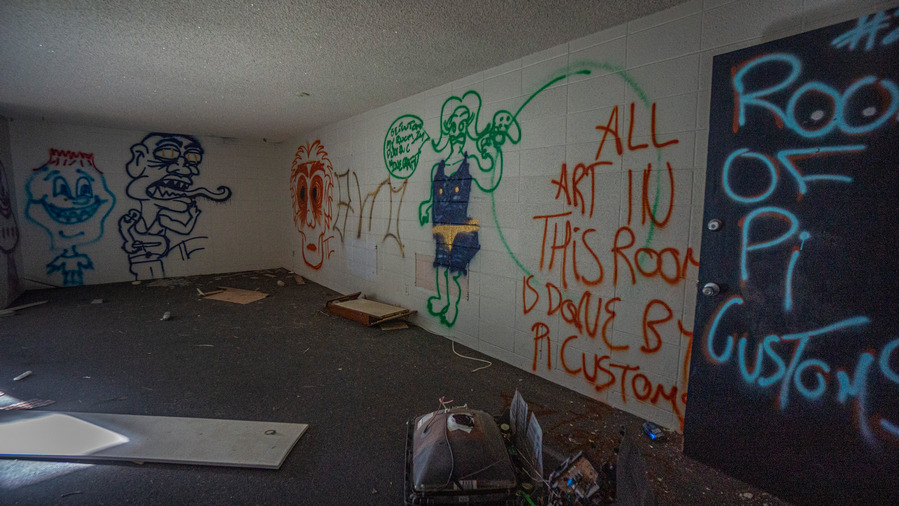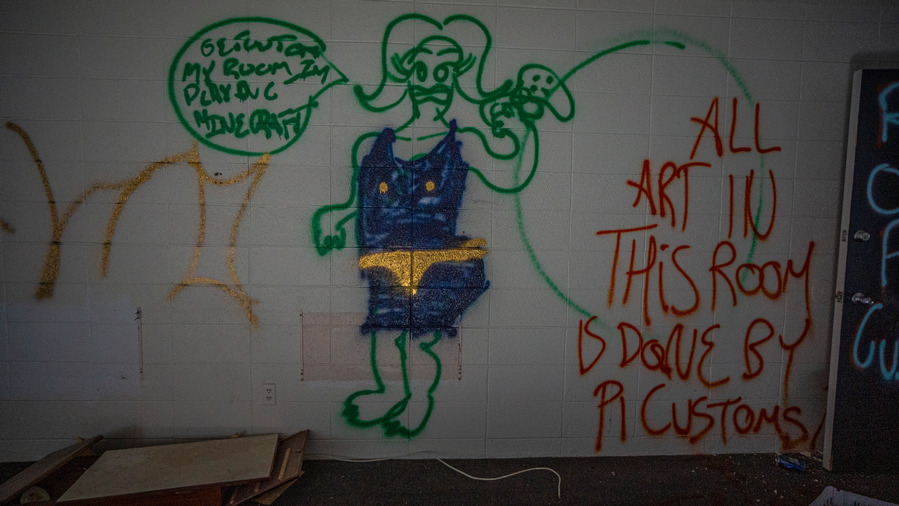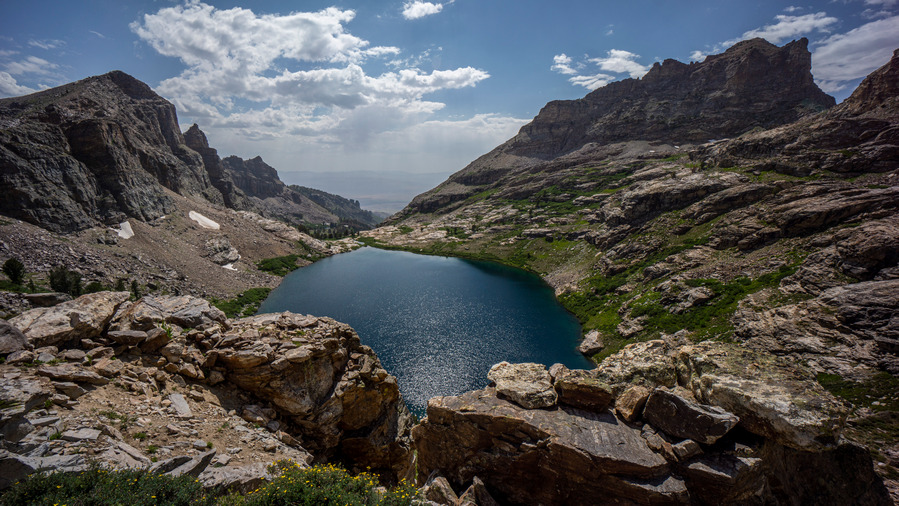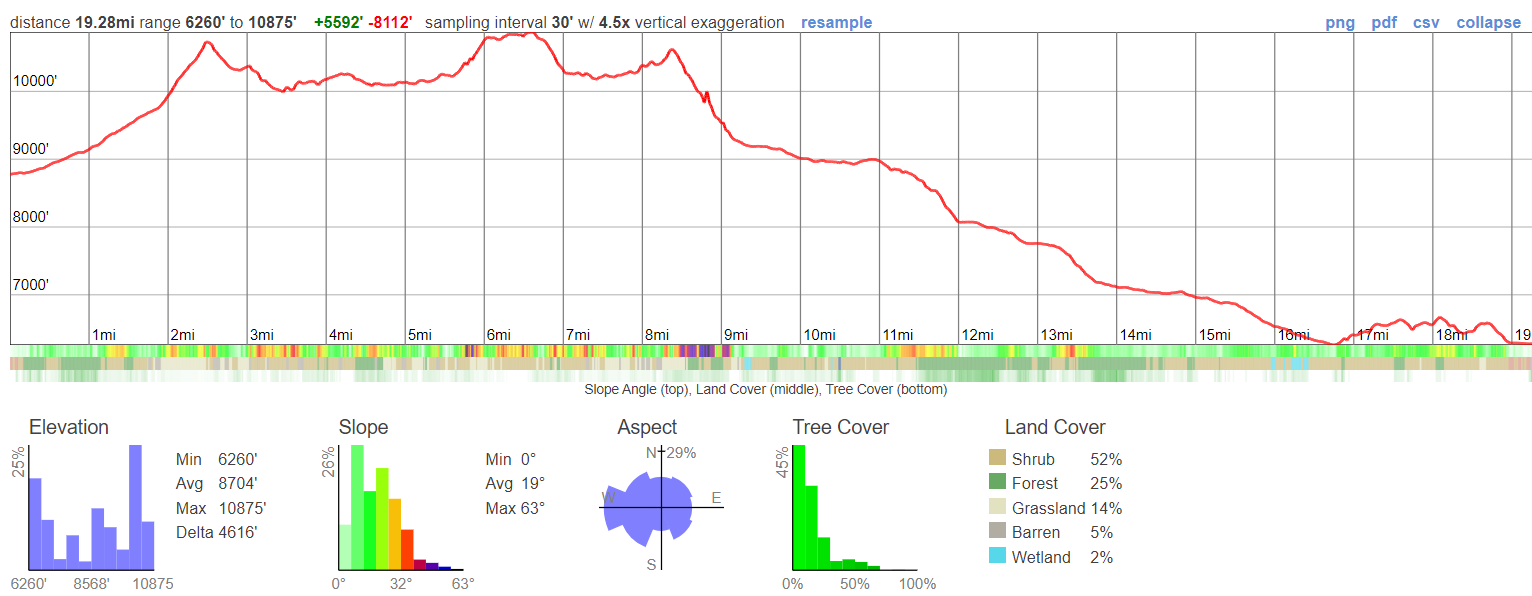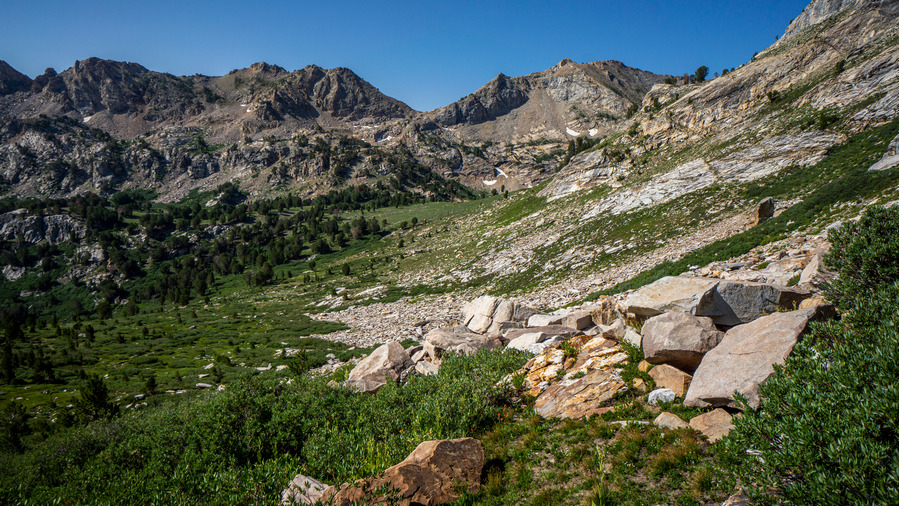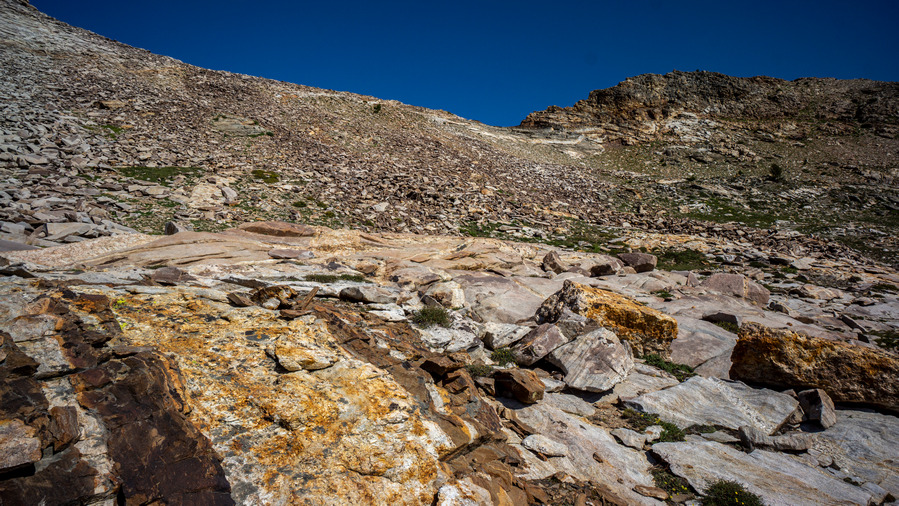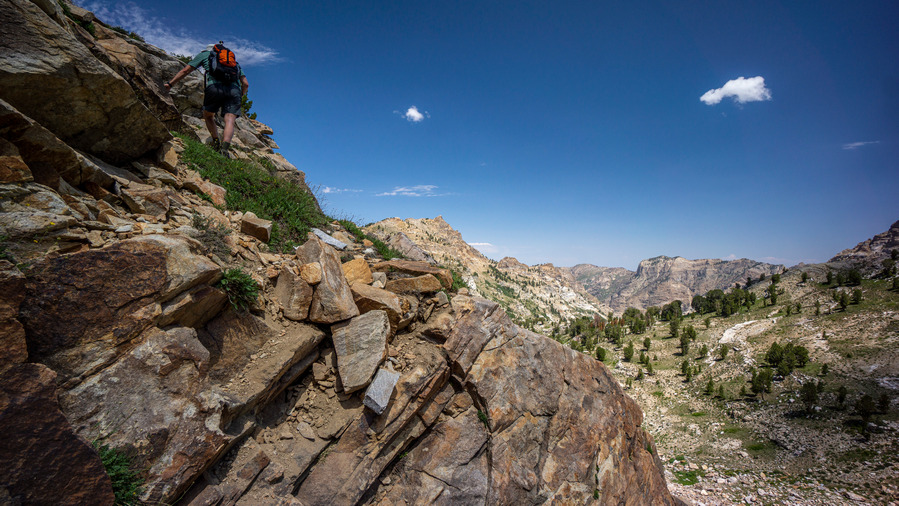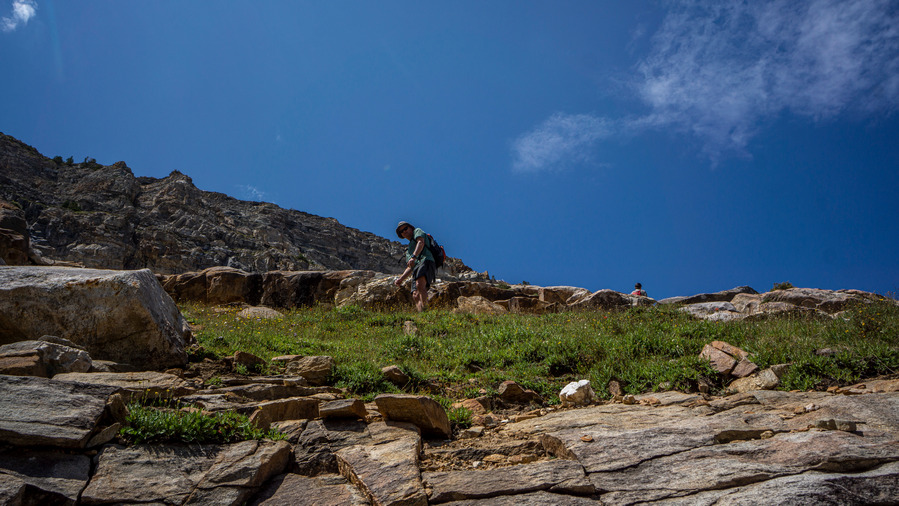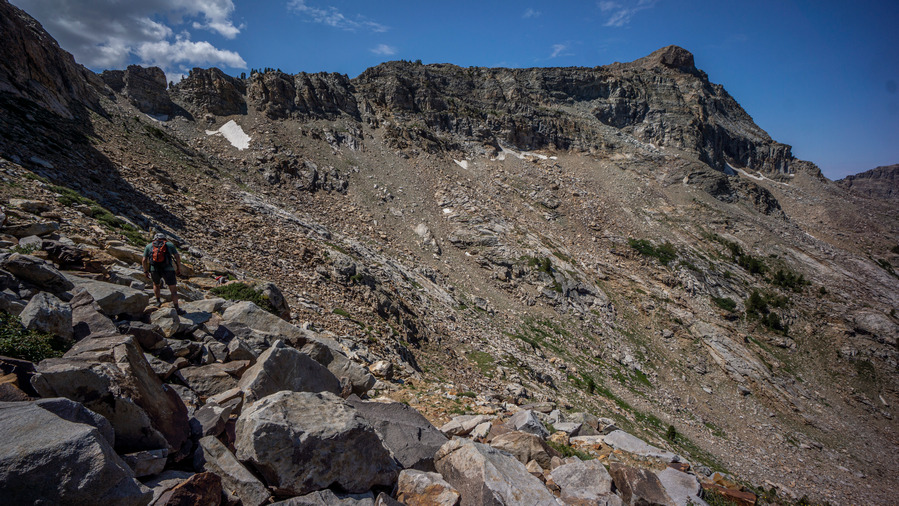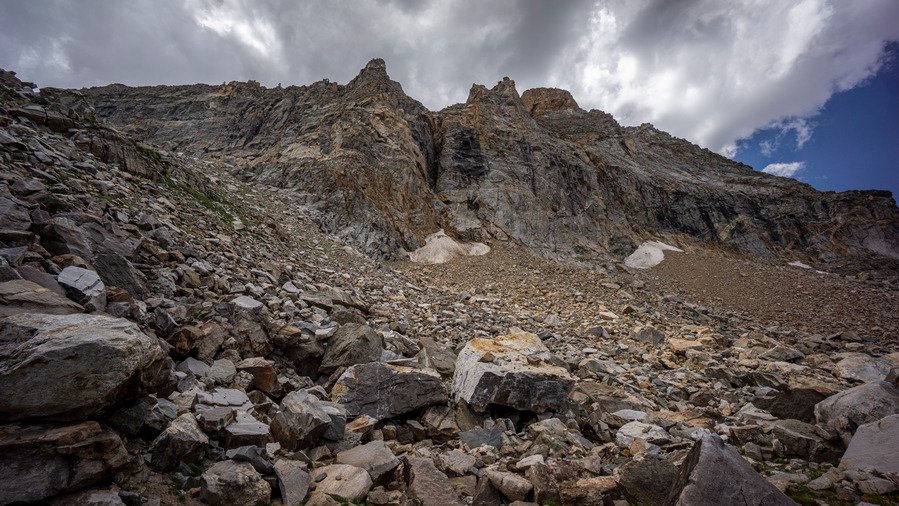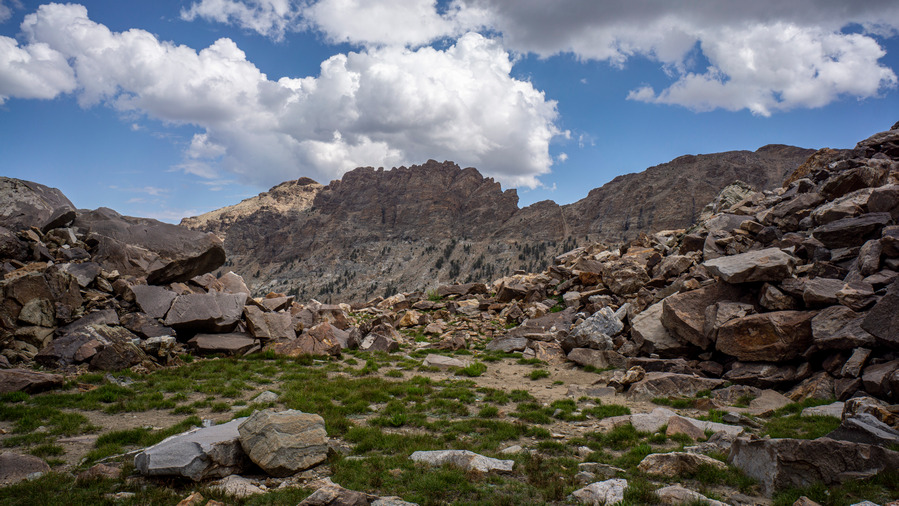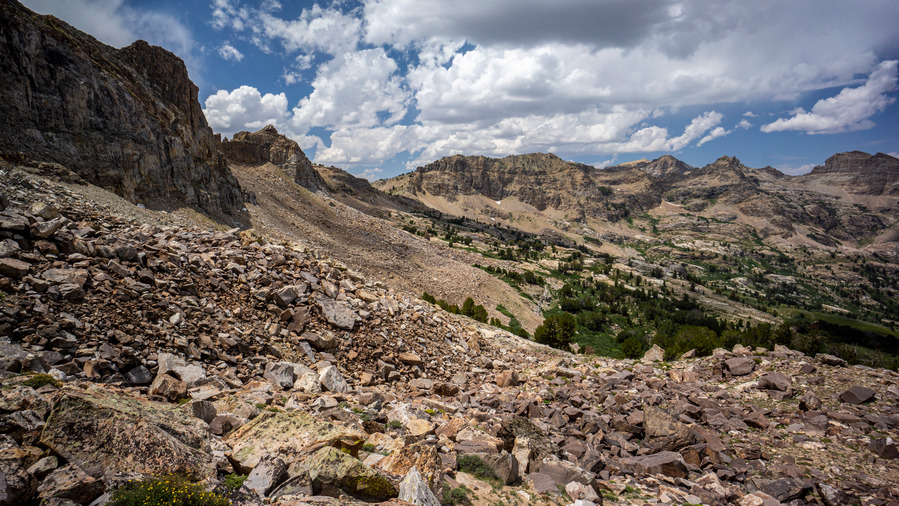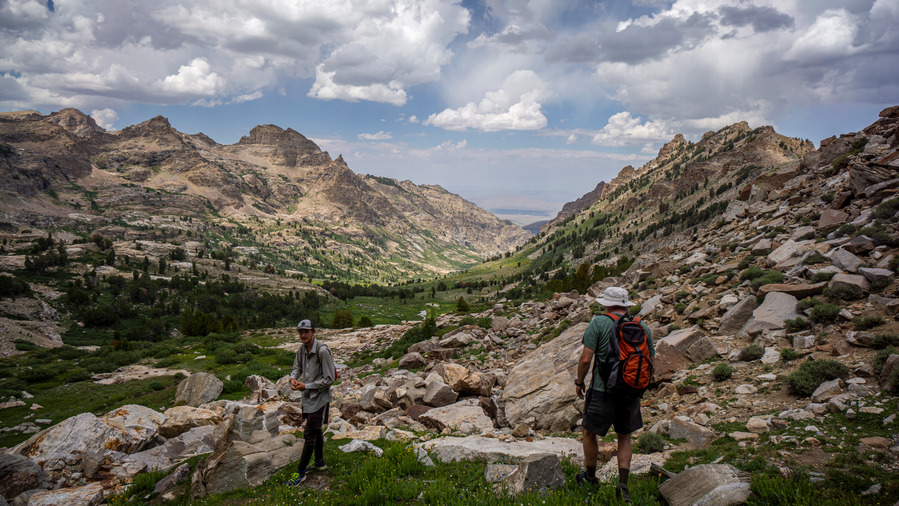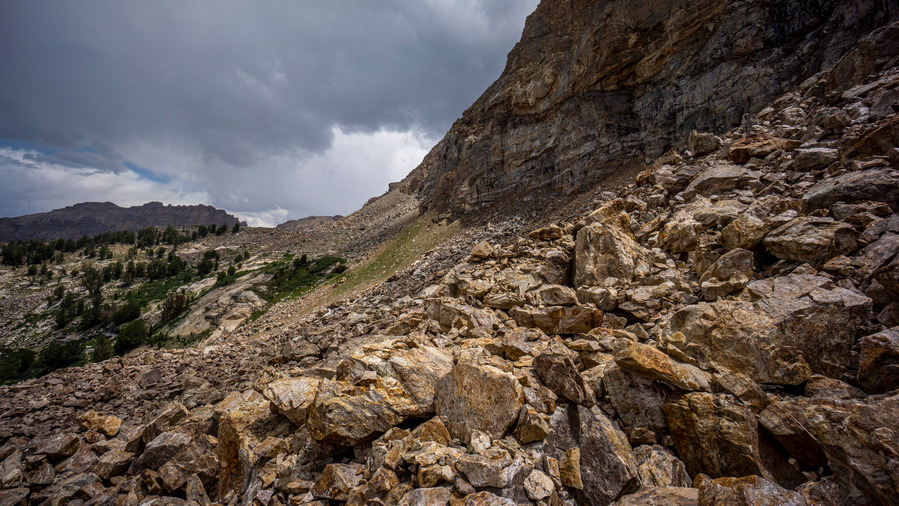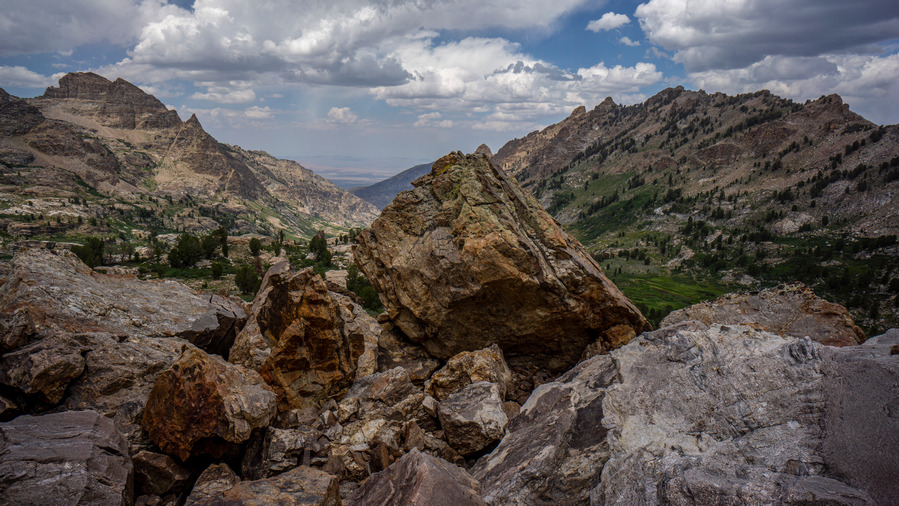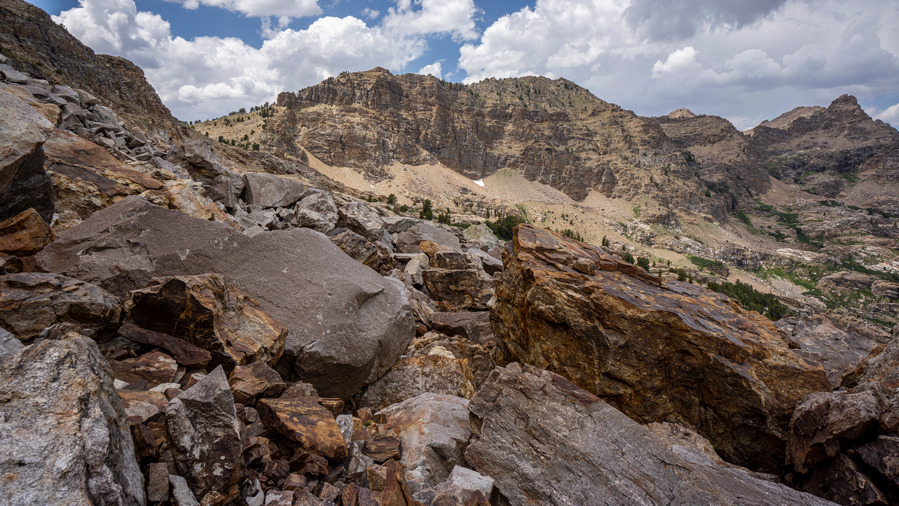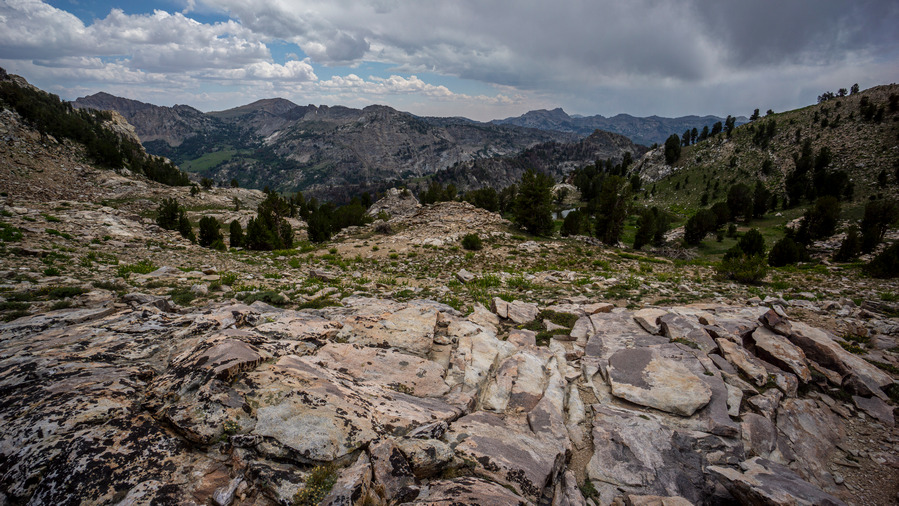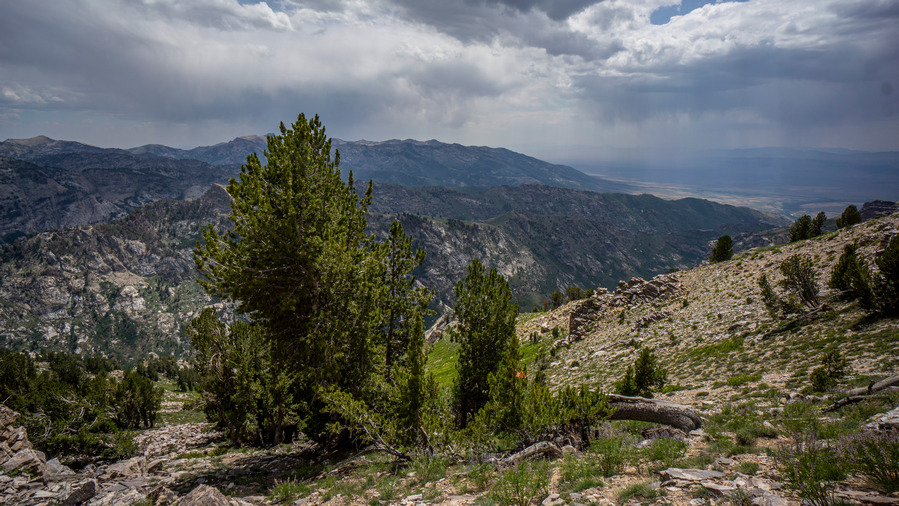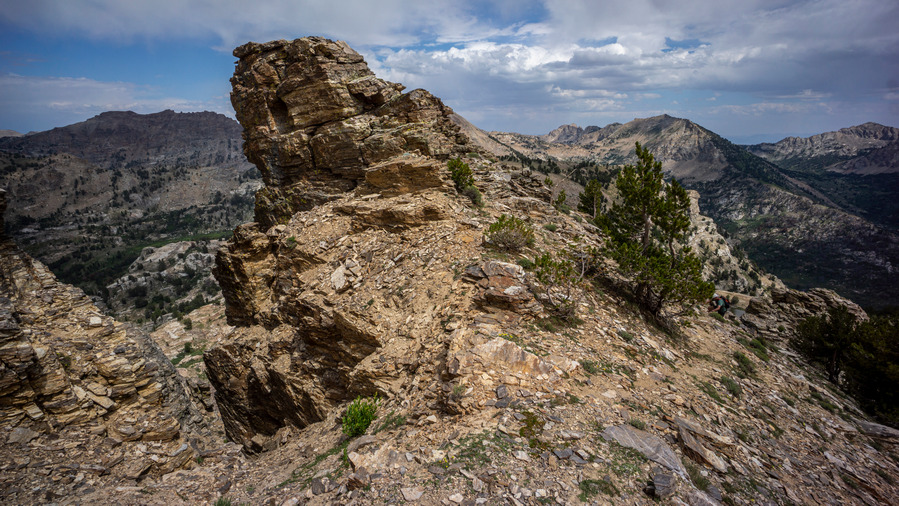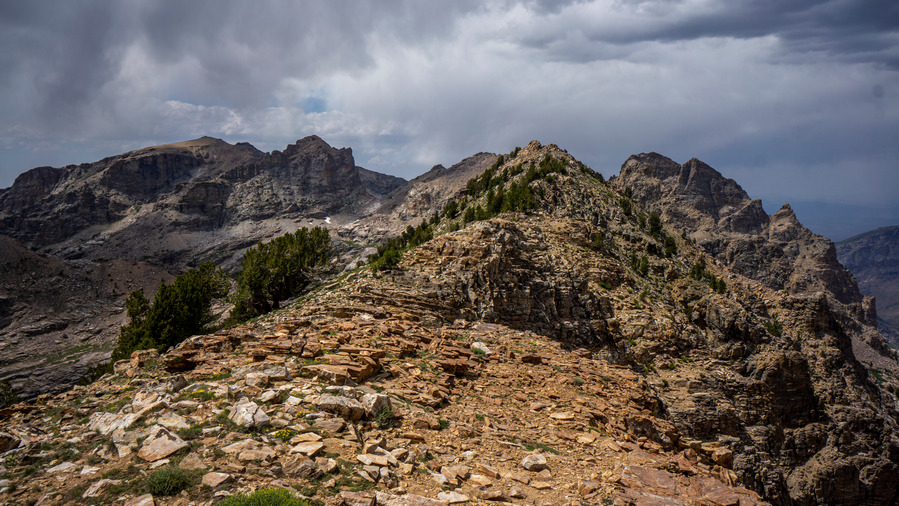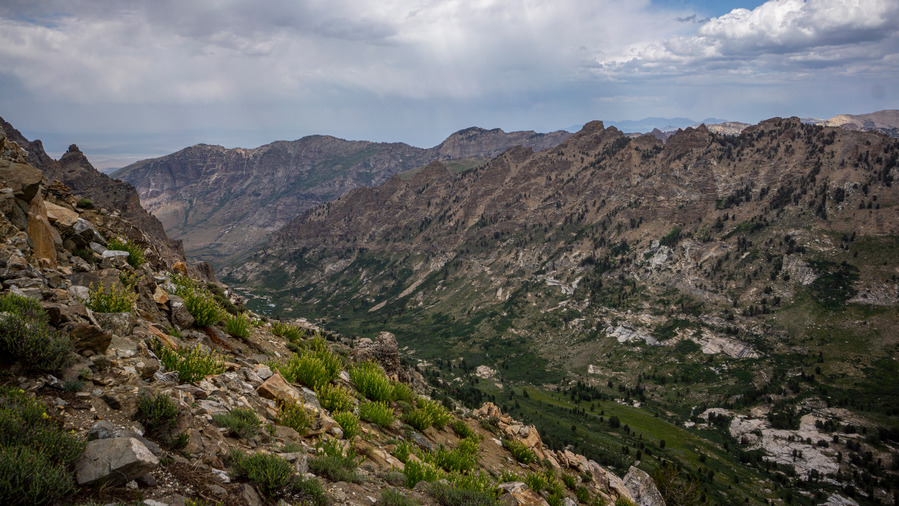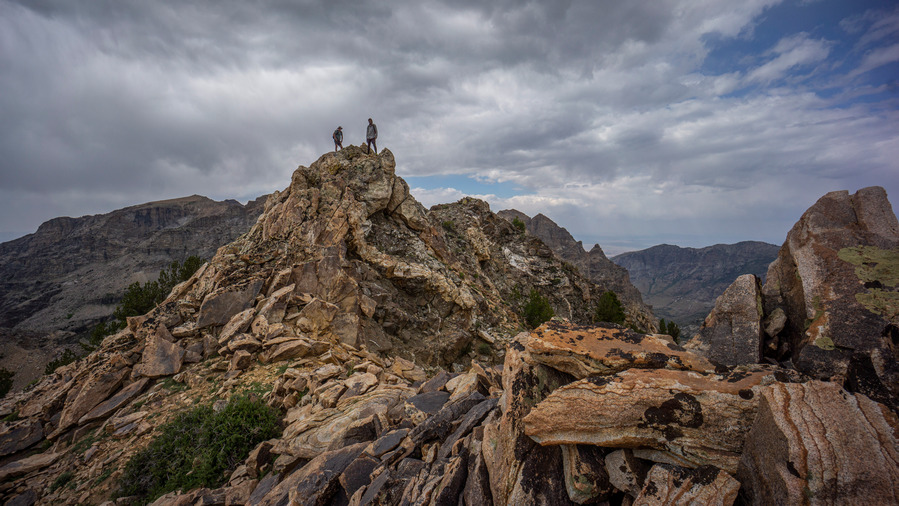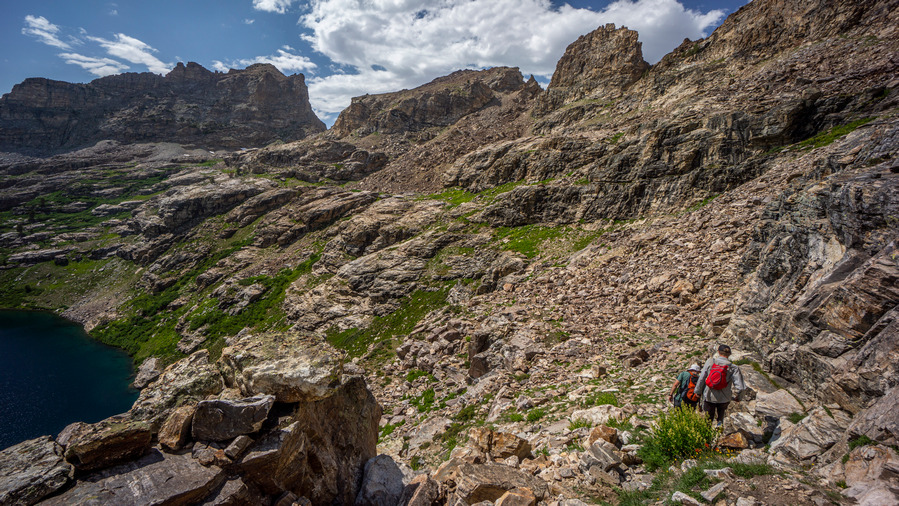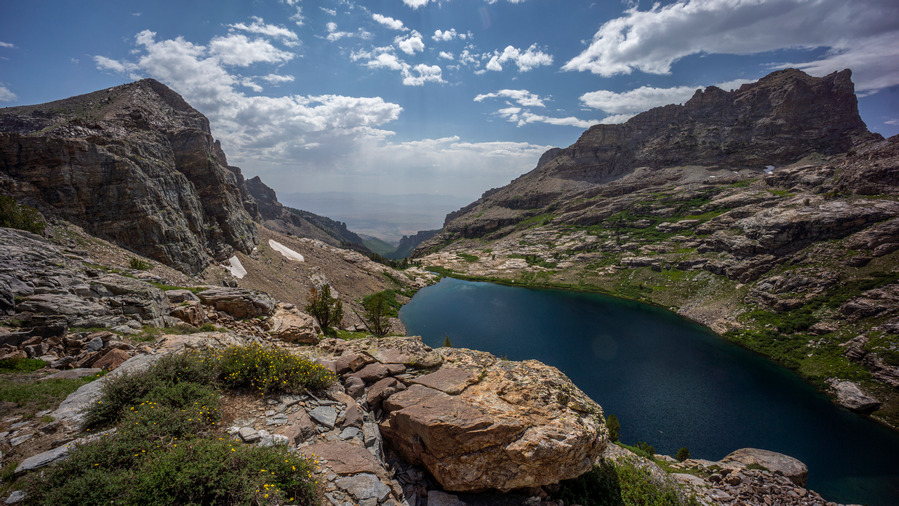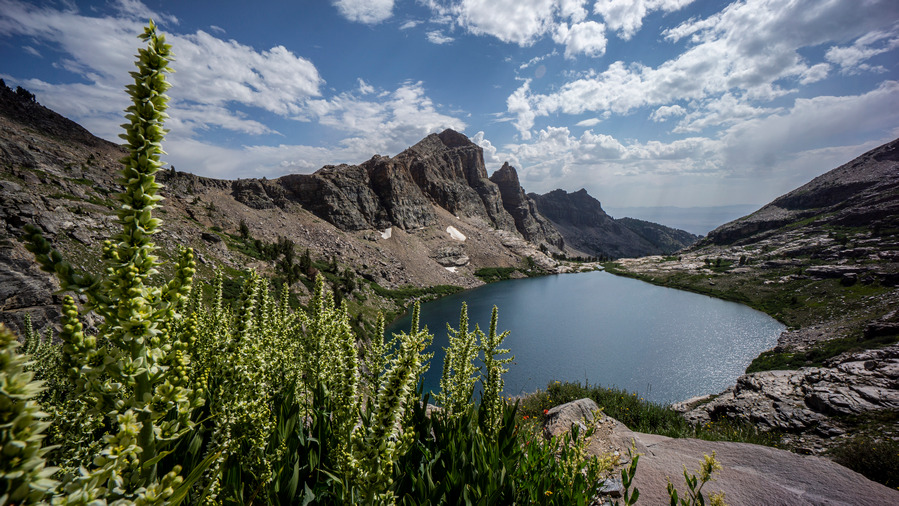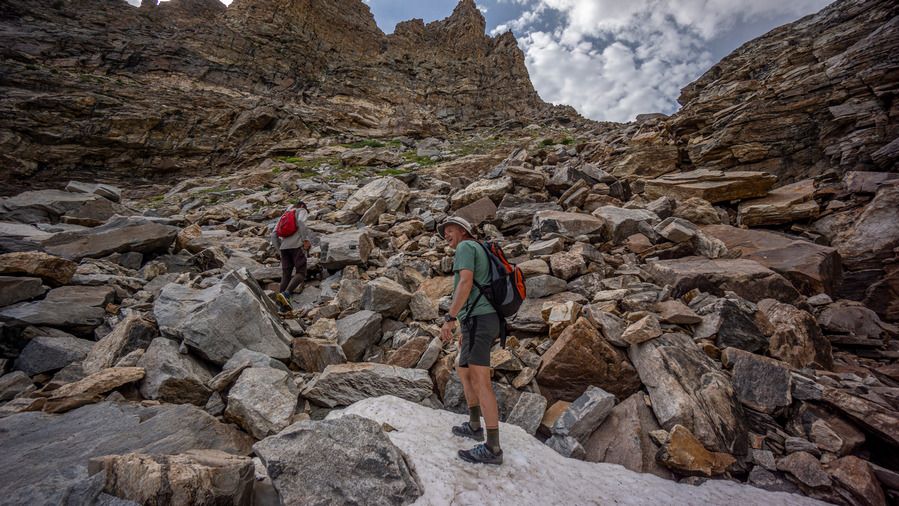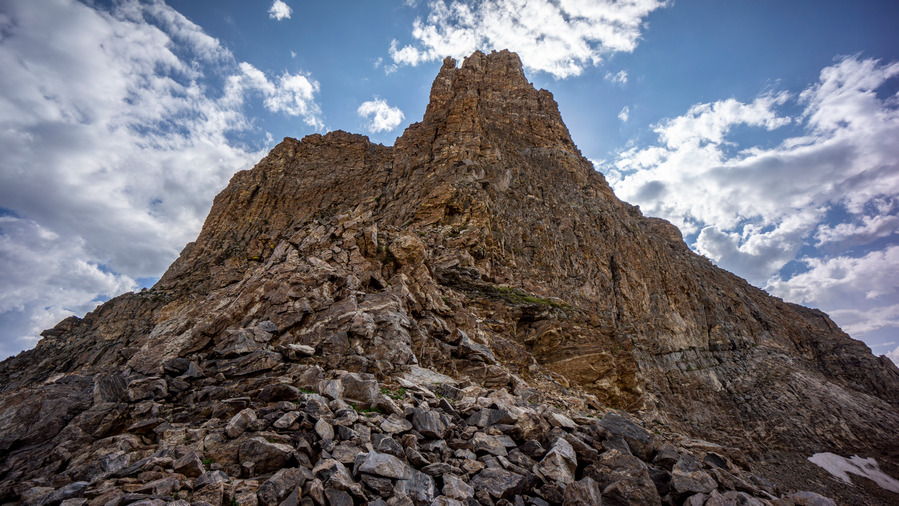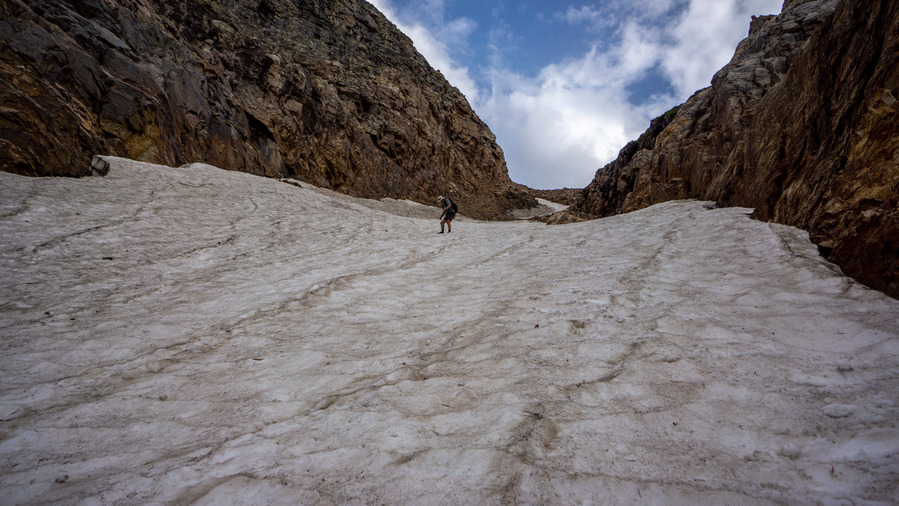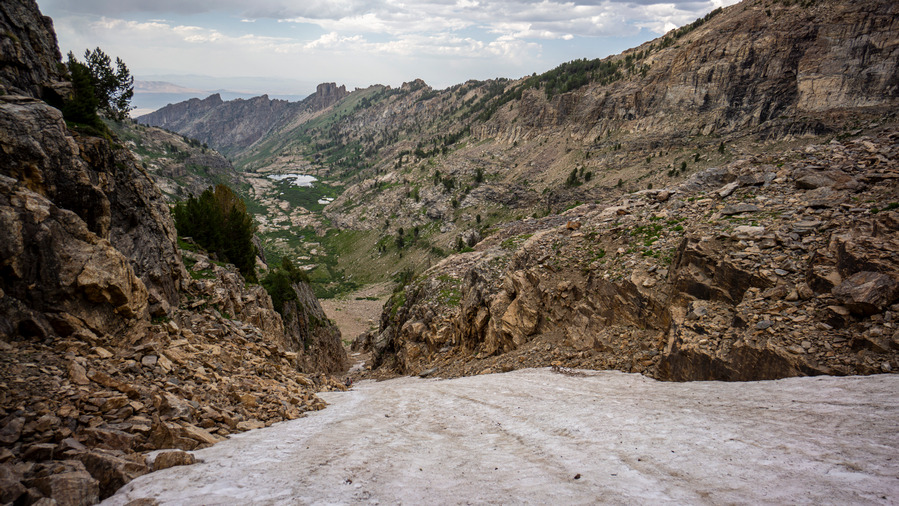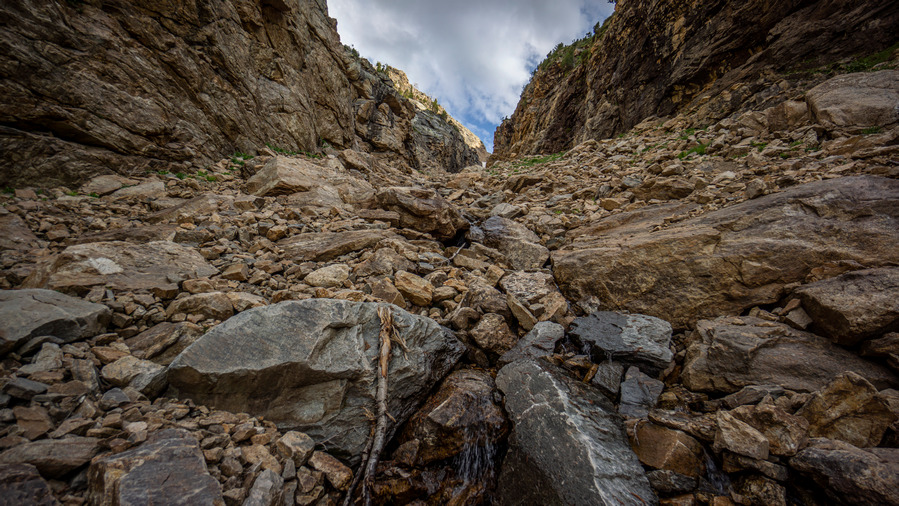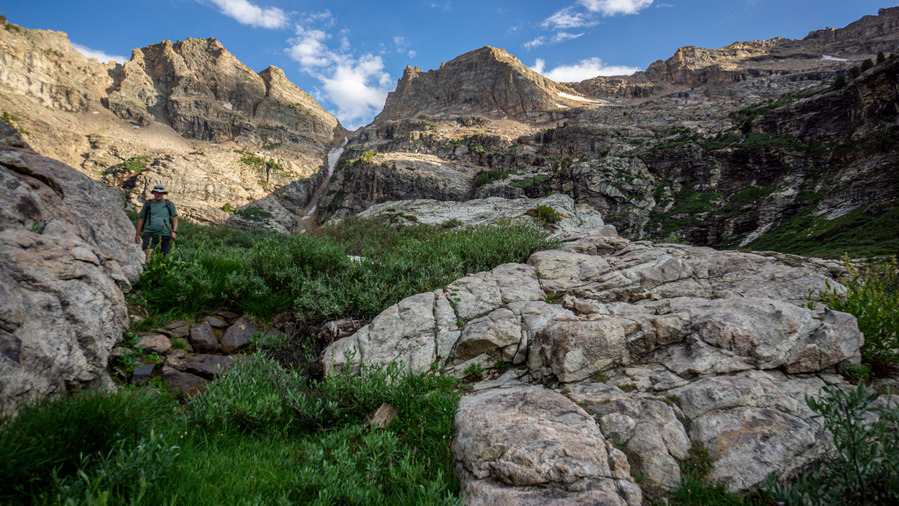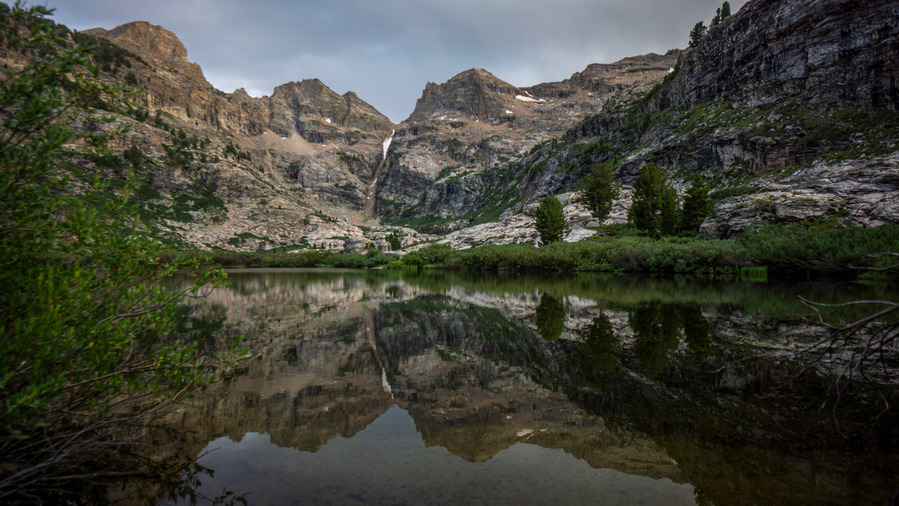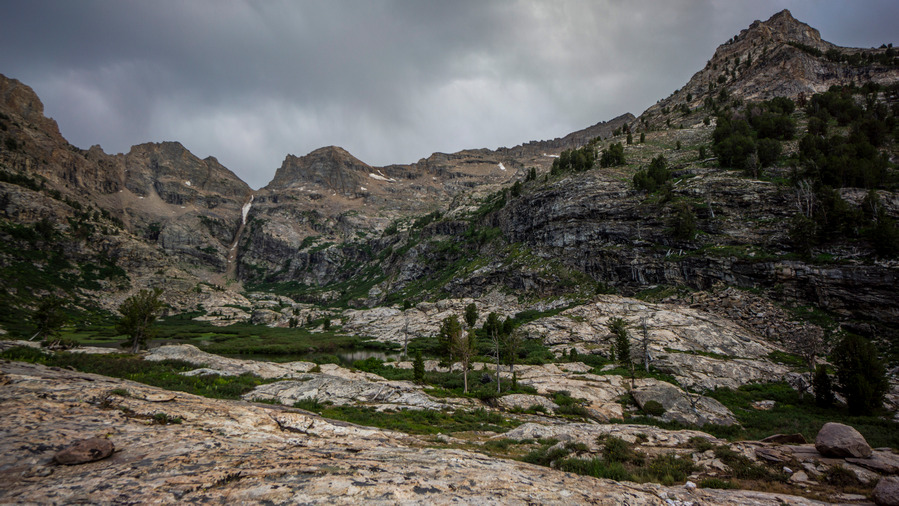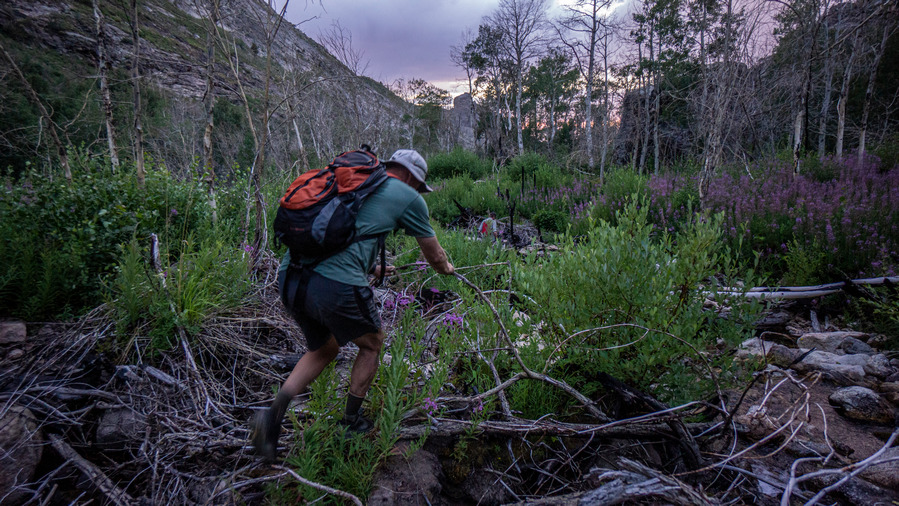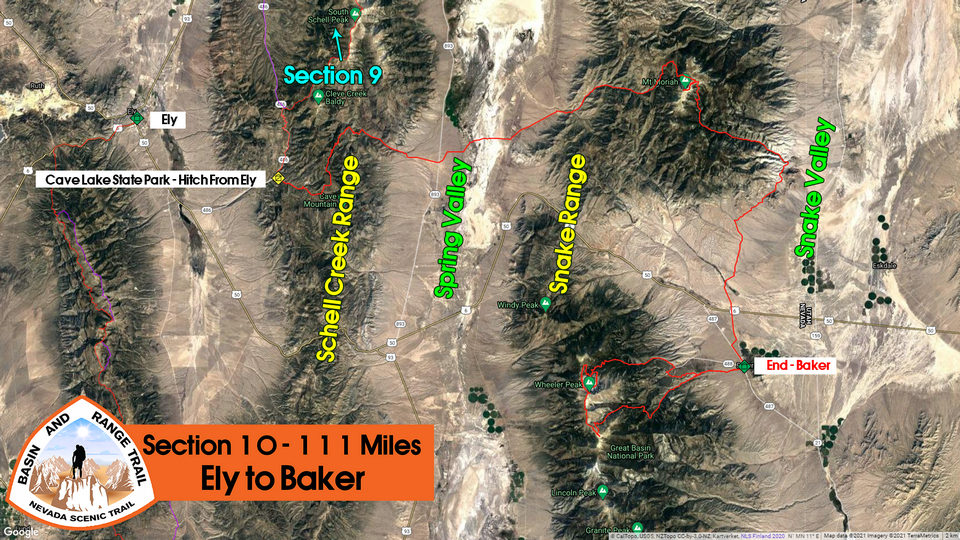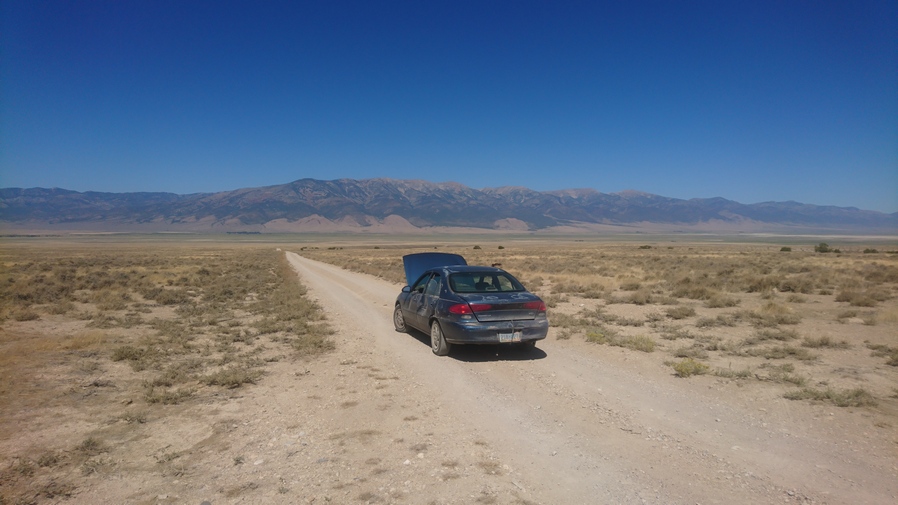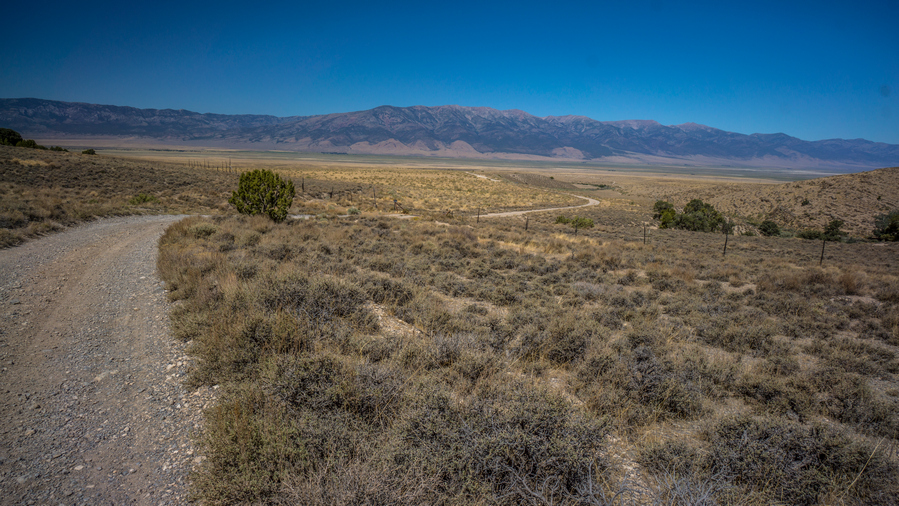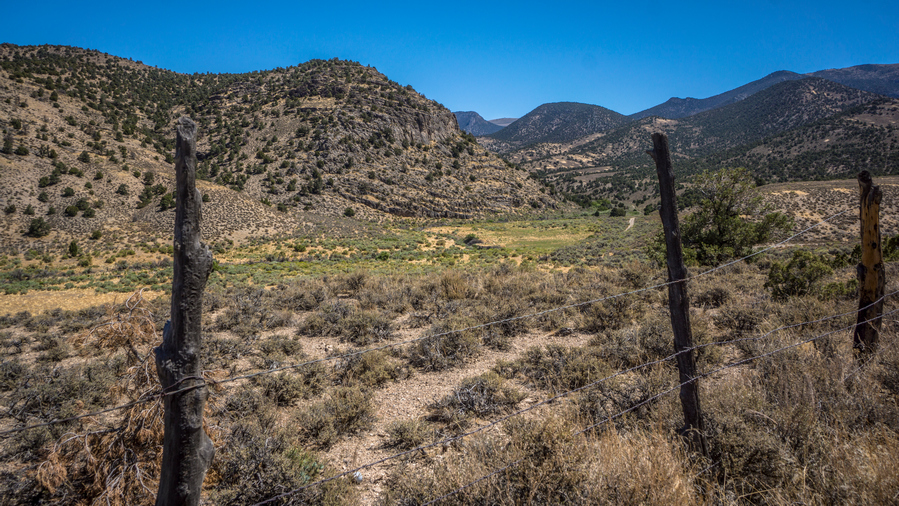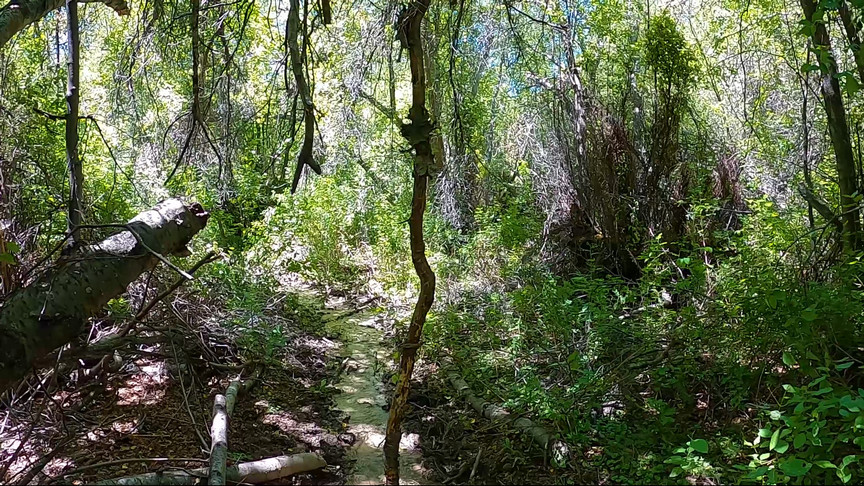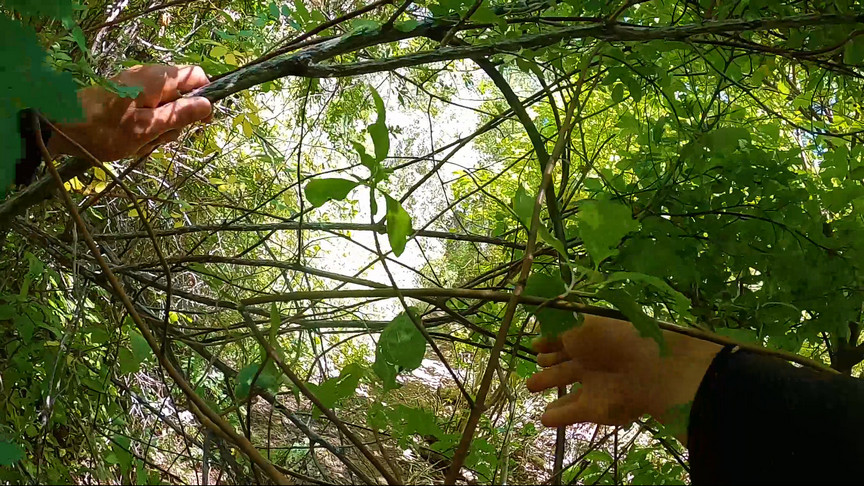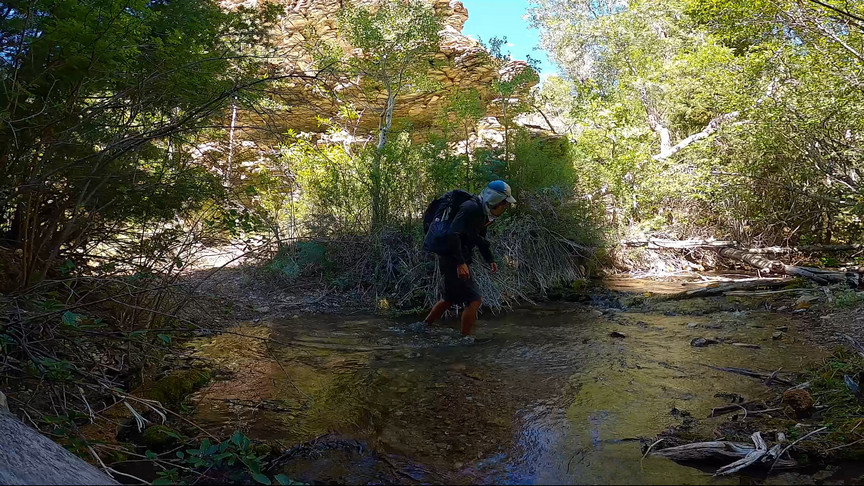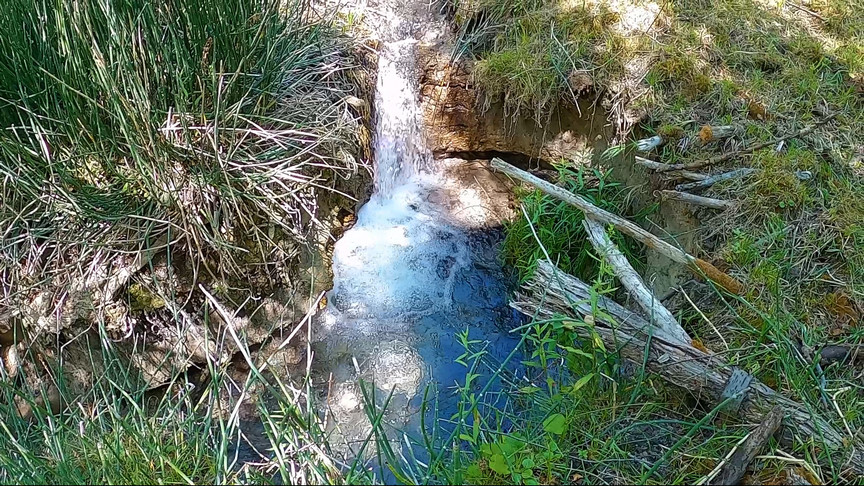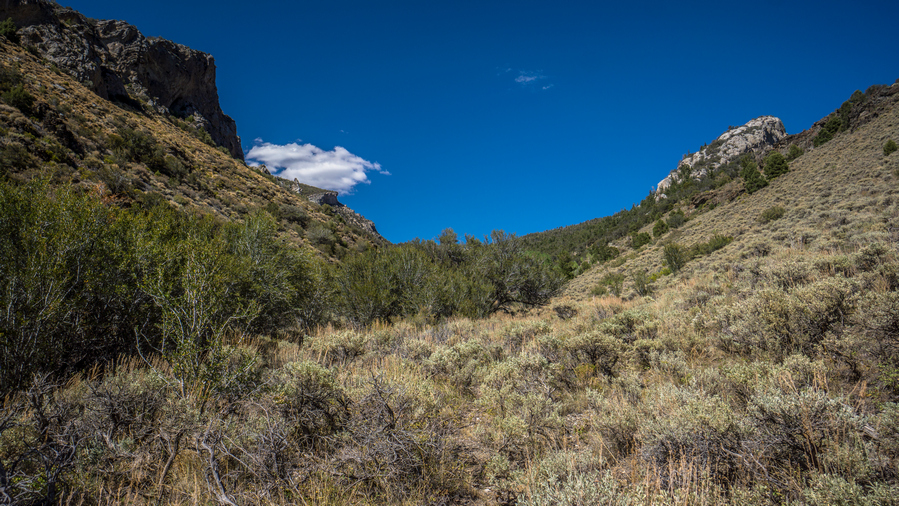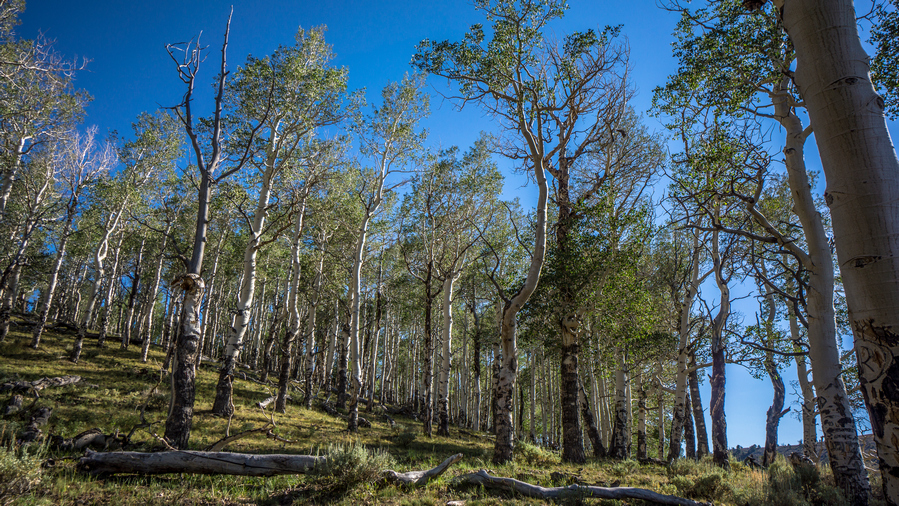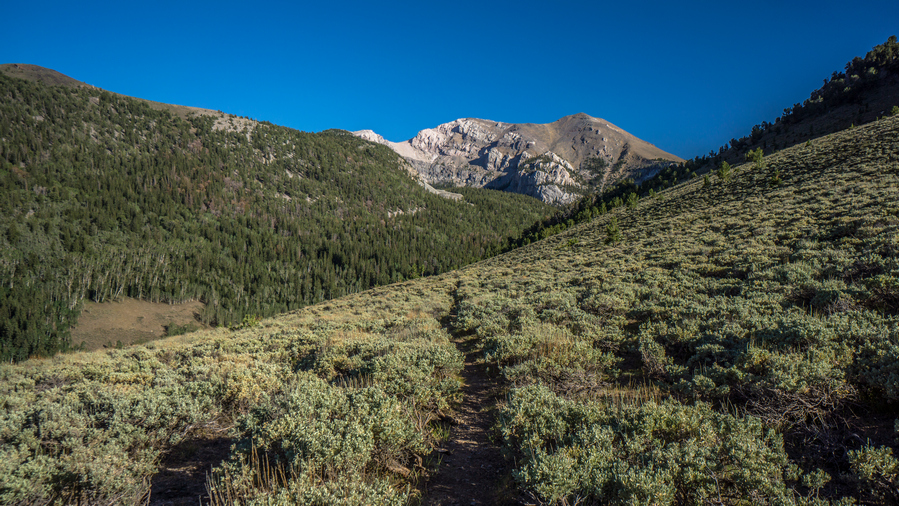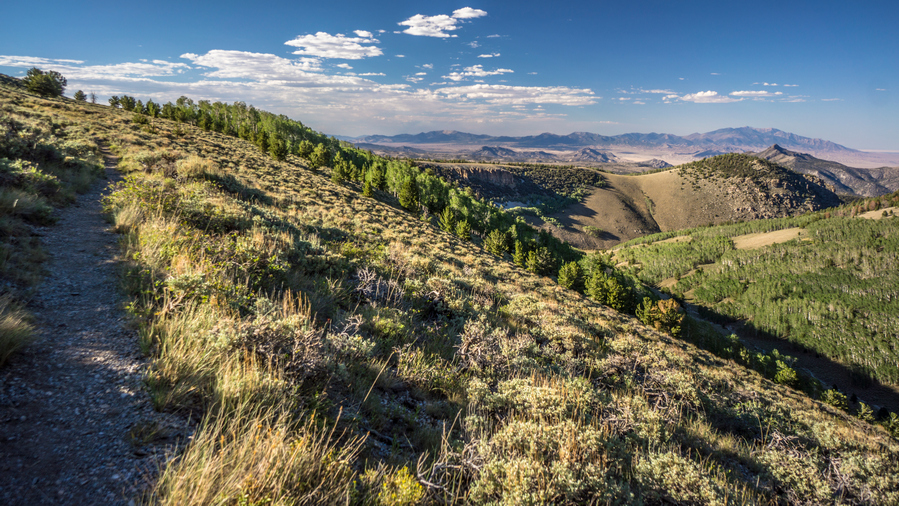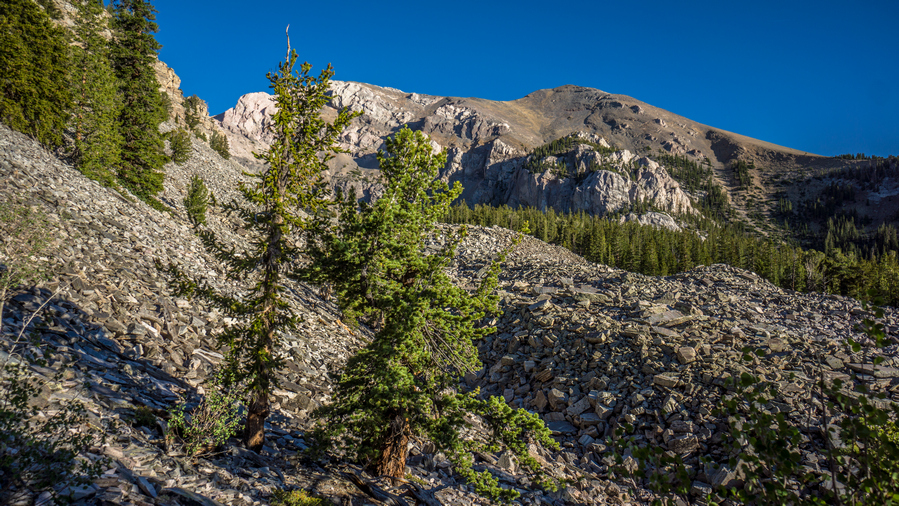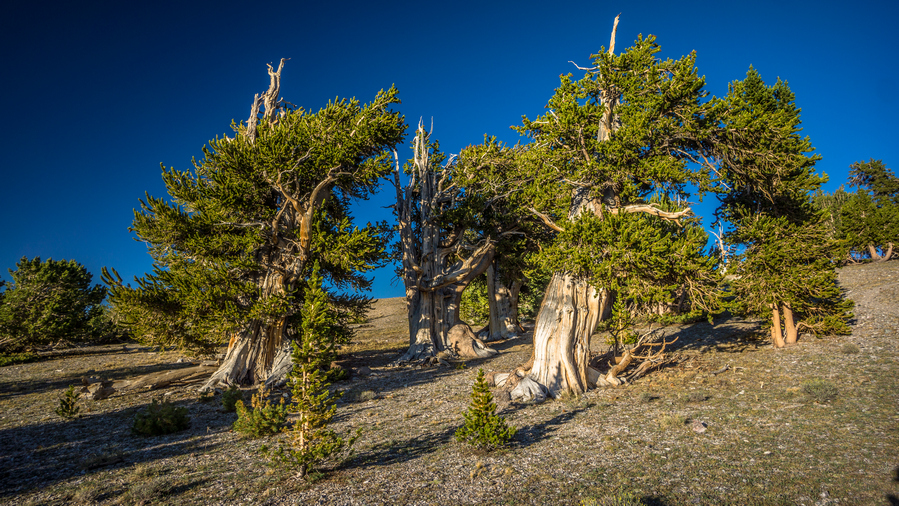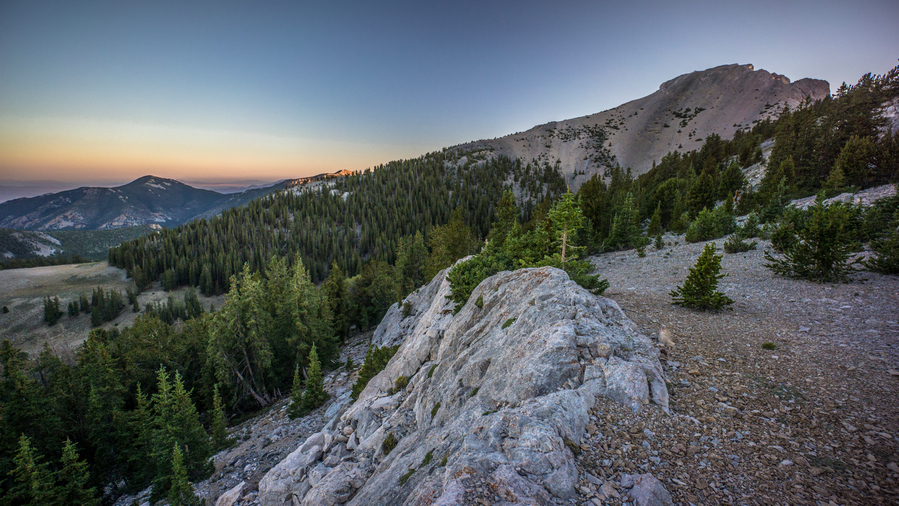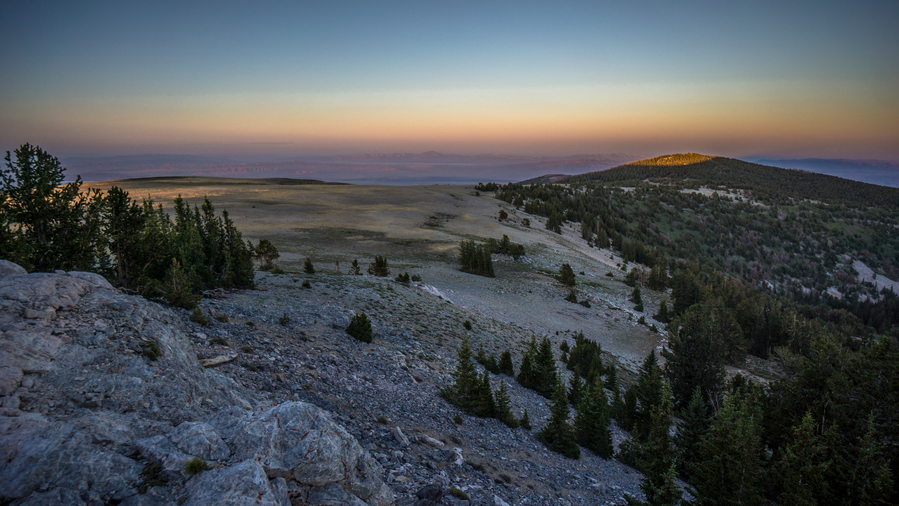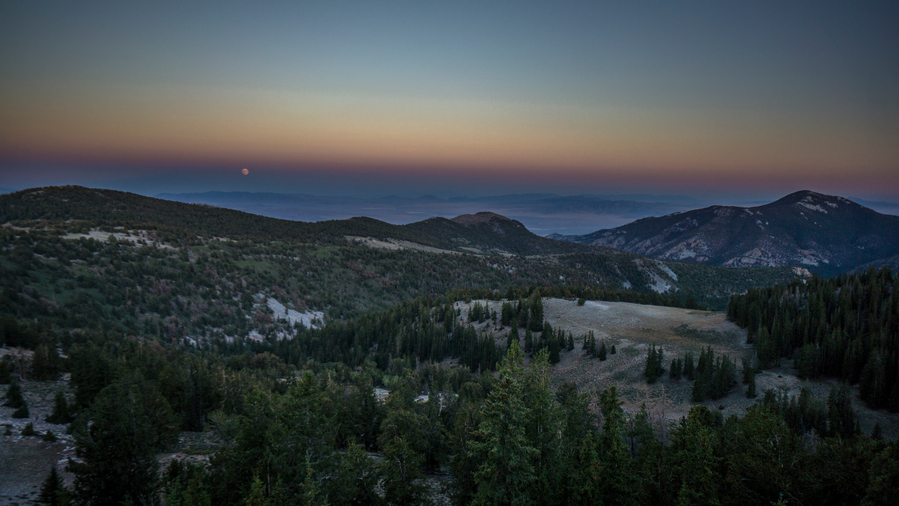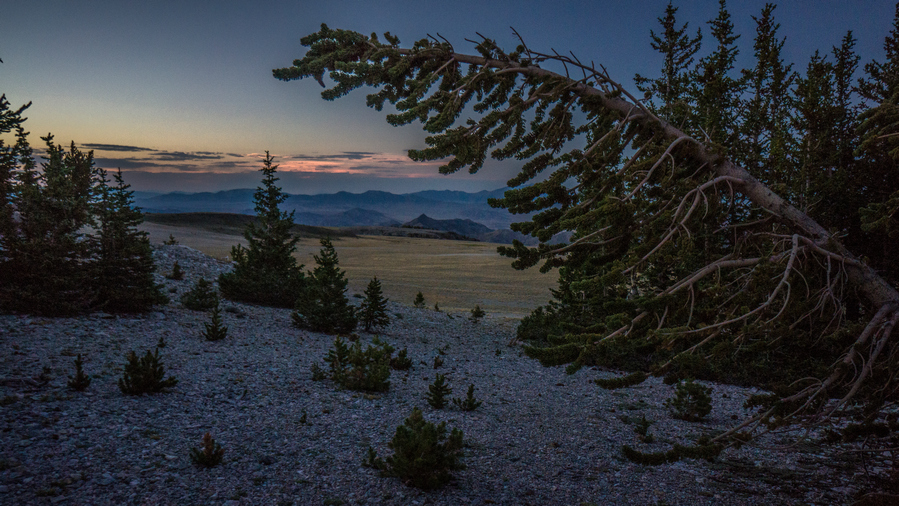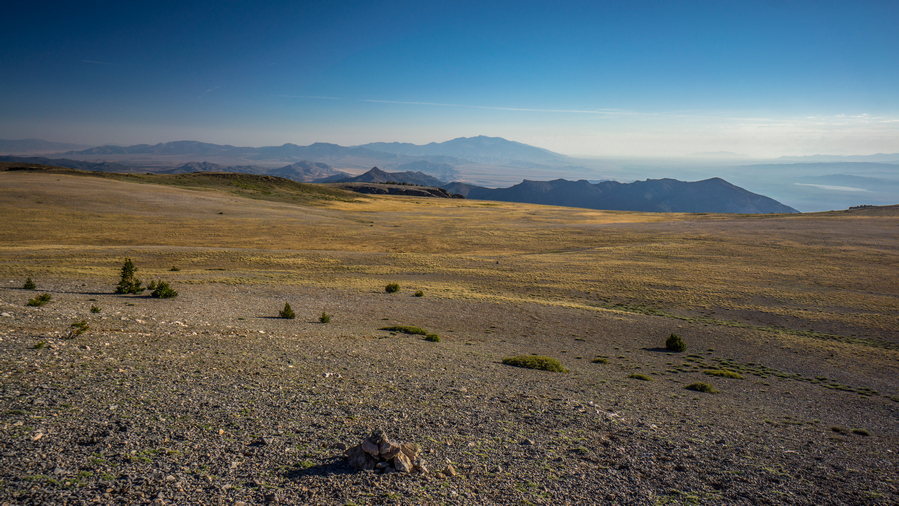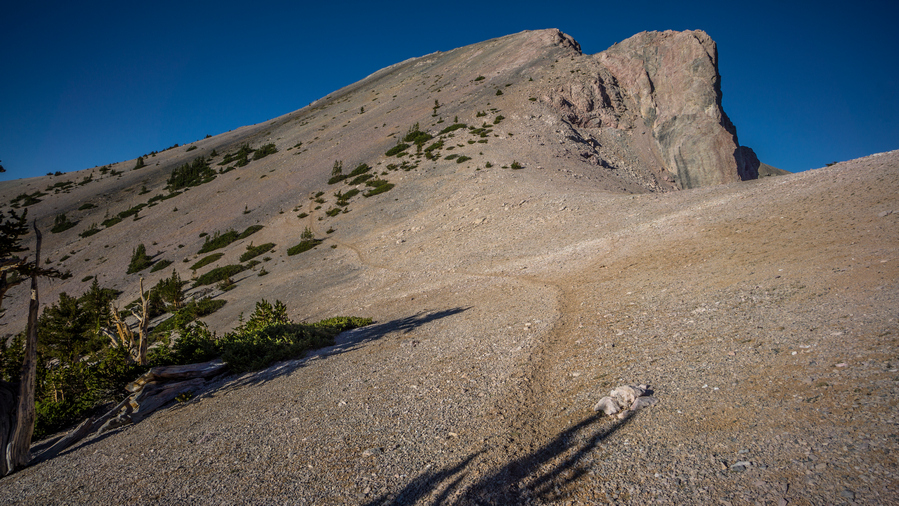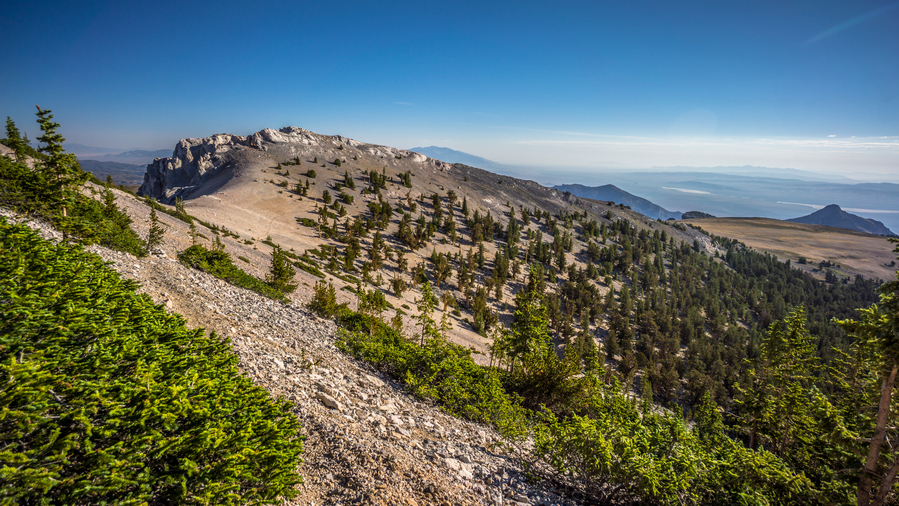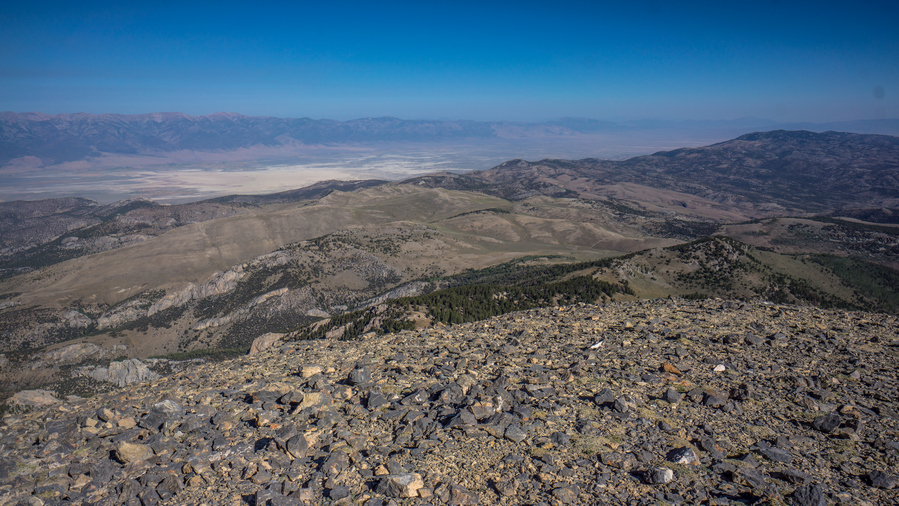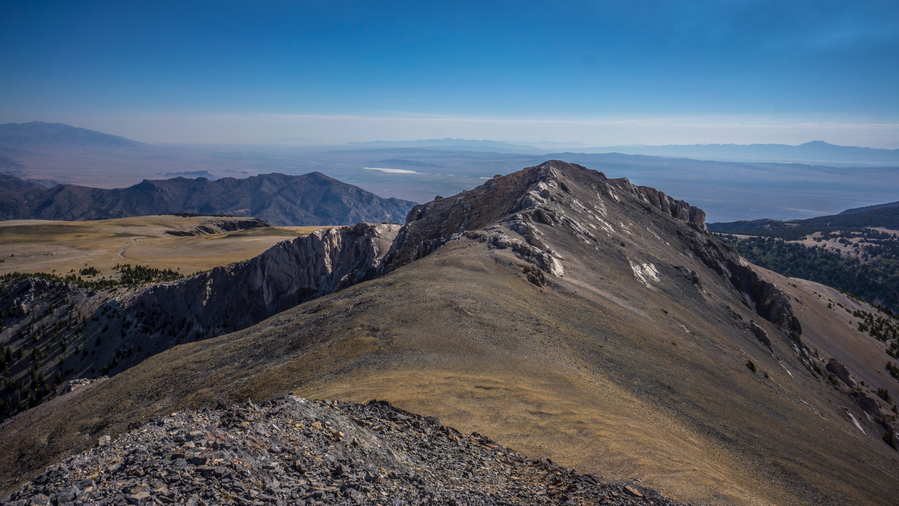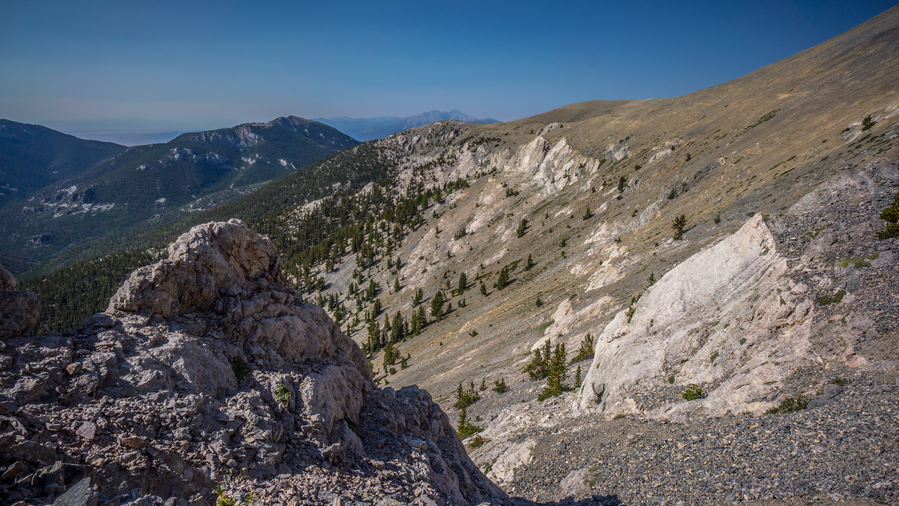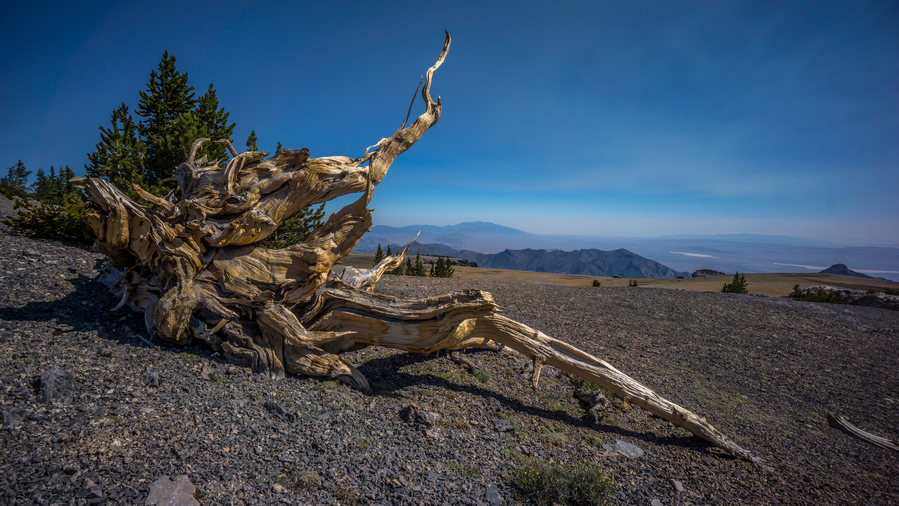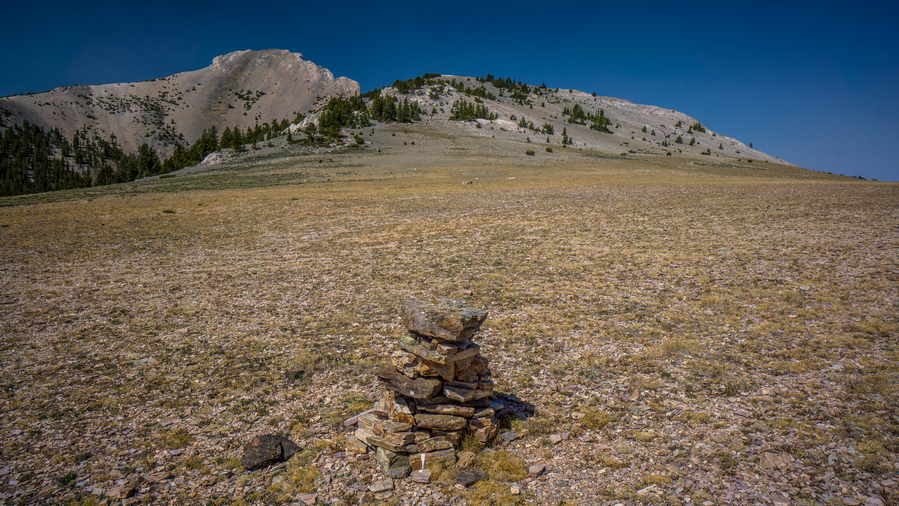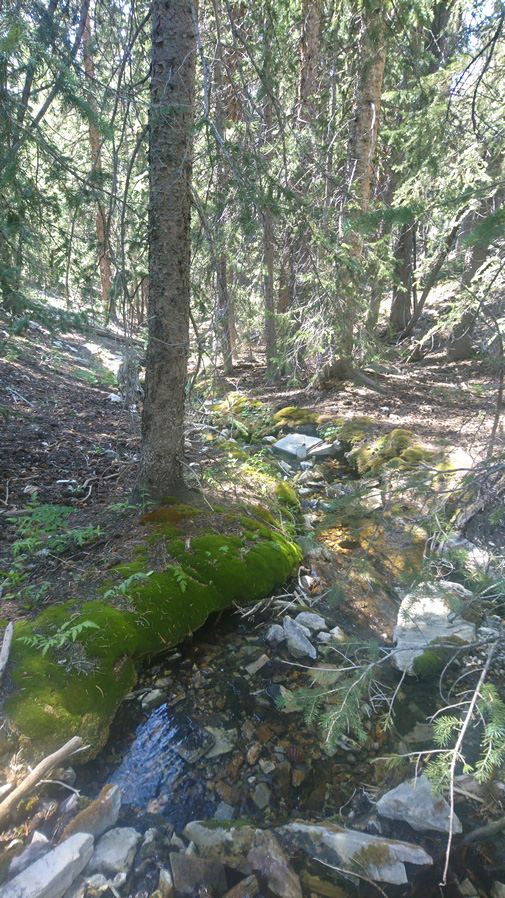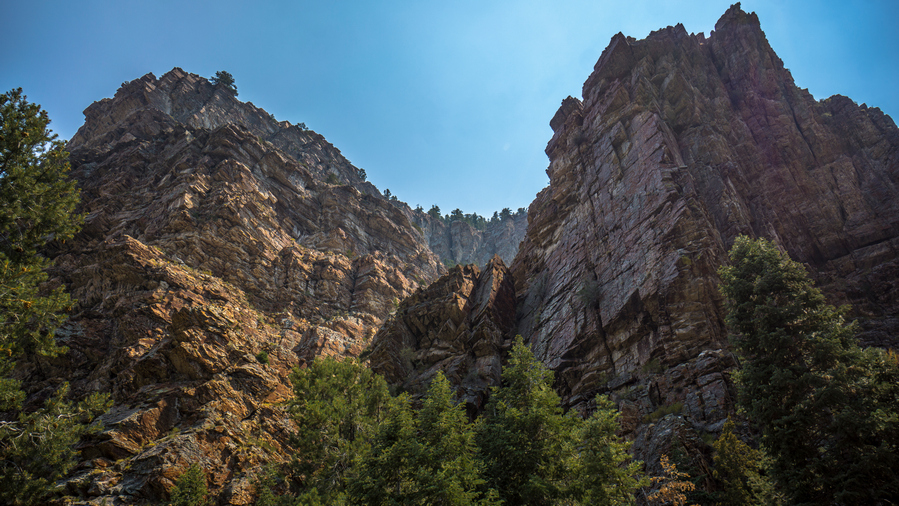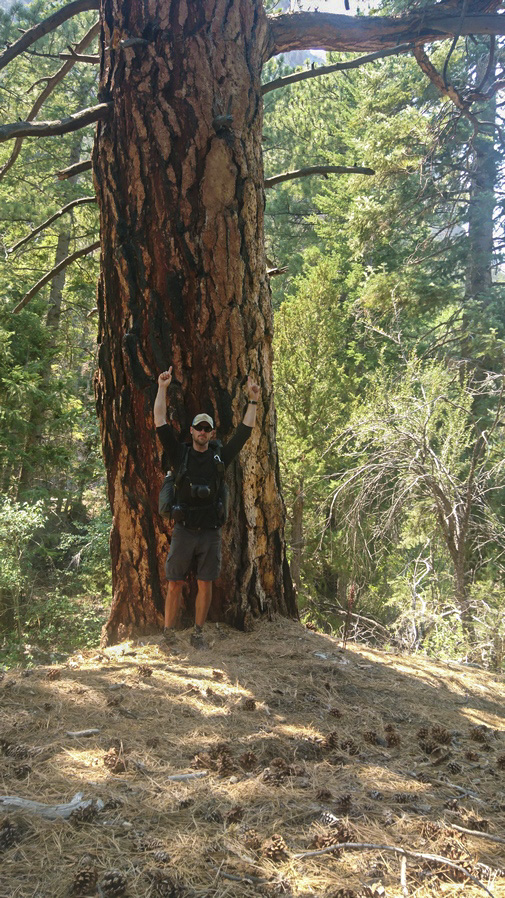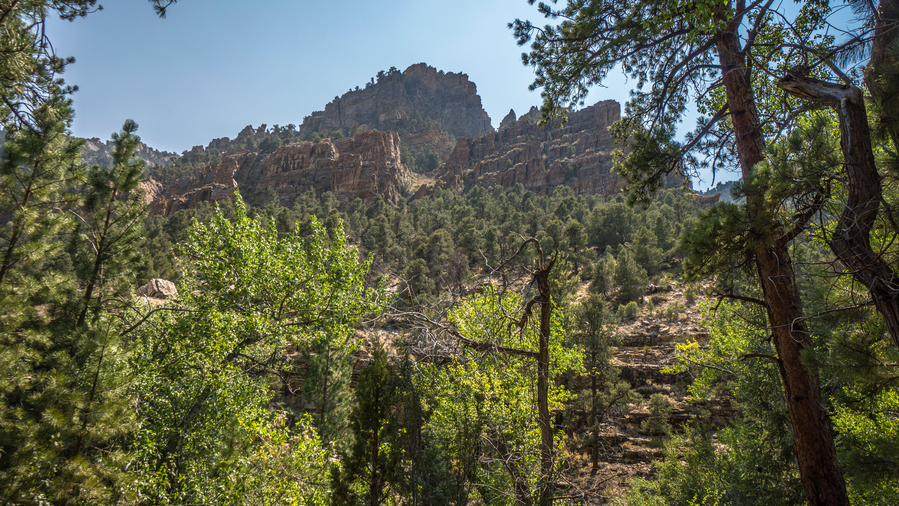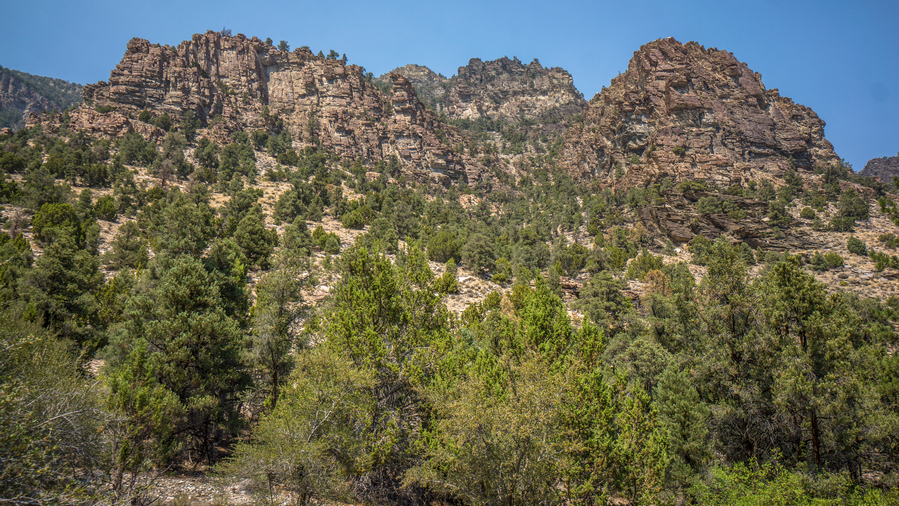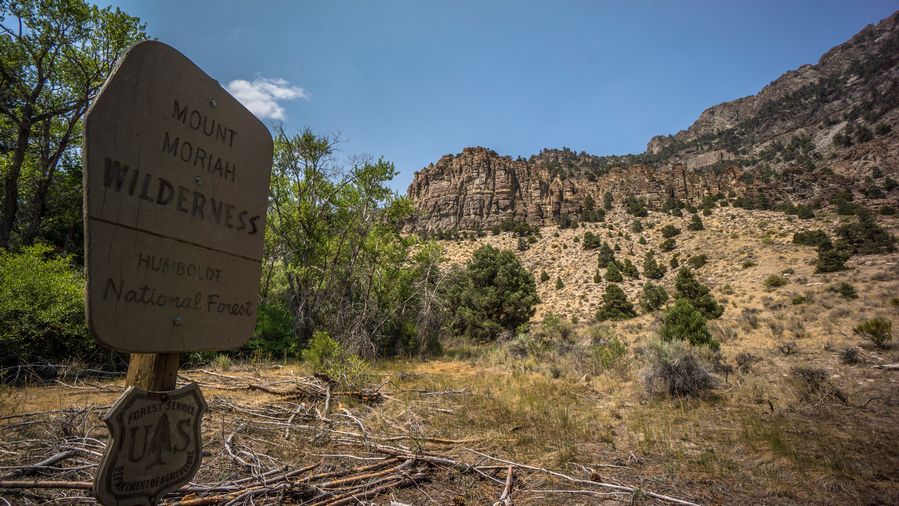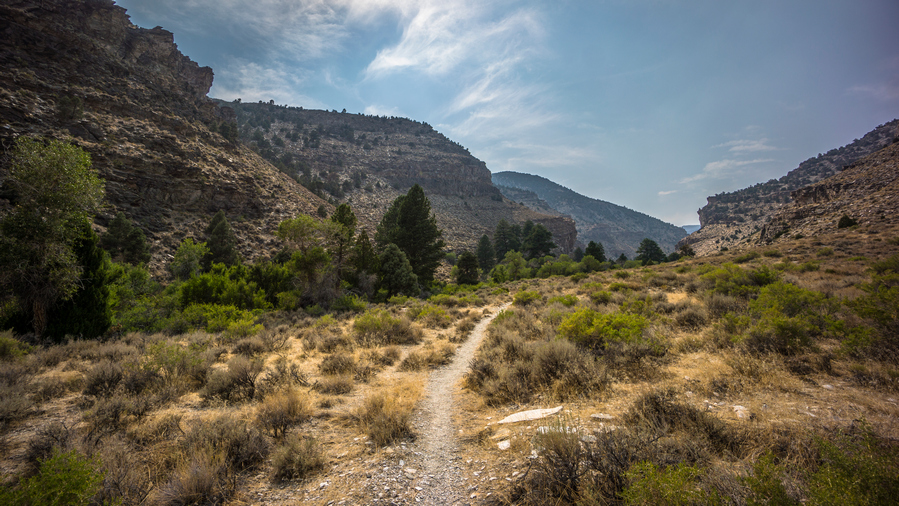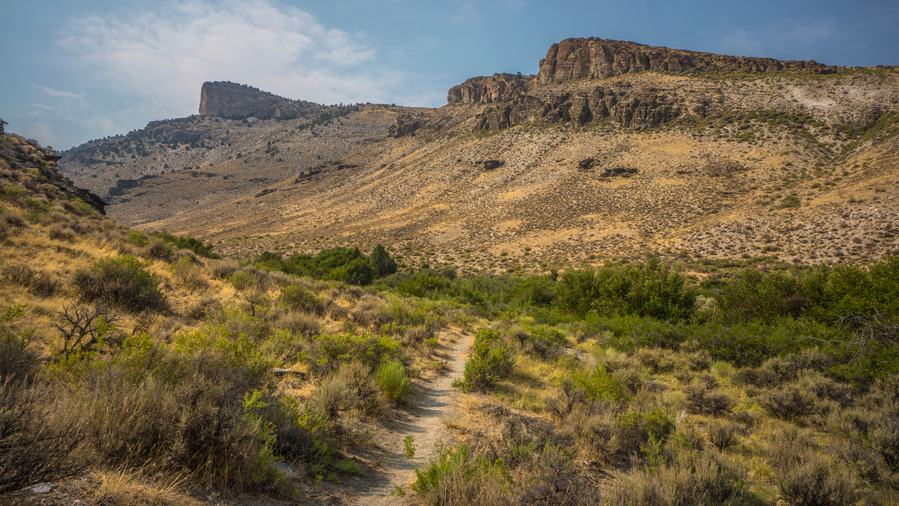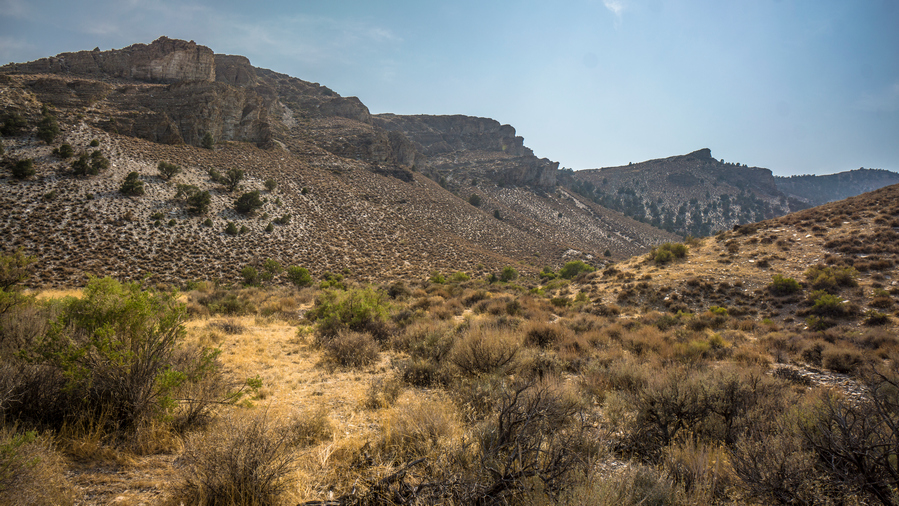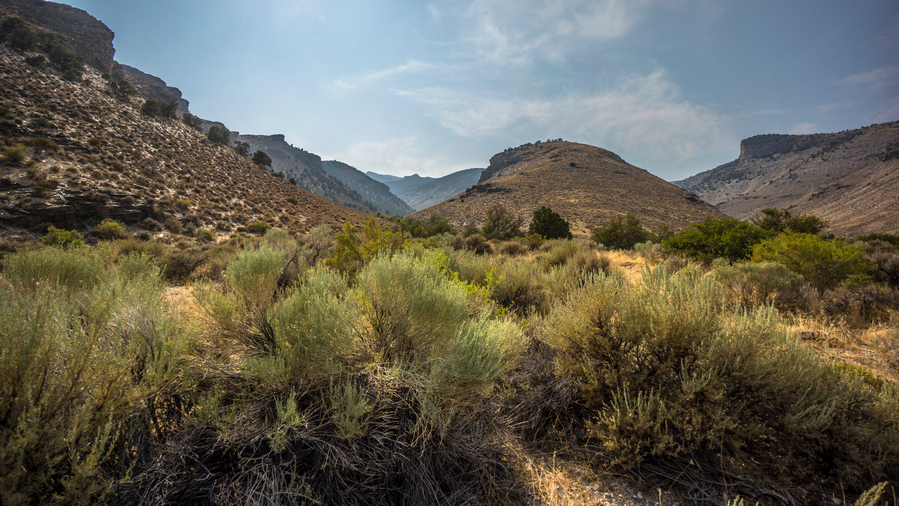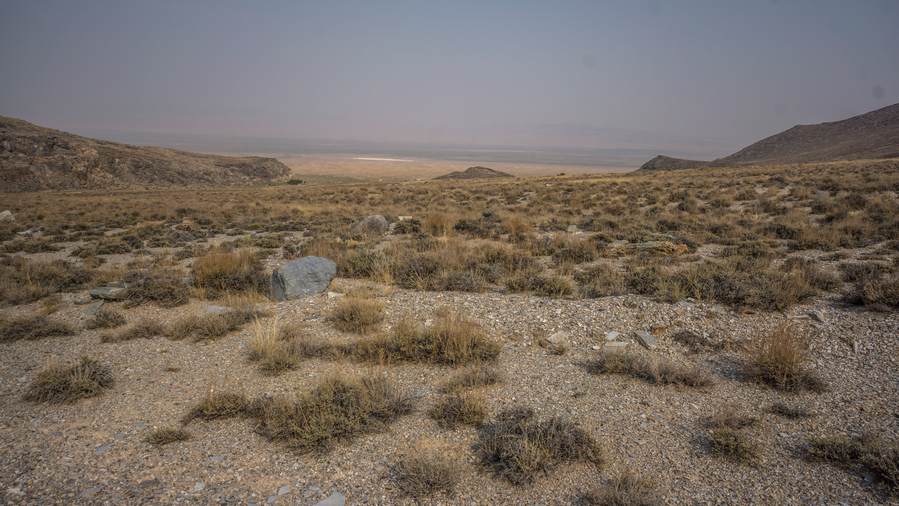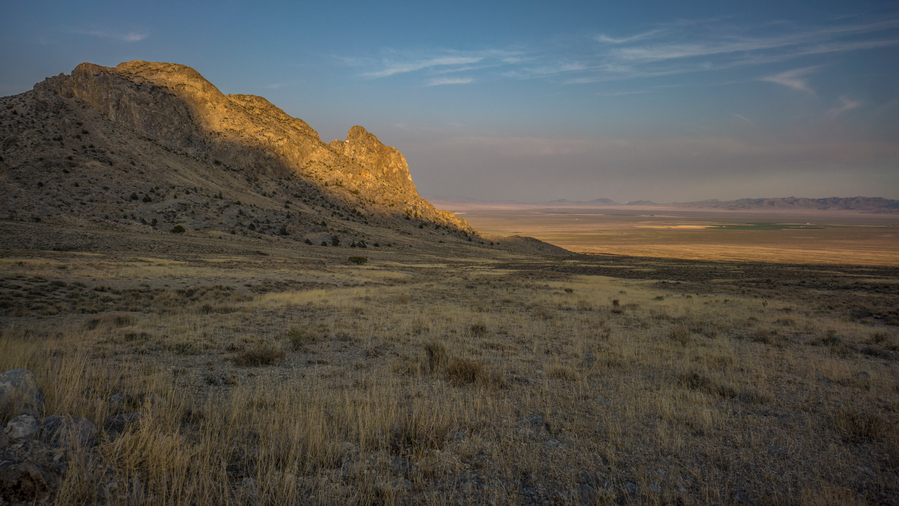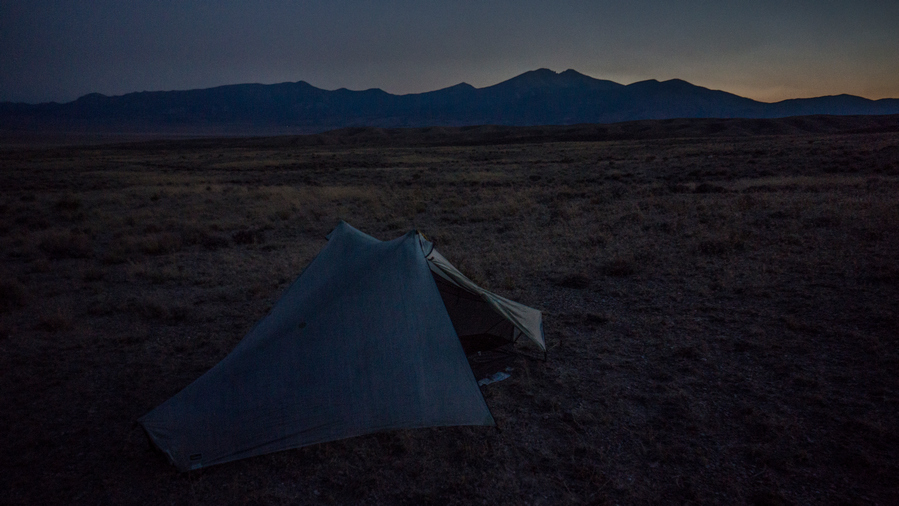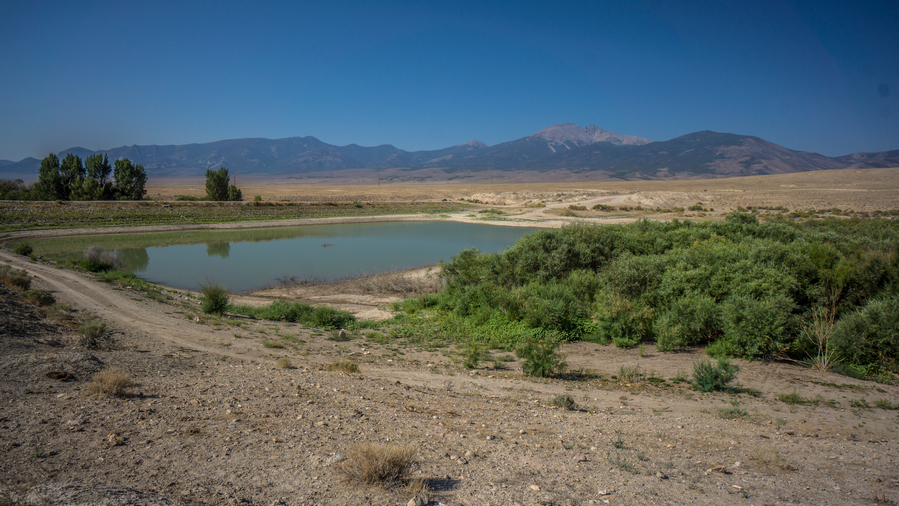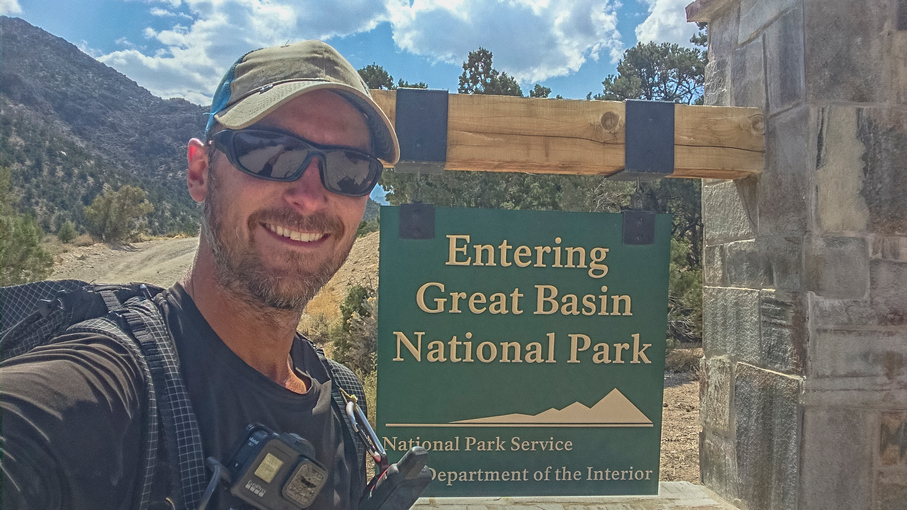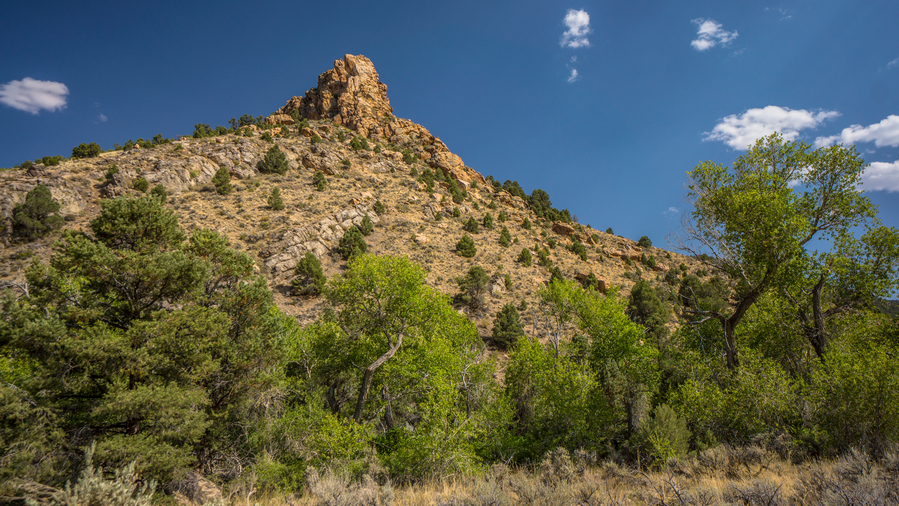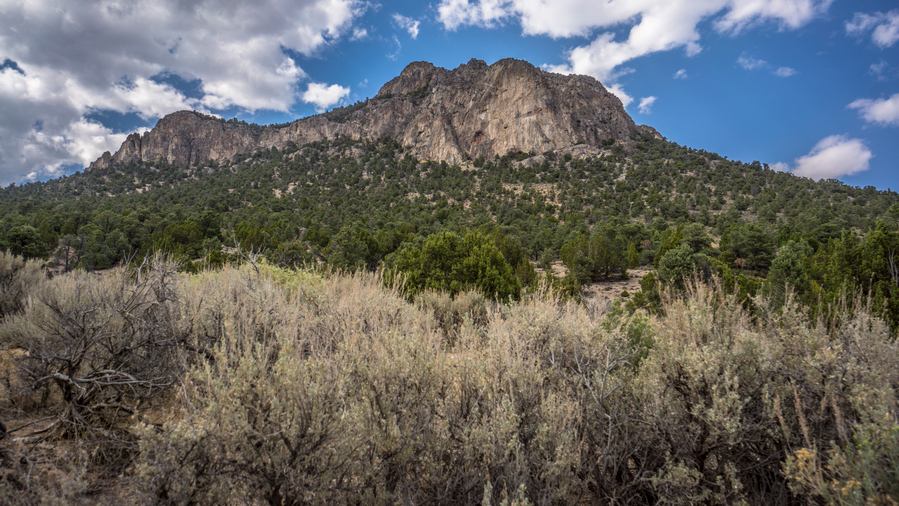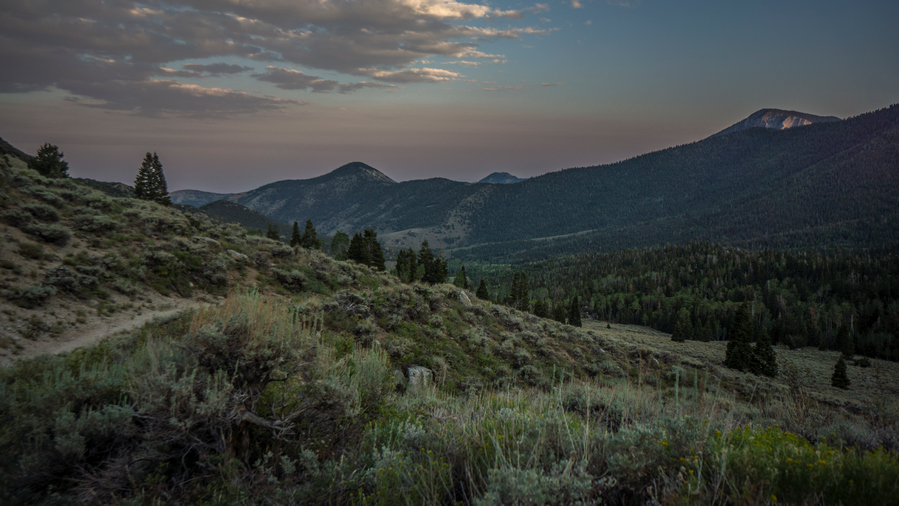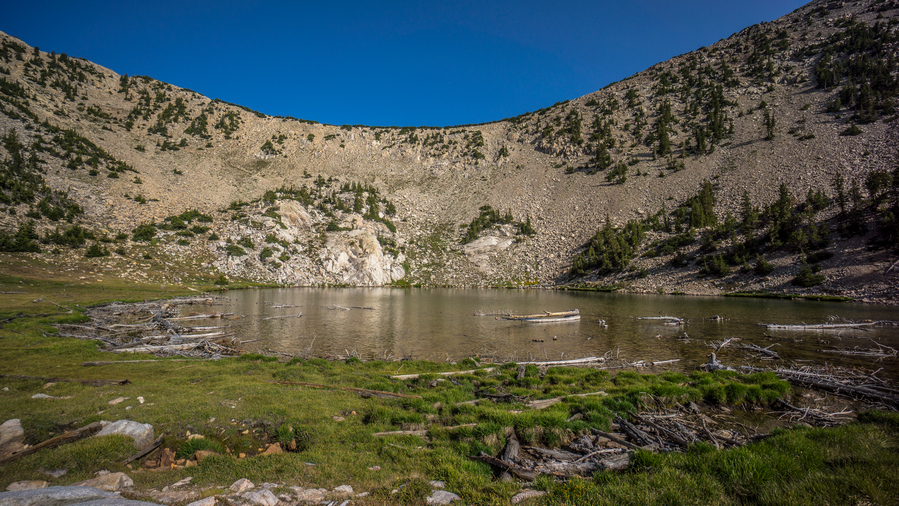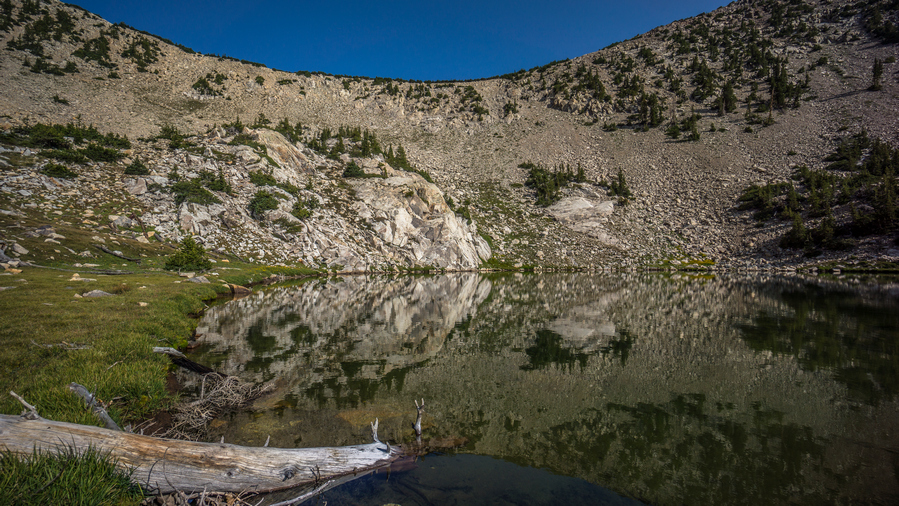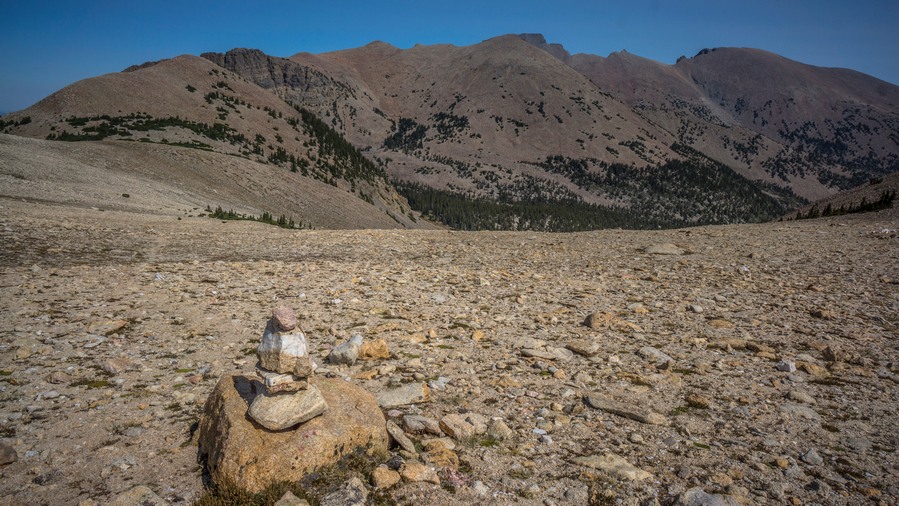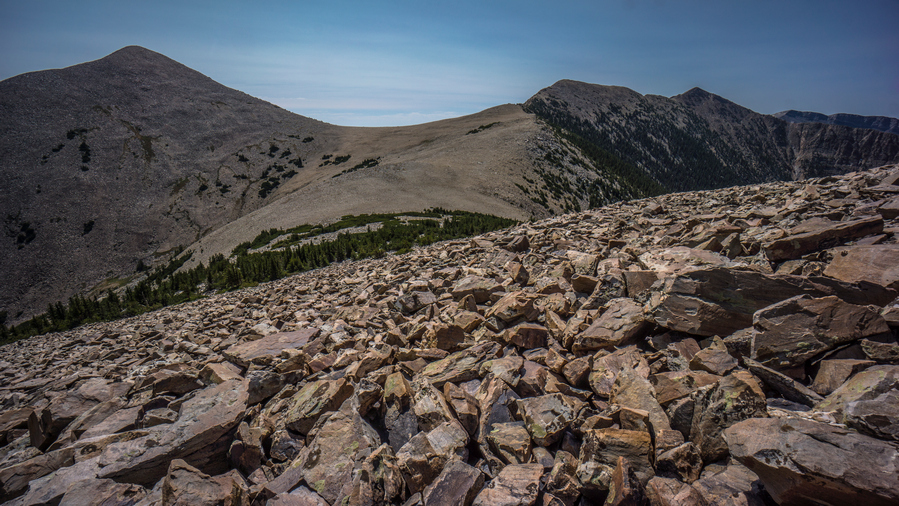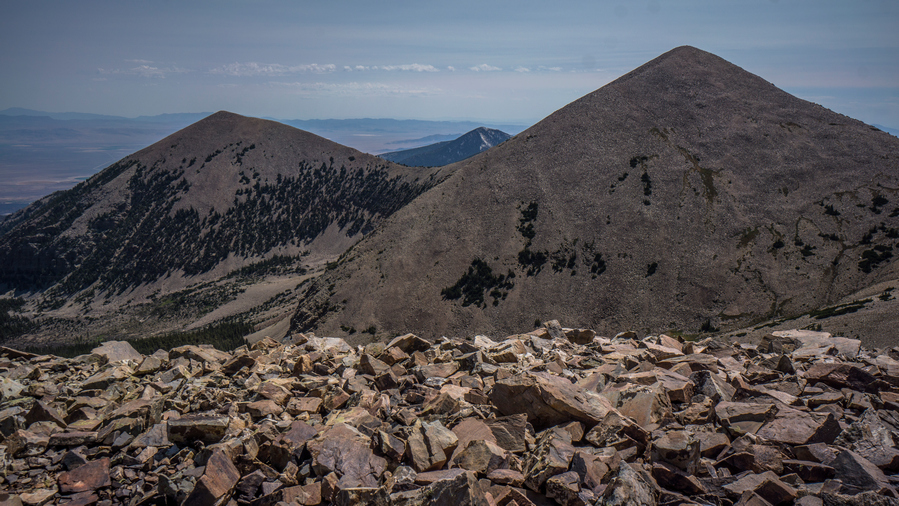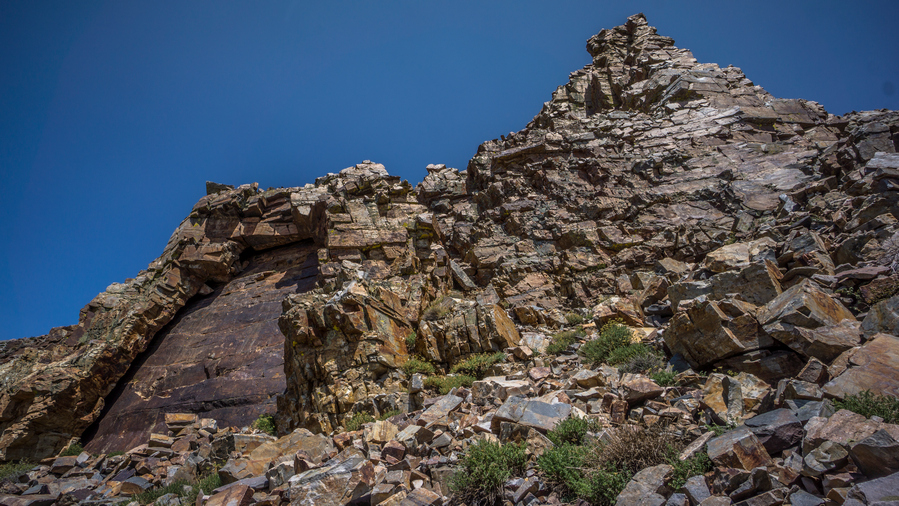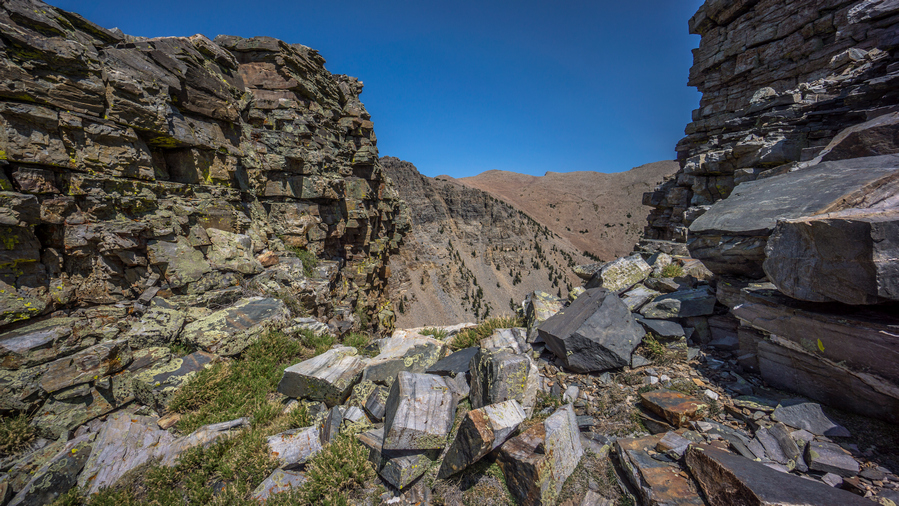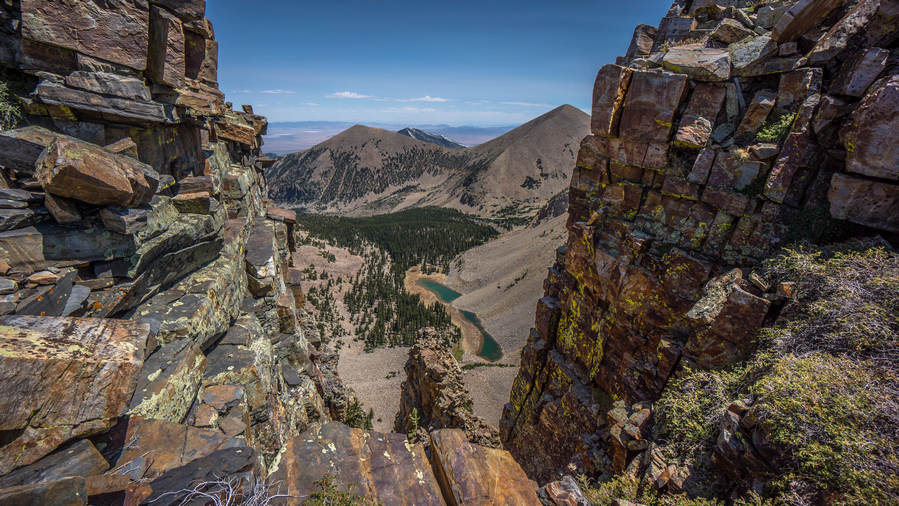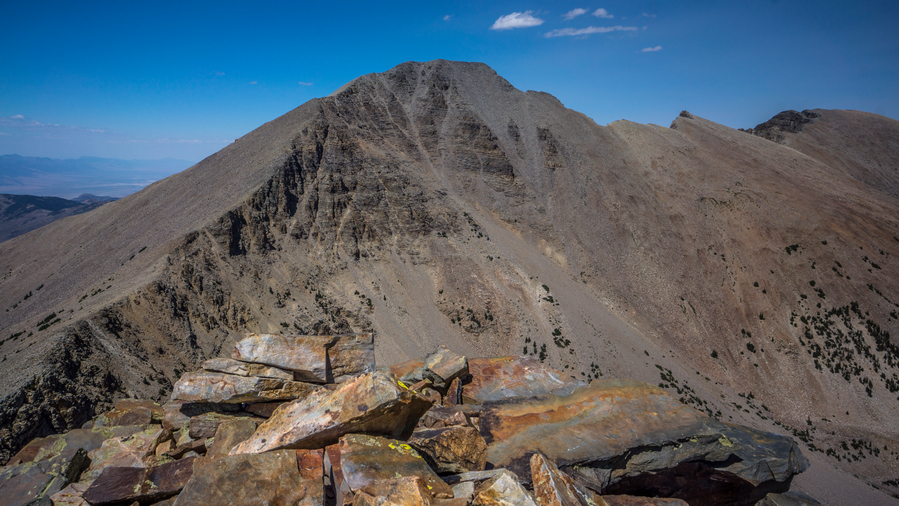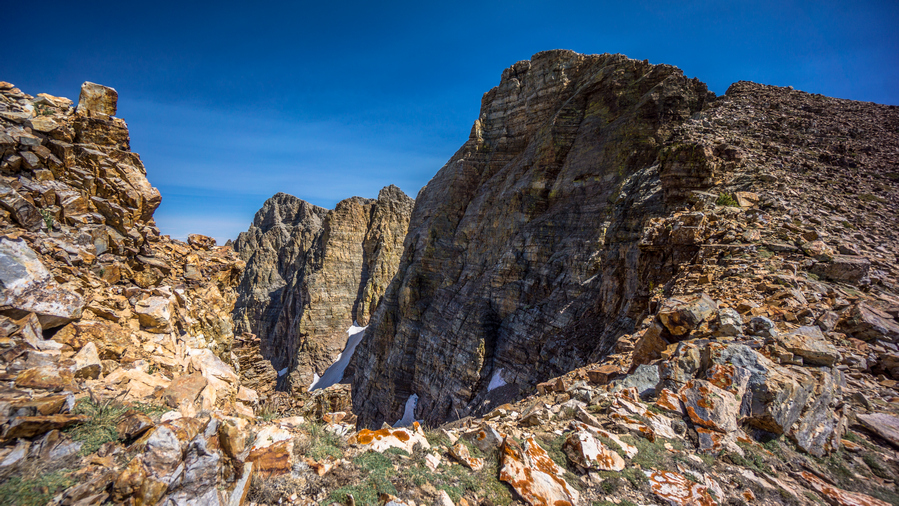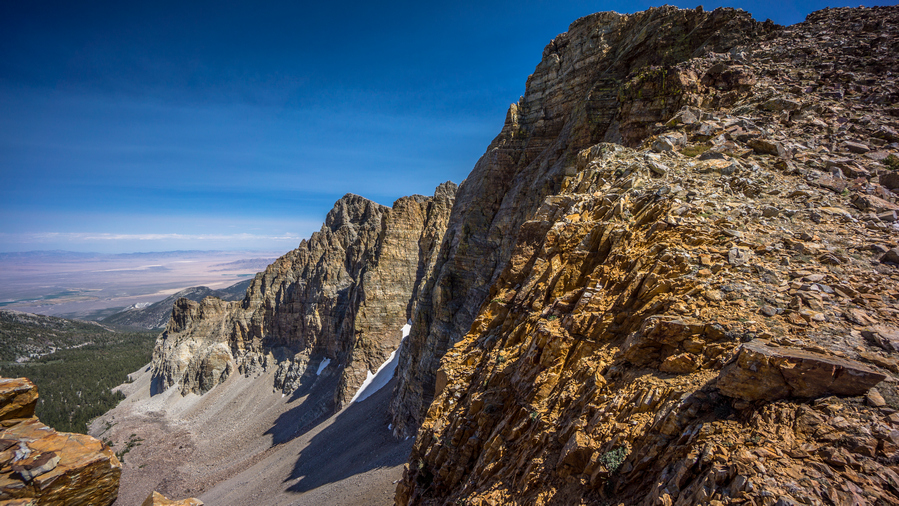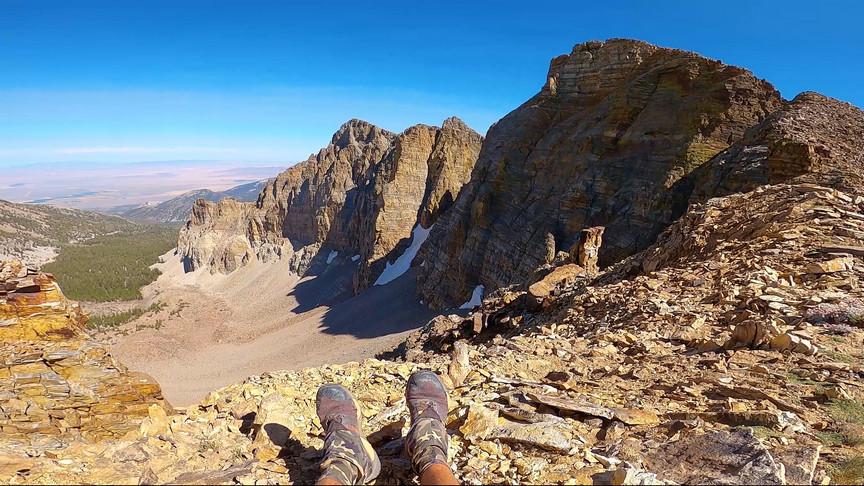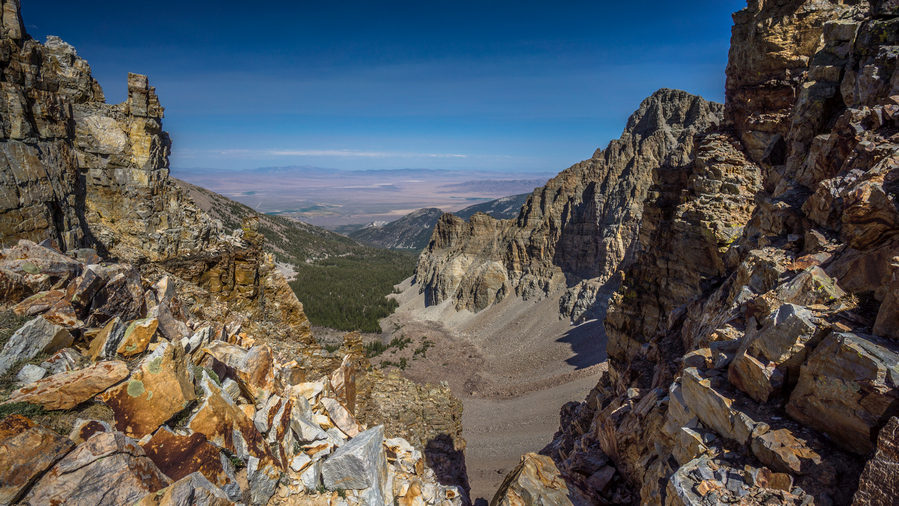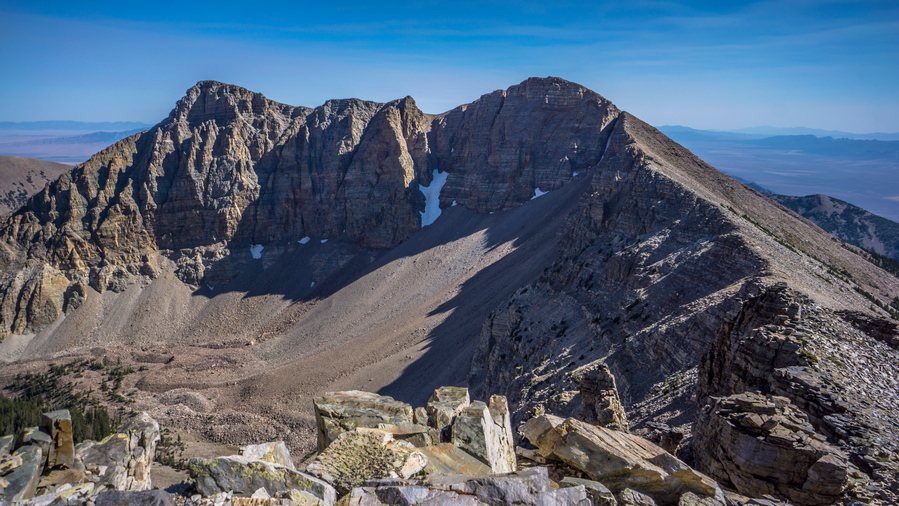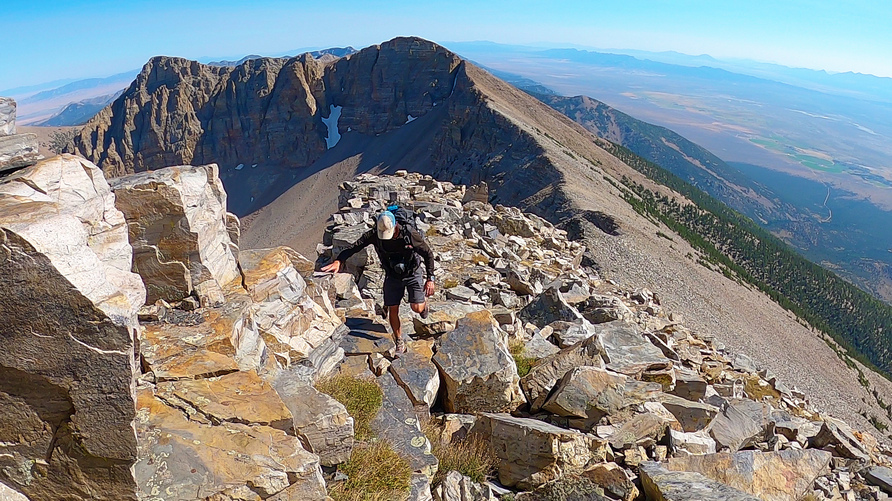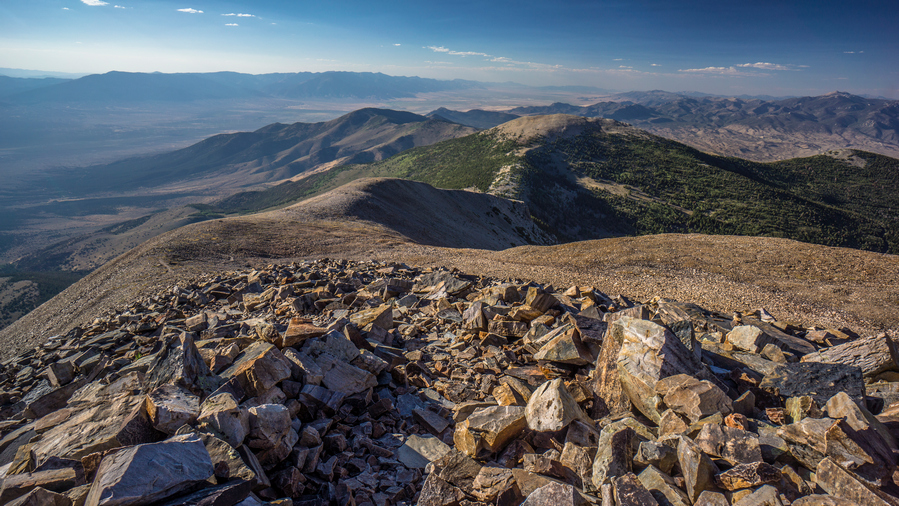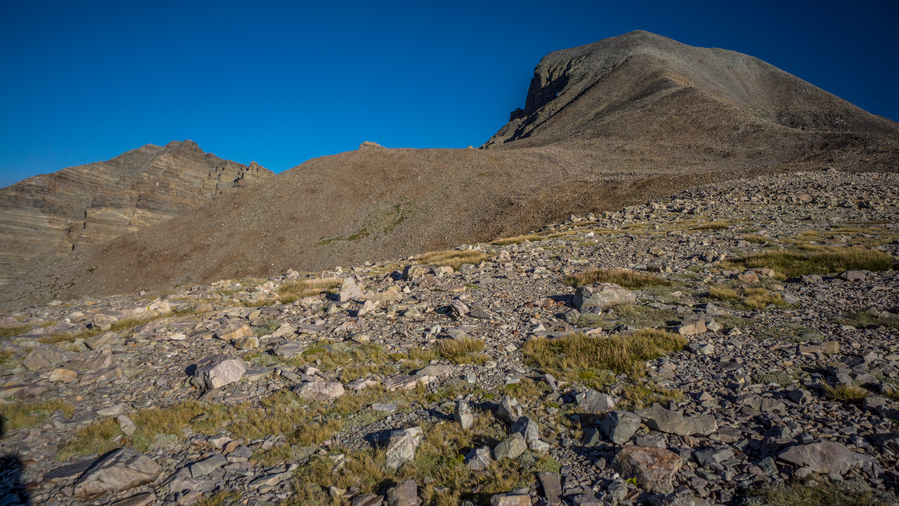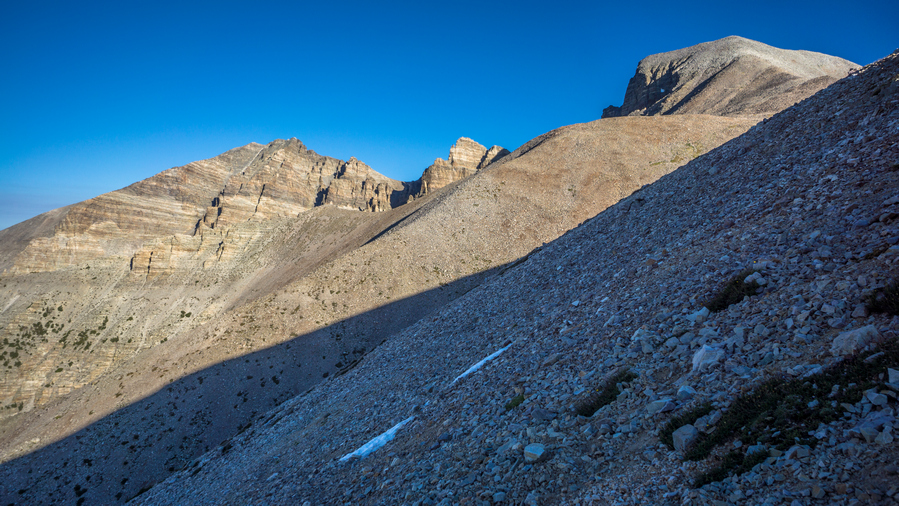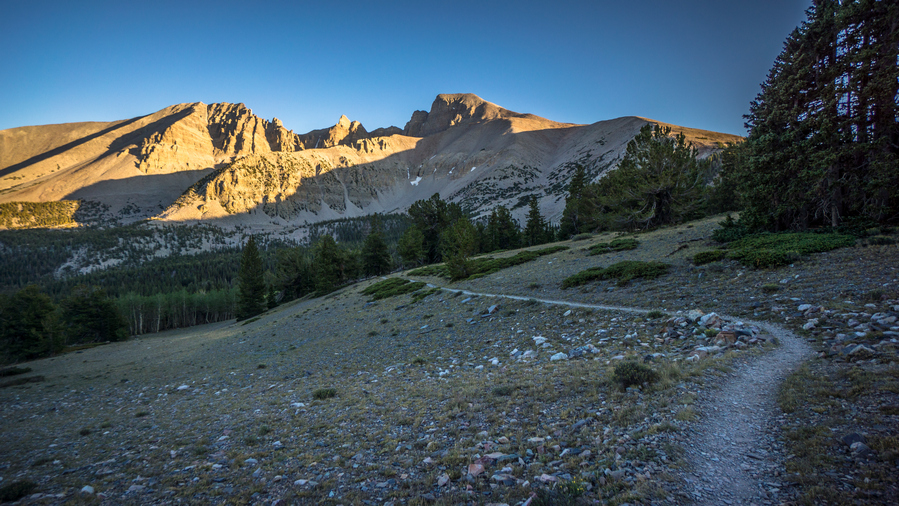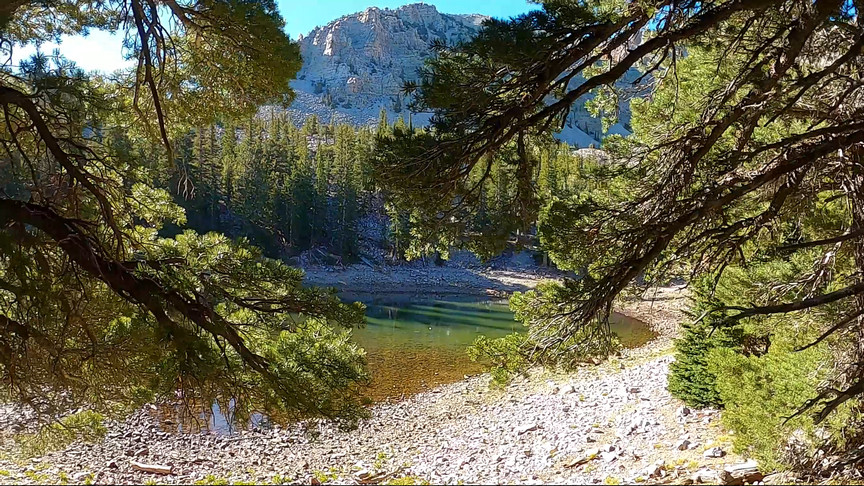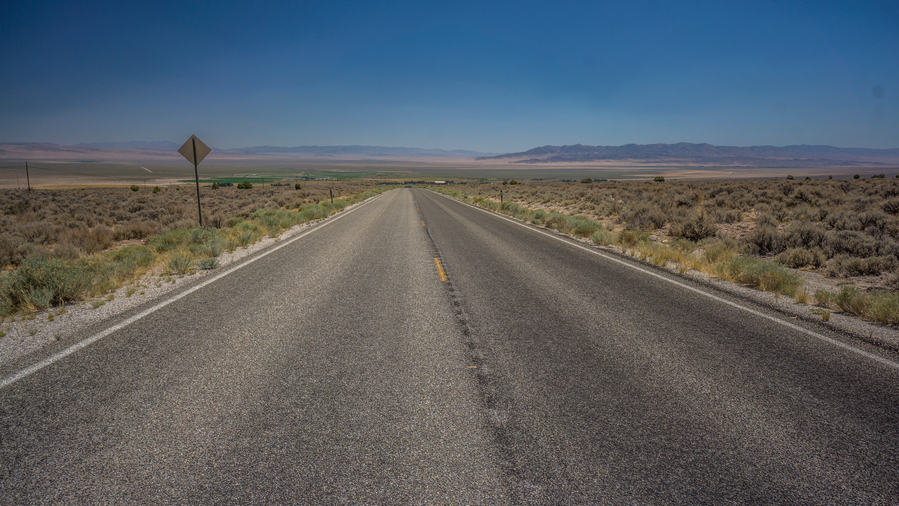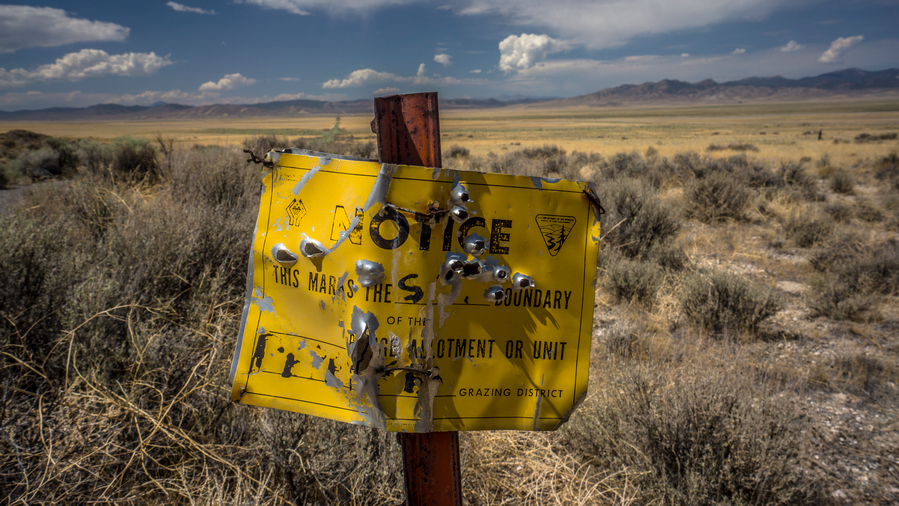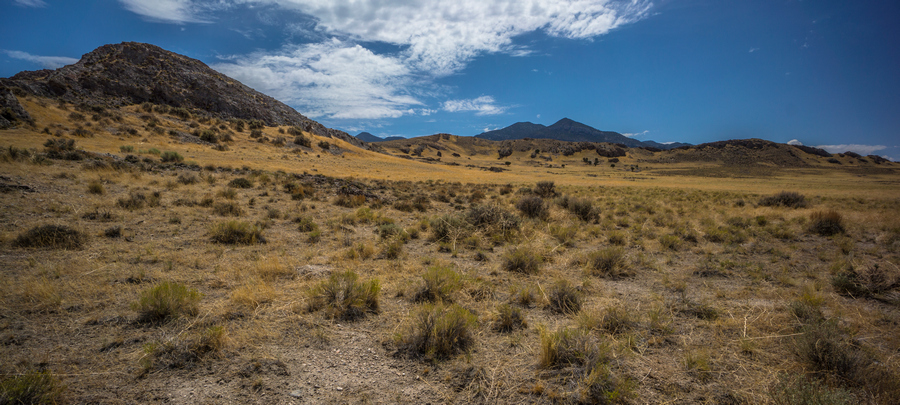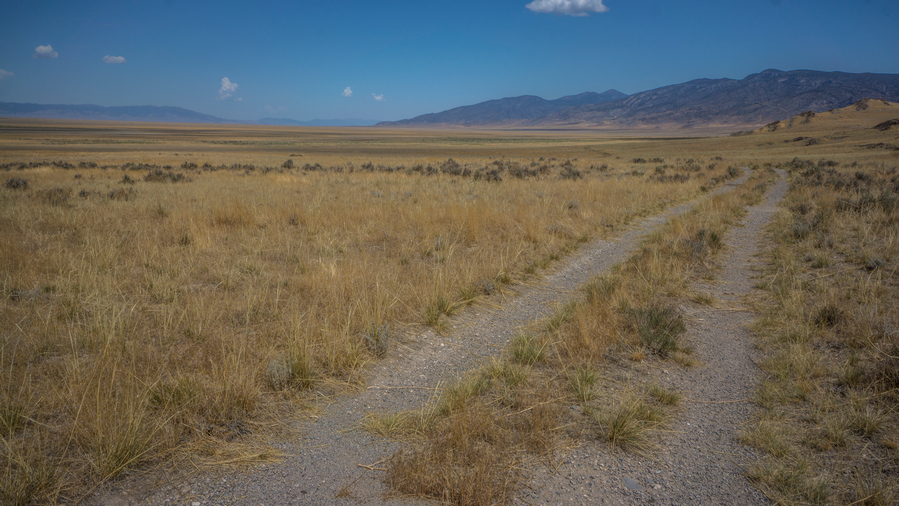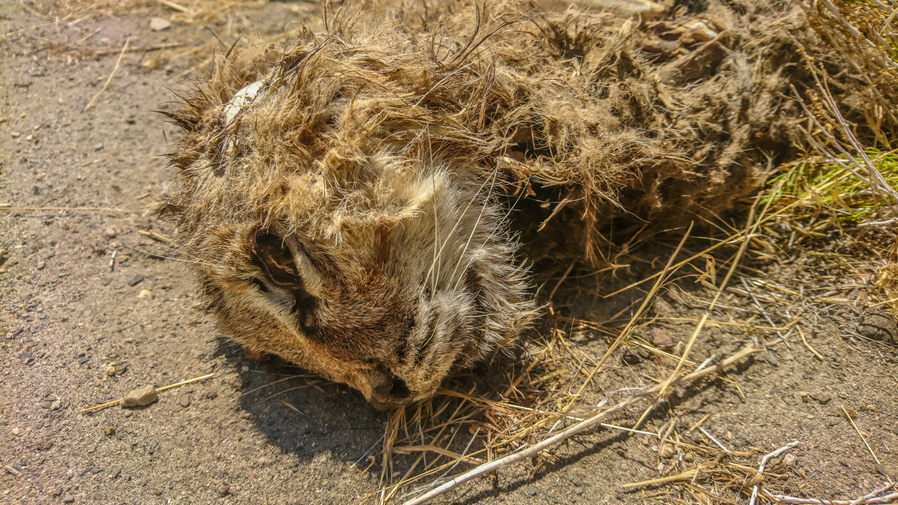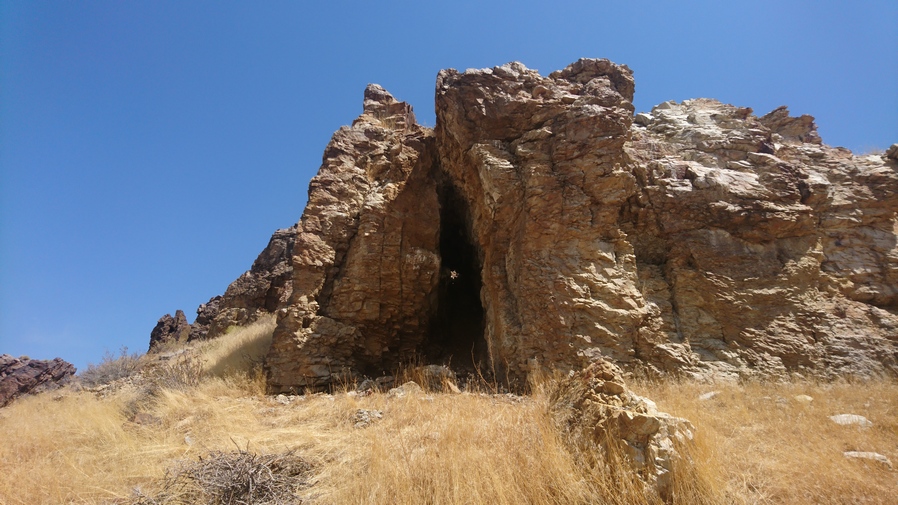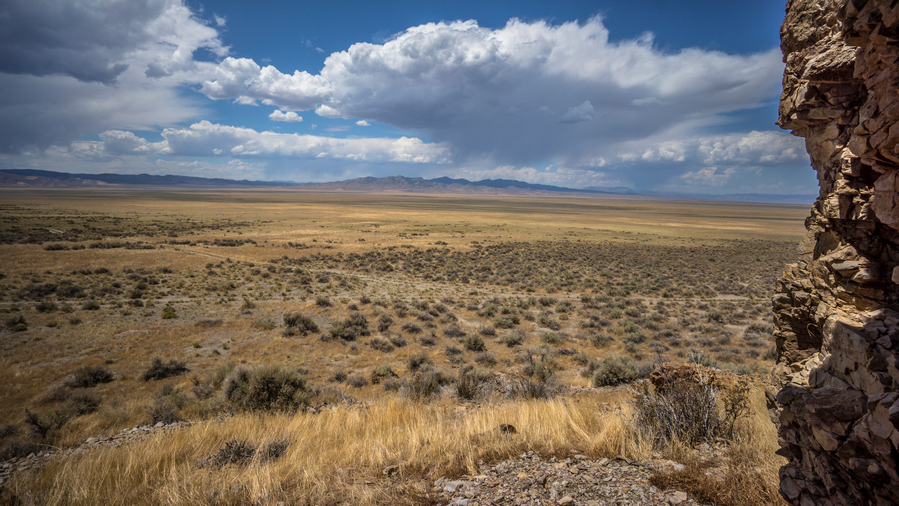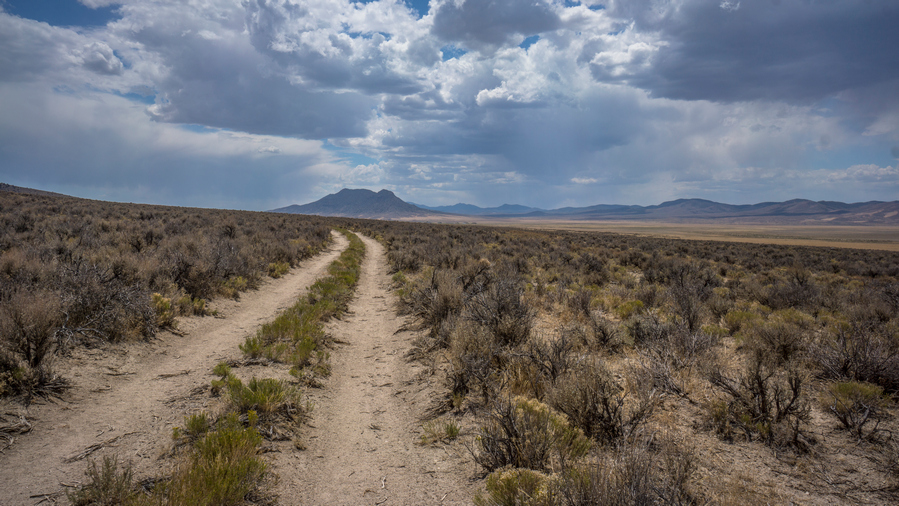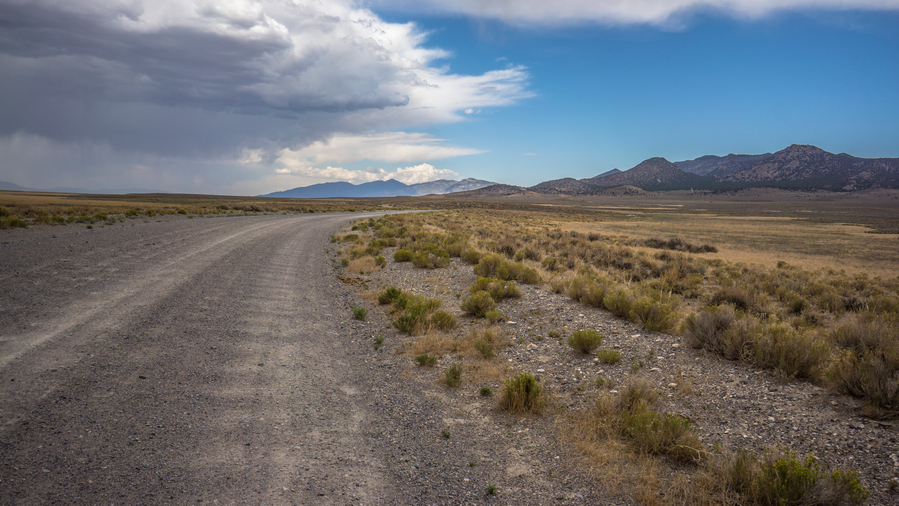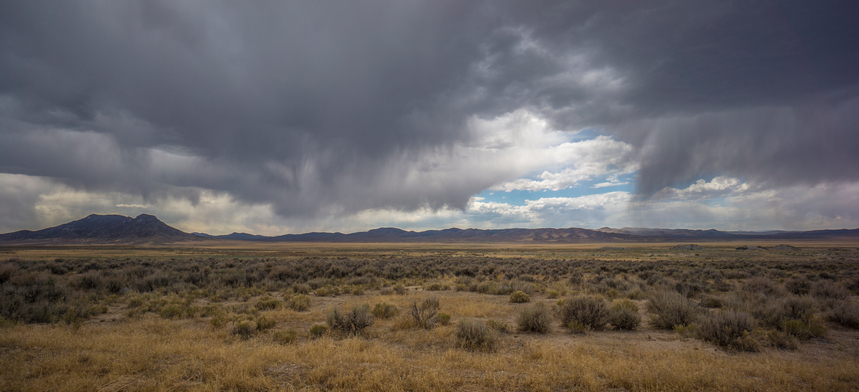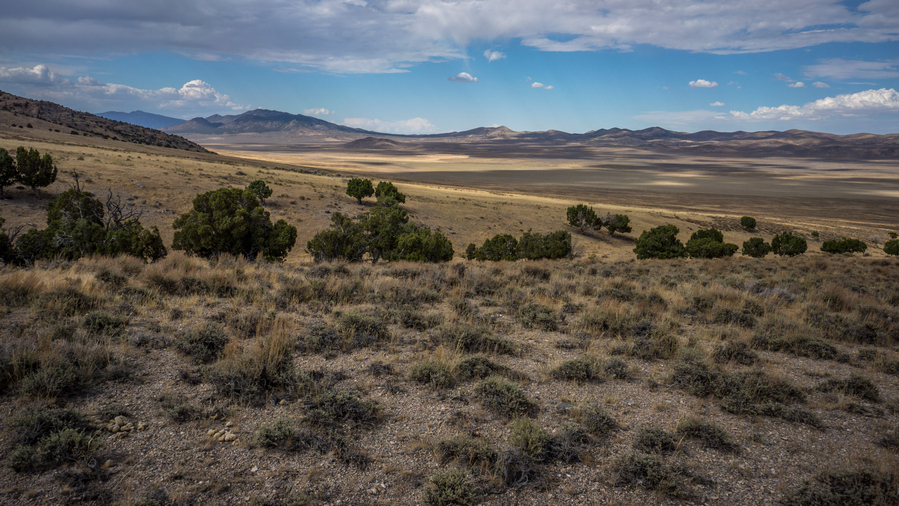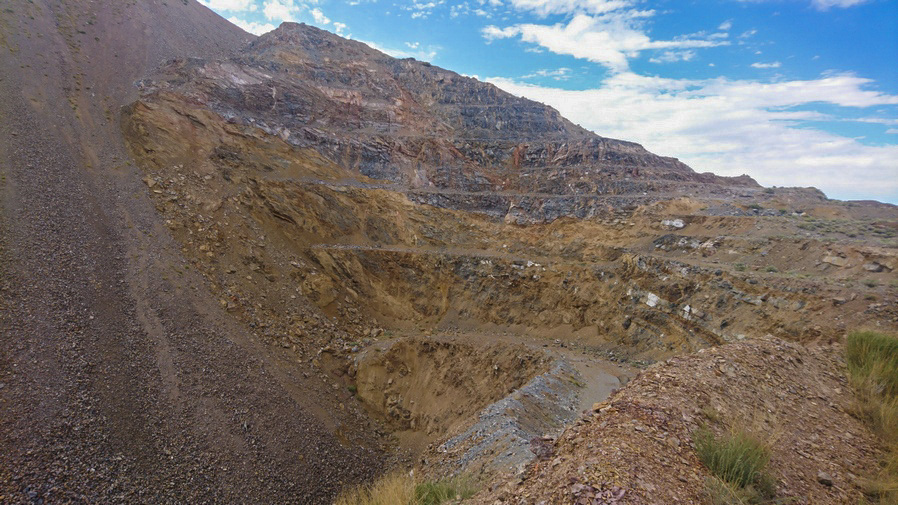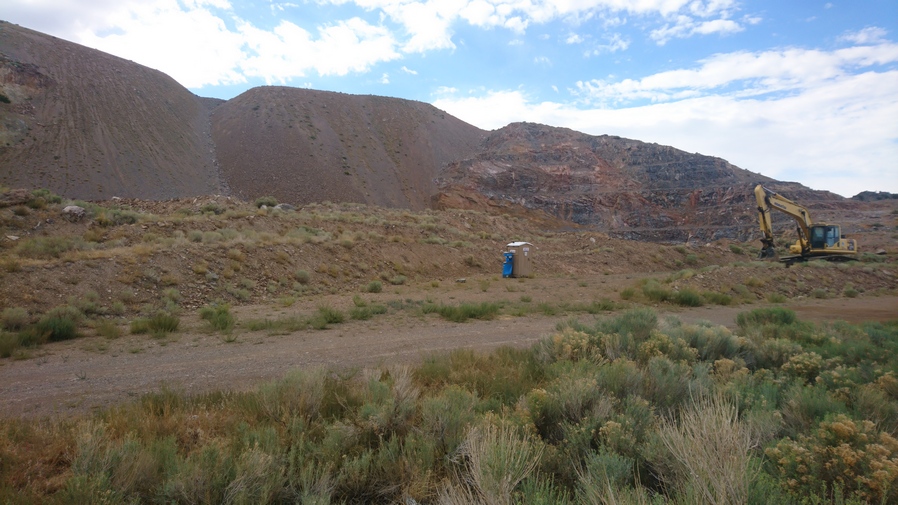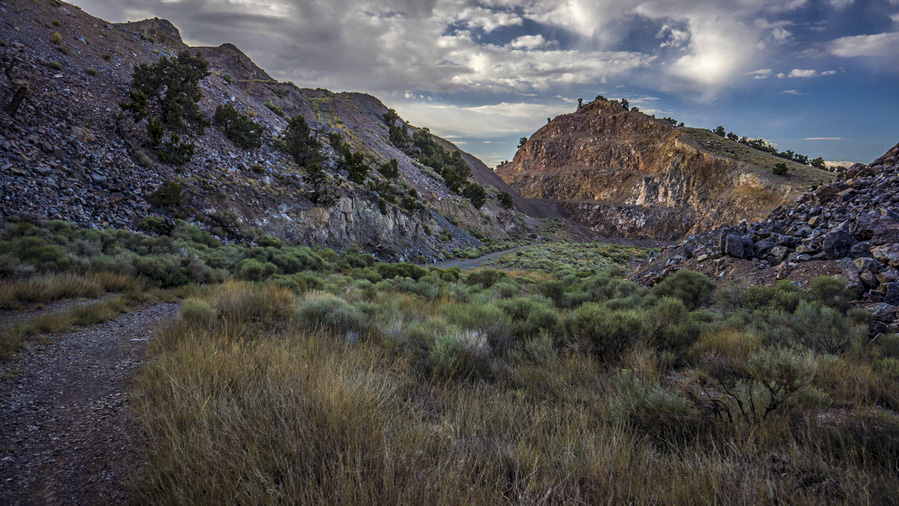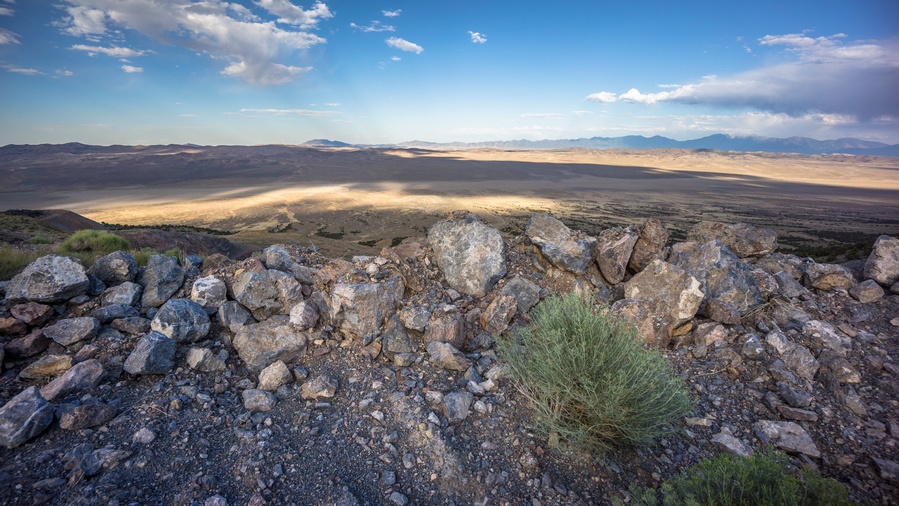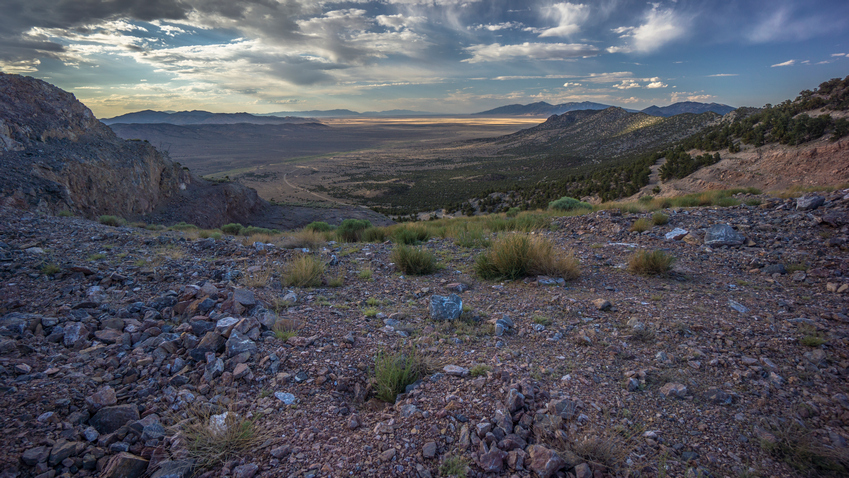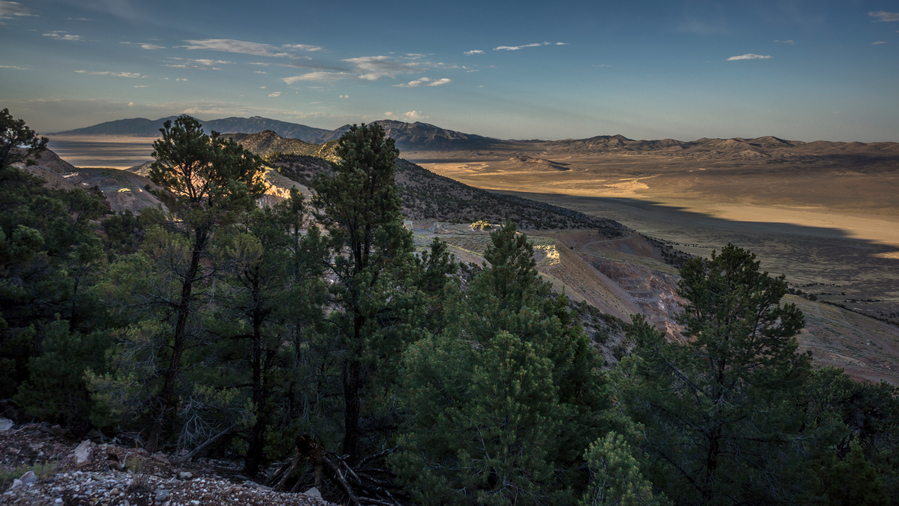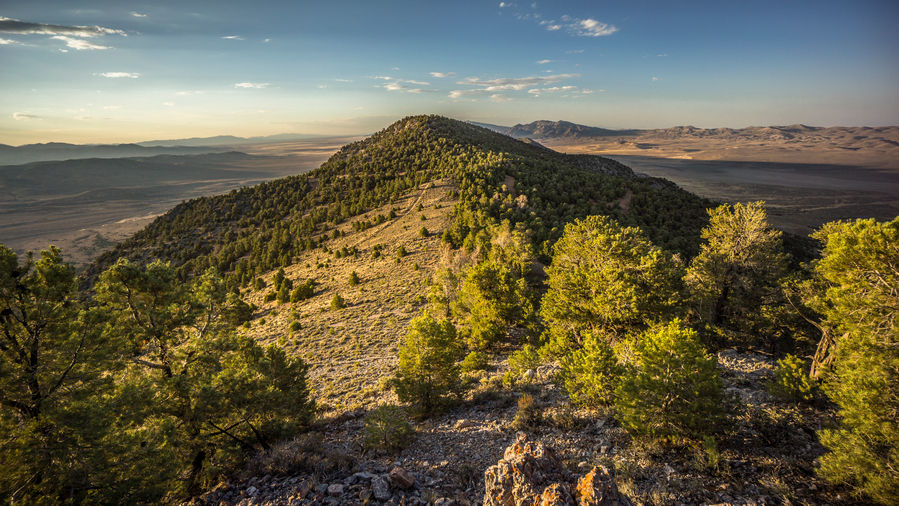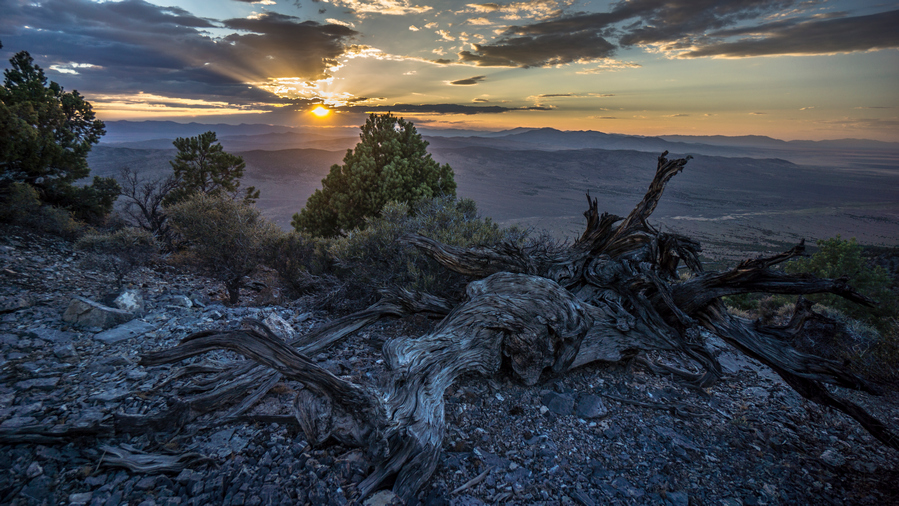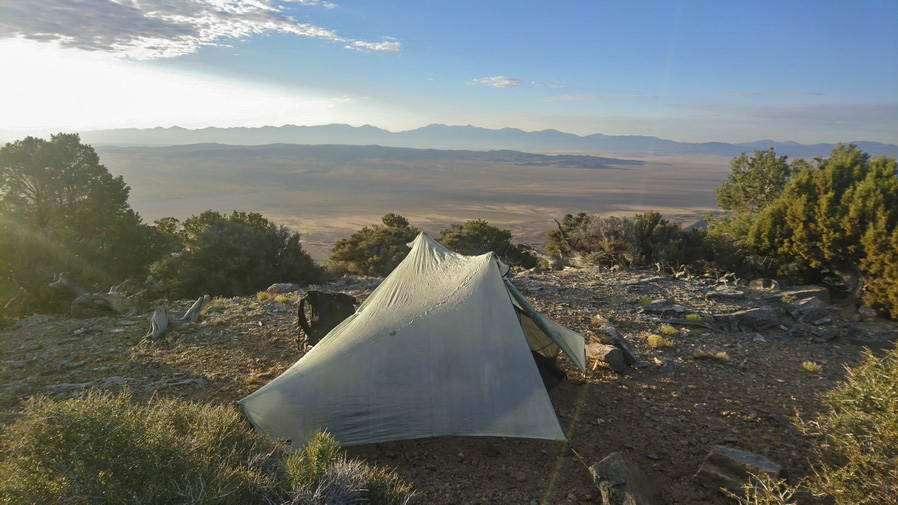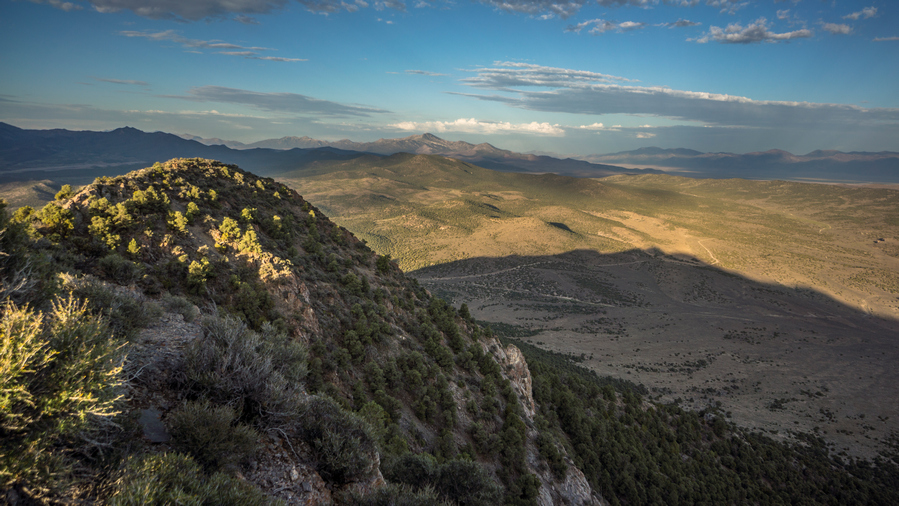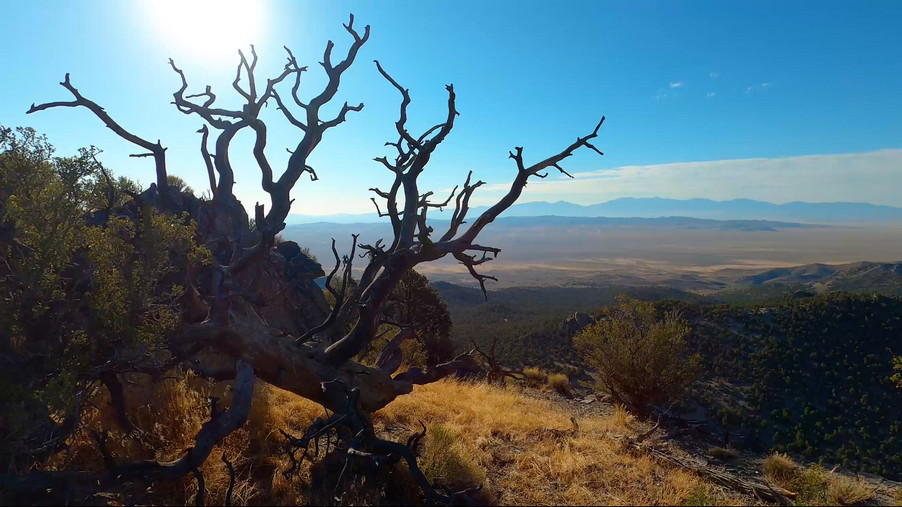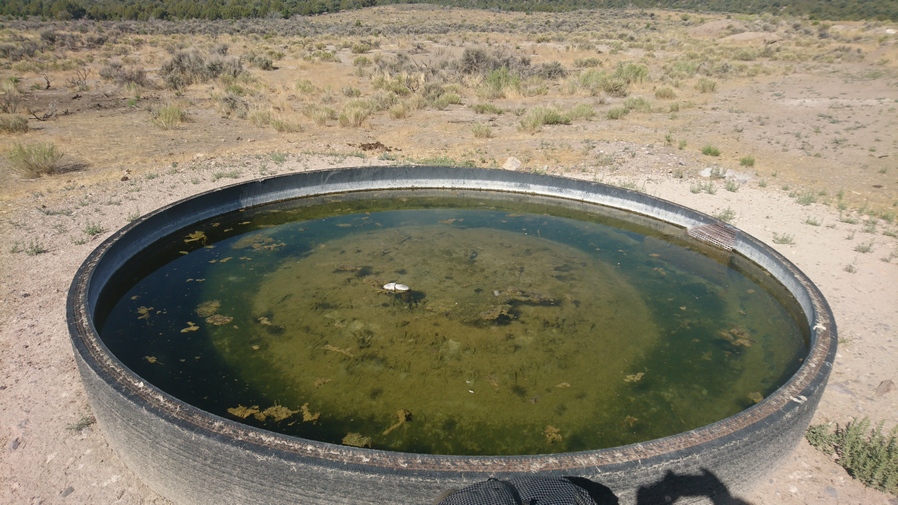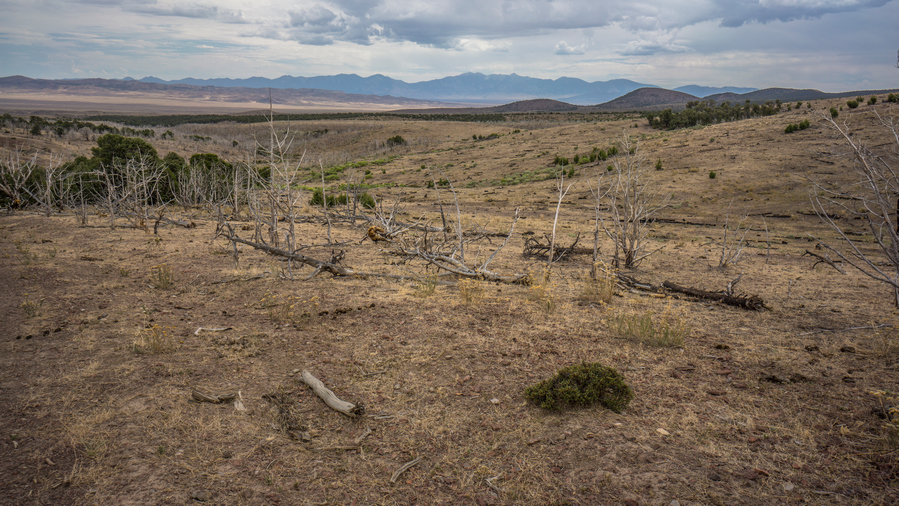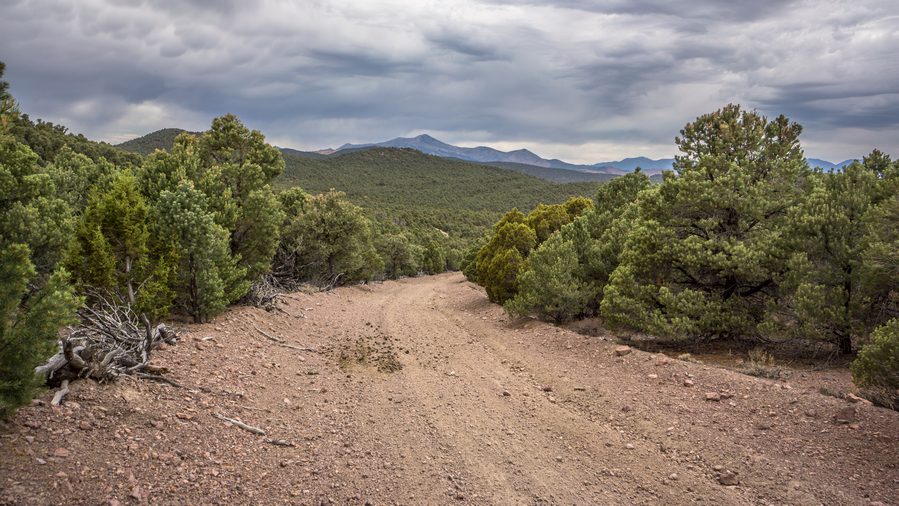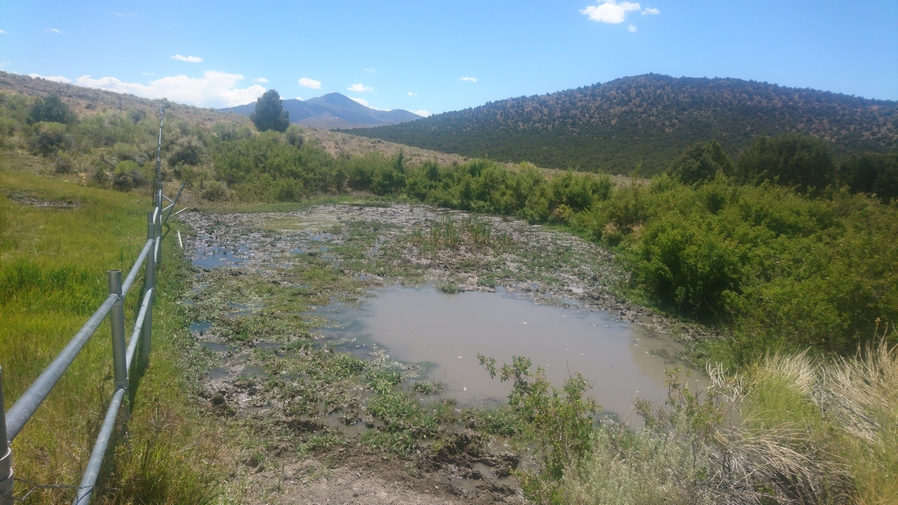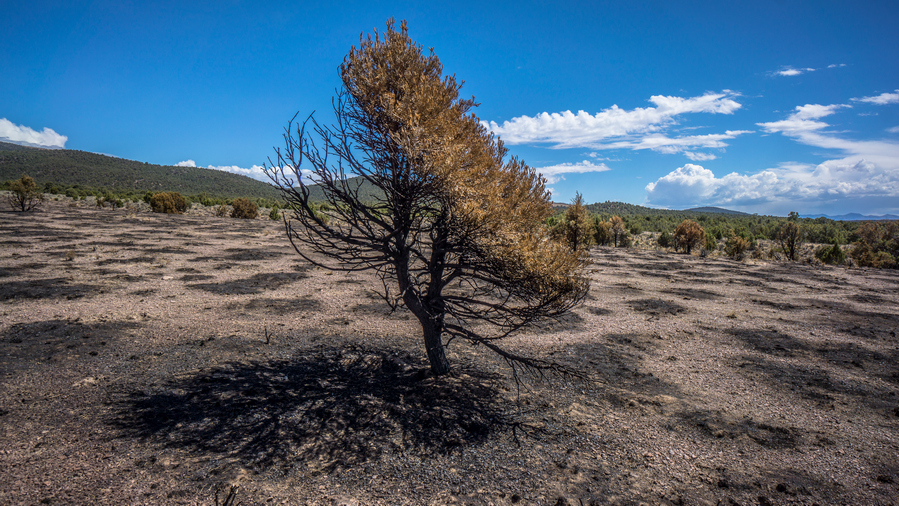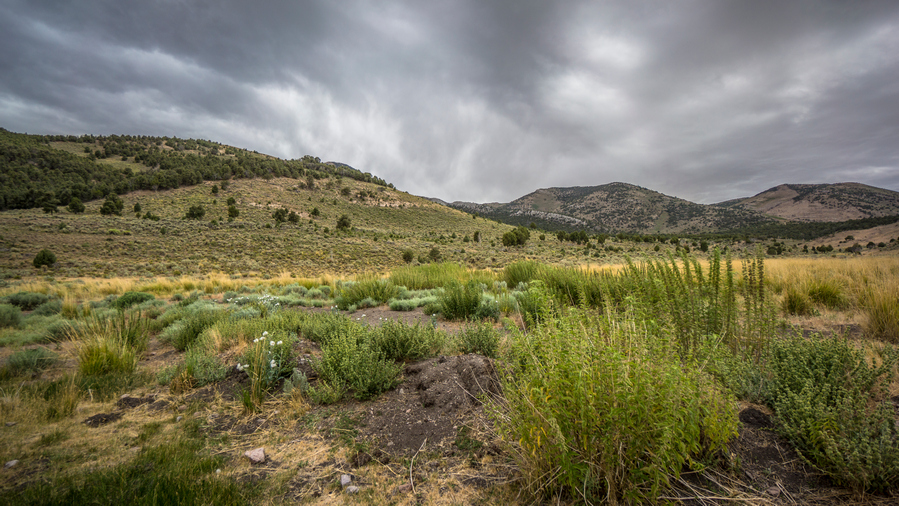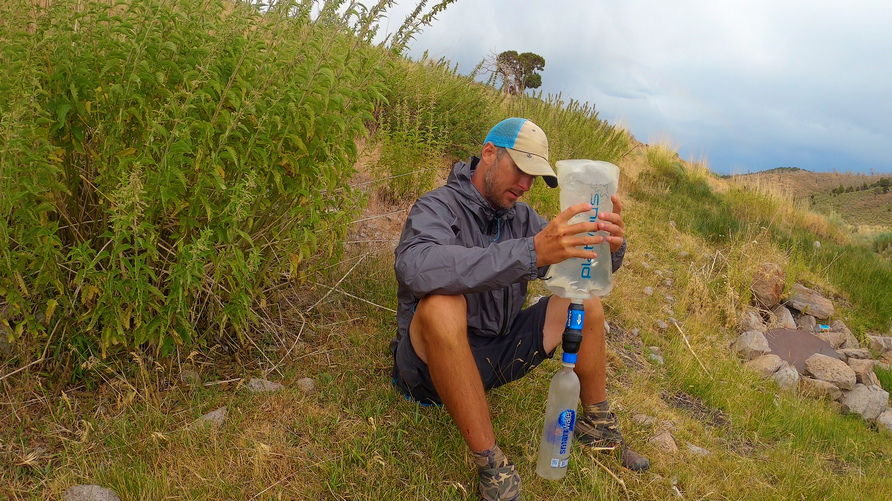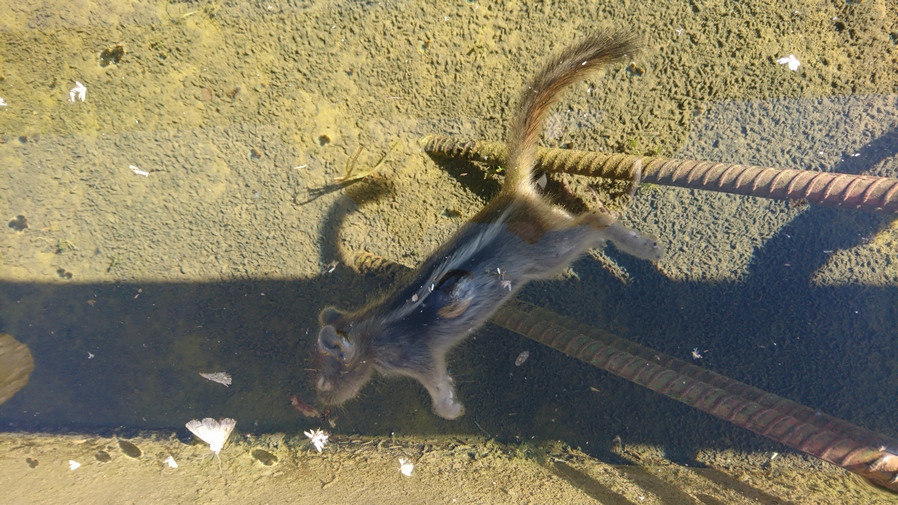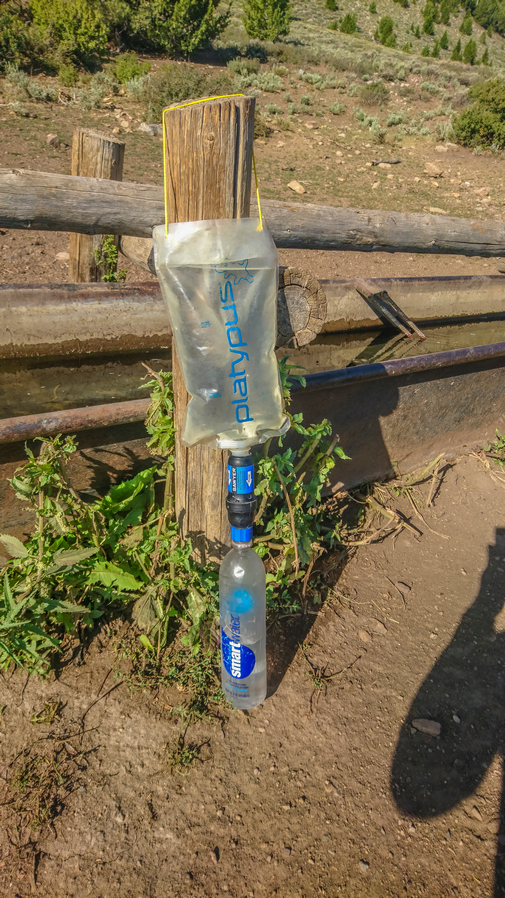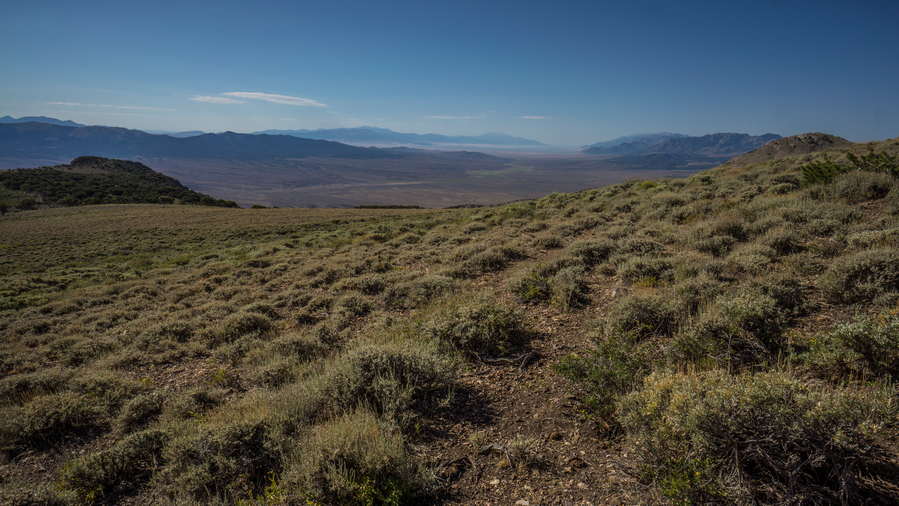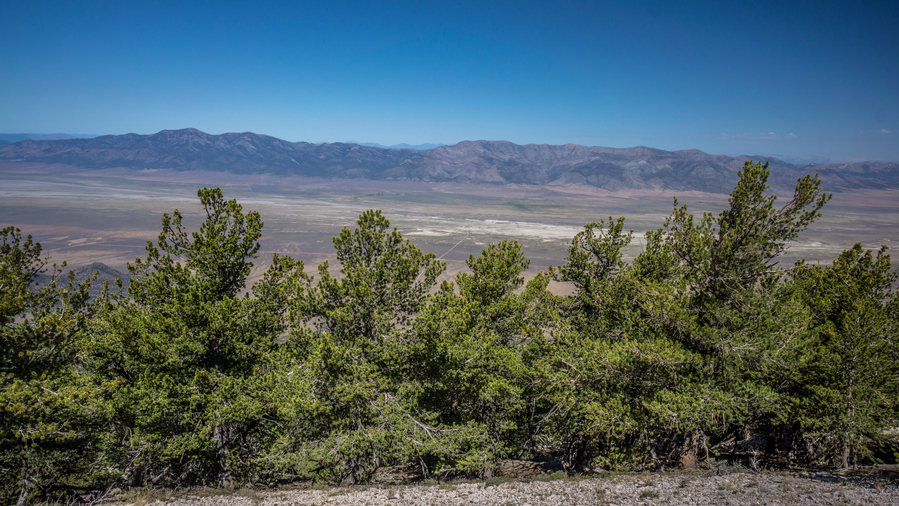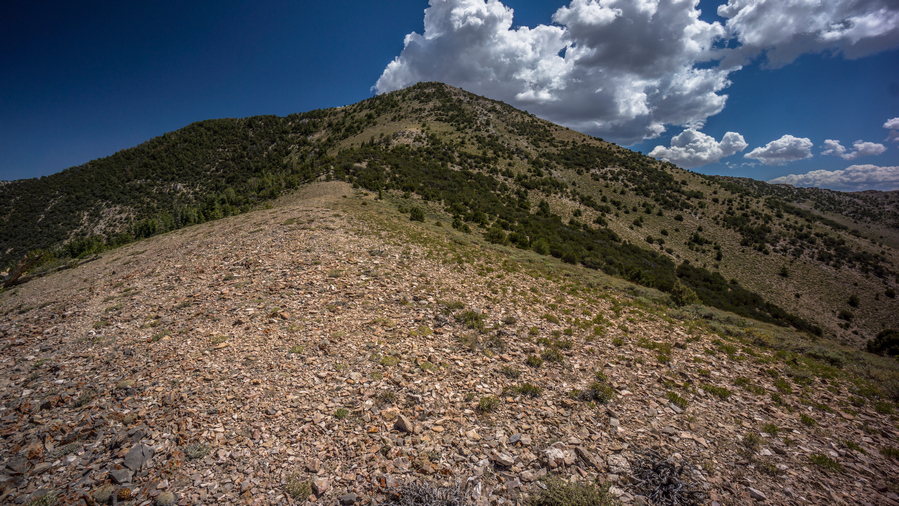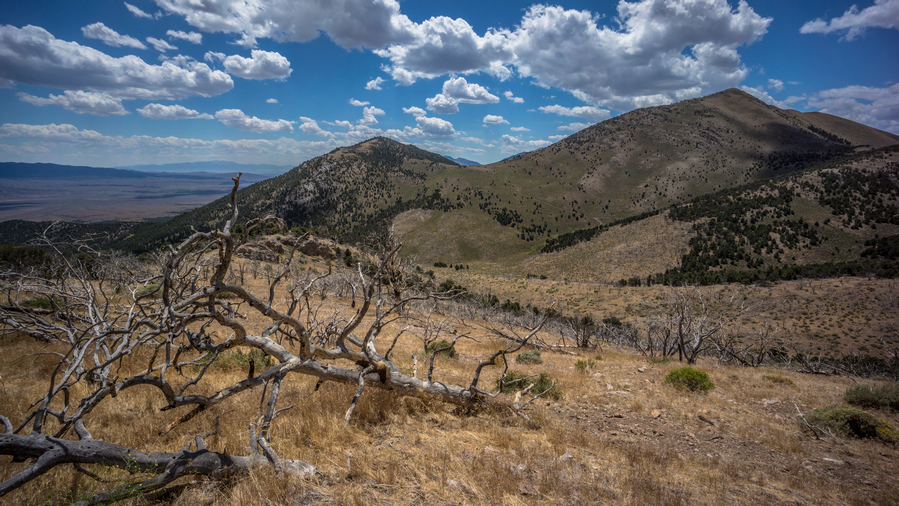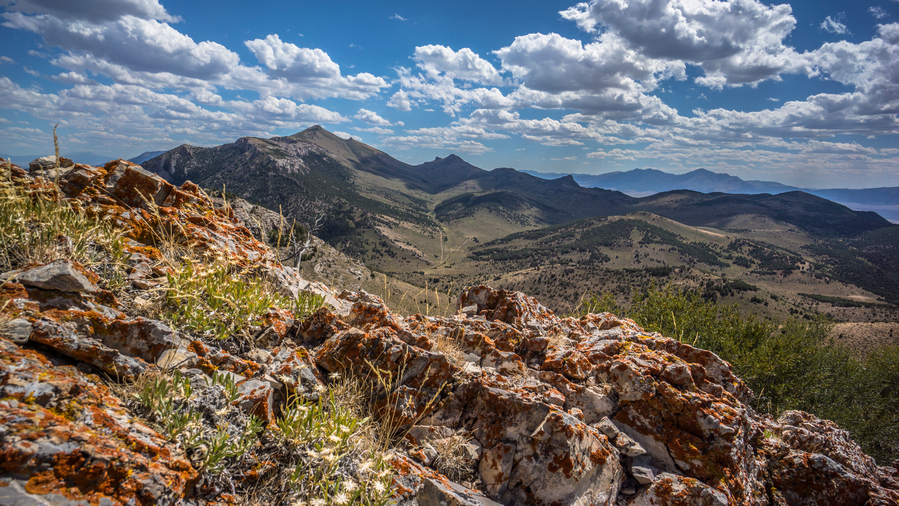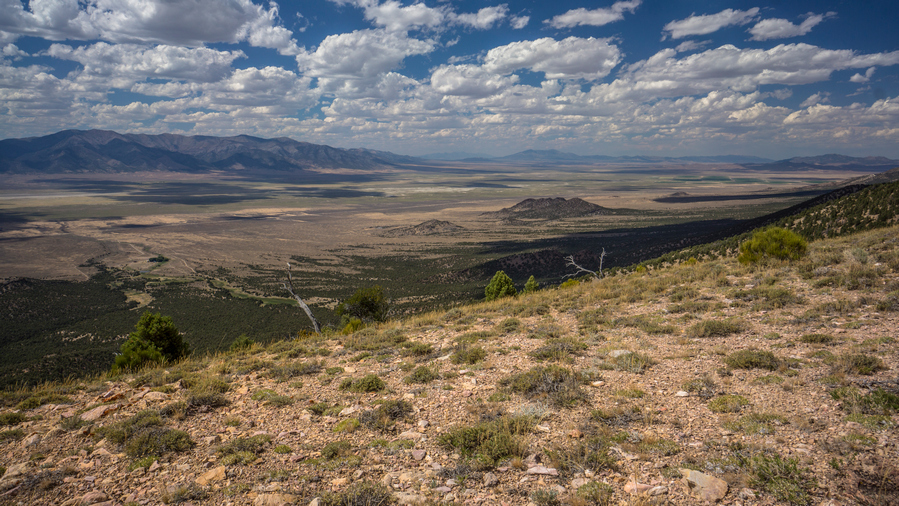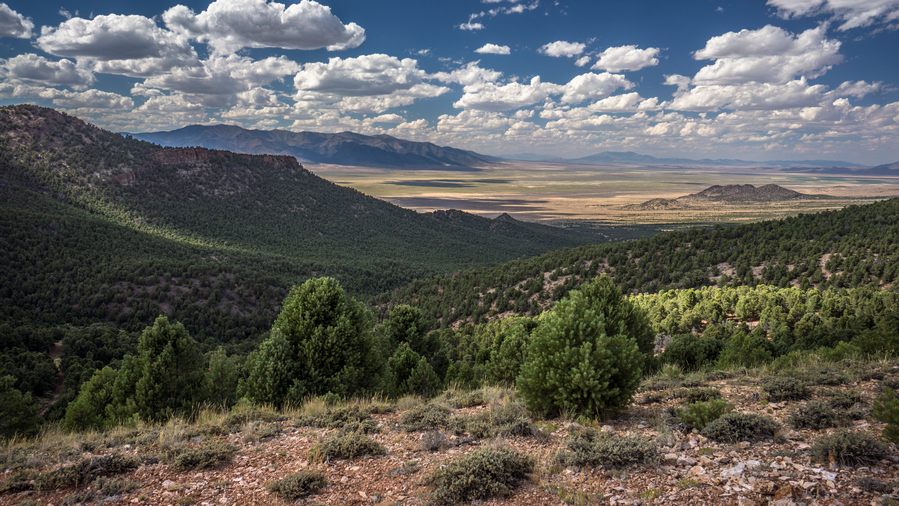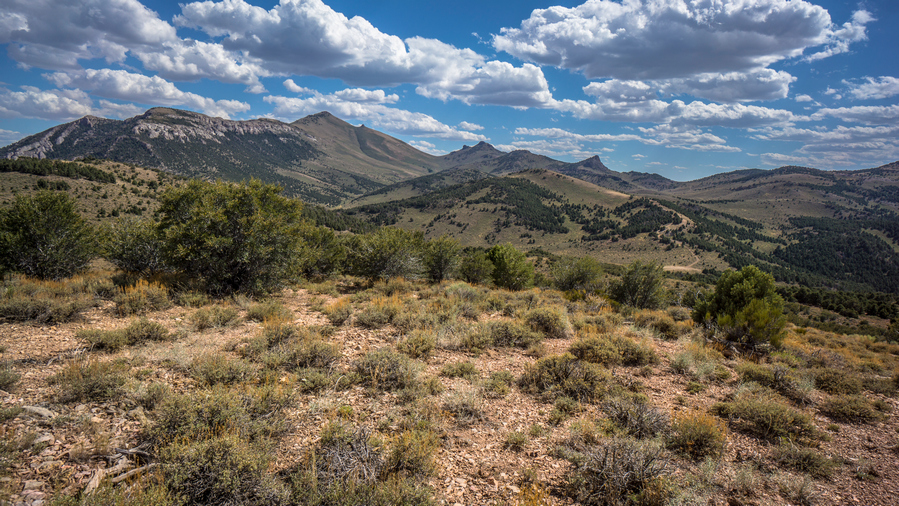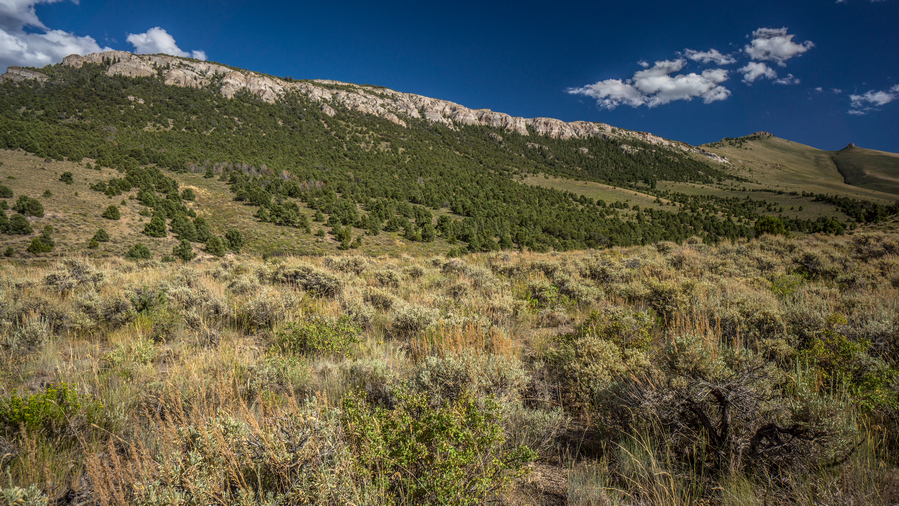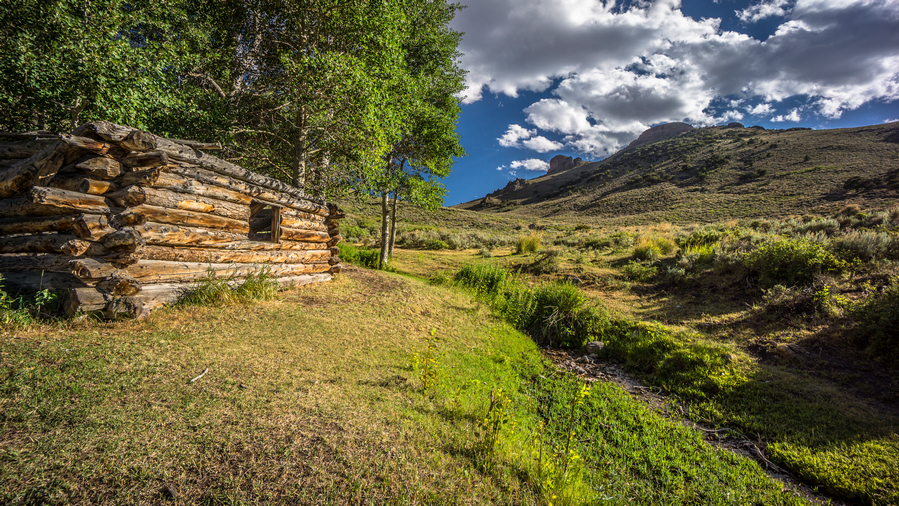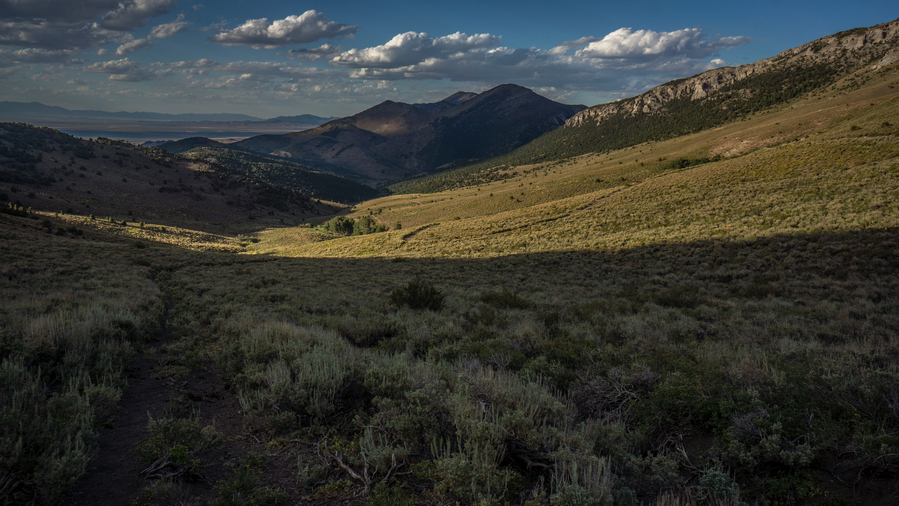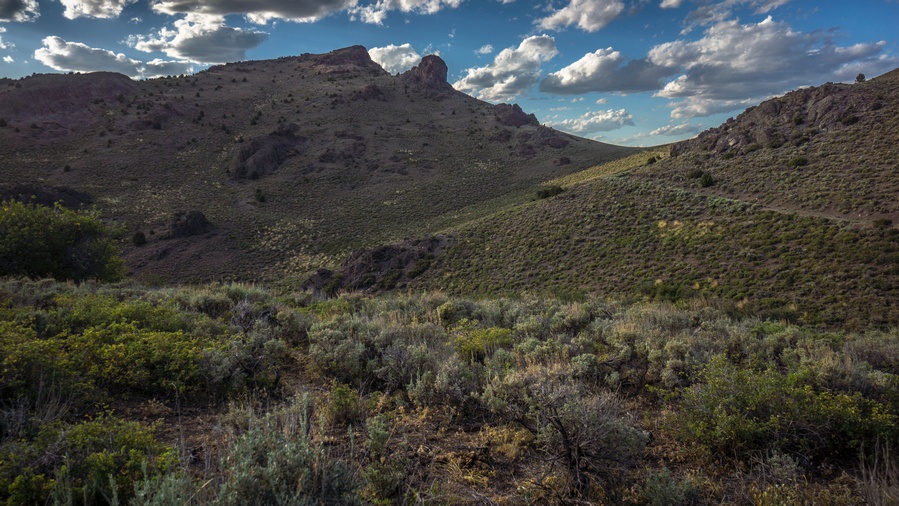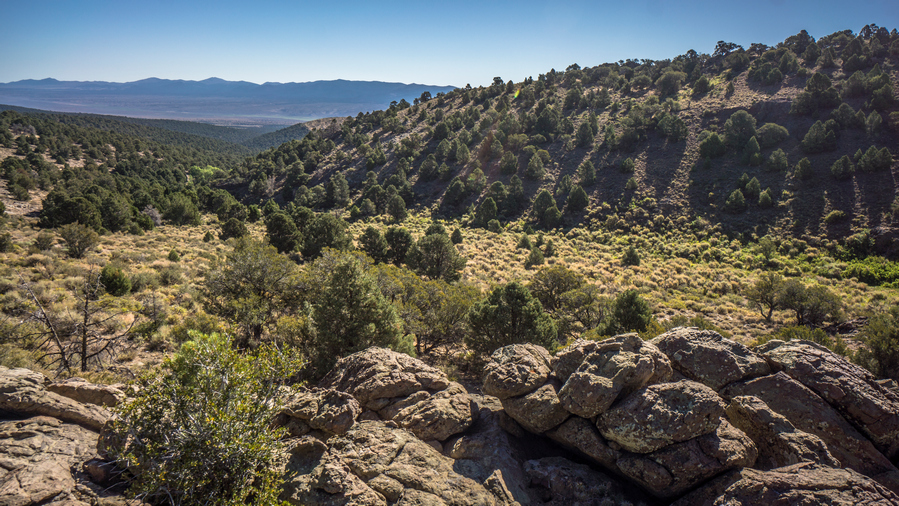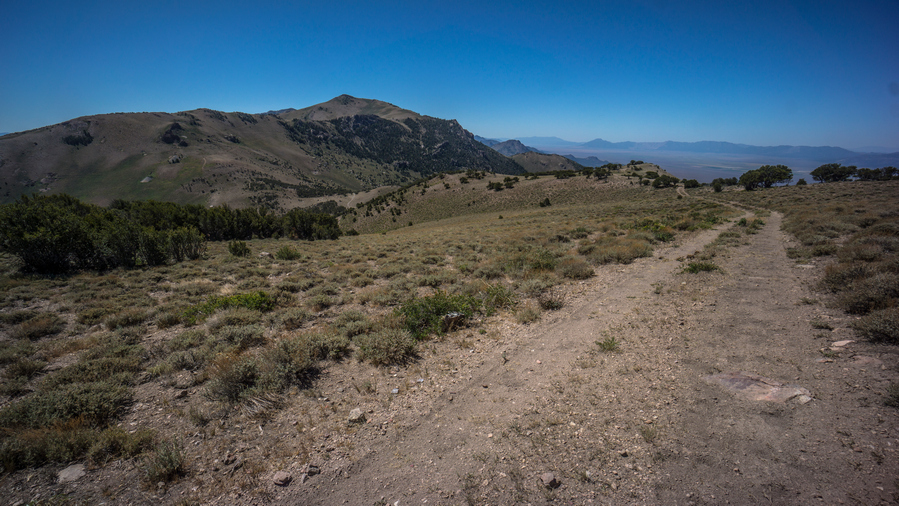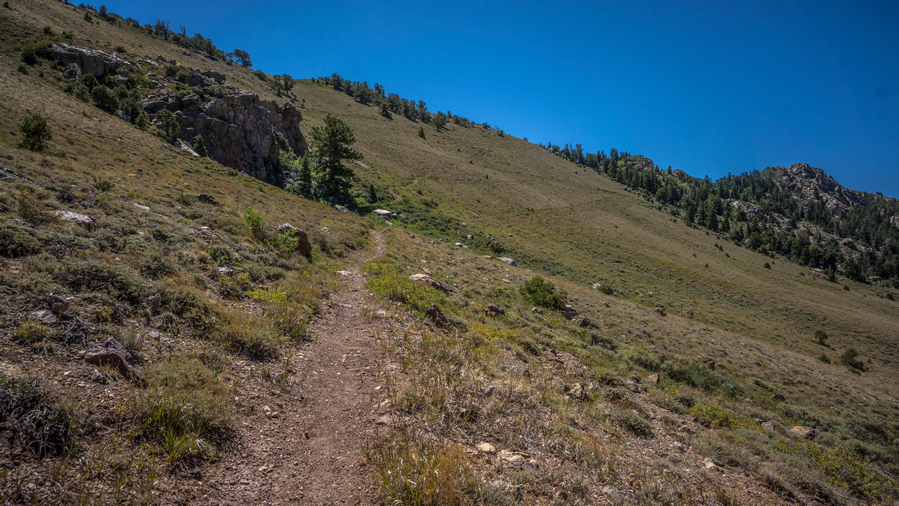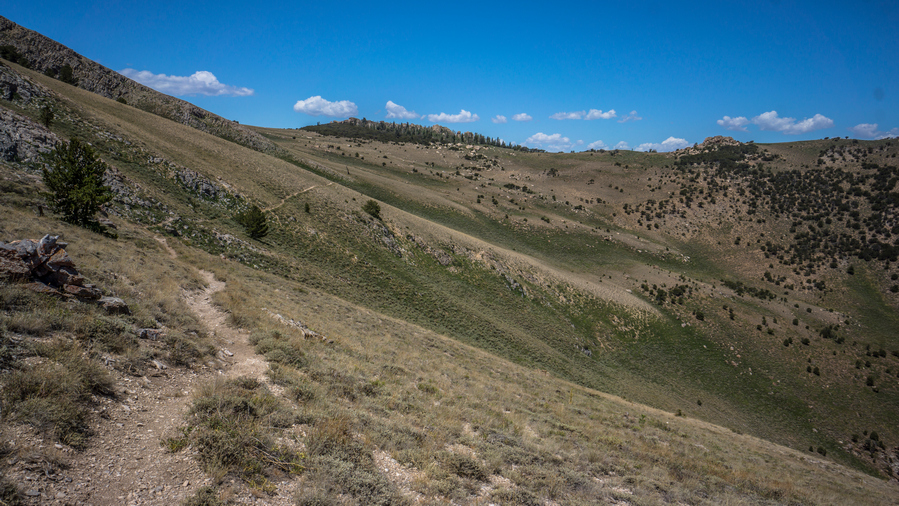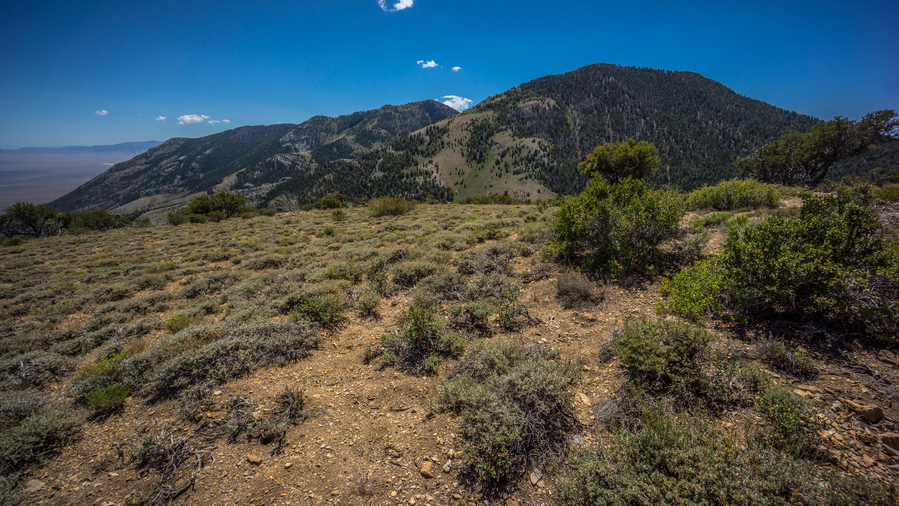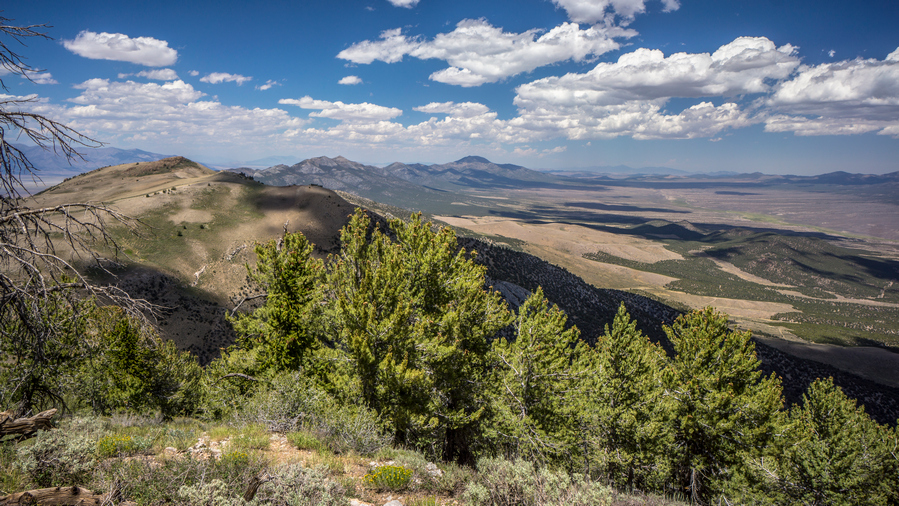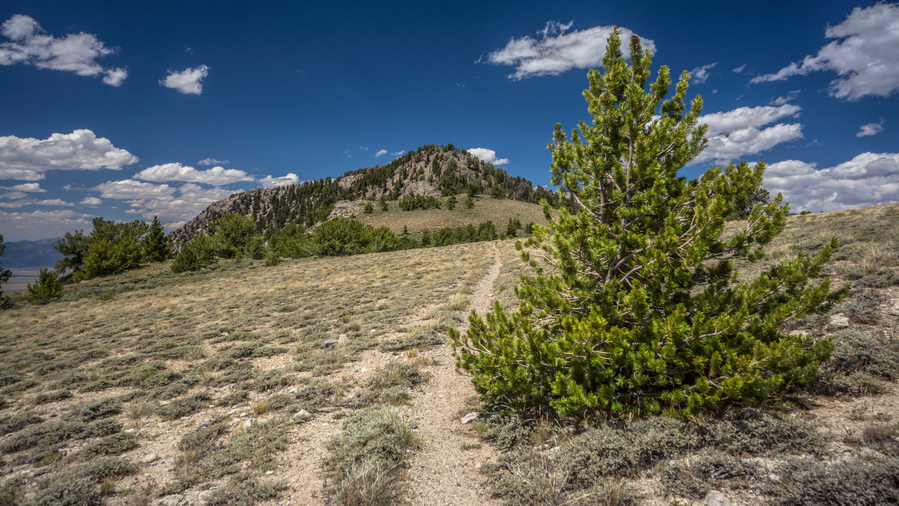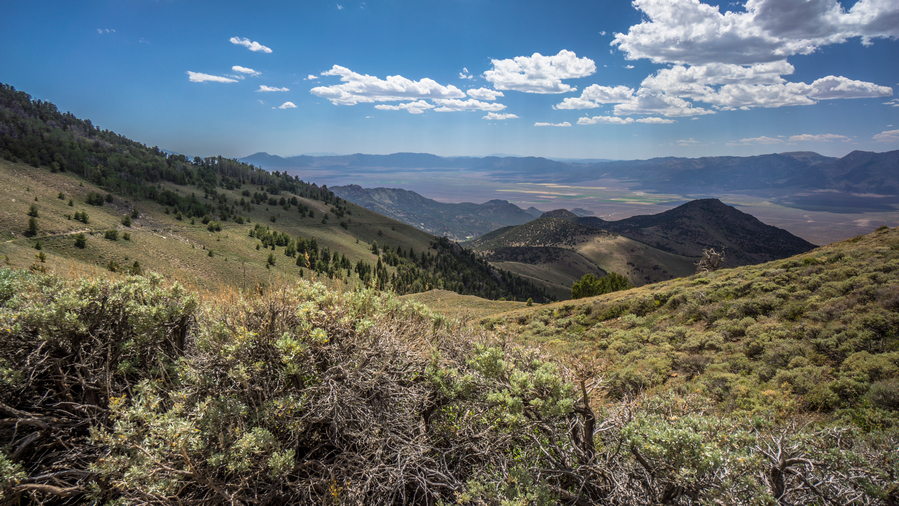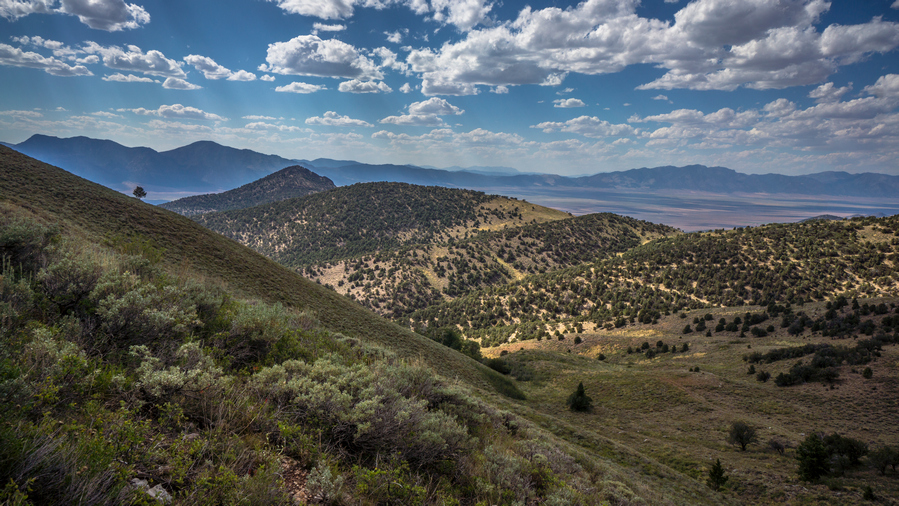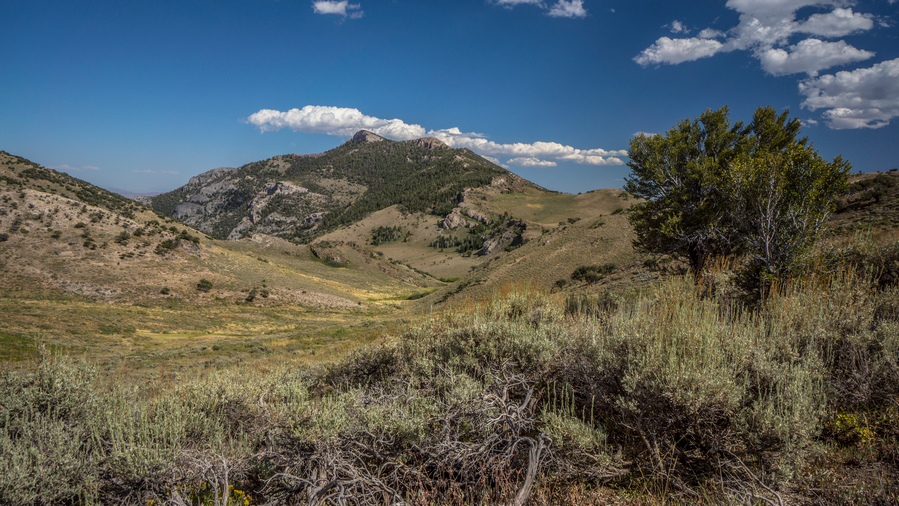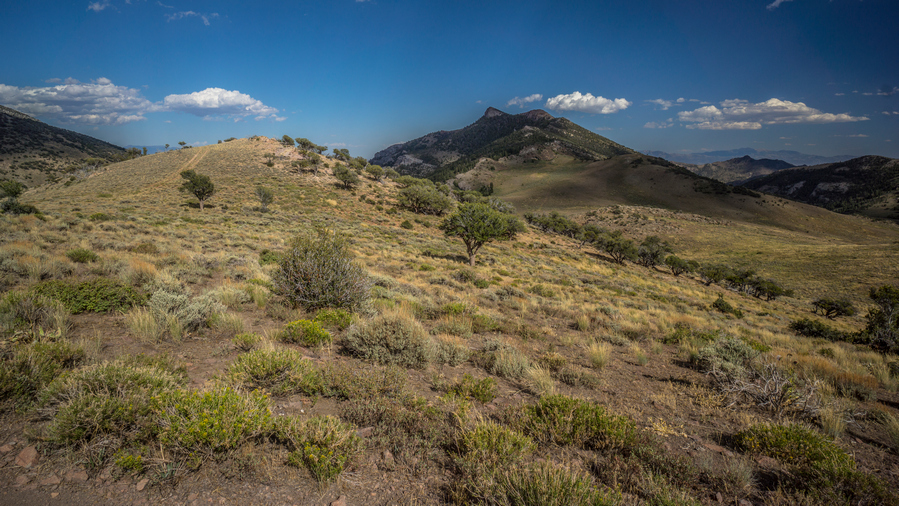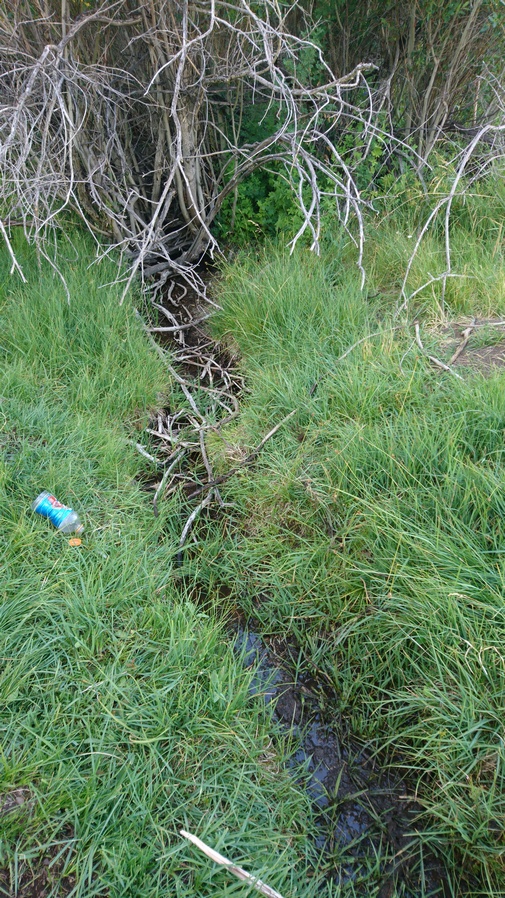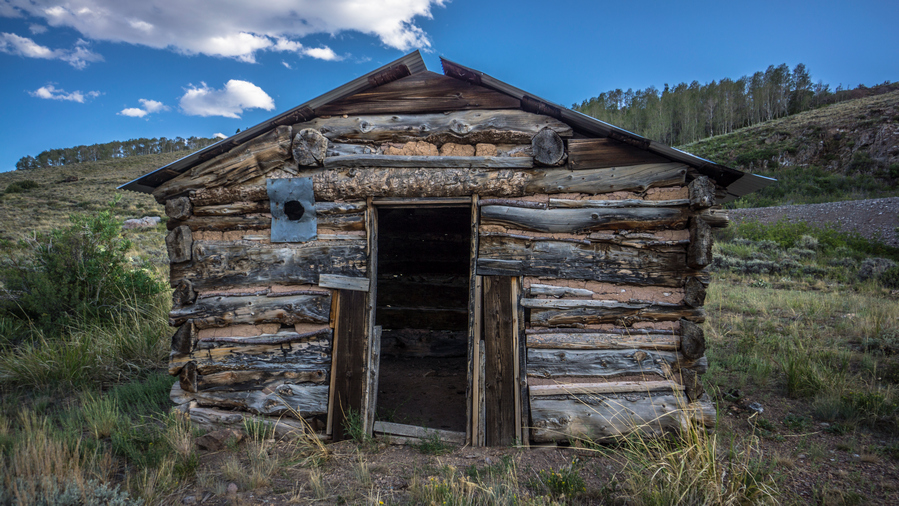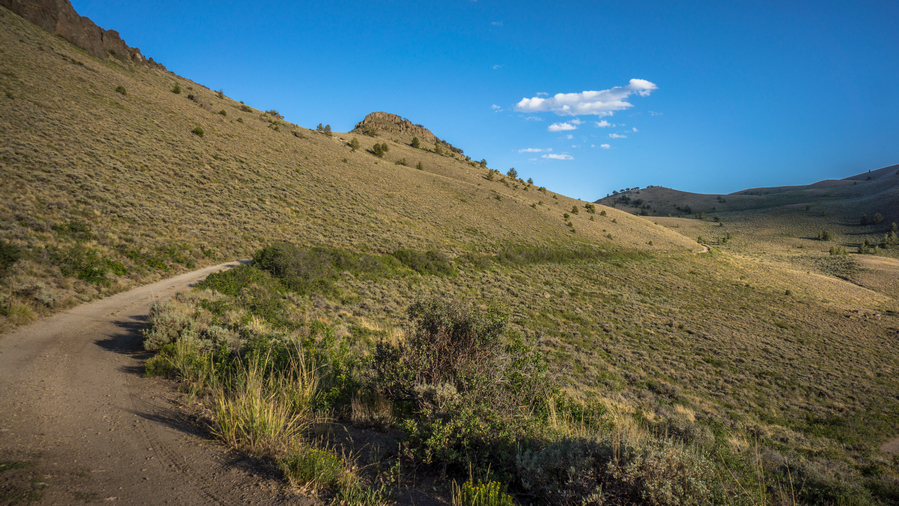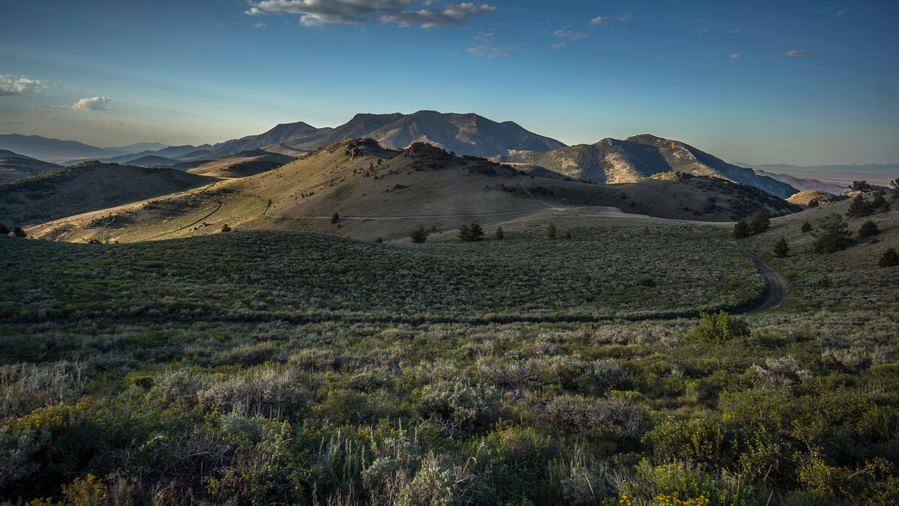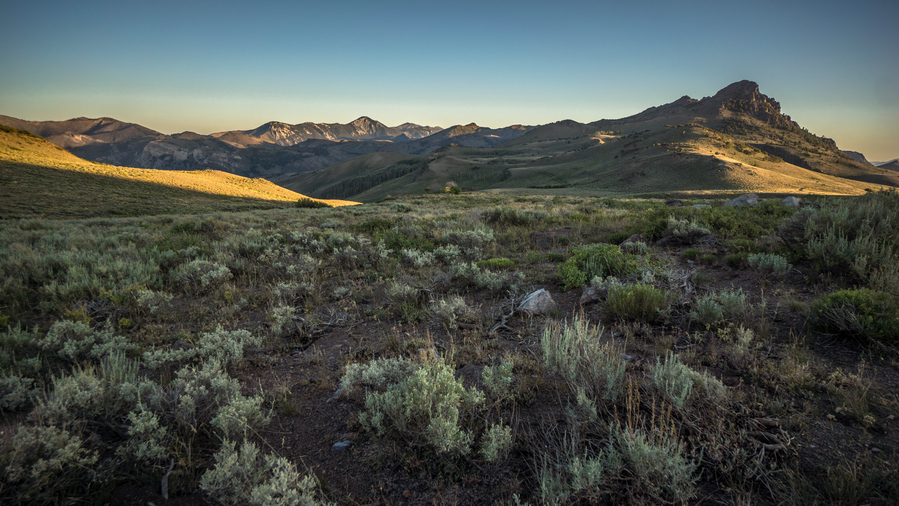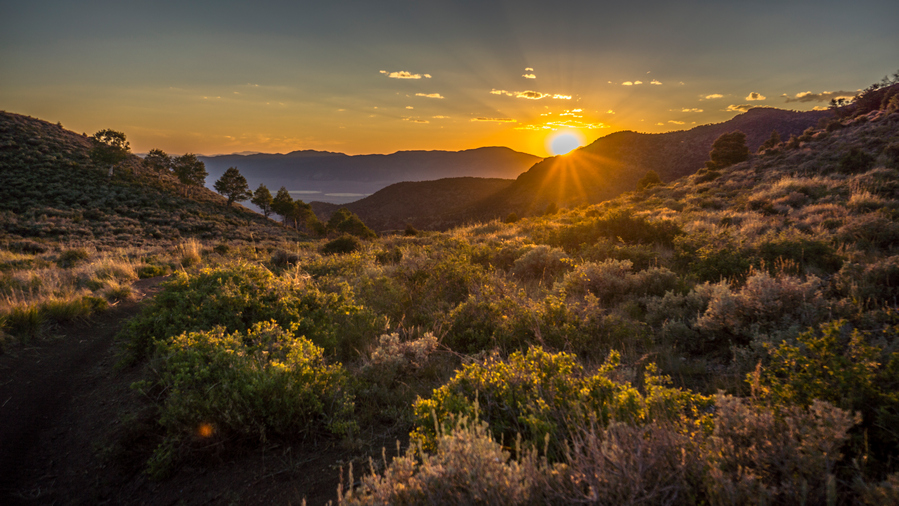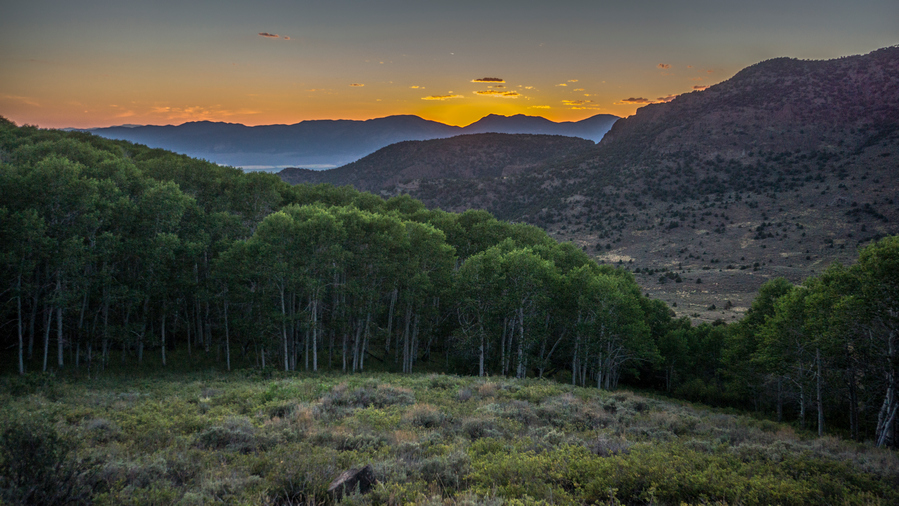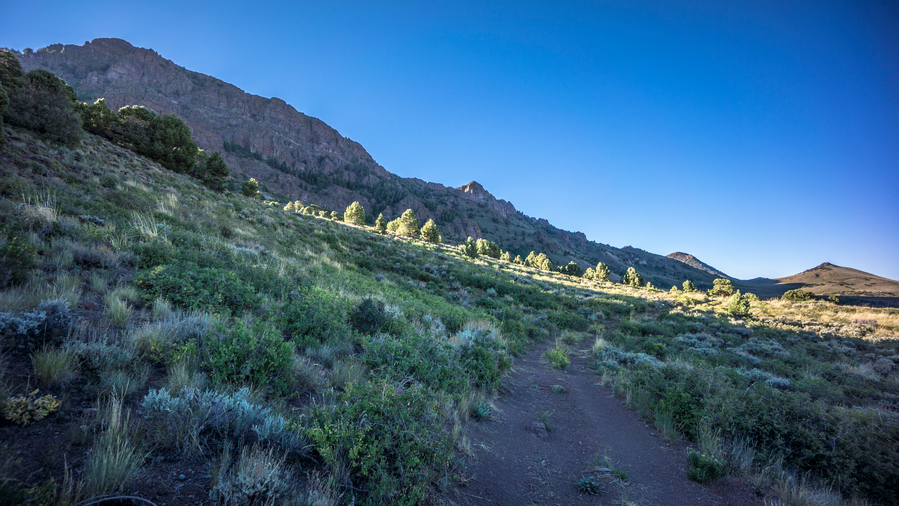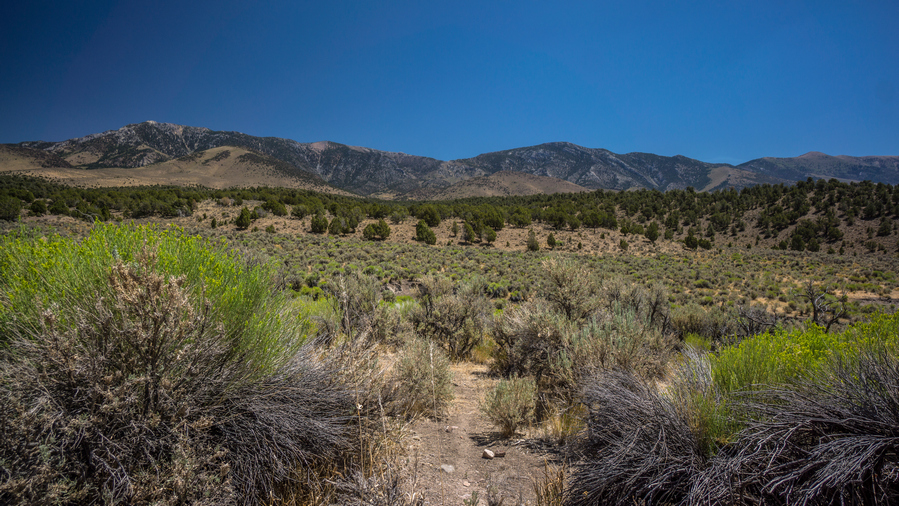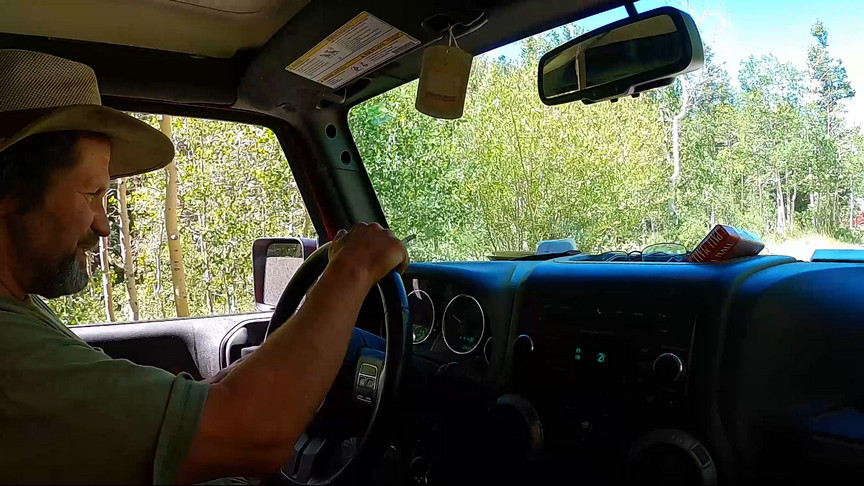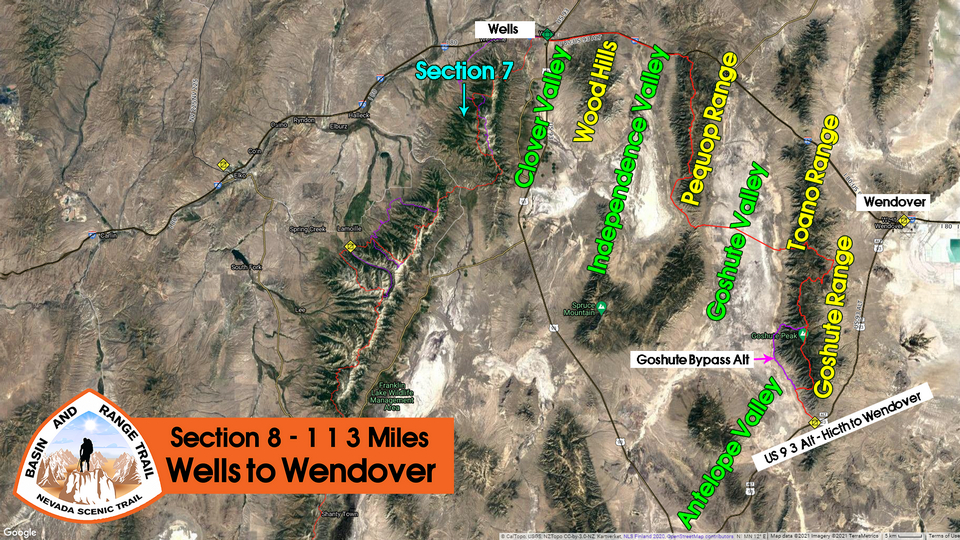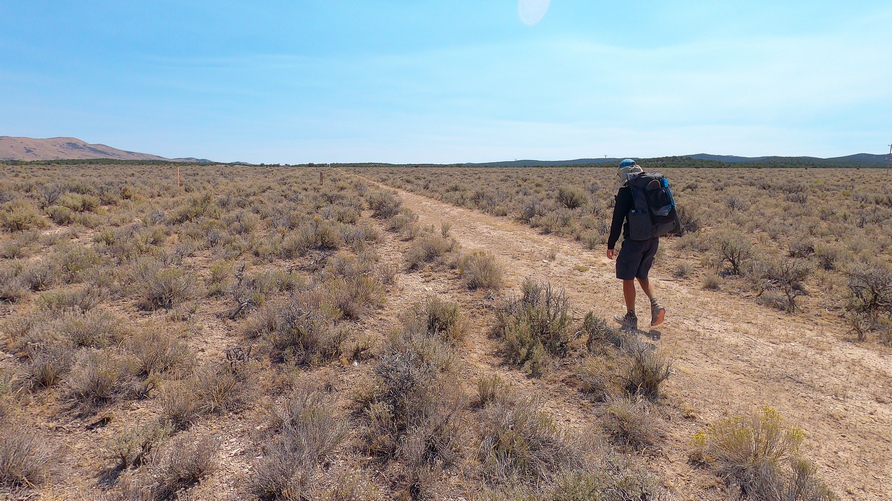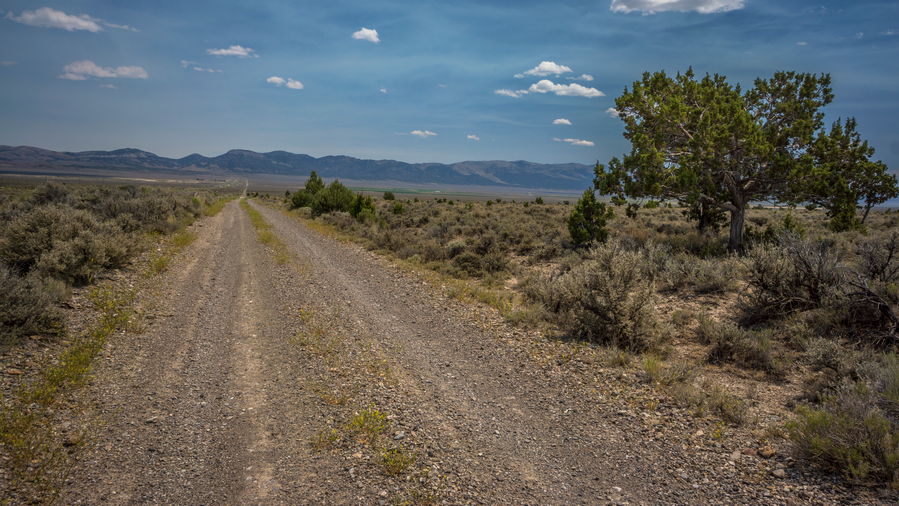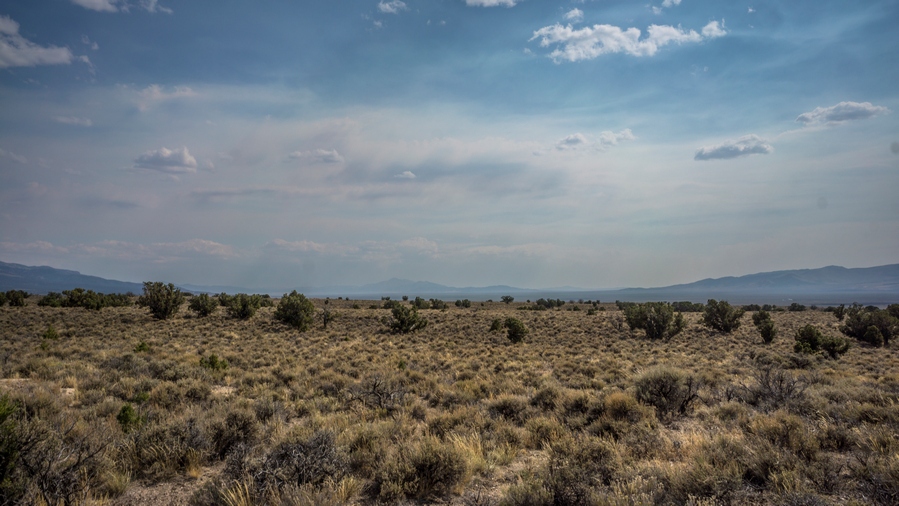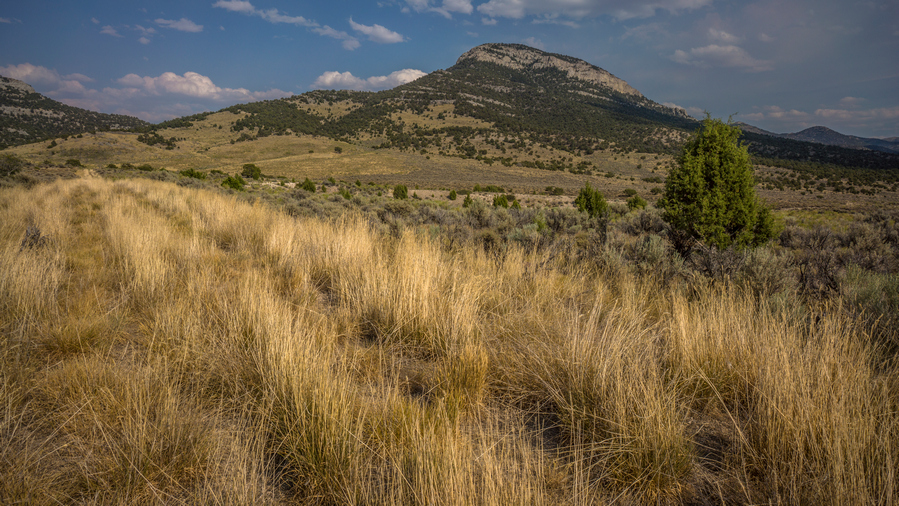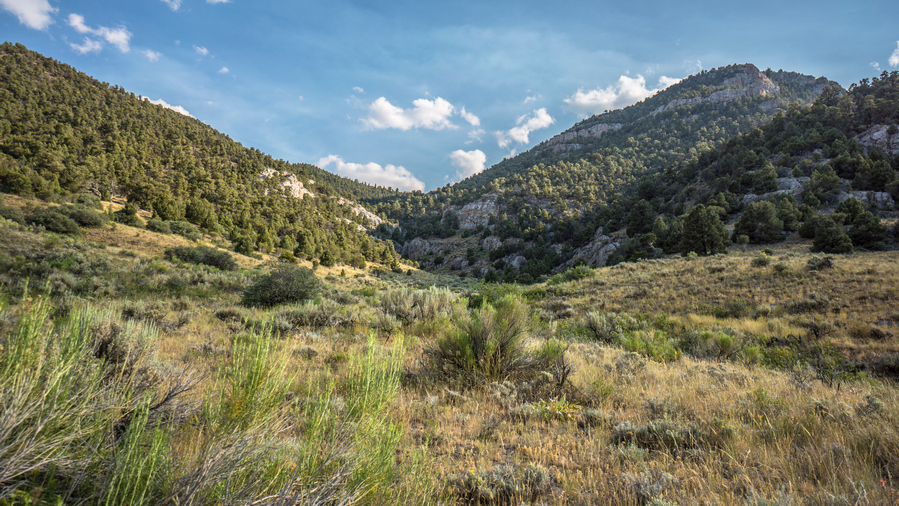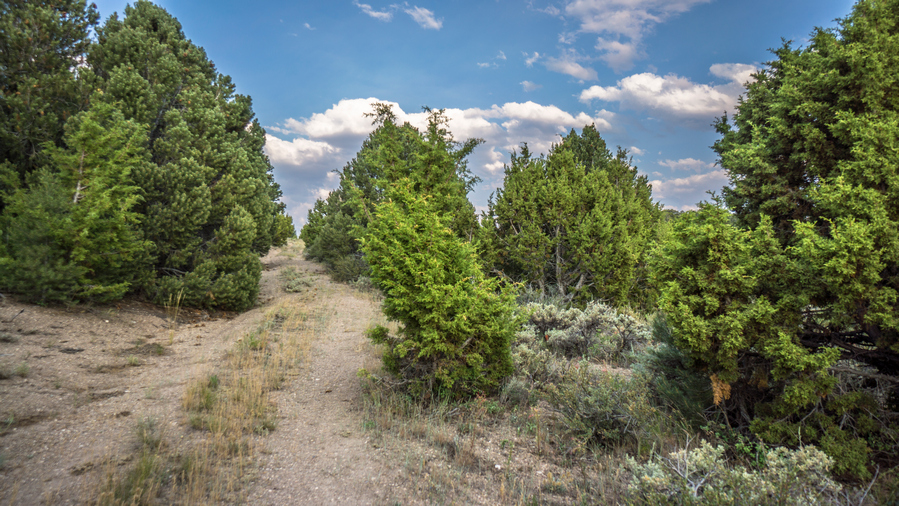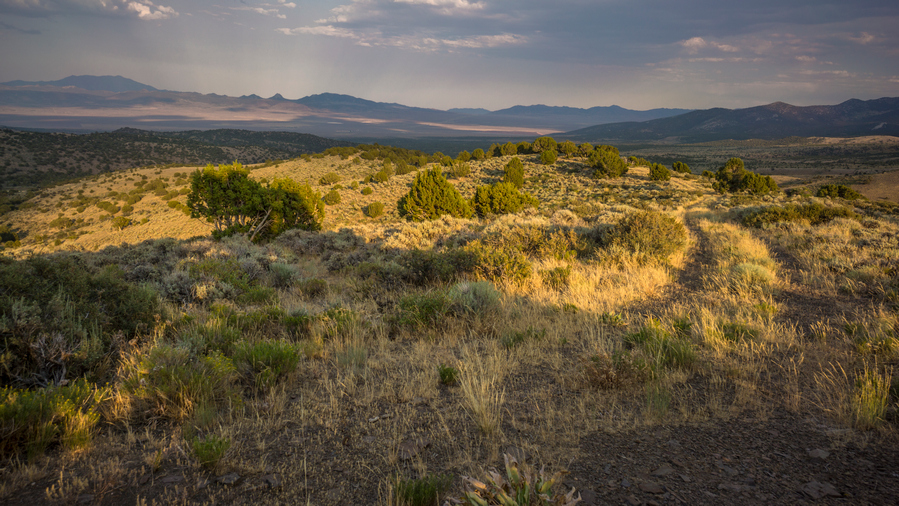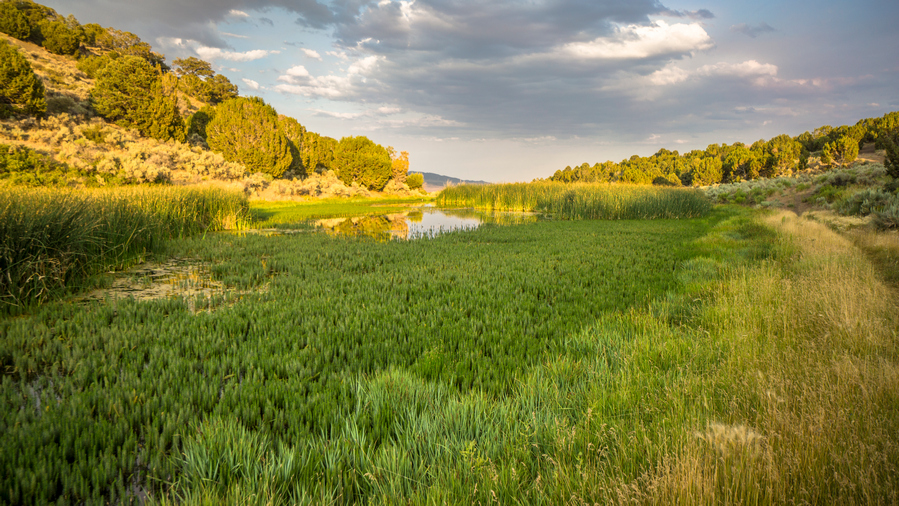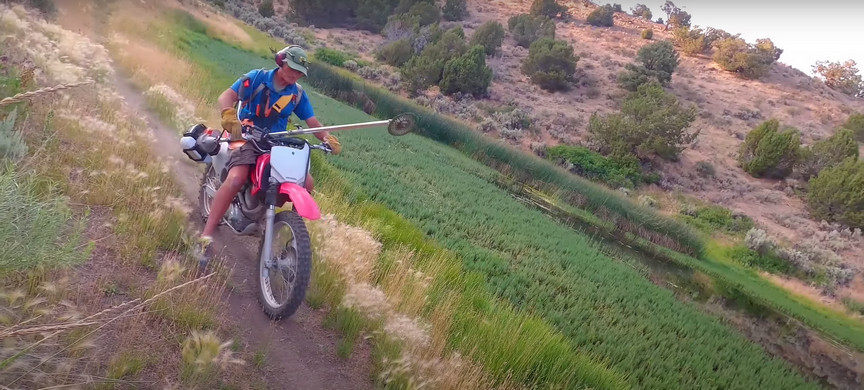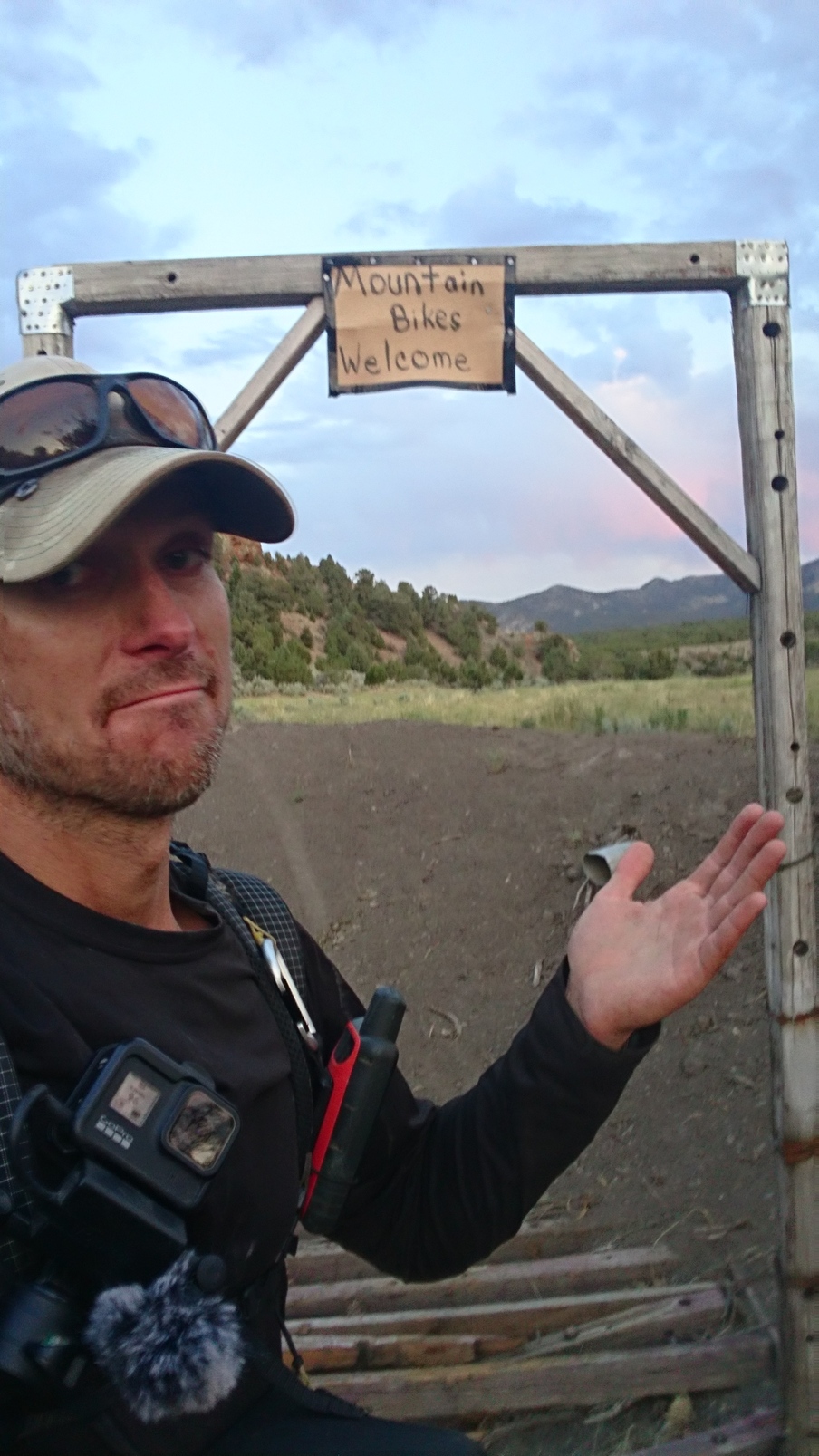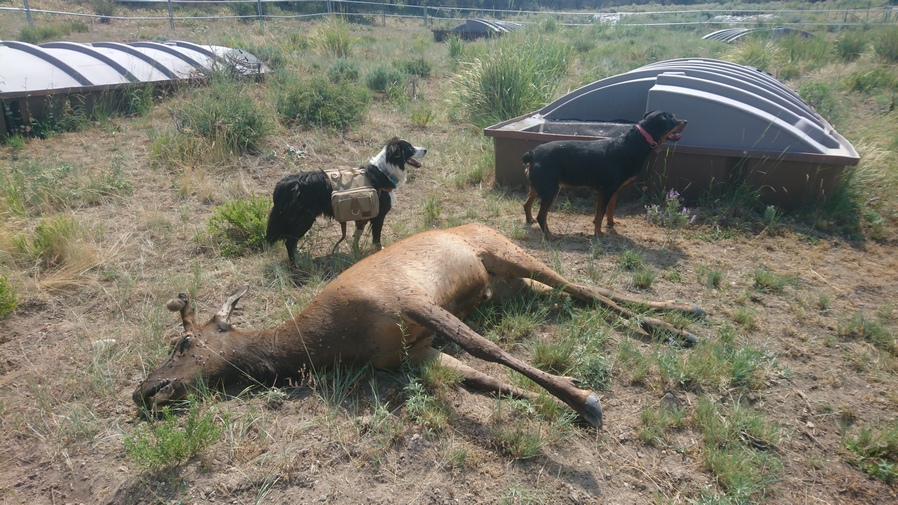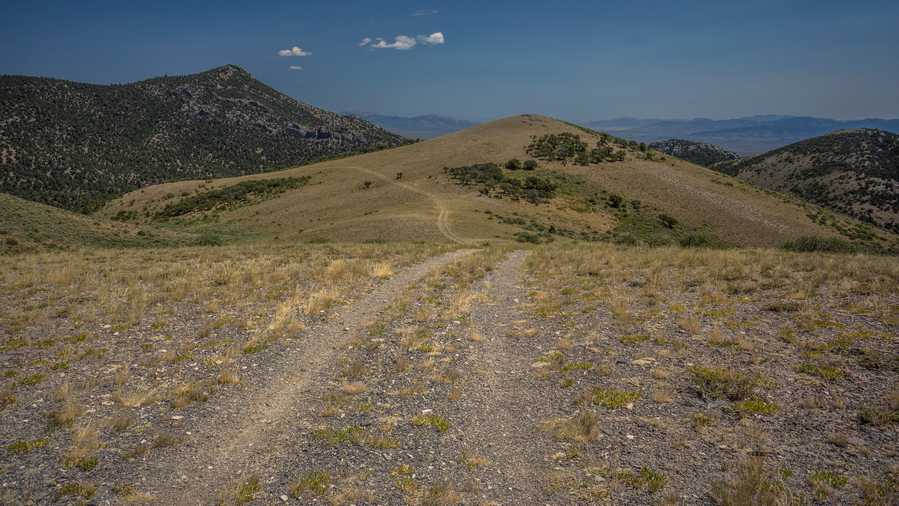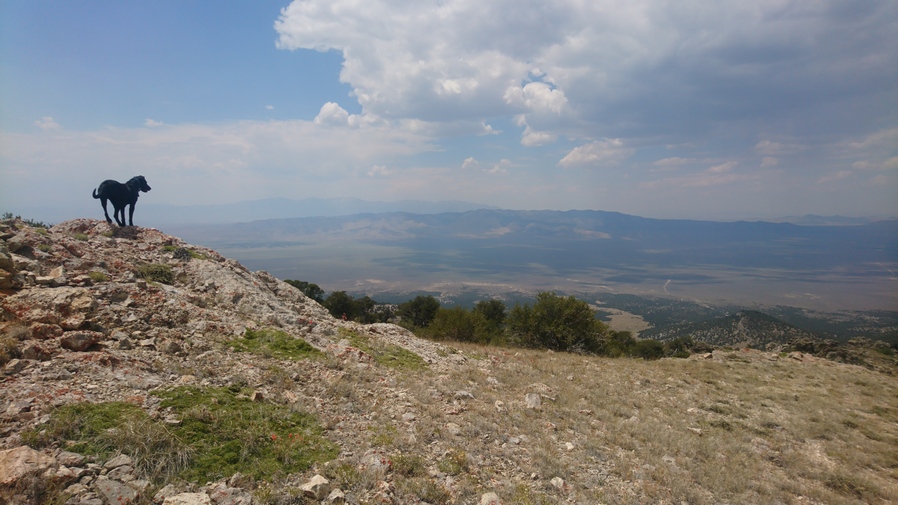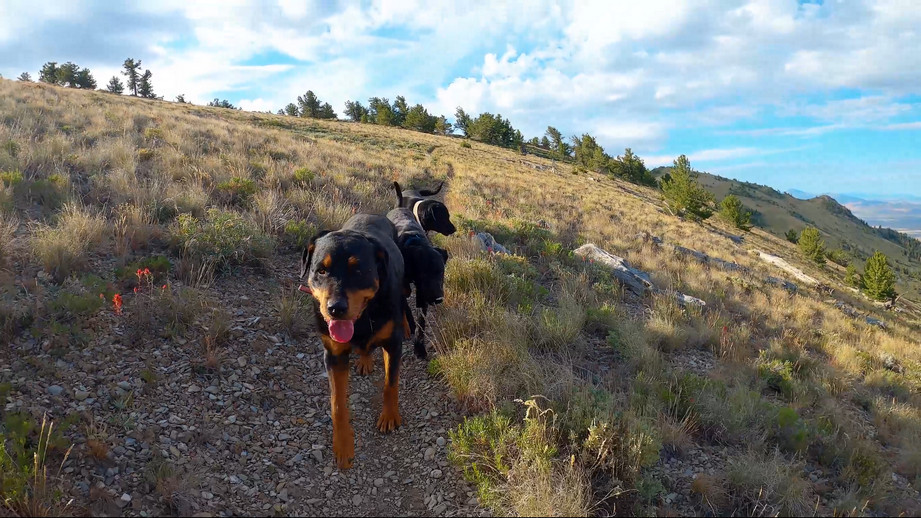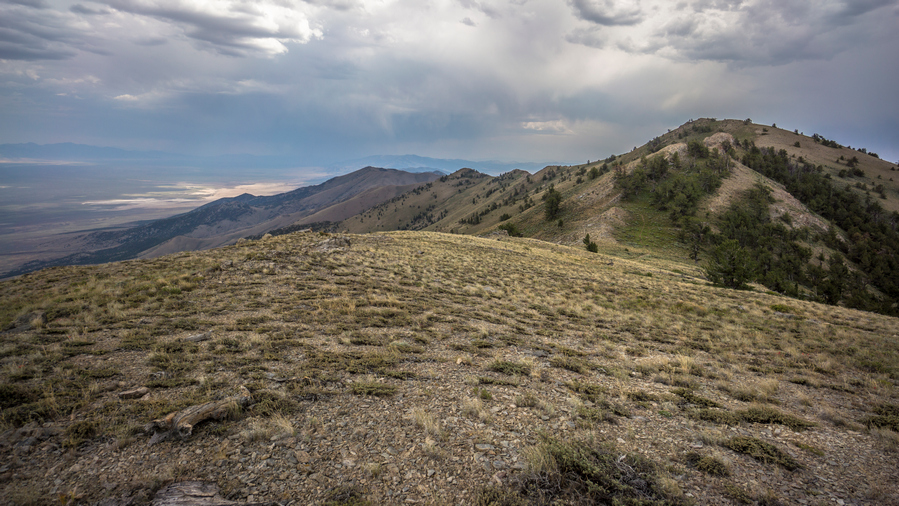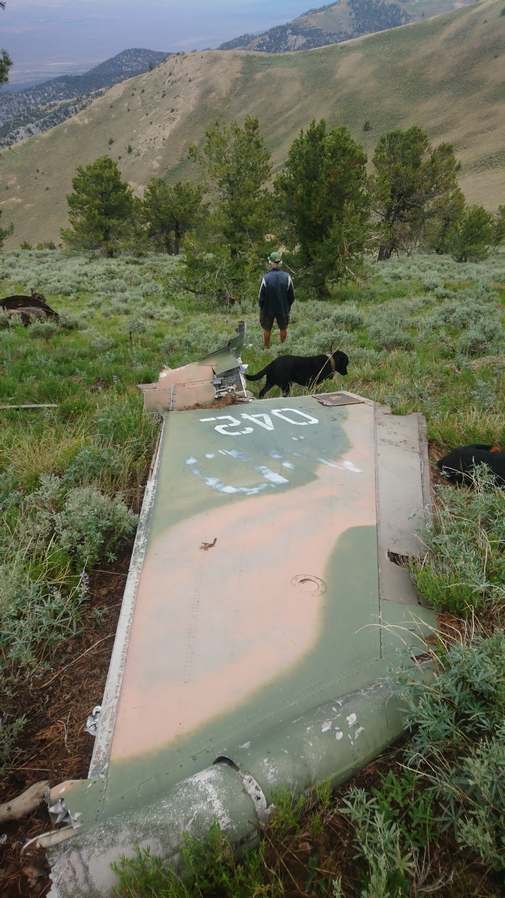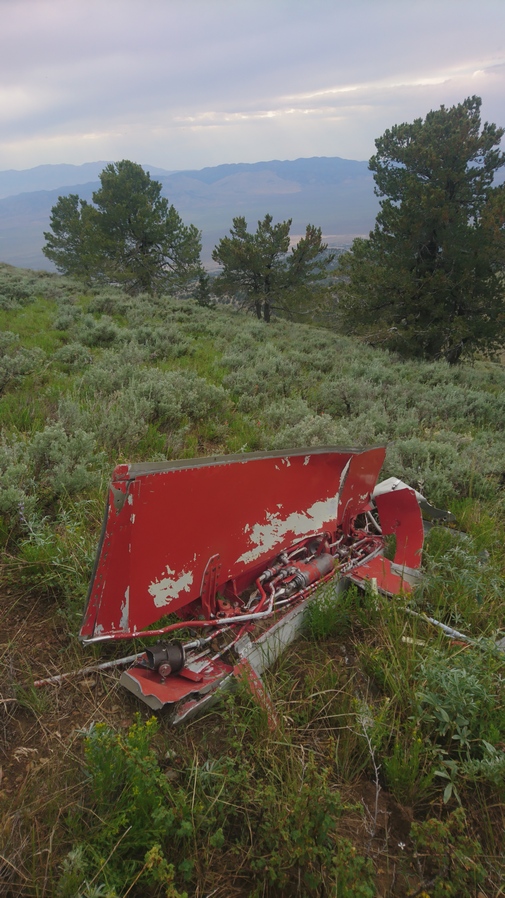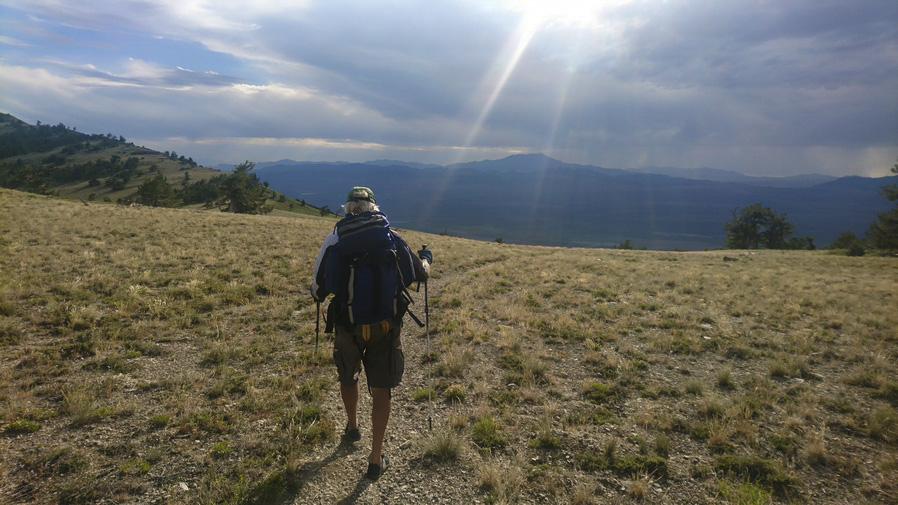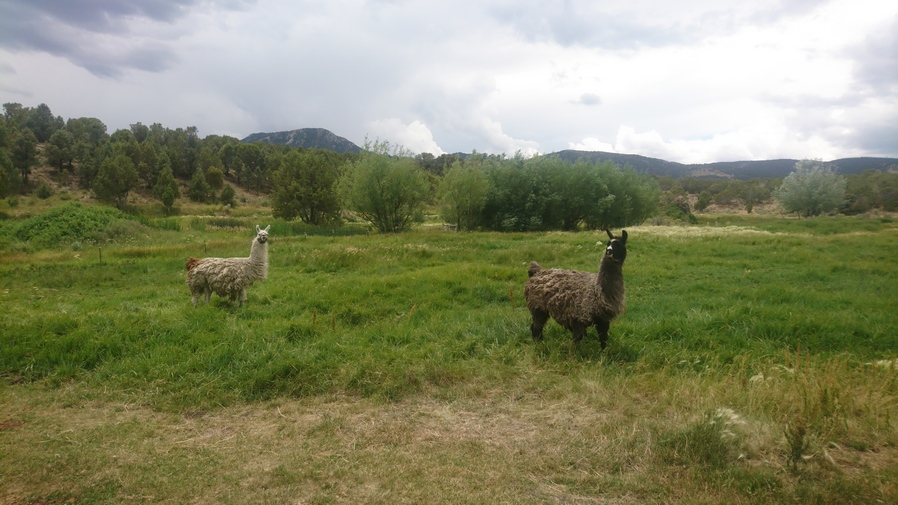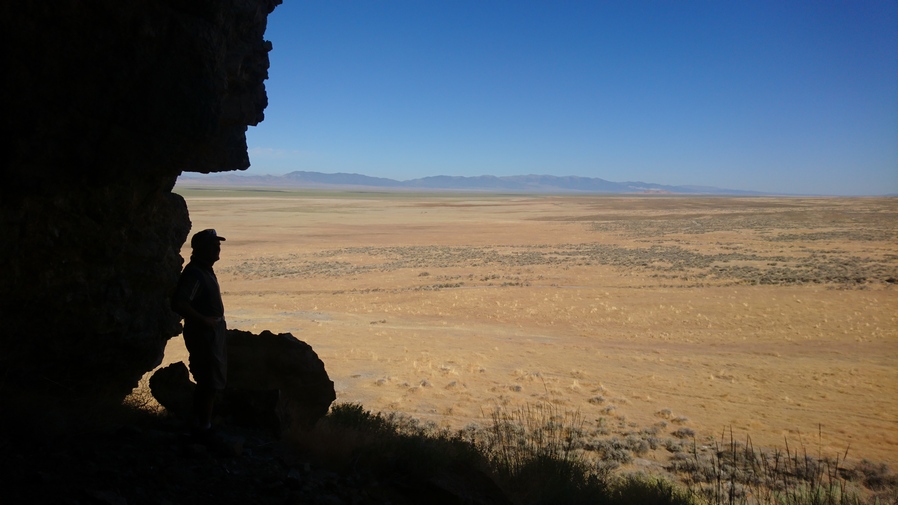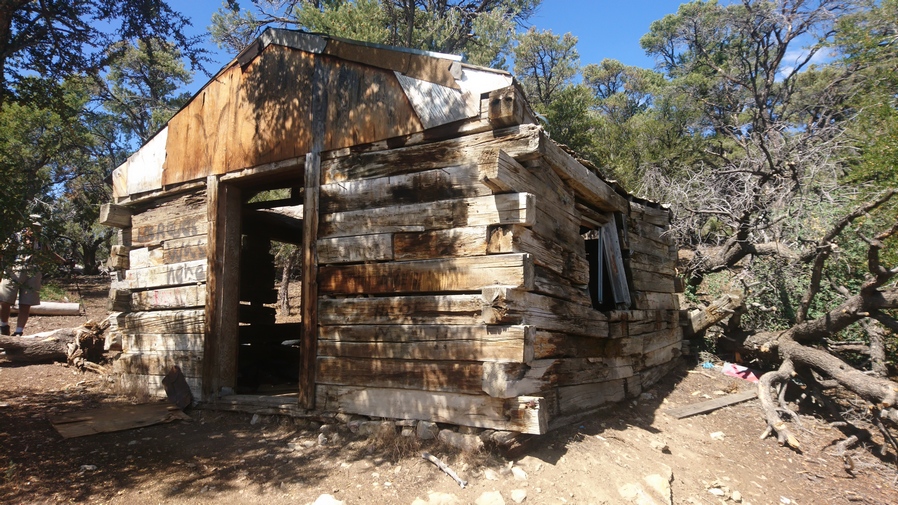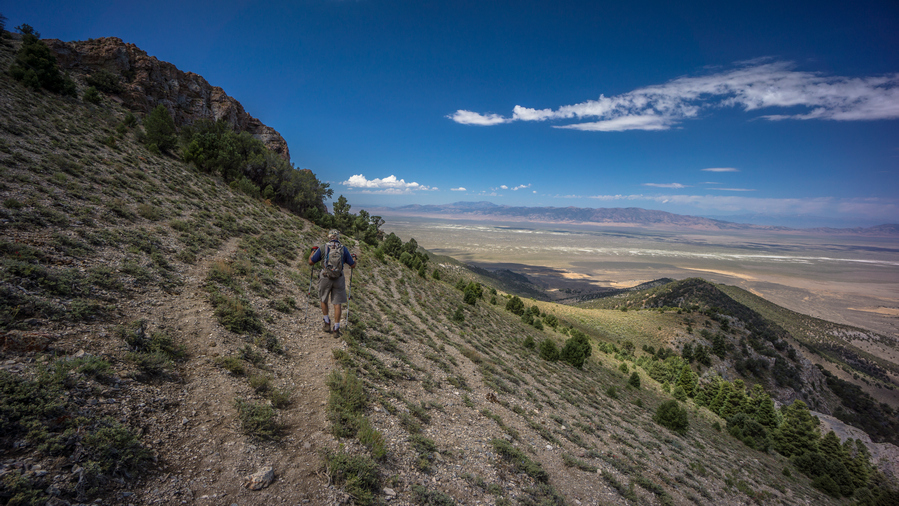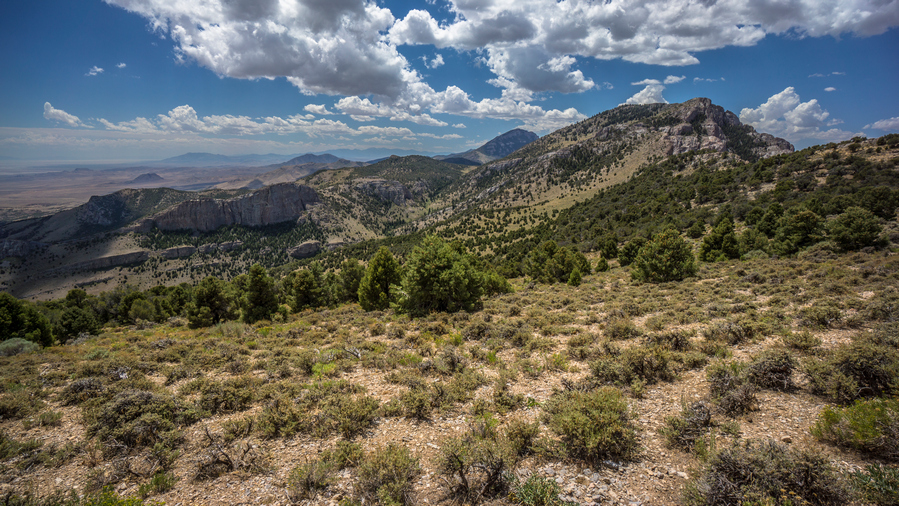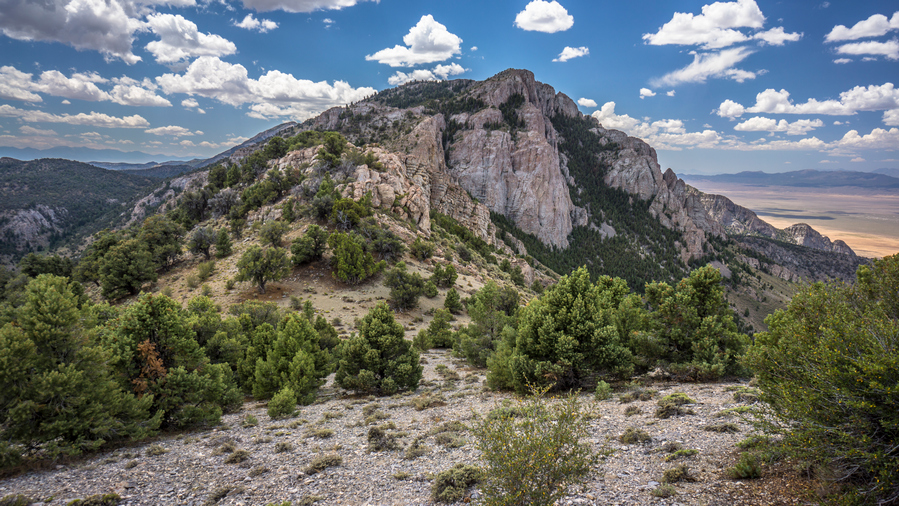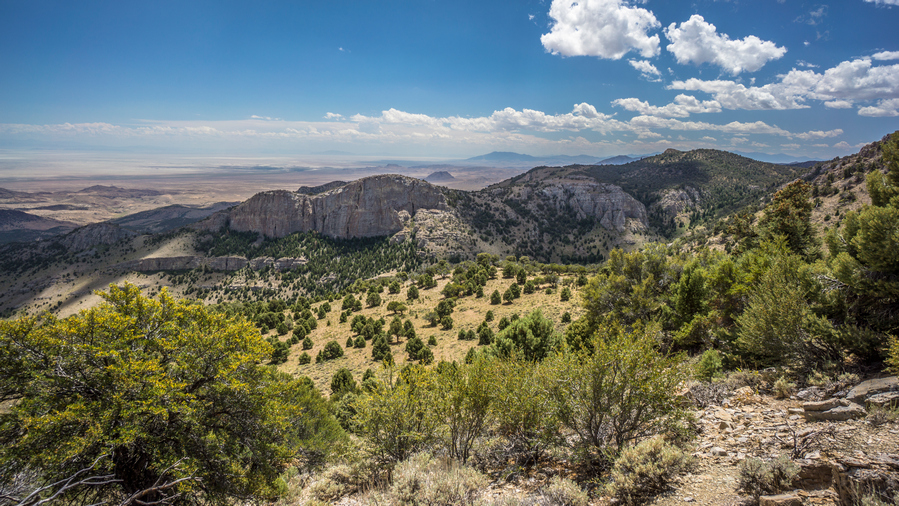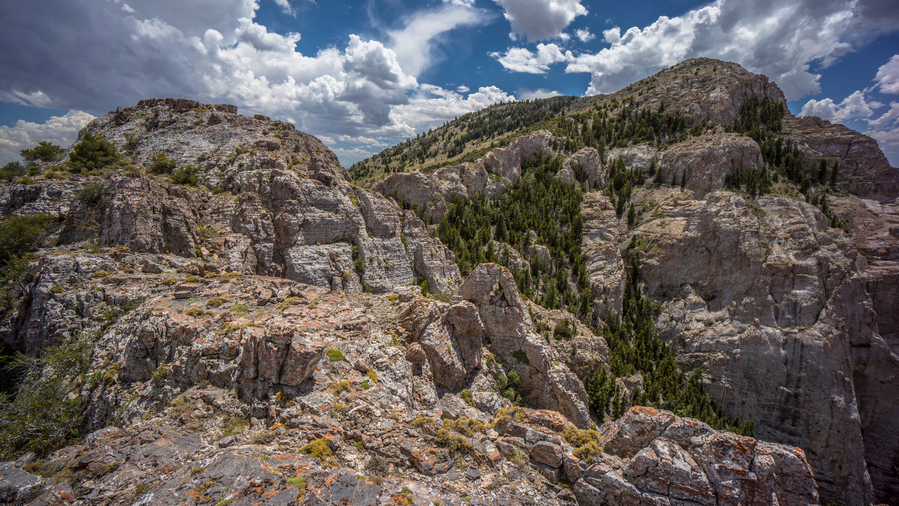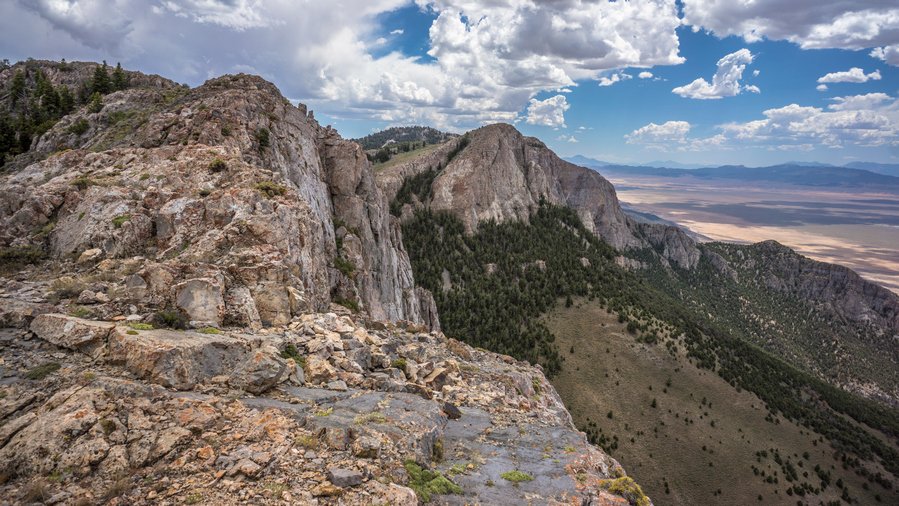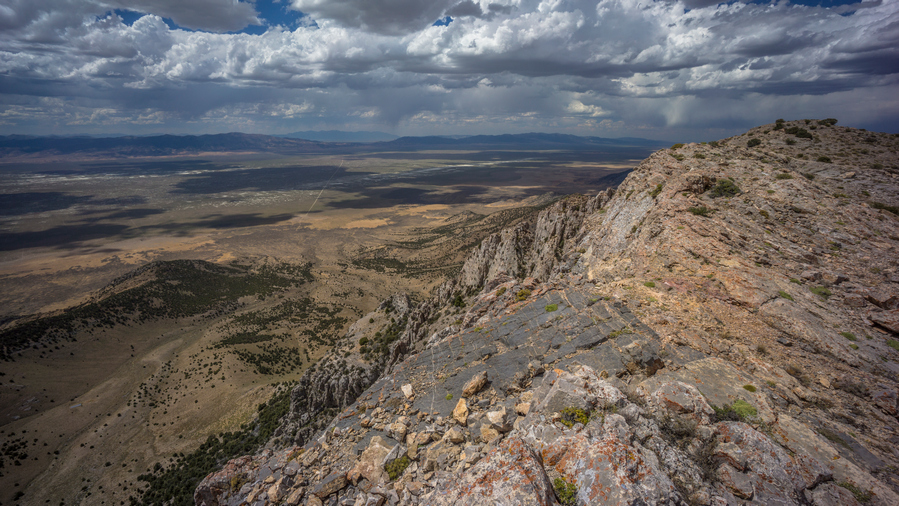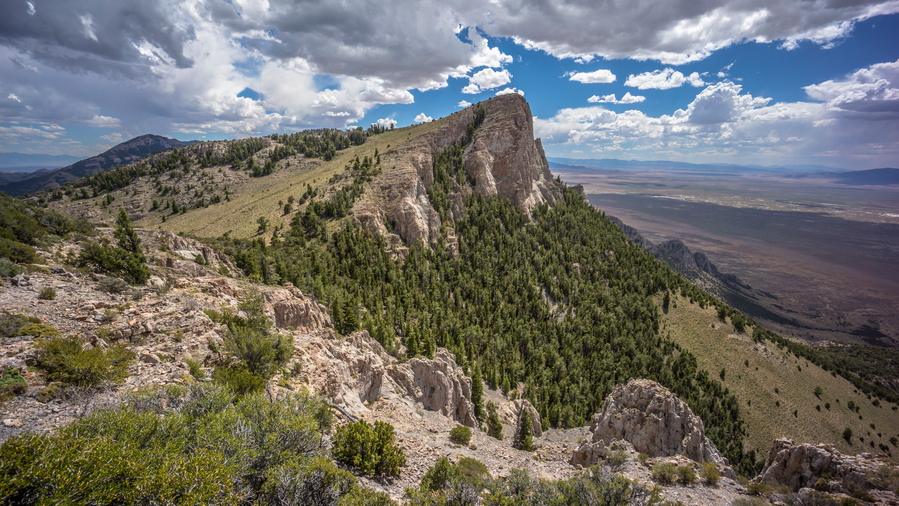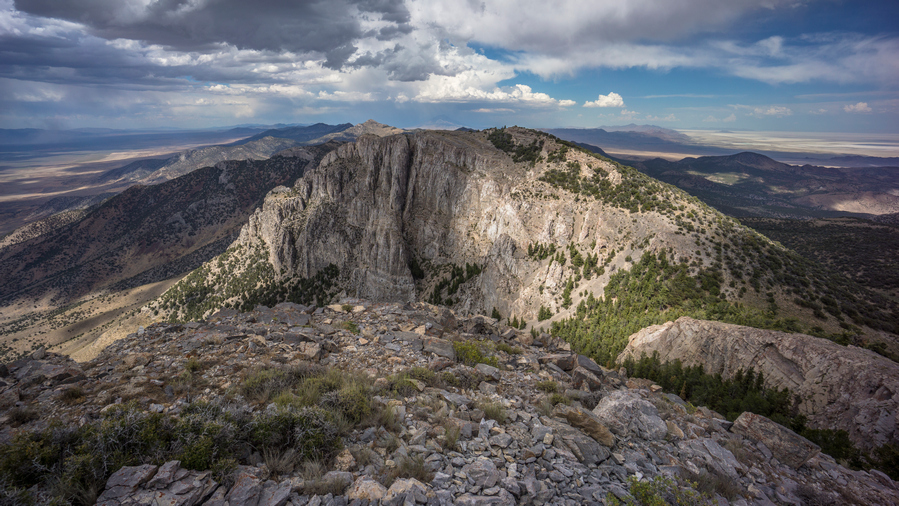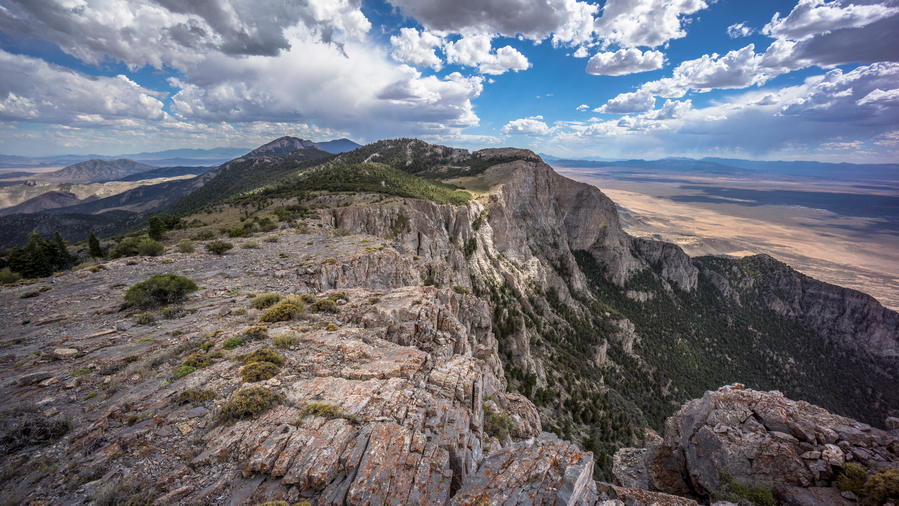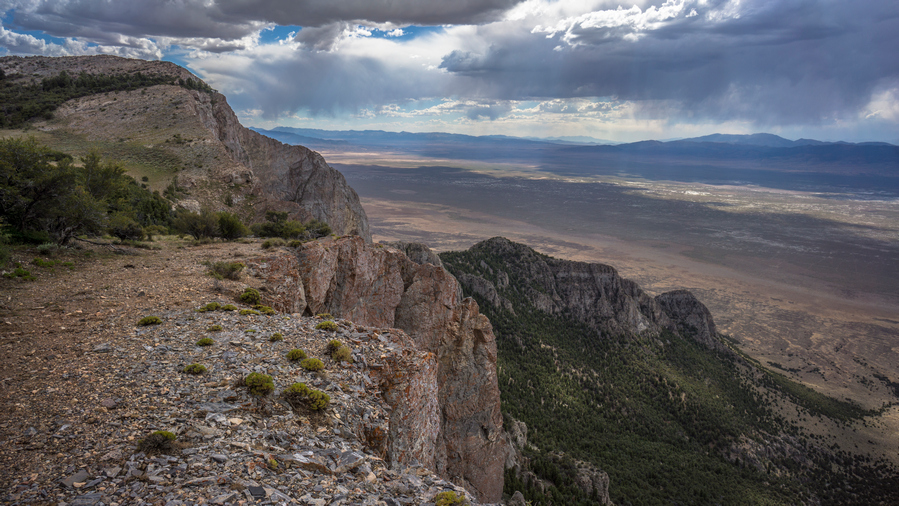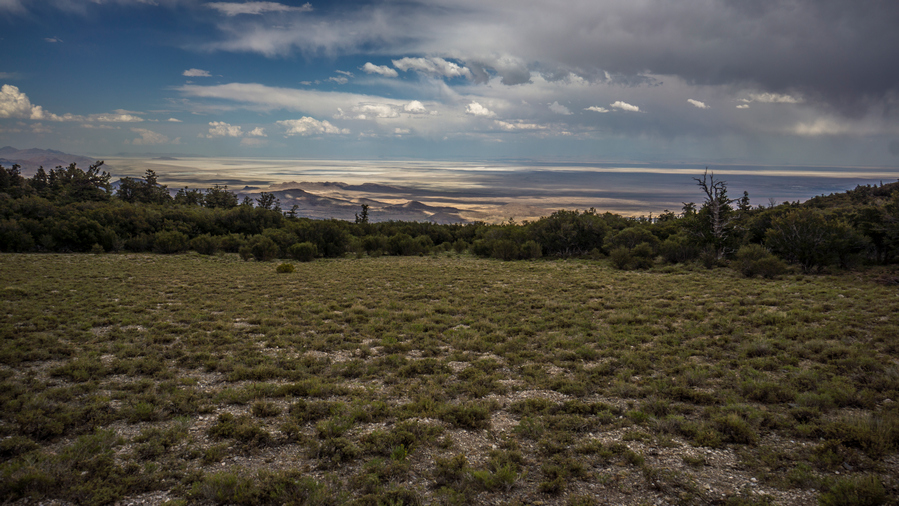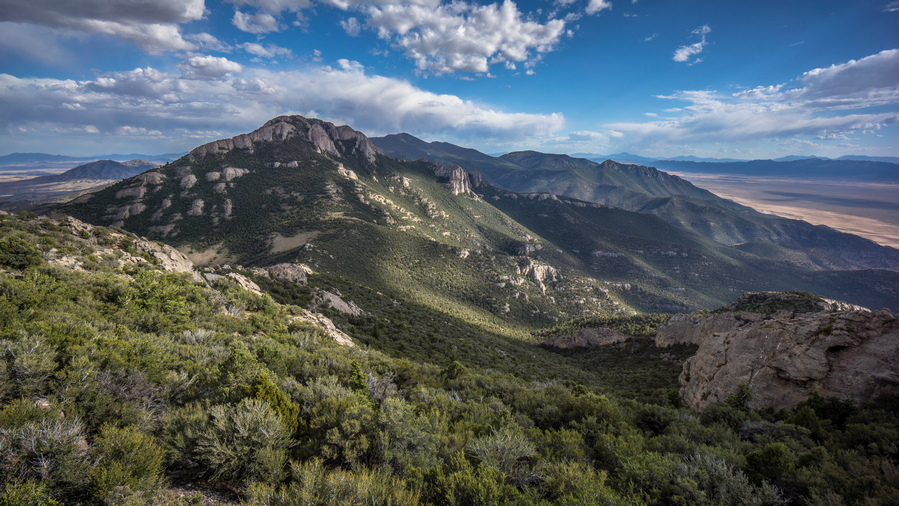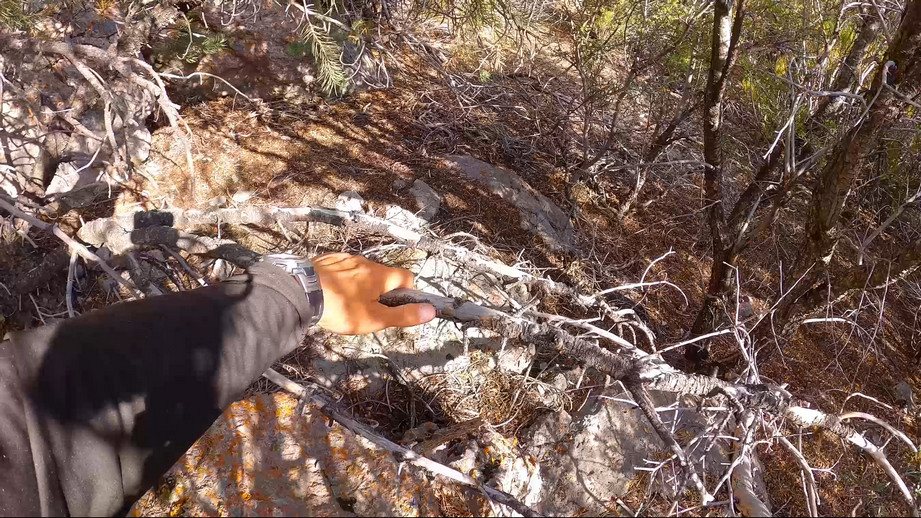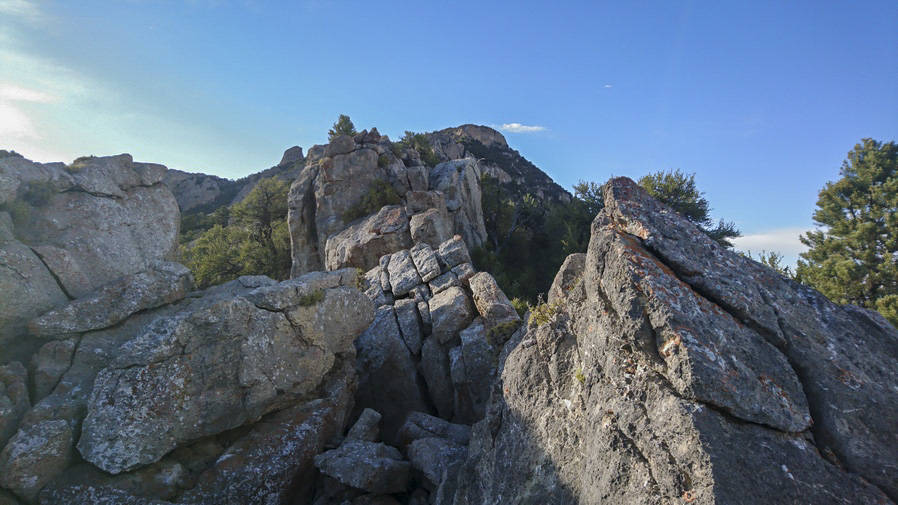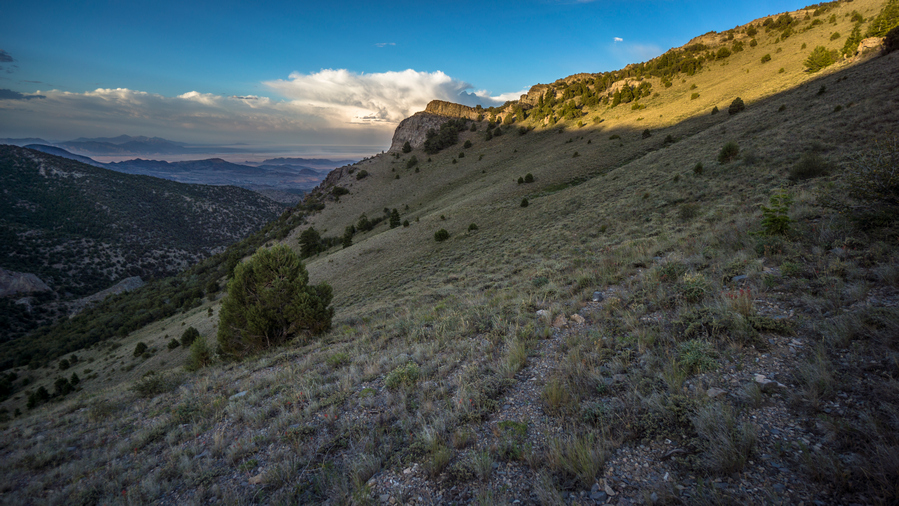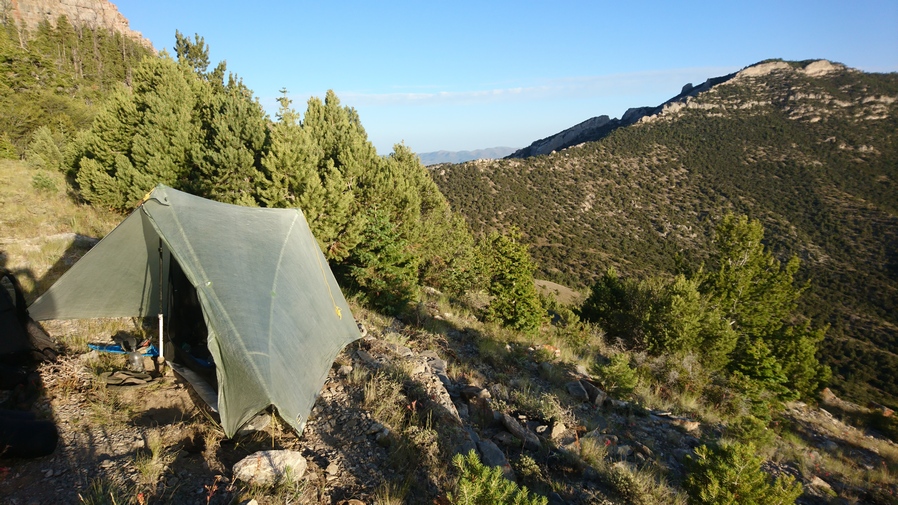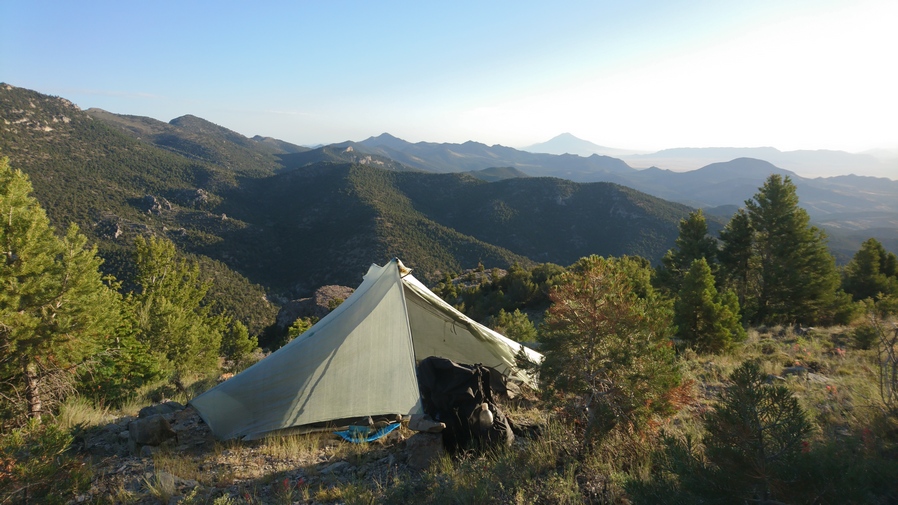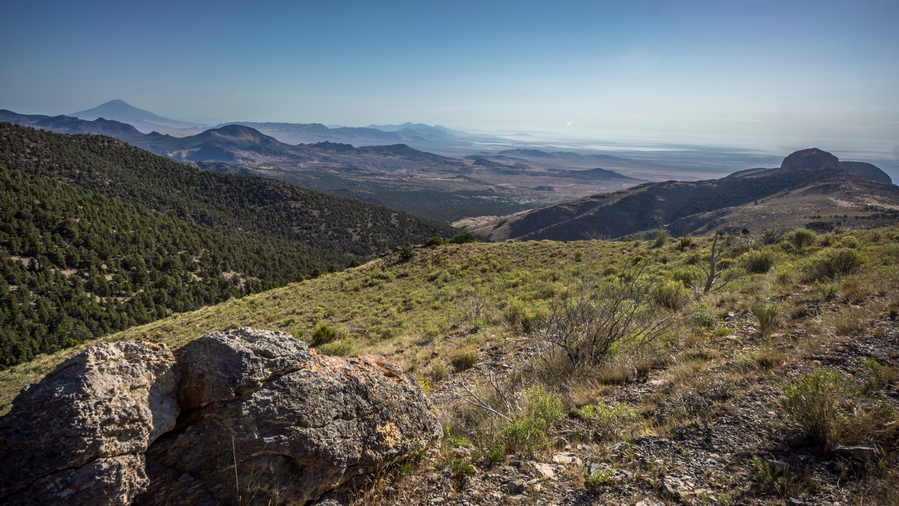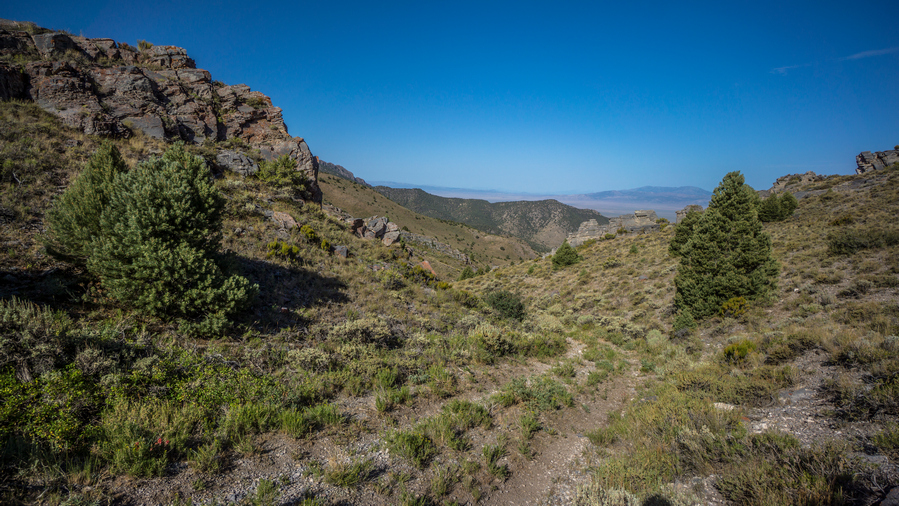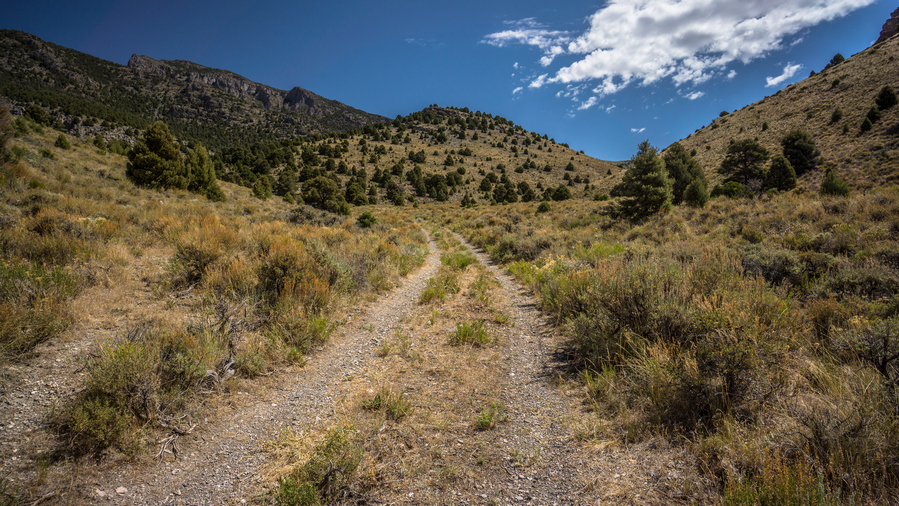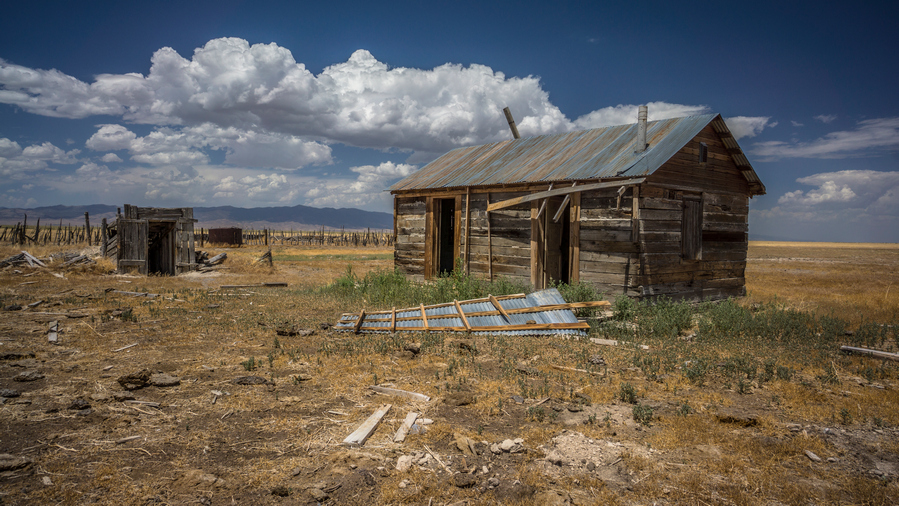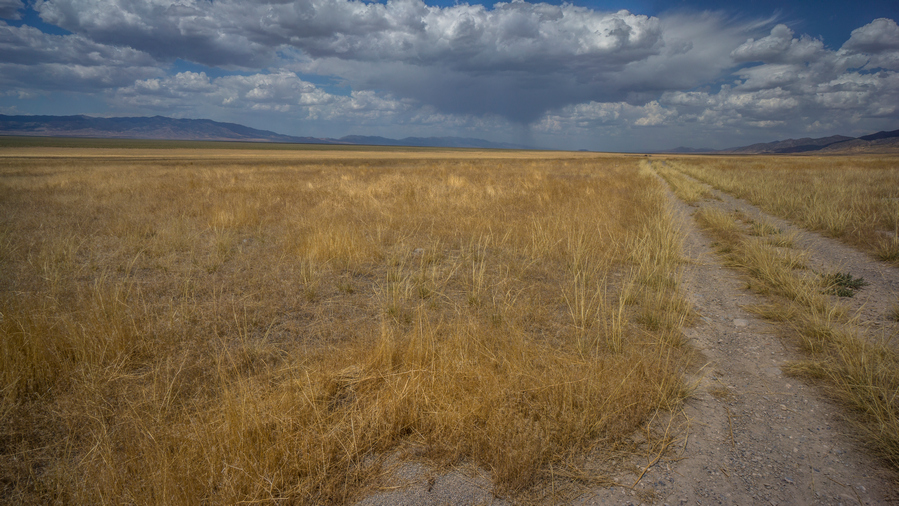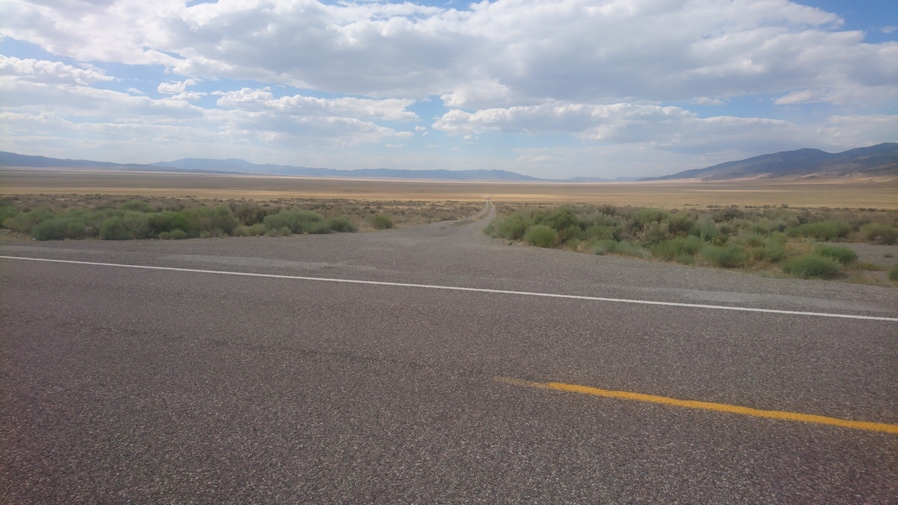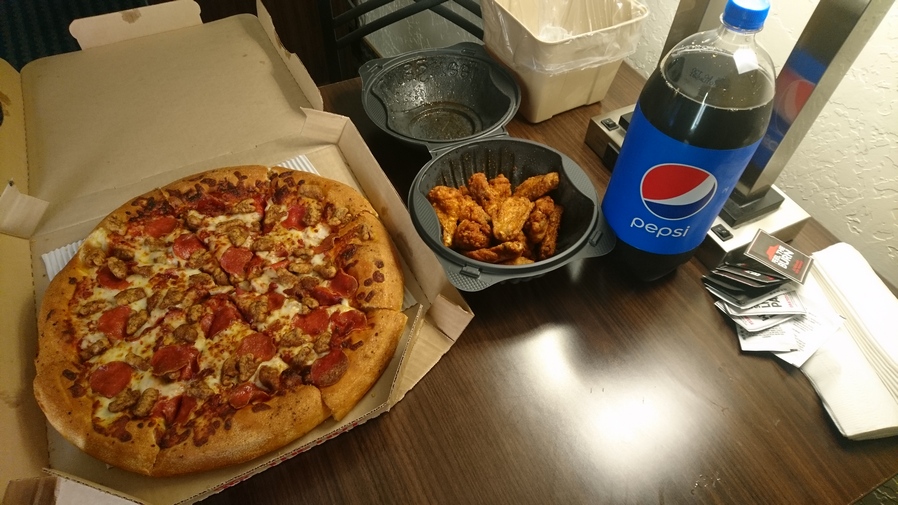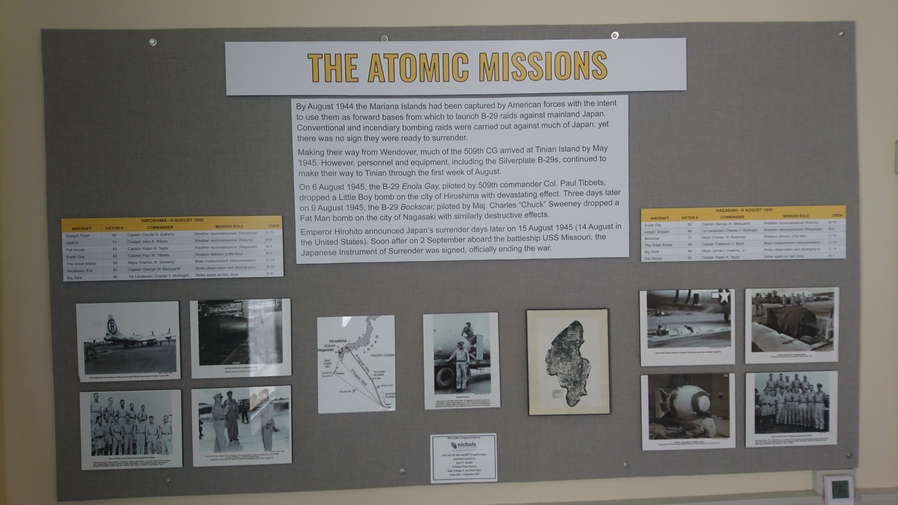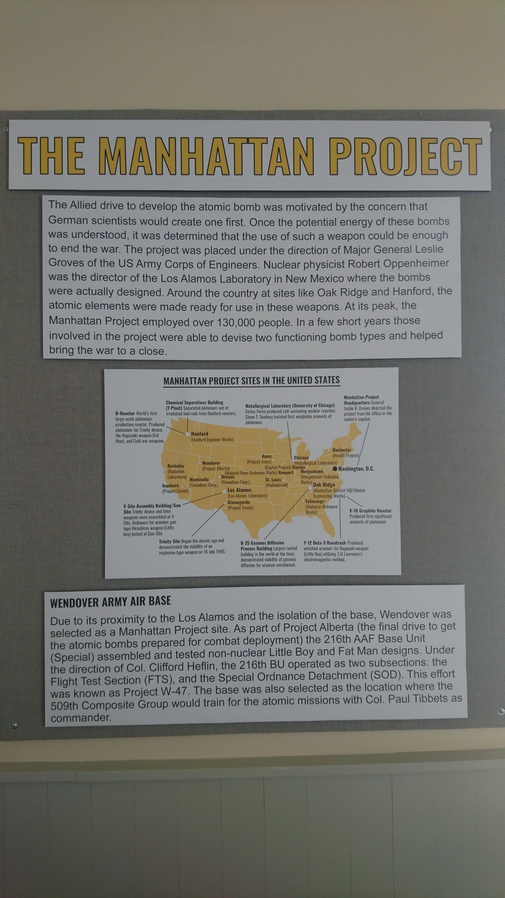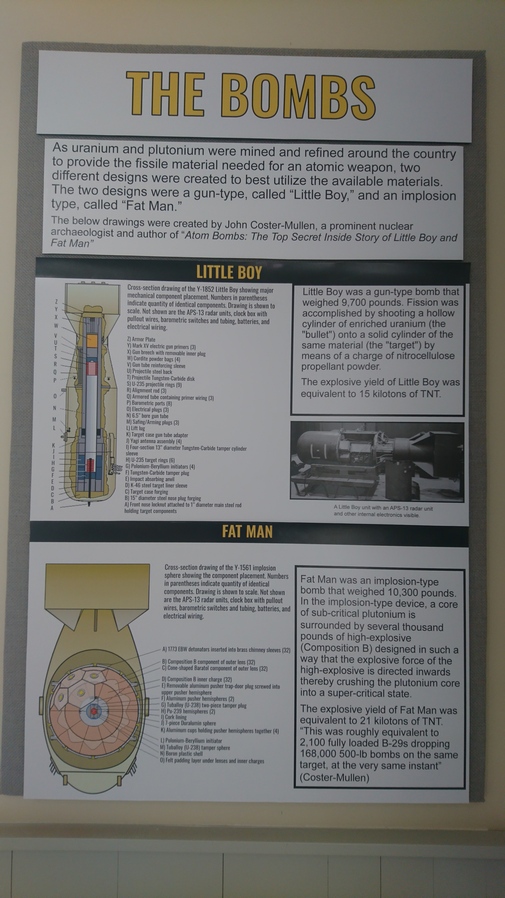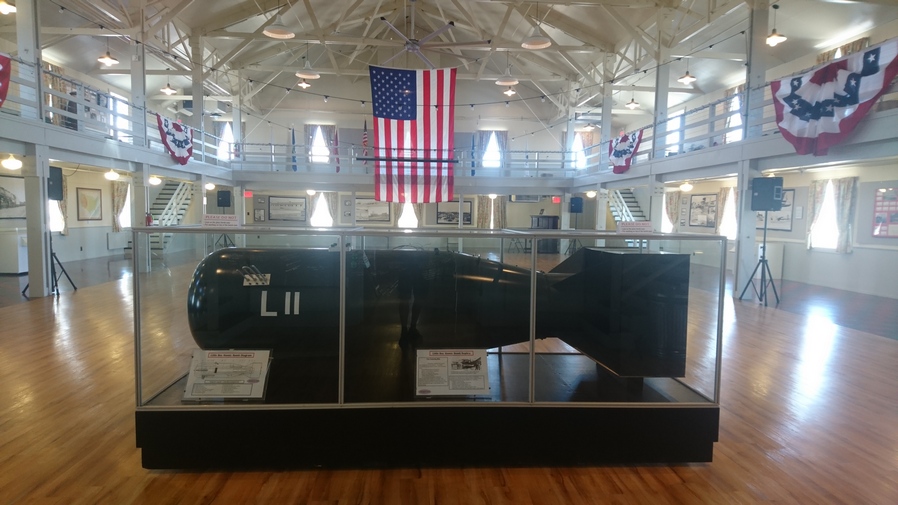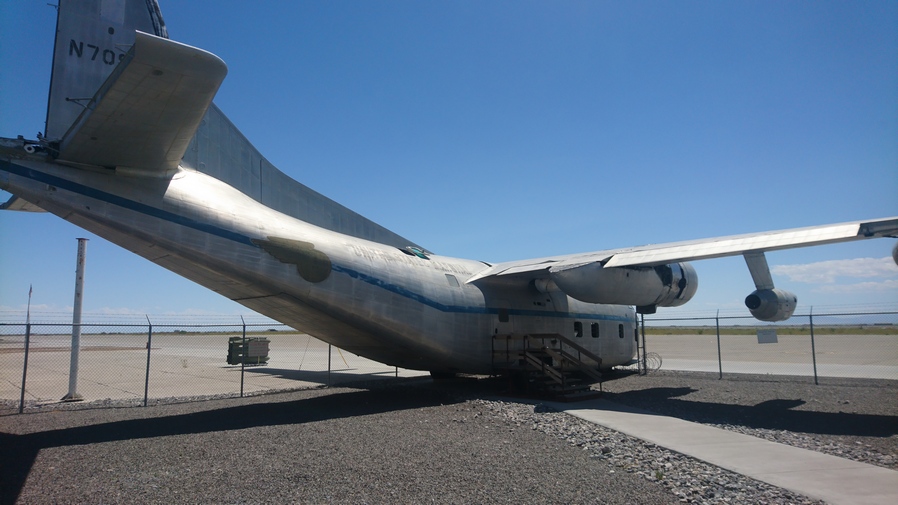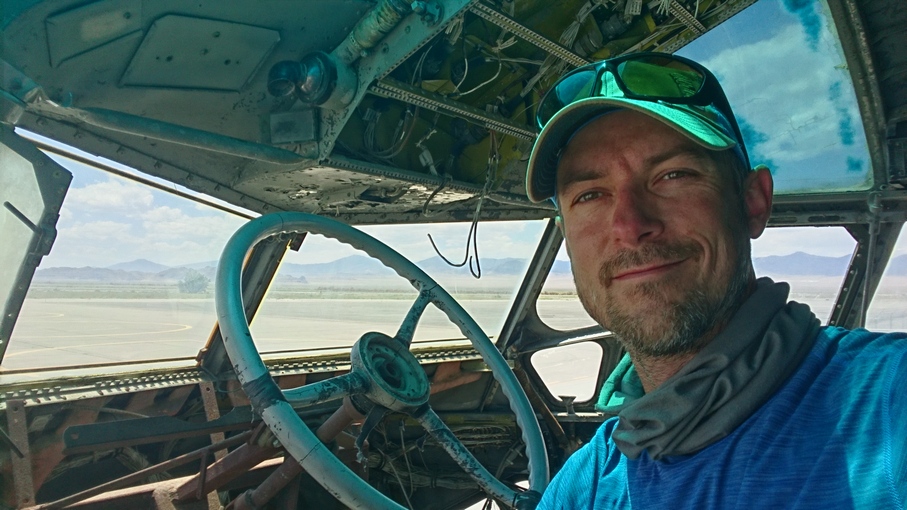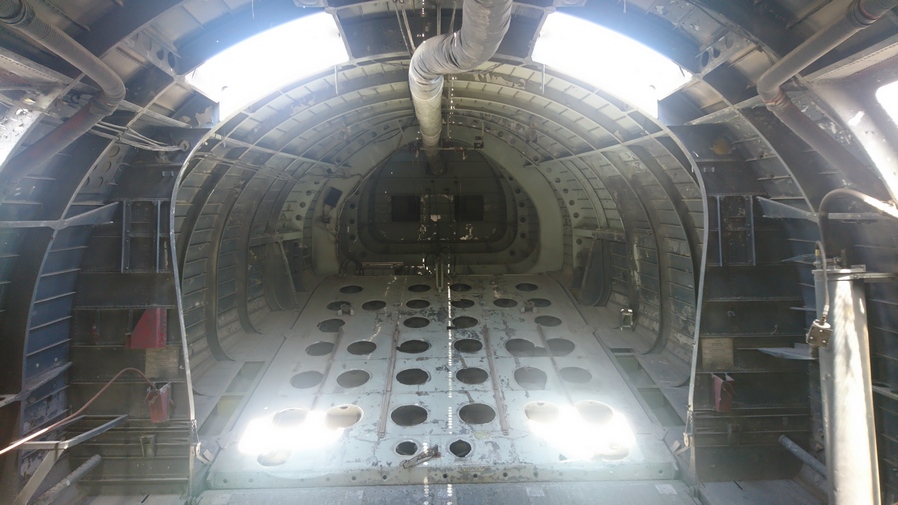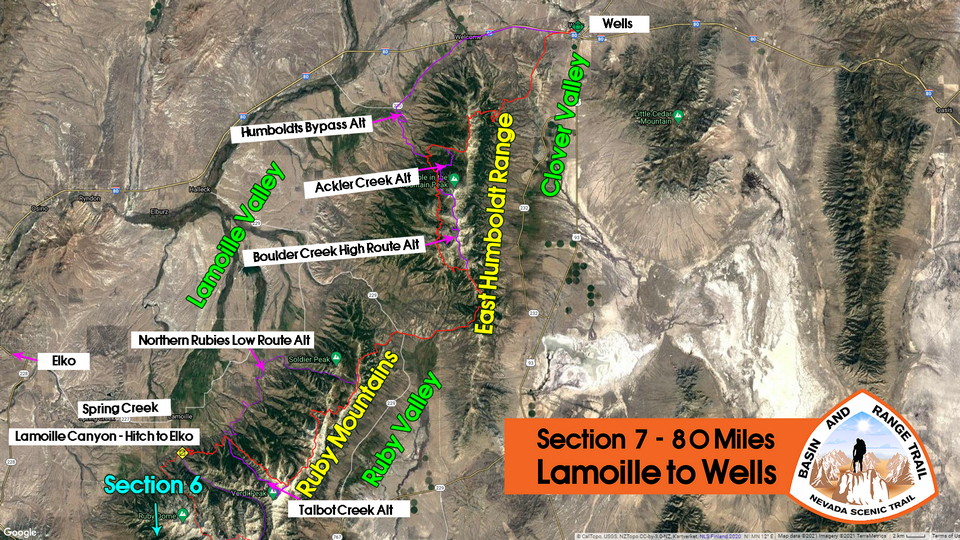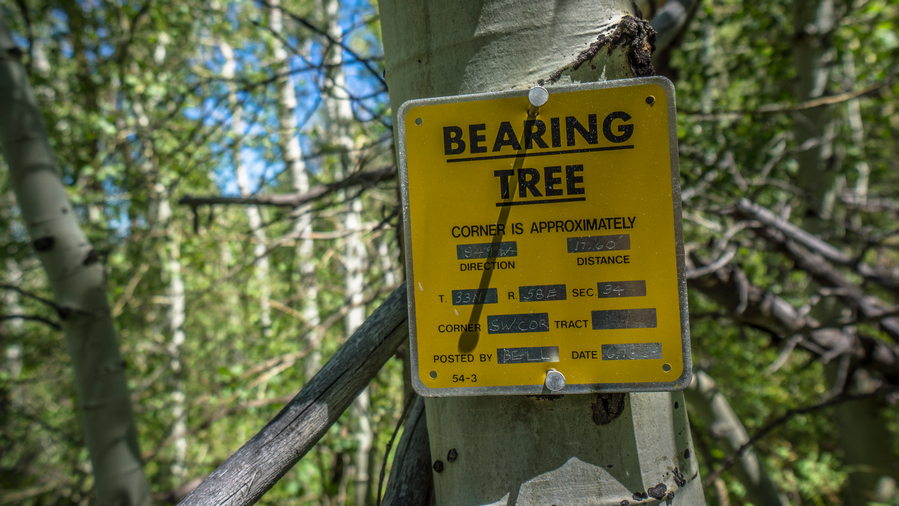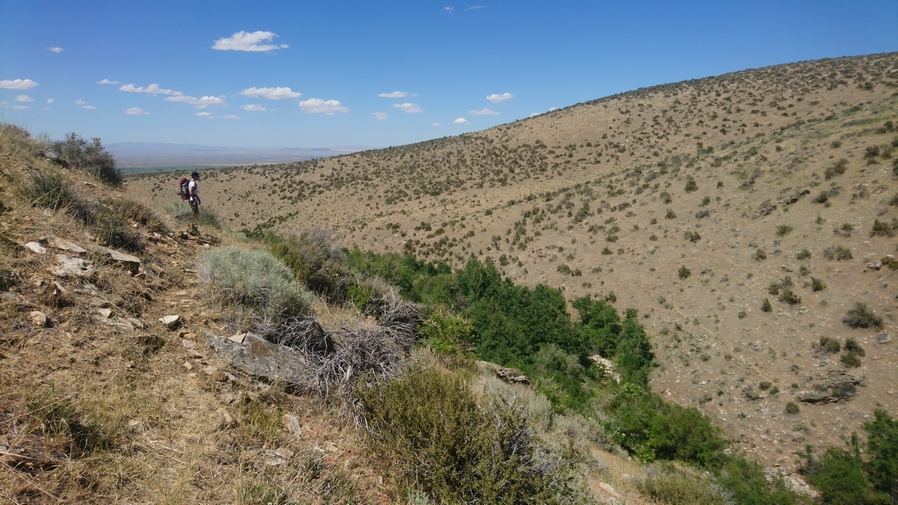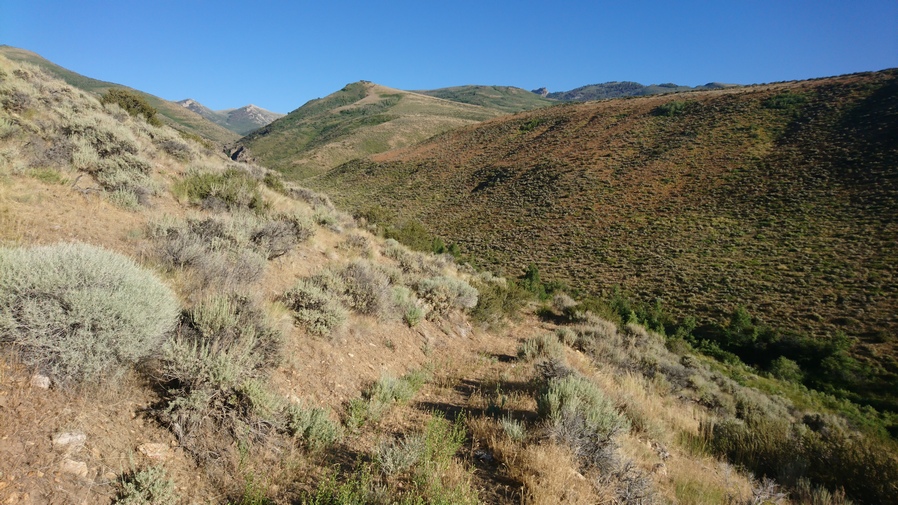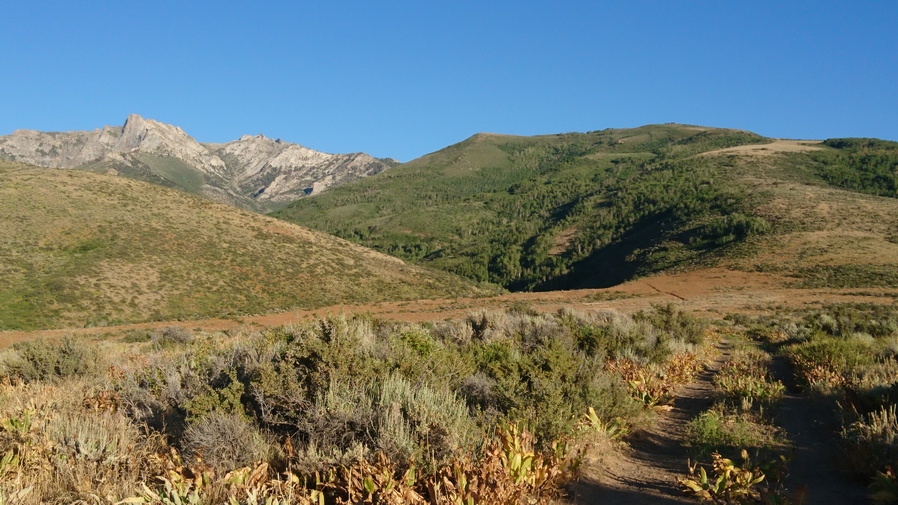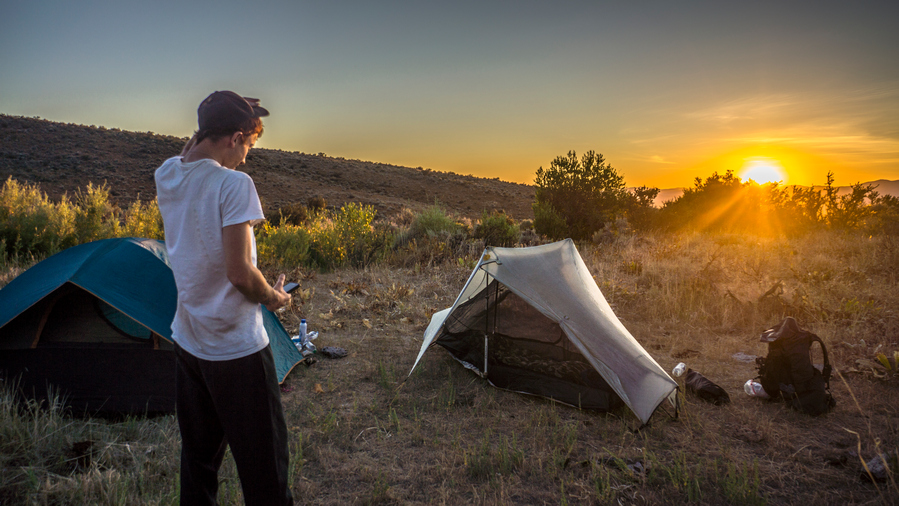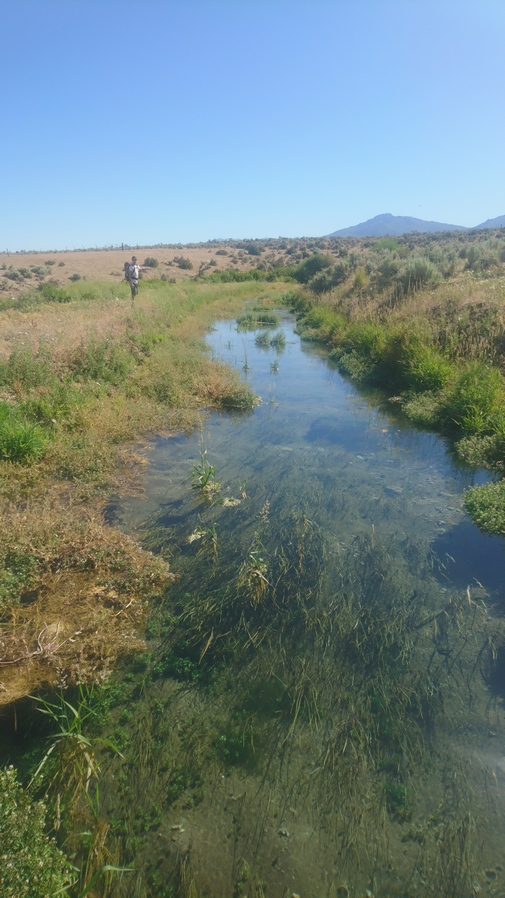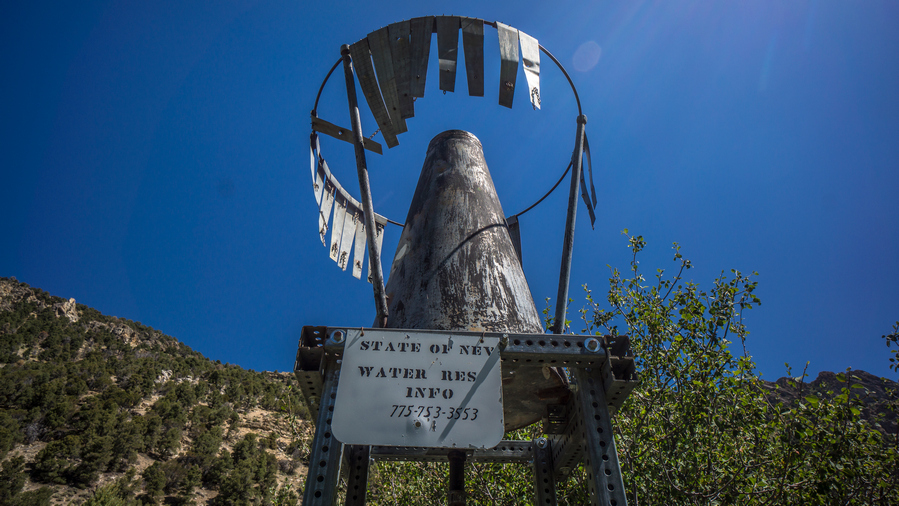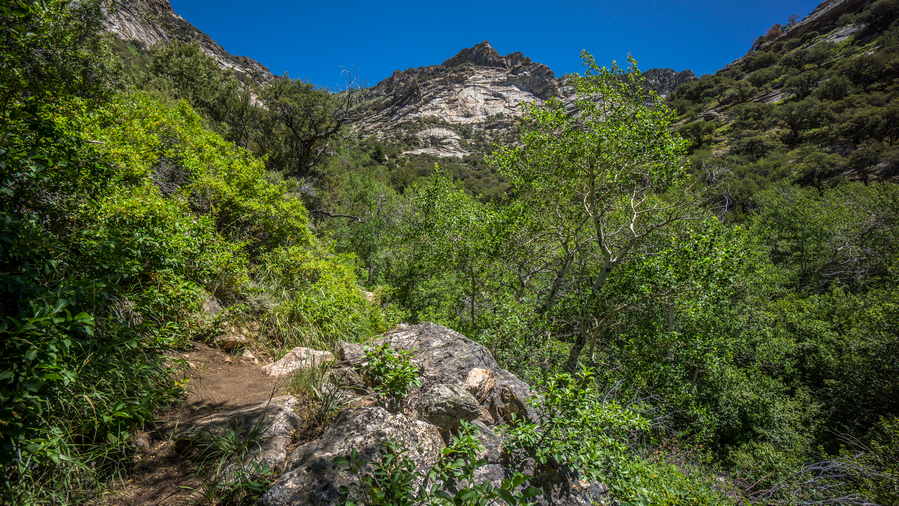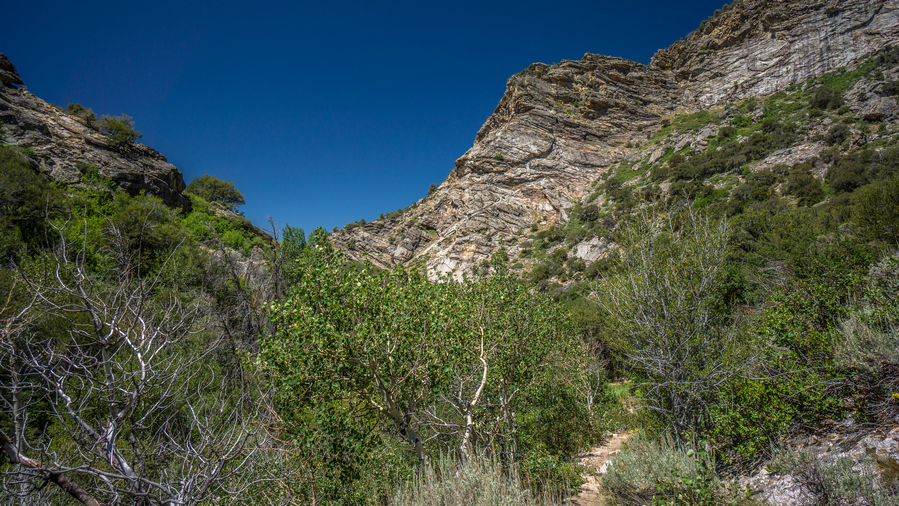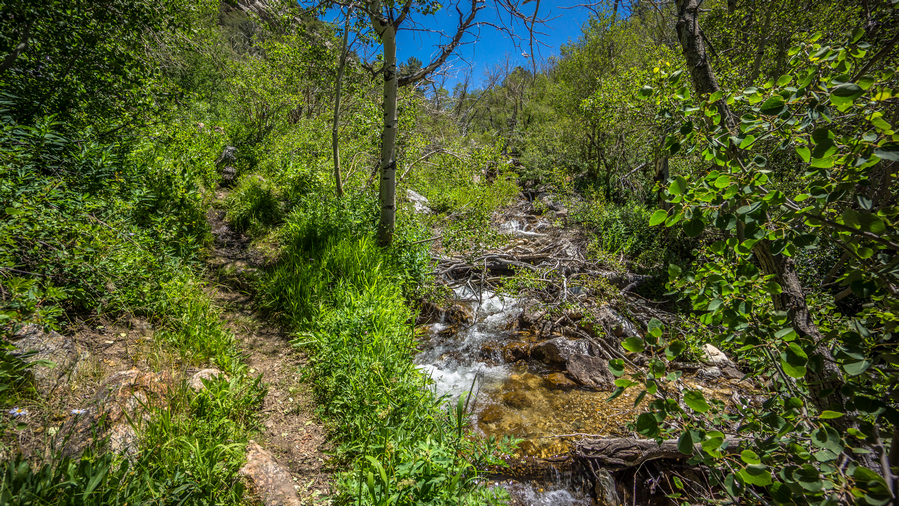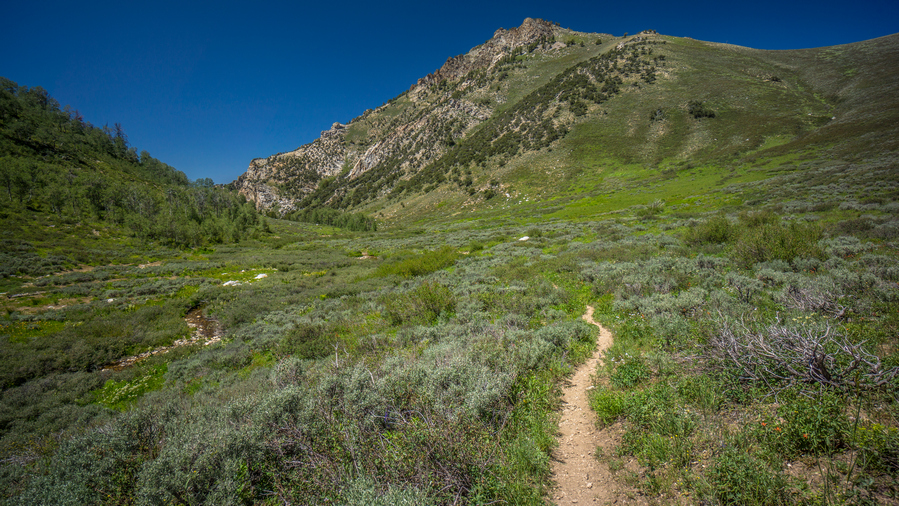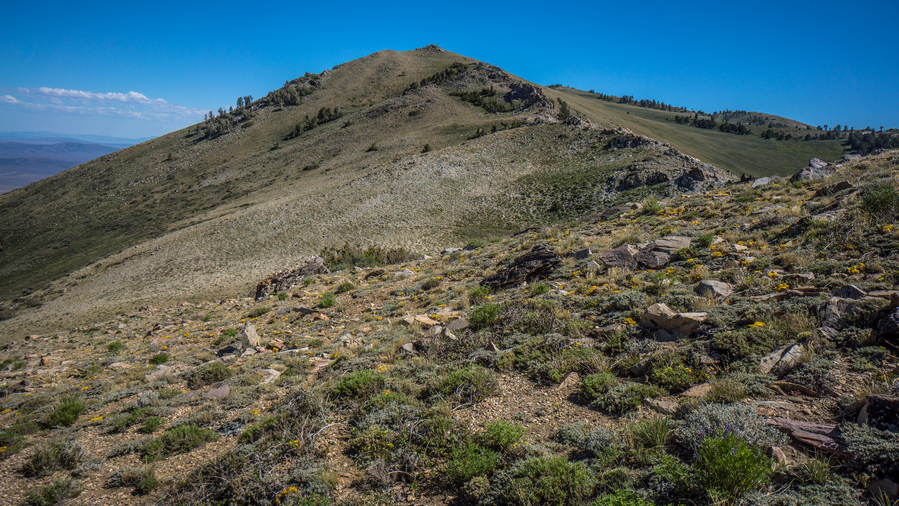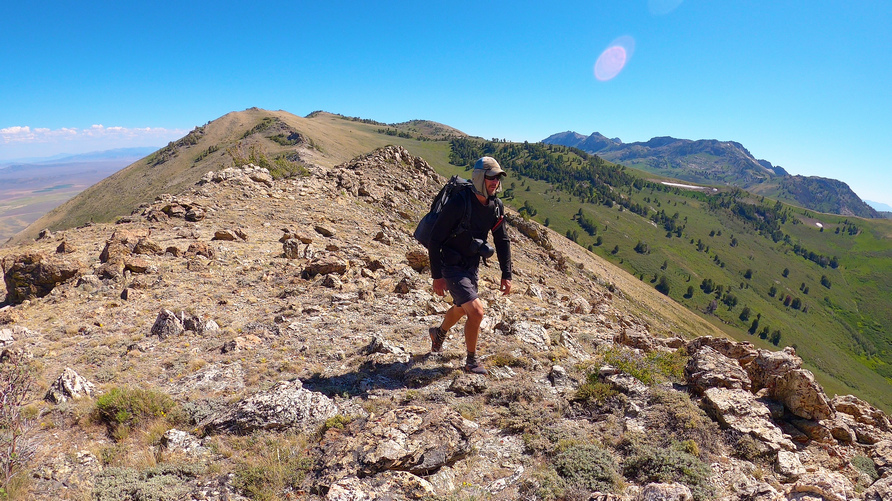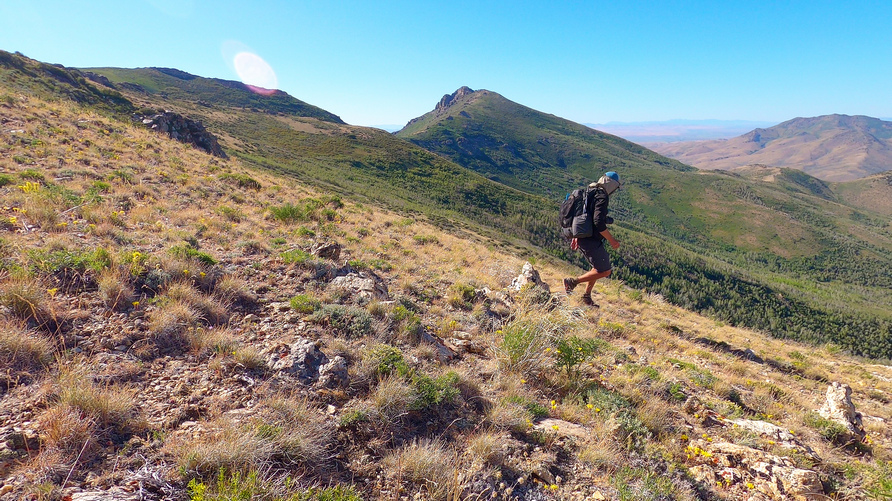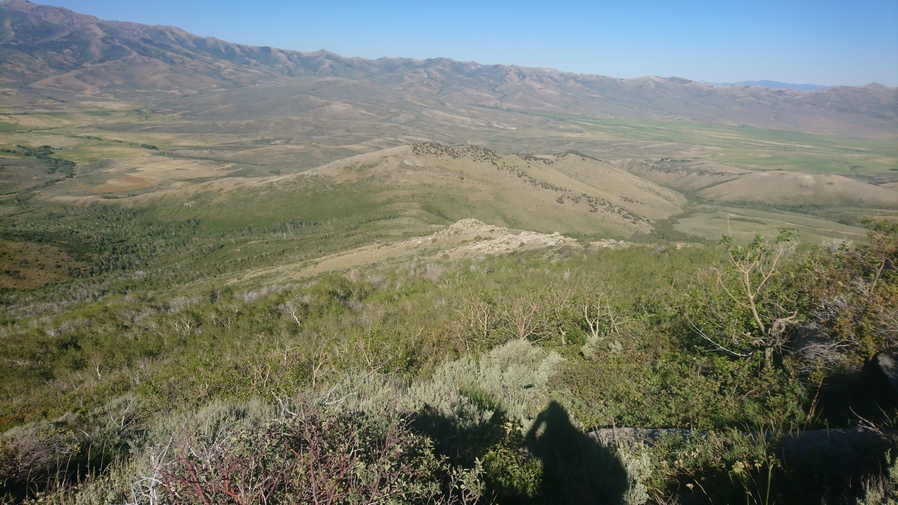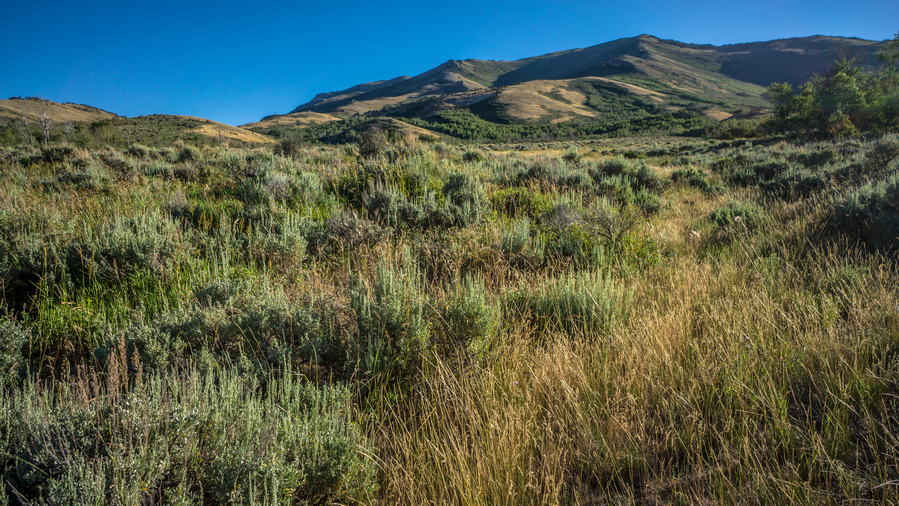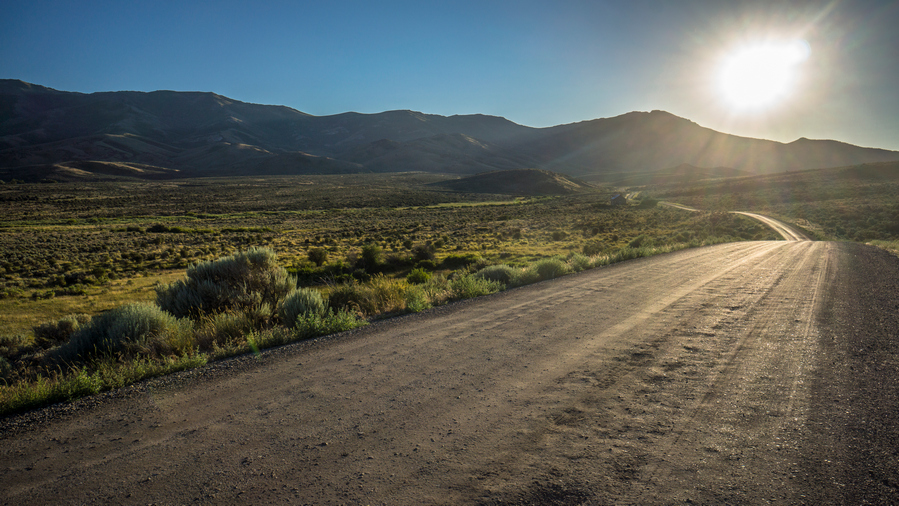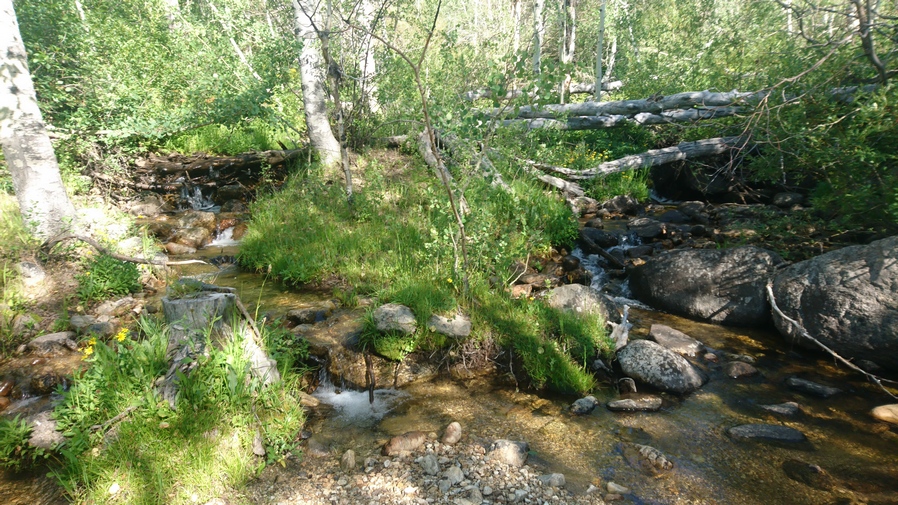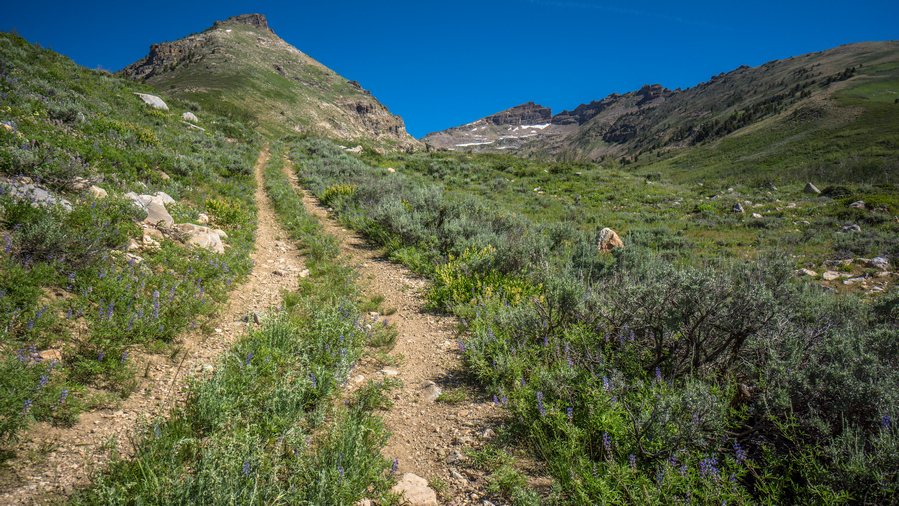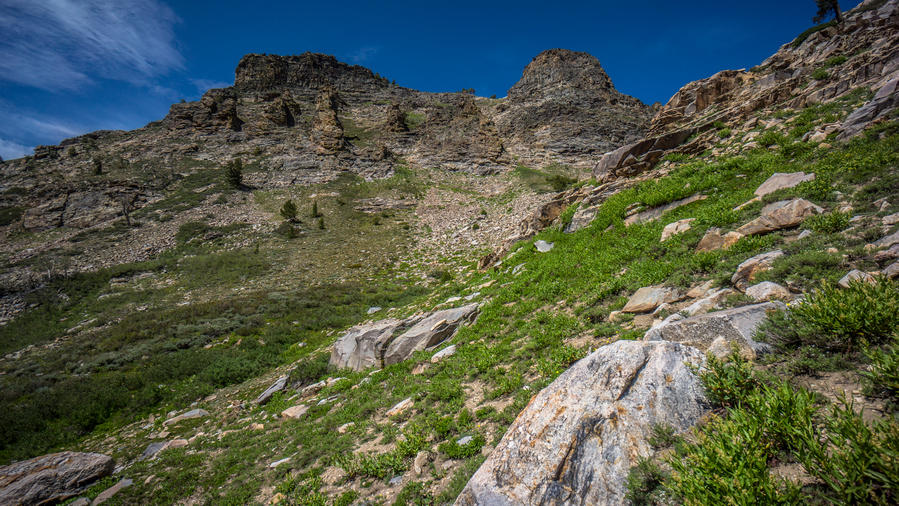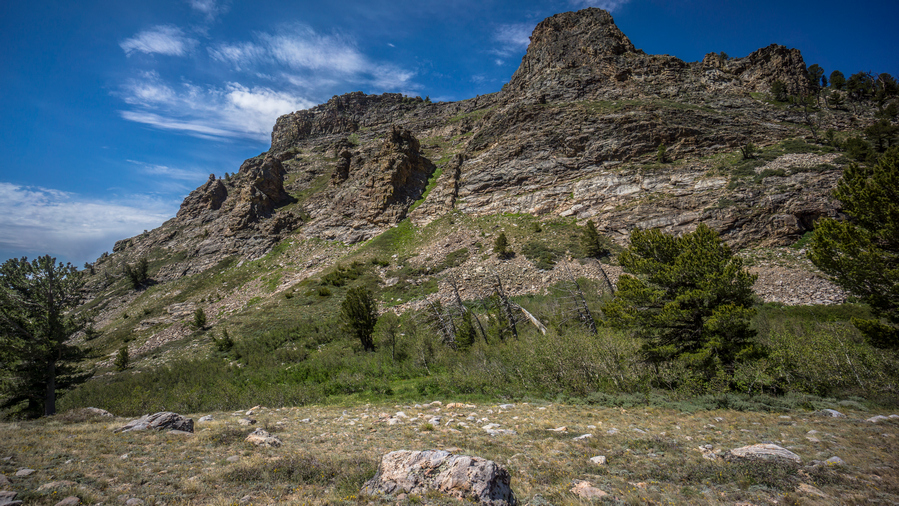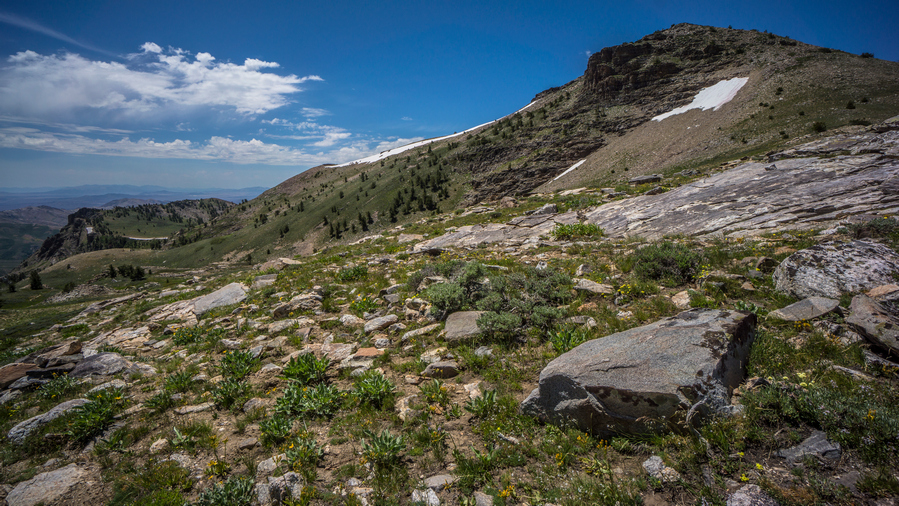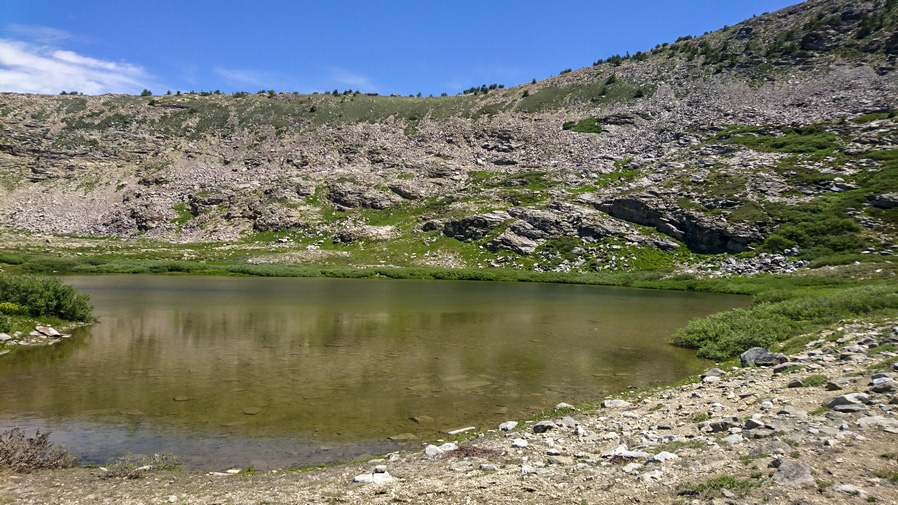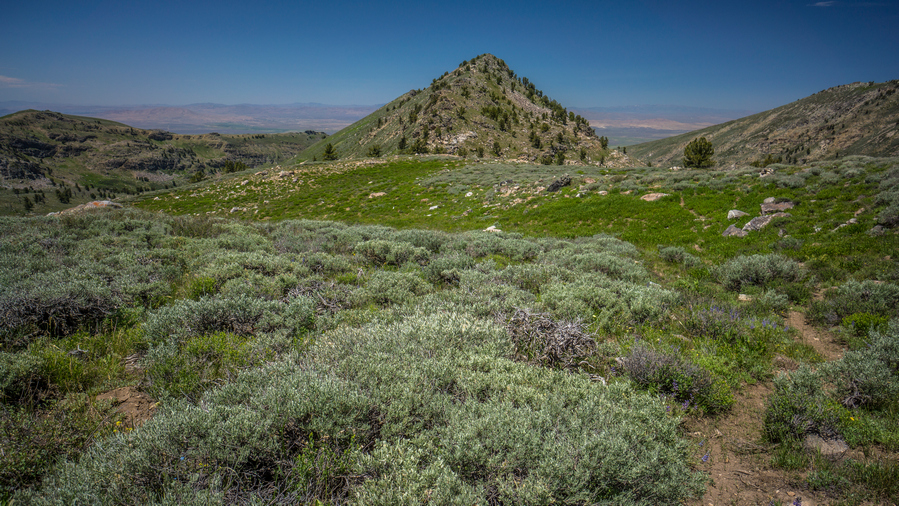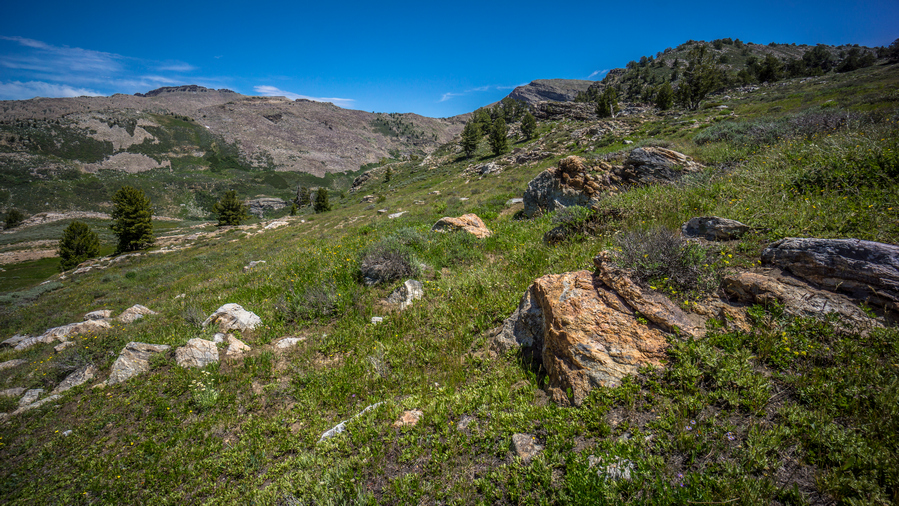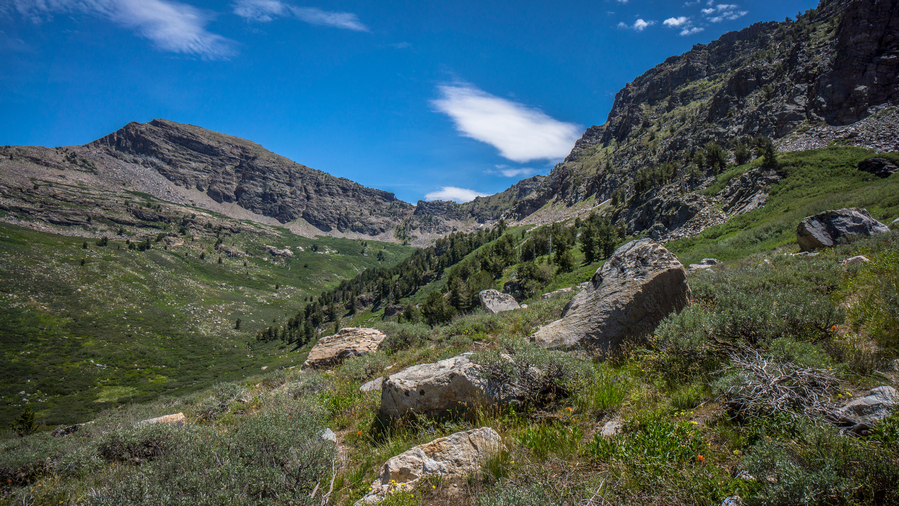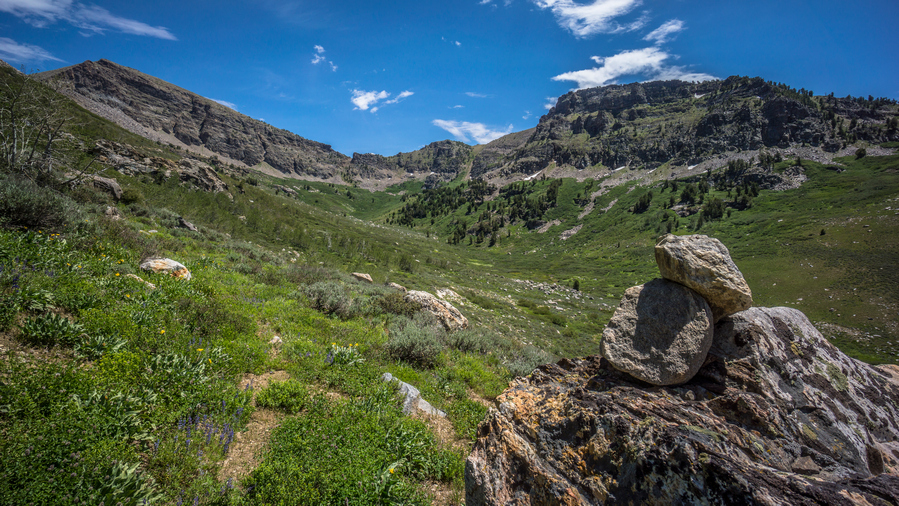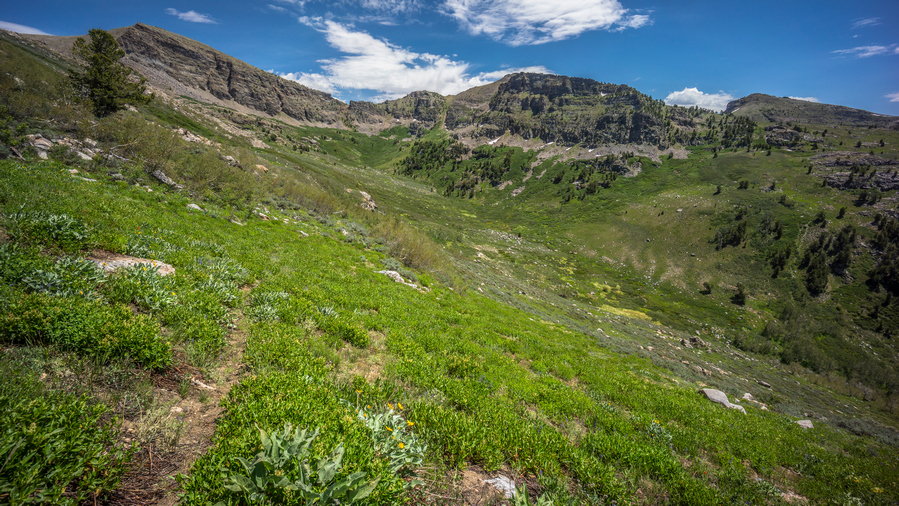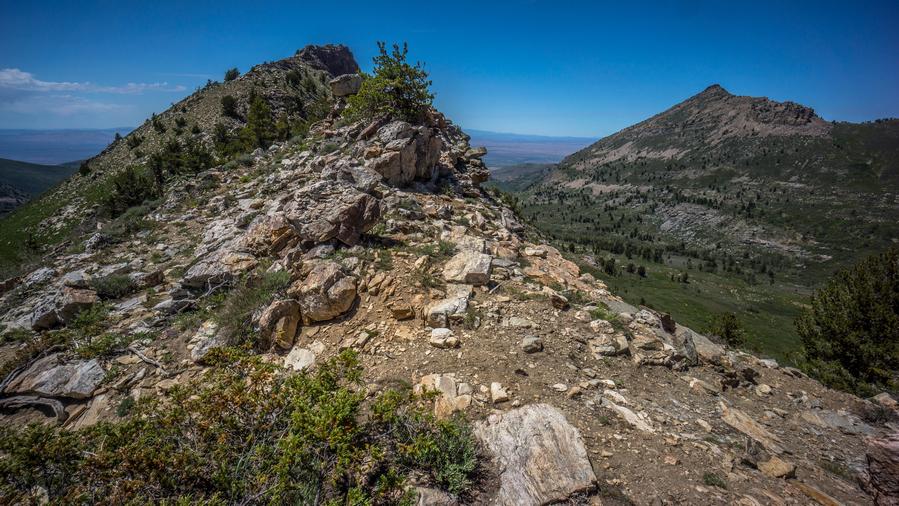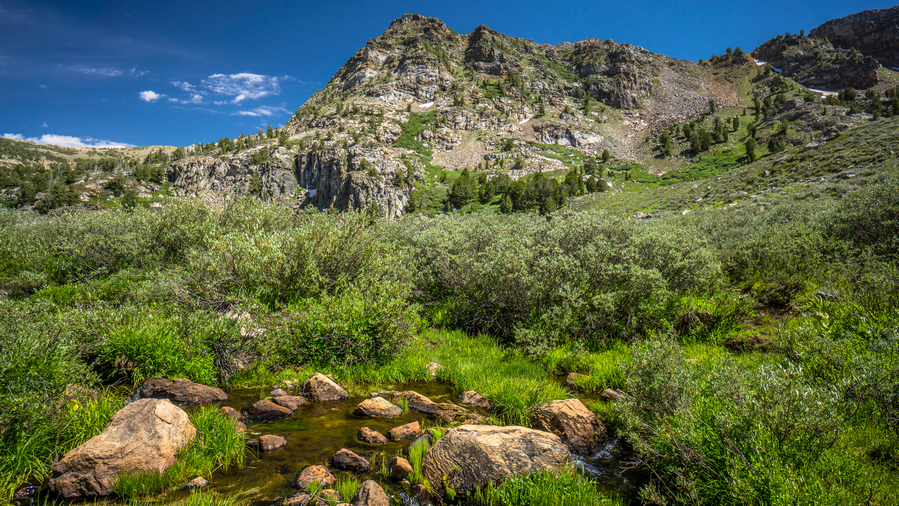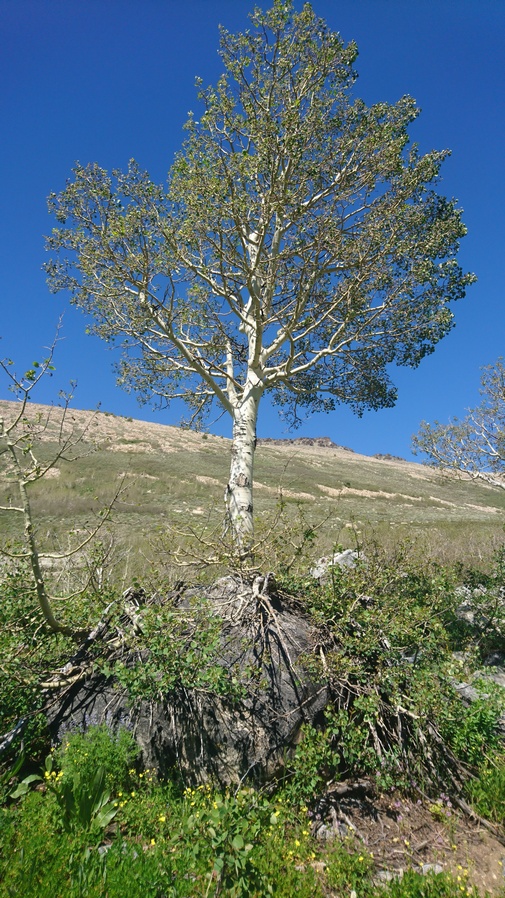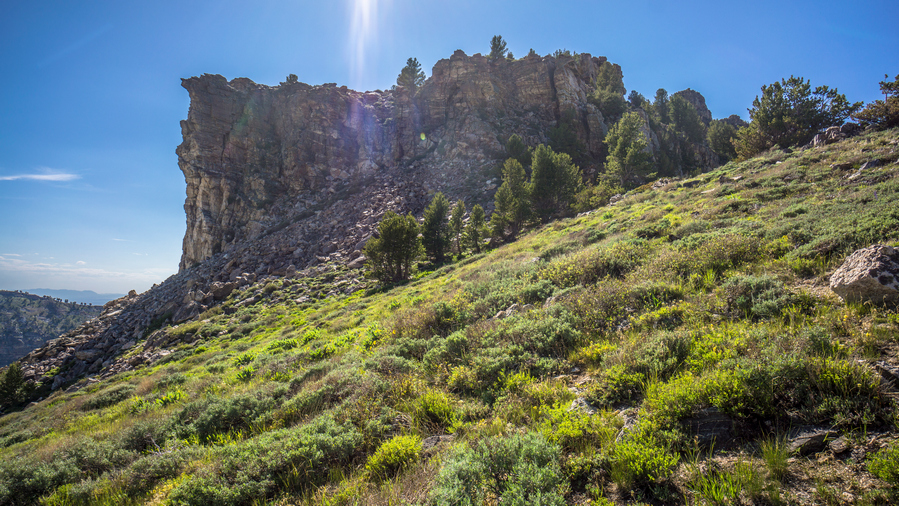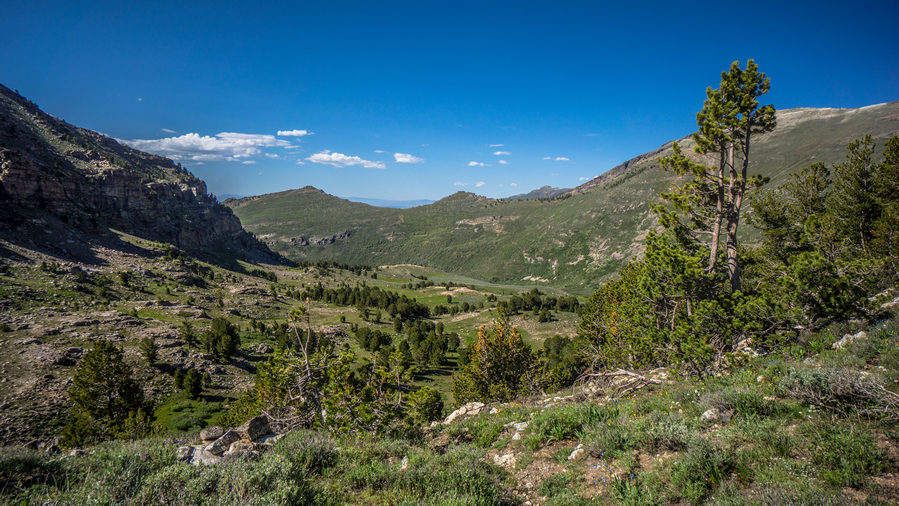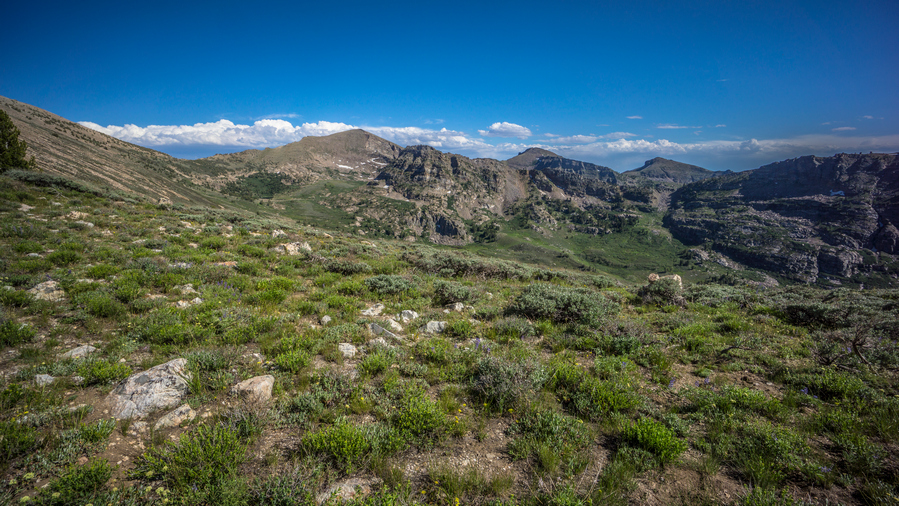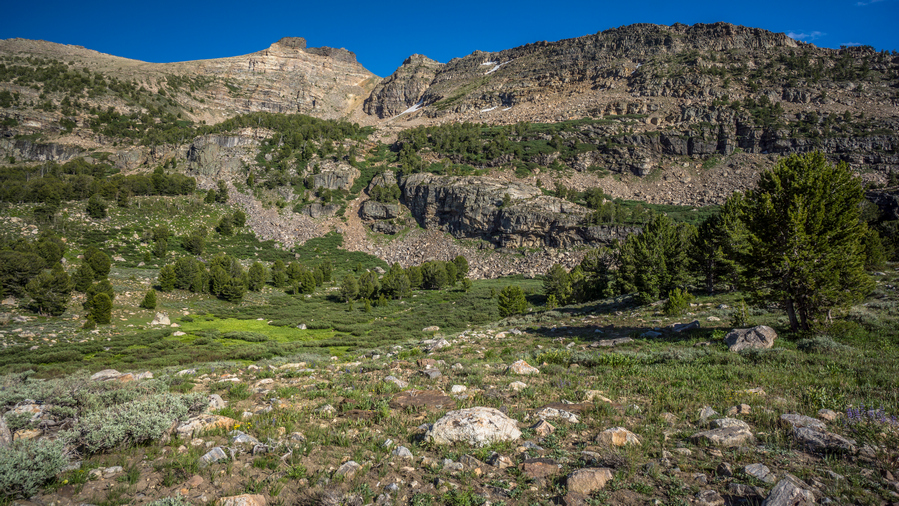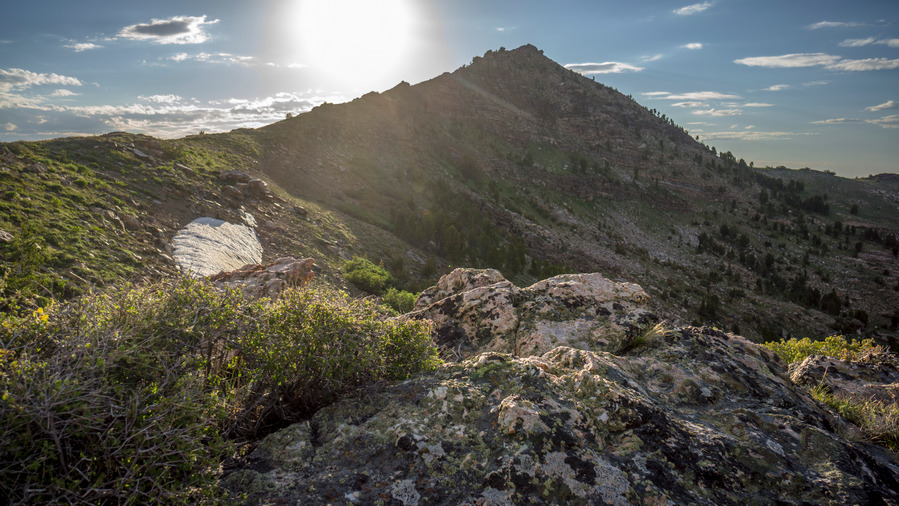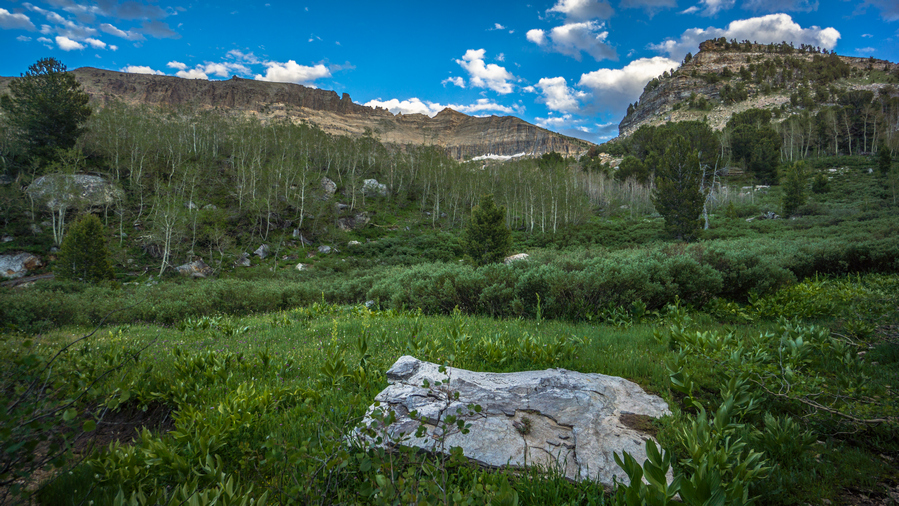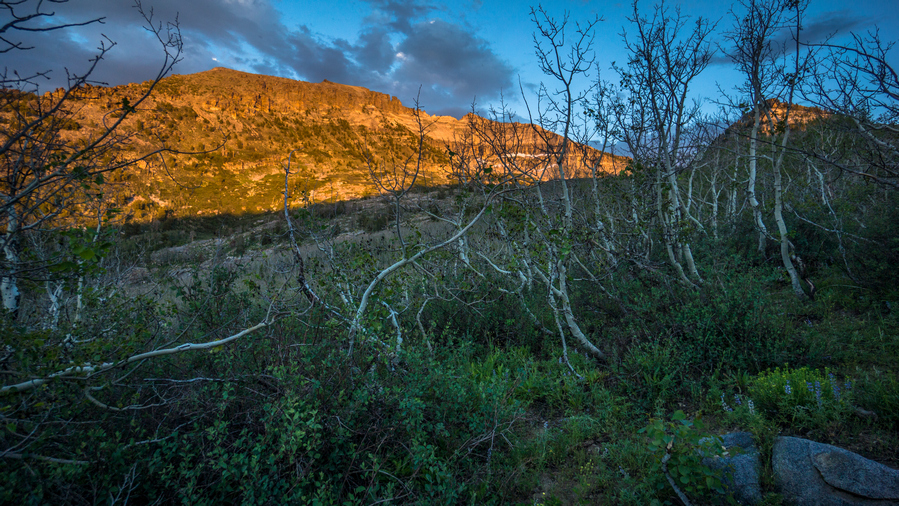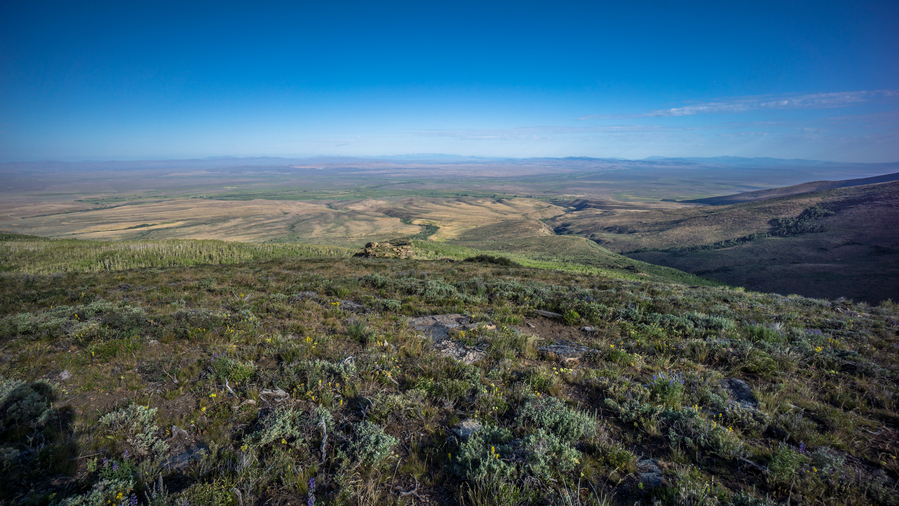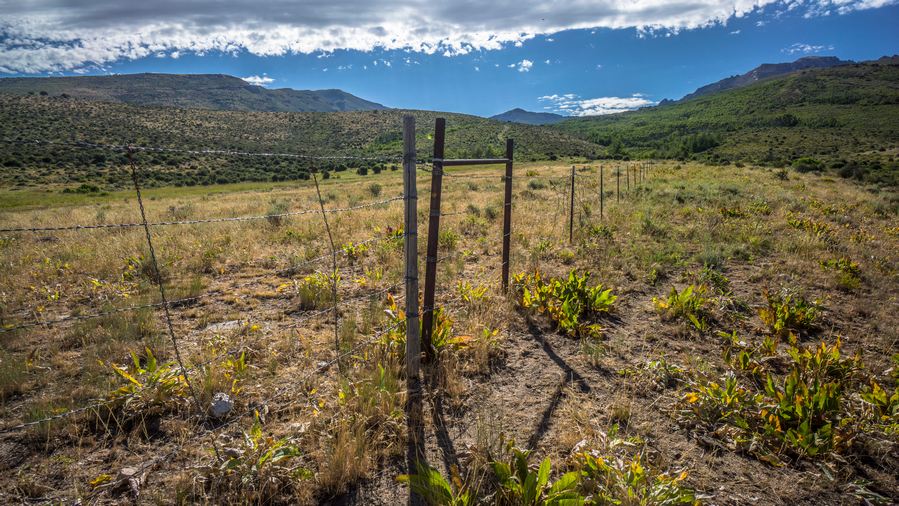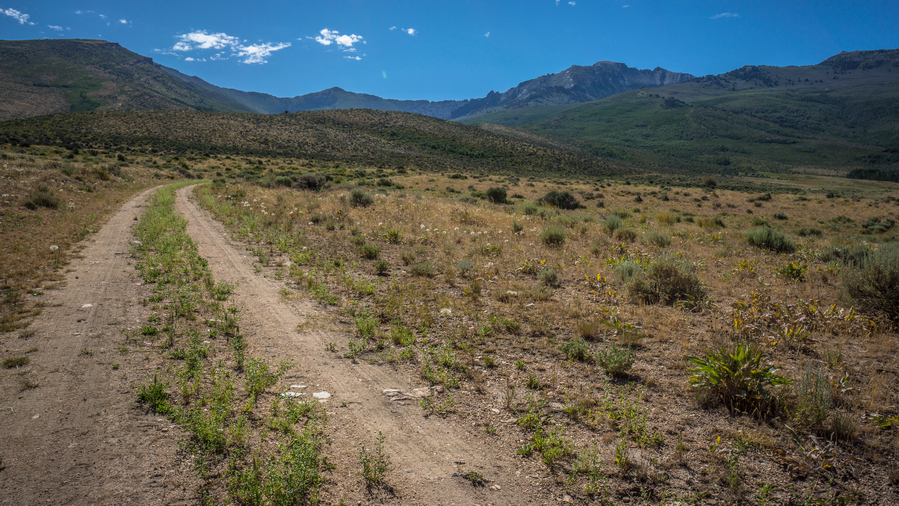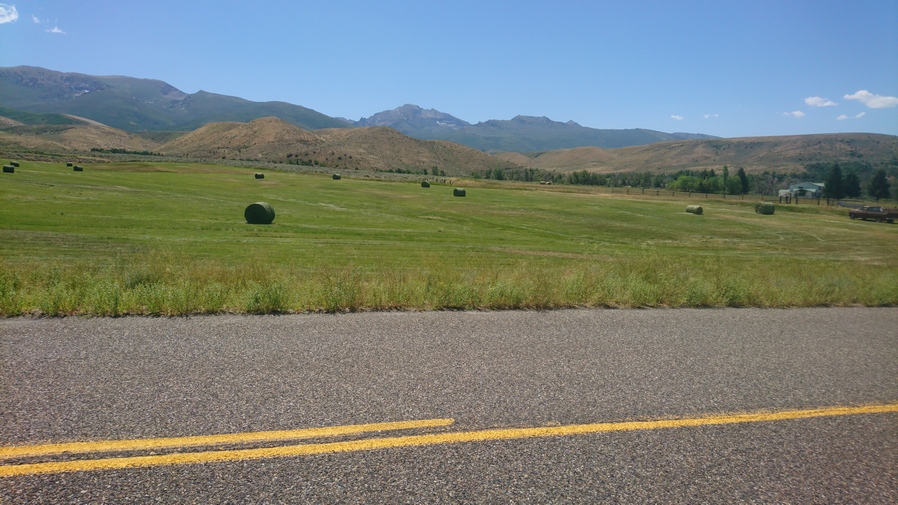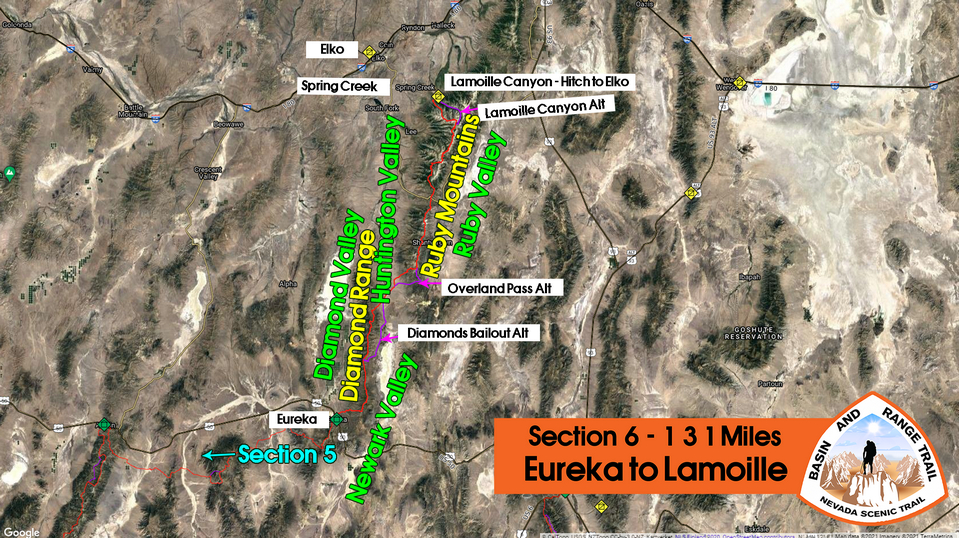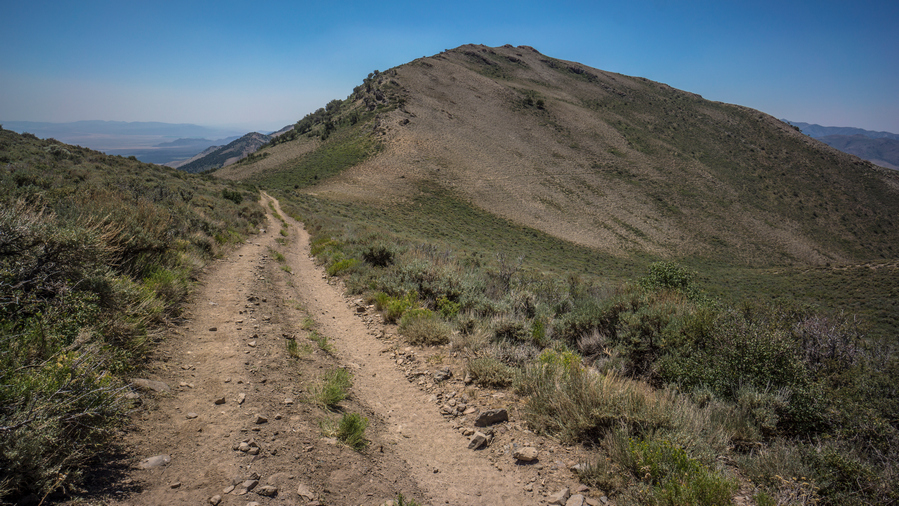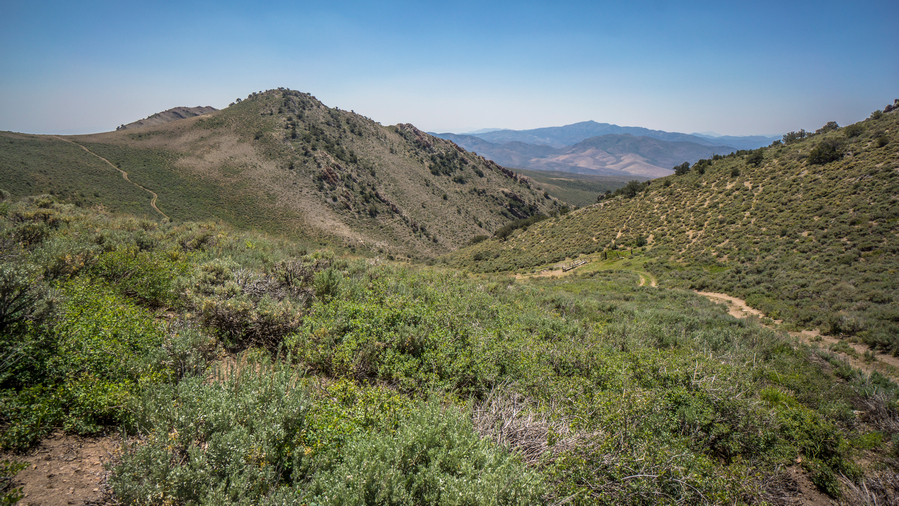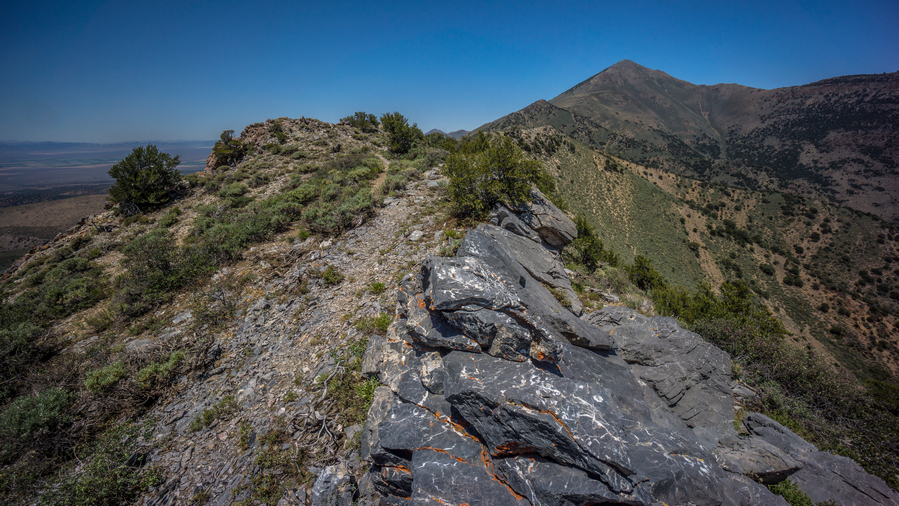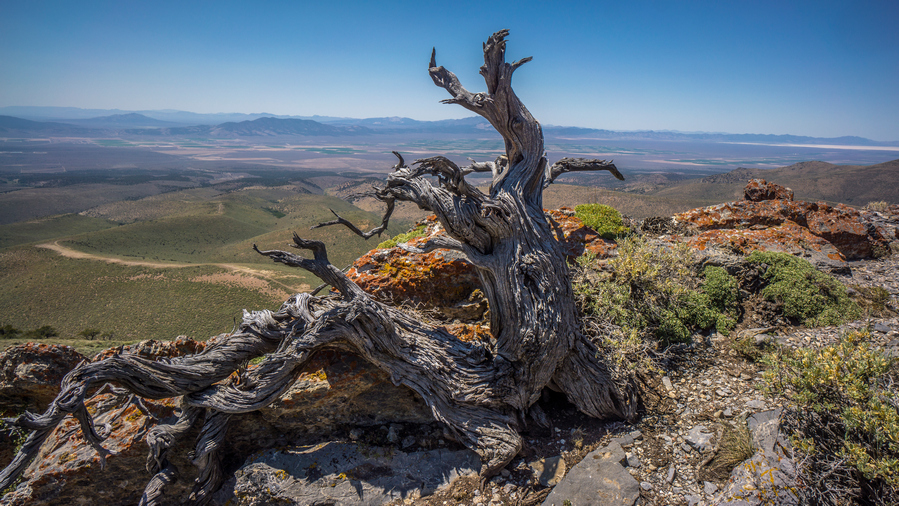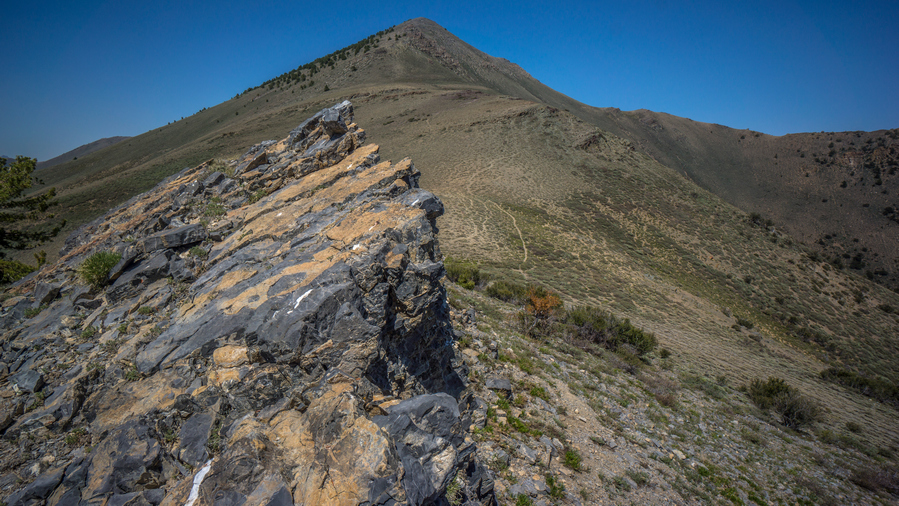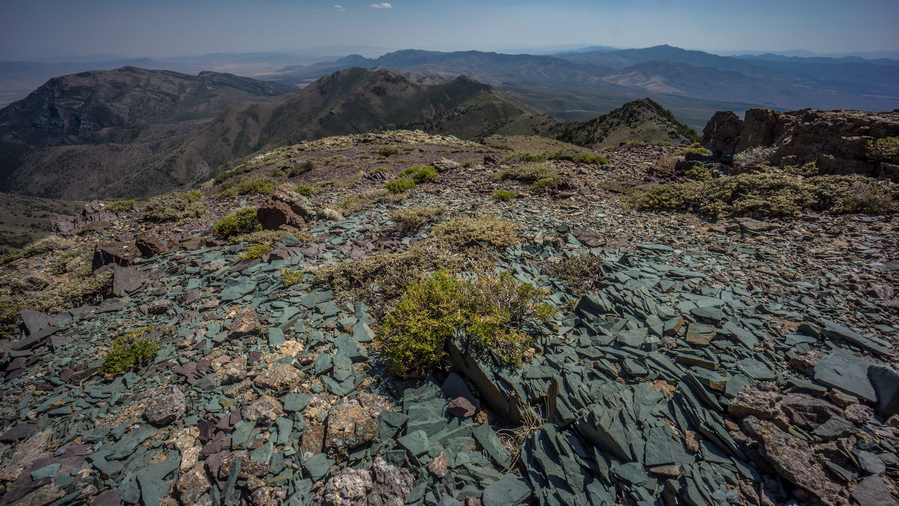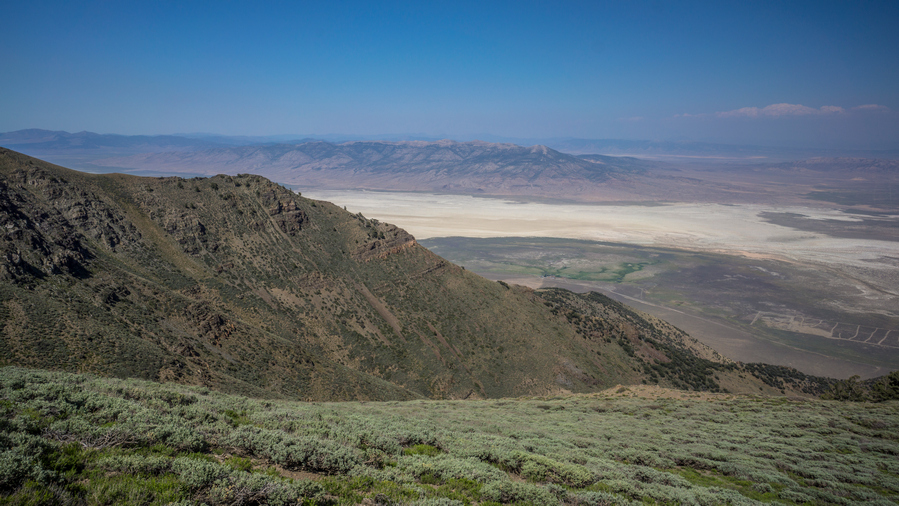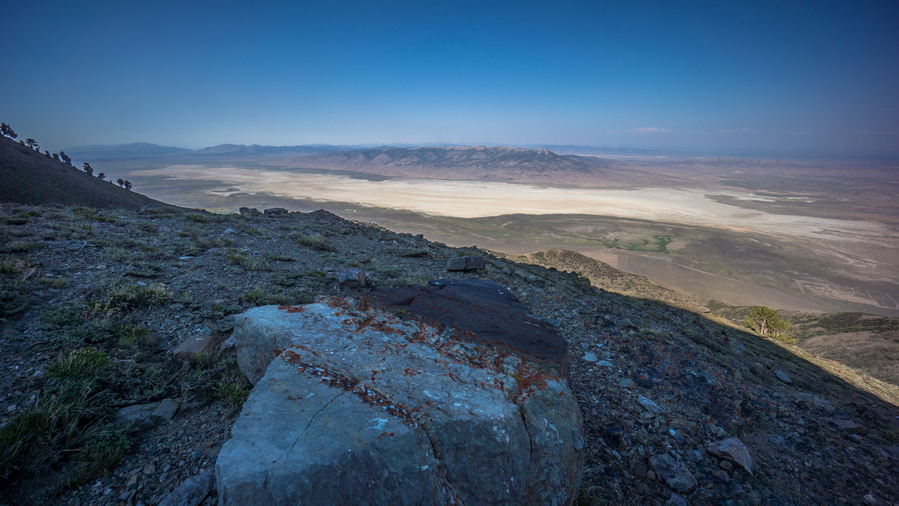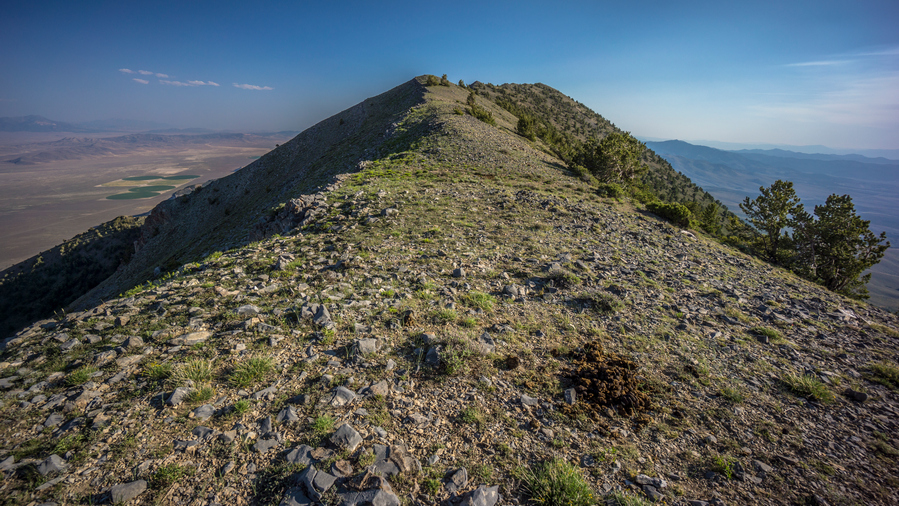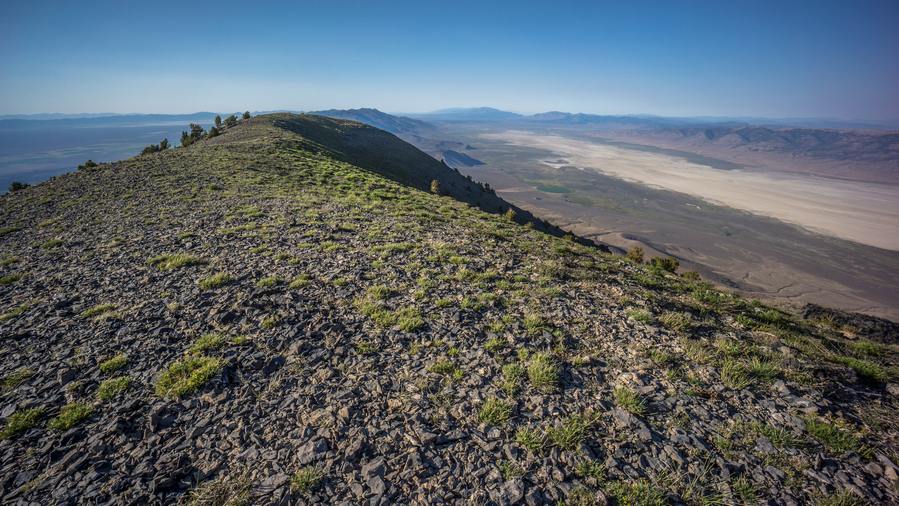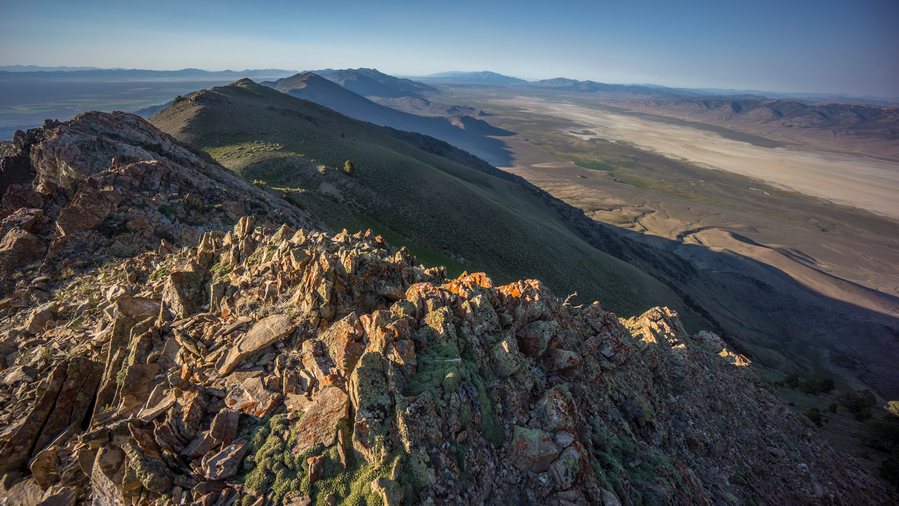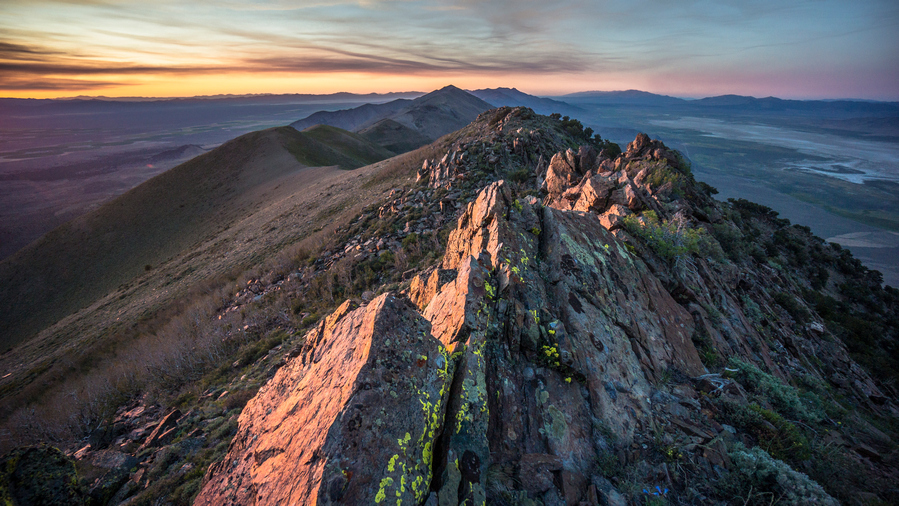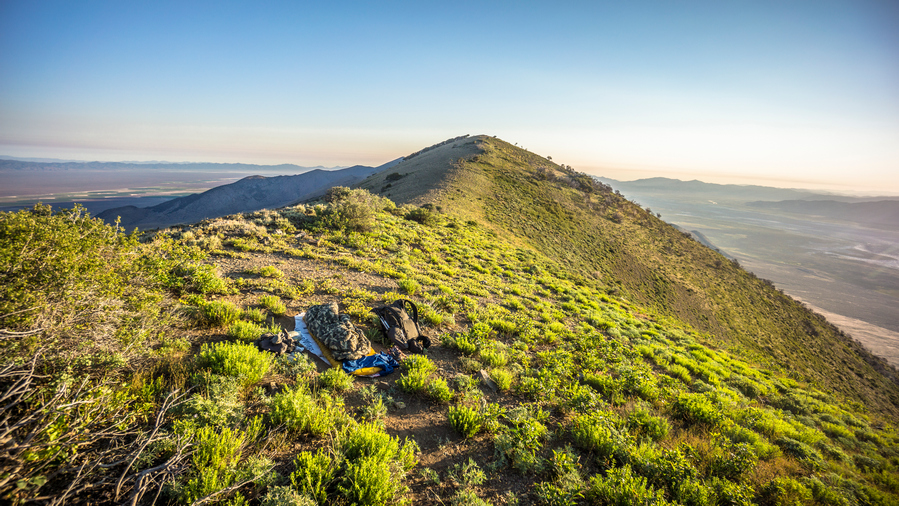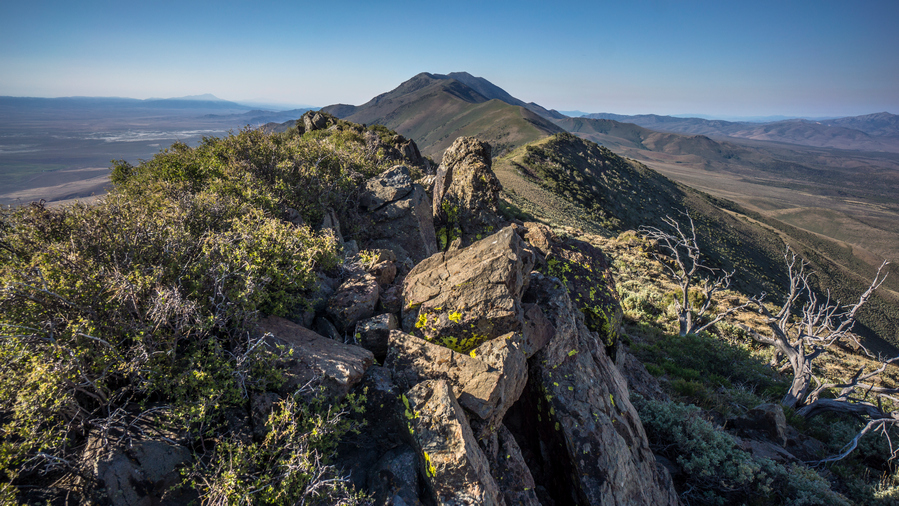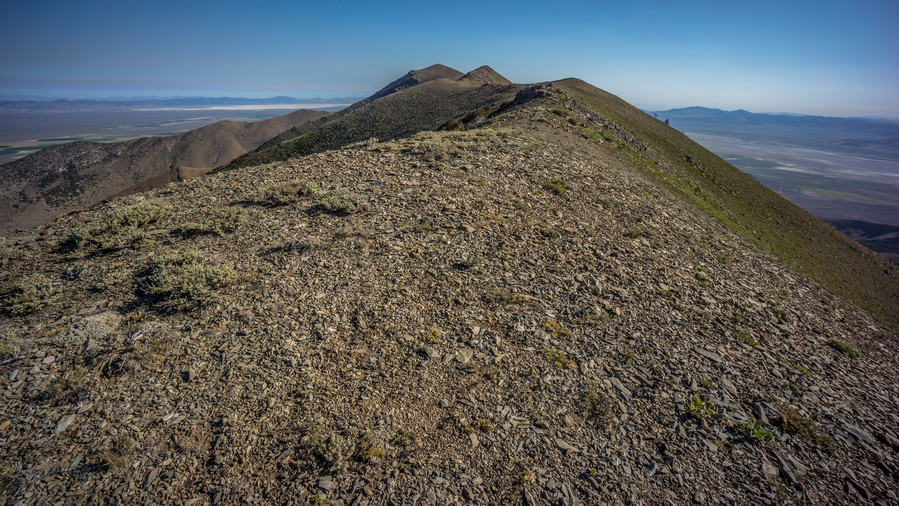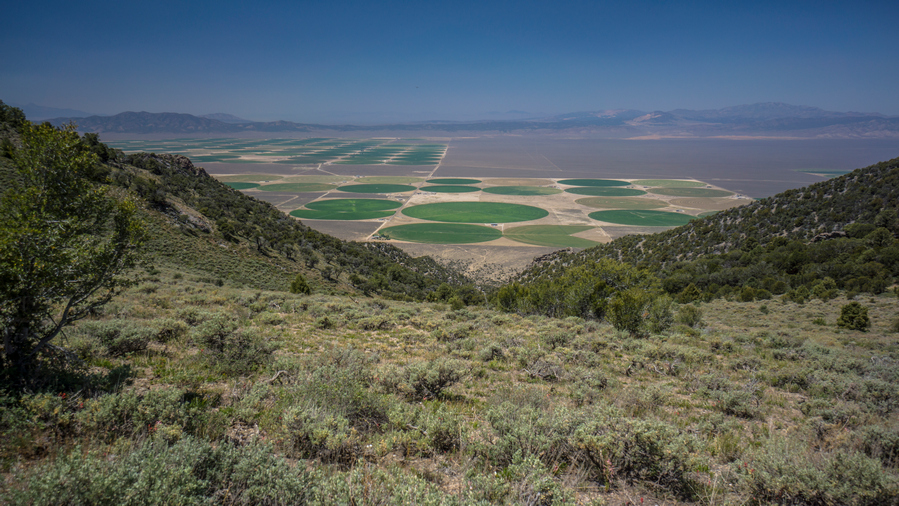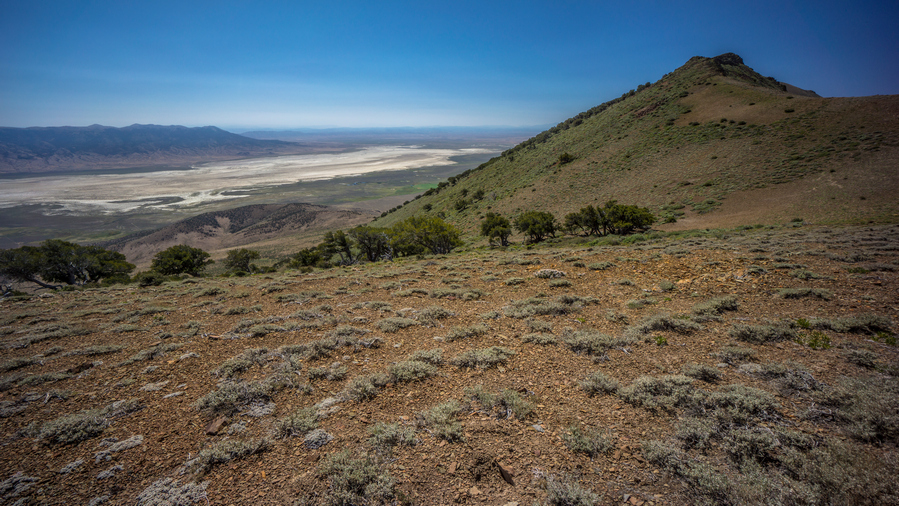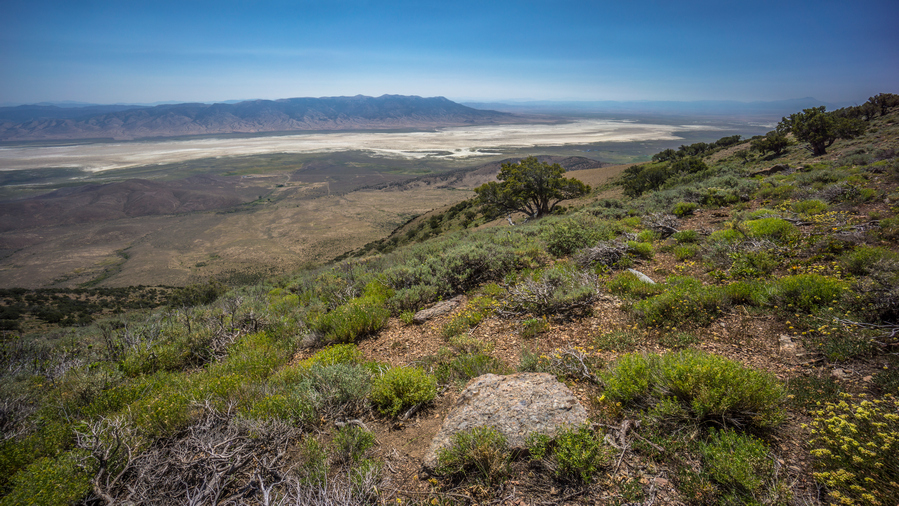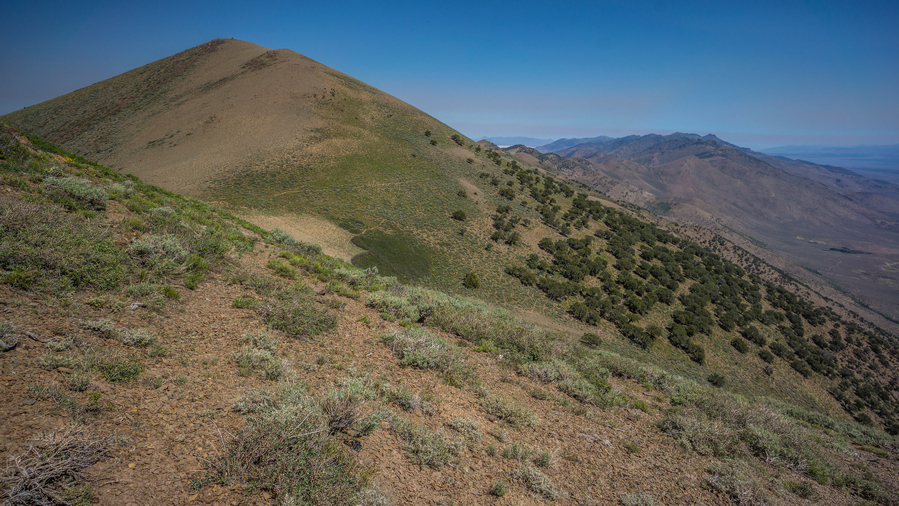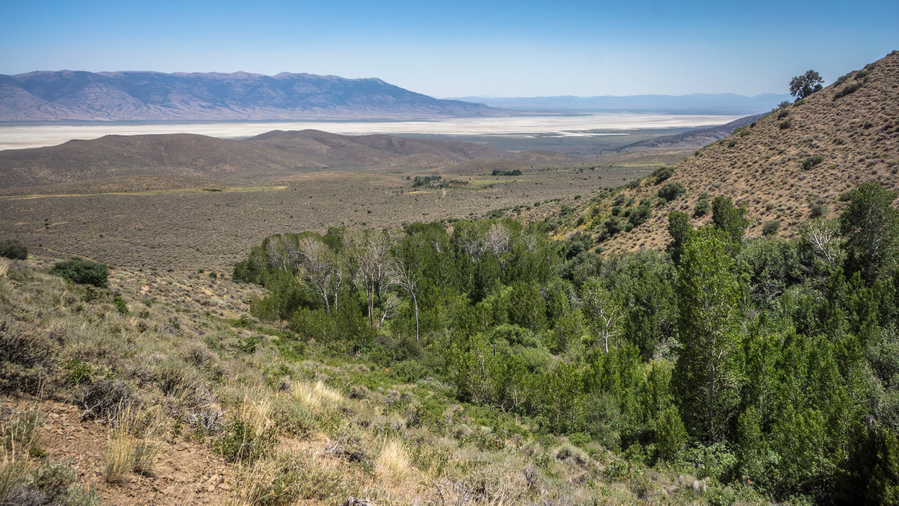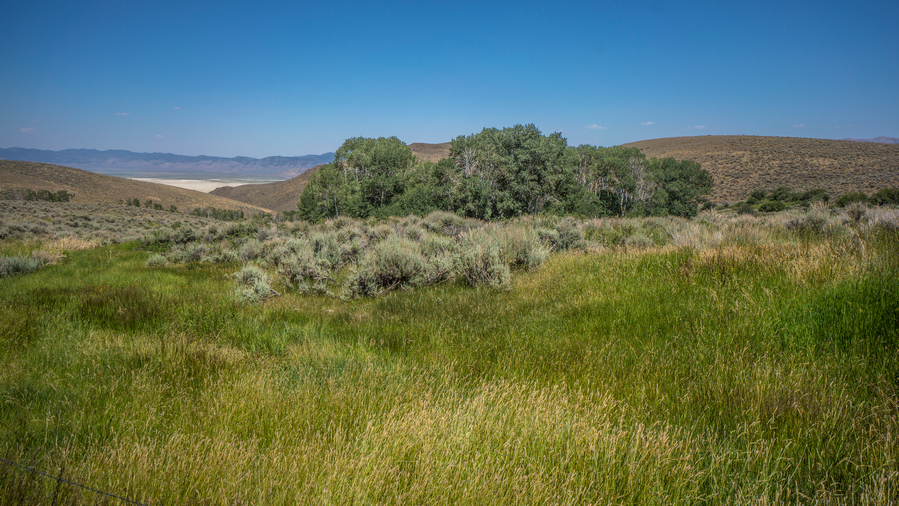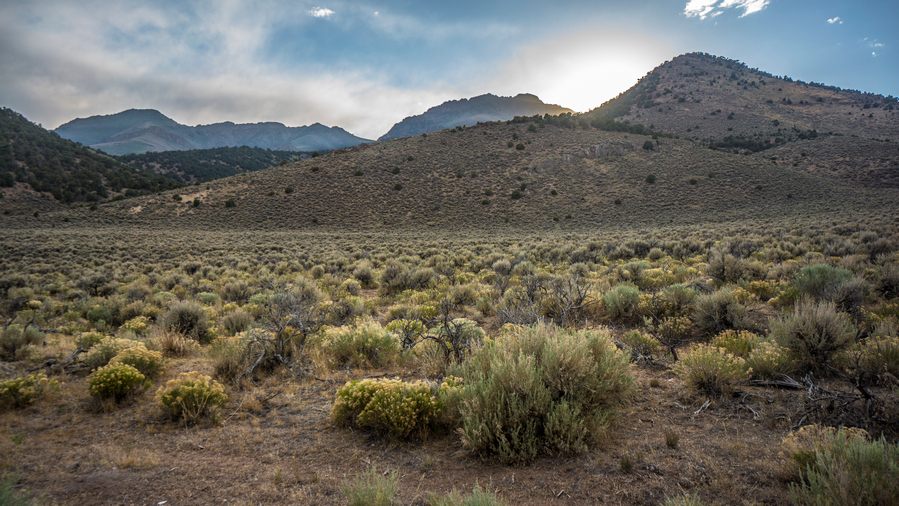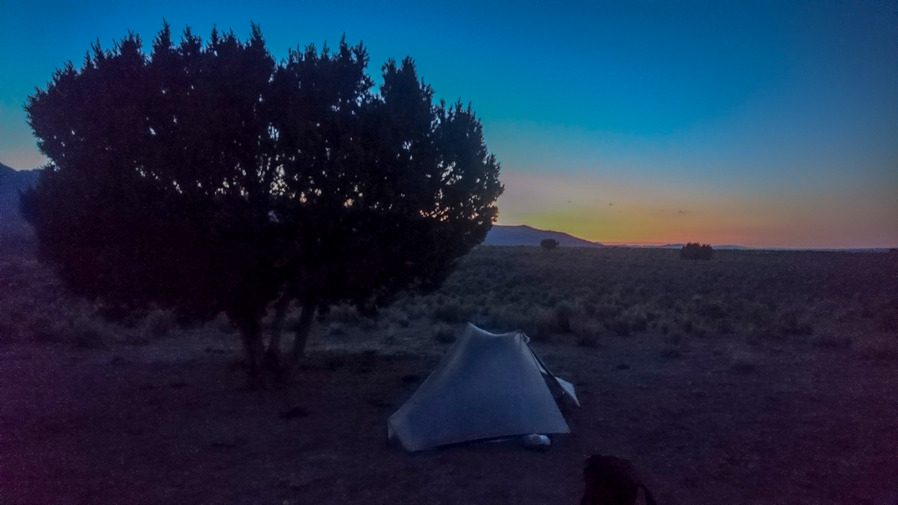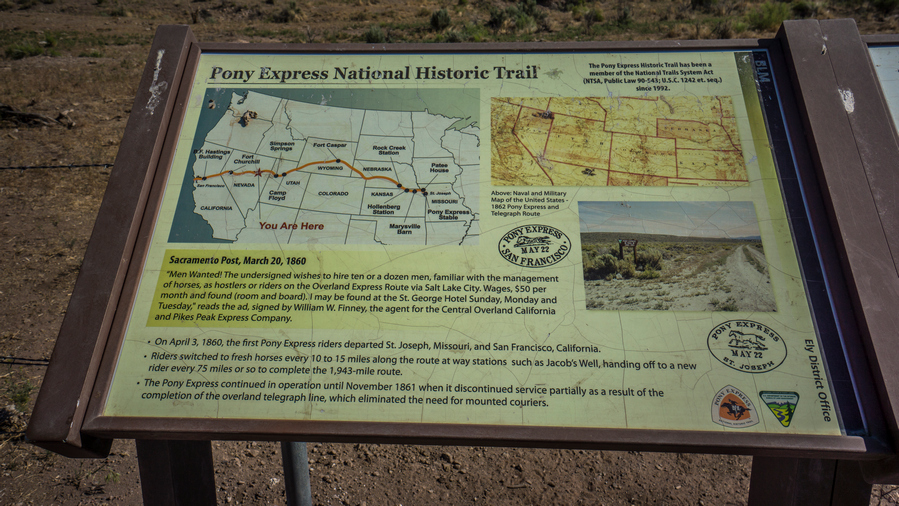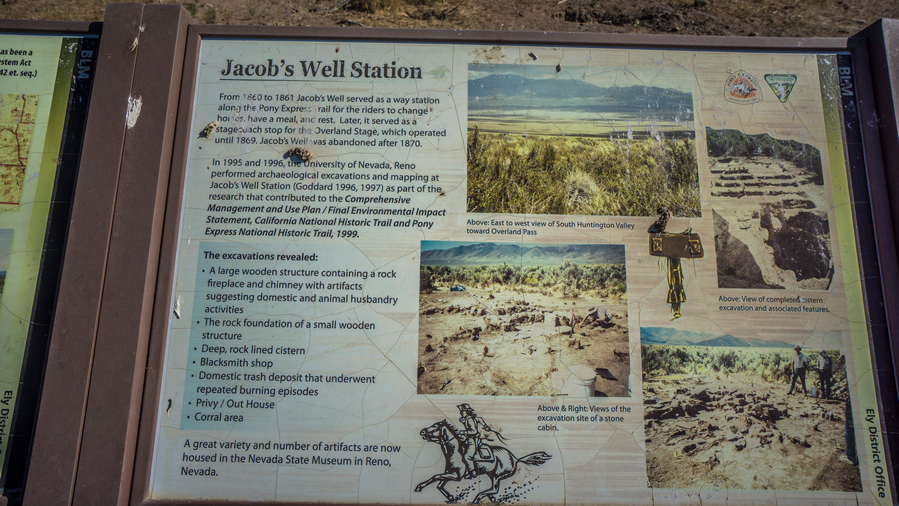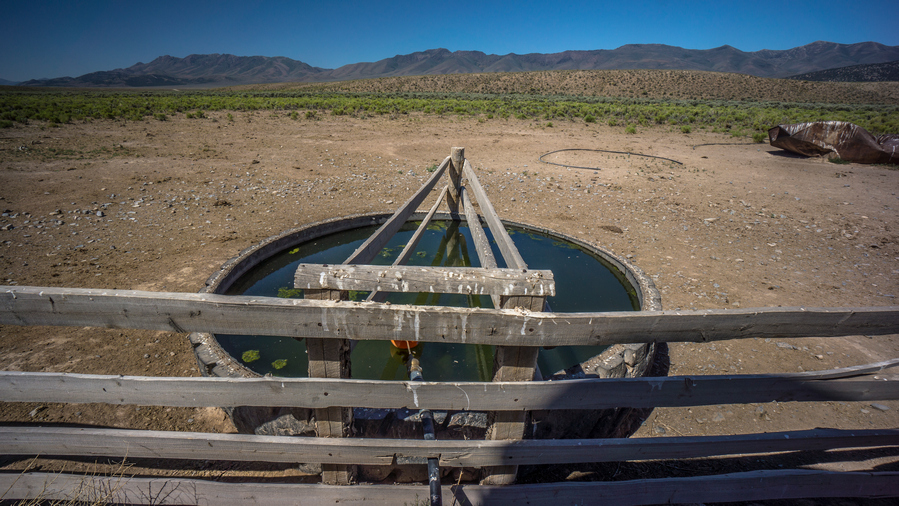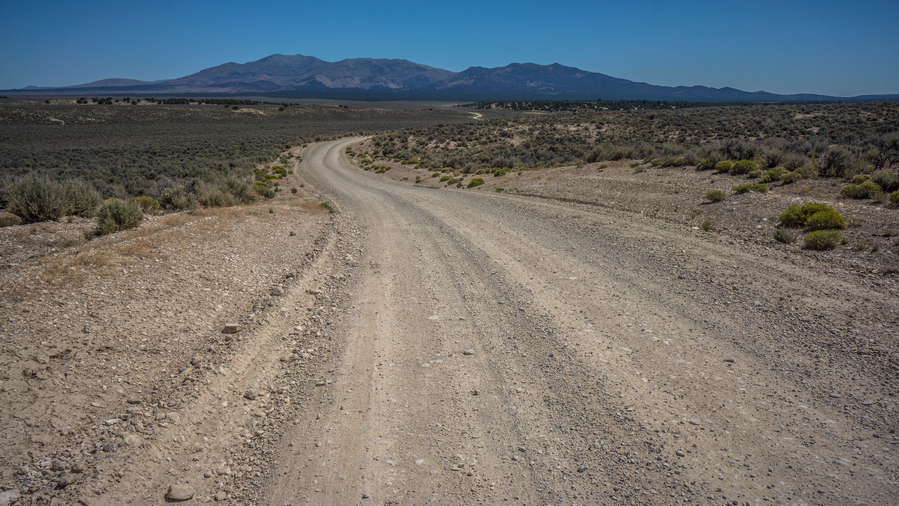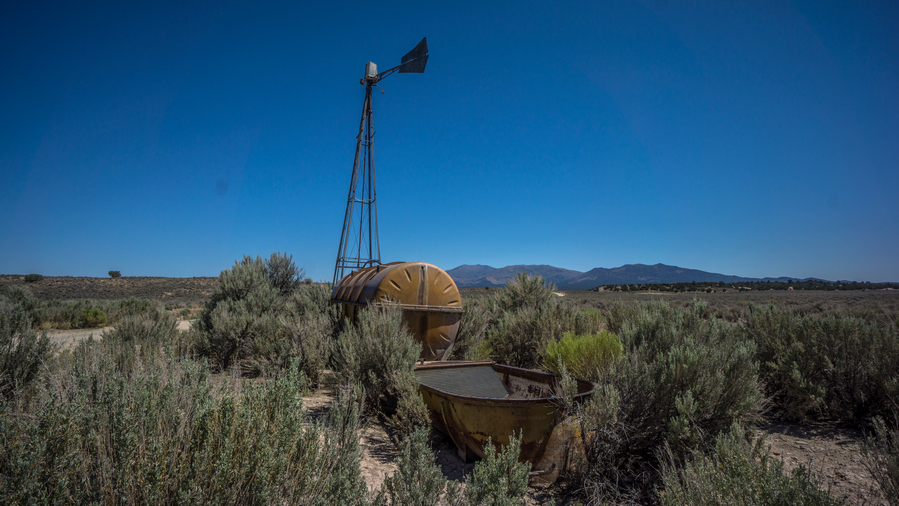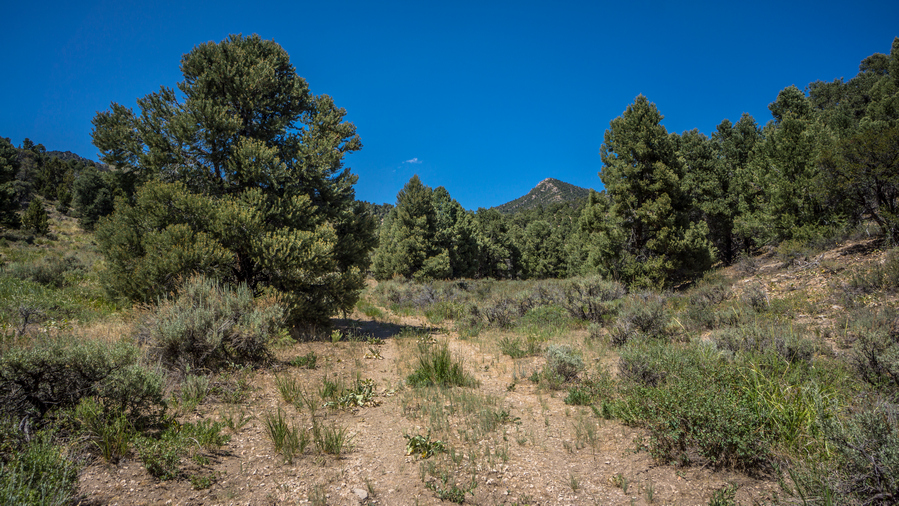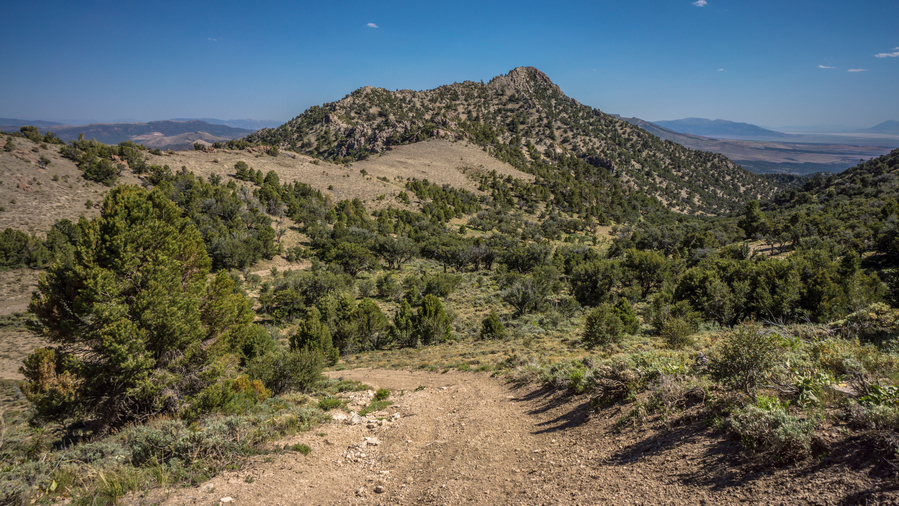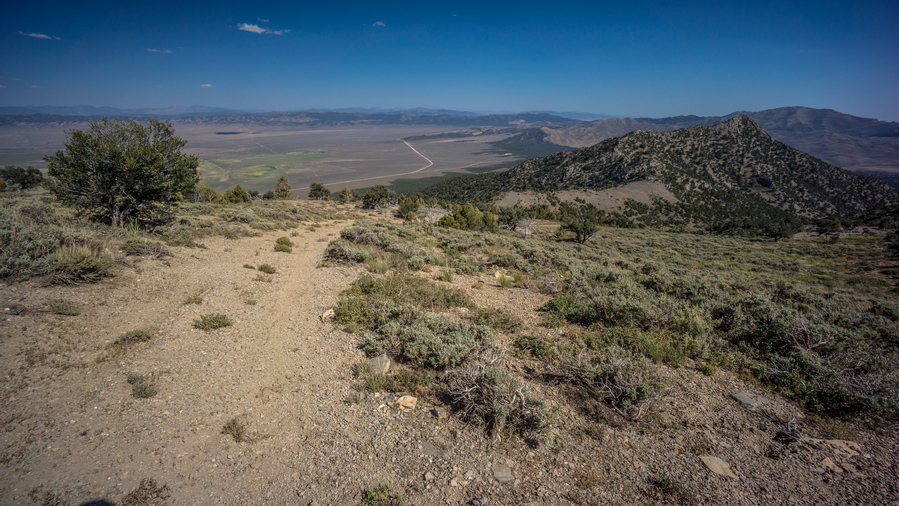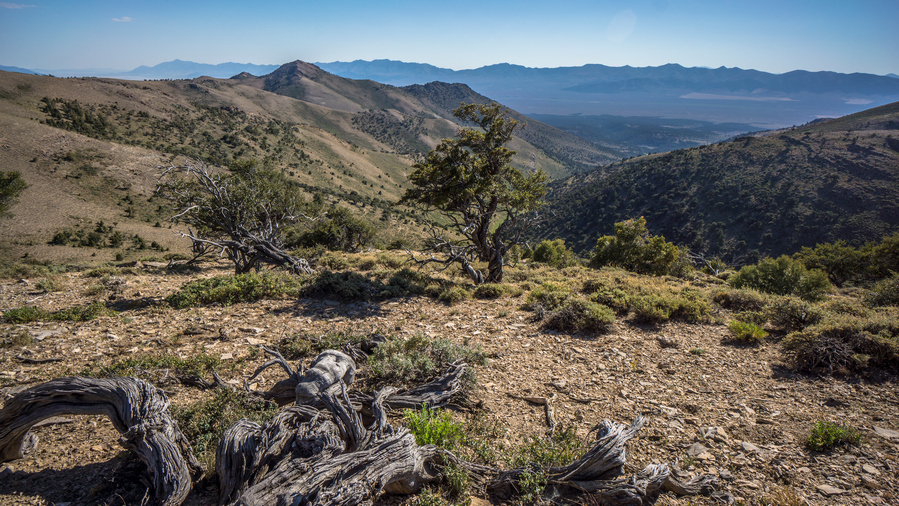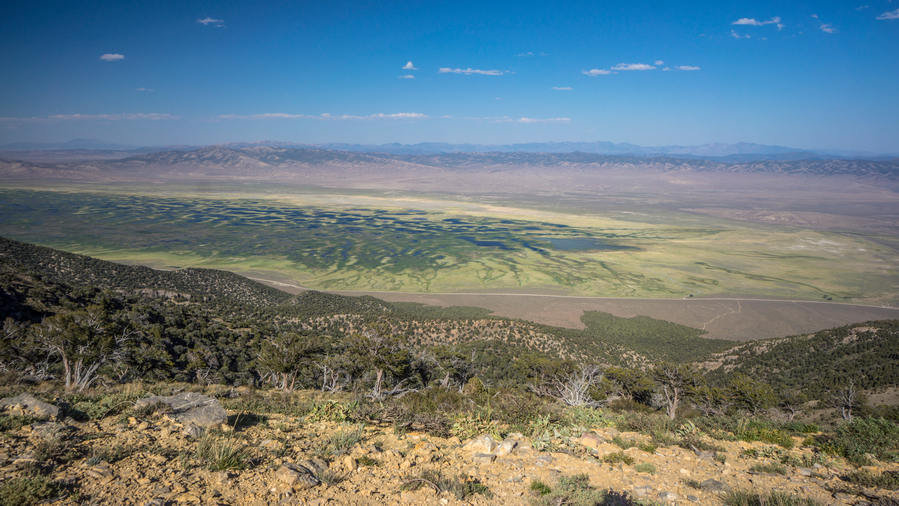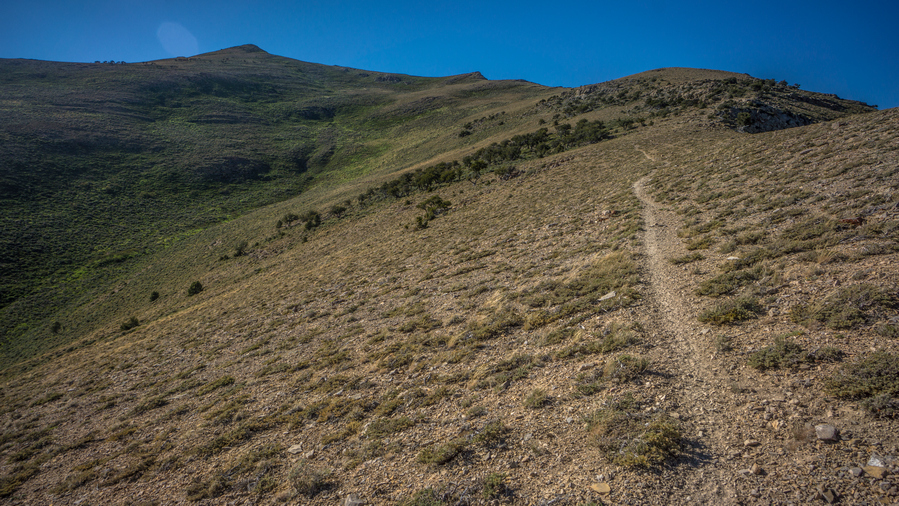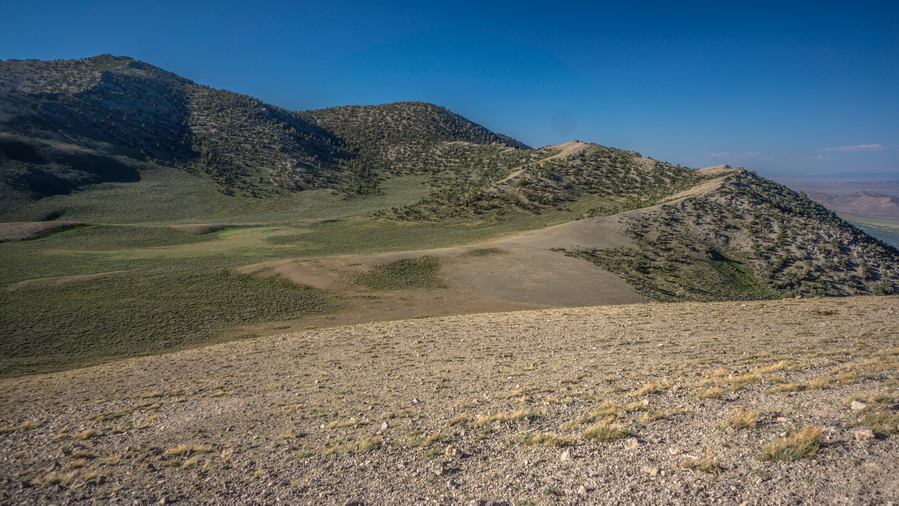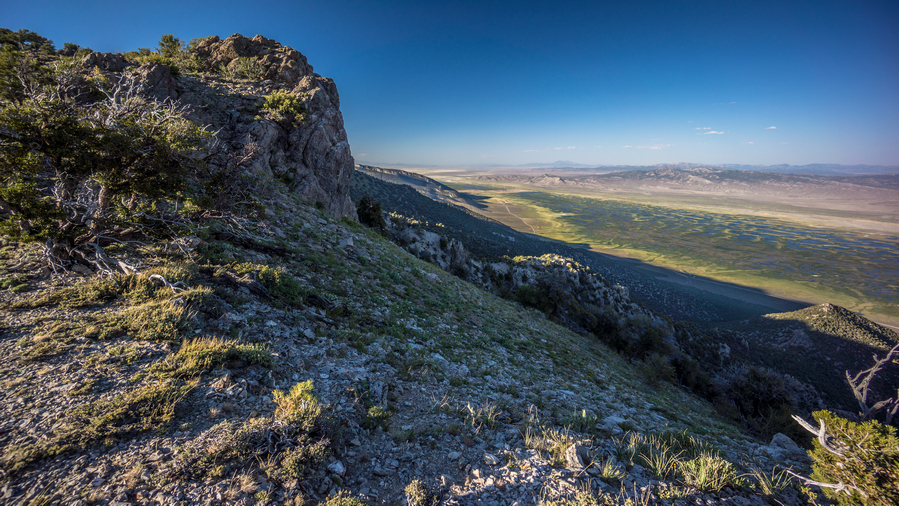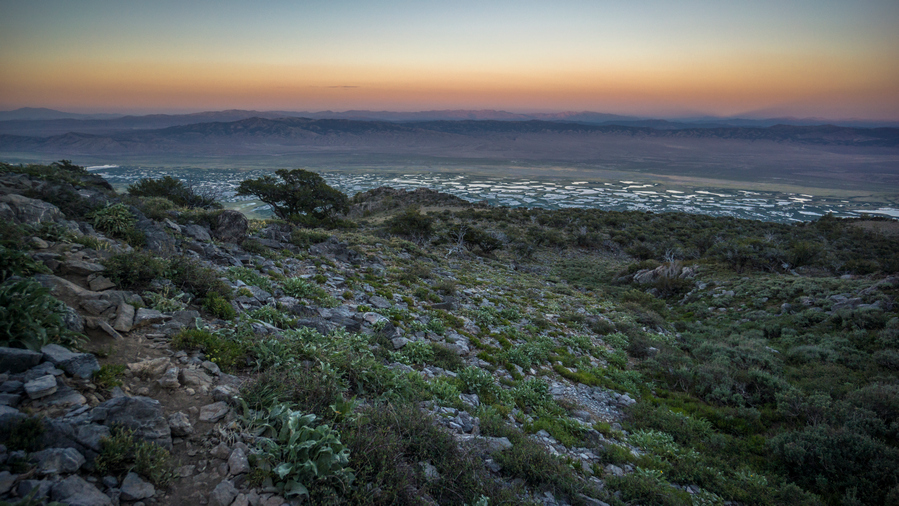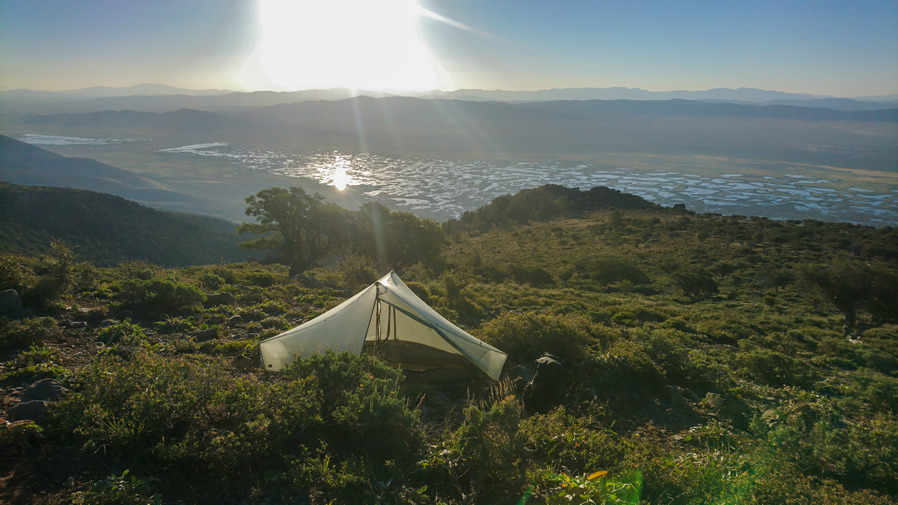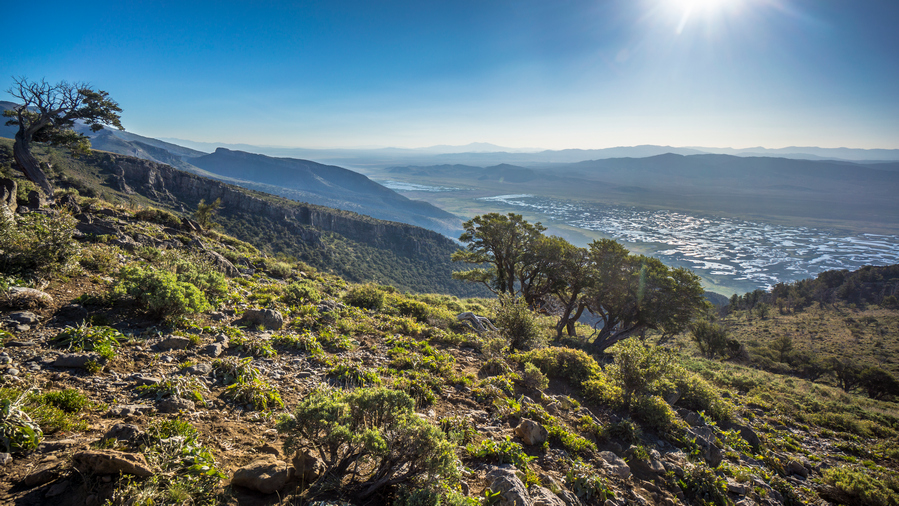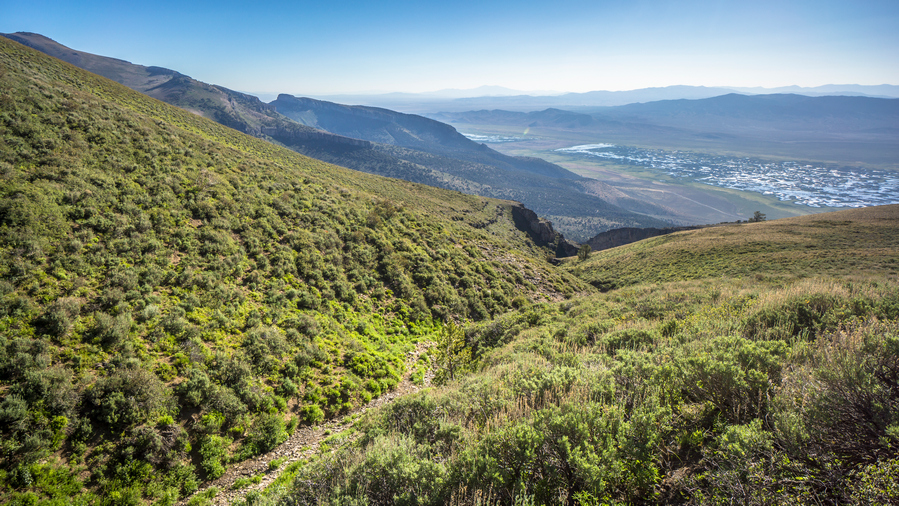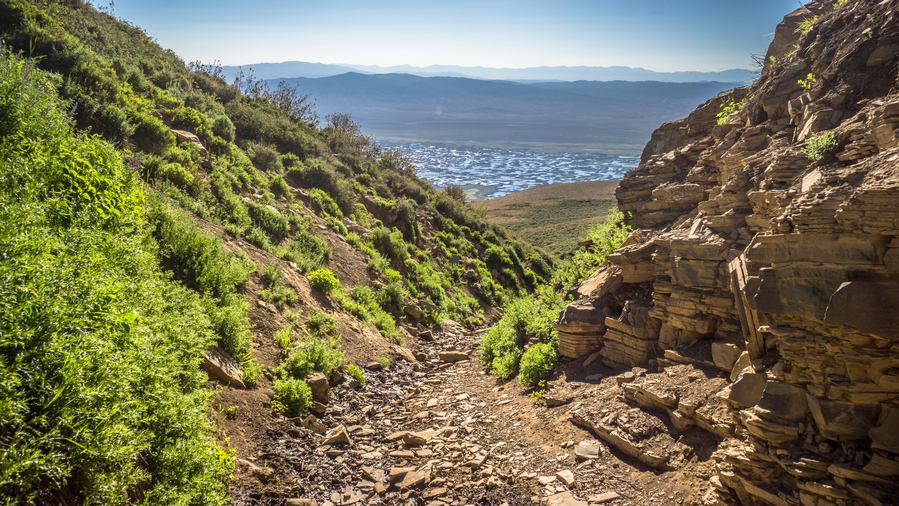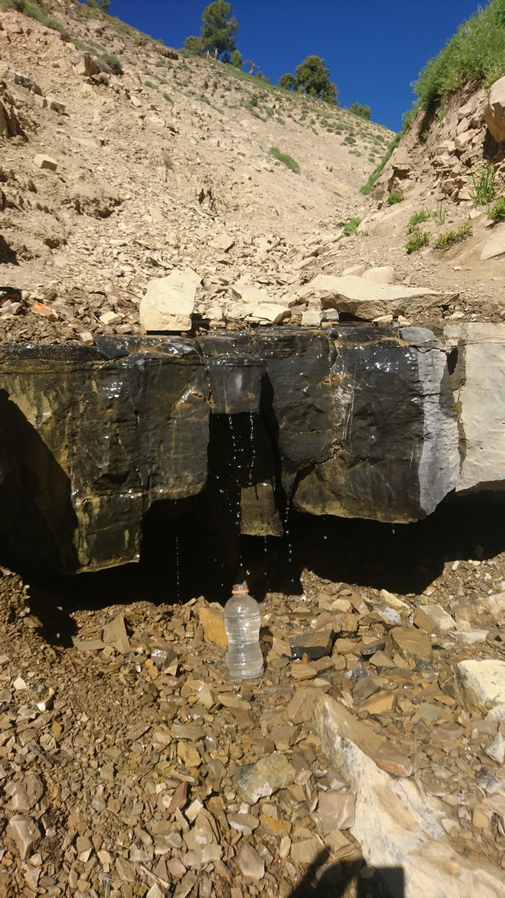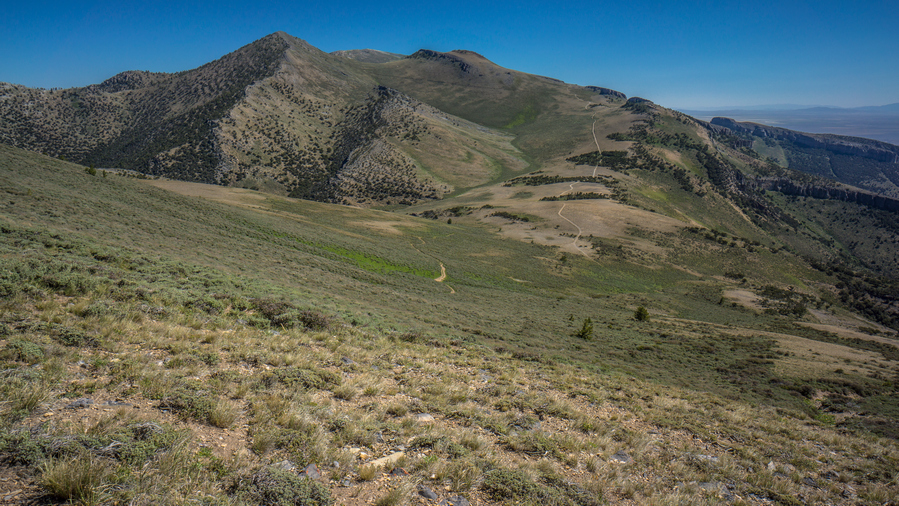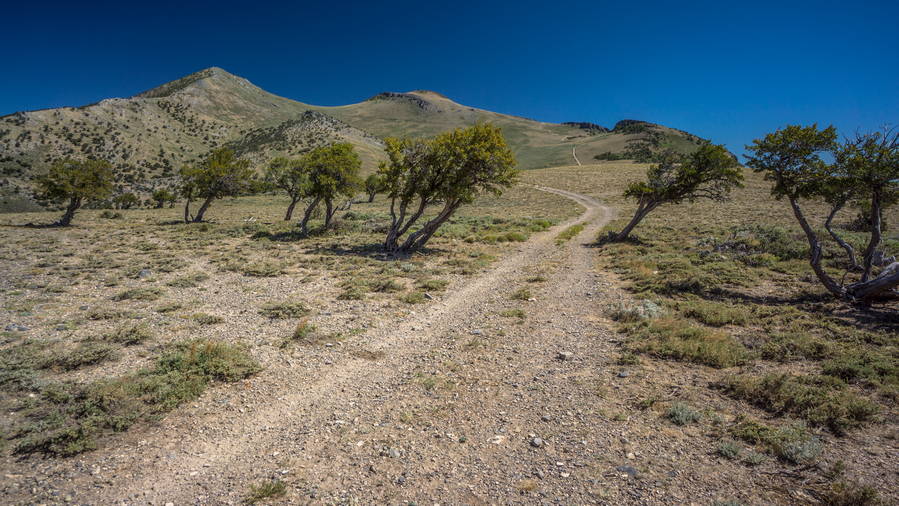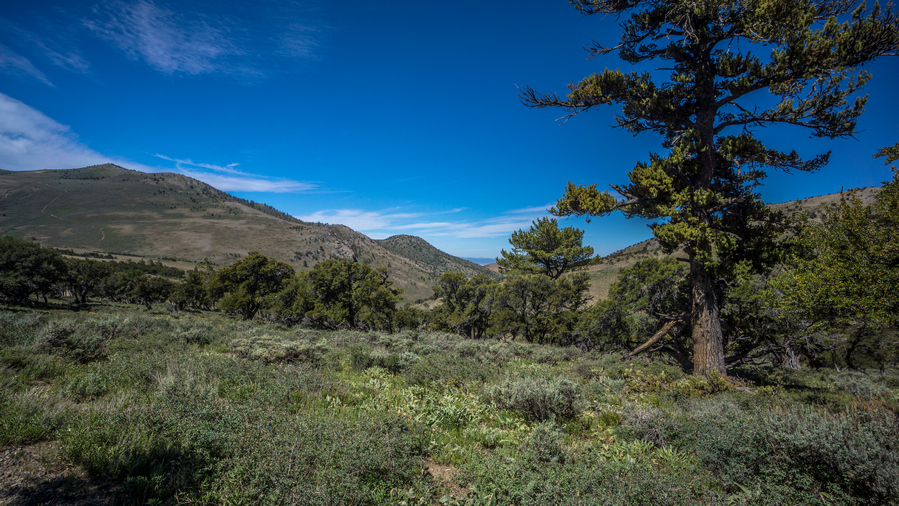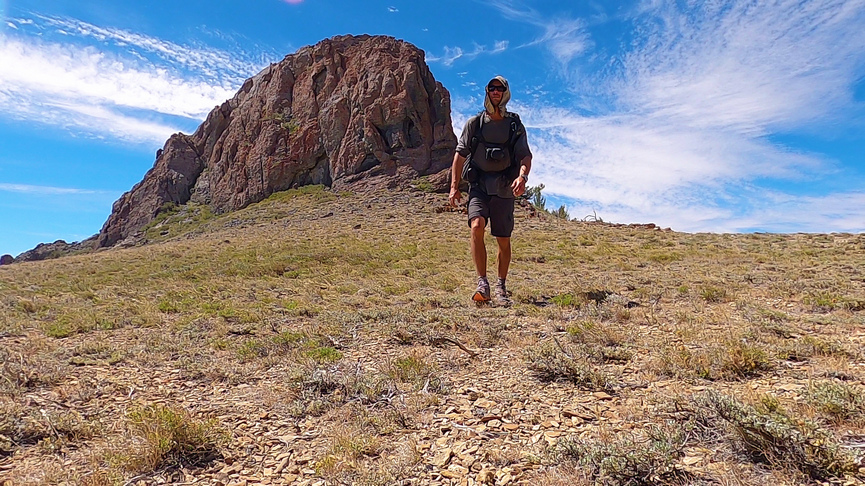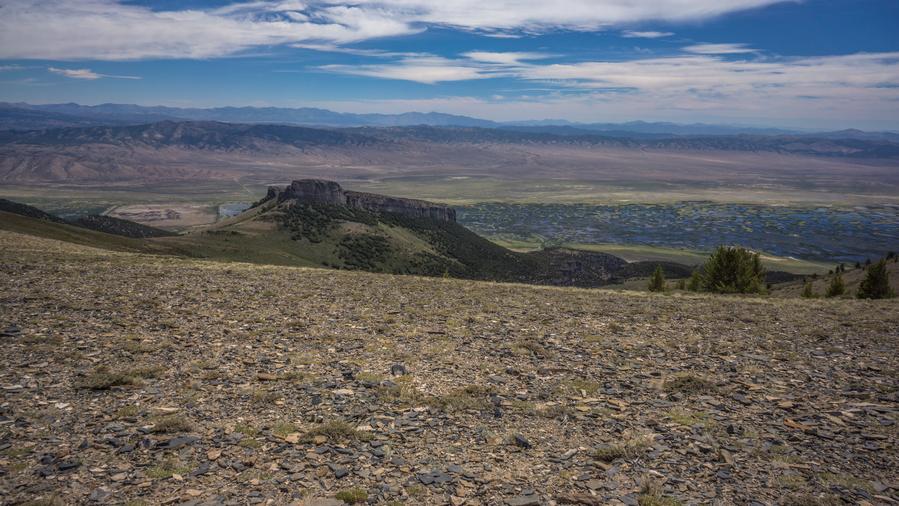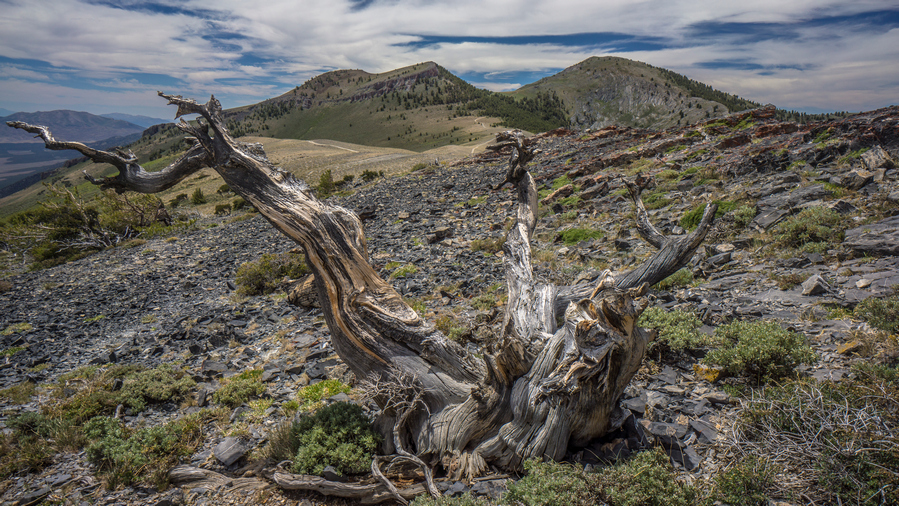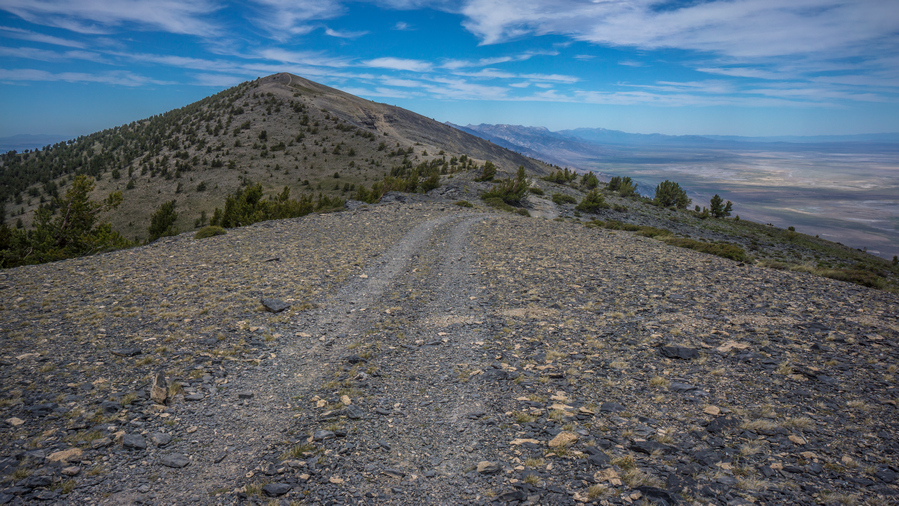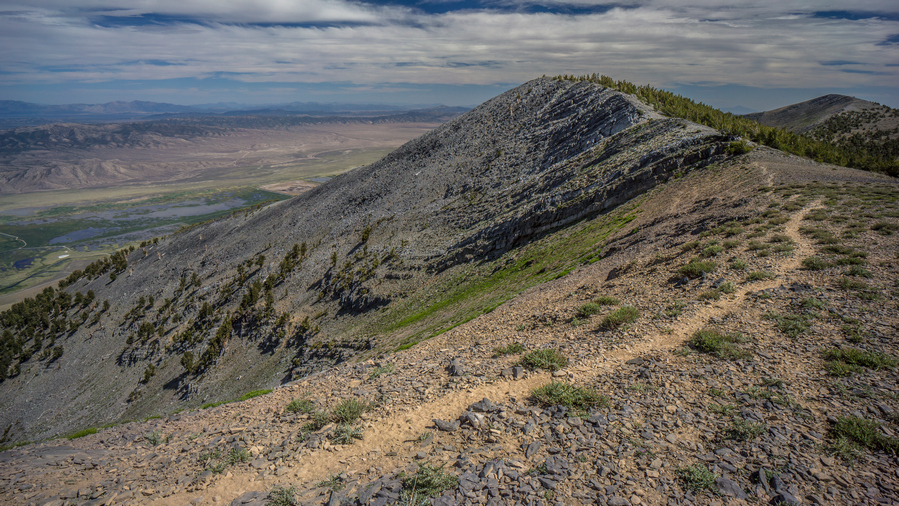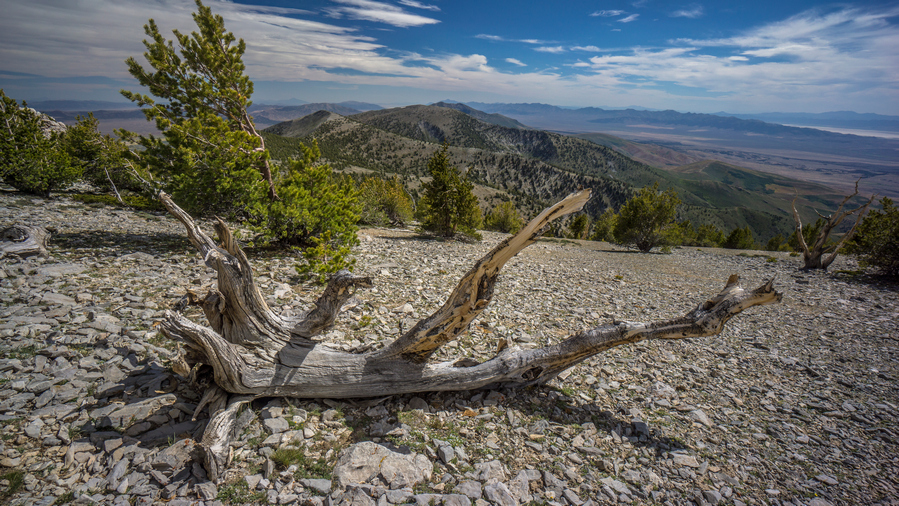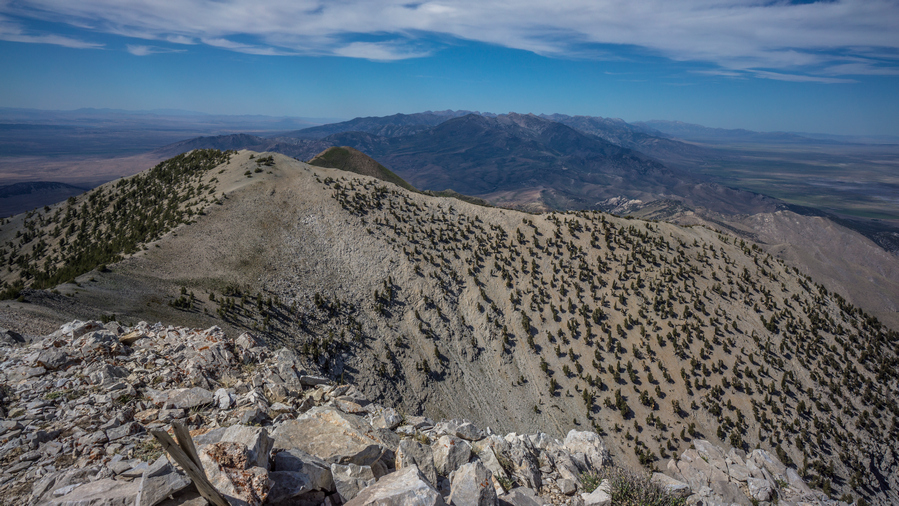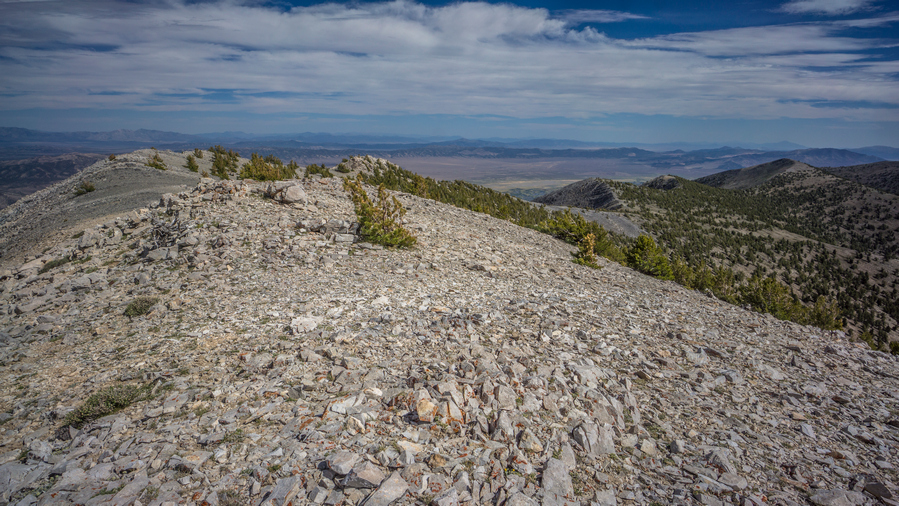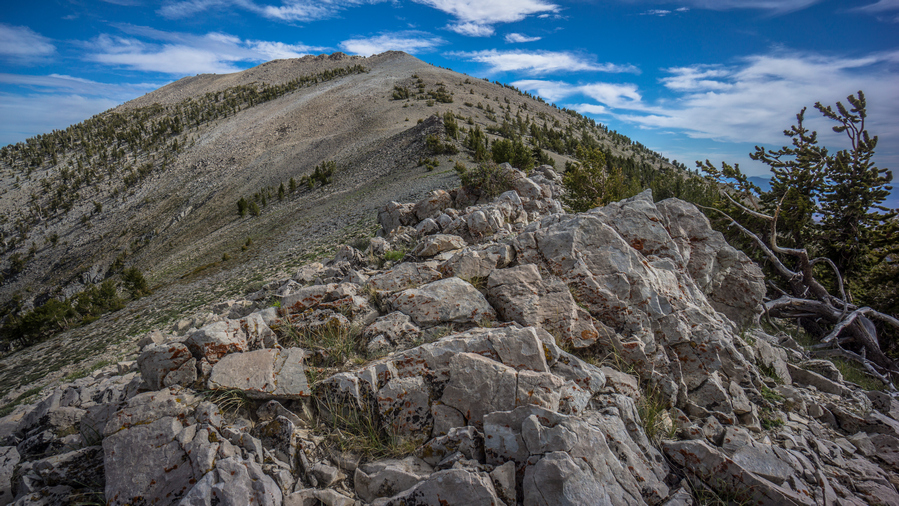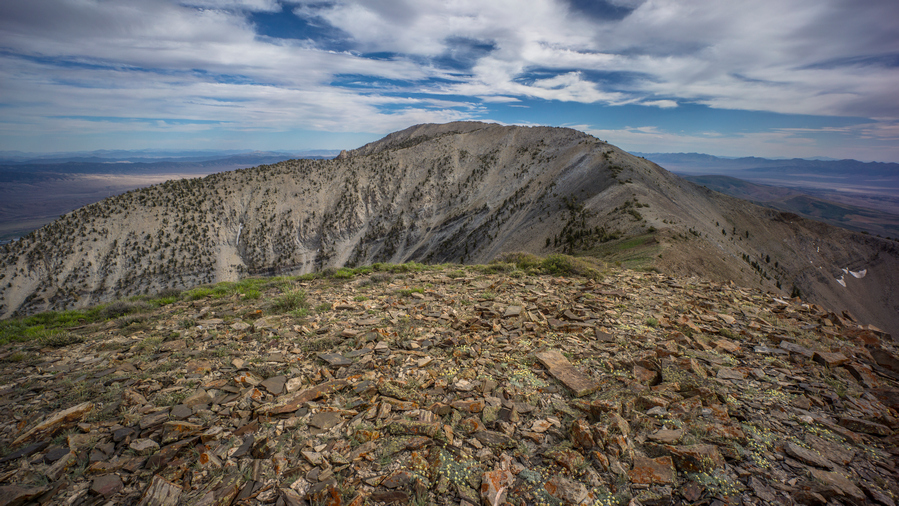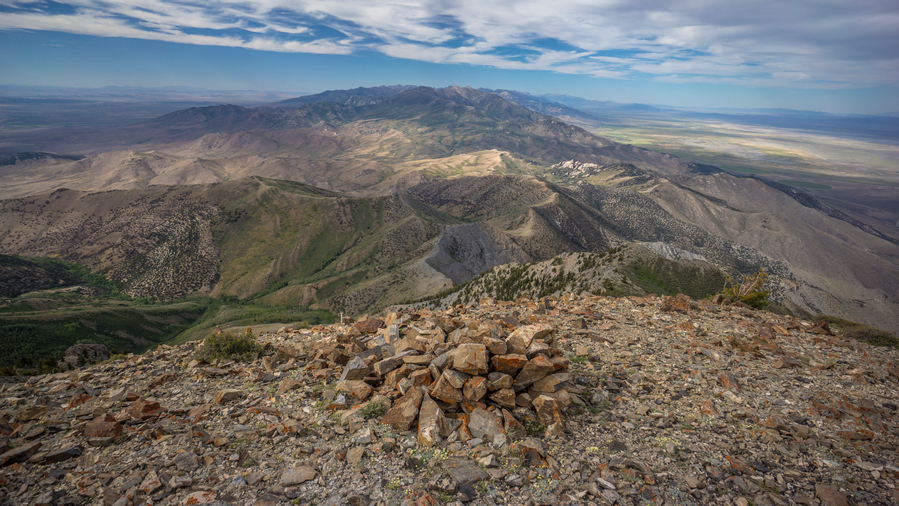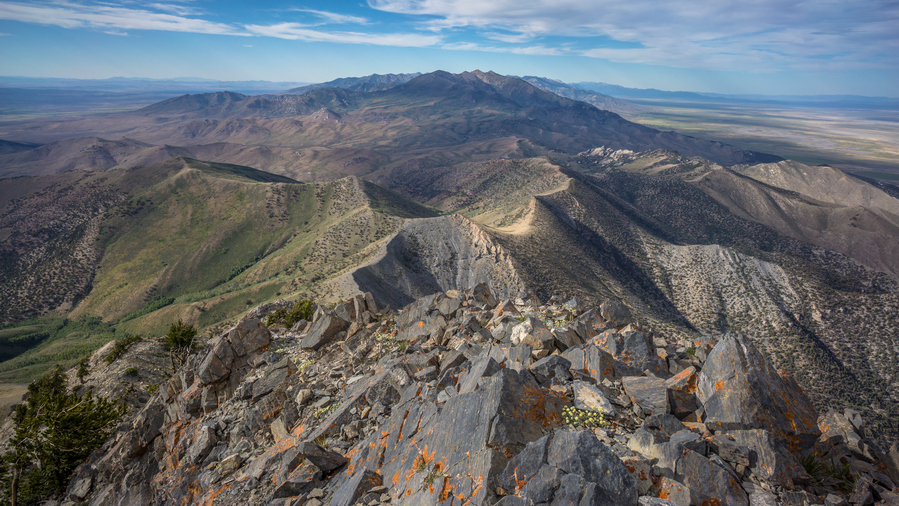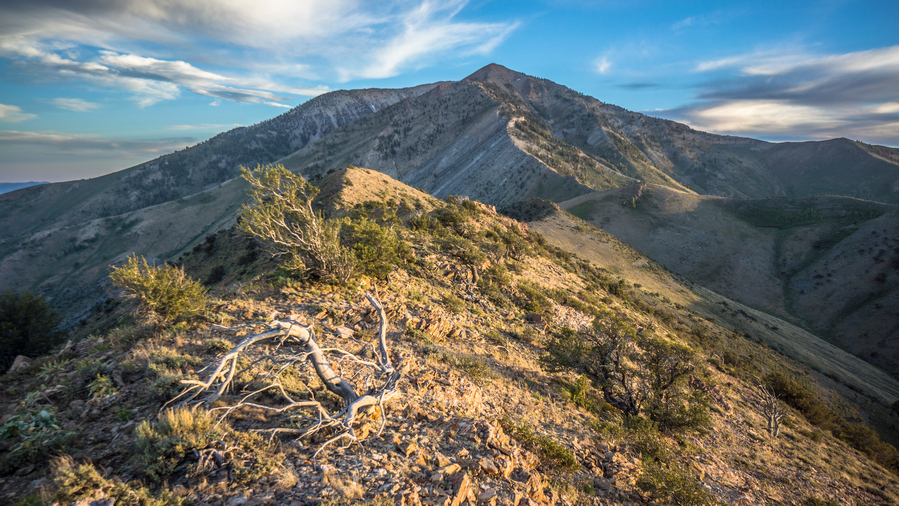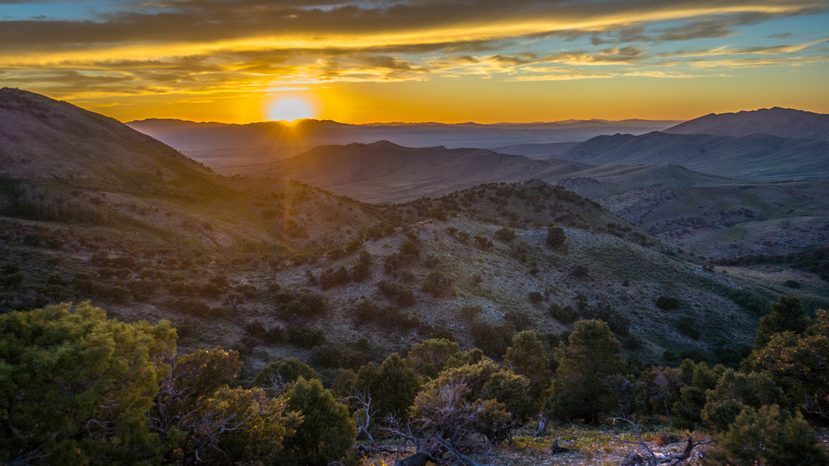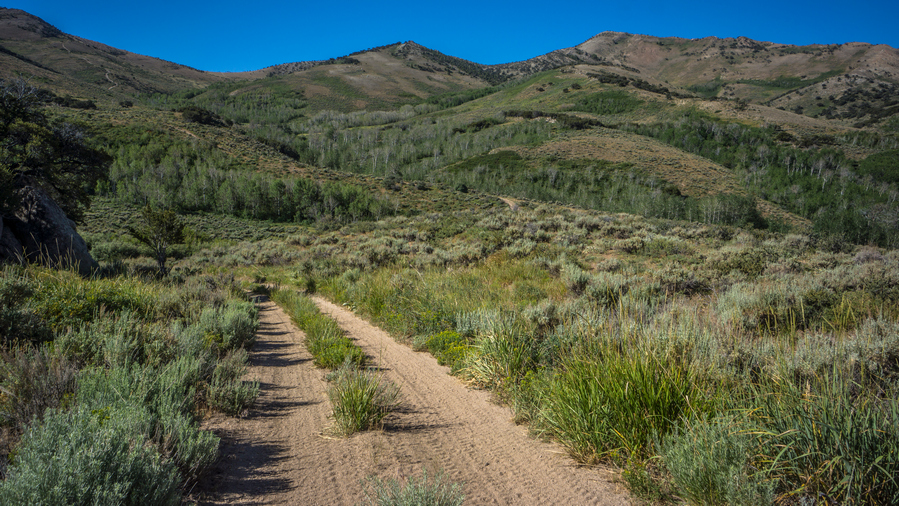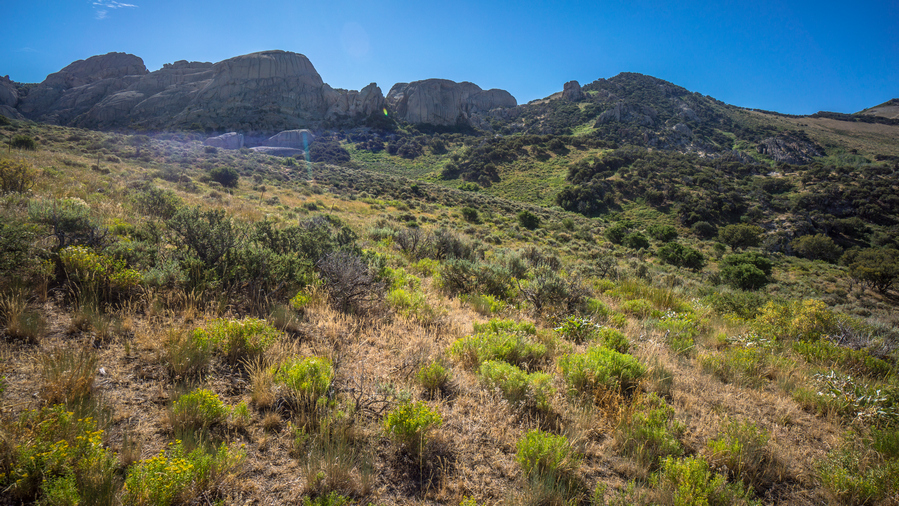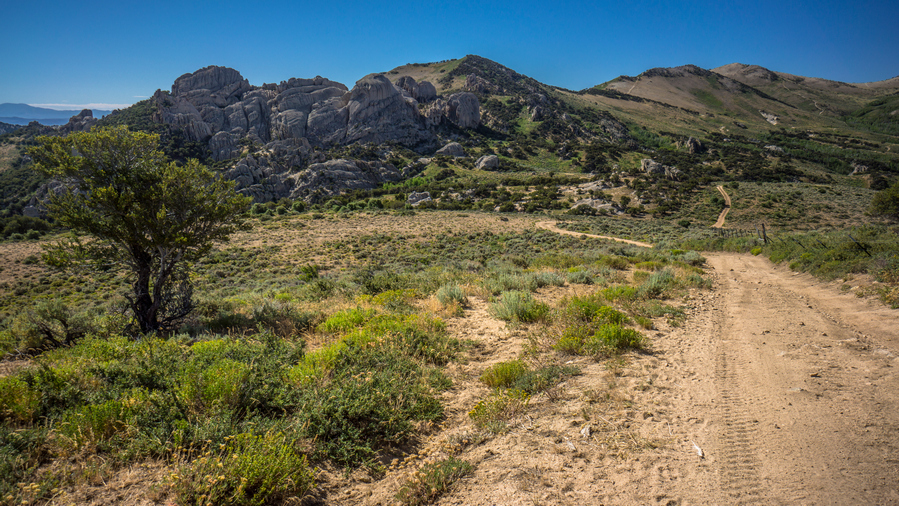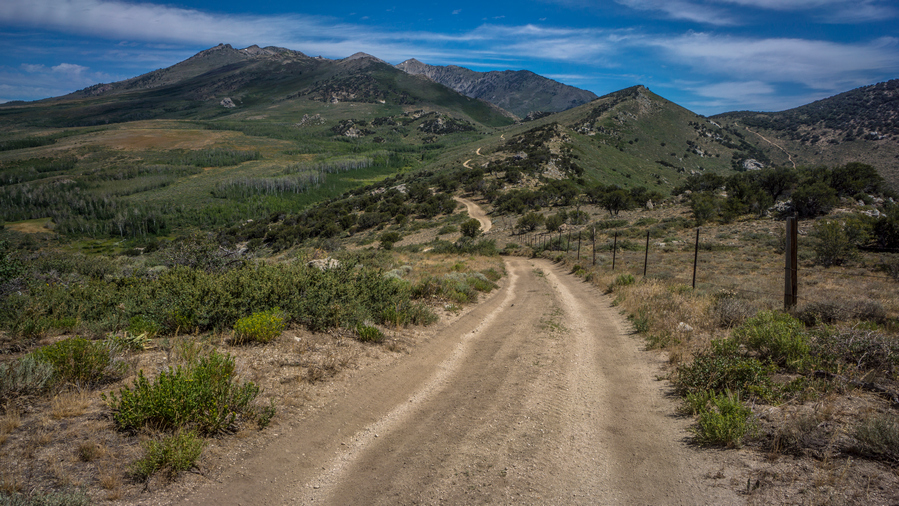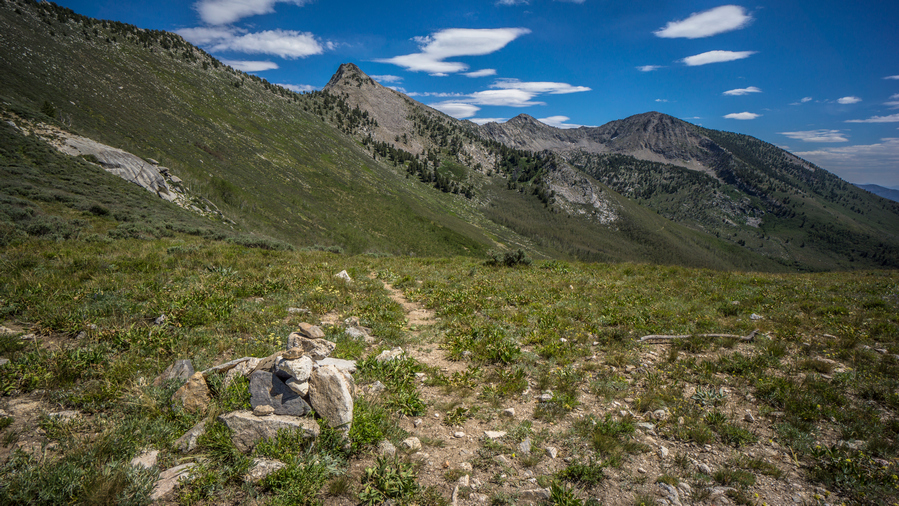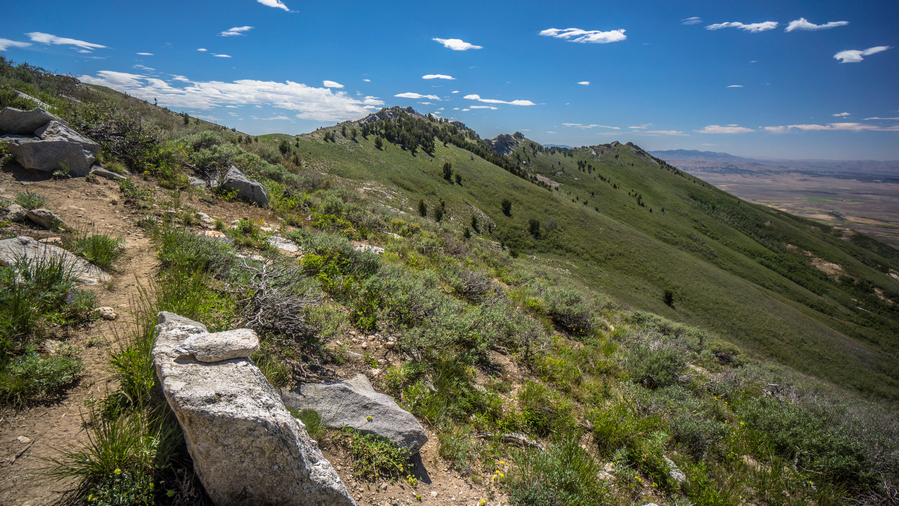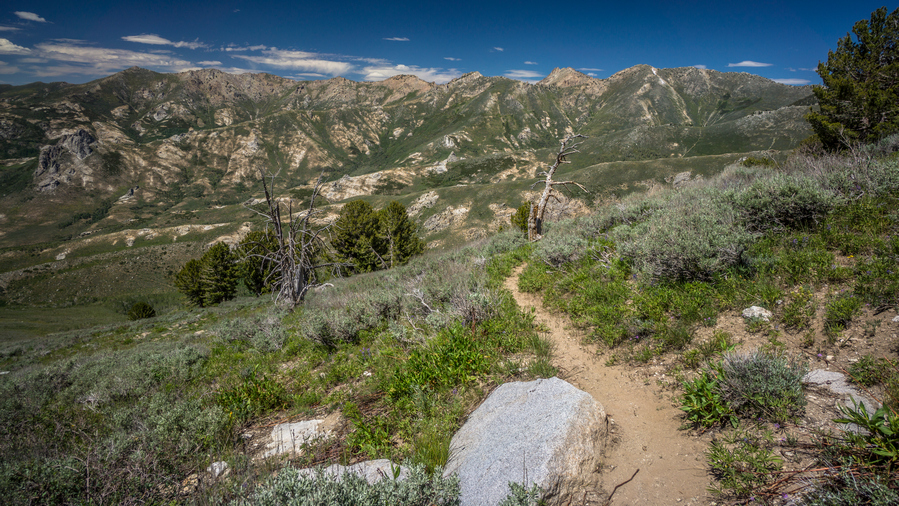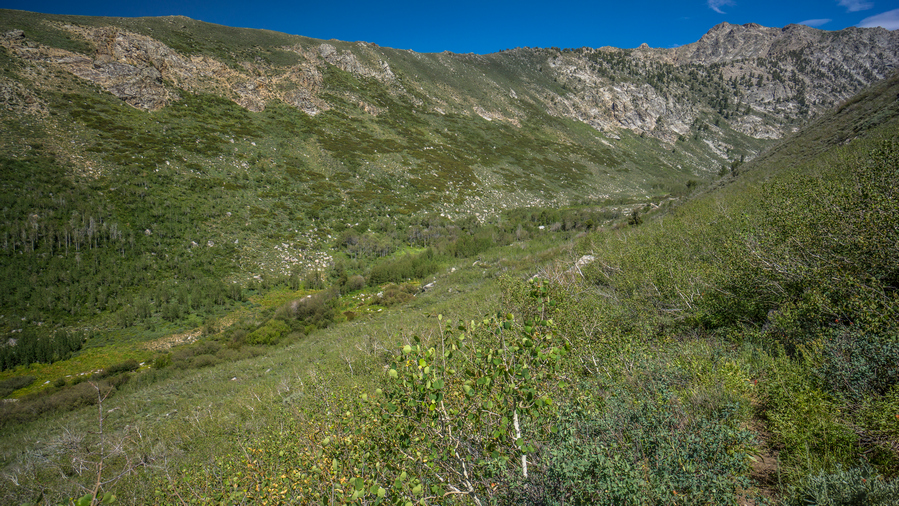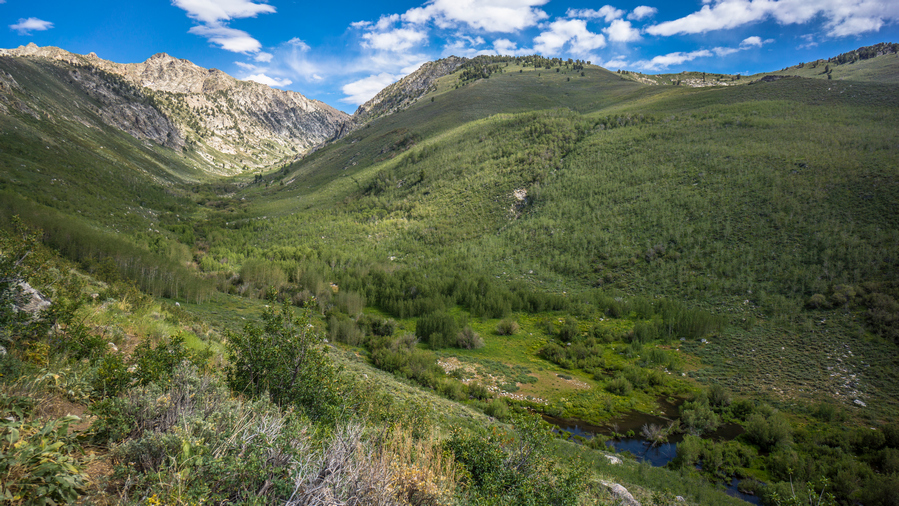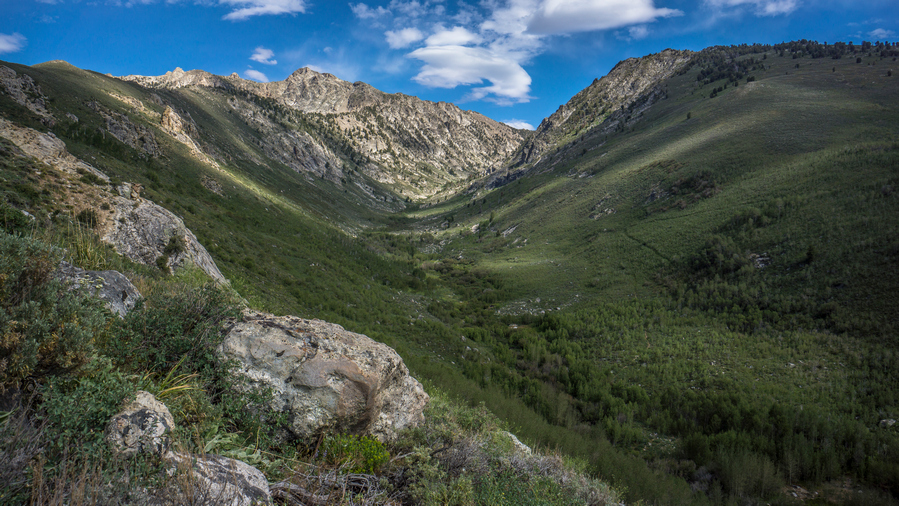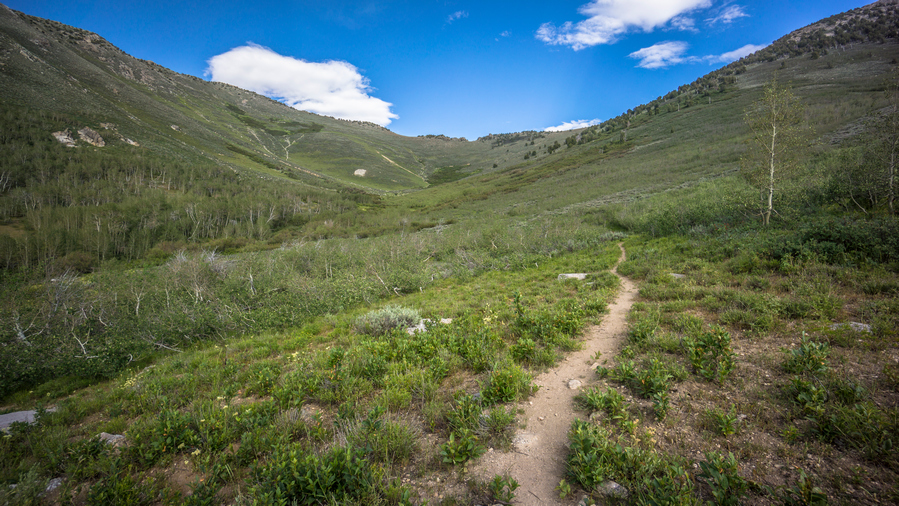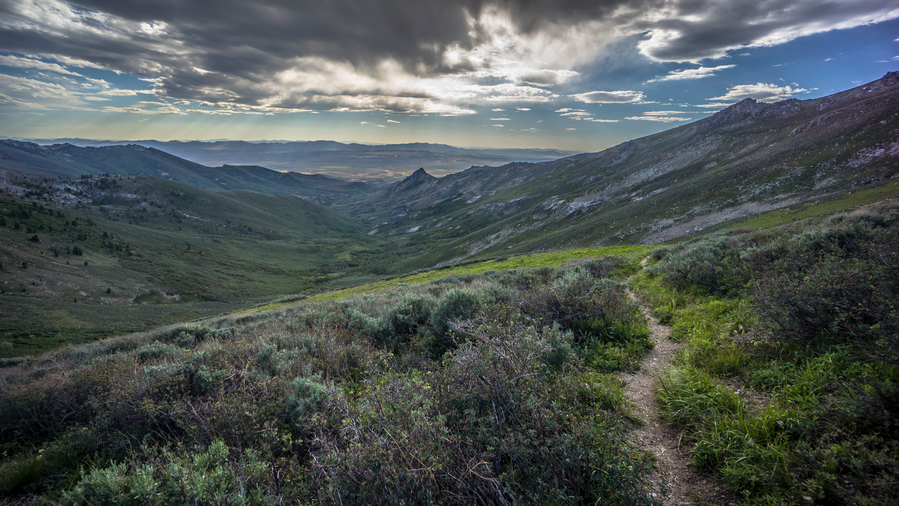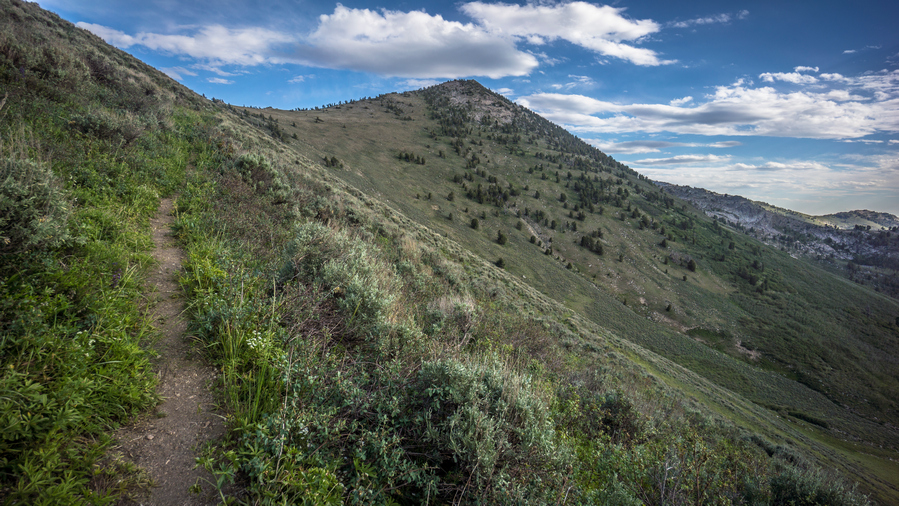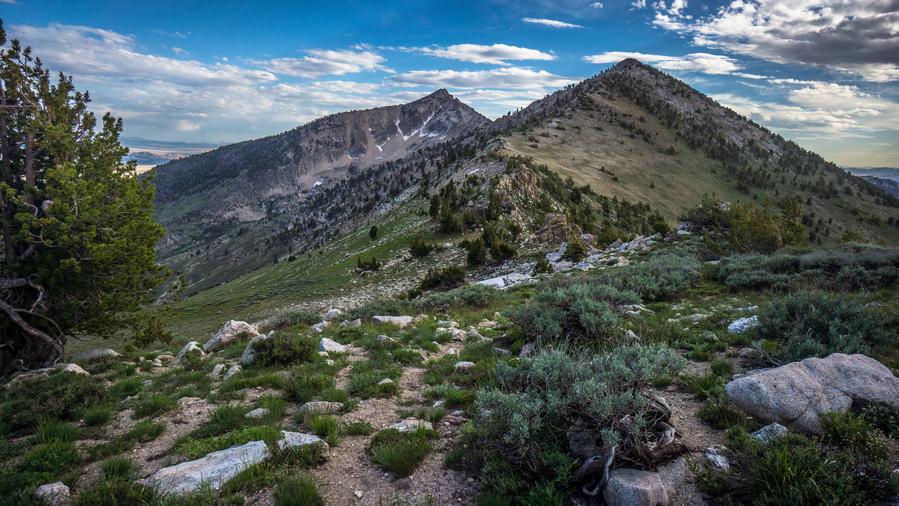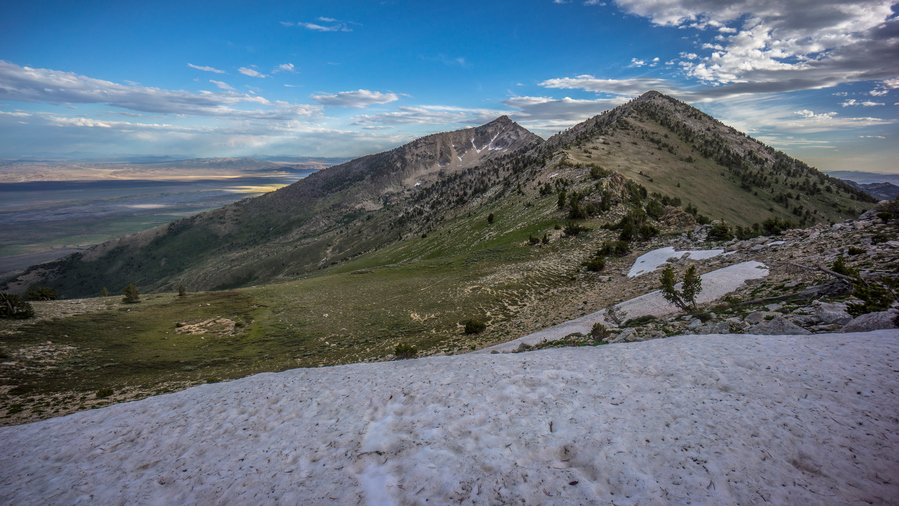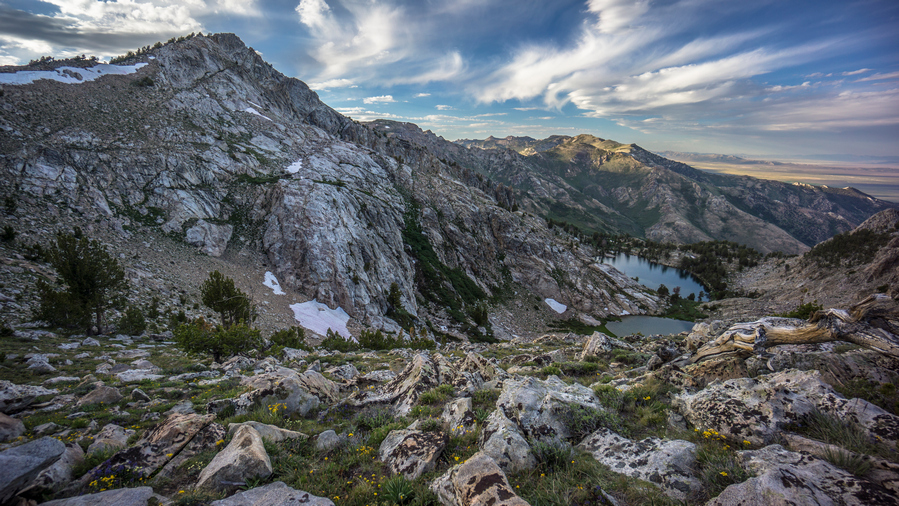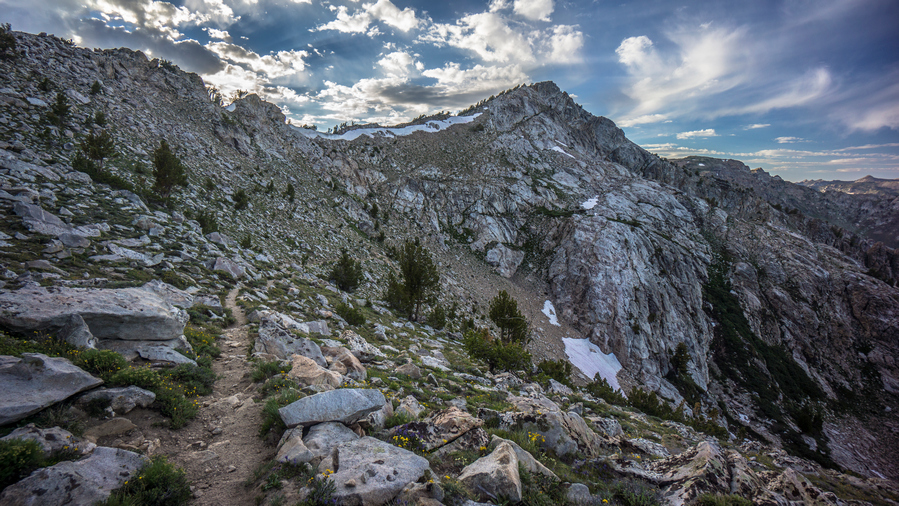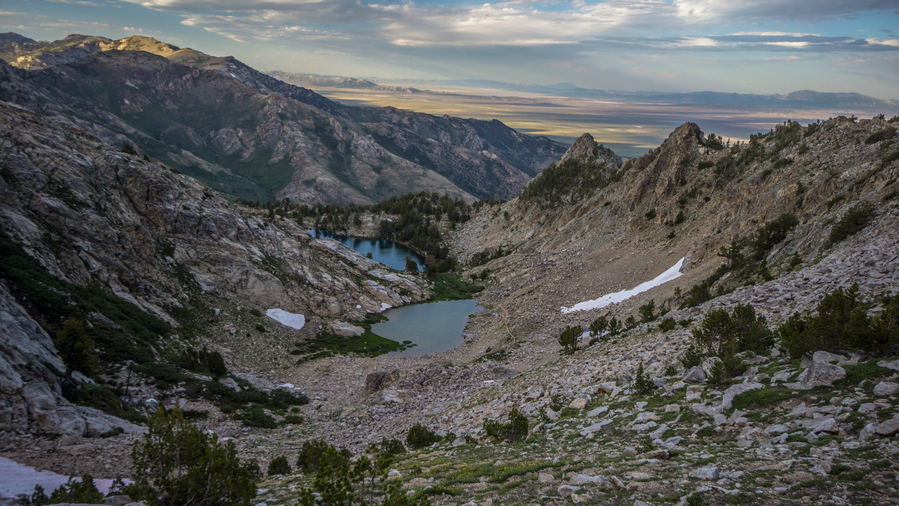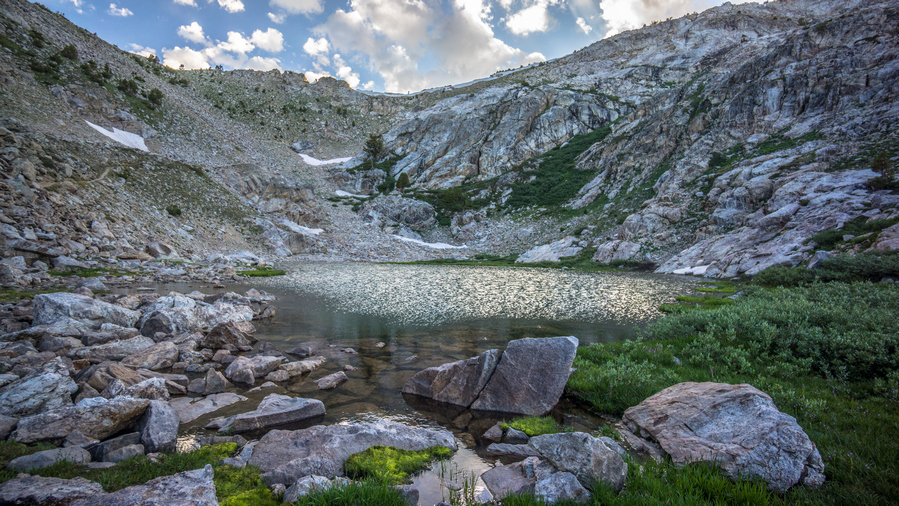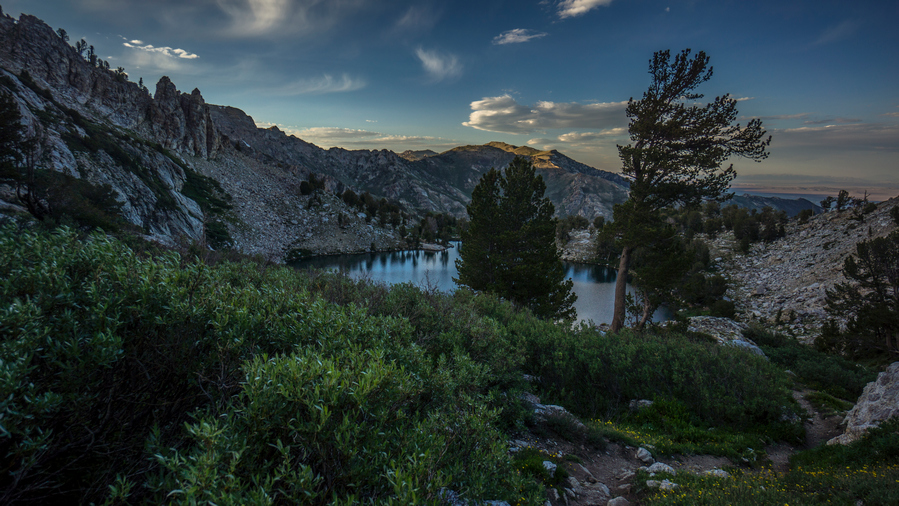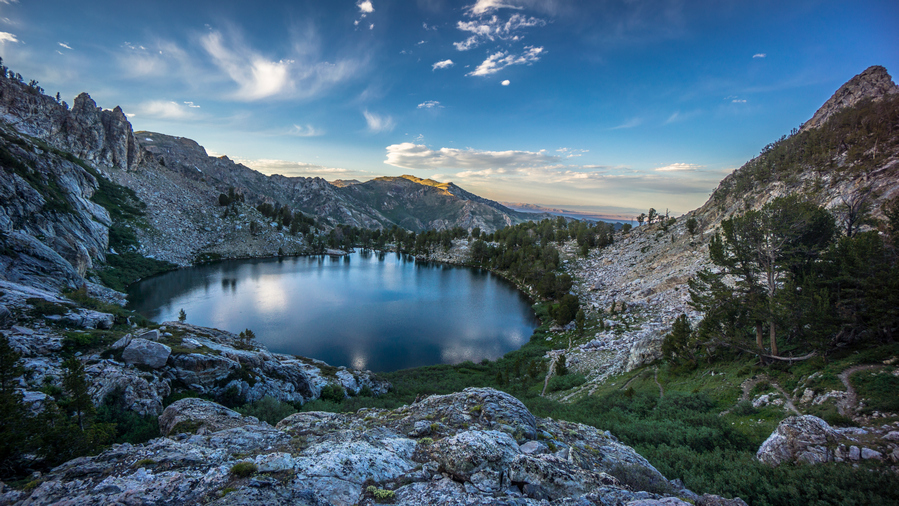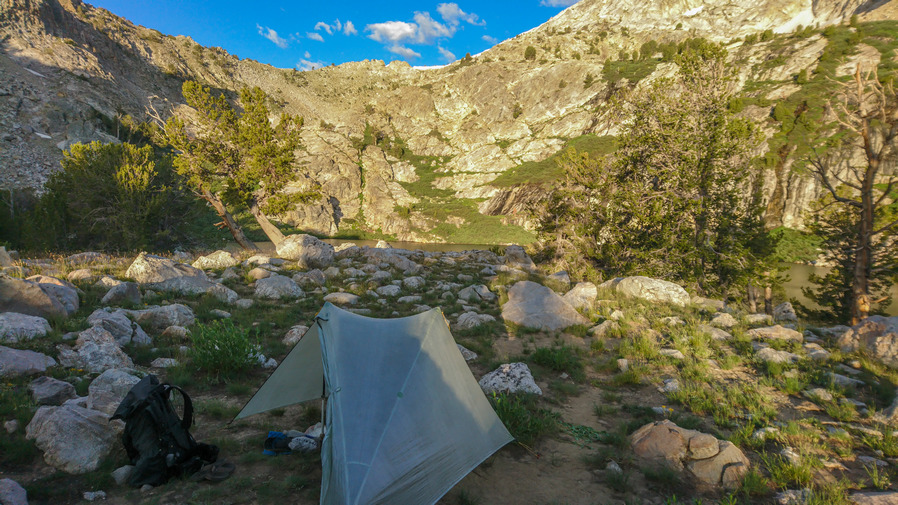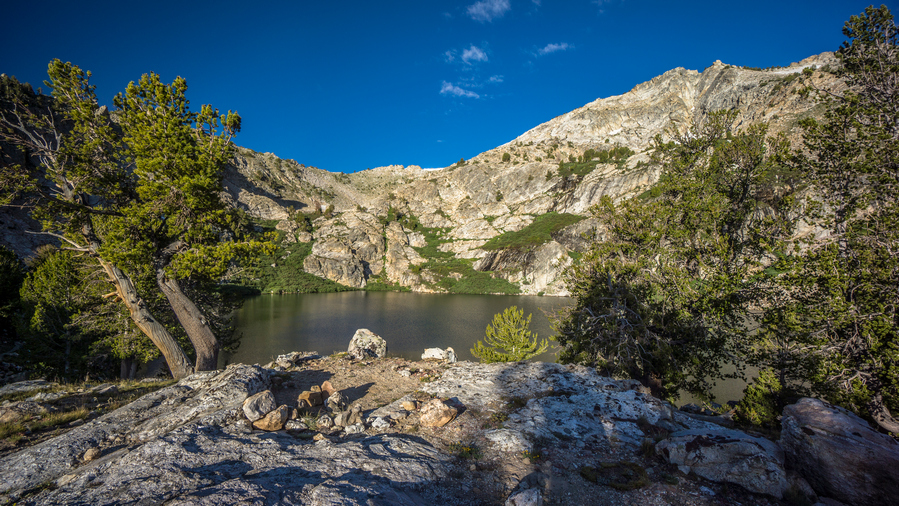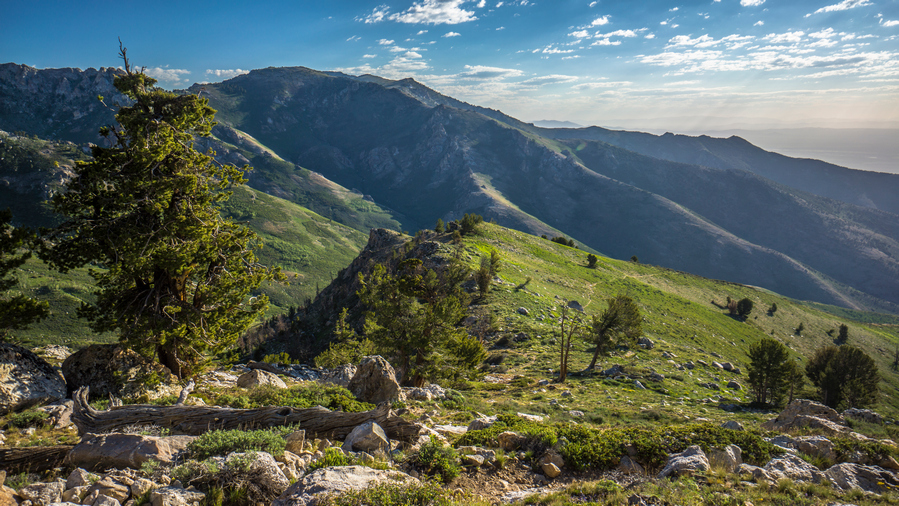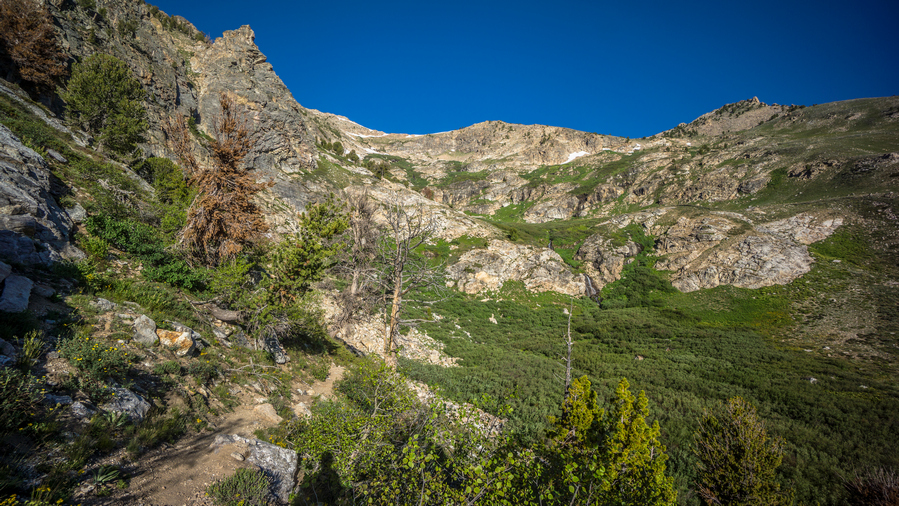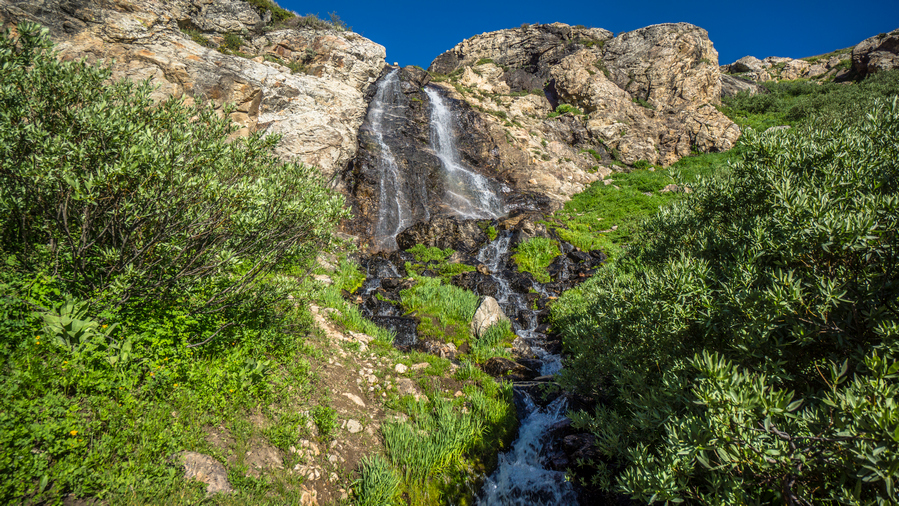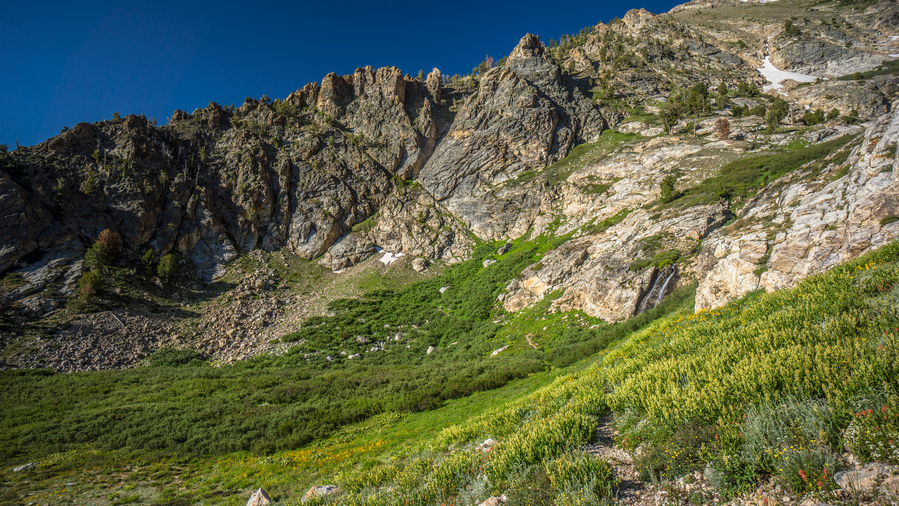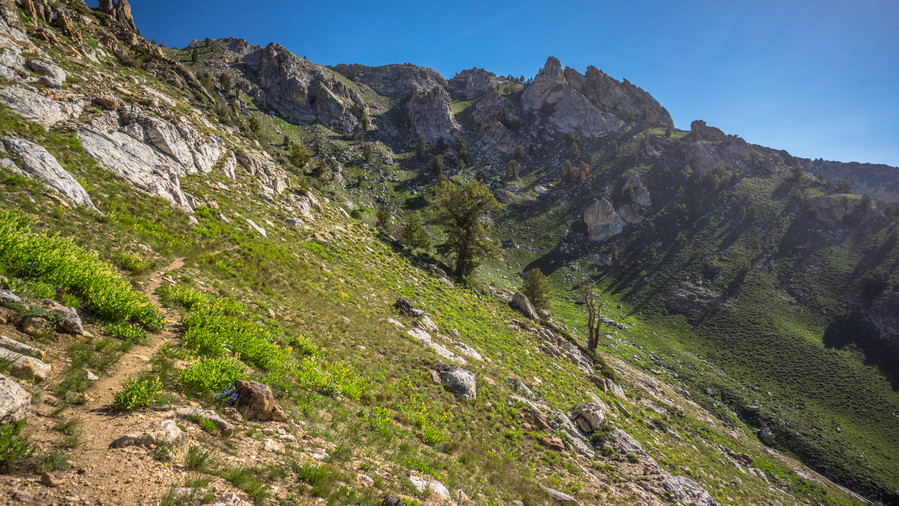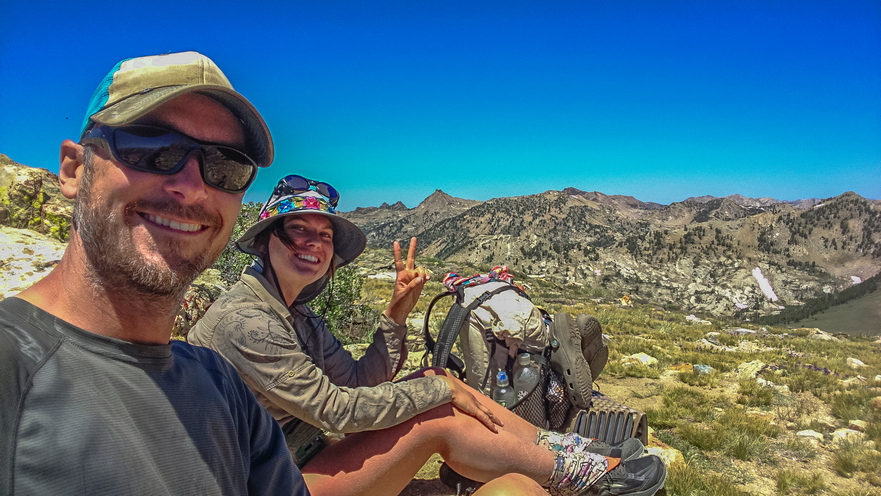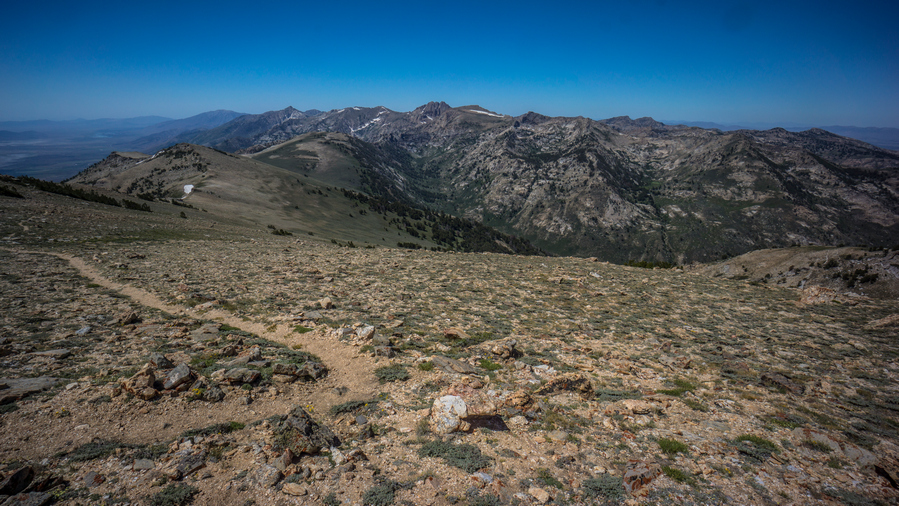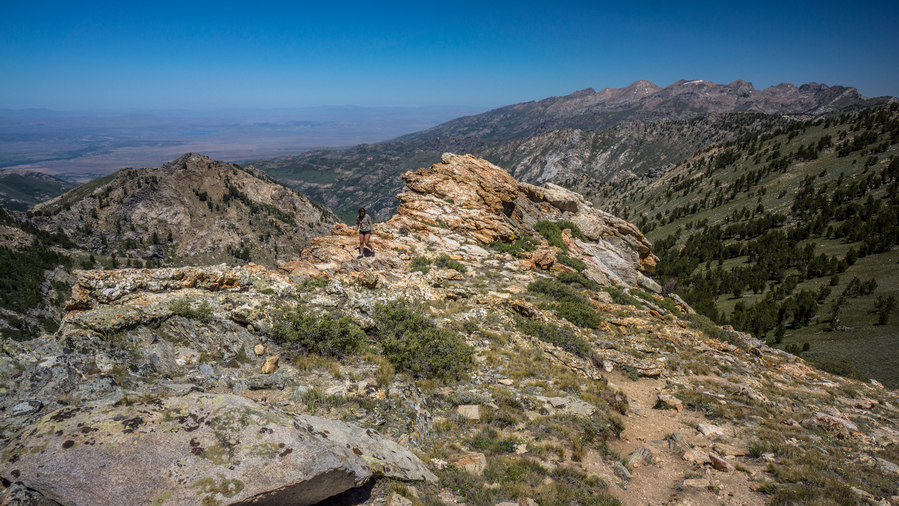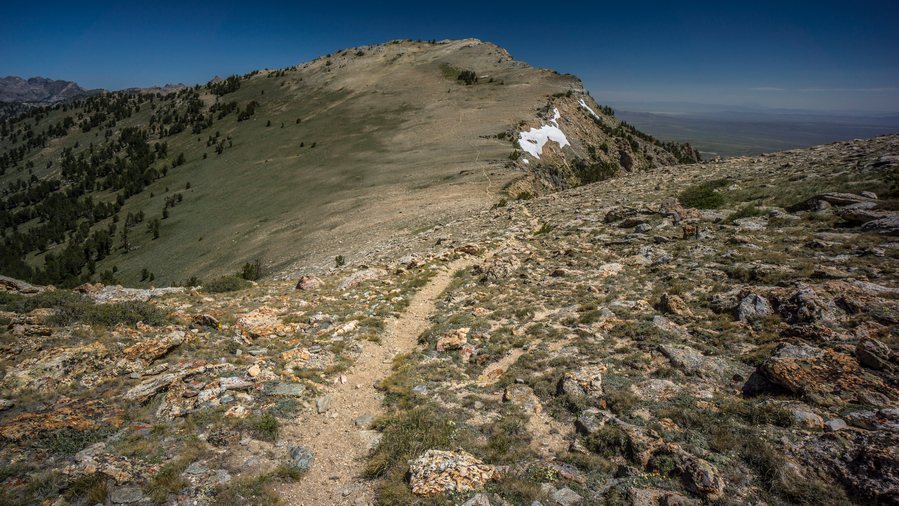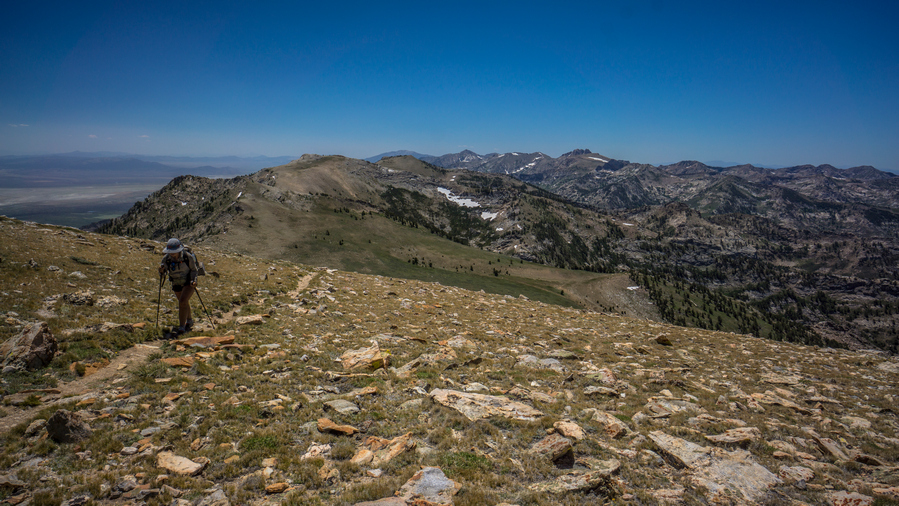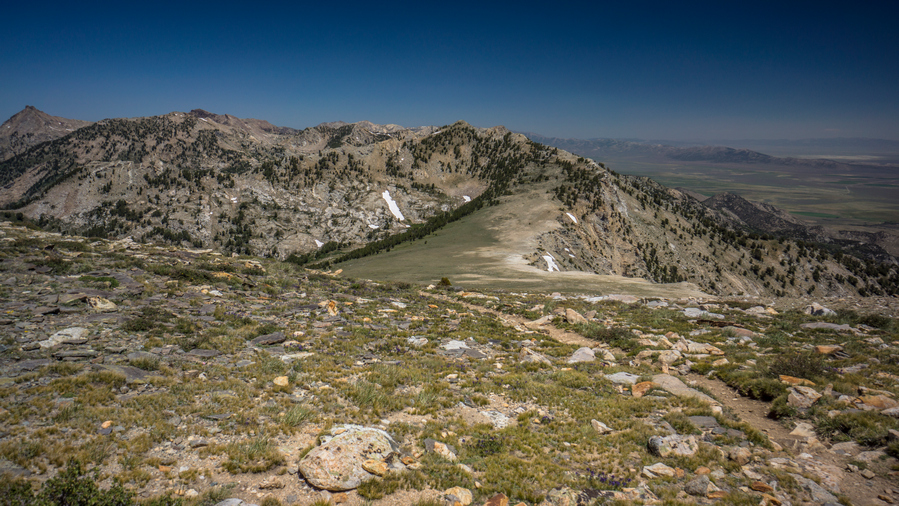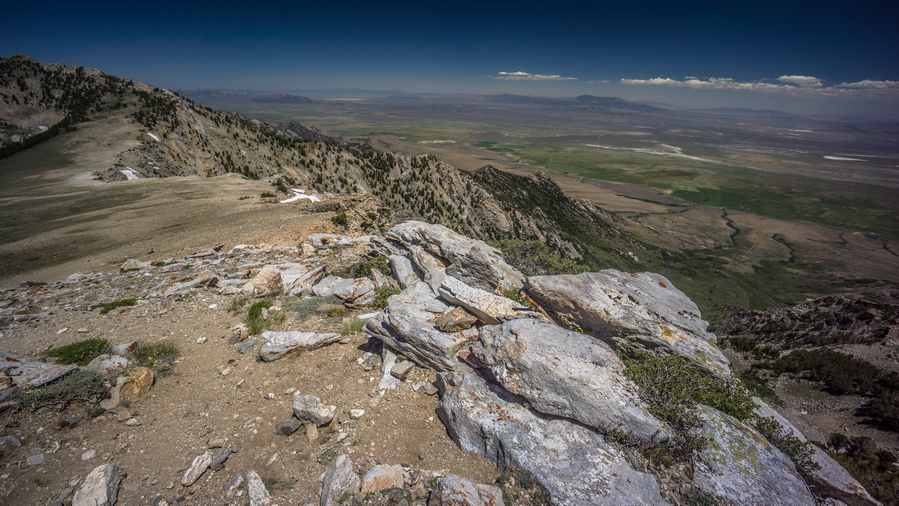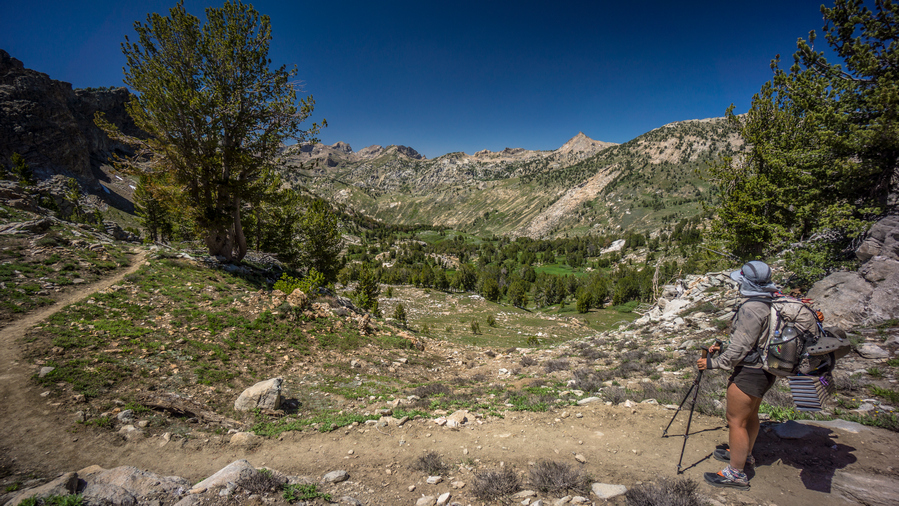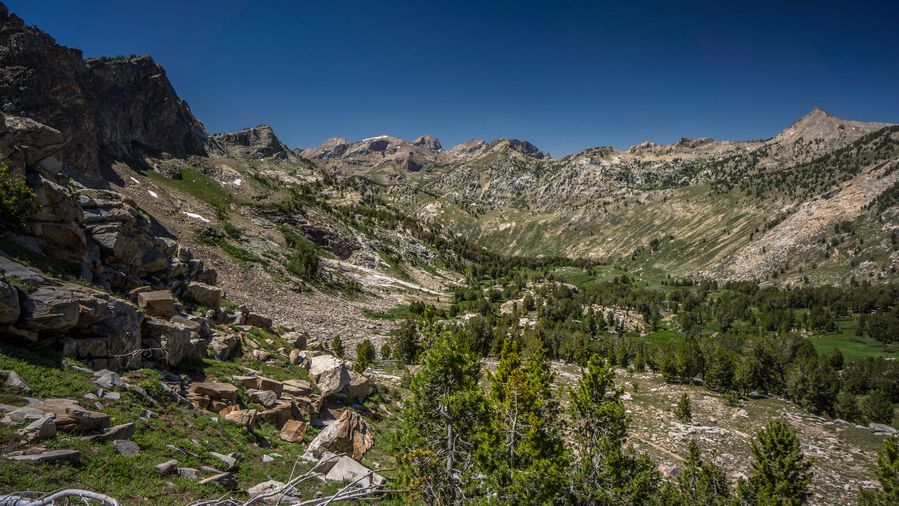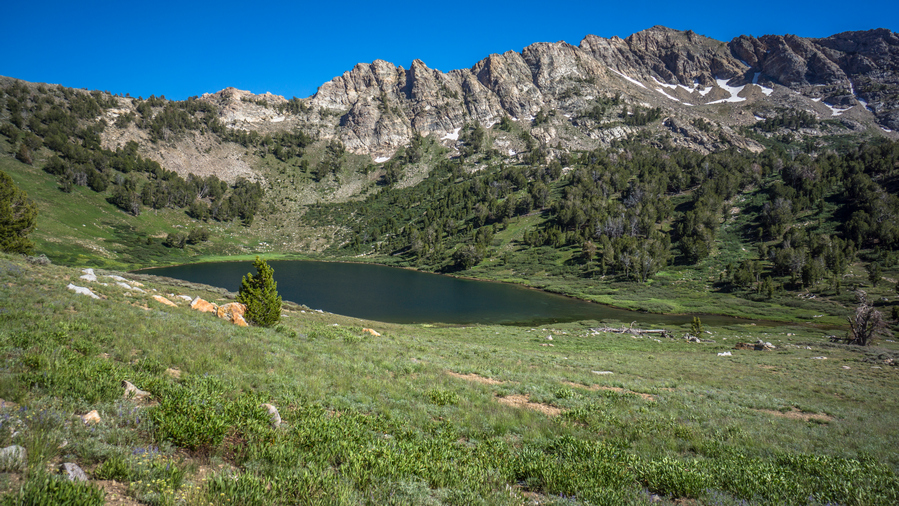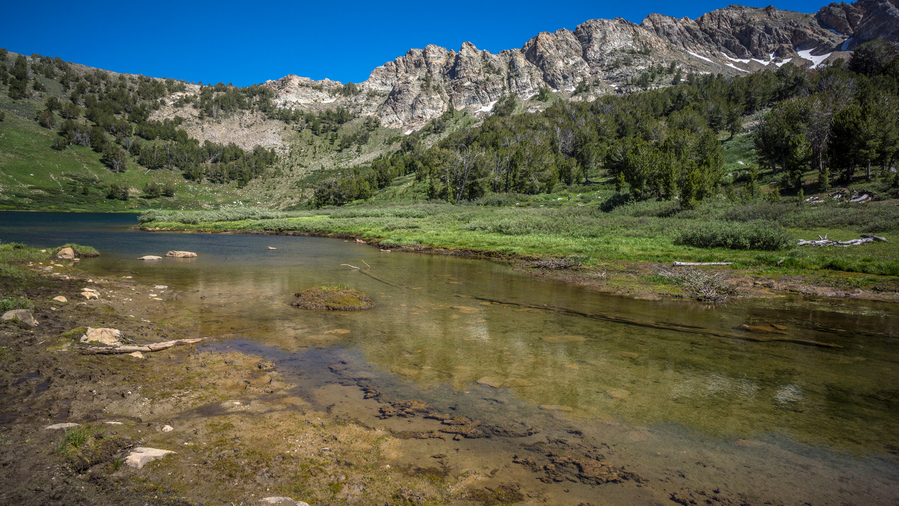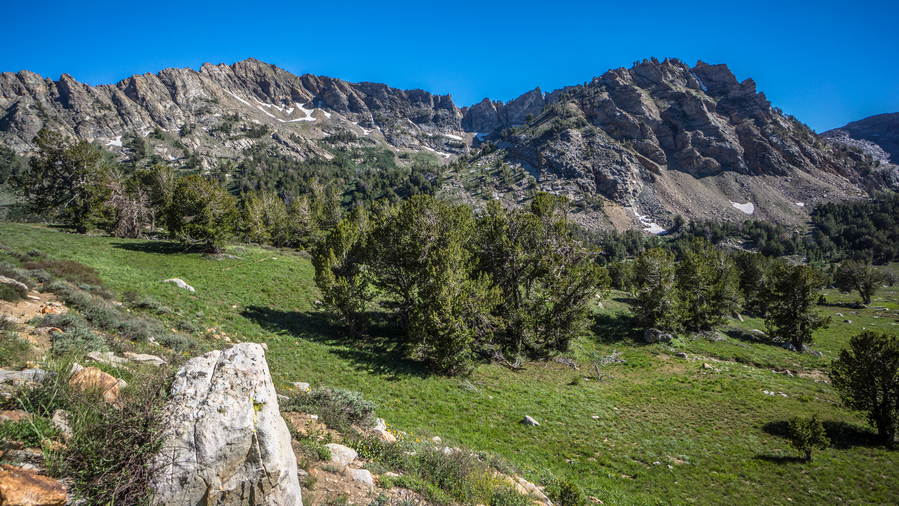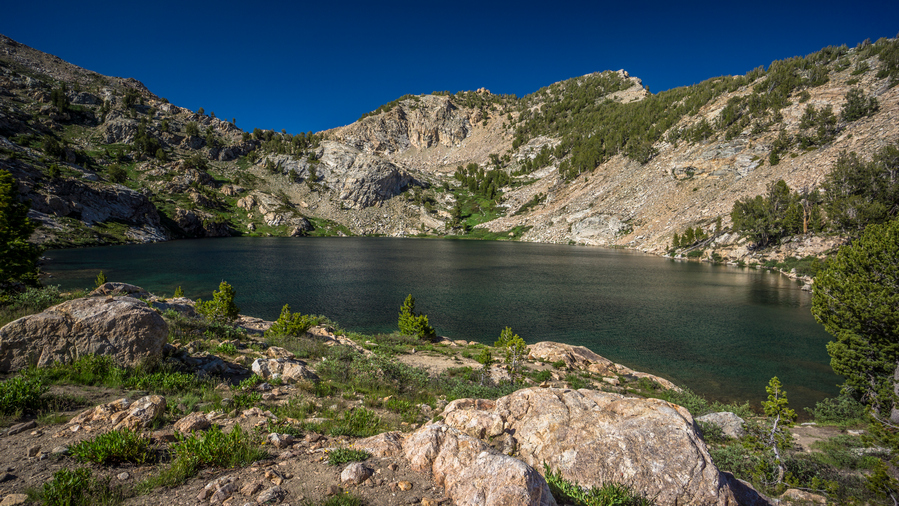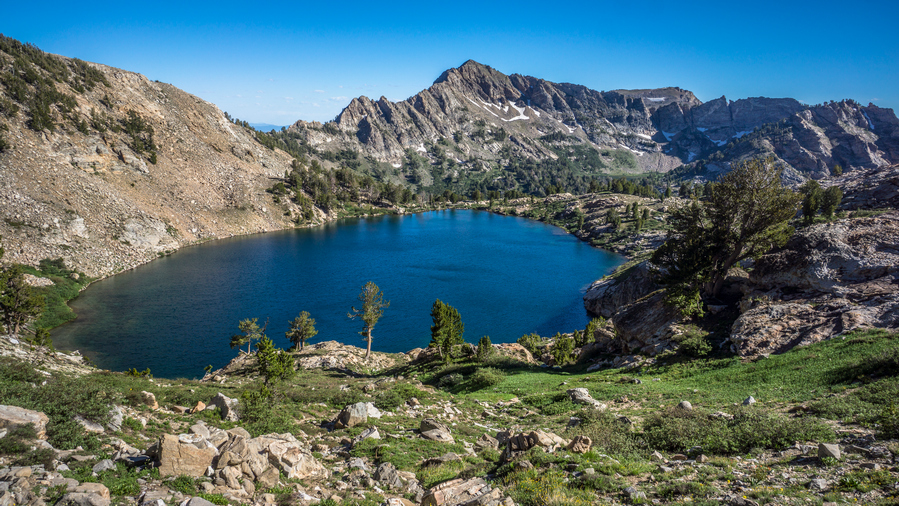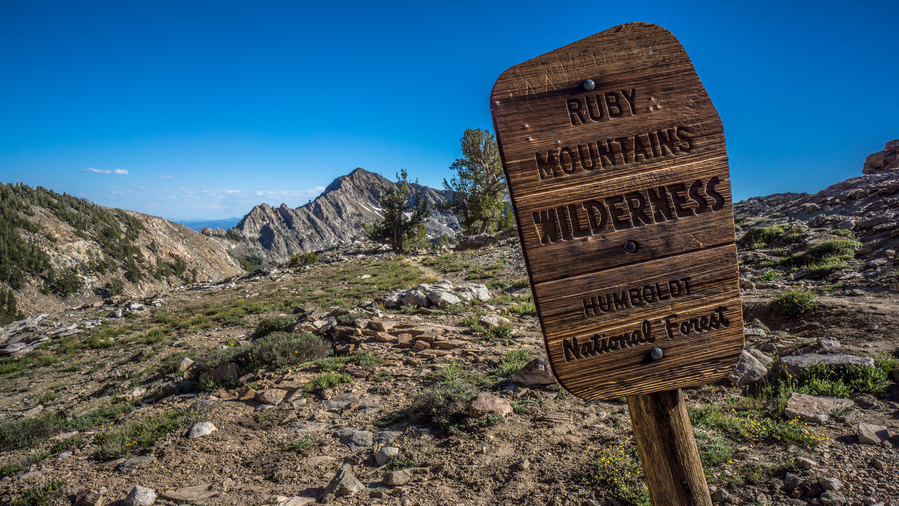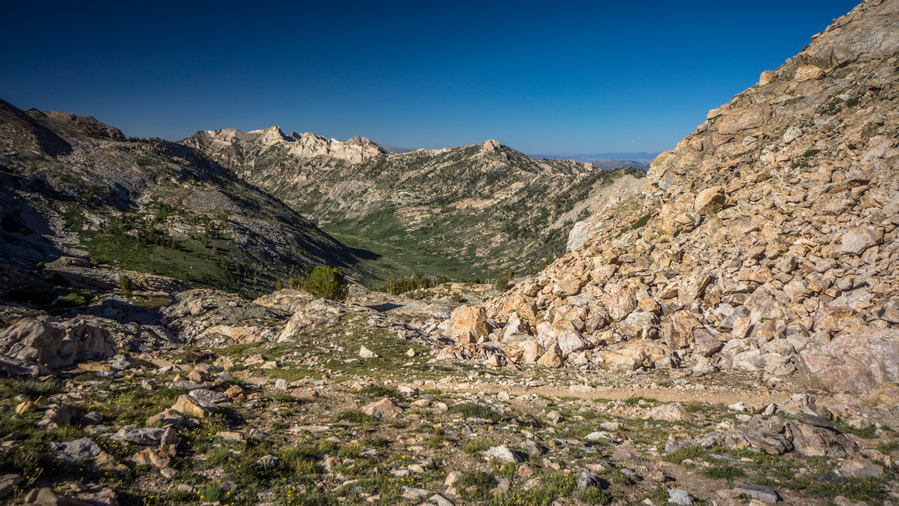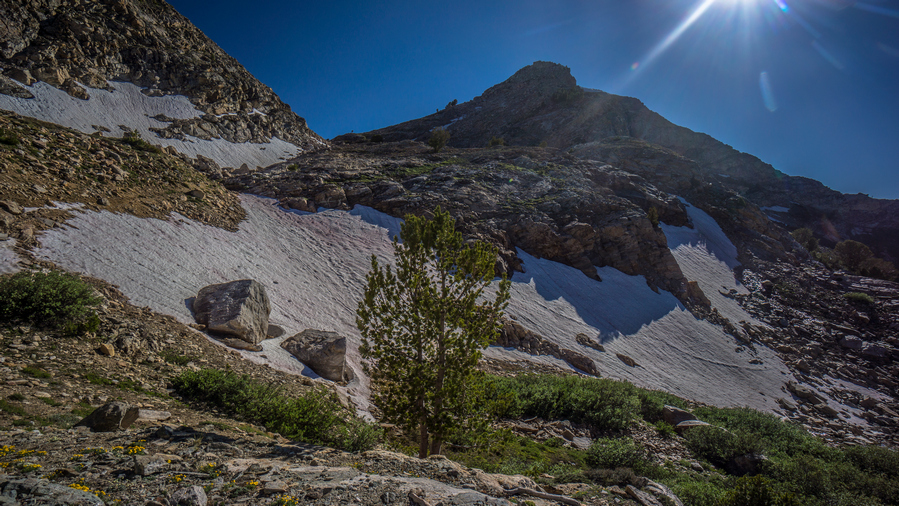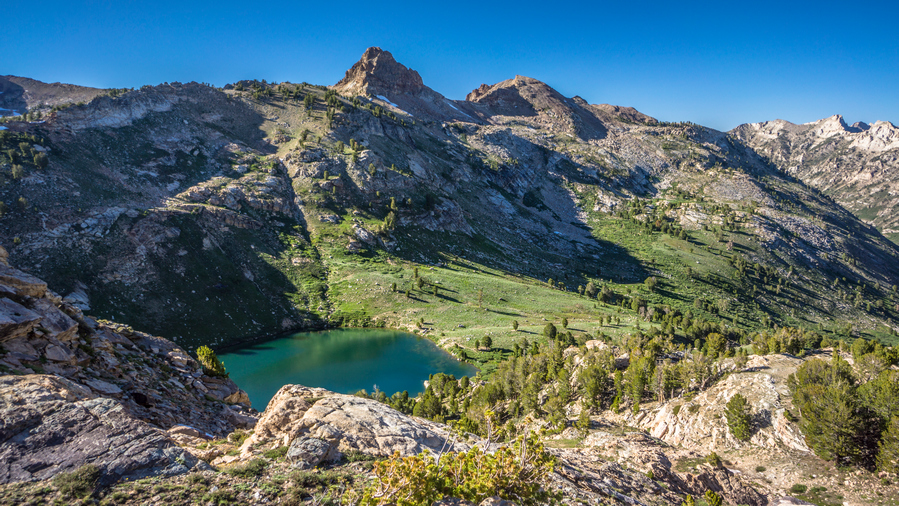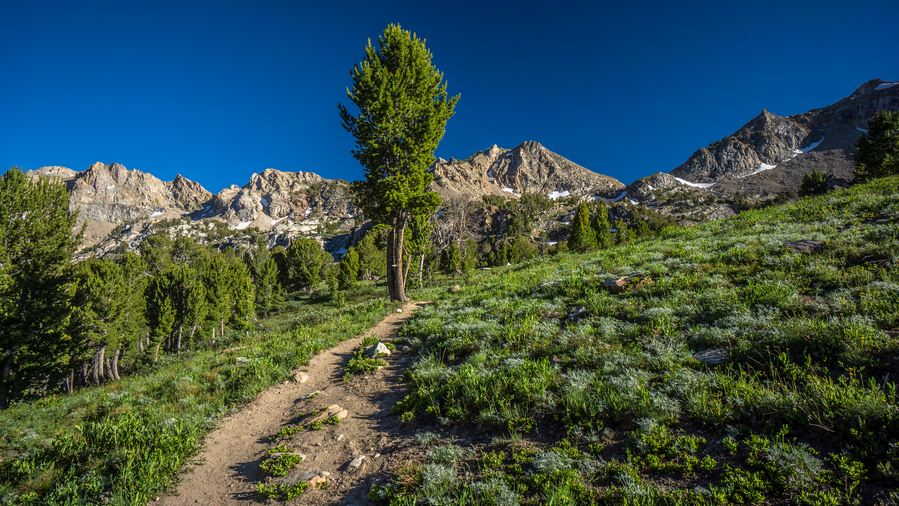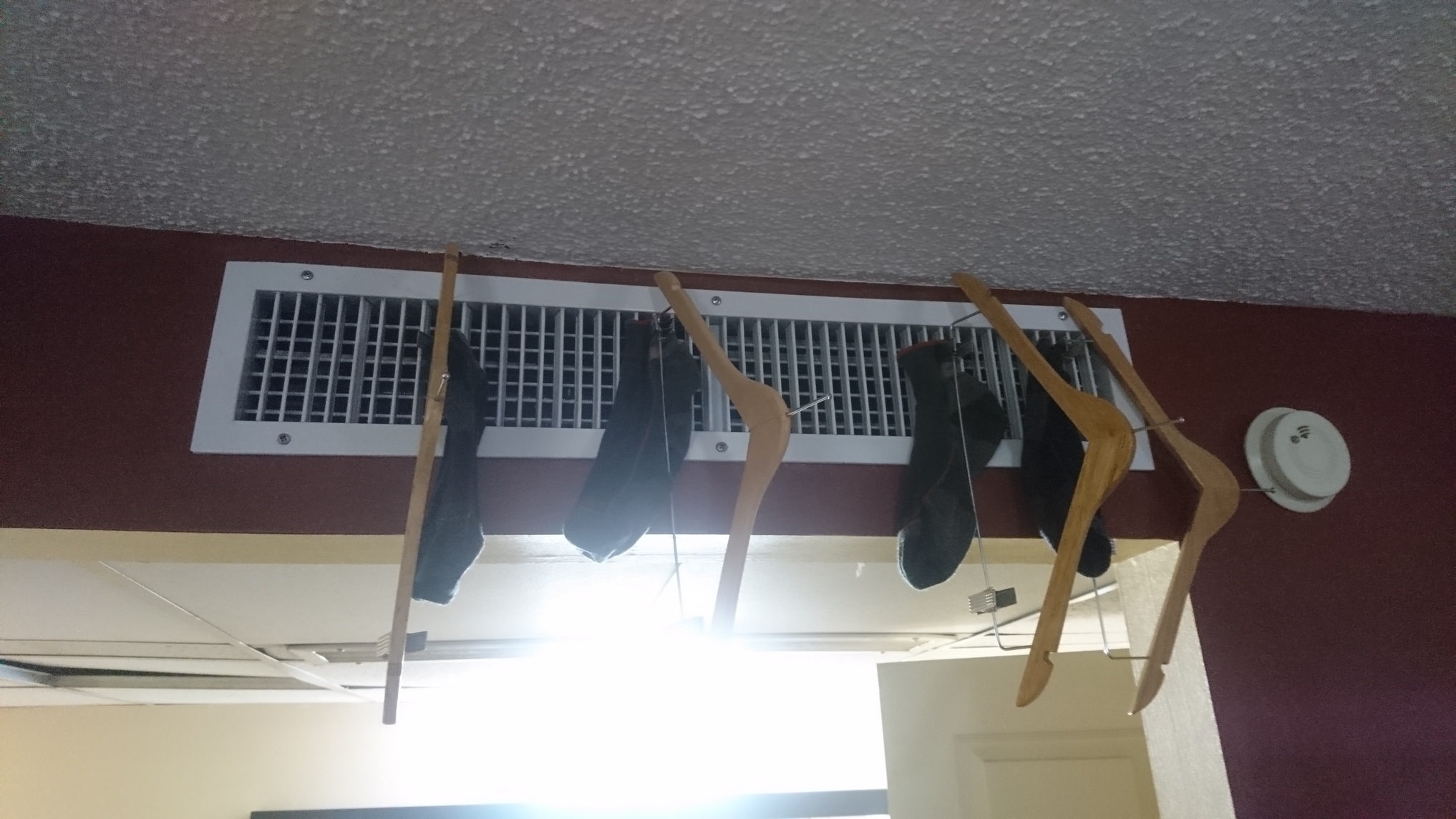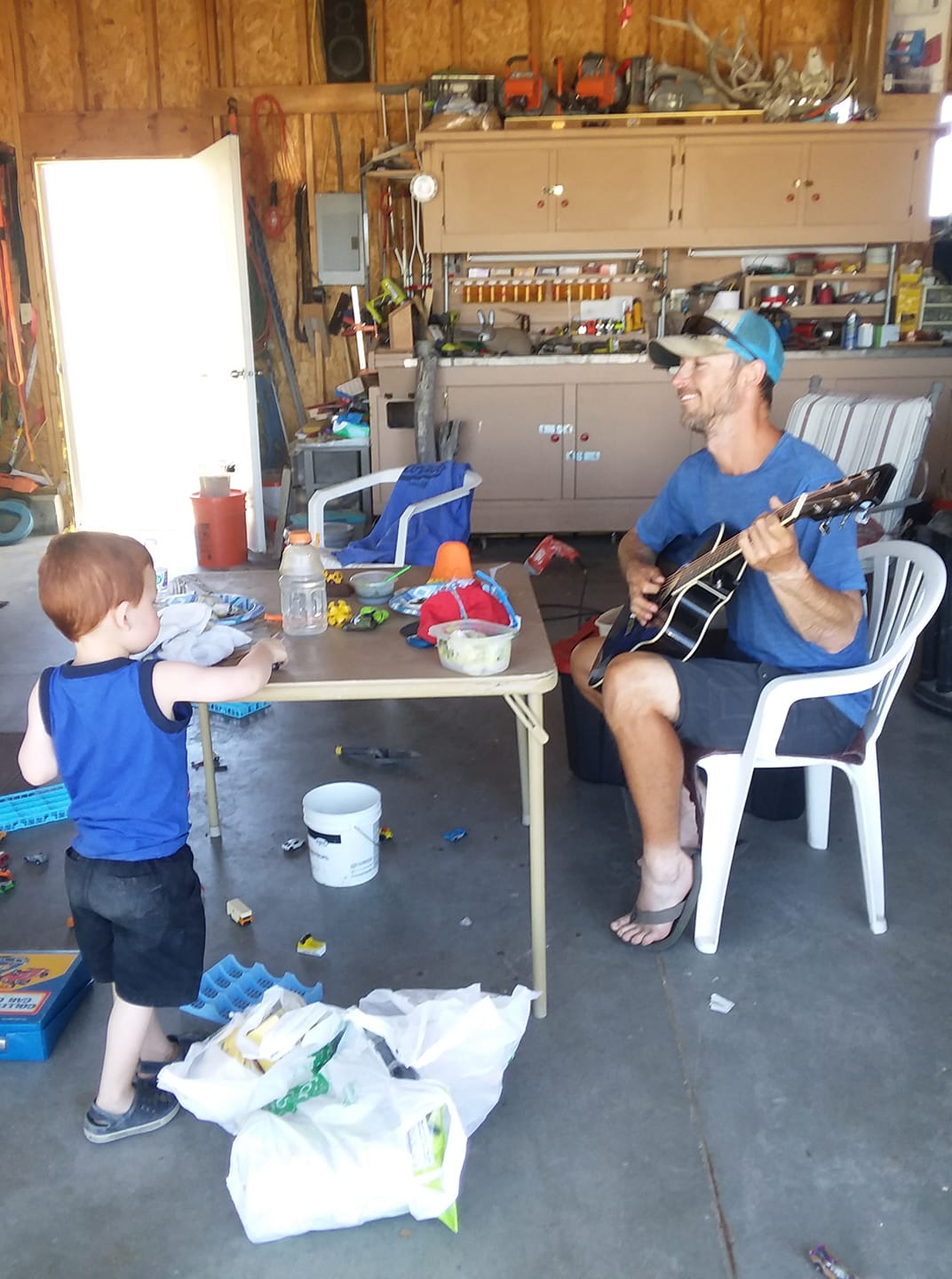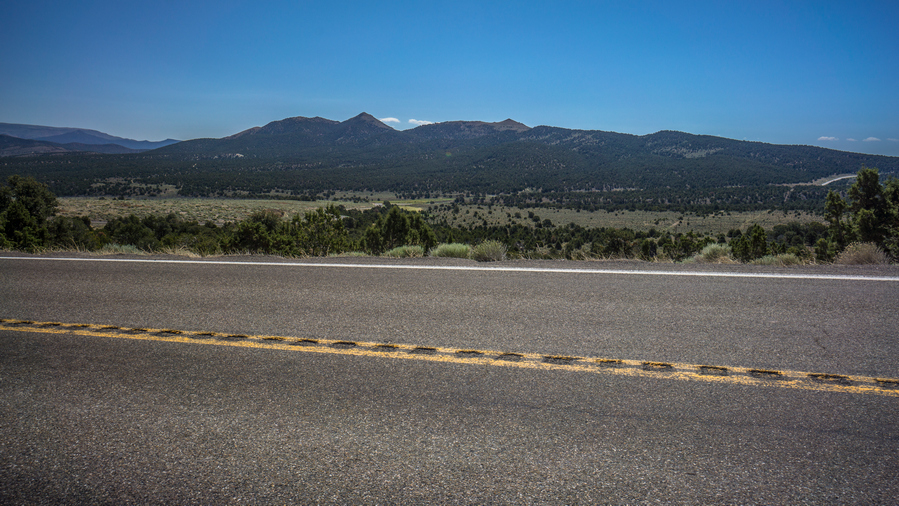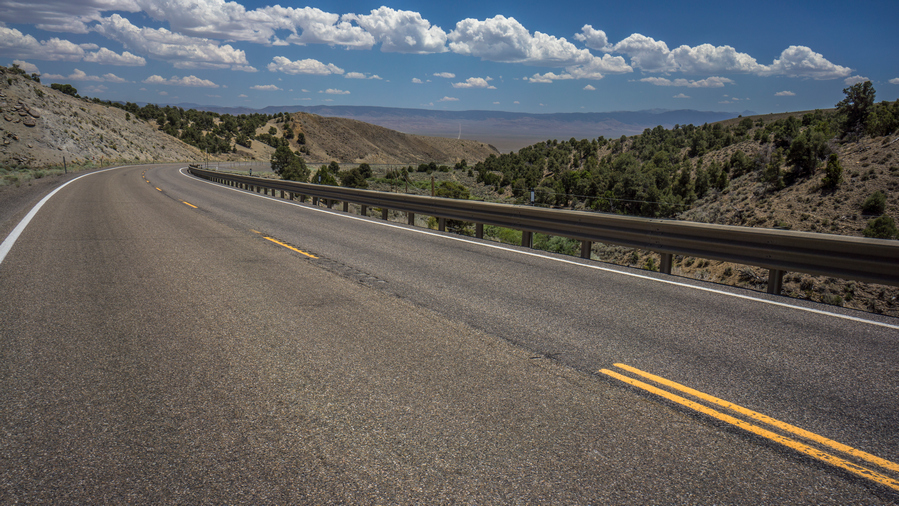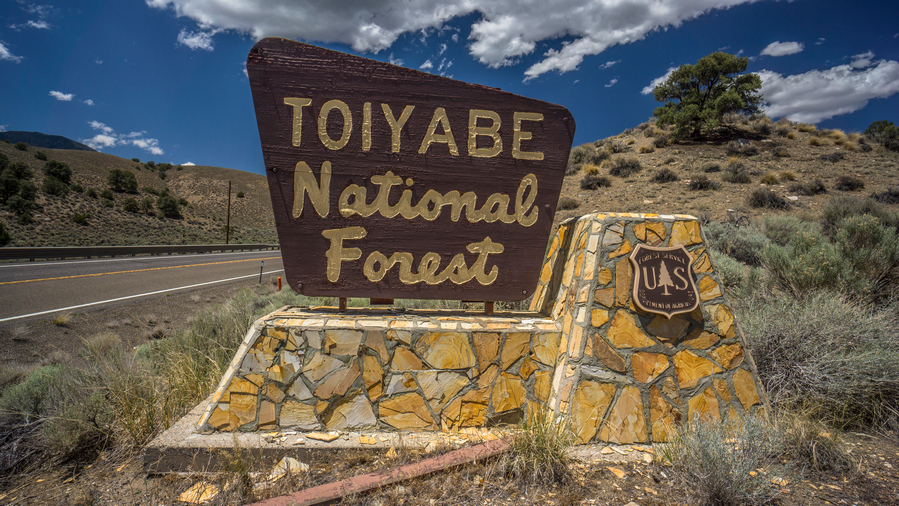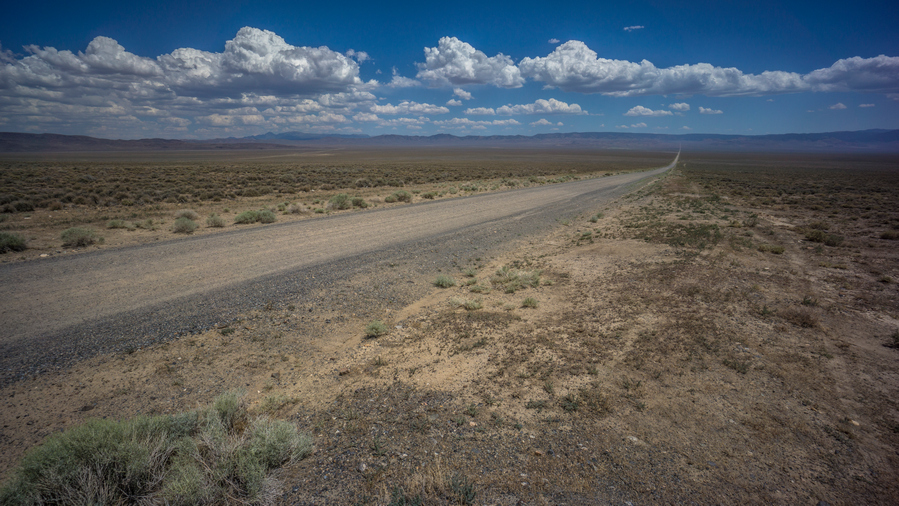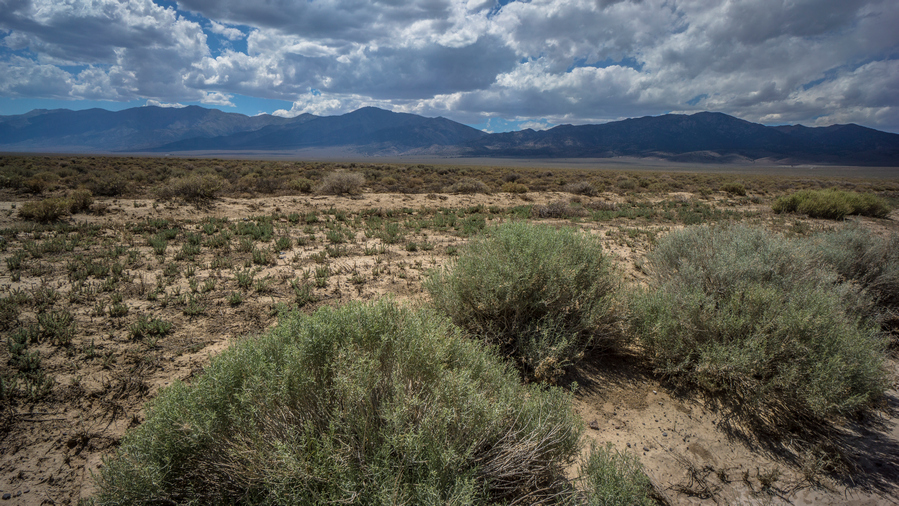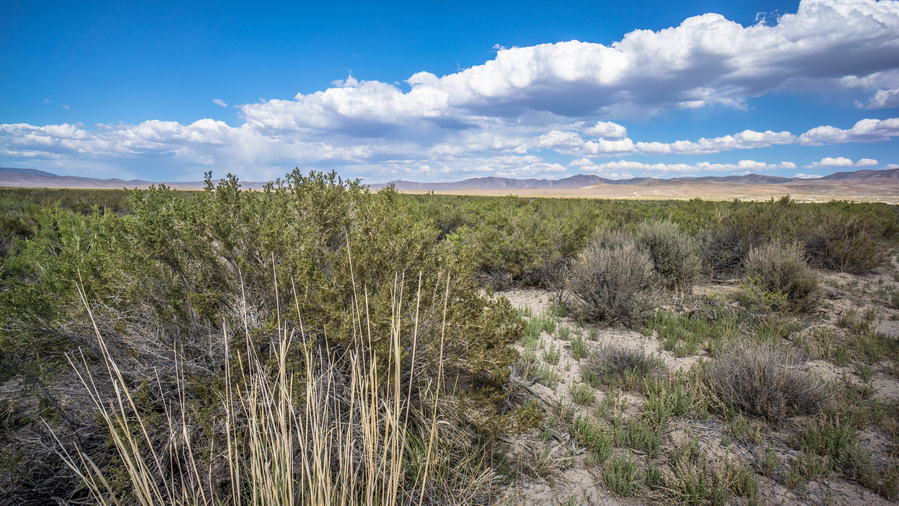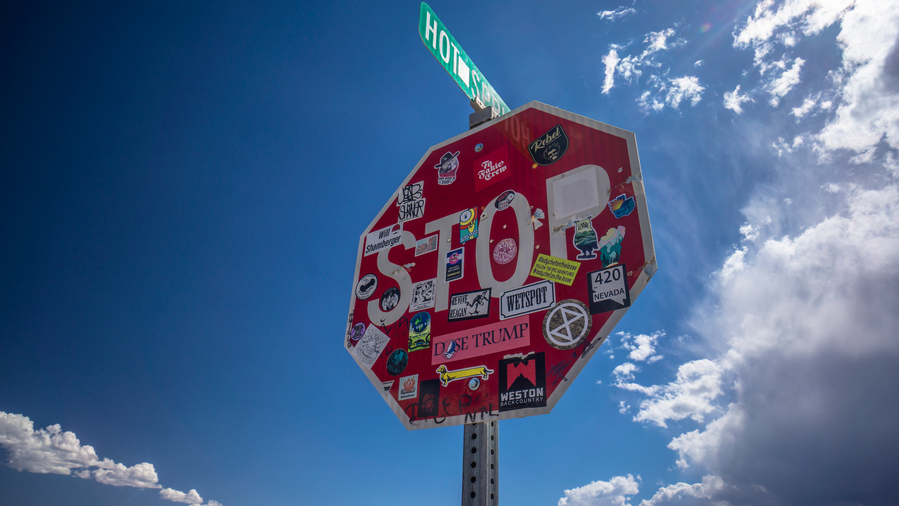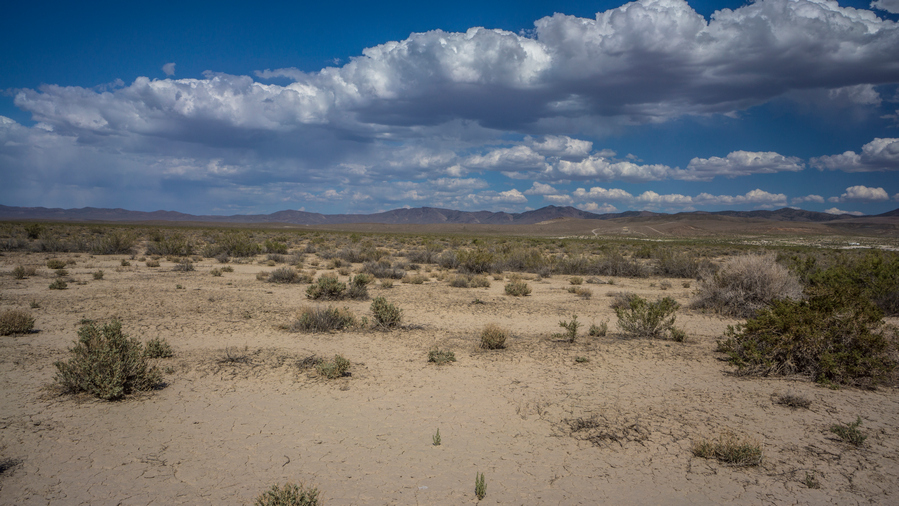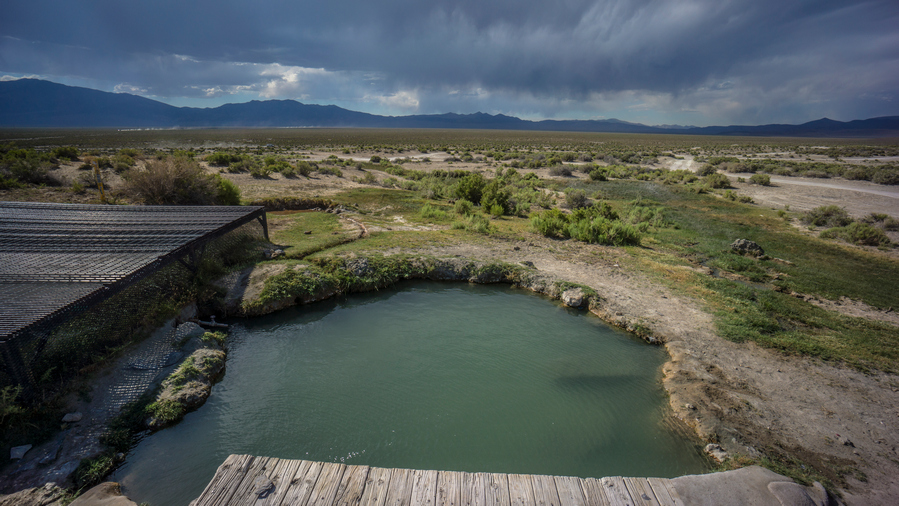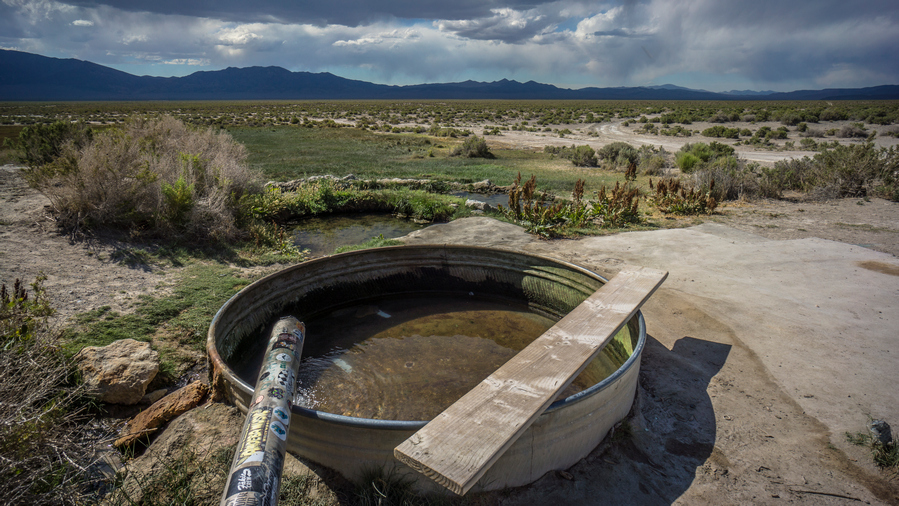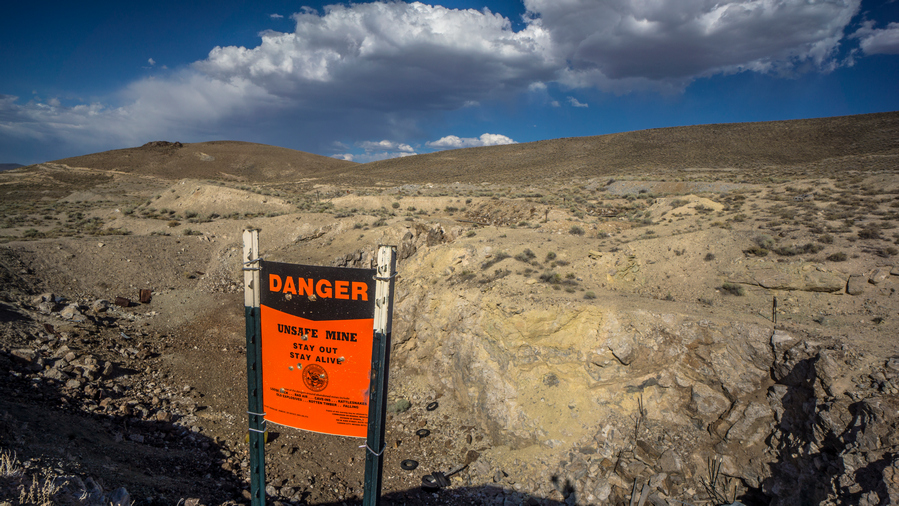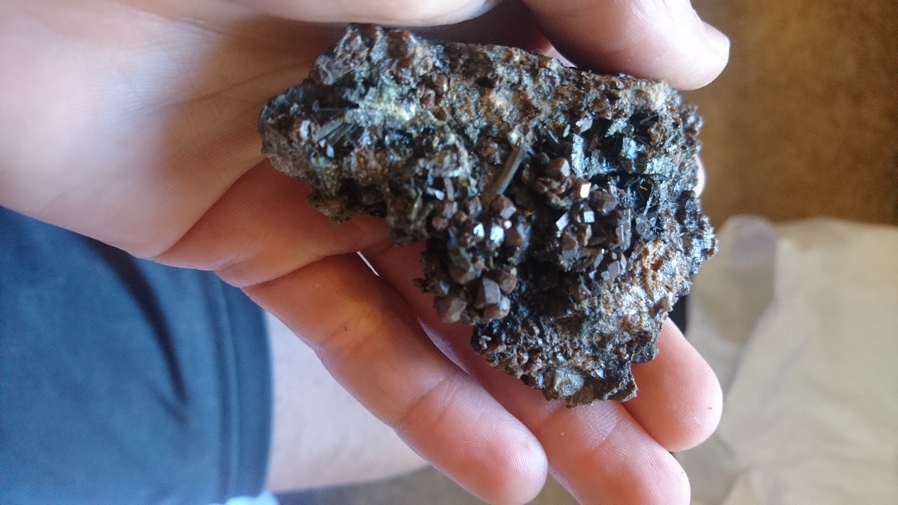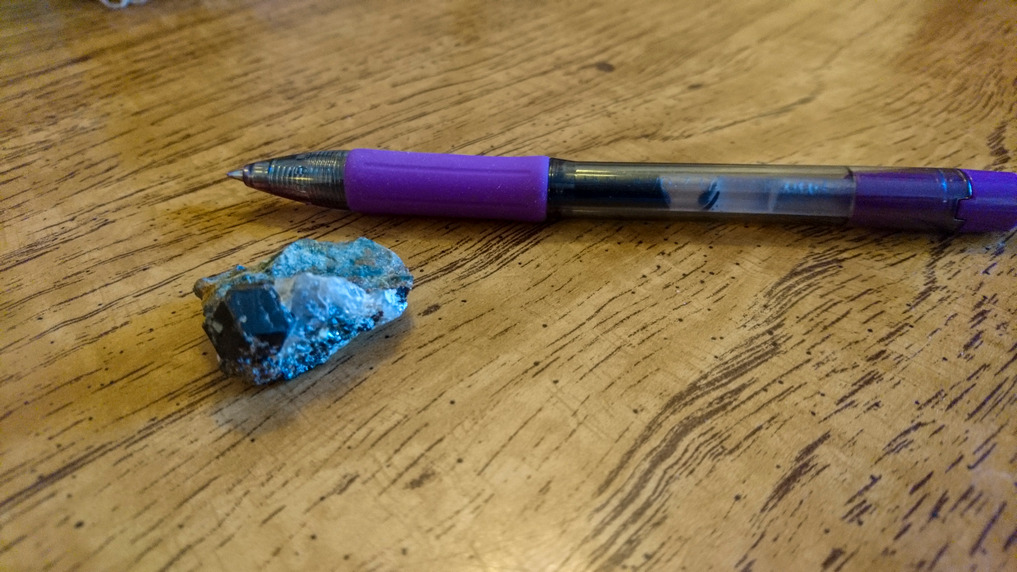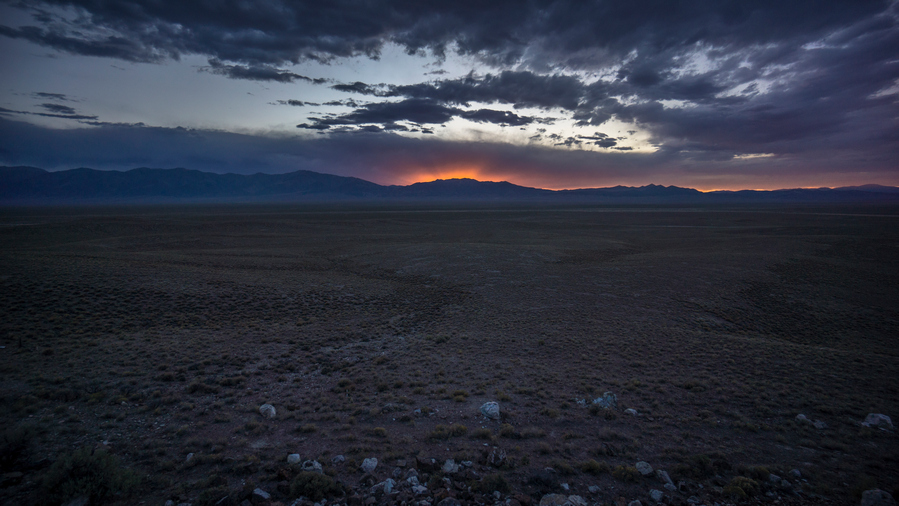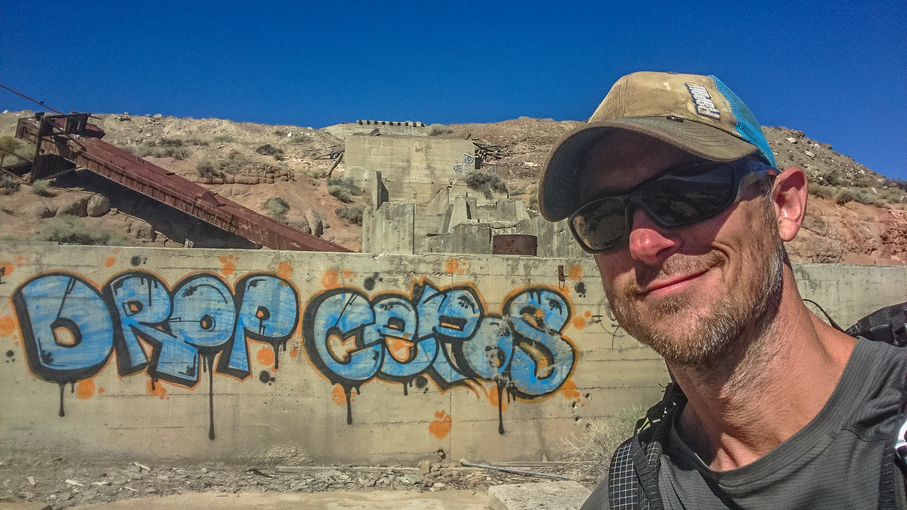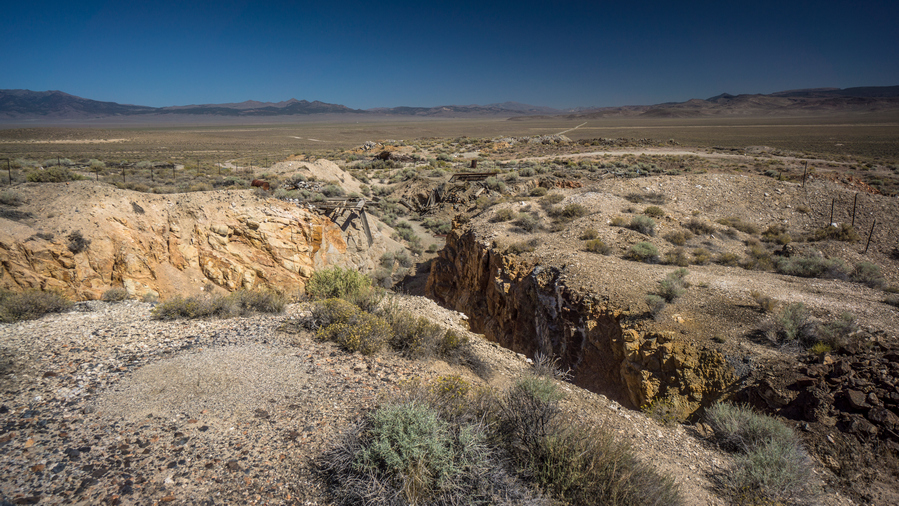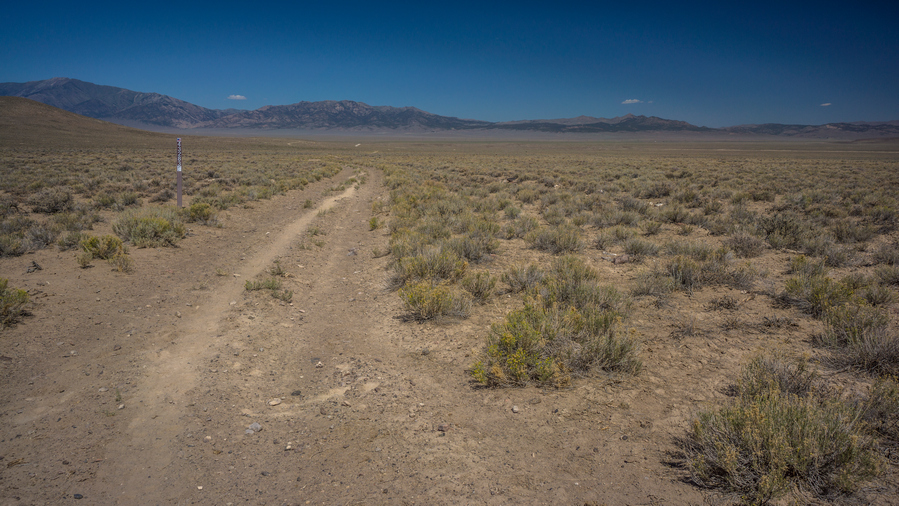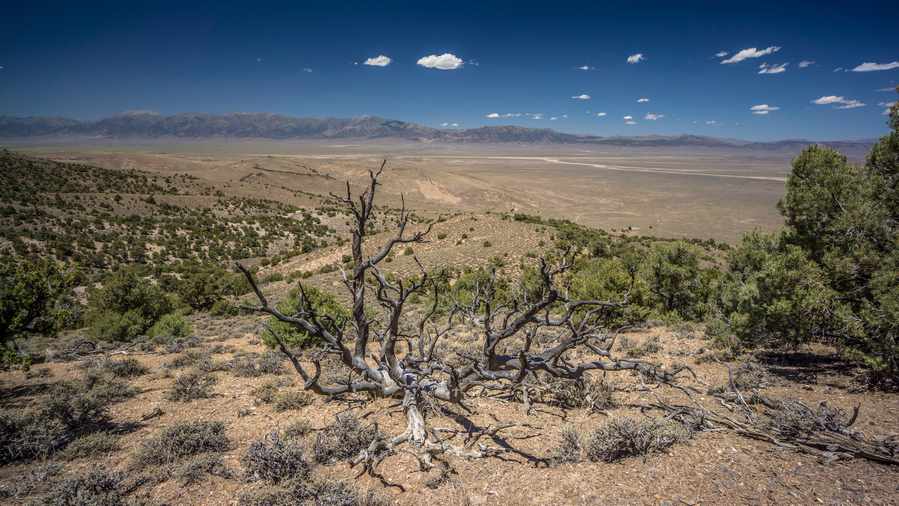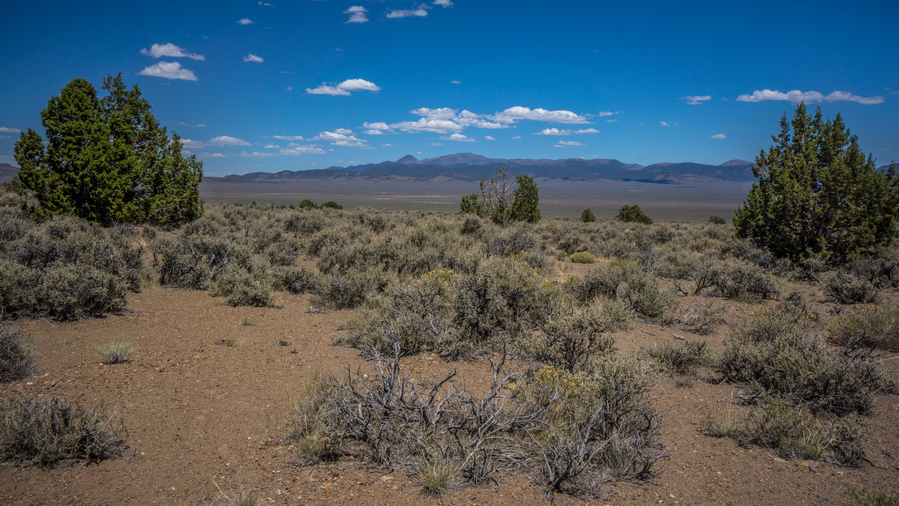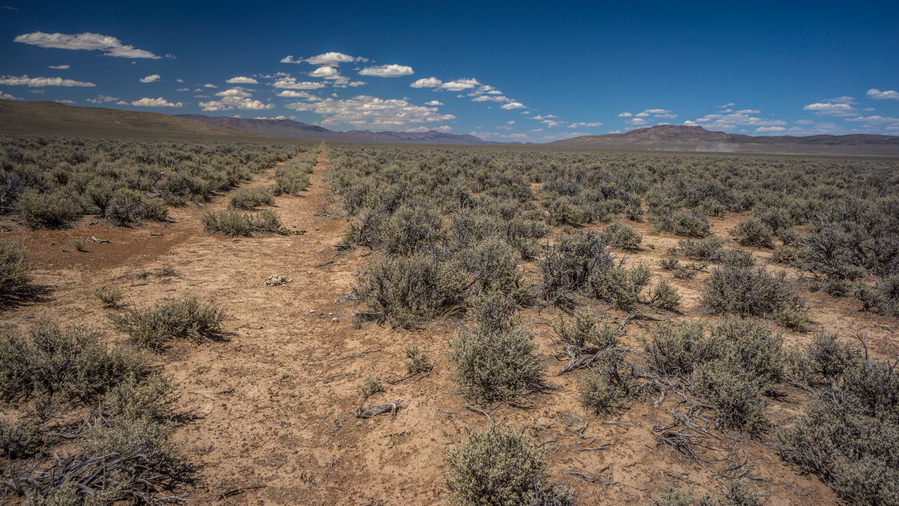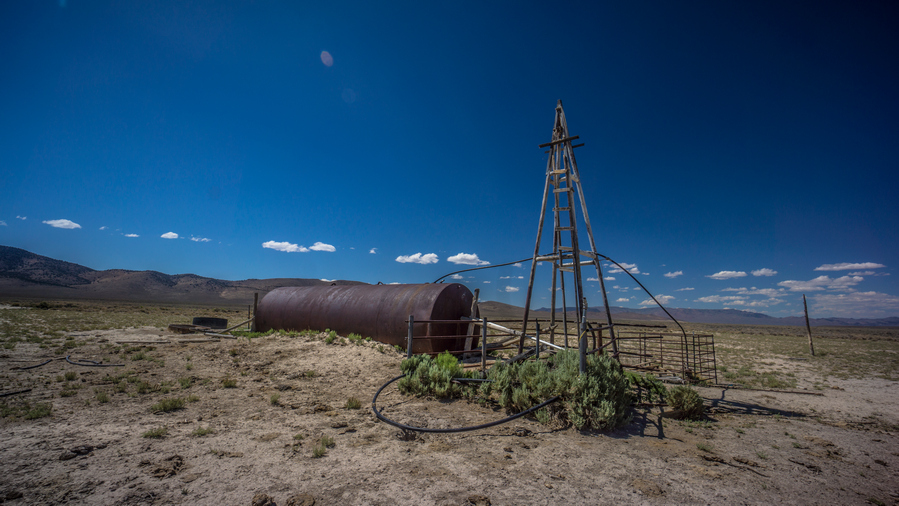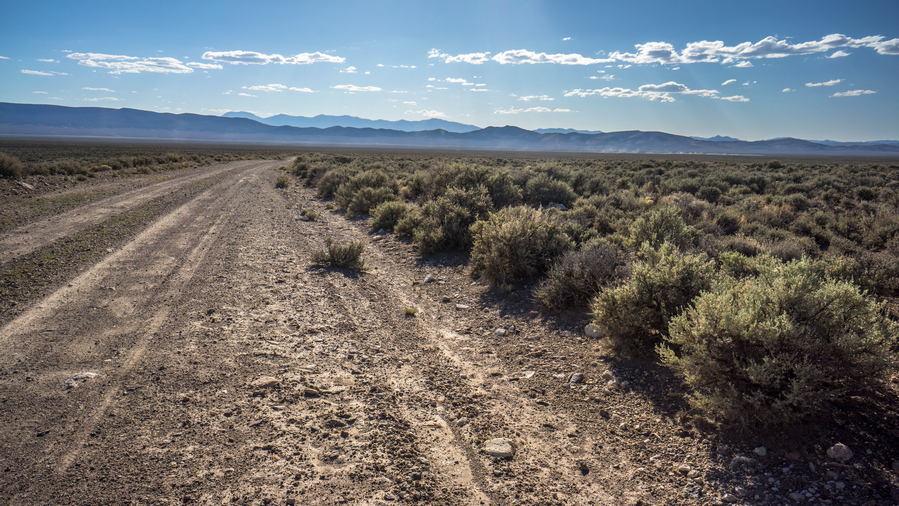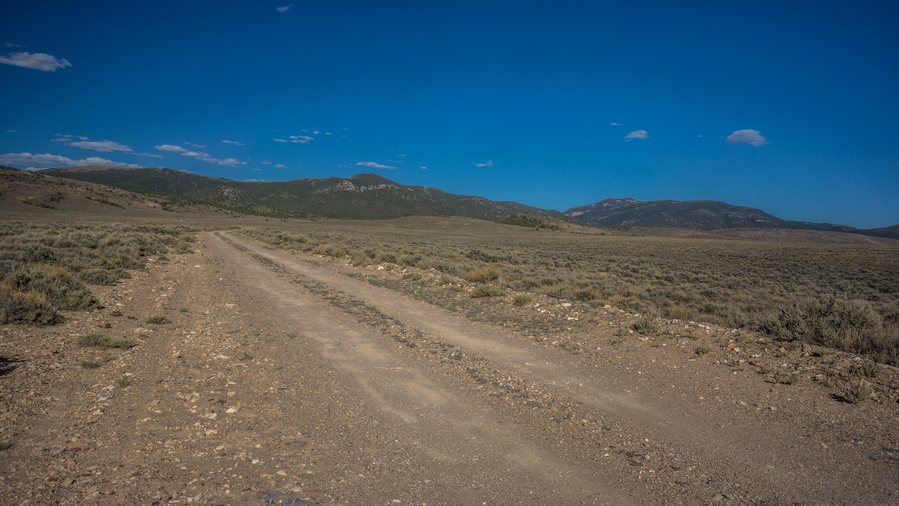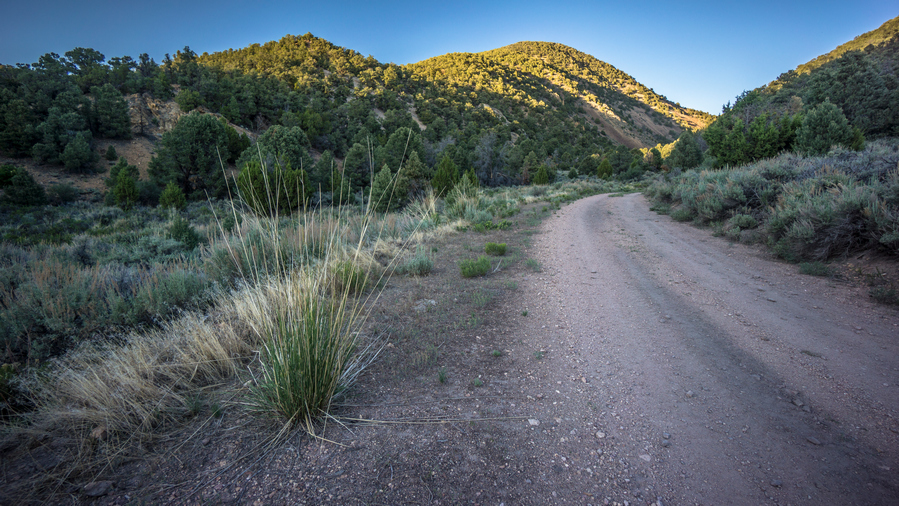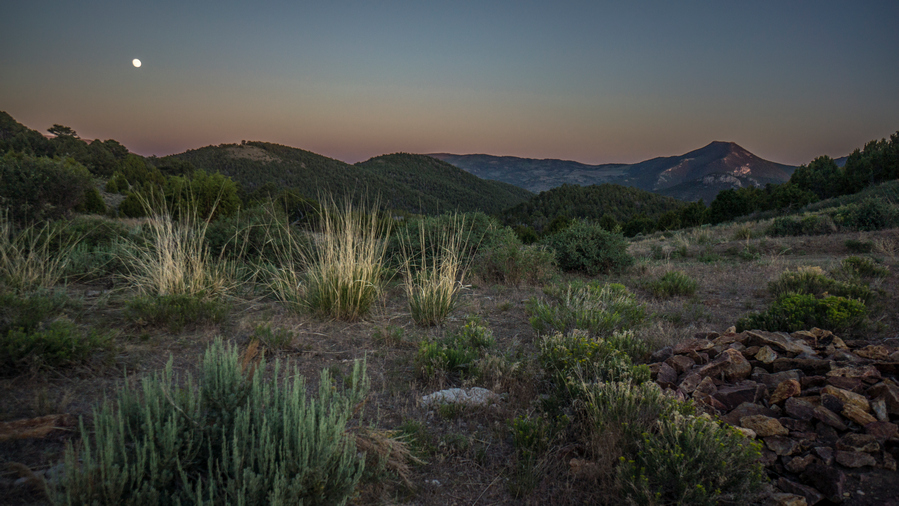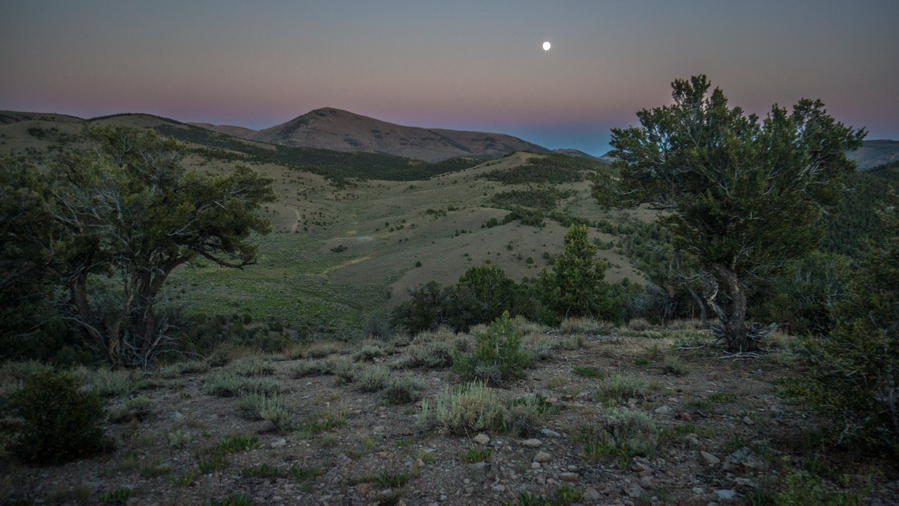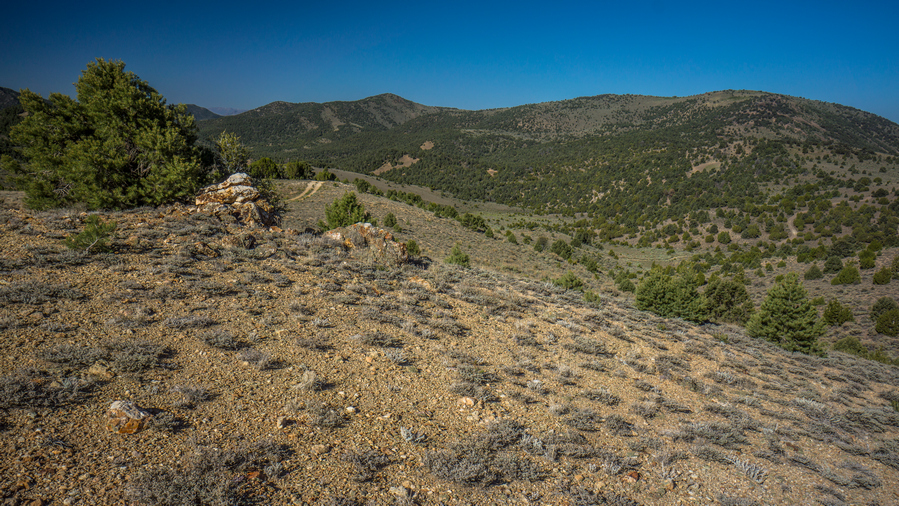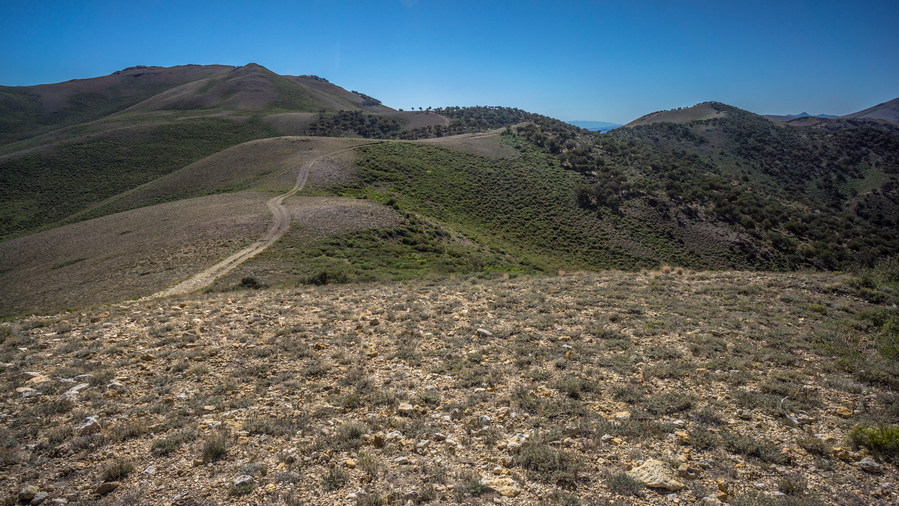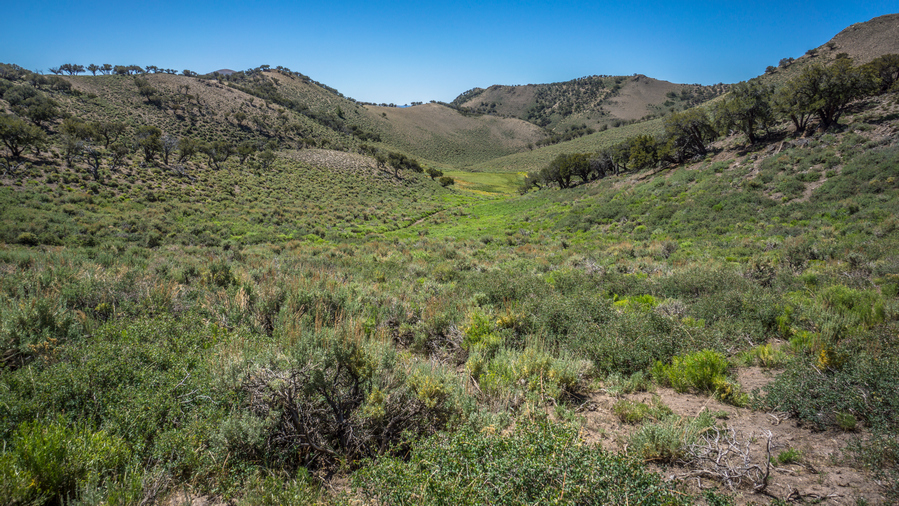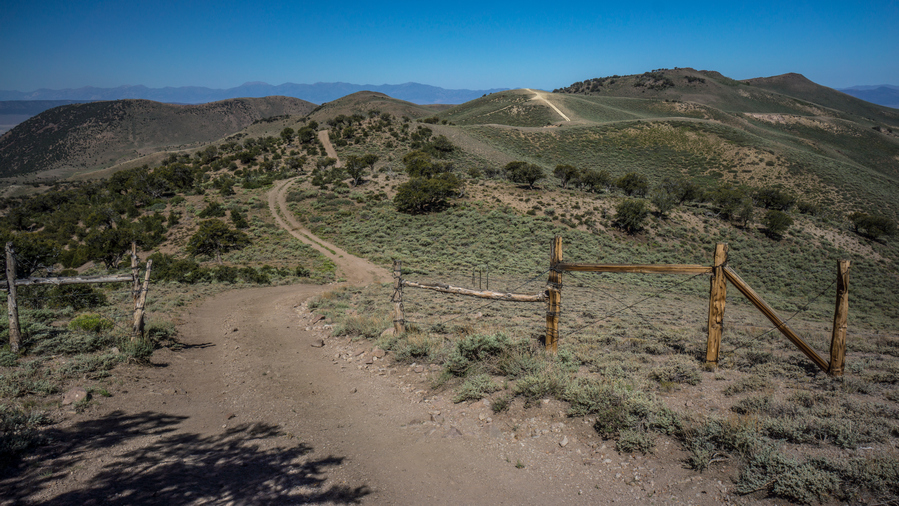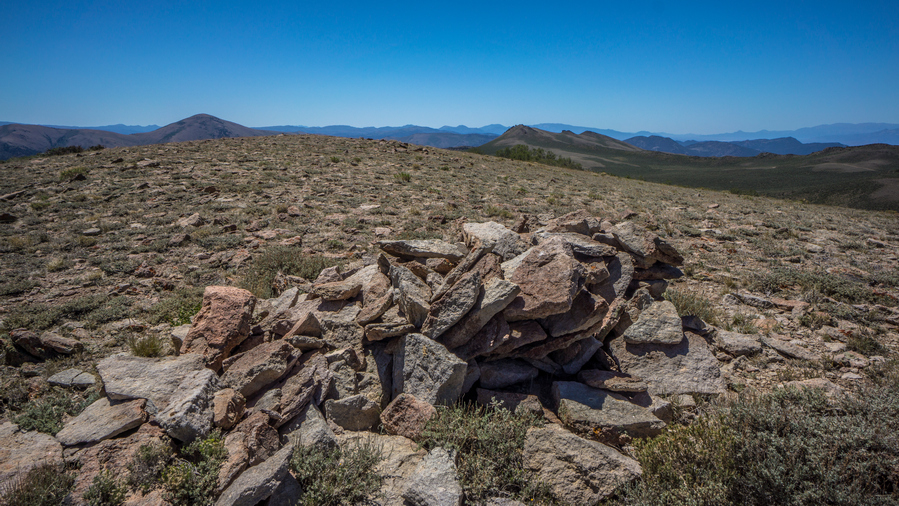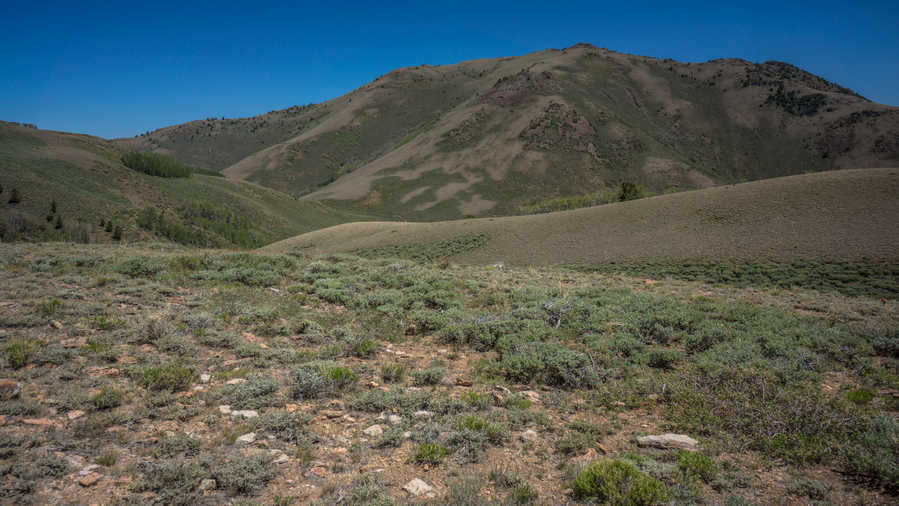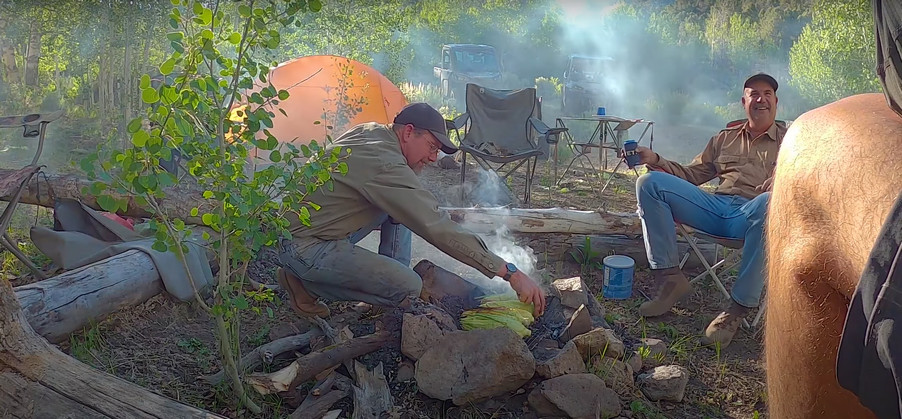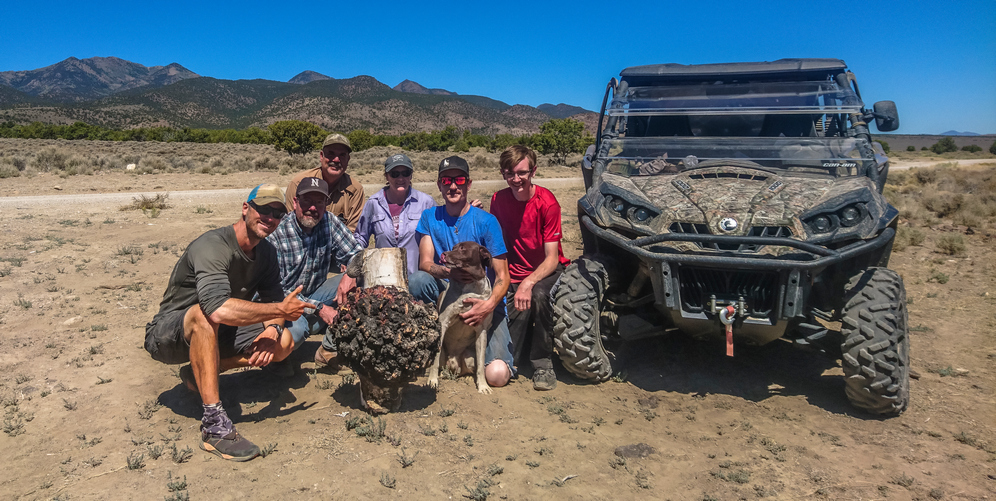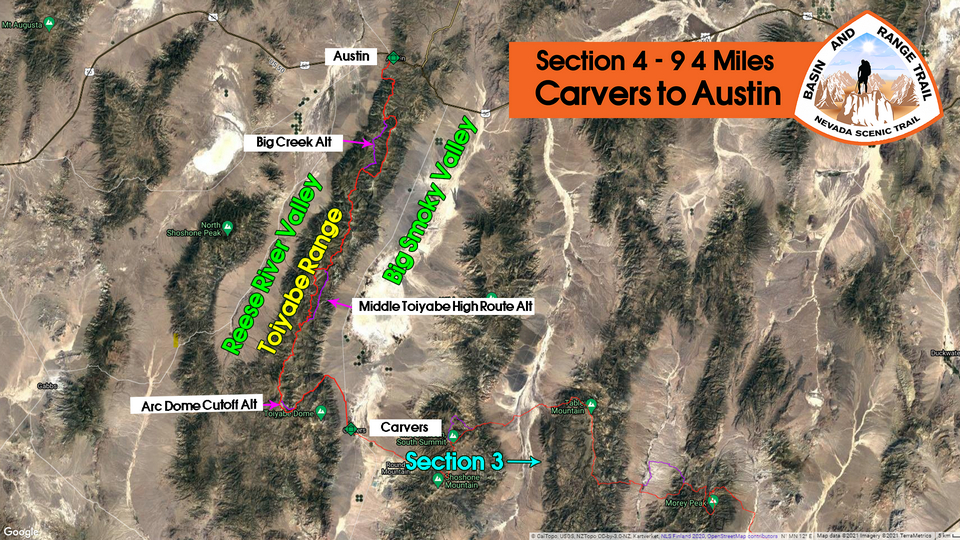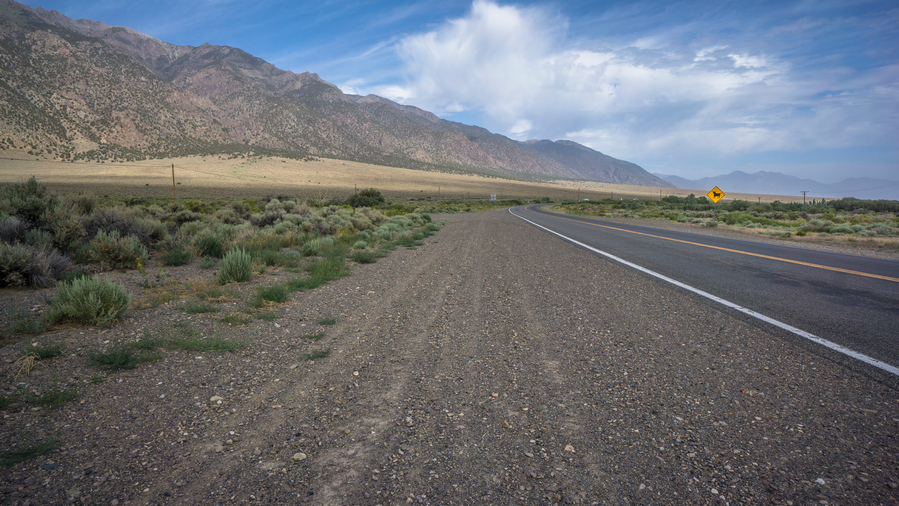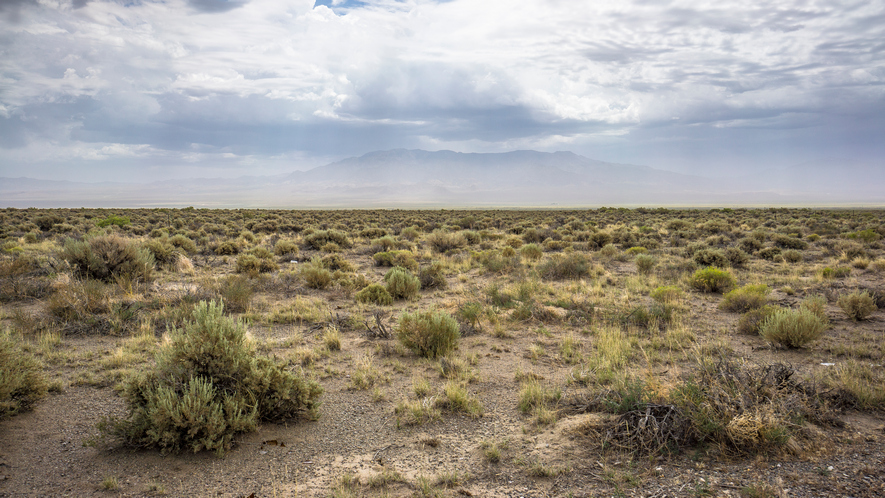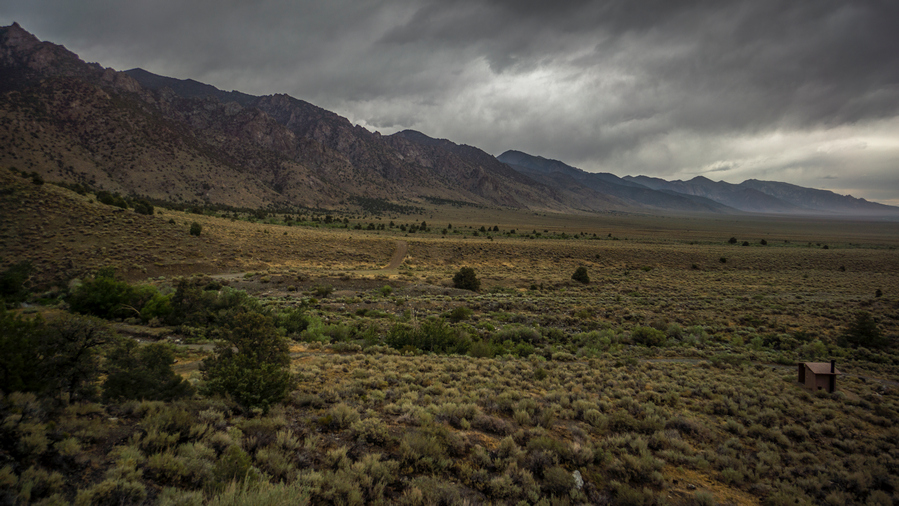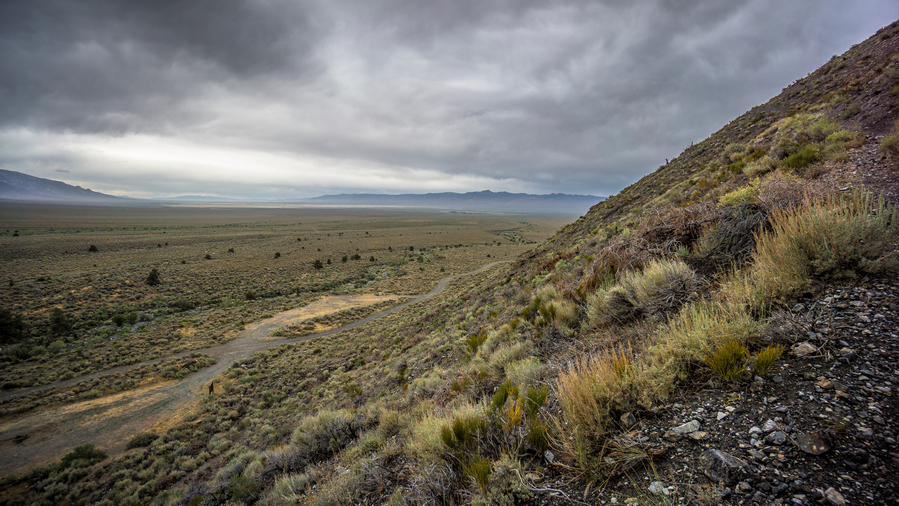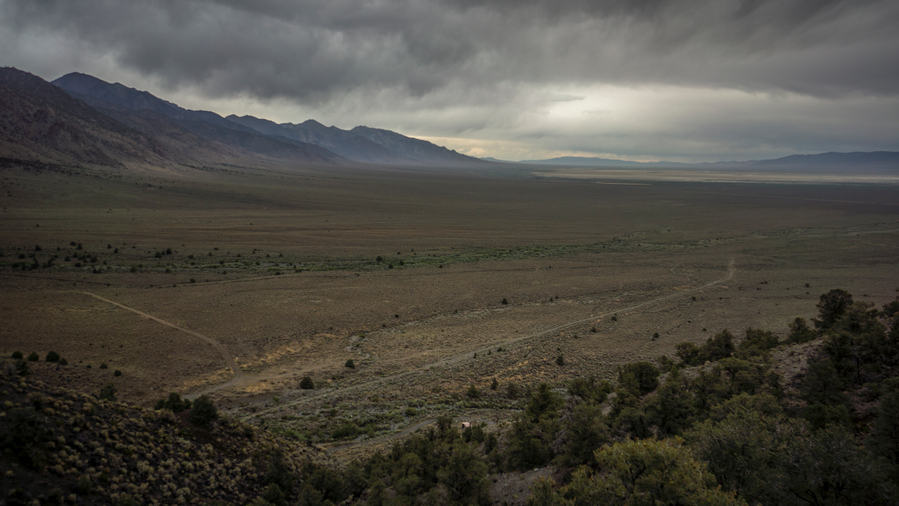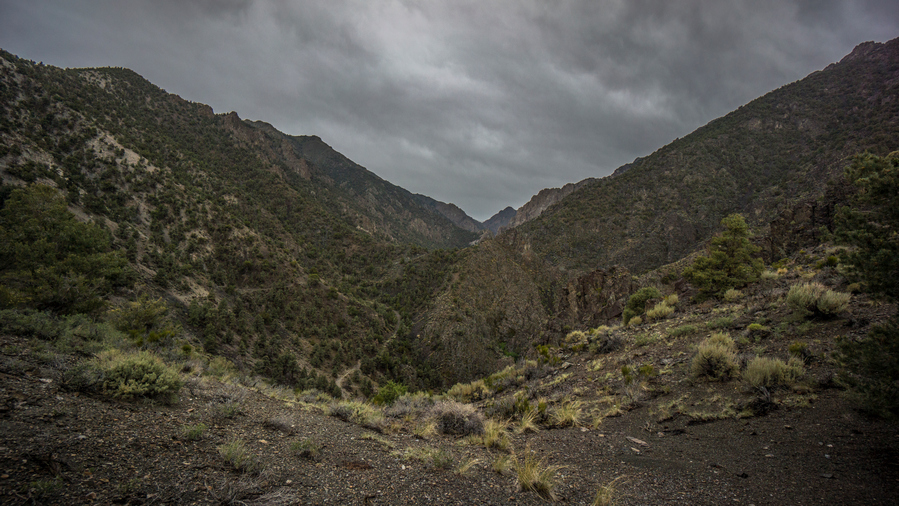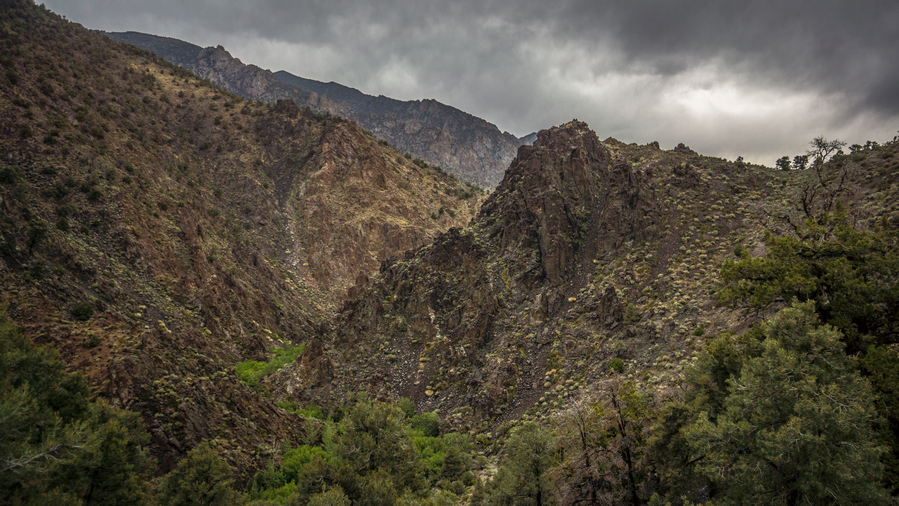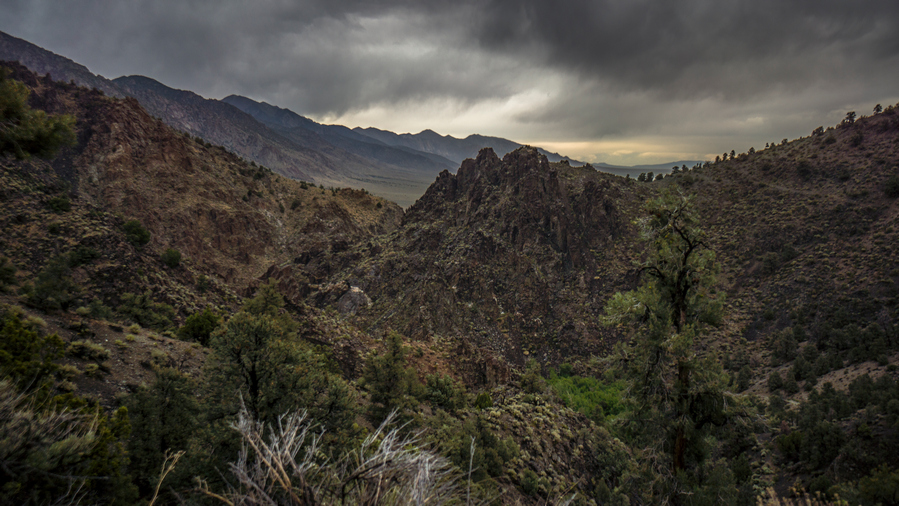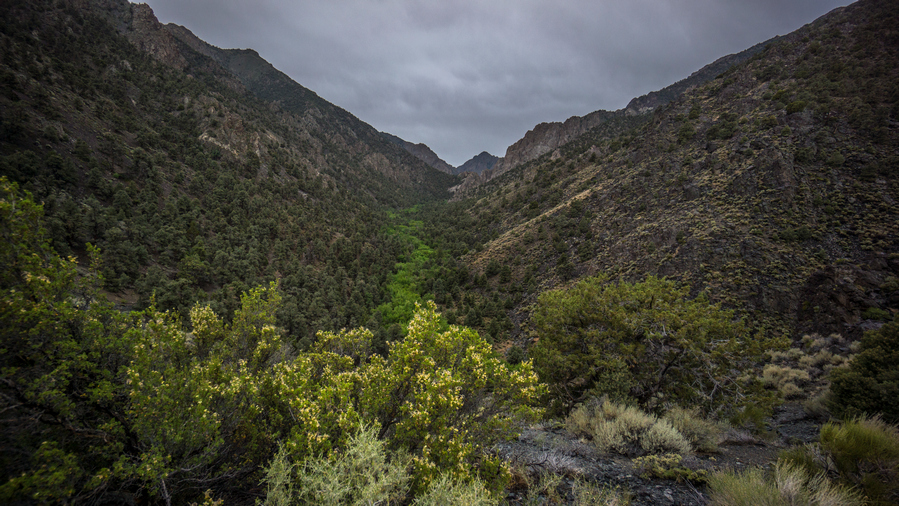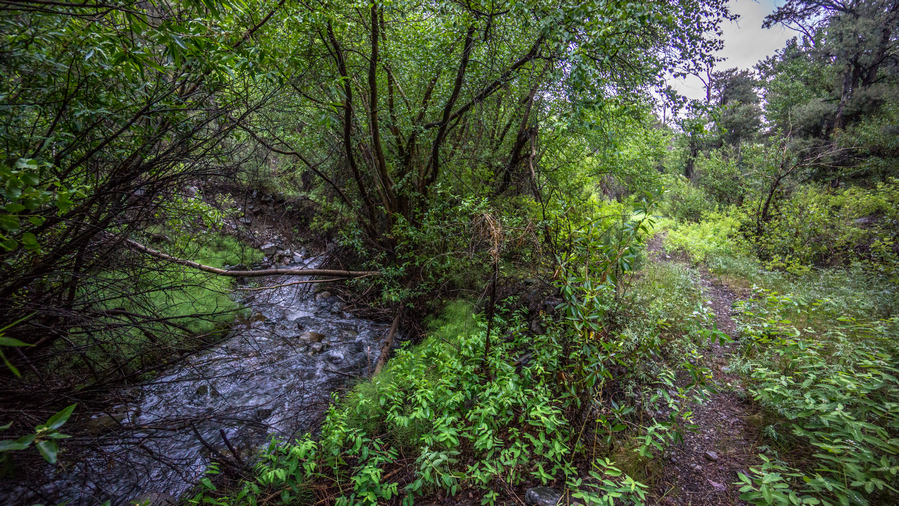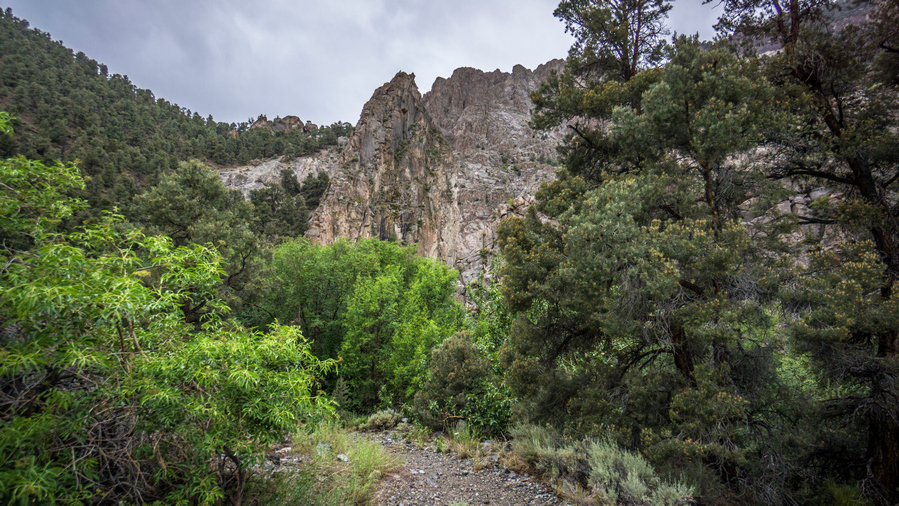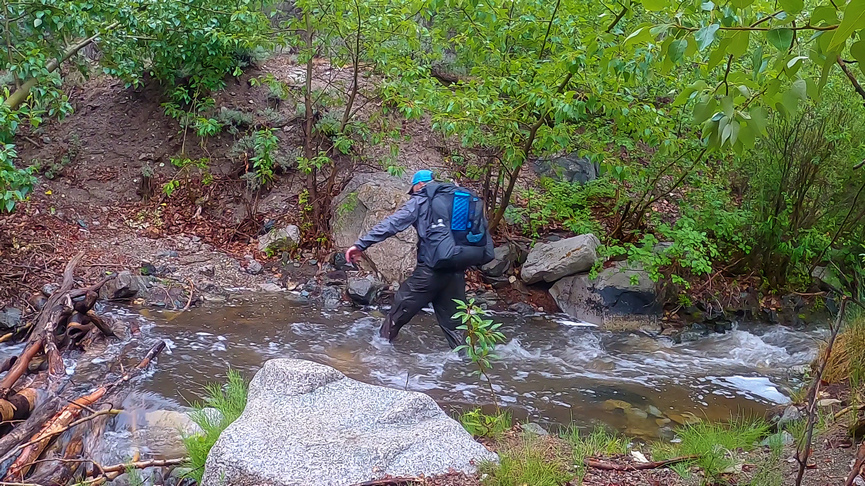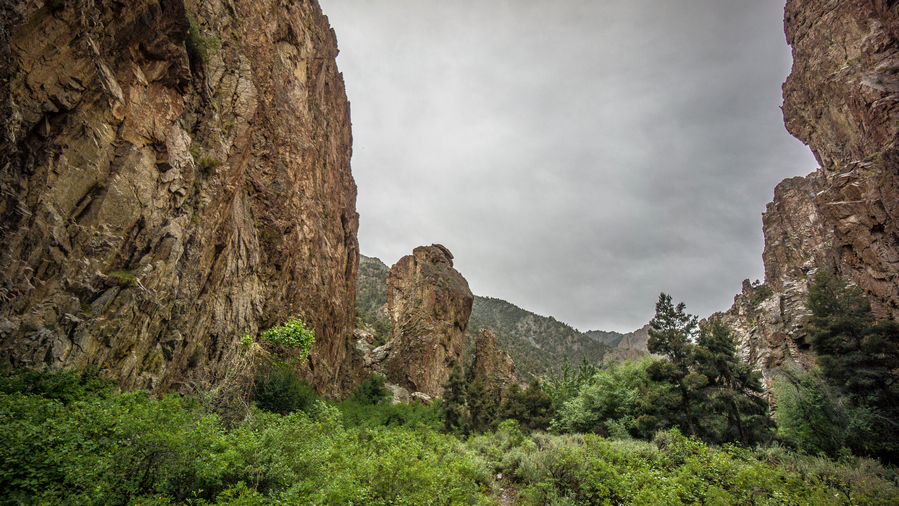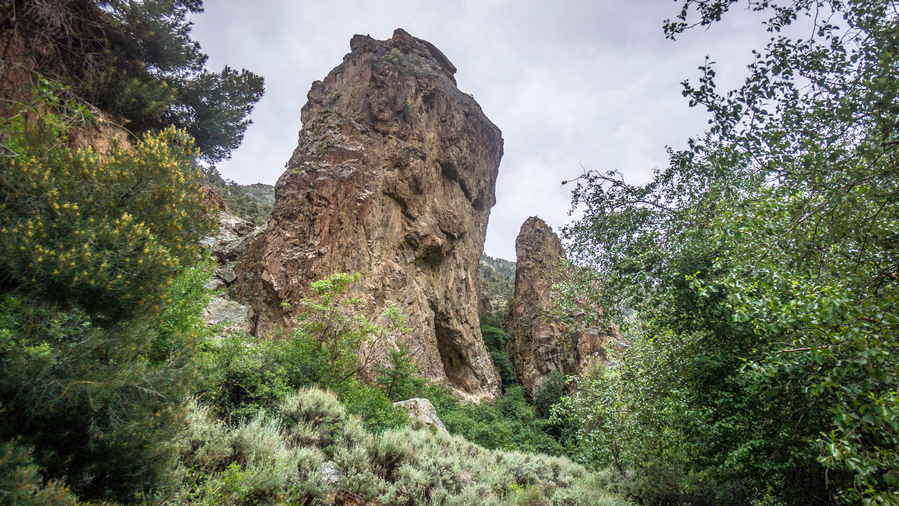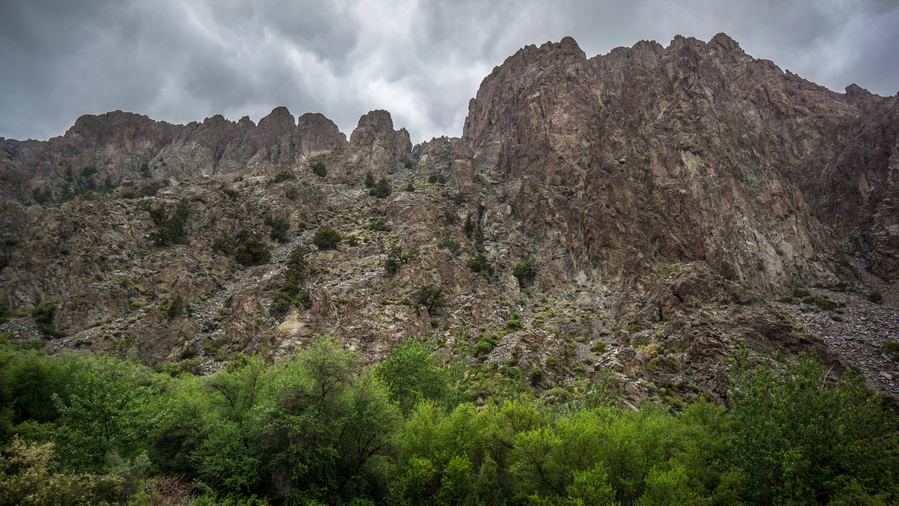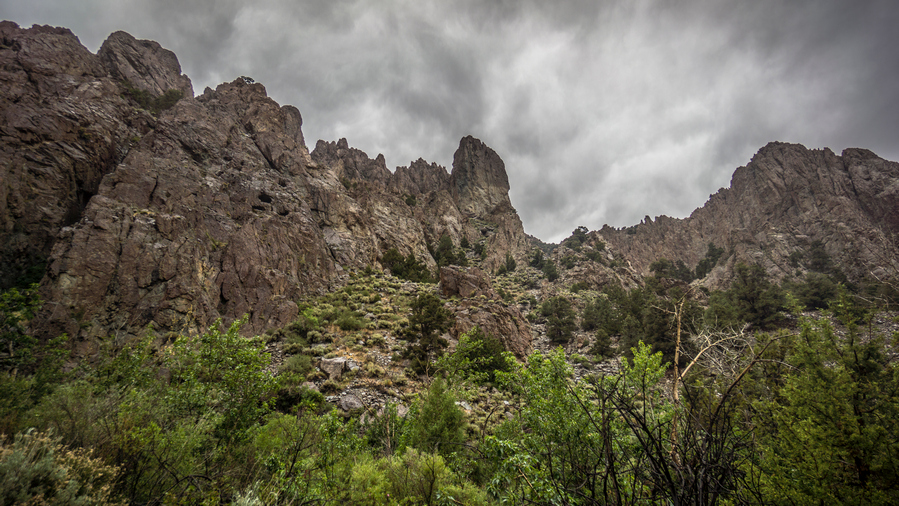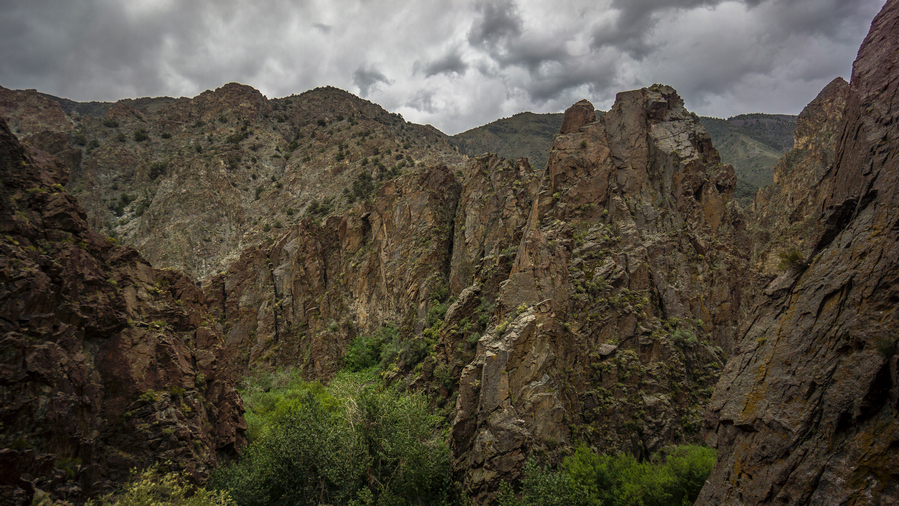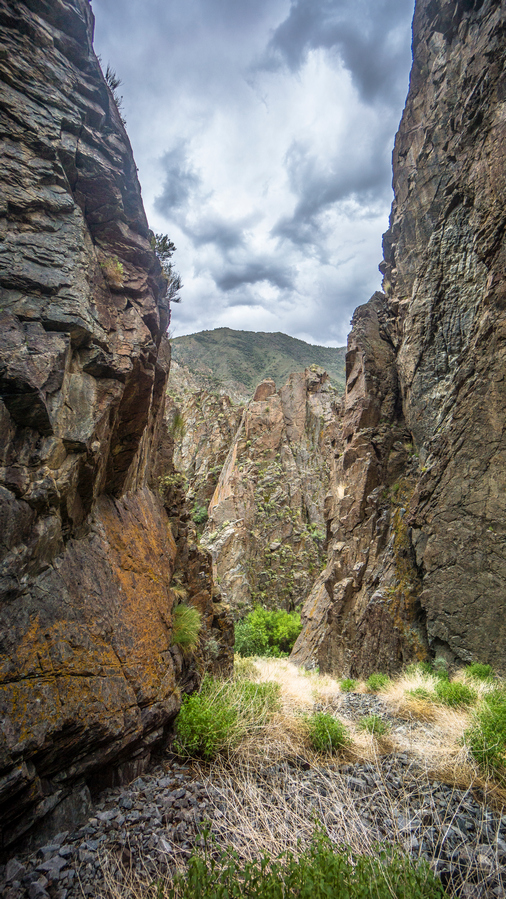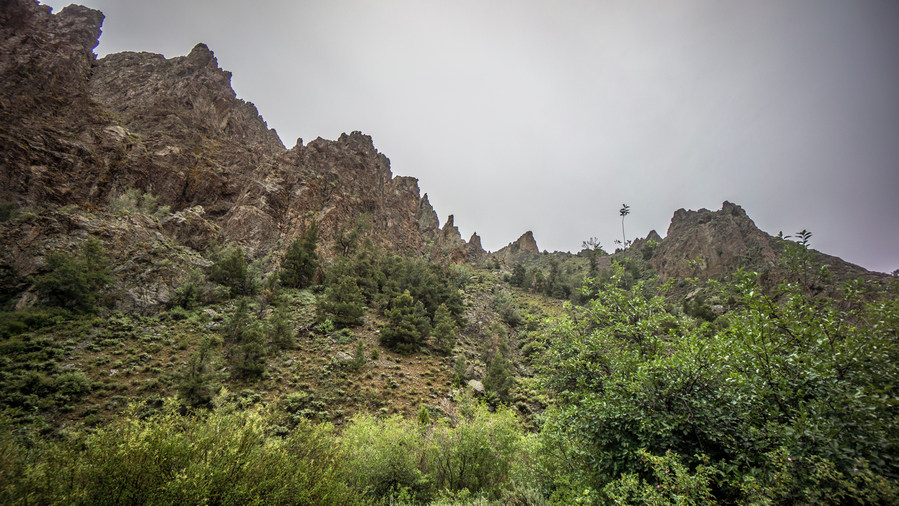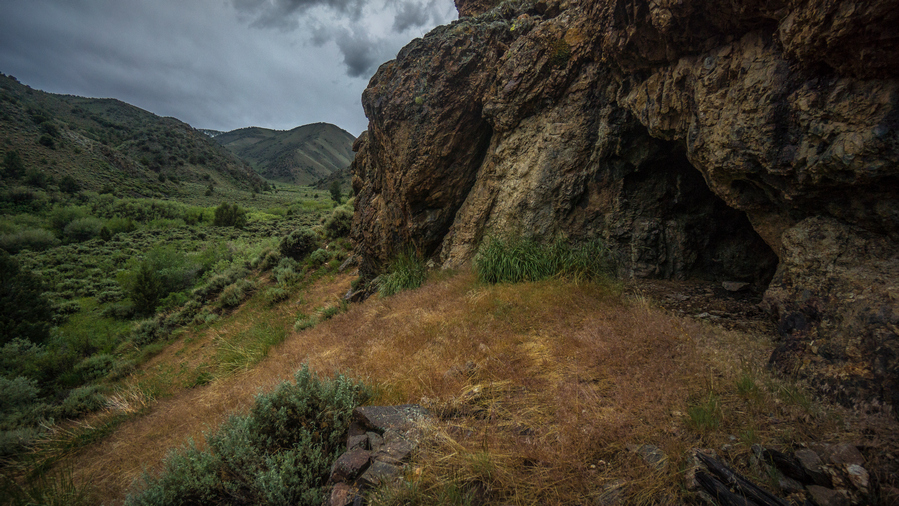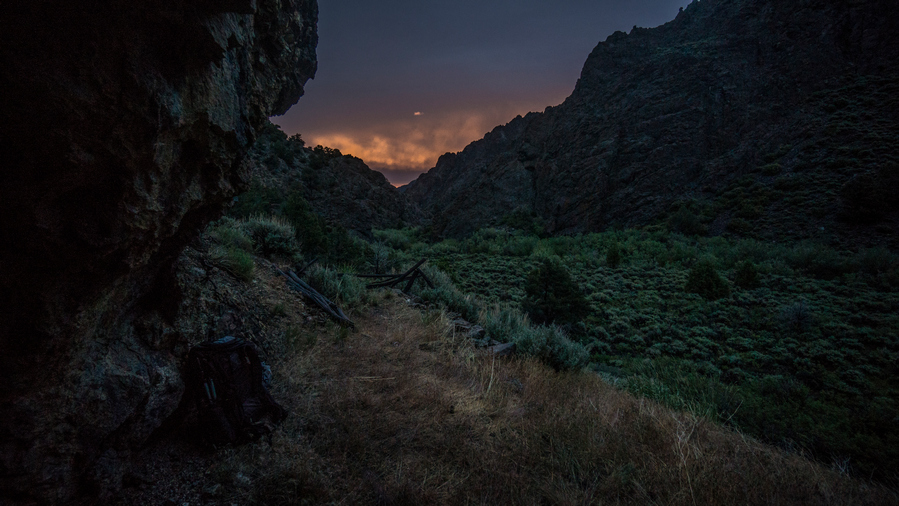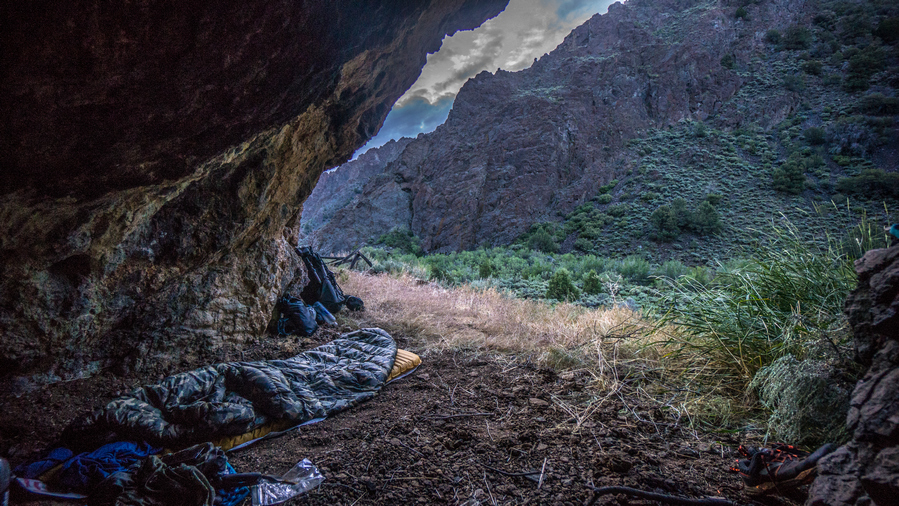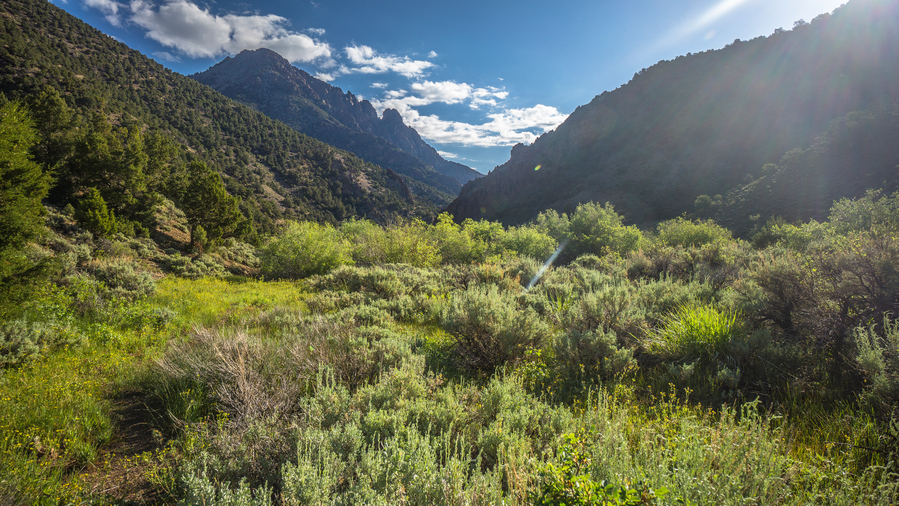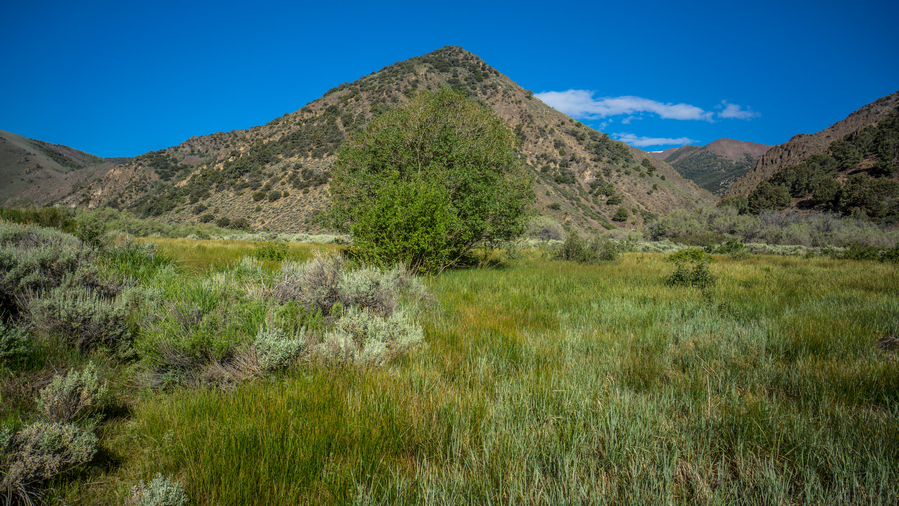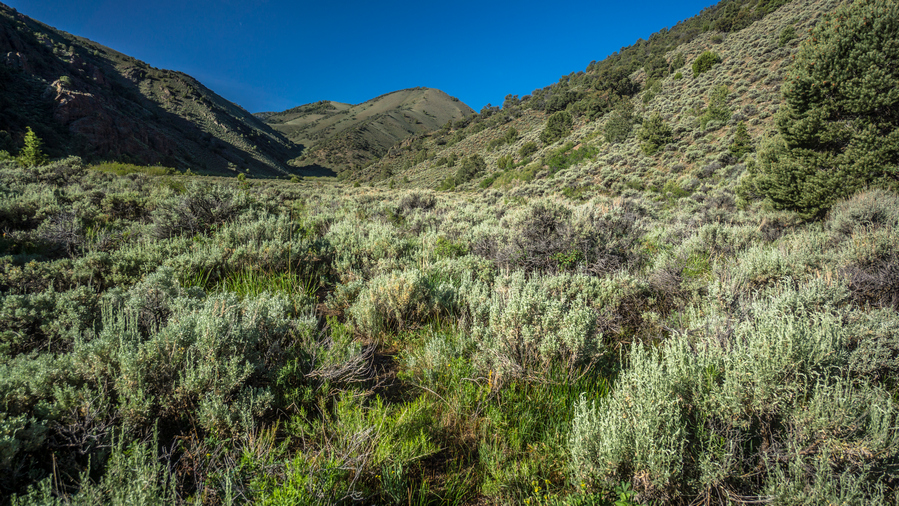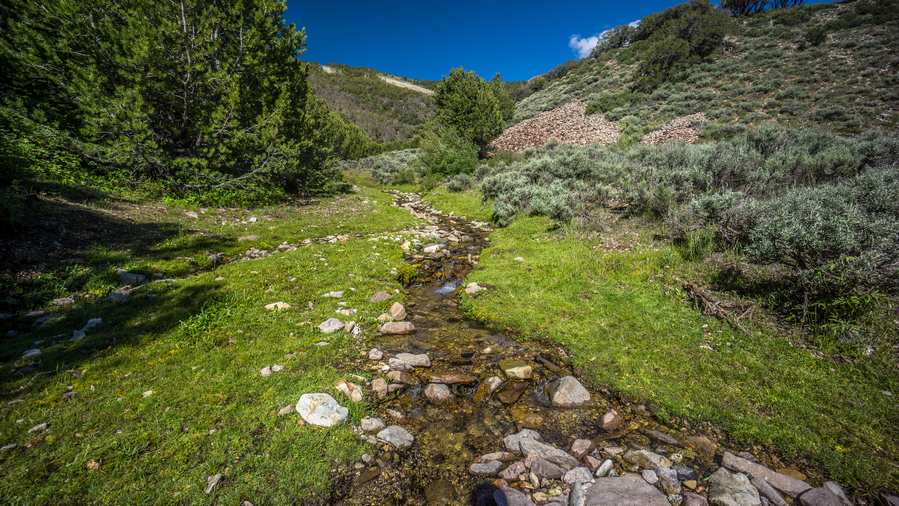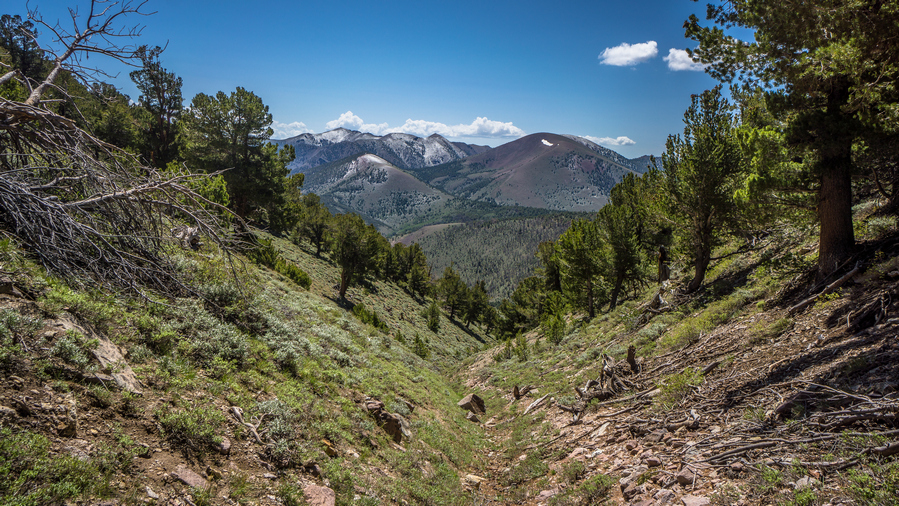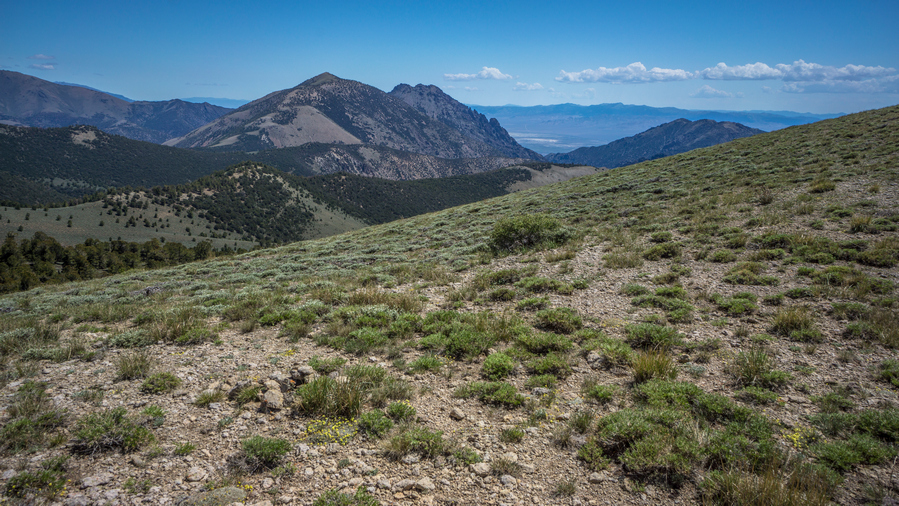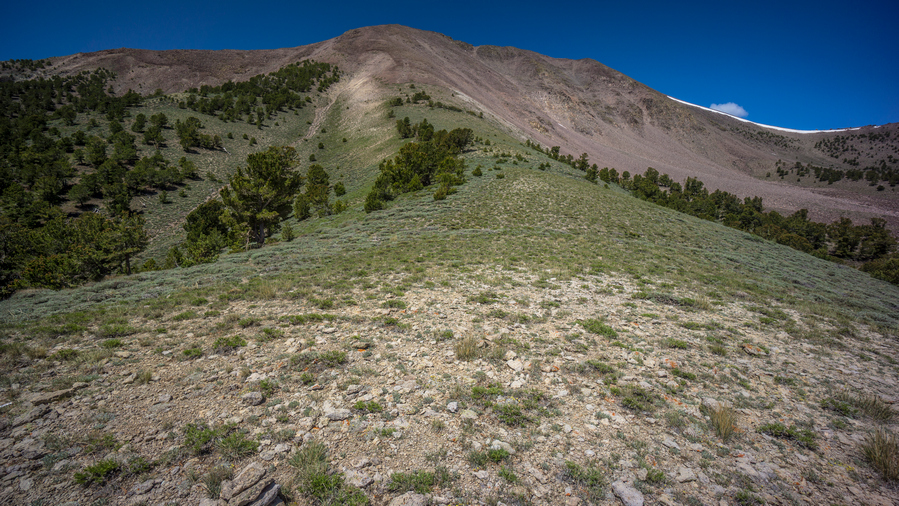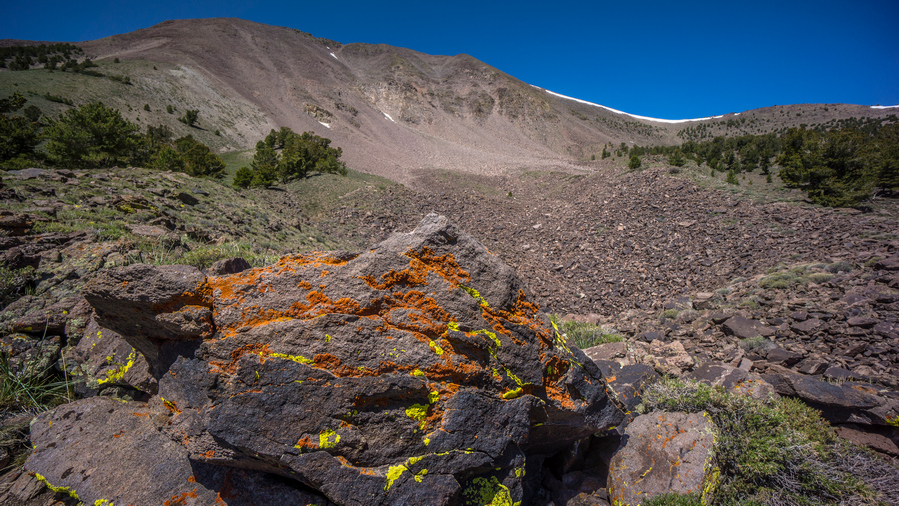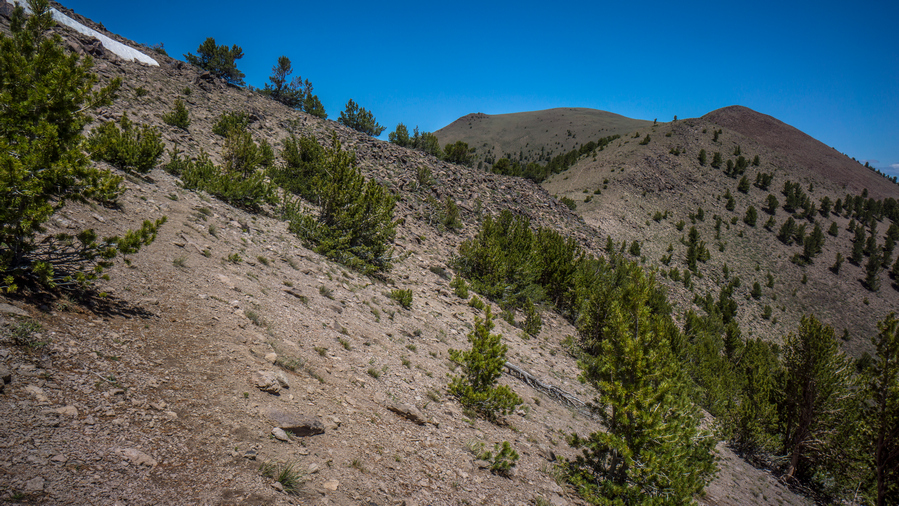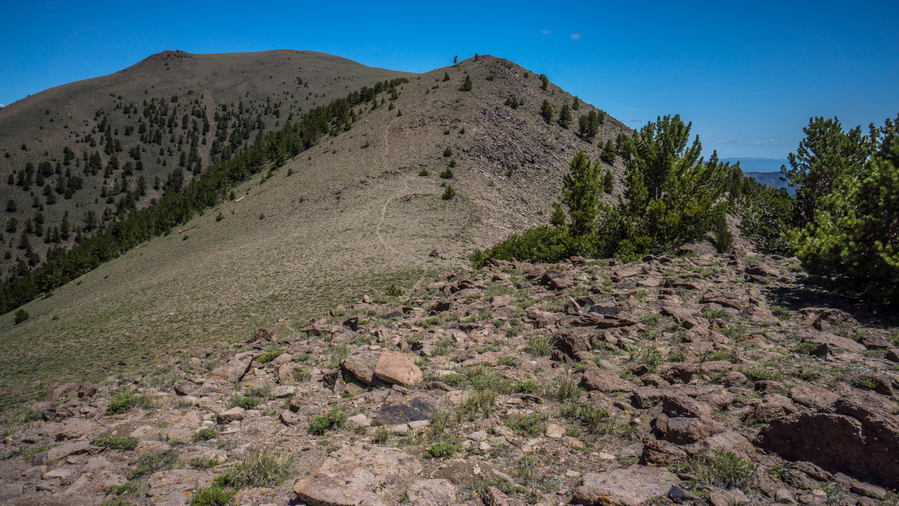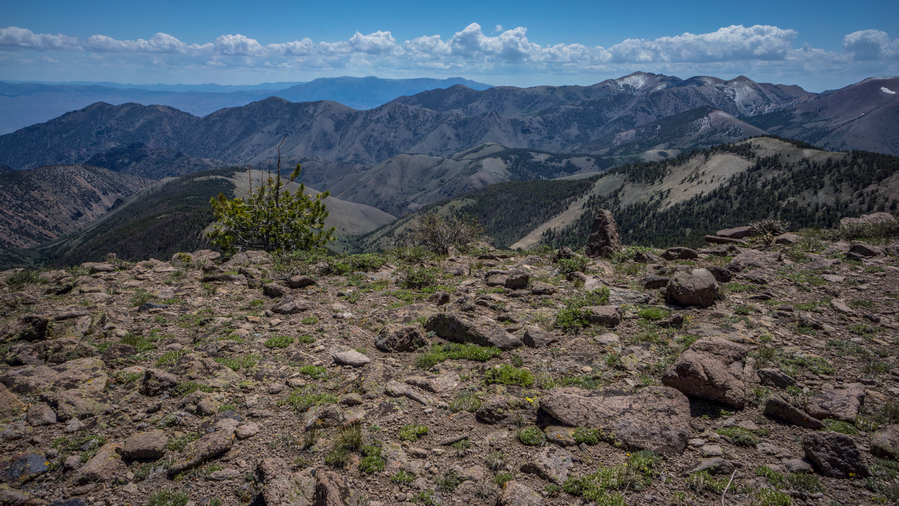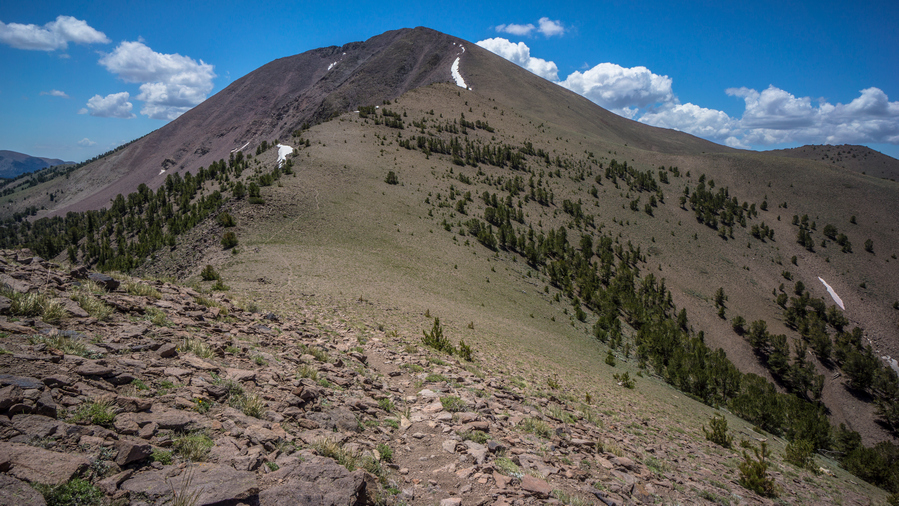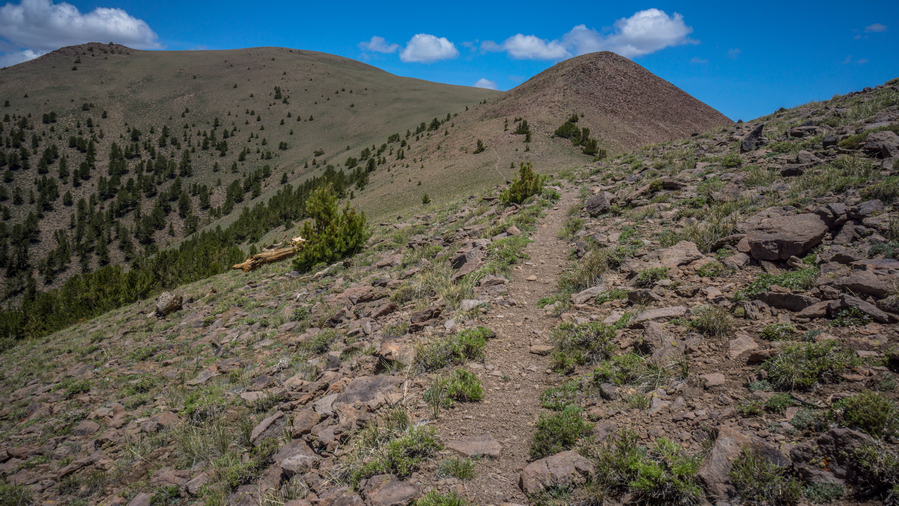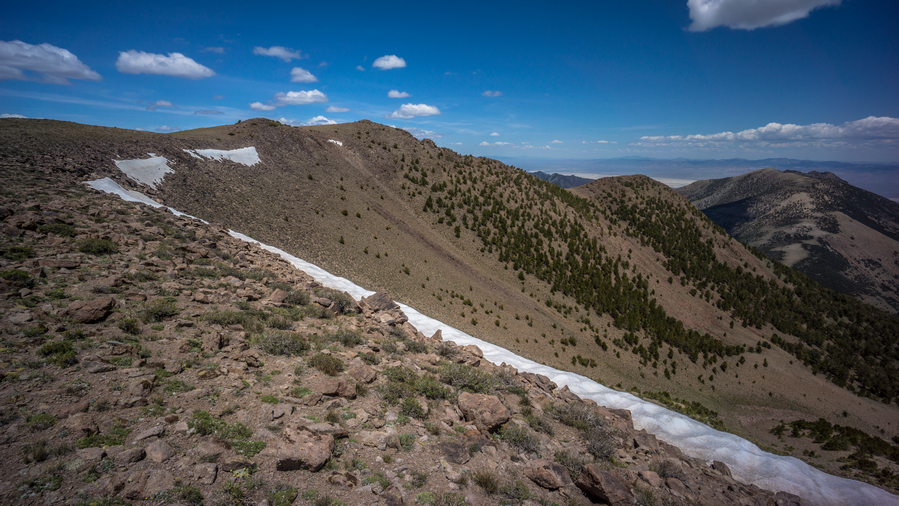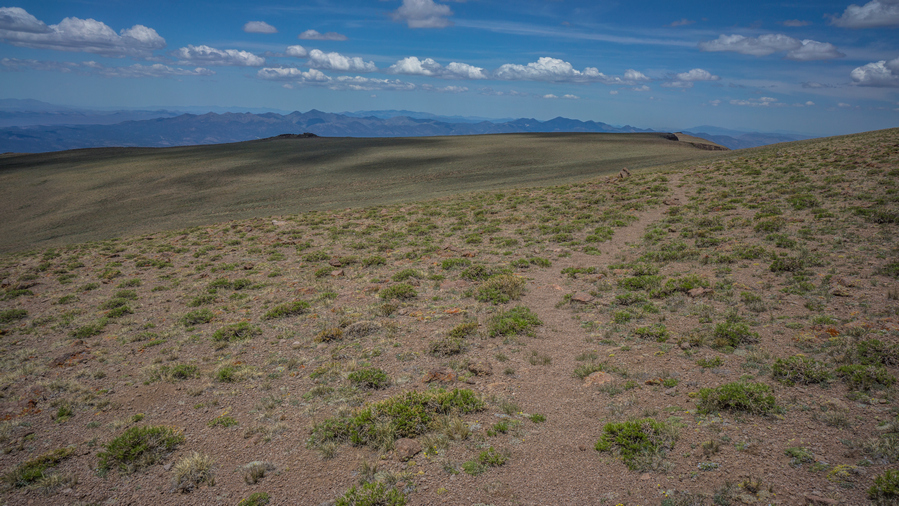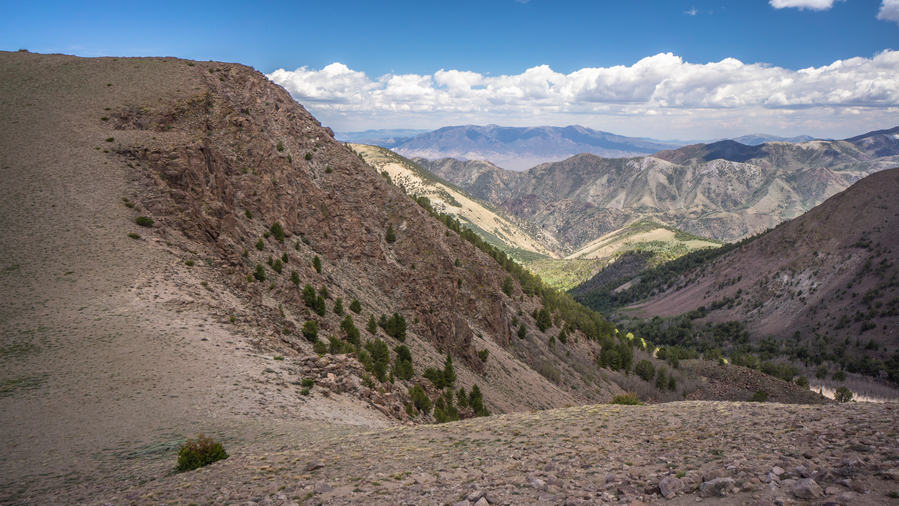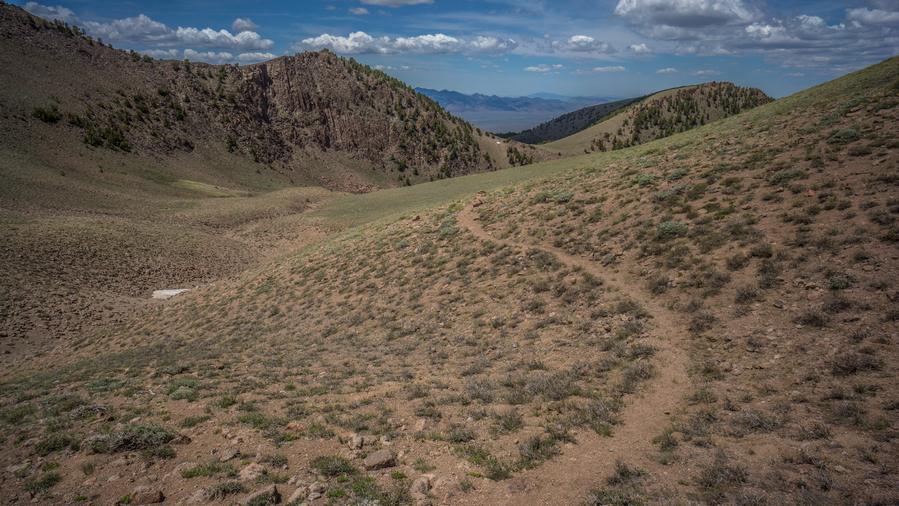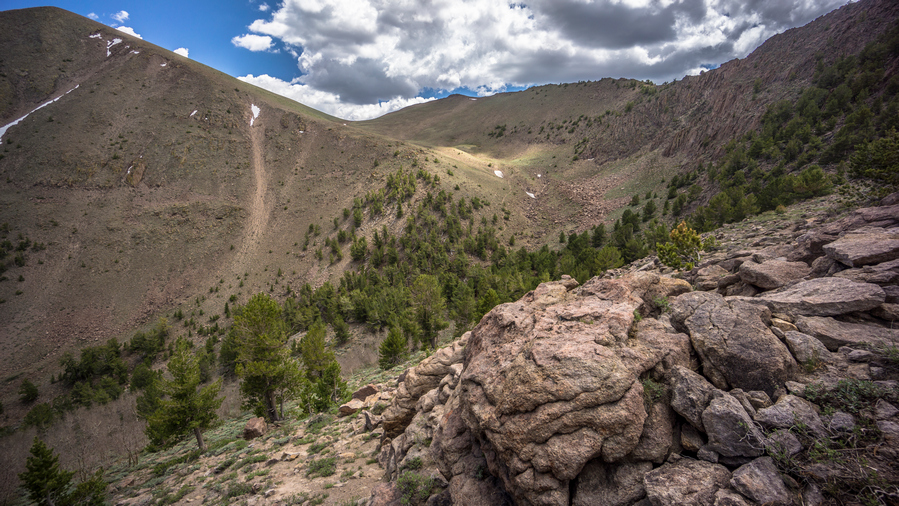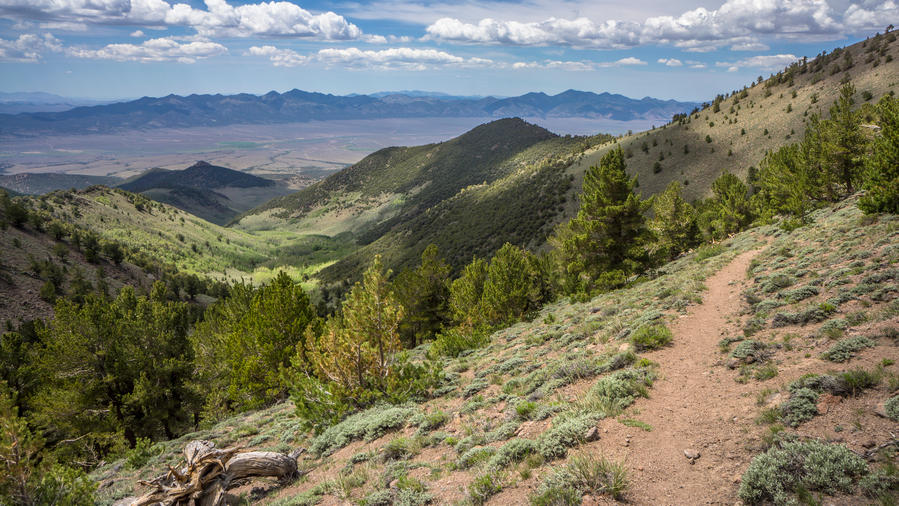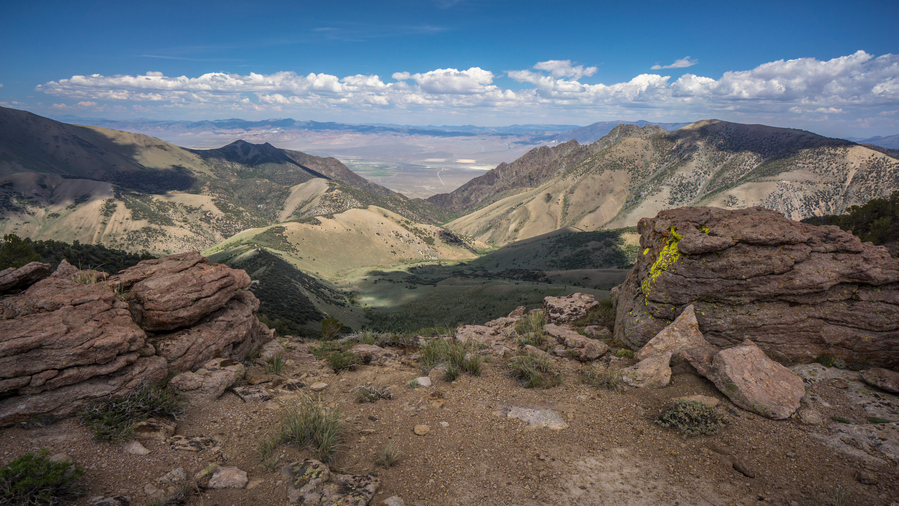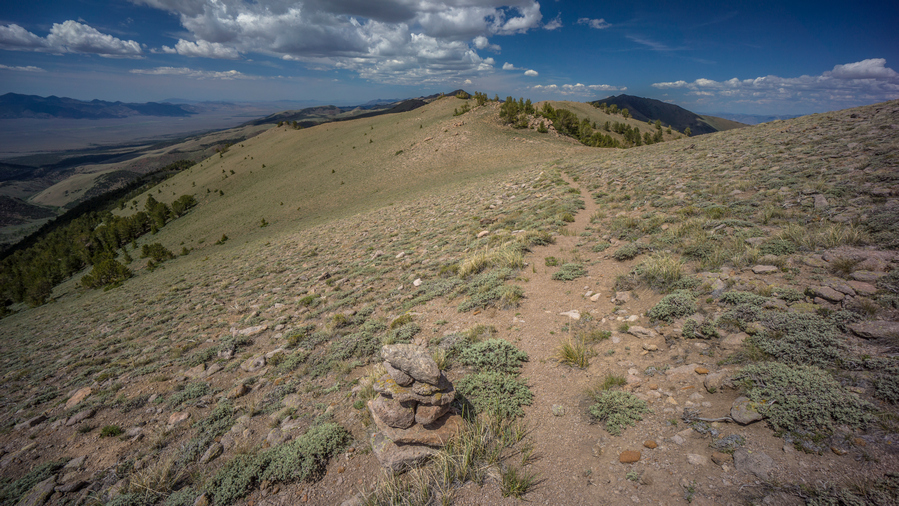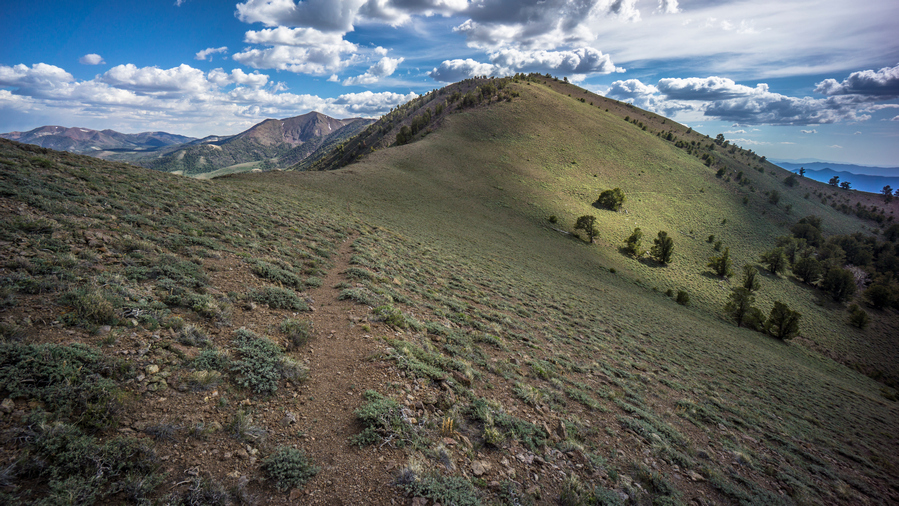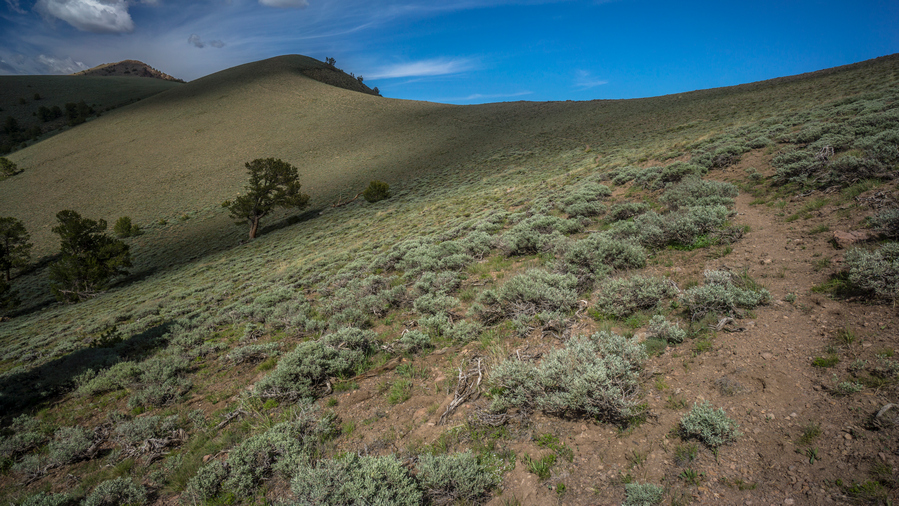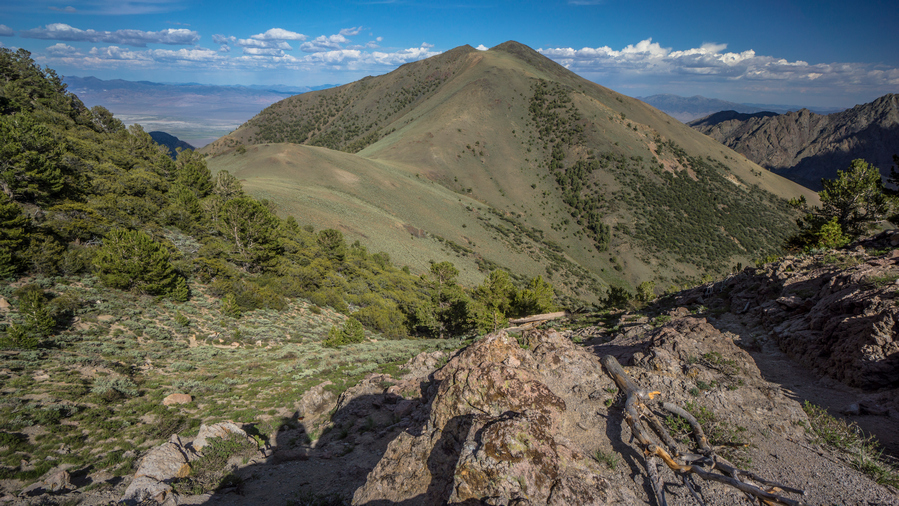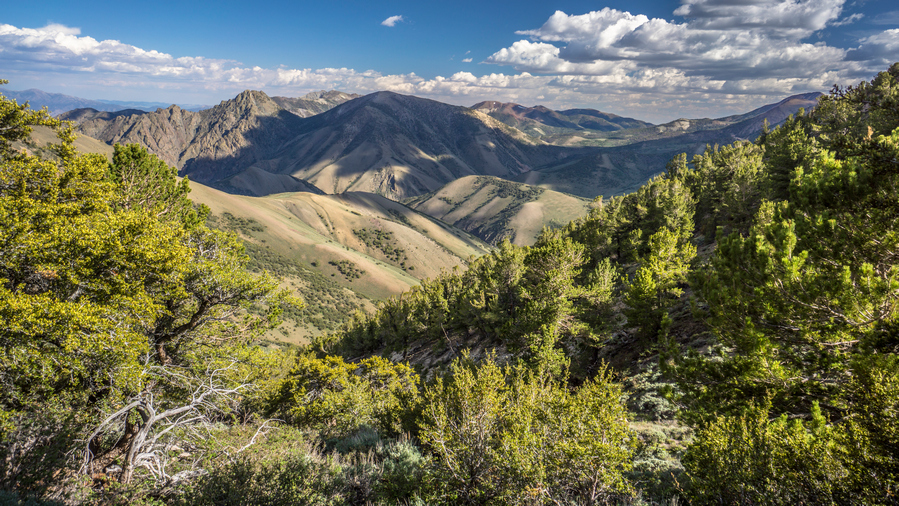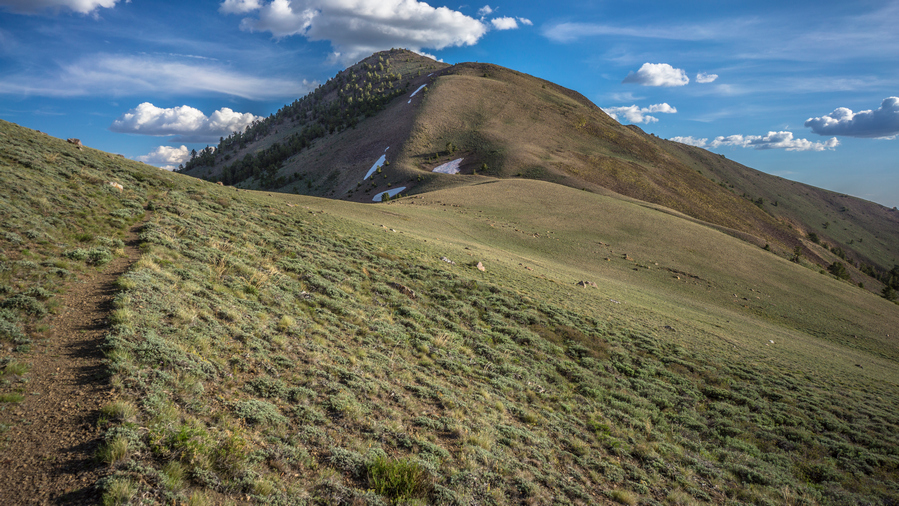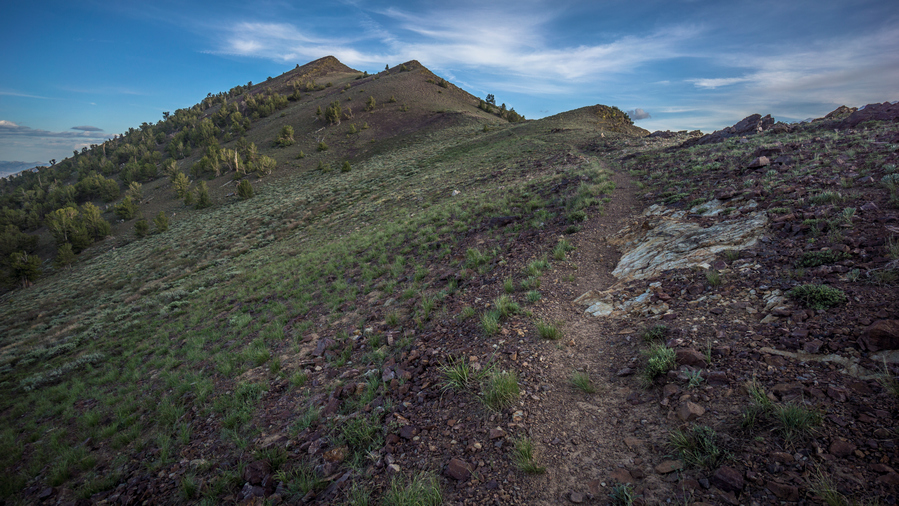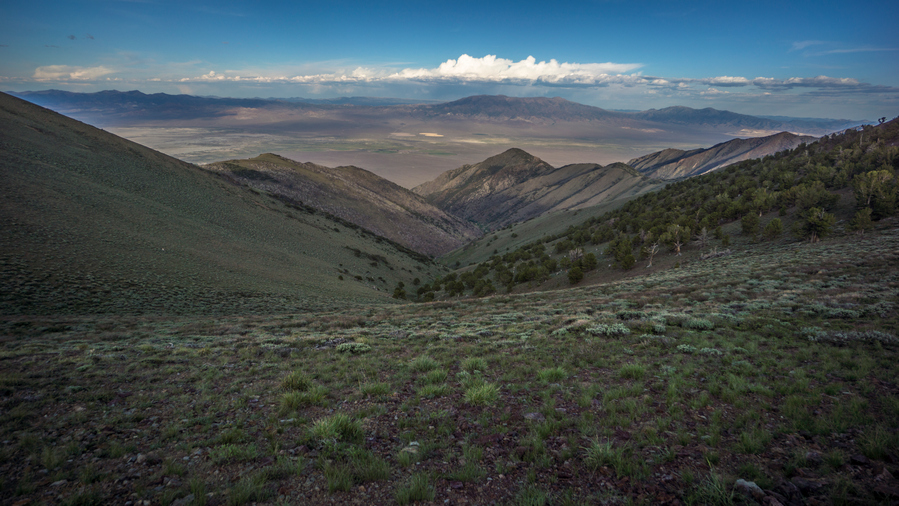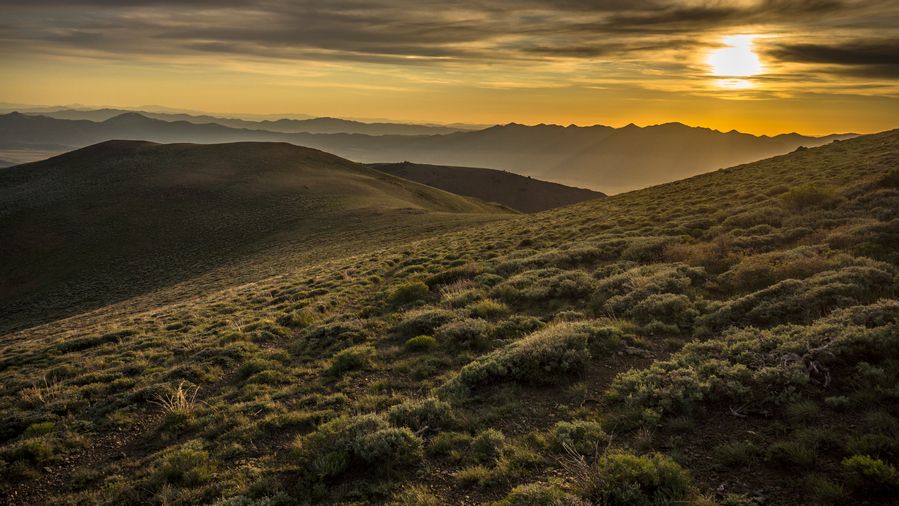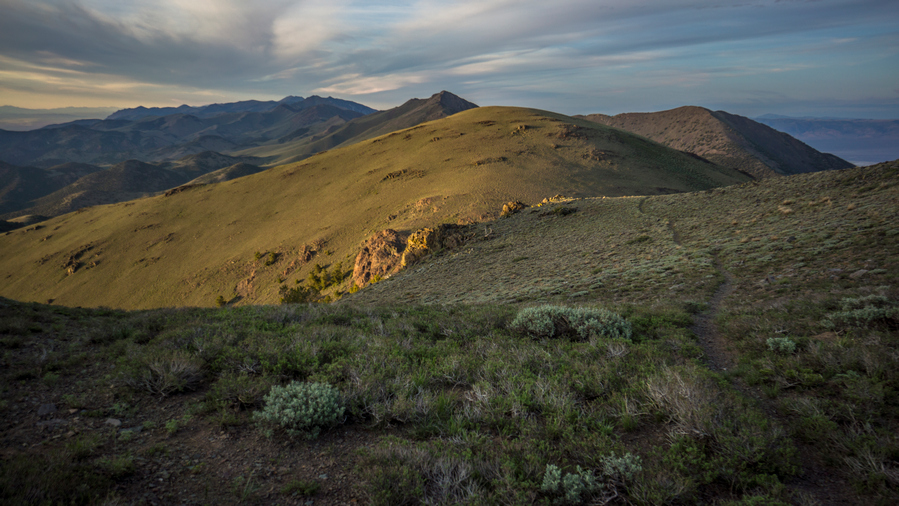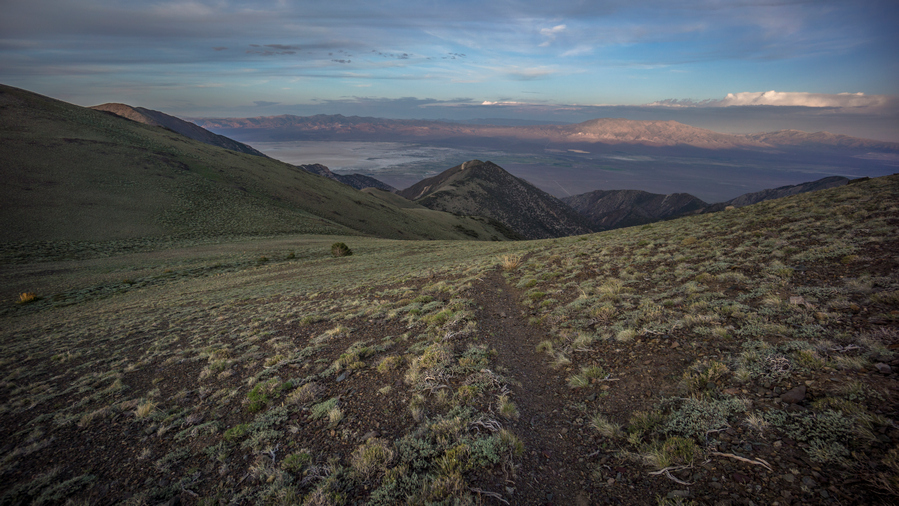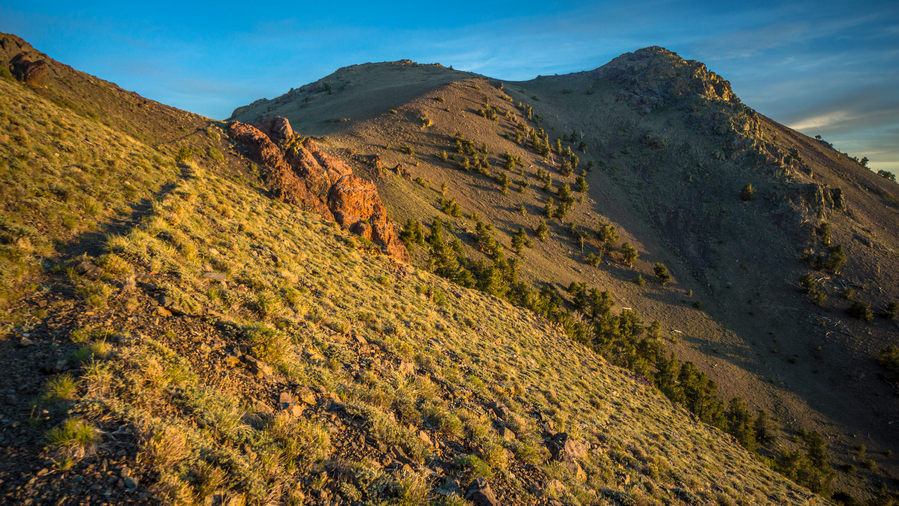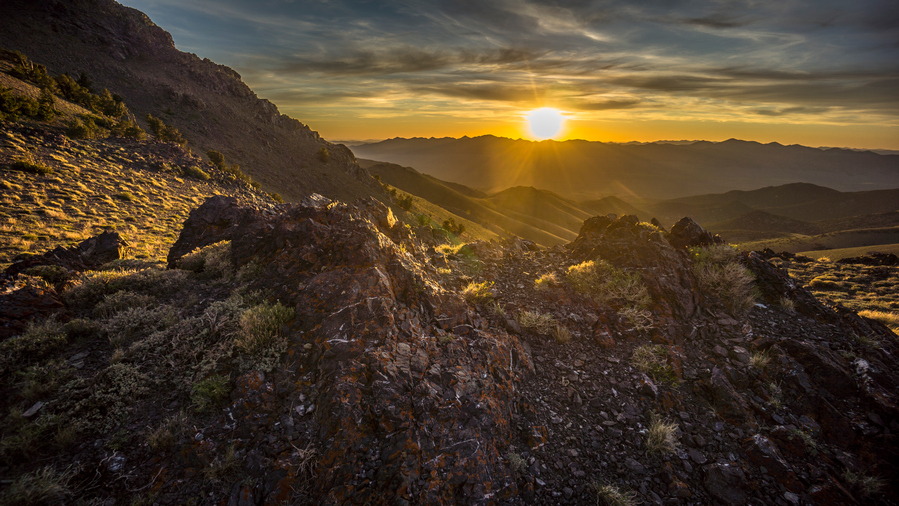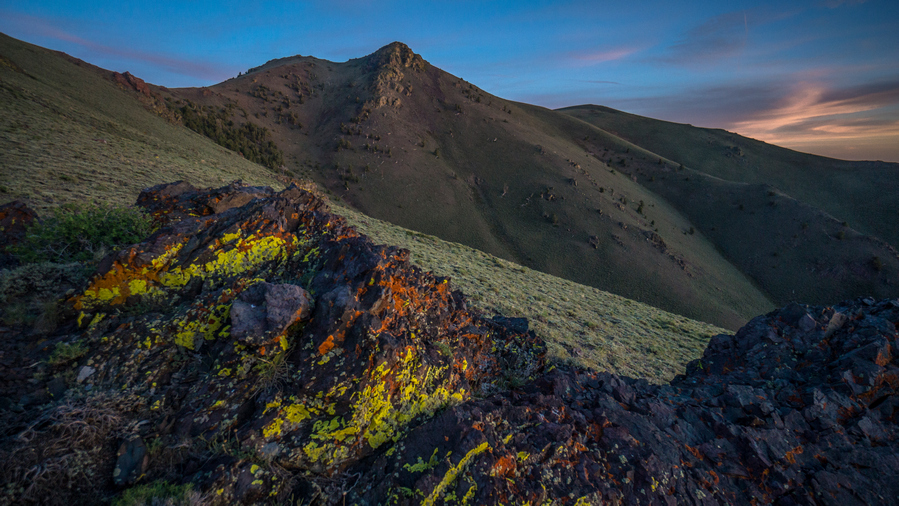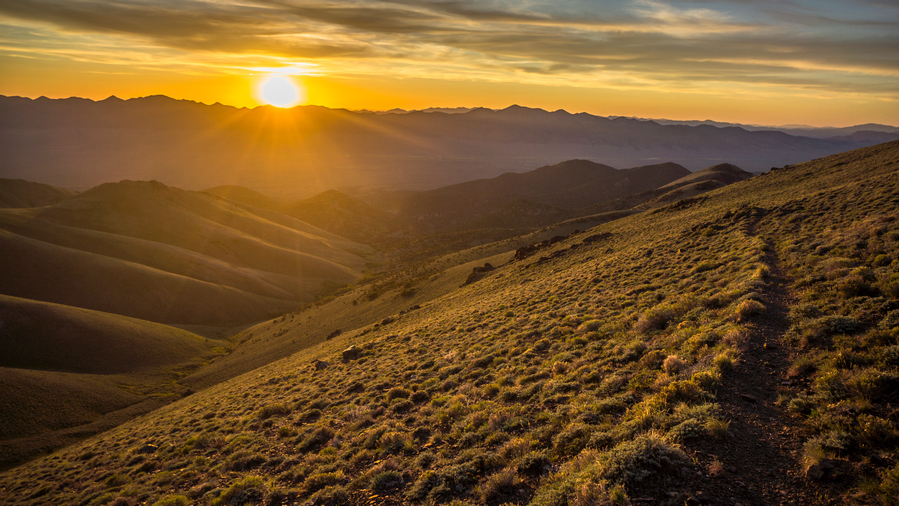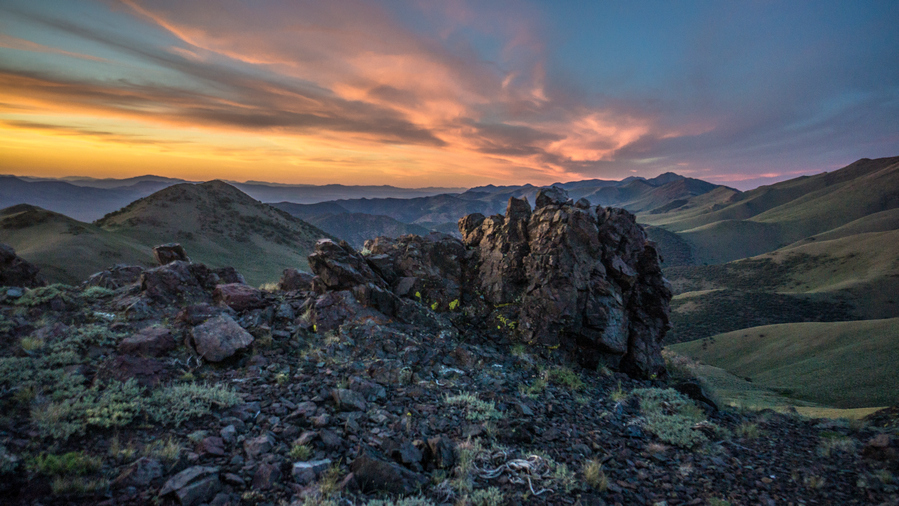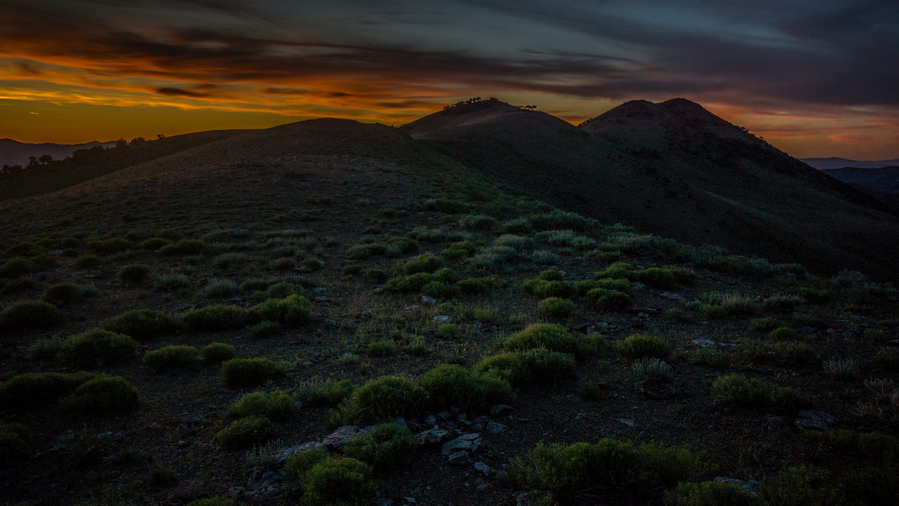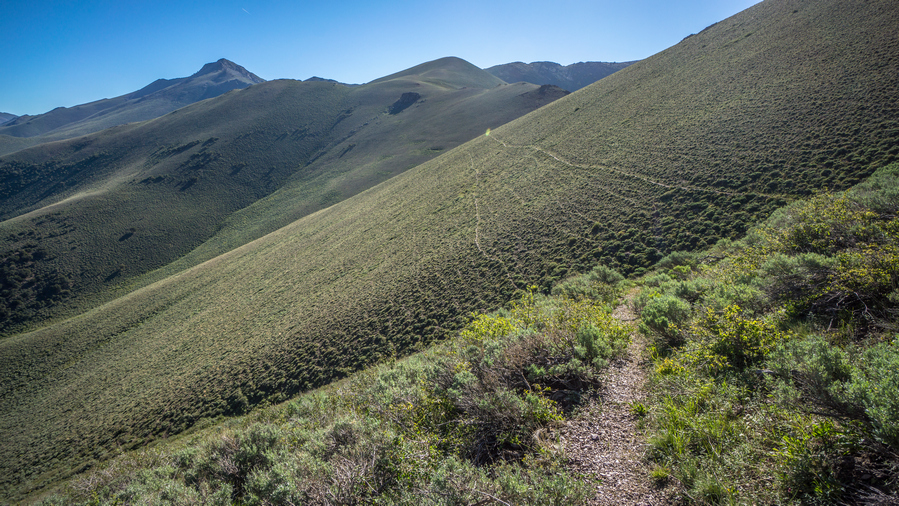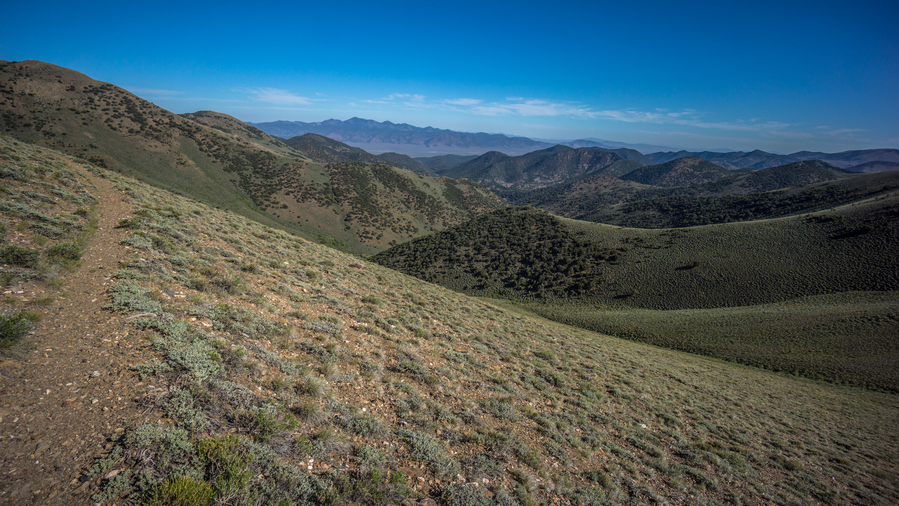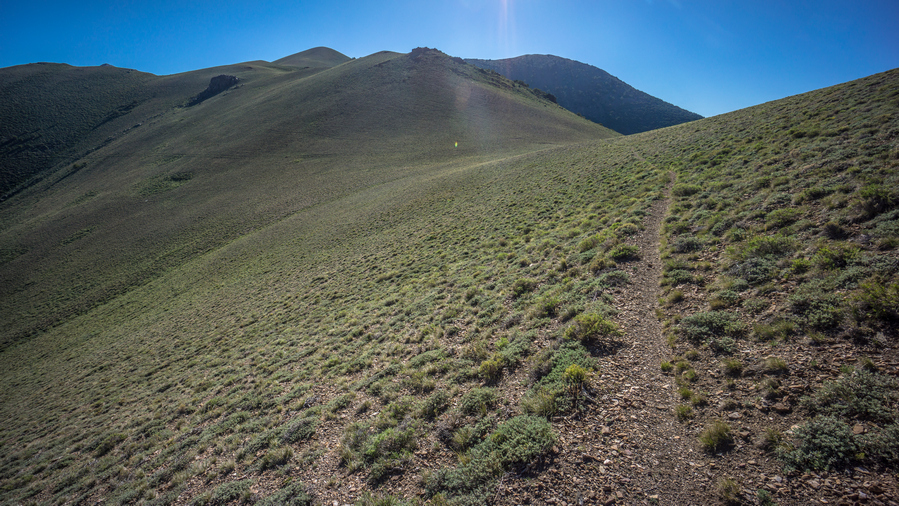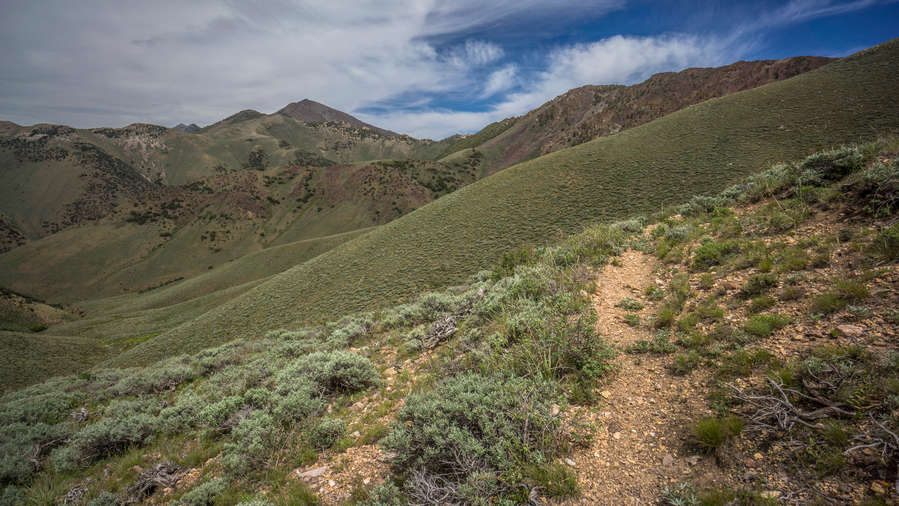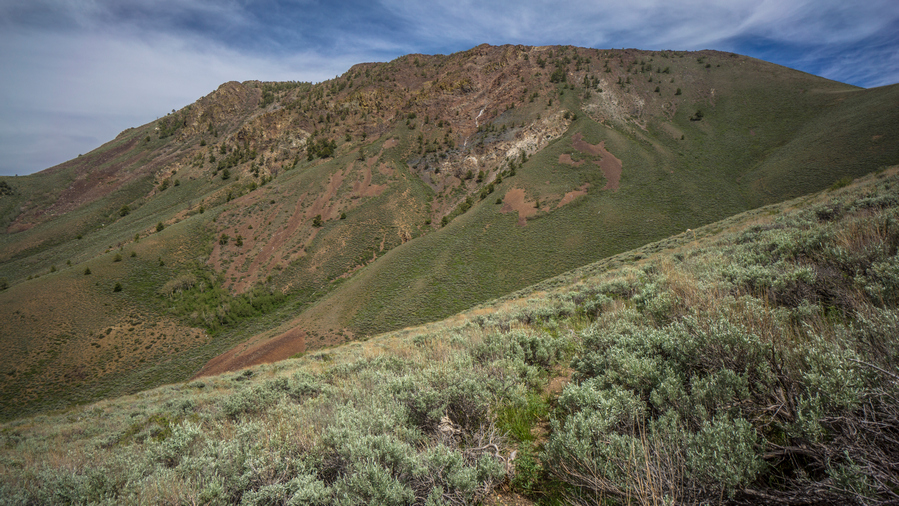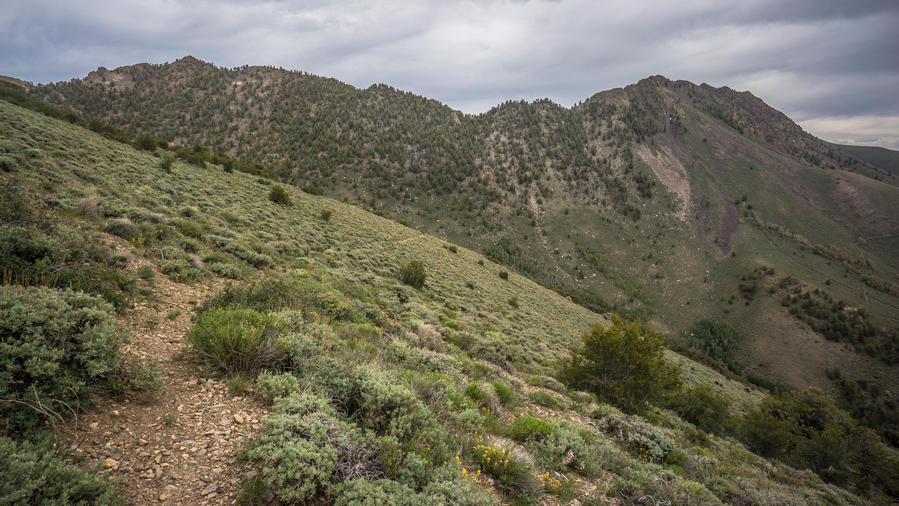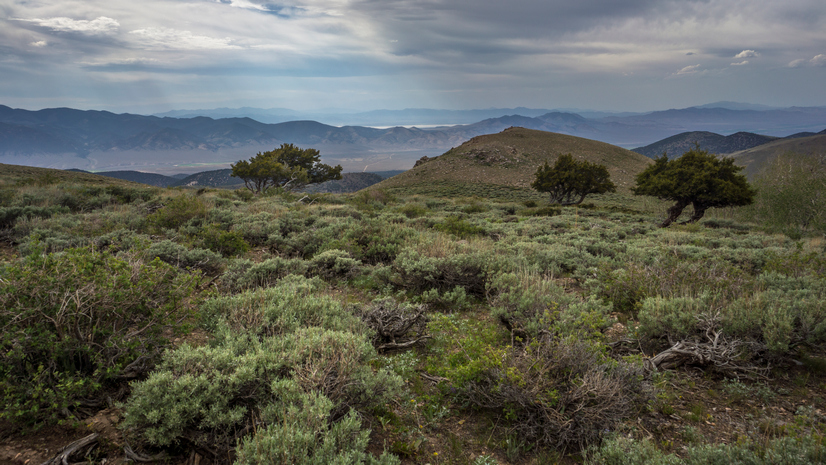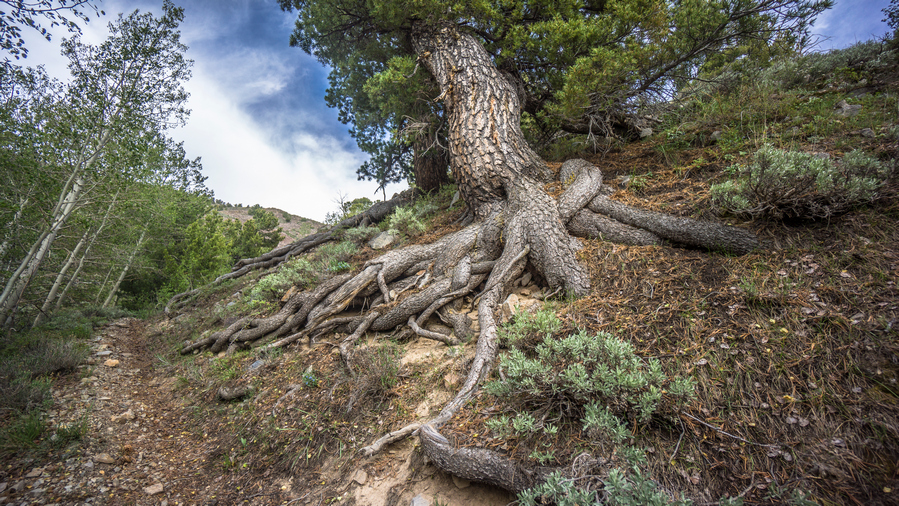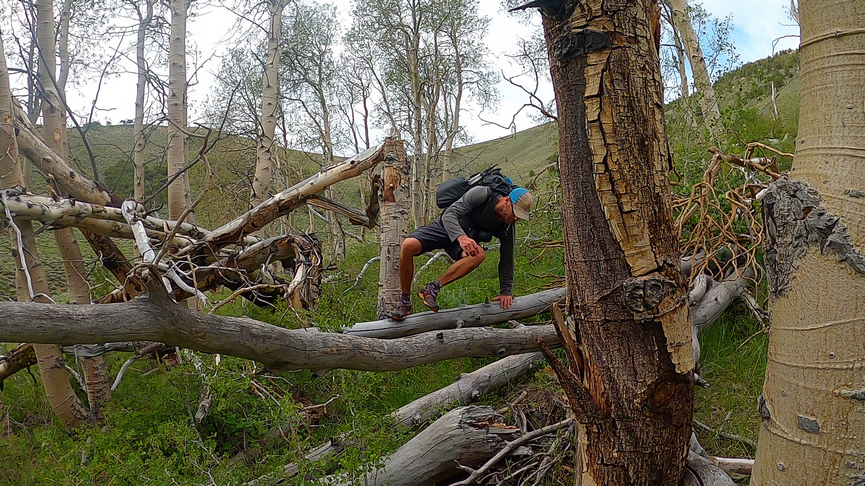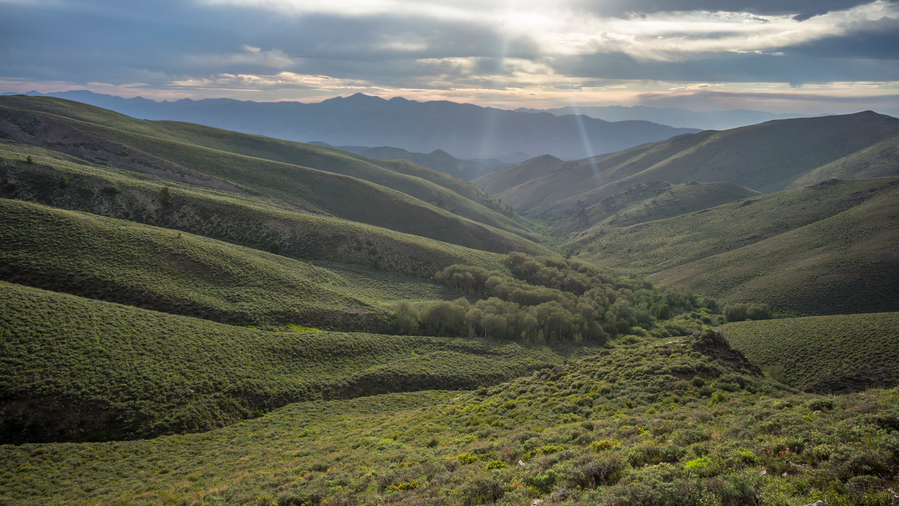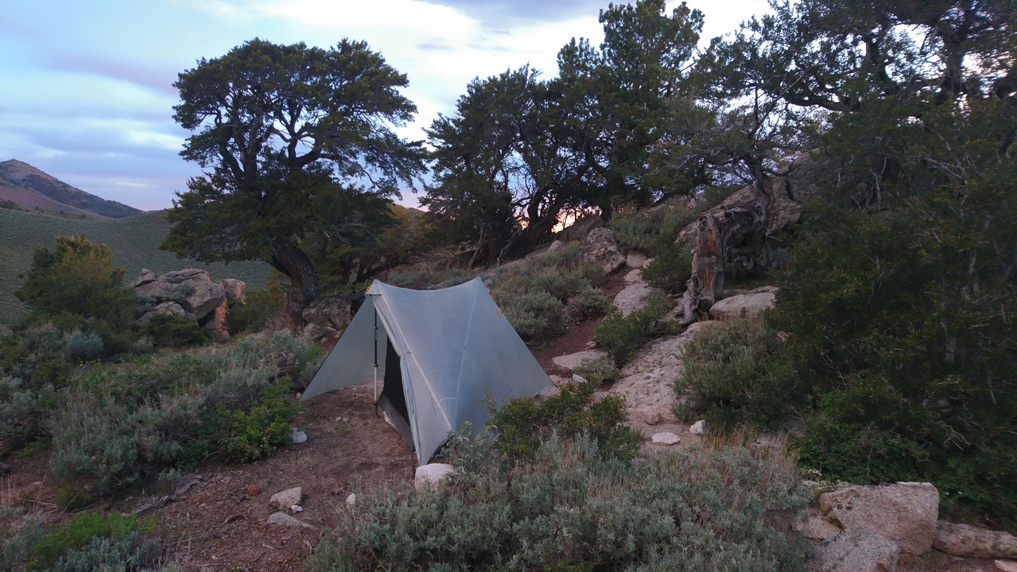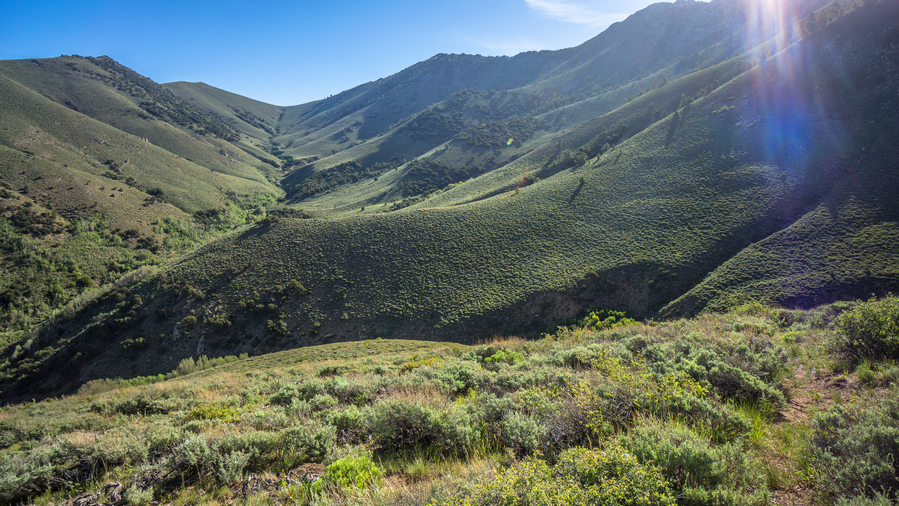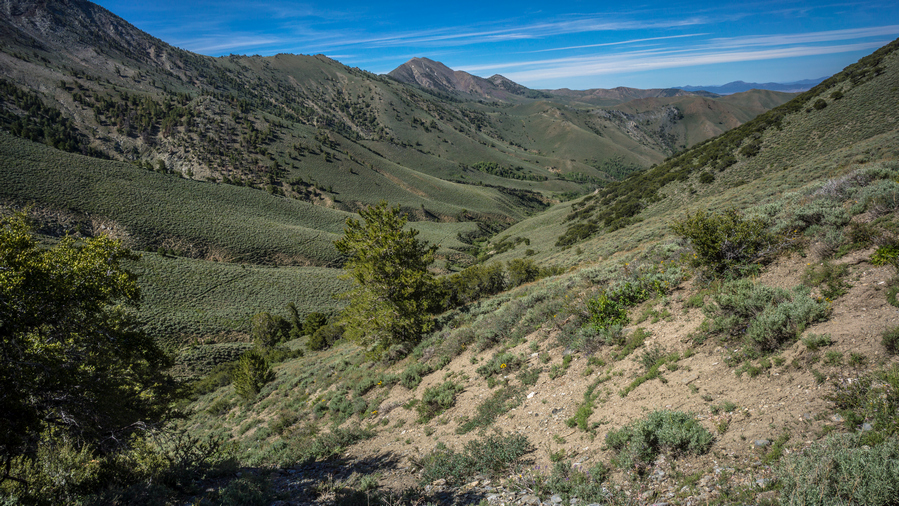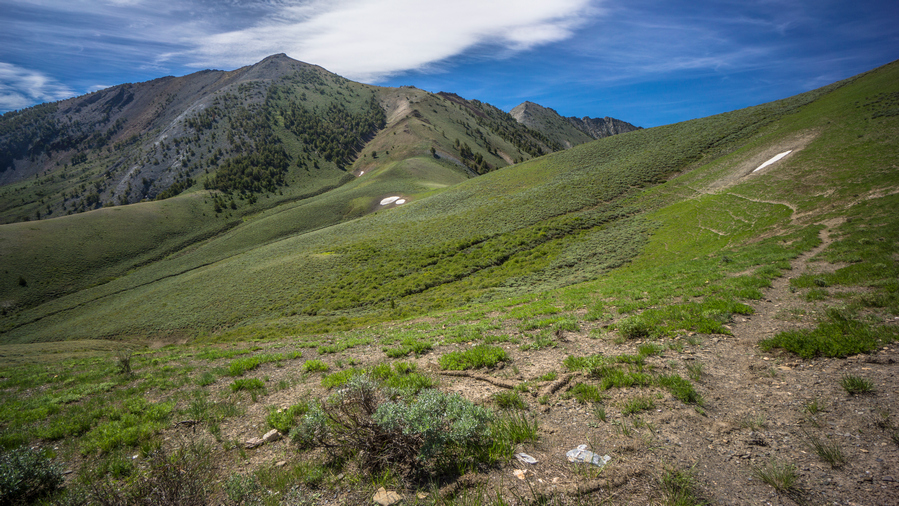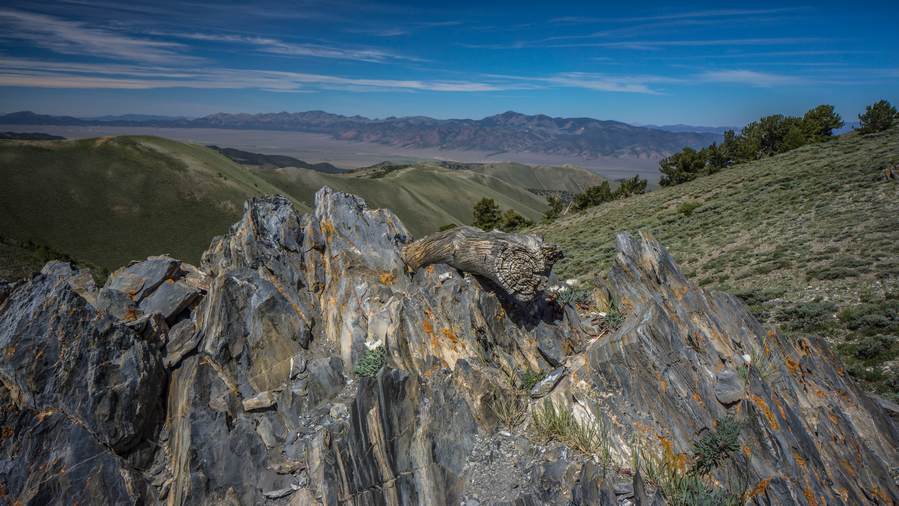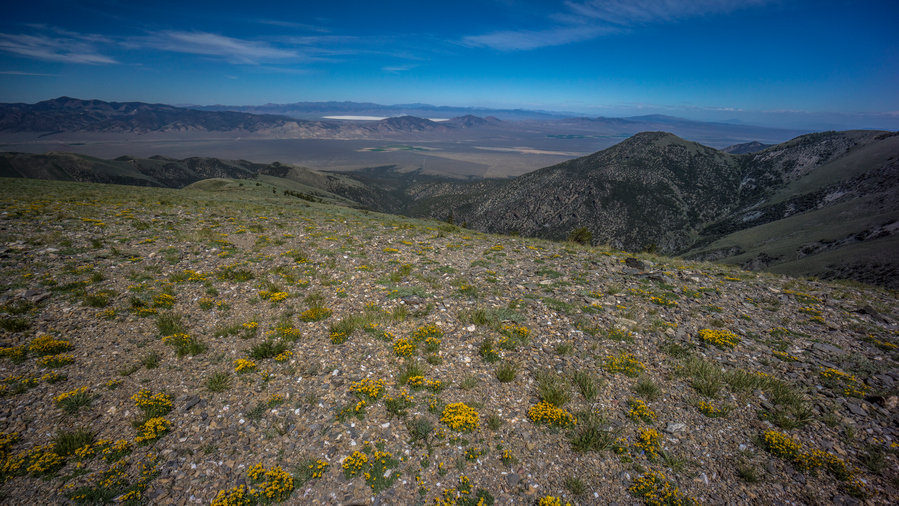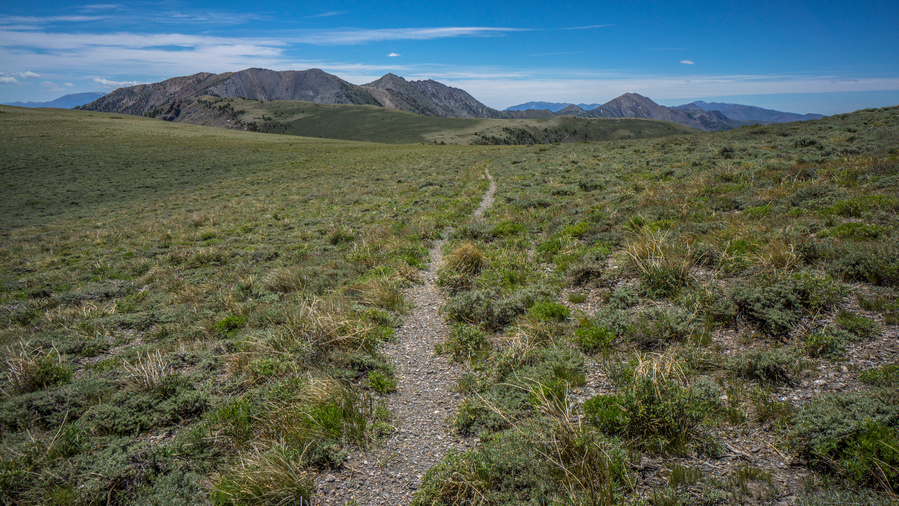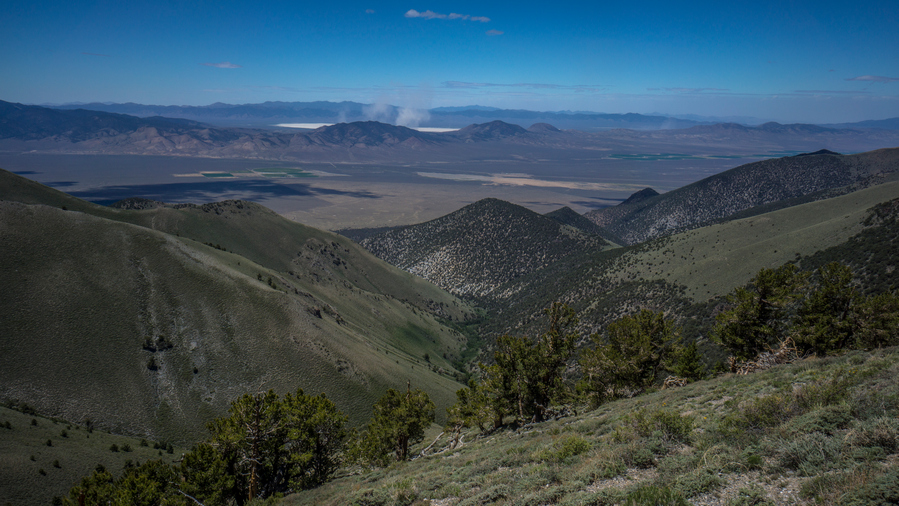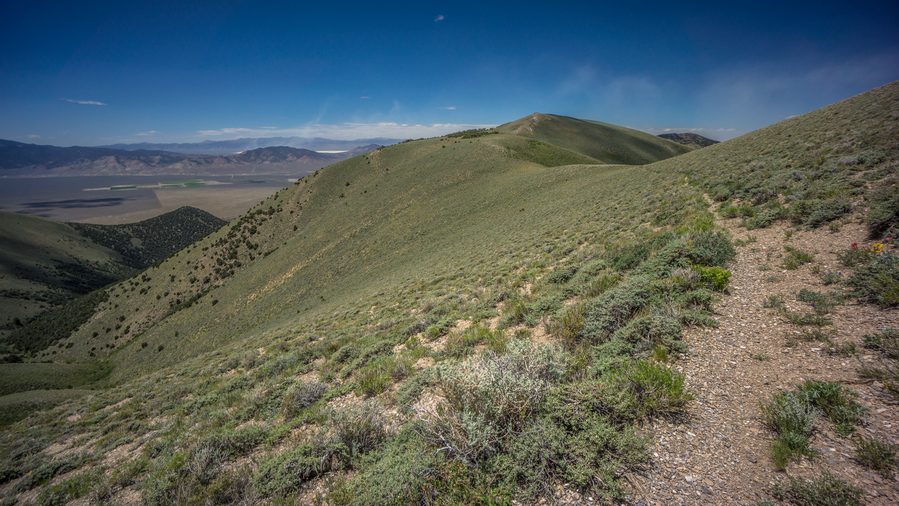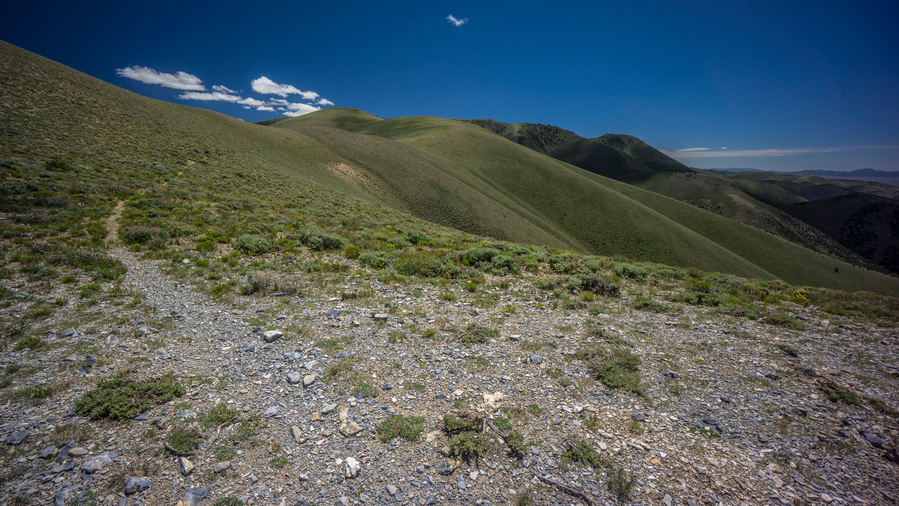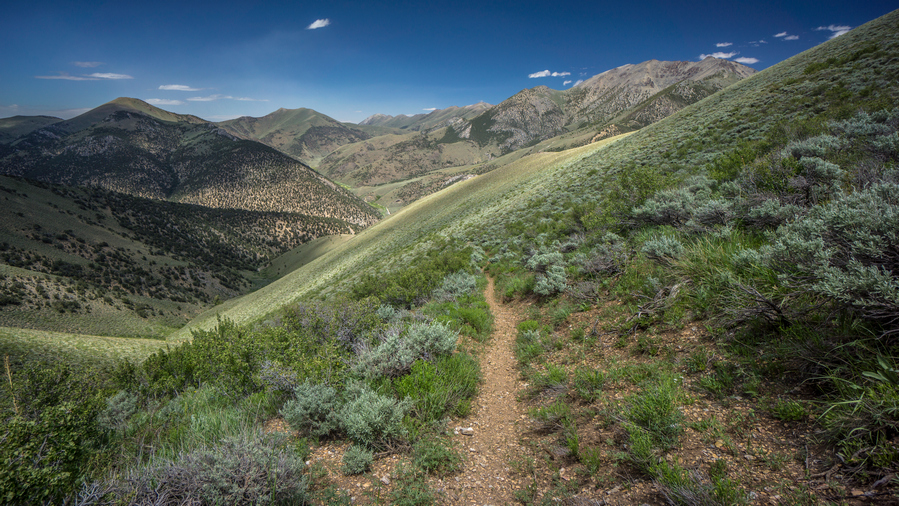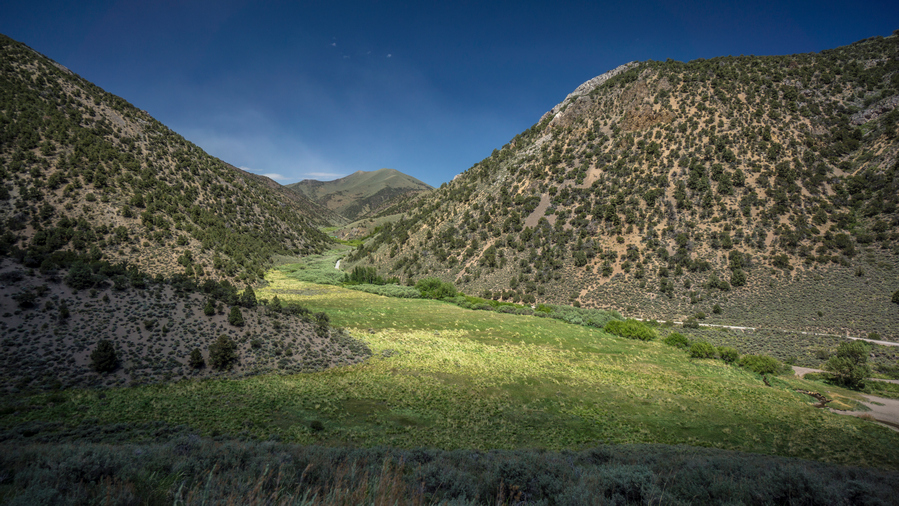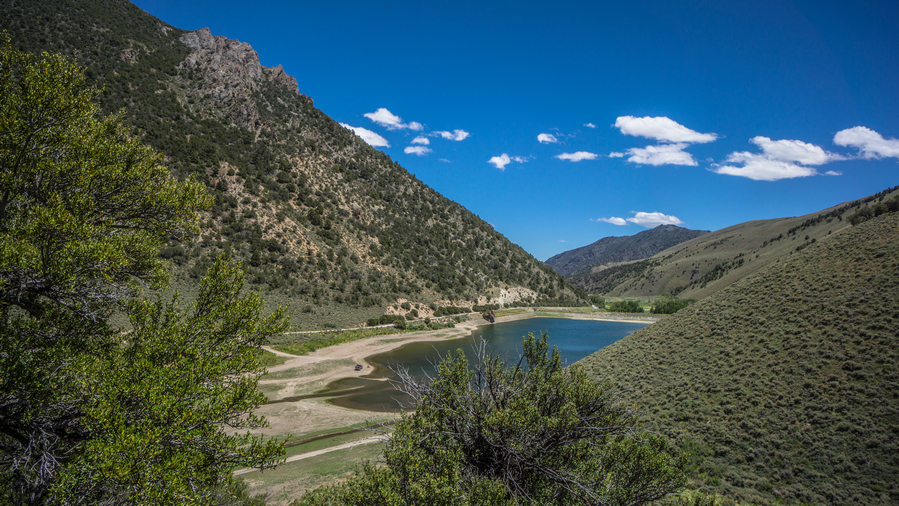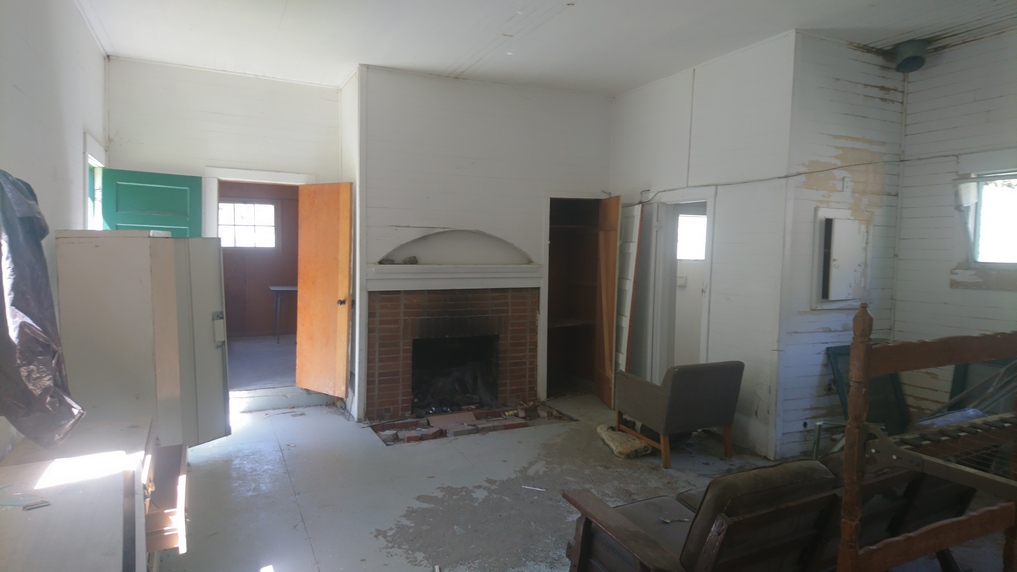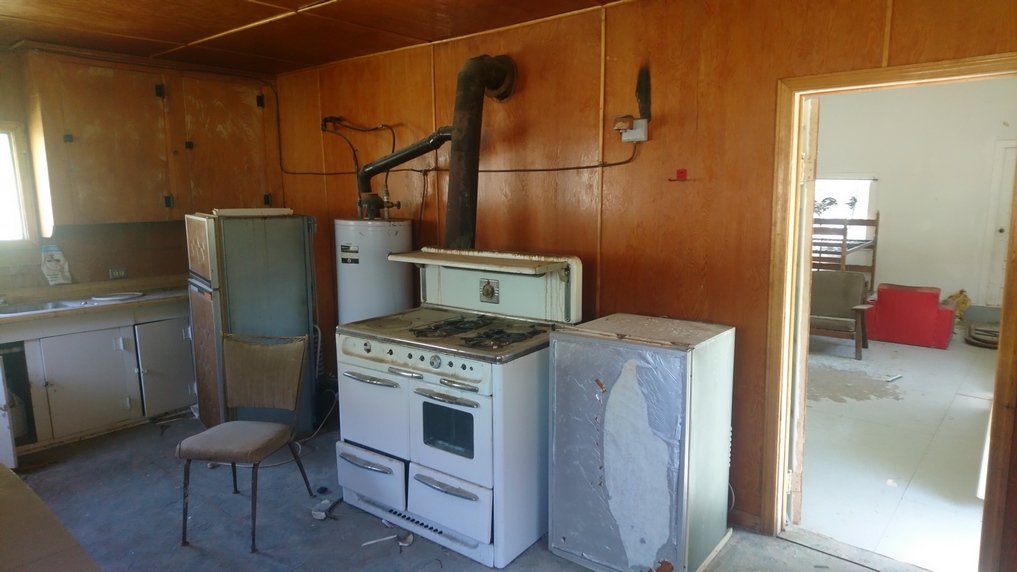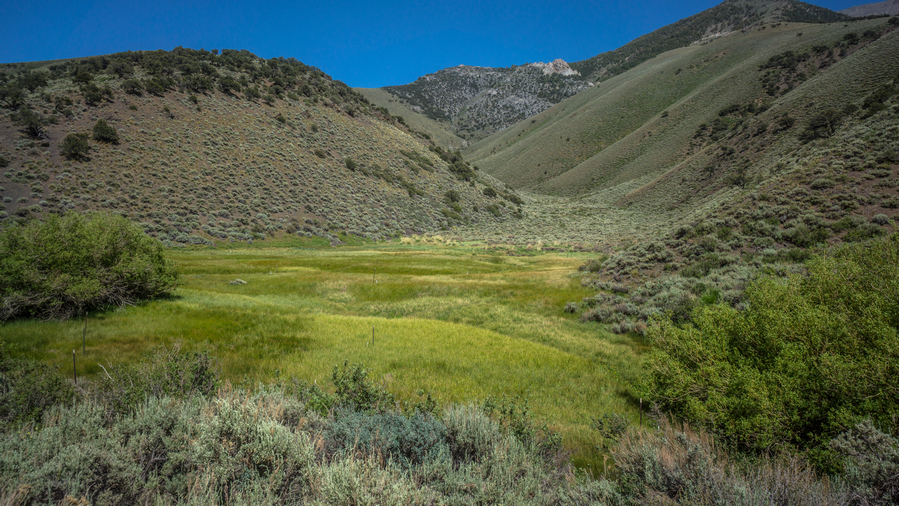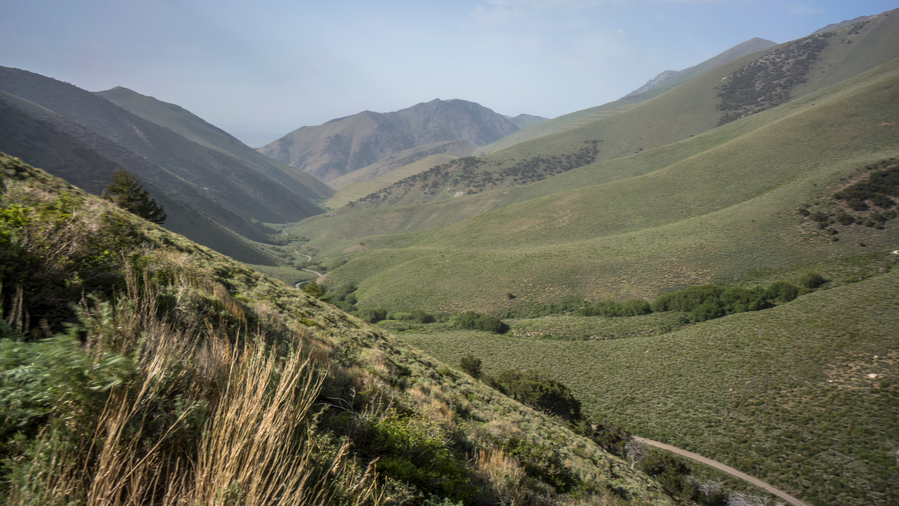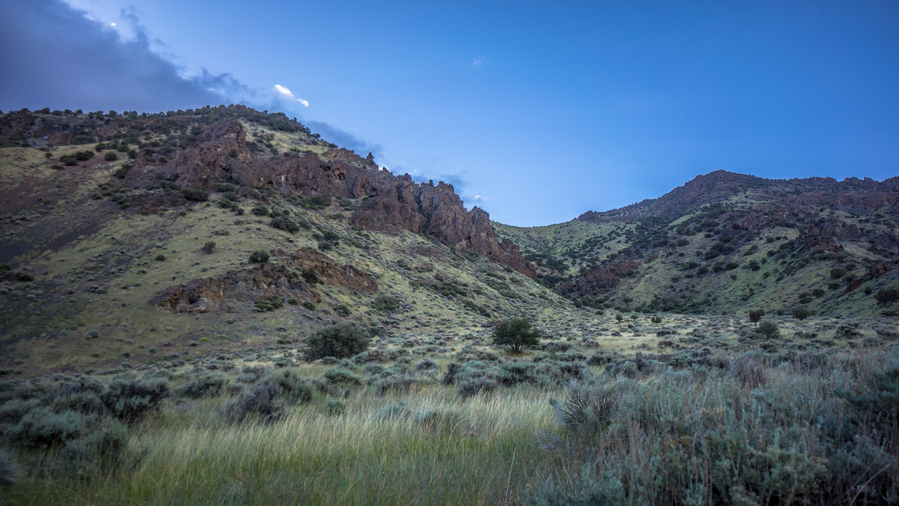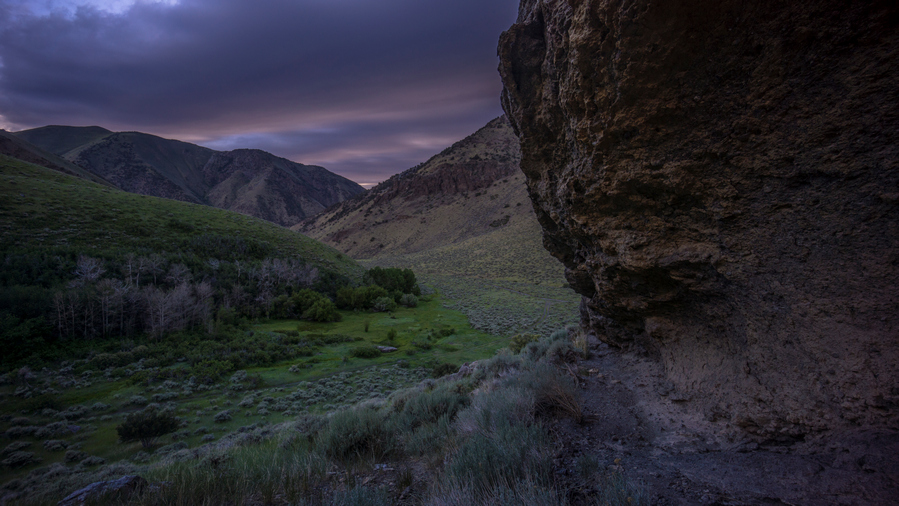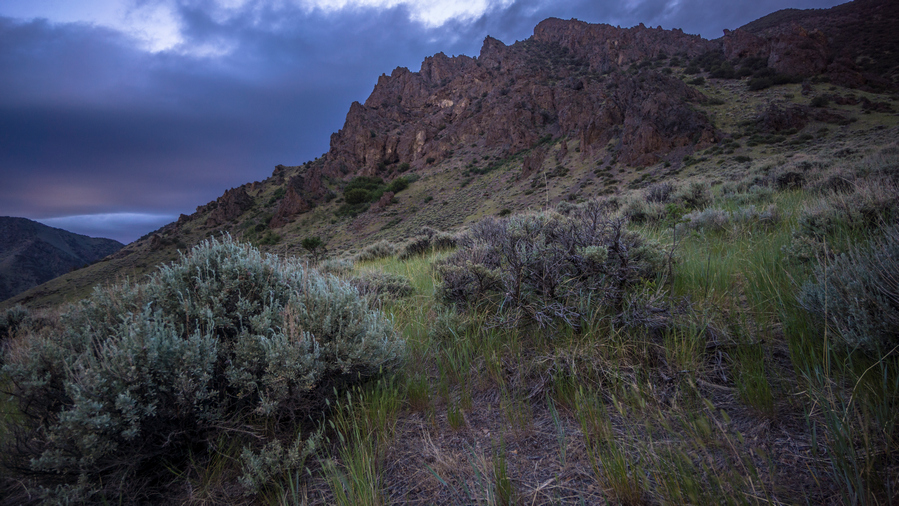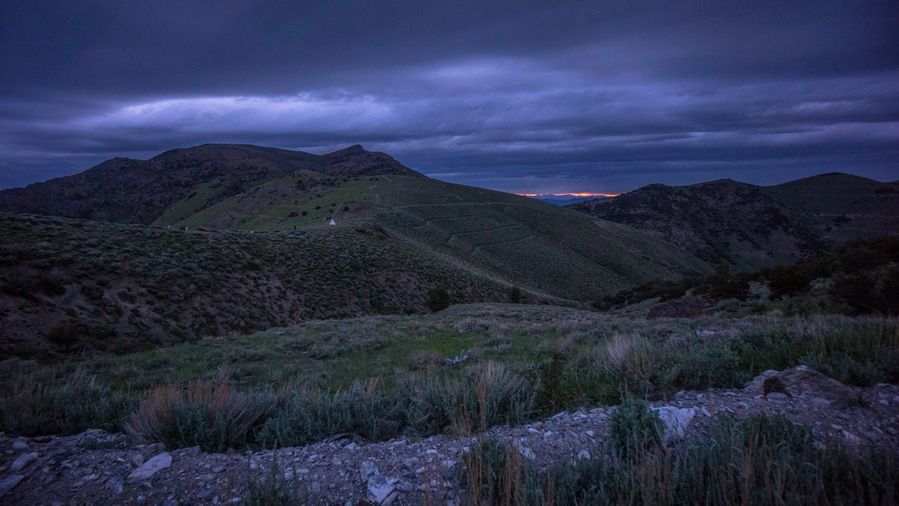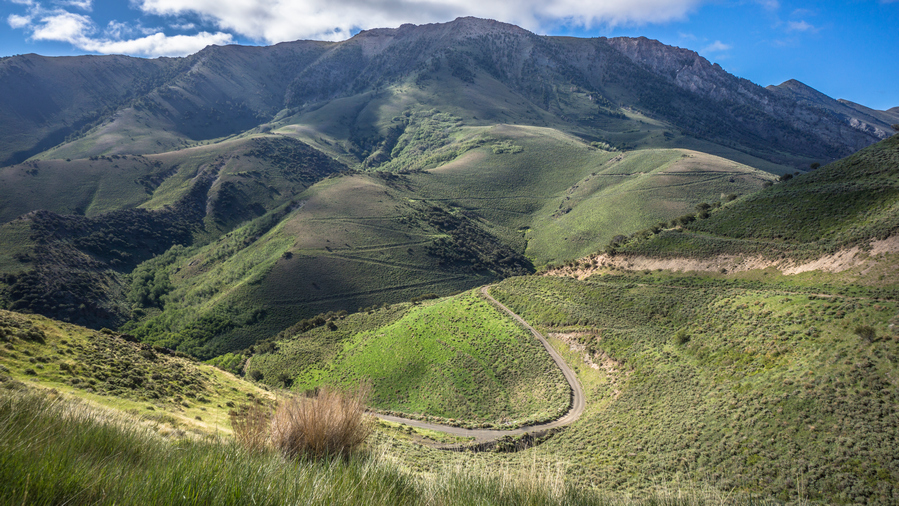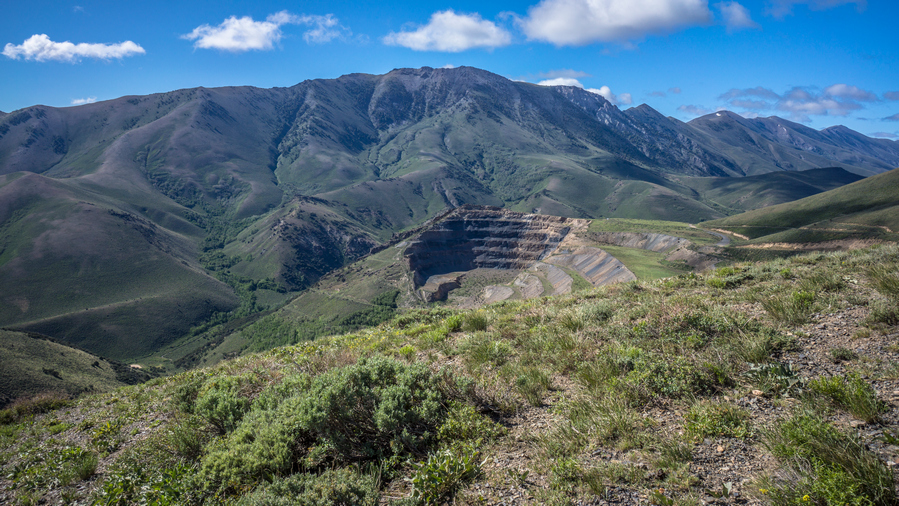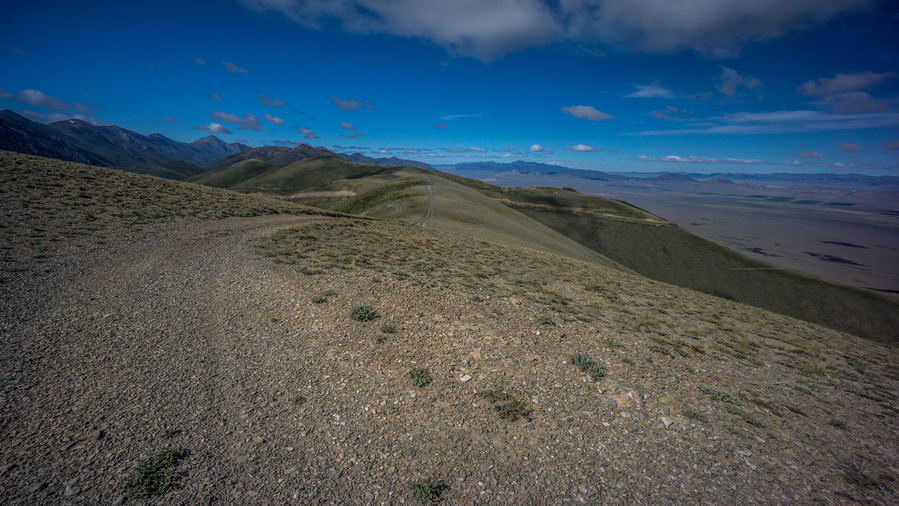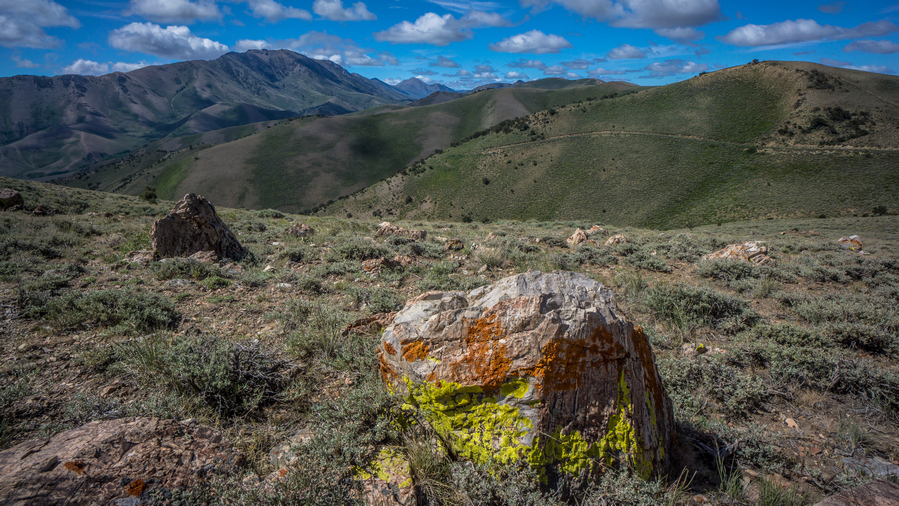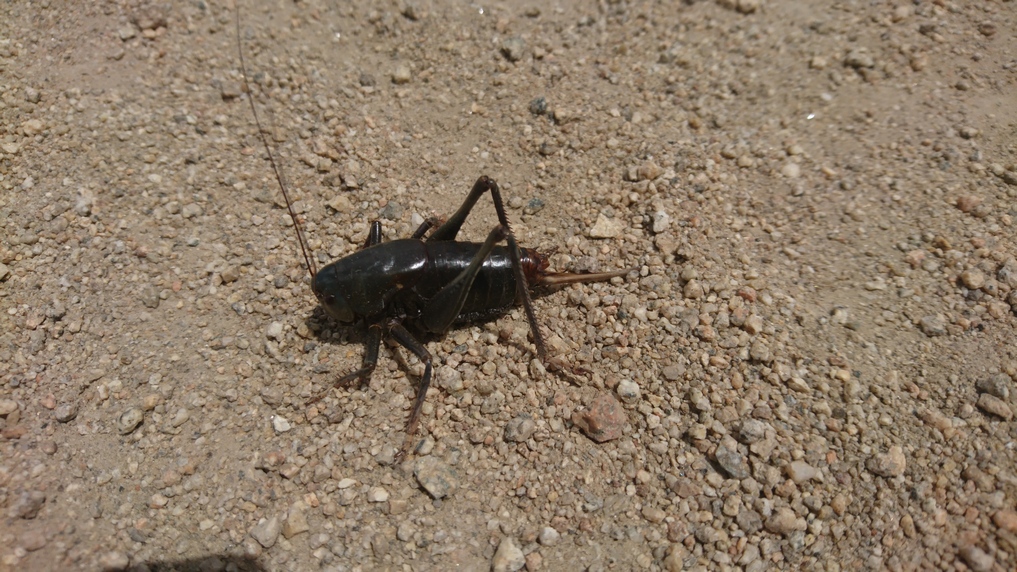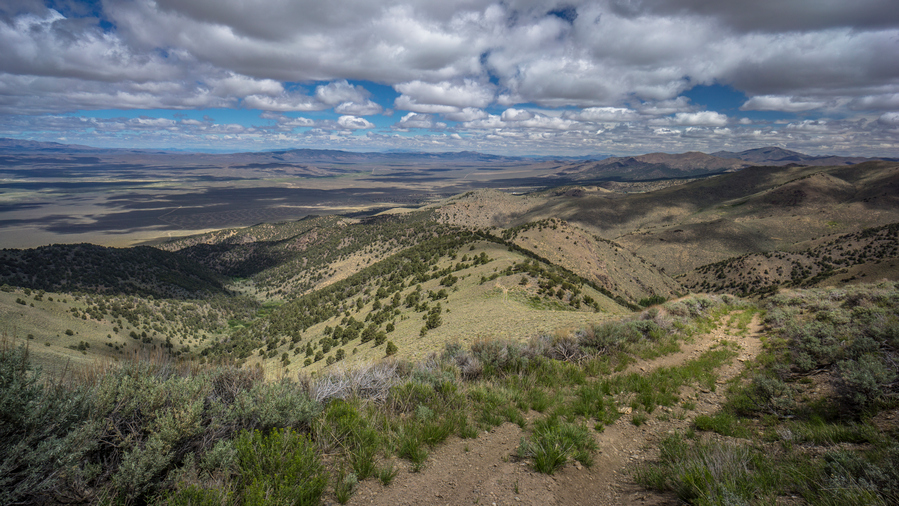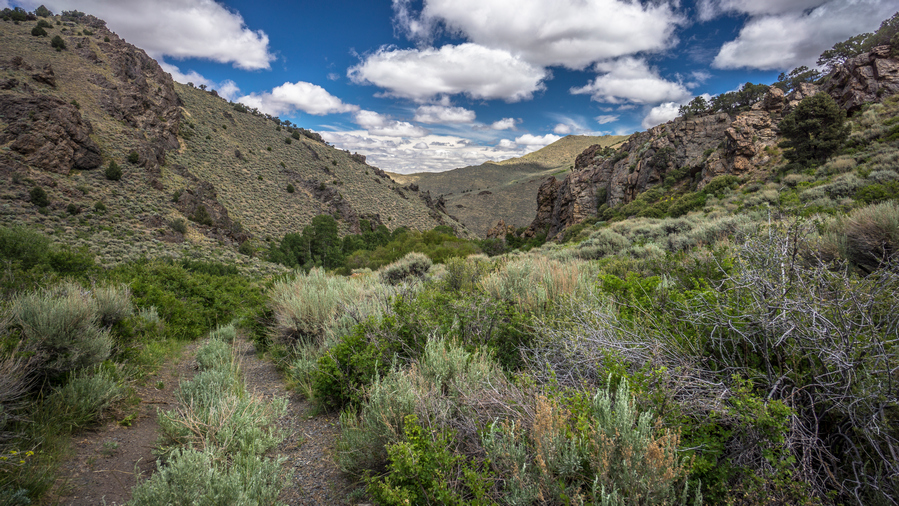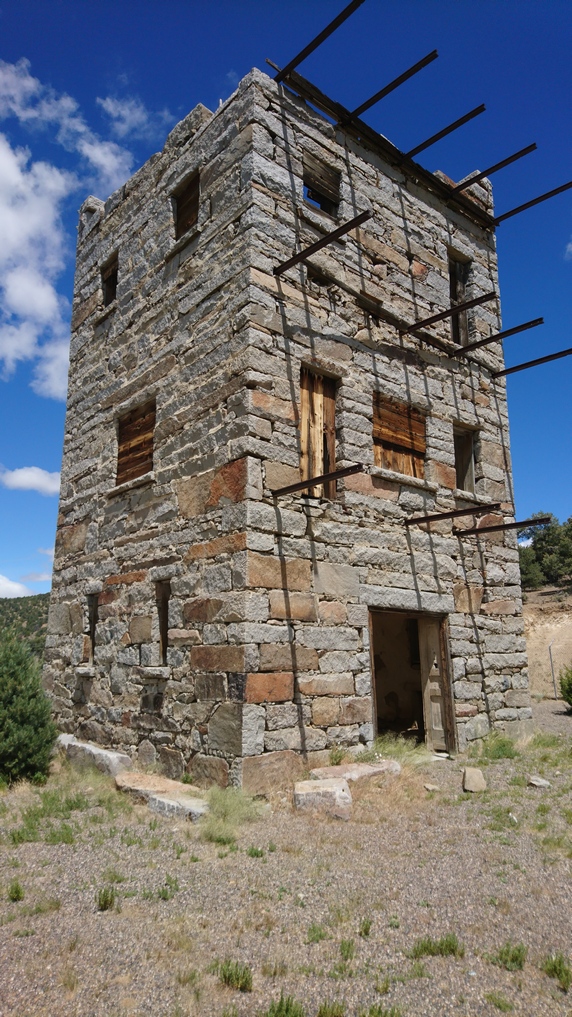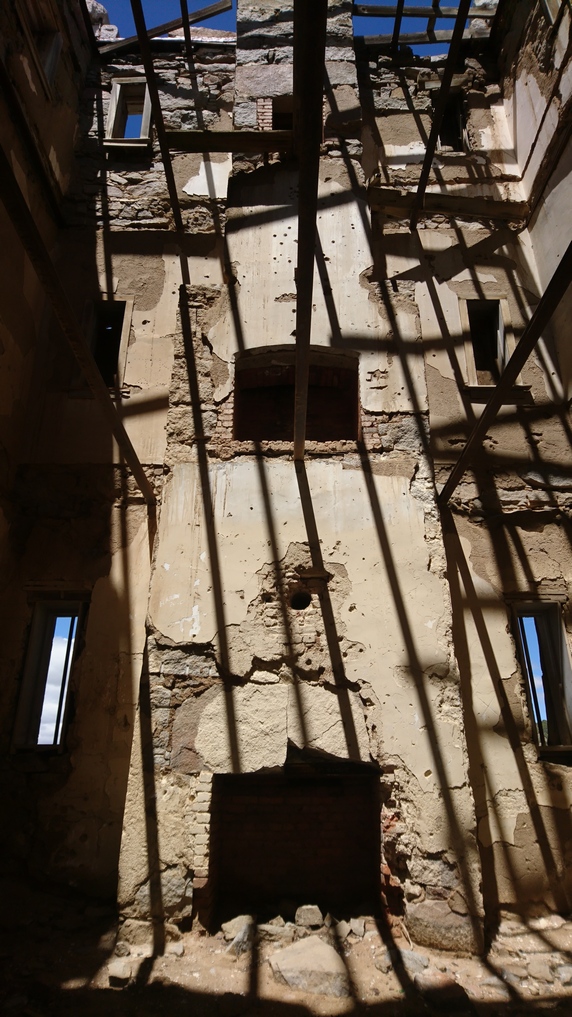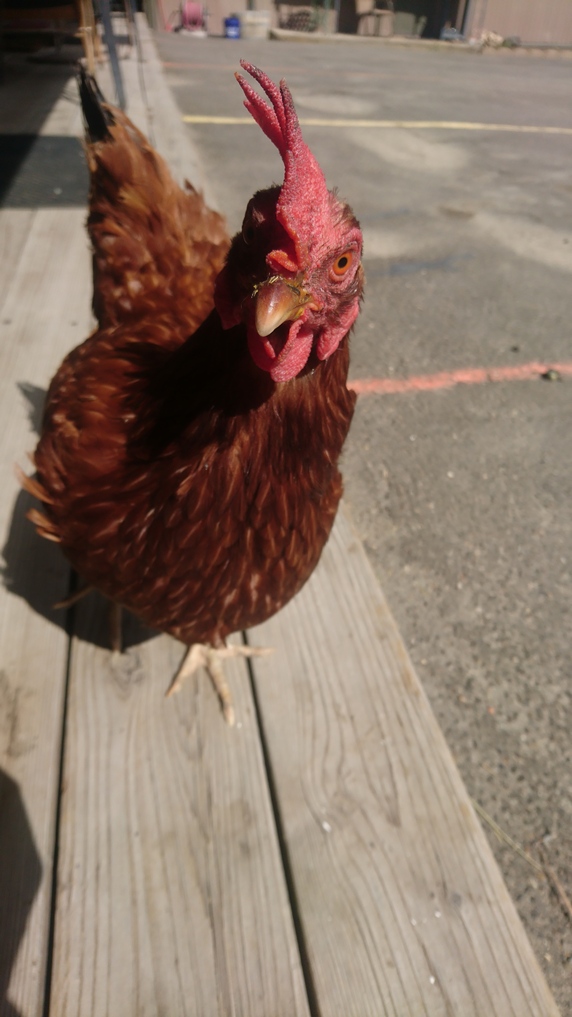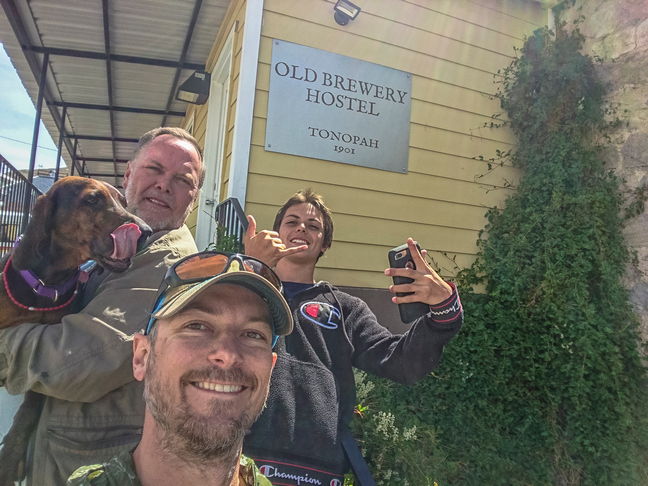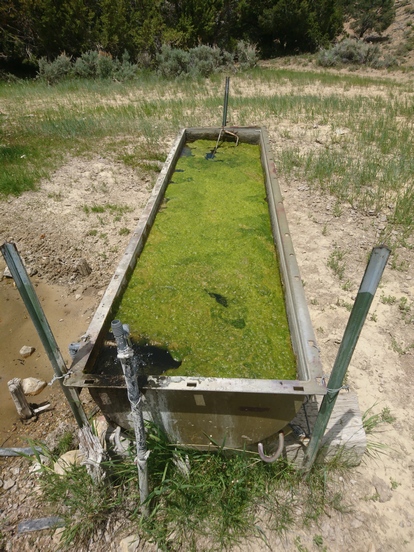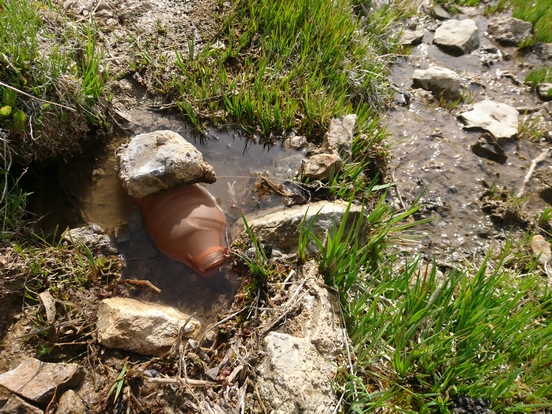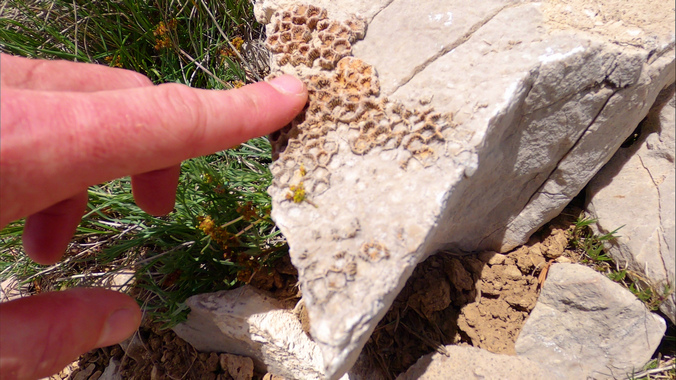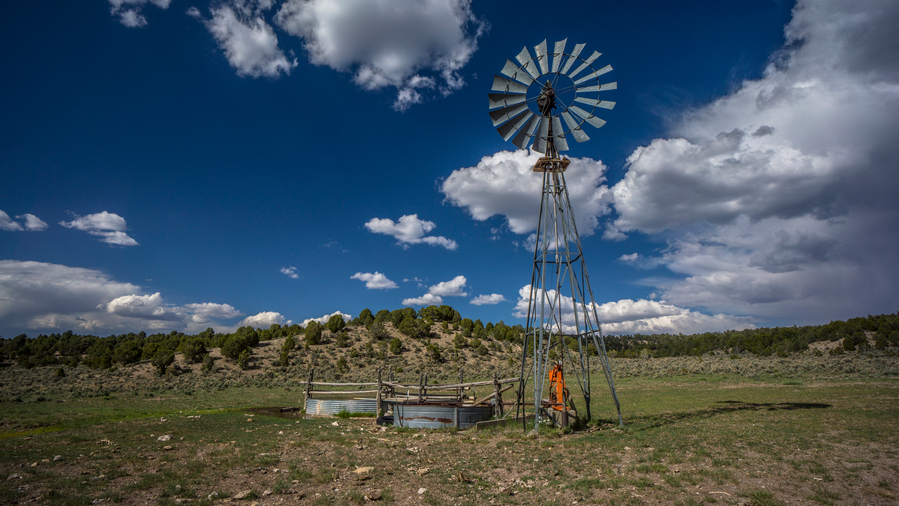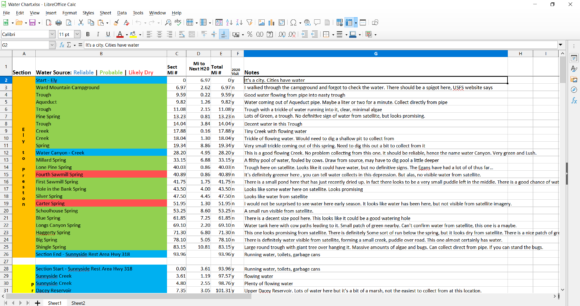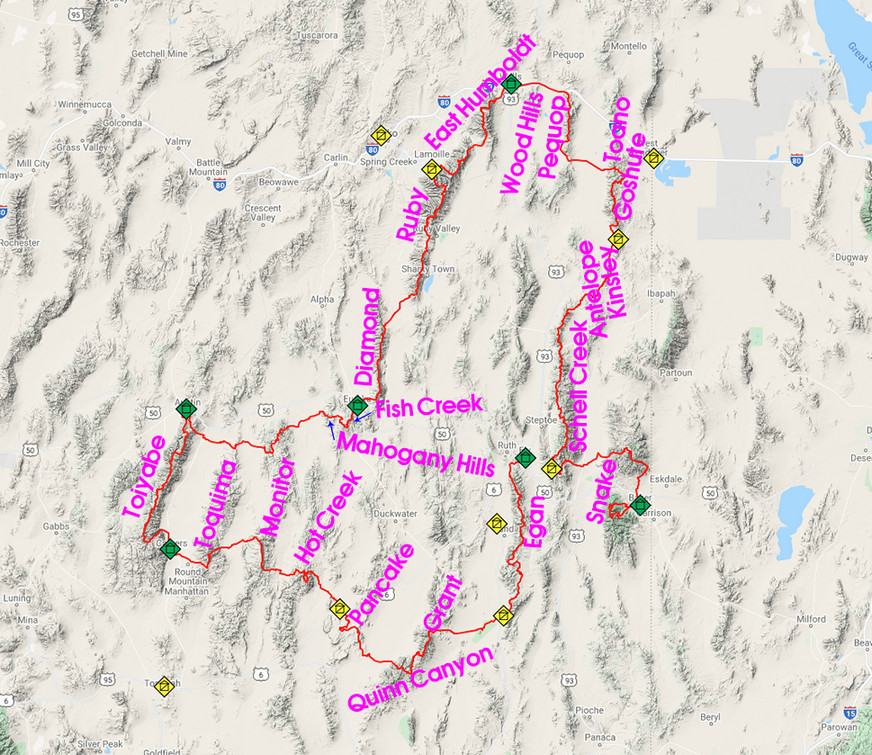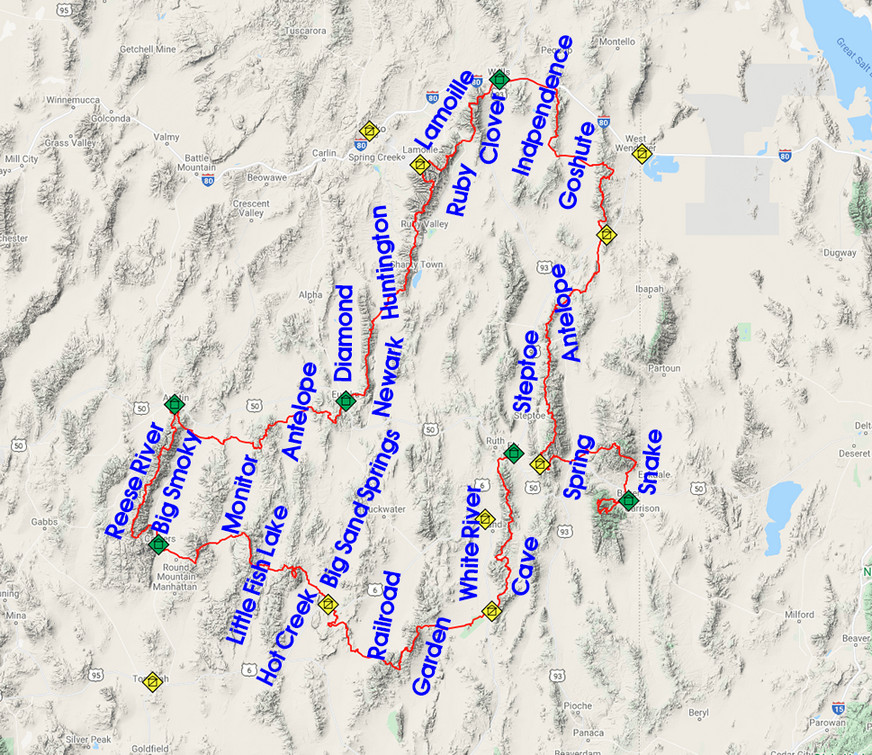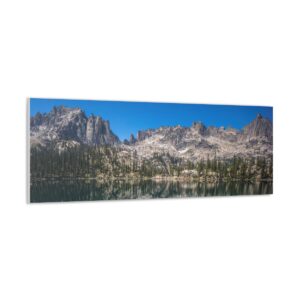Mojave-Sonoran Trail Sees Second Thru Hiker

Congrats to Derek “Bear Magnet” Bowling for becoming the second person to hike the Mojave-Sonoran Trail! In January & February 2023, Bear Magnet hiked his own 360-mile version of the 625-mile MST, from Valley of Fire down to Lake Havasu, and then north back up to Laughlin, NV. While the MST still awaits it’s second finisher of the route’s entirety, this represents the largest chunk of the route that’s been hiked since I hiked it in 2021. Most importantly, this means more beta for YOU, the next Mojave-Sonoran Trail thru hiker!
Naturally, the more hikers who take on the Mojave-Sonoran Trail, the more refined this route will become. Fortunately, Bear Magnet was willing to share his experience on the route, along with his GPX file for comparison. For those of you considering hiking the MRT, you may be interested in reading his impressions of the route, notes etc.
The simplest way to pass Bear Magnet’s notes on to you is to share screenshots of our correspondence. Click on the images below for a larger and more readable version of the images:
The comment that stands out to me the most is this one:
I’ve been Thru Hiking a ton over the last 4 and a half years(over 11k) but this was the first one that felt like a true adventure!
More than anything else, this is one thing that I HOPED to hear as feedback from those who have, and will hike, this route. That’s why I created the Mojave-Sonoran Trail; to satisfy that craving for adventure, that many trails just lack. The best way to do this is to go to remote and beautiful places that few hike, plan something ambitious, and give it a shot. And of course, this is one of the only real options for a winter thru hike, for those seeking warm weather.
I was glad to hear from Bear Magnet and hear his impressions of the route. I was interested to hear what his favorite sections were, to see how the overlap with my own. And I was especially interested in what his least favorite section was. It sounds like it was the Warm Springs Wilderness area, which was insanely rocky and rather monotonous between Black Mesa and Lake Havasu Wilderness. This was one of my least favorite sections, as well. Coupled with some recent scouting trips to the area (from my camper van), I’ve been working on some alternate ideas to improve this section.
The Mojave-Sonoran Trail has so much potential, but could certainly benefit from being hiked a few more times, and along some variant routes to seek improvements. It would also be helpful to hear from more hikers like Bear Magnet as they take on this route. I’ve got some great plans for this route, but together with your help, I think the Mojave-Sonoran Trail can be truly incredible!
Read more about the MST: Mojave-Sonoran Trail Map & Guide
Mojave Sonoran Trail: A 625 Mile Thru-Hiking Route

The Mojave-Sonoran Trail
A 625-mile cross country thru-hiking route connecting southern Nevada to Southern Arizona via the Colorado River corridor
Introduction to the Mojave-Sonoran Trail
The Mojave-Sonoran Trail is a 625-mile cross country thru-hiking route along the Colorado River corridor though southern Nevada, California and Arizona. The MST traverses two distinct desert environments; the 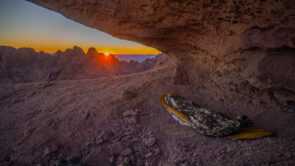 Mojave Desert and Sonoran Desert. This route allows the hiker to experience the transition zone from Mojave to Sonoran desert, while connecting 12 mountain ranges, 12 wilderness areas, 2 National Wildlife Refuges and the massive Lake Mead National Recreation Area in an effort to explore this remote and stunningly beautiful region. Experienced cross-country thru hikers looking for a challenging desert hike that can be done in the winter months will find the Mojave-Sonoran Trail fits the bill, with prime hiking season running from November to March.
Mojave Desert and Sonoran Desert. This route allows the hiker to experience the transition zone from Mojave to Sonoran desert, while connecting 12 mountain ranges, 12 wilderness areas, 2 National Wildlife Refuges and the massive Lake Mead National Recreation Area in an effort to explore this remote and stunningly beautiful region. Experienced cross-country thru hikers looking for a challenging desert hike that can be done in the winter months will find the Mojave-Sonoran Trail fits the bill, with prime hiking season running from November to March.
This region of the country doesn’t get much attention from the backpacking community, but Mojave-Sonoran Trail hikers will quickly discover that they’ve stumbled upon a
hidden gem. Walk the top of massive mesas, the bottom of colorful slot canyons, along the shores of Lake Mead and across vast desert plains. Summit lonely desert peaks, walk among red rocks and sand dunes, through deep canyons and gorges, climb dry waterfalls and walk countless ridges overlooking fairytale-like desert landscapes. Explore old mines, tunnels and caves, find cool rock and minerals, visit hot springs and ghost towns, sleep in old cabins, discover petroglyphs and artifacts. The Mojave-Sonoran Trail route presented here can be hiked as-is, or better yet, used as a blueprint for your own Mojave/Sonoran Desert trek.
Quick Facts
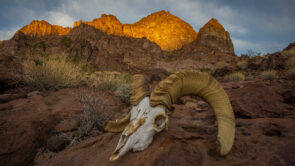
Miles: 625
Seasonality: Nov – Mar
Time to Complete: 5-7 weeks
Highest Point: Spirit Mountain, NV: 5,642′
Lowest Point: Parker Dam, AZ/CA Border: 392′
Mountain Ranges: 12
Wilderness Areas: 12
Trail Journal/Photos & Video Series
Mojave-Sonoran Trail Journals & Photos
Section 1 – Valley of Fire to Echo Bay: 66 Miles
Section 2 – Echo Bay to Callville Bay: 50 Miles
Section 3 – Callville Bay to Boulder City: 40 Miles
Section 4 – Boulder City to Searchlight: 80 Miles
Section 5 – Searchlight to Bullhead City: 58 Miles
Section 6 – Bullhead City to Lake Havasu: 104 Miles
Section 7 – Lake Havasu to Bouse: 92 Miles
Section 8 – Bouse to Quartzsite: 37 Miles
Section 9 – Quartzsite to Kofa: 95 Miles
Join the Mojave-Sonoran Trail facebook group to stay on top of the latest updates and info on the trail, as well as connect with other potential MST hikers.
Type of Hiking
The Mojave Sonoran Trail is a cross country route, not an actual hiking trail. Only about 16 miles of my route was on a hiking trail. The rest was cross country, old two track roads and less frequently, larger dirt roads  and paved roads (minimal). Roughly 40% of the route is cross country (still need to calculate exact numbers). This is a desert route, with elevations ranging from 300-5,600ft. In the Mojave Desert, there is less vegetation to contend with when hiking off-trail. The Sonoran Desert is thicker, thornier and bushier. Occasional bushwhacking is needed, but nothing extensive or daunting. While the emphasis on ridge walks, high routes and peak bagging is always high, this route is also heavily geared towards exploring scenic canyons. In both the Mojave and Sonoran deserts, spectacular deep and colorful canyons are plentiful, and are a main draw to this route. Dry waterfalls are extremely common, and there are perhaps hundreds to negotiate along the way of varying difficulty. No technical gear is needed, although a length of cord to lower your pack when downclimbing is highly recommended. Distance between resupply is 100 miles or less. Big water carries are common.
and paved roads (minimal). Roughly 40% of the route is cross country (still need to calculate exact numbers). This is a desert route, with elevations ranging from 300-5,600ft. In the Mojave Desert, there is less vegetation to contend with when hiking off-trail. The Sonoran Desert is thicker, thornier and bushier. Occasional bushwhacking is needed, but nothing extensive or daunting. While the emphasis on ridge walks, high routes and peak bagging is always high, this route is also heavily geared towards exploring scenic canyons. In both the Mojave and Sonoran deserts, spectacular deep and colorful canyons are plentiful, and are a main draw to this route. Dry waterfalls are extremely common, and there are perhaps hundreds to negotiate along the way of varying difficulty. No technical gear is needed, although a length of cord to lower your pack when downclimbing is highly recommended. Distance between resupply is 100 miles or less. Big water carries are common.
Route Overview
The Mojave-Sonoran Trail is a 600 mile cross country thru-hiking route that traverses the Colorado River corridor though southern Nevada, California and Arizona. In this region of the country, the Colorado River ROUGHLY represents the border between the Mojave and Sonoran deserts. While the route begins in the Mojave desert, and ends in the Sonoran desert, the route often meanders through the transition zone between the two different desert environments, before finishing deep within the Sonoran Desert.
country, the Colorado River ROUGHLY represents the border between the Mojave and Sonoran deserts. While the route begins in the Mojave desert, and ends in the Sonoran desert, the route often meanders through the transition zone between the two different desert environments, before finishing deep within the Sonoran Desert.
The route is mostly cross-country hiking and along old 4×4 roads, with only a few miles of marked hiking trails along the entire route. The route follows the general path of the Colorado River, but seldom does it reach the banks of the river itself. Instead, the route traverses the mountain ranges alongside the Colorado River, with open desert treks connecting these ranges as needed.
Terminus Points
The northern terminus is just outside of Valley of Fire State Park in southern Nevada, about 1 hour east of Las Vegas. The southern terminus is Palm Canyon in the Kofa Wilderness of Arizona, about 1 hour north of Yuma.
Travel to the northern terminus is easy. Fly into Las Vegas, grab an uber to the Hidden Valley exit along I-15, about 45 minutes east of Las Vegas. There’s not much here, but it makes for a short route to some excellent Day 1 hiking along the spectacular Weiser Ridge, overlooking Valley of Fire State Park.
Travel to/from the southern terminus is slightly more challenging. There is ample traffic at Palm Canyon/HWY 95 to hitch south to Yuma, where one can take a plane/train/bus to your final destination. Shuttle service is also available. Call Terri at 951-390-5818 (Faithful Shuttle) to inquire about rates.
Mojave-Sonoran Trail Terminus Point GPS Locations
Northern Terminus: 36°38’10”, -114°35’54”
Southern Terminus: 33°23’19”, -114°13’01”
Pace & Time on Trail
The MST is an off-trail route. Miles can be very slow at times. Additionally, there is limited daylight during the late fall and winter months, which cut into the time a hiker has to cover miles. I averaged 18 MPD, but I also spend about an hour a day filming and taking photos, recording waypoints, documenting water sources, exploring old mines etc. Strong hikers with solid cross-country experience should be able to get 20 MPD or more. Be prepared to be humbled by the occasional 12 mile day, though. I completed the route in 7 weeks, with 9 zero days. 6 weeks would be a good time frame for many hikers to shoot for.
Seasonality
The Mojave-Sonoran Trail is one of the few long distance hiking routes that can provide the hiker a warm climate to hike in the winter months. The MST is not a summer hike, the temperatures are simply too hot. The best time to hike the MST would be between November and March. Choose your state date depending on your tolerance for hot/cold temps.
are simply too hot. The best time to hike the MST would be between November and March. Choose your state date depending on your tolerance for hot/cold temps.
This hike could easily be done in the dead of winter. Water should be more plentiful than the fall. Mild to warm daytime temps, colder nights, and the possibility of a little snow once or twice at the higher elevations (4,000+). These storms generally move through quickly and are not prolonged. The vast majority of a winter hike along this route should see excellent hiking weather.
I hiked this route from Nov 1st – Dec 18th. It was an unusually warm and dry fall in 2021. Temps reached 90 in the Vegas area during the first few days, 80s for the first two weeks or so of November, then mostly 70ish for the duration of the route. Overnight lows were generally no lower than 45 for the majority of the trip, until the last week when the weather finally turned. My coldest night was 21.
Direction of Travel
The MST could be hiked in either direction, NOBO or SOBO. Your start date will have the biggest influence on your direction of travel. Starting Nov 1st, I chose to hike SOBO. This allowed me to have the coolest possible temps for the given time of year, by starting in the north where temps are about 8 degrees cooler on average than the southern terminus. As I travel south, the temps will increase, but they are also declining at this time of year as winter approaches. This allowed me to maintain a pretty consistent climate of 70 degrees or so for the majority of the hike. The opposite would be true starting late winter, closer to spring might consider hiking NOBO to follow the weather.
Those seeking the coolest possible temps will want to hike in December and January. Jan-Feb would be the more realistic time frame for most winter hikers (starting after the holidays), and this would still be a good time to avoid the heat. NOBO makes more sense here as the southern terminus is 12 degrees warmer than the northern terminus during the winter months.
From here on out, the information presented in this guide will be from a SOBO perspective, because that’s how I hiked it 🙂
Route Origins
Until recently, thru hikers seeking a trail or route that could be hiked in the winter months and feature warm weather/no snow had few options. Over the last few years, Brett Tucker has been developing the Desert Winter Thru Hiking Route to fill that void. And it looks like an excellent route that I myself am looking forward to walking someday in the near future. The Mojave-Sonoran Trail is my attempt at the same idea; a warm-weather winter thru hiking route in the southwest.
I got the idea for the general path of the route one day by looking at an elevation heat map of the United States. I noticed the lower elevation along the Colorado River corridor extending as far north as St. George, UT and all the way down to Mexico. Having hiked in the Las Vegas area before, I was familiar with its beauty and ruggedness, and surprised by its remoteness. However, I hadn’t spent much time exploring south of Vegas yet, along the Colorado River. There are practically zero backpacking reports from this part of the country, but the occasional peak bagger’s report gave a glimpse at the potential of the ranges that run alongside the Colorado River. Impressive, indeed. The climate fit my requirements, the terrain looks to be beautiful, and the region is lightly traveled. After mapping the most interesting route I could string together and plotting water sources, it all came together to become the route I present here; the Mojave-Sonoran Trail.
Mojave-Sonoran Trail Map
The Mojave-Sonoran Trail map is the main planning resource. Here, nearly everything you need to know about hiking the MST is presented in the map. Unfortunately, when linking to the map, the default view has all of the waypoint labels visible on the map, making it too cluttered to really view. You can download your own copy to work with. Read on to learn more.
How to use the Mojave-Sonoran Trail Map
To ensure you have the most up-to-date version of the map, view the Mojave Sonoran Trail Map in Caltopo and click “export” to download your own copy. Export the GPX format to use in a garmin device or on your phone, but if you plan on editing your own copy of the MST map, I recommend exporting the map in the JSON format. This retains all of the waypoint info that is useful… color-coding of water sources, different icons for campsites, water caches etc, different track colors for the main route vs alternate routes, and more. Next, upload your JSON (or GPX) file to caltopo (or Gaia, etc) and edit away! You can later export a GPX file from caltopo for your device when ready.
You can also download the Mojave Sonoran Trail GPX file. However, keep in mind that the GPX file here will not be as up-to-date as visiting the caltopo link above and exporting your own copy. Changes made to the Mojave-Sonoran Trail caltopo map will instantly be pushed out to anyone visiting the caltopo link. Updating a downloadable GPX file (like the one above) requires manually replacing the GPX file every time a small change is made, and that is not an efficient way to bring you the latest updates.
Here’s a breakdown of the caltopo map “categories” to help you make sense of the information presented on the map:
- MST 2.0 – This is the current suggested MST route, with revisions from the first passage
- Resupply, Terminus – View Resupply points, hitching locations, terminus points, etc. Resupply points/town are green, hitching points are yellow
- ALTs – Alternate routes. Mostly untested
- POIs – Points of interest… peaks, arches, caves, etc
- Water – Color coded by probability of having water. Blue = Definitely, Green = Maybe, Black = Dry
- Markers – Various waypoints to be aware of
- Mines & Rocks – Info on abandoned mines and old prospects along the way, for rockhounds 😎
- Cache – Suggested cache locations
- Boundaries – A waypoint to mark when you enter/exit a new land administration type
Land Administration
Land Administration along the route falls into two main categories: BLM land and National Recreation Areas/National Wildlife Refuges. Both of these can include wilderness areas. Much of the route through Nevada traverses the Lake Mead National Recreation Area, making up the first half of the MST. South of the Nevada section, the second half of the MST is mostly on BLM land, and much of this is through wilderness areas.
Land Administration Breakdown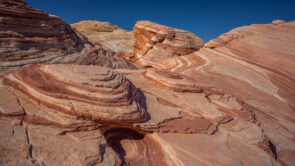
- Wilderness Areas: 12
- Wilderness Study Areas: 1
- National Wildlife Refuges: 2
- National Recreation Areas: 1
- National Monuments: 1
- State Parks: 1
- BLM Land
- Arizona State Trust Land
Permits
The majority of the first 300 miles or so are through the Lake Mead National Recreation Area. The $80 annual National Parks pass gives you entry to Lake Mead. You won’t need to show the pass to enter the park on foot, because you won’t be stopping at a booth along the road, but if you get stopped for any reason, this pass is what you need to have to be legal. You can buy this in person at the fee stations at the entrance to the Lake Mead NRA. Not all locations are manned, though. The stations on Lakeshore Rd (east of Boulder City) and on E Lake Mead Parkway/Lakeshore Rd just east of Lake Las Vegas were both manned when I passed through the area, but the stations near Moapa Valley might be open and unmanned.
Additionally, there are small sections (a few miles) of Arizona State Trust Land that require a $15 annual permit, which can be purchased online HERE. Law enforcement on Arizona State Trust land is, to the best of my knowledge, not limited to one agency. Instead, the local sheriff, BLM or whoever has the authority to cite a person for not having the necessary permit. With that said, there are only a few miles of hiking on AZ state land, and it’s highly unlikely that you’d see another human along any of it. Just know that to be legal, you need the Arizona State Trust Land permit.
Water Availability
The Mojave-Sonoran Trail is the driest route I’ve ever hiked. 2021 was an unusually warm and dry fall, which definitely impacted water availability for me. Many springs and guzzlers that would probably be reliable, were not because it was such a dry year. Still, the route presented here has been hiked successfully, thus proving its viability for sustaining a thru-hiker even in the driest of times. While the Mojave-Sonoran Trail will always be a dry route, experienced hikers should have no problem making the water sources along the MST work for them with proper planning. 160+ water sources have been identified along the route, with notes of field observations.
Water can generally be acquired once a day. The biggest carries span two days. Although the route follows the Colorado River, it’s usually not close enough to be used as a water source. Along the first half of the route, the river can be used as a lifeline in case you get into trouble… if you can get down to the water, that is.
Water along the Mojave-Sonoran trail comes from a variety of sources. Lake Mead and the Colorado River are only occasional water sources. Water can be found in springs, troughs, wells, guzzlers, campgrounds, and strategic stops through small towns or a small business. In a few select locations, such as Valley of Fire State Park, tourists are plentiful, and you can pretty much count on being able to yogi some water. Additionally, caching water ahead of time can drastically reduce the length of water carries in some sections. Small game guzzlers in Nevada offer a potential water source, if you can get to the water. These often require crawling under an awning about 18 inches off the ground, tying a cord to a wide mouth water bottle filled with rocks for weight, and chucking the bottle into the guzzler’s underground collection tank in order to retrieve water. Slow and tedious, but a viable way to extract water from these critical water sources.
What is the longest water carry?
My longest water carry was a result of two water sources not working out for me. I hiked 50 miles on 5L of water over 2.5 days in section 5, Searchlight to Bullhead City. I would now recommend placing a water cache along this section to reduce this carry to a more reasonable 30 miles or so. And in-between that, a small game guzzler exists that could yield some water with a plan to access it (the small game guzzlers are tricky). Ultimately, how long your longest water carry will be depends on whether or not you will be caching.
If you were to cache water at all of the suggested locations, the longest water carry would be:
32 – Section 5, in between Searchlight and Christmas Tree Pass. Two small game guzzlers along the way, but water extraction could be difficult in dry years. The guzzlers would reduce the carry to 19/20 miles, and may have water in wet/normal years
31 – Last 31 miles of section 6, Lake Havasu Wilderness. Unverified Spring along the way, 1 mi off route. Option to detour to Colorado River for water (1 mile) about 10 miles into this carry. Option to end this section at 16 miles into carry
27-30 – Section 7, Whipple Mountains. Water may be found at mile 27, if not at mile 30. No option to cache along this route
25 – Section 7, final 25 miles to Bouse. Very flat, easy miles
23 – Section 9, final 25 miles to end the hike.
If you don’t cache at any of the suggested water cache locations, you longest water carries would be:
35 – Section 1, days 1 & 2. Option to yogi water from some of the only day hikers you’ll see on this route (easy) at mile 25. Caching splits this up to ~17 miles
31-40 – Section 4, Gold Strike Hot Springs to Nelson. Caching reduces the carry to ~19 miles
45+ – Section 5 is full of unreliable water sources. It could be 45-50 miles to Lake Mojave for water if you can’t get water from small game guzzlers, if Sacatone Spring is dry and potholes are dry Cache at Christmas Tree Pass to mitigate this risk.
52 – Section 6, Warm Springs to Lake Havasu City. Don’t freak out about this one. There are many options to make this carry much shorter, but you need to look at the map and pick one of the options yourself. An alternate to a truck stop, an unverified spring, detour to the Colorado River, and cutting miles off the end of this section are all options to reduce the water carry mileage. You might not want to cache here at all, but it’s an option.
Typical/most liters of water carried?
On average, I was expecting water once per day, and carried 5L… 4 for one day, plus an extra liter in case it takes a little longer. The most I carried was 8L, for two days. Future hikers can benefit from caching at a couple of locations I didn’t, as well as benefiting from having some beta on water sources along the route in the form of the Mojave-Sonoran Trail Water Chart.
Caching Water
Caching water ahead of time at a few key places along the route is a good option. For those flying into Vegas, you can rent a car and drop off water over the course of 2-3 days. This also gives you a chance to scout the route a little, and some of the towns along the way. Not caching water would result in water carries of 2+ days in a couple of places. The route is still doable without caching, but caching water certainly makes it easier. Suggested caching locations are marked on the Mojave-Sonoran Trail map for reference.
Mojave-Sonoran Trail Water Chart
I’m working on releasing some sort of water chart for the MST, but for now, you’ll need to do the leg work yourself to determine distance between water sources. Just use the “profile” function in caltopo to read the mileage of each water waypoint, and the mileage to the next one. All of the water waypoints have notes from field observations in the waypoint descriptions. This is what the info in the water chart will eventually be populated with.
Water sources that I’ve personally visited will have notes describing what I saw. Water sources I did NOT visit will still have notes, based on what I saw from satellite when I researched them prior to my hike, and any other sources of information I could fine (water report, etc).
Resupply Strategy
Resupply on the Mojave Sonoran Trail has been broken down into 9 sections, with 8 resupply stops. Much of the Mojave-Sonoran Trail can be hiked without the need to hitch into town for resupply. It’s a 4 mile hitch into Bullhead City, if you want to. The only place it would be truly necessary is 14 miles into Quartzsite.
Mojave Sonoran Trail Resupply Strategy Spreadsheet Download
I use a spreadsheet to organize my plans for resupply along my long hikes. It gives me a quick way to refer to all of the information I need on the go. I just load the spreadsheet on my phone and refer to it as needed. You can download my template to get started, and modify it to fit your plans:
Resupply & Logistics Tips
Before the hike, it’s recommended to cache water (and possibly one box of food) along the route if you can. If you are driving your own vehicle to Vegas to start the hike, this will be easy for logistically, having your own vehicle. If you are flying in, you can rent a car for 2 days or so to make the drive to the cache locations. This route can be done with no caching, but that will result in longer water carries. That would mean 2 days of water vs one day in a few locations. I did two day carries in many locations, so it’s possible without caching if you aren’t able to do that pre-hike.
Sections 1-3: The most difficult sections to resupply are at the beginning of the hike, in the Lake Mead National Recreation Area. At the end of section 1 (Echo Bay) and section 2 (Callville Bay), resupply options are limited. Echo Bay used to be thriving, but the low water levels of Lake Mead have left the place largely abandoned these days. To a lesser extent, Callville Bay was also effected, but had held on more than Echo Bay. It’s 156 miles from the northern northern terminus to Boulder City over 3 sections, and there are a couple of options for resupply during this stretch:
- Leave a food box at Echo Bay. There is NO MAIL here, so you must drive here before the hike and visit in person, unfortunately. Try to leave a box with the store clerk, RV park camp
host, etc. If that fails, try stashing your food in the abandoned motel next to the c-store. Make sure to use odor proof bags if doing this. Caching food by burying it is not specifically listed as prohibited on the Lake Mead National Rec Area’s website, but because it’s federally owned, you can bet it’s not allowed. I haven’t clarified this yet, though. You will want to cache enough food to last to Boulder City for sections 2 AND 3, minus basic c-store snack items like nuts, chips, jerky and candy from Callville Bay’s Marina Store. You can also get a hot meal for lunch or dinner here at the restaurant, so factor that into your resupply plan as well.
- Skip Echo Bay, and hike 111 miles from the northern terminus to Callville Bay. From there, it’s about 40 miles from Callville Bay to Boulder City, a two day walk. Callville Bay Marina Store offers chips, jerky, candy, nuts etc, not much else for food. They do have a restaurant for lunch and dinner. From the northern Terminus, you could bring enough of your staple food items (that you can’t get at Callville Bay) to last to Boulder City, and use Callville Bay to resupply basic c-store snack items, and pig out at their restaurant.
- Hitch into Overton to resupply (full grocery store). The best place to hitch into Overton would be along Northshore Drive, before hiking towards Echo Bay. This is roughly 50 miles into the hike, with about 105 to reach Boulder City, the next full resupply opportunity. Hitching is difficult here. Most people driving around here aren’t heading into Overton. Getting a hitch back out to Echo Bay is even harder. But it is possible. By hitching into Overton and resupply at 50 miles in, you could carry food for sections 2 and 3, over 105 miles, minus the food you can eat at Callville Bay’s restaurant and the snack items you can buy there at the Marina Store.
Boulder City: Once you reach Boulder City, your resupply and logistics for the rest of the hike is a little easier and more straightforward. Boulder City is a full resupply, with an Albertsons and everything you need. Since Searchlight, the next town stop, only has two c-stores (no actual grocery store or market), you might consider sending yourself food items from Boulder City… the things you can only find in larger grocery stores. Send to the PO if you think you’ll get there during operating hours/days, otherwise, call one of the two hotels and ask to send a box. I recommend starting with the El Rey motel first, and only considering the BV Motel as a last resort. That place is wild, and not in a good way.
Searchlight: This was not my favorite town stop. The town is rundown and appears to be a high crime place. Everything you need in town is within two blocks though… two C-Stores, McDonalds, Denny’s, PO, 2 motels. Full resupply is not really possible here. but it’s only 2.5 days to Bullhead City… so if you aren’t picky, you could do a combination of McDonald’s food and gas station stuff and probably make it work. However, the recommended strategy would be to send a food box from Boulder City that has anything you can’t get here. The El Rey Motel was booked, so I had to stay at the BV Motel next door. This place was cash only ($60), dirty, and full of oddities. For example, the full size mattress on a twin size box spring… the mattress hangs off the edge of the box spring. Door knobs under the bed, no shower curtain, dirty, no wifi, can see under the front door, just a weird place. In the distance, a man with the most shrill, frantic voice I’ve ever heard was screaming for hours about how he was going to kill someone. The good news, this motivated me to not take a zero, and just leave the next morning.
Bullhead City: Everything you need, but unfortunately, the layout of the town is spread apart. All the hotels are in one place, the restaurants in another, grocery and retail stores somewhere else. Uber and Lyft operate here, and there is also a bus (red route) that runs once per hour. Apparently the Post Office is pretty bad here (read the google reviews before sending anything), so it would be best to send packages to a motel instead if needed.
Lake Havasu City: This section has a few different alternates and options. Cold Springs Station (40 miles into this section) offers chips, jerky, a few candy and snack items, soda… maybe enough to be considered “lunch”. Around mile 60 into this section, there is an option to take a 6.6 mile alternate route to a truck stop/travel station with multiple fast food restaurants, shower and typical large c-store food items. This route would add about 4 miles to your overall distance. It would also mean that those 4 miles would be paralleling Interstate 40, so keep that in mind. Lake Havasu City is a large (55k population) and sprawling city. The ideal location to stay is near the London Bridge… this is right next to the docks for the ferry across Lake Mojave to start the next section, there are multiple grocery stores, hotels, PO, restaurant, etc. Lake Place Inn offers cheaper rates, and is 1.5 miles from the Havasu Landing Ferry.
Bouse: After crossing the Parker Dam (must hitch across, no pedestrians allowed), you’ll reach the Hez-ron gas station/C-store, around 45 miles into this section. Typical c-store food, with some microwavable items like burritos and hot pockets. The owner is not very welcoming, and will insist you remove your pack and put it behind the counter while in the store. This doesn’t stop him from staring and scowling, though. Not a pleasant man. It’s unlikely he would let you use his hose or spigot for water, but you can always just buy a gallon of water from the cooler. In Bouse, resupply options are slim. The Coachman Cafe is only open until 2:30pm, and closed Mondays. You can get a meal here, but you better hope you have the same political affiliation as the owner. Yeah, it’s one of those kind of places. The Somewhere Bar has food too, and is open to 6pm, but is a little farther away. A Family Dollar exists, and a small store called the Roadrunner Market. The Market has a small selection of grocery items, probably enough for most people to cobble together 2 days of food. If you have any doubts though, you can send a food box to the Bouse PO. The worst part about Bouse is that there is nowhere to stay the night and get a shower. The Bouse RV Park refused service to me because I was in a tent. Yup! There’s the Just For Fun RV Park across the street, but they have no shower. What’s the point, then? There’s the Bouse Community Park about 1.25 miles west of town on Plamosa Rd. but they also don’t have showers, and charge $14 a night. There is a day use area here where you can fill up water, use the bathroom, and a pavilion with electrical outlets that were OFF. The camp host was unfriendly, circling a bunch of times in her golf cart before finally approaching and saying “you know this is a day use area, right? You need to be gone by dark”. Geez. Bouse was hands down the least welcoming town stop I’ve ever had as a hiker. Fortunately, Bouse is a great town to get what you need quickly and walk out without staying the night. BLM land is right across the street from the Bouse Community Park, camp there for free and move on.
Quartzsite: Quartzsite is a weird town. This area is home to a massive influx of RV campers who spend the winter in the desert nearby, to the tune of about 250,000 people a year. The entire town is a mixture of trailer parks and flea markets. Quartzsite has everything you need, though. The Super 8 Motel is located on the far west side of town, far away from everything else. There is also the Stagecoach Inn which is much more centrally located. In addition to these two hotels, you might find a room to stay in for the night by walking the streets near the flea markets, there are signs advertising rooms, showers etc, despite not showing up on internet searches for motel rooms. The Camel Express (Quartzsite public transportation) bus provides transport across the city, anywhere you want to go, for $.50 each way. They will make multiple stops along the way for you too, while you run into a store, they will wait. Call (928) 927-4333, Option 3 to schedule a ride. There are multiple small markets, but the Roadrunner Market is probably the best stocked. Still, the selection is thin, barely meeting the threshold to be called “full resupply”. They don’t have basic things like whole wheat bread, tortillas etc. Between the Roadrunner, Family Dollar, Coyote Fresh Foods and multiple C-stores, I’m confident you will find Quartzsite to be a full resupply city, albeit just barely.
Gear List & Recommendations
A link to my lighterpack gear list: https://lighterpack.com/r/4aj6eq
The Mojave-Sonoran Trail is a pretty easy hike to pack for. The weather is very consistent and generally warm to mild. Winter hikers will want a 20 degree bag, and fall/spring hikers will probably be good with a 30 degree bag. For my hike (Nov-Dec) I used a 40 degree bag, and only regretted it one night, the rogue cold night of 21 degrees. I used a Tarptent Notch Li tent, and cowboy camped maybe 1/3 nights. I was debating whether or not to bring a foam sleeping pad, but went with my thermarest neoair inflatable. I’m glad I did, because it held up pretty well. I got a couple of pinholes along the ay, likely from one or two campsites, and just patched them in town when I got to a bathtub to submerge/test it. Make sure you carry a patch kit if you bring an inflatable!
This is a desert hike, so go light on the rain gear. I carried a zpacks Vertice rain jacket, and carried no rain pants. Wind Pants like the EE Copperfield pants would work well for what little rain you would possibly encounter, if you wanted to bring a pair.
This route will have you using your hands quite a bit. Not only for climbing, but on bushes and branches, and cacti (inevitably). I recommend some type of gloves to protect your hands. I’m using the Fish Monkey fingerless gloves, which I find almost perfect for this type of thing. Fingerless is a must for me for using electronics, and these are thin and flexible enough to not be cumbersome, yet still provide plenty of protection.
I went through two pairs of Brooks Cascadia 13’s on this hike. Yup, still rocking 3 year old shoes, I buy them cheap after the new models come out. I lost like 70% of the tread on my shoes on day 1, due to some razor rock (limestone) along Weiser Ridge near Valley of Fire. There are parts of this route that will eat up your shoes, so be prepared to swap them out half way, perhaps Bullhead City or Lake Havasu.
TIP: Bring an end-of-life pair of shoes for the first day of this hike, since you’ll eat all of the tread on new shoes on Weiser Ridge (Day 1). Carry your new pair of shoes until day 2 when you get to the trailhead in Valley of Fire State Park, throw out your old ones here, and carry on in your new pair.
Some sort of pre filter is a good idea to have in your water filtration kit. I use women’s pantyhose for this. Weighs nothing and works well. Use your hand to spread apart the fabric when filtering water to allow it to seep in. You will also need to have a plan to draw water from the small game guzzlers along the route. For example, mine included a wide-mouth Gatorade/Powerade bottle and cord. I also use the cord to lower my pack on downclimbs.
Mojave-Sonoran Trail Thru Hike 2021 – Section 9: Quartzsite to Kofa

Mojave-Sonoran Trail Thru Hike 2021 – Section 9: Quartzsite to Kofa
Mojave-Sonoran Trail Section 9 Map
Mojave Sonoran Trail Thru-Hike Section 9 – Quartzsite to kofa, 40 Miles
The above map only represents represents section 9 of 9 on the MST. For a more detailed map and general route info, see the Mojave-Sonoran Trail Guide page.
Mojave-Sonoran Trail Section 9 Journal
Day 40 – December 12th
Miles: 10.9 (half day)
Animals Seen: 4 bighorn sheep
I had a ride scheduled back out to the highway where I left off for 8:30 this morning. I packed up my stuff, stuffed my face with as much food as I could, and hydrated with two liters of water. Got down to the hotel lobby and my ride didn’t show up until 10:30, so that’s a good chunk of time missing from my day. Still, I figured this is better than hitching since I would have to get a ride down the interstate which is very hard.
The shuttle driver dropped me off along the off-ramp exit from Interstate 10 to highway 60. It’s nothing but desert along the road here. “Right here will do”, I said.
Of course, this is very strange to most people, and I love the reactions I get. I got out and started walking south into the desert. My pack was heavy, with 6L of water and 7 days of food. Probably more than seven days of food actually, I went a little overboard on this one.
My original plan was to follow the highway West a bit and then cut south along a dirt road on the map. However, that would easily add two or three miles to the hike. It’s hard to know ahead of time what things will look like and what the terrain will be, but once I was here and got my eyes on it, I decided a cross country Trek directly towards my destination would do just fine. So that’s just what I did; set a course for Black Mesa and go.
It was cross-country hiking at first, until I met up with a wash. There were tire tracks here, and leading the direction I want to go, so I followed. A few miles up, I saw a sign marking the 4×4 roads. Interesting, because these roads were not on my map. And really, one shouldn’t use the word “road”. It’s just a wash with lots of gravel. It’s pretty open and clear, but sometimes the loose gravel is tougher to walk then it would be to not walk on the “road”.
The scenery was pretty nice leading up to Black Mesa. Despite the loose gravel, it was pretty easy walking and I couldn’t complain. The wash eventually narrowed, became thicker with vegetation, and presented a few pour offs to climb. Easy though, no biggie.
I reached a point where it was no longer worth staying low in the wash, it was too difficult. I climbed up to the Ridge above and continued to make progress that way. Out of the wash and on top of the ridge now, I followed it uphill some more before I had to drop down into another wash on the other side. Black mesa was getting closer, and the views were nice. There were lots of basketball sized rocks to step over with tons of cactus in between. An obstacle course.
As I entered the new water mountains wilderness, I joined an old dirt road leading up to black masa mine. My notes list a bunch of interesting minerals here, and it’s time for a lunch break. I brought way too much food for this section, including some leftover town food such as pizza and chicken strips. Great lunch, and I poked around through the tailings while I ate.
After lunch, I explored a couple of the mining tunnels into the mountain. There were several openings, and most of them link up underground. There were a couple of different tunnels to explore. I found one interesting specimen that I kept, hoping to identify it later. It featured metallic red and yellow colors that I have not seen before. Pretty cool.
After leaving the mine behind, I continued uphill past the point where the road ends. This climb was easy in the sense that it wasn’t too steep, but tough because of the thick brush among large boulders, in addition to my heavy pack.
I reached the top of the Mesa, and the view was pretty much non-existent at first. A slight uphill grade hides the horizon, and the terrain is still choked with vegetation and boulders. I need to climb the high point to see what I’m working with here. Another 50 feet of elevation gain and I’m there. I was surprised to see a large rock cairn at the top, and there was even a summit register in a glass jar. There are almost no signs of use leading up here, no path or cairns along the way. The register had two entries from 2021, and nothing prior.
I could see the Kofa Wilderness to the south, and the new water mountains to the northeast, where I’m headed next. But first, I head east across the Mesa towards its twin. It looks like part of the same Mesa from here, but a canyon separates the two.
I was hoping the Mesa would be more clear and open, easier to walk, but it really wasn’t what I’d hoped for. When I did reach the canyon, my first thought was how much deeper and steeper it looked then the map implies. I need to find a way down this thing.
I worked my way around the edge of the mesa until I found a weakness. I followed this down into a side canyon that I would take down to the main canyon separating the two mesas. However, it’s steep and the rock is loose. I fell a couple of times, despite moving slowly and being aware of the dangers.
After a tedious and treacherous decent, I reached the bottom. My original plan was to go back up and walk the other Mesa as well. This too would involve some treacherous hiking to descend the other side, judging by the maps. With less than two hours of daylight left, I chose to skip the second Mesa. This too had its challenges. I briefly walked the canyon uphill, which forms a saddle at the top. Descending this also looks like quite a chore.
I started Contouring around the hillside more than simply descending. I fell again, this time I felt lucky to have not tumbled and hurt myself. Loose rock gave way and I Tumbled backwards, falling on my ass. My hand struck a cactus, but Thankfully not a cholla. Whew. Getting tired of these falls, though. There weren’t many other places along the route that compare.
It was slow going on the descent here. Time is ticking away and I’m still quite far from the bottom. I found some interesting quartz veins on the way down as well which further distracted me. There were a couple of small crystals, well-formed and excellent clarity. Didn’t have time to find anything worth keeping though, at least not without any tools to utilize here. I saw another 3 big horn sheep as well.
Like most nights, I found a suitable camp with only a few minutes to spare before dusk. I was glad to be off the slopes of the mesa and ready to ditch my heavy pack for the night.
Day 41 – December 13th
Miles: 14.6
Animals Seen: Bighorn sheep
The wind started picking up as the sun rose. This made packing up camp a bit of a chore. It also made it feel Cold, even though the coldest overnight lows are still to come in the next few days.
This morning’s walk picked up where last night’s challenges left off. It’s off trail, the terrain is Rocky, and the vegetation is often thick. It’s a pain in the ass.
It wasn’t long before I reached a dirt road. What a relief. I could cover some ground now, and do so without tripping every other step, sliding on loose rocks, and dodging cacti. No matter how you slice it, the next several miles will be less interesting as I move between black mesa and the new water mountains, so I might as well do it efficiently.
I reached the Ramsey mine, where the map marks a water tank. However, there was no water here. There was one spot it looked like it could have held water at one time, an Earthen berm with the remnants of some sort of black liner. This would have been many years ago though, nothing recent.
The mine itself featured a couple of vertical shafts and a wooden structure. I poked around the tailings for a bit, but didn’t find anything that caught my eye.
Leaving the mine, I followed a road that heads towards the New Water Mountains. This was an open desert walk through the foothills of the Plamosa and New Water Mountains. Somewhere along this section is the transition between the two mountain ranges.
As I approached, mountains grew taller and their character began to show. Some impressive formations, both near and distant. Twin peaks is the closest, and it dominates the view here. My route wraps around Twin Peaks, and it’s a great view from every angle.
Just below twin peaks, I encountered a guzzler. This one was actually a combination of a permanent guzzler and a more temporary one. I’m guessing that the permanent guzzler has been running dry, and so the second temporary guzzler was added to ensure the animals don’t go thirsty. Either way, there was good water in both drinkers (troughs). Better water in the permanent one, actually. Crystal clear, despite some green algae on the bottom.
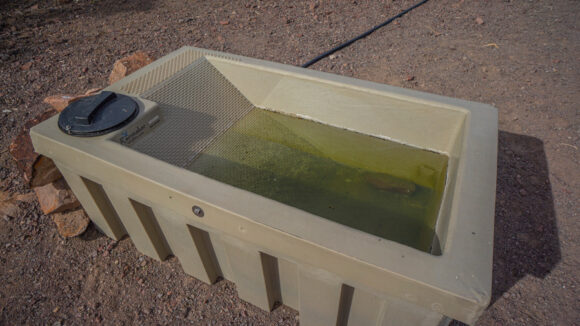
In addition to the permanent trough, there was also this portable guzzler. Dual drinkers, this one is filly-loaded
No less than 6 game cameras were set up here at the guzzler. Surely one was left by the BLM or whoever administers this land and looks after the guzzlers, but the others can be attributed to unsportsmanlike Hunters. Might as well just go “hunt” at the zoo. Anyhow, they got me on camera filling my water. I chugged a litter, and filtered 4. This gives me 6L for the rest of today and tomorrow. There’s a chance I might get water tomorrow evening, but it doesn’t look very promising. So it’ll probably be two full days before next water. In retrospect, I probably should have taken 8L, but I’ve done this several times on this route now and I know I’ll be just fine.
Leaving the guzzler, I found the canyons I hiked through to be very pleasant. I followed the dirt road four ways until it led me to the boundary for the new water mountains wilderness.
Now I walked a wash through an increasingly narrow canyon. I reached a side Canyon that looked choked with vegetation… Yep, that’s the one I’m looking for. This one will take me to my next destination, a summit called “the eagles eye”.
The walking from here on out was pretty slow. The canyons were often narrow, there were small pour offs to climb, more thick vegetation. It wasn’t long before I reached a side canyon that caught my eye. It was very narrow, a slot. As I approached, I could see a game camera setup here. Entering the slot, there was water! I haven’t seen anything like this on my route yet. The water was a foot deep where I could see, maybe two feet deep farther back. There was plenty of water here and it looked to be fairly good quality. Very cool. As I exited small slot canyon, I had to look at one of the cameras set up here and one was marked as “mountain lion detection project”. This is big cat county, after all.
After exiting the canyon that had water, I was still walking a narrow canyon seeing where that led me. The wash let me to a spot where I could climb up a little hill and enter a new Canyon.
As I worked my way up into the Basin below the eagle’s eye, I saw a few cairns. However, these would be the last I’d see. The route up was very cryptic. There are many small Canyons, ridges and washes to choose from, and so the route up was not obvious at all. A bit of trial and error mixed with instincts.
The Eagles eye is a large arch along the crest of the mountains. The arch becomes visible as you work your way up into the basin below. I took a route that led me directly below the arch. There was a lot of loose rock here and a little bit of class 2/3 scrambling, but easy enough.
I reached the top of the ridge and walked over the crest of the New Water Mountains, now looking North to interstate 10. I startled a big horn sheep, which promptly ran away. I walked along a Rockwall that led me to the eagle’s eye, a hole in the Rockwall about 15′ in diameter. Eagle’s Eye was much Cooler than I thought it would be. Farther down the ridge line was a large volcanic plume, which served as a great background prop for the arch.
Not surprisingly, there’s is a summit register here as well. This peak gets some traffic, also not surprising being that it’s a pretty unique one.
I descended the summit and took a different route this time. Like the route up, the route down involved some trial and error as well. The descent went quicker though than the Ascent.
Once I had dropped back down to the main lower wash, it was time to go up and over a small pass that would take me to the next Canyon over to the north. This pass was pretty straightforward and Simple.
I descended the pass and found myself in the wash below. The next segment of my route goes back up to the ridge line, but it’s after 4:30 now So I’ll have to find a spot to camp somewhere down here and tackle that in the morning. It took a bit of searching to find a place to set up my tent, but found a spot around 5pm. This is one of the earliest campsites this whole route. Seems like every night I’m pushing it right up to darkness.
Day 42 – December 14th
Miles: 10.4
Animals Seen: 1 bighorn sheep, 3 Jack rabbits
It was a very calm and still night. Since I got to camp a little early last evening, I was able to finish my evening routine earlier, and went to sleep earlier. 12 full hours of sleep was enough. Only one week now to the winter solstice, shortest day of the year in terms of sunlight.
Today began with the climb uphill. It wasn’t bad though, not overly steep or loose, and quite scenic the whole way. The sky was mostly clear when I woke up, with the exception of clouds building over the Kofa Ridgeline. The clouds continued to build as I Climbed, but this only enhanced the views, adding some extra flair to the scene.
The higher I Climbed, the better the views. I was really digging my surroundings this morning in the New Water Mountains. I was really looking forward to the view from the crest once again.
I’m climbing up to a peak called hidden benchmark. It’s aptly named, since the summit is hidden until the last moment. It took twice as long to climb up as it should, because I kept turning around to admire the landscape, take photos, and film from a slightly different angle, each better than the last. I dodged cholla the whole way up, which seems like second nature now.
Kofa Mountains to the south, where I’m headed next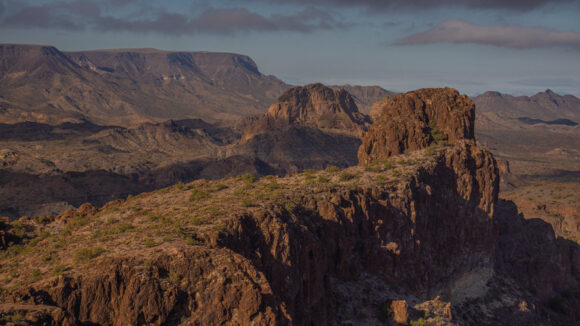
The summit of hidden benchmark was grand. Each direction had something to offer; the massive Renegras Plain to the north, the rugged Ridgeline of the New Water mountains to the west, Kofa Mountains and black mesa to the south, and the stunning peaks and ridges of the New Water Range to the east. I stopped here for a good while to soak it all in. There was a summit register here, placed all the way back in 1987! There were only seven or eight entries Since then. This benchmark truly is “hidden”.
The summit of hidden benchmark was also choked with cholla. I tiptoed my way through a Minefield of these monsters as I descended the summit and made my way east along the ridge line. The north face of the ridge was a sheer drop-off, and despite the horrendous field of Cactus, was an enjoyable walk. I spooked a big horn sheep along the way. I’ve been seeing them lately, Although not in the same numbers as the Lake Mead area in the beginning of my hike.

This view over the Ranegras Plain is just so massive. It’s hard not to stop here for a moment and just realize how small you are
This was one moment where I really stopped to reflect on this hike as a whole. I’m just a few days from the end now. From here, looking north over the massive Ranegras Plain, I can see much of the route I traversed over the past couple hundred miles. There is now a story to accompany the view. The landscape has meaning to it now, stories attached to it, and a personal connection to it. What a journey it’s been it get here.
I followed the ridge around a couple of saddles, and continued on until it became more effort than it was worth. Then I dropped down from the ridge line and made my way into the Canyon below. The descent was easy, a nice change of pace. Soon I met up with the wash below.
Walking the wash now, I was also surprised to find it so easy going. While stopped for lunch, I found a tick on my leg, crawling, not digging. Only the second of the trip, the first being in the Plamosa Mountains during the last section. Surprising to see any on this hike, considering it’s the desert, and the weather pattern has been so dry.
I was covering good ground now. I follow this out of the canyon and into the open desert. Here, I left the new water mountains wilderness and entered the Kofa national wildlife refuge. Managed by the fish and wildlife service, this 665,000 acre plot of land contains the Kofa Wilderness, which is 550,000 acres. That makes it the second largest and Arizona. It’s a massive landscape.
After a few miles in the wash, it was time to set a course cross county towards my next destination; a well, and a cabin. I picked a distant landmark, in this case a power line transmission tower, and headed for that. A 4×4 road parallels this as well.
I passed the power lines and the dirt road, and from there it was a short walk to the well that is marked on the map. When I got closer, I could see a windmill, it’s blades moving rapidly. Clearly this one is functional. As I approached, I could see the windmill working as it should, pumping water into a large tank. From there, and underground pipe Sends water over to a trough. The trough was covered with an awning, which is why I didn’t see any water here from satellite when I did my research. The trough was also full to the brim. The water looked pretty green, but upon dipping my bottle into it, It was a little bit more clear than I was expecting. Still, pretty green.
I had three liters of water on me at this point. I filled my two-liter platypus bag with water, but didn’t filter it now. The Kofa cabin is only a half mile away, So I took the dirty water with me and headed for that.
As I approached the cabin, I could see it was a pretty solid structure. I had been told that it was, but I was expecting a wooden structure cobbled together with pieces of scrap metal, or something of the like. Instead, it was a stone structure. There was a plaque out front that said it had been built in the 30s by the CCC.
I opened the door and was surprised how nice it was inside. The floor and walls are all concrete, there are no holes in the walls or ceiling, and it looked solid all around. There were two wooden beds to set an air mattress and sleeping bag on, a wooden table with chair, a shelf full of random knickknacks and things left behind by previous visitors, and even a wood burning stove. Hell yeah, this will do!
It was only 3pm now, but this evening it’s supposed to rain. Not only that, but the winds are forecasted to be 25 miles an hour, gusts 40+. This would not be a fun night to be in a tent out in the open desert. I can’t sleep at all when the tent is whipping in the Wind. Additionally, when dirt and dust is flying around in high winds, it wreaks havoc on my tent zippers. I would gladly forgo a few extra miles of progress today to avoid the hassle of spending the night out in this storm. For once, a nice solid cabin to spend the night in, when it’s truly convenient.
First things first, I made my bed and unpacked my bag. Then I made inventory of what was on the shelf. There was quite an array of items here. There were several beverages; 3 16.9 ounce flavored propel water bottles, one bottle of water, a Capri Sun, iced tea, two cans of beer and one spiked sparkling water. All of these were unopened, and were looking pretty good to me right about now. A couple of granola bars, some canned food, etc. Lamp oil, but no lamp. Some less than interesting rocks, some books and magazines, first aid kit, etc. There was a guest log as well, with several recent entries including three people who stayed here only the night before.
I think the weirdest thing here was two pool cues. The rest of this stuff at least made sense.
I ate lunch, and wandered around the property for a bit. It was nice to just hang out for a little while and not be pressured to cover miles. Then, I heard a vehicle approaching. From afar, It looked like a modern and high-tech version of the Ghostbusters vehicle. Instead, it was a tricked out Toyota 4Runner, built into a camper. “Sweet rig!” I said to the guy as he approached.
The occupants, Ben and Asuki (spelling?), were from Denver and on a road trip. This was their first time in the region, and they were doing some exploring. He was pretty excited about seeing saguaro cacti for the first time, as I was years ago on my first Arizona trip. We chatted for a good half hour before they moved on.
The rest of the evening was uneventful. I watched the sunset from my front porch while drinking an adult beverage. The winds really picked up as night fell, absolutely howling. I can only imagine how stressful tonight would have been in my tent. There was a small amount of wood next to the stove, So I threw that in and warmed up the place before going to bed. Man, what a luxury.
Day 43 – December 15th
Miles: 19.8
No Animals Seen
The wind was absolutely howling last night. I never heard it rain, but apparently it did. I was extremely thankful for this cabin; it was so nice waking up with a roof over my head.
This skies were clear and the air was crisp, to say the least. I was bundled up as I began my walk this morning. The new water mountains generally run east and west, and to the south, there are two more east-west running ranges within the Kofa Wilderness. Each one of these ranges is separated by a valley of about 25 miles. Today, I will walk that first valley, between the new water mountains and the range at the heart of the Kofa Wilderness. In the valley are some low hills, mostly uninteresting. Therefore, I have chosen to stay on a dirt road most of the way.
I passed Wilkinson seep, which was the next water source south of the well near Kofa cabin. There were a few liters of water here, and it looked like decent quality. With 2.5L of water on my back already, I skipped this one.
The hillsides became thicker with grasses, albeit dry grasses, as I walked south. This was a bit different landscape than I had seen along much of my route.
Today was remarkably uneventful. Practically nothing happened. I covered some good ground quickly, and made it to Mid Well shortly after 2pm. Here, a windmill pumps water into a tank, which is then piped into a trough. Just like the windmill near the Kofa cabin yesterday. The water here was even better. The trough was filled to the brim with clear water, despite a lot of algae growth and shine little swimmers. I filled up with 5.5L here.
About a half mile away I encountered the Wilbanks Cabin. This one is a wooden structure, and I could immediately tell it was nowhere near as solid as last night’s cabin. The front door was wide open, and upon entering, I could see light shining through many of the boards in the walls. Some of the windows were missing glass, with only screen remaining. Some of the screen was pulled down, leaving large gaps for anything to enter. And worst of all, the place was absolutely littered with rodent feces.
There’s a windmill here on the property as well. The blades are turning and the mechanics seem to be functioning properly, but the tank next to it was empty and the nearby trough was bone dry.
Still, I debated whether or not to stay here. I’ve covered nearly 20 miles today and don’t really need to cover any more ground to stay on track. I have 2.5 more days of this hike, and the things I want to do and see are spaced out pretty good from here, roughly 12 miles per day. So I decided to stay in the cabin. There are two bed platforms to get me and my gear up off the ground away from the rodents that will surely be active after sunset. There’s a pretty solid breeze coming in through the windows, but I don’t think I would be that much warmer in my tent anyways. This is just a more convenient way to cowboy camp, I suppose.
Day 44 – December 16th
Miles: 12.4
Animals Seen: 3 bighorn sheep, 3 Jack rabbits
Last night was miserable. It was far colder than I expected it to be… 22 degrees this morning when I woke up! My quilt is only rated for 40 degrees, and to make matters worse, it has horizontal baffles, so all of the insulation slides from the top to the sides leaving many cold spots. I had on every piece of clothing available to me, in addition to using my trash compactor bag (backpack liner) around my feet and legs. Still, I was cold all night. The weather has been very mild this entire trip, and the clothing and gear I brought have been perfect until last night. I suppose I could have sent a warmer sleeping bag and a fleece or puffy jacket for this last section, but I was expecting overnight lows in the mid-30s, not low twenties! Additionally, all of the rodents living in and around the cabin were quite active, scurrying around pretty much all night. They mostly seemed to be in the ceiling and other parts of the cabin, not directly near me, thankfully.
I have been getting up around 7, but today I waited for the Sun to rise above the Horizon before I got out of my bag, closer to 8. It was just too cold. My feet were freezing l, and I was shivering until I could go outside and stand in the sunlight. Just a miserable start to the day. I was about an hour late to start walking today as a result, and not that motivated.
Part of my lack of motivation this morning was due to the fact that the scenery was just not that interesting. Yesterday’s road walk was quite Bland, and today picked up where yesterday left off. The exception was that I started today with a bushwhack instead of a road walk.
The route this morning was a bit difficult to follow. There were a lot of low Hills, no large landmarks to work with. This type of terrain always seems to make it difficult for me to see the path forward. I was just kind of stumbling around anyway, trying to warm up. It really didn’t take too long though oh, I had to stop and shed off my base layers. It was good to be warm again!
My cryptic route led me up to a small pass. Then I dropped down to the wash below. It was here where the scenery began to improve. As I looked back behind me, multiple craggy outcrops and Peaks meet up the ridge line that surrounded me. I followed this wash up to another pass.
I dropped down into a very colorful wash with some cool jagged peaks sticking up all around me. Now this is what I’m talking about.
After emerging from the wash, the views opened up. The colors were intense here, strong reds and oranges, which always make for a beautiful scene.
The scenery now was stunning. Ultimately, I would drop down into a canyon on the other side of the pass, but this pass was also somewhat of a Ridgeline, and I made it a point to explore as much of it as I could. I headed up to a point along the ridge that looked like it would offer the best vantage point, even though it was out of my way. I’m here to see the sights, there is no point in walking by amazing things just because they are a little out of the way, as long as I have the time. And today, I do.
I bagged a small Peak along the top, and ate lunch. Every direction now was stunning. Deep Canyons, Jagged Peaks, Red Rocks. Aesthetically pleasing and just what I needed after yesterday’s boring Road walk.
I followed the Ridgeline to the point where I would drop down into my next Canyon, enjoying the excellent views along the way. At the top of the Canyon, the route ahead looked difficult.
The canyon was moderately difficult. There was a lot of vegetation and some loose Rock in the beginning. Eventually I reached the wash below, and the route became a little easier. This Canyon was beautiful as well, both the upper and the lower portions.
The lower part of the canyon widens out. I hadn’t see many (any?) wildflowers along the way, but there were some here in this canyon.
This Canyon dumps into King Valley, which separates the Kofa range from the castle Dome range to the South. But before reaching King Valley, I Veer off to the next Canyon to the West. It’s name? Big dick Canyon. Yep. Alright then.
Big dick Canyon was fairly easy to walk throughout the majority of it. It was fairly scenic, but I preferred the unnamed Canyon I walked prior to this one. It was beginning to get late in the day now, and my pace quickened.
I’m glad the majority of the lower canyon was an easy walk, because the final six or seven hundred feet were more difficult. It was moderately steep, and mostly they climb up large boulders spaced out in the wash. Basically, a big stair climb. Not too bad, except for all the occasional Thorn bushes mixed in. They drew blood a few times.
At the top of the pass, I was expecting the game Trail or something on the way down, but nothing. After descending 100 feet or so along loose Rock and thick vegetation, my route veers off into a side Canyon. This would take me up to the Ridgeline.
When I reached the Crest, roughly around 5 p.m., I was quite happy with what I saw. In fact, stunned would be a better word. I knew instantly this was going to be a great walk, and right at Sunset too. The Northside of the Ridgeline is Rolling Hills, basically all the stuff I was walking yesterday and this morning. Not all that interesting. But from the crest, looking South, it’s all Jagged Peaks, sheer Cliffs and downright incredible Mountain scenery. Wow!
I walked this Ridgeline with excitement, not caring so much about the fact that I need to find camp. Just enjoying the moment, fixated on the Setting Sun and the constantly changing Vantage points Along The Ridge that constantly commanded my full attention.
In the distance, I saw an arch along the Ridgeline. Soon enough, I was standing underneath it, trying to find the perfect angle for the right photo. I probably had a huge grin on my face the whole time.
The sun seems like it took forever to set. Sunsets like these are few and far between. To be able to walk such a beautiful place, at the perfect time of day, with the best lighting possible, it’s what every outdoor photographer dreams of.
The Ridgeline itself was pretty Rocky. There’s no soil here, nor is there if you drop down to the lower Ridgeline that run perpendicular to it. I began to think about the possibility of cowboy camping. I was hoping to set up my tent, for the extra warmth it will provide. But the opportunity to sleep up on this incredible Ridgeline is too good to pass up. I found an overhanging Rock, not quite a cave, but just a few feet from a huge cliff with an outstanding View. It’s not exactly flat, but one’s head and feet would be slightly elevated. This I think I can manage. Surely this would be one of the coolest campsites I’ve ever had!
I watched the last remaining rays of sunlight fade just beyond the jagged Ridgeline to the South. The Moon is nearly full tonight, Nature’s night light. I sat on the edge of the cliff eating dinner, completely in awe of my surroundings. So special, so meaningful to have a campsite like this, on the second to the last night, on such an incredible journey. Indeed, moments like this are very sparse in life. Even for all the walking I’ve done, I recognize this tonight. I’ve had a lot of great campsites over the years, and a lot of great campsites on this hike. But seldom do they invoke such profound feelings.
Day 45 – December 17th
Miles: 14.7
Animals Seen: 1 bighorn sheep
The first half of last night was awesome. I was warm, there was no wind, and it was comfortable. The second half of the night, not so much. The wind started picking up and by 7am, it was freezing cold. I waited until 8am, when the sun hit me, to pack up. Still, an amazing place to wake up to, and totally worth it!
I continued walking to Ridgeline this morning, but it was much less Pleasant than last evening. I couldn’t feel my hands, and my GoPro batteries were dying. Great views, but similar to the night before. Time to drop off the ridge.
Next I hiked over a series washes and ridges to reach Squaw tank. There was plenty of water here, both in Natural Pools and man-made improvements. The water was good. Seems like a reliable source.
Then I followed hoodoo wash upstream to a saddle, over to another saddle, and through a series of washes that led me to an old (no longer in use) 4×4 road in Kofa Queen Canyon. The first half this walk was a pain in the ass. There were lots of thorn bushes and cacti to stab me. I took a cholla ball to the ankle, one of the few along this route that got me. On top of this, it was still cold. It wasn’t warming up much, like yesterday.
I eventually hit a wash that was much easier to walk. I made good time through this section.
Next I reached an old dirt road running through Kofa Queen Canyon, and is closed as it’s inside the Kofa Wilderness. An easy walk though. The road eventually reaches a point where it crosses the Wilderness boundary and is open to vehicle traffic. It’s Wilderness on all sides of the road, but the road itself is technically not wilderness and open to vehicles.
I followed the road past Summit Canyon to Indian canyon. Here, I’ll begin the hike up to the summit of signal peak. One 4×4 passed me along the dirt road, and didn’t slow down at all. Typical. I always slow down for humans walking or riding bikes, especially on dirt roads. Maybe it’s just me.
Lower Indian Canyon was stunning. This whole area is stunning! Looking back at my photos, they do nothing to convey how amazing this canyon is. Sometimes the camera just can’t match the eye. Super impressive rock walls and formations all around. I passed an older lady with her dog, the only hiker I’ve seen since day 2! Just up the trail, a family, flying a drone illegally. I could hear the buzzing overhead for a while.
There was a variety of braided trails to choose from in the lower part the canyon. It wasn’t obvious at all which one is the main one I should be following. I chose poorly, and strayed off Trail. I took a pretty horrible path up, and it would be a long while before I regained the correct path again.
I Climbed boulders and fought thick vegetation, making life much harder than it needed to be. I just didn’t know where the trail was, and went by the route I had mapped out at home as a back up. This peak is the high point of the Kofa range, and this canyon gets a decent amount of traffic. I do know there is a social trail here, with the occasional cairn. It’s somewhere.
I found small game trails and an occasional cairn, but they were not the main path. Bummer, because I fought my way up the steepest part of the climb, basically off trail. It was steep, loose and thorny. I dreaded coming back down. The views remained excellent, though!
I made it up to the top of the steepest section, but since I missed the main trail, I was not where I should have been. I had to drop down into the canyon below in order to progress forward. This is where I intersected the main trail, finally.
Most of the rest of the way up was easier to walk, despite losing the main trail a couple more times. It was less steep now, and much less vegetation, so this made life easier all around.
I climbed out of the canyon and gained the ridge. The summit of Signal Peak was just a short ways away now. The views really began to wow me, opening up to massive Vistas of the Kofa range, King Valley, and pretty much everything in every direction.
When I reached the summit, the winds were very strong. I was freezing cold, could barely feel my hands. I wanted nothing more than to sit on this Summit and soak it in, being the last high point along my route, but today was not the day for that. I snapped a few pictures, signed the summit register, and drop down off the summit as quickly as I could. I was really bummed about this, putting in so much effort to get up here and not being able to enjoy it properly. But sometimes that’s the way it goes, especially when climbing mountains.
I ate a quick snack below the summit, with a small Windbreak. It was 3:30 now, and it has taken me about an hour and 45 minutes to get up here. I should probably hurry down now.
Fortunately, I found the route down to be much more straightforward. I never lost the main route once, and made hit town in 1 hour. I was really happy about this, especially through the steepest section where I had basically bushwhacked my way up.
Next it was a half mile walk down the dirt road to Skull Rock. I was really looking forward to Camping here, but I was disappointed to see 4 vehicles here. It’s Friday night, so I guess I shouldn’t be surprised. Still, this entire Kofa Queen Canyon is pretty stunning. I walked a quarter mile away and hiked up hill short ways to an outcrop of rocks. I found a few places suitable to camp, under small overhangs, like the one from last night. I chose a lower one, hoping it would be more out of the Wind. If it was this cold today, tonight will be freezing. Hopefully the wind dies down, but I will do everything I can to get out of the wind at this point.
The view from tonight’s camp was spectacular. Probably even better than from Skull Rock, but I won’t be able to say that I camped inside a skull shaped Rock. Oh well. I’ll be shivering tonight and tomorrow morning no matter where I camp, just gotta make out through one more long ass night. Longest day of the year is only 4 days away now.
Day 46 – December 18th
Miles: 12.4 (half day)
No Animals Seen
Last night was pretty tolerable compared to th
e previous nights, in terms of the cold temps. Low 40s, with only an occasional mild gust of winds. It was a nice campsite, and I’m really starting to dig these kind of caves/overhangs for cowboy camping. But today is my last day of hiking, and that’s what’s on my mind now. I know this when I wake, but later, it will set in even more.
I start the day with an off-trail climb of about 400′. It’s easy going at first, a grassy hillside with excellent views of lower Kofa Queen Canyon. It becomes steeper at the top, and brushier. Pretty manageable though. And, great views! Impressive unnamed peaks and rock formations make up the nearby ridges and please the eyes.
I reached the saddle and took in the view from the top. I could now see down into upper Four Palms Canyon, and I could tell it was going to be an awesome place.
The views were great from the top, but they really seemed to improve as I dropped lower. There wasn’t much of a game trail or anything to follow, so I made my way down as I saw fit. The upper reaches were slow, but manageable.
After dropping down over 300′, it was time to go up and over a small saddle, instead of a really steep side canyon that lies below. As I dropped down from the saddle, I would take the main body of Four Palms Canyon downhill.
The north face of Signal Peak, which I atop yesterday afternoon, makes up the south side of Four Palms Canyon, and it’s incredibly scenic. The steep, jagged crags give the rock walls some depth, and the orangey-red rocks mixed with green vegetation give this canyon some great color. A truly majestic place. I was quite happy to have this be my last canyon of my Mojave-Sonoran Trail thru hike.
The lower reaches of Four Palms Canyon flatten out, and become a network of braided washes. I kept looking back over my shoulder, at the beauty of this canyon, but also symbolically, not ready to end my hike. Not while walking this kind of canyon.
Large outcrops of pillars and lone rock formations guard the entrance of Four Palms Canyon. Once past these, I would be in the open desert. Passing these pillars was the moment it hit me. These pillars represented the symbolic end of my route, despite a 2+ hour road walk that separates me from Hwy 95, the physical end point. I paused here to appreciate the profoundness of the moment, and all it meant to me.
After passing the pillars, I emerged from the shadows of the canyon and into the sunlight of the desert flats. Surprisingly, there was a decent trail connecting Four Palms Canyon with Palm Canyon, to the south. I hiked this trail to get to Palm Canyon Rd. This is what I’ll be walking to my end point now.
There were car and RV campers along much of Palm Canyon Rd. It’s the most popular spot in the Kofa National Wildlife Refuge, so this is no surprise.
Now that the off-trail hiking is done for the day, and for the entire route, I begin to reflect on the journey. It’s difficult to find the words to describe the feeling, and my mind struggles to comprehend the moment. When reaching the end of a thru hike, I think we expect there to be some eureka moment all of the sudden, some intensely profound lesson to be learned. But for me, it doesn’t happen like that. Nothing happens all of the sudden. The lessons learned aren’t learned at the end, they are learned in the moment.
So what did I learn from hiking this route, the Mojave-Sonoran Trail? For me, hiking is about progression. I’ve expanded my desert and canyon skillsets, along with my confidence to find water and to cover ground without it. I’ve grown more confident in my mapping abilities, choosing scenic routes and routes that offer safe (but challenging) passage. At the same time, I’ve learned to embrace flexibility, having the confidence to “hike anywhere” and not simply along a route that’s been planned ahead of time. I’ve learned that I feel more comfortable in the desert than almost anywhere else.
As the final miles tick away, I’m ready to close the chapter on this journey. I’m ending the hike at Hwy 95 in the middle of nowhere, seemingly a illogical end point. But since the Yuma Proving Grounds military base basically surrounds the Kofa NWR, sitting in a big “U” shape, the route has no logistical way to proceed south unless it’s a long road walk. And even then, there isn’t much farther to the south worth seeing, unless one was set on ending at the border of Mexico. No, the Kofa Wilderness is a fine place to end this hike. Palm Canyon Rd and Hwy 95 will be my southern terminus. Here, I have a close friend in Phoenix (2.5 hour drive each way) who will pick me up. There is also an option for a shuttle service to Yuma or Quartzsite for end point travel logistics.
When I reached hwy 95, my friend was just pulling in. His wife was using the Jeep today, so he was driving his C6 Corvette. I get to ride in style back to Phoenix, and stink up his vette with my dirty hiker trash aroma. He was kind enough to bring me some McDonald’s cheeseburgers and a bottle of champagne to celebrate. Having a good friend here at the end with me, even if he wasn’t there with me along the hike, was an awesome moment. Something I didn’t have on the Basin and Range Trail, or the Continental Divide Trail. It really meant a lot to me to have him there with me.
I shook up the champagne and tried to blow the cork, but this wasn’t the kind that does that, apparently. I got a minor eruption of champagne, which I tried to drink as it fizzed out of the bottle. Good enough. Now, time to pair it with a cheeseburger. If you hike long enough, there really are cheeseburgers at the end of the rainbow!
That’s the end of my journey. I have no idea what’s next. Life has evolved into an extremely impulsive array of decisions that I call adventures. My past experiences have given me the confidence to set out on these journeys with less planning and less research, simply taking the experience as it comes. The good, and the bad. Indeed, I don’t know where life will take me next. But I move forward knowing I have the courage to take on whatever it is I dream up next. And above all, I know that I can’t face the future knowing my last adventure was my greatest. I fear that day, and that motivates me more than anything else.
Mojave-Sonoran Trail Thru Hike 2021 – Section 8: Bouse to Quartzsite
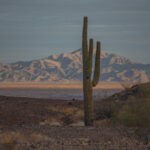
Mojave-Sonoran Trail Thru Hike 2021 – Section 8: Bouse to Quartzsite
Mojave-Sonoran Trail Section 8 Map
Mojave Sonoran Trail Thru-Hike Section 8 – Bouse to Quartzsite, 40 Miles
The above map only represents represents section 8 of 9 on the MST. For a more detailed map and general route info, see the Mojave-Sonoran Trail Guide page.
Mojave-Sonoran Trail Section 8 Journal
Day 36 – December 8th
Miles: 19.8
No Animals Seen
*Technically, I started section 8 last night, on Day 35. I walked out of Bouse at sunset and hiked about 2.5 miles out of town. It’s nice when the dates fit nicely into the sections of the route that I’m hiking, but in this case, one day spans two sections. I’ve just left all that as part of section 7 to make things easier.
A very brief moment of sprinkles last night, extremely light and barely worth mentioning. Still cloudy when I woke up this morning.
I continued walking the dirt road into the mountains. This mountain range exists within BLM land, not wilderness as much of the previous route has. That means there are more 4×4 roads, rv campers and a lot of active mining claims. There will be little off trail hiking in this section, only to connect one 4×4 road to another on occasion.
This section is not going to be one of the highlights. I figure about 45 miles, and much of it will be along a low route on 4×4 roads. There really isn’t much of a continuous ridge line to speak of, and therefore a higher route is not feasible. One could certainly bag the occasional peak or hill, but it hardly seems worth the effort unless one is feeling energetic.
I walked past a mine, a horizontal tunnel into the earth. I had camped by this mine in my camper van about two months ago while scouting this area. I found small samples of barite and fluorite here previously, but nothing too exciting. Across the road was perhaps the best marked mining claim I’ve ever seen. I happened to meet the claim owners when camping here in my camper van. Their claim encompassed most of a small mountain, and they were after gold. They had many large yellow metal signs up making it clear this was an active mining claim. Most of the other mining claims I see are simply marked with wooden posts. If they are newer, pretty obvious it’s active. However, many claim owners like to reuse very old wooden posts which doesn’t make it clear at all that it’s active. In fact, it does the opposite, one would assume it’s inactive due to the age of the posts and the lack of signage. I figured these folks aren’t very concerned with prospectors encroaching on their claim if they don’t take the effort to properly mark it.
I left the road and followed a wash into the mountains. There were tons of interesting rocks here. Some I recognized, many I didn’t. Progress was slow, but as the rocks became less interesting, my pace increased.
This off trail section lasted a few miles, and had me going up and over a few small passes and many washes/ridges. None of it was particularly interesting or scenic.
I joined a 4×4 road and continued south. The route mostly stays on the east side of the Plamosa mountains Divide, and the town of Bouse is occasionally visible in the distance. I had 4g signal for the first few hours of today’s walk, but not after mid-morning. It must be blowing in from Parker, to the west.
For much of the rest of the morning, I followed a network of dirt roads and past countless small mining prospects. There was one tunnel into the hillside that I entered. You could walk in about 30 feet, but At some point, The mine owner or the BLM had sealed off the rest of the mine with a stone /cement wall. However, previous visitors to the mine had broken down this wall to regain entry to the rest of the mine. Looking in through the hole, it slants downward and goes an unknown distance. I was going to put on my headlamp and explore further, but there were a ton of bats flying around inside, and the smell was kind of strong. I decided to skip this one.
Next I followed some dirt roads towards a guzzler. I found this area to be a little more scenic than this morning. Some really nice red colored rock and soil, and the Four Peak area was kinda cool looking.
I reached a guzzler early afternoon, the first water source along this section. A group of three off roaders were just leaving as I approached. The Guzzler looked like the last one I encountered, near the beginning of the aqueduct in the previous section. The water in the drinker (trough) was full, but pretty gross. It was a deep green color with a film on the top, and a bunch of feathers floating around in it. I had 3.5L, so I passed on this one. I’ve filtered water like this before, just need to back flush the Sawyer filter every other liter.
While I was taking down notes on this guzzler, another group of three off-roaders showed up. I talked to these guys for a while, and asked them if they had any extra water. I scored a half liter water bottle and a 12oz Gatorade. Thank you, fellas.
The peak above the guzzler was probably the most scenic one yet. It looked like an old volcano. After leaving this behind, I followed 4×4 roads for pretty much the rest of the day. There are many more roads in existence then the map indicates. When looking at the map, If you are trying to work around a landforms, there is probably a road there whether it’s on the map or not.
Haystack and Ibex peaks dominate the horizon now, and are growing closer. I’ll be hiking around these peaks tomorrow. For now, I follow dirt roads and washes towards these peaks while passing more prospects and old mines.
It was late afternoon when I crossed the paved road (Plamosa Rd) that cuts across the Plamosa Mountains. I continued up a wash on the south side.
I found my campsite about 20 minutes before dark, with a good view of Haystack and Ibex peaks. The southern part of the Plamosa Range is definitely more scenic than the north.
Day 37 – December 9th
Miles: 17.1
Animals Seen: Jack rabbit, mule deer
I woke up to a nice view of haystack and Ibex peaks, with the sun creeping over the ridge line just as I broke camp. I continued walking dirt roads through fields of teddy bear Cholla, up and over a series of small washes. Today, I hope to reach the highway and make my way into Quartzsite to resupply. It’s day 7 since I’ve left Lake Havasu City now.
I walked dirt roads around the southern end of Ibex Peak, and followed a wash over the divide to the west side of the Plamosa Mountains for the first time.
By late morning, the clouds started building. The wind picked up, and it was colder now. At the same time, I began to notice the impressiveness of this Canyon. Not on a spectacular level, but for this section at least, it was beginning to get interesting.
I reached a guzzler, my second water source along this section. This one featured two troughs (drinkers), and both had water. As expected though, the water was pretty green and unappealing. One of the troughs was fed by a float system that dispensed water from a large tank, pretty similar to the design of the guzzler I visited just before reaching the Hayden Rhodes aqueduct on the last section. Good, I thought. However, once I push down in the float and began to dispense water into my platypus bag, I could see the water had a pretty brown and cloudy appearance. Would this water be filterable? Absolutely. But I have 2L of water and a 12 oz Gatorade on me, enough to reach the highway this afternoon. And so, I passed on another water source.
The dirt road ends here at the guzzler, and now I begin hiking off Trail. The canyon ahead of me looked fairly thick with vegetation, along with some rugged-looking Terrain. However, as it made my way up the canyon, the route became less daunting and much more manageable.
I found some interesting rocks on the way up to the Ridgeline. A really nice piece of agate with some druzy quartz. It was about the size of my hand, but since I am getting into town today, I figured I’d carry this one with me. Totally ultralight, I know.
The climb up to the Ridgeline could be broken down into two sections. The first was a fairly easy going Canyon up to a saddle. My map shows a guzzler just below the saddle on the other side. I didn’t see anything here oh, and even if I did, it would be pretty hard to down climb the steep Canyon to get to it. There was a pretty nice view here though, really the first elevated and somewhat sweeping view of the whole section.
The second segment of the climb up to the Ridgeline leaves the saddle and continues up a more challenging looking Canyon. Again, what looks daunting from below is typically more manageable than you think, if you just start walking up it. There were a couple of small pour offs to climb, and a few spots with thick brush as the canyon funnels you into the wash, but really, just par for the course.
I climbed the final Hillside, littered with volcanic rock and teddy bear Cholla, up to the crest the Ridgeline. Wow! My first distant view since The Mesa, overlooking the Bill Williams River Valley. And with the dark clouds that fill the skies, a completely different feel to this view than almost anything else along three route thus far. The views were quite massive; the desolate looking mountains in California to the West, large desert valleys on both sides of the Plamosa mountains, the Rugged Ridge line of the new water mountains to the South, and the alluring Kofa wilderness just beyond that.
This was the slowest part of my day. Not only due to the terrain, but because of the scenic beauty. Renegras Plain lies to the south, the massive valley that I’m overlooking.
From here, it’s less than 2 miles of walking along the crest of this Ridgeline before I drop down to the valley below. This is not an easy ridge to walk, though. Mostly, the best path forward is following game Trails just below the crest of the bridge on either side. The true crest is often a knife-edge or jagged rock formations. There’s some Cholla appear as well, just to add to the challenge.
Walking South along the Ridgeline, some views improve of the mountains to the east, part of the haystack mountain formation. Maybe it was the lighting, but the views over the surrounding landscape look greener than much of what I’ve been walking through over the last few weeks. The hiking is slow up here, but easily the most scenic of the section. I’m glad I chose to walk this Ridgeline.
The route down off of the Ridgeline is a little cryptic. There’s a series of different ridges leading down off the crest, and one needs to be careful, ensuring you’re on the right one before covering too much ground. Eventually I reached the valley floor, thankful to be on flat-ground now and no longer sliding down loose rock and scree. Here, I met a dirt road and began walking South towards the highway.
Shortly after descending the Ridgeline, I took a break at the Black Beauty mine and ate lunch. There were supposed to be some more rare and interesting minerals here, but my untrained eye doesn’t know what they look like and what to look for, and I kept nothing.
Leaving the mine now, I followed a series of dirt roads South. One guy on a 4×4 passed me, likely coming from a pop-up city of RV campers that are living out in the desert a few miles away. I could see this from the Ridgeline that I had walked earlier. At this time of the year, the Quartzsite and surrounding areas see a massive influx of people that flock to this area for the warm winter weather. Instead of spreading out, they Camp a few feet away from each other and form small cities and communities. I’ve heard the Quartzsite area draws a quarter of a million people each year. It’s an interesting culture, for sure. I’m new to the van life thing, but when I think of camping, I typically think of camping in places where I can’t see another person. The concept of being so close together is a bit foreign to me.
I left the dirt roads when they no longer took me in the direction I need to go. I chose a distant landmark and set out on a cross-country track crossed about 5 miles of open desert. I’m shooting for the junction of Highway 60 and Interstate 10. Obviously, I won’t be able to hitchhike on the interstate, so I’m shooting for Highway 60 right before it dumps into the Interstate.
The first half of this desert track was quite easy. Very open, very few obstacles. A decent amount of interesting rocks too… Mostly red jasper and agates, with some chalcedony sprinkled in.
The second half of the walk, the final 2 miles or so before the highway, presented more obstacles. There were more washes to climb in and out of, it was thicker with brush, and towards the end it was littered with a sea of large black rocks to step over.
When I reached highway 60, I had a rickety looking barbed wire gate to open and close. Traffic buzzed by occasionally as I dropped my backpack. An RV was parked on the side of the road 100 ft away, surely looking on at the drifter who just emerged from the desert.
I put my thumb out to every passing vehicle, which worked out to be one every couple of minutes. I regret not bringing a piece of cardboard with me to write “Quartzsite” on, since anyone getting on the highway here might assume I’m looking for a longer ride than just 15 minutes down the road. It was 4 p.m. when I arrived, which gives me almost 2 hours to try and get a ride before Darkness. After that, I’d be stuck here, camping alongside the highway somewhere for the night. This is the worst feeling, being so close to town and having to spend another night out, and a crappy one with road noise at that.
After an hour, I was getting nervous. I had phone service, but there was no Uber service here as expected. I looked up taxi services in Quartzsite, but came up dry. While I was up on the Ridgeline earlier today and had good cell phone signal, I used Priceline to book my hotel for tonight in Quartzsite. If I don’t make it, it’s nonrefundable. As a last-ditch effort, I gave the hotel a call and asked if they knew anyone in town that gives rides for money. In a stroke of luck, the guy at the front desk immediately had a person that runs a shuttle service to recommend. He gave me a woman’s number, who was able to come pick me up in just 20 minutes. It’s amazing how the trail provides, even if it means being a little resourceful on your end.
The sprinkles started falling on the way into Quartzsite, so the timing worked out perfectly. The Super 8 Motel oh, the only motel in town, is on the far side of town away from pretty much everything a hiker wants. There’s also no pizza or food delivery in town. I didn’t have much Choice except to walk a mile in the dark, in the rain, up to Carl’s Jr. It’s a dangerous walk to, along roads that have no shoulder, thick bushes along the roadside that force you to walk on the blacktop, no street lights. I also had to walk over a highway overpass that had no sidewalk, no lights, and no guardrail. Stupid semi truck drivers barely acknowledge a human being waking here and don’t have the courtesy to move over, buzzing by without a care. A monster thickburger combo made things better though, as I stuffed myself full of fatty goodness. What a day.
Day 38 – December 10th
Zero day
Today was spent doing Town chores. I did some laundry last night, and the rest today. I walked up to the Carl’s Junior again for lunch, and utilized the community Transportation program for the rest of today’s errands across town. It’s called The Camel Express, and they operate as a curb-to-curb transportation service. It’s $2.50 one way to wherever you want to go in town. I had them pick me up at the Carl’s Junior and drop me off at the post office. Here, I mailed back nearly eight pounds of rocks from the last section!
After the post office, I walked a few blocks away to the Roadrunner Market, probably the biggest grocery store in town. This isn’t saying much though; the selection is pretty poor. Generally, enough for a full resupply, but they lack a lot of basic items. I stopped in the coyote Fresh Foods Market another two blocks away to check their selection, which was even more scarce.
Next I hit up the pizza place in town call Silly Al’s. I ordered two medium pizzas, these would last me for the next two days in the hotel so I don’t have to leave again just to get a meal.
I spent the rest of the day going through photos from the fast to sections and updating my journal. Typical zero day stuff.
Day 39 – December 11th
Zero day
Today was spent getting food together and making plans to wrap up this hike. I called my friend in Phoenix, who would be picking me up at the end of my hike along Highway 95 outside of the Kofa Wilderness. I can’t believe the end is so near now, but I’m looking forward to it.
Mojave-Sonoran Trail Thru Hike 2021 – Section 7: Lake Havasu to Bouse

Mojave-Sonoran Trail Thru Hike 2021 – Section 7: Lake Havasu to Bouse
Mojave-Sonoran Trail Section 7 Map
Mojave Sonoran Trail Thru-Hike Section 7 – Lake Havasu to Bouse, 95 Miles
The above map only represents represents section 7 of 9 on the MST. For a more detailed map and general route info, see the Mojave-Sonoran Trail Guide page.
Mojave-Sonoran Trail Section 7 Journal
Day 31 – December 3rd
Miles: 14
No Animals Seen
Spent the morning wrapping up town chores and Getting my things together for the next section. Didn’t leave the hotel until nearly 11 o’clock. I have three large packages to mail out, so instead of walking a mile to the post office, I used the transit service that partners with Uber to get a ride there for three bucks. The same service then drove me to the boat docks. There’s a casino on the California side of the Colorado River called Havasu Landing that operates a ferry service that runs every hour, shuttling passengers across the river for the low price of $2. This is how I will be getting across to California, where I will begin this section.
Near the boat docks is the London Bridge. It was originally built in the 1830s and formerly spanned the River Thames in London, England. Apparently, this bridge was going to be replaced, and Lake Havasu “bought it”. I know it sounds weird, but yes, they bought a used Bridge. They disassembled it piece-by-piece and shipped it here, and reassembled it. They’re quite proud of this here in Lake Havasu. The weirdest thing about this is thinking about how the buyer and seller came together. Typically, if you’re going to replace a bridge, one would assume that you just tear it down and that’s the end of it. What did they do, put an ad in the newspaper? “Used bridge for sale. best offer takes it. You must disassemble and move it yourself. No trades.”

Ferry ride across the Colorado River/Lake Mojave from Lake Havasu City, AZ to Havasu Landing at Havasu Lake, CA. All things Havasu…
The ferry ride was a cool way to get across the river. It added a fun and unique element to this hike. It’s about a fifteen-minute ride, and dropped you right off at the casino. Of course, I wasn’t there to gamble, so I just walked out of the casino parking lot and began my walk through town. Ironically, this town is called Havasu Lake, the opposite of Lake Havasu, on the Arizona side. Havasu Lake is located on the Chemehuevi Reservation as well. But it’s only a short walk about two miles to get out of town and enter BLM land.
After leaving the paved road, I was faced with a long dirt road walk to the base of the Whipple mountains. I don’t expect anything interesting out of this, simply the lead-up, the connector between town and the mountains. Since my next planned water source is 25 miles from the casino, I carried 6 L of water and one fresh Gatorade, since I seem to have misplaced my old gatorade bottle. 25 miles doesn’t sound like that much, but this will be spread out over a day and a half and will have a lot of off-Trail hiking in between.
The first few miles of the road had moderate construction traffic, with a few large trucks passing by. I have no idea what they were doing or where they were going. I left this road and began to walk a wash, that was off Trail on the map, but did have some 4×4 paths to follow. I saw 3 razors cruising around. One of them actually stopped and asked if I needed any water or anything, which is extremely rare from the 4×4 crowd. Remember my lasts section, where I ranted about the 4×4 guy purposely covering me in dirt? Well now the ratio is only 10 bad encounters per 1 good one. That’s the reality of it.
Today’s walk alternated between good solid dirt roads and soft gravel washes. I could see the City of Lake Havasu across the river, and the Havasu Wilderness north of that that I walked on the previous section. None of the views were outstanding or anything, but I wasn’t expecting much out of today’s walk anyhow. I just put my head down and walked as fast as I could.
My goal for today was the War Eagle mine. I reached this around 5pm, and spent a few minutes exploring. There was an old truck and car here, both of them flipped upside down on their roofs. There was a cement mixer and some other construction like debris, but not much in the way of interesting rocks. At least, not to my untrained eye.
I walked another 15 minutes from the mind, mostly looking for a place to camp at this point. I settled on a flat spot in a wash nearby. This’ll do for the night.
Day 32 – December 4th
Miles: 19.2
No Animals Seen
Last night was calm and quiet. Believe it or not, I don’t really sleep that well in town when I get a hotel. I barely get eight hours of sleep, compared to 10 or 11 out here. I was feeling tired and a little out of it yesterday, but after a solid night’s rest out here, I was feeling pretty good this morning. Ready for the Whipple Mountains!
I followed the wash I camped in, jumping over to another parallel wash. I followed this for a while, and eventually reached a point where the Canyon walls narrowed in the terrain became steeper. Now the real work begins.
This wash was pretty easy to walk overall, with only minor brush and all of the climbing obstacles were quite manageable. It was fairly scenic at times, but nothing spectacular. Still, a pretty enjoyable walk.
The route I had planned from home had me leaving this wash at some point and following the nose of a ridge line uphill. However, walking in the wash was fairly easy here and I decided to keep doing that. I took a different route up a wash that looked a bit narrow on the map, but this all worked out well in the end.
The wash led me to large open basin, with the crest of the Whipple mountains just above me. From here I climbed up to a ridge and followed that up to the crest.
Upon reaching the crest of the Whipples, my first impression was that the walking look like it was going to be very easy. Secondly, I had a sweeping view West into California now. It looked incredibly desolate, just open desert and barren Mountain ridges. I began walking the Crest Northeast over to the high point of the range. As expected, the walking was pretty easy.
The high point of the range is marked on the map as Axtel peak, but is generally referred to as the Whipple range high point. I reached the 4,130 foot summit around 11 am, and stopped to sign the summit register. The register only goes back to 2015, and it appears to get two or three visitors a year.
The view is good because you can see a long ways, but this mountain itself doesn’t have a whole lot of character. It’s simply the highest point on a rather dull ridge line. Still, I could see most of the rest of my route for the next 200 plus miles. I could see the Mesa, above Bill Williams River, the Gibraltar mountains wilderness, cactus plains. The air is thick with haze, and it’s difficult to make out anything beyond that with great detail. Still, I could see the outline of the Plamosa mountains, new water mountains, and the Kofa Wilderness, my end point.
After leaving the high point, I continued along the ridge line for a little while. The first bit was easy.
I reached a point where the crest of the range was no longer that easy to walk. I had planned to continue walking the ridge line for a while, but came up with an alternate plan. I was standing above the beginnings of Whipple Wash, where I will ultimately be heading. Instead, I chose to drop down from the ridge line here and follow Whipple wash all the way from its very beginning here on the ridge line.
The upper part of Whipple Wash was not that interesting, and had more vegetation. There was some cholla here, but thankfully it disappeared as the canyon narrowed. I think this stuff prefers open fields with a lot of sunlight, it doesn’t seem to grow as much in places that get less light.
The scenery improved as I made my way down Whipple Wash. The canyon narrowed here and there, the bedrock tilted and slanted at times making for some cool landforms.
There was one spot on the map that looked like it adds the largest potential for a dry waterfall. When I reached this spot, the Canyon walls narrowed and the wash meandered in an S shape. A short but very cool little Canyon led to the biggest obstacle of the entire wash; a climb down dry waterfall. Fortunately this one wasn’t any more challenging than everything else I’ve already encountered. Whew. Wasn’t sure how tis one was going to work out.
Below this, the Canyon opened up slightly and the walking became easier again for a little while. There was one more section of obstacles though. The grade became steeper, and rocks and boulders piled up here. There was one larger pour off, probably climbable but wouldn’t be my first choice. Instead, I looked for another route a little higher up and found a much easier path to down climb. This dropped me into a mess of boulders, but after a short descent, I was back down in the wash again on a relatively easy path.
Eventually the wash widened as another large canyon intersects the one I’m walking. This now is the main wash running through the Whipple Mountains, and I could tell it was going to be a nice walk. The towering Canyon walls in the distance give it away. Also, the next five miles or so are the best chance of finding water.
I passed the uppermost spot I had marked for water, but it was dry here. Below this was The beginning of some incredible Canyon Scenery. Perhaps some of the best along the entire route. Shortly after the walls narrowed, I came across one puddle of water tucked away under a rock wall. There was less than five gallons of water here. There were a few frogs swimming in it and a bunch of bugs. The water was clear enough though and I would have drank it, but the main spring in this canyon is only a few miles down Now and I figured I would just fill up there. So, I skipped this little puddle.
The next few miles were incredible. The Canyon walls were towering above me. They were pointy, they were glowing red and orange in the setting sun, they had caves and arches. Along the bottom of the wash sat house sized boulders that made for the perfect foreground prop for the photogenic Canyon. You couldn’t look and any direction without being stunned by the majestic scenery.
With less than an hour of daylight left now, I had to move quickly if I wanted to reach to spring tonight. This was a little disheartening since the scenery was so incredible. I hate to move so quickly through such a beautiful place, but, water. I want it. To further distract me, I found and outcrop of rocks that had a ton of malachite, indicating copper deposits. If I wasn’t already jogging through the canyon to beat the setting sun, I would have certainly stopped here to poke around.
I reached the spring with 10 minutes of light left. However, I was disappointed to see it dry. Nothing I can do now except set up camp. I’m about five miles away from copper basin Reservoir, so I’ll get my water there tomorrow. I have about one liter of water left, so I will have to ration that to last throughout dinner, breakfast and the hike to the Reservoir. Not the end of the world, but I was really hoping to Chug some water tonight. There’s always tomorrow.
Day 33 – December 5th
Miles: 19.2
Animals Seen: 5 burros
Pretty calm night. However, I didn’t sleep very well. It was warm enough that I kept the tent vestibule open for a little airflow. I haven’t done this in a while. The impressive Canyon walls of Whipple wash were almost forgotten over a night sleep. When I open my tent this morning, bam! The reminder is instant.
I began walking up the wash, climbing up a few small pour offs. I didn’t go far, just slightly further than I went last night to check for water, and I found a large pothole containing many gallons of water. It was probably one foot deep, and 8 ft by 8 ft in surface area. The water was green, but really not all that bad. However, I figured that I would be at Copper Basin Reservoir in 2 hours or so, and opted to skip this water source. Little did I know, this would be a big mistake. I started the morning with a little less than a liter of water, and now have about a quarter of a liter to my name. Thirsty, but manageable for the distance I have to what I think is a sure thing.
The Crux of the canyon was just above this pothole. It was not a difficult climb though. After this, the canyon really opens up. More impressive Canyon walls towering above me. Overall, this Canyon was a nice walk. Boulders and vegetation created occasional obstacles.
In the upper reaches of this Canyon, I saw my first burros of this section. I had been seeing some scat, but it’s drier here than other places I had seen burros along this route.
Eventually I joined a dirt road. It took me up and over a small pass, and I got my first View of Copper Basin Reservoir. Water, and lots of it! Just a few miles away.
This walk was one that I wanted to go by as quickly as possible. The scenery was nice though, with a cool group of mountains to the West. Part of the Ridgeline featured a couple of pinnacles that really stood out. In addition to being pretty thirsty, hunger was almost the stronger Drive now. I was just waiting to reach the shoreline for a break.
Only a few hundred yards away now from the shore, I reached a barbed wire fence littered with no trespassing signs. Are you serious? I couldn’t believe it. When I did my research for this route, I couldn’t find much info on the Copper Basin Reservoir, not even which entity or land Administration branch owned the land. Using caltopo, the public lands map layer indicated that it was “local”, which is not something I often deal with. There were dirt roads leading around the reservoir, one of them marked as Bandit pass. This is the one that I wanted to take through the mountains that flank the Reservoir. But now my plan is dead in the water. The water that I can’t reach. So close, so cruel.
I checked my maps and looked for a way around the reservoir. Fortunately, there was a break in the mountains that flank the reservoir, on the Wilderness side. It would require backtracking about a half a mile and climbing up about 600 feet. Fine, but I’m really thirsty now and at this point there is no other source of water available to me along my route.
The climb up and over the mountains initially looks pretty daunting, mostly because the terrain from Below looks like a pile of Boulders with a ton of thick vegetation mixed in. However, as I began to climb, I found a path through it all. I was feeling really thirsty at this point though, moving slower and starting to feel less Sharp mentally. Behind me, was an excellent view of the reservoir. The water glimmered in the Sun, teasing me. Such a cruel, cruel sight.
I made it up to the top of the pass and had my first View to the east. It was actually quite scenic. I began The Descent down the other side, which had some steep moments but all in all was very manageable.
During The Descent, I stumbled across an outcrop of rocks that were littered with malachite, indicating a copper deposit. In addition to The Tell-Tale green colors was veins of a sparkling silver colored mineral, most likely Galena. These were some of the largest, best looking veins of Galena I have ever come across in the field. Not that I am a master rockhound or anything, but impressive to me. I pocketed a few samples and marked the spot on my map for further research after the hike.
Farther downhill, I encountered countless mineral deposits of Interest, mostly the same copper/galena deposits. I marked these as well and became excited about the possibility of returning to this place someday to poke around a little bit further.
I followed a wash to a dirt road, which I followed briefly before it dumped me out into a paved Road. This road leads to Black Meadow Landing on the Colorado River, and gets occasional traffic. I’m quite thirsty now, and since I had to reroute around Copper Basin Reservoir, I now have something like 8 miles to cover on this road instead of 3 or so. So that sucks. Most of the land coming up is owned by the same entity that owns Copper Basin Reservoir, and therefore also displays no trespassing signs. This road leads me to Parker Dam, which doesn’t allow pedestrian traffic. Ultimately, I will need to Hitch a crossed the damn to make it back to the Arizona side.
After walking a couple hours along this road, I neared the Parker Dam and threw out my thumb to hitch. The first car that passed by stopped and thankfully, they were able to drive me over the dam and drop me off on the other side. Almost immediately after crossing the dam, there is a small community with a gas station. I had them drop me off here, which works out because I was planning on stopping here anyway.
Inside the gas station, I immediately encountered the rather unfriendly owner. Intimidated by my backpack, probably sizing me up as bum or Criminal, insisted that I leave my pack with him behind the counter. I told him that I have a few thousand dollars’ worth of gear in this pack, and I don’t like separating from it. But if that’s your policy, fine, but please watch over it. Super annoying when stores do this though.
I bought two gallons of water and a Gatorade. I wanted to get lunch, but first, I needed to hydrate. I went outside the store and try to utilize what little shade there was 2 hang out and get some fluids in me. I took five and a half liters of water from the two one-gallon jugs, chugged about two liters of water and the Gatorade. Man that felt great. It was so cold though that it was almost hard to drink. I couldn’t help but think about all of those stores that claim to have the coldest beer in town. This guy must be a contender… Coldest water in town!
As I was hanging out in front of the store, a guy walked up and asked if I needed anything, food water whatever. Another person assuming I am homeless. My clothes are pretty tattered on this trip, The Thorn bushes have really done a number on my shirt and it does look pretty rough. I told him I was good, just hiking. And that spawned a lengthy conversation on what I was doing. This guy was a bit eccentric, asking me a million questions but so hyper that he couldn’t wait for the answer and just blurted out more questions. Still, it’s human interaction and I kind of enjoy humoring some of the more eccentric folks that I encounter along these trips. Characters like this is what I’ll remember when it’s all said and done.
My new friend John went into the store and came out with a liter of Smart water and a shooter of fireball to give me. And fireball for himself, of course. Ha, fireball… I’ve noticed that this is the most commonly discarded type of liquor bottle along the side of any road. Still, a very fine gesture. After more rapid fire conversing, he insisted that he would buy me lunch from inside the store. I took him up on the offer and let him buy me two hot pockets and a Monster energy drink. Now this really hit the spot!
I probably spent an hour at the store. It was a little after 3 p.m. now when I finally decided I needed to get back to walkin’. I walked a half mile down hwy 95 before reaching the spot I had planned to leave the road and enter a canyon that would lead me to the top of a Mesa, named “the mesa” on the map. There’s a No Trespassing sign here at the canyon entrance. The next couple of miles are on Arizona State Trust land, which requires a $15 annual permit to be legal. Since the canyon was unnamed, I called it Forbidden Canyon.
I found this Canyon to be incredibly enjoyable. There were Red Rocks, towering Cliff walls, and farther up, fun obstacles like small pour offs. I was in a great mood now, having been able to rehydrate, get a hot meal and just take an hour break talking to some random guy. Ha!
There was only one point where the canyon narrows to a pour off. It was a 20ft climb, and that was that. A beautiful spot.
I’m making good progress up the canyon now. There have been occasional cairns along the way, but I wonder how much traffic this wash gets. Probably, not much.
Getting steeper now
I reached the point where the grade steepens, and there were more boulders to climb up and over now. Still, not all that difficult really. I moved relatively fast over these, noting that I have an hour and a half of daylight left.
Eventually reached a point where the terrain became very steep, which was the Crux of the climb. There were two different paths I could take, and both of them involved a vertical climb of 40 or 50 ft. The path I chose was ledgy, but still precarious. There was one move where a cactus was sticking out right where I needed to place my knee. There was no way around it. I opted for a different path. Many of the Rocks were loose, and I was pulling my hand holds off the rock wall and throwing them down below me. Eventually, I made my way to the top, feeling a rush of adrenaline from this one. I couldn’t help but let out a howl at the top.
Now, I found myself in an open area, an upper basin. I still had another couple hundred feet to climb up to the top of the Mesa, but first I had to walk across this Basin. There was teddy bear Cholla and I almost fell victim to one of the loose balls on the ground. Fortunately, I picked it off my shoe before it could impale the back of my other leg.
Daylight was fading fast now, and my pace hastened. The route I was following led me to a canyon, which was pretty choked with vegetation at times. There was a tricky pour off to climb, only 15 or 20 feet or so, but overhanging. Also, the entire pour off was made of a sedimentary conglomerate… in other words, a bunch of loose Pebbles smashed together. Not the kind of thing you want to be climbing up. Nevertheless, it held, and I made it to the
Now I was really hoofing it. My route led me to a canyon that I couldn’t really see a way out of when I entered it. It looked like another vertical rock wall to climb. However, there’s no way to tell until you get right up to the base of it. It was getting dark now, but this was my last obstacle before reaching the top. Once I got close to the rock wall, I saw my route up. A bunch of loose Boulders were piled up along one side of the rock wall, allowing me to climb up these Boulders instead of the Rockwall itself. Then, it was a hand over hand scramble up to the top, dodging the lone cactus obstacle along the way. I was breathing heavily now, really pushing myself to move as fast as possible.
It’s hard to describe the feeling of reaching the top on this one. The sun had gone down and the only light left was Twilight. In the distance, the Colorado River reflected the last bits of glimmering light amongst a backdrop of and otherwise black landscape. The last hues of orange red and purple in the sky were fading. I was worried I was going to be stuck in this Canyon, in a field of boulders, when’s sunset. But like many times, when things look bleak, they work out in the end, right at the very last moment. People don’t usually associate hiking with adrenaline, but when you put yourself in situations like these and really push yourself, you’d be surprised. And I was feeling it now.
On top of the Mesa, I found a 4×4 Road. I followed this and began looking for a spot to camp. Upon checking my map, I noticed that I was a little over a half mile from a spot that jetted out to a narrow point. Yeah, this is where I want to set up camp. I missed the opportunity to witness a sunset, but I won’t miss the sun rise tomorrow. And so, with nearly six liters of water on my back, I began jogging. The adrenaline still there, guiding me over the rocks that littered the road, I made it to my destination in what seems like no time at all.
There really wasn’t any obvious campsite here, but it was the end of the road. It was the clearest I had seen the ground, which was mostly poof dirt. This is that really loose fine stuff that everyone hates to walk through. And unfortunately, it’s a little windy right now. I don’t have a choice but to set by 10 up here, but I am a little annoyed by the proof dirt since I just spent a solid hour cleaning dirt and grime out of the zippers of my tent with a toothbrush while in Lake Havasu, and lubed them up with silicone spray. With every gust of wind, this fine poof dirt was blowing around and was certainly going to wreak havoc on my zipper’s again. I built a small rock wall to protect my tent as best I could. I really despise sleeping in high winds.
What a day. I’m looking forward to walking the rim of The Mesa tomorrow and enjoying the incredible view.
Day 34 – December 6th
Miles: 21.1
Animals Seen: Jack rabbit
The wind died down last night a few hours after night fall. Before that though, every gust of wind sent proof dirt flying around inside my tent. When I opened my tent this morning, I was greeted by an orange sky, with the sun still below the Horizon. But now, I had a better view of my surroundings then the night before. The sunrise was nice, and I was glad I made the effort to make it to this spot to catch it this morning.
Once the sun had fully risen, I could see the valley below in which Bill Williams River flows through. However, It didn’t look quite like the photos I had seen. It was brown and barren looking, not green and lush. It looks like a forest fire had ravaged this area. Upstream and downstream from this spot, the scenery was much greener and more lively looking, supporting this theory. That’s too bad. I later found out, a fire did burn here; the Planet Ranch Fire, June 2021. It burned 1260 acres along the Bill Williams River.
I left camp and began walking the 4×4 roads that follow the closest to the edge of the Mesa. The road is generally not all that close to the edge, so to walk it, you’ll need to stray from the road for a view sometimes.
I followed one road out to another arm of the Mesa that jets out from the main body, providing a sweeping vantage point, like the one I camped on last night. Another fine view. There was a spot here that looked like one could potentially set up a tent, but nothing that great.
I continue down and network of 4×4 roads to the next arm of the Mesa. I’m beginning to notice more Saguaro cacti now. Very cool. This next arm of the Mesa takes me quite a bit out of the way, probably a good mile and a half. A debated for a brief moment to cut it off, but ultimately decided to go for it. After all, that’s why I’m out here, to see this place.
At the end of this dirt road I reached my scenic Vista. The view is great, overlooking The River Valley, mountains and Mesa like landforms in the distance, and a large Canyon that sits in between this arm of the Mesa and the last one I walked. And yet, no campsites here. I thought the 4×4 crowd would have cleared something out, but no.
On the way back to the main body of The Mesa, I walked the edge of a deep canyon. I really enjoyed tis view.
Done with arms of the Mesa that take me out of the way, I followed a dirt road along the edge of the Mesa for a while. The views here where the best of any of roads I walked on top of the Mesa.
Soon enough though, it was time to leave the edge and drop down off the Mesa towards the lowlands below. I almost missed the old dirt road that follows a ridge line downhill, it didn’t look like it gets much use. The walk down the Mesa was rather easy and offered mediocre views.
I reached a wash at the bottom and left The road behind to make my own path through the desert now. The walking here was easy. It was a couple of miles to a guzzler on the map, where I’m hoping to refill my water.
When I reached the guzzler, I was happy to see water in the drinker (trough). This guzzler looks completely different than any other I’ve seen before, throughout Central and Southern Nevada. Many of the guzzlers I’ve seen on the satellite maps for Arizona though mimic this design, so this must be how Arizona does their guzzlers. The metal “roofing” area that collects water was much larger than I’ve seen before. This funnels water into a large round tank that has another series of metal roofing over it. A pipe leaving the tank is routed underground over to the drinker. The drinker is made of concrete, and has two sections to it. One is open for the animals to drink out of, the other has wood over it and protects a float system. You can push down on the float to dispense more water. I like this system much more than the guzzlers in Nevada. However, this guzzler was likely a one-off. The Hayden-Rhodes Aqueduct runs directly underneath this guzzler, and the aqueduct emerges from the mountain about a mile from here. The aqueduct is likely feeding this guzzler, which may be why the water is so clear.
I chugged 1.5L of my existing water, and filtered two more. I will be following the Hayden Rhodes Aqueduct for the next 15 miles or so, then just 8 miles into Bouse. I was hoping there might be some way to access the water in the aqueduct along the way, and didn’t think to take any more than 3L with me.
I followed a dirt road up over a small hill and got my first view of the aqueduct. There were power lines running through this area, the large metal tower kind. On the California side of the Colorado River, an aqueduct supplies water to Southern California, pumping it from the Colorado. Arizona does the same thing and has their own aqueduct running in the opposite direction, 336 miles towards Tucson. I will be following the aqueduct for the next day or so on my way into Bouse, my next resupply stop. Not very exciting, but there isn’t really a direct way to get into town from here. The only other option is a 20 mile cross country track across the cactus plain, which turns into sand dunes upon leaving the aqueduct. That doesn’t sound particularly enticing, So the aqueduct it is.
It’s still a bit hilly here as high transition from mountains to low desert. The dirt road I’m following stays a bit further away from the aqueduct, which is fenced off. From my research, I remember the satellite maps showing a path that runs parallel to the aqueduct, only a few yards away from it, for its entire length. I’m not seeing that here, and this has me a little worried. Additionally, any plans of drawing water from the aqueduct itself have been squashed. As I get closer, I can see that not only the fence will keep me out but even if I could get close to the aqueduct, it wouldn’t be easy to draw water from it at all. There’s a swift current to it, and the angle of the ditch it runs through is such that you would not want to walk down it to the water’s edge. I’m now regretting only 3L from the guzzler, for what could be a day and a half’s walk.
After walking two miles or so along the aqueduct but set back from it, There’s a road on the map that crosses over it. I’m hoping it’s not gated off, and upon my arrival, I was relieved to see it open for vehicles to drive over the bridge. Whew. You never really know when looking at this stuff from satellite maps.
Now I’m on the south side of the aqueduct, and I can see A pretty solid path that Hugs the fence line. It doesn’t look like a fun walk, but at least it’s something. Then, and pick up truck drove by and the driver asked if I needed anything. Why yes, extra water would be great. And the trail provides… 1 gallon of cold water was bestowed upon me, just like that. It’s amazing how these things work out sometimes. Of course the driver asked where I was going, and Bouse made sense since it was the closest town. But then he asked where I was coming from, and I said “Vegas”. That always gets a reaction.
Only 30 minutes earlier I was feeling pretty Unsure about my plan… the lack of water and the lack of a proper path to follow. And just like that, right on track again. Nothing to do now but put my head down and walk this fence line.
Right before dark I encountered a small but steep set of hills that butt up to the aqueduct. The path goes up and over, which provided the best view so far of the Aqueduct. Tomorrow is supposed to be cloudy, a rarity for this region, and The clouds have begun to move in this evening. This provided the necessary ingredients for and incredible sunset, and this was a great vantage point to witness it from. Truth is, I was hoping for it camp spot up on the top here, but there wasn’t anything close.
I made my way down from the hills and found A decent spot to set up my tent for the night in the lowlands below. The sunset over the Cactus Plain wilderness study area was an intense red, the most vibrant I’ve seen along this route so far.
Day 35 – December 7th
Miles: 23
Animals Seen: Jack rabbit
Woke up to a really nice Sunrise of vibrant Reds. It’s overcast today, as forecasted. Long day ahead with a lot of walking, tried to get going as fast as possible this morning.
The area at Camp last night was just outside of a few prospects and Old Mines. I saw a couple of diggings, one horizontal tunnel about 60 ft in length, and a few vertical pits from 10 to 20 ft deep. There were tailings with malachite in them, so there was probably some copper here. My notes indicate one of the mines was named the new standard mine, with Bornite, Chalcopyrite, and Hematite listed as the main deposits.
After leaving the prospects behind, the rest of the day was pretty dull. Back to following the fence line, mindlessly. A helicopter Flew Over the aqueduct at one point, it looked like some sort of routine monitoring procedure. The Chopper was only a few hundred feet above the water and followed the course of the aqueduct.
I figured I had about 20 miles to cover before I reached the town of Bouse. If I get there before 2:30, I can eat a hot meal at the Coachman Cafe. Otherwise, there’s another place to eat called the somewhere bar, but that’s only open till 5:30 or 6pm. I also need to hit the post office before that closes. Fortunately, the path along the fence line is a fairly good one, and besides the occasional encroachment of sand dunes over the road, it’s pretty easy walking.
It was around noon when I reached the old railroad grade, Where I Leave the aqueduct and follow a road into town. I figure it’s about eight miles from here, so I’m on track to make it to the cafe before it closes. I’m walking the fastest Pace that I can maintain.
Almost nothing notable happened along today’s walk. I made it into town at 1:45, plenty of time before the cafe closes. Everyone inside was staring at me when I walked in; my backpack, my tattered clothes, my GPS and camera gear. It wasn’t long before they asked the typical questions and a conversation ensued amongst the handful local patrons. I got a cheeseburger and fries, but of course, I asked them to make it a double, to make sure it was big enough to satisfy my hiker hunger.
After leaving the cafe, I went to the Bouse RV Park. I found the camp host and asked for a spot to rest my head tonight. Seeing that I walked in with a backpack, they asked what I was driving. I said I don’t have an RV, just a tent. They said they don’t accept tents. I replied, ” I understand you don’t have any tent sites, but I am more than willing to pay for an RV site worth electricity and just plop my tent down for the night”. They still said no, saying tents are against their policy. Really? I couldn’t understand this. The camp host got the owner on the phone for me and he made a bunch of lame excuses about tents not being allowed by their insurance policy, and something about having to provide public bathrooms and showers… which they already do! What a load of crap. The truth? It’s a closed-minded retirement community, and they aren’t going to share their space with some dirty drifter. I see what kind of place this is.
I went to the post office and mailed back the rocks I picked up from this section, while picking up the box of food I sent from Lake Havasu to general delivery. I went to another RV park down the road, but this one didn’t have showers or Wi-Fi, keypads on the bathroom and just didn’t seem like there would be anywhere to charge my electronics since there was no Clubhouse or laundry. Not really worth staying at without those amenities.
I left this RV park and went down to the laundromat next to the Roadrunner Market. The laundromat was under construction and so I had nowhere to sit in charge of my electronics. Frustrated with the town of Bouse now, I sat in front of the market and opened my food box. I distributed my food amongst my Opsaks, and started walking out of town. On my way out, there’s the Bouse Community Park, which has RV sites. I stopped in here to see what they had. 10 bucks for the night for tents, no shower. There’s a day use area, I stopped in the bathroom to see if they had any Outlets. Nope. They had a Pavilion which had electrical outlets, but they were all turned off. I gave up on the idea of staying here for the night, and just used the garden hose to fill up my water bottles. It was 4:45 now, so about an hour of daylight left. Even though I was in the day use area, the camp host made it a point to circle around me several times, stopping one time to say “you know this closes at sundown, right? You have to be gone by dark.” Yeah, I said, don’t worry I’ll be out of here. Seriously, this was the most unwelcoming town I’ve ever visited as a hiker. A bunch of cranky old people living in shitty trailers that are afraid of all outsiders. What a sad little town.
I hit the road again at 5pm, beginning Section 8 of the Mojave-Sonoran Trail. Since it’s only about 2 miles out of town, I’m just including this evening within the section 7 post. BLM land is literally right across the street from the community park, so that’s where I headed. I started up the dirt road towards the Plamosa mountains. Not only was it cloudy and overcast now, but it looked like rain approaching. I walked quickly down the dirt road, passing piles of garbage and glass, looking for a spot to set up my tent.
This area is mostly used by RVs to camp, so the small rocks on the ground are not cleared out to make any good tent sites. With raindrops falling, I picked a spot quickly and used my foot to clear out the rocks to place my tent. It was nothing more than sprinkles, only the second time on this entire route. And it’s been a solid month since the last time I’ve seen any amount of precipitation.
Mojave-Sonoran Trail Thru Hike 2021 – Section 6: Bullhead City to Lake Havasu

Mojave-Sonoran Trail Thru Hike 2021 – Section 6: Bullhead City to Lake Havasu
Mojave-Sonoran Trail Section 6 Map
Mojave Sonoran Trail Thru-Hike Section 6 – Bullhead City to Lake Havasu, 91 Miles
The above map only represents represents section 6 of 9 on the MST. For a more detailed map and general route info, see the Mojave-Sonoran Trail Guide page.
Mojave-Sonoran Trail Section 6 Journal
Day 23 – November 25th (Thanksgiving)
Miles: 18.4 (3/4 day)
Animals Seen: Jack rabbit, burro
Took an uber to McDonalds for breakfast. Chugged a bunch of water to camel up, assuming it will be as dry as the last section. A man came up to me and tried to hand me some money to buy coffee or whatever, assuming I was homeless. I told him no thank you, I’m just a hiker. Man, if he would have seen me the day I walked into town as opposed to the day I’m leaving, I would have really fit the part.
I took a second Uber back to the spot I left off at the Davis Dam. Ironically, the same Uber driver who pick me up from the dam was the one who took me back to it. She couldn’t quite grasp The concept of what I was doing. I told her my next stop was Lake Havasu, and she said you’re going the wrong way. I tried to explain to her that I’m not taking the most direct route, I’m taking the most scenic one. Still, there was a disconnect. Ah well, not everyone needs to understand.
I walked a paved for a couple hundred feet before dipping down into a wash. To be quite honest, this wash sucked. It was two solid hours of deep gravel, pretty crappy to walk through. I also had six days of food and seven liters of water on my back, making it even worse. It was extremely windy yesterday, and the same today… 40 mph gusts. It felt cold, but Thankfully the highs would be in the seventies today.
I walked the wash to a dirt road, which I walked to a paved road… Hwy 68, a divided highway. Cross this and head to walk another crappy wash with deep gravel for a little ways. I went up over a hill and left the highway behind. A little quieter now, but Now it was the 4×4 crowd ripping around here. I believe this is the first 4×4 I’ve seen on my hike so far. The view is pretty awesome from the top of this little hill, So I stopped for lunch here. Last cell phone service here as well.
I dropped down into another wash and started hiking towards thumb Butte. This was a pretty cool area, colorful and jagged rock formations. As I stopped to take off my wind jacket, a 4×4 zipped by. Pretty sure he sped up as he saw me, so I could eat his dust. What a dick. I hate to say it, but pretty typical of this crowd, not very kind to people on foot. They rarely slow down when passing me. And, they seem to leave a trail of garbage in their wake. I’m sorry if this offends any of the responsible 4×4 users out there, but there are just too many bad apples in that crowd for me to have a positive opinion of them as a whole. There, I said it.
I took a route over a hill next to Thumb Butte to connect to another wash. I’m now entering the Black Mountains, for the second time. Remember the Black Mountains, north of Lake Med, in the Jimbilnan Wilderness? This is the same range, it extends all the way down here. The Black Range was pretty awesome up there, and so far, it’s looking pretty cool here, too.
Past Thumb Butte, there’s a pretty extensive network of dirt roads and 4×4 trails here, which make walking mostly pretty easy. However, in the off trail sections, it’s quite rugged.
I came across the spring early in the afternoon. I had this one marked on my map, but Since the last section was so dry, I didn’t have my hopes up. I was relieved to see several pools of water throughout this canyon. Now I could comfortably dip into my seven-liter reserve. I didn’t need any water here, but this gave me the confidence I needed to not ration my water supply as strictly as had planned on for this section.
Unfortunately, There was an immense amount of garbage in the area, thanks to the 4×4 folks. Lots of it was burned, used for target practice, and it looks like a lot of it was just plain left here. Needless to say, the wilderness boundary can’t come soon enough. Since I’ve been hiking mostly within the Lake Mead National Recreation Area up to this point, there has been little 4×4 use along the way.
I walked a wash up to the top of a pass, which yielded excellent views along the way.
Although this pass is not named on the map, I happen to know there’s an old mine/prospect here called Union Pass Mine. So perhaps this is Union Pass. Whatever it’s called, I like it.
I saw my first Ocotillo plant in this next valley, a sign of the Sonoran and Chihuahuan deserts. I don’t believe they typically grow in the Mojave. Of course, these deserts don’t end abruptly just because I crossed the Colorado River or state lines. The region I’m in now is essentially a transition zone between the Mohave and Sonoran Deserts, containing a mix of both environments. These type of things fascinate me, seeing one landscape or environment transition into another. This is one thing I really like about thru hiking, experiencing these transitions.
I dropped down into another wash at the bottom of the valley and began walking back up into the mountains. I have no idea why they would be named the black mountains, because they are colorful as hell. This is where I really began to the impressed with this mountain range. Not only was there a wide array of colors to these mountains, but they were pointy, jagged, craggy. An excellent combination, perhaps one of the few universal formulas for natural beauty.
I missed a turn that I had planned, and ended up walking a little out of the way, adding more climbing then was necessary. However, things have a way of working out sometimes. I thoroughly enjoyed the view from this vantage point, with the sun setting over sawtooth-like ridges. A deep and narrow canyon cut through the ridge line, forming a window. I was mesmerized by the view, and glad I had missed that turn.
I drop down off the mistake of a hill I was on and watched the jagged peaks grow taller as I approached their base. Simultaneously, the sun was going down and the sky turning orange and red. I could have stopped here and camped, but of course, I kept going, through the notch/window I saw from above.
If I thought the views were good from above, they were nearly perfect here. As I entered the window and began to walk down the wash, tall and colorful rock formations surrounded me on all sides. Yup, I’m ready to camp here. But where? There was nothing flat nor clear.
View from camp
I walked up hill a ways, and found a spot that a burro had used to bed down for the night. I know it was a burro because of all the scat nearby, and moments later, he showed himself a few hundred feet away. Sorry bud, you’re gonna have to sleep somewhere else tonight. My tent is going right here!
Today is Thanksgiving, but I’m not eating anything special for dinner. Certainly not Turkey. It was sort of a weird feeling all day today, being on this long hike during a holiday. But the truth is, I have a pretty small family, and these days it’s scattered around the country anyhow. Thanksgiving at home would be nearly as lonely. But, I did splurge on some sour patch children for dessert. Beats that tube of cranberry gelatin stuff!
Day 24 – November 26th
Miles: 11.6
Animals Seen: 2 bighorn sheep, ~20 burros
The wind was whipping pretty hard last night, especially for the first couple hours. It was pretty much constant too. I put my earplugs in, something I almost never do in the backcountry. This was the only way I could get some sleep with the sound of the tent flapping in the Wind. It seemed to subside early in the morning.
When I got out of my tent this morning, I almost forgot how beautiful this area is. What an amazing place to wake up to. I began walking down the wash, and realized what a slow day this will be. Not only a beautiful one, but it looks like a lot of off-trail hiking ahead as well. And not the easy kind either.
Walk through this Canyon was short, but I took my time given the beauty of it. There were small caves and arches to see if looking up, and where else would one be looking here? I was completely surrounded by towering rock walls and Crags. The wash was fairly easy to walk here, surprisingly. I certainly wasn’t complaining.
As I reached the lower portion of the canyon, the map made it look like there could be a pour off here. There was a cable running across the canyon too, but it was unclear for what purpose. Perhaps left over from the old mining days? Either way, this area was insanely beautiful. I made my way down the steepest part, about a hundred foot descent, a walk down with no pour off this time.
The canyon I have been walking was a feeder Canyon to the larger “secret pass Canyon”. This too was stunning. I saw a bighorn sheep running away on a Ridgeline above me as I walked through an opening of towering rock walls, deserving of some cool name on its own… Guardians of Eden, Gates of Fantasia, something! It almost didn’t even seem real. This morning’s walk was easily among the highlights of this entire route, for me.
I took a short break in the wash that runs through Secret Pass Canyon. I sat under a small overhang in the rock wall, which was dramatically carved out in such a way that when one looks up, the contour of the overhang matched the overall shape and contour of the top of the canyon walls. They fit together like a puzzle.
The excellent scenery of Secret Pass Canyon continued as I left the deepest and steepest part behind. This canyon heads east though, and I need to leave it soon.
After Secret Pass Canyon, I took a side wash that led me south towards the Wilderness boundary. Here, I will enter Mount Nutt wilderness, which I walked briefly yesterday. This time, I’ll be staying awhile.
The walk up this Canyon was another beautiful one. However, much more rugged. The wash split around a Ridge, and I had a choice, go left or go right. My original plan was to go right, and once here in person, the pathway to the right did indeed look a lot more scenic. So that’s just what I did. The upper reaches became thick, Steep and rugged, but paid off with some really awesome scenery.
At the top of the pass, again there was a choice to go left or right. Only this time, you’d have to have a death wish to go right. This was a Labyrinth of vertical Rock Spires and extremely Steep and narrow Canyons, which really didn’t even look physically possible to walk. Left it is!
The upper reaches of this Canyon were very Scenic as well. Steep it first, and I wasn’t sure what exactly I was getting myself into from the top since the bottom was out of sight. However, as I descended, I could see this one was not going to be a problem. Whew.
Then I reached the wash. This canyon had a very remote feel to it. There were no signs of human use here. No foot prints, no trash, no ammo casings, no cairns. It’s canyon like this that really make you feel like you are exploring something, and not just hiking it. Sure, it may be the same thing, essentially, but different landscapes, environments and experiences can have a different effect on us. And for me, I felt like I was stepping back in time, or perhaps, into a forgotten corner of the Arizona Wilderness.
The further down I went, the thicker the vegetation became. This Canyon was easily the most vegetation choked of any along this entire route thus far. There were seas of thorn bushes lining the wash, so I took every opportunity I could to follow game trails that stayed high above it. This generally worked out, but at some point, there was always a need to go back down to the wash to cross it and get to the other side or even just follow the wash itself. So, there was much bushwhacking here.
The brush cleared up towards the lower section of the canyon. There were no big pour offs to climb in this one, making it pretty easy, besides the brush.
The canyon I was following led me to a larger one. No name, but it seemed deserving of one. There were some impressive rock walls here in this Canyon as well, but the colors reminded me of Utah.
I walked the wash downhill through a mix of open areas of bedrock and pour offs, which was relatively lush at times. There were some larger trees growing in here, like cottonwoods, that provided shade and a feeling of secrecy.
Eventually hit a spot in the canyon where there were two large pour offs to choose from, and both were unclimbable. I saw a bighorn sheep on the ridge above the wash, and so I took a high route instead. That’s the ticket, these animals know how to navigate this canyon better than I do. On the other side was the spring I was looking for. I figured it had water, because there were several large cottonwoods growing here, and they were glowing green like they were Radioactive.
I dropped down to the spring and felt like I was in a forest for a brief moment. There was no doubt I would find water here, and sure enough, I found several pools of water throughout this section of the canyon. I chose the pool that looks the clearest, and filtered 2 L of water. I chugged one right away, just to rehydrate, and took the other one with me, bringing my water reserves to 4L. This should get me by to my next source.
Now it was time to climb out of this Canyon and continue south. This looked daunting at first, but just a few feet above the wash there was an excellent network of game trails to follow, complete with switchbacks and all. I followed this up about half of the distance I needed to go to reach the top. The lower half was very easygoing. The top half, not so much.
The upper reaches of the canyon now are quite rugged. The train often Narrows and forces me into the wash itself, which is often a series of Rocky pour offs. All climbable, but obstacles nonetheless. Of course, there’s plenty of vegetation sprinkled in between all of this.

For some reason, the burros chose to shit on this yucca plant, a few feet off the ground. Piles of it, mixed with cholla balls. Avoid.
I reached the top of the pass and could see my next objective: mount Nutt. The terrain ahead looks very challenging. I took a moment to go over my maps hand get eyes on the route I had planned on taking up to the Ridgeline leading to mount Nutt. From here it all looks pretty tough. I’ll drop down to Grapevine Canyon below and have a look at it from below.
I dropped down into Grapevine valley below, and scared up another herd of wild burros. Seven or eight, perhaps. I have seen a bunch of these guys today, a good twenty of them now.
I started to climb up to the Ridgeline, which would be about 1,700 feet. As always, it looks pretty daunting from Below. Nothing to do but get walkin’.
Once I made it up to the top of my first small saddle, I could see that the nose of the Ridgeline I was wanting to take uphill was more rugged than the map indicates. It sure seems like a lot of 39 ft Cliffs hiding in those 40 ft contour lines. I tried to walk around the base of one, but ultimately ended up climbing to the top. It was about 40 ft, so there’s just no way the map can reflect these challenges. This one was not difficult, just more of an obstacle.
Above This climb was a series of saddles and more steep climbs, featuring more rock faces like the one I had just climbed. I kept going up, and found some interesting rocks along the way. At one point I found a fragment of an arrowhead, the first one I had seen this entire trip.
Eventually I reached the spot on the map where the nose of this Ridgeline looked the steepest. What I thought should be a relatively easy climb from the map is lookig a lot more challenging in person. Sometimes it’s like that.
I found myself at the base of a 60-80 ft vertical rock wall. I walked along the base of it, to the left into the right, as long as I could. There was no easy/obvious route up it, and there was no route around it. I went back to the nose of the Ridgeline, where the rock wall looked like it had the most weaknesses. I could see a climbing route up, but it’s class 4 or class 5. Lots of exposure. With a full backpack on, the difficulty of the climb is magnified.
I decided to give it a go. I began climbing up some awkward obstacles at the base of the climb, and made it up to the first ledge. I was beginning to discover that there was a lot of loose Rock here. I grabbed a few pieces that fell off instantly, and so it was kind of hard to trust anything. To get up to the next ledge, the easiest route was choked with vegetation, including a silver cholla cactus. I kicked the cactus out of the way, and began to rip out some of the little shrubs that were rooting in the cracks. This gave me the room I needed to climb up to the next ledge above.
There was definitely a route up to the top from here. There were excellent footholds the bottom, but the handholds I was unsure of. They just didn’t feel solid enough to trust. My heavy pack doesn’t help, either. With solid hand holds, I’m confident this climb was possible. But the consequences of getting it wrong just weren’t worth it to me. A 50 ft fall would mean certain injury, if not death. I turned around and was thankful that I was able to down climb what I had come up, and reach the safety of solid round again.
The sun was setting fast now, with about 30 minutes of daylight to go. I headed back down to a saddle below, where I had seen a spot that burros had cleared to bed down. The spot looked even better now, having just made it down off that rock wall and with the sun below the Horizon now.
I was hoping to have made it up to the Ridgeline leading to Mount Nutt this evening. That would have set me up real nice for tomorrow’s hike, bagging the summit and continuing on the Ridgeline South for a few miles. Now, I am not sure how I will be able to reach the Ridgeline, if it all. I only covered 11.6 miles today, which was also disappointing. However, this was one of the most scenic days for me along this route, so I can’t be too disappointed with the low mileage day. Still, I need to figure out a way up on that Ridgeline, or will have to come up with some alternate route. Things have worked out pretty well for me on this route so far, this is pretty much the first time I’ve been in this situation. Considering what I had planned, I guess I can’t be too upset with that.
Day 25 – November 27th
Miles: 13
Animals Seen: 15 burros, Jack rabbit
Sleep came easy last night, however, every time I moved the slightest bit my knee hurt. This was from being impaled by the thorn of a yucca plant yesterday. It drew blood, but I didn’t think anything of it. I did hit it pretty hard, straight on the kneecap, it probably hit bone. And it was extremely sore.
After breaking down camp, I made my way down into the valley below. Technically, this was still Grapevine Valley, which I will follow pretty much all the way up. It was thick and thorny, exactly why I wanted to avoid the wash in the first place and take a high route, like I did yesterday. But I’m on Plan B now. There were a couple of burros dorm in the canyon. These guys are literally everywhere.
I follow the main wash up until it was time to take a side Canyon. This Canyon contained what looked like the Crux of the entire route up to the Ridgeline, a 200-foot section or so of steep terrain where I would be funneled into the steepest part of the canyon. It was very thick and thorny, but much of it could be avoided by following game trails that stay a little higher than the wash itself. This eventually led me to the choke point. Here, it was extremely Brushy, with a couple of larger cottonwood trees. After crawling through some brush, I reached a pour off, about 12 ft tall. I was surprised to see water dripping down the rocks and into a small pool below. It was definitely filterable. I probably should have filtered a liter or two here, but I passed. This poor off was easily climbable, and I was surprised to see a rope in place here. I guess I’m not the first one to come through here. However, this is definitely not the standard route for those who want to climb mount Nutt. It’s typically approached from Cottonwood Canyon on the Southside.
I climbed up the first pour off and reached a second one. Another rope in place, more thick brush. This led me to a third pour off, with yet another rope. All of these pour offs were easily climbable without the ropes.
After climbing out of the canyon, I began zigzagging my way up the mountain side, avoiding the steepest parts. At times, there were excellent game trails to follow. Other times, it was a bushwhack. Overall it felt slow going for the amount of distance I covered.
The views were pretty good throughout this morning’s climb, with Mount Nutt looking quite prominent now above me at times. After looking at my maps, I realized mount Nutt wasn’t even the high point. It was actually Nutt benchmark, about 100′ higher. Perhaps mount Nutt offered a better view, that I don’t doubt, but since it would add at least a mile of tough hiking/scrambling to reach it once I reached the Ridgeline, I decided that I would skip it. It’s been so slow going that I need to cover the miles.
Still, even without the summit, I still need to gain the crest of the black mountains. Eventually I did so and was glad to be out of the canyon. However, the Ridgeline wasn’t quite as nice as I was hoping. In fact, it looks quite barren at times. That was my initial impression, anyways.
I would say that even though my immediate surroundings looked pretty bland, the bigger picture was very impressive. The views were big and it was a nice change to being down in the canyons for the last few days. It was pretty flat here, but I could see Nutt Benchmark, my next destination, not all that far away.
The approach to Nutt Benchmark was pretty nice. I walked along the edge of the steep drop off along the crest of the Black Mountains, overlooking Sacramento Valley to the east.
I reached Nutt benchmark, 5210′, and soaked in the highest View of this section, and the second-highest so far along this route, I believe. It was a Wilderness view to the North and South, but to the east and west, civilization. It was cool looking back to the north at everything I had recently traversed, from Spirit Mountain and Lake Mohave to thumb Butte and the secret pass canyon area.
Looking to the South from Nutt Benchmark, black Mesa looms large on the horizon. Still looking quite distant, but with the haze in the air, seemed shrouded in mystery. The wonders and challenges ahead weigh heavy on my mind.
I descended the benchmark and began walking the Ridgeline South. Of course, it looks more rugged in person than it did on the map. This was the beginning of a long and tedious afternoon, hopping rocks and dodging cacti. Silver cholla and prickly pear were prominent, among others.
Views continued to be quite good here. I got the impression this ridgeline is seldom hiked.
I reached the base of peak 4975, and was thankful for a game trail that skirted the side of it. At the top, it looked like the rock wall I faced last night. I was even happier when the game Trail took me around multiple faces of the mountain and directly to the saddle I wanted to reach, avoiding any elevation gain. It was steep at times but quite manageable.
On the map, the route ahead now looked quite easy. But of course, it was tedious and slow. Black boulders were scattered everywhere, and the name “black mountains” now made more sense. There was no trail or path to follow here, one can only hop rocks and boulders of black basalt.
The final bit of the ridgeline became quite tedious. None of it was terribly steep, but required constant concentration of footing on all of the odd shaped rocks and boulders.
I reached the final saddle on the Ridgeline, where it was time to drop down into the canyon below and make my way down to Cold Springs station. The Descent looked like it was going to be a slip and slide Fest, and for the most part, it was. At least for the first few hundred feet, then it was time to Contour over to a saddle on another Ridgeline. This was very tedious as well, going up and over a series of small undulations littered with rocks and boulders. And like always, cactus in between. I just put my head down and went as fast as I could, knowing that the faster I go, the sooner I reach water.
When I reached the Ridgeline I was contouring to, it seemed like they’re were even more cacti here. Further down the Ridgeline, I encountered a teddy bear Cholla Forest. Well, that’s the end of my walk on this Ridgeline. Only a crazy person would walk through that. Wait, that sounds like me, though. I like to bushwhack, but noth through cholla. That’s where i draw the line. I dropped down to the canyon east of the Ridgeline in an attempt to avoid the cholla.
Down in the wash now, there were less cactus but the Bedrock the wash was cut deep at times, making progress slow in that way. I found a few potholes of water, which I passed on because it was nasty, tough to reach and I was so close to cold springs Station. I saw my first a saguaro cactus of the trip here in this Canyon as well. Like the Joshua tree is the iconic symbol of the Mojave Desert, the Saguaro is the iconic symbol of the Sonoran Desert. Always fascinated by the slow transition of landscapes, seeing this first saguaro cactus made me happy.
The wash became somewhat of a Slot Canyon at times, especially towards the lower reaches. It was Brushy, but no Thorn bushes. It was fairly enjoyable for what it was. There were a lot of skeletons an animal bones in here, including a bighorn sheep.
The mount Nutt wilderness boundary finally came, and I was only a half mile Now from the main road. I believe I was crossing a thin strip of private property here, so I stayed low in the wash. I climbed a steep Bank leading up to the main road and had a short walk to Cold Springs station from here.
Cold Spring Station is located on the historic Route 66 road, and operates mostly as a souvenir shop. I knew they had cold drinks, and figured they wouldn’t mind letting me use their water spigot as a paying customer, so this was my goal with this stop. When I arrived, the power was out at the store. Turns out, somebody had hit a power pole in the nearby town of Oatman. I browsed the store by flashlight, bought a Gatorade, Coke, hot fries and beef jerky. The woman running the store took me out back to use the hose for water, but with the power out, water trickled out of the hose for a moment and that was it. Bummer. For the moment though, I enjoyed a bench to sit on with a couple of cold drinks and food that was different from what I had in my bag. There were some friendly folks to talk to and share stories with.
As I was getting ready to leave, the power came back on. Sweet! I filled up with six liters, hoping this will get me across black Mesa. With the Sun setting, I walked Route 66 for half a mile or so before taking a dirt road towards black Mesa. After a hard day in the mountains like today, this stop at Cold Spring Station really lifted my spirits.
I walked a mile or so down the dirt road and set up camp. Nothing special, but the day has passed and its time to stop. I will be set up pretty nice for black Mesa tomorrow, which is beginning to look quite a bit longer than I thought from memory! What little references there are to it online list it as 10 miles long, yet when I checked this evening, I estimate my route will be at least 23 miles to traverse its entire length. Geez. I hope it’s easier walking then today was.
Day 26 – November 28th
Miles: 18.9
Animals Seen: 35 burros
Last night there were several burros in coyotes nearby. None of them caused any issues, but they could be heard. There was also some one car camping a half mile up the road from where I camped. I could see their flashlights after Dark, and walked right by them on the way into the Warm Springs Wilderness this morning.
There was a spring called Cool Spring just up the road from where I camped, right before reaching the Wilderness boundary. There was more water here been almost anywhere else I’ve come across on this route, besides large pools of water like Rogers spring near Lake Mead. I followed the creek bed and found multiple pools of water, some of them flowing, and even saw tadpoles in one. Of course, the burros had shit everywhere. I kept walking Upstream with the hope that I would find the source, but all I found was more water. I eventually settled on one of the larger and more clear pools to draw water from. I had 5L of water, so I filtered 2, chugged one, and walked away with 6. This ought to get me across black Mesa, which I hope to do most of in one day.
After leaving the spring behind, the road ended abruptly as I reached the Wilderness boundary. The map marked a Jeep trail running into the Wilderness, which I had planned on walking. This was nowhere to be found. The route I had planned to take was a roundabout way to get up to the top of the Mesa, but it would have been faster if the Jeep Trail existed. Since it didn’t, I figured I might as well take a shorter and more direct route, since I’ll be off Trail either way.
After looking at the map and scouting a new route, I began to follow game trails that led me in that direction. The task ahead of me looked daunting, reaching the top of the Mesa by Crossing this Valley choked with rocks and Cactus. The game Trails were fairly weak down this low, braided and nothing more than a couple of non-human footprints here and there. Lots of interesting rocks though!
As the terrain became steeper, the game Trails became stronger. This was a good indication, as there must be a good path leading up if there are so many animals following it. I saw several burros on the way up. I noticed that the best trails were littered with scat, which made it easy to choose when they branched off. The views were getting quite a bit better as I gained elevation.
I made it to the top of black Mesa around 10 am. From here, I still had to climb up another 300+ ft to reach peak 4360, the high point of my route along the Mesa. None of the “peaks” here have any prominence, they’re mostly just slightly higher than everything else. This one was just a broad flat top.
My first impression from the top of the Mesa was a good one. It did not seem to Rocky or full of vegetation, mostly just flat and easy to walk with some good mountain views in the distance.
However, I didn’t have to walk far before encountering a lot more rocks and Cactus obstacles. Maybe this wouldn’t be the easy walk I was hoping for. After all, I need to cover something like 25 miles today in order to do the Mesa in one day. While I don’t expect to cover 25 miles, I would at least like to hit 20 and do the majority of the Mesa today.
The walking alternated between easy and tedious throughout the day. Sometimes there were a lot of cacti, rocks and boulders and other times it was a bit more barren. Still, progress was not that fast. I tripped over a ton of rocks, and twisted my ankle more than once. The views were enticing at first, looking down into large desolate Canyons that form a maze all the way around this Mesa. But it wasn’t often that I had a view from the edge. Typically, I was just walking a broad flat landform overlooking a hazy skyline of distant mountains.
I reached a critical point where I had two options. One, I could continue on the route as planned and attempt to hike the entire Mesa in one day. My water cache is placed at the end of this. However, getting off the Mesa at the end appeared to involve some cliffs. It didn’t look very promising from satellite, although the topographical maps didn’t make it look all that bad. Option 2, follow a very long section of the Mesa down to the valley floor at Warm Springs, the spring for which this Wilderness Area is named. I would have to come back and get my water cache after the hike, but this route would shave off a solid 10 miles, and be much more direct to my next destination. Since the previous two days I had only totaled 13 and 11 miles, I felt like I needed to make up for this. I also felt like I wouldn’t be missing a whole lot since I had already walked half the Mesa and got a pretty good vibe for what it is. If it was an incredible walk, things would be different, but it was slow and tedious. This made the decision rather easy. Option 2 it is.
While walking my option 2 route, I came across something interesting in the distance. I saw a small American flag waving, with some sort of debris propped up against a yucca plant. With a closer look, it was obvious this debris was from an airplane, part of a plane crash. This was a memorial. Now, I had come across plane crashes in the past that I was expecting to find, having known they were there. But coming across one unexpectedly, alone, all the way out here in the middle of nowhere, just hit me. It was a somber moment. One couldn’t help but think about those who lost their lives here in this remote place, their last moments up here on this mesa. Indeed, a reminder to be thankful for each day we are here on this planet.
When it was time to begin dropping down off the Mesa, the real tedious work began. There were many rocks and Cactus obstacles now, with the occasional game Trail to follow. Even the game Trails though, they are littered with rocks as well. It’s not a solid path, it’s still full of tripping hazards. The steepest part of The Descent really began to wear on me. A sea of Basalt boulders to climb over, my patience wearing thin. It’s very mentally taxing to have to concentrate on every step in this way, with no opportunity to let your guard down.
The final descent down to Warm Springs and the valley below did, however, yield some excellent views. I completed the obstacle course and reached the valley floor. This too was littered with many boulders, here at the very base of the mesa.
Warm Springs, which was guarded by about 25 burros. They scattered and let me have the spring for a while. Honestly, I wasn’t really that interested in it. It reminded me of a cattle pond in New Mexico on the Continental Divide Trail. The dirtiest of dirty, smelling just as foul. A sea of shit and skeletons. No thanks, you burros can keep the toilet you created. I did, however, stop and utilize the shade of one of the nearby trees. I have been in direct sunlight all day and was feeling it now. A 10-minute break sure felt great.
The map marks a road leading out of here, but this is a Wilderness Area now, and the road is no longer in existence. It’s extremely Rocky too, not much better than walking off Trail. I followed this to the Wilderness boundary, where the road appeared. It seemed pretty good, for a minute.
There were some nice views of high country behind me as I hiked towards the southern end of Warm Springs Wilderness. I sure did feel good to be walking this flat, open valley now after a few days off-trail.
With the sun setting I walked as fast as I could down the road. There were some spots where it was good, others where it was so Rocky that it was not even helpful being a road at all. Especially the final 45 minutes of the day. The road was littered with so many rocks that all I could do was awkwardly stumble down the road. There was also nowhere to camp. This road ran straight to the Horizon, and on both sides it was just Boulders of basalt. Eventually, I found a spot where, perhaps, someone had cleared out some rocks to make room for a car camping spot. It was about the size of a small car. After clearing a few more rocks out of the way, I finally found a spot to set up my tent. Whew, what a day.
Day 27 – November 29th
Miles: 13.4
Animals Seen: 10 burros
Slept poorly last night. Set up camp on a downward slope, apparently, and head to flip my air mattress around in the middle of the night. There was an occasional burro walking around nearby making noise, too.
The road I was walking last night continued to suck this morning. It was so bad that I eventually gave up on the road and started to walk across country directly towards my destination, a couple of truck stops along I-40 with fast food options. Surprisingly, this was much easier than walking the road. In fact, it was almost comical how much easier it was. It doesn’t make any sense; a road is supposed to be better than not having a road. It’s almost as if they made the road worse on purpose somehow.
The cross country walk was pretty easy here. There was an occasional drainage to go up and over comma but the tallest I had to climb over was like 40 feet, and this was very occasional. The walk was rather dull, but there were some cool rocks scattered throughout this area. Chalcedony, agate, jasper, fire agate, and even finger sized quartz crystals with points. The quartz crystals we’re pretty far downstream in the washes though, and a little weathered. I marked the location, hoping to return some day and follow the wash up stream, perhaps finding the source.
I saw a truck in the distance, parked in the middle of the desert. It was basically along the route I was walking, and instead of avoiding it, I walked right up to it. I thought it might be a rail road or utility worker. I noticed very new looking picnic table, a fire pit, and some scrap wood.
I said hello as I approached, and I could see a guy somewhat scrambling to get his stuff together, putting his shirt on and such. I asked him what was going on with the picnic table, he said he built it recently. I asked if this was a mining claim or something, but he said it was just a small plot of land he bought to enjoy for retirement. I was surprised to learn it was private property, and apologized for encroaching. He didn’t mind my presence though, I think he was just curious about what I was doing, seeing a random guy walking through the vast expanse of this desert valley. His name was Duane, and in his words, He was just out here drinking whiskey and shooting stuff. Well alright then. He offered me a swig of whiskey, but it was 10 AM and so I declined. Perhaps if it were closer to quittin’ time. Nice guy though. We talked for about 10 minutes and I moved on.
The constant drone of engines on the interstate became louder and louder. Soon, I could see with detail now The truck stops in the distance; a pilot station with a Wendy’s, and a loves station with a Carl’s Jr. Paralleling the interstate is an extremely busy railway. Trains pass here at least every five minutes. Tracks run in both directions, and as I waited for one train to pass, before I could cross the tracks, another train passed in the other direction. This is one of the busiest rail systems in the west, bringing goods in and out of the ports In California and distributing them throughout the country. Consume those goods, America. Be a good consumer and buy, buy BUY!!
I walked up the final steep hill leading out of the wash and up the embankment for the overpass above interstate 40. It’s a bizarre feeling, to crest one final hill and be instantly presented with the madness of civilization just a few feet away. But there it was.
I walked into Carl’s Jr at the loves station and ordered monster Angus thick burger combo. It’s a full one-pound burger, but I put it down like it was nothing. I could have eaten perhaps another one. I could feel the eyes of others upon me, watching me scarf down my meal, noticing my backpack and gear, criticizing my dirty and tattered clothes. I kind of enjoy playing the homeless guy, although my high end gear gives me away. People don’t know what to make of me. It’s comical watching them whisper amongst themselves.
After my meal it was time for a shower. I had never actually gotten a shower from a truck stop before, so I was trying to figure out the process. I went up to the counter and asked for a shower, and I was given a slip with a keycode on it and told to proceed to shower number one. I was a little confused because I was expecting to pay for this, but she just said “you’re good to go”. So now I’m thinking, maybe I pay after the shower? Maybe it’s timed, maybe I put quarters in, something.
The showers were really nice. You get a private shower room, there were towels waiting, the whole room was done up in tile. It was clean and comfortable. Much more than I was expecting. Washing off five days of filth felt Amazing.
After my shower, I went back up to the counter, but there was somebody different there. I said I just had a shower, how do I pay? The guy said, you pay before the shower… He just smiled and said I guess you’re good to go! So that was a really nice experience. I can only imagine the first Clerk I spoke to saw how dirty I looked and maybe just felt bad for me. Ha.
I thought about asking if I could fill my water bottles from the fountain drink machine, but considering I just got a free shower, just bought a gallon jug of water and distributed that amongst my smart water bottles. All topped off and ready for more hiking.
From here it’s a 6.5 mile walk along I-40. Yeah, that’s the downside of taking this route over to these truck stops. The other route I plotted directly connects Warm Springs with Havasu Wilderness, skipping this stop and the possibility of getting water before entering the wilderness again. Pros and cons. And unfortunately, it’s not really possible to walk too far away from the highway, because there are many washes and ridges perpendicular to it. They’re deep enough that you’ll find the route closest to the interstate the easiest, and just make quick work of it.
I left I-40 at the Needle Mountain Rd exit. It was only two and a half mile walk from the interstate to the Havasu Wilderness boundary. On google maps, there’s a spot marked “Desert Tromp”, which is apparently a big RV camper meet up event. You can really tell too, the place looks trashed. There were abandoned vehicles here, one was burned and all shot up. Gee, this seems like an event I really want to be part of!
There was an old copper prospect along the way, which I spent a good while exploring. There was no infrastructure here, just a ton of blue and green colored rocks on the ground. Malachite is the green, Azurite is the blue. Most copper deposits I’ve seen in the past, likely pretty low grade, featured malachite. Here though, blue was the dominant color. Very cool to find.
When I reached the Havasu Wilderness Boundary, I was disappointed to see assigned that said no camping. The Havasu Wilderness lies within the Havasu Wildlife Refuge, and anything that has national in it Typically comes with a bunch of regulations. When I was doing my planning for this hike, I must have overlooked this. I was planning on camping high up on a ridge line of a peak, but that’s not happening now. I’m glad it was close to 4 PM at this point, that’s it where midday or early morning this would have been a real hassle because I don’t think I could hike the entire Wilderness without a full day.
So, without any other choice really, I set up camp just before the wilderness boundary. On the bright side, I used the rest of the daylight to explore another prospect just walk around looking for rocks. After all, I always want to have time to do these kind of things, but I always end up just walking and walking. Now I have the perfect excuse to stop early for the day.
Tomorrow though, I will walk the entire wilderness and bag a few peaks along the way. It’s almost certain now that I will reach Lake Havasu City late in the afternoon or early evening.
Day 28 – November 30th
Miles: 15.6
Animals Seen: 5 burros, 2 Jack rabbits
After leaving camp, it was a short walk before the scenery started to impress. As I walked a wash, around each Corner and Bend, above each Ridge, pointy Peaks came into view. I could tell today was going to be a good day.
I began the climb up to an unnamed Peak, the only reference to it I could find online calls it “havasuper peak”. It’s not just a peak though, it’s a long Ridgeline with a sheer vertical rock wall. It looked pretty walkable on the map, so that’s where I’m headed. Like many of the peaks in the Havasu wilderness, the climb is a few hundred feet, not thousands. Yet somehow, they seem to offer the same wow factor as much taller mountains.
In less than 10 minutes climbing, I gained the Ridgeline. Good view, sure, but I still had a short climb to a higher vantage point uphill along the Ridgeline. And here, wow! The east side is a big drop, and farther up the Ridgeline, a higher point Looms, even over hanging a bit. Just incredible. This part of the Havasu Wilderness is called “The Needles”, and it’s the view for which the town of Needles, CA across the Colorado River was named for. Fun fact.
As I continue to climb in elevation along the Ridgeline, I reach a point where I need to skirt around the High Points on a lower route. This is short-lived, and I find myself back up on the Ridgeline soon.
Not only is the Ridgeline I’m walking outstanding on its own, but across the valley, Gold Dome Peak commands your attention. One large vertical spire surrounded by slightly lower Spires and Crags, it’s impossible to ignore.
Next, I get a proper view to the west of the Colorado River and into the Mojave Desert of California beyond. Here, you can really appreciate the Colorado River for what it is; a lifeline. Water in the desert, and lots of it. It sustains life for 40 million people, as well as makes large-scale agriculture in this otherwise arid region possible. When you think of things like this, it makes your surroundings seem so much more significant. And that’s what these long hikes are all about. Exploring landscapes in great detail, learning about it, understanding it and how it works, and ultimately, gaining a new respect for the land.
I skirt around another high point. This one requires a climb up a rather steep looking rockface, but fortunately, the grippy “velcro rock” makes it easy to gain the ridge again. The view just don’t stop!
Back up on the top of the ridge line, A View to the South opens up. Here, much of the rest of the ridge line I’m walking becomes visible. This, as well as the rest of the Havasu wilderness to the South. This view was probably my favorite along this entire route so far. And honestly, one of the most awe-inspiring places I’ve been. The Ridgeline south of gold Dome Peak continues to be pointy and jagged. Beyond that, a short section of open desert with scattered mountain peaks give way to a field of sand dunes at the base of a Lone Peak. To the West, Topock Gorge and the Colorado River. The shores are green, and the water is a deep turquoise blue. The air is hazy, adding a feeling of mystery to the distant mountains. Every direction I looked, I was dumbfounded, refusing to believe what my eyes are showing me. It felt like a dream world, something made for lord of the rings or the like.
Probably the best vantage point came from a knife edge section. Just below the top of the knife-edge, there was a bit of a cave carved into the Mountainside. It was large enough and flat enough to Cowboy Camp here, if only it were legal. This would provide killer view of gold Dome Peak. If only. Sections of Rock just below the top of the knife-edge for hollow, almost as if it was a small lava tube.
I spent way too much time up here on this Ridgeline. But I don’t regret it. It just means that I probably won’t have time to bag some of the other Peaks I was planning on hitting along this route. I began The Descent down the knife edge. As I looked back, the section of the Ridgeline I had been walking was over hanging. So cool!
I reached a point on the Ridgeline where I needed to drop down off of it, as forward progress was no longer possible. The initial descent was steep but very manageable. This led me into a series of canyons and washes, a maze of sorts. There were small and large pour offs, but eventually I found my way by skirting the hillside above all of this.
I went over a small pass and dropped down into the canyon separating the Ridgeline I had just walked from gold Dome Peak. Outstanding views here as well.
Down in the wash, I was making better progress now. There were a couple of climbs down small pour offs, and at the end of the canyon, one final obstacle; a 15-foot down climb of a vertical pour off.
Next, I walked a short section of open desert, surrounded by peaks I wish I had time to climb. I headed for the sand dunes, which I will need to go up and over. I had debated on climbing Peak 1144, which sits just south of, and surrounded by, the sand dunes. On the map it looks pretty simple and straightforward. Up close, I could tell it would be more involved, more time consuming. I had to pass. Since there’s no camping allowed in the wilderness here, I need to make sure I can get out before sunset. I’d really like to make it to the main Highway before dark.
Even though I’ll skip peak 1144, I’ll still walk the sand dunes. The dunes were a cool experience, providing unique views of the Needles in the distance with the textured look of the wavy, untouched sand in the foreground. Plus, not all of the sand was deep, much of it was packed hard enough to not be a complete nuisance to hike through.
After the sand dunes, it was a couple mile slog through a loose gravel wash. Tough to walk through, and the scenery was less impressive. I saw a couple of burros here.
Open up over pass at the head of the canyon to drop me down into another wash on the other side. I could see Lake Havasu City in the distance now, but still a long way off. In between looks to me at least a few more miles of some pretty rugged country.
I had planned on taking a different route, a different direction, through this Canyon, up and over another small pass. However, I noticed some cairns leading down another Canyon. This one will take me where I want to go, roughly, so I followed the cairned route. I hope not to regret this.
The canyon quickly narrowed, an turnout out to be a really great hike. It was mostly pretty easy to walk, but I knew there was probably a big obstacle at the end. But that’s a problem for later.
The lower part of the canyon widened a bit, but was very deep and comprised of some pretty sheer rock faces. There even appeared to be some saves, but I didn’t have time to poke around. After all, it’s town day, and there’s a cheeseburger at the end of the rainbow for me if I hurry.
After a couple of small pour offs and down climbs in the lower reaches of this Canyon, I reached one final obstacle at the end; an 80-100′ vertical pour off. There were a couple of anchor points at the top of it for ropes, but no ropes.
Luckily, there is a way to skirt around the top of the pour off, and walk a class 2 route down around the worst of it. Whew! I am really glad I took this route down this canyon, it really worked out.
Down in the wash now, I was two and a half miles away from the main road with an hour of daylight left. I followed this wash, up another Ridge line and down into another wash, and followed that to the end of the Wilderness boundary. About a mile before hitting the main road, there were a bunch of RVs parked. I passed about 20 of them. These are more of the long-term crowd, common to the Lake Havasu area and the general region here.
I reached hwy 95 at sunset, and opted for an Uber ride instead of hitching. Nobody picks up hitchhikers at this time today, especially not in this part of the country. Lake Havasu City is pretty spread out, and my hotel is pretty far away… it’s unlikely I would be able to Hitch directly there anyways, so the Uber ride really saved the day.
I stayed at the lake Place Inn, mainly for its location. Fairly close to grocery, post office, and the marina that I will be utilizing to take a ferry ride across with the Colorado River to begin section 7. I checked in at the motel and picked up my bounce box. Time to get started on backing up all of my media from the last three sections.
Day 29 – December 1st
Zero day
Didn’t sleep that great last night. Someone tried to get into my hotel room in the middle of the night, trying to enter the wrong room I guess. I walked about a mile to McDonald’s for breakfast, and then hit the grocery store on the way back.
I backed up all of my photos and video today. I also spent a good amount of time doing some rerouting for the next section.
Day 30 – December 2nd
Zero day
Did my grocery shopping, picked up boxes from the post office, did lots of route planning and modifications, and ate a ton of food. I washed out my tent and scrubbed the zippers. They have been giving me a lot of trouble over the past few weeks, and I have not been able to fully zip up the inner netting. Starting to have issues with the outer fly zippers too. Dirt, sand and grime built up and make the zippers catch and stick. So after washing it, I went to the hardware store and bought silicone spray to lube up the zippers. Hopefully they will operate smoothly now.
Mojave-Sonoran Trail Thru Hike 2021 – Section 5: Searchlight to Bullhead City

Mojave-Sonoran Trail Thru Hike 2021 – Section 5: Searchlight to Bullhead City
Mojave-Sonoran Trail Section 5 Map
Mojave Sonoran Trail Thru-Hike Section 5 – Searchlight to Bullhead City, 58 Miles
The above map only represents represents section 5 of 9 on the MST. For a more detailed map and general route info, see the Mojave-Sonoran Trail Guide page.
Mojave-Sonoran Trail Section 5 Journal
Day 18 – November 20th
Miles: 22.9
No animals seen
Ate breakfast at McDonald’s, along with some fresh fruit… Blackberries and banana. Took care of a few more chores and left Searchlight at 7:30. It felt good to be walking out of this town. If I never come back here that would be great.
I walked the paved road east, leading to cottonwood cove, for about 2 miles before taking a dirt road South. The scenery here was rather bland. Low rolling hills, and just not that much to see. Easy to cover miles, though.
The first few hours were spent going up and over a small set of hills, and following a wash that leads out to the Nellis wash Wilderness. I won’t quite enter the Nellis wash wilderness though. Instead, my route parallels its western boundary.
View across Nellis Wash Wilderness to Spirit Mountain, Newberry Mountain Range
When I reached the lower end of the wash, I went up over a hilla nd got my first distant view over the Nellis Wash Wilderness, towards the Newberry Mountain Range and Spirit Mountain. There was a distant view of Lake Mojave too. But in between all that, where I found myself, it was cross country travel perpendicular to the direction of all of the washes leading to the Colorado River. Just open desert hiking.
I find the best way to deal with boring sections like this one is to put on some good tunes and jam out. I’m a metal head, liking stuff that’s heavy and high energy. Instead of trudging through the desert, I felt like I was flying across it with ease. With metal, anything is possible 🙂 Ha. But seriously, it’s true.
I made short work of this open desert walk, and once again I found myself in some washes me entering through some small and unremarkable hills. It was incredible how and brown and boring this area looked. It was now noon and time for lunch. I was quite happy with my progress, having covered 13 miles so far.
After lunch, more boring walking. Every now and then I would get a good view of spirit mountain though, as well as some distant landmarks. Spirit Mountain is a massive granite mountain; jagged and imposing. At some point tomorrow I will attempt to summit it. But for now, I find myself walking off trail again across a huge, empty valley. I mean really, really huge! Not the prettiest place, but wow, what a place to find yourself.
I eventually hit a dirt road that I would follow east towards spirit mountain. It’s getting closer now, bigger and badder looking. The road bends to the south and now walks parallel to the northern Foothills of Spirit Mountain, through the Newberry mountain range. I passed a few guzzlers, but didn’t want to stop and take the time to collect water from them, with my experience from two days ago fresh in my mind. I anticipated this, and tried to hydrate as much as possible before leaving town this morning, in addition to carrying five liters with me.
It was late afternoon when I reached camp Thurman, as it’s marked on the map. The map also says “potential mine”, which I have never seen before. There was nothing here resembling a camp, but there are some old mine shafts and plenty of tailings. It was 4pm now and I had covered Nearly 23 miles, and had only drank two of my five liters of water. I thought maybe I could make this last until I get to a spring tomorrow, and avoid filtering from the small game guzzlers. Have one more guzzler to walk by tomorrow before I summit spirit mountain, So I will make that call then. Still, I felt pretty damn good covering 23 miles on two liters of water.
I set up my tent and used the remaining 20 minutes of daylight to poke through the tailings of the old mine. My notes say this was a lead and silver mine, but I also found some green colors, meaning malachite. This indicates the presence of copper, which is a common companion mineral to lead, or galena. This was the most interesting thing I found.
Today was my biggest mile day so far hiking this route, beating my previous highest mile day by about five miles. My progress today almost ensures in early arrival in bullhead city the day after tomorrow. I’m really looking forward to a zero day here for some R&R. My ankles have been a little sore and the top of my left foot is sore as well, from smacking it on a rock a few days ago. Time for 11+ hours of sleep, thanks to the long nights this time of year.
Day 19 – November 21st
Miles: 22.8
Animals Seen: 3 Jack rabbits
The wind picked up around 9pm, then subsided. It picked up again, then was still as can be till morning. It was cold this morning, and with the rising sun came increased winds, making it feel even colder.
I had about two and a quarter liters of water at my disposal this morning, and drank about a quarter liter with breakfast. I’m shooting for a small game guzzler about two miles away, but if that doesn’t work out I have a solid 15 miles to my next water source, and a mountain to climb on the way.
Not long after leaving camp I passed another mine, the Roman mine. This is where I would have camped last night if I didn’t stop at Camp Thurman. There is a small game guzzler just up the hill, but I was disappointed to see that the roof of the guzzler was only 15 inches or so above the ground. This would make it very hard to crawl under there and draw water from it. I passed, not feeling that desperate. The mine was rather boring as well, with little rocks of interest to my untrained eye.
There was an old cabin farther up the road, pretty dilapidated and not much to see or do here. These cabins generally do not offer much to explore. There is no backstory to learn about what went on here, and nothing of value or interest is left.
I kept walking up hill until it was time to leave the road and begin the climb up spirit mountain. The mountain looks imposing from afar, and up close. It looks like a steep climb on the map. To be honest, I’m dreading this climb. I’m already thirsty, and I know it will be a lot of hard work. But this is what I came here for. I’m not skipping Spirit Mountain.
I began the climb up the gully, acutely aware of the wide array of cactus that littered the landscape here. It wasn’t on before I stumbled on the climber’s trail, complete with frequently placed cairns. Awesome, this will really help.
The climb up was less dreadful than I made it out to be, even with the water rationing. Still, it was physically demanding and often slow. It was class 2 all the way though, with only an occasional class 3 move, mostly near the top. Still, the terrain was steep and loose, often loose scree over hard packed dirt or rock. Perfect for slipping.
The landscape was extremely impressive. Not just in one or two spots either, pretty much the whole way up. The entire mountain consisted of tall, jagged rock spires, and the entire climb was beautiful.
Eventually I gained the Ridgeline, and was only 200ft below the summit. Here, on top of the ridge line, on the east side was a bit of a depression that was mostly flat and somewhat protected. There is an excellent campsite here, So I guess I wasn’t the only one that has summited this mountain with a full pack. Not tonight though, and definitely not with these winds.
The true summit is not initially obvious. There are several outcrops of rocks close together that are nearly the same height. After reaching what I thought was the high point, I noticed another spot along the ridgeline that looked slightly higher. So I headed down and worked my way over to that.
Of course, the true summit had and ammo box used as a summit register. Spirit Mountain, at 5639′, is the highest point along the Mojave-Sonoran Trail. The views are excellent, overlooking many miles of the Colorado River, lake Mojave, vast expanses of desert, countless distant mountains, and Bullhead City, my next town stop.
I snapped a few pictures, signed the register, and headed down. It was very windy and quite cold. I stopped for lunch just below the summit, in a spot protected from the wind. I am now on my last liter of water.
The route down was a little tricky just below the ridge line. I missed the cairns a few times and head to backtrack to find them. I also slipped and fell a couple of times, due to the steep and loose terrain Coupled with the lack of tread on my shoes. At this point I’m just being stubborn, Since I have a new pair in my backpack. But with only about 250 miles on these shoes, I’d really like to make it into bullhead city. I just hope it doesn’t cost me an injury, or worse.
The rest of the climb down was tedious and slow, but still faster than the route up. I made pretty good time going down, and before I knew it I was looking back at Summit Mountain from the valley below.
Next I crested a small pass that dropped me down to Grapevine Valley. There was a road here, and I was looking forward to the easy walk. I saw 2 vehicles go by on my way down to the road, which was a bit surprising. So far, I’ve barely seen any humans outside of a few spots like Valley of Fire and gold strike hot springs, let alone vehicle traffic.
After walking the road a short ways, I was presented with a choice. I could take grapevine canyon, which is home to Moss Spring (a maybe), and would be all off trail. My other option is to follow the road I am on, with no spring. Both are the same distance, and both take me to Sacatone spring, which I am pretty sure has water. I chose the road, to make sure I get there as fast as possible.
The road ended up being a pretty solid choice. That only was it fast and free of thick vegetation, unlike the off-trail option, but the scenery was excellent along the first half of the walk. Here, I overlooked The Bridge Canyon Wilderness, as well as the back side of Spirit Mountain. Although the Colorado River is out of sight, it’s pretty clear that the landscape here is dropping down to it.
When I reached Sacatone wash, I could see a ton of really thick vegetation here, and it looked like this wash get some larger flash flood action. All of the signs looked good, but in the back of my mind I had a bad feeling about this one. I continued to walk the wash, which had copious amounts of vegetation ranging from Cottonwood trees to thorn bushes, but never saw a drop of water. Damn!!
So now I found myself in a bit of tough spot. I have about 5 ounces of water now. My options were to backtrack to the road and try to flag a motorist down for water, or continue down the wash towards Lake Mead, which would likely be seven or eight miles of unknown canyoneering work. The map shows a very deep and narrow canyon ahead for several miles. It was 3:30 PM now, so I had just over an hour of daylight.
I decided to take my chances and continue walking this wash down towards Lake Mead. I knew I wouldn’t reach the lake tonight, but thought there was a good possibility of finding potholes of water along the way. There were also quite a few risks to this plan. I’ve already walked several Canyons just like this one, and I’m fully aware of the challenges that likely lie ahead. Namely, pour offs. Still, I figure I’m feeling pretty good despite my lack of water intake over the last two days. I’m out on one of the biggest adventures of my life, so I might as well make a good story out of it. No water? No problem!
Upper Sacatone wash was very thick with vegetation, not quickly thinned out downstream. There were a couple of small pour offs to climb down, and some pretty cool scenery. Then, the canyon really widened out. I was walking as fast as I could without running, trying to cover as much ground as possible.
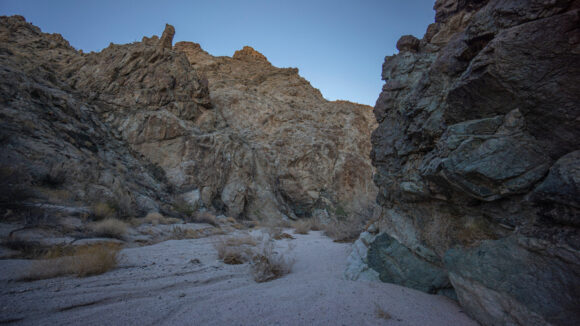
Somewhere near here, Sacatone Wash merges with Grapevine Canyon, which I continue to follow down towards Lake Mojave
Eventually, grapevine canyon dumps into Sacatone wash, and the Canyon is now marked on the map as grapevine. This is where the canyon narrows and becomes deeper and steeper. There are some pretty impressive rock formations here. It was a shame to be moving so quickly through such a cool Canyon, but necessity beckons.
With about a half hour of daylight left, I came across a challenging pour off. It looked to be about 20 feet down, but no easy way to down climb. With little time to Think about it, I lowered my pack down with a string and carabiner and began to down climb this tricky section myself. It was too wide to use my legs to span the distance of the choke point, instead I had to hug a part of the rock that stuck out farther than everything else. This required some movements on faith, and with very little to work with for handhold. Eventually I made it work and made it down safely. Whew! This one was sketchy.
I turned the corner in the canyon and found two potholes of water. Although I was expecting to find them somewhere, I was extremely lucky to find them here, moments before sundown. I dropped my pack and quickly loaded up with three liters of water; two liters in platypus bag and one leader in my dirty water bottle. Water had an extremely strong yellow tint to it.
With only a few minutes of daylight left now, I found myself in a wash that was just wide enough to set up my tent. Fortunately, the ground in this wash was fairly solid, because the high winds are still a problem and They seem to be blowing straight down this canyon, like a funnel.
After setting up my tent, I began to filter water. I have filtered water that was a very strong green color before, and that made it out clear using my Sawyer filter. However, I was disappointed to see that the water I had just filtered was only a shade of yellow lighter than the dirty stuff. Really Sawyer? Really? I did a very quick taste test and it seemed okay, but clearly something in this water is not being filtered out. I keep some chlorine tablets in my kit, and this is the perfect time to use them. I dropped two tablets into one liter and let that sit for a while. I still haven’t drank it, debating whether or not it’s worth risking it. The water in those pot holes is some pretty nasty stuff. I’m sure I could mask the taste with some drink mix, but I really don’t know what’s causing that yellow tint. It’s not light either, it’s a fairly strong tint.
Day 20 – November 22nd
Miles: 12.2 (half day)
No animals seen
There were strong gusts of wind every five or 10 minutes throughout the night, with dead silence in between. I ate a flat, smooshed bagel for breakfast, and washed it down with my last two ounces of water. Of course, I had the water that I took from the potholes last night, but since I’m only a few miles from Lake Mohave now, I think I’ll just wait until I get there and avoid dealing with this yellow water. I’m thirsty, but honestly not doing that bad.
The walk through the middle section of Grapevine Canyon this morning was excellent. There were surprisingly few pour offs to deal with, apparently having tackled the Crux of the entire Canyon just before I reached Camp last night. I can’t say it enough; these Canyon walls were impressive. It’s a deep Canyon, narrow and at times, very interesting rock formations. For example, veins of Darker colored Rock several feet thick could be seen in the host Rock, typically angled up at a 30 or 45 degree angle.
As the middle part of the canyon gave way to the lower part, which was much wider now, there was one final pour off to climb. I was surprised to see a rope in place here, and so I knew pretty much everything below this would be fairly easy going. The Climb I did last night, right before camp, was much more difficult and there was no rope in place there.
The lower part of the had a completely different feel to it. It was obvious it got a lot more traffic, as people had etched their name into the banks of dirt that were cut away by flash floods. Lake Mohave could be seen in the distance now, just a few miles away.
As I left the canyon there was a short one-mile section of open desert to cover before reaching the lake. As I approached it, I could see several Camper vans parked along the shore. Apparently, it’s some sort of Campground. I hadn’t planned on coming down here and actually, so this area was a bit of a surprise to me.
When I reached the lake, I saw several pit toilet bathrooms along the shoreline. I searched for a water spigot, but couldn’t find one. I went down to the lake, where the wind was absolutely whipping, ready to filter some water. I was surprised at how disgusting the shoreline and the water actually was. It smelled like a sewer. There was tons of seaweed and algae that had washed up on the shore, and had decomposed. The water itself was turbid, from the high winds stirring everything up. I decided to walk down the shoreline a little bit before filtering my water, holding out hope for a water spigot or something.
I walked by one camper van and startled their dogs. This also prompted a brief conversation, where I asked if there was a water spigot in the campground. The woman said no, but asked if I needed water. Why yes, I could use some. She was surprised to hear that I had just walked from Searchlight, through the mountains no less. She directed me to their freshwater holding tank where I was able to fill up with 4L of water. Of course, I immediately chugged one. It’s amazing how you can just feel the energy flowing back through your body. A truly incredible feeling. I had walked 52 miles on just 5L of water over 2.5 days.
After leaving the campground behind, I followed a road a short ways before heading into a side Canyon, out of the Wind, to take a break. Now that I had water to drink, I could also eat food. I had been trying to eat light in order to avoid using too much water in order to digest food, but now, it’s a free-for-all.
With a belly full of food and a bladder partially full of water, I set out to walk the final two to three hours into town. I followed a series of dirt roads and 4×4 trails, walking past a few old mines. Nothing incredibly interesting, and so I walked quickly, ready to reach civilization. Rest is not far away.
I could see Davis Dam in the distance as I walked my final wash of the day. This Dam holds back the Colorado River and forms Lake Mohave. It’s closed to vehicle traffic, but apparently, pedestrians are allowed to cross it.
Still, I was apprehensive approaching it, feeling like I was breaching some sort of National Security measures by walking across the dam. I knew I was being watched, with security cameras hanging from the street lights. But of course, I was doing nothing wrong. Still, I didn’t stop for more than a few seconds to take photos and film Lake Mohave, or the Colorado River downstream.
Having crossed the Davis Dam, I left Nevada behind and entered Arizona. Although the boundaries are not definite by any means, for all intents and purposes, the Mojave section is done with, and I’m now entering the Sonoran Desert environment. Indeed, a new chapter this hike has begun.
After crossing the dam, I tried hitchhiking into Bullhead City, but there wasn’t much traffic. What few cars that did pass wanted nothing to do with me. I was fortunate that Bullhead City has Uber, and so I utilized that option for a ride into town.
I got a hotel, shower and got started on town chores. I know I will be be staying for at least one zero day, I could really use the rest.
Day 21 – November 23rd
Zero day
Didn’t do much today except go through photos, catch up on my journal entries, etc. I also took the time to go over my map and plans for the next section. This is an essential part of hiking a new route, especially in parts of the country I am not familiar with. Oftentimes the route I plan at home is far too ambitious for reality, and needs adjustments based on my experiences on the ground in previous sections.
Day 22 – November 24th
Zero day
Did my grocery shopping today at Safeway. Bullhead City is very spread out, not a very good hiker town. All of the good places to eat are in one area, hotels are in another area, grocery stores are in another part of town. There is a bus system, but the bus only comes by once an hour, so the timing pretty much never works out how you like it too. Thankfully, there is Uber in this town, and I have been utilizing that for most of my stay. After two full zero days here, I’m feeling quite rested and ready to go tomorrow.
Mojave-Sonoran Trail Thru Hike 2021 – Section 4: Boulder City to Searchlight
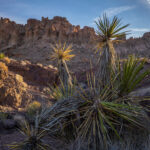
Mojave-Sonoran Trail Thru Hike 2021 – Section 4: Boulder City to Searchlight
Mojave-Sonoran Trail Section 4 Map
Mojave Sonoran Trail Thru-Hike Section 4 – Boulder City to Searchlight, 80 Miles
The above map only represents represents section 4 of 9 on the MST. For a more detailed map and general route info, see the Mojave-Sonoran Trail Guide page.
Mojave-Sonoran Trail Section 4 Journal
Day 13 – November 15th
Miles: 12.5 (half day)
No animals seen
Left the hotel around 7:30 am. First I went to the post office and got there around 8 am, when I thought it opened. However, it opened at 9 am. So now, I walk to the UPS Store to return a MicroSD card I ordered on eBay that was faulty. Then I got breakfast at Jack in the Box. Well, actually lunch, since they serve burgers during breakfast time, and I had already eaten a breakfast at 6:30 a.m.
Then I walked back to the post office and mailed out my bounce box to a hotel in Lake Havasu City. I also mailed home some extra gear that I didn’t need and some rocks that I found from the previous sections. This freed up some room in my backpack, now I can make a run to the grocery store and buy food for the next section, as well as some staple items to send to Searchlight, my next stop. All they have there is a gas station, so they don’t sell things like tortillas cheese and pepperoni.
After doing my grocery shopping, I went back to the post office and mailed out some of the food that I bought to Searchlight. On the way to the post office, I passed an older couple sitting on the patio of a restaurant along the main strip in Boulder City. They saw me walk back and forth a couple of times across town and was curious what I was up to. I told them about the hike, and we had a really nice chat for about 20 minutes. Bob and candy were their names. Bob said, I want to give you something, and reached into his wallet and pulled out some cash. Immediately, I tried to decline, as I really don’t need it. However, he insisted, saying that he would really like to help out and that he is lucky to be in a position to do so. Reluctantly, I accepted the $20 dollar bill. I always feel awkward receiving gifts from people. I’m so incredibly thankful that someone would bestow a gift upon me of any kind. This really made my morning. And yet another reminder of the kind and generous folks I always seem to meet along the way on these long-distance hikes.
I walked out of town, taking my last steps off pavement at the end of a subdivision and on to dirt, back into the desert. Within a few hundred yards, I was down in a really cool little red slot canyon, but this faded out pretty quickly.
My next destination is Gold Strike Hot Springs, and the route there basically follows a bunch of power lines. Not just one set of them though, various networks of large power lines and substations. After all, the Hoover Dam is right around the corner. The entire area is just littered with infrastructure related to the power grid.
I walked under Interstate 11 and continued through the power line the District of Southern Nevada. About the only interesting thing I saw here, besides the great view of Lake Mead in the distance, was an old mine. A horizontal mine shaft tunneled into a hillside, pretty easy to access. So of course I went in. At the entrance was a pile of clothes and a little bit of garbage. It appeared that a homeless person might call this home, at least at some point.
I spent about 15 minutes exploring the mine. Probably a gold mine, as the host Rock had thin quartz veins, and was very crumbly. One didn’t even need a rock hammer here, you could just grab the Rock and pull it off the wall. Alas, I found no gold, and no quartz worth keeping.
Eventually I reached the Gold Strike Hot Springs trailhead, right along the interstate. There were probably 15 or so Vehicles parked here. There really isn’t a trial here to follow per se, but it’s the obvious wash leading down the canyon. Does it count as a “trail”?
One interesting thing about this area is all at the helicopter traffic. At first I thought it was something to do with Hoover Dam, maybe some sort of national security thing. But then I remembered, helicopter tours. It was usually one helicopter every 10 minutes or so, along the same route. But at times, it seems like there was 10 helicopters per minute, almost as if they were in some sort of helicopter traffic jam. Pretty annoying after a while!
I saw about 25 people coming in and out of the Canyon today. For some reason I was expecting more. They were spaced apart quite a bit as well. One couple who is carrying a crying baby! That was surprising, since there were many areas where you needed your hands and feet to climbing scramble.
The middle part of the canyon began to really impress. Not unlike the Canyons I’ve already hiked on this route, and so it was a great walk. But of course, each canyon has it’s own “feel”, and for that reason, these kind of walks never get old.
Towards the lower portion of the canyon, there was some trickling water now coming out of the ground. It was warm, as expected. Then the Steep walls of the canyon became Lush with green vegetation and dripping water. There were small waterfalls pouring off the canyon wall and a babbling Creek at times with small Cascades. It was here that I realized how incredible this place was. A true Oasis, a special place. I would say a Hidden Gem, but it’s no longer hidden. Very well known to the public. A once-hidden gem, we’ll say. But still, quite an incredible place.
I gave up on trying to keep my feet dry at this point. I had already slipped down a Rock and gotten them wet, so now I just walked through the creek. The water was warm though, and quite Pleasant to walk through. There were all sorts of colorful mineral deposits accumulating on the cliff walls here as result of the water continuously dripping.
Farther down, there was a small waterfall pouring out of the canyon wall, about 20ft up. Not much more than a trickle, but for a desert as dry as this, it’s not hard to appreciate this water for what it is… an oasis.
There were three people in the mean soaking pool of Gold Strike Hot Springs when I reached it around 4 pm. I walked right by and just a few 100 ft later, I reached the Colorado River. It was pretty shallow at this point, but just being here along the river in this deep Canyon was awe-inspiring. There were some flat Sandy spots right where the creek meets the Colorado River, and found a spot to set up my tent. What a campsite!
After setting up my tent I went back to the main soaking pool of the hot spring. I had it all to myself now, and it was time to get in and have a soak. The main part of the pool was pretty shallow, but there was a very small, Maybe 5 ft in diameter, circular pool below a cascading waterfall. It doesn’t look like much, but it was dug out to be about 4 ft deep, with some sitting rocks inside. Perfect, absolutely perfect! I couldn’t help but laugh out loud, song things like “yeah right” and “no way”. A place this amazing along a desert hike like I’m doing is not to be taken for granted.
For all the work and effort it takes to get to a place like this, I only spent about 15 minutes here. Daylight was swindling, and I wanted to get back to my campsite and get dry before Darkness fell. With no one around, I didn’t think twice about just getting naked and drying off with my shirt, which I hoped would dry overnight, while I slept in my base layer top. Of course, as I was finishing drying up, I looked back above the waterfall and saw a person approaching. I can’t be sure if they saw me or not, but after they rounded a boulder I was dressed again.
The couple that walked by with down to the Colorado River, as I was walking back to my tent. It was now moments before darkness, and they began to walk back uphill. I said hello, and the woman asked if it was possible to have a boat pick them up. I couldn’t help but chuckle a little, saying that this was probably not going to happen unless it’s a true emergency. I asked if they had headlamps, and they did not. I was beginning to worry a little bit about their safety now. They have cell phones with a light oh, so they won’t be completely in the dark, but it’s certainly going to be a challenging walk, with 1000 feet of elevation gain, in the dark, following a specific path uphill that requires climbing and sometimes with the aid of ropes that are in place, left by previous hikers. They said they would be fine, and I hope they are. I told them if they get into any trouble, I am down here camping for the night and while I don’t have an extra tent or sleeping bag or anything, maybe there’s some way I could help, in an emergency.
Before going to bed, I noticed that the water level of the Colorado River had risen since I arrived, only two and a half hours earlier. This is a bit disconcerning considering my tent is only 50 ft away from it. I’m only about one mile below the Hoover Dam, so if anything, the water level should be lower at night. This is because electricity usage is higher during the day, thus more water must be sent through in order to meet the electricity demands. I highly doubt it will end up being an issue, but still, I don’t have as many things strewn about tonight, pretty much everything is packed away in my backpack and ready to go in case I wake up floating in my tent.
Day 14 – November 16th
Miles: 17.1
Animals Seen: Tarantula, Desert tortoise
Everything worked out the water level with Colorado River last night, I didn’t float away. I began filtering water while I broke down camp. This was going to be one of the longest water carries of the route, about 30 miles. This wouldn’t be a big deal on a normal thru-hike, but since this all off trail and through some rugged canyons with a lot of climbing, this is two days of hiking. I took 8L with me, after chugging 2.
From here, I need to go back up the canyon. There is no way to follow the shoreline of the Colorado River here. I knew this going into it, I just wanted to hit Gold Strike Hot Spring even if it meant an out-and-back. Going up the canyon this morning seemed to be quicker than going down.
I didn’t see anyone else on my way out of the canyon this morning until I reached beside Canyon I was about to take to exit Gold Strike Hot Springs area and make my way over to Boy Scout Canyon. A guy here waved me over to show me a tarantula. Pretty cool, first one on this trip!
The next several hours were a challenge. A lot of the same terrain I’ve already traversed, deep Canyons with a lot of pour offs, boulders to climb, etc. Very slow. Beautiful Canyon though and very impressive.
I saw several potholes of water as I walked my way up the washes. One was fairly large, depth unknown. Because of the Steep and slick rock around it, there were almost certainly dead animals in it. This is not the kind you’d want to fall into. As much as I wanted to feel hopeful about the water situation moving forward, I knew this Canyon was nothing more than an anomaly. Much of the time, I will be high up on a Ridgeline, with almost zero chance of water.
There have been many dry waterfalls to climb over along this route. Far too many to count. I reach one this morning, about a 15 or 20 ft climb, that got my heart rate going. The hand and foot holds were decent, but the rock was slick. Additionally, my camera that hangs off my chest was getting in the way, I needed to hug the rock a little bit closer and couldn’t. I was barely holding on, and felt like I was slipping. With one final push, somewhat a leap of faith, I crested the top of the pour off. I let out a cry of victory at the top of this one.
After a couple hours of working my way up hill, I looked back and could see the Hoover Dam. Pretty cool! What a unique vantage point over this iconic landmark, and without any crowds.
Next I worked my way around Gold Strike Mountain. This is where I enter the Black Canyon Wilderness. Home to the picturesque and rugged Eldorado Mountains, this wilderness unit is a maze of peaks and side canyons with vertical cliffs extending to the edge of the Colorado River. Much of the terrain was formed by volcanism.
After skirting Gold Strike Mountain, I found myself overlooking a deep and rugged canyon filled with black (basalt) boulders. Imposing, for sure. But after a moment, I see my line down and get to work.
Like all of the other washes, there were countless dry waterfalls to work around, in between steep sections of boulders and some Thorn bushes. I saw a couple of bighorn sheep skeletons down here, as well as earlier in the morning. I slipped and fell a couple of times, but no major damage done.
Next I entered the main wash that leads into Boy Scout Canyon. I would have loved to check this one out, but there was a 350 ft rappel needed to progress down the canyon. There was a class three option to avoidant the rappel, but honestly, I just didn’t have the time to go down this Canyon considering it would be an out-and-back. So I headed up the wash instead. This was an easy walk for about a mile before it was time to leave it for more off Trail hiking.
After leaving the wash, it’s an 800ft climb to the ridge. The route was straightforward and not too difficult.
The climb up to the Ridgeline the Black Canyon Wilderness was not all that difficult. I made good time, and found myself on top with an excellent View by around 1 pm. It was great to be out of the Canyons and up high again with a distant view.
The walking here was a lot easier than down in the washes. Eventually, I hit a four-by-four road that I followed for about a mile. This led me to an excellent Overlook off the Colorado River and the Beautiful Canyons that surround it. However, this is where the road ends. I needed to backtrack now to a spot where I could continue along my Southern trajectory.
I left the trail again and stayed high on a small Ridgeline above a wash. At some point, I needed to cross the wash though. When I dropped down into the wash, I heard a hissing sound. I was startled, and immediately thought it was a snake. But when I looked down, I was surprised to see a desert tortoise. I have seen a few shells, but This was the first live one I had ever seen. These guys are pretty rare, actually.
After crossing the wash, I met up with another dirt road. I’ll follow this one for another mile or so before I leave it. There were remnants of an old 4×4 road here too, though, from a time before this land was designated as wilderness. In time, nature will take this road back and it will be gone forever. For now, it gives me a path to follow, and I am not complaining about that right now.
Of course, the dirt road eventually ended and I was off Trail Again. By this time, I had about one hour of daylight left. I was approaching the high point of the Black Canyon Wilderness, and debated whether or not I should go for it. In the distance I could see power lines running across the landscape. This would likely be my best chance of finding a campsite for the evening, as I have not seen many other options recently. I figured it would take me about 1 hour to bag the Summit and then get down to the power lines.
It took me about 30 minutes to get to the High Point. I made it in one solid push, with no break. I was very hungry and thirsty at this point, and felt like I was running on fumes. I didn’t spend more than 2 minutes on the summit, snapping a few pictures and then began walking the Ridgeline down.
The Ridgeline leading downhill looked a little bit more challenging than the route I took up, however, it was pretty easy. It was also much shorter. It only took me 15 minutes to descend from the summit down to the saddle where the power lines were.
I found a flat spot to camp pretty close to the dirt road that runs along the power lines. With 15 minutes of light left, I didn’t waste any time setting up my tent. I was feeling slightly dizzy from the lack of food and water, and all of the exertion from this afternoon. It had been several hours since I had eaten, but I really needed to cover some miles. After all, my next water source is quite a distance away.
There’s almost no chance of reaching my water cache by tomorrow evening, but I should get within Striking Distance for the following morning. Of course, the terrain ahead is going to be tough, and there’s no way of telling how long it will actually take. There are two Springs ahead along my route, but both are likely to be dry.
Around 7pm, a vehicle pulled up where I was camped. His headlights eliminated my tent, and he should have had no problem seeing a human being here. The Jeep pulled out enough to parking area where I was camped and continued down the road. Shortly thereafter, I heard a bunch of gunshots. This continued for about two hours. I figured this guy would be camping down there, but he left around 9pm. Now driving back out on the road he came in on, he passed me again. Only this time, he slammed on the brakes about a hundred feet past my tent, put it in reverse and proceeded to drive (rapidly) right up to within 20 feet of my tent, headlights on me. What the hell? I know the guy has a gun, but there’s not much I can do other than shine him with my head lamp. So that’s what I did, and thankfully he turned around and left. But seriously, what was that all about? Shit.
It’s now 9pm and I haven’t gotten any sleep yet. I dozed off for a little while, but then around midnight, another vehicle pulled in to the area I was camping. I immediately shined him with my head lamp, and he drove away, down the road to the same place as the first guy. It sounded like he fired off a couple rounds as well, but it was only a few, not an all night event like the other guy. There is a gun range only a few miles away, I’m guessing these guys like to have a few beers and shoot at rocks or whatever in the middle of the night after the gun range closes. How annoying. Anyhow, I didn’t hear anything from this guy anymore and I was able to get some sleep for the rest of the night.
Day 15 – November 17th
Mile: 17.5
Animals Seen: Tarantula
When I woke up this morning I noticed a Gatorade bottle, half full, sitting on the ground nearby. Considering I was short on water, and being the dirty piece of hiker trash I am, I inspected the bottle and ultimately drank it. Electrolytes, it’s what I crave.
The road I camped along last night was the dividing line between the black Canyon Wilderness and the Eldorado Wilderness. Now, I continued south into the Eldorado Wilderness. I briefly walked a wash before beginning to climb up to the ridge line. Lots of scattered basalt and volcanic rock here.
To the east, 2500ft below, lies the Colorado River. There is usually no view of it from the crest of the Eldorado Mountains though, unfortunately.
I found this part of the Eldorado Mountains to be pretty plain and barren looking. Despite this, it was rugged and impressive. Usually it’s one of the other. The terrain below the crest to the east, leading to the Colorado River, commands respect, but little about it usually stands out and immediately grabs your attention.
It was around here that I noticed the helicopter traffic that plagued the Hoover Dam area has pretty much stopped. Cool. It was much more quiet now, less plane traffic too. Just silence, solitude and big views now.
View north along the crest of the Eldorado Mountains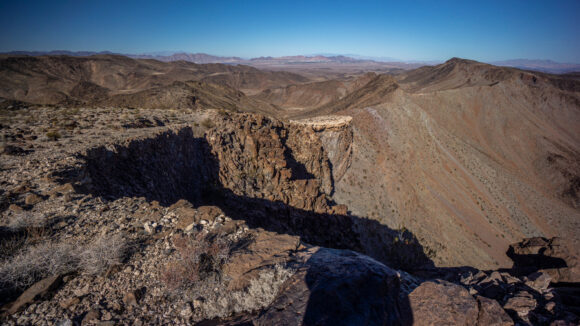
I walked this ridgeline for a couple hours. The best views were towards the south, shortly before I jumped down off the ridge. Here, there was a bit of a knife edge to walk along the ridge. This was perhaps one of the more scenic spots I’d seen this morning, and so I figured it was a good place for a break.
I skirted west of peak 3125 and began working my way down the ridge. To do that, there was a somewhat flat stretch on a shelf to walk before the final drop into a wash a few hundred feet down. It was here that I saw my first Mojave Yucca plant. I was surprised I hadn’t already seen many more, but I really don’t remember seeing any north of Lake Mead. I also saw the only snake of my entire hike here. Non poisonous, just basking in the sun. Cool.
As I descended the ridge, I began to notice more interesting rocks… Clusters of druzy quartz and a few pieces of chalcedony. Now I found myself at the bottom of a canyon, walking a very easy wash. What a nice relief. However, the scenery was pretty bland.
I weaved in and out of the wilderness boundary, walking an occasional 4×4 road. Then, it was cross country hiking again.
I debated whether or not to climb up hill and see if there was water at forlorn hop hope spring ultimately, I did check it out, and it was dry, as expected. The name kinds gives it away.
Next I went over a small pass, and the views improved. I was begging to real like the was some sort of transition in Landscapes now, which I was expecting as the hike progresses from the Mojave Desert Environment to the Sonoran Desert.
After cresting another small Hill, I dropped down into an unnamed canyon that will lead me to the larger Oak Creek Canyon. The views improved massively as I entered this canyon. Wow!
Down in this wash, the shadows began to creep over the canyon walls. My water cache near Nelson ghost town is a few miles away now, but I am beginning to doubt I’ll reach it tonight. I filled up with 8L yesterday morning, and my supply of water is now running low.
The canyon dumps me out into upper Lonesome Wash. Here, I encountered a sea of teddy bear cholla cactus. Careful… this stuff is brutal! Now, I’ll follow Lonesome Wash uphill to Oak Creek Canyon.
Next, I entered Oak Creek Canyon. It looks impressive on the map, with some deep and narrow sections. And that’s just what it was… big cliffs walls, and just a cool place to walk.
It was clear I wasn’t going to reach the water cache tonight, but I will make it fairly close. I was feeling really tired now. Probably from the lack of sleep last night.
The upper reaches of the canyon became more difficult, just as the sun was going down. With 30 minutes of daylight left, I was climbing boulders and small pour offs again. I found a pretty nice spot though protected by rock walls on three sides, on a nice bed of gravel. This will do!
Update on the water situation, I drank 4L today, plus the half liter of Gatorade. No regrets on that Gatorade. That leaves me with a liter in the morning, and that will get me about 2 miles, over some tough terrain, to my water cache.
Day 16 – November 18th
Miles: 18
Animals Seen: Jack rabbit
Slept great last night. Barely woke up at all, and even with a solid 10 hours of sleep, didn’t want to get out of my tent this morning. But that’s fairly typical of me, I’ve never been a morning person.
I reached the top of the Canyon I had been walking Shortly after breaking camp. I found some cool druzy quartz specimens on a hillside.
Next it was time to Crest the top of the pass. On the other side is Nelson ghost town, and my water cache. However, the descent looked steep and loose. This also marks the southern end of the Eldorado Wilderness, and now I enter BLM land.
The descent was not as bad as it looked from the top, but was still slow going. There were some really interesting rocks in some of these washes. I found chalcedony, quartz, and some really cool nodules that I’m not sure about. Farther downhill, I saw a couple of these nodules that were broken open and filled with quartz crystals, basically geodes. Great stuff, I hope to return here someday to do a dedicated rock hounding trip.
Finally down in the wash, I found my water cache. It was still there, and so I got to work distributing the one gallon jug amongst my four one liter bottles. I was a bit disappointed though when I took my first swig, as the water had a pretty awful after taste of chemicals and plastic. Yuk.
Next I approached The Nelson Ghost Town. There are several old wooden buildings here decorated with old cars, equipment and route 66 style decor. It’s owned by a family that runs it as a tourist attraction, giving tours of the nearby mines and the ghost town itself.
I walked in the main building which operates as a check-in point for visitors. Inside was a woman sitting down on a chair and reading. I asked if they had any Cold drinks, and she pointed me to a refrigerator with Gatorade and sodas. She quoted me a price and I dropped my backpack to retrieve my wallet, which is typically buried pretty deep in the pack considering it doesn’t get much use on trail. She asked where I had come from, and I told her about my hike as I rummaged through my backpack looking for my wallet. She said don’t worry about it, the drinks are on us. How kind! Almost immediately, a couple walked in and paid a small entry fee to roam the town. They handed the woman a $20 bill and said keep the change. Essentially, they bought my drinks. Funny how these things work.
They have a bar set up in the main room of the old storefront and I sat down on one of the bar stools, charging with the woman for a while. Then the owner and his sons walked in and sat down. We conversed for a while, and it turns out the old man did a bit of hiking back in his heyday. In 1976, he walked from bad water in Death Valley to Mount Whitney, the route today we refer to as the lowest to highest route. He recalls temperatures of 119, with overnight lows of 94. He had ambitions for other long walks, but then started his family.
Before I got too comfortable, I got up and left Nelson to keep walking. After a short paved roadwalk, I left this for a dirt road that would cut across the mountains and take me to Eldorado Valley. There were some elevated views above the Colorado River, with Arizona as a backdrop. Lovely.
I came across an old cabin that had been used by miners, basically living next to their claim. It said “gladiator Corp” on the outside, which was full of bullet holes at this point. The roof had caved in and the inside was in shambles. There were a couple of bunk beds set up, and interestingly enough, they were covered with cholla balls. A bed of nightmares. There were a couple of cholla balls on the ground as well inside the cabin, and I accidentally kicked one with a footstep that embedded it into the ankle of my other foot. The pain was sharp, and any movement caused further anguish. Outside of the cabin, I dropped my pack and pulled out my Gerber dime multi-tool, and utilized my pliers. You cannot simply use your hands for removing these. There were so many needles of this one ball stuck in my ankle that pulling on the needles on the other side of the ball with my pliers just meant that the needles broke off. I eventually dislodged it, and walked away with a reminder that I didn’t really need, to respect the cholla.
Farther up the dirt road, I came across the Belmont Phoenix mine. Wide variety of minerals were mined here, including gold, silver, copper, zinc, pyrite, chalcopyrite, etc. There were a couple of cabins here as well, One of them newer and in decent condition. The hardwood floors inside were intact and the walls had drywall.
The mine itself was blocked off, both the vertical shaft and the horizontal tunnels into the mountain. It’s always a bummer to see these tunnels gated off like this, preventing people like me from getting inside and exploring them.
The road eventually dumped me out into Eldorado Valley. Here, I had a water source marked, a small game guzzler. I found the guzzler, and now it was a matter of how to get the water out of it. This particular kind features a tank that is mostly buried in the dirt with an opening about 18 inches high, and a ramp that leads down to the water inside the tank. Their appeared to be six inches of water or less. The ramp itself was about 6 feet from the top down to the water level, and so there is no way to just scoop it out.
I anticipated a scenario like this, and brought a length of string for just such an occasion. I tied the string around the mouth of my wide-mouth Gatorade bottle, and put a few small rocks inside the bottle to give it some weight. Without the rocks, the bottle would simply float on the water and water would not enter the mouth. Even still, it took several tries to perfect my technique, to chuck the bottle into the water in such a way where the rocks would not be at the bottom of the bottle, causing the mouth to tilt up out of the water.
I was able to pull up a few Gatorade bottles worth of water before crappy knot I tied came loose, I lost my Gatorade bottle inside the depths of the guzzler. I found the longest branch I could from a nearby shrub and use that to fish out my Gatorade bottle. I was lucky to get it back. I tied a better knot and continue to draw enough water to fill my two liter platypus bag. Quite a bit of effort to filter two liters of water, but sometimes this is the reality of the desert.
It was now decision time once again on how best to proceed along this route. My planned route has me doing a continuous ridge walk of the Ireteba Peaks, this off trail Traverse will be very slow. I need to reach the post office by 3:45 PM tomorrow in Searchlight, before it closes. If I do the ridge walk, I won’t reach Searchlight at all tomorrow, let alone before 3:45. Additionally, that would mean I would probably have to camp up on top of the ridge tonight. With all of these things combined, I decided a lower route would be best. I’ll take a route through Eldorado Valley, consisting of dirt roads and cross country hiking.
I walked a sandy wash til sunset, which was quite nice here in this huge and empty valley. I found a great spot for my tent, flat and clear. One big reason I’ve been setting up my tent before the last several nights, as opposed to cowboy camping, is that the nights have been cooler. The tent really cuts down on the wind and makes very much warmer sleeping experience. I only have a 40-degree bag for this hike, So the little extra things to stay warm really make a difference.
Day 17 – November 19th
Miles: 14.6 (half day)
Animals Seen: No animals
Woke up this morning to large birds squawking and buzzing my tent. They must have been large, the sound of their wings flapping was quite loud. It was a cold night. I put on my pant legs for the first time along this route as I got going. The clouds obscured the sun for a while, making it feel colder.
I continued walking dirt roads, making good time. One road followed power lines for several miles. It was here that I saw my first Joshua Tree of the entire hike. Then, a few more. Eventually, the entire landscape was a Joshua Tree “forest”. These are generally confined to the Mojave Desert. After searchlight, I’ve only got another 60 miles or so of Nevada left, and then I cross into Arizona. While the boundaries of the Mojave and Sonoran deserts are not exact, a rough dividing line is the California/Arizona border, just south of the southern tip of Nevada, which I am fast approaching.
Today’s walk was rather dull, otherwise. I saw a few mining prospects and mines that had been filled in, but nothing interesting.
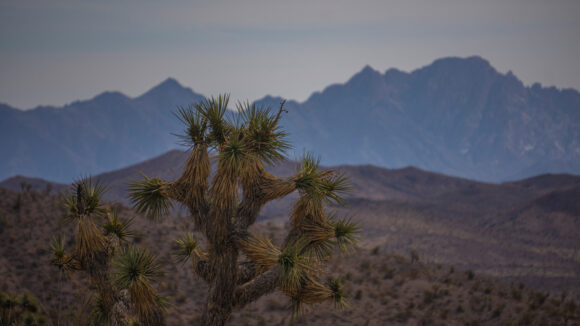
Spirit Mountain in the distance. I’ll climb this on the next section. It’s the highest point along the Mojave Sonoran Trail
I hit some areas of private peppery along my route into Searchlight, which requires a small detour. I followed an underground gas pipeline for the last few miles into town.
The town of searchlight is extremely depressing. There are few homes, most are trailers patched up with garbage. There is garbage everywhere in the street, much like the last few miles of desert walking into town.
My first stop in town was the El Rey motel, which had no vacancy. Damn. This was the place I had planned on staying at. I tried calling them last with my limited cell phone signal, but there was no answer.
So, I headed over to the other motel in town, the By Motel. This place was interesting. Some shady looking characters outside the motel asked “can I help you” in a tone that made me wonder who they thought I was. They did have availability, but it was cash only. Seems legit. With no other hotels in town, I went to the ATM and pulled out $60, and did the deal. No extra fees either, and I’m not complaining. So I handed my money over this crackhead looking guy working there, like an older, dirtier and more inbred version of Charlie Sheen in the movie “ferris buellers day off”.
The room looked surprisingly decent at first glance, but it had many issues, oddities and quirks. First, there was no door knob on the door, just a little handle to pull it shut and an old school key lock. The need sheets looked dirty(and definitely loose debris on the sheets), the floor was tile and made crunchy noises from all the dirt as I walked across it, and all the furniture looked worn and filthy. The shower had no curtain. The shower was tile, and had a large sunken area where water collected. The water barely trickled out of the shower head, not even enough pressure to wash away dirt that was washed off my dirty hiker trash body. The shower tile was dirty. There was no light above the sink, outside the bathroom. The bed Das a full mattress on a twin frame, overlapping or and hanging off. Under the bed I found another dead bolt lock from the last time they changed the locks. There is no wifi. The TV turns on but the cable box does nothing, and its missing buttons. There is no garbage can in the room. There was no soap, I had to ask for it. The heater /ac unit wouldn’t turn on. I could go on, but you get the picture. Funny thing is, as a hiker who just spent 4 days out in the desert without a shower, my standards are so low that none of this upsets me, it’s simply comical.
Outside the motel, there are a couple of abandoned vehicles, and a few more that are missing bumpers and generally looking like a junkyard puked it out. There were trailers full of garbage bags in the parking lot. But perhaps best of all, I could almost constantly hear someone screaming, in an extremely frantic and shrill voice, “I’m going to kill you!! I swear to God I’m going to f’ing kill you!” Not in a joking manner, either. I was waiting for gunshots or screaming at any moment.
The funny thing is, this hotel has a 4.4 out of 5 rating on Google reviews. It’s clear all of the reviews are fake when reading them. They all praised management, and one even said “they serve great food”.
I had been considering taking a zero day in searchlight, but this motel was my motivation to get my chores done and leave in the morning. At the post office, I mailed home rocks from this section and picked up two packages from general delivery; a new pair of shoes and foods I mailed from Boulder city. Searchlight only had gas station convenience stores, so I mailed my staple items here; Tortillas, cheese sticks, pepperoni and pure cooked bacon. I ate lunch at McDonald’s, bought some food from the convenience store, and took care of the rest of my chores.
Looking ahead at the next section, I made some adjustments to the route, bypassing a suicidal ridgewalk I had apparently planned, for something more realistic. I figure 3 days to bullhead city, my first town stop in Arizona. I’ll be looking forward to taking a zero here at a real motel, hopefully.
Mojave-Sonoran Trail Thru Hike 2021 – Section 3: Callville Bay to Boulder City

Mojave-Sonoran Trail Thru Hike 2021 – Section 3: Callville Bay to Boulder City
Mojave-Sonoran Trail Section 3 Map
Mojave Sonoran Trail Thru-Hike Section 3 – Callville Bay to Boulder City, 40 Miles
The above map only represents represents section 3 of 9 on the MST. For a more detailed map and general route info, see the Mojave-Sonoran Trail Guide page.
Mojave-Sonoran Trail Section 3 Journal
NOTE: When I hiked the Mojave-Sonoran Trail in 2021, the only section of the route I skipped was a 30 mile segment at the send of section 3. I went back to re-hike section 3 in it’s entirety in March 2022 and took a better route than my first attempt. Here, I’ll provide my journal entries and photos for BOTH my first attempt (Nov 21) and second attempt (Mar 22). Section 4 of the journal entries will continue the chronological presentation of this route as it was hiked in 2021.
Section 3, First Attempt – Nov 2021
Day 10 – November 12th
Miles: 11 (half day)
Animals Seen: 3 bighorn sheep
The wind picked up shortly after I laid my head down to rest last night. It was only 10 or 15 mile an hour wind gusts, but this was enough to blow the tent over in the soft soil. It would be foolish of me to have not anticipated this possibility, and I had already put a few rocks on top of my tent Stakes. I just didn’t use heavy enough rocks. I had to get up and search for larger ones, and build cairns on top of each stake. This did the trick.
I got going at the usual time, around 6:30. I climbed back up to the Ridgeline I dipped down from the night before. The landscape ahead of me was daunting; a series of washes that must be crossed, not followed. Repetitive and rather dull. Lake Mead is clearly in sight now, no longer hidden by tall Peaks or great distances.
Most of this area consists of soft soil littered with volcanic rock, mostly basalt. As I progressed Westward, the basalt lessened, and it was mostly just softer sand. I dropped down into one wash that was pretty cool, and made me wish I was walking more of these. But again, I am just crossing them, not following them. I saw one bighorn sheep run out of one of these washes as I made my way into it.
I probably should have stayed closer to the route I planned, but in the moment I decided to just walk Westward, wherever I felt like at the moment. For some reason, I thought I might be better off taking a route that stays closer to the Shoreline. When the terrain wasn’t cliffs, this worked well enough in the Jimbilnan wilderness. Unfortunately, on this side of Lake Mead it was much sand year, with a lot more vegetation. In other words, it was a nightmare.
In between the deep sand and some subpar miles, there were a couple of ridges and overlooks which were pretty cool. There were some interesting rocks up here too on one of these ridges.
I trudged through a few more miles of crappy terrain, both bad to walk and less than scenic. I reached boxcar Cove, and now there were a series of dirt roads leading in random directions, along with a plethora of car campers. Even the roads were crappy, deep and loose gravel. Today’s walk was really becoming a sufferfest.
Ultimately, I made the decision to just walk one of the dirt roads up to North Shore Drive. This is the main paved road that runs through Lake Mead National Recreation Area. I was really not happy with this section at all, and didn’t feel like I needed to prove to myself that I could walk through it. Perhaps with a little bit more time and research, I could have come up with a better route. But for now, there’s no reason to walk through this section, other than pure stubbornness.
As soon as I hit North Shore Drive, a vehicle was pulling out, in the direction I wanted to go. I put my thumb out to Hitch, and hopped in their pickup truck bed. I didn’t really have a plan yet, this all happened so fast. Really, I should have just gotten a ride to the point where Northshore Drive Meats Lakeshore Drive at Las Vegas wash, but on a whim, I said Boulder City. So that’s where they took me, to the Road leading to the marina, about 3 miles out of town.
I started walking the three miles into Boulder City, and walked about a mile before getting a hitch into town. Hungry and thirsty, I made my way to Jack In The Box for lunch. Then, I walked over to the El Rancho Motel, where my bounce box was waiting for me. Unfortunately, they were booked up when I got there. I grabbed my bounce box can hit the street.
I walked into a few more motels, but none of them had any vacancy. So then it was time to Google motels in Boulder City, and I started making calls. The quality in about 2 miles out of town, right where I came from, was the only one that had any availability this evening. I made my reservation and walked the two miles to the hotel.
I spent most of the afternoon and evening battling a wicked food coma from lunch, and pretty much just zoned out. This is somewhat typical of me, after spending few days exerting yourself out in the heat, once you reach the comfort the indoors, and air conditioning, the body just seems to have a way of saying “I’m done”. Prior to this, I was feeling great, not weak, worn-down or hindered in any way.
Day 11 – November 13th
Zero day
Now it’s time to figure out my next move. Besides the fact that I skipped about 30 Mi of this 40 Mi section, I had a lot of other logistical things to work out. Firstly, Boulder City is fairly isolated from the rest of Las Vegas, and without a car, I pretty much need to rely on Uber. There weren’t any Uber cars available yesterday, but this morning it seemed they were. So, I ubered in to Henderson to Walmart and bought a new Sawyer filter. Then I grabbed lunch, since there’s nothing nearby my hotel. This means I won’t have to walk 4 miles round trip into Boulder City later, or order delivery.
I had my bounce box sent to Boulder City, so now it’s time to back up all of my photos and video footage since the beginning of the hike. That way I can clear my memory cards for the next couple of sections.
One major downside of using a bounce box is that the post office needs to be open in order to mail it back out. Thus, arriving in town on the weekend means that I will need to stay until Monday so I can mail it out again. In this case, that means three nights in a hotel, and for some reason it’s really busy this weekend in Boulder City. After taxes, $175 a night at a hotel really adds up. This is definitely not the cheapest way to do a thru-hike, but there are few good options when one is committed to documenting the journey. The other is to just have a shitload of memory cards, which is starting to look like my next investment to avoid relying on a bounce box.
Day 12 – November 14th
Zero day
I did very little today outside of the hotel room. I backed up all of my photos and videos, sewed up a pocket I have on the shoulder strap of my backpack that holds my GoPro, ordered a new set of gloves for climbing and bushwhacking, and a slew of other logistical chores to make sure this hike run smoothly. Very uneventful, but also, very productive and very necessary.
Tomorrow I will head out for the next section, 65 ish miles to Searchlight. I will say that I never seem to sleep that well the night before I leave for another section. My mind races, worrying about all of the things I might have forgotten, and second-guessing my route. Tonight was no different.
Section 3, Second Attempt – Mar 2022
March 9th 2022
Miles: 22.7
Animal Seen: None
I was camping in my camper Van about 20 minutes South of Boulder City this morning. I had a couple of miles of driving down a rough dirt road before reaching the highway. I stopped at McDonald’s for breakfast, and then drove over to the Quality Inn. I stayed Here last November when I finished my 1st attempt at section 3. Today though, I will just park in the parking lot somewhere and hope it’s fine to leave overnight. Better than leaving it at a trailhead, I’ve heard some horror stories about break-ins in the Vegas area. From here, the Uber ride I scheduled Yesterday for 7 AM Today arrived on time. My plan is coming together. Not bad, considering I threw this plan together the day before.
My Uber ride dropped me off at Callville Bay campground, where section 3 of the Mojave Sonoran trail begins. I began hiking at 7:30 and headed up a familiar looking Mundane Hillside along the road.
Before long, I was overlooking my campsite from my 1st attempt at section 3 Down in a colorful wash. There’s a network of small ridges, seemingly running every which way. Every ridge has a game trail along its crest, making for relatively easy walking. Lake Mead glimmers in the sun light, spot a mile away.
I follow a series of ridgelines as long as I can, until I need to Change course and Cross a few of them. Small undulations, but Frequent. Fortunately, the terrain is not too steep here.
Soon I dropped down into a deep and colorful wash. It’s not that deep really, but the deepest in this general area. I was here in November on my first attempt, but I’ll be taking a different route this time, up the canyon instead of down. I remember this canyon being really impressive on my last visit, and so exploring farther up is good with me.
So now follow this wash uphill to the base of black Mesa, which I’ll climb later this morning. For now, around every turn the scenery confined to impress. Red and orange sedimentary rocks along the wash carved by the flow of water. Really cool.
Near the top of the Wash, I got my 1st view of black Mesa up close. It was a sea of boulders along the slopes, With no path to follow. Up we go.
The climb up was 700′ total. However, it really didn’t seem that bad. The slopes are steep but quite manageable, especially considering the very stable rocks and boulders that line the hillsides.
I made quick work of the climb and gained the summit. Because it’s a Mesa, the summit was barely distinguishable, but marked with a small pile of rocks. There was no summit register here. Good views though, especially West towards the Spring Mountains. It had recently snowed at higher elevations, and at 11900′, and its peaks were snowcapped. A beautiful sight in the desert, and from a comfortable 70゚down here at 2200′ elevation. This is the desert rat’s preferred way to enjoy snow, from a distance.
Walked the top of the Mesa for a short ways before finding a different route down. The descent was steeper than the ascent, but at least here there the rocks and boulders were very stable. Soon enough I was down and walking the wash below.
I only followed the wash briefly, then it was time to head up-and-over a series of parallel ridges to make my way to NorthShore road. The ridges were very small, but there was like 10 of them. I could see vehicles on the road in the distance, growing closer.
Next, I had a roadwalk of about a mile on Northshore road. In doing so, I will bypass a lot of the soft sand and crappy hiking that had me frustrated on my first attempt at section 3. This, along with the good scenery, made the road walk much more palatable.
Next I walked a long dirt road that led to government wash Campground on lake Mead. Few of the roads here go in the direction that I would like them to go, but this one took the perfect trajectory. I made quick work of this walk and appreciated the ability to start covering some ground.
Closer to lake Mead, a sea of RV campers lies ahead at an area called Government Wash. All of this would have been under water in the past, but now the “camping are” just keeps moving with the shoreline. So, there’s plenty of spots here to camp, if that’s your thing.
This is the extreme Western end of lake Mead, and currently where Las Vegas wash dumps into lake Mead proper. The spot where Las Vegas wash meets lake Mead is constantly changing based on the water levels of lake Mead. It would have been several miles upstream when the lake was deeper. I enjoyed the views of the lake and especially looking back East towards black Mesa, which I had walked I had walked just an hour and a half earlier.
After leaving the last of the campers behind at Government Wash, it was time to head cross country again. Here, a series of a series of ridges and washes run perpendicular to Las Vegas wash. I want to hike parallel Las Vegas wash, meaning I need to go up-and-over every single one of them. And here, they were larger ups and downs.
Alongside my route, there were occasional pond and pools of water that appeared to be separated from the main body of Las Vegas Wash. Protected little “beaches”. Nearby, large areas of cracked mud, evidence of a once higher water level. Some of the cracks in between the mud were 18″ deep!
After a couple of big ridges, things flattened out a bit. I’m now running parallel to Las Vegas wash and separated from it by dense brush. Fortunately, there is a route that stays high above the thicket, and provides an elevated view above the river. I could see upstream, and it looked like this route continues along a very narrow shelf at the base of some sedimentary cliffs. I Can tell it’s going to be very scenic, too. I instantly took a liking to this section.
I walked along the edges of steep drop offs, maybe 50′ above the river. The sound of the roaring water was really nice. Certainly, unique along the Mojave Sonoran trail route. Indeed, it’s wet and lush here, and it’s beautiful with the desert back drop.
Eventually, I need to leave the River to avoid a deep Canyon that intersects it. This means I need to hike up stream along a wash, this one was named gypsum wash, in order to bypass it. I hiked up and over a series of small ridges and washes to start on my westerly course.
It was a steep climb Out of the wash, but when I got to the top of the ridgeline, I was surprised to see it drop off much steeper on the other side. Fortunately, I had the option to walk the ridge line for a while until I reached a spot where only needed to descend a few feet from the ridge to reach the wash below. And, I got a scenic ridge walk out of the deal.
It was a bit of an open desert walk here to the next Canyon. This one, I’ll need to drop down into from above. It was pretty steep, but fortunately the soil was very soft, and allowed me to really dig my heels in on the way down. This makes extremely steep terrain very manageable.
Next, I dropped down into a wash with some cool red and orange rock. These type of washes, as colorful as they are, always seem to peak my interest. Even the smaller ones such as this.
Now down in a new Canyon, I found this one to be very impressive as well. I followed this down to the river again, where the trail continues to skirt Alongside the river, and elevated above it. Eventually, I reached a newly cut road into the hillside, witch which continues on the other side of the river. It appears this will be the site of a new bridge that that extends the wetlands trail to both sides of the wash. Cool. Only I’m above the road and it’s a very steep hillside. The soil looked pretty loose, so I went for it. It was a bit harder than I thought, and I ended up sliding all the way down. Thankfully it was only about 20′. However, I ended up with some road rash on my hand as it slid across the dirt.
Finally, I reached a spot where I could easily access the water in Las Vegas wash. This is the 1st time I could say this since government wash. I took the opportunity to wash off my hands, giving the dirt out of My open wounds. I also washed up my face and hair a little bit. Refreshing.
Next I reached the parking lot for the wetlands trail head. There was a fence around it and it said that it was closed. It looked like they were building a parking lot here, and a paved (perhaps?) pathway that leads down to the river and to the bridge that will eventually span it. This is right along Northshore rd, Which I now have the pleasure of walking for about 3.5 miles.
The roadwalk wasn’t too bad. Looking back to the East, some dark clouds were sitting above the muddy mountains. They looked Quite impressive from here.
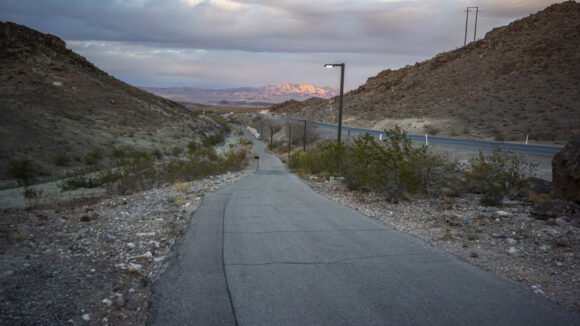
This paved pathway is the River Mountains Loop, which encircles the River Mountain Range. Tomorrow, I’ll hike through the range, not around it!
After about an hour along the road, I reached The spot where I had stashed a gallon of water in the bushes yesterday. It was still there. Sweet. It was Getting dark though, so I didn’t have time to distribute it amongst my water bottles. for now, I threw it in my backpack and continued hiking.
Next I entered the Three kids mine, and abandoned manganese mine from the World War I era. Clearly this place gets a lot of traffic, being so close to Vegas. Some pretty interesting graffiti though! I didn’t really have time to explore any of this though, the daylight was fading fast and I needed to look for a place to camp.
I continued uphill across the mine complex and reached one of the 2 open pit mines. I found a spot to camp That had a little cover from the wind. It was dark enough that I needed my head lamp to help me as I set up my tent. In the distance, I could see it’s pretty much the entire Las Vegas Valley, including the strip. I’m glad to be far away from it though. It’s an expensive and hectic place.
I got about almost 23 miles in today. I haven’t hiked more than 7 or 8 miles in a day since I completed the Mojave Sonoran trail route 2.5 months ago. Since then, I’ve been hiking about 4 days a week, often with a decent amount of elevation gain. I’ve mostly been exploring abandoned mines this Winter as I tour the Southwest in my camper Van. These roads are usually Too rough to drive, which leaves me with a couple of miles of hiking in order to reach them. So I feel like that’s kept me in decent shape since then. However, that’s nothing like hiking 20 miles a day. I’m feeling pretty tired, and it sure does feel good to lie down.
March 10th, 2022
Miles: 17.25
Animals Seen: 3+ Big Horn Sheep
Throughout the night there were various sounds in the distance… dirt bikes, loud cars, planes flying directly overhead. I didn’t sleep well at all. Sometime around 5 AM, sprinkles started hitting my tent.
I woke up at 6 and quickly packed up my things. This morning, I’ll meet up with one of my youtube subscribers named Kai, who had recently watched my Basin and Range Trail series and was interested in joining for some hiking. I welcomed the opportunity to have a partner here, even if it’s only half a day as he must work later in the afternoon.
Kai has done some thru hiking on the Appalachian Trail and is going to be setting out on the Pacific Northwest Trail this summer. He also has a custom route he’s working on that will form a big loop around Clark County (Las Vegas), and I think that’s pretty awesome!
I walked back down to the lower part of the mine complex that I hiked by last night, and Kai was just coming up the hill. Perfect timing. After some quick introductions, we started exploring the Three Kids Mine.
Now with some daylight, we got a better look at the part of this complex they call the “Wheel of Misfortune”. There are several round cement structures that have been spray painted to resemble the wheel from wheel of fortune. Only instead of listing dollar amounts, most say $0. Pretty weird, but kinda cool.
There was a lot of abandoned concrete structures here, all painted with strange and entertaining graffiti. We could have easily spent more time here, but after 15 minutes we left the mine for a dirt road.
After leaving the mine, the terrain quickly becomes more rugged and the vibe turns surprisingly remote and isolated. Of course, roads are not that far away, but the lack of public access to this area likely keeps it fairly lightly trafficked compared to other public lands in that hug the metropolitan Las Vegas area.
The weather this morning was very overcast, and the threat of rain remained. Distant dumps of rain could be seen as the clouds clip the tops of nearby peaks and ridges. The dark clouds created a different mood that was less common along the rest of my MST hike, since every day was usually just blue bird skies.
Kai hiked with me for about 3 hours before turning around and heading back to his car so he could get to work later. It was great to hike with someone new, it really changes the dynamic of these hikes when you have someone to talk to and share the experience with.
Shortly after Kai and I parted ways, I saw a bighorn sheep. This was my first in the River Mountains. Cool.
Soon enough, it was time to leave the dirt road and start my cross country trek across the River Mountains. My goal is to bag the high point and walk the ridge for a bit, before dropping down on the west side of the crest, just north of Boulder City. Hiking here was pretty manageable, for now.
Good scenery thus far throughout the River Mountains. I have been surprised with this range, and wasn’t expecting much because it was so close to Vegas, I suppose. There are no signs of trash, ammo casings, or footprints back here. Rally cool.
Most of the landforms here are unnamed. I walked up a large valley north of peak 3465’, which provided easy walking and pretty good views.
Soon enough, the canyon narrows a bit and the brush becomes thicker. I’m now climbing up the canyon east of peak 3465’, and it’s a little more rugged. Great views, though.
The clouds are clearing up now, but the winds are whipping today. 40 MPH gusts at times. Still, the sun lifts the mood, and the climb continues regardless. I reach a small pass, where I need to go around a large hill in front of me. Left or right, but which way loses the least amount of elevation? The steepest route, of course. And that’s what I chose.
The route to the ridgeline seems to take forever. There are many ridges and drainages to traverse, many side canyons to choose from. And when they are smaller, they can make navigation a little trickier, since none of the landforms are very distinct.
Some power poles mark the canyon leading to the crest of the River Mountains. The final 300ft up to the ridgeline is a little steep, but no biggie.
Once on the crest of the River Mountains, there’s a view west to metro Vegas, although somewhat obscured by hills, and the unobscured view east over Lake Mead. Wow! To me, this section is all about rounding the western side of Lake Mead, where the route begins its southerly trajectory. This is the section that ties it all together, the north Lake Mead region to the southern Colorado River corridor. This view was very meaningful to me in that way, to see where I’ve come from, and all of the work involved to trek all the way around this massive Lake, to string this route together.
I continued up the ridgeline to peak 3502’. The views from each of the small peaks along the ridgeline all offer the same basic view. It’s a good one, though. The wind is blowing me off my feet now, especially when a rogue gust comes out of nowhere.
At the top of River Mountain’s high point, 3789’, there’s a summit register and it’s full of entries. This peak gets a lot more traffic than I would have assumed from the route up, but then again, I took an unconventional approach. The wind was so strong that I didn’t spend a whole lot of time up here. It also killed my camera battery, and it was only cell phone photos after this today.
Continuing north along the ridge, I quickly came to a ridgeline that leads down to a saddle with a 4×4 road leading up to the top, and some power lines. This must be where most people approach the River Mountains high point from.
I walked the rough road down the canyon and out into an open valley west of the Black Mountain. It’s about 2 miles across it to the base of my next climb, a road leading out of the valley and back up to the crest.
I followed a winding dirt road up a mountain with a radio facility at the top. Only a few miles from Boulder City now.

Looking down on an actual hiking trail! Boulder City lies at the entrance to this canyon at the bottom
Once I reach the top of the crest again, I see a vehicle parked at the top. This is a trailhead that leads to several different trails, one of which I will have the luxury of following downhill for a couple of miles. One of the few times I will encounter a marked hiking trail on this entire route.
I drop down into the unnamed canyon leading southwest towards Bounder City. The views are outstanding! I was not expecting this, although when I look at the maps, it’s not hard to believe. The map shows gratuitous amounts of steep terrain, which is a sure recipe for a beautiful landscape in any environment.
As I hiked down the switchbacks, I encountered a couple more bighorn sheep. These guys weren’t afraid at all, they just sort of walked a few feet away and turned their backs on me. Must be slightly used to seeing humans here, only a couple miles from Boulder City now.
After exiting the canyon, it opens up to Boulder City. I walk the outskirts, and enter a residential area of high end homes, and weave in and out of the power line corridors to make my way back to the Quality Inn hotel where I parked my van yesterday morning.
I was relieved to see my van still there in the parking lot, and not towed. I took a chance that nobody would notice it for a night, rather than leaving it at a trailhead where it’s an easy target. Not today, thieves.
It was really nice coming back to my van after the hike, and knowing I wouldn’t need to spend any money on a hotel. I drove to Railroad Pass a few miles away, got a shower at the truck stop, a burger from the fast food place, and parked in the casino lot to spend the night.
I was really glad I went back and re-hiked section 3. My initial impression of this section was that it was merely a connector, and being so close to Vegas, that it wouldn’t be all that interesting. While it was definitely not one of the highlights of the route, it certainly exceeded my expectations for scenery, remoteness, and overall enjoyment.
Mojave-Sonoran Trail Thru Hike 2021 – Section 2: Echo Bay to Callville Bay

Mojave-Sonoran Trail Thru Hike 2021 – Section 2: Echo Bay to Callville Bay
Mojave-Sonoran Trail Section 2 Map
Mojave Sonoran Trail Thru-Hike Section 2 – Echo Bay to Callville Bay, 50 Miles
The above map only represents represents section 2 of 9 on the MST. For a more detailed map and general route info, see the Mojave-Sonoran Trail Guide page.
Mojave-Sonoran Trail Section 2 Journal
Day 6 – November 8th
8.31 Miles (half day)
Animals Seen: About 15 big horn sheep
Woke up at 6:45 today and forgot about “daylights losing time”, and the sun had been up for an hour already. Whoops. Left the hotel at 7:30 am and started walking out of town So I could get a hitch. Unfortunately Overton is very spread out and I had to walk a solid 3 miles to get past the bulk of town. There wasn’t a ton of traffic, but there was enough to start getting frustrated that none of them would stop for me, a human standing out in the desert. Hmm.
I got my first hitch from a guy who is camping in an RV a couple miles out of town, but driving is pickup back to his RV camp spot. So now I was sitting in front of an area with about 40 RVs parked, and a few of them pulled out and drove past me. No luck.
Eventually, a really nice older couple driving a small camper van, not a big rv, stopped for me. Although they are American citizens, they live in Switzerland most of the year and just spend the winter and driving around the southwest in their camper van. They were here to hike Valley of Fire, and being fellow hikers, we hit it off. They followed several thru-hikers on YouTube and asked if I had ambitions to hike the continental divide trail. So needless to say, I enjoyed the company and they ended up driving me a little out of their way to go to the entrance to Echo Bay Campground.
Once I got dropped off at the road leading to Echo Bay Campground from North Shore Drive, I only had to wait two or three minutes before a couple of guys in a pickup pulled in and stopped for me. I rode in the back of the bed and made it to the campground around 10am. It only took me two and a half hours to go 20 miles! But, After a frustrating start to the hitching experience this morning, it was nice to end it on a good note.
I spent some time filling up water, eating leftover pizza and getting my gear situated. I didn’t start walking until about 10:30.
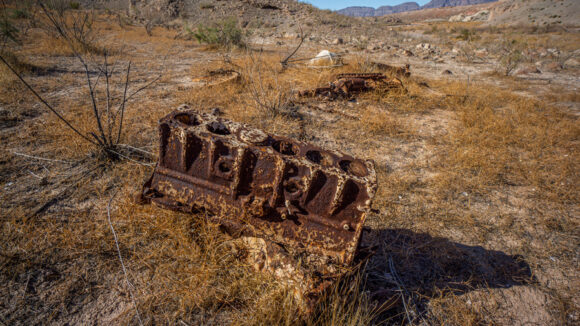
Lots of this junk near the shores of Lake Mead, and up all of the “fingers” of water that used to extend up the washes when water was higher
I dropped down into Echo wash and crossed over into the black mountains /Jimbilnan wilderness. The lower reaches of the wash and the base of the foot hills here used to be underwater when Lake Mead was higher. So, there was a lot of debris here like old anchors, chains and even a few engines.
The first couple hundred feet of ascent were tough. It felt hot, even though today was in the 70s, and there were a ton of rocks and boulders to step on and over. On the way up, I saw a herd of six or seven big horn sheep. After climbing a couple hundred feet, I got my rhythm back and made quick work of the 1,000 foot ascent. I was surprised to see a stack of cairns at the top of the hill, but there they were. The views of Lake Mead were great, and the cathedral peaks Ridgeline on the horizon was very impressive. That’s where I’m headed as I enter the Jimbilnan Wilderness. Yeah, that name just rolls off the tongue, doesn’t it?
Now, there was a series of game trails to follow. Nice. They followed the path that I had charted out at home After studying the maps. To me, that’s a great feeling, to have your route plan verified by animals, who hike here daily.
I wasn’t sure what to expect here, in the cathedral peaks area. The name sounds cool, but there is practically no information online about this area. I was instantly attracted to this ridge line and the greater area. I could tell today was going to be tough, but beautiful.
The ridgeline meanders up and down, and lead me to a canyon that I must climb to gain the crest again. I saw another seven or so big horn sheep, and got some cool photos of them on a ridge with my zoom lens. As I walked up the canyon, I encountered the only shade around. This makes for an obvious break spot. And lunch today is trash bag pizza! I ordered a pizza while in town and realized the box containing leftovers would not fit in the mini fridge in the hotel room, So I asked the front desk if they had anything like a gallon size ziplock bag to store the pizza in. They said no, but offered a thin trash bag. Hey, that’ll do.
After lunch I continued climbing the canyon. At the top, I climbed up a small ridge line and as soon as I did so, I startled two big horn sheep only about six feet below where I was standing. They scurried off, startling me in the process.
From here I could see West Cathedral Peak, my next destination. Some pretty cool vertical rock spires could be seen just below the summit. The views now we’re so good I was starting to get chills. But standing in my way was a steep rock face that I had to contend with. This was probably the crux of the day. It took me a good half-hour to work my way around it, down climbing a few ledges.
West Cathedral Peak offered excellent views of the entire area. The contrast of colors between the blue waters of Lake Mead and the white rocks sticking out of it was striking. Everywhere else I looked, There were jagged pillars and rocks spires, illuminated by the sun and glowing hues of Orange and Red.
In the distance, I could now see My next destination, the Cathedral Peaks High Point. It looked imposing and far away, and now close to 3pm, I began to question whether or not I would reach my intended camp spot tonight on the shores of Lake Mead. I made my way towards the peak anyway, leaving the decision to summit it for later.
The Ridge connecting West Cathedral peak to the high point was rather easy and I made good time here. Most of the rock in this area is volcanic, sharp and not all that interesting. But here, I began to notice chunks of chalcedony, and druzy quartz.
I wasn’t exactly sure about the route up to the high point, but just started walking and following my instincts. Class two all the way up, with some steep stuff. At the top, a class 3 move to get to the summit block. Tons of exposure on the other side of the rock face, which is evident the moment I crested it.
The summit view from the cathedral peaks high point was excellent. More or less the same as West Cathedral peak, but with a better view of Lake Mead. There was a summit register with one entry from 2008 I believe, one from 2017, and a couple from 2019 and 2020. I was the first to sign in in 2021. There were a ton of small gnats here, and their buzzing sounds made me think there was a drone nearby for a minute. The sun was getting low in the sky though, and with an hour and a half of daylight left, it was time to head down.
Next up is a series of canyons and washes. They looked extremely rugged from the top, and although the map didn’t make them look that difficult, I had my doubts. But it’s ruggedness also made it extremely beautiful. The lower I dropped into the canyon, the more I liked what I saw.
I was really trying to hurry down, since I saw nothing resembling a campsite so far. I was really doubting that I would make it to Lake Mead, so my new plan was to head far enough down where the washes became bigger, more free of vegetation and more Sandy… somewhere to camp for the night. I ended up rolling my ankle coming down the canyon, but fortunately, I was able to walk it off.
Every time I looked back, the imposing Canyon walls, Now illuminated by the setting sun, seemed to impress me more. I saw absolutely no signs of human use here. No footsteps, cairns, garbage, ammo casings, etc. I did find a big horn sheep skull, with the horns intact. These are always cool to find. They are surprisingly heavy though!
Now approaching the lower reaches of the canyon, the views were downright stunning. With 30 minutes of daylight left, I reached a side canyon leading to Cathedral Cove on Lake Mead. This was not the Cove that I was shooting for, I was hoping to reach S Cove, still another mile or two away. But I found a nice flat spot in a sandy wash, surrounded by huge cliffs and rock faces. With the stunning views and a good place to camp, I stopped for the day at 4:30 Pm. Man, the lack of daylight at this time of year is tough to get used to, stopping so early. Kind of wish I could live in the southern hemisphere during the winter. Hmmm….
I decided to cowboy camp this evening under the stars. There’s a fair amount of bugs out though, hoping I don’t regret it. I’m also happy to report that my appetite has been somewhat restored. Good thing because I paid a pretty penny to get into Overton and stay there two nights. Still, I think this was the best move for me in the long run, for the good of the hike. I was feeling fairly good on the first section, but it would have been a solid eight or nine days to Boulder City, where I was originally planning to take my first zero day. Personally, unless I am already in excellent trail shape (which I wasn’t), I don’t think it’s a good idea to try and push yourself that hard in the beginning.
Day 7 – November 9th
13.66 Miles
Animals Seen: 1 big horn sheep
Woke up at 5:45 am, Now that the sun comes up ridiculously early due to daylights losers time. It doesn’t make any sense to me to set time back an hour at this time of year when darkness comes at 5pm. Now it comes at 4pm? That’s worse! Anyhow, Clouds moved in overnight, overtook the stars, and right around the time I was ready to leave camp sprinkles began to fall. This was not reflected in the weather forecast, which I believe said 0% chance of rain and was not calling for clouds. The sprinkles were light and short-lived, though.
Having rolled my ankle yesterday, it was feeling a little tender as I began my hike this morning. I found another big horn sheep skull and skeleton shortly after leaving camp. I suppose it’s not surprising considering how many live sheep I’ve seen in the area. Progress was fairly slow, and about to get slower.
I left the wash I was in for a wash leading to S Cove on Lake Mead. I hiked up the drainage over a small pass, and down into the wash on the other side. The scenery was excellent now, colorful and stunning rock formations towering high above the canyon. Lots of jagged peaks, pillars and spites. Truly stunning. Another place that boggles my mind… there are places like this, of this magnitude, that remain so obscure? Only an hour from Vegas, at most, and yet, I feel truly immersed in this remote wilderness environment, seemingly untouched.
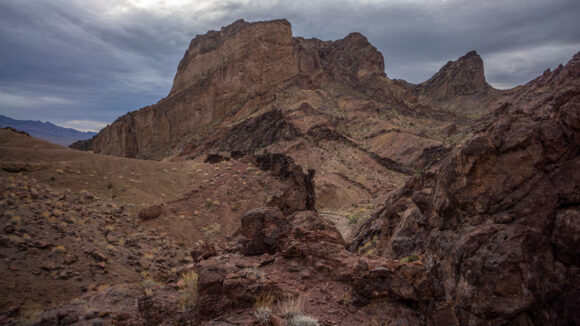
The entrance to S Cove. Canyon route on the right/below, game trail up and over the hump in the center
After a 1.5 miles or so, I reached the canyon that will take me to S Cove on Lake Mead. From the moment I entered the Canyon I knew it was going to be difficult. There was a large narrow Canyon with a pour off that I needed to traverse around, and thankfully there was a high route around it. The landscape here continued to impress. There would be many more pour-offs below as I worked my way down.
I encountered one pour off that was not very tall, but awkward enough that I used my paracord and carabiner to lower my pack. This makes a huge difference, to be able to down climb freely without the bulk of the pack getting in the way and hindering the climb.
The walk down the canyon to S Cove was very scenic. None of the obstacles were too difficult to climb. More big horn sheep carcasses and bones.
Eventually, I made my way to the lower reaches of the Canyon and Now could see the high water mark on the rocks. It seemed like the route to s cove took forever. In this case, forever means a two and a half hour walk from camp this morning. Yeah, I wasn’t close last night.
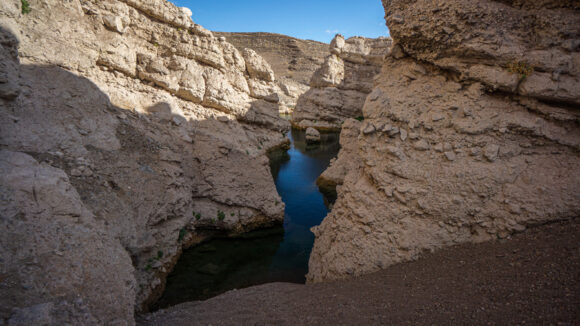
Lake Mead at S Cove. With water levels rapidly changing (dwindling), the point at which the water extended up into the canyon is constantly changing
When I finally reached the water, the first thing I noticed was how the gravel from the wash dropped steeply to the water level. I immediately began to filter water, knowing how slow my Sawyer filter is functioning. I used a gravity feed setup to let the water filter while I ate a snack and took a break. Then it was on to filtering by hand, squeezing and squeezing until I collected two liters. This would be enough to get me Cleopatra wash. And it would have been quite easy to camp here last night, had I made it. However, I feel like there would have been some animal activity here as it’s clear they used the spot to get a drink themselves.
Now it was time to follow the shoreline of Lake Mead to Cleopatra Cove. From s Cove, the shoreline was not really visible or accessible. In the way lies several ridge lines that equate to lots of ups and downs. Nothing to do but start tackling this obstacle.
At the top of first ridge, I had my first big view of Lake Mead. The wind was whipping now, about 25 miles per hour. No boats were on the water today, and wisely so. My view was a depressing one, since I could see several more large ridge lines to go up and over.
After making it past Kendall Cove, the shoreline became much easier to walk. It was flatter and there were less ridges to contend with. Now, I was actually walking on the beach just a few feet from the water, instead of a few hundred feet above it. Progress was much faster now.
When I reached Cleopatra Cove, I was surprised to see just how far the waters of Lake Mead encroached on the Canyon. I was on a ridge line, looking down on it. I needed to head uphill to get a better view of the wash and how I could enter it. I noticed the entrance of the canyon was quite narrow and tall, and appeared to contain several pour offs. I saw a trail of big horn sheep scat leading uphill, so I followed that for a bit. I realized I would not be able to continue on this high route paralleling the canyon much longer, but there was no way down into it from here either. It was at this point when I realized I had made a dumb mistake… I forgot to Fill up water from Lake Mead down at Cleopatra Cove. I had been side tracked by the entrance to Cleopatra Canyon and my need to find a way down into it.
So, I backtracked down to the water. It was the same deal as S Cove, the wash ending with a steep gravely descent top three water level. It was imperative to fill up on a good amount of water here since it would be a solid day before my next opportunity.
It took me an hour and 15 minutes to filter 5 liters. The speed at which this Sawyer filter operates was really frustrating me now. I am squeezing as hard as a I can without popping the dam bag, and that’s as fast as it will go. I’ve already backflushed repeatedly. I will definitely be taking an Uber into Vegas or Henderson to a Walmart so I can purchase a new one when I get to Boulder City. These things don’t seem to last more than a season for me.

The little pass leading down into the canyon proper, avoiding the climbing obstacles at the canyon entrance
With 5.5 liters now, I headed back to the entrance to Cleopatra Canyon. There were several large pour offs in the lower reaches of the canyon that prevented me from progressing further. Fortunately, there were some game trails leading up a side canyon that parallel the entrance to Cleopatra Canyon. These proved to be quite useful, leading me to a path that ultimately dropped down into the canyon and avoided all of the unclimbable pour offs. I even saw a couple of cairns, which surprised me. Someone had been through here.
The lower part of Cleopatra Wash is fantastic. The canyon opens up and becomes very hikeable. I really enjoyed these next few miles up this spectacular canyon.
Around the middle section of Cleopatra Wash, I began to notice how green it was. And the additional animal tracks/scat. I began to think there’s a chance there is water in this canyon, despite not seeing any in my research. I did see my first water here, and it was guarded by a cloud of bees. Perhaps a few gallons in a small pool.
Climbing up out of the middle section into the upper, the traces of water continue. An occasional puddle or pool, the subject of high competition amongst the local wildlife population.
There were many more small pour offs to climb up and over, but really no big deal. I encountered multiple puddles of water in the canyon, some small and some as large as maybe 10 gallons. The water was typically in gravel, and therefore could be dug deeper if needed. It was clear animals did this in some spots. Tracks and scat could be found that every water source here, but that is to be expected. I passed on all of the water sources since I had just topped off my supply.
I exited the canyon at around 4 Pm. Now I was in a much larger valley and there was a 4×4 road running through it. With under an hour of daylight left now, I made the decision to skip Redstone Peak and follow the road for 2 miles instead. The main reason for this was that I am about a day behind schedule now, and I don’t want to run out of food. Plus, with Sentinel peak and Hamblin peak ahead, I wouldn’t be sacrificing much.
Along the road, I left the Jimbilnan Wilderness and entered the Pinto Valley Wilderness. I walked until the sunset and grabbed the first possible campsite I could find. A hundred feet off the road, on top of a small little ridge, I found a fairly flat spot with some small rocks that were easy to move out of the way and provide a place to Cowboy camp. Not the best spot, but really, not bad either.
Today was a tough day, but I was rewarded for my hard work, that’s for sure. The Jimbilnan Wilderness is an incredible place, and I will always remember my time hiking it.
Day 8 – November 10th
15.81 Miles
No animals seen
The quilt I am using, the hammock gear burrow 40, was designed with horizontal baffles that hold in the insulation as opposed to vertical baffling. And before going to bed each night I must shake the bag out in such a way that the insulation moves towards the “top” of the bag, as opposed to underneath my body. I didn’t do a great job of that before going to bed last night, and as a result, I was a bit cold by the time the sun came up. I really don’t like the design of this particular quilt, and have thought about either replacing it or somehow having it sewed in a way where the insulation doesn’t move anymore.
Started hiking by 630. It was nice to begin the day with a walk along a 4×4 road Instead of off trail. This was short lived though, and after 30 minutes or so it was time to head off trail.
The morning began with a series of washes, taking me up and over a small pass around a lone high point, and down some washes the other side. For the first time, I encountered some thorn bushes in the washes that were problematic to move around. Additionally, it’s easy to lose your direction in the washes, especially when they Me and her back and forth and different directions. Needless to say, I took a different approach and just went up and over each ridge and wash, which thankfully was possible due to the fact that the banks of the washes weren’t too high or steep.
Next, I entered a valley flanked by pyramid peak and booths pinnacle, which was an easy walk. This would lead me to the base of Sentinel Peak, which was out of sight nearly the entire time.
There really wasn’t all that much elevation gain to reach the ridges leading to Sentinel Peak. Or rather, “the Sentinel” as it’s marked on the map. Nobody that climbs this peak comes from the direction I’m coming from though, and so I was on my own with a route. I followed a series of Game Trails along ridge lines leading towards Sentinel. At times, the game trails traversed some pretty steep slopes.
The ridge lines leading to Sentinel where quite stunning. The first bit was steep, traversing around one slope in the shadows for a while before popping back out to a proper ridgeline again. Sentinel itself is stunning, and you can’t ignore it’s presence. You don’t have to know a lot about geology to recognize that something interesting has happened here, causing the landform you see before you. I had only done basic research on this peak and really, was just winging it here, connecting where I was this morning to the saddle below the Sentinel. So far, it’s working.
As I made it to the final ridge line that takes you to the summit of Sentinel, I could now see the sheer cliff face that was hidden from view earlier. Even the more gently sloping side of Sentinel appeared nearly vertical. Wow, just wow! You can see the various bands and layers of rock that make up the faulted/tilted landmass that is The Sentinel. Truly incredible.
Looking northeast from the saddle below The Sentinel, the Redstone area immediately catches the eye… the outcrop of red rocks glowing amongst the dullness of the rest of Pinto Valley. Here too, one can’t help but think of the geological explanation for this scene. Faultlines and volcanic activity are the main forces that shaped this land.
This area is referred to as the Hamblin-Cleopatra paleovolcano. Basically, a volcano was torn in half by a fault line, and the two halves are moving farther apart from each other. So that’s pretty interesting!
I began working my way along the ridge line approach. It wasn’t long before I reached a section with quite a bit of exposure, that required sliding on your butt two gain as much friction as possible, in order not to tumble off a several hundred-foot cliff. I paused for a moment here and began to think about a multitude of things. I’m alone with no partner, no climbing gear, little grip left on my shoes. I am behind schedule by about a day and a half just on this section alone, which was only supposed to be 40 miles! That means my food supply will be running low Soon. I know it would take a lot of extra time to reach the summit, time I just don’t have. Adding all these things up, it was a fairly easy decision to just head down and enjoy the awesome views that came with the ridge lines near Sentinel, and save this peak for another time.
I’ve said it many times, but my philosophy as of late when it comes to these long distance hiking routes is to plan big, but accept the fact that you won’t do everything you set out to do. The alternative is to plan a really easy route, one where everything is a pretty much safe and guaranteed passage without any surprises. I like the idea of planning big, because I know I will accomplish at least a good portion of what I set out to do. If I plan an easy route, it’s very unlikely that I will deviate from this route to bag an extra peak along the way or go for any additional challenges. In the end I believe this leads to a much greater adventure, one worth far greater rewards.
It was an enjoyable ridge walk leading down from Sentinel. Then, I dropped down into a wash that seemed like it didn’t belong amongst these ridges and peaks, but instead on the valley floor. It wasn’t long before I encountered several pour offs, seemingly one every hundred yards or so.
As I dropped in elevation, the color of the rocks changed from a lighter color to a red sandstone. This descent route was one that I had seen talked about online from the handful of people that have climbed it, and several people mentioned a challenging choke point near the bottom. However, I did not find the choke point to be all that difficult.
Out of Canyon now, I entered Pinto Valley. I had not planned to come this way, it was only since bailing from Sentinel Peak that I made this decision. I suppose bailing came with a major advantage in that I was now going to walk by sandstone spring. I could only find one reference to it online, which said it had a couple gallons of water in 2013, but also a lot of animal scat.
I was surprised to see a pipe and a trough near this spring, but no water in the trough. At the source though, there was indeed several gallons of water. However, this spring was extremely fouled with animal feces and the entire area was littered with more bones and skeletons that I could count. The smell was horrendous. There were many bees here too.
My first plan was to dig a small hole in the sand near the spring to see if I could get water to pool up through this hole. Nothing though, just more sand. I need the water though, because if I don’t collect here, I have to go many miles out of my way to Lake Mead and draw water there. So what I did was, take a small piece of women’s pantyhose to put over my wide mouth gatorade bottle and use that as a pre filter. There were a ton of squiggly little bugs swimming around, they don’t need to clog my sawyer filter any more than it already is. The pantyhose are extremely slow to filter through, unless you make an effort to spread out the material, making for larger holes for water to deep through. This worked quite well.
The water had a moderate green tint to it, which meant I would probably have to back flush a couple of times. Filtering was slow though, due to my Sawyer filter being old and compromised, So I filtered two liters and then collected three more to filter later at camp.
I had less than two hours of daylight to work with now and feeling like I hadn’t made all that much progress today. Fortunately, I was down in Pinto Valley now and could just walk the main wash running through the valley. Indeed, this made for fast progress. I was surprised to see another small spring (not on the map) in the middle of Pinto Wash, about a mile west of Sandstone Spring. The water actually looked better than Sandstone Spring, but I have a feeling this one is much less reliable.
Behind me, Sentinel peak and the outcrops of red rock where illuminated by the setting sun. I couldn’t help but turn around and look at this majestic landscape over and over.
As daylight dwindled, My pace quickened. I wanted to cover as many miles as I could, and finish most of this valley today. I could have easily camped anywhere in the wash, but then the wash narrowed and became rocker. This forced me up and out of the wash and onto the surrounding ridge lines. With only a few minutes of daylight left, I found myself on a slanted slope with a lot of a medium-sized rocks. Not good. I chose to keep heading uphill, ultimately climbing the tallest one around. I was drenched in sweat by the time I reached the top, but I found a spot that would work for me. It was clear that it had been used by big horn sheep, as it was littered with pellets. I cleared out the scat and leveled the ground enough to make room for my tyvek ground sheet and air mattress. Cowboy camping again.
In the darkness, I rigged up my trekking pole against my backpack so that I could hang my gravity feed water treatment system and let this work While I did other stuff. It’s slow, put not that much slower than squeezing by hand. I really feel like the gravity feed systems are worth their weight in gold sometimes. In my case, I only needed to add a two-foot length of string to my platypus bag in order to achieve a gravity feed system. Basically, it weighs nothing extra.
Day 9 – November 11th
13.9 Miles (Half Day)
No animals
It was a bit windy last night, and the fine poof dirt that surrounded my campsite occasionally blew all over me. There was also the occasional mosquito. Cowboy camping is convenient, but sometimes it has its drawbacks.
I’ve been on a pretty consistent schedule now of waking up at 5:45 and hiking by 6:30. I descended the hill that I was on last night and back down into the wash.
The washes in this area are a good hike. They are colorful and feature interesting geology. I could have summited Hamblin mountain, as I did on my last visit four years ago, but since the main view over Pinto Valley to the east would be obscured by the rising Sun, I decided it wasn’t worth it. It’s an excellent view over Pinto Valley, but best in the afternoon with the sun behind your back. A photo to the east in the morning here wouldn’t even be worth snapping.
Bad photos weren’t my reason for not climbing Hamblin though. Mainly, I am behind schedule and don’t need to take any unnecessary side trips. I decided it would be best to just take the quickest route to Callville bay. This would ensure I get there at a decent time, enough time to get a hot meal from the restaurant, buy a few things from the store, utilize 4G service, and walk out the same day. However, the views from Hamblin Mountain are truly spectacular, and I highly recommend climbing it if you have the time!
My route this morning took me by places I had walked four years ago on my previous Pinto Valley Wilderness hike. This area is extremely colorful and features interesting geology. It looks even better when one has the time to explore areas off the main route. Still, it was a pretty nice walk.
To be honest, I was feeling a little bit down this morning. I’ve always said it’s better to go alone than not at all, but sometimes being alone gets to me. For all the wonderful things I’ve experienced out here, it’s just unfathomable that I don’t have anyone to share it with sometimes. Such is life, and you have all the time in the world to think about it out here.
I left the main wash that heads towards North Shore Road and struck a path West. There was a pretty good game Trail here, and I was surprised to see a couple of cairns. There really wasn’t much here, and with all the other interesting places nearby, it just seemed odd to me. Nevertheless, I followed the path and it took me to a large Valley west of Basalt Peak.
The hike through this Valley was rather unremarkable, until I made it to the lower reaches of the valley. Here, the vibrant colors returned. The wash also became a little deeper and offered some shade.
I followed this wash until I reached Callville wash. This one was rather large, basically the main wash speeding to Callville bay. It was easy walking here.
I went around to turn in the wash and in the distance I could see Callville bay marina. As I got closer, I realize the wash was filled with a lot more vegetation, and it became apparent that it wouldn’t be fun to walk through. Then there were the tires. A large open area separating the wash I was walking from the Hills leading from the water level up to the road were littered with hundreds, if not thousands of Massive Tires. These tires would have been used for construction equipment, the kind that are as tall as I am. So, instead of walking through the vegetation, I hopped my way across a sea of tires and avoided the brush. Never thought I would do that today, or ever.
I walked into the store / restaurant, and got a cold drink out of the cooler. I waited a few minutes for the restaurant to open for lunch, and ordered a double bacon cheeseburger with fries. In retrospect, I should have made it a triple. But it was a hot meal, and really satisfied my craving.
After lunch, I bought a couple of snack items from the store to get me by until I reach Boulder City, my next stop. I had stopped here at the store a few weeks earlier when I drove along the route to scout the resupply options. I knew there was very little here in terms of resupply, so I carried extra food during the last section, the food that I wouldn’t be able to obtain here at the store… things like tortillas, cheese and pepperoni, as well as breakfast items like bagels, protein bars and dried fruit.
There is a shaded area to sit outside well I ate lunch and did my mini resupply. Here, I met a couple of guys who worked at Callville bay, and hung out costing with them for a couple of hours. Sure, this set me back in time, but it was nice to have some human interaction. This really lifted my spirits and made pressing on quite a bit easier late this afternoon when it became time to leave.
It was 4 pm when I left Callville Bay Marina to start Section 3, a 40ish mile walk to Boulder City. It was a short road walk before heading up a random Hill on a Westward trajectory. Once I crested the hill, I could see some colorful ridges and washes, as well as Lake Mead. With daylight fading, I drop down off the Upper Ridge lines to get out of the wind and found camp. I decided to set up my tent tonight, since I had the daylight to do so, as well as the space. No bugs for me tonight! After several nights of cowboy camping, having a tent felt like a real luxury tonight. In the distance, the city lights of Boulder City glimmer in the distance.
Mojave-Sonoran Trail Thru Hike 2021 – Section 1: Valley of Fire to Echo Bay
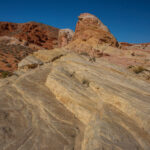
Mojave-Sonoran Trail Thru Hike 2021 – Section 1: Valley of Fire to Echo Bay
Mojave-Sonoran Trail Section 1 Map
Mojave Sonoran Trail Thru-Hike Section 1 – Valley of Fire to Echo Bay, 66 Miles
The above map only represents represents section 1 of 9 on the MST. For a more detailed map and general route info, see the Mojave-Sonoran Trail Guide page.
Mojave-Sonoran Trail Thru Hike Video
Mojave-Sonoran Trail Section 1 Journal
Day 0 – November 2nd: Getting to the Northern Terminus
I’m currently doing the van life thing, living in my van in between hikes. My buddy just moved to Phoenix and has a garage where I was able to store my van for the duration of my hike. I did all of my food shopping in Phoenix, packed my gear and took a one way flight to Vegas. I took an uber from the airport to a hotel on the far northeast side of town near the Nellis Air Force Base. This would be the shortest drive for me tomorrow morning to my start point.
Day 1 – November 3rd: North Muddy Mountains, Weiser Ridge, Valley of Fire
18.15 Miles
Animals Seen: 9 big horn sheep
After a long sleepless night, it was time to rise and shine at 6:30am. By 7:15 my Uber ride was there to pick me up from my hotel. The drive took about 45 minutes, and by 8 am I was at the Hidden Valley exit on I-15 just West of Moapa Valley. My uber driver didn’t say a word about dropping me off at some random desolate exit with nothing there. “See you later”, he said.
My starting point is pretty arbitrary and meaningless. It only serves convince. As much as I wanted to just walk out of some small town to start my hike, this was the easiest thing to do.
Now it’s time to take my first steps on the Mojave-Sonoran Trail(MST). It’s an overwhelming feeling, a barrage of emotions. Mostly, it’s the feeling of calm before the storm; the intense physical exertion ahead weighs heavy on my mind. Even with two previous such journeys under my belt, I still wonder how such a feat is possible… especially when you are standing at the starting line. 675 miles of off-trail hiking is no joke. My pre-hike jitters are justified, but it’s go time.
The first three or four miles are on an easy dirt road leading up into the North Muddy Mountains. Soon enough, some elevation is gained, canyon walls grow taller and the expansive desert views improve. Also, the sound of the interstate dwindles. I find myself at a locked gate that says no trespassing. Beyond the gate is a large antenna and satellite dish, with a generator running. However, nobody around, so I push on past the gate and on my way. A series of small dirt roads leads me around a Hillside, where they fade into game trails.
Now, the views are quite good. Great mountain scenery with desert valleys below. Colorful rocks, caves on the mountainside, and distant views.
I drop down into a wash, and start downhill. The mountains behind me are an impressive backdrop, and I look back frequently. Towards the bottom, I Fell down a couple of times. Catching myself on a rock, I received a small cut. Enough blood to drip, so I took my first break. I used to wear a pair of gloves when doing hikes where I expected bushwhacking, but fell out of the habit of it in recent years. Lately I have rediscovered their merits, and brought a pair with me this trip. I’m using the Fish Monkey Fingerless fishing gloves; soft flexible leather on the palm and a thin, breathable neoprene type material on the other side. Time to put these on.
Out of the wash, I cross Weiser valley. Most of the walk here is on a dirt road. Cool, a little break from the off-trail stuff, even if only for a moment.
Soon, it’s time to find a way up to the top of Weiser Ridge. It looks tall and steep from the bottom, but my route on the map doesn’t look too bad. Time to climb. Mining claims scatter the wash, but their age is unknown. Over my first ridge, a heard of about eight big horn sheep are seen running away. Day one and already a good animal sighting!
Before long I am on the final ascent to the crest of Weiser Ridge, and the views really begin to wow me. At the top, excellent vantage point of Weiser valley and now, valley of fire state park. The red rocks really stand out. I begin my walk south on the ridgeline, and wow!! Hard to believe views of this magnitude can be had on day one. Better than the CDT and BRT. Time for a snack and soak this all in.
The view north from Weiser ridge provides a sweeping view over Moapa Valley and to several distant mountain ranges. Namely, the Mormon Mountains directly north.
The ridge line itself is fairly easy to walk. The rocks are extremely sharp, which makes for great shoe grip but horrible for longevity of the tread. My shoes were getting pretty torn up already. The west side of the ridge is mostly sheer cliffs and an occasional knife edge to walk. Truly excellent.
When it was time to make my way down off the ridge and into the valley to the east, I found myself at a 40ft pour off. At first I thought it was not possible to climb. But then, I began to see a route down. However, it was extremely awkward to begin down climbing. I made it down the first ledge before turning back, deciding out was too dicey to risk it.
Now I had to climb back uphill again and follow the ridge itself until I found another Canyon leading downhill. Unfortunately the next Canyon also featured a pour off, this one even less manageable than the last. A third canyon was even worse, a dry waterfall of perhaps 150-200ft. Not going to happen. Back up to the ridge, and keep walking south.
Finally, I found a way down to a lower ridge line by descending the hillside instead of a canyon. From below, the cliff band running across the mountain side was obvious, and quite impressive. By now, I was losing daylight, and had less than 2 hours before sun down.
The descent of the wash down to the valley floor was an interesting one. The geology here was tough to ignore, with large parallel dikes running vertically, flanking both sides of the wash.
Several pour offs to climb now, slow but manageable. The map doesn’t indicate anything too serious ahead, but these canyon walls are steep and narrow. Pretty nice walk though here.

Hike across Anderson Wash through narrow strip of Valley of Fire State Park land. BLM land at the base of the red rocks
The red rock became predominant near the bottom of the wash and the valley floor. Daylight was fading fast now, and I made my way across the valley as fast as possible. The valley is part of Valley of Fire State Park, where there is no backcountry camping allowed. . I just need to cross the valley to enter BLM land, where anything is fair game.
I found my campsite just a half mile from my first water cache. A Sandy spot suitable for cowboy camping. With 18 miles on the day, I was ready to stop. Still, I felt pretty good for day 1, mainly just hungry. I drank the rest of my Gatorade with dinner, leaving myself a half liter for tomorrow morning. Stars were shining bright by 6:30pm.
Day 2 – November 4th: Valley of Fire State Park
19.8 Miles
Animals Seen: 3 big horn sheep
Beautiful night cowboy camping under the stars. Plenty of sleep, woke up feeling pretty good. 45 degrees this morning.

At the top of a small “pass” in the middle of this narrow canyon, overlooking my campsite from last night
Skipped breakfast and started hiking to the water cache, another half mile, over a small pass in a narrow canyon. Thankfully, my gallon jug of water was right where I left it two weeks ago. Here, I ate breakfast and distributed the water among my 1 liter smart water bottles.
From here, it’s another 5-6 miles to the Valley of Fire state park boundary. Most of this was through deep sand, apparently a popular spot for the ORV crowd. There were tire tracks everywhere, and occasional garbage strewn across the sand. Despite these eyesores, this area was really cool. I didn’t see any 4 wheelers either, so that was nice.
Red rocks, arches, small caves and alcoves, and even petroglyphs. Hiking here felt more like Utah than Nevada.
After cresting the pass at the southern end of the canyon, I saw 3 big horn sheep. These guys are all over here. Nearing the end of the BLM land, the bulk of valley of fire state park was visible on the horizon.
I told myself I wouldn’t stop to empty all the sand out of my shoes until I reached the state park, and as soon as I found a shaded spot (under a cool arch /cave), I took a break. Always a satisfying feeling, to be sand-free again.
In distance I could see cars glimmering in the sun. This is the parking lot for the Fire Wave and white domes, some of the most popular attractions in the park. This made for an easy landmark to shoot for. It was a mix of cross county hiking and a couple of dirt roads, and quite scenic.
Once at the fire wave trailhead, I began the 7 wonders loop, which hits fire wave and apparently, 6 other wonders. The trail was loaded with amazing scenery, but I don’t know how official the wonder count is. It sure seemed like more than 7.
Fire wave wasn’t as packed as my first visit a few years ago. No problem there. This area is very photogenic, and not just fire wave. If one had the time, he could easily spend all day on little side trips exploring this area.
The “trail” follows a wash leaving fire wave, and this too was cool… A slot canyon of sorts, although not very deep. It makes up for that with outstanding colors to please the eyes. I found a shaded spot and took lunch. I really wasn’t too hungry, which is pretty typical for me in the beginning of a long hike, or any multi day backpacking trip actually.
After forcing myself to eat, I continued on the 7 wonders trail up Kaolin Wash. More excellent scenery. In fact, so excellent that my pace was really slowing down, stopping around every turn to capture the landscape from a new angle. So colorful, so beautiful. Occasional sections of short slot canyons really made this hike great.
The trail climbs out of Kaolin Wash and follows a canyon north. Kaolin Wash was awesome, but it was a small scale landscape. Here in this canyon, the views are much bigger.
The trail leads back to the fire wave parking lot, where I began the loop. Not the most direct route for a thru hike, but it would be a shame to walk by the highlights of this amazing place for the sake of making good time. And this was some spectacular scenery. Few places I’ve been compare with this kind of color.
Back at the fire wave parking lot, I easily yogi’d some extra water from the first person I asked. Then, I continued hiking towards the white domes parking lot. The ridge route in between fire wave and white domes provides an excellent, sweeping view of the bulk of the park.
It’s a short hike on the white domes trail to an old movie set, for the 1965 film “The Professionals”. Then the trail intersects Kaolin wash again, which leads to the Prospect Trail. This isn’t a trail at all, it’s a route that’s occasionally cairned. More cool slot canyons, more colorful and jagged rocks. It’s very rugged for what a state park is claiming is a trail. Good views.
The Prospect Trail ultimately leaves Kaolin Wash for another unnamed wash that continues due south. It’s late afternoon now, and very clear that I won’t be able to hike out of the park boundary today like I had planned. There is no backcountry camping allowed in the state park (lame), so I began to think about alternate plans. At the end of the prospect trail, there is a dirt road that leads to a paved road, which leads to a drive in campground. Looks like a 3 mile or so detour, but what other options do I have, other than illegally stealth camping? The bonus of this plan is the running water at the campground. Water… Sold.

Leaving the wash, there is now a trail. This is one of the few trails along the entire MST route that is marked on a map!
Most of the prospect trail follows a fairly easy wash, despite occasional deep sand. There were a couple of climbing obstacles, especially if you wander off course. The hike was a good one, but I was getting tired now. I hadn’t eaten anywhere near the calories I’ve been expending, and had barely peed all day. I needed to keep pushing on though, and make it to the campground before dark.
After cresting a hill, I got my first view of the actual Valley of Fire, for which the park was named. I could see the campground in the distance, and with 45 minutes to dark, it was going to be close. Great desert views, enhanced by the colors of the setting sun. I left the road and took a wash that ran directly to the campground, and made my final push. I was really hitting the wall now.
I walked into the campground with the last bit of light fading fast. It was pretty full, but a couple of open spots. I used my last reserves of energy to set up my tent by headlamp, feeling weak and a little light headed. It was nice to have ruining water and be able to do a quick rinse and wash up. I tried eating, but couldn’t stomach much. It’s a weird feeling to be hungry, and not be able to eat. Nothing tastes good, and my stomach just doesn’t want anything in it.
Tonight was a perfect example of why I despise drive in campgrounds… Barking dogs, whining children, and some inconsiderate people playing some crappy music loudly, for hours. Thankfully, I bring ear plugs, for just this occasion.
I felt surprisingly good at the end of day 1, but day 2 has taken its toll. I’m feeling achy and cold, but it feels great to be able to lay down for the night. On my summer hikes, I might hike 14 hours, utilizing every bit of sunlight. But with shorter days this time of year, daily mileage is shorter, and nights are longer. This means more time to rest. And right now, I’m not complaining.
Day 3 – November 5th: Valley of Fire, Rogers Spring, Muddy Mountains
17.49 Miles
Animals Seen: Jack Rabbit
I didn’t sleep that great last night. Not because of noise, as I had my earplugs in all night. But this morning, a screaming toddler had me packing up at fast as I could. I went over my maps for a while trying to figure out my next move. The mileage I’ve hiked to get to this point was much greater than my estimates. I could backtrack to the prospect Trail and continue on my route as planned, but instead I chose a different route. The plan Now is to walk the base of the muddy mountains through valley of fire, which would all be off trail. Cool.
I started today’s hike by going up and over the red rocks separating the Arch Rock campground from the Atlatl Rock Campground. This was a cool shortcut, scenic and direct. But after that, it was cross country hiking for much of the day. People in the campground gave me some strange looks as I walked through with a full backpack and set out into the open desert. With no backcountry camping allowed here, it’s just day hikers, and I stick out like a sore thumb with my full pack.
The muddy mountains provided a Scenic and somewhat imposing backdrop as I wandered my way through a series of washes. At first I was quite happy with my decision to walk the base of the muddies, but that was for the first bit where I was just following a wash in the direction I wanted to go.
Eventually, in order to continue on my trajectory, I had to leave the wash and go over a series of ridges that separate the washes. This became old and tedious rather fast. On top of all the PUDs (pointless ups and downs), the weather has been heating up. Today will be in the mid to upper 80s, and 90 tomorrow. At this time of year I was hoping for the 70s. It’s hard to complain though, it snowed back home in Michigan. Anything but snow. I’m a desert rat and won’t shy away from that.
Some of these washes had a lot of what I believe to be gypsum deposits. As an amateur rockhound, I enjoy seeing anything out of the ordinary. I also saw a couple of larger pieces of semi-petrified wood. It was still brittle in spots, not quite as well formed as other specimens. Of course, there is no collecting allowed in the state park, but I didn’t want any of this stuff anyways. I’ve seen better!
I was feeling pretty tired this morning, but after I began waking again, felt fine. However, I drank 1.75 liters this morning before leaving camp and still haven’t had to pee. That means I’m dehydrated more than I think. I made an effort to drink more water, while also trying to stretch out my supply so I don’t run out before I reach my next water source.
Most of the washes I hiked today were pretty small scale. However, there was one that was pretty impressive… Valley of Fire Wash. This is the main wash running through Valley of Fire. Deep cut red rock, very alluring. I walked above it though as I needed to go over a pass. There were many small arches in this area, and a plethora of small caves and alcoves. A very interesting landscape, much like the bulk of yesterday.
After cresting a small pass, the landscape opened up and I was only a mile and a half from my water source, Blue Point spring. I’ve walked out of the state park boundary now and entered the lake mead national recreation area. Now there was a series of game trails all leading to the same spot… The place I am going. Along the way I saw lots of horse and burro scat. Over another small hill, I could see a couple of palm trees. There’s my spring.
Once at the spring I was surprised to see how much water was flowing. I made my way to the source, where there was a USGS monitoring station and a small dam holding back half a bath tubs worth of water. The water temperature was in the eighties, not cold by any means. Good for bathing, less enticing for drinking at that temperature. But hey, beggars can’t be choosers. I began filtering water for the first time since I began this hike. It was now that I realized how slow my sawyer filter was filtering. I had used it this summer and it was working fine. Lately, I get the feeling that Sawyer filters are not good anymore after sitting a few months. This filter had definitely not seen freezing Temps, and it had been back flushed regularly. It took a solid 45 minutes to filter 4 liters. Not acceptable. I will need to replace this filter ASAP.
I also took the time to rinse out my clothes and wash up a bit myself. I never use soap anymore out in the wild, I feel that rinsing is good enough. And man, did this feel good.
It was 4pm now and I have three or four miles of road walking on Northshore Drive to get to my next destination. Along the way I passed Roger’s spring. There’s a reason why I didn’t get my water from this one… The brain eating amoebas that thrive in this water source. There are signs here that advise you not to dunk your head underwater, or risk infection. Infection often causes death. While I’ve read that the amoeba can be filtered out with a one micron filter (Sawyer is .1 microns), there really is no reason to mess around with this water when there is another non-amoeba bearing water source nearby.
The thing I despise most about walking paved roads is that a solid 50% of the traffic won’t move over in inch for a human being walking on the shoulder. These are the lowest form of people. I only wish I could buzz by them in my car while they walk somewhere, but I get the feeling these folks don’t do much walking.
As the sun went down over the muddy mountains, I left the road for a wash that paralleled it. Access into the wash is easier here than further up the road where it gets much steeper. With 30 minutes of daylight I began to work by way into the lower reaches of this deep and narrow canyon. Very impressive!
I found my campsite, hemmed in at the base of a pour off, at a junction where the canyon splits. I finished setting up my tent utilizing some of the last daylight. I was happy to have reached camp with at least a few minutes of daylight left, unlike the previous two nights.
While this canyon is deep and narrow, where I am in the lower reaches, there is still enough open sky where I was hopeful that my Garmin inreach mini would be able to send my nightly “I’m OK” message. But after an hour and moving the thing around in every direction in position, I gave up. This thing definitely has its limitations.
Day 4 – November 6th: Muddy Mountains, Lake Mead National Rec Area
11.28 Miles (Half Day)
Animals Seen: None
Had a pack of coyotes moving in on my position around 3 AM. They were very close but when I got out of my tent and chucked a few rocks down the canyon, they went away. I heard them again at 6 am.
I tried climbing up the 40 foot vertical pour off that was just beyond by campsite, but I found the rock to be very slick and the lack of proper handholds would have made a descent very sketchy, if I needed to back out. And since this was an untested route, there’s a good chance I would have had to turn around. This was basically the only way to get up into the muddy mountains and continue along the route that I had planned, so I had no choice but to back out of the muddy mountains and head directly to Echo Bay Campground. Bummer, but I knew not everything I had planned along this route would work out.
After trying a few scrambling routes to progress sup the canyon, I gave up and turned around. I would say that it certainly IS possible, but with a full pack on and no climbing gear, it’s much riskier. It’s too bad because this canyon would provide a critical route for a route that cuts off the walk all the way around the Muddy Mountains. There’s a pass above Fire Alcove into the Muddies from Valley of Fire, and this canyon would be the ideal route to connect to Echo Bay. But damn would it be a hairy descent down some slick rock at the spot I turned around at. It’s a shame too because it looks more open on the map above this point. I still think it’s an option for the right person.
After a brief road walk on Northshore Road, I began hiking cross-country SE towards Echo Bay. At first I stayed out of the washes, they were small and somewhat choked with vegetation. After while, several washes converged into Calico Wash, and it became large enough to walk. This area really wasn’t all that interesting, but it was necessary to reach Echo Bay campground in the most direct fashion. The other option was to walk further to a road, then road walk into the campground. I’ll take the cross-country hiking instead.
The most interesting thing I saw this morning was a desert tortoise shell. This is only the second time I have found one. Believe it or not, it’s actually illegal to collect the shell of a dead tortoise on any type of land. So, I snapped a picture and was on my way.
When I reached Echo Bay Campground, I went into the pathetic little store and bought a couple of cold drinks. The inventory here is so small, I could almost fit all of it in my backpack. This is no joke. The only thing they sold that was a step up from the food I had in my backpack already was an egg salad sandwich, and that it was probably left over from eons ago, back when the water level of Lake Mead was higher and people actually came to Echo Bay. Now, it’s kind of like a ghost town.
I’m also not kidding when I say Ghost town… There is an abandoned motel and restaurant across from the store. With tons of urban exploration experience under my belt, having lived in Detroit, I couldn’t pass up the opportunity to go inside this one. Access was easy, all of the windows were broken and boarded up, but some of the boards were just leaning against the windows.
Inside, pretty much your standard abandoned building… Broken glass, mattresses laying everywhere, and of course, lots of graffiti. The graffiti is always interesting, and this place was no exception. This was a pretty neat little side adventure.
Next, I went down into Echo Wash and dug up the food that I buried two weeks ago. Everything was still there, so that was good. Whew. Before the hike, I couldn’t find any information online that said caching wasn’t allowed in the Lake Mead NRA, but I have a feeling if one were to ask, the answer would be no. It’s unlikely that a few hikers doing this here and there would cause any impact, now would it likely attract much attention. However, alternate options for food caching at Echo Bay would be to leave it inside the abandoned motel somewhere in odor proof bags (kinda risky), or asking the little store if they will hold it for you. You can’t mail anything here, so you’d have to come in person before the hike to set this up. There are also campground hosts at Echo Bay, I bet they wouldn’t mind holding food for hikers for $10 or something.
I could have just taken my food and continued on Section 2 now, but my appetite still wasn’t there. I was having a hard time eating the food I have in my backpack already, so I wasn’t that eager to eat the stuff I just dug up. I’ve been in this situation many times before. The best way to get past it is to get a day or rest in town, and pig out on town food to kick start my appetite again.
I ended up getting a taxi, for an exorbitant price, that drove me into Overton well after dark. I got a hotel, and plan on taking a zero tomorrow for some R&R.
Day 5 – November 7th: Zero Day in Overton, NV
I wasn’t planning on coming to Overton at the end of section 1, but a day of rest and town food will do wonders for me. I didn’t have to do any food shopping since I dug up my food cache in Echo Wash, so that was a nice time saver. I washed my clothes and made small repairs/adjustments to my gear. I tried backflushing my sawyer filter a bunch of times, but it’s still slow. I’m a long ways from anywhere that sells a new Sawyer, so I’ll have to wait at least until the end of Section 3 when I get to Boulder City. I should be able to get an uber to Henderson and hit the local Walmart for that. In the mean time, slow water filtering.
Ruby Mountains, NV: High Route Hike Lamoille Canyon to Seitz Canyon
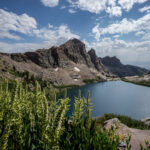
Ruby Mountains, NV – High Route Hike Lamoille Canyon to Seitz Canyon
- Hike Location – Ruby Mountains, Nevada – Ruby Mountains Wilderness
- Land Administration – Humboldt National Forest
- Hike Type – Point to Point
- Fees & Permits – No fees or permits needed
- Start Trailhead – Roads End
- End Trailhead – Powerhouse
- Length Of Time Hiked – 14.5 hours
- Miles Hiked – 19.28
- Route Difficulty – 8
- Scenic Beauty – 9
- Solitude – 9
Video: Ruby Mountains, NV – High Route Hike Lamoille Canyon to Seitz Canyon
Ruby Mountains Hike Maps
Here’s the caltopo map of the Lamoille to Seitz Canyon High Route Hike:
Download GPX file for the Lamoille to Seitz Canyon High Route Hike
Pre-Hike Planning Notes
There are no fees or permits required to hike in the Ruby Mountains. Thomas Canyon and Terraces Campgrounds are available in Lamoille Canyon to camp the night before/after your hike, or simply pull off the road and camp in the National Forest land. You should also be able to camp in a van/camper at the trailhead for one night, there was nobody there to check or bother us. Spring Creek is the nearest anything, and 30 minutes away is Elko which is a big town for Nevada.
This hike is a route that I wanted to do on my 2020 Basin and Range Trail thru hike, but wasn’t able to fit in, logistically. My route along section 6 of the BRT ended at Roads End Trailhead in upper Lamoille Canyon. The route we will hike here is a route that connects upper Lamoille Canyon with Seitz Canyon, leading to the Powerhouse Trailhead in lower Lamoille Canyon. This route should be very scenic, and will offer a spectacular finish to an already great section of the BRT. The Ruby Crest Trail was nice, but I have a feeling this will be nicer.
This route is almost entirely off-trail. There were only a few sections of this route, like in Seitz Canyon, where a trail is marked on the map. On the ground though, it barely existed. Just a fading trail that hasn’t seen maintenance in decades. In other words, most of this route is off-trail, and there is some bushwhacking involved… mostly in Seitz Canyon. With that said, it’s an awesome route that is challenging, rewarding and gets you off the beaten path in the Rubies. The Ruby Crest Trail gets most of the traffic in the Rubies, but there are many other great spots here, such as Echo Lake.
This hike can be done a long day hike, but it would be best to split this hike up into two days, camping at Echo Lake. There are multiple excellent campsites along Echo Lake.
Three final things:
- Beware of the private land at the entrance to Seitz Canyon. That’s why the route goes along the hillside at the end to reach Powerhouse Trailhead. There is an active ranch here with a few homes.
- This hike can be done as a day hike, but it may take all day, as it did for us. Make sure to bring a headlamp, just in case. We wish we did…
- Water is abundant, you won’t hike more than a few miles without it.
July 17th, 2021 – Ruby Mountains, NV High Route Hike Lamoille Canyon to Seitz Canyon
Miles Hiked – 19.28
Elevation Gain – 5,592′
My friends Sam and Ken (2020 CDT thru hikers) will join me for this hike. Last night, we slept off the road in National Forest Land near Camp Lamoille at the entrance to Right Fork Lamoille Creek Canyon. Descent spot, good views of Lamoille Canyon especially at sunset.
In the morning, We drove Ken’s Explorer down to the Powerhouse Trailhead in lower Lamoille Canyon, then drove my van up to Roads End Trailhead in upper Lamoille Canyon. We’ll walk back to Ken’s Explorer today, and then he’ll drive me back up to Roads End to get my van.
We left the trailhead around 8am following a trail up Lamoille Canyon. Soon enough, we realized this one was taking us up to Dollar Lake instead of Lamoille Lake. We began hiking off-trail sooner than anticipated, and headed for a horse trail that runs higher up the hillside in the canyon. I know this, because that’s the route I hiked down from Liberty Pass last year on my BRT thru hike.
The off-trail stuff here was mostly our fault for not taking the horse trail in the first place. I should have known better. Now, we spent some time walking through tall bushes and grasses, thankfully not crazy thick.
We hit the horse trail and followed that a ways uphill. We stopped for a quick break at the spot where we leave the horse trail and begin out hike uphill to our off-trail pass below Snow Lake Peak, leading over to Thomas Canyon.
Sam had just flown to the US from England a few weeks ago, and had bought some cheapo Walmart shirt to hike in for the summer. It was a long sleeved, collared shirt, the kind your cheap dad might wear when he’s forced to dress up. Ok, me too. I joked with Sam about this, and the need for a tie to complete the ensemble. After all, it looked like he was here for a business interview. Well, from the waist up, anyways.
The route up to the pass was steep and had us winded, but it was an easy walk. No bushwhacking, no huge extended boulder fields, it was mostly just a steep incline.
At the top of the pass, we enjoyed great views down into Lamoille Canyon and Thomas Canyon. To the south was Snow Lake Peak. The Snow Lake Peak was eroding was very obvious, and we joked that the Forest Service needed to come out here and “repair” these crumbling mountains. “A few more years and we won’t even have a Snow Lake Mountain”. Ha!
We stopped for a break on the pass, soaked in the excellent views and scouted our next move. The plan was to stay high up on the ridgeline and contour around the mountainside towards Mt Fitzgerald. It looked kinda steep though, and we contemplated taking a route a bit lower, meaning more elevation gain and climbing.
The descent form the pass into Thomas Canyon was steep, but short. Below the pass, a green and grassy patch of land with water flowing through it. A nice hike here.
Next we climbed back up in elevation some to reach our desired contouring line. This was intermittently hard/easy. We’d be climbing up steep, loose rock and boulders one minute, then walking short sections of flat, easy going terrain. All with great views of Thomas Canyon, though.
When we rounded the northwest-facing ridge before Mt Fitzgerald, we were met with an entire mountainside filled with boulders. Not what I like to see, but Sam loves the stuff. It was a big view though over Thomas Canyon. It was very green down below, but we were well above that, in the boulders.
The mountain scenery here was very impressive. The hiking here is more akin to a Sierra High Route or Wind River Range High Route. We are surrounded by towering mountain peaks and rock faces, in a sea of boulders. Slow going, but worth it.
Directly below Mt Fitzgerald was an imposing place to be. The peak towered above us, as we worked our line around the base of it. Even through the boulder fields along the slopes, we routinely cross trickles of water and small streams. There is no shortage of water here.
After Mt Fitzgerald, we went up and over a ridgeline separating Thomas Canyon with Right Fork Lamoille Canyon. The same excellent scenery extends into this canyon as well. Superb views here.
I came across a pile of a few boulders that had some minerals that caught my eye. I’ve been seeing a lot of large books of mica around, but that was it until now. Here though, in upper Thomas Canyon below Mt Fitzgerald, I found garnets. They were embedded in the host rock though, and I couldn’t do much with them without tools to extract them. Still, a cool find. Fun fact, the early explorers who first passed through the Rubies named them the Ruby Mountains because they thought these garnets were actually rubies. And now, I can see why.
Right Fork Lamoille Canyon continued to impress us the entire route around its upper slopes. We have been walking mostly on boulders for quite some time now, though, and it’s tiring.
Eventually, we reached a saddle in between peaks 10,528′ and 10,882′, at the top of Right Fork Lamoille Canyon. The wind was really picking up now. We followed the ridgeline towards No Echo Knob.
Along the way up to the ridgeline, we enjoyed excellent views of the Ruby Mountains. There were some sheer cliffs to stand at the edge of overlooking Right Fork Lamoille Canyon. It looked like the potential for rain now, although nothing directly nearby threatening us at the moment.
At the top of the ridge leading to No Echo Knob was perhaps some of the best distant views of the day. It was our most proper ridgewalk of the day, as well. The views were just stunning in every direction. A truly magical place.
We summited No Echo Knob, high point of the ridge. It was here that Sam, hiking for the first time in Nevada, realized the hidden gem that he’d stumbled upon. “Why is it that so few people visit this place”, he wondered. Nevermind why, we have it to ourselves today.
The descent form No Echo Knob to Echo Lake was outstanding. Echo Lake is hard to ignore; it’s surrounded by a tall, steep cirque of mountains, and the lake itself is a deep blue color. It’s large and looks to be deep. It certainly commands your attention, and respect.
Our original plan was to drop down to the lake to traverse around it’s east shore, but from our elevated position, we saw a better route. We’ll stay higher above the shoreline, and contour around the lake. This way, we minimize our total elevation gain traversing around it. There looks to be a route we can follow, but who knows. Let’s try it!
The entire hike around Echo Lake was stunning. The views were constantly changing, with seemingly better and better angles and lighting. The hike itself wasn’t too hard. There was no real path to follow, but it was easy to pick from numerous lines that traverse the east side of the lake.
The views from the extreme east side of Echo Lake were probably the most impressive to me. Here, the lake looks the biggest, and one has a great view down Echo Canyon. Lining Echo Canyon is Mt Silliman, peak 11,330, and Echo Box Peak. These peaks, and the ridgelines leading up to them, form huge, towering walls above Echo Lake, making this the beautiful place that it is.
We stopped along a small creek for a break. There was a great camp spot here, overlooking Echo Lake. If only we were camping!
After the break, we continued traversing around Echo Lake. Of course, we had to stop and test the echo properties of Echo Canyon at some point. The echo is indeed impressive! We also took the time to test out our skiing skills on some of the snow slopes. I made a successful run down a hundred feet or so, which is always fun to do in shoes.
After contouring around Echo Lake, it was time to head up to a pass below Mt Silliman. From here, it was a climb of about 350′ to the top. It was a very manageable climb up boulders, and we made quick work of this one.
At the top of the pass, we had our first view into Seitz Canyon. Nice, but the north face of Echo Box Peak on the Echo Canyon side was more impressive.
Now for the route down into Seitz Canyon. Our plan was to contour around the north face of Mt Silliman and work our way down a diagonal line Seitz Lake below, avoiding the steep and narrow Seitz Canyon route which is more direct. I thought it would be best to avoid Seitz Canyon when planning this route from home, based on the slope angle shading/steepness of the grade, but now that we’re here, it does indeed look doable. Sam, Ken and I discussed our options, and we settled on the direct route down Seitz Canyon.
So from the top of the pass, it’s 1400ft down this steep, narrow chute filled with snow, ice and boulders. We traversed a sketchy section of loose boulders just to get down to the snow field in the center of the canyon. Past the boulders, we take our first footsteps in the snow. The slope angle is steep, seemingly close to 45 at times. Sam went first, kicking steps on his way down. I went next, and Ken at the top.
The snow was mostly soft enough to kick steps in. Ken and I had the advantage of using Sam’s steps to walk down into, without expending as much energy as Sam. However, it was still slow and tedious. I took out a trekking pole for the first time today, almost never using them anymore, except to support my tent. But here, a trekking pole was great to have. I used my upper hand to balance myself in the snow as I hiked down, which makes your hand quite cold soon enough. So then, I’d switch sides, putting my opposite leg first as the leading leg, giving my other hand a chance to warm up again. Yeah, didn’t think of bringing gloves for this hike. Nor micro spikes or ice axe, but having them here would have been nice.
No way around it, it was slow going down Seitz Canyon. Descending the snow field was enough to get your heart rate up a bit, but also not feel overly worried about the dangers of falling. Maybe that’s just my confidence in the snow. Either way, this slope was not glissade-able… safely.
There were two sets of snow fields in the chute. The upper one was the steepest. There was a short section of boulders separating the two snow fields, and then it was on to descend the lower one. Sam was below and hollered up that it was icier than above. Ken, having hiked with Sam on the CDT in 2020, joked that Sam doesn’t kick great steps anyways. It was fun to see the dynamic between these two, it was the first time I hiked with them together.
Past the second snow field, we were roughly halfway down the chute. It’s all steep boulders here now, and I wondered which I would rather have; the boulders, or the snow. I say, the snow.
We took a break near the bottom of Seitz Canyon, and I ate a snack. I hadn’t eaten in several hours, and really needed the boost. I was indeed feeling better now. We exited Seitz Canyon on a bit of a high, looking back at the increasingly crazier looking chute we had descended. I let out a loud scream into the canyon, which had an incredible echo to it with a delay of a few seconds.
As we covered distance downhill now and entered a flat, open valley above Seitz Lake, we entered a new phase of the hike… bushwhacking. There will be a lot of it in Seitz Canyon, unfortunately. The upper section of the canyon is thick and wet. The views looking back were outstanding, though!
The bushwhacking continued to Seitz Lake. There really wasn’t any good access to Seitz Lake, surprisingly. The shoreline was thick with vegetation. The view sure was nice looking across the lake and up the canyon, though. We assumed the trail would become more obvious downhill from here, but that was wishful thinking.
Below the lake, we continued to be fooled into thinking we had stumbled on the trail every time we came across the slightest hint of a beaten path. However, the setting sun created an extremely pleasant sunset this evening. We had a few sprinkles briefly, but the cloud cover provided the backdrop for those oranges and reds.
We came across a good sized waterfall around the 8200′ mark as we continued to hunt for the trail. We’re right on it according to the map, but we see nothing 95% of the time. It’s a steep descent down the hillside in thick brush. We reach the creek below and stumble upon a ribbon on a tree. You can tell the forest has been cleared out a litter wider in places, but that it’s overgrown for decades without maintenance.
The trail fades in and out and we continue to doubt our ability to stay on whatever the trail is supposed to be. We continue to surprise ourselves though, and routinely see signs that we are on the right path, even if the path is now gone. We saw more ribbons on the trees, scattered randomly along the way, but it’s still a bushwhack.
We hit a creek bed that we followed for a while, which was dry. However, it was full of tress, plants and debris that made this an obstacle course.
Losing light now, Ken stumbles in the thick brush and falls. He’s alright, but a symbol of how were are all feeling… tired. After a helping hand, he’s up and at it again.
Day turns into night as we continue hiking down the canyon. Sam and I have our phones for light, and Ken also has a headlamp. So, one headlamp for the 3 of us. We hit a slightly better path lower down in the canyon, then some type of 4×4 road.
Now we reach the lower reaches of Seitz Canyon, or Rabbit Canyon as the map now marks it here. This is where the private property begins. Following the road out into the valley means walking through private property. There is a ranch here too, and the road goes right behind a couple of homes. So, to avoid them you must contour around the hills above the private property. Fortunately, in the lower reaches of the canyon here, it’s not thick and green, it’s drier and more barren. Open and easier to walk. Still, it’s dark now.
Pick your poison here… walk the hillsides in the dark or drop down to the private property after passing by the homes and walk a nice road out to Lamoille Canyon. I won’t tell you what to do. Just be aware of the property lines, is all. Use the caltopo app and turn on the public lands layer.
We reached Lamoille Canyon sometime around 10:30pm, having hiked a solid two hours in the dark. That’s a 14.5 hour day of hiking for us. It was a very dark night, too. We could barely see Ken’s Explorer until we where right up on it at the Powerhouse Trailhead.
Ken drove us up to the Roads End Trailhead, and we slept in our vehicles for the night. What a killer hike!!
Lamoille to Seitz Canyon Route Verified As New Leg of the Basin and Range Trail
The route we hiked today was challenging, but repeatable. It was not technical nor was there any real exposure. There is plenty of water, excellent camping and outstanding views. Plan to bushwhack Seitz Canyon, though.
So, I am happy to report that the hike we did today will become the new “standard route” for the Basin and Range Trail to end Section 6. The alternate route would be to hike down Lamoille Canyon, or simply hitch down. The route we hiked today was easily equal to the scenery along the Ruby Crest Trail, if not greater. And not only greater scenery, but far more rewarding. Anyone can hike the well-manicured Ruby Crest Trail, but the off-trail stuff we did today provides a greater adventure in my book. The standard BRT route will still hit the Ruby Crest Trail in it’s entirety (except the final mile or two to Roads end trailhead in upper Lamoille Canyon), and so this new route will only enhance the Basin and Range Trail hiking experience.
Basin and Range Trail Thru Hike 2020 – Section 10: Ely to Baker
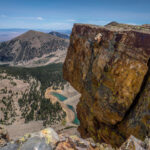
Basin and Range Trail Thru Hike Section 10 Map
Video: Basin and Range Trail Thru Hike Section 10
In addition to this trail journal, I also filmed my Basin and Range Trail thru hike. I’ve produced a detailed series (11+ hours runtime) documenting this thru hike adventure, the product of over 1,000 hours of video editing. I highly recommending watching the Basin and Range Trail vlog series for an in-depth look at thru-hiking the Great Basin and central Nevada.
Basin and Range Trail Thru Hike Section 10 Journal
Day 63 – August 2nd: Deerhead Canyon, Mt Moriah Wilderness, The Table, Snake Range
Terri called me at 7:30am and asked if I was ready. I said no, I was sleeping because you said you wouldn’t be here till 9. I said give me a half hour and I’m ready.
Terri and her boyfriend Ronnie picked me up from the Motel 6 parking lot, right outside my door. She was driving a really shitty Ford Escort from the 90s. I guess Raj had bought her the car, I guess you got to do what you got to do to get people to work for you at the motel in a small town. The trunk was held down with bungee cords, there was a big gash in one of the side doors that prevented the window from operating properly, no AC, shocks were completely gone and it leaked oil. But hey, it only needs to get me an hour away!
We stopped at McDonald’s for breakfast, then the Love’s station for gas and oil, as well as drinks. I filled up her gas tank, which was only 15 bucks. We agreed on a hundred bucks for the ride, not bad for 2 hours of work on her end.
The drive was pretty slow, Terri is a slow driver, have to nurse that car I guess so it doesn’t blow up. Decent drive, got to see some different country and a view of Spring Valley, Mount Moriah and Wheeler Peak.
Once we turned on to White Pine County Road 36, the dirt road going into Spring Valley, the going was pretty slow. The dirt road itself was in great shape, but Terri’s car was not. With no struts, she was going like 7 miles an hour the whole way. Still the dirt road section was pretty slow. Lots of windmills in Spring Valley. This is somewhat unusual for Nevada, I have not seen this yet.
It was even slower when we turned onto the next dirt road that let us to Deerhead Canyon. Eventually, we reached a cattle guard along and open fence line. There was a spot to turn around here, so I said this is good enough. They were a bit apprehensive to drop me off in the middle of nowhere, in this kind of heat, but I assured them I’ll be alright. I paid her the $100, they checked their oil, and they were on their way. Alone again, for the final section.
There was indeed a ranch, or at least some type of home, down in the ditch along the road. I was glad to see that the road was not blocked by no trespassing signs, this public Road went through private land and allowed me to access the public land on the other side. This is not always possible in Nevada, so this was a big win for me.
I began the hike up Deerhead Canyon. Before long, I found a spot that had flowing water. Good flow to it actually. This was good, I didn’t have to worry about water today. However, there were signs of cows, and this became more of an issue as I progressed up the canyon.
The canyon itself became more green and Lush the higher I went. At first, it was just a Thicket along the creek, but the road was so good that it was no problem. I saw one Sagebrush Bush that was 8 to 9 feet tall, perhaps the largest I have seen on the Basin and Range Trail.
There are several side Canyons that intersect Negro Creek in Deerhead Canyon. Eventually, after a junction with another Canyon, the road pretty much died out. All of the sudden, it was a thick bush whack through thorn bushes long the creek. Then I found a way around it, and the trail was a little better. But it was a trail now, not a road.
A little further Upstream was where things got really bad. I’m wondering if I missed the main Trail, because the bushwhacking was so bad that I thought the trail was going to fade out completely. Along the creek it was like a jungle. Green, Lush, Vines hanging from the trees. Several Creek Crossings, lots of mud and muddy fields, and at times the trail itself was a flowing Creek. My backpack would catch on everything, all of the branches. This was a major pain, but eventually I emerged into a small field where things cleared out a bit and a better Trail existed.
Now, the canyon was lined with interesting rock formations. A lot of Flat Rock stacked on each other. These would tower over the Canyon in interesting ways. Fingers, crags, spires. Even saw a small cave, but I could not reach it without doing some climbing. This was a cool area.
The trail itself did have some maintenance done to it in a few random sections. There were cut logs here and there. There is also a lot of cow shit. It was clear to me that the Rancher at the head of the canyon had done the maintenance himself, so that his cows could reach the high country and Graze there.
The route up Deerhead Canyon continues to intermittently have some path to follow, while crossing the creek and a few small waterfalls, casacdes.
Today was supposed to be 101 degrees in Baker. It was certainly hot, but I felt hotter a few days ago on a climb in the Shell Creek range. I was pleased at how well I was handling the heat today. I took the opportunity to dunk my head in the water every chance I could. Didn’t drink as much water as I thought, though. Typical for me.
Last time the trail crosses the creek, I stopped in the shade to filter two liters of water. One to chug, one to take with me. This gives me 5L to carry. This is enough to get up to the table, Summit Mount Moriah, and come down into Henry’s Creek where I know there’s water.
The trail almost completely disappeared now as I was in the upper reaches of the canyon. All That Remains is a faint cow Trail through the Sagebrush, and eventually, Aspen. The grade of the trail got a bit steeper here as well, which got me breathing hard for the first time today. The rest of the trail Downstream from here was pretty well graded.
Made it out of the canyon around 5pm. I immediately hit a dirt road, which I was thankful for. Now I have a good road to follow. It was mostly wide open Hills now, slightly rolling, with patches of Aspen here and there. I walked a ways down the road before finding a spot to take a break in the shade and eat.
After a quick break I continued on the dirt road. While walking up this road, a side-by-side was coming down. It was two guys, probably in their 30s, all dressed up and camo. I asked if they were out scouting for Elk, they said no, chasing cows. Well just as fun, I said. They asked what I was doing, and I told them this was day 63 for me on a long-distance hike through Nevada. They made a quick joke about being like a mountain goat, said alright have a good evening, and left.
Next I entered the Mt. Moriah Wilderness, proper. There was a sign here for a Trail, Big Creek Trail I think. It said the table, 2 miles. I could see Mount Moriah very well now, the back side of it, the rugged side.
The trail climbs up out of Big Creek Canyon to a a flat plateau at 11,000ft called “The Table”. Near the top of the climb, there is a stand of bristlecone pine trees. These trees were huge! Bristlecone pines are the oldest living organisms on Earth. These trees can live to be over 4900 years old! One was massive, its trunk was wider than the width of my arms extended. Next to it was a tree I called the T-Rex. Big, fat and tall, but with two stubby little branches on the sides like T-Rex arms.
It was 5:30 now, and I had hopes of reaching the table by 6:30 or so and setting up camp. If I could do that, I had a shot at Summit in Mount Moriah this evening. The plan would be to make a base camp, then I could run up the mountain with minimum weight on my back.
The climb up to the table really wore me out. I had already climbed about 4000 ft today, but this was all on fairly well graded terrain. Now, the trail was extremely steep, and I had 1200 ft elevation gain to go. Found a spring that wasn’t on the map, just like I did in the upper reaches of Deerhead Canyon.
View of Mt Moriah on The Table
Farther along the table, The terrain becomes flat and open, with patches of trees. Great view of Mount Moriah from here. There were several good campsites, but I was intent on camping wherever the climbers Trail up to the summit meets this trail. That way, when I’m done climbing the peak in the morning, I don’t have to backtrack to my campsite. It was 7pm now and I had decided not to go for the summit. Clearly, I didn’t have the time to do it.
At one point the trail emerges from the last patch of trees and out into a very open and flat area. Hard to believe I was at 11,000 ft. From here, I could see into snake Valley and into Utah. It looked pretty desolate. But, there’s Beauty in desolation, and this was a perfect example.
Even though the terrain was now flat and open, there was still a bit of a Ridge or High Point on the horizon, even if it was not that much higher than everything else. On top of this high point was a bull elk. Then I noticed another Elk next to him in the shadows. As I moved closer, they ran away. It was around this point when I noticed the first cairn leading up the Ridgeline to Mount Moriah. I found the climbers Trail, so now it’s time to look for a campsite.
Fortunately I didn’t have to look long. I climbed up the Ridgeline a short ways to a patch of trees, and found a small Rockwall that someone had built to block the wind. I didn’t set up my Camp behind this Rockwall, because the wind was blowing in a different direction, but I still was able to find a pretty good spot here.
Excellent views to the east out into Utah, as this campsite sits on a bit of a High Point along the Ridgeline. The moon was full, or almost full now, and just starting to rise from the horizon. I set up my GoPro for a time lapse while I set up my tent.
I was hoping to be able to Summit mount Moriah today since its my birthday, that would have been a memorable moment. Oh well, I’ll bag it tomorrow morning. I’m pretty tired now anyways, and was actually feeling a bit short of breath coming up the climb to the table. A night of rest will be good.
Day 64 – August 3rd: Mt Moriah Summit, Snake Range, Hendry’s Creek, Snake Valley
Left camp around 6:45am to climb Mount Moriah. Pack was very light, only carried 2L water, toilet paper, camera, GoPro and GPS. In fact it was awkward carrying the pack without any weight in it, it didn’t sit right on me and the water in my side pockets moved around a lot.
Went back to the area where the cairns marked the climbers trail for Mt Moriah. Down below on the table, I saw 4 Bighorn sheep. At least, that’s what I think they were. They were too far to tell for sure.
After a little climbing, the trail goes to the left of a ridge. From here, it goes to a saddle between the ridge I skirted around another prominent High Point. Great views of this high point, the same one that I could see from my camp. One would think it was Mount Moriah itself, but the summit is hidden from view behind this.
At the saddle, I took a little time to explore the small High Point. This gave great views of the backside of Moriah, which was basically sheer Cliffs. Then I continued on the trail around the high point. Eventually reached an area where I had my first view of Mount Moriah proper. It did not look impressive at all, at least not compared to the high point that I skirted around.
The route up to the summit wasn’t exactly straightforward, though. From the trail, I chose to leave it and go straight up a steep and loose Hillside. It looked like the trail went around to the south side of Moriah, maybe there was another route up that way. Maybe the trail I was on was just a game Trail. Either way, I made my way up to the saddle just below the summit, and then eventually the summit itself.

Mt Moriah summit view. The flat plateau below is the area I hiked last night called The Table. If it wasn’t obvious why last night, it certainly is from this perspective
Great views from The Summit of Mt Moriah at 12,067. Forest fire smoke rolling in from California, so everything was a bit hazy. It’s always nice to have a crystal clear view, but with the angle of the early morning sun, the haze added a mystical vibe to the view. Found the summit register, which was basically full. I wrote on the back. It had just been climbed about a week ago. I had cell phone service on the top, but it was going in and out. Quasi-4G.
The hike back down from Mt Moriah was quick and mostly easy. There was a bit of scree sliding to do, which I actually enjoy. Dig your heels in and slide!
Made my way back down to camp. Packed everything up and started hiking around 10am. It was a weird feeling getting such a late start on the actual hike of the day. I don’t typically make a base camp to bag a peak in the middle of a hike, its usually either along the route or it isn’t.
I went back down to the trail that ran across the table, and followed that to the Hendry’s Creek Trail. There was a sign marking the trail, an obvious path and lots of carins. I was hopeful that it this would continue all the way down through the end of the canyon and out to Snake Valley, but that’s a lot to ask for.
The upper reaches of Hendry’s Creek canyon were okay. There was no water yet, but a bit of a view of the surrounding Cirque. Besides that, it was not all that interesting.
Soon the trail drops down off of the hill sides and into the bottom of the canyon. Almost immediately, I found a spring creating a small Creek. From here on out, I would have water almost all the way down to the mouth of the canyon.
Immediately Downstream of the spring, the trees grew thicker and provided shade. There was a nice Trail through the forest. When the creek got large enough, I stopped to filter water and eat some food.
The upper reaches of Henry’s creek where Pleasant in the sense that I had a solid Trail to walk, it was going downhill, and I was in shade. Also along a nice water source. Some of the pools in the Creek had trout in them. Passed a clearing in the forest that had a cooler just sitting out. I opened it up to find a large rock inside, that was it. Okay then.
Around the middle section of Hendry’s Creek canyon, the rock formations and sheer Cliffs began to command attention. When the tree cover subsided for a moment, the canyon walls were there to impress. And big time! I found myself in awe of the canyon walls, now with a smile on my face and walking slower. Taking more pictures, and filling my GoPro SD card quicker. Looking up at some of the cliffs, they must have been 1000 ft straight up. Looking up into a side Canyon, there would be layers of Cliffs that had haze in between them from the incoming forest fire smoke. Pretty cool looking, actually.
There were some extremely large pine trees along the trail as well. The trunks of these were as wide as I could stretch my arms horizontally. I really like this Trail. I began to reflect on my Basin and Range Trail thru-hike as a whole, as the miles and days count down.
As I got lower in the canyon, the water in the creek dried up. This had me worried, but then a few hundred feet down Trail, there was water again. And then a few hundred feet later, it was gone. So next time I saw water, I made sure to stop and fill up. It was mostly flowing after that.
The very lower section of Hendry’s Creek canyon was interesting. It was mostly open now, and becoming much less green. But the Canyon walls were still impressive, they just had a different style to them. Some of them resemble more typical desert rock formations, while on the other side of the canyon there were still a few lingering sheer cliffs. It was an impressive view up the canyons. Water was still flowing too. I passed a very large group of chukars. Thinking this was the last time I was crossing the creek, I took my shirt off and washed it in the water, mostly for the purpose of cooling off.
The lower segment of Hendry’s Creek Canyon continued to impress. Definitely drier and more barren looking, but a different kind of beautiful.
As I reached the mouth of the canyon, things looked extremely dry and desolate now. There was a junction in the road, and I took a turn heading towards Great Basin National Park. Now, I would skirt the hillside for several miles, going up over a few hills and small passes. First, I follow some roads up the Hill, where the road disappears. I side-hilled over to a ridge/pass. I marveled at just how desolate it felt now, such a far cry from the beautiful Canyon only a few miles away.
Now I dropped down into an area marked on the map as the Cove. There were a series of roads weaving in and out of here, an old Quarry of sorts. And the distance, I could see the pass I wanted to go over. It looked like a gun sight, and in the distance be on the gun sight was Wheeler Peak, standing out among the haze. Something about this stood out to me. My final destination lies straight ahead, through this gun sight pass, in the mysterious haze. It was beautiful. It was symbolic.
At first when I dropped down into the Cove, it was not that scenic. However, the Final Approach up to the pass, the gun sight, was very beautiful. The peaks of the Snake Range to the north now show their true character. They were tall, Jagged and imposing. In the foreground was fields of golden grass. I really enjoyed the walk up this pass, it felt like a cross between Goshute valley and, well, I don’t know, someplace with Majestic mountains. With the sun setting behind them, it was just really nice.
Eventually I crested gun sight pass. Wheeler Peak showed itself on my last few steps up to the pass. The same Peaks I had been admiring to the north remained, but now I could also see Wheeler Peak and the rest of the Great Basin National Park Ridgeline. Additionally, I could see a patch of green below the pass. I had nothing on my map marking a spring or any water source here, but that’s sure what it looks like from here. Better check it out.
When I dropped down off the pass, sure enough, there was a spring among the green. It was a round metal trough with a hole in it, and water squirting out like a faucet. There was a lot of algae in the water, but the water itself was crystal clear. Additionally, there was a wooden sign here that said Craig spring. This was a really great find. My original plan was to leave the road and walk up Hill a ways to a guzzler. This would have been at least a 200 ft climb up the hill. So this spring saved me time and hassle of seeking out the guzzler, which surely would have been a lesser quality water source. Ate dinner here, filtered several liters, chugged a few, and washed up a bit. It was now closer to 7pm, and the sun and finally gone down behind the mountains and cooled off. Today was forecast to be 99 degrees in Baker, so it was a hot day and this was a welcome relief.
From here I followed a road that basically skirted the hillside for a couple miles. I overlooked snake Valley as the sun went down. Forest fire smoke lingered in the air. My feet were feeling a bit sore actually, mostly in a way that resemble them being wet and being rubbed raw. However, my feet really weren’t wet today.
It was a surreal feeling walking towards Wheeler Peak on my hike this evening. The end point of my entire 2+ month long thru-hike of Nevada is now in plain sight. On one hand, I am ready to be done. I don’t want to do any more climbing, no more bushwhacking, I just want to rest. But on the other hand, I’m not looking forward to piecing together some sort of meaningful life again when I return from this hike. Out here, I have meaning and purpose, but back at home, I always feel like Im just living life in-between adventures.
As I made a turn onto another dirt road, I saw a spring that was flowing right out of the center of the road. I have never seen anything like this. The pool was probably about 15 inches in diameter, and deep enough to dip a bottle into easily. Crystal Clear water, a great source actually! Just a strange place for it, in the middle of a dirt road.
Now around 8pm, the sun was fading. There were many spots to camp alongside the road, so I just chose a random clearing. There were more lights down in the valley than I thought. The Moon Rose to the east, it was full and extremely red looking. Probably thank the forest fire smoke for that. I called it the Super Ultra Mega Ultimate Harvest Vampire Blood Moon, like all the ridiculous names they give full moons on the Weather Channel.
Hot night, don’t even need sleeping bag. Hope I can sleep.
Day 65 – August 4th: Snake Range, Snake Valley, Baker, Snake Creek, Great Basin National Park
Woke 6am. Hot night. Must have been tired, slept like a rock.
Its a road walk into Baker now, mostly along some old 4×4 roads to begin the morning.
While planning the BRT route, I came across a GPX file marking a bunch of old plane crash sites across Nevada. I plotted these out over my route and if they are close enough, will investigate the marker to see if there is anything there. This morning was one of those opportunities. I headed a few miles cross-country to a waypoint I marked for an old plane crash site from the 60s. When I reached the coordinates, there were no signs of anything here. No debris, no physical evidence of a crash, nothing.
Followed road along some powerlines thinking it was the correct road, but apparently it wasn’t. Took me at least a mile out of the way to Silver creek reservoir.
At one point this morning, my GoPro fell off a fence post and cracked the screen protector. At least, I hoped only the screen protector was cracked, and not the lens behind it. However, since I will be walking through the town of Baker today, I figured Id just stop at the post office, get my bounce box, and slap on a new screen protector that I keep on hand for just such an occasion. Otherwise, I wondered if a hairline crack would be visible on the footage taken now with the GoPro.
The walk into Baker seemed like it took forever. It didn’t look far away, but man did it drag on. Crossed hwy 50\6,then another 4 miles into town.
Baker is a very small town. In fact, its downright pathetic for a National Park gateway city. The population is only 58. Baker has one motel, an rv park, no breakfast places, no lunch places, and only one place to eat dinner, on certain days of the week, which is operated by the motel. Baker is so small, the gas station here doesn’t even have a convenience store attached. You can only pay at the pump. The Stargazer Motel offers a small selection of snacks, but is only open in the late afternoon for like 4 hours, on certain days of the week. You cant just go to the store and buy something simple like a Pepsi in Baker. Crazy, for the closest own to a National Park. That ought to give you an idea of how little visitation Great Basin National Park gets, if the closest town isn’t even large enough to support such basic services.
Stopped in the great basin National Park visitor center on my hike into Baker, bought a couple stickers. Did the free Backcountry camping reservation, even though its not technically required. Believe it or not, the visitation is so low in Great Basin National Park that there is no permit required for backcountry camping. You can just drive there, park, and hike overnight without doing anything else. In a National park!! This sums up my experience hiking in Nevada.
Stopped at the Post Office when I reached Baker. Closed till noon, and the post master was 10min late returning from lunch. Picked up my bounce box, she said I need to pay the 21 bucks again if I open it, even if I just grab something out of it. Asked where to eat, but there was nowhere in town that’s open. Just the coffee place next door, a small food cart.
Coffee shack thing has picnic tables and shade. Got an Italian soda and ate my own food while I opened the bounce box and put on the new Gopro screen protector. Charge batts with remaining juice in 20000 mAh pack, will put that back in BB. Put stickers and rocks in BB. Will try to leave BB with a motel before leaving town today so I don’t have to pay for postage again. Today is Tuesday, and will try to finish Thursday night.
Walked across the street to Stargazers Motel, with bounce box in tow. The office wasn’t open for another half hour, but since the UPS truck was there making a delivery, the door was open and I talked to the owner. I recognized the owner, I just saw her in the post office picking up her mail from a PO box. I asked if they had any rooms available for Thursday night, and they had one. 78 bucks, no fridge or microwave. Whatever, it’s not like there’s a convenience store to buy things from anyway! I said sure let’s do it. They also had a restaurant that was only open Thursday through Sunday, 4 to 8pm. Man the hours people work in small towns. Can’t blame them, but on the other hand, it’s super inconvenient when you happen to be there outside of those hours. I’m just lucky I will be there for dinner, because I’m going to want to eat after finishing this hike! I also asked if I could leave my bounce box there with them until Thursday, and they said no problem. And finally, I asked for a couple of liters of water to take with me.
I started walking down the road out of Baker to continue south. I’m trying to reach Snake Creek, the canyon that will take me to Johnson lake, my route up to the high country. Somewhere in Baker was the lowest point along my route here through Snake Valley, roughly 5,200. From here, Ill be climbing to over 13,000, and that’s without all of the ups and downs in-between. A 7,800 climb, in this heat, sounds daunting.
It was mid afternoon now when I reached Snake Creek and began the hike up to Johnson Lake. Its 2000ft to Johnson Lake, mostly along a road that leads up the canyon. Also interesting to note, Mt Moriah was part of the Snake Range. The Snake Range actually continues south of Hwy 50/6 into Great Basin National Park. Great Basin NP and the Mt Moriah area look like completely different mountain ranges, but apparently, they are part of the same range.
So now I have about 48 hours left on the Basin and Range Trail. This kind of hit me all of the sudden, realizing it after I made my hotel reservation. Realistically, I’ll get back into Baker mid-afternoon. Wow, only 48 hours to go! I feel like I should have some profound Revelations, some deep and meaningful thoughts about the whole adventure as it comes to an end. But, for some reason my mind is just blank. A bit like the CDT in a way, not what I was expecting at the end. But I still have 48 hours to go. 48 hours to reflect, Ponder and look back on this experience. Tomorrow will be my last full day… That thought just hit me as well!
The lower reaches of the canyon consisted of a rearing station, I guess this is like a fish hatchery. Up the road from this was some private property for about a half a mile. This parcel of private property seemed to be pretty adamant about no trespassing. His gate had numerous no trespassing signs, including a handwritten sign that said “there is nothing on this property worth losing your life for”. Looking into the property, it look like some sort of compound. Like a polygamist compound, or maybe just some loony prepper.
Father up the canyon, after the private property ended, there was a sign that said entering Great Basin National Park. Around here, was the first time you could access the stream that flows along the road, Snake Creek. I stopped to take my shirt off and wash it in the water, and put on a cold shirt. You wouldn’t believe how much of a difference this makes, it really takes the heat down a few notches. And of course, dunked my head a bit and tried to cool off.
I saw several deer on the way up to Canyon. A few at a time, and different places. There were some spots that had rock formations that were similar to Hendry’s Creek or Deerhead Canyon of the Mt Moriah area, but overall, the canyon was not that interesting. It was a bit disappointing, actually. But then again, its just the lower reaches of the canyon, and many canyons don’t get good until the upper reaches. Every so often, there were pit toilet bathrooms and a couple of campsites along the road. National Park has funding for all this, but not enough to take care of the horrible washboard road here. The only thing that sucks more than walking on a washboard Road is driving on one.
While Snake Creek was flowing in the lower potion of the canyon, it Was dry now in the middle section. The stream began to flow again as I approached the lower Campground, Eagle Peak or Eagle Pass, something like that. This wasn’t the campground at the end of the road, but about 2 miles before that.
When I reached the end of the road, there was a pit toilet and Trailhead parking. You could park here and walk into a couple of campsites they were nearby. I stopped here at the trailhead parking lot to eat dinner. The national park has these nice little stone walls that are about a foot and a half tall, perfect to sit on. But pretty useless otherwise! Again, would rather have a non-washboard road than a little decorative wall. I felt like I’d covered a lot of ground today, but still wanted to make more progress. After all, it was only 6:30 or so now after dinner.
The Johnson Lake Trail starts here from the trailhead. It’s 3.9 miles and 2600 elevation gain to Johnson Lake, which is just below the crest of the Snake Range here in Great Basin National Park. I doubt I would make it tonight, but at least want to put a dent in that elevation gain. Tomorrow is going to have enough climbing already.
After leaving the trailhead, the trail passes through one of those walk-in campsites, which had a few people camping here. The two guys that were camped there were walking in right behind me. Up the trail, past the walk-in campsite, was a wooden bridge over the creek. I thought about it, and this might be the first bridge that I’ve come across on the Basin and range Trail.
At the creek with the bridge, I stopped to filter one liter of water. While I set up my gravity system, I washed my socks and my legs with my wash rag. Looking over at my water filter, It was clear that something was wrong, it was leaking too much. I removed the filter from the platypus bag and noticed that my gasket was messed up. That was from putting the water filter on upside down last night, when I was hot and tired. Stupid mistake. Now the gasket is all chewed up. Fortunately, I have a couple of extras. So it was no big deal to swap it out with a new one. I just felt a little dumb for doing that.
Upstream, I saw a couple more deer. Some nice Aspens alongside the trail. Eventually the trail weaves in and out and emerges in an open spot. For the first time today, I felt like I was in the high country. Still had a ways to go, though. Not all that much to say about I tonight’s hike, it wasn’t that interesting overall, compared to a lot of other places I’ve been along this route. The trails are well maintained, all of the downed logs have been cleared. But a lot of the time it just felt like I was walking through a forest with no view and climbing uphill quite a bit.
Found a spot to camp just before 8pm. A really good spot Actually, about a hundred feet off Trail, with a perfect area of flat ground that has already been cleared.
Left pinky toe has been sore all day. Looks like maybe a small blister on the inside, but really, more than that, something to do with the callus on the bottom of the toe and some rubbing issues there. Overall pretty tired. Just two more nights to go!
Day 66 – August 5th: Great Basin National Park, Snake Range, Johnson Lake, Great Basin NP High Route Traverse, Wheeler Peak Summit
Have been feeling a bit more tired than normal last few nights. Slept pretty good. Felt a little rough when I woke up, but fine once I start moving. Rough in the sense that I just feel overall tired and worn out. Today is my last full day of hiking on the Basin and Range Trail.
Still another 1200 ft to climb up to Johnson like. Passed the Johnson Lake Mill, where tungsten ore was sent down from mines near the lake for processing in the early 1900s. The trail was steep and Rocky. I could hear a creek flowing near the Johnson Mill.
My thought was, today was going to be tough with a lot of climbing but since there were so few miles to cover, that I would have plenty of time, making it a somewhat leisurely day. I was in a really good mood this morning. However, I’m struggling to make sense of my emotions on this last full day of hiking. My mind is all over the place.
At Johnson Lake, there were several cabins. Some in better condition than others. Lots of Rusty cans, bottles, random mining equipment like Transmissions, gear shafts and Motors, rusty old barrels, fuel canisters.
I stopped along the shores of Johnson Lake to filter some water. I could hear voices somewhere, assuming they were up on the Ridgeline above the lake, but I couldn’t see anyone. I knew there was someone camping here based on the trail register at the trailhead last night. I could hear a tent rustling in the wind over in the trees, didn’t know if there was anyone there right now though. While I was filtering water, a guy walked up and started filtering water about 50 ft away from me. I asked him where he was going today, he said Wheeler Peak and then down to the Trailhead below wheeler. That’s what I’m doing too, I said. He had a very small and light day pack. He said he was just going to chug some water and take one liter with him for the whole way. Wow, that’s it?
I started the climb up to the pass above Johnson Lake. A little ways up, there was a metal cable running from one part of the mountain up to a higher part of the mountain with a little trolley on it. A relic of the old Johnson mine. Nice view looking down on Johnson Lake. The lake is pretty small, but hey, it’s a lake, in Nevada. What more can you ask for?
Made it to the top of the pass. Walking away from Johnson Lake, there were some cairns that led down to Baker Lake. In the distance, an imposing Ridgeline Loomed. Baker Peak and Wheeler Peak, along with the unnamed high points in between them. I took the trail down to Baker Lake to the point where it was about even with the saddle I was heading for, and then I was off Trail for most of the rest of the day from there.
Once I reached the saddle, it was pretty much just a boulder field. I was hoping this was just a temporary thing, but this was pretty much consistent with the rest of the day. Definitely a bit more intense than I had anticipated. I’m glad I had more than just one liter of water on me!
It was extremely slow going. Very slow. I assumed there would be a path around some of these unnamed high points, like a horse Trail or social trail. But since it was just a giant Boulder field, there was nothing. I was forced to mostly stay on the Ridgeline proper, which meant more elevation gain. And it was as slow as you could imagine moving through a giant field of Boulders. Reminiscent of the Wind River range high route, or perhaps the Sierras.
Moving around the first High Point was slow. After I dropped down to a saddle in between the first and second High Point, I got a good look at the second high point, which was basically the back wall of the cirque of Baker Lake. It was extremely Jagged looking, a collection of spires and hoodoos. It didn’t really look possible to walk that Ridgeline, so I took a path below it, skirting the mountain side. Here it was a steep field of boulders. Many of them moved under my feet. It was slow, tedious, and frightening at times.
Eventually I made my way up to the top of the Ridgeline, tired of skirting the hillside through steep boulders. To my surprise, it was easier walking up here then it was down below. Additionally, the views were spectacular!
On the Baker Lake side of the crest, massive sheer cliffs dropped down what looked like a thousand feet. The Ridgeline was segmented, little inlets and valleys, massive death chutes, that looked like a gun sight. They were too many of these to count. They required a little bit of work to go around them, but they were so darn impressive. The entire ridgeline above Baker Lake was outstanding.
Life was a bit more pleasant now that I am walking the Jagged Ridgeline, even though it’s still tedious in slow going. At least I had amazing views to make it all worthwhile. Talk about saving some of the best scenery on the entire Basin and Range Trail for last. That’s exactly how today felt, I was just blown away by The Incredible landscapes. What a way to end my BRT thru-hike, with a Great Basin National Park high route across the rugged crest of the Snake Range.
In between Baker Lake and Baker Peak, the hiking was a little easier. Here, it was just a walk along talus, with no steep slopes to contend with.
Next I began the Ascent of Baker Peak. It was less steep, so it made hiking on the boulders a bit easier. But it was still a boulder walk. Everything was today, all the way up to Wheeler Peak. Once at the top of Baker, I enjoyed excellent views in all directions. At 12,305, Baker Peak is the 4th highest mountain in Nevada.
Now I had a clear view of Wheeler Peak, and the Ridgeline leading up to it. The path ahead looked very steep, and needed to find a way down to the Ridgeline.
It was steep coming down the Ridgeline from Baker Peaks north side. Once I dropped down in elevation some, then it was time to skirt around to the Ridgeline. This was perhaps one of the most impressive segments of trail today in terms of pure Scenic Beauty. Looking back at Baker, it was just so damn impressive. A massive vertical rock face. A couple of them actually, dominated The View to the South. I couldn’t stop looking back.
I ended up taking a break here to eat some food. Sat right up on top of the fridge, and dangled my feet over the edge. The north face of Baker Peak is said to be one of the tallest vertical rockwalls in the entire Great Basin, perhaps only second to its neighbor to the north, Wheeler Peak. Seems like good spot to sit for a minute.
I really enjoyed this Ridgeline. Eventually, I reached the saddle, the low point between Baker Peak and Wheeler Peak, and began the 1200 ft Ascent up to Wheeler.
The Climb to Wheeler Peak wasn’t too bad, in the sense that the boulders were mostly pretty secure, didn’t move too much. There really wasn’t a path per se, but at times I felt like there were little patches of grass in between the boulders that made it seem like that was the right way to go.
Reached the summit of Wheeler Peak around 5pm. At 13,065′, Wheeler Peak is the 2nd tallest peak in Nevada. The highest peak in Nevada is Boundary Peak, and it’s right on the border or California and Nevada. Since Boundary Peak straddles two states, does it only “half count” as the tallest in Nevada? Wheeler Peak may be 2nd tallest, but it’s the highest point on the Basin and Range Trail.
I took my time on the summit of Wheeler Peak. I looked over the Great Basin, straddling two states here, soaking in the view. It was a pretty hazy day, still feeling the effects of the California wildfires in the form of forest fire smoke. This created that layered effect on the distant mountain ranges. I thought about my first distant views when I first started this hike, and saw Wheel Peak in the distance for the first time. I could see it from 100 miles away, in the Grant Range, and 140 miles away, in the Hot Creek range on Morey Peak. I thought about how looking out into the Nevada Wilderness meant mystery, in the beginning. Now, I look out and I see memories. That’s the reward of an arduous journey such as a thru-hike. To be able to look back on all that one has seen, endured, accomplished and gain a new perspective. To turn the unknown into the known. Mysteries to Memories.
Headed down off Wheeler Peak, the wind was picking up now. There was a trail to follow now, which helped me make much better time. Even so, the trail was not great, in the sense that it was basically still all rocks. It was just a path through the rocks.
Made it to the pass above Stella Lake. Excellent view of wheeler from here. Started down the trail around 7pm. So many deer this evening, probably around 12.
Stella Lake was beautiful, great view of Wheeler Peak from the lake. However, no good campsites. Really, no pre-made campsites anywhere along the lake. I was really surprised by this. I found a spot under a tree, a small clearing, that had three rocks in the center. Didn’t think anything of it at the time, but when I moved the rocks to set up my tent, of course there was toilet paper under them. There was nowhere else to camp, so I pretty much had to camp here anyway. The tp looked older, and I made sure to put some dirt over it so that it doesn’t come in contact with my Tyvek. I’m camping here.
Day 67 – August 6th: Stella Lake, Snake Range, Great Basin National Park, Lehman Creek
Couldn’t sleep last night. Wind was howling, but I was protected and so was Stella lake. But still, the sounds of the wind kept me up. Used ear plugs after mid night, that helped, and I was able to sleep a little. Besides the wind, I had a million thoughts on my mind with the end of the hike upon me, and I’m not sure how much sleep I would have gotten on a calm night.
Packed up and left camp, unsure with how to deal with the last day of the hike. My head was a mess, I could barely think straight. I want to be done, but I’m not ready to be done.
I walked around Stella Lake to Theresa Lake, which was clearly very low on water. I wondered how many more years Stella Lake would even be around. I could have hiked over to Rock Glacier, adding another 1.5 miles each way, but I didn’t. I regret it now. Rock Glacier is the only remaining glacier in Nevada, which sits below Wheeler Peak. Its only 2 acres, so this too will be gone in a matter of years.
Below Theresa Lake, the trail is a well-beaten pathway, totally unlike anything else along the Basin and Range Trail. Soon, I passed through the Bristlecone/Alpine Lake Trailhead. This is the main access point for the Wheeler Peak area. It was here I learned that Stella Lake was a day use only area, and no overnight camping was allowed. Ooops. The rangers at the visitor center neglected to mention that to me when I mentioned my route, and this information was not readily posted in many areas. Oh well, at least I can say I practice leave no trace principles.
Below the trailhead, a short trail leads to the Wheeler Peak campground. It was closed for the season as they did improvements, adding some large cement structures for fire pits and picnic areas. Man, this kind of camping really loses its appeal after spending so much time camping in the backcountry.
Below Wheeler Peak Campground, a good trail leads downhill for a few miles. It winds through forest, along a babbling creek, and through some meadows that look up at Wheeler Peak. Not bad! All of the sudden, I could see the transition in vegetation from the typical lush mountain environment to a drier, more desert-like one.
Eventually I hit the lower Wheeler Peak Campground, and it was a paved road walk into Baker from here. And I didn’t even mind this one. It gave me the time I needed to come to terms with the end of my great basin thru-hike journey.
Only about two miles from town now, I stopped in the middle of this lonely road to try and eek out some type of meager celebration, because I feel obligated to do something to recognize the significance of the moment. I let out a few screams of joy in the middle of the road, dropped to my knees and kissed the paved along the yellow line. What else can I really do? Unlike the CDT, the start and end points of this hike are arbitrary and meaningless. There are no monuments to mark the start or the end. The end point here is just so underwhelming. For me though, the summit of Wheeler Peak was my symbolic end point. I just need to reach the physical end point now, the town of Baker.
I walked the final two miles or so into Baker, reaching town early afternoon. The town is empty, so little here. I walked over to the Stargazer motel, and waited a couple hours for it to open, at 3pm. I checked in, got a shower, and headed over to the little restaurant they operate, attached to the motel. It was actually quite good food!
I stayed the night here in the motel and got a ride out of Baker the next day from Marlene, whom I met in the Rubies a few weeks prior. She drove me to Reno, I flew home to Michigan, and just like that, my Basin and Range Trail thru hike was a fading memory. Its funny how quickly these memories fade, too.
My takeaway from my Basin and Range Trail thru hike is that there is only right now, and to spend less time thinking about the past. You cant live life in the past, you can only live life NOW.
I think the one thing that makes ending this hike a little easier for me is not to think of it as the end of the greatest adventure of my life, but a stepping stone to an even greater one. No, I am not done, this is only the beginning for me.
Basin and Range Trail Thru Hike 2020 – Section 9: Wendover to Ely
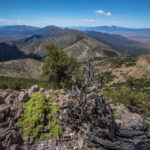
Basin and Range Trail Thru Hike Section 9 Map
Video: Basin and Range Trail Thru Hike Section 9
In addition to this trail journal, I also filmed my Basin and Range Trail thru hike. I’ve produced a detailed series (11+ hours runtime) documenting this thru hike adventure, the product of over 1,000 hours of video editing. I highly recommending watching the Basin and Range Trail vlog series for an in-depth look at thru-hiking the Great Basin and central Nevada.
Basin and Rage Trail Thru Hike Section 9 Journal
Day 56 – July 26th: Antelope Valley, Southern Goshute Range, Kinsley Range, Gold Mine, Antelope Peak
Like most nights in town, I was up later than I would be if I were camping. I was up until 11:30 or so last night going over the next section of the route, posting a few pictures to facebook and catching up with emails, bills and friends. Therefore, I didn’t get up until almost 8am this morning.
Breakfast was two bananas, muffin and a sausage egg and cheese biscuit. Packed up and walked out the hotel around 9:30. Had to walk about a mile and a half to the junction with US 93 alternate, and then walked another mile South out of town. There was a lot of traffic that was driving about 1/2 mile to a mile south of town and then turning into a couple of businesses. So, I had to get south of that to eliminate all of the town traffic.
Once I walked past the edge of town, there was almost no traffic. There was maybe three cars that went by, and none of them stopped. It’s always hard to get a ride from town into the middle of nowhere, versus the other way around. I stopped at a road sign that said next gas 130 miles, thinking this would be a good place to thumb it.
I didn’t try to hitch for too long before giving up and calling a taxi. I was eager to get started walking, and didn’t feel like waiting around all day. There was only one taxi service in town, and they charged me 80 bucks. He was there within 5 minutes to pick me up and I was at my destination before I knew it.
The taxi driver was used to drive a snow plow for NDOT, but he rolled it a few years ago and got seriously injured. Broke his back, had glass stuck in his face. Gnarly. He rolled it almost right where I needed to be dropped off, so he knew exactly where it was. Whitehorse Pass, as its marked on the map. The lady on the phone when I called and said I needed a ride to the southern end of the Goshute range had no idea what I was talking about, haha. You know, that mountain range that forms the skyline of the town you live in. That one. You don’t know the name?
I had planned on walking the east side of Whitehorse Mountain, the high point of the extreme southern end of the Goshute Range, which lies just south of US 93 Alt. On the ride here though, it didn’t look all that appealing. He dropped me off right where I got my ride into town, which was closer to the west side of the range. This was shorter, and more scenic. This made more sense, so I walked the west side instead, changing my plans on the fly. I love the flexibility offered when making your own route. I’ll hike where my eyes and my heart takes me, not confined to a trail or even a route I planned from home.
I was really digging the walk-through Antelope Valley, just as I had before I got my ride into town at the end of the last section. Normally, the start and end points of a section are not that exciting. But here, I actually enjoyed the beginning of this section.
I found a dead bobcat along the road. First time I’ve ever seen a bobcat. I’d prefer to see a live one, but this is a start.
Nearly right next to the Bobcat, up the hill was a small cave. This was more of a tall but narrow style cave, and you could see right through the back side of it. through a small opening. Interesting. It sure was a cool view out over the massive Antelope Valley.
It didn’t take long to walk around the Whitehorse mountains. A couple of hours. I could see the Kinsley mountains now, and in between the two mountain ranges was a bit of a gravel pit. As I look back to the north, the skies were getting pretty dark. It looks like some rain with falling, and a low Thunder could be heard in the distance.
The north side of the Kinsley mountains looked a bit steep and more rugged than I thought. My plan was to climb up to the Ridgeline here and walk the whole thing. However, dark clouds were building and taking over the sky in my immediate area. I saw bolts of lightning on the Leading Edge of the rain clouds, not that far away from me. Then moments later, a very strong bolt of lightning struck the Ridgeline that I had planned on walking. There was almost no time in between the lightning bolt in the Thunder, which was extremely loud. I’m glad I’m down on the road, but I still feel exposed, being basically the tallest thing around down in this valley.
I walked around the East Side of the Kinsley mountains now, hoping the rain and thunderstorms will clear. The Kinsley Mountains aren’t known for much, but right in the center of the mountain range there is a gold mine. It has change hands a few times in the last few years and I was told it was not currently in operation. Good news for me, because I want to walk through it. I have also been told it there is a water source at the gold mine location somewhere, on the east side.
When I first saw the tailings from the gold mine, I left the road I was walking and hiked off Trail to the entrance, trying to save time and distance. I saw about seven or eight
ses. Pretty nice view of Antelope Valley now as I gained a little elevation and looked back.
I walked up alongside a pile of tailings, instead of taking the main road into the mine. I wish I would have taken the main road, at least then I could have seen if there was a water source. Instead, when I got to the top of the tailings, I reached a road and ended up walking down hill a bit. These are where the large pit mines are, as well as the excavator. I saw an antelope here as well.
Alongside the two large open pits were an excavator and a Porta-Potty. Next to the porta potty was a station to wash your hands. It was a big blue plastic thing. There were soap dispensers and paper towels. There was a foot pedal you could push that would draw water out of the tank and pump it up so that you could wash your hands with it. Written on the station where the words, not for drinking, and in Spanish, no beber. But I have a water filter, and I must beber. I only filtered 1 liter, mainly because I didn’t want to carry more than 4 and my pack was already heavy. Plus the water taste is a bit funky, even though I filtered it. A chemical-type taste.
After I got my water, I continue to head up Hill, to the crest. This became a bit of a confusing network of roads. It’s not too confusing if you just want to follow the main road, but I could see the road I wanted to follow up the hillside to the crest and I couldn’t figure out how to get to it for a while. I kind of wasted a lot of time here. I did find a couple good pieces of Wonder Stone on the ground, though.
Eventually got to my road that leads up to the crest. This road was barely a road, but it was a pretty decent substitute for a trail. It was very slanted into the hillside, not really an angle which you would drive a vehicle across. I followed this road until it ended at the crest of the Kinsley Range. On the other side was an actual hiking trail, and I saw one cairn. Interesting.
The Ridge was pretty pleasant. Not too thick with vegetation, fairly easy to walk actually. I began to head south, towards Antelope Peak. One Small Knob obstructing my view. This was off Trail now, but still easy.
I found a couple of pretty good campsites along the Ridgeline before you reach Antelope Peak, high point of the Kinsley Range. However, it was only 7:20, and I was confident I could make it up and over given the conditions. So I went for it.
It was a pretty short ascent up Antelope Peak. There was a Rocky Ridgeline, not quite a knife Edge but close. It was a nice and easy scramble up to the top with no problems. On the summit, there was a Summit register in an old ammo box. This is the first Summit register I’ve seen in Nevada! There were only five other entries in it dating back to 2003. Beautiful views on the summit just as the sun was going down.
The Summit of Antelope Peak (7780) has some flat areas and will make a good place to camp for the night. Camping on a Summit, woohoo! Only problem is, my tent Stakes only go into the ground about 1 inch. So, I had to set really heavy rocks on them. Good thing its not windy tonight.
Day 57 – July 27th: Antelope Peak, Antelope Valley, Antelope Range, Becky Peak Wilderness
Slept great last night. Woke up at 6am on the dot. Nice to wake up on a mountain peak! Thankfully there was no wind last night. There isna’t any one landform here that is stunning, but this area has a simple beauty to it that’s hard to ignore.
Now to work my way down the Ridgeline off of the Kinsley mountains. At first it going was pretty easy. The vegetation wasn’t too thick. There were many times where I crested a small saddle, only to be presented with basically the exact same view. Towards the bottom of the Ridgeline, the going got a little bit tougher. It was a bit more cliffy, and eventually I abandoned the ridge for a side Canyon that had a dirt road. It was a little out of the way, but worth it.
When I reached the road at the end of the Kinsley mountains, Kinsley spring was there. This was on private land, but there is a public road that goes through it. The sign on the gate says, private property – enter at your own risk. It doesn’t say do not enter, or no trespassing. It said, enter. At your own risk. Permission granted in my book. Kinsley spring was actually pretty decent. It was a large tire filled with water, but the water wasn’t too green or thick with algae. Pretty clear. This one reminded me of my time thru-hiking the CDT in New Mexico.
From here I had a choice to walk through the Antelope mountains or around them. These are more like Hills. Low, wooded Hills, with a dirt road going through. It was about the same distance either way, and looks like only a thousand foot of elevation gain or so, so I went for the Antelope mountains route.
It was mid-morning now, and I could tell something different was going on with the weather today. The sky was cloudy already, which was unusual. In June, it was just blue skies everyday with no clouds. For the last couple weeks, it would be blue skies in the morning, then white puffy clouds in the afternoon that could form thunderstorms. But today, it was just a random Patchwork of gray clouds.
The Antelope mountains were a pretty boring range. Not any more interesting than it looked from Kinsley spring. Just some run-of-the-mill low Woodland scrub. A couple areas that had been burned by a fire. A couple of nasty Springs, ruined by cows. Saw a herd of about 6 or 7 antelope in a burn area. In one clearing, I saw a herd of about 20 horses and right next to them, a little bit higher on another Hill, a herd of another 15+ horses.
I felt like the first half of the Antelope mountains went by pretty quick, and I didn’t mind them so much. But the second half seems like it dragged on. The climb up to the last saddle seemed slow, and I began to doubt my estimate of 1000 foot elevation gain for this whole range.
Once I dropped down the last saddle out of the Antelope mountains, I got a view of Steptoe Valley and the Cherry Creek range. With the storm clouds in the distance and random rays of sunlight shining on the mountains, it was pretty pleasant.
I checked my phone and I was surprised to see 4G service here once again. The clouds began to clear up and it was mostly sunny overhead. I took a break under a juniper tree for lunch, and this provided a good amount of shade. More storm clouds were moving in, but these looked like they would pass to the north. It was sunny now where I was, and quite hot. There was a spring here, flat spring, that was on the map I had missed this one in my planning and research, and it wasn’t marked as a potential water source. I was surprised to see another big tire here full of crystal clear water. I should have filled up here, but I kept going.
Then I passed Cress spring, another spring that was marked on the map but one that I had not marked as a way point. This one was nasty! A cow shit swamp, I wouldn’t drink this one unless I was about to die.
I made pretty good progress through this next section. It was really hot now, and for some reason this motivated me to walk fast. Probably to get to the next water source, which seemed very far away. I didn’t see anything for water ahead until I reach Becky Peak. Passed through a good sized burn area. The burn line stops abruptly on one side of a 4×4 road, leading me to believe it was a controlled burn. Just a guess, I suppose it could also have ended abruptly as the road is a natural break line for the firefighters to protect.
While walking the dirt road, I came across a young horse. The mother was nowhere to be found. This guy was walking face-first into a small tree, almost as if you couldn’t see it or as if he was stuck. But I didn’t see anything that was holding him there, he was just constantly trying to walk into it. I cautiously approached, and he didn’t back away. I reached out and touched his back, at first he twitched, but then, he calmed and let me pet him. I wasn’t sure if he needed help or what. His eyes looked pretty red, I wondered if he had an eye injury or if he was just blind or something. Then he started trying to walk under a few branches but was getting stuck. I tried to break the branches, and a combination of him pushing on the branches and me pulling on them did the trick. Success, freed the little guy. I tried to give him some water, by dumping it on his head. But he didn’t get it, I was hoping he would open his mouth and go for the water. Oh well, I didn’t have much to spare anyway. I am pretty sure this guy was going to die soon one way or another.
After passing the horse, I walked to a junction in the road. I went right, heading west now, towards Becky Peak and the Schell Creek range. I was getting pretty tired now, hadn’t had a break in a while and pushed through all that hot weather.
Dark clouds were building again over the Schell Creek range. I checked the weather on my phone and there was quite a bit of activity coming from the south, in waves.
I reached an area of private property again, but like earlier in the day, there was a sign that said enter at your own risk. Since this is the shortest and most direct route, also likely has water, that’s the route I’m taking! When I entered the private property, I could see several hundred domestic sheep on the other side of the canyon, and these guys were on the move. I thought for sure I would run into a sheep herder, but I didn’t see anyone.
As I worked my way up Sampson Creek, it began to rain. There was some water flowing down the creek in spots, particularly up stream, but it didn’t look appealing. I kept following an uphill until I reach the source a metal lid propped up by rocks that topped off a tank underground. Water was coming up from this tank and spilling over the top. The Rocks keep the animals away. This was a nice feature, I was able to get my bottle into the tank collect crystal clear water. However, it decided to rain at this moment. It has been 4 hours since I took my last break, and I was almost out of water. I was hungry, thirsty and tired. I really needed this break, especially since the next section has me going uphill to Becky Peak, a big elevation gain.
After the break, I finished walking through the segment of private property and entered public land again. I saw more horses and more pronghorn. I saw horses scattered throughout the day actually, too many times to count. At one point while walking the road to Becky Peak, I could hear the clip-clop of horses running. It was getting louder and louder, and eventually they emerged from the trees, running right at me. They were about 10 yards away or so and as soon as they saw me they change course and ran away from me.
I began the final ascent up to Becky Peak on a dirt road along Sampson Creek. This looks to be about 1,700 feet elevation gain. There’s a sizeable pond along Sampson Creek at the base of the climb, but I’d follow it uphill to its source if I needed water. But I don’t. As I neared a junction, I decided to stop for the night. The clouds continued to build above Becky Peak and I did not want to be camping high up on the ridge line tonight. So I stopped lower in the canyon than I normally would have. It was only 7:30, early for me.
Set up my tent and got a few time-lapses going of the sunset and building clouds behind my tent and Becky Peak. Then it started to rain. It was quite windy at times, but largely my fault cuz I set up the tent in a manner that catches the wind. I continued to hear rainfall on my tent for a few hours tonight as I tried to sleep.
Day 58 – July 28th: Becky Peak, Becky Peak Wilderness, Schell Creek Range
I started the morning off with a climb up to camp spring. It was another couple hundred ft from my campsite. At the top of the climb was a sign welcoming you to the Becky Peak Wilderness. It lists Becky peek at 9859 ft but my map says 10002ft. That is quite a large discrepancy. I wonder which is right. I prefer the version that is 10k!
Shortly after I came across camp spring. There were two troughs, one of them was overflowing and feeding a pond. The pond was held back by sandbags and rocks, and then flow downhill. One of the troughs had two dead Chipmunks in it. Better filter from the other one. Otherwise, the water looked crystal clear.
My sawyer filter has been filtering pretty slow. I’ve back flushed it, and its still slow. The whole process of filtering water takes a long time now. Also, when I filter a liter of water, I want to chug a liter while I’m filtering more water. So I finally made a bit of a gravity system. The bottom of the platypus bag has a couple of guides for cutouts, so I poked a hole in these with my knife and used my spare guy line to run a string through the holes that I just punctured, and tied a series of knots behind it. Now I can hang this from a tree or post, and let it filter while I do other things, like drink the previous liter of water I just filtered, or wash my socks.
Next I climbed up the northeast side of the Ridgeline leaving to Becky Peak. It looks deep from far away, and when I got right up close to it, it still look pretty steep. Steep, but very manageable. It was mostly loose dirt and rock, but not loose enough to where it was a one step forward two steps back kind of deal.
While working my way up the Mountain, I came across my second rattlesnake of the trip. Much like the last one, it was hiding under a rock in the shade on a slope below a Summit, near 10k feet. I was probably 7 or 8 feet away when I heard his rattle. Thankfully they give a warning.
As I neared the summit, I could hear the sheep dogs and the sheep, and see two trucks in the valley far below. Just below the Summit of Becky Peak, there was a mangled pile of metal. It was pretty obvious what it was, as I had seen these before… Basically a weather station. At least, it collects rainwater. I had seen one of these in Soldier Creek in the Rubies, and elsewhere. I believe it was USGS. This one was laying on the ground, with the top instrumentation part separate from the post.
The Summit of Becky Peak was pretty nice. Great view of the Cherry Creek range across Steptoe Valley. On the other side, the Antelope range continues south, and remains unimpressive. There was a Summit register on this peak as well. There was no more paper to be signed, so I added a small piece from my junk drawer bag. There were 13 summits in the past 2 years, and one of them was last week! I was not expecting that.
Next I continue South long the crest of the Schell Creek Range, through the Becky Peak Wilderness. I thought the best views of the Becky Peak area where here, descending the summit and hiking south along the ridge. Pretty easy-going at first. A good mix of horse trails and overall easy terrain. I enjoyed massive sweeping views of the Schell Creek range to the South. Also, I think I can see Wheel Peak in Great Basin National Park now, far off in the distance. That’s basically my end point for this hike, so that’s a significant landmark for me.
After following horse trails around a high point, it was time to head down a Ridgeline. This was more of the slow off-trail stuff I was used to. It took a while getting to the Ridgeline, having to side Hill my way there. Once on the Ridgeline itself, it was a mixture of small rocks, the kind packed into the dirt, and small trees. Fortunately not too bad of a Bushwhack.
Made it down to a saddle separating the Ridgeline I came down and another tall peak, another 800 or 1000 foot climb or so. I really didn’t want to climb up that peak, so I took horse trails around the mountain side instead. In this case, I probably should have just gone up and over. There was a lot of Sagebrush to walk through, and the horse trails were intermittent at times. In following the horse trails around the Mountainside, I had to still go up over a small pass. This one was heavily wooded when I got to the other side. It looks like the best way forward was to Contour around the hillside to Dolan Trap spring.
The off-trail hiking along the steep hillside proved to be quite a pain in the ass. The ground beneath my feet was very loose… Loose dirt, loose rocks on fairly steep terrain. I fell a couple of times. I worked my way around the mountain at this elevation for a while, before reaching a Ridgeline that suffered a forest fire. I continued to contour around the mountain through the burn area over to the spring.
Dolan Trap spring was dry, as my notes said it would be. But there were two large pipes or tanks here, and they provided shade. This will be my lunch spot.
After lunch I headed uphill a couple hundred feet to another pass. I was on an old dirt road now, even though I’m in the wilderness, old Roads sometimes still exist. This one was being reclaimed back to Nature. I followed the road down from the pass into a valley, and then up Dry Canyon towards another pass. This one would be another thousand or 1200 ft elevation gain.
At the top of this pass were some pretty great views. Looking South I could see North Lovell Peak and “The Nipple”.
There was a short section of side-hilling, and following horse paths, before I could reach back up with another road on a ridge. Pretty great views all around here in every direction. Very enjoyable walk.
This route drops lower into the valley and swings buy a couple of springs on the map, but takes me slightly out of the way from where I need to go. I reached the first spring, which was dry. My route had me going off Trail, side hilling through a bunch of Sagebrush. No thanks! I’m done with that, if I can avoid it. Instead, I followed the road downhill about a mile and losing about 400 ft, and then another mile and 400 ft uphill around a big Knoll. Probably roughly the same amount of time and definitely worth avoiding the hassle of the off-trail traverse.
Take a quick snack break under the shade of a tree, one of few trees around. Continued uphill through the canyon that will lead me over the pass, just below the nipple. Good views, pretty wide open. The other reaches of this Canyon had water, just below Cooley cabin. I stopped here to filter a couple liters of water, cool off and wash some of my clothes.
It was another couple hundred feet uphill to reach the pass after my water break. At the top of the pass, I was surprised at the quality of the views. There were some limestone rock formations at the top of the pass that were nice, but more than that, looking further to the south the rock formations along the Ridgeline with Lovell Peak where excellent. Reminded me of the Goshute mountains, and the Egans.
With the big climb of the day done, the sun below the rest of the ridge, it was an enjoyable walk the rest of the evening down McMaughn Canyon. The limestone cliffs along the eastern side of McMaughn Canyon where very appealing, and I wished I could hike closer to them for a better view.
They were a couple of decent places to camp in the upper reaches of the canyon, but as I got lower, it was just low Sagebrush. It was getting dark and I was looking for a spot. My map had a spot called McIntosh Place marked. Apparently, this was an Old Homestead. This was overgrown and did not provide a suitable campsite either. Fortunately, just down the road I found an open spot alongside the road, a few feet away, just a clearing in the dirt. Works for me!
Day 59 – July 29th: Schellbourne Pass, Schell Creek Range, Ranger Trail
I slept for about an hour last night before I heard an animal about 20 ft away. I turned on my headlamp and saw something scurrying away from a tree, about the size of a raccoon. Not really sure what it was. I didn’t really sleep that well after that. A couple hours later, I heard some horses walking down the road that I was camped alongside.
From my campsite, I was less than a mile from CR-18, a paved road that cuts through the Schell Creek Range and goes over Schellbourne Pass. From there I made my way down to the road that I had planned on Crossing through Shellbourne Ranch on. Unfortunately, this was a private Ranch entryway with a sign that said keep out. I was in a good mood until I saw this. There’s public land on the other side, but no way to access it due to this Ranch.
So now I need to figure out another way to get into the mountains from here. The only thing I could come up with was a walk up and over Shellbourne pass to another road that was about four or five miles out of the way. No choice, so I started walking uphill.
It was a few miles of road walking to go over Shellbourne Pass and reach an old 4×4 road leading up into the mountains. I started walking up the road, and made it to Basin spring, where I stopped to filter water. This was a clearing with a spring tickling downhill, the grass all trampled by horses. The water looked pretty gross. I had no way to collect from the source. Instead, I went slightly downhill, where the water was flowing out of a stagnant pond. I was able to fill up my water bottle from the water flowing off of a 10 inch waterfall. It looks clear, and my water filter will take care of the rest.
Now I had to climb a steep 4×4 Road up to the crest of the Schell Creek range. I was really sweating and working to make my way up this one. I thought I was at the top, but it was a false Summit. So, more climbing to go. Finally at the top, I took a break in a patch of trees. The shade felt great, and I ate lunch.
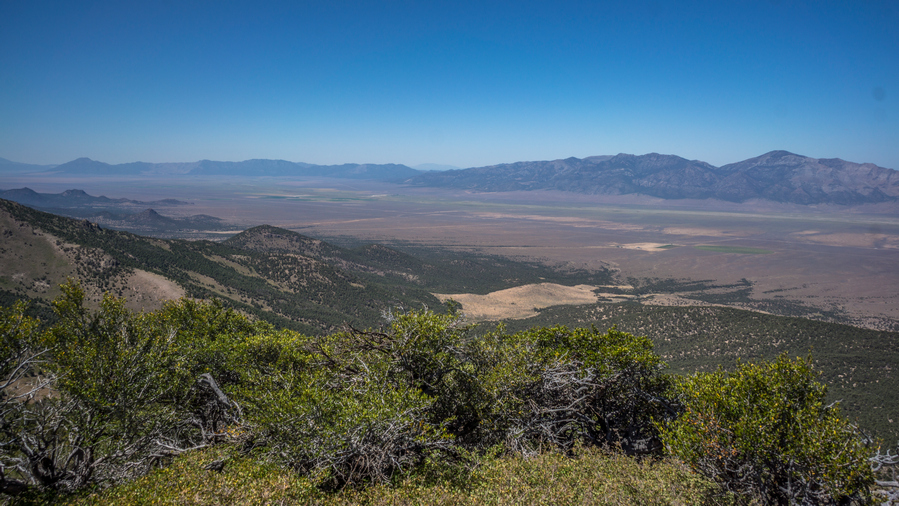
Massive views over Steptoe Valley. The Cherry Creek Range has ended, and now, the Egan Range runs parallel to the Schell Creek Range to the west
The trail drops a bit to a saddle, then climbs up higher once again. I could tell today was going to be a lot of work. Although there might be a lot of climbing, at least it’s easy hiking, for the most part.
While hiking up the next pass, the 4×4 road I was on turned into a single track trail. Nice! I followed this uphill and dropped down into the next Valley. Here, I saw several rock cairns too. Excellent Trail, well maintained.
The trail skirts the hillside now for a mile or two, avoiding climbing up and over another high point. Sounds good to me! The trail stays on the East Side of the Range and provided excellent views… I could see North to Becky Peak, and south to what was likely the snake range, Mount Moriah. I could see where the Antelope range ends, as well as Spring valley.
The trail passes by a spring now, this one was a nice surprise because I hadn’t had it marked on my map. Water was flowing out of a pipe, easy to collect from. I didn’t need any water at this time, not to filter anyways. So I filled up my water bottle and dumped it over my head. This felt great!
Next the trail passes through a heavily wooded Hillside. This was a real pain in the ass section, because the trail seemed like it kept climbing forever. Steep trail, too.
Next the Trail emerges on a high open Ridgeline. Moving on, the trail drops down significantly in elevation. Excellent views. About 100 ft down the hill below the road was an old truck, which lay in ruins. Apparently the truck drove off the road and rolled down hill.
I enjoyed good views of increasingly more impressive limestone cliffs along the crest of the Schell Creek Range, now visible as I see it from a new angle.
I reached a point where the trail was supposed to skirt the hillside, but there was no trail or road. Instead, it dropped down another 400 ft or so. Then it was another thousand foot climb. It was probably 4:30pm now, and I was in direct sunlight. This was perhaps the hardest part of the day for me, and if I am honest, one of the lowest points I can remember on the whole Basin and range trail. I felt completely overwhelmed, being so extremely tired, exhausted and hot, and having so much further to go. With my pack on I sat down on the Steep 4×4 Road and debated what to do. I looked at my map, considering heading down hill and looking for alternate routes to avoid all this climbing. But there really weren’t any good routes, and somehow I mustered the strength to keep going. It helped that the sun went behind a cloud for a solid 20 minutes, while a slight breeze was in the air.
After this pass, the trail goes up on another Ridgeline. From here the trail drops down to Ruby Creek, my next water source.
Down at Ruby Creek, I found a very small trickle of a stream, and had to hunt for a spot to collect from. There was a lot of green alongside a Dry Creek bed, and I went up stream until I found a willow Thicket that produced water. Then, I had to get my trowel and dig out a pool to collect from. Fortunately there was shade here, so I was able to sit and relax while the pool filled and the murky water dissipated.
Then the trail climbs uphill again for another 800 ft. It passes Ruby mine, which had two old cabins. I saw no rubies, and no interesting rocks. I don’t poke around all that long, either. I saw 4 deer around here, though.
After this, there was a series of random Ridge lines, but the trail more less stays at an even elevation with climbs no more than 200 ft, and well graded. There was even a couple of signs that marked the ranger Trail along the road. From this point on, the evening was really nice.
The sun had gone down behind the ridge, the temperature had cooled, and the lighting was just magical. Some really excellent hiking here. Beautiful views, Jagged Peaks to the South. All I could think about was how awesome this hiking was, and how much work I had to put in to just be able to have one hour of nice hiking in a day. 12 hours of extremely hot hiking, lots of climbing and filled with bugs… All for one hour of good hiking. And somehow, its worth it in the end.
It was around 8pm and I was looking for a campsite. I got really lucky and found a nice open field along the road with many places to camp, and a small stream about 50 yards away. For once, a good campsite that didn’t require a lot of work, at the right time. I was really thankful for this tonight.
Day 60 – July 30th: Schell Creek Range, Duck Creek Valley, Cave Lake State Park Fishing, Timber Creek CG
Heard something walking pretty close to camp last night, sounded like horses. Yelled out at them, and like always, nothing happened of it.
The views started out pretty good today, the Jagged Ridge towering above the ranger trail makes sure of that. Passed By a small spring, a trickle of water flowing through a patch of Aspen trees. Past another spring father up the trail, at least I believe it was a spring, as it was green and there were cows standing around it. Saw some sort of weather station in a field. This one was definitely functional and intact.
At the beginning of the big climb of the day, while I was walking uphill, I saw a guy coming down hill. And he had two dogs. I waved, and said good morning. He said hi back, in a thick Spanish accent. Around the same time, I first started hearing sheep, and I realized he was a sheep herder. Sure enough, I saw his horse right up the hill, and down into the next Valley, a couple hundred sheep. Bah. Bahhh!
Pretty nice views going up this pass. This would be the last good views of the day, at least from a high Point. On the other side, my enemy… poof dirt. The trail dips down into a large Aspen tree patch. I could see the sheep herders camp in the woods, an old school looking canvas tent, coolers, bails of hay for his horse.
Next I went up over a very small saddle. On the other side, the trail was pretty faint. It drops down into North Creek. I lost the trail for a little bit, and feared a terrible bush whack down this steep Canyon. Eventually I picked up on the trail again, thankfully. It led me to a small wooded area with a creek flowing through it. Perfect, shade trees and some good water to drink. Break time.
The trail was thick and overgrown sometimes, but it eventually led me to a road. It’s funny how I feel about roads now, having done so much bushwhacking. I don’t mind them as much now, at least, in short increments.
It was really hot now, but a decently enjoyable experience walking down the canyon. It must have experienced a recent burn, I can still smell it in the air and see all of the burnt Sagebrush. With the valley opening up now, and a view to the south of the Schell Creek range, I debated my options. The plan was to follow the Ranger trail along the hillside to bird Campground. But last night I decided after looking at maps that I could actually follow the Ranger trail to timber creek Campground, which meant I could stay off the high Ridgeline before North Schell peak for longer. But now that I could see the next few miles of my route, which appear to skirt the hillside of the high shells, it didn’t look too appealing. It kind of reminded me of the Lamoille Canyon to Soldier Creek hike in the Rubies. Is it worth the effort? I also considered walking around the entire Ranger Trail completely by going through Duck Valley, which would mean a road walk. This probably would be faster, and certainly less elevation gain, and didn’t look like I would be missing too much on the scenery front. Certainly more miles, though. So I was considering this.
Saw a guy and his wife on a side-by-side, a two-person vehicle. They were going uphill as I was coming down. After passing them, I realized I was supposed to make a turn where they did to stay on the ranger trail. I didn’t really feel like going back up hill. So this made my decision easy, I’m taking the low route through Duck Creek Valley to Timber Creek Campground. Timber Creek is the preferred way to access North Schell peak.
Walked down a pretty uneventful Canyon along North Creek, until reaching a residential area. Eventually reached the main Highway running North and south through Duck Creek Valley. I believe this was Highway 486. This was a paved Road. 10 vehicles drove by in the opposite direction, only 1 the way I want to go.
Finally, a jeep driving the opposite direction stopped even though I didn’t have my thumb out. They asked if I need a ride, I said yeah but the way you just came from, to timber creek campground. They said that’s where they were camped. They said sure we’ll give you a ride there. Then they said, were on our way to go fishing, you want to join? I said sure!
Introductions, Dave and Donna from Cali. Dave is out here to do some gold mining. Waiting to hear from a friend on a location to do some dredging. So, he’s just exploring in the mean time.
So, in a matter of moments, I go from hiking to the timber creek campground to on the way to a small lake to go fishing. How random is that? We drove into Ely, bought worms. I bought a huge box of chicken and fries from the gas station. Hungry! Lady at the gas station had never fished Bassett lake, where we were going. She suggested cave lake instead (where I was ultimately planning to end this section at). So that’s where we headed.
Cave Lake was beautiful. Water levels were low, like everything out here. Nice water color, a vibrant turquoise blue. Dave had some tiny fishing poles, like for ice fishing. They felt like kids equipment. I used a gold kastmaster, had some follows and bites but didn’t catch anything.
Sat under a tree on a picnic table in the shade. We discussed rocks, mining and treasure. Dave said he was going to pan/dredge/high bank for gold tomorrow and I was welcome to join. Always wanted to look for gold, with someone who knows what they are doing. I’m in!
Drove back through Ely and hit the gas station for beer, ice, supplies, then drove back to the campground. Sat around camp and listened to music on Bluetooth speaker.
Dave had a generator, which powered a small TV ,and we watched some horrible old van Damme movie, Black eagle. Wow. It was after dark and he had the generator running, and the TV up pretty loud. It was clear he lacked the proper camping etiquette, but I didn’t want to be the one to scold him.
After I went to bed he watched another movie, and had the generator running. He had some sort of bright light on throughout the night. I just put in my earplugs and zonked.
Day 61 – July 31st: Timber Creek Campground, Zero Day in Ely, NV
Got up after 8am. Dave and Donna were already up, tending to the fire pit. I could hear it crackle from my tent. They made corned beef hash for breakfast, cooked on a pan over the fire.
After breakfast we started to load up the Jeep with the mining equipment he thought we would need for today. The plan was to take samples from several different Creek beds and see what we found. Then concentrate on any Creek that showed promise. The Jeep was so filled with garbage, but they refused to clean it out. I was trying to be helpful, every time I grabbed something to throw out, he would say, oh we need that, there’s an email address or a password written on it. And sure enough, there was. But there was lots of other things that could be thrown out, instead, we had to squeeze in between tools, equipment, cooler, and garbage.
We left the campground and started driving down the dirt road back towards the main Highway in Duck Creek Valley. On the way out, we past the pay station where one pays the nightly fee. Dave noticed that it said fee station, and said, oh, we were supposed to pay for this campground? I found it a little hard to believe that he was camped here for several days and had not noticed this already, let alone on the first day. None-the-less, he balked at the 35 per night fee for the double campsite he had occupied. In his defense, this was really steep, especially compared to the $8 a night for a single site. So now, Dave and Donna decided that the best course of action was to head back to the campsite, pack everything up, and leave. So, back to the campsite we went.
We packed everything up quickly and This of course made the Jeep and the trailer even more jam-packed. Dave figured that he could just camp for free on National Forest land, which is true. So that was his plan now. I should have just parted ways with him here, while I was still at Timber Creek, so I could do the North Schell to South Schell Peak Traverse and finish this section as planned, but I was still enticed by the Prospect of gold mining.
Now we drove into Ely so Dave could buy a gold detector from the sports store. Donna and I waited outside while he went in and tried to purchase it. However, his debit card was declined. So he came back outside and spent a good while on the phone with Bank of America trying to straighten it out. The only thing is, Dave is not very tech savvy. He is 55 and Donna is 60, and they are both pot heads to boot. His bank tried to send him an email, and he was having serious trouble retrieving it on his phone. To complicate the matter, he bought like 4 new phones, and was never really sure which one he was using. In the end, the lady on the phone verified his identity in some other way. For whatever reason, the transaction still did not go through.
Now Dave was trying to find a Bank of America Branch location to physically drive to. The lady on the phone told him there was one that was 100 miles away. I looked on Google Maps, and could not find anything closer than Vegas, 4 hours away. Dave never bothered to ask which town the Bank of America was in, but now he was set on driving 100 miles to a Bank of America branch to try and pull out money, to then come back and buy the gold detector. It was already 1pm At this point the day was shot from my perspective. Since they are not going back to the Timber Creek Campground, where I would need to go to continue my hike, and I am already in Ely, where I am looking to end my hike, it just made sense to have him drop me off at a motel while I was here.
Of course I was disappointed that I could not do the Schell Creek Ridgeline Traverse, but at the same time, I’m more concerned about the logistics of ending the route next week at Great Basin National Park. I had sent my bounce box to the post office in Baker, which is only open Monday through Friday and they close at 3pm. So if I get there on the weekend, I would have to wait until Monday to get my box. This normally wouldn’t be too much of a problem, but I am also trying to set up a ride out of Baker to a major city where I could catch a plane home. Marlene, who I met in the Rubies and lives in Reno, offered to drive 5 hours each way to Great Basin National Park and pick me up. Finishing by Friday at 3pm would be best for her schedule, so that’s my new goal. Getting dropped off in Ely now almost ensures that I will Make that goal. Had I not done that, that timeline wouldn’t have worked.
So, Dave dropped me off at the Motel 6, where I stayed before I started the hike. While checking in, I asked Raj, the owner or manager, if he knew of anyone that could drive me out to the middle of nowhere so I can start the 10th and final section of the Basin and Range Trail. There was no taxi service in town, Uber or anything. To my surprise, he immediately had someone in mind. He gave me Terri’s number, whom works here as well. Great!
First thing I did was order an extra large meat lovers Pizza from Hometown Pizza, with a 2 liter of Coke, delivered. I took a shower in the meantime, and then Pigged out. Gotta feed the hiker hunger.
Didn’t really accomplish much the rest of the day. Typical stuff, wash some clothes, charge batteries and made some phone calls. Called Dad and had him send a box to Baker containing a laundry bag that I used to protect my backpack when I check it at the airport, my small Osprey backpack that I use for my carry-on so I can put my camera gear in it, as well as a pair of clothes to wear. I called Terri in the evening and left a message. She got back to me later in the evening by text and we began to discuss plans to take me out to my starting point for the next Section.
Day 62 – August 1st (Zero day)
I Started looking at the next section and made some route modifications. I had planned on walking the Ridgeline south of Mount Moriah, but that would have meant a crappy bushwhack down into Hendry’s Creek. So I modified the route to Make a base camp below Mount Moriah and then Summit it, then come back the way I came and down into Henry’s Creek. This will still be faster. Also, the route going up to Wheeler Peak did not look realistic. I checked the satellite view and it was up a couple thousand feet through trees. No way! So, I created another alternate route that goes around the east side of Great Basin National Park, up a different Creek than I had planned, up to the Ridgeline by Mount Washington, cutting off Mount Lincoln, and making my way over to Wheeler Peak. This would save the best for last, and also allow for a hike down to Stella Lake. But, I’ll walk though the town of Baker once on my way into Great Basin, forming a little loop as I return to Baker to complete the Basin and Range Trail.
Also, I had to figure out where I wanted Terri to drop me off. The original plan was Cave Lake State Park, but that would mean going up in over the Schell Creek range, which I’ve already pretty much written off at this point. That would also mean a walk across Spring Valley, in 101 degree heat. So, I made the decision to knock off another 25 miles and have her drop me off at the entrance of Deerhead Canyon, along negro Creek, below Mount Moriah.
Basin and Range Trail Thru Hike 2020 – Section 8: Wells to Wendover
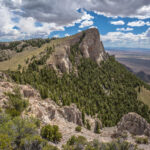
Basin and Range Trail Thru Hike Section 8 Map
Video: Basin and Range Trail Thru Hike Section 8
In addition to this trail journal, I also filmed my Basin and Range Trail thru hike. I’ve produced a detailed series (11+ hours runtime) documenting this thru hike adventure, the product of over 1,000 hours of video editing. I highly recommending watching the Basin and Range Trail vlog series for an in-depth look at thru-hiking the Great Basin and central Nevada.
Basin and Range Trail Thru Hike Section 8 Journal
Day 50 – July 20th: Clover Valley, Wood Hills, Independence Valley, Pequop Range, Trail Magic
Woke 730. Walked to post office, which opened at 830. That was an hour round-trip. Started walking 9:45. While waking out of Wells I passed a younger guy, he said hey man come here a second. He thought I was homeless and was trying to give me his extra salad from a restaurant. But then saw my gear and realized I was a bit more well off. I told him what I was doing and he said “mondo respect”. His car was broken down and said he was stuck in Wells for a month. He asked if I wanted to come play video games with him in his motel. Kinda weird and random, but honestly, I would have if I weren’t walking out of town! You do weird and random stuff on a long hike like this, and find yourself in all sorts of situations. If you say yes, they typically work out pretty well.
I expect today to be the single most boring day of hiking on the Basin and Range Trail. Its going to be a hike of roughly 20 miles along Interstate 80 in order to connect the East Humboldt Range with the Pequop Range. Today, Ill walk across Clover Valley, Wood Hills, and Independence Valley, but on a track that’s only about 100 yards from the interstate. That’s because this area is all checkerboard land, an alternating pattern of public and private land. The long story short is that there is no legal way to cross this land, so its best to stay on a public road. I chose to follow the I80 service drive road that parallels the freeway to make the quickest time across this area, which was not going to be a highlight of the hike anyways. Every long hike seems to have one or two sections of filler to connect all of the great places it traverses. I am willing to sacrifice ONE day to connect the East Humboldt Range to the Pequop and Goshute Ranges.
Some cows along the route today. Passed through a gravel pit which also had cows. One cattle Trough about 5 miles west of Wells with water. Didn’t need it, so I moved on. Stopped for break as I hiked through the northern portion of the Wood Hills range. This area consisted of low hills and small trees, as the name Wood Hills might imply.
East of the Wood Hills Range, I entered Independence Valley. It was wide open and huge. Took another break at the independence valley exit along I80, in shadow of some abandoned metal crate thing for utilities.
By mid afternoon, I was starting to feel a bit off. I was really hot, tired and thirsty. I thought I had drank enough today, but my body just wasn’t having this walk today. Every day now the temps are low to mid 90s. My water was very hot, barely drinkable. However, as I approached the Pequop Range, the scenery was starting to get better. I wasn’t expecting much out of the Pequops, but they are starting to look like they have more potential as I draw near.
Once I reached maverick canyon, where interstate passes through the Pequop mountains, the canyon narrowed. I began to get wedged in between steep hill sides and a fence. I was really whooped now.
Left the interstate and started walking up a canyon on a dirt road. Left the dirt road for secondary road. My side was starting to hurt a bit so I had to stop again for a break. Thirsty for cold water, and not much appetite.
Once at the Top of the pass, the scenery began to get beautiful. Not stunning, but simple beauty. Rolling hills, excellent view East towards the Toano Range and the Goshute Mountains. The play of Light and shadows with the clouds over the mountains was peaceful.
I walked up and down a series of rolling hills towards my next water source Nanny Creek. Looking down into the canyon below, I could see a large pond. Sweet! Just need to get down the steep hill side to get to it. I was struggling now to finish out the day. Exhausted from the heat, presumably, even though I seemed to handle the same temperatures much better throughout the rest of this hike. Still, I was tired, had cramps, feeling light-headed and just slow.
Nanny Creek was swampy. There is a man-made embankment on the downstream end forming a small pond. No way to get to water, the banks were shallow water with thick grass protruding a few feet into the water. Tried downstream, but no access either. I was on my way upstream to check the source when I heard an engine approaching. It was an older guy on dirt bike with weed whacker. Interesting!
Kem, local rancher and mountain bike enthusiast, was out maintaining some dirt bike trails for the mtb project. We talked for about 15 minutes, and I was having a hard time concentrating… So tired, thirsty. Occasional stomach cramps. Dizzy. Ears plugged and could barely hear myself talk correctly. Dropped my pack while we talked and I had to sit down.
Kem offered to let me stay at his ranch this evening and join for dinner. Yes please! It was only a mile downhill. So that was that portion of private property I saw on my map.
Walked down to his ranch, a nice walk. The entrance to his property is marked with a sign that says Mountain bikes welcome. Beautiful property, lush green, rock formations, sprinklers ruining, horses, Llamas etc. Nice farm house. Greeted by barking dogs which quickly warmed up to me.
Kem’s wife Donna prepared Salmon and rice for dinner, which was very good, but I could barely eat. So exhausted from the heat that it was messing with my appetite. Drank 2L water and 2 glasses of red wine. We talked about the route I’ve hiked through Nevada so far, and I went over my plans for this coming section, in Kem’s backyard basically. Kem was familiar with some of my route through the Pequops to the south of here, as his mountain bike trails and dirt bike trails run through this area. Ultimately, Kem decided to join me tomorrow as I continue my hike south through the Pequops. Hell bring the dogs and hike a day or so south with me, before turning back around, as I continue south.
Took a shower and had a nice comfy bed to sleep in. Wow what an unexpected way to end the day. To have been in such rough shape earlier, and having just walked the worst section of the Basin and Range Trail, to bump into Kem like this was an incredible moment. It couldn’t have come at a better time.
Day 51 – July 21st: Trail Magic, P
Barely slept last night even though I had such a comfy bed. Had horrible cramp in my calf in middle of night, still sore this morning. I Was really out of it last night and not feeling great, heat wore me out I guess. Roosters outside bedroom woke me at 5am. Slept to 630.
Kem and Donna were up when I walked out of bedroom. Donna had already made breakfast, pancakes and fruit. Delicious!
Kem and I left for our hike around 8am, with 4 dogs in tow. Left the ranch and walked the dirt road back up into the Pequops. It was nice to follow Kem and have no navigating to do for once.
Kem was in the air force, and flew C130 transport places. After his military service, he flew for Delta, and is now retired.
In the northern Pequops there are a couple of guzzlers. When we reached the first guzzler, it was nasty water. Brown, like a cattle pond. The dogs jumped in the guzzler to cool off. Well, I’m not drinking that water now. Oh, and there was a dead elk a few feet away from the water. It had just recently died, within the last couple of days. This guzzler was not plotted on my Calopo map… Did I miss it in my research? Kem says another one higher up, so well get water from that one. Hopefully, its better water.
Good views now that we’ve gained some elevation. Rolling ridges, really Nice. We filled up our water at the second guzzler. Clear water, no green tint. There were four separate troughs here at this guzzler. The dogs jumped in first one. We used second one until one dog jumped in, then we used third tank. I took 7L, expecting no water for a solid day plus across Goshute Valley and into Morgan basin.
Clouds building now, getting a little windier, Temps cooling. Hiked the crest of Pequops south and a network of game and bike trails that were mostly pretty good. Nice place to walk, pretty easy now. Mostly open terrain, some limber pines. Kem says these can grow to be over 1000 years old.
Great conversations with Kem. Talked about exercise, nutrition, family, adventures, economics etc. Kem is a great guy to talk to, seems very educated, reasonable and open minded.
Next we reached an F-111 plane crash by South Peqoup Mountain. Debris scattered everywhere, even over the ridgeline to the east. We could see it from a distance. The clouds were dark now and rain appeared imminent, with a visible shelf cloud approaching. It started to rain as we reached the crash site. Took shelter under a pine tree along trail. It was getting cold now, and I put on my wind pants/jacket. One of the few times along the Basin and Range Trail where I put on my wind pants, but at only 1oz, I’m glad I carried them.
The rain cleared around 5pm and we continued to scour the F-111 crash site. Lots of debris, random parts. Hydraulic lines and valves, fuselage parts, circuit boards and wires, hatch, tail piece etc.
We set up camp not far form the crash site, on the crest of the Pequop Mountains. We had some cover from the wind thanks to a nice short, fat pine tree.
After dinner, we walked east side of ridge and found the M61 Vulcan Gatling gun from the F-111! The barrels were twisted and full of dirt, but it was unmistakable.
Day 52 – July 22nd: Trail Magic, Hiking With Kem the Rancher, Pequop Range, F-111 Plane Crash
Woke at 545. The ground was lump and not at all flat, but I slept good because I was so tired. Rain for 20 seconds over night around 4am. Good campsite though, in the sense that there was a large tree that blocked most of the wind that otherwise would have hit our tents. Still some clouds over Goshute Valley to the east. A nice play of Shadows over the Basin.
This morning, one of Kem’s dogs laid next to my tent, and put too much pressure on the string that holds the stake to the tent and snapped it off. My Tarptent Notch Li is made from a Dyneema fabric, and I really don’t know much about the nuances of sewing this type of fabric. Kem assured me Donna could sew the string back on to the tent, but Id need to follow him back to his ranch instead of continuing on south along my route traversing the crest of the Pequop Range. My tent is not functional without it, and I would likely not be able to find anyone to repair it in Wendover, my next town stop. So, what option do I have other than to head back to Kem’s ranch?
We hiked back to Kem’s Ranch mostly the same way we came in, except the final stretch. Again we had good conversations together. We talked about ancient civilizations and tribes, complex problems of the future, economics etc.
We’ve reached the area where Jack, one of the dogs, lost his saddlebags yesterday. He likes to rub up against the bushes, even if he doesn’t have the saddlebags, to scratch his back. So we each took a side of the trail and began to scour the brush. Kem found it hidden in the bushes as we expected.
We passed the highest guzzler, but not needing water we didn’t stay long. We gave the dogs a chance to rehydrate. BB, the biggest dog, was having the hardest time. She jumped in guzzler to cool off, as some of the other dogs did. Only problem is, she could barely get out!
Instead of taking McKitchenson canyon, as we did the hiking up yesterday, we took solar coaster, Kem’s favorite mountain bike trail. He builds mountain bike trails in the woods and besides riding them himself, tries to get other riders to ride his trails through the mtb project. He says in a normal year he might get 100 riders passed through his trails. Some may stay at his Ranch, as I did. He mentioned I was the first hiker to wander through his area, though.
On the route we took back to Kem’s Ranch, we passed by a tree that Kem said is the largest known Juniper tree in Nevada. When he found it years ago, he had called the biologist for the BLM in the area, and they came out and measured it in various ways. There is a certain point stem, based on height, width, crown, etc and apparently, this tree is the biggest Juniper in the state. Pretty cool.
Looks like rain clouds building. Dark Skies by the time we got back to the ranch. When we got to the house, Kem offered me a monster energy drink. I was surprised to see he drinks those, but it just so happens they are my guilty pleasure, same as him. So we both enjoyed an ice cold monster.
Donna was able to sew up my tent in a matter of minutes. I checked the radar and it looked like rain clouds are continuing to build and move into the area. It was 1pm. now when we got back. Kem was going golfing with his buddies at 4pm, a regular event he does to get together with friends. The plan now is to drive me up to Morgan Basin in the Goshute mountains, rather than hike the northern Pequops again for the third time to in order stay on my track. But with the weather moving in, is that a good idea? It looks like an almost two hour drive to Morgan Basin from the ranch, which is kind of hard to believe since it was basically just across the valley, so Kem was reluctant to do it this afternoon since he didn’t want to be late for golf. Understandable. He asked Donna to drive me, but I could tell she was hesitant, unsure of her abilities to drive the truck on such a rough road as she said the visibility wasn’t the greatest in that truck. They suggested we wait until the morning. I’m okay with that, in fact I was only wanting to go this afternoon because I didn’t want to be a burden, impose or over stay my welcome.
I chatted with Donna for a while and she made me dinner, farm fresh eggs, bacon and cream cheese bagels. Very good! We chatted some more this evening, about her son’s Adventures as white water rafting guide in Idaho, and work for the mines. Kem mentioned his sons several times, they all seem to have quite a bit of outdoor experience and knowledge. One of their sons was into survival, and would go out into places like the Sierras with only a knife and water bottle. Apparently he had a lot of knowledge of plants as well, which to eat and which to use for medicine.
I went to bed a bit early tonight, at 9. I need to catch up on some sleep.
Day 53 – July 23rd: Goshute Valley, Hiking With Kem the Rancher, Goshute Range
Woke 6:15. Donna was up already, filling the hummingbird feeders and surveying the damage left from the elk. Apparently they have elk come in many nights and they eat the plants around the farm.
Donna made us breakfast, bagels with cream cheese and lots of fruit. Kem and I loaded up the truck and we left the ranch around 7:45. The dogs jumped in the back of the bed, wanting to go. But it wasn’t going to happen today.
The ride out to the Goshute mountains was interesting. Its really dry, in fact this area is among the driest along the entire Basin and Range Trail route. There was one spot along the railroad tracks that looked like a puddle of water on satellite, but that’s likely all it was a puddle after a recent rain. We saw no water in Goshute Valley.
After crossing the railroad tracks, I was surprised to see how wide open and free of Sagebrush this Valley was. There was Golden grass as far as the eye could see. Now, Kem told me the land looked over grazed. The grass that grows in here is called cheat grass. He said the original vegetation that grew here was some sort of rye. The first herd of wild horses we saw was about 20 strong. In the distance, we could see other herds of 10 or 20.
We stopped along the road to check out a railroad tie marker for the California Trail. These can be found scattered throughout the Great Basin along sections of the California Trail. I saw these at Overland Pass, in the Ruby Mountains, and Huntington Valley.
We also stopped to check out a small cave on a hill. It ended up being quite small and having no interest or significance, but it was a fun little side adventure.
As we made our way south, the rugged nature of the Goshute Range revealed itself. The Limestone Cliffs first start around Morgan Canyon. This is our entrance into the Goshutes. The road goes up and over Morgan pass. It can be driven in a truck, as we have done, although most probably do it in a side-by-side.
We parked on top of Morgan pass in a small clearing. From there we walked up the Ridgeline of the Goshutes south to meet up with the route that I had mapped. There was a small cabin here in very bad shape. However, there were actually horse trails to follow. This is very encouraging and gave us a lot of hope, specifically me, about the prospect of the rest of this route across the Goshute Range panning out well.
We went up and over a couple of Ridge and contoured around a few Hill sides. The father we went, the more beautiful the landscape became. Down the valley to the east lied a large Limestone rock formation carved out in almost a smooth manner. And farther to the east is the Bonneville salt flats. While the official measurement is roughly 30,000 acres, or 46 square miles, when one looks at the map the salt flats are only one small part of the much larger dried lake bed, Lake Bonneville. A rough measurement of this on the map is over 100 miles long!

Rugged limestone cliffs along the west side of the Goshute Range. Basin and Range geology in action right here
We continue to hiking South until we reached a spot on the map that required a bit of work to get around. We should have stayed higher up on the Ridgeline, and so we needed to gain about 200 ft elevation. We climbed up towards the Ridgeline, and a small natural arch became visible. We took lunch here in the shadow of the arch. Looking Through the arch was a very impressive view of random rock formations and the Bonneville salt flats in the distance. Rain clouds began to form, thunderclouds billowing. I even saw one bolt of lightning.
After lunch, Kem and I separated. This was roughly the point he wanted to hike to before turning around. He had about a 2 hour walk to get back to the car, then his plan was to play some golf in Wendover. And of course, he must factor in the long drive back home. Looking back, I didn’t realize how far this would be for him and really appreciate the ride out here. Not only that, everything Kem and Donna had done for me… I stayed two nights at their house, Donna had made multiple meals, washed my clothes, I was able to shower etc. Its amazing what people are willing to do for a stranger. It makes me eager for the opportunity to return the favor to others someday.
Now on my own again, I had to climb up to the crest of the Goshute Range and the true nature of the challenge presented itself. I found myself out on a Rocky Ridgeline that at first looked like it was going to require quite a bit of climbing. There were some scrambling sections for sure. One side had quite a bit of exposure, the other side a little bit less. Two sections of the Ridgeline were separated by a small gap, that required either a leap of faith or to climb down and around. I chose to climb around. The views here though are downright stunning. I am in awe of the Goshute Range, and completely surprised by it’s overwhelming beauty.
The next couple miles offered outstanding views. In fact, some of the most Scenic miles of the entire Basin and Range Trail. I say that often, but the beauty Goshute Range really stands out in my memories of this hike. The thing is, the horse trails have disappeared now, and it’s largely an off-Trail scramble. Still, not that hard considering there is not that much vegetation. Excellent views of Goshute Valley to the west and massive sweeping views of the Bonneville salt Flats to the east. Dark Skies Loom in the distance, though. A bit ominous, but the provided an excellent backdrop to the stunning landscape that surrounded me.
Looking east, where the Goshute mountains end and the salt flats begin is roughly the Nevada-Utah border. The town of Wendover can be seen in the distance from here as well. To the north, Pilot Peak is the prominent, volcanic-looking, Peak that dominates the horizon.
Working my way along the Ridgeline, the horse trails follow the edge of some cliffs. It was heavily wooded to the east, forcing me to stay along the cliff Edge. Eventually, the horse trails pass through the trees. This wasn’t really a bushwhack per se, but forced me to walk in a crouched down position to stay under the vegetation. Then, I passed a small cave. Couldn’t quite get to it without having to descend a small steep chute with a long run out, and so it was just not worth it.
This brought me to a saddle below Peak 8735. Across the way was a small cave, somewhat hidden with some trees by the entrance. I will hit this on the way down from the peak. Going up, you just pick your route and walk straight up. Great views up at the top looking back the way I came, it was a massive vertical limestone rockwall. Very impressive! Stopped to take a quick break while I Let a GoPro timelapse play out, hoping to get some movement on the storm moving across the valley.
After coming back down to the saddle, I made my way over to the small cave. There were some deer legs and a pelvis near the entrance, which always makes me think of mountain lions. I rounded a corner and saw the cave entrance. It was pretty small though, maybe four feet high at the entrance and slanted down to the ground about 10 ft deep. I could see a rodent sticking his head out in the back of the cave.
Next I followed the Cliffside for a while. Saw another 8 or so wild horses. I followed some horse trails and contoured around a hillside a bit before climbing up to a ridge. The horse trails disappeared on the way up. There didn’t really seem to be a good route around this Ridge, it was Cliffy on one side and heavily wooded and steep on the other. This is where things started getting tough. Very tough.
I couldn’t really follow the very top of the Ridgeline, at the high point marked as 8780, as it was Rocky and too much vegetation. So I followed the steep hillsides about 50 feet below the top. Even here, the vegetation was thick. I weaved my way in and out of the trees. These were mostly mahogany, maybe some junipers. Eventually made it around the top of the Ridge and came to a Ridgeline that leads down to a saddle at 7990. This was a very disheartening sight. At the top, the Ridgeline leading down to the saddle was often a knife edge Style, with extremely thick vegetation to boot. There was no way to follow the knife-edge, it was too steep to the left / East, so I had to stay to the West. Here, it was a bit of a bowl-shaped Valley with a sea of green. An impenetrable wall of vegetation, a nightmare Thicket. Very disheartening indeed.
I began my descent through the brush. There were no horse trails, there was no obvious path or route, there was no section that looked less thick than others. It was literally one solid mass of green. I knew this was going to be awful. I pushed ahead, literally, pushing through the trees. They stood so thick together that it took a lot of force to bend the branches enough for me to fit through. These branches were not soft and limber, they were solid.
Bushwhacking here scraped away at my skin, drawing blood more times than I can count. Scrapers and stabbers galore. Pushing the branches aside and trying to squeeze through was one approach. The other was to break branches. This works better on older and dead trees than Lush and limber ones. Using my hands, it was easy to get cut, poke and stab wounds. If possible, I prefer to use my feet. I would kick the branches and try to break them off that way if they were low enough, waist-high or slightly above. This was the best approach overall, but it was slow and only worked with certain trees. I fell a couple of times in the process.
At one point I checked my watch and realized I had only moved about 250 ft down from The High Point in nearly an hour. This is about the worst feeling you could imagine. It was pretty overwhelming to find myself completely surrounded by thick brush, not having any way out, and knowing that it would still take a massive amount of effort to reach safety again. It’s hard enough to have worked your way into the situation, but I thought to myself what a nightmare this would be if you dropped somebody off in this scenario and left them to find their way out. I can’t imagine how a person would handle this situation. It’s super easy to lose your cool here.
I now I had several large cuts on my leg, many puncture type wounds on my legs and hands, and a cut on my forehead. This one was the worst as it took my hat off, so the cut sits about an inch above my eye and extends into my hairline, right where my hat sits.
I made it back to the Ridgeline, which was somewhat less knife-edge like at this point now. I hopped over the other side, now on the east side, to see if the going was any better here. Somewhat, at times, but overall pretty much just as hard. I was now on a steep slope, and I stepped on a boulder which I dislodged. I was able to get my leg out of the way, but I slipped and fell and my forearm took the brunt of the fall on another Boulder. The dislodged Rock tumbled down the hill, and took out a downed tree limb, before tumbling another few hundred feet.
Eventually made it to the saddle at 7990. I checked my watch and realized it took me two hours to go about a mile. Wow. I don’t know how many times on this trip I told myself that I never want to do that again. Then time and time again, I find myself in that same situation.
It was now about 6:45. I stopped to take a break to eat dinner. I had a solid view of Peak 9174, my next obstacle, while coming down through the thick brush. Now on the saddle, it was time to make a decision. It wasn’t really a hard decision at all, there was no way in hell I was going up and over that like I had planned. This Peak is heavily wooded, just like the one I came down, but with many limestone outcrops, ridges and Spires protruding from the trees. 1/2 mile an hour pace isn’t going to cut it, and there’s just no reason to put yourself through that kind of stress unless there is a more specific goal/purpose.
After my break, I began to follow horse trails around Peak 9174, contouring the hillside. At first, the horse trail led me right into some thick brush. And for another 10 minutes or so, it was a pretty shitty bushwhack again. This is where you just want to flip out. I had just got done doing this for 2 hours and now I’m right back into it again, with the sun going down soon. Fortunately, it was a short patch of brush and I emerged into a clearing again. From here, there was a very solid Horse Trail that led around the Mountainside, completely clear of all brush. I followed that and made quick progress.
My path up and over the Ridgeline requires leaving the horse trail and climbing 200 feet the hillside. When I got to the top, I was hoping to find a good spot to camp, but there was nothing. On the other side, it was pretty windy. The sun was going down soon and I didn’t want to commit to the other side of the ridge, being exposed to the wind and not really having a solid sightline of what the coming terrain would look like. So I was pretty set on camping on this side of the ridge. But where?
After walking back and forth for about 20 minutes, I finally settled on a spot. It was a small Spot barely big enough to Cowboy camp, but I was determined to make my tent work tonight. I got started by pulling rocks up out of the ground, using my tent Stakes as a digging tool. Some of these rocks were 3 ft long! Then, I started pulling up sagebrush. I use my shoe to kick all the rocks out of the way and clear a relatively flat spot. I was able to get my tent up, although it was slanted in spots and one tent pole sat down in the hole where a rock was, about 10 in lower than the other side. setting up a tent in this scenario is not easy, and basically impossible to get everything tight and taught.
Dirty and bloody, I began to clean myself up as best I could before settling in for the night. This was one of those days I was just happy to be done hiking.
Day 54 – July 24th: Goshute Range, Goshute Valey, Antelope Valley
Woke around 5:45. There were many bees buzzing around my tent this morning, and even a hummingbird. Over the past several weeks my sleeping pad was becoming a bit dirtier as I usually sleep in boxers now, no base layer bottoms. There were many more smears of Blood on the air mattress now from my leg wounds sustained during yesterday’s bushwhack.
It’s amazing what a night of sleep will do for you. It can be frustrating going to bed right after a difficult bushwhack, and then the added stress of needing to construct a suitable, or even subpar, campsite out of nothing. But this morning, I was feeling better about things.
I was walking by around 7am. I continued around the ridge that I stopped at last night, and began to scope out the route. From here, not only did I need to Contour the hillside, but I needed to gain a little elevation to maneuver around a slightly steep section. Fortunately, there were good horse trails to follow here. It really wasn’t an issue finding my way. This was a relief, especially in early morning. It’s difficult mentally to start the day with a bushwhack.
This morning’s hike was pleasant. I could still see Pilot Peak behind me which I really enjoyed. For some reason, I thought it had a primitive look to it, adding a unique feel to the area.
I saw a horse contouring around the hillside, coming out of a bit of a gully or ravine. The Horse had the sun behind him, and stood on a small Ridge or piece of high ground. It looked somewhat Majestic as he debated his next move, and walked along this High Ground.
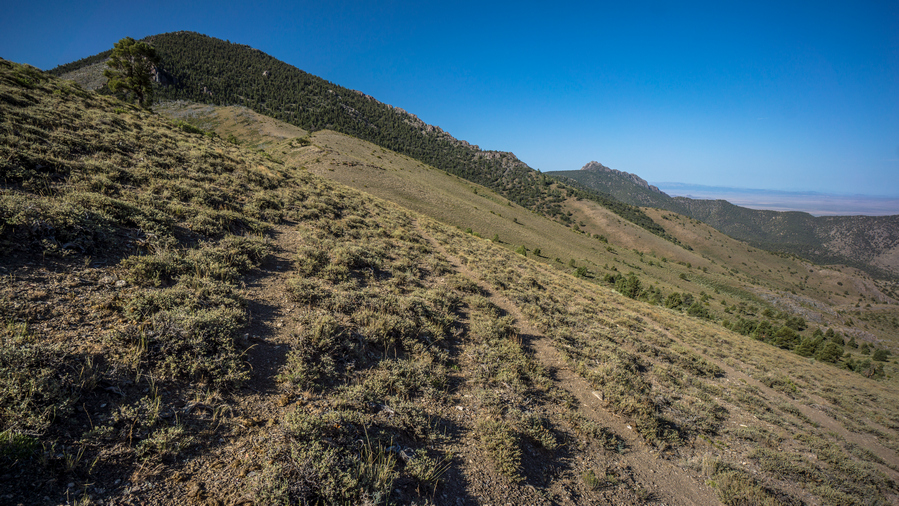
Game trail at the top of the Pass. The ridgeline ahead looks heavily forested, almost certainly more bushwhacking
After rounding the corner, coming out of the Ravine, I was overlooking a burn area now. This has been rare to see lately. It wasn’t long before I reached the saddle where I would drop down to a guzzler to get my water for the day. Here, there were many horse trails and an obvious Road up to the top of the saddle. I stopped here and had a look at the route to the South. If I continue South along the Ridgeline, that means going up a hillside that looked very thick with trees and vegetation. I know it clears out a little bit south of that as I approached Goshute Peak, but from there on South, My Maps show a heavily forested and super thick Ridgeline, complete with steep Terrain. If I wanted to continue South along the Ridgeline, that would mean dropping down about 450 ft to the guzzler, then climbing back up to the saddle, and then proceeding south on the ridge. From there it would be about 20 miles of Ridge walking, 100% off-trail, to Highway 93. To me that just didn’t seem realistic given yesterday’s bushwhack at a half mile an hour pace. The only logical Choice was to head downhill to the guzzler, get my water, and then proceeded down to Goshute valley and walk along the base of the mountains South to Highway 93. So that’s what I settled on.
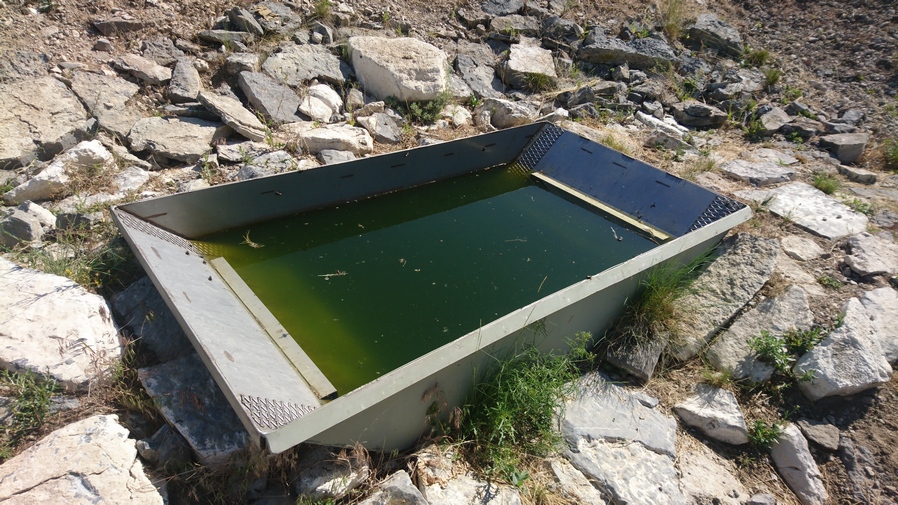
I’m in luck, the guzzler isn’t filled with water, but… Lemon Lime Gatorade! Score! Electrolytes… it’s what hikers crave
Following the 4×4 road, it was quick progress down to the guzzler. This one was a completely different style than the other ones I’ve seen so far. This guzzler was basically a large piece of metal, like a metal roof, on a slight angle to collect all the rain water which funnels into a gutter, and then drains into an underground tank. From there, it’s piped over to a trough. The trough was full of very green water, with a lot of dead bugs in it, and many more flying around. But this is the only water available, so it’s what I will drink. There were two game cameras set up pointing at the guzzler. One of them had a sticker on it that said, “hello this is not hunting, College project, thanks”. The other one did not have a sticker.
It took quite a while to filter this water. I took 5 L with me. I backflush my filter after about 4 liters when I noticed it was getting really slow. Extremely green water came out, about the same color as what I was putting into it. Then I backflushed the filter again after my 5th liter so that the gunk didn’t stay in the filter.
I walked maybe a quarter mile downhill from the guzzler and a Truck approached. I was pretty surprised, but assumed they were going to look at the guzzler. Course they were just as surprised to see me. I told them I was hiking 1100 miles to Nevada and that always gets their attention. They were indeed Hunters, scouting out the area, here to look at the guzzler for signs of elk. They asked if I needed water or food or anything, and I told them I was all good, I had just filled up with all the water I need for today and have 3 days of food for a 1-day walk. But they were persistent and convinced me to chug one of their liters of water and Help them eat some of their salami cheese and crackers. So I stopped for a while and chatted with them. Bradley and his son Dylan, and Brad’s friend Pat.
After talking with them for 20 or 30 minutes, I continued downhill. I walked down the valley, more or less enjoying the hike. There were some rocky formations among the hillsides, and I think more than anything, I was just enjoying the fact that I could walk without having to put any effort into off-trail hiking. It’s kind of a luxury now walking a road, compared to the past where I’ve often despised it.
I walked South for a while, enjoying the view of the Goshute mountains with the golden grass waving in the Wind down low in the valley. Cheat Grass, I remembered. I could see a couple of buildings, structures and a Corral in the distance. I knew this was Shafter well #4 as marked on my map.
Approaching Shafter Well #4 and an old homestead
At Shafter well #4, there were a couple of buildings… A main house, the entrance to what looks like an underground bunker or basement storage type area, a chicken coop like building, and a 3 sided Barn. There were also many corrals, which looked super raggedy. The doors to the main house were wide open. The floor was littered with hay and it was clear that Animals had been living in there. There were piles of cow shit inside the house. The doors had interesting things written on them, such as “escape room and telephone”, and “looters and loafers beware, survivors will be prosecuted”. How Nevada.
The three sided Barn was somewhat interesting in the sense that it was the most intact building. You could really get a sense of how this place was used back in the day. Ther were various animal pens and other small wooden structures. There is now water at Shafter Well #4, unfortunately.
Moving on from Shafter number four, it was back into the sun, the heat of the day. The clouds were building now and it looked like a bit of rain to the north. The clouds were intermittent where I was, providing some shade here and there. Even so, it wasn’t as hot as other days. The view of the Goshute mountains to the East were nice, as this was the rugged Cliff side of the thrust fault Mountain geology. This is one reason why walking this side of the mountains was so Pleasant, through Goshute Valley. I always feel defeated and disappointed in myself when I back out from a plan, such as walking the Ridgeline of the Goshutes. But in all honesty, I was really enjoying this walk down here. All of the other valleys, or basins, I’ve hiked along the Basin and Range Trail were thick with sagebrush and had a much more desert-like feel to them. This one was full of that golden grass, and just had a completely different feel to it. The cliff-like mountains on one side, golden grass, absolutely massive Valley stretching far to the West, with the South Pequop Range, Spruce Mountain range, and Cherry Creek range on the horizon. It’s tough to explain why exactly I liked this Valley so much. It was just so massive and empty. I thought back to my time on the CDT And the area just north of Snow Lake in the Gila Wilderness. The area I called a sea of gold. This was a lot like that, in a way.
I stopped for lunch under a Lone Tree on a hillside that had about four small caves. They were high enough up on the hillside and small enough that it wasn’t worth going up there to explore, but still cool to see. At some point around here, Goshute Valley becomes Antelope Valley, according to the map. On the ground, I can see nothing that would indicate any sort of geological boundary line that separates the two valleys. It seems like they just merge in the middle of a great vastness, with no obvious landmarks or features that would dictate such a change.
I walked on, enjoying Myself much more than I expected for a low route. In fact, I found myself feeling exhilarated. Something about Wide Open Spaces, hard to explain. I couldn’t help but smile. Let out a couple loud woohoo sounds with no one around to hear them.
When I reached US 93-Alt, it was time to hitch 33 miles north into Wendover. Five or six Vehicles passed by, in a span of about 30 minutes, with no luck. A stake truck drove by who also passed me up, but then I could hear the vehicle stop a few hundred yards up. I turned around and indeed saw him backing up a bit and moving over to the shoulder. I grabbed my pack and ran up the road. He said a ride to Wendover is no problem, hop in.
His name was David and he was from Provo Utah. He runs a handyman business, as well as driving the truck that he was in. Some sort of manufacturing company. He grew up in Utah and had lots of fun memories about outdoor trips, hunting arrowheads and such. It was about a 30-minute Drive into Wendover.
When we reached Wendover, he asked where I needed to go. I said drop me off near Smith’s grocery store, please. So he dropped me off there at the parking lot. There were no hotels here though, that was the problem. They were all about two and a half miles east, across the state line into Utah on the Wendover side. The Nevada side is called West Wendover. No problem though, I will just do my grocery shopping here and now and then walk over to the Utah side afterwards and grab a motel. This way I don’t have to do it tomorrow, and it will save me two and a half miles of walking as part of a round trip.
I made a quick hotel reservation on Priceline and then threw my backpack in a shopping cart and went inside the store. I had a feeling people were looking at me a bit funny. When I was done, I discarded most of the extra packaging for the food outside of the store and threw it away so that I could put my newly bought food into my backpack with minimal space. This worked out as I walked across town.
So now it was a 40+ minute walk across town to my hotel. In the middle of the street in West Wendover, is a giant cowboy sign/statue. It says, “Wendover Will welcomes you to West Wendover”. What a tongue twister. Pretty goofy. This was in the median of the street. The statue is probably 50 or 60 ft tall. In the median is a small patch of grass, and a pronghorn was feeding here in broad daylight. Aha, Town wildlife.
As I walked into the Utah side, I passed by a small gas station with a Subway. Outside was a couple of guys who looked homeless. One of them saw my backpack and his eyes lit up. He gave me a thumbs up and said something to the effect of “way to go brother”.
I was a bit disappointed that my hotel was on the extreme east side of town, pretty much passed everything on the walk in. But I guess that is to be expected for one of the lowest priced hotels in town. Even still, it was $71 a night, which might be my most expensive night yet along this whole route. And on the Utah side, the taxes were quite a bit higher then in Nevada.
Not wanting to leave my room and walk across town again for food, I ordered Pizza Hut delivery… Large 3 topping pizza, 12 chicken wings and a two liter of Coke. Took a shower and when I got out as the delivery guy was just arriving. Perfect timing.
Washed my clothes and started charging my batteries. Now I could relax and watch a little TV for a bit before becoming so tired I couldn’t keep my eyes open.
Day 55 – July 25th: Zero Day in Wendover, UT
Slept great. Slow start to the morning like many zero days. Laid in bed and updated my journal. I’ve been having a hard time keeping up with it at night on trail, I usually fall asleep before I can finish it.
Today I went up to the Wendover Army Air Base Museum on the edge of the Bonneville Salt Flats. This is a historic Air Base, playing a huge role in World War II. This place was heavily involved in the Manhattan Project as well, with the training and deployment of the first atomic bombs dropped on Japan.
I watched an 8 minute video inside the museum, and then walked around looking at the various artifacts inside. During World War II, The Wendover Army Air Base was a training base for B-17 and B-24 bomber crews., as well as playing a vital role in the Manhattan Project. It was the training site of the 509th Composite Group, the B-29 unit that carried out the atomic bombings of Hiroshima and Nagasaki.
In addition to the military significance of the Wendover Army Air Base, Scenes from the movie Conair and Independence Day were also filmed here. There is a C130 transport plane here that is open to walk into. This was the exact plane, the Jailbird, used in the movie Conair, for the Lerner Airfield scenes. After filming the movie, it was left here to the museum. Now you can self tour the Jailbird for yourself, and look out from cockpit into the Bonneville Salt Flats. How cool!
Wendover itself doesn’t have much to offer, but it was cool having the Wendover Army Air Base museum here to explore on my zero day. That’s more than I can say about the rest of the town stops along the Basin and Range Trail.
Basin and Range Trail Thru Hike 2020 – Section 7: Lamoille to Wells
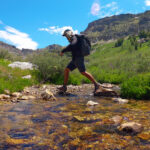
Basin and Range Trail Thru Hike Section 7 Map
Video: Basin and Range Trail Thru Hike Section 7
In addition to this trail journal, I also filmed my Basin and Range Trail thru hike. I’ve produced a detailed series (11+ hours runtime) documenting this thru hike adventure, the product of over 1,000 hours of video editing. I highly recommending watching the Basin and Range Trail vlog series for an in-depth look at thru-hiking the Great Basin and central Nevada.
Basin and Range Trail Thru Hike Section 7 Journal
Day 44 – July 14th: Lamoille Canyon, Ruby Mountains
Cody picked me up around 830. I called the Sharon Hotel in Wells on the way to the trailhead, to update my ETA. I figure I will be there the 18th and 19th, instead of the 19th and 20th. Unfortunately they are booked the days I will be there. They suggested a different hotel. They also have my bounce box which is good news.
There weren’t a whole lot of good options for me to continue my northbound track coming out of Lamoille Canyon. High in Lamoille canyon, I would have had to climb over a very, very steep ridge to drop down into another basin. And I would have had to do this several times to continue on my Northern trajectory. This would have been the most scenic route, but also very difficult, with no guarantees of safety or success. So, in order to maintain a good pace And schedule, I figured a lower route would be in order. Also, the fact that Cody was joining me for this section made the low route the obvious choice. Cody will join me for an overnight hike from the Powerhouse Trailhead to Soldier Creek, roughly 20 miles.
Left the powerhouse trailhead in lower Lamoille Canyon around 9:45am. This was an old burn area. Lots of switch backs going straight up the hill. Good trail though.
Eventually we realized the trail we were on was not following the path marked on the map. Our Trail was climbing much higher. This had us a bit worried. Where’s the trail taking us to, the High Country? Because the rest of our route was not going this way. I theorized that the trail had been rerouted above the old burn area, around the new growth. This proved to be right, after we climbed a ways, the trail paralleled the lower version of the route marked on the map. Good deal.
We won’t be going up into the high country today, but at least we get a glimpse of it. Typical views up the many drainages we will cross on today’s hike along the base of the Rubies.
Cody was super excited to be out there, and I was really glad to have someone here with me. I know he was a bit worried about slowing me down, but he had a good pace and that was not an issue. He had everything he needed for the hike, Although our gear setups couldn’t be more different. He had a small backpack, but was able to fit everything he needed for an overnight hike. He had a white cotton t-shirt, cotton shorts and heavy steel toe boots. Off his backpack hung a small stainless steel cup that clanked against something else on his backpack, perhaps the metal zipper. Kind of like a bear Bell.
Cody had lived in Idaho in Colorado for the last couple of years, and had just returned home to this area. He knew a good deal about the area from his childhood years here. He fed me bits of info here and there about the land and its history. However, he had no knowledge of the trail we were walking or really much about the land north of Lamoille Canyon in general. With good reason, this area was largely On the Border of private land and offered no real access to the High Country. At least, not legal access.
Hiking today was a lot of fun with Cody here. Even the bushwhacks were tolerable, with someone to do them with. Having someone to talk to really takes your mind off things. Sometimes being left alone with your thoughts for too long is not a good thing. It’s fine when times are good, but I think it’s much more challenging to weather the bad stuff as a solo hiker.
Now the trail contours around the hillside, weaving in and out of small Canyons. The trail was getting more overgrown. We began to pass a couple of small Creeks, but good water sources. I had plenty of water and didn’t need any. Cody on the other hand stopped at every water source and drank directly from the streams with his cup. There didn’t appear to be much cow activity in the area and so he wasn’t worried.
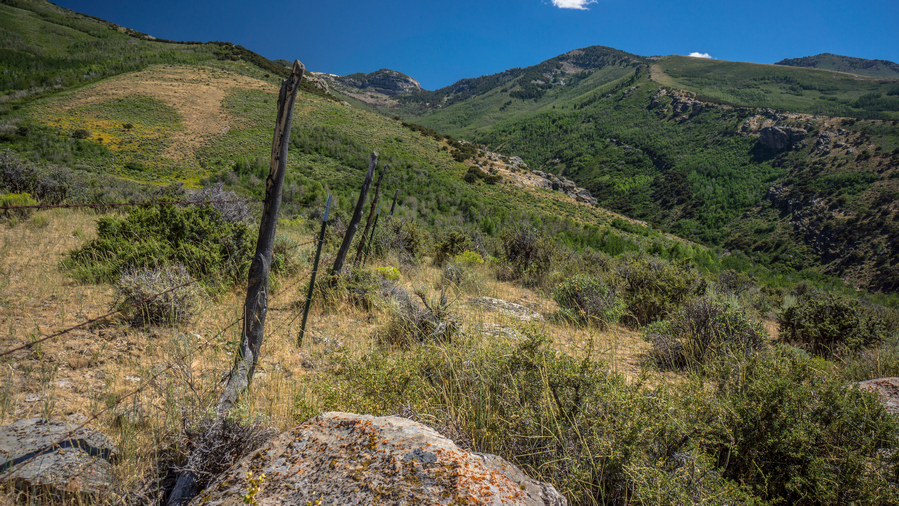
Talbot Creek. This is a rugged canyon that would likely be incredible. The map shows a trail, but it probably doesn’t exist. The proposed BRT route here is the ridgeline on the right. Stays out of the thick stuff and would offer an elevated view
As the day went on, the difficulty of the route increased. By the time we reached Talbot Creek, the trail had pretty much disappeared. We were navigating by wooden posts that were about 1 foot high, marked with the word Trail. These were barely visible among the sagebrush, and spaced far apart. The route I had planned took us a mile or two into Talbot Canyon, crosses the creek and then goes right back out another mile or two to where we Came from, but on the other side. It was about 400 feet down into a drainage, and Cody thought This would be better than walking up the canyon. I figured the canyon would be pretty scenic, judging by the relief on the topographical maps, but since the trail basically faded out, this probably would add quite a bit of time and difficulty. So Cody’s plan to drop down the Talbot drainage here and take a direct route across seems reasonable. Let’s do it.
Much of today’s route weaves in and out of private property, and this was one of the first sections I really had to deal with that. There was a fence line running down the canyon, And we had to jump it in order to continue. We jumped many fences today. At the same time, there were some ranches and homes perched up on the hillsides that could see us. So everything we did, we try to do With a stealthy approach.
More Sagebrush, cows, fences to jump over and private land to weave in and out of. next we followed a bit of a dirt road, until we had to leave the dirt road To follow our Planned route. Dropped down into Another drainage To cross a creek, now on the opposite side of one of the ranches that was perched on a hillside. This was extremely thick vegetation, thickest of the day. Cody was wading through it, breaking branches, but not exactly clearing me a path. Many times, our feet didn’t even touch the ground, since there were so many branches to keep us elevated above the dirt. That’s how thick it was.
Made it down to a small Creek where we took a break. Cody could really appreciate the bushwhacking aspect of what I’ve gone through so far on the Basin and Range Trail. I’m glad he got the full experience.
We’ve pretty much given up on following anything that said Trail on the map, and now just went for dirt roads. We finally hit one sign that said private property, looked like it was leading to the ranch up on the hillside. So we followed the fence line on the legal side. Many times though, we were never really sure which side was the legal side. It was never posted. Cody, being a local, also said that many of these land owners likely wouldn’t care that we were out here hiking, especially not along the wrong side of the fence line.
Our last real challenge of the day was one really large drainage. This one was deep and steep. At the bottom was a decent-sized creek. There are actually some decent Camp spots here, but we still wanted to cover some more miles, and make it to Cold Creek. The creek was too large to hop rocks across, but there was a pile of logs here alongside the river, presumably leftovers from making the fence line that went up the hill. So we threw a few logs in the water to step on, making our own Crossing Point. In the end, my foot slipped off one and got wet anyway.
We walked another two miles or so before reaching South Fork gold Creek. This was barely a blip on the map, but was actually a good running creek that feeds the main Cold Creek. We found a clearing a few yards from the creek, and it was actually a good campsite. So this is where we set up. The water was only 4 feet wide but maybe a foot deep. Rarely along the trip has I camped this close to water, in fact it was probably the closest. So it was a real luxury to be able to have water at Camp, be able to soak my feet and clean my legs.
After the sun set, the night sky populated itself with a million stars. We stood outside our tents looking up at the stars, talking about all of this stuff that humans wonder about Under the Stars… The infinitude of space, science, technology, the problems of our world and how to solve them.
Day 45 – July 15th: Ruby Mountains, Soldier Creek, Ruby Valley, Pole Canyon, East Humboldt Range
Woke at 6:30. Hiking by about 7:45. Cody did not sleep that well. It took him a few hours to get to sleep.
After leaving camp we followed the road we camped along until we reached the point where it crosses Cold Creek. Here, there was some sort of ranch, although it looked abandoned. There were horses and animals there though, hard to tell if someone was living there or not. We climbed the fence and walked alongside it until we found an old dirt road that leads down to the river. Another decent size Creek. We were able to cross without getting our feet wet by hopping rocks.
We climbed out of the Ravine holding Cold Creek and reached another fence line. We followed this one to the end and found a dirt road that paralleled it. Basically, the rest of the morning consisted of walking poorly maintained dirt roads, walking and jumping fence lines.
We reached warm spring Creek, which was not warm at all, but cool. And it was crystal clear, with a strong blue tint. Looks like a great swimming hole, despite coming out of a culvert. If it were hotter out, and Cody wasn’t on a time schedule, we would have swim here. But he told his dad to pick him up at 9:30, when we estimated to arrive at Soldier Creek.
When we reached the road for Soldier Creek, we looked back and saw a no trespassing sign on the property we were on. However, we didn’t see any where we entered the property. His dad was stuck in construction and so we Dropped our packs and waited a little while.
Cody and I had hiked about 20 miles in the last 24 hours. Most of which was yesterday. Cody did a great job and he got the full experience by doing some pretty gnarly bushwhacking. I just wish we had a little bit better scenery. Still, we both enjoyed the experience.
After Travis arrived, we all chatted for about 15 minutes, and had Travis take a picture of Cody and I. We said our goodbyes, and I was on my own once again.
Next I began to hike up the road along Soldier Creek. Nice walk with somewhat steep Canyon walls, but not crazy. There was a pit toilet at the Soldier Creek trailhead, but really nothing else here.
There was a gravestone right along Soldier Creek, right next to the trailhead. Someone had created a bit of a soaking pool by digging out rocks underwater and shaping them into a mini tub.
Hiking Soldier Creek
I was thinking the hike up Soldier Creek would be better than what it was. There is no water access as the banks were too steep and thick with vegetation. The trail itself often looked like a jungle, very cool looking at times.
After walking through the jungle awhile, the canyon opens up and I was able to access the water in Soldier Creek. I stopped here for a break, looking up at soldier peak. What a nice spot.
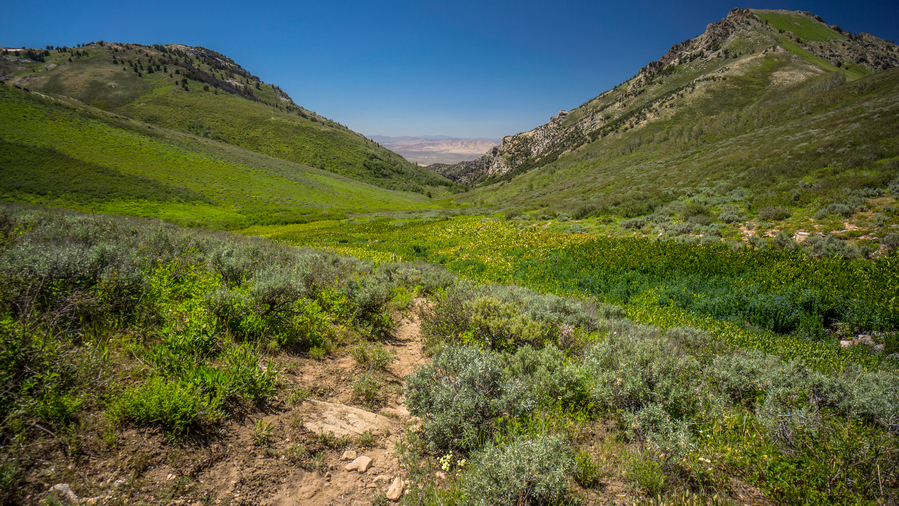
Found trail again, after bushwhacking through all of the dense vegetation in the center of the photo
Next the trail climbs up to the ridge, the crest of the rubies once again. At first there was no Trail. My map shows one, but I couldn’t find it. So I began to bushwhack uphill. This was pretty awful. I say things like this was awful, but its hard to convey just how shitty these bushwhacks can be. Eventually, I came across the trail. It was definitely not visible from the lower trail that goes over to Soldier Lake and Hidden Lakes, but man was I glad to have found it.
I was getting a headache, so I stopped and took one extra strength Excedrin and one ibuprofen. A little combo action. The trail now starts to weave through a couple of trees. From here it’s not that far to the top. Excellent views as I gain elevation.
The view from the top of the pass was really good. I don’t know what the pass is called, it’s not named on the map, so I called it Soldier Pass.
I stopped many times to take pictures, the landscape constantly changing and evolving as I see it from different angles. Soldier Peak looked more impressive the further I got from the pass. It was really nice to walk the crest, with the trail, good weather, and great views.
Eventually I reached a saddle where a trail goes downhill. However, my plan was to continue walking the ridge North the ways, and then meet up with another trail. So, I kept going.
When I reached the area where I expected a trail to be, I was very disappointed to see nothing. Lots of thick brush to walk through now. One of them got my leg pretty good and it started bleeding.
I could have continued north from here, to Secret Peak and Secret Pass, which would be the only way to avoid private property coming down from this part of the Rubies, now the extreme northern end. However, that route then means a longer road walk into the East Humboldt Range, my next destination after I cross the valley. A more direct route involves a short section of private property crossing, which I opted for instead.
Eventually I the area where the trail stops skirting the Mountainside and begins to descend down to the valley below. That’s what the trail is supposed to do, but I don’t see a trail now. Then I reached a ridiculous wall of new growth aspens, among the worst I seen yet on Trail. Started through it for a few feet, before backing out and realizing this was not going to work. I backtracked and found a faint trail that was extremely overgrown. It went right into the brush. Amazingly, it seemed to be cleared out a little bit, but it was more like a canopy underneath the brush. It was manageable, but still really thick. Surely this was the trail, just overgrown from many decades of vegetation growth.
More insane bushwhacking. Eventually I reached a saddle where a trail was supposed to follow a ravine, but of course it did not exist. I decided to go the opposite direction, as it was more direct, and still a bushwhack. After a few moments of skirting a hillside, I noticed a road on the other side. A faint 4×4 road. So I dropped down into a valley, and this Hillside to meet the road. I walked right over at the first time, it was so faint. But, I eventually found it and followed it. It was waist high grass.
The next couple of miles were more of the same, grass knee to waist high. Crossed a couple of creeks. Saw a couple of deer. You could tell this area gets little to no use. Eventually reached a gate.
Now I am on a private ranch. Cows everywhere. I checked my satellite and saw a route that I could take that would not pass right by the ranch when I reach the main road. So I went for that, walking fast as I could.
Reached the main road and hopped the fence. Now I was following a paved Road, before quickly turning off onto another dirt road. Sun was setting and it was actually pleasant to be on a main road. Followed this for an hour before having to jump another fence that said private property, but also on the same sign said National Forest land 1 mile. Huh. So, its legal then??
Now I am following Franklin River and pole Canyon, entering the East Humboldt Range. There are cows everywhere, and these ones are very vocal. The kind that make ridiculous noises, as if they were zombies. I found a small hill to Camp upon, in between piles of cow crap and salt licks.
Day 46 – July 16th: Pole Canyon, East Humboldt Range, East Humboldt highline Trail
Woke up at 6:30. The cows were moaning like zombies. I heard an owl pretty close to camp throughout the night. I could hear a four-wheeler somewhere down low in the valley.
Lots of cows this morning, looking forward to getting up Hill and above them. There was lots of water, but I would not want to filter my water here due to all the cow activity.
After a short while I reached a locked gate with a no trespassing sign. This is where the National Forest land ends. There is public land up the road again, but a section of private land blocking access to the public land. Since I have walked all the way up here, and don’t really have any other options, I climbed gate and moved on.
I walked maybe one mile and heard a four-wheeler approaching. I thought about hiding in the bushes, but just decided to let the situation play out. As the man on the four wheeler approached, I stepped aside on the trail and waved. He stopped and asked what I was doing. Almost immediately I recognized that he was in Nevada Department of Wildlife officer, not the land owner. I said I was walking across Nevada, I’m 46 days into this hike. He said you know you’re on private land right? But also acknowledged this wasn’t his land. I said yes, I’m not going to lie to you, I saw the fence with the sign that said no trespassing and I went over it anyway. I had walked all the way up here and didn’t want to turn around and look for another way, just to avoid a couple miles of private land blocking access to the rest of this public land. I told him I’m trying to get to Wells, via the East Humboldt Highline Trail. We chatted for a solid 20 minutes about my route and things. He was pretty chill, had no interest in Making trouble for me. He also said the land owner probably wouldn’t mind that I was here anyway. I believe they were mostly concerned about illegal hunting, not some hiker just passing through. He was on his way up Mountain to pick up a goat carcass or head or something. After while he moved on. This is one of those situations where honesty prevails.
Next the trail got pretty steep. Found a creek near the spring source to filter my water from. I am above most of the cow activity now, at least, a good chunk of it. This water should be cleaner than downstream, where I avoided drawing water from.
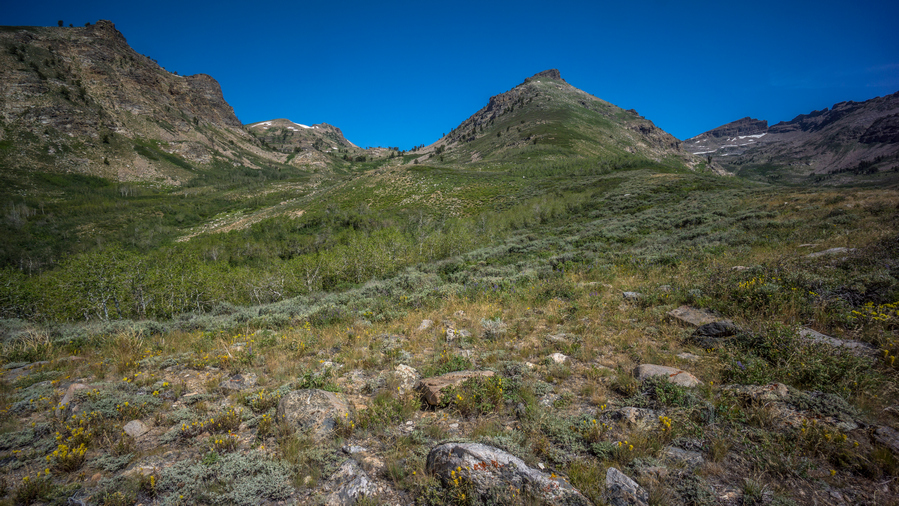
View of route up to pass above First Boulder Creek. USFS maps show the East Humboldt Highline Trail starting around here. Hmm.
Kept hiking uphill until I reached a fork in the valley. Pole Canyon and Franklin River to the right and the route up to 1st Boulder Creek on the left. The USFS maps show the East Humboldt Highline Trail starting around here, but I don’t see it. It looked like it would be all off-trail hiking going up first Boulder, and quite daunting. But at the same time, I could tell it was going to be a very beautiful hike. Very impressive rock walls with Rocky crags.
After a short while I picked up on a faint trail. There were even cairns occasionally. Although it was tough going, I really enjoyed hiking up this Canyon. Very beautiful, among some of the best scenery of this whole hike.
I wondered how often this area is hiked, with the lack of proper public access. From a handful of cairns, it’s clear it gets “some” traffic, but how many… 5 hikers a year? It would be impossible to guess.
The views from the pass over First Boulder Creek were good, but not excellent. I think enjoyed the hike up more than the view from the top.
Next I dropped down from the pass and began the short descent to First Boulder Lake. The “lake” is more like a pond, shallow and muddy. Lots of bugs and lots of flies. The map shows a trail marked East Humboldt Highline Trail that practically traverses this whole range, and at the moment there was indeed a fairly good trail on the ground. However, with little public access to the East Humboldt Range, few people hike here. That means this place gets no trail maintenance, either. Supposedly the East Humboldt Highline Trail gets really thick and overgrown, and the trail eventually disappears. The NDOW officer I spoke with earlier today confirmed this. I told him my plans to hike the East Humboldt Highline Trail, and he said, good luck.
It was a short pass going over to 2nd Boulder Creek. From the top of this pass, it was quite a drop down to the bottom. I could tell the rest of the day was going to be difficult, looking at this hike down and how the map looked for the rest of the boulder creeks. There are four parallel drainages here in the East Humboldt Range, named first, second, third and fourth Boulder Creek. As I dropped down in elevation, the Cirque became more impressive. These upper basins were just massive, sheer rock faces. Quite Majestic actually. Intermittent Trail now, though.
I reached the bottom and stopped at the second boulder creek. Right where the trail crosses, there was a bag with a bar of soap and a small bottle of liquid soap. Apparently, somebody was here at one point and bathed a little bit. I was really surprised to see this, but it gave me hope that there would be good Trail the rest of the day. Ha, I should have known better.
Going up the pass from second to third Boulder Creek was a pain. The trail pretty much disappeared and I was left to follow a couple of cairns. The Rock piles led me the wrong way, through Thick Aspen stands and vegetation. Eventually I Bushwhacked my way back to the trail. I use the word “trail” lightly. The diamond range had better game trails than this “hiking trail”. The East Humboldt Highline Trail is intermittent, at best. And when it’s not there, the going is slow; thick bushwhacking, steep inclines and an all-around pain in the ass.
Eventually I made my way to the top of the pass. The view from the pass between Second and Third Boulder Creeks was my favorite along the East Humboldt Highline Trail. The hike had been easy at times today, when there was good section of trail, but lately it has been more of a challenge.
I dropped down to 3rd Boulder Creek, which had a couple of small lakes. From the pass, the Basin doesn’t look too impressive. Just like the previous basins. However, upon dropping down an elevation, the Cirque shows itself, and once again blew me away. So impressive! The East Humboldt Range was definitely on par with the Ruby Mountains.
I stopped at third Boulder Creek for a break, filtered water, ate food, washed my socks and soaked my feet. There was a small Beaver pond just Upstream. The creek really wasn’t that cold, probably due to the lake and Beaver Pond Upstream. After my break, I followed a couple of cairns across the valley until I came across a wooden sign. Each Basin seemed to have one. East Humboldt Highline Trail one way, whatever number Boulder Creek the other way, pointing downhill. Funny thing is, there were no trails at all here at this sign!
Heading up the pass between third and fourth boulder creek, I followed cairns a ways uphill until they once again let me astray. The cairns Definitely indicated the trail went one way, but it led me through thick brush, Only to have to turn around and eventually hike back through that brush again. It was also wet and soggy along the hillside. I slipped and fell a few times. It was a real pain in the ass. My feet were getting wet sloshing around in the soggy ground, which I couldn’t really see with the thick brush obscuring it.
Eventually I found some rock piles again. I knew I was on the right path, although it disappeared again very quickly. I gave up on following the trail and just walked straight up the hill to the pass. This was a pain, but at least I could choose my own path and not be led astray by poorly placed piles of rocks. Whatever was left of the East Humboldt highline Trail is so overgrown that its not always worth trying to follow it.
Reached the pass above fourth Boulder creek. I’m noticing that the trails going down these passes, on the north side, has been better. The north sides feature more rock and less thick, green vegetation which can easily over take the trail. Once again this Basin was the same as the others, very impressive, and much more so as one drops in elevation.
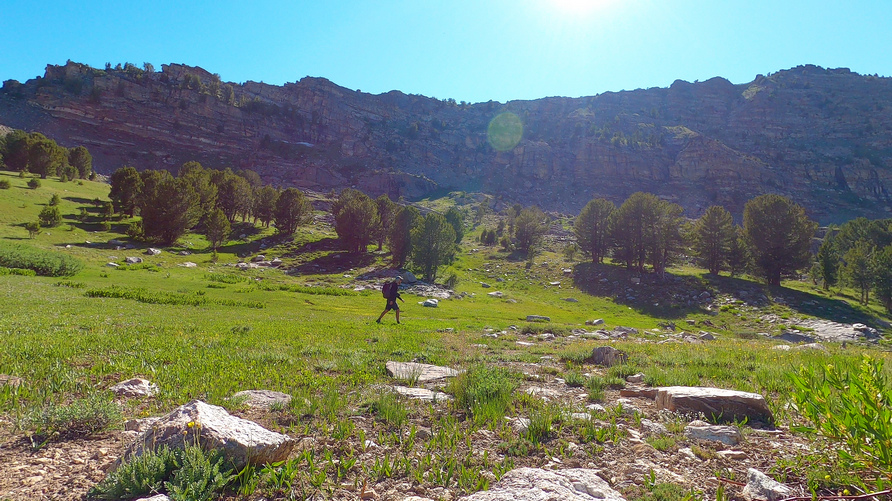
Excellent hiking coming down from the pass into Fourth Boulder Creek. A trail exists here, but will soon disappear again
When I reached the general area where the junction would be for the Fourth Boulder Creek Trail going downhill and the East Humboldt Highline Trail, I had to make a decision. The East Humboldt Highline Trail follows the Mountainside about halfway up, and takes a very long route to get up to the pass. So Far, none of these trails have been very good. This route would be very committing, and take a long time to get to the pass. There were some pretty steep sections along the way. I have zero faith that this trail will exist. In the distance, I could see Thunder clouds building. It just didn’t make sense to commit to a really long, nonexistent Trail along a steep Hillside. If I’m going be bushwhacking, I might as well take a shorter bushwhack route.
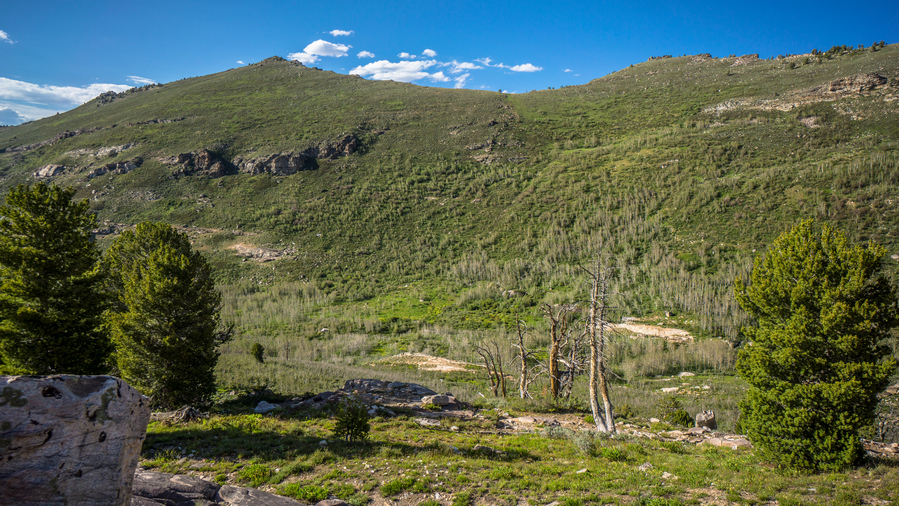
High point on the left is Tent Mountain. I’ll hike straight up the thick green stuff below the saddle. It’s a 1,000ft climb
Instead, I just decided to follow the fourth Boulder Creek Trail downhill. This would leave me to a spot just below the pass near Tent Mountain, where I could contemplate going straight up the Mountainside from there. Of course it looked very thick with vegetation and very steep, but my other option would be to just follow fourth Boulder Creek Trail downhill all the way to a road and walk around the East Humboldts.
Following the fourth Boulder Creek Trail was not easy either. It was also pretty much non-existent. A couple of cairns here and there, off-Trail hiking through Sagebrush. Worked my way down some Rocky Ledges, then a thick Stand of aspens. Then had to cross fourth Boulder Creek, and some wetlands.
Now I am at the base of my climb up to the saddle/pass east of Tent Mountain, should I choose to do it. It’s a 1,000ft climb through a solid wall of really thick vegetation, on some steep slopes. From below, it barely looked possible. I’ve never done anything like this. I kept walking closer to get a better look, slowly walking uphill. Next thing you know, I was 200ft up. I guess I’m doing this.
The climb was exhausting. One must step on the bush while grabbing another branch Above you, to help pull yourself up. I felt like I was swimming uphill. Completely tangled in branches, I fell a few times. The first 400 feet were the hardest. The vegetation was thickest here. An absolute nightmare to say the least.
About halfway up, the vegetation thinned out a bit. Steep grassy slopes, much easier to work with. Eventually though, I passed through some old growth Aspen. Much easier than that new growth shit. I was getting closer to the point on my map where it showed a trail. Of course, I never saw it. I just kept hiking towards the pass, making my own path as I saw fit.
When I reached the top, I was pretty ecstatic. It’s hard to describe the feeling. Actually, I kind of felt like I did when I got done skydiving. Like a big rush of adrenaline. My face was tingling and I was having a hard time holding back tears of joy. I had hiked up what I thought was an impossible slope, in only 50 minutes. To think I had considered walking down hill, bailing. In your face, fourth boulder creek!! The view here was outstanding.
However, I still have to worry about a trail on the other side. Took a break shortly after coming down from the pass. I really needed it, that was a very intense workout.
Good Trail coming down hill. I was feeling good about this. Passed a few campsites, some really nice ones. I’m thinking things will be better now, hopeful the East Humboldt Highline Trail will be solid from here. When I get down hill father, I passed a couple of springs, and a few small creeks. I stopped at one to filter water and clean up my legs a little bit. Downhill from here, it was really muddy and swampy. Dead looking Aspen trees line the swamp. This is the worst possible area to be when looking for camp. It was 8pm now, so I tried to rush out of here.
Made it past the swamp area to dry ground. Went downhill a short ways and realized that I needed to go back up Hill because the East Humboldt Highline Trail branches off near the swamp. Got back up to the swamp area and started bushwhacking through the horrible Aspen tree Forest. I was right on the trail according to the map, and the trail was extremely faint. Looking ahead, all I could see was more Aspen trees, and I only had 20 minutes of daylight left. This is not good.
I decided it was a horrible idea to continue on through the aspens with night approaching, so I began to look for a place to Cowboy camp in the short segment of open ground in between the stands of Aspen trees. Nothing good at all, but I made a spot work. No room to set up a tent, so Ill be cowboy camping tonight.
Looking at my map, CalTopo US Forest Service layer shows the East Humboldt Highline Trail in a different location than the USGS maps. I’m thinking that if I had continued on the trail that I was on, there would be a better East Humboldt Highline Trail to follow further Downstream from where I am now, which would have avoided the aspens. So, I will have to backtrack tomorrow morning to the trail that I was originally following downhill before I turned around. If there is a decent Junction there for the East Humboldt Highline Trail, I might go ahead and follow it. However, I am very tempted to just follow the trail downhill to a road and walk the rest of the way around the east Humboldts. I’m just fed up with trails that don’t exist, with horrible Bushwhacking in between. I would like to get to Wells tomorrow night, and that’s kind of a gamble if I stay on the Highline Trail. A rough estimate of 16 miles to Angel Lake, on the Highline Trail. So it would probably be closer to 25 + if I was to hike all the way to Wells on the Highline Trail. I’m thinking that if I stay on the Highline Trail, I can probably get a ride from Angel Lake down to Wells if I get to the lake early enough. It’s a Friday night so there should be some traffic. I’ll just have to see how things play out tomorrow morning.
Day 47 – July 17th: East Humboldt Range, East Humboldt Highline Trail, Starr Valley
Woke up around 6:30 the sound of a Zombie Cow. The groaning sounded just like a zombie. Cows don’t always make a moo sound. It was a cold night. I had my base layer top and bottom on, and my wind jacket. I had my watch inside my backpack, which said 42 when I pulled it out. So more than likely, mid-thirties.
I walked through the Aspens back to the main trail. Just off the trail were a couple of cows, and they started running through the forest knocking down trees when they saw me. Those goons.
Walked down the trail a ways and kept looking for a Junction with the east Humboldt highline trail. When I checked my map, the trail I was on was taking me somewhere that wasn’t even marked on My map as a trail. In other words, I was way off any trail now according to the map. What the hell. Trails that are on the map don’t exist on the ground. Trails on the ground don’t match up with any trails that are on the map. I’m so tired of the trails in the east Humboldt range.
So now my decision was easy… Walk down hill, I’m done with the Humboldts. Of course this always feels like defeat to me, not completing what I set out to do. I made it half way through the east Humboldts. Hiking the rest would mean I’m a full day behind, and I only have food for the rest of the day. And that would be some horrible bushwhacking. It’s a shame that such a beautiful place has such horrible trail systems. But what can i expect? Most of the land around the mountains is private so why would the national forest maintain trails that nobody can access? Another public land issue.
So now I’m following a trail that goes who knows where. I had a feeling it follows the ridge down hill instead of taking a route through the thick forest, mostly stupid aspens. Really starting to hate these trees, even though most people love them. That’s because they only think of old growth aspens, not thick new growth stuff. Anyways, I was right, the trail goes high up to a Ridgeline which is open and free of trees. For now.
From the ridge I could see down into Starr Valley to the west. There was a lot of agriculture and private ranches, farms. Lots of green. All the land below the ridge was private on my map. How to get to the main road now without blatantly walking through someone’s property, by their home? I plotted a route and began the descent. Off-trail hiking, easy at first, then looked like thick aspens below.
Fortunately, I came up on a road pretty quick. I followed this downhill, through the thick Aspen stands. without this road, wow it would have been a nightmare bushwhack! Followed a series of Roads through various clearings and fences, Gates.
Eventually made it to a fence where I saw a sign that said National Forest boundary. I didn’t see any no trespassing signs or private property signs, but I did see a private property sign laying on the ground along the corner of the fence line. I knew it was private property because my map indicated it was, but if it’s not clearly marked, I will plead ignorance. I have nowhere to go otherwise, there is no National Forest land that I can walk all the way to the main road. It’s all private land blocking the public land.
Went through the gate and continued on the dirt road. Before long, I reached another gated and fenced area. No signs on this one. This was lost creek/alles creek. Stopped here to filter water, maybe my last chance before waking the main road 20+ miles into Wells. Lots of cow activity upstream, better filter this water.
Continue down the road through the fenced area. Not much to see here, just a big open field. Down the road, the land really clears out and it’s a pretty barren area. I debated which road to take down to the main Highway. The one along lost Creek has no houses along it except for right on the other side of the main road, once I reach it. That’s probably my best bet, as I didn’t want to walk right along a house on private property. However, while I was walking this road, it veered off to a different location than my map indicated. Instead of backtracking, I continue to follow this road, as it seemed to be well defined and basically the main road for the area. I looked at my map and this dumps me out further north, which is a good thing. However, it looks like it goes right through a bunch of properties. Still, it’s a main road, so I will take my chances.
The road took me to a winding Hillside overlooking Some Farms. There were tons of cows in the valley. I reached a gate, and once on the other side I saw that it was for a private Ranch. Still, there were no signs that said no trespassing. Farther down hill, I passed through a couple more Farms, with open Gates. I didn’t see any people out working, and no one bothered me. All good.
Finally I reached the main road, Nevada 230. It was a paved Road through a very farmy area. Green Pastures with bales of hay rolled up in the fields, with the East Humboldt range as a backdrop. Very pretty actually.
I walked the country road for several miles before getting a hitch to avoid the hike along I80. My rides name was Ray, who had just bought a place here and retired from a career in well drilling. Ray dropped me off at the Sharon Motel, where my bounce box I was waiting for me. I had intended to stay here, but my estimated arrival dates were the 19th and 20th. Today was the 17th. I had called a few days earlier to see if they had any availability for the 17th 18th and 19th instead, but they were sold out. So I made reservations at the Rest Inn instead. I always feel bad when these kind of things happen, a hotel accepts my bounce box but I don’t end up staying there. I offered to pay a fee for accepting the box but they said that wasn’t necessary. Hey, I tried.
It was less than a mile walk to the Rest Inn from the Sharon Motel. Walking through this area of Wells was a bit weird. There really wasn’t much here, kind of an in between segment of Town. When I got to the Rest Inn, the woman at the front desk gave me a suite, and at the reduced CDL trucker rate. That was awfully nice of her! There really wasn’t much special about the suite, I guess except for the fact that there was a small table and couch, and a phone right next to the toilet! I was hoping for a Jacuzzi hot tub but no such luck. Ill have to settle for a corded phone next to the shitter.
The hotel is located right across the street from a couple of popular truck stops, so there really wasn’t any great restaurants or anything nearby. Just some overpriced places, the iron skillet and the Bella restaurant which closes in the afternoon. So, I ate at Burger King for lunch. Iron skillet take out for dinner, got two chicken strip meals. Backed up my SD cards.
Day 48 – July 18th: Zero Day in Wells, NV
Terminator 1 & 2 were on TV this morning, nice. Watched that while I got started on Town chores, laundry, sorting my media on my SD cards, beard trim, etc.
Got a gas station pizza to go for lunch. Filling. Spent the majority of the afternoon and evening working on changes to the rest of my route. I’m going to finish at Great Basin National Park, and so I had to modify my route a bit to make that my end point. Also, instead of going from West Wendover to Shelbourne pass in the middle of the Schell Creek range and then hitching down to McGill to resupply, I’m just going to go from West Wendover all the way to Cave Lake State Park and hitch to Ely from there, doing the Schell Creek range in one segment. From there I will hike to the snake range, Great Basin National Park and end at Baker. So I figure I have another 360 miles or so to go.
Day 49 – July 19th: Zero Day in Wells, NV
Another day doing town chores. The grocery store was a bit of a walk to the other side of town. The selection is decent, not as good as a Safeway or anything, but enough to work just fine. Wells isn’t an exciting town. The truck stop side of town is a little more depressing than the rest of it, though, in all fairness. There are some nicer homes in the center of town, a nice green park with modern facilities, etc. But there just doesn’t seem to be any real draw to this town, other than being located along interstate 80.
Basin and Range Trail Thru Hike 2020 – Section 6: Eureka to Lamoille

Basin and Range Trail Thru Hike Section 6 Map
Video: Basin and Range Trail Thru Hike Section 6
In addition to this trail journal, I also filmed my Basin and Range Trail thru hike. I’ve produced a detailed documentary series (11+ hours runtime) documenting this thru hike adventure, the product of over 1,000 hours of video editing. I highly recommending watching the Basin and Range Trail vlog series for an in-depth look at thru-hiking the Great Basin and central Nevada.
Basin and Range Trail Thru Hike Section 6 Journal
Day 37 – July 7th: Diamond Mountians
Started hiking at 9am. When I checked out of the hotel, the woman who works the front desk wished me good luck on my hike, and mentioned that she wanted to hike the Pacific Rim Trail. I always kind of crack up when people Call it The Rim Trail instead of the crest trail. Still, it’s an admirable goal and I told her I’d be rooting for her.
It was a short walk out of Eureka as it was only a few blocks before I turned off the main road and began a climb up and around a small hill. So, it felt like it only took about 10 minutes to get out of town. Now it was a dirt road that makes its way towards Diamond Peak and the Diamond Range.
I had been excited about this section for a while. The Diamond Range and Ruby Mountains both have gemstone names, they’ve gotta be pretty good, right?
Simpson Creek had water, but it looked very nasty. There were a bunch of cows here, and oddly enough, they kind of follow you around, of course with a fence blocking them in. Normally, they run as soon as they see you. These cows wanted attention.
The road begins to climb after leaving the ranch that Simpson Creek passes through. Very slowly though, which is a great way to ease into the first day out of town.
The diamond mountains don’t look like much from below. Plain, Brown, and maybe a little green. Not too Rocky or Jagged. The lower reaches of the road had some trees, but they quickly fizzle out. I normally hike in roughly two hour blocks, in between breaks. I was ready for a break, but there was no shade now. So I just had on the road and took my break anyway after about two and a half hours.
Now the road begins to climb a little steeper. There’s a water source marked on my map just above, but I have to Contour around a whole side to shortcut around a road. This was off Trail, through Sagebrush.
When I reached the saddle I could see cows at Diamond Spring. That’s good, almost guarantees water. When I got there, I was pleasantly surprised to see a pipe with water flowing out. No trough, no muddy puddles, no cow shit to deal with. Just Clear water running out of a pipe, easy to collect from. This is nice little break spot.
After leaving this spring, the road gets extremely steep. Fortunately, it doesn’t last all that long. It brings you to a Saddle, with an excellent view. Now I’m on the crest of the Diamond range. Woohoo!
I was surprised to see a pretty good Trail here, since there is none marked on the map. There was even a cairn marking it. Now the trail follows the top of the ridgeline. Fairly easy walking with very good views. It was hard to make progress because it was so pleasant, the scenery was distracting me.
Then the trail fades out as it goes over some rougher terrain. Horse trails lead the way, but even they fade out, and you’re left to put together your own route in between small segments of easy walking. In other words, this was pretty good hiking for the Basin and Range Trail.
Closer to Diamond Peak, the scenery was excellent. I was more impressed with the diamond Range so far than I had anticipated.
Once at the base of Diamond Peak, there were game trails that appear to skirt the side of the peak. This looks a lot more appealing then going up and over at the moment, with 8 days of food and 5L of water on my back.
I skirted around Diamond Peak, and continued to follow the game trails. I was expecting them to leave me up to the top of the ridge at some point, after the Ridgeline loses elevation. However, that never happened. Horse trails became faint and continue to traverse increasingly steep terrain. Eventually, I realized my best route forward was to just head straight up to the ridgeline below Diamond Peak. A 30 minute climb up a steep slope and I was there.
Now on the crest of the diamond range again. It was around 6pm now, a very pleasant time to be up here and walk the ridge. It was very Smokey today, forest fires burning west in California. The walking on the ridge alternates between easy challenging. The horse trails generally do a good job of avoiding the steepest terrain, but they also fade out often and leave you not sure which way to go.
Sometimes, the Ridgelines turned into a knife edge or very undesirable climbing. I had to backtrack a bit at times, as well as climb down some steep and loose chutes. I saw one pronghorn as I made my way around one of the game trails. Also, I had 4G service all day.
The views hiking the crest of the Diamond Range were excellent all evening. This is the kind of thing I dreamed of when I was planning this route. Up high on the spine of a mountain range, straddling two massive, desolate valleys on both sides, hiking to sunset. And here I am, living that dream.
As the sun started going down, I found myself on somewhat of a knife Edge Ridge. Very Rocky and steep. Once I had a bunch of thick trees, and that’s the side I ended up hiking. This was just as the sun was going down below the horizon. Then I made it to a saddle, which did have a flat spot that I could have camped on. But of course, I kept going. Followed a game trail along the hill side until it was almost dark. I was on the crest again, going downhill now.
Finally, I found a spot. Sub par, but it will get me through the night. It was just on the side of the crest that is protected from the wind, about 3 ft down below the crest and protected by a small bush. The ground was actually flat too. It was windy though, so I needed this protection, even if it was very minor.
I set up camp as quickly as possible, and got in my sleeping bag. I cowboy camped tonight, no room for a tent and too windy for it anyways. I was literally camping on the crest, with a 360 degree view. Amazing.
Day 38 – July 8th: Diamond Mountains, Newark Valley
The wind died down about an hour after I went to bed. Lots of Lights shining in both Diamond Valley and Newark Valley. I remember seeing the earliest rays of light started to rise over the mountains, with the rest of the sky still black. Too early for me. Then woke exactly at 6 with the sun on me. Hiking by 6:45.
Followed The Ridge, and horse trails. Walked for 10 or 15 minutes before realizing I was at the spring on the map, the first one of only two along the entire Diamond Mountains route. I would need to drop wayyy down off the ridge to reach it though, and since I had a little over two liters, that wasn’t necessary. Instead, I’ll push on to the spring that is about 8 air miles away. There was also some flat spots on the saddle where I could have camped, if only I pushed 10 minutes further last night.
Next I followed a horse trail well below the crest. Eventually though, I had to reach the top of the crest, so it was a climb straight up the hill side. Walked the rest of the ridge for a while, before needing to choose the east or west side of the crest to drop down, and try to follow game trails. The east side of the crest looks less steep and Jagged, so that’s what I chose.
I didn’t see any game trails on the east side at first, but then there was an obvious path. These game trails, they can be really solid and then Fade Into nothing in a matter of a few feet. Sometimes it worked out, other times was kind of horrible… Boulder fields, Sagebrush etc. The typical stuff I guess.
Saw an elk sitting under a tree a few hundred feet below me. Of course, he quickly ran away as soon as he saw and heard me. Diamond Valley on the West Side of the crest had a lot of Agriculture, large green circles pretty much spanned the valley at this point. On the east side is Newark Valley, still following the dry Lake bed, but agriculture in between the mountains and the lake bed now.
The game trails were intermittent. Even when they did exist, it was still a constant matter of fighting sagebrush. It wasn’t a fullon bushwhack, but there was enough vegetation to scrape, cut and stab my legs. Needless to say, the route along the crest of the Diamond Range is slow going, despite looking relatively easy from afar.
Eventually I reached the last Ridge before I had to drop down and get water from a spring. This was the last spring I had marked on my map until the end of the entire diamond range. Unfortunately it’s many hundreds of feet below the Ridgeline. From here I had a choice to make, follow the game trails to the east or west side of the ridge. I really wanted to be on the east side, that’s what the spring is. However, the game trails leading east looked pretty weak. They looked pretty strong on the west side, so that’s the route I took.
I was thinking I would be able to just follow a game Trail back to where I needed to go, on the east side of the ridge, but that didn’t work out. I realized the game trails were taking me a bit out of the way after I turned the corner around one side of the mountain. So, I had to go straight up the mountain side through very thick brush and trees. This part was awful. It was around this time when the Flies started getting really bad. They weren’t a problem or earlier today, or any other day, but all the sudden there were 40 or 50 flying around me at all times. Super annoying! To make matters worse, the brush was so thick going up that I had to put my pant legs on. Now I was protected a bit, but at a great cost… Sweating like crazy.
At the top of the ridge, I couldn’t really see this spring at all. The flies followed me over the ridge and we’re still all over me. Started making my way down the somewhat steep Hillside. It was mostly loose dirt and rock, smaller rock, the kind you could just dig your feet into, and kind of slide down the hill in a controlled manner
I could see a lot of thick green vegetation in the ravine, and this is where I was generally headed. I was super disappointed to see no water In the creek bed though when I reached it. To follow it downhill looks terrible, it looks really thick.
Eventually I reached a point where I couldn’t go any further. All directions, except up, we’re completely covered in thick green vegetation. It looks really, really thick! I put on my pant legs, and chose a spot that looked like it would be the shortest section of vegetation to traverse. I stumbled through it, getting snagged by all the branches, having to push many out of the way, before stumbling on a tiny trickle of water. However, vegetation was so thick here, there was nowhere to even bend down to touch the water, let alone collect it. I was getting cut up by Thorn bushes, covered with flies, hand in Tangled by the vegetation. What a nightmare.
After the bushwhack, there was still a lot of side-hilling to do, and I had a lot of debris in my shoes at this point. My feet were pretty sore and tender now from running on all of this debris while walking these steeply angled slopes. At the moment, I remember thinking that this Canyon was one of the worst experiences of the whole hike.
I walked along the Hillside, above the thick vegetation that choked the Ravine. As I dropped lower in elevation, I dropped down to the Ravine to check if there was water. It was dry. This was a bit devastating. I kept walking down hill, that’s all I could do. Closer to the bottom, I dropped down to the Ravine again to check. It’s really thick and hard to reach, but here I did find a little water. And, I actually had enough space to sit down next to the creek and filter water. Up high, I couldn’t even bend down to collect the water if I tried there was too much vegetation. It would have been more pleasant without the Flies, but still, it was shaded and there was water. I had to dig out a pool to collect from. There was a bunch of squiggly little swimmers in the water. I spent a good while here, filtering water and eating lunch. I chugged 2L of water and took one with me. I would have taken more but the map showed a lot of water coming up, now that Im down low in the valley and off the ridge.

looking back up at the canyon I just came down. Doesn’t look like much, but man, what a pain that was.
I wasn’t far from the bottom of the canyon now. No way in hell I am going back up that Canyon. So I guess I am done walking the crest of the diamond mountains. I would have to carry my maximum water capacity, which was now 5L, plus one dirty water bottle. Instead, I’ll just have to walk the road through Newark valley around the northern section of the diamonds.
I was the google satellite images in my pre-hike planning to try and determine whether or not water would be at a marked spring, or anywhere else. However, in this section of the Diamond Mountains, the satellite imagery shows snow on the ground. This makes the satellite imagery useless for my needs, and adds to the difficulty of planning a route through the Diamond Range. However, after returning home from this hike, I found the ESRI satellite layer, which shows the Diamond range without snow. Using the ESRI layer, I was able to locate another spring that wouldn’t require dropping down over 1,000ft to reach it. This means for anyone else hiking the Basin and Range Trail, you shouldn’t have to drop down off the crest of the Diamonds as far as I did, and you should be able to stay high up on the crest for the remainder of the hike to Corta Spring, where the BRT would drop down off the ridge.
After filtering water, the rest of the hike down the canyon continued to be a pain in the ass. Eventually though, I reached a small little road that leads out of the canyon and into Newark Valley. For this I was very thankful.
Now I’m on a road that parallels the main road through Newark valley. The map shows several water sources here, such as fairy Dell. In reality, these were fenced off. I could have access them if I wanted, but didn’t really need to at this point.
It was much warmer down here in Newark valley. But I didn’t care, the ease of walking more than made up for it. Many of the Canyons leading up into the diamond mountains looked similar to the one I came down, a ton of green, looks like a pain to hike.
Now on the main road through the valley, I was surprised to see it paved. I’d be on this road the rest of the day. It really wasn’t that interesting. The dried Lake bed ends and turns into farms and agriculture on the northern end of Newark valley.
There wasn’t much traffic on the road. Not a single vehicle stopped for me, unlike a dirt road, where everyone stops. So now I am heading to a place called Cold Creek Reservoir, the next water source on my map. I walked 3 hours straight from my last water source to reach it. It’s very well hidden from the road When approaching, I didn’t think it was going to exist. But sure enough, a little dirt road leaves the main road and leads down to hidden reservoir. Boy I was thankful for that. Water level was low. There were a couple of campers parked around it and a family fishing. I stopped at the creek that feeds the reservoir and sat there for about an hour, I filtered several liters of water, chugging a few and collecting 4 to take with me. Ate dinner, washed my socks etc.
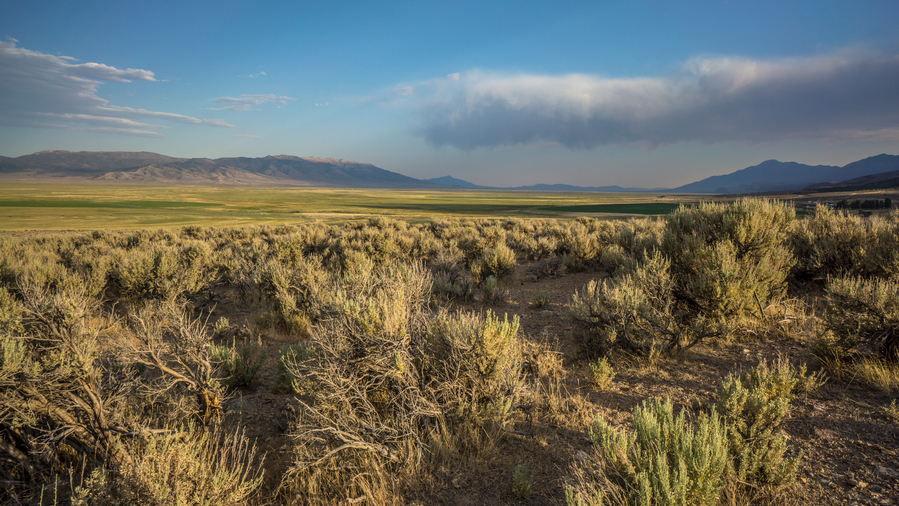
Northern Newark Valley. The dried lake bed was situated in the south, and here, it’s much more green
I left the reservoir around 6:30pm. More Road walking this evening, headed towards the Pony Express route that runs into the southern rubies across Huntington Valley. I was really hoping to make it to the Jacob’s Well Pony Express station, which would have surely provided a flat spot to camp if nothing else. However, it was 9 plus miles away. I wasn’t going to make it before dark. It would have been cool to say I slept in an old Pony Express station.
The paved road turns into a dirt road. There is a turn-off for Bald Mountain with a sign that said Kinross. Apparently, that’s a mine. I kept walking and eventually found a spot under a tree, surrounded by cow crap around 8:30, just as it was getting dark. Perfect timing.
Day 39 – July 9th: Huntington Valley, Pony Express Trail, Overton Pass, Southern Ruby Mountains
Slept pretty good. Finish writing in my journal this morning since I fell asleep during it last night. This is pretty common for me. Started hiking around 7:30.
Continued walking the road north. After while, I hit the Pony Express route. This is marked by a couple of brown signs. I turned right, heading roughly east and after a few miles I hit the Jacob’s Well Pony Express station. There really wasn’t anything here, just a clearing, which was fenced off. There was a marker made out of railroad ties, and these were all over the Pony Express route. And a couple of signs that described what went on in this area.
A few miles up the road I hit Jacob’s Well, the water source. This was a large tank filled with water that fed tires and Troughs. There were cows here but they were fenced off. I could access the well without being in the same area as the cows. There was a spigot on the well, which was very handy. I was able to wash my socks, with some pressure. I chugged 2 liters of water and took 5 with me.
Now it was a long road walk from here, still along the Pony Express route. I didn’t see single car drive by. I crossed the main road running through Huntington valley here, and continued hiking the Pony Express route. A truck past, the woman stopped asked if I was okay. She said she was hiking the John Muir Trail later this month. That’s awesome!
I stopped along the road for a break under a tree. It was getting really hot today, forecast to be in the low 90s. I continued walking the road, and saw maybe five other vehicles drive by, all coming up over Overland pass from The Ruby Valley side. On the top of Overland pass, looking to the north there was a large burn area. Haven’t seen many of these in Nevada, the only one I can remember is in the grant range.
Finally I hit the road that takes me up into the Ruby’s. It look the same as every other mountain range for the most part; at it lower reaches, plain dirt road with some small pine trees. I was really struggling now with the heat. Just having a hard time walking up the road and finding the motivation to keep walking.
It took roughly two hours to get to the top. My mouth was dry, I was thirsty and hot. I had already drank two liters of the five I took from Jacob’s Well. Then I drank another liter at my break, which I took after reaching the hill above the climb I just did. This break was nice, under a tree and a good view.
My route now continues uphill, along the crest or just below it. From the top, I could see a long way; the Diamond range where I just came from, and down into the Ruby marshes below in Ruby Valley. There was a lot of water down there, and had its own unique look a braided network of ponds and channels, spreading out like a spider web. Maybe, a spider that was drunk or something. Really nice views now, nice to have some reward for all the hard work I put in today.
Climbed up to the top of the ridge, and then found a trail that dips down on the other side. It’s skirts the hillside, with a good view to the east of the Ruby Marshes. Now, I’m in the Basin that holds burro Lake. I wish it was a lake, because i was pretty thirsty now. But of course, it was dry as a bone.
I followed the crest up The Ridge, knowing I would have to ultimately find my way up a pass. It was easy going at first, a nice game trail. Then it was a difficult off Trail climb. Difficult because it was steep and I was tired. Had one tick on me, that’s three now for this whole hike. Saw two horses in the woods on my way up the pass.
The climb up this unnamed pass near really hit me. At this moment, I was feeling pretty tired of doing this hike to be honest. The off-trail stuff is just so hard. I’m always thirsty, hungry, tired, dirty, sore, feet hurt etc. I was stumbling up the hill, like I was on autopilot. This really is nothing at all like hiking the Continental Divide Trail. The challenges are far greater. Seldom can one just walk without much thought. Everything here is a battle.
I sat down for a minute at the top of the pass, looking to Sherman Mountain to the north. With the wind blowing, it was quite cold actually. Headed down hill through a forest, following game trails where I could. I got down to a clearing, and decided to start looking for camp. I checked one green area for water, no luck. I walked over to a patch of trees, and saw another 10 horses. They ran is I approached. I thought I might camp where they were, though.
However, before I set up camp, I decided to have a look around the Mountainside to see if I could spot tomorrow’s water source. I had given up on reaching it tonight, its too far. It would either be a large climb, say 800 or thousand feet, or skirt around the mountain side. I was leaning towards the latter. So, I started walking around the mountain side on some game trails. Before I knew it, I had gone too far and had committed to the route. The water was too far away to see, but I think it’s going to work based on the terrain and potential for game trails.
The view over Ruby Marshes was incredible. This was a unique view, no doubt about it. The way the fading rays of sunlight reflect upon the braided channels and pools of water below in the Ruby Marshes was something Ill never forget. I forgot I was in Nevada for a moment, this place looked nothing like the rest of the state I have hiked thus far. For all the challenges, the heat, thirst, bushwhacking etc, this is my reward. The cruel thing is about these hikes is that the payoff is so short lived. For all that I endured today, my reward is so brief, in comparison to the effort involved to reach this place.
Now after 8pm, it was time to find camp. It was a moderately steep Hillside, and nowhere to camp. There were certain spots that where basically small Ledges, although filled with rocks. I found a spot where I cleared a bunch of rocks, and decided this would be camp for the night. I had planned on cowboy camping this evening, mostly due to the lack of space for a tent.
I used my foot to clear out the small rocks, and had to dig out the big rocks. Eventually I cleared a spot the size my tents footprint. I put the Tyvek down, I blew up my air mattress, and then realized they were too many ants around. I haven’t had much problem with ants at night so I figured cowboy camping would work. However, there was just too many ants. They were crawling all over my stuff, and all over my sleeping pad.
The problem now is, it was Dark now and there were no other options for other campsites. The spot was very small. I didn’t think I could get tent in here, if I did, it would be on a huge slant… but that’s just what I did, not having much other choice. What a pain in the ass this was. It felt like amateur hour. It took a long time to set up the tent, my poles were off at odd angles, there were rocks underneath the tent that needed to be moved, and when I did, it stirred up the ants nest. I cut my hand somehow trying to remove some plant from underneath the tent. Basically everything went wrong. But in the end, the air mattress is flat and I’m tired enough that it doesn’t matter.
Just under 1 liter of water left. If Tomorrow is water source doesn’t work out, I will have to dip down out of the mountains again, as there are no other water sources for a long, long ways up on the crest of the Ruby Mountains.
Day 40 – July 10th: Southern Ruby Mountains, Ruby Marshes & Ruby Valley, Pearl Peak
Slept good because I was so tired, but sure was a shitshow of a campsite. Wind died down a little bit but was still kind of gusty throughout the night. Could not get the tent pitched taught, so I had to listen to the tent flapping around in the wind all night.
I continued working my way around the hillside, contouring around along the same elevation. Intermittent trails, faint at best. Saw a tank just before I reached the drainage where I had marked water, but this was dry.
When I reached the drainage where I marked water on the map, this too was dry. Actually, it was damp. So now I could follow it up Hill or downhill. It makes more sense to follow it uphill and try and find the source. However, the canyon was steep and narrow. Still, I didn’t have a whole lot of options, I was a long way from water no matter what I did. So I went up hill. There was a ton of bugs here though, flies and mosquitoes.
Found a couples trickles of water coming off a rock, but the ground itself was still just damp, no running water. I kept going uphill, and finally found a 2-3ft pour off, with a few trickles of water running down that. First thing I did was dunk my head under the water. It was nice and cold, it felt amazing! Really amazing. I wont lie, I got a little emotional finding this water source. You know you are living when finding water brings a tear to your eye. I couldn’t help but scream at the top of my lungs Woohooo!!
After soaking my head and washing off a little, I chugged the half a liter of water I had left, and started to filter more. All in all, I drank 2.5L here, and took 5 with me.
Next it was a steep climb out of the ravine, although a short one. More side-hilling for a while, then reached a 4×4 road. This was a relief. Now, I could just relax and walk for a couple of miles, before going off-trail again later today. Now at a saddle, the road climbs up. The trees where practically growing sideways here, very exposed to the wind.
I stopped to check out a big rock formation that looked like it might be worth exploring. There really wasn’t anything interesting here, other than some cool views!
Went over another pass. Road passes through some trees on the side of a hill. Pleasant hiking for a bit. Pretty nice views all around.
Then, another 900 ft climb. In the middle of the climb, I saw 8 horses.
This climb wasn’t too bad, didn’t seem like 900 ft. This is where I thought the road would end, at the top of this hill. Very very steep 4×4 Road leading to the top. At the top, the road continue to along the Ridgeline towards the next high point.
Along the Ridgeline, near Cass House Peak, I found some very interesting rocks and minerals. There was a small hole that someone had dug here, and the ground was littered with rocks bearing colors of green, blue and silver. I am pretty sure this was a copper/lead deposit. The green indicates Malachite, the blue was probably azurite, and these colors are a strong indicator of copper. The silver metallic mineral was likely Lead (galena), which is often found with copper. A very cool find!
Followed the road to the top of the next high point. This is where the road ends. Then it was a ridge walk down crossed a few other high points. Finally, Pearl Peak was in view. The climb up didn’t look too bad. It was going down I was worried about, from looking at the topo maps.
The hike to the summit of Pearl Peak was pretty easy, all things considered. There was an intermittent game trail at times, and the grade was not too steep. Good views along the way.
The summit of Pearl Peak offered an excellent view. Especially to the north over the rest of the Ruby Mountains. The Rubies are a long range, and the section that most people hike (Ruby Crest Trail) is a 40 mile section, north of here. Where I am though, in the southern Rubies, few people hike this.
Now it’s a slow and tedious descent down from Pearl Peak on loose rock and talus. I’ll dip down to a saddle below peak 10,664′, then hike up to the top of it.
Coming down form 10,664′, I drop down to another saddle before going right back up to peak 10,528′. From the top of this one, I couldn’t see over the edge to get eyes on the route down until I got started descending it. It was steep! But, quite manageable.
When I reached the ridge I was worried about, it had me very nervous. Extremely steep descent. On my map, the caltopo slope angle shading was solid red for 1000 ft. Darker colors indicate a steeper slope. Took a break here, ate food drink water, and went for it.
This is the type of terrain where you just dig your heels and feet into the dirt and rock and just let it slide, basically a controlled slide. Hopefully its a controlled slide anyways, much better than an uncontrolled slide. I fell numerous times on the way down. Still, it was somehow more manageable than I was expecting. My feet hurt, there were pebbles in my shoes and they were rubbing on my feet, making them sore.
Finally worked my way down the steep slope and over to the ridge itself. Now you could hear a bunch of sheep down in the valley, and I could see the sheep herders white tent on a ridge. Following the ridge was still hard; it was slippery with loose rock, caught myself many times from falling. Sometimes I didn’t catch myself though!
Now I had to go up a series of ridges and Hills, all off Trail. I was absolutely wiped out, basically stumbling around. Beautiful views, just so much hard work. Some of these ridges were a bit of a knife edge at times.
Eventually, I reached the last Ridgeline of the Basin that held a couple Springs. I begin The Descent, off Trail, instead of just following Ridgeline a ways more to a Road. Big mistake. I found myself at a wall of trees, totally impenetrable, with only a tiny bit of daylight left. No way!!
I went back up the hill side, very steep. Worked my way around the trees, and was literally running downhill through Sagebrush, with no care given to my legs. My legs got pretty cut up, they were bleeding and completely black and brown from being dirty. But, I reached the bottom, and then eventually, the road.
I continued to jog along the road, as there is almost no daylight left now. I reached the general area where the spring was on the map, but it was too dark to find the water. I had no choice but to continue along the road, following it up Hill until I found a subpar place to camp alongside it. There was just a little bit of sand over a huge rocks slab, so I couldn’t get my tent up, the stakes wouldn’t go into the ground more than a half inch. Couldn’t even find a single rock to try and pound stakes in! So I ended up cowboy camping, even though the mosquitoes were out. I don’t care, I was too wrecked to give a shit otherwise. 9pm now, another 14+ hour day of hiking.
Day 41 – July 11th: Harrison Pass, Ruby Crest Trail, Ruby Mountains, Overland Lake
Woke at 6:45. Feeling wrecked! Thirsty. Tired. Sore. Legs still really dirty, despite cleaning them last night with wet ones. I guess I missed a few spots, like the entire leg. Ha.
Walked down hill to the spring I passed last night in the dark. Found it, in thick brush. A small flowing creek. Found a spot to sit down, thick canopy but open enough to sit on grass. Actually pretty nice.
The Basin I camped in last night was really nice, lots of Rock hoodoos everywhere. There probably would have been some great camping spots I had time to explore in the daylight. I followed the road North towards Harrison pass.
At Harrison pass, there were three vehicles parked. An actual hiking Trailhead, with a couple of cars. I haven’t really seen many actual hiking trailheads in Nevada along my route, and they usually don’t have cars at them. Welcome to hiking central Nevada.
Continued North on the road above Harrison pass. A sign said Ruby Crest Trailhead 2.8 miles, wilderness boundary 6 miles. The road is rough ahead, so most people park at Harrison Pass, which ought to be considered the official Ruby Crest Trailhead. The road here was also lined with Rock hoodoos and interesting formations, and some pretty excellent campsites for the car camper. I passed one spot that must have had 10 tents. I also passed a couple of Runners coming down Road, they said you picked a good Day to come out, referring to the heat. Today was supposed to be 98 in Spring Creek. Of course, I can’t pick and choose my hiking dates around the weather.
Along the road, I saw a couple Beaver ponds along the creek, I think it was Gardner Creek. Farther up, I reached the Ruby Crest Trail head. There were three trucks parked here. I was surprised to see anything parked here because the road was pretty washed out and deeply rutted in spots.
The next many miles were not that interesting. It looks like the area had previously burned and low brush was growing back. Just a sea of bushes that were only knee high. Pretty horrible actually, but good thing for the trail. The views were not that great here either. Also, the trail here has a lot of small ups and downs, and even though I was putting in a lot of work, was not really getting anywhere elevation wise.
Saw my second hikers in Nevada. A younger couple that had just left Overland Lake, going back to Harrison pass. They had giant backpacks, with REI tags on them. Looks like they rented their gear.
There were many small trickles of water over the trail. The small streams, probably could have collected from them if I tried, but instead, just used the water to wet my head, hat, and Sun flap. This felt amazing in the heat. It was really hot.
I reached McCutcheon Creek Which is really nice, good flowing Creek and the backdrop of pointy mountains was finally starting to show itself. Hiking North, the scenery didn’t look that great still, but now, looking back to the South, the Ruby mountains began to look bit more impressive.
Went over a pass with a nice View, before dropping down to South Fork Smith Creek. Saw two more people with the dog taking a break under a tree. It was a nice hike down to the creek. Good views, Big Valley. Still not amazing, but getting better.
Down at the creek, I was hoping to have water large enough to have a swim. It was only a few inches deep though, with slightly deeper pools here and there. There was a large campsite along the river, really the first pre-existing backcountry campsite I’ve seen in the rubies.
Next the trail climbs up over a ridge. Good views at the top, then it drops down to Middle Fork Smith Creek. Roughly the same size as South Fork. I stopped here to filter water.
The trail climbs up over another Ridge, and then begins its Ascent to the pass above Overland Lake. Trail all the way up to the switchbacks at the end of the basin was actually pretty easy. All of the climbing came in the form of switchbacks, about 1,000 feet straight up. I saw two horses in the upper portion of the basin. This felt like a really long climb, there were many times I thought the leg of the Switchback I was on was the last one, like a false Summit.
The View from the top of the pass was excellent. Looking back to the South, there were two pointy Peaks staggered in such a way that it looked like sawtooths if there were more of them. There was a snow cornice too. I turned my on phone to check for service, had 4g. I sent Cody a message, letting him know that I expect to reach roads end trailhead in upper Lamoille canyon by tomorrow night and was looking for a ride into Elko. After sending the message, I lost my signal, and it never came back! Funny how the wind blows cell phone signal I guess.
The view of Overland Lake… Wow! Way more impressive than I was expecting. Two small lakes, the trail sitting very high over the Basin. This was a very impressive little Cirque. I can’t say wow enough. Even from the top, I got Wind River range vibes. This whole cirque was lined with Jagged Rocky spires and impressive sheer rock slabs. the sun had just gone down over the Ridge, so my pictures of this area are not what I was hoping for. Still, my eyes could see the beauty. Wow.
Followed the Steep switchbacks down to the upper Overland Lake. Stopping every so often to take in the scenery, see the place from a different angle. Upper Overland Lake was incredible, but the Lower Lake is usually the main event. I could see a tent down there, so there was at least one person camping, which I expected.
Along the lower Overland Lake, I saw it about 10 tents along the shore now. There was an abandoned cabin here too. There’s a group of people, the closest person was a guy with a big long beard. I said hello, and kept going. I climbed up the hill above their campsite area and found my own. Pretty good spot with an excellent view of Overland Lake, slightly elevated above it.
Next I headed down to the lake to get water, wash up and eat dinner. The group was mostly ultra marathon runners, and they just happened to be doing this hike together. They weren’t really avid hikers, although one person in the group had hiked the PCT in 2019. Marlene, (trail name fa-fa). She was a SOBO hiker, and made it 30 miles from Mexico of Mexico and suffered a fractured hip. I cant imagine walking all that way, being that close and having that happen right at the end. Just heartbreaking.
Day 42 – July 12th: Overton Lake, Liberty Lake, Ruby Mountains, Ruby Crest Trail, Lamoille Canyon
Beautiful morning. When I woke up, I noticed a campsite perched almost at the end of a small hill overlooking the lake, about a hundred feet from where I camped. This would have been a better view for sure, although more exposed to the wind. And really, what’s the difference when I didn’t have any time at camp in the sunlight anyway.
The views were excellent leaving Overland lake. There was a bit of a haze in the air in the distance, as I look down into Ruby valley out of the Ruby mountains and into the desert. It was really amazing how one could Traverse so many different environments in one day, by climbing up on Valley. Here, you can go from desert to alpine/sub-alpine environment in a matter of hours.
Good trail to follow. The trail drops down a little bit into a valley and then Contours around the Mountainside for quite a ways. As I made some distance from Overland Lake, the scenery became too impressive to ignore. Incredible towering Rock faces, at least 1,000 feet vertical. In the distance, I could see 2 waterfalls at least 40 to 60 feet high. Lush green environment. Absolutely nothing like the rest of Nevada!
I was pleased that the trail was routed right underneath one of the waterfalls. The only other waterfall I had come across in Nevada was about 3 ft high. Now I was at the base of a 40ft waterfall. Amazing!
I was feeling really good as I walked away from the waterfall. I could tell today was going to be one of the best days on trail. I was taking a lot of photos and video, could barely make any forward progress it seemed.
I went around a corner on the trail and ran into Marlene, who I was speaking with last night. we ended up hiking the rest of the day together. Marlene is an artist and farmer. One unique thing about her, she is a master pumpkin carver and will carve pumpkins for businesses around Halloween time. Pretty unique Niche there!
It seems like much of the day we were hiking on a Ridgeline that kind of connects two larger segments of mountainous masses, the North and South. The map of made it look like we just stay high on this Ridgeline, which we do, but there was a lot more ups and downs than I thought. Great views, although they kind of looked the same over each Ridgeline.
The hike in-between Overland Lake and Lamoille is definitely the best part of the Ruby Crest Trail. Everything south of Overland Lake is just not at the same level. Here, there are constant sweeping views and excellent hiking. The trail is good, the route is easy. Very enjoyable indeed.
By late afternoon we made it up over the last pass the drops us down into the Basin with Favre Lake. We kept saying, where’s the lake? We had to drop down all the to the lake itself before it was visible. I will continue on to Lamoille Canyon this evening, but Marlene needed to find a place for her entire group to camp. They were still behind, we didn’t see them all day. Apparently ultra-marathon running doesn’t translate well to hiking. That, and their packs are really heavy.
Farve Lake itself was nice, but not nearly as nice as Overland Lake. The Shoreline was muddy, and the water had some green algae in it. The lake itself looks a bit barren.
After parting ways with Marlene, I continued my hike up towards Liberty Pass, which connects Farve Lake to Lamoille Canyon. In upper Lamoille Canyon is Roads End Trailhead, where I will meet up with Cody Terras. Cody was one of the guys I met on 4th of July, he had given me his number and said he would pick me up since he only lives a short ways away. I had no service, so I use my satellite Messenger to send him a text here to let him know my ETA.
The hike up Liberty Pass was nice. From Favre Lake, it was almost like a two-tier pass. One Mini pass up to Liberty Lake, and then another mini pass up to Liberty Pass. There were many people hanging out around Liberty Lake. Liberty Lake was a large and impressive Alpine Lake. Not unlike what you would see in the Sierras, for example.
Coming down Liberty Pass down into Lamoille Canyon, I was surprised to see how rugged it was and how much snow remained up here. There were many switchbacks and they were very close together, snaking the way down Hill, looking like they make almost no progress. I could tell this pass was going to take longer than I thought.
I had to walk over several patches of snow. Trail itself was very Rocky. It was indeed time-consuming. At the same time, it was really impressive to look back up at Liberty Pass. Steep rock walls and snow.
I could see Lamoille Lake from above. A deep green turquoise color. I didn’t really have any time to go down to the lake, and the trail stays a little ways away from it anyhow. I tried to run downhill when I could, trying to reach the trailhead by 6pm, the time I had told Cody to be there.
I had a bit longer route planned for this section. I had a high route mapped that would connect upper Lamoille Canyon to Echo lake and drop down into Seitz Canyon, ending this section at the Powerhouse Trailhead in lower Lamoille Canyon. However, that would add another day of hiking and logistically, it just worked out to have Cody pick me up here today. Make no mistake, the high route from Lamoille to Seitz would be stunning, based on the maps. I will have to save this route for another time. You just cant do it all on on a thru-hike.
I reached the trailhead around 6:15pm, pretty happy only being 15 minutes late. Cody was sitting there on a rock at the edge of the parking lot, he had been watching me come down hill. He had a cooler waiting for me with a water or beer, drink of my choice. I went for the cold water. Jumped in his car and we took off.
we made our way to Elko, while I decided which hotel to stay at and where to eat. Cody suggested Round Table Pizza, which sounds good to me. I was in my hiking clothes still an extremely dirty. There was a huge hole in the back of my shirt. But Cody insisted with the miners in town, I would fit right in. Works for me.
we made pretty good progress on an extra large meat lovers pizza, and I took the rest with me. From there we went back downtown Elko, and I got a room at the Econo Lodge
Day 43 – July 13: Zero Day in Elko, NV
Town chore day. Usually I’m tired and out of it, but I felt really good today. Besides grocery shopping, I had all of my chores done by late morning. Washed my clothes, washed my tent and the zippers to try and restore the functionality. One of the zippers no longer closes properly. Too much sand and Grime in the zippers. I gave Cody a call and asked him if he could take me to the grocery store and the post office This afternoon. He said he would swing by mid-day.
Luckily the grocery store and post office in Spring Creek shared the same parking lot. I picked up my package that Dad had sent containing a new shirt, gaiters and new pair of boxers. Then I did my grocery shopping. I picked up a case of beer for Cody’s folks to return the favor for the generosity on the 4th of July. Then we went back to his place for a bit.
Travis, Cody’s dad, was out fishing for the day, and his mom was out somewhere too. We hung out in the garage and jammed a little bit on the acoustic electric guitar. Their house was situated on the end of the street, last house before you reach The Ruby mountains. What a backyard that was!
I took Cody out to eat at a local restaurant to return the favor for driving me around town. I spent the rest of the day relaxing in the motel and getting ready for the next section. Cody will join me for a day or two in the beginning, which will be great to have the company!
Basin and Range Trail Thru Hike 2020 – Section 5: Austin to Eureka
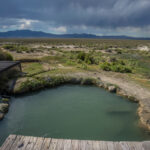
Basin and Range Trail Thru Hike Section 5 Map
Video: Basin and Range Trail Thru Hike Section 5
In addition to this trail journal, I also filmed my Basin and Range Trail thru hike. I’ve produced a detailed documentary series (11+ hours runtime) documenting this thru hike adventure, the product of over 1,000 hours of video editing. I highly recommending watching the Basin and Range Trail vlog series for an in-depth look at thru-hiking the Great Basin and central Nevada.
Basin and Range Trail Thru Hike Section 5 Journal
Day 32 – July 2nd: Loneliest Highway in America, Big Smoky Valley, Spencer Hot Spring, Linka Mine
Sarah made me some Farm Fresh eggs with sea salt and a piece of toast for breakfast. These eggs were definitely much better than store-bought eggs. I also had a sausage biscuit and muffin. I gave Sarah my bounce box to send out at the post office since I wouldn’t get there before the post office opens at 10am.
It was 9am when I left the motel and began my walk to Eureka. I walked out of town until I reached a wash, which parallels Highway 50. This avoids a big climb, but doesn’t avoid all the climbing. Always hard to leave town, both mentally and physically. This was no exception. It was rough going at first, with a heavy pack and in the heat.
After reaching Austin Summit it was a road walk along Highway 50, the Loneliest Highway in America. However, it didn’t feel that lonely. The shoulders weren’t always very large. I was surprised at how wooded and green it was here along the highway.
I stopped to take a break at a campground/rest area, and realized I had 4g service for the first time in Nevada. Ironic, along the loneliest Highway in America.
Reached the junction for Highway 376, the road South to Carvers. This road was a little lonelier. Short walk along this road before I reached the junction to Spencer Hot Springs. Even this road had a fair amount of traffic.
Near Spencer Hot Springs, the stop sign, and other signs, are decorated with stickers from various travelers who have visited the area. You generally know you are somewhere kinda cool when people bother to put stickers on things. Except when it’s in a pristine area, then it’s not cool. Spencer Hot Springs is NOT pristine, it’s heavily trafficked.
Reached Spencer Hot Springs around 5pm. Dark clouds in the sky now over the Toiyabes. Ate some food and chatted with a woman from Estonia on a motorcycle tour across the US.
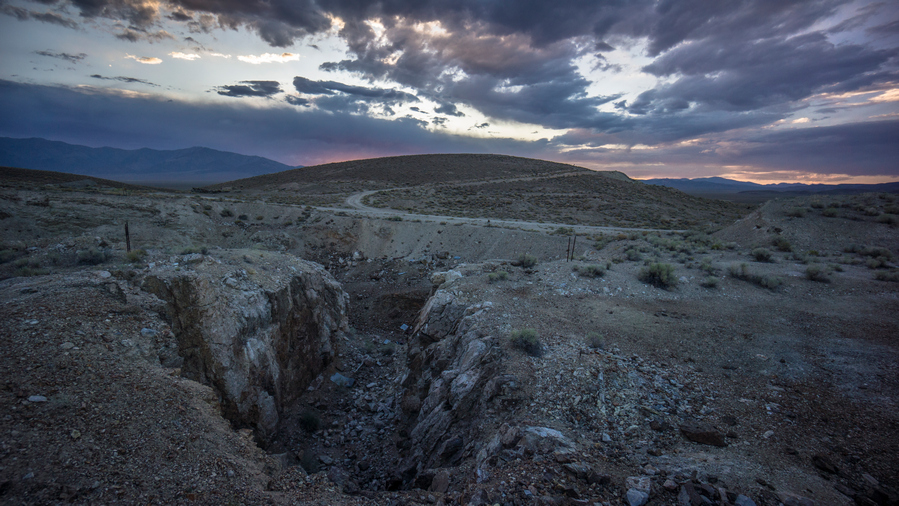
Some of the best rocks and minerals were found here in this section of the Linka Mine. However, it was filled in on my 2021 visit, and there is no more access to this area
Then walked over to the Linka mine. Stayed here for about 2.5 hours cracking rocks open. Found a whole bunch of interesting rocks and minerals. Perhaps the most interesting I’ve ever found. I found many garnets, a few larger ones and many small clusters of garnets on quartz veins. I also had a nice specimen of epidote. Pyrite can be found here, as well as either galena or molybdenum. Dark clouds loomed over the mine, but they eventually turned to a nice red sunset beyond the Toiyabe Range.
Set up camp in the dark 1/14 mile from Spencer Hot Spring. There were Burros everywhere making noise. Sarah and Cassidy meet me at the hot spring after 10pm, had a soak and brought me a gallon of water. Full moon, too. Went to bed after 11:30pm, much later than my normal hiking routine.
Day 33 – July 3rd: Big Smoky Valley, Linka Mine, Toquima Range, Monitor Valley, Monitor Range
Burros made a lot of noise throughout the night, stomping near my tent and making ridiculous noises. Didn’t get a lot of sleep.
Walked to Spencer hot spring after packing up. Talked to the people here, Rick and Maria. They were from California. Chatted for a while. He asked if I needed water, and I almost never turn that down. Took a few liters, and discarded the empty gallon jug that Sarah brought night before.
Walked past the Linka Mine again this morning. There was a truck parked here, I said hello. It was a young college kid, mining engineer intern, about to head down into the open pit to do some rockhounding himself. We talked for a bit then I showed him what I found last night. His eyes got big, and he said you found that down there? He was pretty excited now.
Down the Road, past the part of the Linka Mine I was ‘hounding yesterday, there are some more elaborate ruins of the mine left. Some large concrete pads/structures and such.
Walked past the conquest mine next. This was deeper and steeper, and completely fenced off. Went down for a look, didn’t see anything too interesting though.
After leaving the mines, the landscape becomes very barren and I felt alone again. The road was loose sand, hard to walk. This was tiring and demoralizing. Saw burros and wild horses.
Stopped for a break at the base of the Toquima range, which is a much smaller obstacle compared to the Mt Jefferson area in the south. That is, until one is at the base of it. Still, it’s small for a mountain range, as this is the extreme northern end.
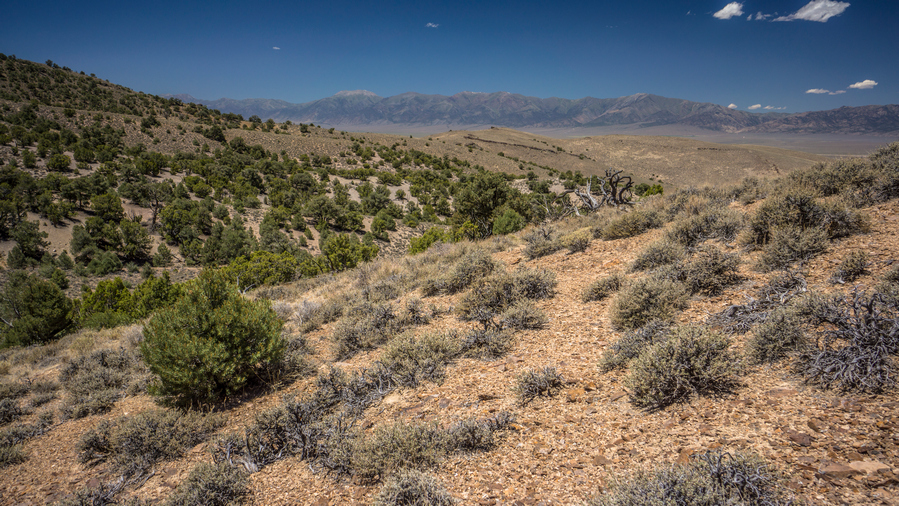
Hiking up the northern end of the Toquima Range. View west across Big Smoky Valley to the Toiyabe Range
The road dead ends into a wash. From here, it’s up to me to find my way up and over. Now I realized how hot it was. Even though it wasn’t very tall, it was still a several hundred foot climb, and had me breathing hard. Weaving in between the pinyon pine and mahogany trees.
At the top, nice views of big Smoky Valley, but not much view of monitor valley… Lots of trees, rolling hills. Now the descent. Pretty plain looking, just weaving in between trees through red-orange Sandy soil.
Before I hiked past the last trees and was at the mercy of the relentless sun, I stopped for a break. This is my routine now, and one that I think almost desert hiker mimics… Take a break under the last shade tree.
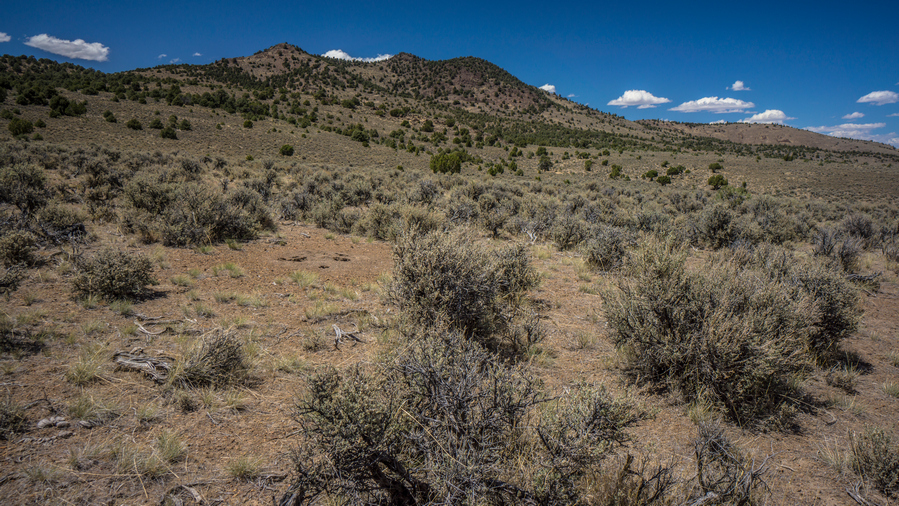
Toquima Range, view from Monitor Valley. What was a prominent landform in the south, is now a meager set of hills in the north
After passing the last trees, I entered a sea of sage brush. I dread this, but no other way forward. I need to walk through miles of sage brush before I reach a road. At first, it’s a pain. Then it snowballs into more of a nightmare. In the beginning of this hike, this was more manageable mentally. Everything is, spirits are high and even the worst of things seem easier to deal with. After a month though, that feeling fades. Waking miles of sage brush in a hot valley with no shade can test the mental toughness of just about anyone.
Monitor valley looks very barren here. Empty, remote. No signs of roads anywhere. Then, all of the sudden, I stumbled on an old dirt road, only visible from 50ft away. What a relief!
Followed this north to another road that intersects it heading east. This is what I want, now heading across the valley towards the monitor range. A well/tank can be seen in the distance, about the only thing that stands out from the sage. The road passes by, but there doesn’t appear to be any water.
I followed the dusty road for a couple hours until I reached the main road that runs north and south through the valley. I crossed the road and headed towards Wallace canyon.
My right leg had been giving me trouble today, a dull pain in the thigh. It was sore and tender to the touch. Becoming more of a concern as the day goes on. I debated what to do… Follow the road north to hwy 50? Try to cross the monitors, with 5,000ft of elevation gain? Hike a low route through the monitor range? I took a couple ibuprofen and kept going.
Just then, a truck passed by. Two hunters out scouting, Keith and Johnny. They were super impressed with what I was doing and offered to help in any way they could. They filled all my water bottles and gave me their last piece of KFC fried chicken. Who only knows where the nearest KFC is, but I can tell you its a couple of hours away. This was a real mood booster. I left Keith and Johnny feeling really good, both physically and mentally. My leg was feeling better and my mood massively improved.
Walked into Wallace canyon, saw the first trees of the Monitor Range. Stopped for a dinner break, at a little campsite that had a few scattered deer legs on the ground. I guess people/animals don’t eat those.
There was a small spring in Wallace canyon with huge willows and vegetation lining the road. The rest of tonight’s walk was rather uneventful. The canyon looked pretty thick, and I was glad to have a road. Saw a couple of deer. Some groves of aspen with a subpar campsite below the pass. Thought about camping here but pushed on.
At the top of the pass, where the high and low routes split, there were a few camp options. Of course, I Climbed a hill above the pass for the best view, and found a decent campsite here. More than decent, damn good spot considering what else was around. Sun going down, a really nice sunset. And, 4g just on this hill!
Day 34 – July 4th: Monitor Range, Summit Mountain, Trail Magic
Woke at 6, great sleep last night. Amazing sleep actually. Feeling much better this morning. No leg pain. Lots of bees buzzing around here. Lots of prickly pear cacti on this little hill.
Decided to take the “high route”. It will offer better views, despite the hugely additional elevation gain. I almost instantly regretted it. Dripping wet with sweat at 8am. Steep 4×4 roads that were poorly laid out for the hiker… Up and down constantly instead of contouring around hill sides. This was demoralizing. It’s demoralizing because the views aren’t really that great, even from the “high route”. In the northern portion of the Monitor Range, it’s mostly a series of hills, not serious mountains like in the south. But that’s the issue with Section 5 in general. It’s just not going to be spectacular no matter which route one takes from Austin to Eureka. I think every thru-hike has some type of filler section, and on the Basin and Range Trail, this is it.
It was a rather tough morning. I struggled through it. There was little water compared to what I thought would be here. Very small trickles of water, only occasionally. To collect from these, one would need to follow the water and definitely dig out a hole to collect from. I had a couple of liters, so I kept going.
The best views of the day were pretty weak compared to what I’m used to. For a brief moment, I enjoyed a scenic little hill with a distant view of the Monitor Range.
Summit Mountain, aka Broken Back #2
Saw about 20 horses in the valley below as I worked my way along an upper Ridgeline. Now, summit mountain (marked on some maps as broken back #2) was clearly in sight. The plan is to go up and over. Looks steep on the map, but doable.
I took a game trail around the final hill that lies between me and the saddle below summit mountain. This worked well at first, then turned into a sage brush bushwhack.
I took a break at the saddle below summit mountain. From here it looked very steep and intimidating, although it doesn’t look bad at all on the topo maps. Not Rocky/Bouldery, but a mix of low grass and small rocks.
Just then, I heard the sound of a distant engine. It grew louder and louder, until I realized someone was coming up the canyon below. This was Allison creek, a route I was considering to avoid summit mountain. Two rzrs came up the hill into view, and I wished them a happy 4th of July. They were just as surprised to see me as I was to see them. In fact, they were probably more surprised that I was there, especially without a vehicle.
Naturally we stopped and talked for a while. Quite a long while actually. I would say a solid 45 minutes. This was the Terras family, currently living in Elko. Travis, Gaye, Cody, Tim and Jim. They offered me water, Gatorade, and beer.
This was basically their stomping ground. Monitor Valley in general. Hunting, camping, relatives in the area, you name it. Central Nevada is what they know. They were very interested in my hike, with my route going through territory that was so near and dear to them. We discussed the typical topics that I get asked; water, food, navigation, animal sightings. They all had binoculars around their necks, trying to spot wildlife. Had they been just 15 minutes later, they would have seen me scrambling up Summit Mountain, probably pretty confused that a person was out here trying to climb it.
They offered to give me a ride anywhere needed to go. One of the options I was looking at was Peddler Creek, where I could then bushwhack up to a saddle between Antelope Peak and Summit Mountain. This would take me over to Falkner Creek where I was headed. Of course, me being hard headed and stubborn, I didn’t want to take a ride. At the same time, I didn’t really want to hike over that mountain, and the other options to go around it where just as long and likely more arduous.
They were headed over the pass and in the direction of peddler Creek anyway. My map shows the trail ends at the Saddle, although it clearly went down the other side. Their goal was to see how far that road went, assuming it connected to Peddler Creek. I fought with myself for a while, debating what I want to do. They had been tempting me with beer and steak, offering to let me camp with them this evening. I figured I would at least take the ride down to Peddler Creek, that is if the road even exists. So I jumped in the rzr with them and went barely more than a hundred yards down hill before the road ends in a Grove of Aspens.
It was now after 1pm, and I had spent over an hour with the Terras family. The goal is to get into Eureka by 8pm tomorrow night. If I go back up to the top of the saddle and try to head over Summit Mountain, I know it will be a long hike. I likely would fall behind schedule.
I considered this section a filler from the beginning, far from a highlight of the Basin and Range Trail. Simply a connector between Austin and Eureka. Having already explored the Linka mine and taking a soak in Spencer Hot Springs, I had already done the things I was interested in doing throughout this section. It was a tough choice, but ultimately I accepted their offer to drink beer and eat steak with them. They have even offered to drive me into Eureka as this was on their way back to Elko, if needed.
You might ask yourself why this was such a hard decision to make. I asked myself that very same question. What do I have to prove? What do I have to prove to myself, to anyone else? I was adamant about walking continuous footsteps from Mexico to Canada on my Continental Divide Trail thru hike, but that made sense to me. You can’t say you walked from Mexico to Canada if you skipped a bunch of it. But here, on the Basin and Range Trail, I am not even hiking a complete loop, just a random route from one arbitrary place to another. Continuous footsteps is not my goal here on the BRT. Adventure and a great experience is what I’m after.
So, reluctantly, I accepted their offer and basically stopped hiking halfway through this section. It was a relief at the same time. Now, I could enjoy the 4th of July like a normal human being, spending it with other people.
As soon as I said I would join them and camp with them, they said great, now you can drink beer with us! Gladly, I said. I need to catch up!
We spent the next couple of hours cruising around on the side by sides. Finding little hills with a view, finding hidden campsites, exploring the countryside while having somewhat deep conversations at the same time. It was incredibly satisfying to be able to take a break like this in the middle of a hike. A physical and mental break. And on the 4th of July, it really meant a lot to be able to kick back and just enjoy the moment, with some super friendly folks.
We found one campsite nestled in the Aspens on a little Hill that had a granite countertop installed in between a couple of Aspen trees. That’s right, a granite countertop! This perked our interest and was an obvious place to stop for lunch. The granite countertop was a great place to lay out all the food, crackers, cheese, summer sausage etc. It felt like a real luxury for the outdoors.
I had never ridden in a side-by-side before. I was really impressed at how well they handled the terrain. Just this morning, I was wondering how it’s possible to drive a vehicle up some of these roads. Now I know. They have really low gearing for the downhill sections, and the suspension is incredible. Many times it felt like the vehicle would just tip over, but it kept going, handling it like a beast.
We got back to camp Terras late afternoon. Camp was a long a small Creek, surrounded by Aspens. Not the most level ground, but I found a nice spot pretty close to the creek. They had all the luxuries of car camping… Fold out chairs, table, cooking stove Etc. It was nice to sit in a comfy chair. One of the things I miss most when hiking.
They got started on dinner shortly after 5 PM. They utilized the fire ring to cook corn over a metal grate. Mostly, it was being smoked at first. Then burned a bit. Methods used to cook this corn became the topic of laughter. In the end, it came out just fine. Meanwhile, Travis cooked the steaks. I felt a bit useless, just standing back while everybody else did something. Course I asked to help, and was told to just sit back and relax. This is always a bit hard for me to do.
After dinner we lounged around and exchange stories. Me being the guest, I think it was my obligation to contribute in that way, with stories. Having hiked and traveled quite a bit, I enjoyed sharing my experiences, and maybe more importantly, my insight on these experiences. The older I get the more I realize how these travels and experiences have shaped me as a person. In a positive way. I look at my life in Detroit before my CDT hike, and not being much of a people person. In fact, hiking in general was a way to get away from people. And now, I see long distance hiking as a way to connect with people, from all walks of life. I’ve always been the type of person that has a hard time accepting anything from anyone. Even when expected, such as on my birthday, I feel very appreciative of a gift or anything that has been given to me. So when people take me in like this, I barely have the words to describe my gratitude.
Day 35 – July 5th: Trail Magic, Antelope Valley
I woke up at 7:30. Tim was already cooking bacon, the sound and smell was great to wake up to. I asked Travis how he was feeling this morning, and he said, I must have been pretty drunk, everyone has asked that!
They were a little low on food for breakfast, so I ate some of my own food but I still Had a small portion of bacon and eggs. Delicious! After that we packed up camp pretty promptly. They seem to be pretty efficient at that, breaking everything down pretty quick. We loaded up the side by sides and headed downhill.
On the way down, Tim stopped here and there for burls. These are the knots on a tree that form when a branch breaks off, and the tree heals itself. A big ugly looking brain, or mushroom look. He cuts these off and uses them in his woodworking projects. Maybe a vase, lamp post or whatever. He turns them on his lathe. also makes something called dragon eggs, where he mixes resin into the wood fill the gaps. The grain of the wood Mixed with the resin was really cool looking, from the pictures he showed me. These are the kind of projects that it seems very few people do, almost like blacksmithing, like a forgotten art. Pretty neat actually.
A few miles down hill, the valley opens up and we reached the spot where they parked their trucks and trailers that haul the side by sides. It was pretty hot now down in Antelope Valley. While loading up the side by sides, I got everyone together for a group picture. We got the largest burl and posed on front of it of the side by sides. This was great, I love these group pictures. They are pretty tough to come by, but perhaps some of the most meaningful pictures at the end of the day.
Soon we were all loaded up, and I jumped in the truck with Travis and Gaye. They were passing through Eureka anyway, so it wasn’t a bother for them to take me here. My goal was to reach Eureka by 8pm tonight. Had I walked from the spot they Park their trucks and trailers, I would not have reached Eureka this evening. Skipping so much of the planned route, about 40 miles, was a bit hard for me to swallow mentally, but I had already accepted the situation. Now down in Antelope Valley, I certainly wasn’t disappointed to have skipped this section, in the sense that I felt I was missing something, because it was a rather bland looking valley. The temperatures in June were rather mild, but now, in the low-90s, Crossing these valleys is a lot less appealing.
When we reached the Sundown Motel in Eureka, Travis and Gaye got out of the truck and we said our goodbyes. We had exchanged phone numbers and tentatively planned on meeting up again when I finish the Rubies. Since I’m coming out in Lamoille, it’s just a short ways from Spring Creek and Elko. They were more than happy to offer any help they can when I reach their Hometown.
Checked in to the sundown motel. My box was waiting for me in the lobby, a new pair of shoes. Checked into the room, showered, then walked across the street to the Owl Club. Funny, it has the same name as the place in Austin, even though they say they are not related. Seems like a strange coincidence to me. Ordered their biggest burger, double bacon cheeseburger and fries. It was probably one pound, and of course, put it down with ease.
Ate dinner again at the owl club. Made eye contact with a guy at the bar who is about my age. We kind of did “the nod”. I asked him how the 4th of July was, knowing they have a big Fourth of July party in town. He said he just got in today, and missed it. He asked me about mine, I told him about my story with the folks in the monitor range, part of my 1100 mile hike. He did not seem impressed, and that was the end of the conversation. He literally shrugged his shoulders and turned his back on me after hearing about my hike across Nevada. But that’s Eureka for you. This felt like one of the least welcoming towns along my hike.
Day 36 – July 6th: Zero Day in Eureka, NV
Breakfast from the gas station, a couple sausage biscuits and muffin. Spent all day doing chores; Paid Bills, called dad to have him send a box to the Spring Creek (Elko) Post Office with new gaiters, boxers and a new Patagonia capilene daily wear shirt.
Walked up to the Pony Express Deli at the end of town for lunch. Went off to the Post Office and mailed back rocks I found over this past section, and my old shoes. I still wear these when mowing the lawn or whatever, even if they are no longer trail worthy. Then walked up to the grocery store. This was a mile or more out of town. For such a big store, the selection was pretty terrible. I cobbled together what I needed for the upcoming 8 Day hike across the Diamond Range and Ruby Mountains.
I’ve been talking with Cody Terras today about meeting up in Lamoille. He wants to join for a section in the rubies, which would be awesome! So maybe the section north of Lamoille Canyon. Plans to be determined later.
Basin and Range Trail Thru Hike 2020 – Section 4: Carvers to Austin
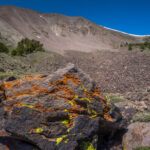
Basin and Range Trail Thru Hike Section 4 Map
Video: Basin and Range Trail Thru Hike Section 4
In addition to this trail journal, I also filmed my Basin and Range Trail thru hike. I’ve produced a detailed documentary series (11+ hours runtime) documenting this thru hike adventure, the product of over 1,000 hours of video editing. I highly recommending watching the Basin and Range Trail vlog series for an in-depth look at thru-hiking the Great Basin and central Nevada.
Basin and Range Trail Thru Hike Section 4 Journal
Day 25 – June 25th: Big Smoky Valley, South Twin River, Toiyabe Range, Toiyabe Crest Trail
Woke at 8. Called the Sundown motel in Eureka to ask if I can send a box. They said sure, so I called my dad to relay the message… Send new shoes to Eureka.
Packed my gear and hit the road around 9:45am. Feeling good physically, better than yesterday. My back is feeling fine now, thankfully. Weather shows afternoon thunderstorms, 70% chance of like 0.02 inches.
The walk out of town along highway 376 was nice, for a road walk. It was really hazy looking today, and the Toquima Range eventually disappeared from sight. Still, the massive Toiyabe Range looms high above me as I walk the base of it north, looking for my way in.
One guy stopped in the road to ask if I was ok. He seemed extremely confused to see a hiker. I told him I was walking 1000 miles across Nevada, I’m good and don’t need any help. I got a blank look. Super confused. I reassured him I’m good, and he drove off, confused. Classic reaction.
Shortly after, I turned down the road that leads to Twin River, start of the Toiyabe Crest Trail. Around this time, the Dark Skies turn to rain. Not very heavy at first. Then some tiny hail. Then thunder. Then lighting. Then windy. Fortunately, I found shelter in the bathroom at the parking area around noon. There was one truck here, but he must be out hiking in this. Yuk!
It seems like were getting more than the .02 inches of rain the weather was forecasting. Constant lightning and thunder, sounds really nasty. I waited out the worst of it here. When the thunder and lightning subsided, I made my move.
The trail climb steeply from the parking lot. However, almost immediately I was rewarded with expansive views of Big Smoky Valley, and great look north at the Toiyabe Range.
Soon the trail leads me to the canyon entrance to South Twin River. Once over the first little hill, I had my first view into South Twin River Valley. Wow! Really, wow! Steep and Jagged rock formations everywhere. Walk 50 ft, stop and look around with awe. Walk another 50ft, and repeat. All while watching your footing on the Steep Hill sides. I could tell I was going to like this place.
The trail sits up high above the river for a bit to avoid a narrow section of the canyon. Before long, it drops down to South Twin river. Similar to Pine Creek in the Toquima range, it was thick, lush and thorny, with steep Canyon walls surrounding you. However, decent trail. Very nice indeed.
The first River Crossing I was able to jump across the river. Certainly the river is up a little bit from the recent rain today, I’m sure there would have been rocks to hop across otherwise. At the second River Crossing, I was not so lucky. I accepted the fact that my feet were going to get wet today and just walked through the river. This would be the 1st of at least 30 River Crossings.
After one of the first couple River Crossings, I was blown away by what I saw. At first, on my left was a giant Rockwall that was several hundred feet high, straight up. And not on a slant or anything, literally vertical. Just a little farther up the trail was an 80ft vertical pillar just protruding from the ground on it’s own. My reaction was probably pretty comical, think I said something like, “are you kidding me?? Come on!” I was on awe. Just when I thought it couldn’t get any better, I walked further up the trail and on one side of the Rock pillar was a cave! A cave in a vertical rock pillar! I thought I was in a fairytale book, things like this don’t exist in real life. Unfortunately the cave was difficult to reach, especially with the wet rock from the rain and my increasingly worn shoes.
More Majestic scenery throughout the next couple miles. What an impressive Canyon. However, vegetation was thick and thorny. It was also wet, so it was a pain to move through.
Through the hike up South Twin River, there were river crossings at frequent intervals. Perhaps there would be less water flowing if it hadn’t rained recently, but chances are, you’ll be getting your feet wet hiking here.
At one point there was a steep Hillside with loose rock, at the junction of South Twin River and South Fork South Twin River. Looking up, there was a narrow Passage with a large tree. For some reason I had a hunch that there was something up there, maybe a hidden cave, I don’t know. But I felt compelled to check it out.
Rock was wet and treacherous. I made my way up to the large tree, expecting to see a cave entrance or something. But there was nothing here. I could have kept chasing my hunch up increasingly steep and more treacherous boulder chutes, but I gave up and went back down. The way down provided an amazing view of vertical rock formations throughout the canyon. This was almost worth it on its own, a really unique view amongst all that I have seen on the Basin and Range Trail.
Past a couple of campsites at a trail Junction. They were a long the river though, I almost never camp in these. Too much condensation overnight. Not that tonight will be dry anywhere. Besides, it was still too early, so I kept moving.
The next section of trail was really thick with vegetation. And lots of River Crossings. Jungle-like. Thorny. Everything was wet. I was wet. I was ready to get to camp. I had seen a couple of small caves, including the one in the pillar, and was really hoping to find a suitable cave to sleep in. To be out of the elements, and dry my things off.
To my surprise, I reached a bit of an open clearing with a Rockwall. Along this Rockwall was a small cave, with the grassy Hillside below. From the trail, it looked absolutely perfect. The kind of cave I had been waiting for! I’ve never been able to find a suitable cave to sleep in, at the right time. I climbed up to the cave, and my initial thought was that it was too small. I thought maybe I could set up my tent in front of the cave on the grassy Hillside. Which I certainly could have done. Ultimately, I decided to cowboy camp inside the cave.
The cave was small enough that there were no animals living in it, and no obvious signs of holes or burrowing. The ground was flat, and pretty clear overall. I had space to set up my gear and hopefully let things dry out a little bit overnight. The rain looked like it was over, but who knows.
Day 26 – June 26th: South Twin River, Toiyabe Range, Toiyabe Crest Trail
Didn’t get much sleep last night. My air mattress now has a slow leak, and needs to be refilled every 2 hours or so. It was pretty cool sleeping in a cave though!
Everything was soaking wet from the rain yesterday. And of course, the vegetation continued to be thick. Also, there were a bunch more stream Crossings. At least the stream was smaller now, and mostly I just jumped over it.
The scenery in Upper South Twin River Canyon was much less impressive than the lower portion. It was pretty much just bushwhacking through wet and sharp vegetation. Very frustrating at times. The section of the trail is in dire need of maintenance.
I waited until the last minute to get water out of the Stream before the final climb out of South Twin. There was a lot of cow shit here, and it was fresh too. I know this because I slipped in it. It was that soft. But I didn’t see any cows or hear them. Filtered some water and took 2.5L with me.
The final climb up to the saddle below Arc Dome was a pain. The trail literally followed the bottom of a drainage. It should have followed the hillside and kept you out of the thick brush and rocks. This seemed to take forever. To the south was a couple of mountain peaks covered in fresh snow. I guess that was from yesterday, while I got the rain high elevations got the snow.
Finally up on the saddle, I could enjoy my first long-distance view. Very nice! Arc Dome still loomed above, and I contemplated climbing it. The original plan was to bag it, as an out and back. However, I am behind schedule with the thunderstorm yesterday that I waited out. So after following the trail up to the saddle below Ark Dome, I decided to pass. It was the smart call to stay on schedule for getting into Austin.
I took a break at the edge of some cliffs with rock seats and a nice view. Here, I could take off my shoes and dry my shoes, feet and socks in the Wind and sun. And that’s just what I did. Man what a difference that makes, having dry feet again.
After my break, I was hiking good trail now on the Toiyabe Crest Trail, or TCT. Excellent views, nice solid trail, mostly. It was mostly a climb up a couple of consecutive Hills, and then it really flattened out. A lot like the table mountains in a way. Better views though.
I really enjoyed most of today’s hike. Great views of the Shoshone range to the west and big Smokey Valley to the east.
The trail here was good. Easy to follow, seemed to be well maintained. Not a lot of brush, easy walking, other than the big climbs. Even then, there wasn’t anything too big, couple hundred feet maybe. This added to the enjoyment level.
I only brought 2.5L of water from South Twin River Canyon up to the crest. This decision was pretty short sided, in that I just didn’t want to haul a bunch of water up and already steep and brutal climb to the crest. Of course, I should have brought more. I had to ration my water all day.
One thing I did to mitigate my water problem was collect snow from the cornices at the top of passes and ridges. I filled both of my Gatorade bottles, because they have the wide mouth opening, with snow. Later, I came across another snow bank. Then, I took the water that has melted from one bottle and poured it into the other. I added more snow to the other bottle. In the end, I got about 1.5L of water from these two 1L Gatorade bottles. Not Bad!
I was feeling pretty tired from todays hike and took a break around 5:30. Ate food, drank a little bit of water and moved on. I was feeling much better, just in time for a great evening walk.
The walk along the Ridgeline tonight was awesome. This must have been up there with some of my favorite Ridge walks of all time. Beautiful scenery, trail stays really high and beautiful sunset. At one of the passes, a road runs up and over. Here, a Subaru Outback was parked. I expected to see someone in the vehicle, but I did not. I assumed they were out hiking, and wondered if I would run into them. I didn’t.
Tonight was the night of the never-ending sunset. It seems like the sun was low in the sky forever. It set in slow motion, and literally felt like the longest sunset of all time. I’m not complaining, this was quite amazing actually. To be able to stretch out such an amazing sunset provided seemingly endless photo ops.
I had been looking for a campsite before the sunset began, but no such luck. Pre-existing campsites are few and far between up here. Pretty much just have to look for a clearing, that doesn’t have too much cow shit. To my surprise, I made it to the next spring on my map. I wasn’t thinking I was going to make it this far tonight, but it was such a great walk that it kept me going a little bit later than usual.
I didn’t actually make it to the spring, I camped on the saddle above it. There was a couple of green patches blow the saddle, but I couldn’t quite tell for sure if there was water. Either way, I’ll check it out in the morning. Not enough light left to do it now.
I cowboy camped on the saddle, having to move cow shit to make room for my air mattress and ground sheet. I probably would have set up my tent, but it’s easier to Cowboy camp when there is limited space such as this. Plus, if you think there could be any wind, it’s lower profile and is easier to ride out the wind gusts. But of course, the winds died down at night like they usually do in Nevada.
Day 27 – June 27th: Toiyabe Range, Toiyabe Crest Trail
Great spot to camp, sun was on me almost first thing in the morning. I heard one animal in the middle of the night, but this is to be expected since I’m on the top of a pass like this. I packed up my gear and headed down to the spring.
Filtered a couple of liters of water at the spring and actually enjoyed the moment. Normally, filtering water is one of my least favorite hiking chores. But on this morning, the Sun was shining and I was out of the wind, warm in the sun and appreciated a moment where I could just sit down in a comfortable environment and relax. While I squeezed a platypus bag, of course.
I couldn’t see an obvious Trail leading away from the spring and back up to the Toiyabe Crest Trail, so I Bushwhacked a bit. Yay, my favorite. Eventually I hit a trail that contoured around the Hillside back over to the main Toiyabe Crest Trail. Whew.
The next couple miles were nice. Good quality Trail. Contoured the hillside for a while, going by a couple of creeks in the drainages. Looks like today will have more water than yesterday.
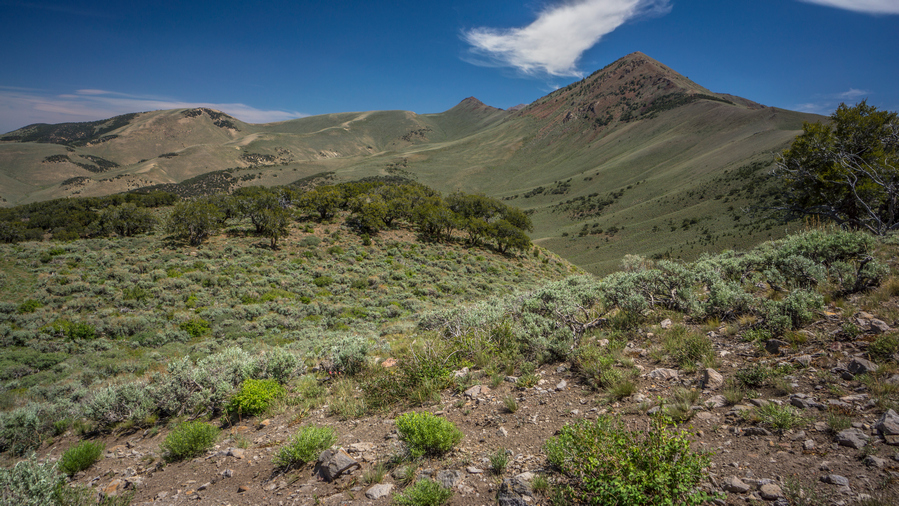
French Peak on the right. The Middle Toiyabe High Route Alternate takes the ridge on the right, avoiding dropping down into the valleys and would provide excellent views
After contouring around the hillside, I began to notice how much I’ve dropped in elevation. This is never a good thing for the hiker unless it’s your final descent out of the mountains. It just means more climbing ahead.
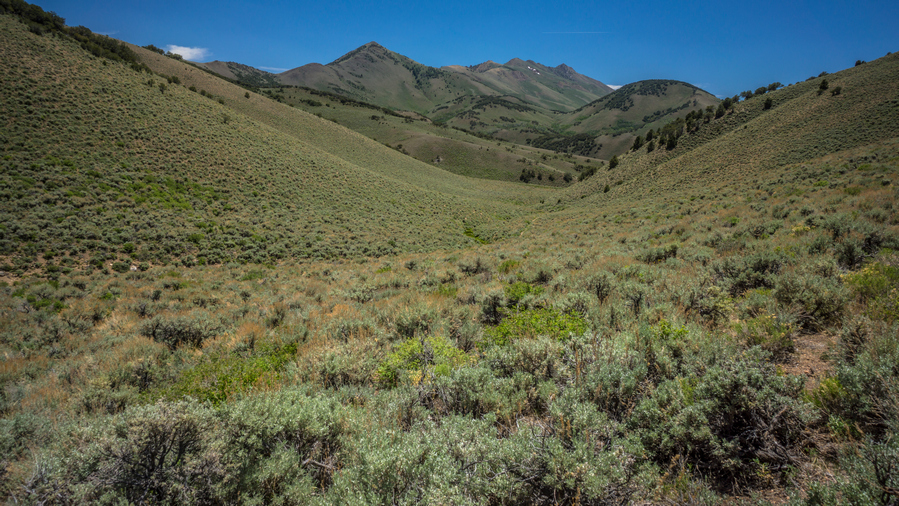
The Toiyabe Crest Trail is no longer following the crest here. Bummer. Should have taken the Middle Toiyabe High Route alternate
There were several water sources I passed. At the bottom of the descent was a small Creek. I thought this was the bottom, until I climbed up over another hill and drop down just a little bit farther than the other Creek. Tierney creek, the bottom of the decent, under 8500′.
The trail consisted of 4×4 roads at this point. These were quite steep, and the worst kind. Small, loose pebbles sitting on hard packed dirt. At this slope angle, its a slip and fall accident waiting to happen. I found myself walking among the Sagebrush alongside the road at times instead, less of a slipping hazard. It was also rather hot down low in the valley.
Now the climb up begins. I stopped at a small Creek to eat lunch. I was feeling my blisters now, aggravated by all of the sand in my shoes. Put my sandals on and soak my feet in the creek, and filtered some water to go.
Shortly after my lunch break I saw a pronghorn. Not long after, I saw two more pronghorn and a baby. I wondered, are these called fawns too? Or Pronghornlets, perhaps? Ha.
Some of the best scenery of the day came in the afternoon as the Toiyabe Crest Trail skirts around Toiyabe Range Peak.
The day was dragging on now, thanks to the increased heat and decrease in scenic views. Cow shit on all the small passes. Lots of it. Pretty uneventful day overall. There were some great views, but they weren’t as constant as they were yesterday, in the Southern Toiyabes. The trail was not as good here either as it was up on the crest yesterday.
Ran into my first person in almost 400 miles of hiking. A guy named Alex, and his dog. Alex was from Grand Rapids Michigan, now living in Vegas. But he just took an internship in Round Mountain for the summer. So now he gets to explore the mountains here. Alex hiked the PCT in 2018 and had the trail name Nuts. Probably because he went through the Sierras in April and May!
Found a great spot to camp along a Ridgeline Above a pass. Hidden behind some rocks, well protected from the wind. Good thing because it was windy, even after dark. A spring was only a few hundred yards down hill. Found an arrowhead on the pass. A metal sign for the Toiyabe crest trail was here too, the first one Id seen up here.
Day 28 – June 28th: Toiyabe Range, Toiyabe Crest Trail, Kingston Creek, Big Creek
The wind didn’t die down until midnight, so I didn’t get any sleep until after that. Excellent campsite, was pretty well shielded from the wind for most of the night. But the sound of the howling wind still kept me up.
Dropped down off the pass and into a Cirque that was full of water. Filtered 4L last night so I didn’t need any. Stopped to wash my socks in one of the streams, and a mouse hopped away. Today was a really long day. It’s funny now that I write in my journal, I can barely even remember this morning. It seems like 3 weeks ago. The days are just so long out here.
Feet feeling better today than they were yesterday. Holes in my Darn Tough socks are getting big. Good thing I have a couple new pairs in my bounce box waiting for me in Austin.
The climb out of the valley with all the water took a little bit longer than expected but still, I feel like I made good progress. As soon as I reached the top of the pass, I was hit with 40 MPH winds. It was cold too! First thing I did was put on my wind jacket, kept me a little warmer plus I wore the hood to make sure my hat didn’t fly off. It was crazy windy.
Excellent views now that I was back up on the crest of the Toiyabe Range. The kind where it was hard to make progress because I was constantly stopping to re-analyze the landscape, seeing new angles and shots.
The wind was blowing in from the West, so as long as I was on the east side of the Divide, it wasn’t too bad. But without something blocking the wind, it was pretty wild. The hood on my wind jacket was constantly being battered, and was really loud on the ears. And sometimes, some of the straps from my backpack would get blown around violently & slap me in the face. I was literally being bitch slapped by my own backpack.
Once I got a good View to the West, I could see a dried lake bed on the other side of what I believe was still the Shoshone range. The winds where kicking up dust and sand into the atmosphere, with a brown layer of debris hoovering low in the air.
Stopped to eat behind an outcrop of rocks. They really weren’t that big, but they did the job, providing enough protection from the brutal winds to be able to eat without my things being blown away. I was running out of space on both my camera and my phone, so I deleted pictures and data from both so I could continue taking pictures on both devices. Man, I really need to send my bounce box to every second or third town instead of 4 towns, so I can dump media more often.
After my break, it was back into the wind. Now, I had a decent climb up a hill that was totally exposed to the winds from the West. Here, the winds were gusting 50 to 60 miles per hour. Almost blowing me off my feet at times. I would lean into the winds to try and counteract the force, but when the winds died down suddenly, I found myself almost falling over. The winds would come out of nowhere and catch me by surprise.
Some spots along the Ridgeline had interesting rocks. Lots of quartz veins visible. The walk along the Ridgeline today was not all that long, but the views were excellent. The winds were extremely taxing on the mind and body. It really wears you down walking through high winds.
I was relieved to reach the saddle where the trail finally drops down to Groves Lake. This is the official end of the Toiyabe Crest Trail, the northern terminus. I made very quick time of the descent, jogging whenever possible. This has always worked well for me to minimize knee pain. One reason knee pain occurs on downhill sections is that we are trying to walk at a pace that is slower than momentum, and in order to maintain our pace we strain our knees in the process. By jogging a bit, or going with the flow, you can minimize knee pain. That’s my theory, anyway.
Groves Lake was definitely low on water. It’s a man-made lake, with a dam on one end. There was a truck with a couple of guys fishing there. Really nice views into Straight Canyon from the lower reaches of the trail.
When I reached the lake, I didn’t bother going for the shoreline, there was no shelter from the sun or wind. Instead, I found a small patch of trees in the parking lot to take a break under. Ate lunch here and aired out my feet. It was decision time. The original plan was to follow a high route extension that began just a little further north from here. However, with the high winds, that plan is not a good one. Not only do I not want to walk in 50 mile an hour winds, I certainly don’t want to have to camp in them. So that’s out. Good thing I had made a low route alternate before coming out here. I’ll take that.
Next I continued down Kingston canyon Rd. This was a very well maintained dirt Road, with a little bit of traffic here and there. A little ways up the road I encountered the Kingston Guard Station. This was an abandoned ranger station, housing for the Rangers and some other buildings. From the road I could tell it was abandoned, windows were broken out and one of the doors was wide open. I went in to have a look and was very disappointed and what I saw. The entire place had been looted, ransacked and destroyed. The brick work on the fireplace had been dismantled, beer cans in the fireplace. Anything of value have either been stolen or removed when funding had been cut for this facility. I walked into another building next door, and there was some sort of bird Nested inside one of the walls behind a cupboard. Another building was like a storage shed. There was a can of green paint that had been opened and someone had smeared it all over. Garbage lay on the floor. There where a bunch of shelves, and someone had opened all the boxes and dumped out the contents. There were literally thousands of plastic knives and forks laying around.
It was a real shame to see the ranger station in this condition. It was a beautiful spot, good view. I just imagined the people that worked there for years, the memories they had there. I am trying to imagine what it was like when the place was open. Was there really that much recreational traffic here to warrant the ranger station?
After leaving the guard station, the next Valley up there was pit toilets and a parking lot. Here, I noticed a sign that said TCT. I’ve never seen a map or read anything that indicates the Toiyabe Crest Trail continuing north from Groves Lake, but the sign is here. I doubt much of a trail exists anymore, but its certainly interesting to see the sign. Also in this parking lot, I noticed a bird that kept swooping down near the same tree. After the bird dive bombed the tree a few times, I noticed a fox or coyote emerge with something in its mouth. It quickly moved on to another set of bushes for cover, and the bird persistently continued to try and protect its nest, its young.
Walking the road was fairly Pleasant, good scenery. There were large Green Meadows with tall grass. And when the wind blew, the grass moved like waves in the sea. That was actually pretty cool looking. However, no signs of cows anywhere in this valley. This blows my mind. I guess they are all up in the High Country. The low lands are not good enough for these cows.
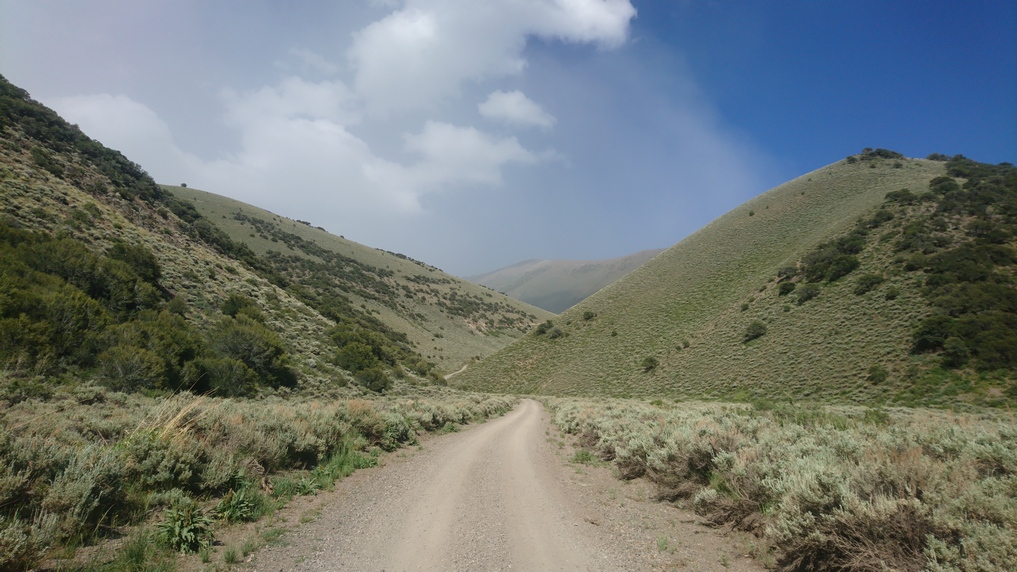
Dust storm approaching. This dust has come from the dried lake bed in Smith Creek Valley, two valleys west
Before the climb up the next pass, I filtered 2 liters of water. Now, I could see dust being blown in from the dried lake to the West. All around me it was moving in, seemingly in every direction.
Now I descended into Big Creek Canyon. The road was still pretty good. I saw a couple of car campers along the way, but just the vehicles parked. No humans in sight. After dropping down from the pass, it seems like the temperature had dropped 20 degrees in 10 minutes. I stopped to put on my wind jacket. With all this wind, a cold front is surely on the way.
At the bottom of Big Creek Canyon, I was supposed to take a right and head up North Big Creek. However, I noticed on my map that there was a historical town marked, called Watertown. It looked to be about a half mile away if I just continue down Big Creek Canyon. Thinking it was a ghost town, I decided to check it out. I was disappointed when I arrived to see absolutely nothing there. It was only 10 minutes out of my way each way, so it didn’t set me back too much.
Now I noticed a large dark cloud that had been parked right over the mountains for about an hour now. But it wasn’t any normal dark cloud, it had an odd look to it. Didn’t look like a rain cloud. The weather was just weird today.
I headed up North Big Creek now. It had been 2 hours since I stopped for 10 minutes to filter water, and 4 hours since I had eaten last. I was overdue for a break. There just weren’t any good places to stop. Finally, I just stopped at a small rock to sit on. I ate dinner here, and realized how cold I was. I put my pant legs on, and added a couple layers up top. I now had my hiking shirt, wind jacket, fleece, and rain jacket on. I also switched from my baseball hat to my warm fleece hat. It felt like it was in the low 40s.
North Big Creek Canyon became more impressive as I made progress uphill. A 4×4 Road off shoots the main road into another Canyon. Here, at this intersection, was a Green Meadow. It was lined with trees. I thought this might be a decent place to camp, so I went to have a closer look. But of course, most of it was wet, lumpy, extremely tall, and provided no cover from the wind. I never camp in places like this, ever. But it was worth checking none-the-less.
On the other side of the meadow I noticed a large rock overhang just up the hillside. It looked too interesting to pass up. It was getting late in the day and I was tired, but it was so close that I had to have a closer look. When I got up there, there really wasn’t much to it. Yes it was a rock overhang, but it was on a good slant, and not to deep. Ok, saw it.
Still looking for a campsite, I continued up the canyon. It was about 7:30. The creek eventually dried up as I gained elevation. I passed through a couple of patches of trees that gave me a glimmer of hope, but I did not see anything close to a suitable campsite. Of course, if I weren’t so picky about my campsites, I would have just stopped in some random field with tall grass and pitched my tent. But of course, this would provide no cover from the wind, which is a big concern tonight.
Eventually I had walked all the way to the top of the valley, and was just below the pass. I had come too far to head back down, so I went up. It was about 8:15 at this point. At the top of the pass, there was a Teepee tent, two horses and several dogs. There was a barbed wire gate here. I stopped at the gate while the dogs went crazy barking at me. I hollered hello a couple of times, but never got a response. I guess nobody was home. I hopped over the barbed wire gate and risked the dogs coming at me. They were actually pretty good about keeping their distance, but they kept barking at me for a half mile. My last GoPro battery had just died heading up the pass due to the cold temperatures, otherwise I would have gotten these events on film. Also, in the distance was a beautiful sunset over the mountains. However, this new view was filled with dark clouds. Looks like rain.
From the top of the pass, I jogged downhill for at least a mile. It was literally a race against time. I had to get downhill before dark to find a campsite, unless I wanted to do it by headlamp. No thank you.
Eventually I reached a spot where the road does a 180 degree turn, with a small patch of land at the curve. This was just above the valley floor. I could hear a ton of sheep bahhing in the near distance, presumably on the valley floor. With the last remaining bits of Twilight, I set up my tent.
Almost immediately after setting up my tent and getting inside, it started sprinkling. Great timing.
Day 29 – June 29th: Toiyabe Range, Birch Creek, Reese River Valley, Stokes Castle
It was actually a very still night. Almost no wind. However, it sprinkled for a little bit right after bed. That didn’t last long. Cold night, too.
My tent was just out of the path of the sun this morning, I was waiting for it to hit my tent but the sound of barking dogs and sheep eventually drove me out of my bed anyway. It was probably closer to 7 when the sun finally hit my tent. The dogs sounded like they were getting closer, and not wanting an encounter with angry sheepdogs, I hurried up and packed things as quick as possible.
At the bottom of the Valley, just below where I camped, there was a creek. However, I wasn’t too eager to filter from it since it was just Downstream from where all the sheep are. And the smell was horrible! So I skipped this water source.
Next, I followed the road for a short ways before my map indicated I needed to climb up hill on a road. This road didn’t seem to exist. So I headed up to Hillside anyway. All of those Terraces I saw cut into the hillsides were actually roads. I hit the first level of the Terrace, and still needed to climb up one more. From the top, looking down, I could see they had a zig zag fashion. I could have just followed a road the whole way up. But, my maps did not show this, it only showed one road straight up the hillside which clearly didn’t exist.
Now following the upper Terrace Road, a large mine came into site. I was on the side that had all of the tailings, which covered an entire Hillside. In fact, I could see a man standing on top of the rest of what was likely the mine. I was going to be walking right through this mine territory, which is private land. However, it’s on a public road, so I shouldn’t have any issues. This was the case. Still, I wondered if he heard me talking to my GoPro. Ha.
While passing through the mining land, there were a couple of sheep on the hillside above me. This was the closest I’ve gotten to any of them. Then the road goes up a couple of Hills. Of course, many of these were steep. This is where it got really cold and windy. It felt like it was in the 20s or maybe low 30s. I couldn’t feel my fingers or my nose. I stopped to layer up again.
Most of the four by four roads went straight up over the hills and they were quite steep. The kind that you could easily slip and fall on, so on The Descent I would just walk through the Sagebrush alongside the road instead. That is, if I didn’t follow a game Trail around the side of the Hill.
All over along the ground this morning were giant crickets, called Mormon Crickets. They are a few inches long and as thick as your big toe. Thousands of them. It must have been their mating season. It was hard to avoid them, a few of them got stepped on, walking under my shoes as I walked.
Eventually I reached my Junction, an even smaller dirt road that veered off the crest of the hillside and took me down to Veatch Canyon. Stopped at the top of The Descent for a quick food break, and a bit of a breather. Took my first gopro time lapse of the entire hike so far here, since there were actually clouds in the sky. Without clouds, there is no motion to capture in a time lapse.
There were some aggressive birds at the top of Veatch canyon. They kept dive bombing me and squawking at me for a half mile or so. The canyon was quite wooded, and the upper reaches featured some jagged outcroppings. Water was barely a trickle at the top, so I had to keep following it Downstream. There was muddy road Crossings though, one challenging one in particular to get around. There was a down tree, and I had to break a bunch of branches and crawl under it on some gravel that kept me from sinking into the mud.
Eventually I reached a spot where I could filter water. Still, it was very shallow. I have only drank about a half liter this morning, and had maybe a quarter liter left. I was hoping to make it into town, just hurry and get there. To be honest I was still feeling a bit out of it, a bit miserable from the cold although it was warming up a bit now. I just wasn’t feeling the same high I normally get when I walk into town.
As soon as I dropped my pack to filter that water, the urge hit me to take my morning shit that I skipped. I was hoping to make it into town. After taking a shit, Filter in a liter of water and eating a snack, I was feeling infinitely better.
The canyon opened up just a short ways after my break. Now, I had a great view of the Reese River Valley. And I began to feel that great feeling that I often get walking into town after completing a section. Still, I had a ways to go. Another hour plus of walking. I reflected on the true meaning of freedom. We talk a lot about freedom in America, but relatively few truly experience the freedom that one feels on a long adventure… no job, obligations or connections to the outside world. Simply wake up and experience whatever the day has in store for you. That is true freedom.
I really enjoyed the walk on the dirt road along the base of the mountains that butt up against the Reese River Valley. There were many mining claims here, past and present.
After a couple miles of ups and downs, and more mining relics, I reached Stokes Castle. This is one of the most photographed landmarks in Nevada. It’s a three story medieval style castle, built in 1897 by a railroad Tycoon for his sons. It was fenced off, but there was a couple of holes in the fence. Of course, I went inside. Who can resist an abandoned castle?
It was a short walk down to Highway 50 from here. Loneliest Highway in America, my ass! I think that title goes to Highway 6, between Ely and Tonopah. Highway 50 was under construction, and the road that I walked out of the Hills took me right into town. Basically dumped me off into a gas station parking lot, with two cops parked talking to each other. The highway was down to one lane, with a construction worker car that would drive through the one lane with the traffic following. Nothing about this strikes me as lonely.
Cozy Mountain Motel was only a block away. Super convenient! As I was reading the sign on the front door, that had my name on it, the door opened. It was Cassidy, whom Sarah, the owner told me about. She is going to be hiking the Washington section of the PCT this August. Inside the extremely small Lobby, we chatted for quite a while. There were many rocks and minerals up on the windowsill, and quaintly decorated. I like this place already.
I’m my room, my two packages were waiting for me, with a personal note from Sarah. She had gone down to Vegas for a few days with her boyfriend, and would not be here. That was a great touch, and made me feel very special. The room was small but very nice. You could tell the walls used to be wood paneling, And they painted them white. The beds had upgraded Linens, same with the towels, and nice vanity in the bathroom. Nice little upgrades that make a big difference, certainly stands out from all the motels I’ve been in Nevada so far.
First things first, took a shower. The color of the tub hid most of color of the dirt I washed off, but of course I knew it was there. I opened my bounce box, started backing up my SD cards, and got wifi going on my phone. Called Dad, got caught up on things.
Cassidy’s shift at the motel ends at 4, and then she bartends at the owl Club down the street. It’s pizza night, so I’ll be there! I walked in just before 5pm, I was the only one there for a while. The first person to walk in the door with an older guy, with a Sonic the Hedgehog shirt on. He was the owner of the place, popping in to check on things. An Irishman, with a thick accent. Pretty comical guy, even if you couldn’t always understand him. The dynamic between Cassidy and him was funny.
The pizza was delicious. And they had Louisiana hot sauce too, which is my favorite on pizza. Almost nobody carries Louisiana hot sauce, so I liked this place based on that alone.
Other people began to trickle into the bar. First was the two surveyors that were also staying at the Cozy Mountain Motel. I saw them pull in as I was on the phone with Dad. They probably overheard me giving The Rundown on the last Section, but they asked what I was doing in town anyway. So I got to tell my story once again. One of the guys was from the Ruby mountains area, and had spent a lot of time in the mountains growing up. Nothing extended, But he was still pretty interested in what I was doing. We talked about rocks, Gold, mining.
Next, a couple of Road workers showed up. They have the reflective vests still on. They were doing shots of Fireball. I commented about how Fireball seems to be the most common liquor bottle found along side of the road, which got a few laughs.
At one point, the sheriff walked in. If there was ever a stereotypical small town sheriff, he looked exactly like what you would imagine. Big guy, probably 6’3″, late forties, khaki colored uniform, aviator sunglasses and a light colored cowboy hat. I’m not sure why exactly he walked in, Probably just out of boredom. He gave Cassidy a little bit of shit about burning some of the pizzas, crack some jokes and then walked out after about 10 minutes. As he was walking out the door, which stays wide open for all to see, a semi truck flew down the street at a speed far exceeding the 25 MPH limit. the sheriff’s reaction was priceless… he stood in this middle of the street with both hands on his hips and said something to the effect of, “boy, I know you didn’t just speed through my town”! After a moment, he ran into his police truck and began to chase after him. Not in my town, boy Classic!
I walked back to the motel just before 9 and continued backing up my SD cards throughout the night, anticipating a long process That I didn’t want to consume the entire next day. I’ll tell you what though, that bed felt amazing!
Day 30 – June 30th: Zero Day in Austin, NV
On the chair outside my motel room, Cassidy had left me two breakfast burritos, AND a bottle of Louisiana hot sauce. So thoughtful! As I ate them on the motel porch outside my room, There were several chickens in the parking lot, and they were begging for my food. Sarah The owner keeps the chickens here, and has about 30 more across the street. They hang out in the parking lot pecking away At whatever they can find. They use them for eggs, and the plan is eventually to harvest the meat. Although Cassidy says Sarah probably won’t be able to go through with it, as all the chickens have names now. I had a few crumbs left on my plate, which I donated to the chickens. They eat bacon and even egg, apparently!
Most of the day was spent doing chores, mostly dealing with the Micro SD card backups. I started going through the video footage, because I couldn’t resist. Good stuff. But also, I wanted to make sure that all of the footage was indeed backed up on my WD Passport hard drive. Since I had no idea which cards were which, it was hard to verify that no data had been skipped. So I began to organize it all… created folders for each section, then moved all of the Footage Into the appropriate folder, verifying that no date had been skipped. When did the same with all of my Still photos. Then backed up my Garmin GPS. Then my cell phone. Then moved all of my Photos and everything else that was on my Phone’s SD card Over to a larger SD card. The 32 gig card with almost full, So 64 gigs should do it Until the end of the hike.
I guess it should come as no surprise, but on my zero days I find myself very tired. Not physically tired, but sleepy tired. I could barely keep my eyes open as I worked through my photos and videos. I spent pretty much all day on this.
Washed my clothes, and found the leak in my thermarest air mattress. I filled up the bathtub and dunked the air mattress. There was a pinhole leak on the bottom of the mattress, probably why it was so slow to leak… weight presses down on the hole, causing it to leak very slowly. I used my patch kit from my bounce box, so I still have the one I carry with me while hiking.
I had planned to go up to the Owl Club for dinner but just felt like staying in. Terminator was on TV, so that played in the background well I did other chores an updated my journal. I ended up going up to the gas station to pick up a chicken sandwich and a bag of chips. I had my neck gaiter on for a covid mask, and As I was walking out, the sheriff walked in. He made a joke with the guy behind the counter, asking if he was okay, if the place is being robbed. Kind of a ballsy move, but I used my hand to make a pretend gun and pointed it at the sheriff, which got a laugh from him. Man I love Austin.
I had planned on leaving tomorrow, to head to Eureka. However, it’s only 91 miles, I only need four days for that. I had originally told the Sundown Motel and Eureka that I would be there on July 6th. If I leave on July 1st I’ll get there the 4th, and I know there won’t be any hotel rooms because Eureka just a big July 4th event. So I called the Sundown motel and ask them if they have availability for the 5th, which they do. So now I plan on staying in Austin until the second, and arriving the fifth in Eureka. That makes sense.
Day 31 – July 1st: Zero Day in Austin, NV
When I woke up, I went outside and on the chair outside my room on the patio was another breakfast burrito plus the box I was expecting, containing my two new Anker battery packs. The one 20,000 mAh battery I am currently using is not enough to keep my electronics charged through a full section.
Today was mostly more town chores. It’s amazing how long this stuff takes. Charge the new battery packs (like 12 hours), clear micro SD cards, save Caltopo layers to cache, post office etc.
Sarah, the motel owner, returned from Vegas today, so I finally got to meet her. She had hiked the Washington section of the PCT and the El Camino Trail.
Went up to the owl Club for dinner with Sarah and Brandon, her boyfriend. Cassidy was cooking chicken wings this evening. Sarah suggested we go to Spencer Springs tonight, but I mentioned that I was hiking there tomorrow and camping there. So she said she would come by tomorrow night, and we can have a soak. Perfect!!
Basin and Range Trail Thru Hike 2020 – Section 3: Tonopah to Carvers
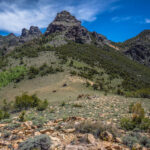
Basin and Range Trail Thru Hike Section 3 Map
Video: Basin and Range Trail Thru Hike Section 3
In addition to this trail journal, I also filmed my Basin and Range Trail thru hike. I’ve produced a detailed documentary series (11+ hours runtime) documenting this thru hike adventure, the product over over 1,000 hours of video editing. I highly recommending watching the Basin and Range Trail vlog series for an in-depth look at thru-hiking the Great Basin and central Nevada.
Basin and Range Trail Thru-Hike Section 3 Journal
Day 17 – June 17th: Big Sand Springs Valley
Slept into almost 9am this morning. It’s been great getting rest, but I’m getting antsy. First thing I did was check the tracking number for the shipment of SD cards I’m expecting today. When I went to bed, it was in Memphis Tennessee. Now, it’s in Las Vegas. That was as of 7 am. Prospects look good, I think I will get out of town today.
Very cold morning, wind was whipping 35 + miles an hour last night. Walked up to the Mizpah to get a couple of haunted muffins for breakfast. Last night, Jennifer at the front desk was telling me about some of the ghost encounters she had there, as the hotel is supposed to be very haunted. Apparently she saw two of the muffins move, literally switch place. Haunted muffins!
Went into the Western store to talk to Paul, the owner. I wanted to let him know that I’m expecting my package today and Didn’t want to come in last minute and say, hey I need a ride. He told me last minute was actually best, so I told him I’d come back in when I received the package.
My package arrived around 1pm. Next I ran up to the Western store. I’ll let Paul know that I’m ready for a ride anytime. He got on the horn and called up a woman named Patty, who was there within minutes. While waiting for her to arrive, I ran back to the hostel to finish packing up my stuff. I called Mickey at the jumping jack motel in Carvers to let her know my new ETA. Then I called Dad to update him on my ETA, and let him know I was expecting a package shipped to the house. As soon as that arrives, a new GoPro audio adapter Mount(which broke on the last section), throw it into my bounce box and send it to Austin.
Ran back up to the Western store, and on my way Tony saw me walking by and came out of the building he was working on to say goodbye. I thanked him for everything, the conversations and the Jewelers Loupe. Great guy. Goodbye friend.
I met Patty And we chatted about rocks and such for a few minutes before we jumped in the car and took off. After a quick stop at Burger King for lunch, we hit the road.
Patty was 50 something, and a bit of a Chatterbox. No problem, I like the conversation. We chatted about rocks, hunting, wild animals and such. The 80 Mile Drive went by pretty quick. I guess that’s because she was going 75 miles per hour, and Matt was going about 45 or 50 the whole way when I got my ride in from lunar crater. Of course, he had a homemade wooden camper thing bolted to the top of his Suburban, and he was likely worried it would get ripped off the roof. From the looks of it, I can understand why he drove so slowly.
Once we got to the spot on the road where my next section begins, she pulled over and turned the car off. We got outside and she began to show me some of the rocks she had collected, sitting in her back seat. And then, we started looking at the rocks alongside the road. Here, we both found a couple of pieces of petrified wood, and I found a piece of Wonder Stone. Pretty cool!
I asked Patty how much I owe her for the ride. She said nothing, but I insisted to at least pay for her gas. We said our goodbyes and just like that I was on my own again. It’s amazing the feeling you get when your ride drives away and it’s time to walk again. Like flipping a light switch, life changes from easy mode too hard mode.
My task now is to hike off-trail across Big Sand Springs Valley over to the Hot Creek Range. I only took a few steps from Highway 6 before I saw a road running parallel to the highway. It was a black top Road, with Sagebrush growing in between it’s cracks. It’s funny, I thought of Highway 50, loneliest Highway in America. Surely this one is a bit lonelier.
The terrain here was, you guessed it, Sagebrush covered basin. Just feet from the road, the interesting rocks fade away. Everything looks the same. The ground is mostly soft sand, with occasionally slightly harder packed ground. Morey Peak can be seen in the distance, the obvious high point. That’s where I’m going.
The first hour and a half was rather boring. This should be expected as one leaves the highway. Then I approached a small set of Hills. I could walk around them or over them. I chose to walk over them, not over the highest point but one of the lower saddles. This was good enough to get a bit of an elevated view without needlessly expending too much effort. Of course there were cows in the area, and a few bulls.
Coming down out of the Hills, I was looking ahead at the terrain. It looks very flat for a while, with no hills or rocks or anywhere to hide from the wind. While it wasn’t too windy, I really didn’t want to have the wind battering my tent all night. I could have stayed here in the Hills, but they didn’t provide much protection either. So I headed out into the open desert to get a few more miles in before sunset.
Eventually I found a small clearing in the Sagebrush, slightly higher than the surrounding Terrain. I decided that I would cowboy camp tonight. Less issues with wind, quicker to set up and I can see the Stars. I haven’t seen much in the way of bugs, and still no snakes or scorpions. I could tell it was going to be a cool night, which means they will not be out tonight. So a good night to lay on the ground!
I sent up camp in the shadows of Morey peak, with an awesome orange glow on the horizon.
Day 18 – June 18th: Big Sand Springs Valley, Morey Canyon, Hot Creek Range
It was a calm night, and cold. Bright stars. It was 38 degrees when I woke up.
Continued hiking cross country towards Morey Peak. Deep sand, pain in the ass but could be worse. I’m hiking closer to the base of the Hot Creek Range now, paralleling it, looking for my way up.
Found water along the road in 6 large plastic tubs. No spring or piped water, must have been dropped off by water truck. So this location is not reliable. Crossed the road and continued hiking cross-country.
I was shooting for a pipeline on the map, but it ended up being a dirt road. I followed this all the way to project faultless. Faultless was the site of an underground nuclear test in the 60s. A shaft was drilled 3300ft down and a nuclear device with a yield of 1 megaton was detonated here. Apparently the site is safe to visit.
When I approached project faultless I only saw three white markers, like an obelisk, with signs on them that said not to dig or excavator because the soil was petroleum soaked or something. I scanned the Horizon and about 100 yards away I saw the tube I was looking for.
A nuclear device with a yield of 1 megaton was detonated 3200ft underground here at Project Faultless
Project faultless doesn’t really have much do offer. However, it is a unique piece of American history, in that it is one of only two sites in the United States where a nuclear bomb was detonated underground. The other being project Shoal. Project adiago was about 2 miles away, they would have dropped another bomb there but there was too much seismic damage here from Faultless. I skipped that Adiago since it was out of the way.
The shaft that the nuke was dropped down into was originally flush with the surface, but after the explosion the ground in the area sank 9 feet. I thought this would be a good lunch spot, leaning against the exposed shaft in the shade.
After leaving the test site, I followed a road. This turned up a canyon, and quickly the road dissipated. Back to Bushwhacking. There was a small Creek that flowed alongside the road. This makes for thick vegetation. The road was intermittently decent. Eventually I crossed the stream and followed another road out of the wash. I believe there was a road running all the way up this Hillside above the wash this whole time. This would have been a better option. It was wide open and offered good views, and was not a bushwhack.
Next I entered Morey Canyon. There was a small Green Meadow here with a couple pools of water, but of course, lots of cow shit. Such a bad smell for a beautiful area. Uphill from here there was remnants of an old mining camp. Mostly just a stone Foundation.
Farther up the canyon I could see a few abandoned buildings, but they looked a bit newer and better condition. Sure enough, these were a bit more modern, one even had wallpaper and drywall inside. But, the roof was caved in and walls were buckling. That was the first house.
Across the road were three more abandoned structures. The first one had a door that was closed, and an exhaust pipe from a wood-burning stove protruding out of the wall. I opened this one and saw a chair facing me in the middle of the room, with two beds alongside the wall. A creepy vibe, but I quickly realized that this was a little cabin that was open to anyone who could reach it. Not unlike some of the cabins I saw on the CDT. Still, I wouldn’t stay in this one, it was pretty dirty. There was a dead mouse inside the wood-burning stove. Writing on the wall, and I recognized a couple names… Otteson. They own the turquoise mines in Tonopah. I utilized the chair and the shade to take a little break. This was nice, a bit of Comfort if you could call it that.
Next the road climbs out of Morey Canyon. The road here was surprisingly good. I saw another cabin or two on the way up. Good views as I gained elevation. Eventually the canyon reaches a high point, and then the road follows North Canyon. I found a spring here alongside the road that was not on the map. It was guarded by Thorn bushes, but I found way around. I stopped here and filtered some water. I discovered I have a leak in my platypus bag, where it folds on the bottom. I attempted to fix it by patching it with a piece of dyneema, which only slowed the leak. Still, this patch was good enough to last the rest of the hike.
Next the road becomes steep. And top of that, the crazy ants were back and wouldn’t leave me alone. So I kept moving, and tried not to stand in one place for more than a few seconds.
North Canyon views
When I reached the point where the road ends on the map, I was surprised to see it continue all the way up to a saddle. Great views on the way up of North Canyon and beyond.
Even better views from the top of the pass. Here, the road splits. I took the one that heads over towards 6 Mile Canyon. These roads were not on the map! I was really happy to have a road to follow, and even happier with the extremely beautiful views. Rolling Green Hills, rock spires and outcrops.
Eventually my road splits off, towards Morey Peak to the left and 6 Mile Canyon to the right. Even though I’m going left, I couldn’t resist going right, just to have a look. The road quickly turns into a trail, but again, not on the map. Most likely, horse trail. The Trail passes by a Rocky outcrop, a Jagged knife Edge covered with orange lichen. So of course I checked that out, climbing out on it and such. Then I went up over the little pass over Devils Cave ridge. Excellent views of 6 Mile Canyon. I would be happy to hike here, if I hadn’t already decided to bag Morey.
I made my way back down to the Road that heads towards Morey Peak. This too quickly turned into a hiking trail. I’m not sure how long this Trail will exist, but in the meantime I’m happy to have one. I took a break overlooking a canyon, ate dinner, and was happy to see the trail continue along the hillside to the next saddle.
Made it to the next saddle and was then blown away by more excellent views of Nevada wilderness. The Fandango Wilderness and the monitor range in the distance, the Sun creating a hazy effect. Absolutely gorgeous. And the Trail persists!
I’m looking for a campsite now, but being picky. I want a great view, I just don’t see a good clearing for my tent or to Cowboy camp. So I kept going.
The great views continued and I was moving rather slow. That’s okay, this has probably been my favorite part of this entire route so far. Even better than the views from the grant range. Ok, hard to compare, and why bother? Some great miles to be hiked here.
I went up many small Hills and each time I was disappointed to not find a campsite. So I continued on. The sun was setting soon, so I kept walking. I crested another saddle, this one had a flat spot that I could have camped on. But it was a bit plain looking. I so once again I kept going. On the other side of this saddle the Sun was no longer shining here. It was approaching 8pm when I finally I found a spot that I liked. A Little clearing in the Shadows of Morey Peak, highlighted by the last fading rays of sunlight. There was also an overlook of Big Sand Springs Valley, where I came from earlier this morning. A couple trees around, and did not feel too exposed. Good campsite.
I’ve had a lot of these moments on this route, where I thought I was going to get stuck with a crappy campsite but ended up with a really nice one. Unlike the CDT, where just about every night seemed like a subpar campsite.
Morey looks intimidating from here, and I’m unsure about my route down in to 6 Mile Canyon. It’s probably going to be another cold night, so I have my tent set up and a little extra clothes on.
Day 19 – June 19th: Hot Creek Range, Morey Peak, Sixmile Canyon, Fandango Wilderness
Slept pretty good last night. Got up at 6:15, when the sun hit my tent. Great views of Morey peak. Not as cold as I was expecting./
Left camp and continued to follow the Trail towards Morey Peak. The trail is much more faint now, and fading quickly. There were really no big climbs, only small ones to little saddles and ridges. Each one provided an excellent view. Beautiful blue skies, no wind. Perfect day to Summit a peak.
The rest of the route was fairly easy. No real exposure, not too technical. A couple of spots with some loose rock and a few short sections of scrambling. A couple of bristlecone pine trees could be found on the saddle just below the summit. These impress me, their massive size and incredible age.
After a couple of false Summits, the final Summit block of Morey Peak was in view. Like many of the cliff faces around here, it was covered in lichen. Orange and Neon green. This contrast always makes for a great photo.
A short scramble with minimal exposure brought me to the summit of Morey Peak, the high point of the Hot Creek Range at 10,246ft. Woohoo! Absolutely incredible view. I reckon a 125 to 150 mile View, based on the fact that I could see what I think was wheeler peak in Great Basin National Park. I had measured that at 100 air miles away from the ridge I walked along the grant range, and now I am a few ranges even further away. There were three usgs Summit markers but no Summit register. No summit register on the high point of an entire mountain range? Ok, Nevada. I guess with 310+ mountain ranges, not every range high point gets a register.
I spent about 30 minutes on the summit. With the effort it takes to get here, a break is well deserved. Again, absolutely incredible views. Surrounded by mountains as far as the eye could see. I could clearly make out the route I walked all the way from the Quinn Canyon range. I love the way the light Reflects off the dried Lake bed of lunar Lake. Morey Peak was one of my favorite summits along the Basin and Range Trail.
Now it was time to get down off Morey Peak and continue on my route. I think most people who climb this peak come in from Morey Canyon and then North Canyon like I did, then backtrack the way they came. In retrospect, that’s what I should have done too. Instead, I chose to go down a random Canyon. So I descended the summit, which was rather steep and loose, and headed for said Canyon, having picked the one that looked the least steep from my map.
When I reached the top of the saddle where I would drop down into the canyon, I could tell it wasn’t going to be easy. It looked steep, but better than Willow Canyon, more wide open and less vegetation. Still, it was slow going. I was mostly following a dried Creek bed.
It was slow and tedious but I was making decent progress. That is, until I reached a point where I had to jump from one small Creek bed over a little hump into another small Creek bed. This is where it got really steep and even slower. There was more vegetation and awkwardly stacked boulders creating small but cumbersome obstacles.
Then I looked at my map and realize this was the point I needed to begin to Contour around the mountain side. Unfortunately, it was extremely thick vegetation. There were no game trails. Sometimes it would take a few minutes to go 10ft. When you look at it, it does not look humanly possible to Traverse it. Sometimes I was crawling on my hands and knees, but most times I simply had to break branches to clear a path in the direction I need to go. Another nightmare bushwhack, exactly what I was fearing.
Fortunately I only needed to go about a quarter mile. Still, this was extremely exhausting. I walked away with a couple of cuts on my legs and hands, the ones on my hands from breaking branches. A good set of gloves would have been really nice. Finally the trees thinned out and I made my way to the saddle I was aiming for. Climbed to the top of a High point and took a while deserved break. Ate lunch and fueled up for the next section. Great views looking back up at the Morey ridgeline. Truly outstanding views, actually!
My original plan was to walk down the valley, but after this latest bush whack, I wanted nothing to do with it. Instead, I followed a Ridgeline above the Canyon. This had a decent game trail running across the top. At one point progress slowed because of a steep descent. I had to Contour around the hillside to meet up with another Ridgeline.
I followed the Ridgeline all the way down in to 6 Mile Canyon. Before reaching the bottom, I could see a four-wheel drive Road running up the canyon that I Originally wanted to walk. You never really know if a 4×4 road on the map here in Nevada will actually exist on the ground. The road was only visible on the lower reaches of the canyon, plus it was a bit steep to get down to. Thus, I stayed on the Ridgeline the whole way.
Down in 6 Mile Canyon, I found water almost immediately. There is a creek running downhill, and the road running through the canyon crosses it several times. However, there really weren’t any good collection points. It was shallow and it’s banks were covered with thick and thorny vegetation. I kept walking uphill towards 6 Mile Summit, hoping for a better spot to collect water from.
There was a section with some beautiful blue wildflowers just completely covering the ground. Before the summit, I found the source of the spring. Probably best to collect from here since there was a lot of cow activity Downstream. Just like everywhere. Even here it was a bit difficult to collect water, but I made it work. It felt great to wash off a bit in the Stream after that horrendous Bushwhack!
Walked up over Six Mile Summit and dropped into a new Valley. Not incredibly impressive, certainly a better view from above… This is the spot that impressed me last night, right before I began the walk along the Ridgeline to Morey. I had spent almost an entire day hiking a big semi-loop, just to bag Morey Peak, and have only made about a mile of forward progress along my route. Still, it was worth it. There were many green Meadows along the way as I made my way downhill. Also, many horses. Saw 7 or 8, including a pony, in the upper reaches. There were seeps and springs forming a couple of small creeks. Farther down, I saw another five or six horses. I even saw large clumps of horse hair on the ground.
Then I left the main road and headed up hill into an unnamed Canyon. This too was pretty green. The middle section of the climb was extremely Lush. A spring formed a small Creek, with lots of trees. Beautiful stands of Aspen. Again, the ants were quite a problem. I could not stand still without getting bombarded. So I made my way up hill quickly. When I emerged from the thick Lush area, above the spring, I saw another five or six horses. I scared them up over the pass that I was headed for.
The pass itself didn’t have much of a view. The view looking down into the canyon I was headed into was nice, but not blow you away nice. I followed a game trail downhill, probably built by horses. This Upper Canyon was Pleasant, a different vibe then some of the other mountains I had been too. Not too Jagged, kind of a Rolling Green look.
I followed a drainage down to the upper reaches of this Canyon. Here, a horse was getting a drink from a spring. A creek flowed through the canyon. Lots of water here, and all around this afternoon actually. The upper reaches of this Canyon was really nice, very green.
Now there was a 4×4 Road to follow. I enjoyed the walk downhill, as The sun was getting lower in the sky and the temperatures were pretty mild. A relaxing walk.
Followed another dirt road out of Big cow Canyon, over to Little cow Canyon. I found a flowing Creek here. It was 7pm, so I stopped to fill up water and eat dinner. Filtered 6L. Chugged one with dinner and took 5 with me. I’ll chug another with breakfast, and that gives me 4 liters to make it out of little cow Canyon and across little Fish Creek Valley tomorrow.
I only walked another half mile before setting up camp. I found an interesting colored Sandy hill to setup on. It was now about 8:15, sun was going down. Feet were a bit tired today. Also, feeling like I’m a little short on food for this section.
Day 20 – June 20th: Little Cow Canyon, Little Fish Lake Valley, Clover Creek
Woke up around 6:30. Followed the road downhill until it disappeared. Then it was off Trail, following a creek bed. This Dry Creek bed hit a junction with another drainage, which did have water. Then I followed that Creek downhill.
I’m in Little cow Canyon now. Map shows a box Canyon for a short ways. I could see the entrance, some rocks and Cliffs, a small cave. It was really nice. There were a couple of pour offs, but in the 10 to 20 ft range and climbable. Not crazy thick with vegetation. Pretty enjoyable walk, actually.
After passing the narrow part, Little Cow Canyon opens up again. There were decent game trails to follow most of the way. None of this was very difficult. What a relief!
The lower reaches of Little Cow Canyon where less impressive. When I finally exited the canyon and entered Little Fish Lake valley, it became obvious it was just one Branch of a large Network of alluvial fans. The road I had followed out of the canyon disappeared, and I was left on my own to hike cross country. I know there is a private ranch in the valley that I must walk around. Unfortunately, it runs North and South through the valley for quite a ways.
I walked across the ups and downs of the alluvial fans, staying near the trees as much as possible. Found a great place to take a break overlooking the whole valley. Couldn’t really see anything going on down there. Once again, I felt like the only one live, last one on Earth.
Eventually I approach the ranch. I was on a pretty solid road, and I was hoping it would pass right through the ranch. Like an access point to public land. Fortunately, I hit a fence line. The road appeared to be only usable by the ranch, even though it was on public land. So now I had to decision to make… Hike north or south. Either way I have to walk around the ranch. It would have been a shorter hike to hike North, but it would have been out of the way. So I opted to hike South, the direction I need to go, and hope for a road that passes through the ranch, like one for public access to the hot Creek range and Fandangos.
The hike along the ranch sucked. Fence line as far as the eye could see. And to make matters worse, it was the finest possible type of sand. Not even sand, each foot step created the finest dust cloud imaginable. I later learned a better term for this type of soil poof dirt. Before long my shoes were full this fine powder. Every time I thought the fence line was going to end, it’s simply turned in a different direction. I followed the fence line for about an hour and a half.
I went up over a hill and saw that the fence line continued to the horizon, as far as I could see. Unfortunately, the road that I want to take into the monitor range was directly west of me right now. There’s no way I’m going to hike miles out of my way just to go around this stupid Ranch. The ranch itself, and all of the cow activity, was further north. With nothing in sight, and only about half mile to cross the open ranch land, I decided to hop the fence and go for it.
The first little ways, I was walking behind a bit of a hill, pretty much hidden and out of sight. The final 2/3 or so we’re a little bit more out in the open. However, there was a road that runs right towards the main road running perpendicular to it through the valley. The Sagebrush was tall, maybe about chest height. I walked very quickly and kind of hunched over a bit, hoping to stay hidden from site as much as possible. Realistically, I was pretty far south of anyone that could see me.
When I reached the main road running through the valley, there was no fence line like there was separating the public land side on the hot Creek range. I crossed the road and continued West along another road that leads into the monitor range along Clover Creek. Pass through a gate, should be on public land now.
Follow the road up ways, towards a spring I had marked on the map. There was a mother cow and calf on the road. The mother ran away, and the calf stayed. I continued my course, walking the road. All of the sudden, the calf started to charge me from about 100 yards away. It ran at me and only stopped 10ft away, as I was yelling at it and waving my arms. It was kind of weird, I’ve never had a cow charge me like that, especially not a calf. What’s gotten into that one?
Walked up to the spring, which was dry. Actually, there was more than just a spring here, there was an old cabin. It was more like a trailer. However, it had signs of recent use… The window was open, only guarded by a screen. The deck had been replaced at some point, and had newer screws in it. I could see through the window, and there were shelves that were stocked with a few items, a modern lighter sitting on the table, etc. I yelled, anyone home? No response. It looks like the type of cabin that’s open for anyone to use since it’s on public land. I tried to open the door, but it was blocked from the inside, I think something was sitting on the ground right behind the door. The door was basically falling apart as I tried to open it, so I’ll let it be. There was an old wooden outhouse stocked with toilet paper. Clearly people have been using this, like this year. There were also some recent tire tracks leading up to the place. Either way, not much for me here, especially if I cant get inside.
After leaving the cabin, I begin to feel a bit off. I was feeling really hot and really thirsty. I only had 1L water left, and not sure of my next water source. I was beginning to get a bit of a headache as well.
The lower reaches of Clover Creek canyon were a bit boring, not unlike many of the other ranges. The lower elevations of these mountain ranges are usually not super interesting. I passed one spring on my map that I had marked dry, and I found it dry. However, there was insanely thick Willow and Thorn bushes along the creek.
The next spring was a couple of miles away. Before I can reach it, I found a flowing Creek along the side of the road. I kept following it up stream until I found a good spot to take a break and filter from. I was really happy to have found water here, I wasn’t feeling my best. I took my shirt off and begin to splash water in my face arms and cool off. This alone felt amazing. Then I filtered a couple liters, chugged two. I left this spot with only one liter, once again rolling the dice that there would be more water Upstream. I never considered myself a gambling man until these last couple weeks.
Sure enough, there was plenty of water Upstream. There was a couple of times where it looked like the road was going to fade away, but it was only a short section with tall vegetation, and then the road continued on in good shape. Eventually the canyon opened up a bit and the High Country of the Monitor Range was now visible. The views were getting better and I was starting to get excited about what lies ahead.
The road eventually stops at a point where it crosses Clover creek. There were several nice campsite here, but not nice enough. Ha! I could tell I can afford to be picky here. There were some Jagged rock formations up ahead, this is what I was shooting for. A foot path continues on from here, through some very thick stands of Aspen, Willow, and Thorn bushes. Very thick! Good thing for this trail.
Made it into an open Meadow along Clover Creek that was quite Majestic. The centerpiece of the meadow featured a Jagged Sawtooth-looking rock formation. Behind that, Rolling Green Hills, with the sun behind them. Behind me, the way I came, was another large rock formation. Everything about this little Valley was breathtaking. Except, when you took a breath, it smelled like cow shit. Cow patties as far as the eye could see. I am beginning to notice a pattern of cows in the higher elevations of these Nevada Mountain ranges.
I had to clear several piles of cow shit to make room for my tent. The entire Valley was basically trampled, no green grass, just brown dirt. Only near the spring was there a small patch of grass. I set up near here. Excellent views.
It was a real luxury to have a water source so close to camp. I was able to soak my feet and clean them properly, clean my socks and Gaiters. Filtered a couple liters and rehydrated. Big climb tomorrow up to the crest of the Monitor Range. The views are going to be awesome!
Day 21 – June 21st: Clover Creek, Monitor Range, Table Mountains Wilderness
A large animal was heard walking near my tent last night. My guess is, horse. I yelled a few times, then got my headlamp on and got out of the tent. Didn’t see anything.
The first bit of hiking this morning was okay. Pretty much the same as always, Sagebrush, cow shit, some trees to dodge. Nothing too crazy, nothing too steep. That is, until it got steep. Its 2000 ft climb up to the top of the crest now.
My GPS map had a trail marked, Clover Trail number 24052. How funny, you can count the number of trails in Nevada on one hand. They certainly don’t have 24 thousand. Either way, the trail did not exist. I followed its general route until I decided to leave it for a route my eyes saw as the way.
I encountered my first rattlesnake of this hike this morning. It was about 10 ft away under a Sagebrush. I was just shy of 10,000ft in elevation here, not exactly where I was expecting to see this snake, either. Got to keep an eye out now I guess!
Final route to the top of the Monitor Range. I’ll climb right of the cliffs, but a thicket of Aspens stand in the way
Just below the top, there were a few stands of Aspen to work through. Somewhat thick, and on a Steep slope. There were a few false Summits along the way to tease me, of course.
Crest of the Monitor Range, view east into Clover Creek, Little Fish Lake Valley and the Hot Creek Range
Finally, I climbed over the highest ledge and found myself on a massive flat plateau at 10k feet. I’m now on the crest of the Monitor Range, and have entered the Table Mountain Wilderness. Great View, and it felt great to be done with the big climb. Much more climbing to be done today though as I hike the crest of the Monitor Range north.
The first bit of walking was a long a Cliff with excellent views. Then the route veers away from the edge. Here it was a bit of a depression in the plateau, and it was filled with Sagebrush. Hard to believe this is 10,000ft. There were some rather large stands of Aspen on the plateau as well.
Found a very old and faded 4×4 Road, which today serves as the trail here. It was heading up Hill, the kind of ascent where you can’t see anything except the hill and the sky. Kind of reminded me of Colorado, the section in the San Juans with the Colorado Trail High Point.
Soon I would have my first views of the Toquima range to the west. A little snow on top, but not much.
Then, awesome views! Here, there was an excellent vantage point over the route I had just came up, as well as back towards the Fandango Wilderness and the hot Creek range on the east side of Little Fish Lake Valley.
Next was the first real high point at 10500 ft. I stopped here to check for cell phone service, but again, no. It was really windy now. Stopped here and ate lunch.
The rest of the afternoon was an enjoyable walk along the ridge with similar views. The east side of the Monitor Range crest had the steepest drop offs, while the west side was rolling hills. Small patches of snow could be seen just below the crest in a few spots, but not many.
Next I summiting Danville Mountain, the high point of the Monitor Range at 10,888ft. This wasn’t much of a summit, just barely higher than everything else. Still, a cool view over a steep, twisting ridgeline.
Now its time to drop down into North Fork Mosquito Creek. I could see there was a lot of thick vegetation ahead and likely, bushwhacking. I opted to follow a Ridgeline down, hoping the south side of the Ridgeline has less vegetation then the north. I was correct, but there were still bushes to be whacked.
My route took me straight into the thick aspens. Instead of continuing along my route, I noticed a game trail that seem to be skirting around the edge of the trees. Good call, game. This took me around the aspens and led me to a foot Trail. I followed this trail through the Aspen trees, bewildered that a trail on the map actually exist on the ground. A rare moment on the Basin and Range Trail.
Looking back at the route I cam down, through the aspen trees. I would not have thought that was a good route had I been hiking up.
Followed the trail to a spring. However, I missed my turn, I was supposed to cross the creek a little earlier. So I back tracked, assuming the creek would still be flowing when I crossed it. It took me awhile to find my way down to the creek and find this Trail, but when I did, the creek was dry. I could backtrack to where the spring was, but decided to roll the dice and walk another 2 miles to another spot where there could be water. Gamblin’ man, at it again.
The trail became faint pretty quickly after leaving the creek. Then it disappeared. I got off track a couple of times, but eventually made it to the next spring. This whole Creek bed was dry. However, I was on a good horse Trail now. I was also a bit off my route. I followed the horse trail a ways, and then decided to go further off my route to another spring a mile away. Along the way, I stopped to check my map. All of the sudden I heard something in the bushes behind me, maybe 15 ft away. It was two fawns, and their mother… They were bedding down and apparently I scared them. In the process they scared me pretty good!
Not long after, I was on my way to the spring when I saw a small buck in the wash. Cool. Not long after this, I found myself at the spring. There was water, but it was covered in clovers and green plants. So I followed it Downstream. Here, I saw a couple of big bull Elk drinking from the creek, just beyond a downed tree. There were four of them, and one had some pretty massive antlers. I watched them for a minute, before they got wind of me and ran away. Water is all mine now!
Filtered four liters and ate dinner. Feeling much better now, I decided to keep walking. It was 7:30 now. I could have camped in this little Valley, there was a Green Meadow. But I was wanting to get back on my route. I hadn’t seen any campsites all day, and definitely not within the past 30 minutes before reaching the spring. Still, I rolled the dice and moved on.
The flattest, clearest place I can find. Still, not large enough for a tent, will have to make it work
I was feeling pretty good for the first hour. Sun low in the sky, some food and my belly and water and my stomach. It wasn’t long before the pack Trail on the map I was following disappeared. Now, I was on a sloping Hill, working my way around to another hill with a steep slope. My maps indicate a pack Trail here, so that’s what I’m heading for. Unfortunately, I didn’t see it when I got there. Sun is going down, and I have nowhere to camp. It was so thick here, nothing remotely clear or level. I ended up hiking back up to the crest of the Monitor Range again. Even here, I barely had a place to put my tent. I was forced to uproot a couple of sagebrushes in order to make room for my tent, and just barely. The sun had long set, but the alpenglow lingered over the hot Creek range in the distance.
Day 22 – June 22nd: North Fork Mosquito Creek, Monitor Valley, Pine Creek, Tqouima Range
Horse trail going over the crest of the Monitor Range, looking east. I placed my tent on top of this “trail” last night
Didn’t sleep as well as I had hoped last night. I woke up with a headache, neck tension. Feeling pretty rough honestly. Pretty whooped from yesterday. Not much wind last night which was good. Its always a gamble when camping up high on a ridge or saddle. Also, the sun was on me right away since I was pretty exposed up here.
Checked my maps in the tent this morning, trying to figure out the day. First plan is to look for the trail that I could not find last night. After leaving Camp, I followed a game Trail from the saddle down a hill. The game Trail faded quick. I put around the hillside looking for the trail on the map, but gave up. It was really Rocky and sometimes thick with trees.
I started hiking back towards the way I came last night. This meant contouring around a steep Hillside. There wasn’t any trail for this section either. My thinking was, head back until I found one of the trails I was walking last night. From there, I remember seeing a horse trail go over a hill and heading downhill towards the valley. This was an option. Also, mosquito Creek. It looked big enough to where there might be some sort of Trail, although none are marked on the map here.
I started walking towards the hillside that I would Contour around, and realized I needed to gain some elevation. I began to look around and noticed that the vegetation wasn’t insanely thick, it looks like there were narrow paths in between it. I started thinking about game trails, and how animals always seem to have the best route up and down things. So, I decided to just head down hill even though there was no Trail anywhere near here on the map. Technically, the trail I wanted to find last night and this morning was parallel in my path downhill, but on the other side of a ravine.
I worked my way down hill for a while, just weaving in and out of vegetation. Eventually I noticed my path was taking me towards a spring. When I reached the spring, I was surprised to see an actual Trail leading towards it, and away from it on the other side. I stopped to filter water here. I had to dig out a hole to dip my bottle into. Actually, the whole Creek was covered with a clover-like Vine or something. I cleared out the vegetation, then moved a few rocks, then dug out a small hole. Eventually I had a nice little pool to dip my water bottle into. I was pretty thirsty, feeling like I have been always running just a little on the dehydrated side.
I was extremely relieved to be on an actual trail now. It had been maintained too, a wide path cut alongside it, branches cleared and everything. Nothing to do now but haul ass downhill. I had been worried about making it to Carvers at the end of tomorrow, and now this Trail gives me a sporting shot at it.
Soon I was approaching the valley floor. The Toquima range loomed in the distance across Monitor Valley, with a few patches of snow along the crest. But my immediate surroundings were, you guessed it, Sagebrush. And some of it pretty tall too. I was surprised to see a flowing Creek flowing across the valley. It pooled up at a road Crossing. Almost wanted to jump in and wash off, but it wasn’t quite deep enough. Besides, I can do that when I finish crossing this Valley, at the Pine Creek Campground.
Walking across monitor Valley wasn’t too bad. I had a nice road to follow most of the way. I passed one Ranch that looks abandoned, if it weren’t for all the cows. There was another one in the distance. I took a break under some sort of old wooden bridge. It was nice to get out of the sun, this was literally the only shade across the entire Valley. Today felt a little bit hotter than the last several days, but nothing unbearable by any means.
The campground was pretty nice. I was very impressed with the size of Pine Creek, definitely the biggest Creek on the route so far. Campsites along the river, picnic tables, Grill, toilets. The creek had a bunch of rocks built up in a way where there was a pool that one could swim in, or at least soak in. Very tempting!
Took a break here at the campground. Enjoyed a picnic table in the shade, filtered couple liters, and washed up in the creek. The creek was very cold but felt amazing. I took off my shirt and washed it, and boy did it need it. I was tired of smelling myself. Rinsed my face and hair, armpits. Cleaned my socks. Soak my feet and clean them, which really needed it. They were extremely dirty from yesterday and I had no way to clean them last night other than using my precious water.
I left the campground feeling great. There was an actual Trail leaving here, and I could tell I was going to like it. Well maintained, and really nice views of steep Canyon walls. The trail followed the creek, so the vegetation was always green and jungle-like.
Soon enough I was crossing the creek. The first of at least 20 stream Crossings today. Along the creek, the vegetation was really thick, but again the trail was well maintained. All of the crossings had either rocks to hop across or some downed logs to step on.
Really enjoyed the first few miles. In fact this was some of my favorite moments of the route so far. At one point the trail emerges into a bit of a clearing, which provided excellent views of the extremely Jagged Cliffs. It was at this point I realized I was supposed to make a turn for the North Fork Pine Creek Trail. However, I didn’t see any other trails to take. I end up back tracking a ways to see if I missed the trail back there. Couldn’t find it, so I headed back to the opening with the Jagged Cliffs. I started looking around and walking in the direction I thought it would be. I did see what I think was the trail, but it was extremely overgrown. I’d rather stick with the good Trail that I was following. This was a shorter route, as it eliminates a lot of the High Ridgeline walking. I wanted to walk the longer Ridgeline route, but I would probably not make it to Carvers tomorrow night if I do so. Ill still bag Mount Jefferson south Summit, highest in the range, so I’m good with the shorter route up Pine Creek..
So now I’m following the South Fork Trail. The trail emerges from the creek for a while, providing open views. Not quite as spectacular as the area with Confluence of North and South Fork trails. I thought the trail would stay out in the open for a while, but it dips back down towards the creek again, many more times. However, much of this section was on steeper slopes with lots of Aspen trees. Very pretty looking.
I stopped for a break at a small Cascade along the creek. Filtered 2L water. Chugged one, even though I had drank plenty of water today i still felt thirsty. Climbing up mountains is hard work! I’ve climbed 2000ft since I left the campground, and still have another 2000 to go to get to the Crest, the Ridgeline below the summit of Mount Jefferson. This was my goal now, to get up there so I could say I have walked a r2r. Normally this reference is a rim to rim hike in the Grand Canyon, but to me it has a new meaning… Range to Range. I woke on the crest of the monitor range, and I had a solid shot of going to bed on the crest of the Toquima range.
After refueling with food and water, I was ready to tackle the second half of the climb. From here it was steeper, about 1000ft of vertical elevation gain per mile. It’s always a bit harder after a break, but soon enough you get back into the rhythm.
After a few sections of Aspen trees and Bouldery trail, I emerged into a grassy clearing alongside the creek. What do you know, cow shit.
Eventually I reached the upper basin, the Cirque below the Ridgeline. This head strong Colorado vibes. Rolling Green grass with a couple of boulders here and there. A spring feeding the creek.. even this had cow shit.
Filtered 2L. The sun was going down quickly. I was planning on trying to make it to the top of the Ridgeline tonight, for my r2r. However, the logical side of me said to camp here. Realistically, it’s going to be Boulder-y and windy up top. So I decided to camp here in the Cirque, at 11000 ft. This is only 400 ft below Ridgeline. I had plenty of time to do it, but didn’t want to deal with the potential lack of campsites. Still, this could be considered an r2r. I felt good about it at least.
Campsite was a bit slanted but was in a great position to accept the morning sunrise tomorrow. The sunset was really nice, lots of strong pink colors.
Day 23 – June 23rd: Toquima Range, Mt Jefferson South Summit, Jefferson Canyon, Big Smoky Valley
Slept okay last night. Slanted campsite didn’t help. Woke up at 6:15 with the sun on my tent, just as I planned. This really was a pretty good campsite other than the slant. I used the remaining juice in my backup battery to charge my phone and a GoPro battery overnight. When I woke this morning, I had 80% on my phone, and 95% on the GoPro battery. That is better than I was expecting!
Because I had 80% on my phone, I could now play some music today. I took the opportunity to jam a few tunes while I got ready this morning. I left camp pumped and ready to go. I need the motivation, because the town of Carvers is a good 25 miles away, and I’d really like to reach it tonight.
It was a pretty short climb up to the Ridgeline after leaving camp. However, there was a lot more climbing to go. The terrain was flat and small rolling sections, a lot like Shale mountain in the Wind River range. Barren, Rocky, and not really what you expect to see on the crest of any mountain range. Just brought back strong memories of Day 10 in the Winds on my 2018 CDT thru hike. How could I ever forget that day!
Toquima Range ridgeline, view north. It would be an easy walk coming in from the north along the Toquima High Route Alternate route
There wasn’t much of a trail anymore, you pretty much just pick your line to the top. Great views at the top of the Ridgeline, but I still had a ways to go to the summit of Mt Jefferson. It was pretty Rocky, lots of Talus and small boulders. No real risk of of major rock slides, but certainly a high potential for a leg slipping in between two boulders and snapping in half. For some reason this has always been a fear for me in Boulder fields. Certainly a worst-case scenario type thing, but you can see how it could happen.
There were several false Summits along the way, but good views none-the-less. There’s always another summit to, uh, summit. The side of the mountain facing Carvers was a sheer cliff in most places, with lots of colorful lichen. So it was pretty scenic in that sense, a great backdrop. I was beginning to realize just how many Bugs there were up here. There were an insane amount of flies and gnats.
Eventually the summit was in sight. There were a couple of large sticks and poles protruding into the air to mark it. Here it is, Mt Jefferson South Summit, 11,941ft, highest point of the Toquima Range. Woohoo! So now I’ve bagged 3 high points of 3 different mountain ranges in 5 days. This was a cool feat that really made this section of the Basin and Range Trail a great one.
However, the summit of Mt Jefferson looked pretty flat. I could see what I thought were a couple of shelters. Instead, they were small structures that housed Communications equipment. The first one looked like an ice Shanty that had been patched together with solder. This one was unlocked, so of course I opened it. When I did, about a hundred flies flew out, and it was empty inside. I kind of laughed about that one.
Close by there was another structure, this one much newer and locked. Clearly, this one replaced the older ghetto looking one with a bunch of flies in it. There were a couple of solar panels, and the large poles I saw from afar had something to do with the communications equipment. So really, nothing too interesting for the hiker.
The summit views weren’t the greatest. The views were better from the Ridgeline on the way up. At least there, one overlooks sheer cliffs over Big Smoky Valley rather than a broad, flat top. Well there were good views Of course, being the highest point around, this was far from my favorite Peak. I took some pictures and Begin The Descent. The bugs were too bothersome to want to stay here very long.
The Descent down the Ridgeline looked interesting at first. And exposed, almost knife edge like. While the Ridgeline looked appealing, and I did walk it for a bit, I noticed a bit of a path running below the top. This made more sense, and of course was safer. But this turned into a Traverse over Boulder fields, and was a bit tedious in its own way.
Eventually the route goes around the boulders and gives a good view of the Ridgeline all the way down to Jefferson summit… The name given to the pass below at around 8700ft. This is the lowest spot on the Ridgeline for me, where I would then drop down into Jefferson canyon which takes me to Carvers. A little higher up the Ridgeline than Jefferson summit, I could see a white truck parked. I assumed he was camping, but you never really know what people are doing. It’s a bit of a curiosity thing.
I really enjoyed the walk down this Ridgeline. Absolutely amazing views. Beautiful green hills, ridges and peaks surrounded me, and with the luxury of heading downhill, these were Some of my favorite moments of the entire section. I’ve been saying that frequently now some of my favorite moments. That’s how you know this was a good section!
This being the final day of this section, knowing I would most likely get to town tonight, I slipped into my favorite mindset of hiking. It’s hard to describe. Reflecting on the section, insightful thoughts, inspired and perhaps the most uplifting mood one can experience ever in life. Basically, a high that rivals any drug on earth. Extremely difficult to describe, indeed.
While walking the Ridgeline down, I was pondering difference between a hobby and a passion. I concluded that emotion was the key difference. I like to fish, but it doesn’t give me a high like one gets after completing an ambitious hiking route. Fishing is relaxing, but it lacks the extreme satisfaction of completing a long, arduous journey. In fact, I’m not sure what else compares to a challenging wilderness journey. It’s almost in a league of its own. I laugh when people say, isn’t hiking just walking? I suppose in it’s simplest form, yes. Walking through unknown terrain, where you do not know if you will be able to make it down the mountain without getting cliffed out, if you can make it through that box Canyon without reaching an unclimbable pour off, without getting Rimrocked, when or where your next water will be, surprise animal encounters, near death experiences on steep slopes, bushwhacking through thickets that no other human has bothered to, discovering hidden caves and mines, and all the other trials and Triumphs of the unknown. Sure, it’s just waking.
When I reached the high point above the white truck that was parked along the Ridgeline, I could see a man doing something with his door open. I could see his truck for miles, I assumed he could see me as I approached. Especially now, I figured he would have seen me. I was only 30 or 40ft from his truck when I said hello, and I scared him. This is somewhat typical, I can see the vehicle from afar but most people don’t notice a hiker approaching, we blend in to the terrain a lot better than a vehicle reflecting in the sun.
His name is Alex, he hunts for antler sheds. He had a big horn sheep head and I think a whole body lying in the back of his truck. He had pulled it off of the west side of Mt Jefferson. I was surprised to learn the value of some of these antlers. Apparently, $15 a pound for basic deer antlers. And once they get larger, they branch off in unique ways and become much more valuable. Of course, Bighorn sheep horns are a different thing. He was very interested in my journey, quite impressed with the places I had traversed. We chatted for a while about The Adventure, the mountain ranges I passed through, animals, rocks and Indian artifacts discovered. He offered to give me a ride into Belmont, but of course I declined. I didn’t think there was anything in Belmont other than a hotel where you can only stay if you do work to fix it up. At least, that was from my research for my 2021 hike. Besides, Belmont is in the opposite direction of Carvers.
It was almost noon when I parted ways with Alex. I had a long way to go to get into town from here, and was beginning to worry how late I would get there. Still, I was feeling great. Downright amazing, actually. The Ridgeline continued to impress with its beauty. The look back at Mt Jefferson was more impressive as I made distance from it, while the mountains to the south beyond Jefferson summit started to show their true character as I drew closer. For the first time on this hike, there were big puffy white clouds in the sky, providing a beautiful contrast for photos while also creating an amazing play of light on the mountains. I’ll admit, I was mesmerized. To further enhance my high, I put on some music. A Couple of the right songs took me to a place I cannot describe. I could feel the most intense energy coursing through my veins, in awe of where I was, what I have done and what I am doing.
And just then, I slipped on some loose Gravel on the dirt road and fell, my right hand taking the brunt of the fall. My hand was bleeding a little, so I wrapped it with my snot rag. This did absolutely nothing to kill my mood. In fact, a little bit of adrenaline only enhanced it. I walked on feeling like I was on top of the world. I felt unstoppable, invincible even! What a feeling it is to stop and realize that you are in the middle of the greatest adventure of your life. If that doesn’t give you goosebumps, you need to check your pulse.
At Jefferson summit, I took the road down into Jefferson canyon. I was amazed that anyone could, or would bother to, drive this road up here. The road was extremely rough, the middle portion of it had been washed out and was 3 feet deep. Great views though, some outcrops of Jagged rocks protruding from the otherwise green and grassy Hill sides. I say grassy, although in reality, most of the green that makes up the mountains is actually Sagebrush. Ha.
Before long I crossed the first flowing water in Jefferson Creek. It was just a trickle here, but would continue to get bigger as I went downhill. The upper reaches of Jefferson Canyon were pleasant. As I dropped in elevation, I could feel the temperature rising. This of course, comes along with the time of day, with the late afternoon being the hottest. The middle portion of the canyon was perhaps the least interesting. Exposed, warm, Rocky Road. The valley floor still looked a long ways away.
Many portions of the road along the creek were very thick with vegetation. In fact, the road would not be seen from satellite or above. The Willow grew in a rhododendron tunnel-like fashion, pretty neat actually.
Eventually I reached an abandoned Stone House, part of the old Jefferson town site. Jefferson had a population of several hundred people back in the late 1800s, when this area was booming with mining activity. The Jefferson town site consists of an upper and lower part of town. This stone house was the first building in the upper part of town, and marked the beginning of a large area of mining ruins. I took a break here, utilizing the shade of the building. It was largely intact, at least compared to the other buildings downhill. One couldn’t help but appreciate the stone architecture, and the fact that this building is still standing after about 140 years. Right across the road from this Stone House was Jefferson creek. I filtered 2 liters, while putting my existing 2 one litter water bottles in the creek to cool them off. Nothing worse than drinking warm water, especially in the Heat of the day.
It was about 3pm now when I left the stone house. Downhill from here, it was like walking through time. All around where old minds, tailings from the mines, structures that supported the mining operations, and many many Stone homes just like the one I took a break in, except in much worse condition. I passed at least 30 Stone structures, and that’s just the ones that I saw or noticed. There were likely many more here, either hidden from view or completely destroyed. Many of these homes had Stone fireplaces built-in, and still intact.
While walking the Road, I heard some commotion in the thick vegetation along for Creek. Something big was back there, and moving. I laughed when a couple of cows Darted out from the bushes and into the road, running downhill and away from me. It’s a Stampede of beef! The best kind of stampede. Man I want a big, juicy burger right now.
For the next several miles, I continued to drive the cows downhill. It’s always a bit funny to me how they were completely fine in the thick brush, but yet when they run away, it seems the only option their tiny cow brains can conceive is to stay on the road.
Ruins from the lower section of Jefferson. The stone work of these buildings were much nice than the ones in the upper townsite
The mining ruins continued, although much more spread out now. There were a couple of mines along the road but their entrances were blocked off. Some Hill sides showed the effects of upheaval, geology in action. There were portions of rock that were completely twisted, most notably, one that was Twisted in a half-circle shape. Just imagine the forces that created rock like that.
The canyon was opening up now, and soon I got my first sight of the round Mountain gold mine. This is one of the largest open pit gold mines in the world (supposedly). It was very warm now. When I crossed Jefferson creek for the last time, I made sure to dunk my hat and sun flap in the water, as well as splash water on my head and neck to cool off.
As the road exits Jefferson canyon, it parallels the round Mountain gold mine. Then, the road I was walking hit a barbed wire fence. On the other side of the fence was a road that exits the mine and runs across the valley, parallel to the Toquima range. This road wasn’t on my map. I had not anticipated this in my planning. Clearly, this road had recently been constructed. This isn’t the kind of place I want to jump the fence and just start walking through.
I contemplated what to do for a bit and ultimately started walking the fence line away from the mine. After a couple hundred yards, I found a culvert that runs under the road. The fence line runs right to each side of the Culvert, but not across it. I dropped my pack and walked through the culvert under the road, which was a hundred feet long or so. On the other side, it was the same thing, the fence line runs to the opening of the Culvert but not across it. Therefore, I am good to go in terms of walking through the culvert and continuing on the other side. So that’s what I did, went for the light at the end of the tunnel. The places I find myself!
Now on the other side of the road to the gold mine, it was a hike across open desert in Big Smoky Valley. At least until I figured out there was a road. However, it was a 4×4 Road, with deep sand. It really wasn’t any better than just walking through the desert, except it there was no Sagebrush on the road. Plus, the road seem to disappear intermittently. Welcome to Nevada.
Dark clouds began to build all around me, especially behind me over Mount Jefferson, and towards the Toiyabe range. It was nice that it was cooler now, but the threat of rain lingered. Alongside the road, while it still existed, was a very old truck that was just sitting there in the desert. It have been mostly stripped and was just a frame at this point. Still, a pretty neat little prop for a photo.
Eventually I hit a better Road, and stopped to empty the sand out of my shoes. Time for the last few miles into town along a network of random dirt roads.
I reached Highway 376, a paved Road. From here it was a road walk all the way to the motel. I was expecting it to be about 1 to 2 miles, but it was more like 4. I passed the Shoshone Market, really the only convenience store in town. I was going to stop here for some food to eat tonight, but figured the motel was just a little further and would stop there first. The spot I had marked on the map for the motel was wrong. The spot I had marked was for an RV/mobile home park, and the motel was even farther down the road.
I was really tired and ready for the motel. My feet were pretty sore now, specifically my right foot which is been giving me slight problems over the last few days. I have a blister on the ball of my foot that is about the size of a quarter that had popped. Dirt was getting trapped inside the flap of skin, and soreness was pretty much constant in that spot.
The jumping jack motel ended up being on the extreme north end of town. I guess that’ll save a bit of walking when I start the next section. Once I reached the Motel, I realized just how tired I was. Feet were sore and just feeling overall worn out. Checked in with Mickey, who runs the place. My resupply box was sitting right there in the office. She had said that the hotel owner was very weary of it, thinking it was somehow a scam or someone sending drugs with the mail. She reassured him I was legit, as I had called several times to keep them posted on the ETA of the package and and my arrival.
Mickey and I chatted for a while about the surrounding area, the mountains, and of course, my hike. I mentioned that I was hungry I’m looking for a place to get food tonight. There’s a bar and grill next door, but it’s closed on Monday and Tuesday, today being one of those days. Mickey offered to give me a ride up to the Shoshone Market, about 2 miles back. I was planning on just walking over to the market after checking in, but this will save me some time and save the wear and tear on my weary body. They have a deli inside, and they also serve burgers! So of course, I asked what their biggest burger was which was a double, and I asked for a triple. I got it to go, along with a couple other items to get me through breakfast in the morning.
After eating and showering, I was pretty much physically incapacitated. My feet sore, even my quads were sore, which is extremely rare for me. Only once on the CDT can I remember having sore quads. Also, I was laying in bed for 20 minutes writing in my journal and when I tried to get up, I couldn’t. Like I threw out my back. It was so painful, I didn’t think I was going to be able to get out of bed at all. After a couple of minutes, I forced myself to get up, needing to get the charging cable for my phone. I forced myself to walk across the room, trembling the whole way. It was a bit frightening to be honest, to go from seemingly completely fine to on the verge of being crippled in 20 minutes. I’ve often felt pretty good walking into town, but as soon as I reach the safety of a hotel, will get extremely tired. But nothing like this. It always amazes me how the body seems to know that it’s over, it’s safe now, you can relax. The amazing thing is, if I had a few more days of hiking ahead of me, this never would have happened. The body just knows. Truly amazing, really.
I took two Ibuprofen and Made my way back to the bed. I passed out a little after 9 pm. So thankful for the ride up to the market, I don’t know if I would have been physically able to walk up there and back. It was either that or go to bed hungry!
Day 24 – June 24th: Zero Day in Carvers, NV
I got about 11 hours of sleep last night. For the first couple hours, it was a mix of hot and cold sweats. I was able to turn over in the bed at least without any pain.
Spent the day charging my devices, updating my journal, making phone calls and making purchases online. That is when I had Wi-Fi. Wi-Fi I only worked between 11 and 1 p.m. Then worked fine after about 4pm.
Still feeling tired and worn out. I hope I am in good enough shape to continue on the next section tomorrow.
Ate at the Carvers Cafe next door. I believe Mickey’s brother owned it. Demolished the 1 lb double bacon cheeseburger and fries. Got a grilled cheese and chicken strips to go, this will be breakfast in the morning since there is nowhere else to go.
The winds where howling tonight, easily 45 MPH or more, and some really nasty looking clouds lingering over the Toiyabes. Will I be ready tomorrow?
Basin and Range Trail Thru Hike 2020 – Section 2: Preston to Tonopah
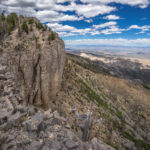
Basin and Range Trail Thru Hike Section 2 Map
Video: Basin and Range Trail Thru Hike Section 2
In addition to this trail journal, I also filmed my Basin and Range Trail thru hike. I’ve produced a detailed documentary series (11+ hours runtime) documenting this thru hike adventure, the product of over 1,000 hours of video editing. I highly recommending watching the Basin and Range Trail vlog series for an in-depth look at thru-hiking the Great Basin and central Nevada.
Basin and Range Trail Thru Hike Section 2 Journal
Day 8 – June 8th: White River Valley, Hot Creek Spring
I am fortunate that I didn’t have to hitch back down to the Sunnyside area along HWY 318 where I left off, since Henry from the motel had offered to give me a ride down there this morning. Henry knocked on the door around 8 and we were off.
The bad weather that was lingering over the weekend had mostly moved out, but had left behind some cold temperatures. The overnight low in Ely was 24, and the high temperature today is only predicted to be 56. The Utah news station said this was the lowest daytime high temperature for this date, ever. Today maybe the only day I wear my long pants. I’m a shorts guy myself.
It’s an 11 Mile Road walk to Hot Spring Creek from here. Not very exciting. Many cars drove past, and a couple of them stopped to ask if I was okay. I told them about my hike and watched their eyes get big. The reactions people give when I tell them I’m walking 1000 miles through the state is priceless.
I past David Deacon Campground, which had a couple campers there. Shortly thereafter I found Hot Creek Spring. I had to step over barbed wire fences and walked along the fence line all the way to the parking area.
Wow! Really, wow!! This water was crystal clear and had a deep blue tint to it. The banks were developed, lined with large Boulders. I stripped down to my underwear and jumped in. Literally jumped in, Cannonball Style. The water temperature was so much warmer than the air and it felt great, despite water temps only in the low 80s. It’s a warm spring, not a hot spring. Good enough for me!
I swam for a while, and two dirt bikers showed up. We said our hellos, they gave the water a brief look and moved on. Then I tested the waterproof feature of the GoPro 8. To be honest I was quite worried, but it held up under water without a leak.
As soon as I was done swimming, I changed out of my wet boxers, thankful no one else was around. The low temperatures and blowing wind made it really cold. As I was leaving, a Nevada Department of Wildlife employee showed up. He asked where I was camping tonight, and I proceeded to tell him about my hike. He thought I was nuts! Just like everyone else, but in a good way, I think. He was about my age, Brady was his name. He asked if I was filming the hike and I told him my plans to do so. I also asked him if he would like to say a few words for my movie project, but he declined. He mentioned a mountain lion and Cubs in the grant range, where I am heading next.
Feeling refreshed, I hit the road again. Walked past a large ranch, Moon Ranch I believe. From here, the traffic stopped. Not a single car. It would be a long time before I see anyone else again. It was a long straight away, with some large power lines crossing the road at one point. I stopped in the shade of a large water tank, with a dry trough. Still feeling pretty good, I ate a quick snack. Not too dehydrated or anything, despite only drinking one liter so far today other than the water I chugged before I left the hotel.
I reached Forest home spring around 5 pm. There was a small homestead here that seemed to control the water source, making it off limits for me. It’s too bad because this is a critical water source for me, perhaps the last before I enter the Grant Range and walk its crest. I wish I had done my research a little better on this one, because I still believe there to be water a ways west of here, it looks promising on the satellite. It is the spring that feeds this homestead, so it must have water. Unfortunately, in a spur-of-the-moment decision, I chose to abandon my plan to go up to Timber Mountain and begin my ridge walk north of Troy Peak. I was really looking forward to this, but at the time, based on the research I did, I made the best decisions I could.
The plan now is to follow a different dirt road up a different Valley towards teaspoon spring and Wiregrass spring, both of which appeared on a big brown sign leaving the main road. However, I did not see any signs of water on satellite. Still, I have no choice. I dipped down into the Valley below the road to check for water in the wash, hoping for a damp spot along a shaded bend in the wash as it had recently rained. No luck, everything bone dry.
View from foothills of the Grant Range, looking east across White River Valley towards the Egan Range
Walked the road a little while longer and found a camp spot a few feet off the road. Decent view actually, overlooking the little Valley below the road. I’m feeling thirsty now, with only one liter left to get me through dinner and breakfast, as well as reach the next water source. Pretty tired now that I have stopped. GPS is still not accurate, saying I hiked over 30 miles today when I did about 23-25 if I had to guess.
Wind dies down at sunset every night, thankfully. Snacked lightly for dinner and drank half a liter. Getting nervous about tomorrow. If I can be honest, this entire section has me nervous. This whole route has me nervous! Maybe everyone is right, maybe I am nuts. But no doubt is it exciting.
Day 9 – June 9th: Garden Valley, Scofield Canyon, Grant Range
Slept pretty good last night. Sipped on a few ounces of water and left camp with half a liter. Spent a good half-hour looking at my map, planning out the day.
New plan. Skip teaspoon spring and Wiregrass spring, skip Troy Peak. Bummer, I know. Seems like I have to skip a lot of things. But logistically, I would have to fill up water at one of the Springs, backtrack to get back to Timber Mountain, and have a minimum of two full days without another water source. Plus the elevation gained and off Trail hiking.
New plan is to hit a guzzler on the way to Scofield Canyon, then hike up Scofield Canyon. Camp near the top, next day walk the Ridgeline and exit to the guzzler on the Railroad Valley side.
It was a nice hike this morning. The 4×4 Road wandered through some short pine trees. I love the smell of the pine trees and Sage brush. I found horse spring and filtered a liter and a half. It took 30 to 40 minutes to collect that water from the dripping pipe. I would have dipped into the trough, but there was a dead bird with maggots on it in the water. I also saw a puddle in the fenced-in area, but would rather collect from the pipe. I would have collected more water but it was so slow. I only drink about 1.75L yesterday after leaving the motel, so I really needed to spend some time at a water source cameling up.
I started following a dirt road in the direction of Scofield Canyon. However, there was a split in the road that I didn’t see and I started viewing off on a different Road. I cross country hiked through some low scrub to find the dirt road. However, this road had not been used in a long time. It was intermittent at best. So basically, I continued to hike off Trail. I thought about the threat of rattlesnakes in the tall grass and piles of wood, but have yet to see one.
Finally, I reached a more legitimate road. While hiking towards the guzzler I saw something not far off the road. I decided to check it out. I’m glad I did because it was a trough overflowing with water. This water source was not marked on the map at all. Great flow coming out of the pipe feeding the trough. I stayed here for a while, filtering water and eating lunch. I filtered 9 liters total, two liters to chug, and 7 to take with me. My capacity is 6 L but I also filled my dirty water bottle, which I can filter later on. I enjoyed massive views of Garden Valley to the east. This too looked desolate, yet alluring.
While sitting down and filtering water, I saw a herd of wild horses approaching from the distance. They got within 30 yards, and stopped. I was down wind, they could likely smell me, in addition to seeing my movements as I filtered water. There were about 8 horses, including a young one. Eventually I stopped trying to hide or limit my movements and the horses backed off. You could tell they wanted this water, they just hung out in the distance staring at me.
The terrain now was pretty wide open. Fields of golden grass right up to the Piedmont. Troy Peak along with the rest of the high grant range became more impressive the closer I got to them. I followed a faint 4×4 Road at times, other times I just hiked cross country. At one point, the old 4×4 Road reached a deep ditch. It was too deep and narrow to drive across, yet the road continued on the other side. What do people do, jump it?
Old 4×4 road leading into Scofield Canyon. This soon becomes washed out, and hasn’t been used in years
Eventually I reached the road leading into Scofield Canyon. I was relieved to have a good road to follow for a while. With seven liters of water and 6 days of food left, my pack was the heaviest of the trip so far.
For much of the hike through Scofield Canyon, the road was intermittent. Eventually, this road ended. Here, I was standing 100 ft above the wash below, and Cliffed out. I walked along the cliffs for a while and found a weakness. I made my way down to the wash and continued on.
From here on out, the road was Hit or Miss. And when it was not there, it was gnarly! Seriously rough, and made me question whether or not it was actually “the way”. The middle part of the canyon was probably the worst. At one point I followed a wash that was 7 ft deep and 3 feet wide at the top, but shaped like a V.
Eventually, I reached a point where I saw the road again. I was actually surprised, but extremely relieved. And when I say I saw the road, I mean I saw the remnants of it. It was overgrown, clearly had not been used in a long time. At some point, the road had gotten washed out in decades past, and after this no vehicles have ever been able to get through it.
Farther up the canyon, I walked through miles of old forest fire burn area. The burn area continued all the way to the upper reaches of Scofield canyon. The route continued to challenge me. I was seriously sweating with my heavy pack, but at the same time, feeling pretty good all things considered.
I reached my first good size cave just a little ways above the wash. This looks like a great place for a break. Here, I could see lots of evidence of birds or bats nesting inside, with some sort of brown droppings piling up on the Ledges. It would ooze down the walls, forming a cone where it lands. On the ground there were many animal bones, and a few mountain lion turds. I also found a piece of obsidian, it looked like it had been worked into a cutting tool. This was the first piece of obsidian I had seen on this hike. There aren’t any occurrences of obsidian in the Grant Range, but several a few mountain ranges away.
I continued up the canyon and came across some piles of old rusty metal, remnants of either an old mining operation or maybe just a homestead. Metal mattress frame with Springs, old barrels, etc.
Farther up the canyon, at the point on the map where the four-wheel drive Road splits left and right, just on the right side of the fork, I saw huge cave. I was already working my way down the left side when I looked back and saw it. Not all that far from my destination this evening, I decided to walk over there and check out the cave. This one was like the other, with lots of bird or bat droppings on the walls and Ledges, but the biggest I’d seen yet. I climbed up to the highest and deepest point in the cave and was rewarded with a beautiful view looking out at sheer cliffs on the other side of the canyon. At the bottom of the cave there were more bones and mountain lion turds, even a deer or elk leg with hoof. Clearly the mountain lions use these caves, although none of these signs looked recent. Recall though, how the NDOW officer I spoke with yesterday near Hot Creek Spring mentioned the mountain lion activity in the Grant Range. He wasn’t “lion”. Ha!
Following the left fork of the 4×4 road now, I saw a badger bumbling around the edge of the wash. I tried to get a little closer, although not too close, but I spooked him. Seconds later, I saw an elk. A female or younger male. The canyon walls were extremely impressive now, pretty much sheer rock faces just towering above the canyon floor.
Near the very upper reaches of Scofield Canyon I saw several more elk. 5 at one time, four of them were big males with huge antlers. It was now time to look for a campsite, but nothing was looking flat or very appealing in the bottom reaches of the Canyon. I worked my way up and Hillside, expecting a flat spot on the top. However, it was never flat, it just kept continuing up at an unacceptable angle. I had hoped to camp up here because of the amazing 360 view. Instead, I dropped down off of this Ridge into a wash and up the ridge that I will ultimately take tomorrow. Here I had the same issue, no flat ground. It was very Rocky and not steep, but not an angle at which you would pitch your tent.
Eventually I settled on a spot high up the ridge under a tree. This was the flattest spot I had seen, although still not flat. I spent some time digging out rocks from the ground and using my foot to try and carve out a flat spot in the dirt. Eventually I created a campsite that was acceptable for my standards. Yes, I have standards, especially when quality sleep is at stake. And the view from this spot was actually pretty damn great! Tower and Cliffs above me, hemmed in by a little cirque. This will do!
When I took my shoes off this evening, I was surprised to see a hole in my sock, above the pinky toe. I have never had a hole in Darn Tough socks in this location. The Nevada terrain is rough on the shoes, that’s for sure.
Even with the hard work of Bushwhacking for what seemed like more than half of the day, I felt pretty good. I set up camp and ate dinner, which was no problem tonight. Good to have an appetite again. I enjoyed an excellent view of the mountains while I ate.
Man, what a day. I can’t remember the last time I experienced so much adventure. This is what I came out here for. I’m finally feeling good and strong, and was really happy to have experienced all that I did today.
Day 10 – June 10th
The Sun was shining on me around 5:30 am. Minutes before 6, a loud explosion could be heard. I have no idea where it came from, but the echo through the canyon was incredible. There are no mining operations nearby that I know of, unless it was a private prospector or something. I was pretty stumped on what could have caused it.
The view I woke up to was spectacular. I felt really good this morning. Really good, at peace with the world. All of the sudden I had a really peculiar feeling overcome me; the thought I might die today. I don’t know why, it doesn’t really make any sense. Sure I had an ambitious Ridge walk planned, but none of it looked particularly gnarly. Still somehow I was at peace with world. Odd start to the morning for sure.
Leaving Camp, I immediately begin ascending up to 3000 ft. There was no Trail, and it was steep. I had 4L of water on me I, and still weighed down with 5 plus days of food. Burnt trees are everywhere still, some of them rather large. The slope was such that I could only walk about 30 seconds before getting super winded and tired.
I battled my way up Hill for about 2 hours before I reached the crest of the grant range. Right before I reached the crest, I saw two bull Elk. I Contoured around the summit of the 11000 plus foot Peak I was aiming for. I stopped to take a break as soon as I reach the crest. It was cold when the wind blows.
Now I’m following the Ridgeline, Crest of the grant range. It’s fairly wooded at times, a variety of pine trees. It’s also pretty Rocky. The terrain was not too difficult, but there were a lot of ups and downs. All around me where burnt trees, in Rimrock Canyon and beyond. Even still, it was pretty nice. I wondered what it all would have looked like as a sea of green.
The first mile or two of the ridgewalk along the crest of the Grant Range was the easiest. Besides some occasional trees and rocks for obstacles, it was not too steep and really just a nice walk.
By midday, the hike was getting pretty hard. Peak 10396 proved to be much more difficult than it looks like on the map. This was typical of everything along this Ridgeline. Very steep terrain with loose rock made for a challenging Traverse up and around this peak. Scrambling was involved at times, and the rock was horrible. Even larger boulders that looked solid would just crumble away in your hands. It was very sketchy at times, one must be careful of each foot hold. Loose, Sliding rock. But eventually I made it. Looking down, I don’t know how. I’m glad I was going up, because if I was going down I would have looked for another way!
Other sections of the crest proved difficult. There was one section where there were a couple of spires protruding into the sky, but with a window in between them. Nearby was a singular vertical shaft of Rock, Rising maybe 30 ft above everything else. Sticking up on its own. Impressive, for sure, but certainly imposing up close. Once I got right up on it, a route became obvious. Most of the routes through this type of Terrain involved scrambling and climbing over downed trees.
Next was Bordoli Peak. When I approach this, it looked impossible. Sheer Cliffs, maybe 40 ft above the ground I was standing on. Certainly it would have been possible to climb up, with the right skills, but with a pack it wouldn’t be my first choice. Eventually I discovered a game trail that skirts the side of the peak. Within 15 minutes I was around it, looking back at a wall of rock. Game trails are great.
View east over Basin and Range National Monument and the Golden Gate Range from the crest of the Grant Range
Next was peak 10292. Again, I took a game trail that followed a lower route Around the peak. However, when I reached the South side, I was blown away. Best views of the day for sure. And the whole trip so far. At first, two large vertical Cliffs on each side with a window in between offered an impressive View. As I continued along the crest, I walked the edge of sheer Cliffs. Favorite moment of the hike so far. The views of Garden Valley, Golden Gate range, White Pine Valley and the Egans Beyond were absolutely stunning. Again it made me wonder why nobody comes out here. Is the terrain too difficult? Lack of water? Lack of access? Is it just Troy Peak that gets all the attention? Do people even know it exists?
One of my favorite views from the crest of the Grant Range. Hiking south, towards the Quinn Canyon Range
I took my time walking this section of the Ridgeline. In fact, I couldn’t leave, every few steps offered a new and interesting perspective. Then I noticed the bristlecone pine trees. These are the oldest living trees on Earth! They can reach ages of 4000 years or more. In fact, the oldest living tree ever discovered on Earth was 4900 years old, in Great Basin National Park.
I worked my way around one last Peak, 10147. Again I followed a game Trail. At times these were steep, and it was a real pain to always be sliding in One Direction with my right foot. This was definitely aggravating my blisters now. Eventually the game Trail led me to a bit of a saddle, where I had planned an emergency campsite based on satellite views. This would have certainly worked out; it was flat, mostly clear, and actually a pretty decent spot. In fact, there were a couple places along the crest where one could have camped. It was now about 3:30 and I decided to make the push down hill so I could hit the next water source tonight, hopefully.
Eventually I came to the point along the ridge where I had planned to drop down. The first bit was actually fairly easy and straightforward. The terrain wasn’t too steep nor was it too thick with vegetation. As I progressed down, there were patches of mahogany trees, occasionally thicker.
The farther down I went, the harder it was. Towards the middle, there were more Ledges, although small. These were somewhat easy to work around, but did require a little bit of route finding.
Below Benchmark 8625 is where things got interesting. And when I say interesting, I mean quite frightening. The Topo maps don’t show anything of real significance here. The Contour lines and slope angle shading on CalTopo did not reflect the dangers that existed in real life. I was getting Cliffed out rather often. Some of these drop offs appeared to be more than 40 ft to me, and should have been reflected on the topo maps. Others were certainly below the 40 ft threshold, easily hiding within the Contour lines.
After getting cliffed out, I was working my way around the hillside looking for a way down. The slope was improving and I could see a potential way down. Then I stepped on a boulder, maybe 3 ft by 3 ft, and the boulder gave way. One leg ended up being in front of the boulder and the other behind it. The boulder was essentially pushing me down hill now as it slid straight towards a cliff, only about 10 ft away. I was able to get my leading leg out of the boulders way and it came to a stop right at the edge of the cliff. Had the boulder been any larger and heavier, I don’t know that I would have been able to get my leg out of the way. Both legs suffered some damage, pretty much just a scrape on the back of the right leg, and a nice big cut on my left shin.
Shaken up, I took a break right then and there. I used an alcohol pad to try and clean the cut on my left shin, which now had blood dripping into my socks. It wasn’t a terrible wound or anything, but certainly a reminder of how close I came to being shoved off that cliff. The cliff itself was maybe 20 ft, not an instant death drop by any means but even a drop of 20 ft has the potential to seriously injure or kill if I had fallen on my head or neck, or if the boulder followed me off the cliff landed on me, or if a rock slide ensued, etc. Sure I am carrying a satellite communication device, but in a fall like that, it could easily get smashed and be rendered useless.
I sat down for about 10 or 15 minutes to collect my composure before continuing on. From here on out, I was operating on pure adrenaline for the rest of the day. The rest of the day was extremely difficult and painful at times, nevertheless I felt very lucky to be continuing on with only a flesh wound. I found a route down a Series of Ledges and eventually reached a more favorable slope angle.
Eventually I reached a point where I left the Ridgeline and dropped down into a Canyon. It was a small narrow Canyon choked with vegetation. The farther I went down stream, the more difficult it became. There weren’t a whole lot of options to get down off the rest of the grant range, this was the shortest of the two. The other one certainly would have had its own set of challenges as well.
At the bottom of this Canyon, the vegetation was unavoidably thick. A variety of vegetation exists here, from pine trees and grasses to Thorn bushes and Cactus. There was no choice but to push through the vegetation, no matter what kind. I got pretty scratched up, and frequently I had Thorn bushes scraping away at my existing wounds. As a progressed, I cared less and less about the vegetation. I forced my way through it without even trying to avoid pain. Many of these trees had dead limbs, and I would just walk through them like they weren’t there. My main concern was my eyes, but with sunglasses on I had the proper protection. Otherwise I didn’t care anymore.
The walls of the canyon began to narrow as I progressed further down. My maps indicate potential for a box Canyon, with sheer cliffs on both sides. I was unsure if it was even possible to make it through this Canyon, as the possibility of an unclimbable pour off was on my mind. Topo maps can easily hide such things, a lesson I have learned many times in the past and as recently as an hour ago. Still, I’m here and must get out of this Canyon.
At one point the walls narrowed to about 5 ft wide. Of course thick vegetation was growing here, so I waded between trees on one side and a sheer rock face on the other. Then I reached the pour off. I was relieved to see that it was only about 8 ft. At the top was a plant that had grown in between the cracks of the rock, and was obscuring my ability to negotiate this climb. I grabbed it and ripped it out, chucked it out of my way. This opened up more possibilities for foot holds and allowed the down climb to become more obvious. In the end, I wedged myself in between the rock and shimmied my way down, with my pack on. It was at this point I remembered that I probably should have brought a small length of 550 cord or something for just this kind of thing.
I made it down into another narrow passage way filled with vegetation. Beyond this, I could see what looked like another potential pour off. I was relieved to see that was not the case when I got closer. Still, the thick vegetation remained, and I continued to fight my way down the Canyon.
The canyon walls were impressive, despite the nightmare of my reality. At one point I saw a cave opening about 60 ft above the canyon floor. I wondered how far back it went, but it would have been really steep to climb up to it.
Shortly after the pour off, the canyon began to open up a little bit. It was slow, but eventually it widened. Now I am walking on talus, with only the occasional tree. I turned around and looked back at the opening of the canyon. I breathed a sigh of relief Knowing I had made it to “safety” tonight. I let out a loud victory scream before dropping to my knees and letting this joyous victory moment soak in.
I was now only one mile from my intended water source, but this too was all off Trail. I followed a contour line around the hillside which led into blind Canyon. No such name was marked on the map, but I learned this later on when I reached my water source. The contouring part was actually pretty easy. Soft ground, trees were not too close together. It was amazing to walk such easy ground.
When I reached blind Canyon, I was blown away by its beauty. I could tell from the topo map that it was going to be impressive, but nothing could have prepared me for what I saw. Absolutely massive and sheer cliffs surrounding this Canyon. I’ve been a lot of places and I can’t think of another Canyon that compares.
The walk through Blind canyon was not easy either. Lots of foot sized rocks in a wash, with a series of ups and downs over ridges, Hills and gullies, with a bunch of Sagebrush and Thorn bushes mixed in. It was almost 8 pm now, so I was trying to move as fast as I can in order to beat the approaching darkness. I reached the end of the canyon and discovered a series of narrow chutes and pour offs. I have no doubt somebody could climb it, but it wasn’t going to be me. I had expected my water source, a guzzler, to be here. However, no water and no guzzler.
I turned back around and began searching parallel to the route I walked in, and moments later discovered the guzzler. It was a flying saucer looking object just through the trees. I walked around the saucer and saw an opening. There was plenty of water, so I dropped my pack and promptly began filtering water. I dipped my dirty bottle in, trying to push all of the dead bugs aside, and pulled it out to discover only a slight green tint. Good enough for me, my Sawyer filter will take care of the rest. I immediately chugged the first liter I filtered. I needed this. I only had a few ounces of water left now and was quite thirsty after the such a strenuous day in the mountains.
Then I filtered 5L to take with me. The sun set while I was filtering, so I moved fast. I took out my headlamp in case I needed it. I walked back out of the Canyon as fast as I could, jogging at times with limited light. When I got a ways out of the canyon, I was still not seeing any good spots to set up camp. Just a rocky wash with a lot of vegetation. So, I left the wash and went back up the hill side that I had Contoured around. Sure enough, up the first little Hill was a nice flat spot with pretty soft ground. This will do!
I’ve realized my campsite selection was not as flat as I was hoping for, pretty much like every night. Fortunately, with the ground a soft as it was, I had no problem using my foot to remove some Earth from the high side and ended up making a pretty nice flat spot for the floor of my tent. I set up by headlamp, with the last remaining raise of light fading away as I finished.
I cleaned up my wounds a bit and applied some iodine. I hadn’t eaten since lunch, maybe 12:30. Okay I had one granola bar at 3 pm. Still, not enough to keep me going. I had mentioned adrenaline, which has now faded away and replaced with proper hunger. I snacked on some random items, anything salty tasted great.
Today was one of the most difficult days of hiking I’ve ever experienced. I’m not sure I even covered 10 miles. I feel lucky to be alive and well, to have made it to a proper camp and to have the opportunity to do it all over again tomorrow. My body feels surprisingly well for the extremes I asked of it today. I definitely lost some muscle today, I did not eat enough for sure and I could smell that horrible smell that comes when muscle is converted into energy as the body’s last resort.
Day 11 – June 11th: Quinn Canyon Range, Cherry Creek
Didn’t sleep that great last night. It was a warm night, too warm for my 40F quilt but too cold to go without it. I was extremely sore and tired this morning, but I didn’t feel that way at all last night. It must have been the adrenaline. Woke up at 7 am., about an hour after I have been getting up the rest of this trip. This was mostly due to the Sun needing to rise over the Cliffs that made up blind Canyon. This works out for me though, I could really use the extra sleep this morning.
Just an all-around excellent view from Camp this morning with blind Canyon behind. The views from the west side of the Grant Range are very impressive; here, the slopes are steeper and provide a much more dramatic backdrop compared to the east side.
After leaving Camp, I had to cover some cross-country ground again, backtracking the way I came last night. Eventually I hit a fence line with a bit of a clearing alongside it, so I followed that for a while. This took me to a wash with an old 4×4 Road, so I followed that downhill ways until I hit the main road that cuts through the Grant and Quinn Canyon Wilderness, separating the two.
The road walk up to The Summit was not that interesting. In fact it was extremely boring. However, it was a great mental break from all of the ridiculous stuff I was doing the day before. Plus, I could finally cover some miles. One can not fully appreciate the convenience of a trail or road until you have gone some time without one.
On the other side of the summit, the walk became more interesting. Better views of the mountains and more interesting rocks. Lots of different colored rocks from green red orange and yellow, but nothing special. The type that has some sort of Micah or muscavite that glistens in the sun, tricking you to bend down and pick it up, when in fact it’s worthless.
When I reached the road for the Cherry Creek Campground, a stream was flowing alongside it. This is a great sign. I thought for sure there would be people camping in the campground, and I had hopes of someone running a generator so that I could charge my backup battery pack. However, the campground was empty.
While I didn’t Explore More, it seems like the campground consists of just one campsite, a picnic table fire ring and Creek side access, all with a less than ideal slanted ground. The campground was riddled with bullet shells, and someone even pounded them into the picnic table. How clever.
I took my time here at the campground, utilizing the picnic table which is actually quite the luxury for a hiker. I also utilize the stream to rinse out my dirty clothes, and let them dry out in the sun while I filtered a couple liters of cold water. No sense on stocking up, I know the creek will be flowing a ways up the canyon. I saw several trout in the creek here and Upstream from the campground.
This marks a bit of a milestone in this hike, the first foot Trail along the Route. It starts right here at the campground. Maybe 50 ft after leaving the campground, I could tell this was going to be a lot of work. Several large down trees over the trail, and it was overgrown. However, it was extremely impressive! The creek was flowing and lined with very Lush green vegetation, almost jungle-like. All of this was hemmed in by vertical Cliffs, the likes of which I haven’t seen yet in Nevada. Red Rock, rounded, similar to what I would expect in Utah. Overall, I compare this Creek to something in New Mexico, perhaps a less maintained quasi-Gila River experience, on a much smaller scale.
The first section right out of the campground was through a bit of a box Canyon. This is why It was so Lush and jungle-y. My progress was slow here, frequently turning around and looking up with great Grandeur. The trail winds back-and-forth, following both sides of the creek. I crossed the creek about 15 times. Sometimes there were logs and sometimes there were rocks, but I managed to keep my feet dry.
Before long, Cherry Creek Canyon opened up. Even though the canyon was wider and one was not forced to stay by the creek, the going was still tough. The Trail was intermittent, and passed through a lot of thick brush. Sagebrush mostly, as well as thorn bushes and the occasional odd ball plant. And now, signs of cows. Cow patties and prints, turning a nice creek into a muddy wasteland. It stinks like cows. Damn cows ruin everything they touch. Still, it was a pretty Canyon.
Eventually the creek went dry, so I backtracked a bit to the point where the water began to flow from a spring. I drew 6 liters from here, not really knowing where my next water source was going to be. After following Cherry Creek to its upper reaches, I will have two options: go over a pass to Cooper Canyon or Willow Canyon. I still have not decided which I want to do.
After filtering my water, the hiking got even tougher. Even thicker brush. I suppose I could have put on my pant legs, but every time I do so I end up getting a heat rash or something on my legs. Plus it’s just downright hot to wear them. So, I made my way through the brush in shorts, subjecting my already wounded Shins to an onslaught of brush. Nothing like thorn bushes scratching yesterday’s wounds.
I barreled through the brush for hours, thinking about how this is prime rattlesnake country. I have yet to see one. I did see a couple of cows eventually, including a bull only about 30 ft away. He did not see me, and that’s probably for the best. It’s much more rare to see bulls free roaming.
Now in the upper reaches of Cherry Creek Canyon, it was decision time. I had already been leaning towards the route that would take me over to Willow Creek Canyon, so I started heading up that way. I was looking for a campsite now, but there was nothing good. There was one or two spots that could have worked, but they were not good campsites. I kept heading up hill.
I found another spot that could have worked, but again it was pretty sub par, more of an absolute last resort. The drainage I was following up to the pass or saddle to Willow Creek was now getting narrow and was subjected to all of the same thick brush and blow downs as the rest of the canyon. Only here, it was harder to navigate around and avoid. I did not have any good options now. I could go back down and take a crappy campsite, or I could continue to head up the drainage and see if the trees clear out.
Next I thought, maybe I can camp on the saddle. I was only about 200 ft below the saddle now, but some of the hardest terrain lies ahead. It was a gamble to try and make it up there. The saddle is only so big, what if there is nowhere to camp? What if it’s too rocky, too many trees, or all cliffs?
Just below the saddle there were 30 ft rock walls blocking the way. From Below they looked impenetrable. I was getting nervous. I made my way to the base of the cliffs and a route became obvious. It was not going to be easy, but it was better than a vertical rock climb.
I began to work my way up a small chute. At first it was manageable. Then, it got really steep. I was on all fours now, using feet and hands to climb. It was a combination of loose soil and loose rocks. I took my time to find solid hand holds and continued the climb. This was the type of climb that you go up and not down. I can’t imagine down climbing this one. 6L of water on my back didn’t help either.
Eventually I made it past the Steep section and I could see the remaining route to the saddle. Once at the top, I was relieved to see a few relatively flat spots with decent ground, small rocks that could be moved aside. I was also rewarded with an excellent view of mountains on the Willow Creek side. Impressive, reminded me of the Egans.
I don’t know what the criteria is for saying no man has ever been here before. Do they mean this Valley? This saddle? This quarter mile radius, this 10ft radius? I don’t know the answer, but I felt like there was a good chance nobody climbed up the canyon and the chute that I did to reach this saddle. Of course, some miner in the 1800s probably made his way up here, and undoubtedly, indigenous peoples of the past have done so as well. But that’s the beauty of places like this. You can still feel like you are the first to step foot somewhere, even if that’s not actually the case. Either way, I ended this day again with an incredible feeling of adventure. It’s hard to describe really, the feeling you get from reaching hard to get places.
I can’t think of a better feeling than a long, hard day of hiking coming to a close. Where you finally are able to lay down on your air mattress knowing you won’t have to sit back up again until the morning. What an incredible relief. The winds are not incredibly strong up here on this saddle, but gusting strong enough to raise anxiety. The winds generally die down at night here in Nevada, so I’m banking on that. Also, pulled my first tick off my leg while getting into my tent this evening.
Day 12 – June 12th: Quinn Canyon Range, Willow Creek, Railroad Valley
Didn’t sleep well last night. The winds did not die down at all. They weren’t terrible, not in danger of blowing my tent over or anything, but enough to keep me awake most of the night. Then, around 5am, I heard another loud explosion, like the one I heard in Scofield Canyon the other day. Then I realized… It’s a military plane doing a fly over, it’s a sonic boom! How’s that for a wake-up call?
Got up at 6 am, ready to be done with the sound of the wind blowing on my tent. One side was higher than the other side due to setting up the tent on a little ledge of sorts. This prevented the tent from being taught on one side, and caused a lot of flapping in the Wind. So annoying.
I had high hopes that it would be easier going down the Ravine this morning then the other side when I came up last night. Not really easier at all though, probably about the same. Trees were thick, many dead branches to snap off so I couldn’t make my way through. Had to duck under many trees, forced my way through others. Sometimes worked my way along a steep talus slope to avoid the vegetation. Basically just weaved my way in and out of all of the obstacles, and sometimes right through them. I fell down twice I think, once near the top almost first thing this morning.
I saw water a couple of times in the Ravine, but it was always short-lived. Water would trickle out for a hundred feet so and then disappear. It would be somewhat difficult to collect from these pools, but possible. Because the water flows over Rock, you can’t really dig a deeper pool to collect from.
Coming down took something like 2 hours. Now I am on the main Valley floor, and my maps indicate a foot trail that leads to a road. I found the foot Trail higher up the canyon then I expected, so I had high hopes for this. Found a balloon that said “welcome back”. I found many balloons like this over the years in Pretty remote areas. This always pisses me off. Welcome back, let’s commemorate the moment by depositing a piece of trash in your name in an otherwise pristine Wilderness. Screw you. Letting balloons go into the sky should be considered littering just like throwing a piece of trash out of your car window. It’s no different.
Eventually I realized the foot path was intermittent. Extremely intermittent. The trail would be good for a while and then just disappear. Then you’d find it again and it would be pretty decent. This wasn’t really an issue since there was no water this high up in the canyon. Therefore the vegetation was similar to everything else I’d already gone through.
The real issues began when the creek started flowing. Along any body of water grows different vegetation; much thicker and much thornier. Hear a variety of Sagebrush, Willow, and a plethora of thorn bushes could be found. Thick patches of thorn bushes, the kind that you generally look at and say, well that’s impossible, I’ll go a different way. At first this was possible, I would just go around them. But eventually, I had to go through them.
The worst part of Willow Creek Canyon was where the map showed the road. And this pissed me off because it was supposed to be the easiest section, due to the road. At Best, an intermittent foot Trail was all to be found. It was so hard to follow, but it seemed to cross the creek from time to time. This intermittent Trail offered no easy route through the insane vegetation along the Creek. Instead, it presented a nightmarish challenge.
It’s hard to describe how awful this Bushwhack was. I hesitate to even mention the intermittent trail because it could give the idea that sometimes the going was easy. It never was. It was truly horrible. Oftentimes the creek was situated 8 ft down in a wash with it’s banks cut vertically from flash floods. Guarding this were thorn bushes. Then there was the Willow and Sage. Both grew vigorously here. Imagine vegetation so dense that your feet never touch the ground. Sometimes I couldn’t see the ground at all. I was literally wading in vegetation.
For much of the day I had my shorts on so my legs continued to get cut up. New cuts and more damage to existing wounds. I thought my legs would turn into leather by the end of this hike. Then I remembered my pant legs, and decided to put them on despite the fact that I typically get heat rash when wearing them. This helps significantly. Still, the nightmare Bushwhack continued.
I needed to cross the creek at one point, with no other way forward due to steep Canyon walls. I had to literally sit and crawl on the ground to get under the Willow branches. I pushed my way through, hoping this was the only time this would be needed. Wishful thinking, of course.
I was traversing a steep Rocky slope when I stumbled upon a mine entrance. The opening was hidden by thick brush, it would have been nearly impossible to see except up close. So of course I went in to check it out. I went in about 20 ft and dropped my pack, and put on my headlamp. Walked back a ways around the first corner and came to one side tunnel that was a dead-end after a few feet, and continued on. I would say the mine went back 500ft total. The walls where lined with many quartz veins, so I assumed they were looking for gold or silver. I wonder what they pulled out of here, how much. I scoured the walls for any signs of gold, but to no avail.
While coming out of the mine I noticed that I was missing my external microphone for my Gopro. Pretty sure I lost it while forcing my way under those willow trees crossing the creek. No way I was going back for that. I was really bummed. I also lost a water bottle at some point battling the brush. So now 6 L capacity down to 5, unless I use my dirty water bags.
Leaving the mine, there were a couple times where I had to scramble over some rocks, using all fours to climb short sections. Ultimately I couldn’t progress forward, and had to backtrack. Had to drop down into the wash and cross. Here, I faced probably the thickest thorn patch of this whole bushwhack. This led me to a vertical rock face. I really had nowhere else to go. After doing my best to push aside the thorn branches, I climbed a 15 foot Rockwall and got past the obstacle.
This continued for a couple hours. I handled the bushwhacking sections of the rest of this trip pretty well, but towards the end I was losing my mind on this one. The worst part was that I was expecting a trail and then a road. It should have been easy.
Then, after a creek crossing, there was a decent gravel road. It hadn’t been used in many years, but it was an obvious old path. According to the map, this road should have been miles up the canyon! Nevertheless I was extremely happy to be done with the bushwhack.
Once on the road, the canyon opened up a bit and vegetation became more sparse. I still had not filtered water, waiting until the lower reaches of the canyon so I could fill up just before hitting the valley floor. As the road left the creek for the last time, I decided to follow the creek downhill off Trail a short ways. I was using a game Trail that gave me an elevated view of the creek. From here I spotted a small waterfall. A Waterfall!!
This was the spot I was looking for. I carved out a spot to sit under a large Sagebrush and took a break. Chugged some water, filtered some more. Washed my socks and clothes, and of course took a shower in the waterfall. This literally brought tears to my eyes. Being able to take a brisk shower immediately after fighting through all that dense brush was just incredible. A reward I deserved, no doubt. This afternoon’s Bushwhack was perhaps the worst of my life. In fact, I know it was. I’ve seen brush that thick before and did not think it was possible to progress through it. But when you have to, anything is possible.
I spent a solid hour and a half here at the waterfall. From here I could look out into Railroad Valley. It was getting very windy, kicking up a lot of dust and sand from the dried Lake bed. Still, I was relieved that it was in the 70s and cloudy, with a strong breeze. This will Bode well for crossing this massive Valley.
Leaving Willow Creek, I follow the hill sides South for a while instead of following the dirt road out to the main road. This was more direct. A large agricultural operation could be seen out in the valley, surely possible only because of Willow Creek. Otherwise, this huge Valley was pretty empty looking. On the other side the pancake range makes up the horizon.
Finally I took my last steps off the Foothills and on to the valley floor. Easy walking, vegetation spaced out well enough. There really was no sense in following dirt roads since they were only marginally easier walking then just going cross-country. So that’s what I did, I picked a point on the horizon around where my next water source will be and headed for that. I crossed a couple of roads but continued on my trajectory.
The wind was whipping, and getting stronger. Visibility to the north was low. I was glad the wind was blowing in the direction it was, if it were the opposite and blowing to the South all of that dust would be coming towards me.
I walked across a decent sized dried Lake bed. I don’t know why, but I’ve always wanted to do this. A bigger one would be even more impressive. I was feeling good and feeling strong, now reflecting on the trip as a whole a bit. That’s what I enjoy about the Basins; A break from the hard stuff up in the mountains, and a chance to let your experiences sink in.
The wind now was easily 30 MPH or more. I kept thinking about how awful tonight will be if I have to sleep out in the wind. My next water source is a place on the map called Stonewall Corral. I wasn’t really expecting water here, so I was wishing I had filtered more than 6L to take with me from Willow Creek. I noticed that the water source I am heading to is pretty close to a small series of Rocky Hills jetting out from the desert floor. The water source was about a mile from these, so once I got close to the hills I changed my trajectory to the water tank which was now visible.
Approaching the water tank, I noticed a lot of signs of cow, as well as some sort of trailer next to the water tank. I had very high hopes now. I was relieved to see a trough full of water when I arrived. The large water tank also seem to have water in it. The trailer was actually an old pickup bed converted to a trailer, and it had a generator strapped in. This ran a small pump. Put this together and you have a reliable water source. Well, if the local rancher has his cows nearby.
Chugged 1.5L, then filtered water to top off my supply. So that’s 5L, plus I brought 1L in a dedicated dirty Gatorade bottle. Then I field up my platypus bag, normally reserved for dirty water. So I have five filtered, clean liters and 3 dirty liters to be filtered later for a total of 8L. This should be totally fine to get me through another day and a half.
It was about a mile to the Rocky out cropping of Hills after leaving the water tank. I was hoping to use part of these Hills as a wind block. When I reach the Hills, I found a couple of spots that probably would have worked. But my curiosity got the best of me and I kept going. Then I spotted a small cave. When I approached I realized it was too small. Bummer, I was kind of hoping to sleep in a cave at some point. I also spotted a circular Stonewall down on the valley floor right next to the Hills. After dropping down here, I realized the wind was blowing right into the only opening in the circle, so that’s out. I thought about camping on the other side of the wall, but it was still too windy.
Eventually I found a place to camp, just as the sun had crested behind the pancake range. There was a large Boulder that provided a decent wind break. I set up behind this Boulder, knowing that the wind will probably change directions at some point in the evening. Better than anything else I’ve seen though.
Now lying in tent, the wind had shifted briefly. Sand was being blown all over inside the tent, and even into my mouth. Yuck! Then the wind died down, or at least shifted directions.
Day 13 – June 13th: Railroad Valley, Pancake Range, Lunar Crater Volcanic Field
The wind shifted a couple of times during the night and was momentarily a nuisance. However, when I woke up it was dead silent. You could hear a cricket chirping from a mile away. To be in such a massive Valley with absolutely no sound at all was relaxing. Light cloud cover to begin the day.
Without the pressure of finding a spot out of the wind before the sunset, I had a chance to soak in my surroundings. I realized the outcrop of Hills I was camping alongside was an old Indian camp or hunting ground. Many signs of arrowheads here, mostly just fragments from the arrowhead making process, but I found one fully intact Arrowhead made of chert. Several small caves littered the hills, not really big enough to be utilized by humans other than to squat in for shelter or to get out of the Sun. These Hills were just barely within The Wall Wilderness Study Area.
With the winds gone, I Had A Renewed sense of excitement as I left camp this morning. I spent some time exploring the Hills, but I quickly left them behind a long a dirt road seemingly leading to nowhere. I had crossed the majority of railroad Valley yesterday, with only a couple more miles to go before I entered the Hills making up the western side of the valley. I saw several horned lizards scurrying about. As true of the last few miles last night, much of this morning’s hike, and even much of the day’s hike really, was through very loose and deep sand. This was a real pain to walk through.
This area had a completely different feel from anything else I had walked through so far. It’s not just a wide-open valley, but a series of Hills, mesas, and interesting rock formations spread out across an extremely desolate and mysterious land. I stress mysterious, along with raw and primitive. One can’t help but think of the past when walking through a place like this. Who else has come before me? Why were they here, what were they doing? Surely this land holds many Secrets, known to only a privileged few.
Even here, seemingly the farthest place from civilization one could imagine, signs of cows were everywhere. I couldn’t help but think that the only people that ever visit this land are the nearby Ranchers. I can’t see this land drawing any visitors for recreation, Beyond the locals. Even then, travel here would be on horseback, Maybe. It’s a Wilderness study area, so there’s no access to dirt bikes or ATV’s. In Wilderness areas, it’s somewhat common (unfortunately) to see tracks in the sand. But not here, just some piles of cow shit. I must say that this, even though it may seem small, really dampers the Wilderness experience.
My route now was mostly a cross-country Meander in between various land forms. However, now that I’m here it doesn’t make sense to follow a line I drew on the map at home. It makes sense to follow what your eyes see, what intrigues you at the moment. That is the spirit of Adventure in my eyes. So I left my planned route behind, and began to walk towards a series of hills that looked interesting. A bunch of random large boulders dotted landscape, and fragmented rock formations jetted up into the sky.
View from random volcanic hills I climbed on the way to the Pancake Range. Big Fault Ridge (right), Quinn Canyon Range in the distance (left)
I made it to the top of the small set of Hills and was rewarded with a great view. Pretty much any elevated position over a massive landscape such as this will please the eyes and soul. Yes, this is where I will take my late morning lunch break. Here one can reflect upon many aspects of life. How small and insignificant we are as individuals. Here, a person feels like an ant. And not even an ant that’s part of a colony, but a rogue ant. perhaps the only ant left after his entire colony had been had been destroyed. Last of his kind, beginning a lifelong search for any remaining survivors. It’s just you now, Roaming the world all alone, searching for a purpose. A promise of a new and better life.
One could stay on top the hill like this all day and lend time to all sorts of random thoughts. But then, of course, one would miss out on all of the discoveries that lie ahead. I emptied the sand out of my shoes and dropped back down to the desert floor. Here, I followed a Sandy wash towards a gap between two land formations. There were random outcrops of black rocks in an otherwise Brown and Sandy landscape. There were even a few lone trees, which seemed very much out of place.
I followed the wash for a while and began to walk cross-country through the desert again. I eventually reached a well graded dirt road. This was a relief to be able to get out of the deep sand. As a hiker, we are generally not too fond of walking roads. However, I must say that in certain Landscapes, like the one I’m walking through right now, walking cross-country offers little to no benefit over a road. The same views can be had at a fraction of the effort expended. With that said, I highly recommend hiking cross-country through the desert at least once to know and understand what it means to do so. This is best done where the ground is firm and the vegetation is well spaced apart. Soft Sand and/or thick sagebrush are not pleasant and will not enhance your hiking experience. In this case, take the road!
I was impressed with the views of the surrounding land formations. They didn’t look like much from afar, but the closer I got the more I enjoyed them. Again, I wondered if anyone ever comes out here to hike, climb, or camp. The only signs of usage here where again, cows and Ranchers.
Hiking across Chuck Wagon Flat in Nevada’s Pancake Range. The route straddles two Wilderness Study Areas; The Wall and Palisades Mesa
The road I’m walking now straddles two Wilderness study areas. The Wall wsa on the East, and Palisades Mesa to the West. These are obscure lands by any measurement. Several land formations caught my eye, and begged to the explored. However, I wanted to spend more time at lunar crater, so I made it my goal to reach it as soon as possible. Several miles off in the distance, I noticed A glimmering white object on a Ridgeline. I had no idea what it was, but I was heading that way.
Walking with quick and easy along the road, but eventually I came to a point where I would leave the road and hike cross-country to a high point overlooking lunar crater. After hiking across fields of volcanic rock for a while, a bit of inspiration struck me. When I left for this hike, most people I spoke to projected their fears on to me. They told me that it would be too hot, there wouldn’t be enough water, the snakes and scorpions would get me. But you know what? None of those people have hiked Nevada! When people tell you that you can’t do something, most of the time it’s because they can’t do it themselves, or aren’t willing to. It’s important to keep an open mind, but at the same time, don’t let the opinions of an unqualified third-party influence your dreams and goals in life. They don’t know what you’re capable of, and what you’re willing to do. Only YOU know that.
I followed the route I created at home on the map towards a rather insignificant looking hill. Lunar crater is just on the other side, but you would never know. As I approached the hill, I could see that the glimmering white object I saw from a distance was a truck. There was a strange blue object on top, my assumption was that it was some type of camper. At one point I could see two people standing on the Ridgeline. I assumed they could see me, maybe the screen of my GPS or my watch reflecting in the Sun. I continued to weave my way in between sagebrush towards the top of the hill. Eventually I hit a small two track Road that I followed to a saddle, and then up a ways on the hill itself. From there, it was a short scramble up some black rock formations with orange lichen growing on them. I always enjoyed that contrast of orange on black, looks like lava.
I expected a view of lunar crater once I crested the highest point here, but there was a very short ridgewalk that remained. Following the Ridgeline, the crater came into view as I neared the edge of the Hill. Wow! It was every bit as impressive as I expected. A giant hole in the Earth, 400 acres in size, 3600ft across and 430ft deep. Lunar crater sits in the middle of the 100 square mile Lunar Crater Volcanic Field, perhaps the highlight of the pancake range. The crater (this type is called a “Maar”) was created by a volcanic eruption around 38,000 years ago. This isn’t all that long in geologic terms.
I stood up on the top of this hill for quite awhile. This is a place I’ve long wanted to see. An obscure Landmark for sure. I considered my possibilities to further enjoy this area… Camp up on the top of this hill for an amazing sunrise and sunset view? Maybe capture some night photography and the Milky Way overlooking this crater? Drop down into the crater for the unique experience of camping inside? All good options. Ultimately, I chose to drop down the hill and make my way down to the rim. A road runs almost all the way along the circumference of the crater. Just below the hill was the white vehicle with the camper top. The Allure of a cold drink, perhaps a Gatorade, was too much. So I approached the vehicle, which looked empty at the moment. I figured they had gone for a walk, maybe down low into the crater.
I approached the vehicle cautiously, never wanting to startle someone out here. Now within a few yards, I said “hello, anyone home”? Then little access door on a homemade blue camper top popped open and a man stuck his head out. He was very surprised to see someone. He asked where I came from, and I pointed out into the desert. “what do you mean, you walked? From where?” I proceeded to tell him my story, and this began a very fluid series of events that lasted for nearly the next day.
Matt and his son Casey, who had just graduated from high school, were on a road trip across America. They had driven here all the way from Florida. They had their dog Shay with them, who right off the bat seem to like me. That’s always a great sign I think, when a dog is so trusting of a stranger.
We chatted for a few minutes, and then I was offered a water and a seat inside the vehicle. A comfy seat is one of my most sought after luxuries after an extended wilderness trip. Once I sat in that seat, I felt a great deal of relaxation. I was even more relaxed when I was offered to share the joint they passed around. It’s not hard to understand why Marijuana and the outdoors go so well together.
Over the years, I’ve realized that I have a tendency to underestimate my knowledge and abilities. I am the type of person that thanks the bar is extremely high in order to be considered an expert, and never I think I am good enough when comparing myself to others in the same field or category. I think the turning point in my life was when I was hired by a large corporation to do search engine optimization. While there is no degree for this skill, I did not think that my basic knowledge of the field, acquired during the course of some hobby projects, was sufficient. I couldn’t believe I got the job. Certainly there are many more qualified people out there, but the bar was set low enough I was hired. This really changed my perception of things and my outlook on life. I’m not saying I wasn’t qualified or I was bad at my job. Quite the opposite.
I only mentioned the previous paragraph because of the conversations I had with my new friends Matt and Casey. They knew nothing of the area, and very little about outdoors in general. While we were sitting at lunar crater, I pointed out several other craters in the distance. They had been up here for a while, and had not even noticed them. I began to tell them about how these land formations came to be, a product of volcanic eruptions. They were under the impression it was a meteor impact site, which is an extremely Fair assumption. This too was my assumption when I first learned of lunar crater. But I had been doing my research. I have been researching Nevada for over a year in the process of creating this route, and another separate route. I felt like their tour guide, giving them information about a land I had never been to. To them I may have been an expert. But on a personal level, I barely felt qualified to convey this information. I don’t want to take away from all this to sound like you only need to know more than the person you’re talking to be considered an expert. Instead, we should not underestimate ourselves and to be confident in our perceived strengths. I have spent hundreds of hours researching Nevada and everything that goes along with hiking it in the course of planning the Basin and Range Trail route. There will always be someone that is better than you in your field, but that doesn’t mean you aren’t qualified yourself.
Upon discovering easy chair crater in the distance, Matt suggested we drive over to that crater to have a look. Sounds good to me. A short drive later we were there, overlooking another impressive landform and hiking around its rim.
Upon returning to the vehicle, we discussed the low pressure in one of the tires. Matt said the tire was not that low yesterday. If it’s losing air pressure that fast, I suggested that he drive into town this evening before he’s not able to drive out tomorrow. After all, there is no cell phone service out here. I do have my Garmin satellite messaging device, but better not to push it. The nearest town is Tonopah, where I’m going. It’s also on the way to where they are headed, Mammoth California. It seems it was meant to be. My only qualm with the situation is that I still needed to walk the 6 miles from lunar crater to Highway 6. On the CDT it was very important for me to walk every mile, out of principle. People skip hundreds of miles of Trail and claim they walked the whole thing. I did my continuous footsteps on the CDT, for myself. But now here on the Basin and Range Trail, My goals for this route are different. Since there are no meaningful start and end points (say, Mexico or Canada), I don’t see the point in being a stickler about continuous footsteps here. I’m out here for the adventure and the experiences.
This was going to be one of the hardest hitches on the entire route. 80 miles to Tonopah, or about 90 to Ely. People often use the term middle of nowhere, but this literally is the exact middle of nowhere… Right in the middle of a 167 Mile Stretch with no gas between Ely and Tonopah. There is very little traffic, and hitching here would certainly take some time. I felt thankful to be able to get a ride with no effort or wasted time.
When we arrived in Tonopah, first things first, we put air in the tire. Next up, and perhaps most importantly, we put food in our stomachs. We ate at Hometown Pizza, my treat. We split an extra large 6 meat Pizza, which we finished off no problem. Of course, I could have eaten much more. Sitting at the table next to us was to older gentleman with hiking gear on, DSLR cameras with huge lenses and computers. Clearly downloading photos. Stopped a minute to talk to them and see what they were up to. I should have known, night photography. That’s what this area is known for.
Next I went into the mizpah hotel to check in at the old Brewery hostel, which is under their ownership. Matt and Casey just need a place to park their Suburban to sleep. So they drove me to the hostel and they slept outside in the parking lot. It worked out for them, I let them come inside to use the bathroom when needed.
Day 14 – June 14th: Zero Day in Tonopah, NV
It was a really cold morning. Around 8 am. we left the hostel and headed down to Burger King for breakfast. From memory I thought it was a McDonald’s, but hey, it’ll do. They were serving a couple of lunch menu items even during breakfast, so I got the large bacon King combo. It was actually pretty huge, and really hit the spot. I was starved! By mid day, Matt and Casey left town and continued on their road trip.
I began town chores today. I needed to replace the microphone for my camera that I lost in the bushwhack in Willow Creek, and I needed a few more micro sd cards to continue filming the next section. I ordered these today and will need to stay in town until they arrive, unfortunately. This will be a long and expensive stay, but these are the kind of situations that come with filming and documenting these hikes.
Day 15 – June 15th: Zero Day in Tonopah, NV
Without much else to do today, I walked out of town and through some of the old mining areas on BLM land. Here, I did some rockhounding. Supposedly Tonopah is a great area. However, it has been heavily mined over the years, and any place worth digging is already claimed. Still, I found a few somewhat interesting rocks, but nothing like the turquoise nugget I was hoping for.
Back at the hostel, there was a guy named Tony staying there as well, a contractor working on a job. He saw my rocks and we began talking. Turns out, he had worked in some mines and was very knowledgeable about rocks and minerals. He ended up giving me his jeweler’s loupe as a gift. So kind!
Day 16 – June 16th: Zero Day in Tonopah, NV
Did my grocery shopping today. Raley’s Grocery has a good selection and is considered a “full” resupply. Grocery is located about a mile from the Hostel/Mizpah.
Someone in town told me that the Western Store in town sells cell phones, and that they might have micro sd cards for sale. I figured I’d stop in and see if I could pick one up, even though I had already ordered a few. Inside, I could see they only had the most basic selection. The owner, Paul, asked me what I needed them for and I told him about my hike. He offered to give me the 16GB card right out of his own cell phone! Unfortunately, I need much more storage than that. But what a nice gesture. He also mentioned someone that might be able to give me a ride back out to Lunar Crater tomorrow, which really caught my attention. I told him I’d come back tomorrow if/when my cards arrive in the mail.
Basin and Range Trail Thru Hike 2020 – Section 1: Ely to Preston
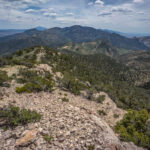
Basin and Range Trail Thru Hike Section 1 Map
Quick Facts About My Basin And Range Trail Thru-Hike
Miles: ~950
Dates: June 1st, 2020 – August 6th, 2020
Days: 67
Zero Days: 17
Highest Point: Wheeler Peak 13,064’
Lowest Point: Railroad Valley 4,851’
Starting Terminus: Ely, NV
Ending Terminus: Baker, NV
Resupply Stops: 9
Video: Basin and Range Trail Thru Hike Section 1
In addition to this trail journal, I also filmed my Basin and Range Trail thru hike. I’ve produced a detailed documentary series (11+ hours runtime) documenting this thru hike adventure, the product over over 1,000 hours of video editing. I highly recommending watching the Basin and Range Trail vlog series for an in-depth look at thru-hiking the Great Basin and central Nevada.
Basin And Range Trail Thru-Hike Journal
This is my journal documenting my 2020 Basin and Range Trail thru hike. This is not meant to be a guide to hiking this route, rather, it tells the story of how the events unfolded along the journey. For a guide to thru-hiking the Basin and Range Trail, visit https://basinandrangetrail.com/. Additionally, join the Basin and Range Trail facebook group to connect with past, present and future Basin and Range Trail thru hikers.
Day 0 – May 31st: Getting to the Starting Terminus
I flew into Salt Lake City, and had a friend drive me to Ely, Nevada. This is where I will start my Basin and Range Trail thru-hike across the great basin region of central of Nevada, along a new long distance hiking route I have mapped out over the winter. After being dropped off at my motel, I did some grocery shopping and spent the evening getting my gear together and going over my maps.
Day 1 – June 1st: Ward Mountain, Egan Range
I left my motel in Ely, Nevada a little after what I thought was 7:30am. That’s what my phone was telling me, as it automatically updates to the time zone. However, when I reached the post office that was supposed to be open at 7:30, it was still closed. Confused, I asked the lady inside when it will open. She said at 7:30. I looked at my phone, and it was after 7:30. That’s when I realized my phone had not properly updated to the Pacific time zone. A little embarrassed, but I waited outside for a while until it actually opened so I could send out a box with extra gear back home.
After the post office debacle, I hit the road. It was a couple mile road walk out of town from here along Highway 6. I got a lot of funny looks from the traffic driving by with my backpack on. Apparently, Nevada doesn’t see many long distance hikers.
Shortly after leaving Ely, there was a sign along the road that said “next gas 167 miles”. Wow! This is a record for me. That next gas is in Tonopah, where it also says “next gas 167 miles” when heading east to Ely. The majority of the state is extremely vast and empty, beyond comprehension for anyone who has not visited. I laugh when I think of my home state of Michigan, and hear people describe anywhere in the state as remote. You can hardly get to a spot that is farther than 1 mile from any road in Michigan’s lower peninsula.
Other than the occasional narrow shoulder, the road walk was actually not that bad. The road passes through a short segment of mountains, and then emerges into a more open landscape. I continued to walk until I saw signs for Ward Mountain. This is my entry into the Egan mountains.
I utilized one of the picnic tables in the campground and took a quick break to eat a snack. There was a water spigot here for water. I think there was one vehicle here. Leaving the campground, I followed an old Aqueduct line towards the upper Terrace. This route was not efficient at all in terms of elevation gain, as it just went up and down over every hill in a straight line. However, it was a straight line to where I needed to go. I was surprised to see a flowing Creek, until I saw a break and the aqueduct line on the hillside above. Mystery solved.
There was another trough overflowing with water, and a couple of other small water sources along the way. So right away, I am thinking, great, water is not going to be as big of an issue here as I thought.
Eventually I left the aqueduct behind for a 4×4 Road. This climbed steeply up to the upper Terrace. Pretty good views of the white river valley below. I was surprised to see how wooded it was. Looking out into the vast valley looked more like a sea of green than a desert. Eventually the road popped up above the trees, but not the tree line itself. It just cleared out. In fact, I saw a few patches of snow here, and nowhere else.
Above 8000ft I saw my first wildflowers. I was getting pretty tired now, having a hard time with the climb uphill. I had spent two nights in Ely at over 6300ft, and I was really hoping this would be enough for someone coming from sea level. Today I will reach elevations nearing 10,000ft, and over that tomorrow. On top of that, I had been working almost non-stop for months before I left for this hike, and had practically no time to dedicate to training for this hike. I was definitely starting this hike at a disadvantage in that regard, but I am just glad to finally be out here.
A lot of the 4×4 roads climbed steeply, which quickly took its toll on me. They didn’t look that steep on the map, but they sure felt like it. Once up on the Upper Terrace, I began to see aspen trees. There were some rather striking uplifted limestone mountains that form the upper and lower terraces of the Egan Range, and wow were they beautiful. I had seen a couple of photos online of the lower terrace, but couldn’t find any of the upper terrace. Much of the Basin and Range Trail is like that, no photos were available of the areas I plan to hike through. The topography on the map sure looks promising in many areas, but until you get there and lay eyes on it, you never know what you’re going to get. So here, I am pleasantly surprised. I will get used to this feeling along the BRT over the next 2 months.
Somewhere on the upper terrace, I got my first huge sweeping view of White River Valley to the west, and the White Pine Range on the other side. Here was my first real view of Basin and Range topography: a series of parallel running, tall and narrow faulted mountains separated by vast arid basins, or valleys. It’s a stunning landscape really, providing massive wide-open views with tons of prominence above the valley below. Yes, this is going to be a beautiful hike!
My GPS said I hiked 30 miles today, but that’s absurd. It’s more like 15 (18 actually, upon returning home and looking at the GPS track). There were no deep canyons or anything, it’s all been very wide open. So clearly, my new top-of-the-line Garmin 66i can’t be trusted for accurate mileage estimates in the field. What a shame.
I’ve reached an elevation of 9300ft today, and I am feeling it. I dropped down to the protection of some pine trees, to get out of the 35+ mph winds, and found camp for the night. There is nothing that compares to the feeling of sheer exhaustion felt on the first day of a hike like this… not only did I not get in very much pre-hike conditioning, but going up in elevation rapidly is also exhausting. This combination tends to kill my appetite, making it a triple whammy. After getting up tent up, I was so tired and lethargic, pretty much skipped dinner and just went to bed at 7:45. Make no mistake, the first few days are a difficult adjustment period. But once your body gets used to it, the impossible becomes possible.
Day 2 – June 2nd: Crest of the Egan Range, Willow Peak, Water Canyon
I got plenty of sleep, if you can call it that, last night. My body is feeling tired and sore today, as expected. The views were great leaving camp as I continued along the main 4×4 road running south. I could have taken an alternate route up to Ward Mountain yesterday, the high point of the Egan range, but with the way I am feeling, there is just no way. However, that would have been an excellent route, and had I started this hike with better conditioning and more acclimated to the elevation (perhaps coming off another thru hike somewhere else), that would have been my route. The upper terrace is still pretty nice too.
I passed several springs this morning right alongside the road. Eventually the road dipped down into a valley, so I continued off-trail to avoid dropping in elevation. I filtered water from a very small spring that I had to dig out to collect from, as this was the last water before heading up to the ridgeline, over 10k feet.

Looking east to Wheeler Peak, Great Basin National Park, from the summit of Willow Peak in the Egan Range
Once at the top of the crest, the 4×4 road faded and I began my cross-country trek across the ridge south. First, I bagged Willow Peak, 10,302ft. I could see Wheeler Peak in Great Basin National Park to the east, which is essentially the end point of the Basin and Range Trail. It’s a strange feeling to have your end point in sight, but know that it is still 2 months away.
Here on Willow Peak, I found some Rugose Coral fossils, evidence that the ground beneath my feet was once underwater, part of an ancient sea bed. I love geology, it’s fascinating!
At first, the route begins with some thick and often frustrating bushwhacking (although I would later come to see this kind of bushwhacking as “easy” by the end of the BRT). I encountered some pronghorn from a distance, which scampered off before I could get too close. First real wild life encountered along the trail.
I contoured around some hills and worked my way up to the crest, forcing my way through thick stands of curl leaf mountain mahogany. Eventually I would learn to hate this stuff, as it, along with new growth aspens, make up the worst bushwhacks along the BRT. For now, everything was new and exciting to me, and the overwhelming feeling of excitement, adventure and discovery over rides all the negatives.
Hiking the crest of the Egan Mountains
This next section was the highlight of Section 1 for me. Had I taken the Warn Mountain Alternate, I think that could have been the highlight, or perhaps, even a section farther south that I ultimately ended up walking around. Regardless, the walk here to Water Canyon was awesome. The route follows the rocky crest south, with excellent sweeping views, little vegetation, and was a fairly easy walk. It also runs slightly downhill from here, and for a moment, I forgot how tired and exhausted I was.
I mentioned that I filmed the hike, and unfortunately, the footage from this afternoon to tomorrow morning was lost. I was really bummed about this. I was using a mixture of 32GB and 128GB cards, and fortunately this was only a 32GB card. What I think happened, was I accidentally cleared it at the motel when I was dumping my media after section 4, thinking I had already backed it up. Or maybe, I just lost the card. I don’t know, but it’s gone.
Once I approached Water Canyon, my next water source (duh!), I had to bushwhack my way down into it. Steep and loose terrain with thick brush guarded the path, but once down in canyon, it began to clear out a bit as I headed downstream, Soon, it became green and lush, and all of the sudden, there was a small but strongly flowing creek flowing. The spring is so strong that a creek just begins at this spot. I stopped here at this amazing spot and took my first meaningful break of the trip. I filtered water, chugged a few liters to hydrate (much needed), and washed off the blood and sweat from the last two days. Amazing break, indeed.
Creek flowing through Water Canyon
I followed the creek a short ways before continuing off-trail around a hillside, which showed a 4×4 road ahead. Sure enough, I found the faded old path and followed it to something larger. This area was surprisingly beautiful. Very lush, with craggy rock formations protruding from green mountainsides. 4×4 roads provide the easiest path forward here. The crest of the Egan Range is difficult to walk overall, except in a few areas. This is one of those areas where it’s just best to take a lower route. But hey, this is pretty nice too.
Made it to camp around 5:30 today. I was just absolutely whooped, now feeling worn down from the lack of calories I’ve put into my body. People say you just need to force yourself to eat when feeling appetite suppression from the altitude, but for me, I physically gag on foods I normally like. I hate this feeling. I was really lucky I didn’t feel like this starting the CDT, but the CDT also starts out around 4300ft which certainly made it easier for me. Anyhow, I know this will all pass. It’s an adjustment period, and you have to stick with it until your body gets used to the abrupt change in eating habits, sleep schedule, elevation and of course, the extreme physical exertion.
Day 3 – June 3rd: Cave Valley
Slept a solid 10 hours. I was ridiculously sore and tired last night. Did not eat dinner. Got in the tent and laid down for a minute. It hurt to move, and I just let out a pathetic whimpering sound every time I tried. I quickly passed out face first, and slept a solid 5 hours without moving.
Millard Spring
Filtered water from Millard spring this morning. I had to dig out a shallow pool to collect from at the source. Good water. The ants are getting very annoying. For the last 2 days, everywhere I stand I get swarmed with ants after 20 seconds. The ground looks clear and then they come out of the ground or something and just start growing up my leg. This was extremely bothersome while trying to filter water or breakdown camp. There is literally nowhere you can stand where ants won’t suddenly appear and start crawling up your leg.
I decided to take a low route and avoid the higher route which would have hit Egan Benchmark. With my lack of appetite and lack of proper training before the hike, it just seems foolish trying to continue along the Route I planned, I simply don’t have the energy. So instead I dropped down into Steptoe Valley to the east. Nice views coming out of the mountains, but surely, not as nice as they would have been from Egan Benchmark. I also bypassed a bunch of bushwhacking up there though, and it looked thick. Not too upset about missing that part. I passed a couple of water sources on my way out of the mountains, but was already full.
I continued along a 4×4 Road that parallel the main road running through Steptoe Valley…. Here I found an unopened Gatorade bottle, a great find! Unfortunately, it had been baking in the sun and would need to cool off before I want to drink it. The label looked really faded, so I don’t think it was recently dropped. My guess is, it had been there over the winter. Still, little things like this are a big deal to a long distance hiker. Imagine walking through the middle of nowhere, and finding a free non-water drink. Yeah, this might make your day.
Pretty uneventful hike today. Lots of Sagebrush now in the low valleys. There is no sign of anything here. There is supposed to be a road running through this valley, but I don’t see it. And I certainly don’t see any vehicles driving through the valley. It’s pretty empty out here.
Took a break under a juniper tree, which thankfully was ant-free. Here I took a short siesta, more for the rest than getting out of the heat. It’s not all that hot, very manageable right now.
Shortly after mu break, I joined up with the main road running through Steptoe Valley. It’s a dirt road but well graded. I walked by the Mount Grafton Wilderness area, farther to the east. This was one range I had considered walking during my planning for the BRT, but ultimately, chose the Egans. From here, boy, Mt Grafton doesn’t look like much. But that’s how a lot of Nevada is. It doesn’t look like much from the road, you have to get into it to see how beautiful and diverse is can be.
My legs are getting a lot of sun now at this point. Lots of cuts and scrapes from the off-trail hiking over the previous two days. I have hotspots and blisters forming on the balls of both feet now as well. I certainly didn’t need this on top of the way I am already feeling.
Windmill with good water
Saw a little horned toad along the road. Then saw a coyote or fox run across the road leaving the robbers Roost windmill. There were a couple of other places along the main road that had water as well, but I stopped here. The pipe feeding the trough, like all of the other ones I’ve seen so far, was positioned too far away from the edge of the trough to be able to collect from it. Fortunately, the water in the trough was very clear, despite looking extremely green… The green was on the bottom. Unfortunately, there was no shade and a lot of bugs, lots of cow shit. Filtered 2 liters and was on my way.
Campsite night 3
Walked another hour and started walking up a 4×4 road that intercepted the main road, just before a several mile stretch of private property. Found camp a couple hundred yards of the road before reaching the private land.
Still very little appetite, and just snacked on a couple things for dinner. Went to bed at 845, another exhausting day.
Day 4 – June 4th: Cave Valley, Shingle Pass
I thought my campsite selection was pretty flat, but my air mattress was sliding towards the end of the tent in the middle of the night. I switched directions and that seemed to improve the sliding. However, I was confused when the sun was on my face in the morning, since it was also on my face when I went to bed. It took me a moment to remember I switched directions.
I had camped very close to some private Ranch Land, and some cows could be heard nearby. Even through the middle of the night, they continued to make ridiculous sounds. One of them was flipping out, out of nowhere. Almost as if the cow had a nightmare. Visions of the slaughterhouse, maybe. And that was before the coyotes moved in.
Welcome to “Valley”. Cave Valley.
It was a warm morning. I was moving by 7 a.m., hoping to cover some miles before it started to get too hot. I walked through the private Ranch Land on a public Road. There was a BLM sign for Cave Valley, but a shotgun had taken out the word cave. The sign just read Valley. Those lovable locals.
Parker Station
I had wanted to leave the main road at a place called Parker station, but that ended up being private land too. I had another spot in mind to leave the road, but it would have required a crossing of Haggerty wash. Here, there was shallow flowing Creek over some very thick mud, as evident by the cow tracks in it. I’m glad this wasn’t the only way, because it would have been probably ankle to Mid Shin Deep with mud. The kind you worried about losing your shoe in. Additionally, I had some blisters forming on my feet, with no way to wash off the mud it surely would have worsened my blisters. Plus, half the mud was probably sow shit anyways. So, I turned around and went back to the main road. That is, after taking a break under a juniper tree. Never pass up shade in the desert.
Back on the main road now, the only vehicle I saw the whole time drove by, a ranch hand’s truck. He asked if I was broken down. I said no, just hiking. He said, we don’t see many hikers here. I proceeded to tell him about my hike. I asked him if he had an extra liter of water, but he said no. He gave the location of Haggerty wash further up the road, which was where I was going anyway. So that’s where I headed.
Cave Valley views
The ranch I past was the only Homestead I saw this whole section, in Steptoe Valley and Cave Valley. The Schell Creek range proved the backdrop for the ranch to the east, which was now looking more impressive. Even though my route to traverses the shell Creek range North of Ely, it’s very long and continues all the way down to the southern end of this section, and beyond. It’s the second longest mountain range in Nevada, with the Toiyabes being the longest. And I’ll walk that one in section 4.
Then I came to an intersection with a sign indicating Highway 318 was 16 miles away, over shingle pass. I wasn’t expecting a main road going over shingle pass (I hadn’t even researched the route I am on now before my hike), but it was a well graded dirt road. Not a single car drove by while I walked through it all day.
When I reached Haggerty wash, I was pleased to see that it was a flowing Creek with less cow activity than the last spot. It was also well shaded. I wasn’t in dire need of water or overly hot or anything, but it was a really nice break. I thought about how hiking makes you appreciate little things in life like this.
Road walk to Shingle Pass
The rest of the day was fairly uneventful. Walked the road up shingle pass. Along the way, I hunted for rocks along the road. Didn’t find anything to interesting, but had to look since the road was cut into the hillside 6ft deep.
My feet were hurting now. I took a break at the top of Shingle Pass. Took off my shoes and my Luko tape had slipped off a bit. Had a blister the size of a quarter under the ball of my right foot. Nothing to do but keep moving.
Near Shingle Spring
Shingle Spring. Yum.
Next, I encountered Shingle Spring, which was really nasty looking. A really large round trough with a tree growing right along the outside edge, over hanging half of the trough. The water was thick with green algae. Huge warms of bugs were attracted to this water. Not too appetizing, but I was really hot, and so is my water. I was eager for a cold drink, so I filtered a quick liter.
Shingle Peak and the Far South Egan Wilderness
The views of the far south Egan Wilderness and shingle Peak to the South were very impressive the farther I progressed downhill. Vertical spires and Rocky outcroppings were everywhere along the upper reaches of the canyons, below the Ridgeline. It looked extremely rugged, and made me think, who was the last person to climb that? Does anyone climb it?
Far South Egan Wilderness, making up the southern portion of the Egan Range
Far South Egan Wilderness
I’m only a few miles from Highway 318 now, where I will hitch into Preston, a small community population 16) just north of Lund. Feeling tired, sore, thirsty, sunburnt and even a little hungry now, I began to feel a second wind. This is the “high” I sometimes get when the end is in sight. Even though the last few days have been extremely rough, I haven’t felt alive like this since I walked the Continental Divide Trail in 2018. It’s a feeling I NEVER feel in my “normal” life, only out here. It’s funny how that works. But this is the feeling I chase when I do these long distance hikes. And it feels good to be “home” again, where life is exciting and fulfilling, even if your accomplishments are meaningless on the grand scale of things.
Trying to hitch into Lund, or more specifically, the smaller community of Preston
Much of the traffic I saw on the highway was Truckers, so I knew this was going to be a difficult hitch. Sure enough, it was. Truckers never stop for hikers, Ever. Have the time they don’t even move over either, they just drive by as close as they can, almost as if you don’t exist, or if they just don’t like you for being on the side of the road. The regular passenger car traffic wasn’t any better. I had a piece of cardboard that I wrote Lund on, and had my thumb out. I tried waving my arms in an overhead cross motion, signaling for help. I also tried waving a $20 bill along with my thumb. No luck. After an hour and a half, I was about to give up.
Next I had the idea to write on the bottom of my Tyvek tent footprint with marker… “Hiker needs ride to town please help”. When the next car drove by, I tried to display the sign but it was too windy, it kept folding over and became illegible. Before the car had fully driven by, I tucked the sign under my arm and just threw out my thumb as a last resort. The vehicle drove by and I kind of threw up my arms in frustration, as if saying, what the hell man? Next thing you know, the car turned around and picked me up. It only took an hour and a half.
My ride was a single woman in her late 40s. She was on her way to Idaho, from Arizona. We got to talking and it turns out that we went to the same high school in Michigan! Just 12 years apart. What are the odds, in the middle of nowhere Nevada!
This is Preston… basically, just a truck stop that has a motel, convenience store and gas station. A bare-bones resupply stop
She dropped me off at the Lanes Ranch motel in Preston. I checked in and asked if my food box was there. It had not arrived. No problem, I’ll check back tomorrow. First thing I did was run over to the convenience store to see what kind of food they had. I was extremely disappointed when I learned that the cafe had just closed, and is closed all weekend. I was even more disappointed with the food selection in the convenience store, just a handful of microwavable sandwiches. I took a Big AZ chicken sandwich, which tasted pretty horrible.
Whew, section 1 of the Basin and Range Trail done, time to rest up a bit!
Day 5 – June 5th (zero day)
I ultimately ended up taking 3 full zero days, and they kind of blurred together. I checked the tracking number for my food box I sent to the hotel, and it updated this morning, saying my box had just been returned to Michigan, processing through the Detroit Center. Uh oh, I’m in trouble. The convenience store doesn’t have enough food for a 7-day hike (or really, a one day hike), so one way or another I’m going to need to figure out how to get to Ely to hit up Ridley’s grocery store.
Next I got started on chores, like laundry and recharging batteries. I stopped back in the motel office and talked to the lady up front, let her know that my food box was not going to arrive. There was another guy standing in the lobby talking to her, and overheard when I asked if she knew if anyone was going to Ely in the next couple Days. She did not, but the guy in the lobby was also works for the hotel, who will be relieving her later. He offered to let me take his car tomorrow and make a run to Ely. I was taken by surprise, as always when someone offers something so kind and generous. His name is Henry, and I will be seeing him all weekend.
At this point I know I’m going to stay at least all day today, Friday, and all day tomorrow, Saturday. Sunday is up in the air, we’ll see how my blisters heal up and how the weather plays out.
Not much else worth mentioning today. It was nice to relax in the motel room, really the first time I’ve been able to just sit there and relax in weeks, as I was working like a dog right up until the moment I left to come out here.
Day 6 – June 6th: Zero Day in Preston, NV
I stopped in the office this morning and talk to Henry, and grabbed his car to make a run to Ely. It was late morning now. It was cold and wet today, and perfect timing for a zero day. The skies were dark, and it began to rain, with snow likely at high elevations.
Got what I needed from Ridley’s. Then headed over to the post office to mail back some rocks and extra gear. Next, I placed an order at Hometown Pizza for an extra large 6 meat. This pizza will sustain me for the rest of the weekend. However, I wanted something right now as well. While I waited for them to cook the pizza, I headed over to Carl’s Junior and got a chicken strip combo meal. Holy shit, those chicken strips were insanely delicious! Maybe it was my Hunger, which was pretty much out of control now. I did not get to really pig out on anything yesterday, just a hoagie sandwich from the convenience store and some snacks. This really hit the spot.
Picked up the pizza, topped off the gas in the car, and headed back to the hotel. Dropped the car off, talked to Henry for a while. Pretty cool dude, we got along pretty well, talking about the outdoors and just life in general. He’s in his late seventies, but still moves around decently and gets out to explore. He offered to let me take his side by side open to the mountains tomorrow if I wanted to get out of the motel. Damn, so generous!
Spent the rest of the day in the motel room going over Maps for the next section, and debating overall Logistics moving forward. I decided to stay all day Sunday (tomorrow) too, since there were single digit wind chill temperatures up at Troy Peak for the next couple days, along with some potential snow from the storm.
Day 7 – June 7th: Zero Day in Preston, NV
Went into the front office and chatted with Henry for a while. Instead of taking the side-by-side, I took his advice to walk across the street and hunt for arrowheads. He gave me permission to look on the motel owners land, which he says has produced over 5000 arrowheads over the years. Sure, why not!
It felt a bit awkward to be on private property, but nevertheless I wandered the fields for a while. I found many chips and fragments from the Arrowhead making process, and a couple of full arrowheads. I did find one cutting tool, perhaps, so I took that with me too. It was much cooler today and looking like rain, so I only stayed out about an hour.
Back at the motel room, I re packaged my food, and continued to pine over map decisions. Went to bed around 10, a bit nervous about the next section. But you know, if you aren’t nervous about what’s coming up, maybe what you have planned is too easy? That’s how I think, anyways. I tried to clear my head so I could get some sleep.
NEW 675 Mile Thru Hike: The Mojave-Sonoran Trail
New Thru-Hike Creation: The 675 Mile Mojave-Sonoran Trail
I’m excited to announce a new, original 675-mile thru-hiking route across the southwest, which I will begin in early November 2021. The route begins at Valley of Fire State Park (Vegas area), roughly traverses the Colorado River (though seldom near its banks) south to Kofa National Wildlife Refuge in southern Arizona. I’m calling it the Mojave-Sonoran Trail, because the route begins in the Mojave desert and transitions to Sonoran desert as the route enters Arizona. This is a part of the country that is not represented by any other long distance hiking trails or routes, yet offers the thru-hiker so much potential for adventure.
The route begins in the Mojave desert environment, and transitions into Sonoran desert as it enters Arizona along the second half of the hike. This region is home to many jagged peaks and lonely mountain ranges, deep and narrow canyons, and big desert views. There are almost no marked hiking trails along the way, perhaps 5% or less of the route. Best of all, this route can be hiked from the mid-fall to spring timeframe due to the warm climate in the region.
The first 250 miles or so are almost entirely within the Lake Mead National Recreation Area, which encapsulates 12 wilderness areas on its own! This route will hit 8 of the 12 wilderness areas in Lake Mead NRA by hiking the west side of the Colorado River instead of the east. South of the LMNRA, the route crosses to the east of the Colorado River, leaving Nevada and entering Arizona. In Lake Havasu, a $2 ferry ride across the river provides access to the west side again, entering California. A few days later, the route crosses the Colorado River again at Parker Dam, entering Arizona. It’s all Sonoran desert from here on out. The hike ends with a 150+ mile route through the New Water Mountains and the 500,000 acre Kofa Wilderness.
Here’s some quick facts on the route:
675 miles across 3 states
Roughly 250 miles in Nevada, 50 miles in California, 375 miles in Arizona
9 Sections, 8 Resupply points
15 Wilderness Areas
1 Wilderness Study Area
2 National Wildlife Refuges
1 National Recreation Area
1 State Park
I’m expecting the hike to take roughly 7 weeks, including some zero days. My planned resupply points are as follows:
Echo Bay, NV (food cache)
Callville Bay, NV (VERY minor resupply)
Boulder City, NV
Searchlight, NV
Bullhead City, AZ
Lake Havasu, AZ
Bouse, AZ
Quartzsite, AZ
I’ve spent the last week driving along the route, doing some scouting and placing a few caches. Just driving the route was an adventure on its own. Some of the scenery was downright jaw-dropping from the road. Up close, there is going to be some truly great stuff.
I did a few hikes along the way, testing one steep and narrow canyon, proving it to “probably” be passable. While there will be some excellent peaks, ridges and highpoints along the way, I’m looking forward to a lot more deep and narrow canyons along this route than I’ve done anywhere else. Additionally, this route is LAODED with old mines to explore along the way, which is great for the rockhound in me.
Challenges along this route, besides the terrain and lack of trails, is the lack of daylight at this time of year. Fewer hours in the day means shorter mileage days, in terrain that is already slow going when off-trail hiking. The Mojave desert is not quite as thorny as the Sonoran, so the second half will inevitably have more cactus encounters. I predict, pain. Lots and lots of pain. Water will also be an issue in some stretches, with a couple of 30 mile water carries along the way. I would have cached water to cut these down, but they are not in places that can be reached by a vehicle, or a vehicle plus a reasonable hike. Half of the resupply stops have poor/nearly non-existent food selections.
As always, the rewards will outweigh the challenges. In fact, the challenges are often the reward in disguise. Overcoming them is where we feel truly alive, and THAT is the real gift.
After the hike, I’ll post a detailed write-up and guide about the Mojave-Sonoran Trail. To follow along during the hike, check out Seeking Lost on instagram, facebook and patreon.
Time to get walkin’.
Basin And Range Trail Thru Hike Guide

Basin and Range Trail Introduction
The Basin and Range Trail (BRT) is a 1,090-mile hiking route through Nevada’s Basin and Range country, more commonly referred to simply as the Great Basin. Nevada is home to more than 310 mountain ranges, second only to Alaska. Most of these mountain ranges are tall, narrow and run parallel to each other in a north-south configuration. In between these mountain ranges lies vast arid valleys, or basins. The Basin and Range Trail was created to explore this unsung landscape, a region with few established hiking trails and very little information on what is even out there. In short, the allure of the unknown inspired this route.
The BRT offers a different kind of thru hiking adventure, more raw and rugged than those within the National Scenic Trail system. The BRT is not a blazed trail, a beaten path or even a 100% fully ground-truthed route. Routes of this nature are constantly evolving, seeking the best scenery and most interesting hiking, the optimal route. As more hikers take on the Basin and Range Trail, various alternate routes are explored and feedback is gathered, the future will see many updates to the current route. Thru-hiking the Basin and Range Trail means off-trail hiking and bushwhacking, and hikers setting foot here should understand that this is part of the adventure.
The Basin and Range Trail is split up into 10 sections, and could end up being anywhere from 900-1100+ miles, depending on the route you take. There are many options for alternates and cutoffs. It begins in Ely and forms a large “loop” through the state, nearly ending in Ely but actually ending in Baker. The BRT is best suited for a clockwise hike. Late spring/early summer is the optimal window. Expect 45-55 days of hiking. There is a lot of rugged cross-country terrain with a lot of bushwhacking, so the pace is slower than a normal thru hike.
Read the Las Vegas Review Journals’ story on the Basin and Range Trail
BRT 1.0 vs BRT 2.0
The version of the Basin and Range Trail I hiked could be considered 1.0. Since my first attempt of this route, it has undergone major revisions to take advantage of the first-hand knowledge I gained by getting my feet on the ground and actually hiking the route. Large portions of my original route have become the standard route, some portions of the original route are now alternate routes, and some portions of the original route have been scrapped and re-routed all together. Keep in mind that the Basin and Range Trail experience presented in my journal only partially represents the standard Basin and Range Trail route presented in the Official Guidebook and Map Set, which could be referred to as BRT 2.0.
Basin and Range Trail Thru Hike Journal And Photos
1 – Ely to Preston: 94 Miles (87 Miles)
2 – Preston to Tonopah: 120 Miles (110 Miles)
3 – Tonopah to Carvers: 116 Miles (124 Miles)
4 – Carvers to Austin: 95 Miles (94 Miles)
5 – Austin to Eureka: 106 Miles (59 Miles)
6 – Eureka to Lamoille: 131 Miles (123 Miles)
7 – Lamoille to Wells: 80 Miles (70 Miles)
8 – Wells to Wendover: 113 Miles (83 Miles)
9 – Wendover to Ely: 125 Miles (105 Miles)
10 – Ely to Baker: 111 Miles (96 Miles)
BRT 2.0 Total: 1091 miles My Total: 951 Miles
*Note: I want to present both my actual mileage hiked, but also, the mileage of the standard route for future BRT thru hikers. Read the above mileages as follows: “1 – Ely to Preston: 94 Miles (87 miles)”… the 94 miles represents standard BRT route presented in the guidebook (BRT 2.0), while the 87 miles represents the actual miles I hiked on my version of this section (BRT 1.0). Basically, this is a quick way of understanding how many miles I hiked that section, compared to what the total is for that section moving forward in BRT 2.0.
Basin and Range Trail Thru Hike Videos
I filmed carried 6lbs of electronics and camera gear to film my Basin and Range Trail thru hike. After the hike, I then spent well over 1,000 hours editing and producing a 10 part series documenting my Great Basin thru hike experience, as well as a feature film that condenses the Basin and Range Trail thru hike adventure down to 60 minutes. Watching these videos is the best way to get a feel for a Great Basin thru hike, to see the beauty of Nevada but also the difficulty of the route.
10 Part Basin and Range Trail Thru Hike Vlog Series
Basin and Range Trail Thru Hike Documentary Film
Basin and Range Trail Thru Hike Documentary Film on Streaming Services
You can watch the 60 minute Basin and Range Trail Documentary Film for free on youtube, but if you’d prefer, you can also watch it on the following streaming services:
- Amazon Prime
- Xumo
- Tubi
- Filmocracy
- Telus
- Overdrive
Basin and Range Trail Guide
Now that you’ve read the BRT Journals and watched the Basin and Range Trail movie/vlog series, you may be interested in the more technical aspects of the hike. Perhaps to plan a thru hike, or section hike, of the Basin and Range trail yourself. The information below is meant to be a condensed guide to give the potential BRT hiker a quick look at the basic logistical aspects of planning your own hike.
The Official Guidebook and Map Set is the most complete, detailed Basin and Range Trail planning resource available for those who are serious about thru hiking their own version of the Basin and Range Trail. The route is well documented in the available 120 page guidebook, GPX file of the route, PDF map sets, water chart and more. The Basin and Range Trail planning resources are detailed and thorough, everything you need to hit the ground. The complete BRT planning guide and GPX kit is available for free to those who join the Basin and Range Trail Facebook group , which is the best way to get in touch with other past, present and future BRT thru hikers, trail angels etc.
Start and End Points
The Basin and Range Trail starts in Ely and ends in Baker. The route nearly forms a loop, but doesn’t actually end in Ely, although a hiker could if he/she so chooses. Getting to and from the start and end points of the BRT is a challenge. Ely doesn’t offer the hiker much in terms of transportation options. There are no airports, trains, bus routes, uber, taxi services or shuttles that operate out of Ely (population 4,000). Therefore, ending the hike in Baker (population 58) puts the hiker in a roughly similar situation, the need to find a ride to a larger town for transportation back home. If you don’t have a friend willing to drive you to and from the terminus points, your best bet is rideshare listings on facebook or craigslist. And of course, thumbing it as a last resort. Remember, the trial provides. If you can get to it.
Direction of Travel
The route is best hiked in a clockwise direction. The route ends at Wheeler Peak (13,065′) in Great Basin National Park, so you aren’t going to want t be at that elevation too early in the season. The Snake Range, encompassing Mt Moriah and Great Basin National Park, is best hiked last along the BRT. In general, the southern leg of the BRT is lower in elevation, as well as latitude, and so it can be hiked earlier in the season. For these reasons, it’s best to hike clockwise. A counter-clockwise hike of the BRT would likely require different start and end points.
Seasonality
The BRT could be hiked in the spring, summer and fall. However, most hikers will prefer this hike in May to July timeframe. The southern portion of the route is the warmest/lowest elevation, and that is why it is hiked first. In many years (snow has been low in recent years) the Toiyabes hold significant snow into June. The Rubies, Schell Creek Range and the Snake Range can all hold snow into July. In the southern portion, the Egans and Grant ranges both spend time over 10k feet, and reach 11k feet, so these can hold snow later into the season as well. Those who don’t mind the snow, or don’t mind bailing and walking around if high snow is encountered, can start earlier in the season, say, April. Those looking for a snow-free hike should wait until around 1st or second week of May at least, potentially later depending on the year. Start too late and the heat is an issue from mid July on, and water sources start to dry up. The ideal start date is based off the snowpack for the current year. Your goal is to have snow melt to draw water from while hiking the crest of the Toiyabes and Diamonds, in sections 4 and 6.
Time on Trail
The miles here are MUCH slower than a typical thru hike, because of the frequent bushwhacking and cross-country hiking across rough terrain. The hike will take much longer if you stick with the bushwhacking, not bailing out and taking alternates. The route variables could mean a total mileage of 900-1100+, which also has a big effect on your time to complete the route. Not counting zero days, figure 45-55 days for a “typical” thru hike of about 1000 miles.
Type of Hiking
Approximate breakdown of surface types along the Basin and Range Trail and their estimated percentages:
Single Track Trail – 10%
Cross-Country Hiking – 35%
4×4 Roads – 35%
Dirt Roads – 15%
Paved Roads – 5%
The majority of the hiking along the Basin and Range Trail is either cross-country or on a 4×4 road, many of
which are very old and faded. There are practically no hiking trails along the route, except in the Toiyabes,
Rubies, Mt. Moriah and Great Basin National Park. If you see a hiking trail marked anywhere else on the map,
chances are, it doesn’t actually exist on the ground. Sometimes, the same is true for 4×4 roads. If you do
encounter a trail, it likely needs some maintenance as most are overgrown. Many of the trails encountered are actually horse trails,
which quickly fade in and out.
Maps
Download the Basin and Range Trail GPX file & PDF Map Set. The GPX file and PDF maps are FREE for those who join the Basin and Range Trail facebook group, or available for purchase using the first link. You can can use the GPX file with the mapping platform of your choice (I recommend caltopo). The GPX file includes all of the water sources as waypoints as well.
Water
Water is perhaps the biggest concern a potential Basin and Range Trail thru hiker has when considering this trail. To those unfamiliar with Nevada, the prospect of finding reliable water in Nevada sounds daunting, and downright dangerous. However, this is not the case. Nevada is the driest state in the country, and even during an exceptional drought, in the middle of summer in 2020, I generally had no problem finding water.
The water availability along the BRT could be considered comparable to that of New Mexico on the Continental Divide Trail. There are plenty of days where you will have multiple water sources, and there are many days where you will only have one. It’s a dry and arid climate, but there is almost always water, when you know where to find it. They key is pre-hike planning.
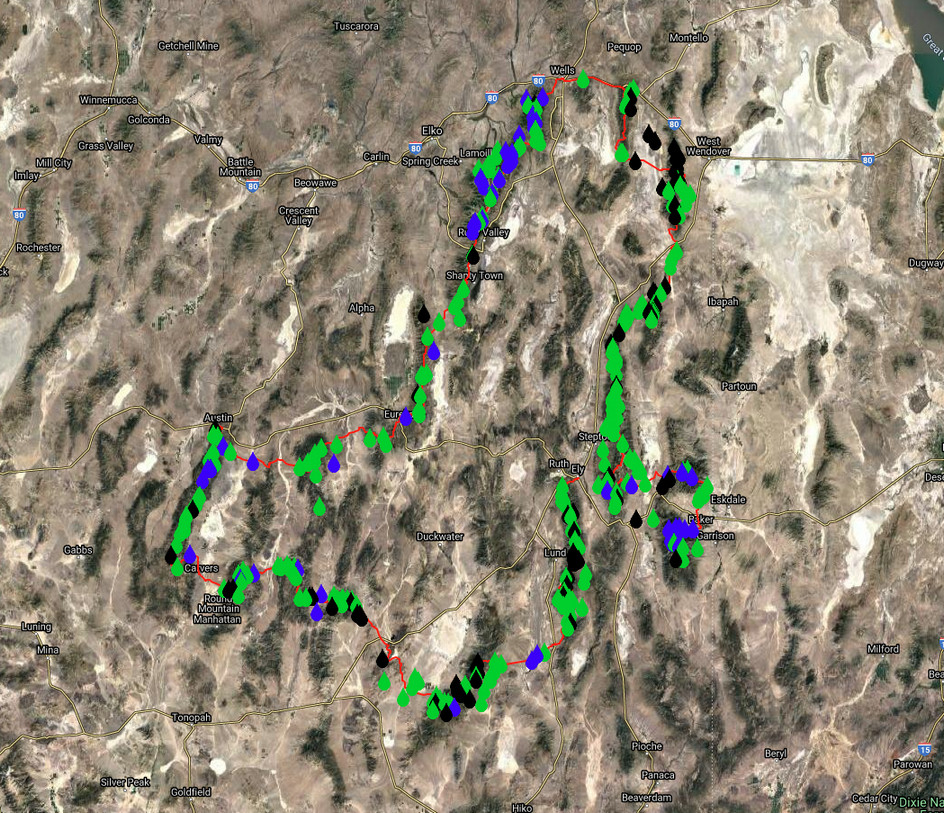
Water sources plotted along the route, color coded for ease of visibility and understanding: Blue = Reliable, Green = Probably/Maybe, Black = Dry
The longest distance in between water sources for me was roughly 25 miles. The standard BRT route as presented in this guidebook has a water carry of up to 38 miles, but potentially as low as 25 depending on the route taken. In total, the BRT has 4 water carries over 20 miles. In general, water is pretty easy to come by, for such an arid climate. In short, water is not as big of a deal as you might think in Nevada.
Most of Nevada’s precipitation falls in the form of snow, and after snowmelt is when water is most abundant. Snow remains longer into the spring and summer season in some ranges than others. The taller the mountains, generally, the wetter they are. In most ranges, the large canyons have water. Many of these water sources in the mountains are flowing creeks.
Water Chart
Besides the GPX file of the route, here’s perhaps the single most important piece of planning info available for a thru hike of the Basin and Range Trail: the Water Chart. All of these water sources are plotted along the GPX file as well, so you can view these water sources along an interactive map.
*This chart is set to View Only, so if you have any updates to this chart, contact me directly and I will add your notes/updates here to the Basin and Range Trail Master Water Chart.
Bushwhacking
To be blunt, there is a shitload of bushwhacking along the Basin and Range Trail. This route was never meant to be conservative, ensuring easy passage or safety. It was meant to be the next-level adventure I was looking for after completing the CDT. For me personally, that meant mapping my own route, going off-trail, and dealing with whatever it was I got myself into. I knew I would be bushwhacking, and I accepted this going into it. I wanted to reach places that looked intriguing to me via satellite, or perhaps, simply connect segments of the route that would not otherwise be possible if one were not willing to put forth the extra effort in bushwhacking. If you don’t want to do any bushwhacking, I don’t blame you. But unless you are willing to do what others won’t, your adventures will be confined to the path more frequently traveled.
The worst bushwhacking along the BRT was in the East Humboldt Range, and the Goshute Range. The East Humboldt Range is notorious for being overgrown, and as wet as it is, can be thicker than anything else you’ve encountered along the BRT. The supple new growth aspens bend easily, but grow so thick that you’ll feel like you’re swimming in them above the ground. The Goshute Range, on the other hand, is much drier. Here, Mahogany Trees are the main obstacle. They grow thick too, but are stiff and brittle. In other words, it hurts more.
One option to consider is having a pair of gloves to protect your hands. They will become torn up without them as you constantly grab and snap branches on some of these bushwhacks. I didn’t have them at the time, but I am now wearing these Fish Monkey Fingerless Gloves. The inside of the palm is a soft flexible leather, and the outside is like a thin neoprene material. The gloves feel light and flexible, yet provide good protection for the hands while bushwhacking.
Weather & Climate
Those unfamiliar with Nevada often think of the state as a giant extension of Las Vegas, one big hot desert. Many are surprised to realize that the rest of the state varies as much as it does. Las Vegas sits in a valley at around 1800’ elevation, while the lowest point along the BRT is 4800’. Only once does it dip below 5000’. Most basins are around 5500’, with some as high as 6500’. Those are the LOW points along the route. Sure, it can be hot on the BRT, but nowhere near as hot as Las Vegas, due to higher elevations. Central and northern Nevada is a different environment. The rest of the state does not see the 115 degree temps that Las Vegas does.
See the Koppen climate classification map of Nevada below, with the BRT route overlaid:

You can see in southern Nevada, the red, which indicates “hot desert”. This is the desert most people think of when they think of deserts. In the southern portion of the route, along sections 2 and 3, you will encounter “cold desert” environments, but the rest of the low valleys along the route are mostly “cold semi-arid”. The mountain ranges are mostly “warm-summer Mediterranean continental” and to a lesser extent, “warm-summer Mediterranean”.
Expect bluebird skies nearly every day in June with mild temps. The low valleys aren’t too hot this time of year, and can actually be quite cold still on occasion throughout June. There is still the possibility of snow storms in June, expect a dusting or two at high elevations. The temps heat up around the beginning or July, and getting uncomfortable by mid July. Afternoon thunderstorms were sparse during my 2020 thru hike, only occurring within a one week window in late July. July and August will routinely see temps of the 90s and during a heat wave, the low 100s in the valleys along the BRT. It’s almost always windy in Nevada, and the winds are often high. The good news is that the winds generally die down at night. There are very few overcast days, so be prepared to be exposed to direct sunlight for the majority of your hike.
Mountain Ranges of the Basin and Range Trail
Valleys (Basins) of the Basin and Range Trail
Town Stops & Resupply
The Basin and Range Trail was created with as many walk-in town stops for resupply as possible, as opposed to hitching. Even so, half of the town stops require hitching. The towns are small and extremely isolated along most of the route. Besides the I-80 corridor along the northern end of the route, the biggest towns are Ely with 4,000 and Tonopah with 2,000. The other towns have little to offer. Preston, Carvers and Austin do not have grocery stores, so you’ll need to send a food box to these towns.
With the need to charge electronics and dump media from my cameras, I generally stay in a hotel in town. If I am sending myself a package, I’ll send it to the motel I plan on staying at. This is preferred over sending to a post office, because then you are not tied to their hours when you get into town. For example, get into town Saturday afternoon, and you’ll need to wait until Monday to get your box from the post office. Mailing to a motel eliminates that problem.
For a detailed Town Guide, check out the Basin and Range Trail Guidebook
Caching
It is not necessary to cache food or water anywhere along the Basin and Range Trail, unless you wish to do so. I did not employ this strategy as I rely on towns to recharge my electronics, dump media from my cameras and backup data.
If I were to cache, I would do so in place of the towns that require a hitch. So, I would cache at the end of section 1 (Sunnyside), section 2 (Lunar Crater), section 6 (Lamoille Canyon), section 8 (US 93 Alt) and section 9 (Cave Lake State Park). Of course, anywhere your route crosses a road will work, and selecting exact cache locations is up to you.



